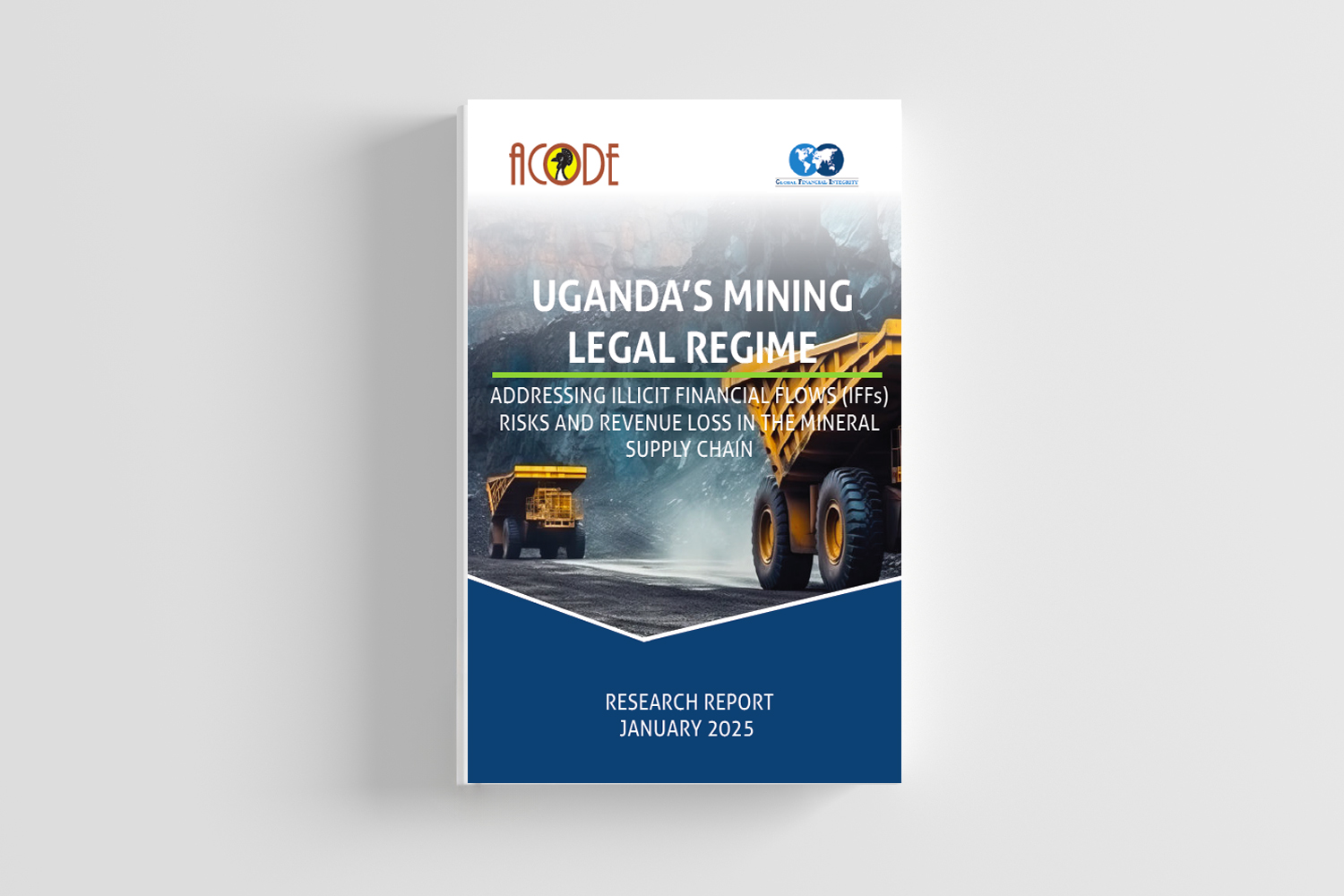
Uganda's Mining Legal Regime: Addressing Illicit Financial Flows Risks and Revenue Loss in the Mineral Supply Chain
Author(s): Onesmus Mugyenyi, Phoebe Atukunda, Paul Twebaze, Eugene Ssemakula, Peter Watua, and Oscord Mark Otile
Published: 2025
The mineral sector’s legal, regulatory, and institutional framework is governed by the 1995 Constitution [as amended in 2005], the Mining and Mineral Policy (2018), the Mining and Minerals Act, Cap.159, and the attendant Regulations. Other relevant laws include; The East African Community Customs Management Act, 2004; Public Finance Management Act, Cap. 171; Income Tax Act, Cap. 338; The International Conference on the Great Lakes Region (Implementation of the Pact on Security, Stability, and Development in the Great Lakes Region) Act, Cap. 188; The Companies Act, Cap.106 among others (UGEITI, 2023). However, this research report focuses on the Mining and Minerals Act, Cap. 159, and the Income Tax Act, Cap. 338.
View PDF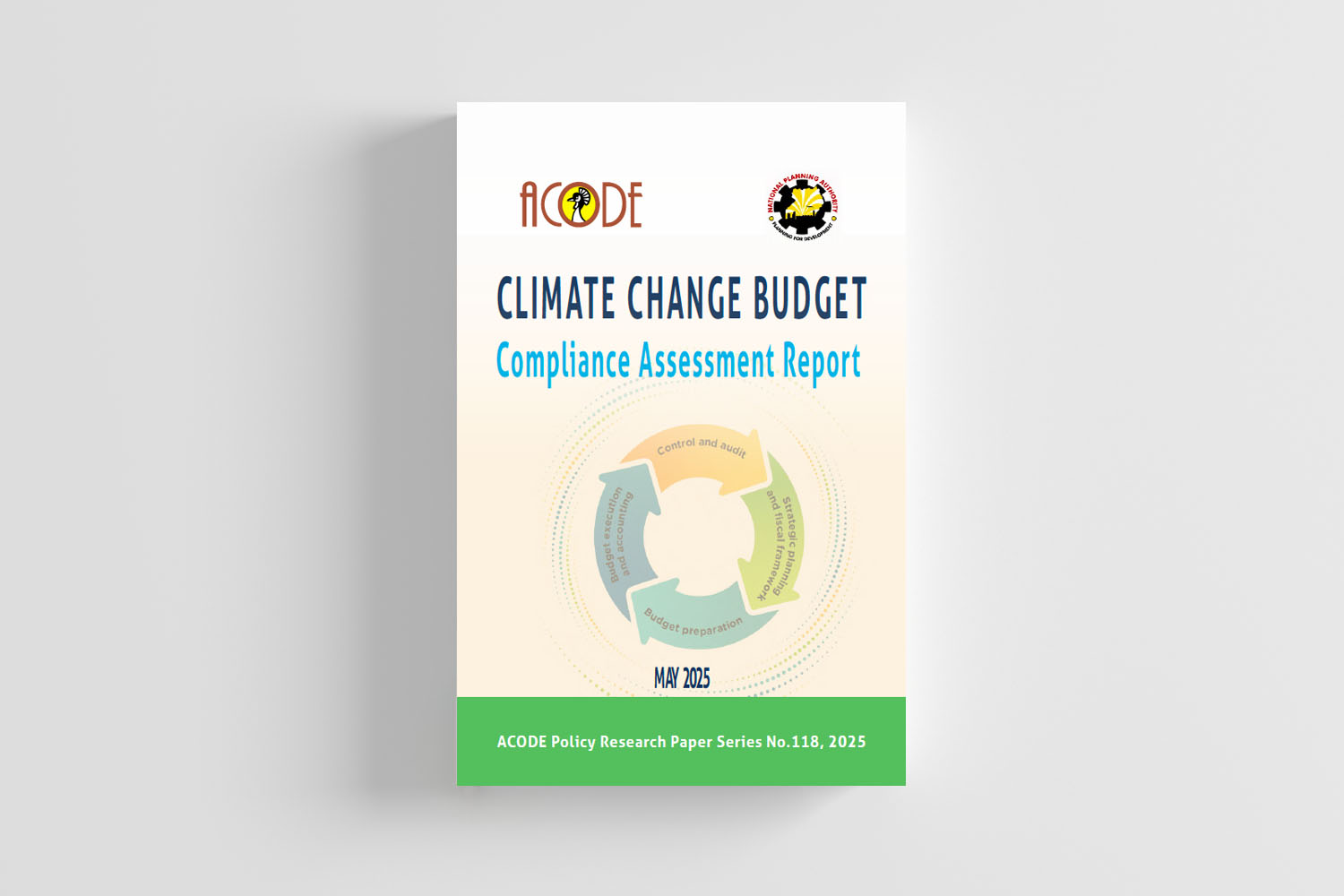
Climate Change Budget Compliance Assessment Report (May 2025)
Author(s): ACODE and NPA
Published: 2025
This report presents a compliance assessment of Uganda’s national budget for Financial Year (FY) 2024/25, evaluating the budget’s alignment with climate change priorities that are outlined in the Third National Development Plan (NDP III). The assessment focuses on thirteen (13) priority programmes, selected for their climate change vulnerability, strategic importance, and potential to contribute to climate resilience and low-carbon development. With the Fourth National Development Plan (NDP IV) already approved, this analysis provides insights into the country’s progress with climate-change-sensitive development programming and action, while highlighting gaps in climate finance integration. This effort should inform more robust and inclusive planning for the future.
View PDF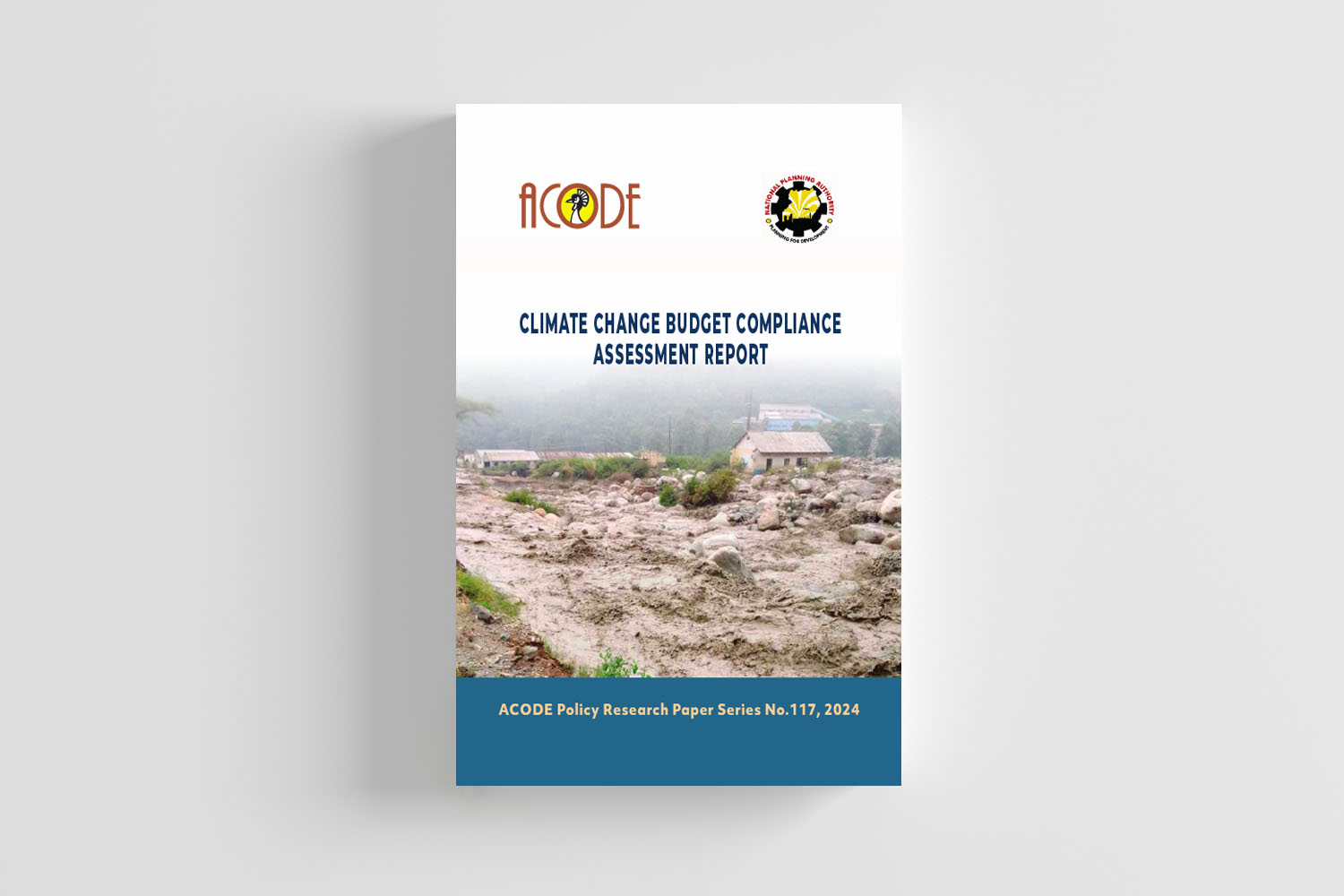
Climate Change Budget Compliance Assessment Report
Author(s): ACODE and NPA
Published: 2024
This assessment report presents the degree of alignment between national planning and budgeting tools in addressing planned climate change adaptation and mitigation interventions in the NDP III. Uganda is increasingly vulnerable to extreme weather events such as floods, landslides, and prolonged droughts, significantly impacting livelihoods and macroeconomic stability. The country's heavy reliance on agriculture exacerbates this vulnerability, making climate change integration into national development planning critical and a survival strategy. According to the Notre Dame Global Adaptation Initiative 2021, Uganda ranks 13th in climate change vulnerability globally and 160th in preparedness. The NDP III (2020/21-2024/25) addresses climate change as a major development challenge and integrates climate interventions across all its twenty programs. The effective alignment of national budgets with these climate commitments is essential for fostering resilience and sustainable development, particularly for vulnerable groups. The Climate Change Budget Compliance Assessment Report comprehensively evaluates Uganda’s national budget alignment with climate change interventions outlined in the third National Development Plan (NDP III) for the fiscal years 2023/24 and 2024/25. The assessment is mandated by Section 13(7) of the Public Finance Management Act 2015 and Section 30 of the National Climate Change Act 2021.
View PDF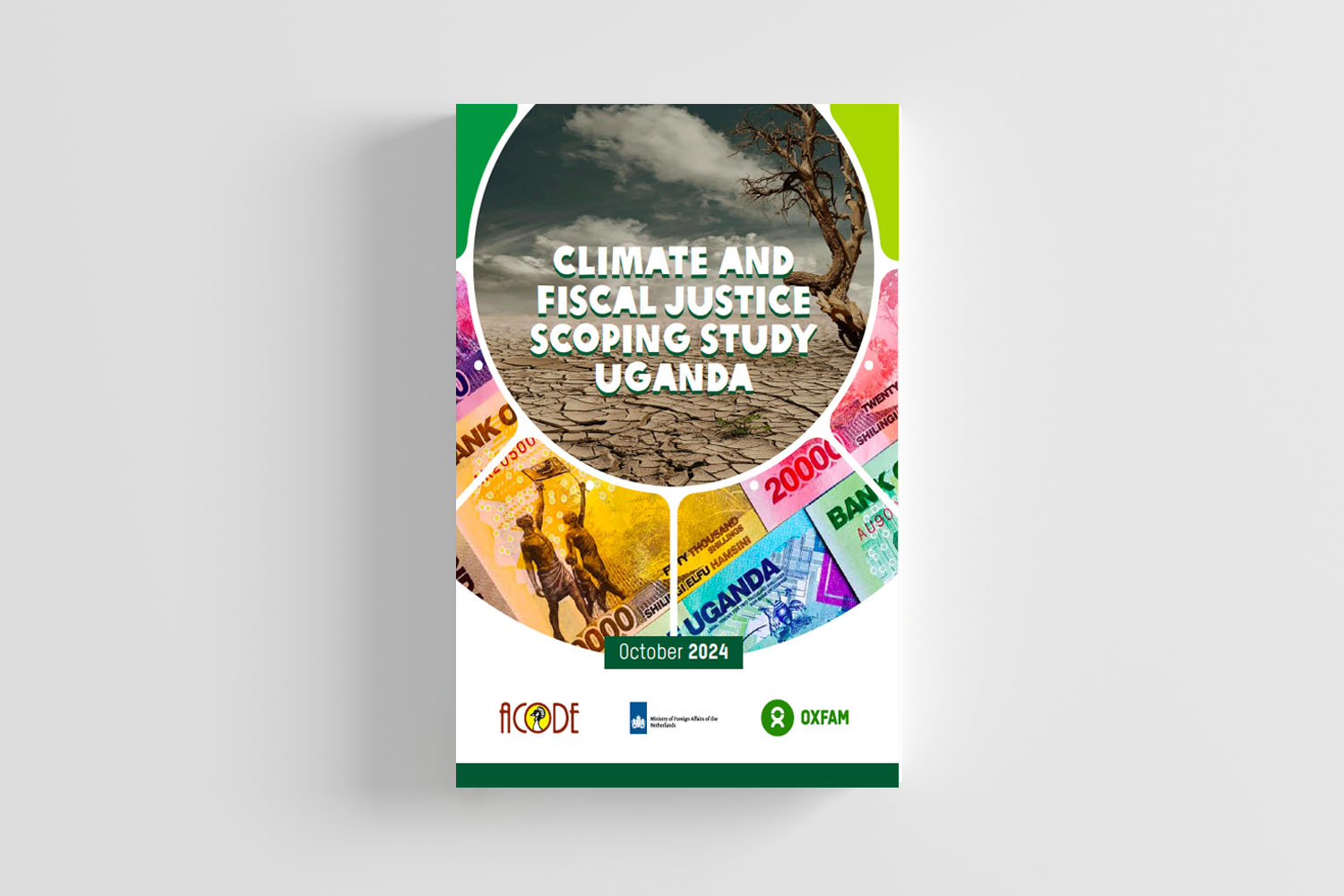
Climate and Fiscal Justice Scoping Study: Uganda
Author(s): ACODE and OXFAM
Published: 2024
This report looks at the climate change challenge facing Uganda using a lens of fiscal justice and analyses the magnitude of the threat and how fiscal and justice instruments can be leveraged for effective response. Uganda is projected to see droughts of heightened frequency, intensity, and duration by 2030, which will severely affect productivity in growing areas for temperature-sensitive crops such as coffee and tea. Uganda is ranked 12th most vulnerable to climate change out of 192 countries and is also one of the least prepared, ranking 163rd out of 192 countries in terms of readiness to deal with the climate crisis. The severe threat posed by climate change and the accompanying loss and damage it brings put issues of climate fiscal justice under scrutiny. Specifically, there is uncertainty around the adequacy of public finance management systems to respond to climate change in terms of equity-responsive budgetary allocation and tracking of climate finance. Equally important is whether richer countries are honoring their legal obligations in channeling climate finance to low-income countries in line with Article 9 of the Paris Agreement. It is evident that the current scale of financing falls short of the challenges at hand and requires urgent intervention to support low-income countries that are already grappling with the dire effects of climate change.
View PDF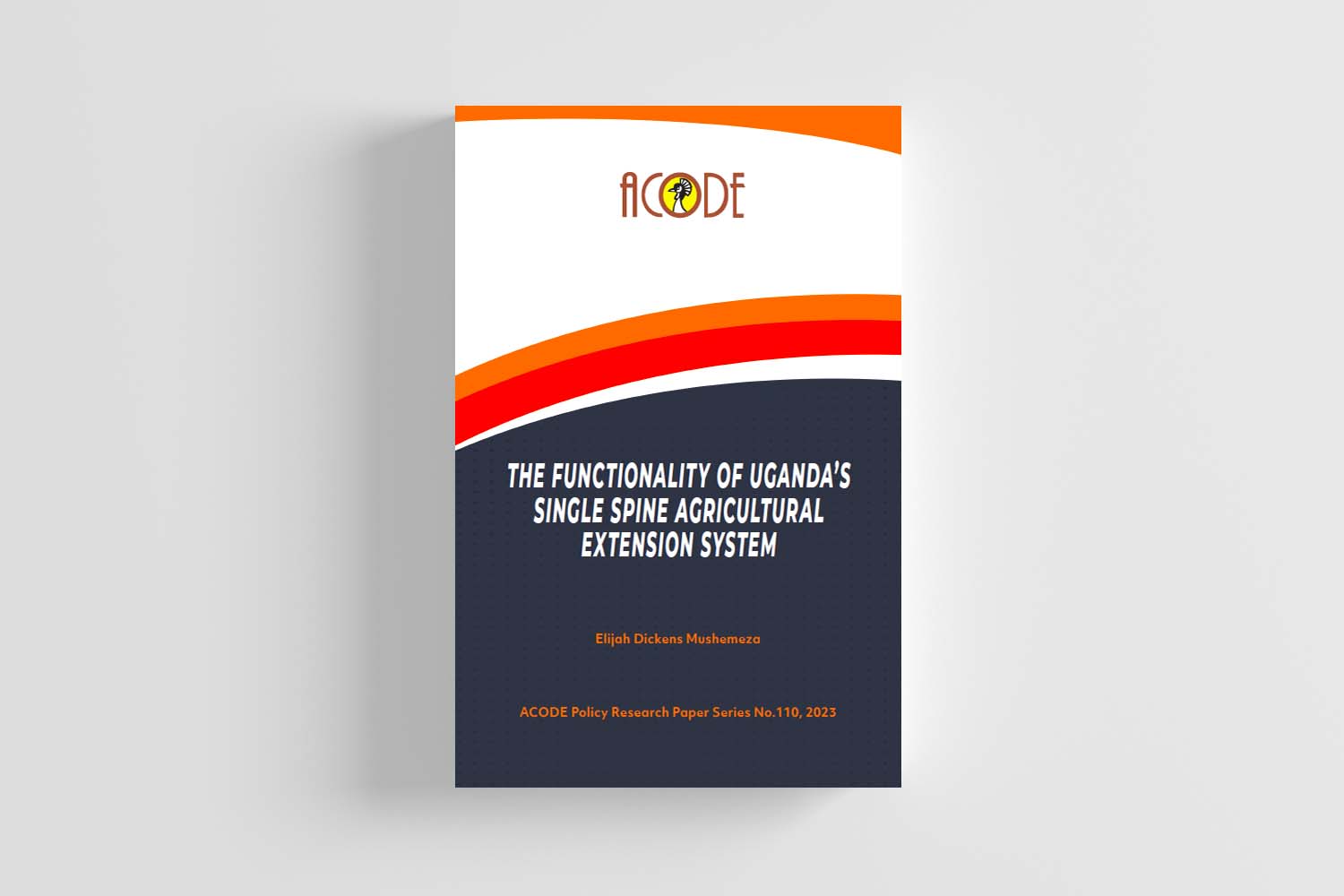
The Functionality of Uganda’s Single Spine Agricultural Extension System
Author(s): Elijah D. Mushemeza
Published: 2023
This report presents the findings and discussions on the functionality of the single-spine agricultural extension system in Uganda. The recommendations from the research process will potentially inform the implementation of the new national agricultural extension strategy aligned to the NDP III, the Parish Model, and the national agenda of socio-economic transformation. The single spine extension system was conceptualized as a well-coordinated, harmonized, public sector-led pluralistic extension system. The aim was to eliminate the parallel institutional arrangements that emerged during the NAADS program implementation. It aims at enhancing agricultural production and productivity, value addition, food security, household income, and export. In addition, it focuses on building the capacity of individual farmers and farmer institutions to have greater access to and control over structures and processes that transform their resources and assets into the outcomes that they desire to achieve their goals.
View PDF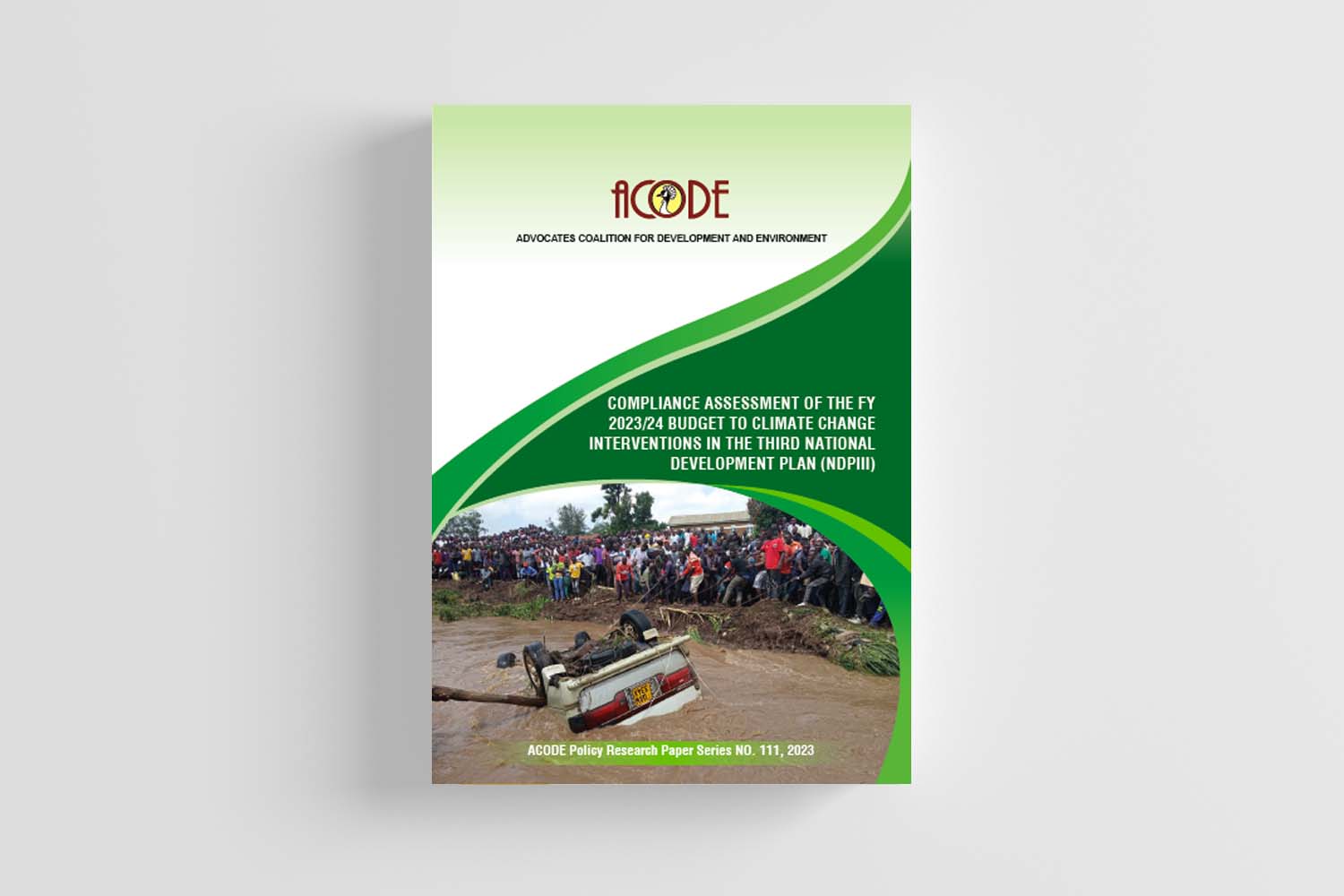
Compliance Assessment of the FY 2023/24 Budget to Climate Change Interventions in the Third National Development Plan
Author(s): ACODE
Published: 2023
This report presents the compliance assessment of the FY 2023/24 budget to climate change interventions in the third National Development Plan (NDPIII) based on ten (10) priority programmes were selected due to their real or potential contribution to climate change and their strategic importance to the development process.
View PDF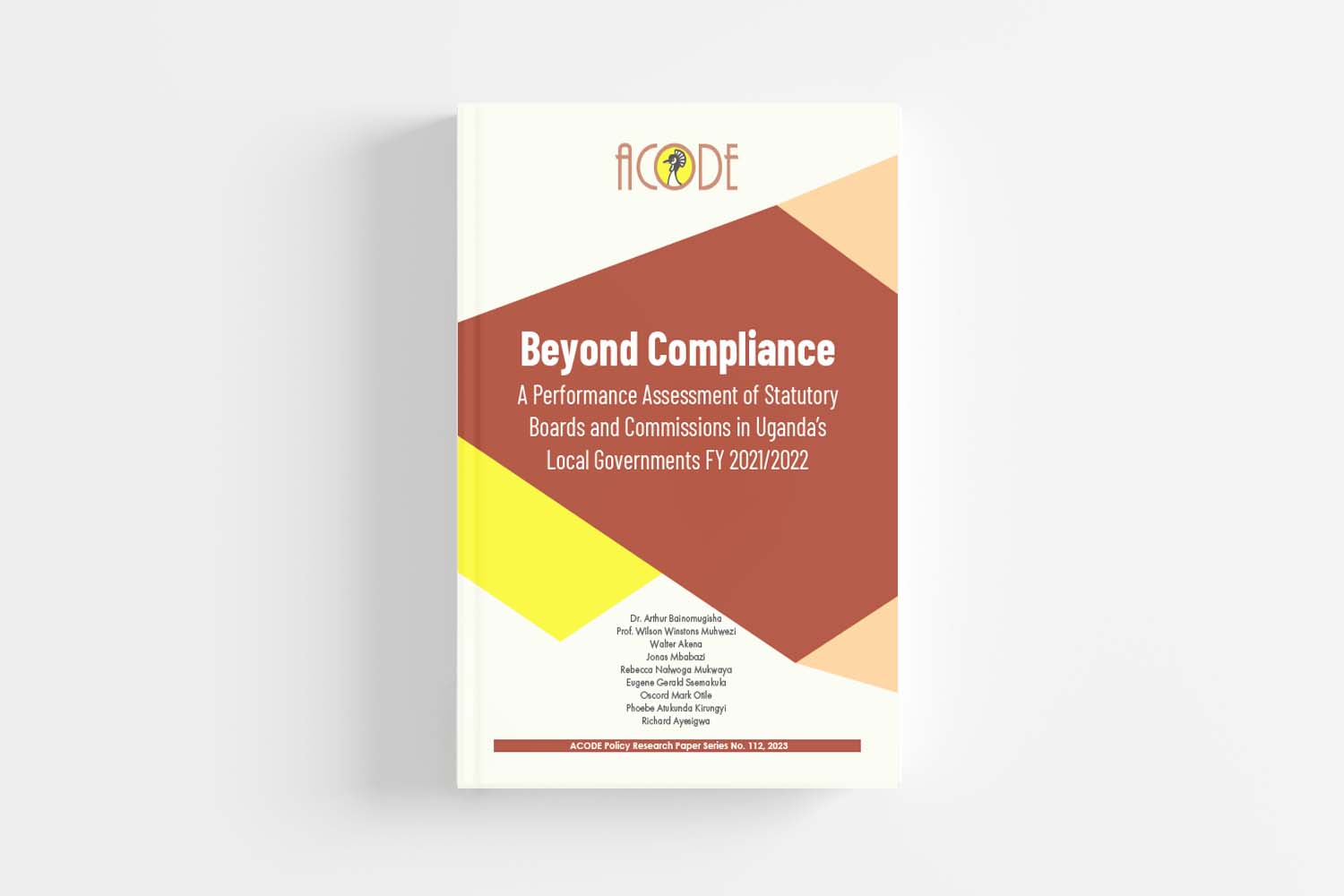
Beyond Compliance: A Performance Assessment of Statutory Boards and Commissions in Uganda’s Local Governments FY 2021/2022
Author(s): Arthur Bainomugisha , Wilson Winstons Muhwezi , Walter Akena, Jonas Mbabazi, Rebecca Nalwoga Mukwaya, Eugene Gerald Ssemakula, Oscord Mark Otile, Phoebe Atukunda Kirungyi, and Richard Ayesigwa
Published: 2023
This report presents findings from the first assessment of Statutory Boards and Commissions comprising the District Service Commissions (DSC), District Land Boards (DLB), and LG Public Accounts Committees (LGPAC) in 26 District Local Governments. This cutting-edge Assessment was the first of its kind and provided a ground-breaking opportunity to examine these important structures designed to provide regulation, oversight and additional citizen representation and voice, within the ambit of Uganda’s Decentralisation Policy. The report offers interesting and intriguing insights into the operations of the Statutory Boards and Commissions which point to an urgent need to revitalise and strengthen them as critical pillars of Local Governance in Uganda.
View PDF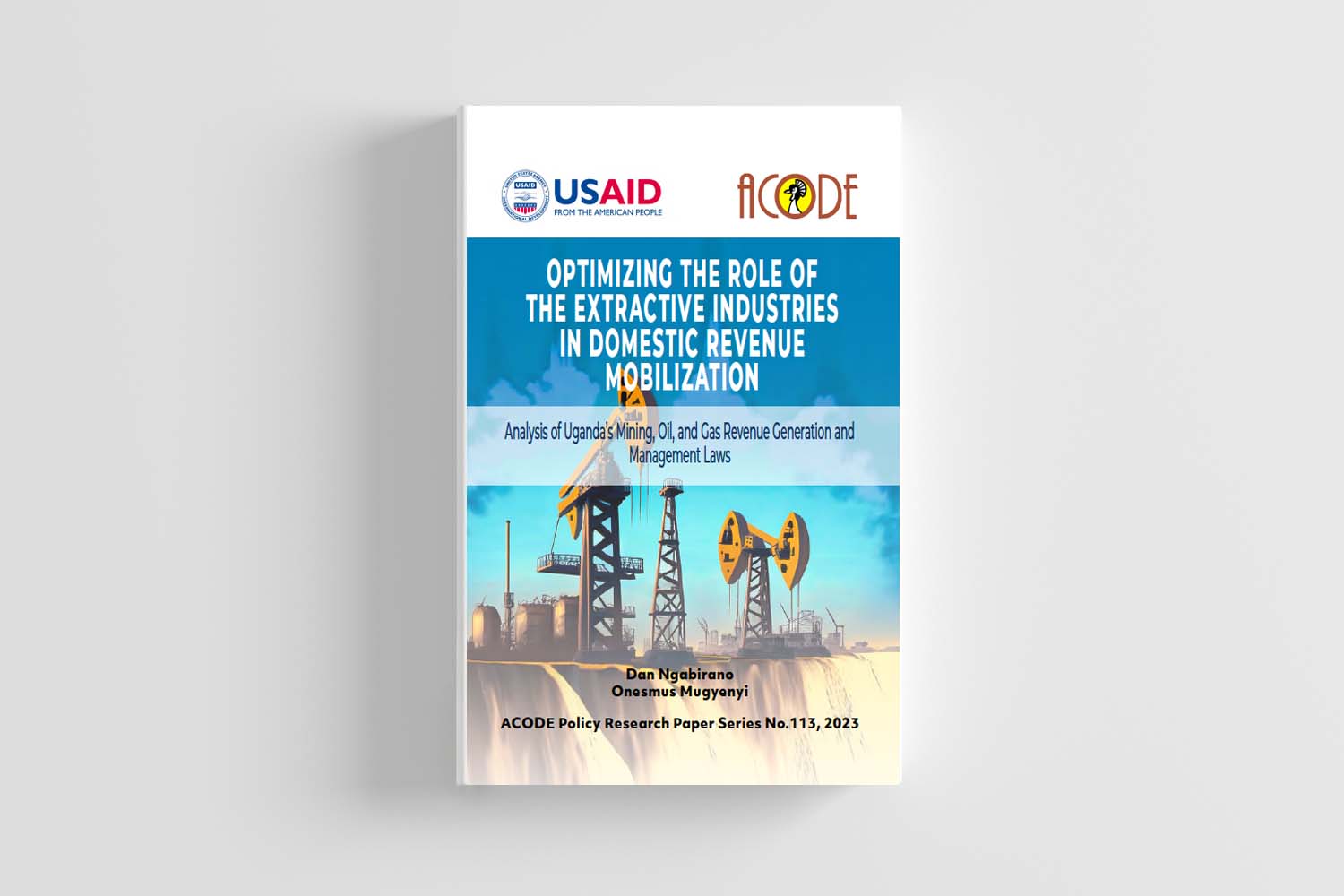
Optimizing the Role of the Extractive Industries in Domestic Revenue Mobilization: Analysis of Uganda’s Mining, Oil, and Gas Revenue Generation and Management Laws
Author(s): Dan Ngabirano and Onesmus Mugyenyi
Published: 2023
Dwindling aid and more recently the devastating effects of the COVID-19 global pandemic have rendered many African countries socially, politically, and economically vulnerable. Many are unable to effectively provide basic goods and services for their people, and their ability to pursue long-term development goals has been severely undermined. Given this situation, several African governments continue to fall behind in honouring their global commitments such as those made under the UN Sustainable Development Goals (SDGs) and the various regional and international human rights treaties that they are party to. To bridge the current funding gap, several African countries have turned to extensive borrowing with even more damaging consequences. In the face of this crisis, African countries have been urged to embrace and, in some instances, enhance their domestic revenue mobilization efforts as a more reliable and sustainable option. Uganda has heeded this call and in 2019, the country adopted a five-year Domestic Revenue Mobilization Strategy (DRMS). The key objective of this strategy is to improve revenue collection and lift the country’s tax-to-GDP ratio to between 16%-18%. More critically, DRMS recognizes the strategic role and potential contribution of oil, gas, and mineral revenues to national development. The DRMS underlines the need for the development of a strong extractive industries taxation fiscal regime. Given this reality, this study was conceived and set out to review and analyze the various laws, policies, and practices relevant to Uganda’s extractive industries fiscal regime, and to establish the extent to which these may enhance revenue generation, management, and equitable sharing of resource wealth. While focused on petroleum revenue generation, management, and sharing in the Albertine region districts of Hoima, Buliisa, and Kikuube, the study refers to experiences from gold mining in Mubende district.
View PDF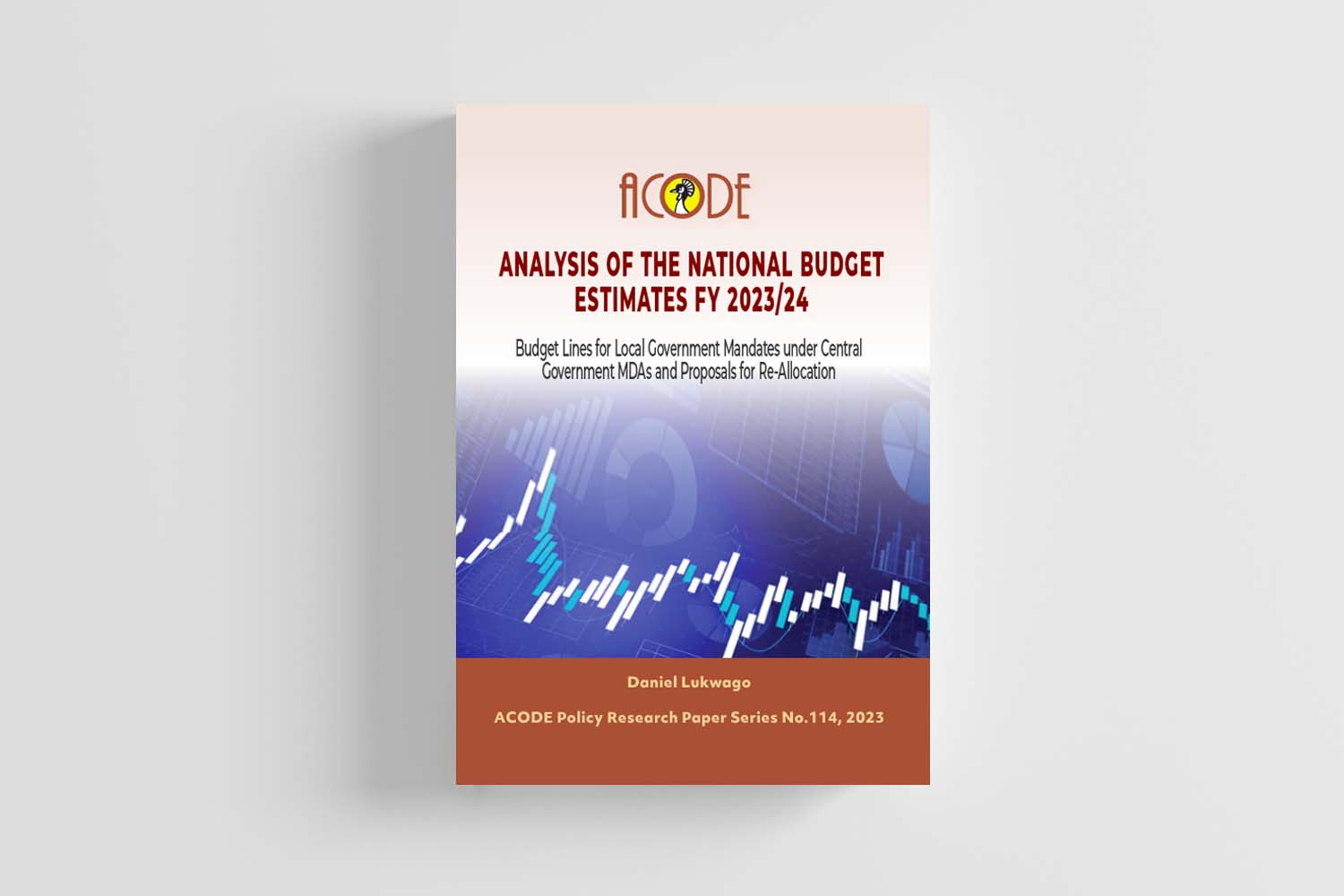
Analysis of the National Budget Estimates FY 2023/24: Budget Lines for Local Government Mandates under Central Government MDAs and Proposals for Re-Allocation
Author(s): Daniel Lukwago
Published: 2023
The study extensively reviewed all relevant budget documents, focusing mainly on the approved estimates of revenue and expenditure (recurrent and development) FY 2023/24. The study analyzed ten programmes with decentralized functions as prescribed in the Local Government Act, CAP 243 (second Schedule), and identified funds retained by the CG MDAs, yet they are mandated for LGs. The programmes analysed were Agro-Industrialisation; Natural Resources, Environment, Climate Change, Land and Water Management; Private Sector Development; Integrated Transport Infrastructure and Services; Sustainable Urbanization and Housing; Human Capital Development, Community Mobilization and Mindset Change Regional Development; Public Sector Transformation and Tourism Development.
View PDF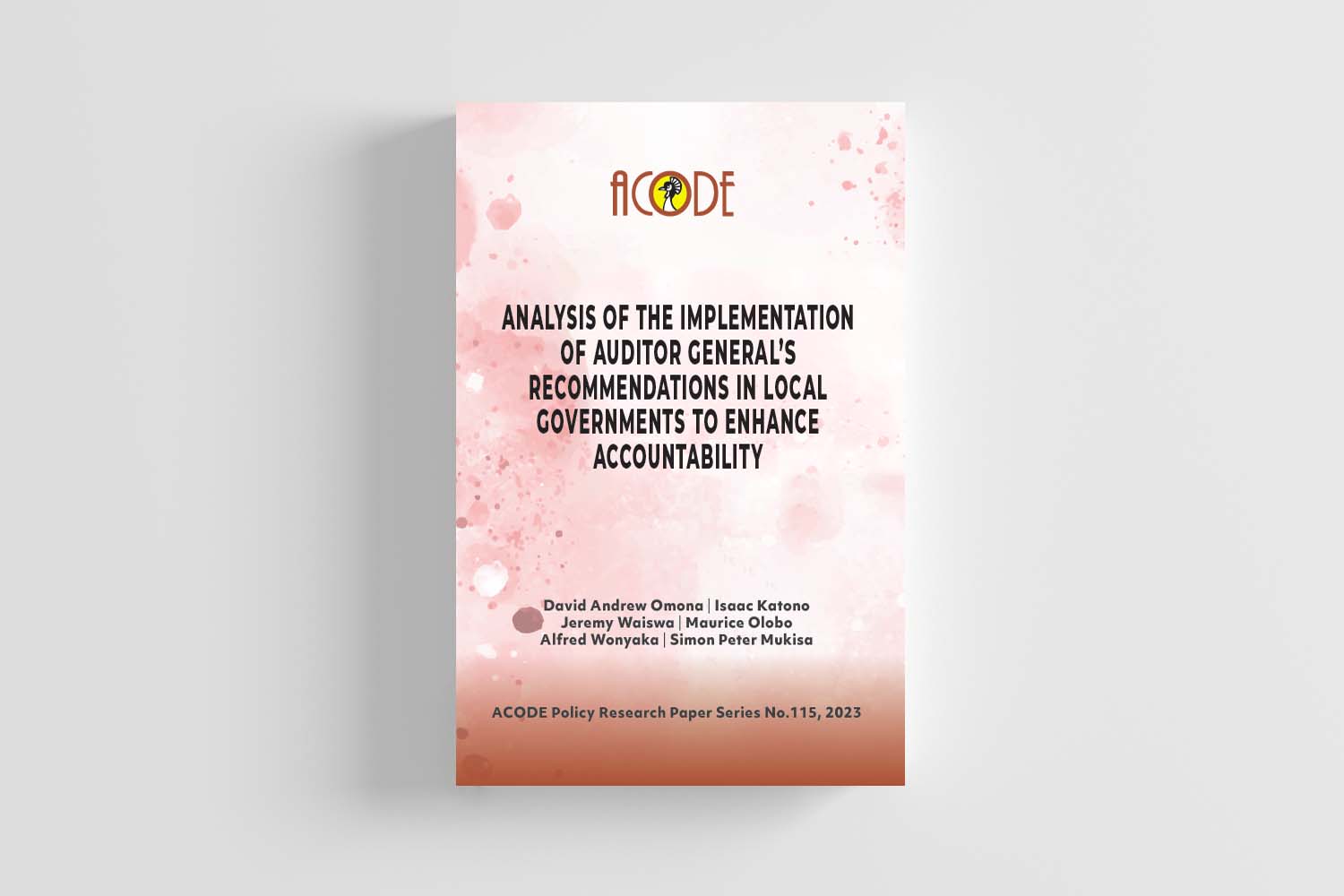
Analysis of the Implementation of Auditor General’s Recommendations in Local Governments to Enhance Accountability
Author(s): David Andrew Omona, Isaac Katono, Jeremy Waiswa, Maurice Olobo, Alfred Wonyaka, and Simon Peter Mukisa
Published: 2023
This research paper presents the findings of the study on the status of implementation of the Auditor General’s recommendations in Local Governments in Uganda. In implementing their mandates, local governments are expected to ensure compliance with existing laws and guidelines. As such, the Local Governments, through the National Performance Assessments conducted by the Office of the Prime Minister were assessed on their level of compliance and accountability. The findings noted that contrary to the other requirements beyond the timely submission of information to the Permanent Secretary/ Secretary to the Treasury, the status of the implementation of the Internal Auditor General and the Auditor General’s findings from the previous financial years remain a challenge for most Local Governments. It is on this basis that this study was conceptualized.
View PDF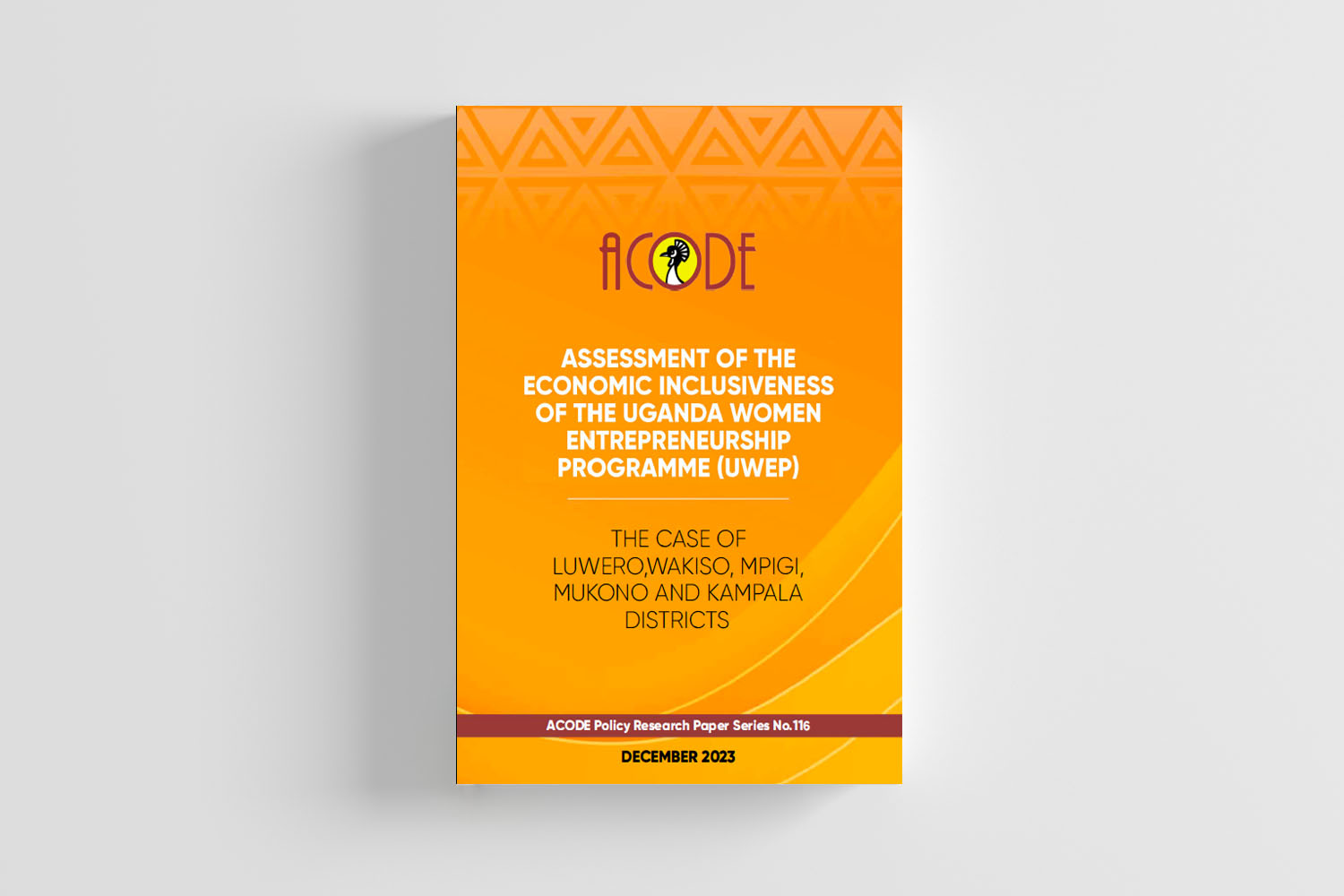
Assessment of the Economic Inclusiveness of the Uganda Women Entrepreneurship Programme (UWEP): The Case of Luwero,Wakiso, Mpigi, Mukono and Kampala districts
Author(s): ACODE
Published: 2023
This paper assesses the economic inclusiveness of the Uganda Women Entrepreneurship Programme (UWEP). UWEP, a flagship program initiated by the government in the fiscal year 2015/2016, is specifically dedicated to women’s economic empowerment and enhancing their contribution to economic development. In all EIPs, there is a special emphasis on inclusion, particularly focusing on the economic empowerment of women and other marginalized groups. Despite these well-intentioned government efforts, issues such as income poverty, regional inequalities, gender disparities, and the rural-urban divide persist. These challenges persist even though these programmes consume a substantial share of public resources.
View PDF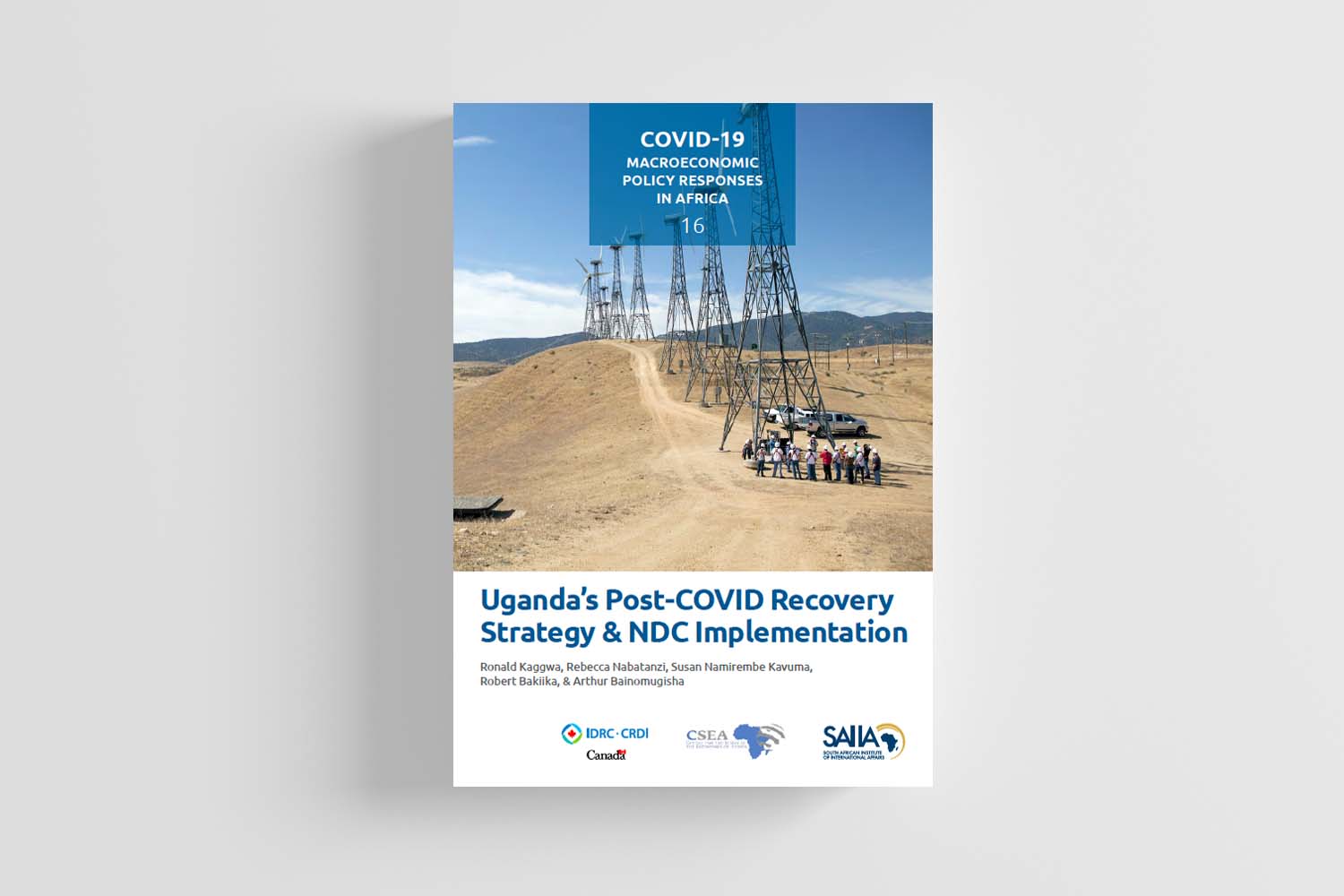
Uganda’s Post-COVID Recovery Strategy & NDC Implementation
Author(s): Ronald Kaggwa, Rebecca Nabatanzi, Susan Namirembe Kavuma, Robert Bakiika, & Arthur Bainomugisha
Published: 2023
This paper analyses the climate-friendliness of Uganda’s post-COVID-19 recovery strategy and, specifically, its alignment with the country’s targets in its Nationally Determined Contributions (NDCs). The recovery strategy has the potential to provide an effective climate change response and meet the NDCs. However, there are several gaps related to the marginalisation of climate action in the economic recovery resource-allocation process, the ability of macroeconomic recovery strategies to advance a genuinely green and resilient economy, and limited fiscal space to invest in a climate-sensitive recovery. These gaps notwithstanding, the economic stimulus and growth strategy is an unparalleled opportunity to align COVID-19 recovery with environmental fiscal reform goals.
View PDF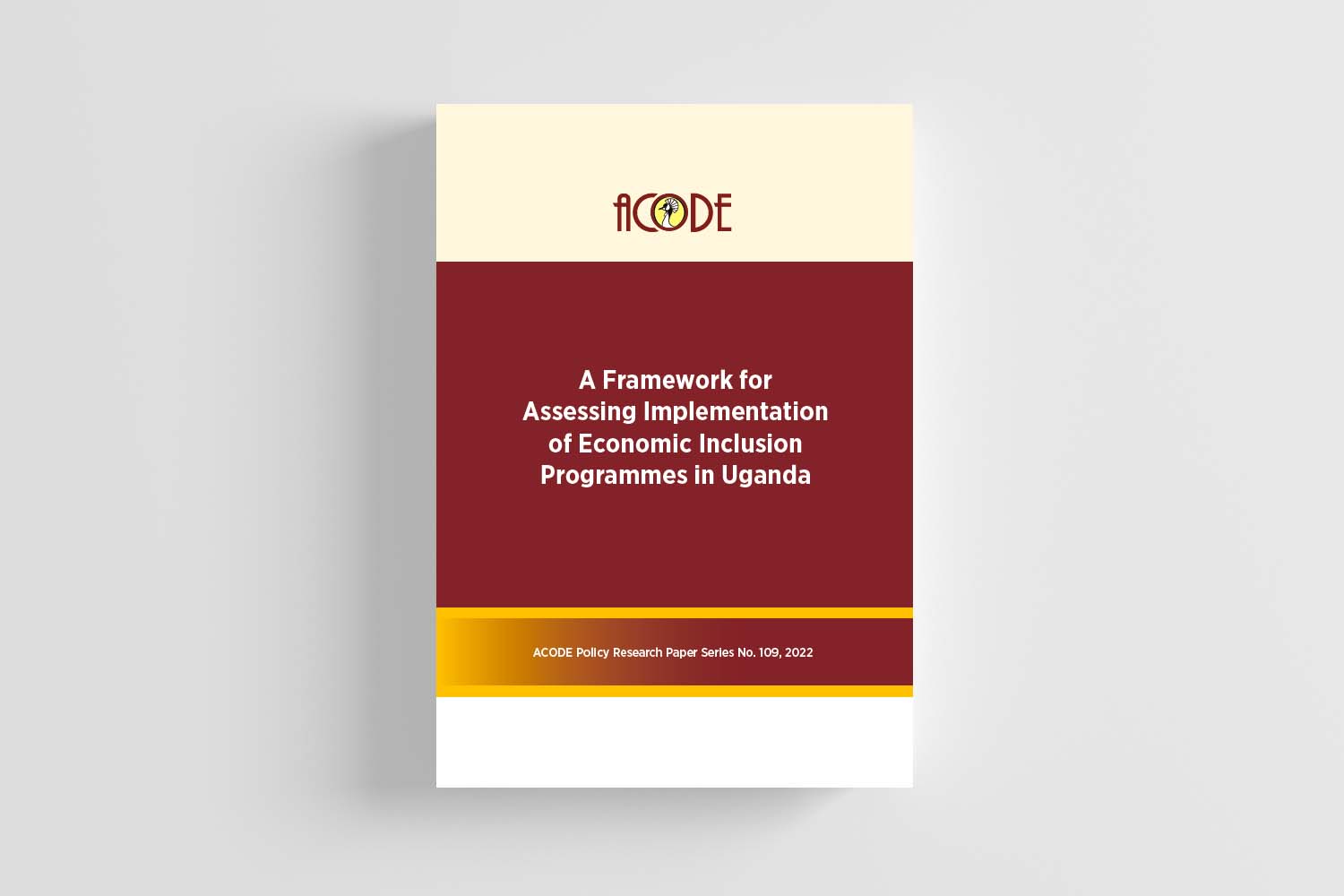
A Framework for Assessing Implementation of Economic Inclusion Programmes in Uganda
Author(s): ACODE
Published: 2022
This framework for assessing the implementation of EIPs in Uganda is part of efforts to improve the implementation of the EIP. It is motivated by the inadequacy of existing frameworks to cause a change in the design and execution of EIPs in Uganda. The framework is rooted in social accountability and builds on previous works of ACODE on governance and public expenditure analysis and monitoring. The theory of change for this EIP framework is to assess, disseminate, and advocate. By assessing the designs and implementation of EIPs and disseminating the findings of the assessment to implementers and beneficiaries and using the findings for advocacy, then the design and implementation of EIPs will improve and with it the likelihood of achieving programme outcomes and ultimately impact. The framework has six assessment areas namely programme design, efficacy, quality of M&E, efficiency, compliance, and risk management. It is guided by the following principles: social accountability, participation, empowerment for engagement, learning, and optimisation.
View PDF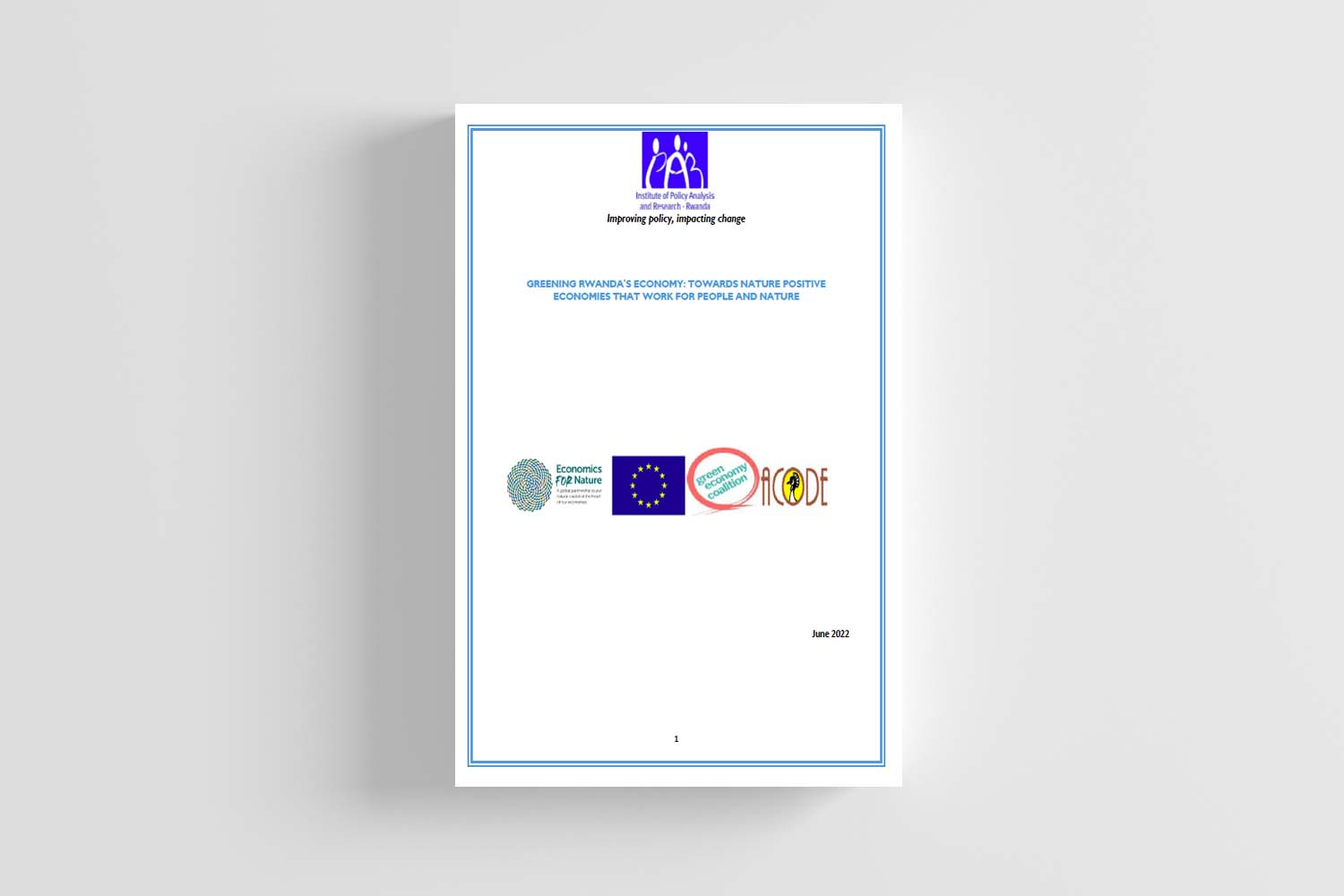
Greening Rwanda's Economy: Towards Nature Positive Economies that Work for People and Nature
Author(s): IPAR
Published: 2022
This framing paper provides a clear analysis of Rwanda’s status in advancing towards a nature-positive green economy. Rwanda has taken a proactive approach in mainstreaming climate change into its development policies and strategies – many of which promote investing, protecting, and restoring ecosystems, which is why transitioning towards a nature-positive green economy is evident.
View PDF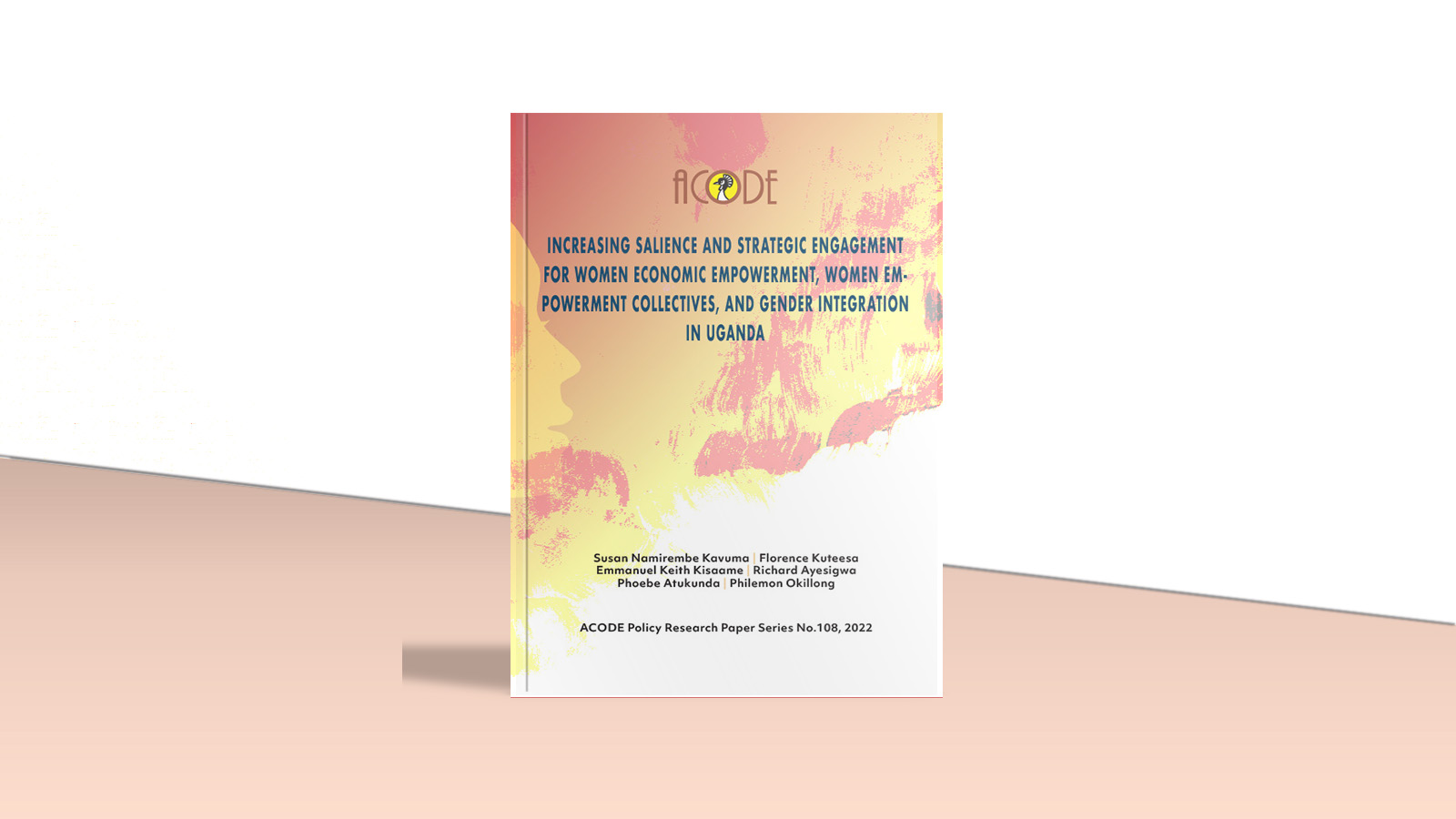
Increasing Salience and Strategic Engagement for Women Economic Empowerment, Women Empowerment Collectives, and Gender Integration in Uganda
Author(s): Susan Namirembe Kavuma, Florence Kuteesa, Emmanuel Keith Kisaame, Richard Ayesigwa, Phoebe Atukunda, and Philemon Okillong
Published: 2022
This study assessed the salience and strategic engagement for women economic empowerment, women empowerment collectives, and gender integration in Uganda. It delivers the roadmap for effective engagement of Women Economic Empowerment, Women Empowerment Collectives, and Gender Integration to refocus strategies for women economic empowerment, reflecting on effective stakeholders' engagement and pursuing a commitment to leveraging the synergies for WEE in a systematic and coordinated manner.
View PDF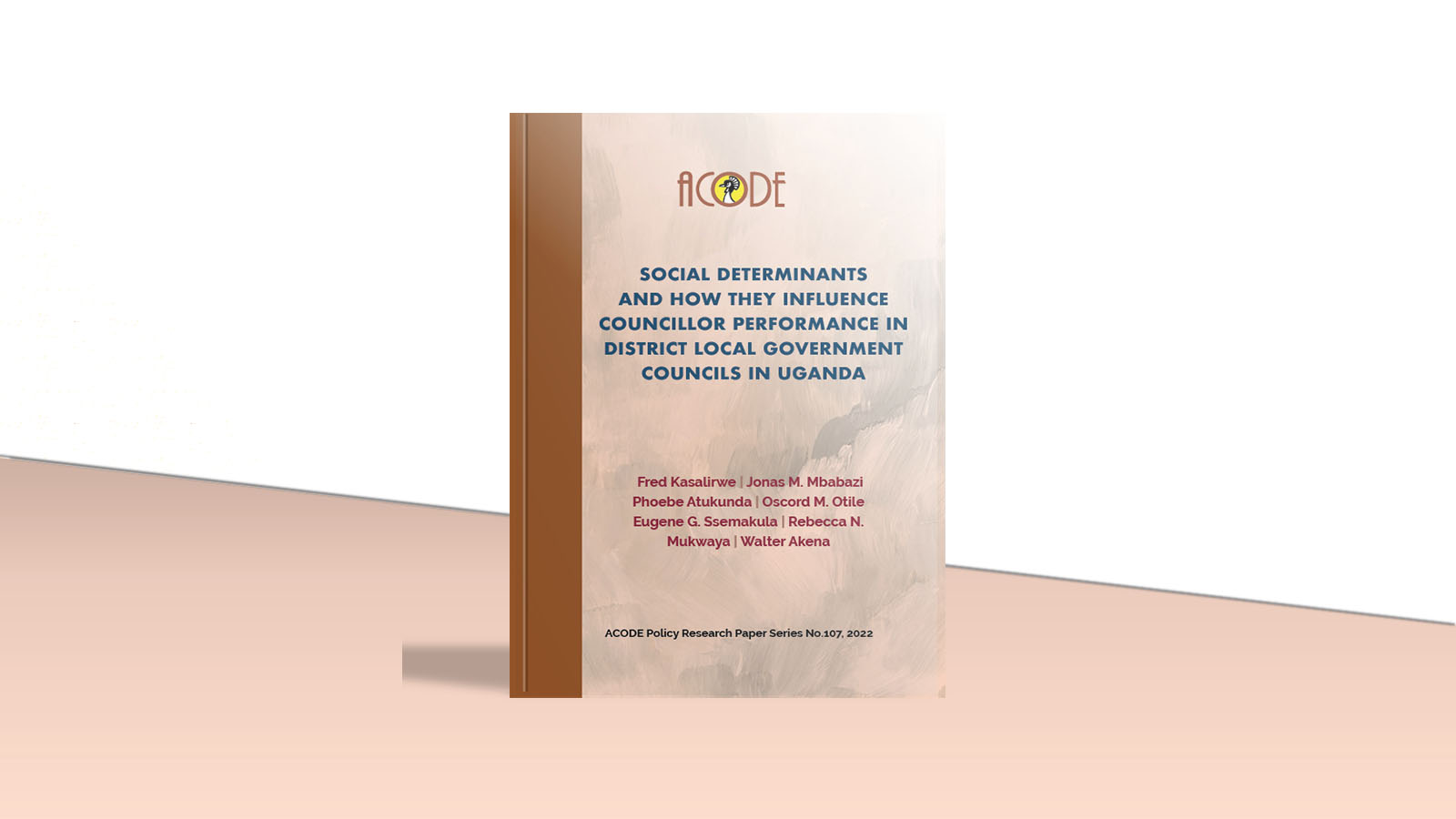
Social Determinants and how they Influence Councillor Performance in District Local Government Councils in Uganda
Author(s): Fred Kasalirwe, Jonas M. Mbabazi, Phoebe Atukunda, Oscord M. Otile, Eugene G. Ssemakula, Rebecca N. Mukwaya, and Walter Akena
Published: 2022
This paper analyses how social determinants influence councillors role performance in the district local government in Uganda. The extent to which elected local government leaders to perform their roles is critical for the quality of social services delivered to citizens. In the analysis, social determinants are conceptualised as; the education level of councillors, political party affiliation, electoral terms served/experience, councillor category, gender, and geographical location of the constituency represented by a councillor. In the same analysis, councillors' roles were conceptualised to include; legislation, contact with the electorate, participation in lower local governments, and monitoring service delivery.
View PDF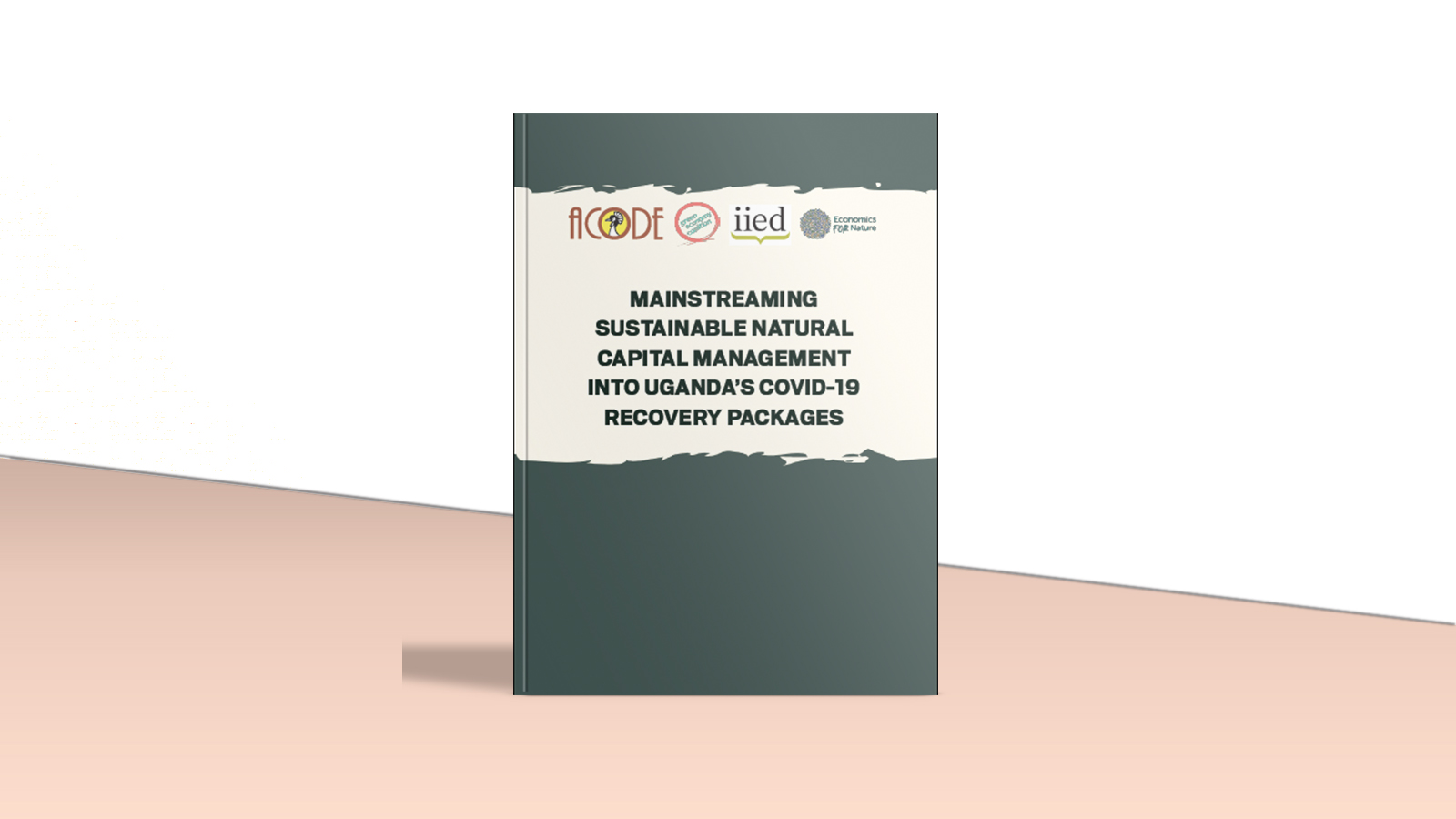
Mainstreaming Sustainable Natural Capital Management Into Uganda’s COVID-19 Recovery Packages
Author(s): ACODE
Published: 2021
The report sought to mainstream natural capital management in Uganda’s COVID-19 Recovery Plans. It highlights and analyzes the existing COVID-19 Recovery Packages, their implications on natural capital, and recommends measures that will strengthen the mainstreaming of natural capital in economic decision making.
View PDF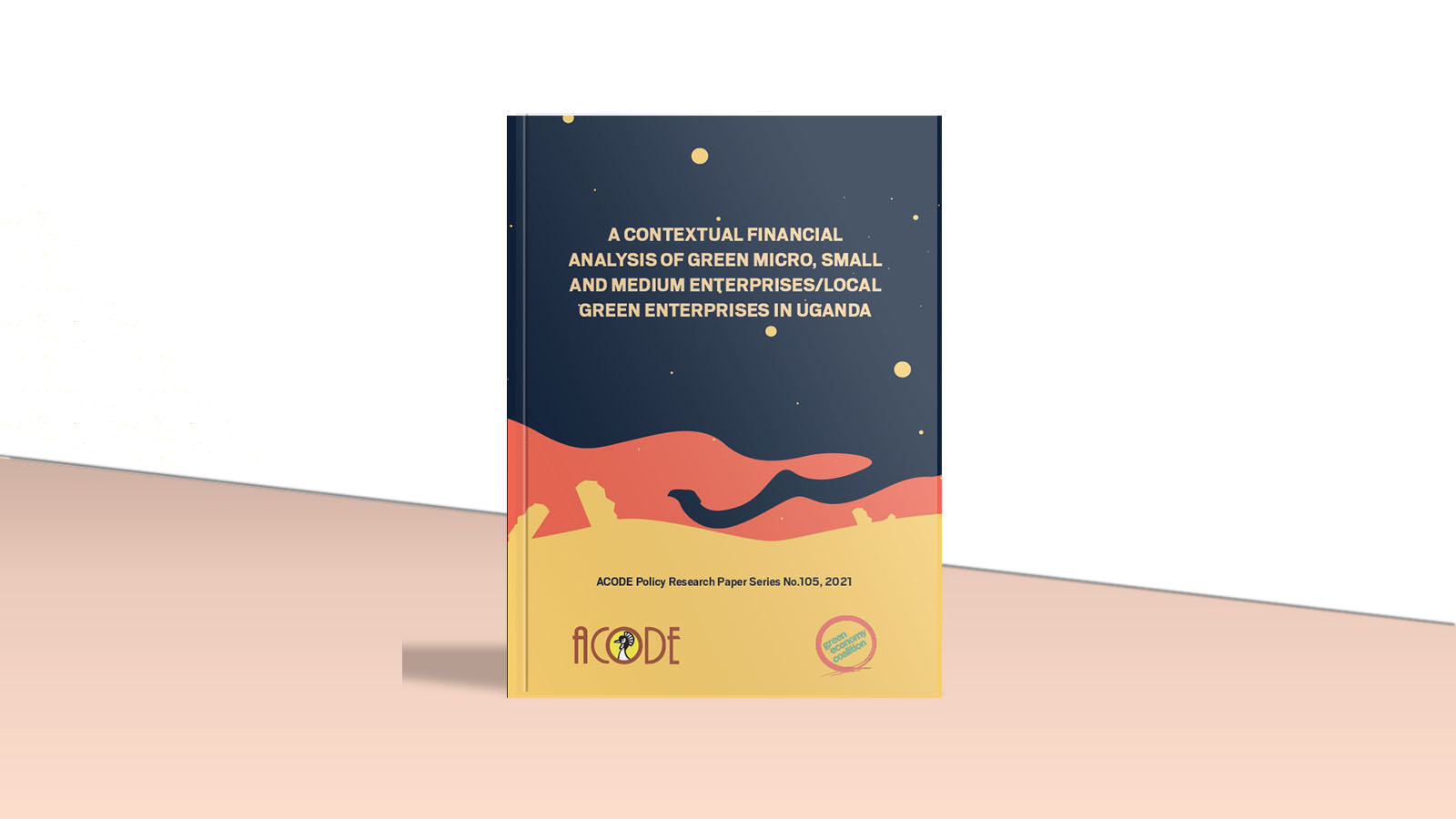
A Contextual Analysis of Green Micro, Small and Medium Enterprises/Local Green Enterprises in Uganda
Author(s): ACODE
Published: 2021
The report contributes to a better understanding of the sustainable financial architecture and how it affects the activities and priorities of LGEs in Uganda. It is hoped that the report will guide informed discussions at local and national levels and feed into the development of sustainable finance policy instruments, laws, support systems and standards that improve investment climate for LGEs and consequently promote the greening of MSMEs.
View PDF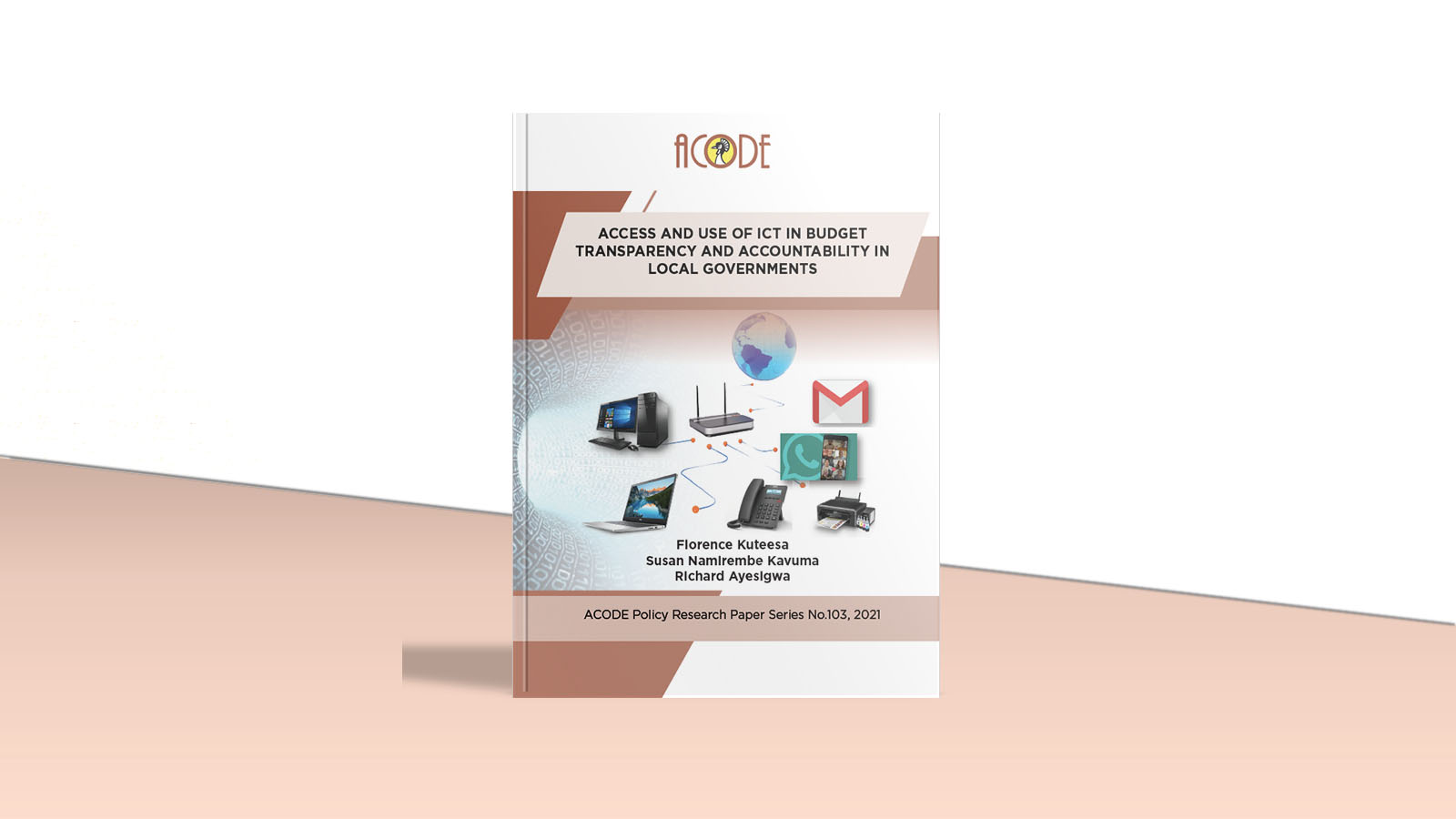
Access and Use of ICT in Budget Transparency and Accountability in Local Governments
Author(s): Florence Kuteesa, Susan Namirembe Kavuma, and Richard Ayesigwa
Published: 2021
The study examines the levels of awareness, access and capacities of local Government administration (LGs) to use ICT tools and e-government services in the budgeting process in the advent of the COVID-19 pandemic. The existing legal and policy frameworks clearly stipulate the roles and responsibilities of state and non-state actors in promoting budget transparency and accountability.
View PDF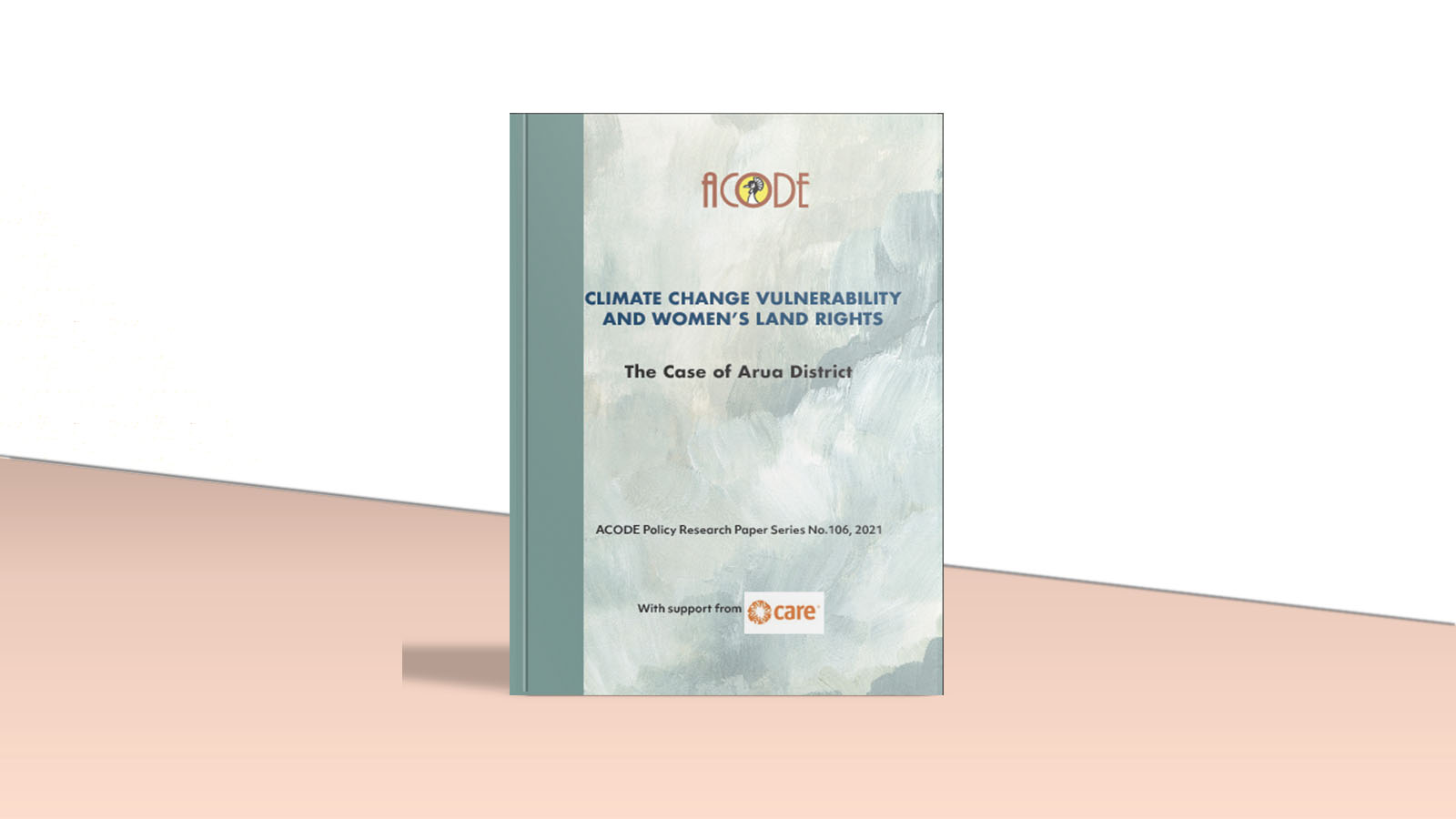
Climate Change Vulnerability and Women’s Land Rights: The Case of Arua District
Author(s): ACODE
Published: 2021
The paper is a result of an action-oriented study was conducted in Arua district with an overall objective of examining the climate change vulnerabilities for women and girls and the contribution of limited access, ownership, and control over land to these vulnerabilities. The findings of this study show that Arua district is very vulnerable to climate change impact risk. The vulnerability and effects of different climate hazards and land issues vary with social groups and livelihood activities. The key climate hazards identified were drought, erratic weather patterns as well as climate-induced pests and diseases. The land rights issues included lack of: (1) land ownership, (2) control over land, and (3) knowledge on land rights.
View PDF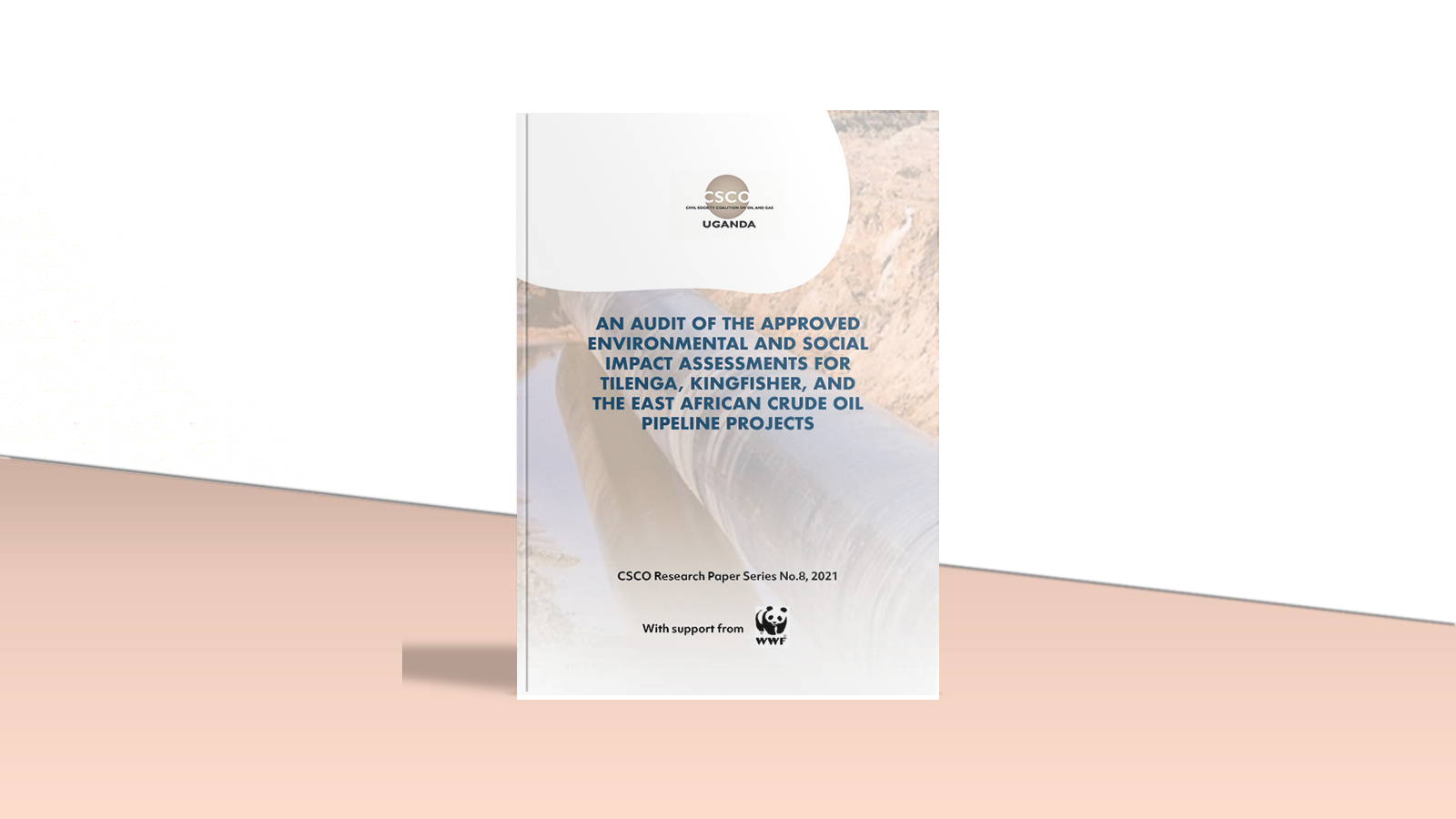
An Audit of the Approved Environmental and Social Impact Assessments for Tilenga, Kingfisher, and the East African Crude Oil Pipeline Projects
Author(s): CSCO
Published: 2021
This report presents findings from a review of the approved oil and gas projects Environmental and Social Impact Assessments (ESIAs) to establish the extent to which comments from CSCO were addressed and recommendations integrated. The ESIAs considered for this audit included the Tilenga, the EACOP, and Kingfisher ESIAs. The review/audit aimed at identifying comments and recommendations raised during public hearings that were addressed or incorporated into the approved ESIAs. The inclusion was done in order to evaluate the contribution of CSCO to the ESIA process.
View PDF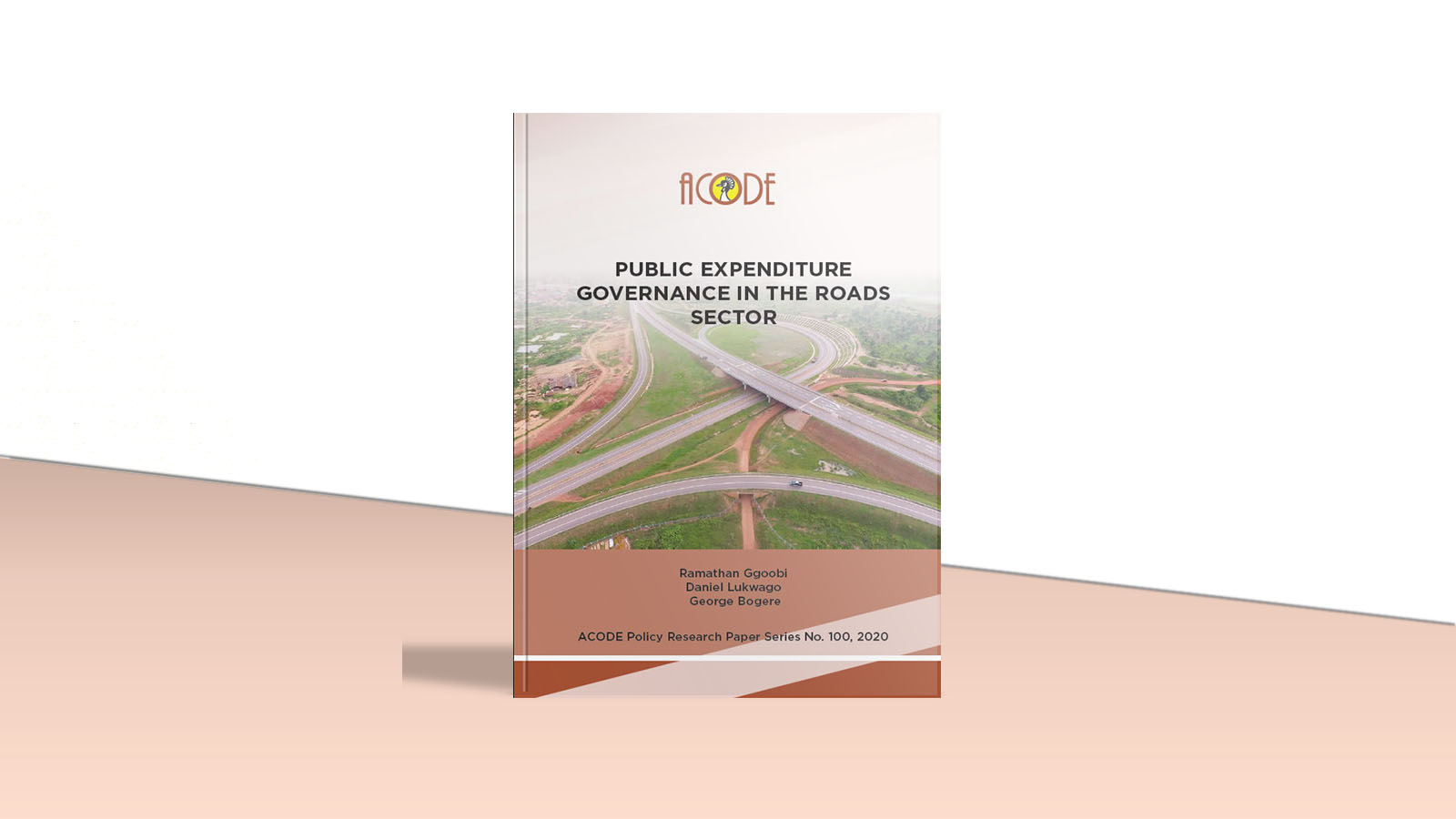
Public Expenditure Governance in the Roads Sector
Author(s): Ramathan Ggoobi, Daniel Lukwago, and George Bogere
Published: 2020
This study examines how funds in the roads sub-sector were allocated and managed during the Fiscal Year (FY) 2015/16-2018/19. The aim is to assess the impact of these investments, and the effectiveness of the planning, budgeting and execution and plans and budgets in the roads sub-sector. The study was motivated by government priority tagging of the Road Sector as “fundamental” for the achievement of the Uganda Vision 2040. Consequently, the roads have claimed the largest share of the national budget over the last decade. However, Uganda’s road transport network is still very small by international standards, with only 21.4 percent of the national road network paved.
View PDF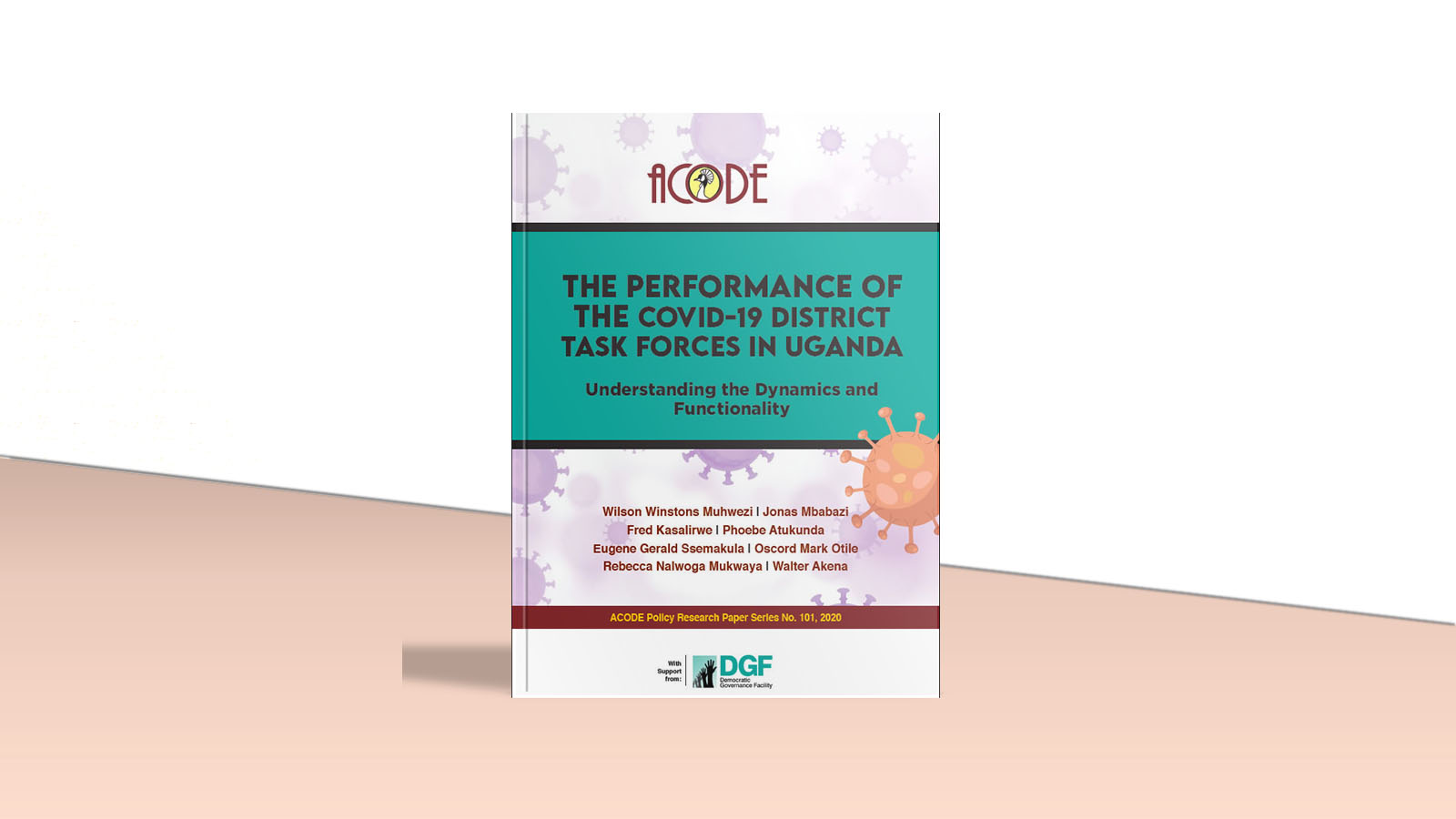
The Performance of the COVID-19 District Task Forces in Uganda: Understanding the Dynamics and Functionality
Author(s): Winstons Wilson Muhwezi, Jonas Mbabazi, Fred Kasalirwe, Phoebe Atukunda, Eugene Gerald Ssemakula, Oscord Mark Otile, Rebecca Nalwoga Mukwaya, and Walter Akena
Published: 2020
The report presents the performance of the COVID-19 District Task Forces (DTFs) established in Uganda to tackle the pandemic. The study was conducted during the months of August and September 2020. As countries face the unprecedented challenges from COVID-19 the strain on the governments’ coffers is extreme, and the impact on people all over the world continues to grow.
View PDF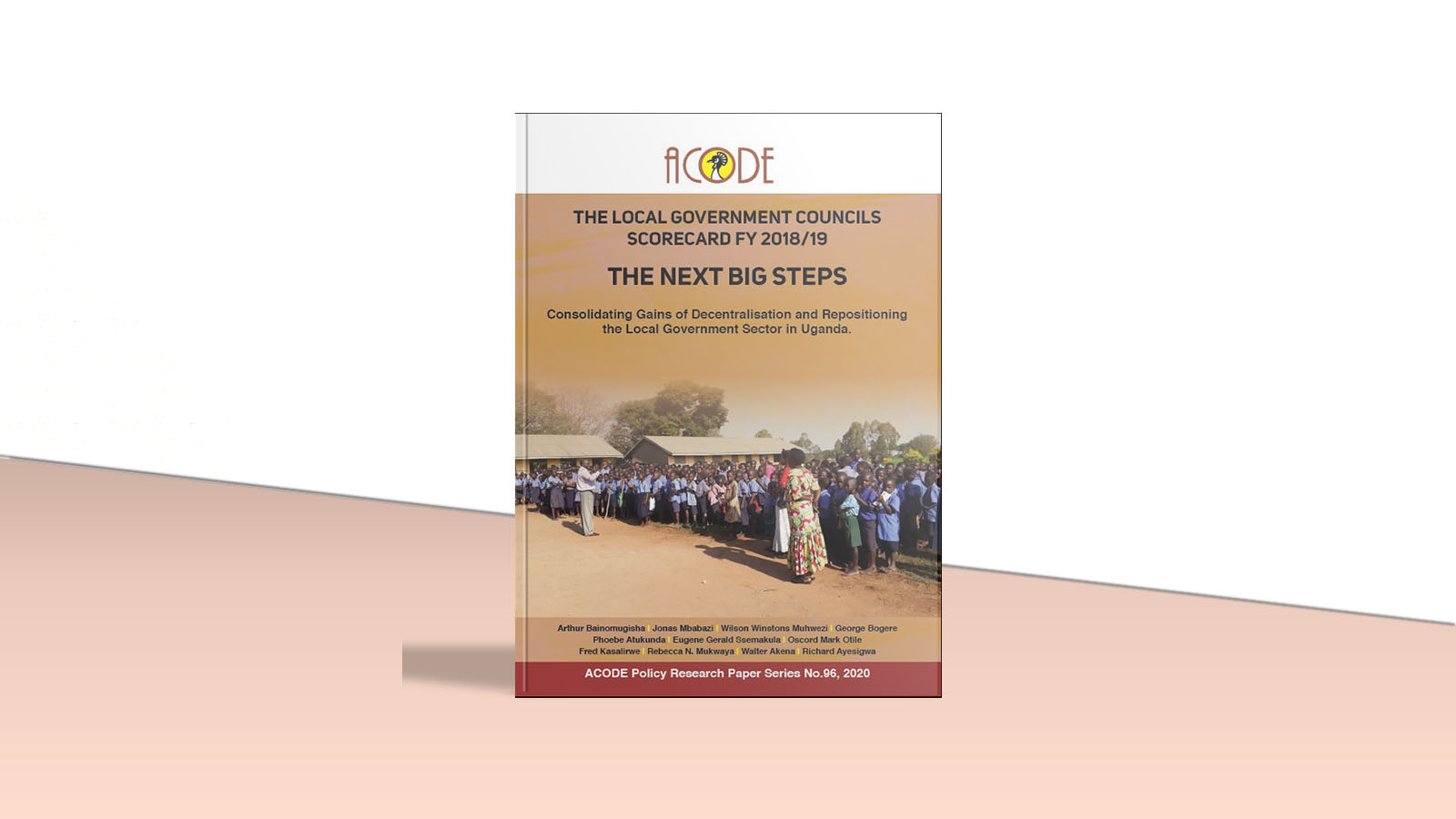
The Local Government Councils Scorecard FY 2018/19: The Next Big Steps; Consolidating Gains of Decentralisation and Repositioning the Local Government Sector in Uganda
Author(s): Arthur Bainomugisha, Jonas Mbabazi, Wilson Winstons Muhwezi, George Bogere, Phoebe Atukunda, Eugene Gerald Ssemakula, Oscord Mark Otile, Fred Kasalirwe, Rebecca N. Mukwaya, Walter Akena, and Richard Ayesigwa
Published: 2020
This report is the eighth in a series that presents findings and results of the performance of elected political leaders at the district levels during the Financial Year 2018/2019. The assessment was conducted in 35 Local Governments, scientifically selected basing on criteria that meet contemporary research norms and good practices
View PDF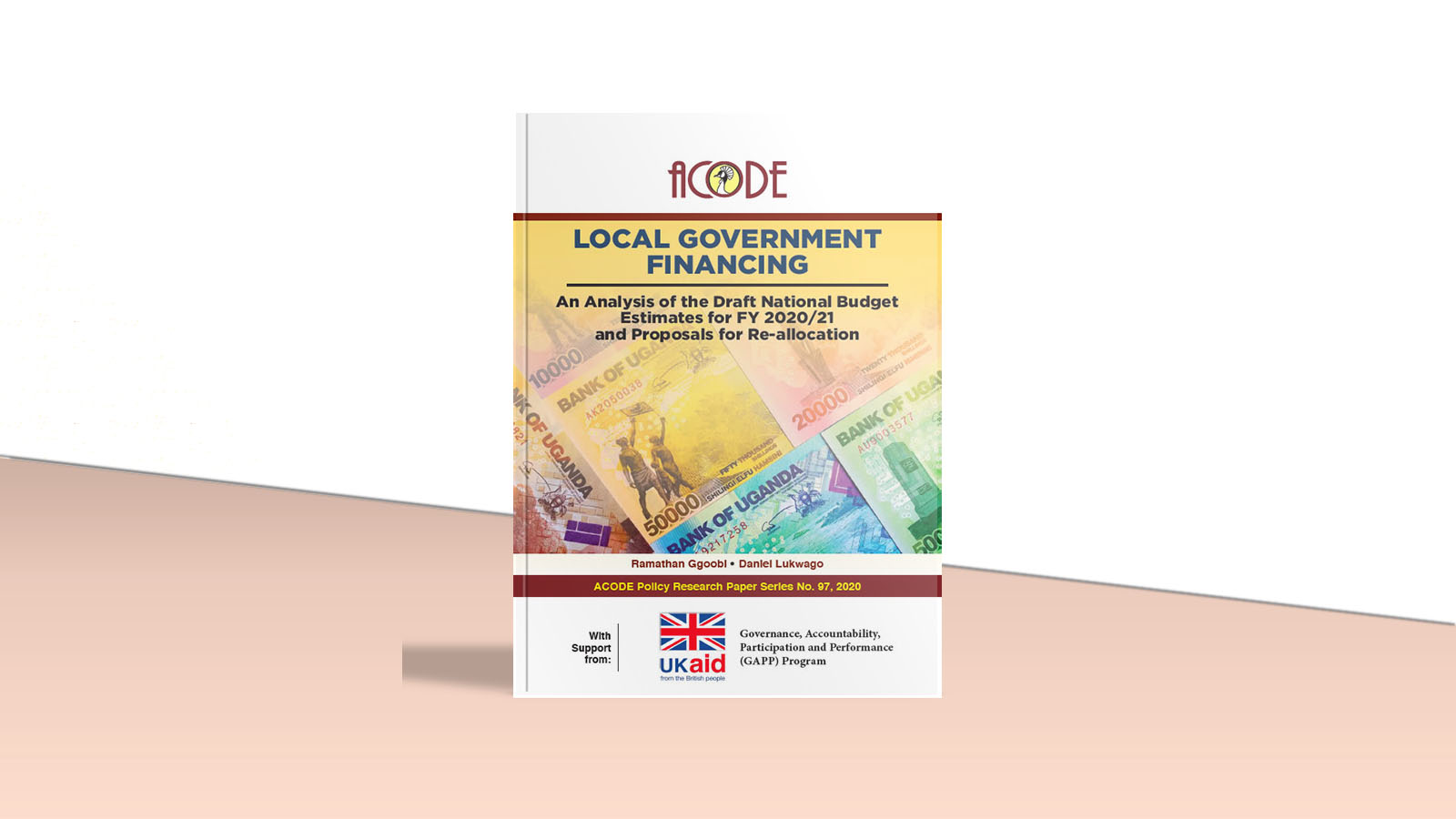
Financing Local Governments in Uganda: An Analysis of the Draft National Budget Estimates for FY2020/21 and Proposals for Re-allocation
Author(s): Ramathan Ggoobi and Daniel Lukwago
Published: 2020
This study is a follow-up of the 2019 study that examined the Budget Framework Paper (BFP) and the National Budget Estimates for FY 2020/21 to identify the budget lines for devolved services that had been allocated to Central Government MDAs. It was intended as strategy for advocacy for increasing the financing of LGs in the FY 2020/21 national budget.
View PDF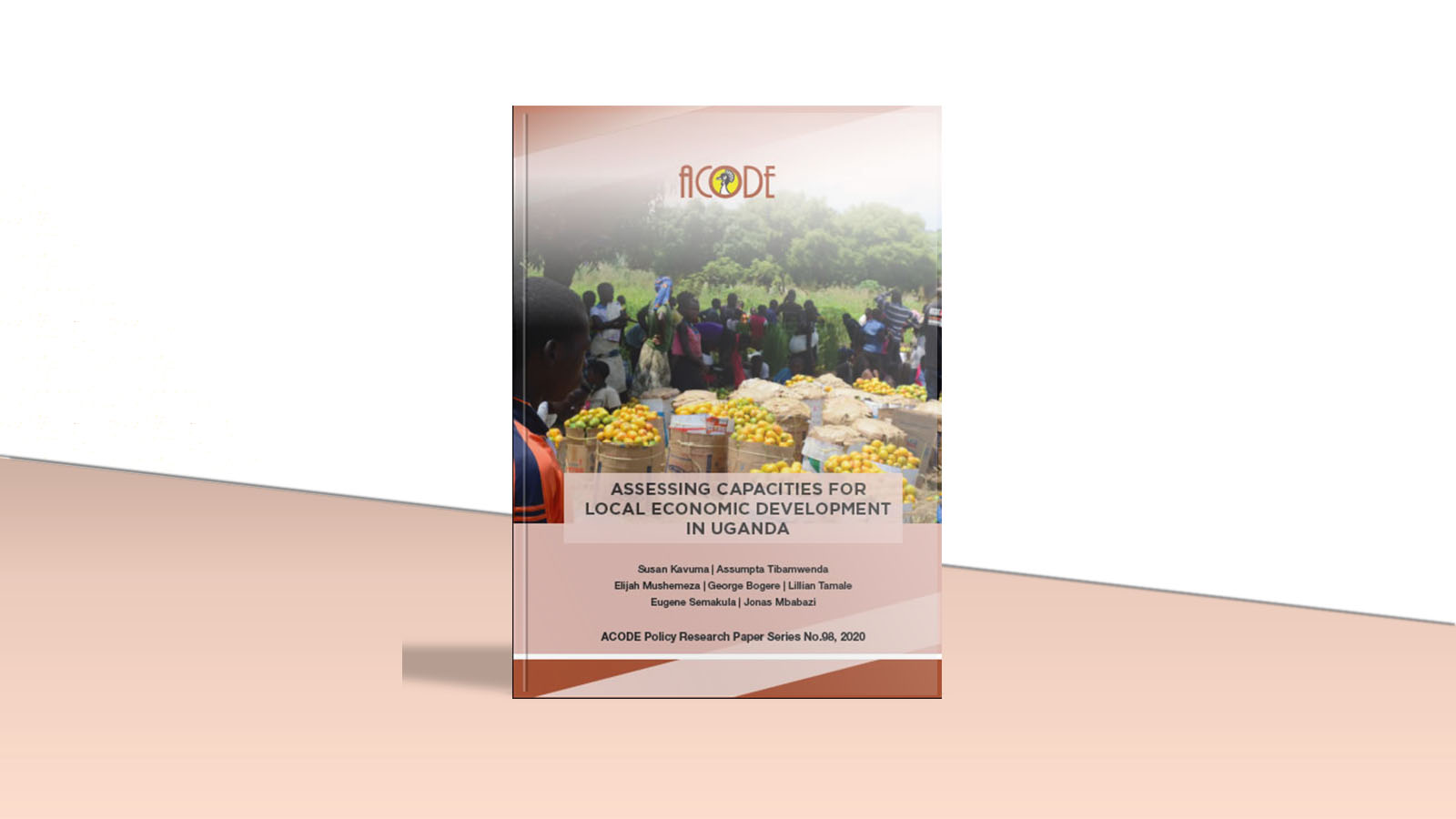
Assessing Capacities for Local Economic Development in Uganda
Author(s): Susan Kavuma, Assumpta Tibamwenda, Elijah Mushemeza, George Bogere, Lillian Tamale, Eugene Ssemakula, and Jonas Mbabazi
Published: 2020
This report presents the findings and discussions of Local Economic Development (LED) practices in nine districts of Northern Uganda that included: Adjumani, Amuru, Arua, Kitgum, Lira, Omoro, Oyam, and Yumbe. The analysis provides insights into implementation of LED policies, and the level of preparedness of the districts to implement the policy as a tool for economic transformation and development. LED was conceptualised as a process or development model where Local Governments, the private sector, and the community, are jointly and collectively engaged in identification, mobilization and management of resources at the local level.
View PDF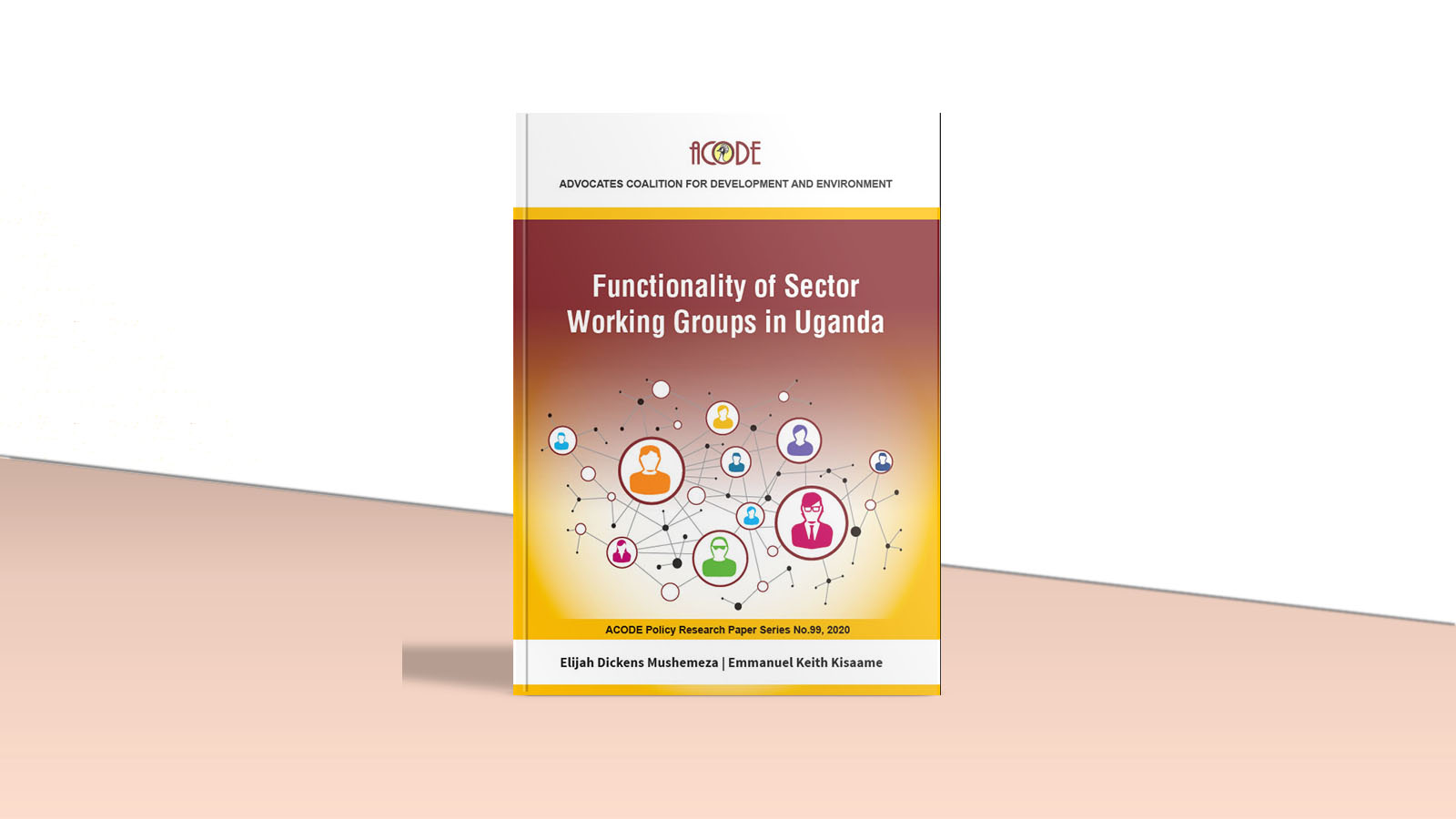
The functionality of Sector Working Groups in Uganda
Author(s): Elijah Dickens Mushemeza and Emmanuel Keith Kisaame
Published: 2020
The paper presents an assessment of Uganda on the functionality of the Sector Working Groups (SWGs) for insights into the on-going policy developments in selected Sector. The paper unravels the operational dynamics of the SWGs, their successes, and the challenges they have encountered. It then makes recommendations on how the functionality of SWGs could be improved.
View PDF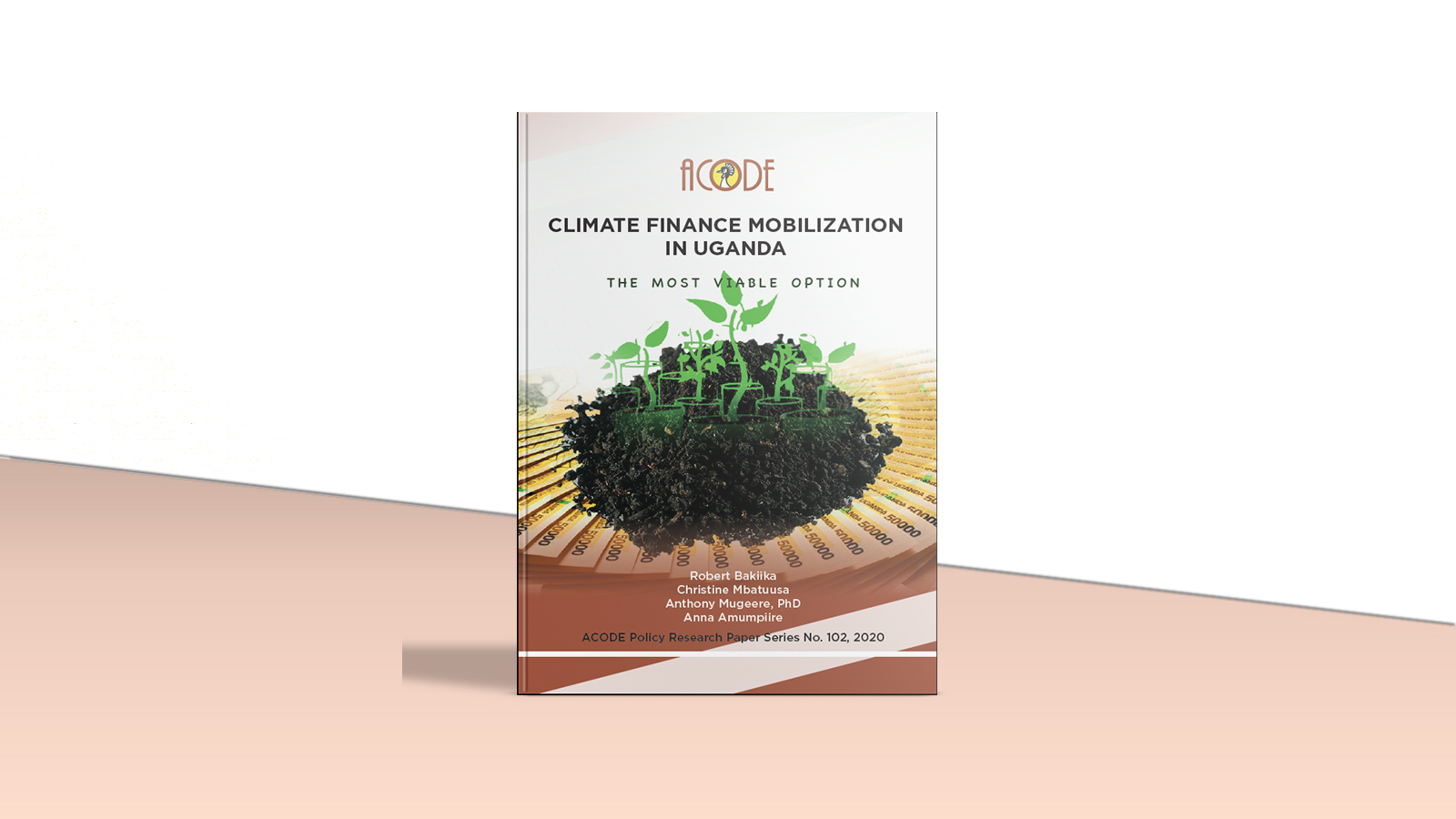
Climate Finance Mobilization in Uganda: The most viable financing option
Author(s): Robert Bakiika, Christine Mbatuusa, Anthony Mugeere, and Anna Amumpiire
Published: 2020
This report contributes to informing the mobilization of climate finance in light of the climate change impacts across all sectors. The report highlights the operating policy, legal and institutional framework on public climate finance, makes reference to country case studies on climate finance mobilization, proposes various options for climate finance mobilization based on stakeholders consulted and ranks the most efficient option.
View PDF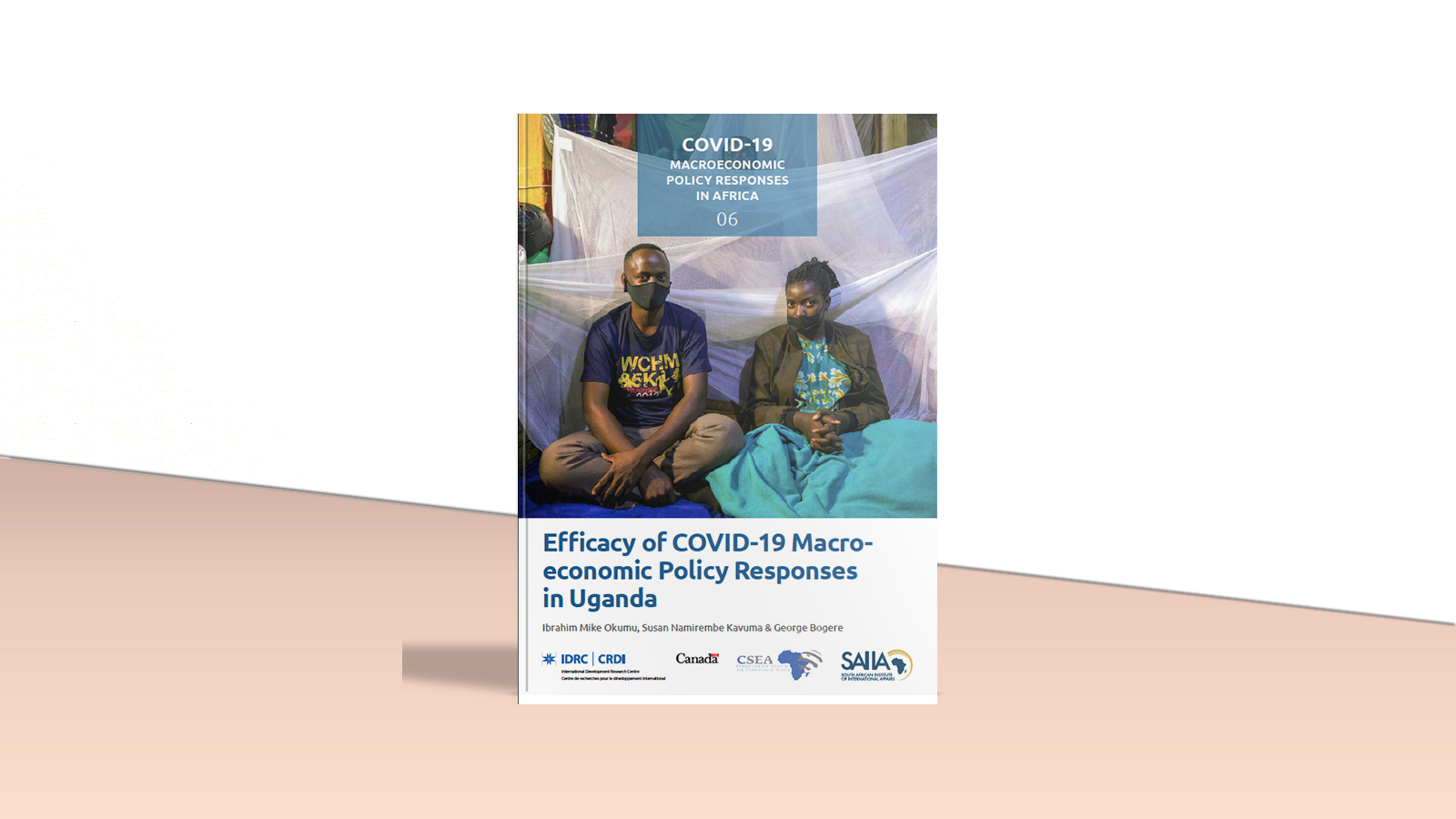
Efficacy of COVID-19 Macroeconomic Policy Responses in Uganda
Author(s): Ibrahim Mike Okumu, Susan Namirembe Kavuma, and George Bogere
Published: 2020
The paper explores the macroeconomic impact of COVID-19 on Uganda’s economy, the macroeconomic policy choices undertaken, and finally, the inclusiveness and viability of the various macroeconomic policy choices undertaken. The study used high-frequency macroeconomic data to tease out the impact of COVID-19 on Uganda’s economy. Furthermore, through exploring the policy choices adopted, we also assess policy choice viability and the extent of inclusiveness. The aforementioned policy interventions mitigated the extent of COVID-19 distortions on Uganda’s economy. Indeed, although economic growth was slow at 2.9% in the financial year (FY) 2019/20, with especially the service and industrial sectors paying the highest price, the supportive environment ensured that the industrial sector picked up quickly in the first quarter (Q1) of FY2020/21.
View PDF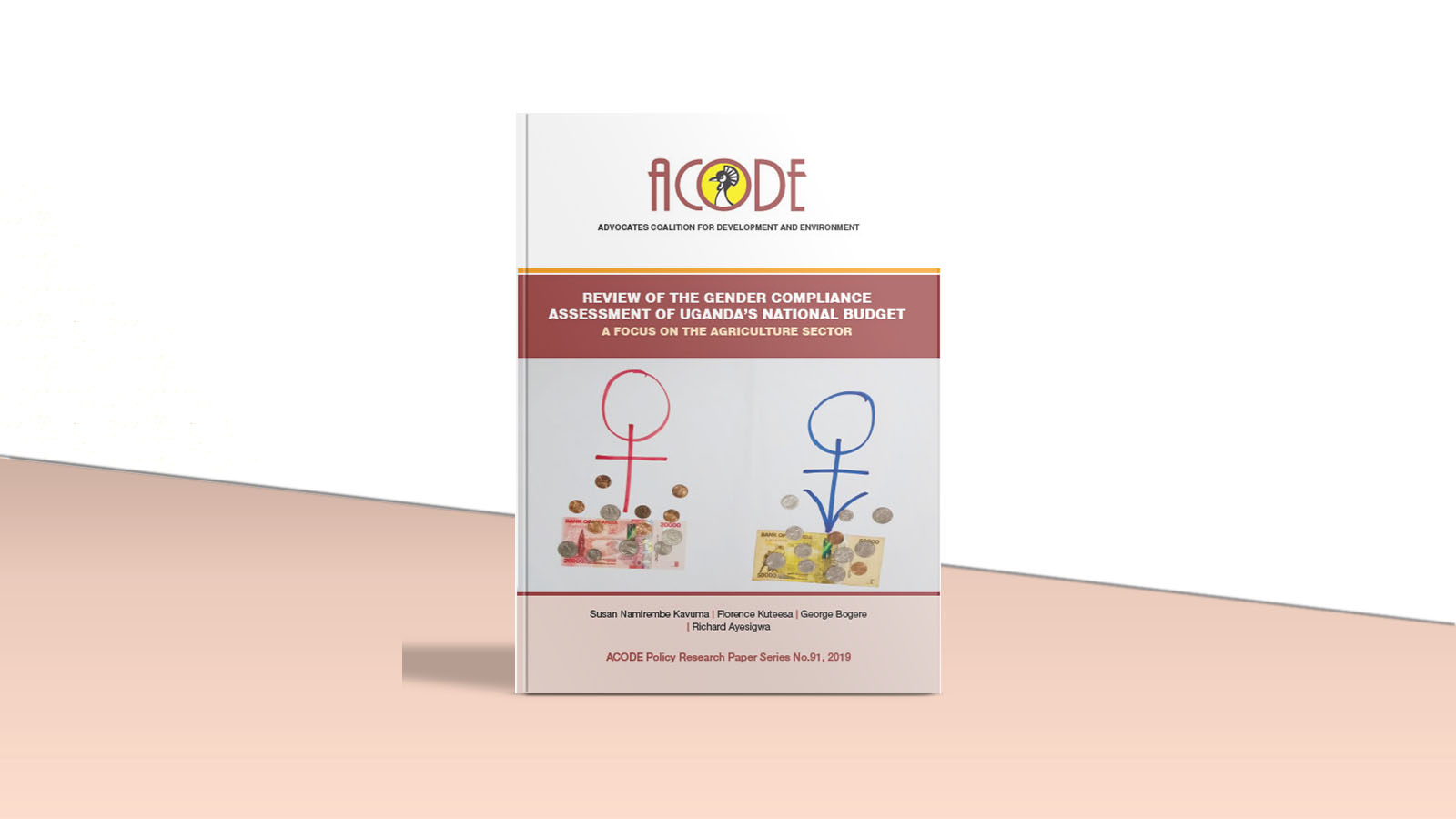
Review of the Gender Compliance Assessment of Uganda’s National Budget: A Focus on the Agricultural Sector
Author(s): Susan Namirembe Kavuma, Florence Kuteesa, George Bogere, and Richard Ayesigwa
Published: 2019
The study examined the approach used to integrate gender issues in the budgeting process in Uganda. It focused on the agriculture sector and specifically analysed the Ministerial Policy Statements (MPS) of four institutions: Ministry of Agriculture, Animal Industry and Fisheries (MAAIF); National Agricultural Advisory Services (NAADS); National Agricultural Research Organisation (NARO); and Uganda Coffee Development Authority (UCDA).
View PDF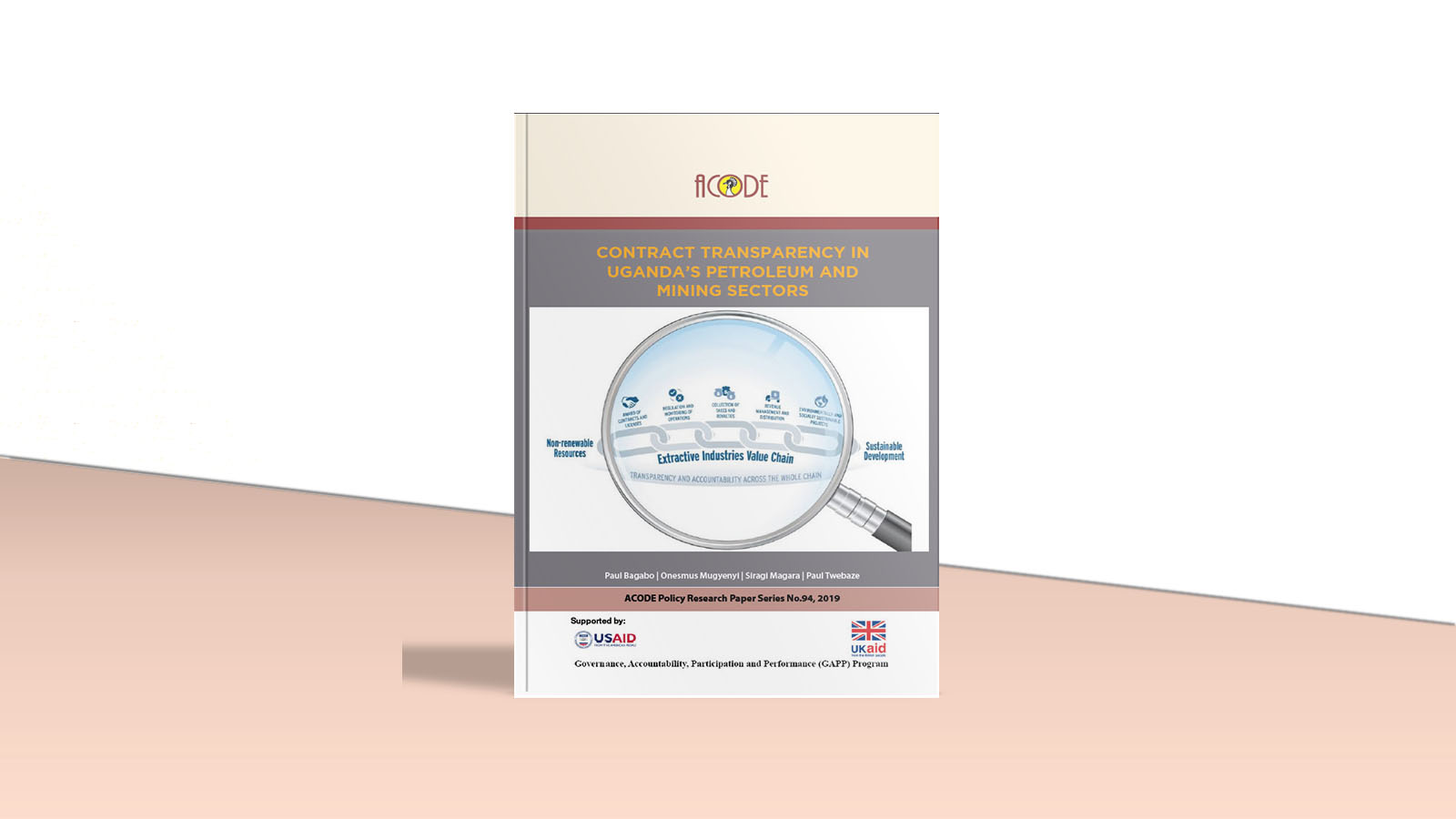
Contract Transparency in Uganda’s Petroleum and Mining Sectors
Author(s): Paul Bagabo, Onesmus Mugyenyi, Siragi Magara, and Paul Twebaze
Published: 2019
This report draws from the literature on contract transparency as well as interviews with key experts in Uganda’s extractives sector. It concludes that while legal frameworks on transparency and disclosure provisions exist, they have not been effective in ensuring that citizens gain access to information on the details of the contracts; and the level of contract transparency and disclosure in the oil and gas sector is higher than in the mining sector.
View PDF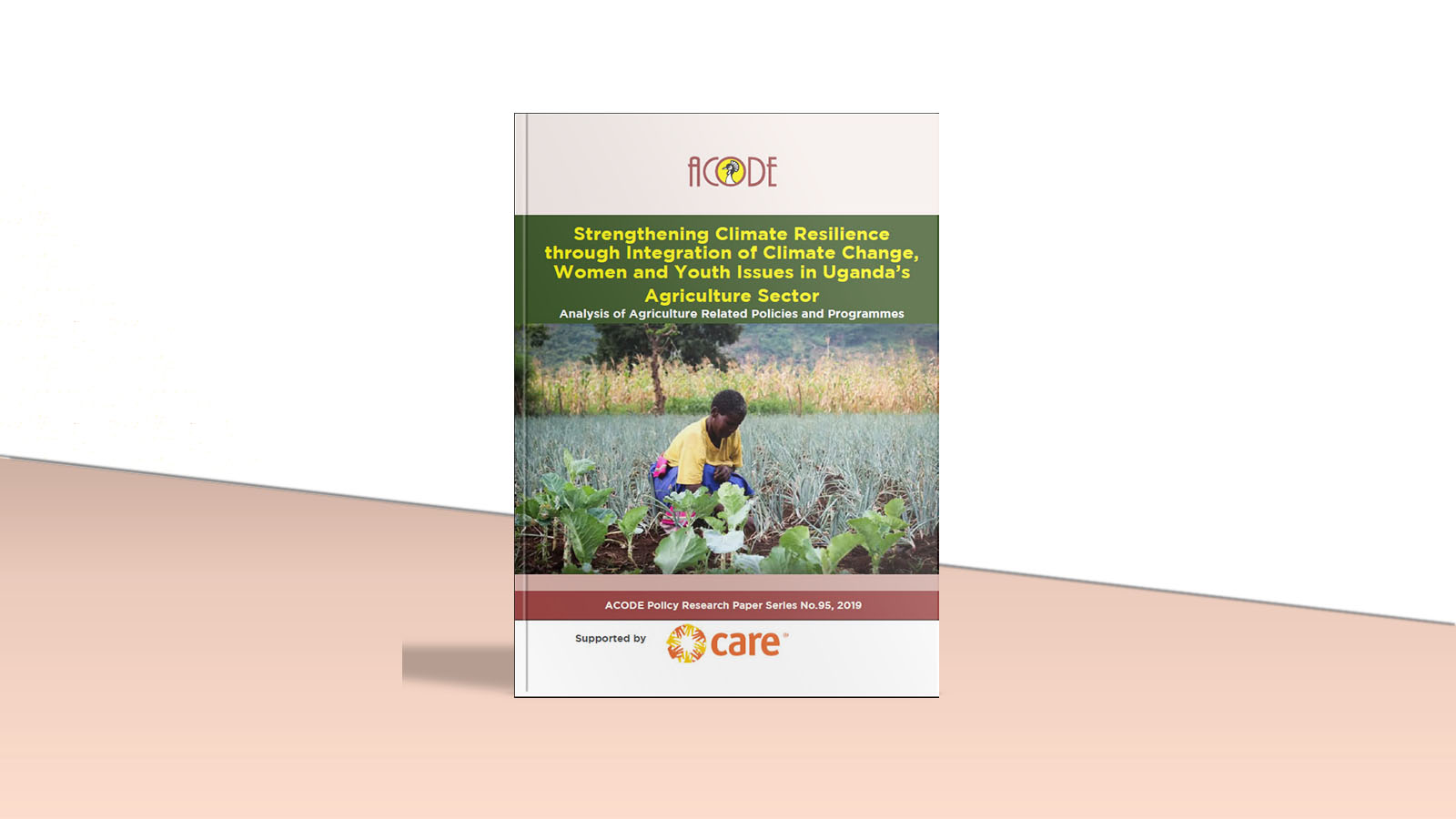
Strengthening Climate Resilience through Integration of Climate Change, Women and Youth Issues in Uganda’s Agriculture Sector: Analysis of Agriculture Related Policies and Programmes
Author(s): ACODE
Published: 2019
This report provides insights into building a gender sensitive climate smart agriculture while reducing the vulnerability of women, youth and refugees to the adversity impacted by climate change. It shows that successful mainstreaming of climate change in the agricultural sector and implementation of gender sensitive climate resilient agricultural policies, programmes and practices require strong and reliable climate information services and early warning systems, enhanced technical and institutional capacities, enabling legal framework, and strong monitoring and reporting mechanisms.
View PDF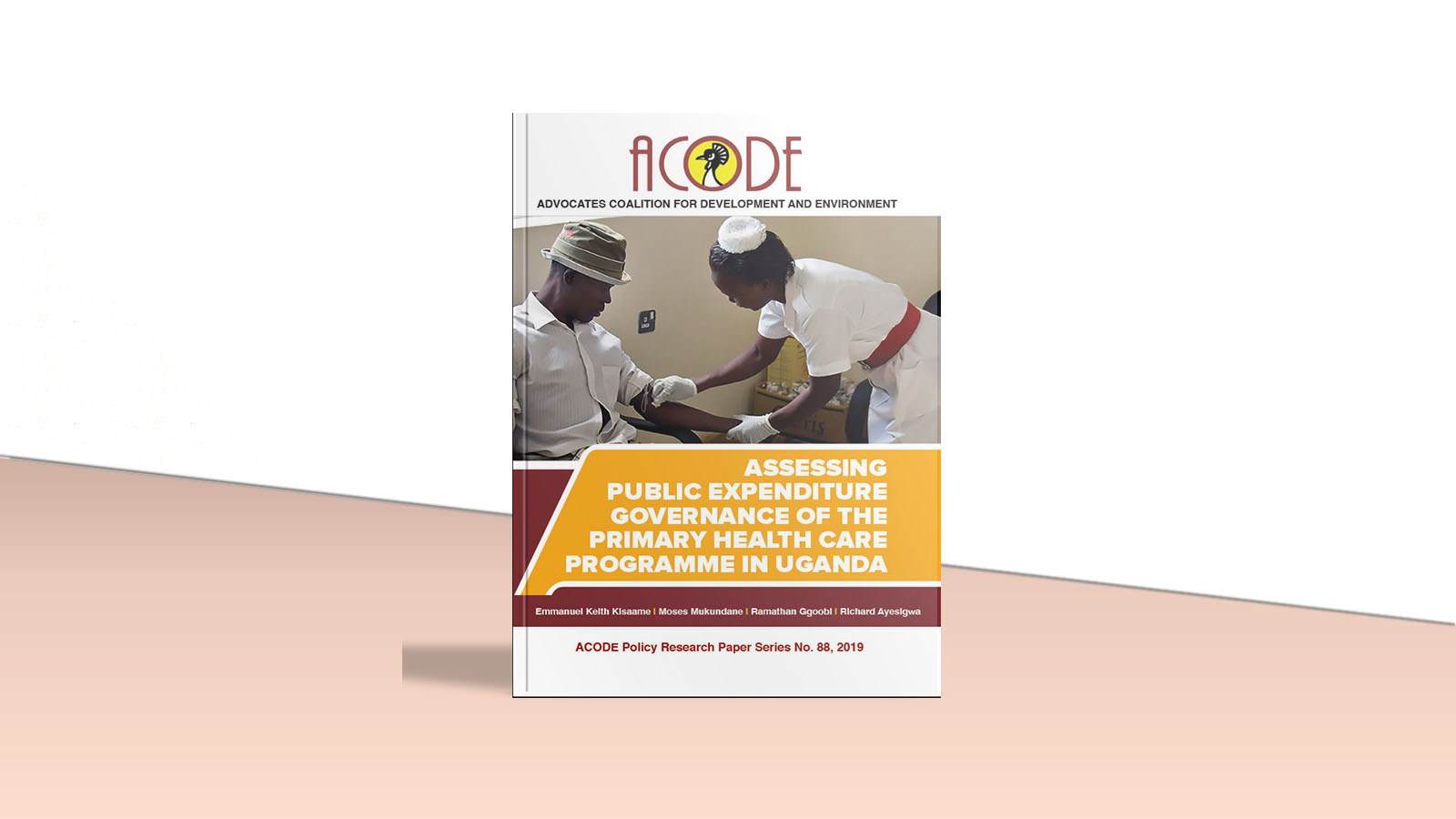
Assessing Public Expenditure Governance of the Primary Health Care Programme in Uganda
Author(s): Emmanuel Keith Kisaame, Moses Mukundane, Ramathan Ggoobi, and Richard Ayesigwa
Published: 2019
The study is an indicator based assessment in design using the Public Expenditure Governance Framework. The practices and processes of the study districts were assessed based on nine PEG principles namely, strategic vision, accountability, equity, participation, transparency, responsiveness, control of corruption, effectiveness and efficiency, and coordination.
View PDF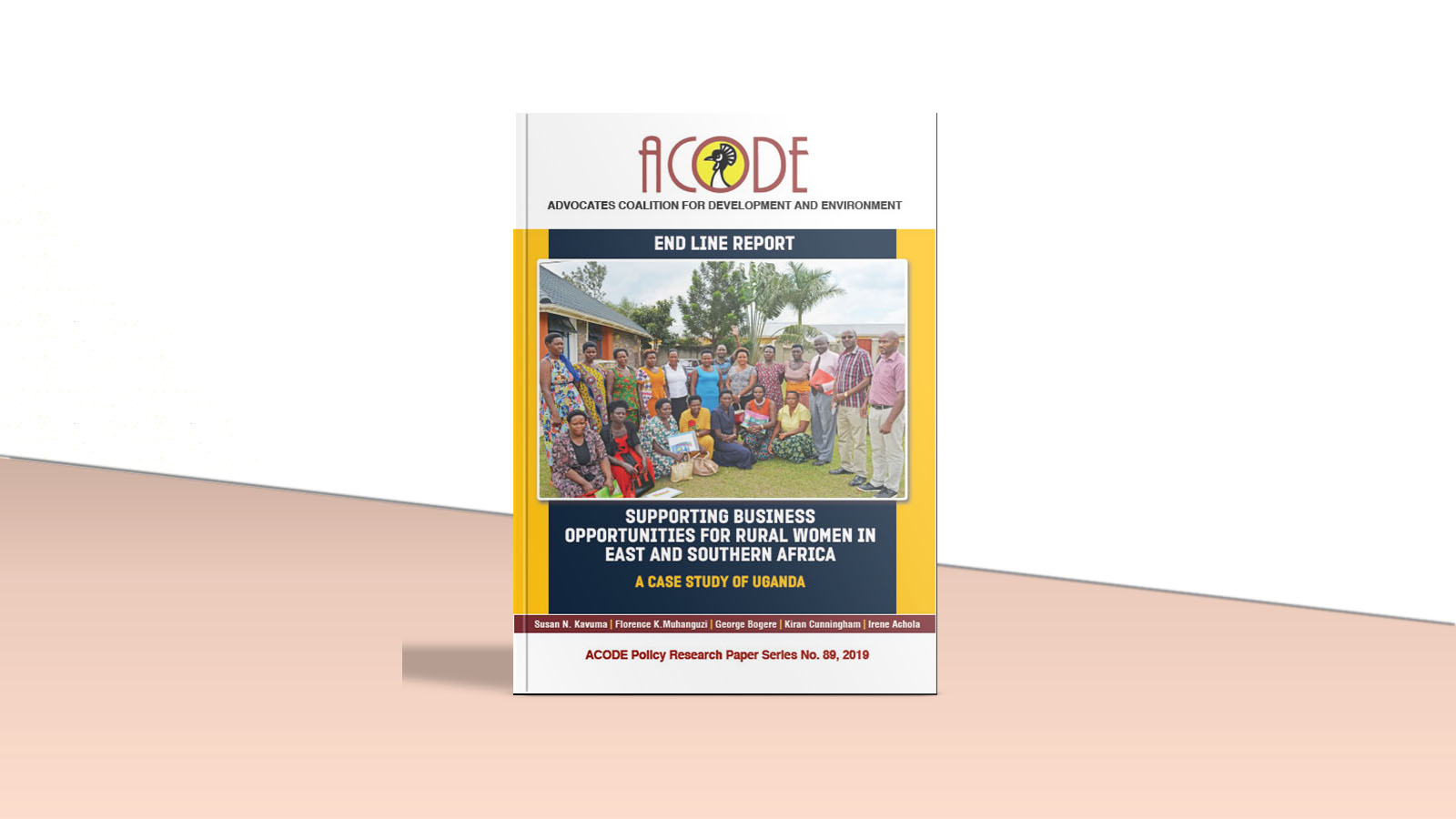
Supporting Business Opportunities for Rural Women in East and Southern Africa: A Case Study of Uganda
Author(s): Susan N. Kavuma, Florence K. Muhanguzi, George Bogere, Kiran Cunningham, and Irene Achola
Published: 2019
The study examines the characteristics of rural women doing business in Uganda. It analyses the nature of business operations and structural barriers women face thus hindering them from seizing economic opportunities. It is part of a collaborative research project on "Supporting Opportunities for Rural Women in Business in East and Southern Africa" implemented in three countries: Zimbabwe, Kenya and Uganda
View PDF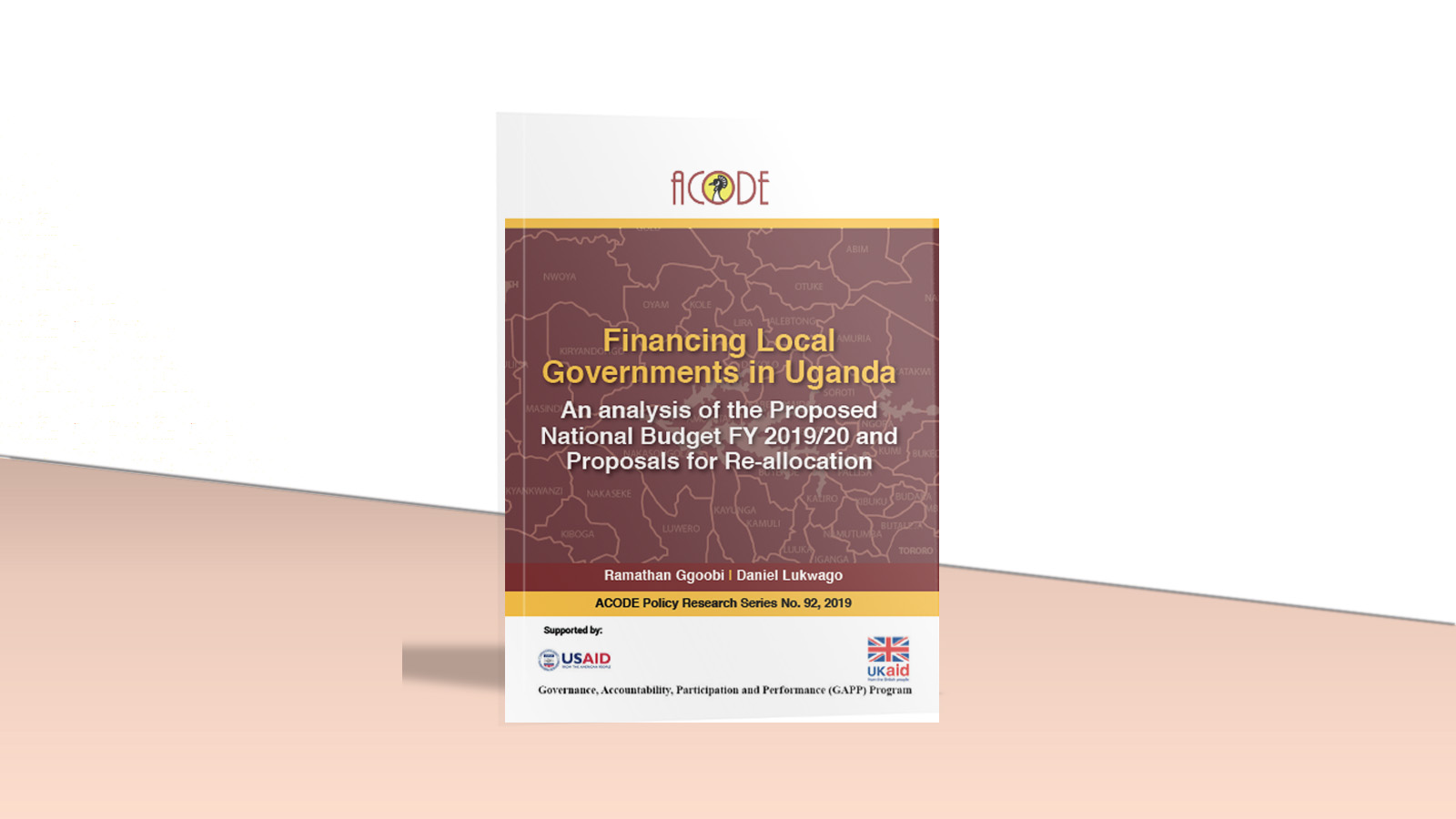
Financing Local Governments in Uganda: An analysis of Proposed National Budget FY 2019/20 and Proposals for Re-allocation
Author(s): Ramathan Ggoobi and Daniel Lukwago
Published: 2019
The study relied mainly on an extensive document review of all relevant budget documents focusing mainly on the Draft Estimates of Expenditure (Recurrent and Development) FY 2019/20. Identifying budget lines meant for LGs, was done through three stages, by determining whether: budget line was relevant or not to LGs; the identified budget line could be transferred directly to the LGs or not; and the budget line could be rationalized by the MDAs to improve service delivery and also free funds for LGs.
View PDF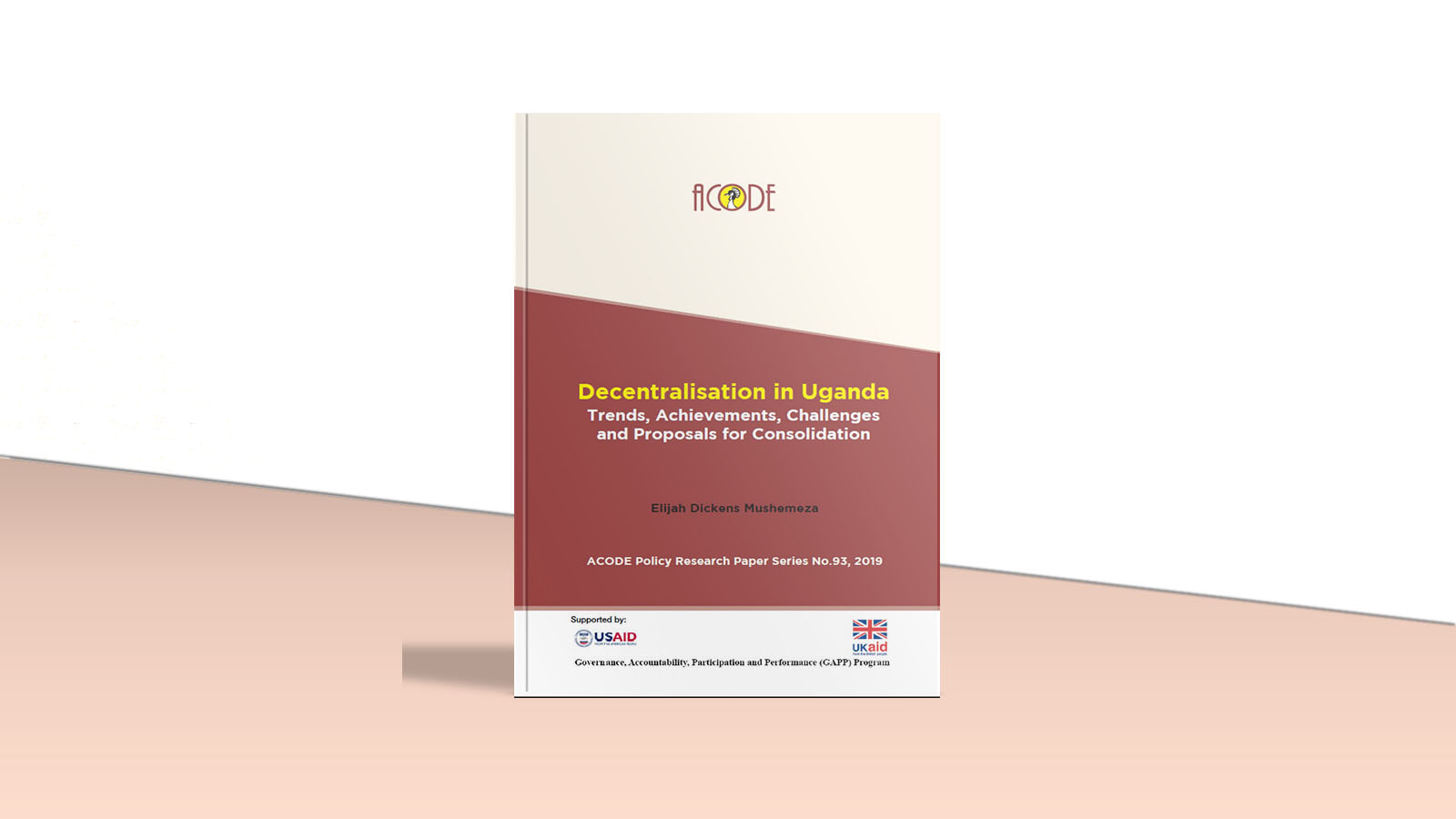
Decentralisation in Uganda: Trends, Achievements, Challenges and Proposals for Consolidation
Author(s): Elijah Dickens Mushemeza
Published: 2019
This report examines the inception and implementation of the decentralisation policy in Uganda and proposes somes reforms. It is an outcome of a comprehensive study of how the decentralisation policy was implemented. It seeks to appraise the practice in terms of achievements and challenges in the legal, policy, and institutional framework.
View PDF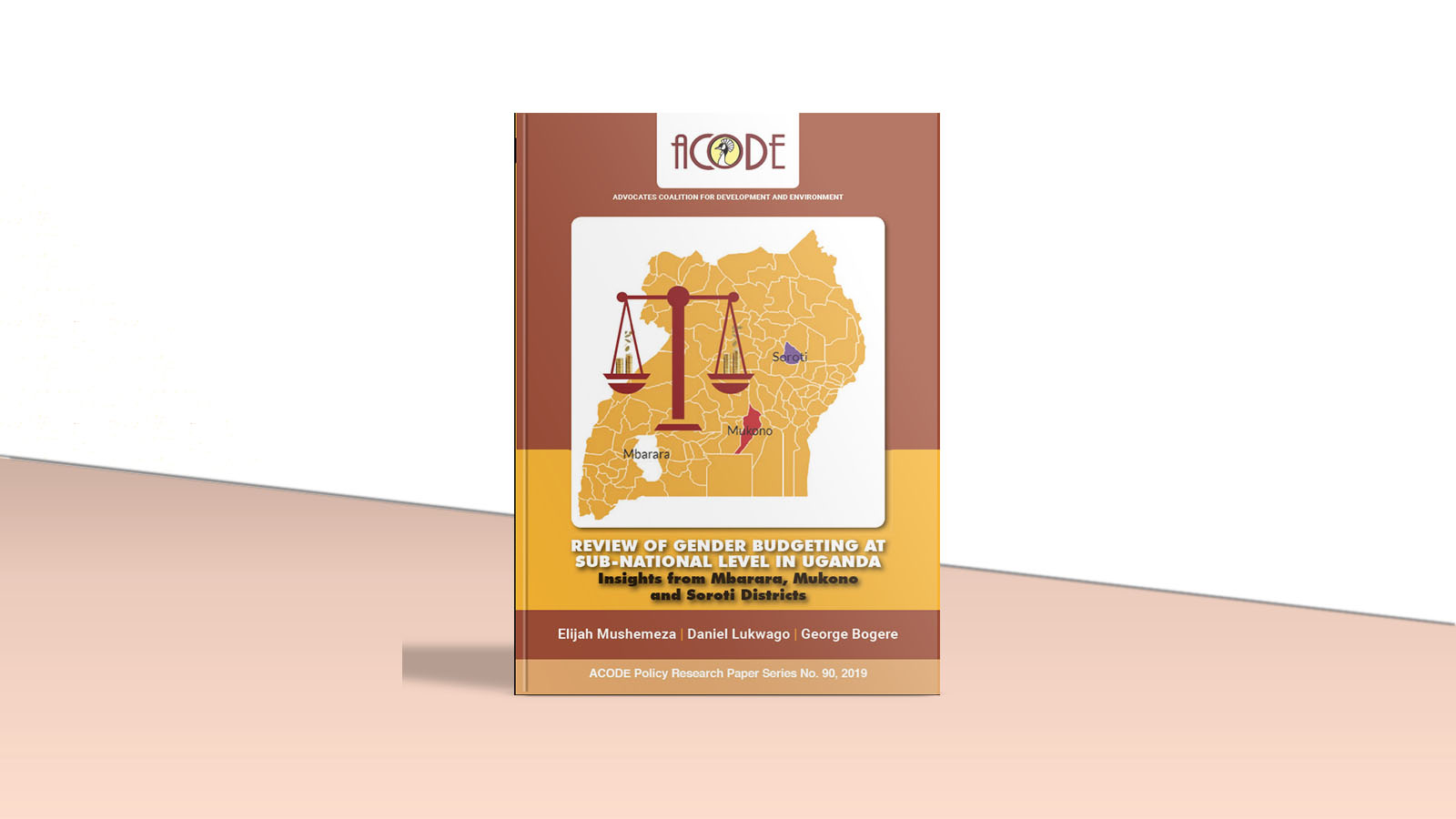
Review of Gender Budgeting at Sub-national Level in Uganda: Insights from Mbarara, Mukono and Soroti Districts
Author(s): Elijah Mushemeza, Daniel Lukwago, and George Bogere
Published: 2019
These are the findings of the study that analyzed gender responsiveness in budgeting at the sub-national level in Uganda. It studied how gender was mainstreamed in the budgets for health and agriculture in three districts, namely, Mukono, Soroti, and Mbarara. The study found that mainstreaming gender into budgets at the sub-national level was minimal. The focus was largely on budget formulation with little emphasis on stages of budget execution, evaluation, and audition. At the same time, mainstreaming gender at the budget formulation stage was beset by significant limitations. Thus, gender responsiveness of budgets at the sub-national level remains low. This paused serious challenges in efforts to alleviate the plight of women who were faced with various forms of marginalization, calling for gender mainstreaming in budgeting.
View PDF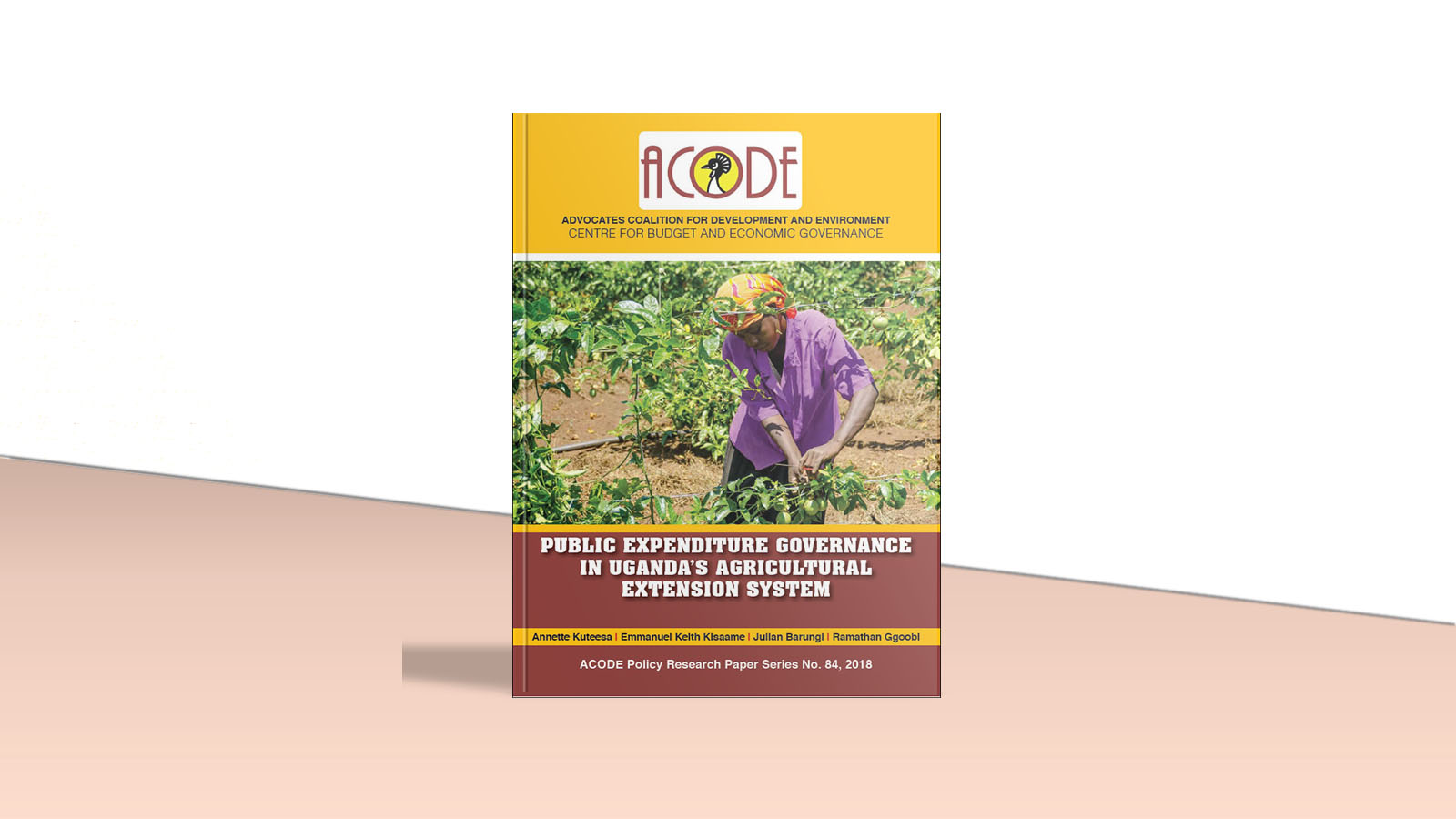
Public Expenditure Governance in Uganda’s Agricultural Extension System
Author(s): Annette Kuteesa, Emmanuel Keith Kisaame, Julian Barungi, and Ramathan Ggoobi
Published: 2018
The study provides an assement of the governance of public expenditure in Uganda’s agriculture extension system. The study aimed to examine the nature in which decisions pertaining public expenditure prioritisation and implementation were made.
View PDF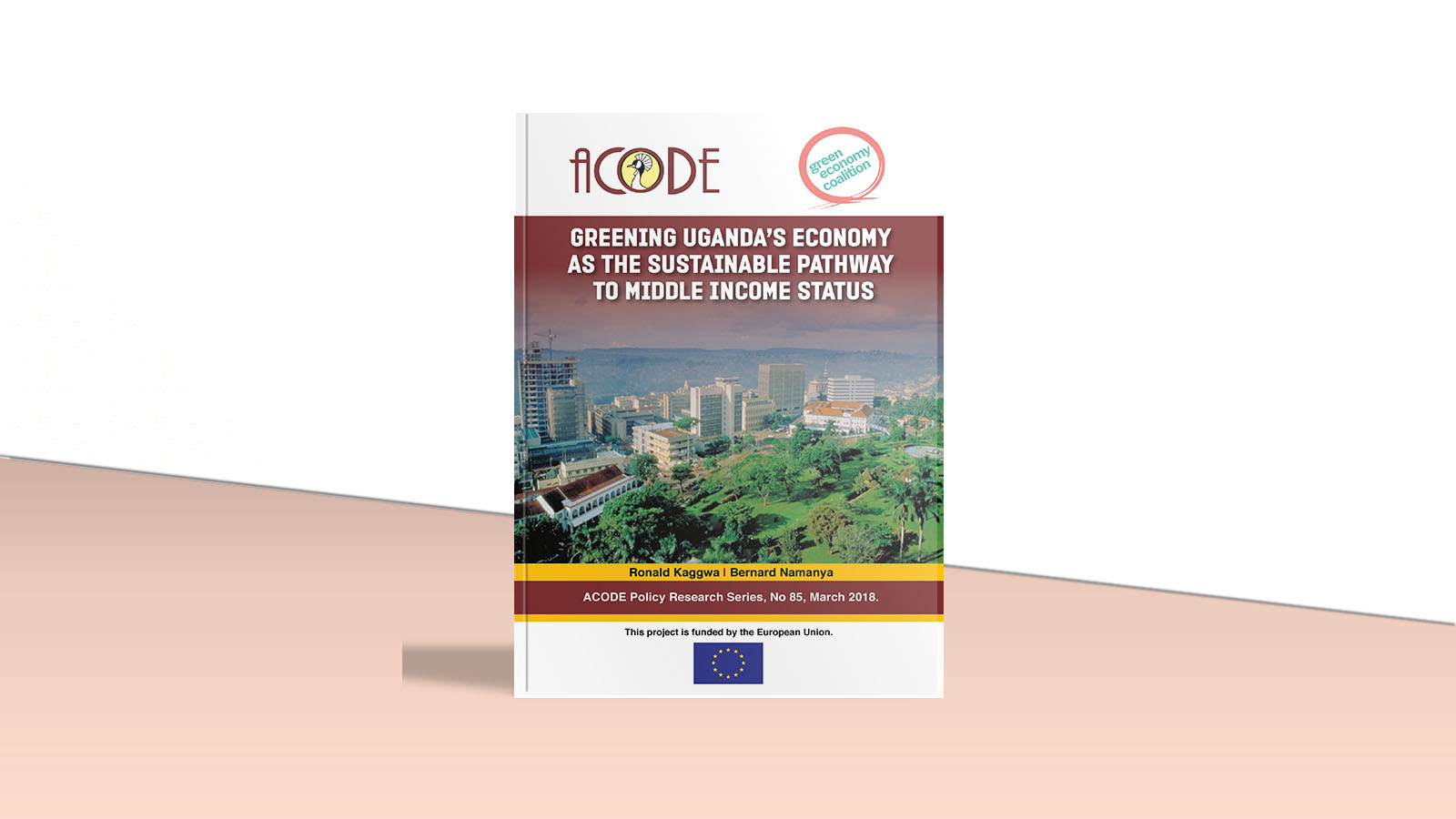
Greening Uganda’s Economy as the Sustainable Pathway to Middle Income Status
Author(s): Ronald Kaggwa and Bernard Namanya
Published: 2018
This report suggests that the green growth model, if effectively implemented, has the potential to contribute to addressing some of the sustainable development challenges facing the country such as high levels of unemployment especially for the youths currently estimated at 78 percent.
View PDF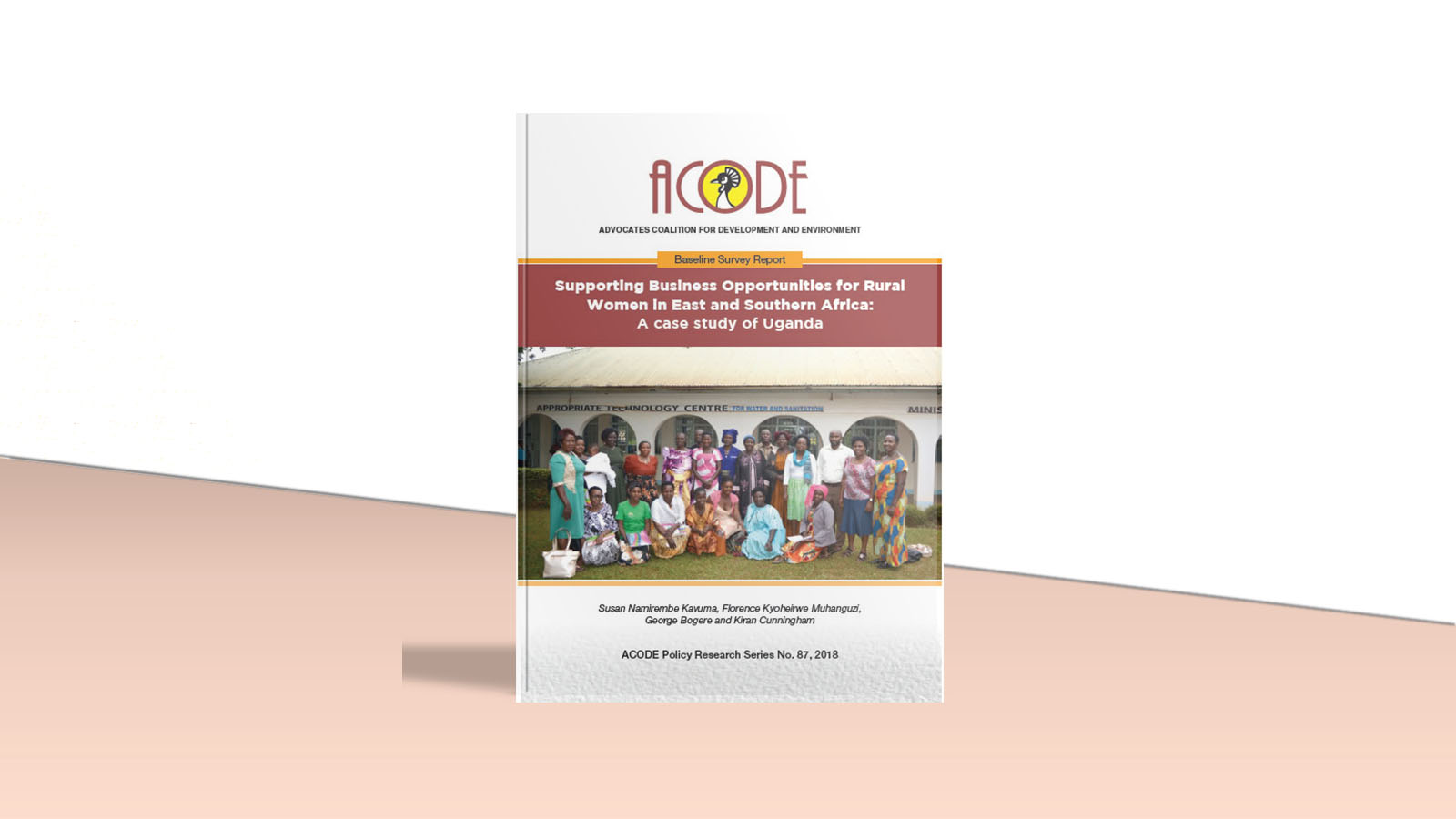
Supporting Business Opportunities for Rural Women in East and Southern Africa: A case study of Uganda
Author(s): Susan Namirembe Kavuma, Florence Kyoheirwe Muhanguzi, George Bogere, and Kiran Cunningham
Published: 2018
This study examines the characteristics of rural women doing business in Uganda. It analyses the nature of business operations and structural barriers women face thus hindering them from seizing economic opportunities. It is part of a collaborative research project on ”Supporting Opportunities for Rural Women in Business in East and Southern Africa” implemented in three countries: Zimbabwe, Kenya and Uganda. The baseline study informs the design of the proposed intervention to support rural women in business. It also establishes the key parameters to be measured during the endline survey.
View PDF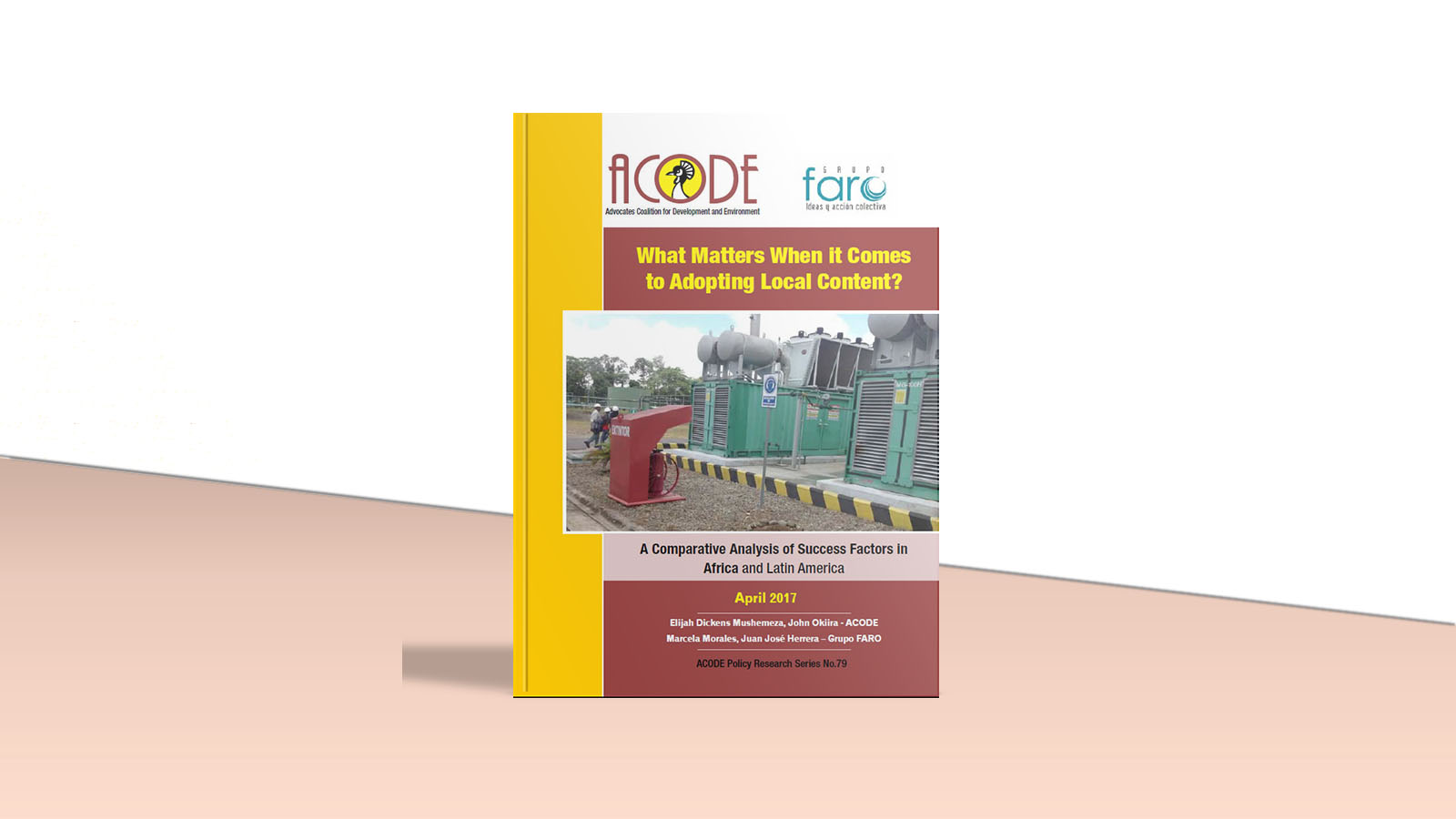
What Matters When it Comes to Adopting Local Content? A Comparative Analysis of Success Factors in Africa and Latin America
Author(s): Mushemeza Elijah, Okiira John, Marcela Morales, and Juan José Herrera
Published: 2017
The paper attempts to identify some common factors by comparing the experiences of countries that have achieved successful local content outcomes. Local content is a development strategy aimed at increasing the benefits from the oil and gas sector and translate them to other sectors of the economy. While this strategy has been widely adopted in Africa and Latin America there is little we know beyond specific country cases and the reasons why local content strategies have or have not been successful in these cases. Mapping these factors is challenging since every country exists under particular conditions and these factors might function differently depending on the context.
View PDF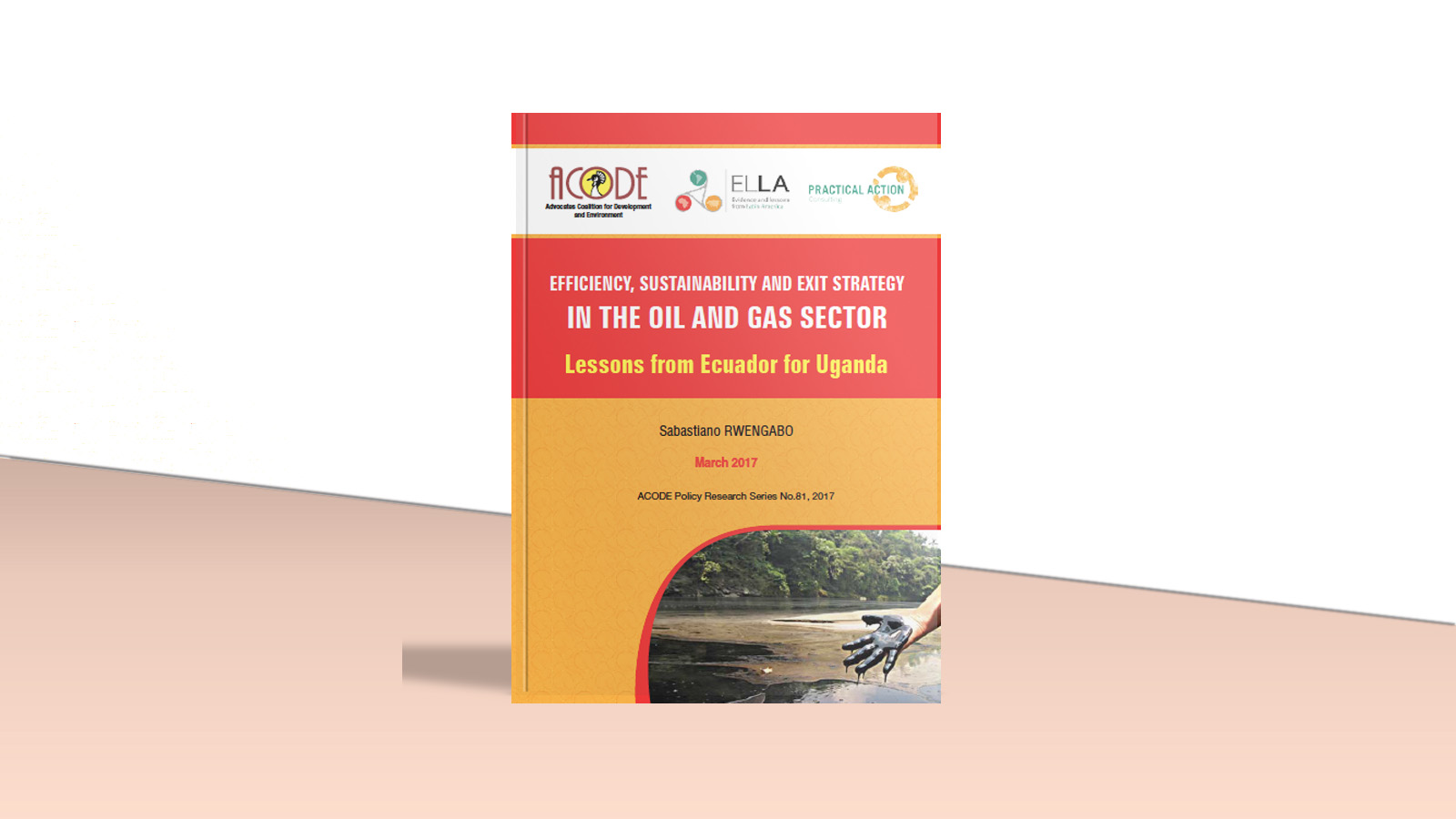
Efficiency, Sustainability, and Exit Strategy in the Oil and Gas Sector: Lessons from Ecuador for Uganda
Author(s): Sabastiano RWENGABO
Published: 2017
This paper draws from Ecuador’s oil and gas (herein used interchangeably with “petroleum”) sector to inform Uganda’s evolving petroleum developments. These lessons have wider implications for the developing world regions of Africa and Latin America. The paper lays emphasis on the institutional re-design and development in post-2006 Ecuador and links with analyses that stress the institutional dimension of governing the oil and gas sector for the transformation of petroleum economies. Since institutions shape the strategic choices made by oil-rich states on the management of oil revenues and technologies, an analysis of institutional experiences is useful for assessing the implications of these choices for environmental sustainability, strategic investments, diversification of energy sectors and the economy, and exit strategies.
View PDF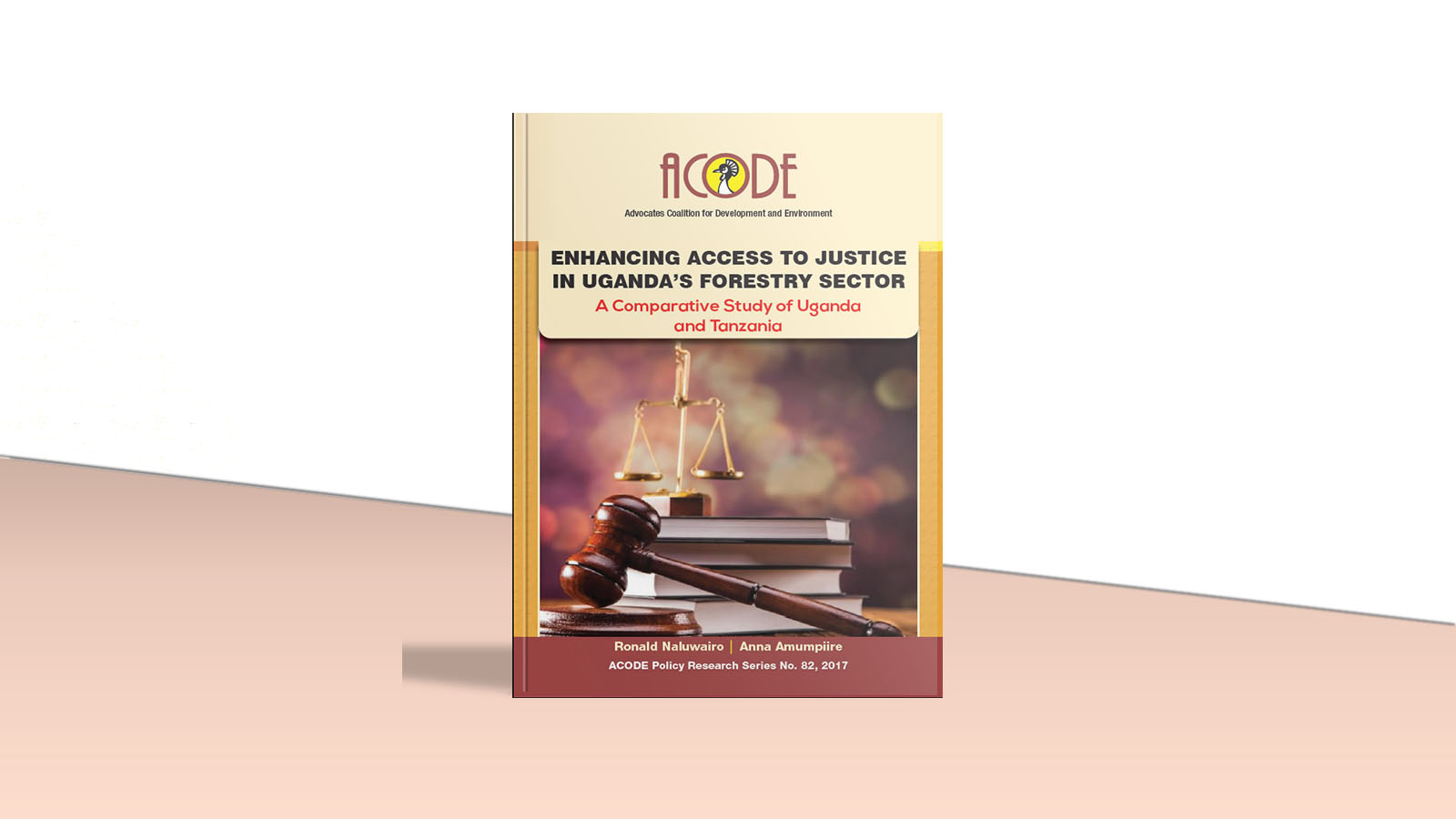
Enhancing Access to Justice in Uganda’s Forestry Sector: A Comparative Study of Uganda and Tanzania
Author(s): Ronald Naluwairo and Anna Amumpiire
Published: 2017
This paper presents a comparative analysis of access to justice in the forestry sector in Uganda and Tanzania. Although the concept of access to justice is broad and encompasses many aspects, this study focused on only four aspects namely: (i) tenure rights of forestadjacent communities; (ii) access to forestry information; (iii) liability for forestry harm; and (iv) courts as forest dispute settlement mechanisms. The analysis reveals that although Uganda is strong in some areas, it is generally weak with respect to many issues of access to justice that were examined. Although Tanzania was also found to be generally weak on issues of access to justice as examined, it offers some lessons for improving access to justice in Uganda’s forestry sector.
View PDF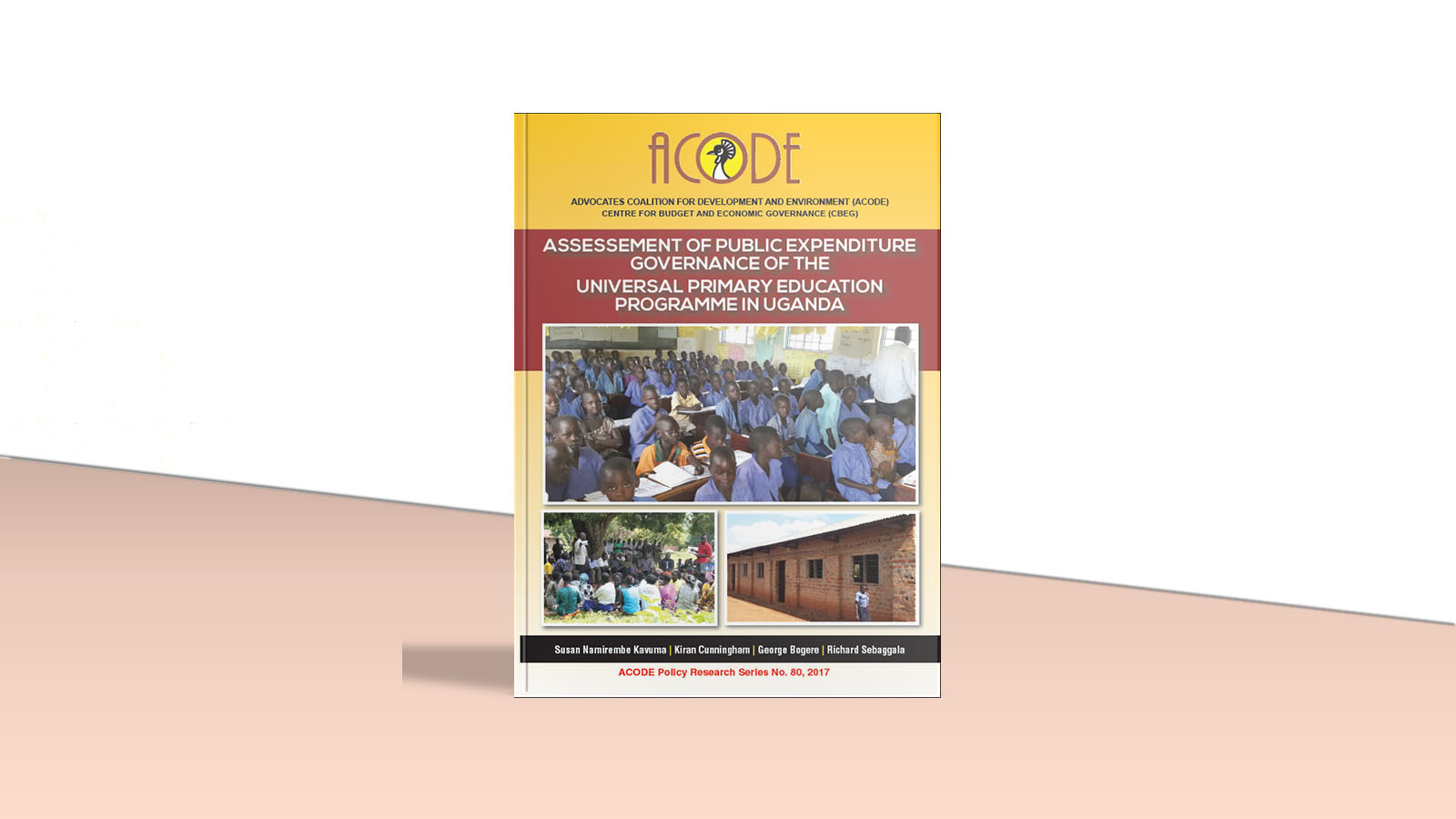
Assessment of Public Expenditure Governance of the Universal Primary Education Programme in Uganda
Author(s): Susan Namirembe Kavuma, Kiran Cunningham, George Bogere, and Richard Sebaggala
Published: 2017
This study seeks to assess public expenditure governance of the Universal Primary Education (UPE) programme in Uganda. UPE is a government programme that aims at providing basic education to school-going children aged six years and above. Established in 1997, its policy objectives include the equitable provision of education that is affordable to the majority of Ugandans. This study focuses on various dimensions of governance of the UPE program at the district level with emphasis on decision-making, effectiveness of the accountability framework and the interaction among the actors.
View PDF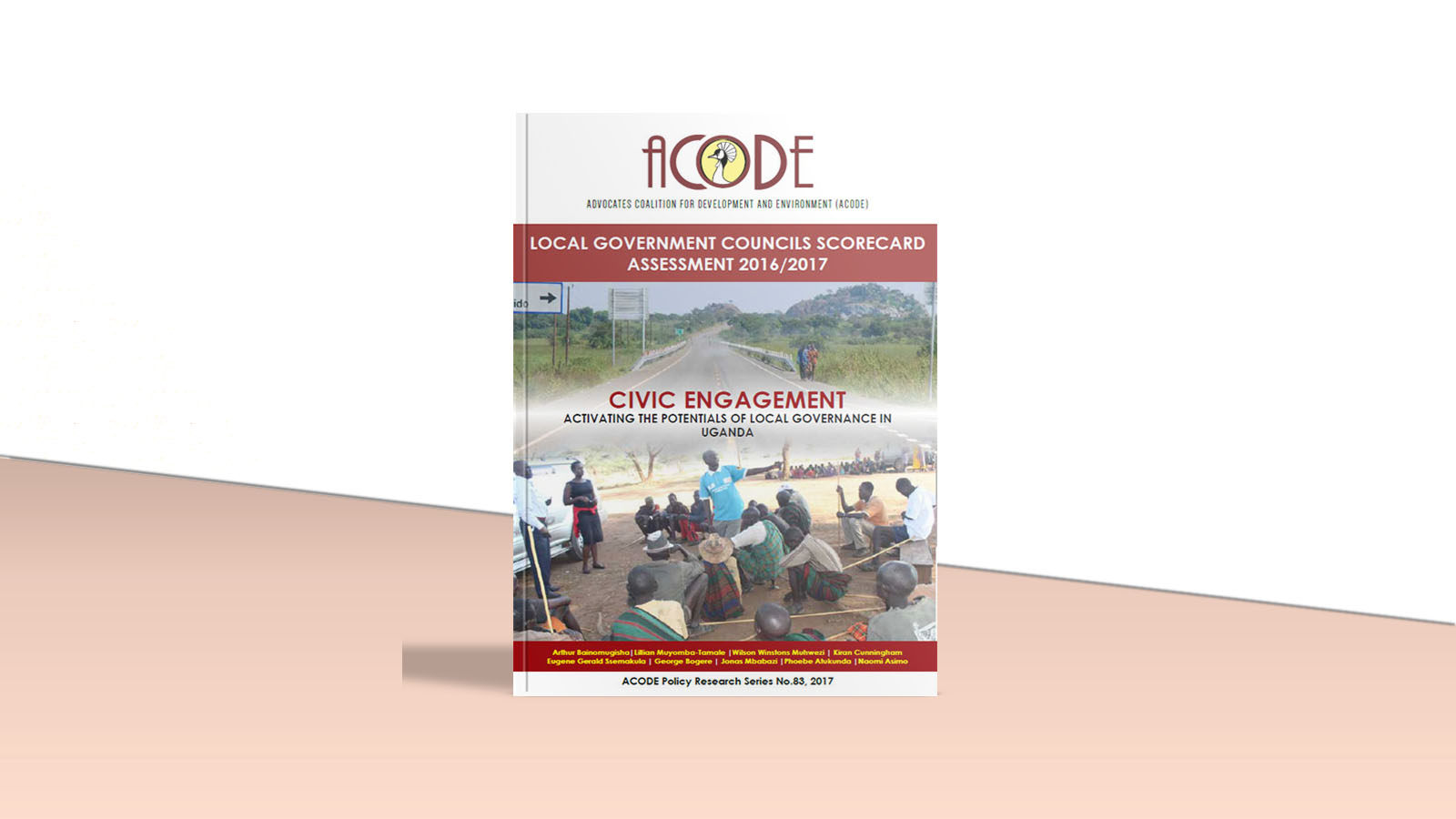
Local Government Councils Scorecard Assessment FY2016/17: Civic Engagement: Activating the Potentials of Local Governance in Uganda
Author(s): Arthur Bainomugisha, Lillian Muyomba-Tamale, Wilson Winstons Muhwezi, Kiran Cunningham, Eugene Gerald Ssemakula, George Bogere, Jonas Mbabazi, Phoebe Atukunda, and Naomi Asimo
Published: 2017
The paper presents the seventh Local Government Councils Scorecard Report for FY 2016/17. After eight years of conducting assessments about the performance of local governments and building the capacity of elected political leaders and engaging citizens, noticeable improvements have been registered at the community, local government, and central government levels.
View PDF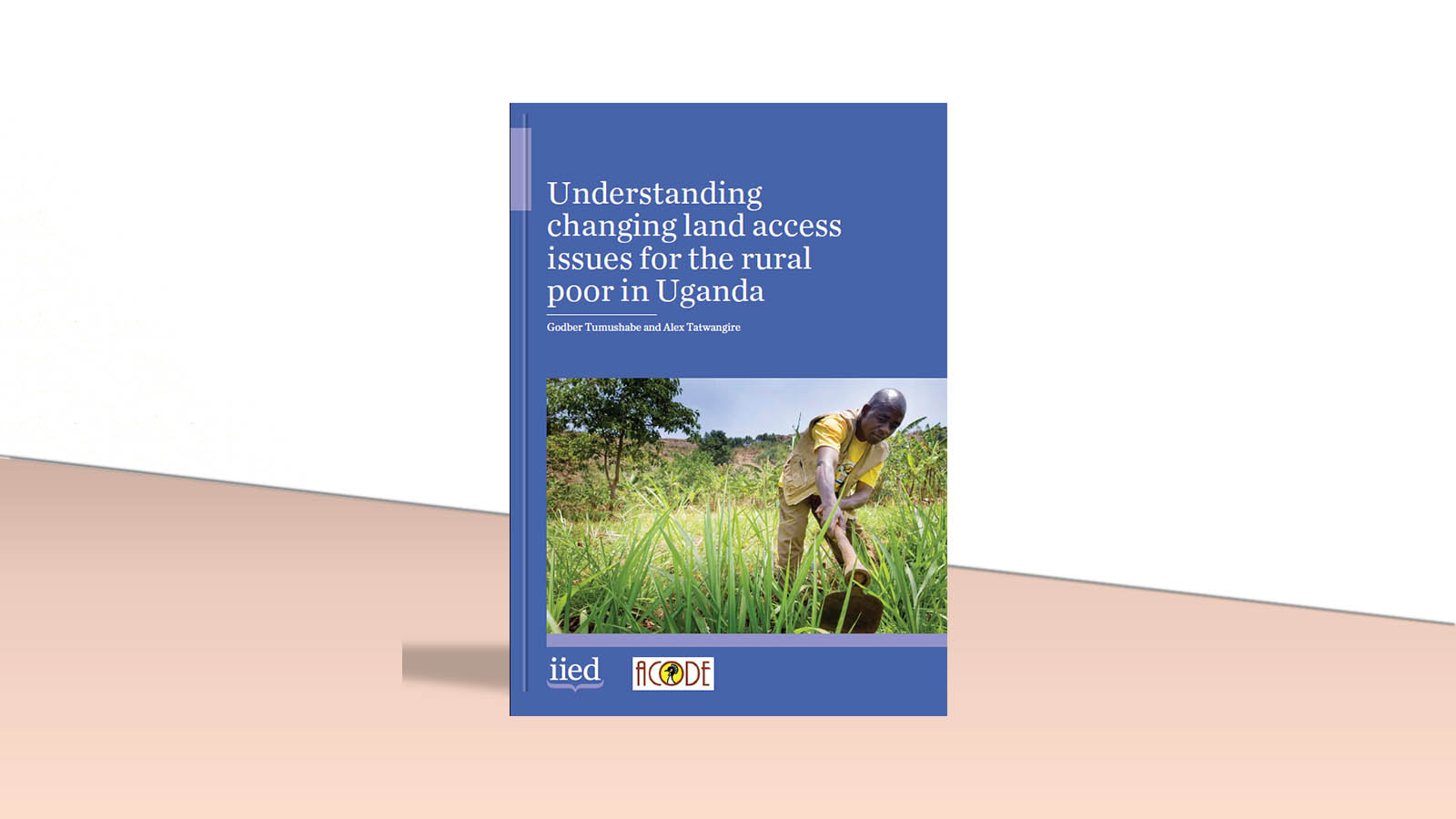
Understanding changing land access issues for the rural poor in Uganda
Author(s): Godber Tumushabe and Alex Tatwangire
Published: 2017
This report synthesizes findings from a research initiative steered by the Advocates Coalition for Environment and Development (ACODE) in Uganda. It formed part of a wider initiative coordinated by the International Institute for International Development (IIED), with other partners in Ghana, Senegal, and Mozambique, entitled ‘Changing land access issues for poor rural people in sub-Saharan Africa’. This was funded by the International Fund for Agricultural Development (IFAD), with some complementary funding from supporters of IIED’s strategic work: Danida (Denmark), Irish Aid, and Sida (Sweden).
View PDF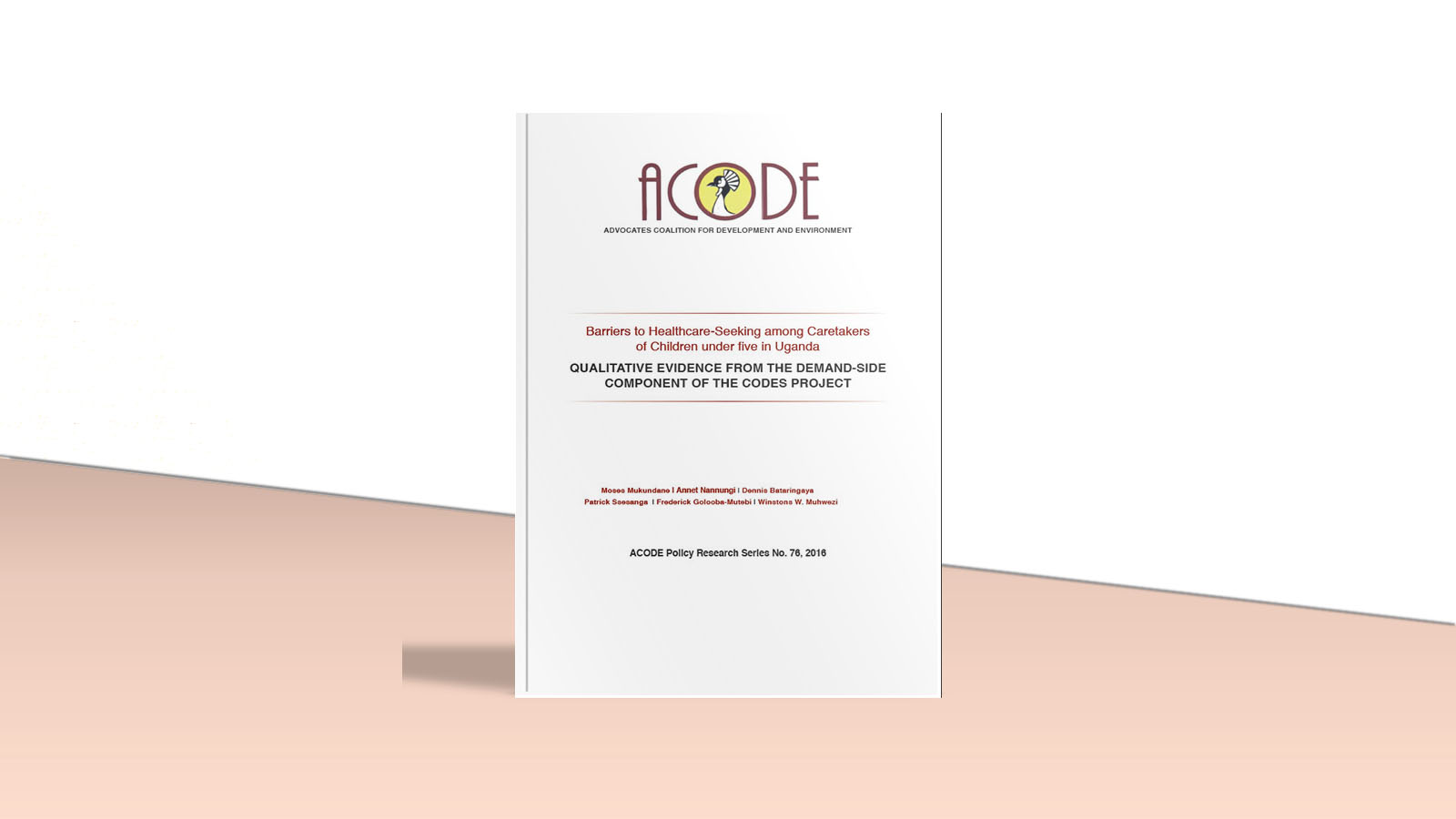
Barriers to Care-Seeking among Caretakers of Children under five in Uganda: Qualitative Evidence from the Demand-side-Component of the CODES project
Author(s): Mukundane Moses, Bataringaya Dennis, Nannungi Annet, Ssesanga Patrick, Golooba-Mutebi Frederick, and Muhwezi W. Winstons
Published: 2016
This study was conducted to understand the kinds of barriers to care-seeking experienced by low-income caretakers of children under-five years in 16 districts in Uganda. The paper notes that while Uganda has made commendable achievements in human development and poverty reduction as part of efforts to achieve Millennium Development benchmarks, the country’s under-five mortality statistics remain high underscoring the serious challenges that the government faces in its efforts to ensure the survival of children under 5 years of age.
View PDF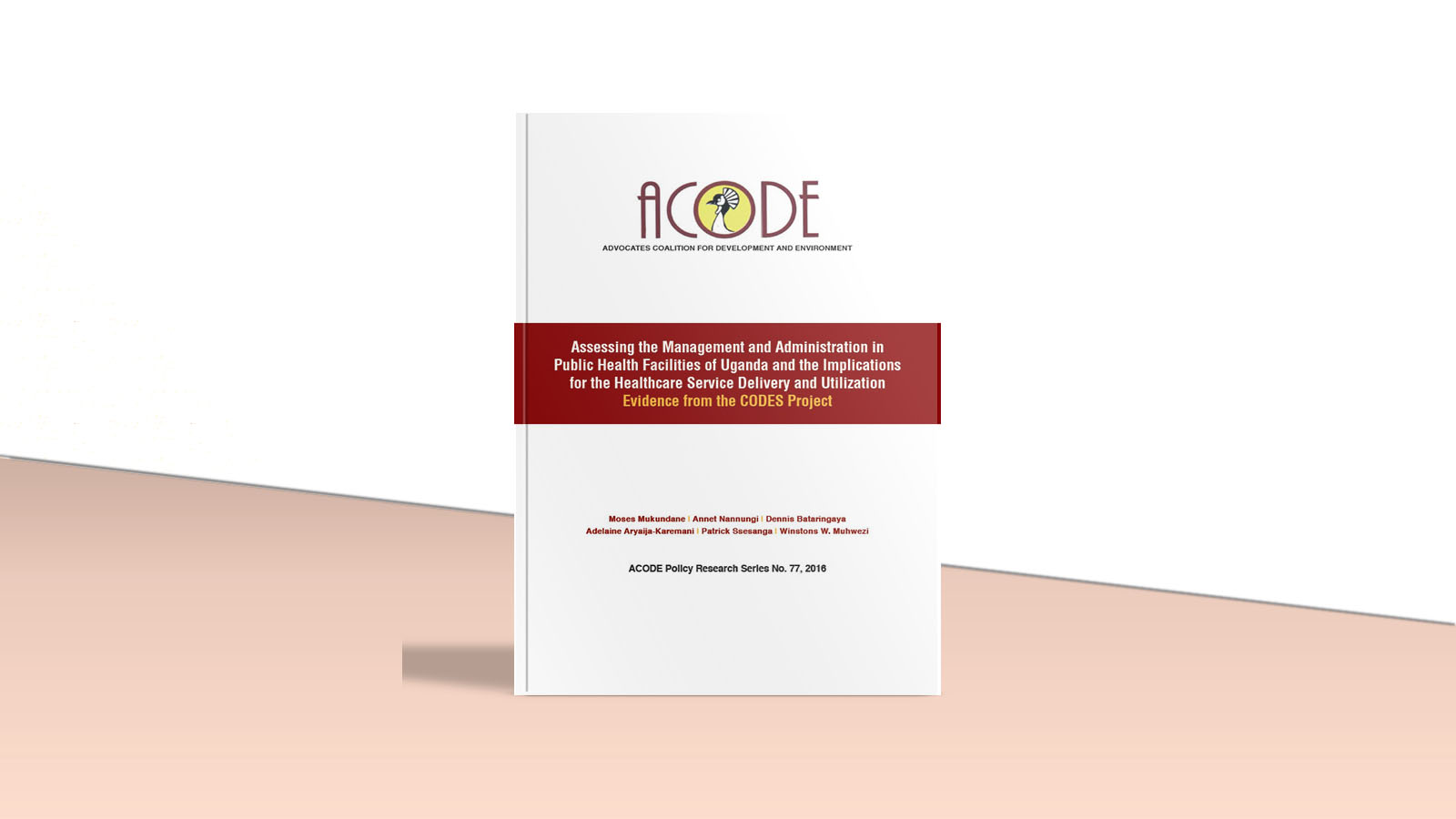
Assessing the Management and Administration in Public Health Facilities of Uganda and the Implications for the Healthcare Service Delivery and Utilization
Author(s): Mukundane Moses, Nannungi Annet, Bataringaya Dennis, Adelaine Aryaija-Karemani, Ssesanga Patrick, and Muhwezi W. Winstons
Published: 2016
The paper presents an assessment of one of the critical determinants of quality of healthcare provision – the health facility level management and administration. The paper is premised on the argument that the existing weaknesses in health facility management and administration immensely jeopardize the quality of health care service delivery in public health facilities as well as effective utilization of healthcare by the community.
View PDF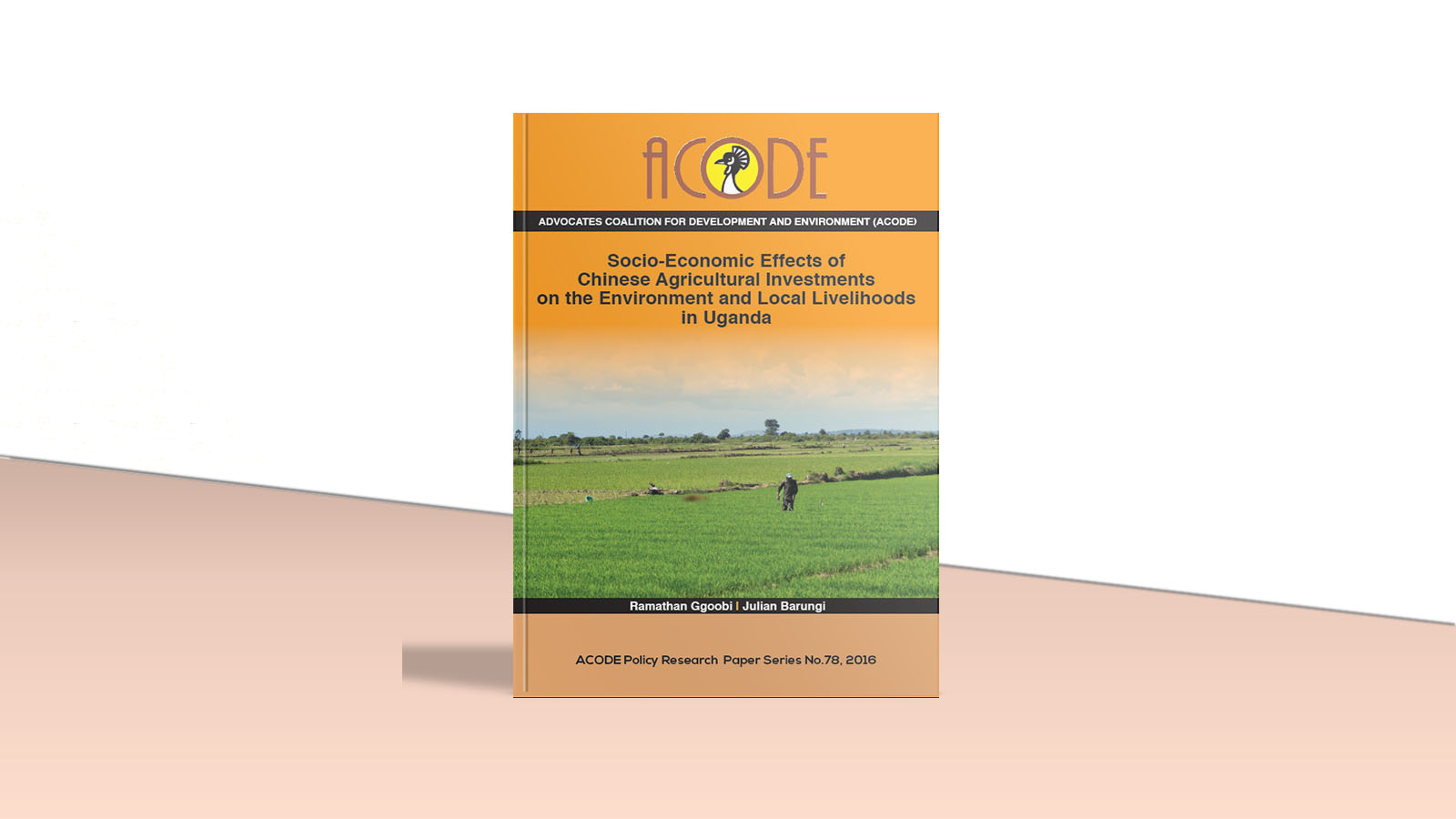
Socio-Economic Effects of Chinese Agricultural Investments on the Environment and Local Livelihoods in Uganda
Author(s): Ramathan Ggoobi and Julian Barungi
Published: 2016
The primary objective of this study was to profile Chinese investments in Uganda’s agriculture sector and establish their socio-economic effects on the environment and local livelihoods. The nature and significance of China's engagements with African agriculture continues to be hotly debated in the media, academia and policy circles around the world. Although China has been engaged in Uganda’s agriculture for more than 40 years, the recent jostle for agricultural land by private Chinese investors is mystifying and justifies the need to conduct a scientific study to provide clear evidence before the issue gets bundled into the messy anecdotal media inquiry.
View PDF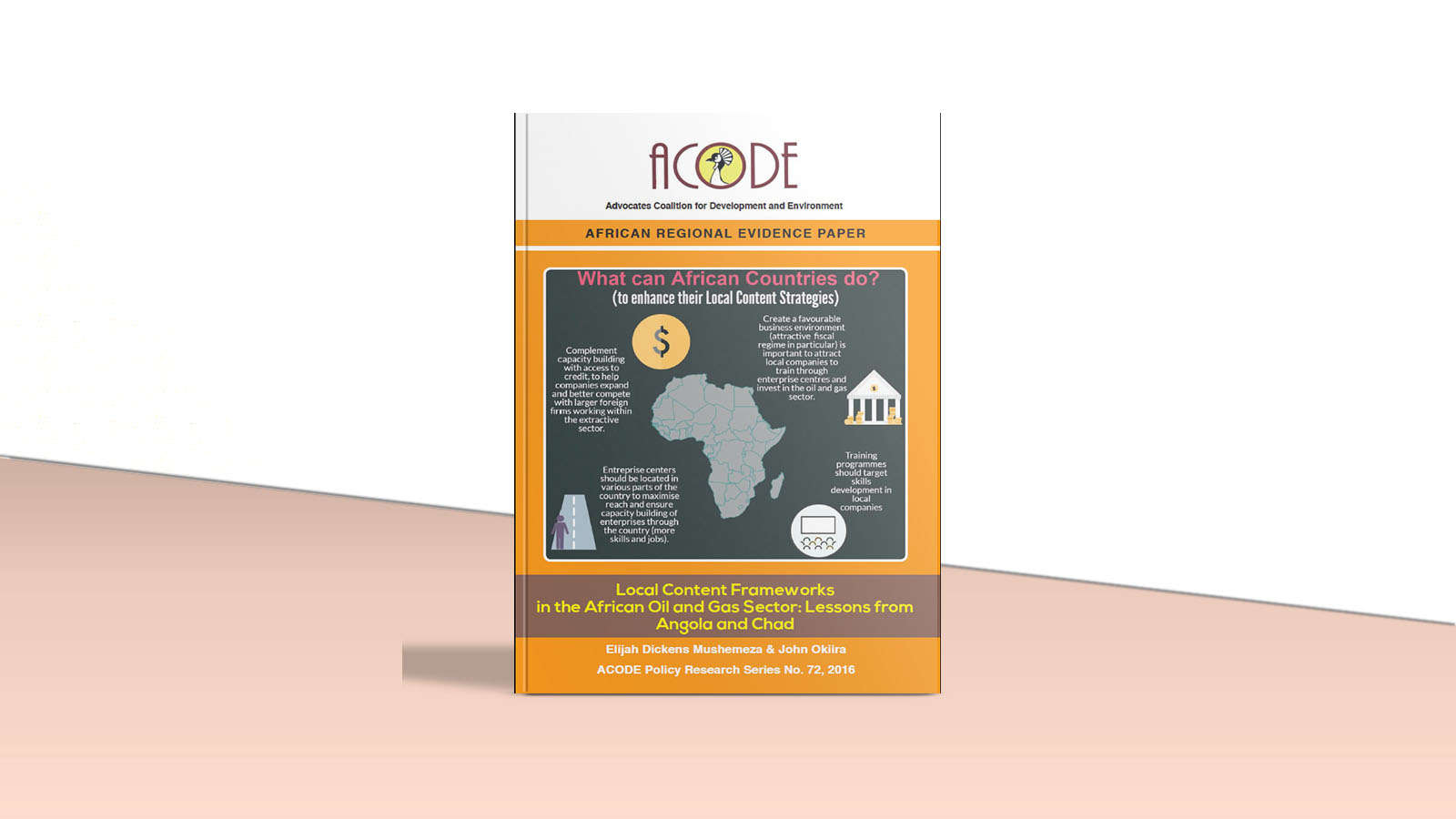
Local Content Frameworks in the African Oil and Gas Sector: Lessons from Angola and Chad
Author(s): Elijah Dickens Mushemeza and John Okiira
Published: 2016
This paper seeks to identify the main characteristics and outcomes of local content frameworks (LCFs) in African oil and gas producing countries. This research is based on the hypothesis that the more specific the LCFs, the better the outcomes. the study adopts a comparative case study approach based on experiences in seven African countries (Angola, Chad, Equatorial Guinea, Ghana, Nigeria, Tanzania and Uganda) with aim of understanding the broader context and trends.
View PDF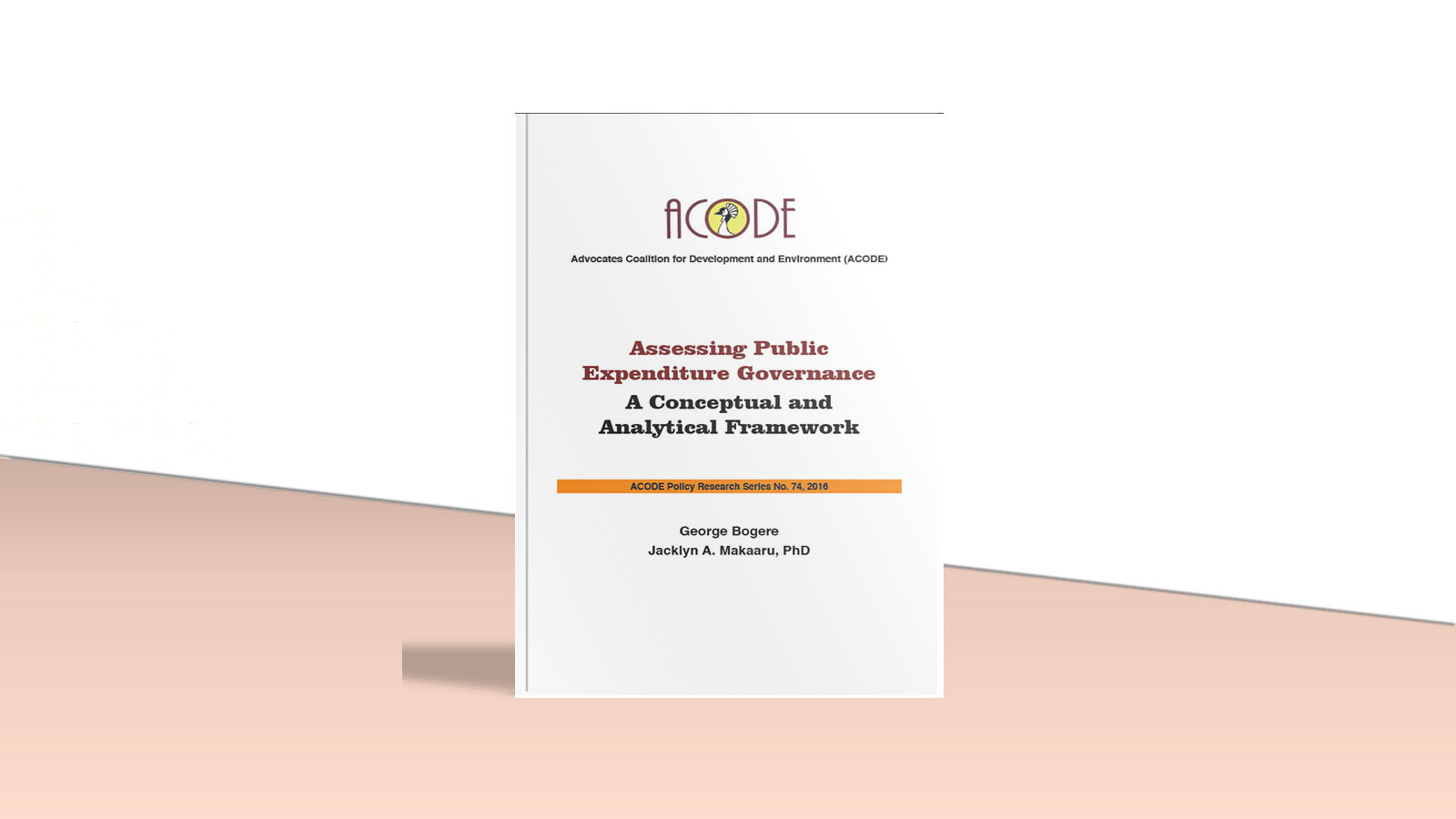
Assessing Public Expenditure Governance: A Conceptual and Analytical Framework
Author(s): George Bogere and Jacklyn A. Makaaru
Published: 2016
This paper presents a framework for assessing public expenditure governance. In the framework governance is viewed as a process with inputs and outcomes and is an aggregation of numerous parts. The proposed framework emphasises engagement with actors with the aim of improving public expenditure governance and the outcomes of public expenditure.
View PDF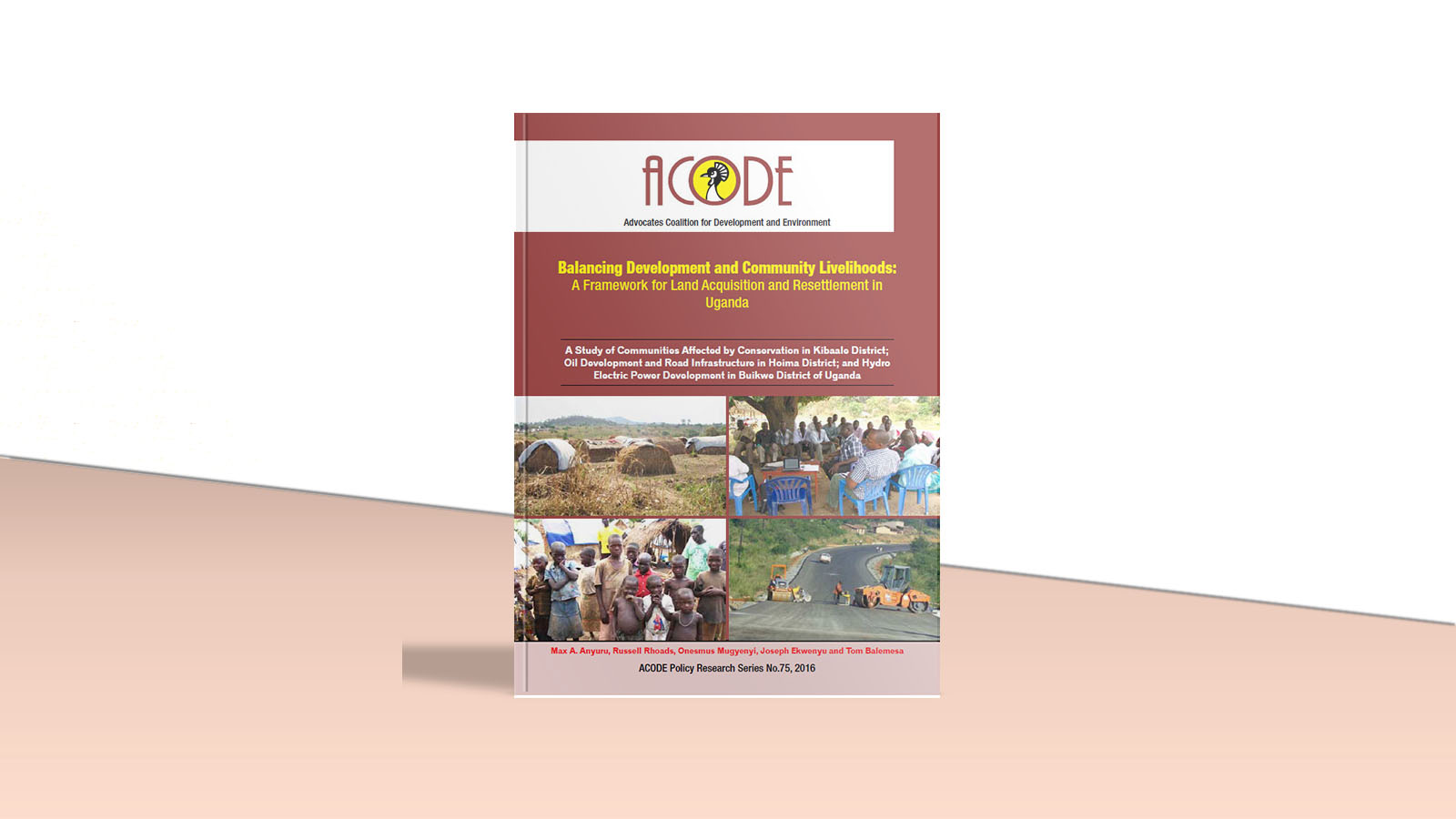
Balancing Development and Community Livelihoods: A Framework for Land Acquisition and Resettlement in Uganda
Author(s): Max A. Anyuru, Russell Rhoads, Onesmus Mugyenyi, Joseph Ekwenyu, and Tom Balemesa
Published: 2016
This paper offers a case for protecting public investments and minimizing the dangers of land acquisitions that distort and threaten community livelihoods. Acquisition of land for development and balancing community livelihoods remains one of the major challenges confronting developing countries today. Although the paper focuses on Uganda, it offers lessons to many countries in the East African region and beyond.
View PDF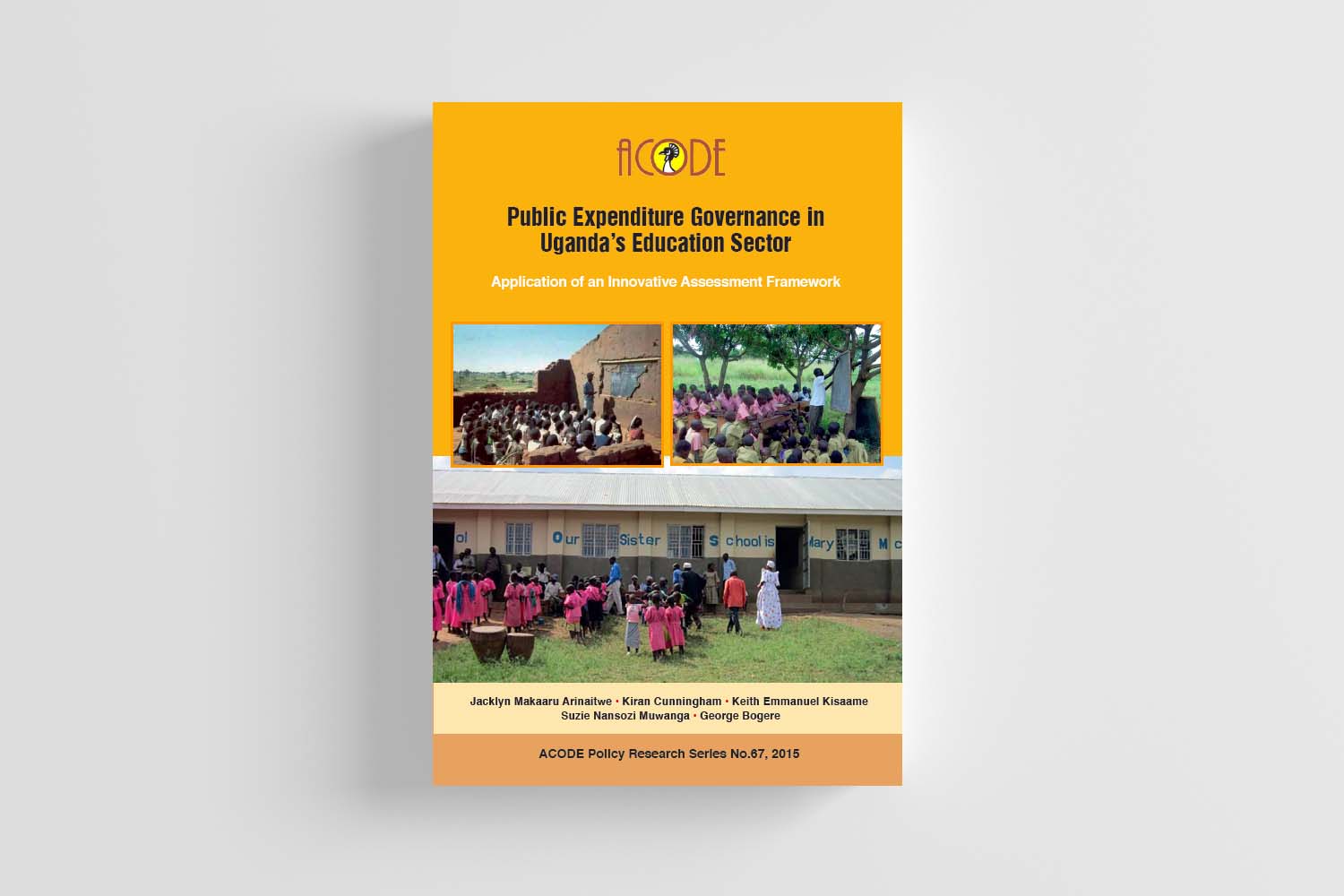
Public Expenditure Governance in Uganda’s Education Sector: Application of an Innovative Assessment Framework
Author(s): Jacklyn Makaaru Arinaitwe, Kiran Cunningham, Keith Emmanuel Kisaame, Suzie Nansozi Muwanga, and George Bogere
Published: 2015
This paper presents a framework for assessing public expenditure governance (PEG) in the education sector. Unlike tools for assessing public financial management, which tend to focus quite specifically on fund management, PEG assessment focuses on inputs, processes and outcomes associated with the governance of public expenditure. Inputs are the laws, policies, rules, regulations, goals and priorities that govern actions and decision-making.
View PDF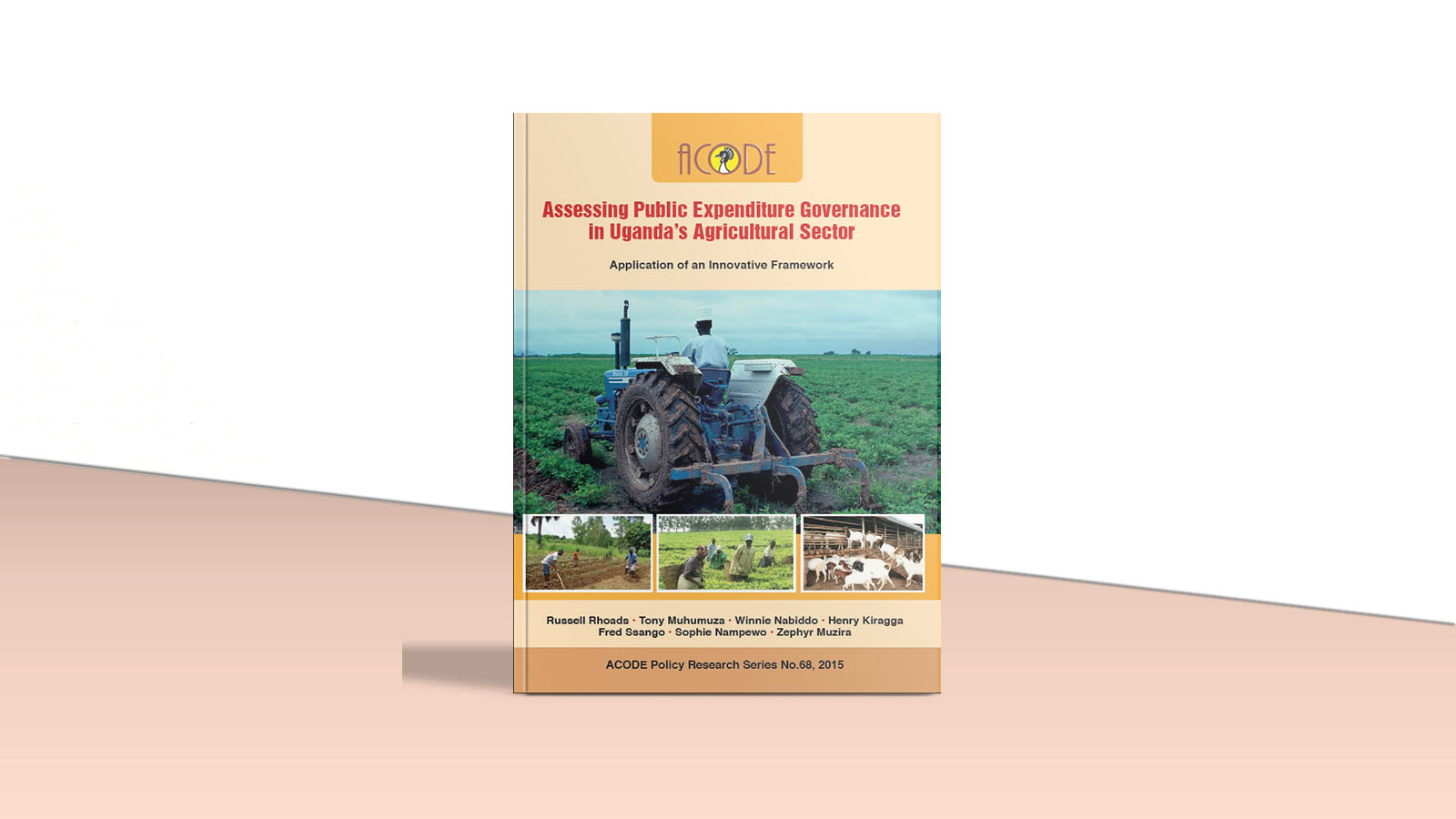
Assessing Public Expenditure Governance in Uganda’s Agricultural Sector: Application of an Innovative Framework
Author(s): Russell Rhoads, Tony Muhumuza, Winnie Nabiddo, Henry Kiragga, Fred Ssango, Sophie Nampewo, and Zephyr Muzira
Published: 2015
The report provides the first attempt to model indicators for assessing PEG in Uganda’s agricultural sector, which can also be replicated in other sectors of the economy and other countries as well. In light of the well-established link between management of public resources and growth and economic transformation, assessing the governance of public expenditure is instrumental in identifying both areas of good practice and areas that require improvement to optimize gains.
View PDF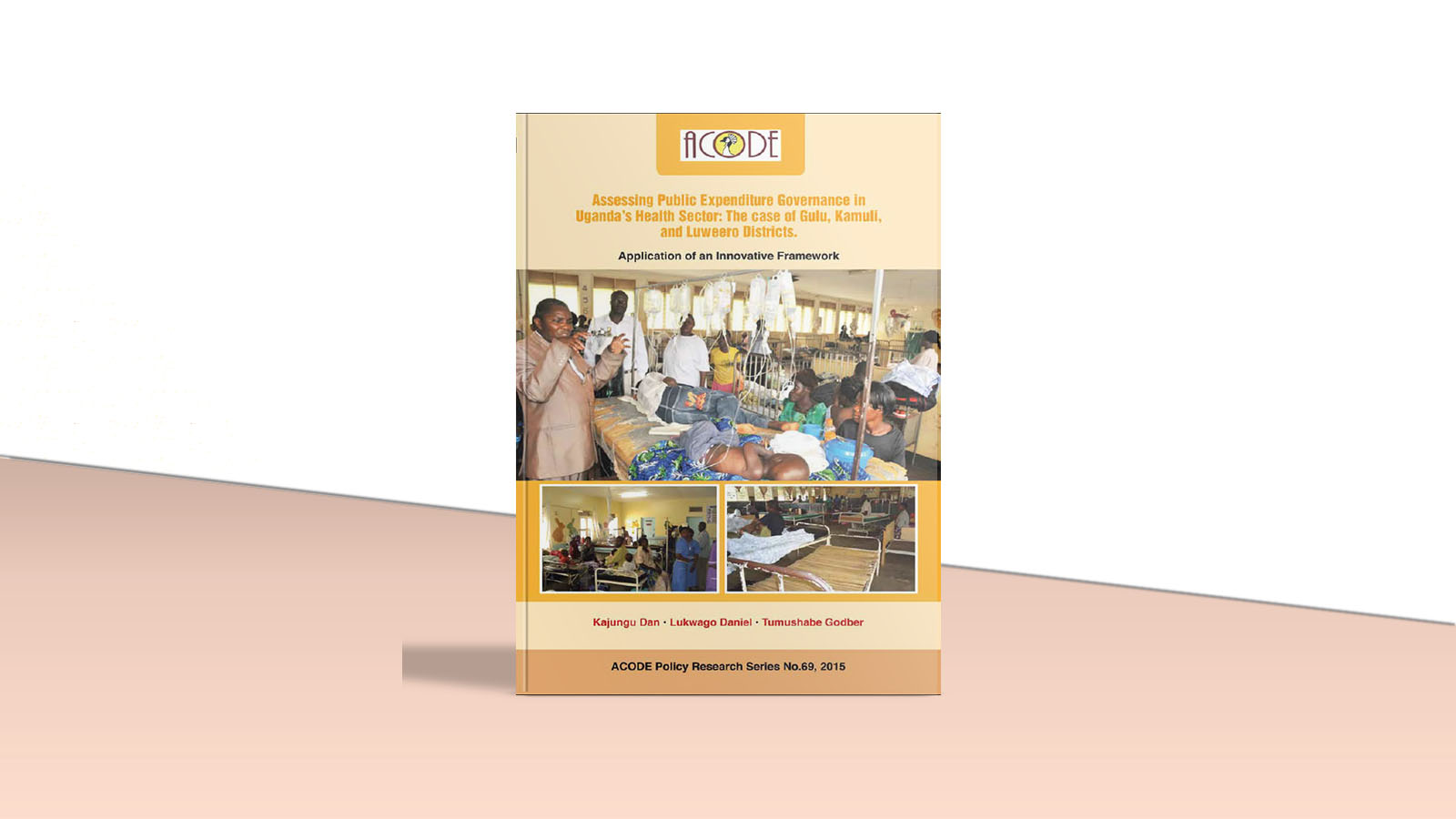
Assessing Public Expenditure Governance in Uganda’s Health Sector: The case of Gulu, Kamuli, and Luweero Districts: Application of an Innovative Framework
Author(s): Dan Kajungu, Daniel Lukwago, and Godber Tumushabe
Published: 2015
This report specifically presents the assessment of Public Expenditure Governance (PEG) within the health sector and how this affects the performance of the sector. Unlike tools for assessing public financial management which tend to focus specifically on management of funds, the PEG assessment focuses on inputs, processes and outcomes.
View PDF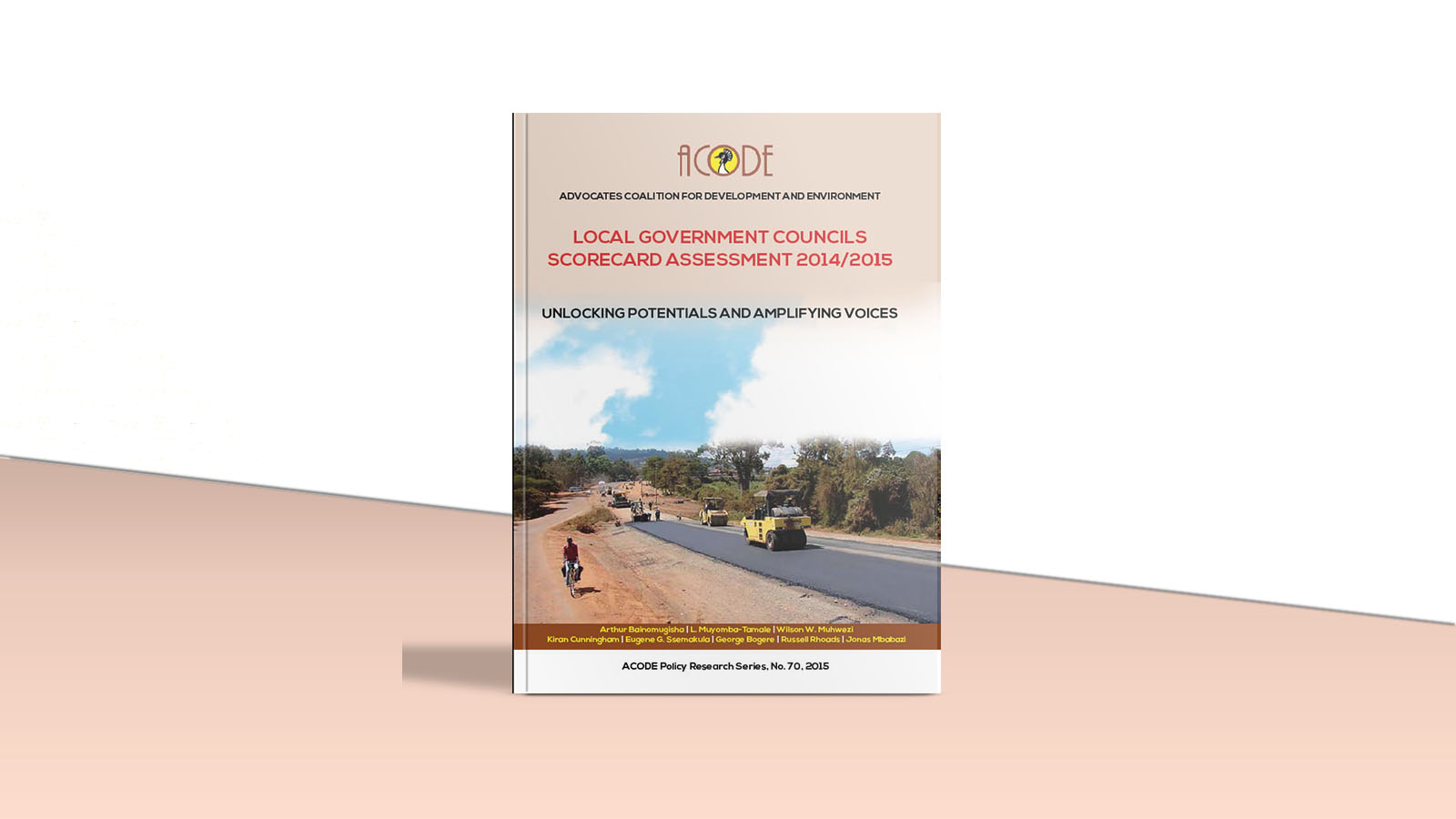
Local Government Councils Scorecard Assessment 2014/2015: Unlocking Potentials And Amplifying Voices
Author(s): Arthur Bainomugisha, Lillian Muyomba-Tamale, Wilson W. Muhwezi, Kiran Cunningham, Eugene G. Ssemakula, George Bogere, Russell Rhoads, and Jonas Mbabazi
Published: 2015
The paper presents the sixth Local Government Councils Scorecard Initiative (LGCSCI) report for FY2014/15. In addition to presenting findings of the annual assessment of the performance of elected district leaders, the report offers a flashback of the past six years of implementing the LGCSCI. Cast against the history of LGCSCI, the current assessment presents a compelling case that decentralization is the most appropriate mechanism of building local democracy.
View PDF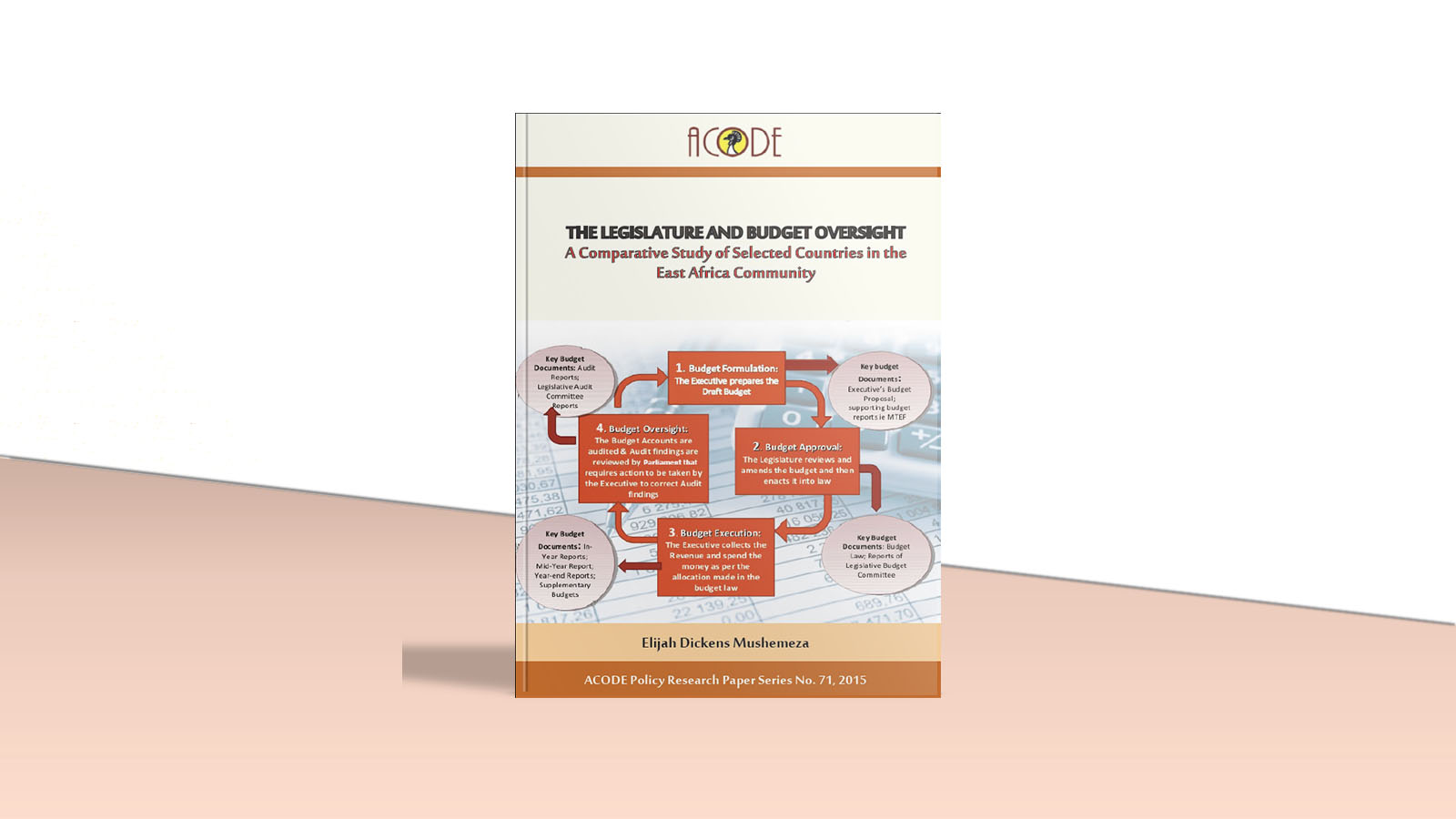
The Legislature and Budget Oversight: A Comparative Study of Selected Countries in the East African Community
Author(s): Elijah Dickens Mushemeza
Published: 2015
This paper takes a comparative perspective in which the legislative arms of government and their oversight role on the budget process in the selected countries forming the East African Community is unraveled. The central thesis of this paper is that the legislature and its budget oversight function is critical for democratic governance in East Africa.
View PDF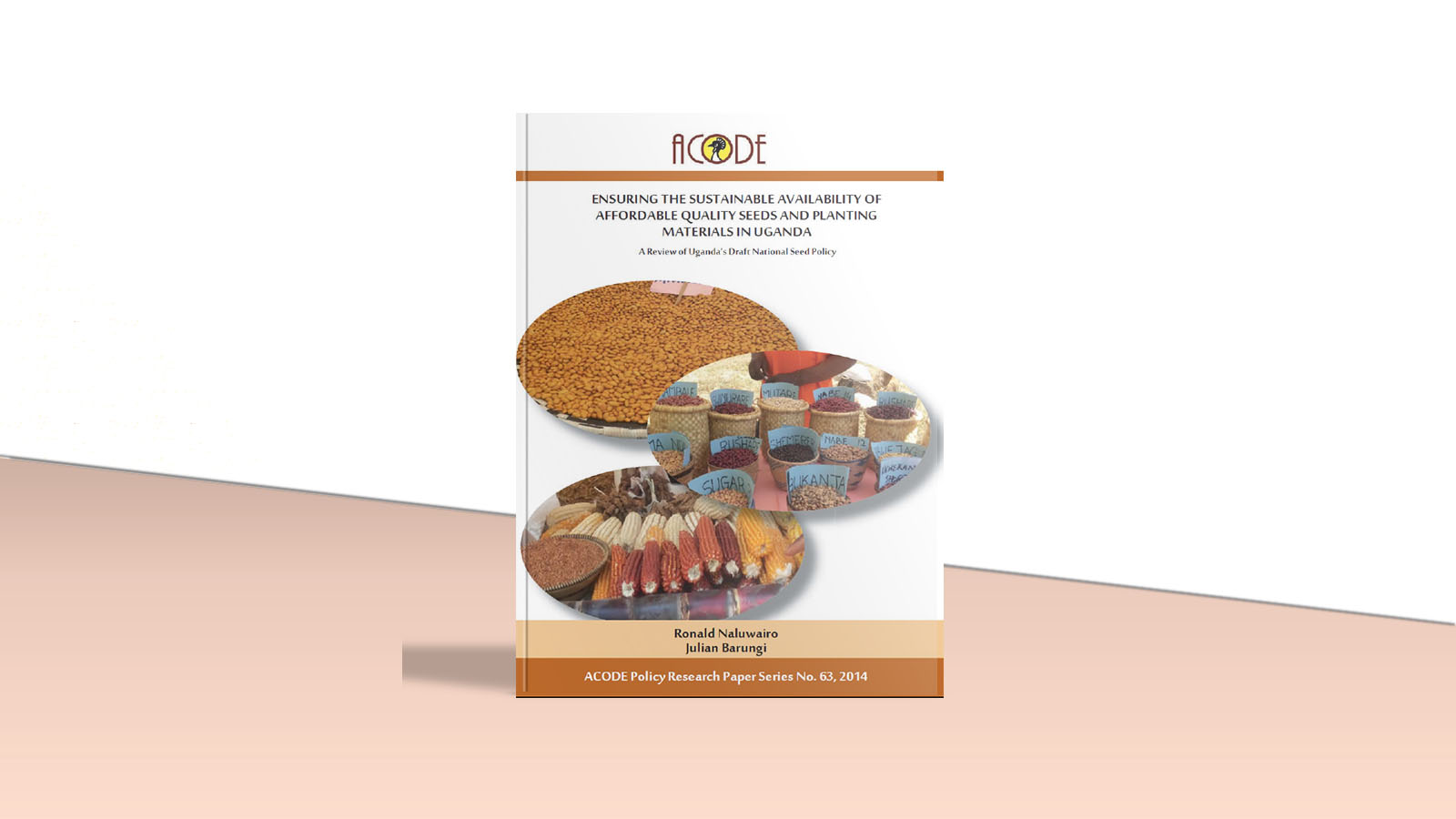
Ensuring The Sustainable Availability Of Affordable Quality Seeds And Planting Materials In Uganda: A Review of Uganda’s Draft National Seed Policy
Author(s): Ronald Naluwairo and Julian Barungi
Published: 2014
This paper analyses the potential of Uganda’s draft national seed policy (May 2014), and the adequacy of the major seed legislation and institutional framework in ensuring the sustainable availability and accessibility of affordable quality seed and planting materials. The study is largely based on desk review of the draft national seed policy and other relevant legal and policy instruments, supplemented by a few informal interviews with stakeholders in Uganda’s seed industry.
View PDF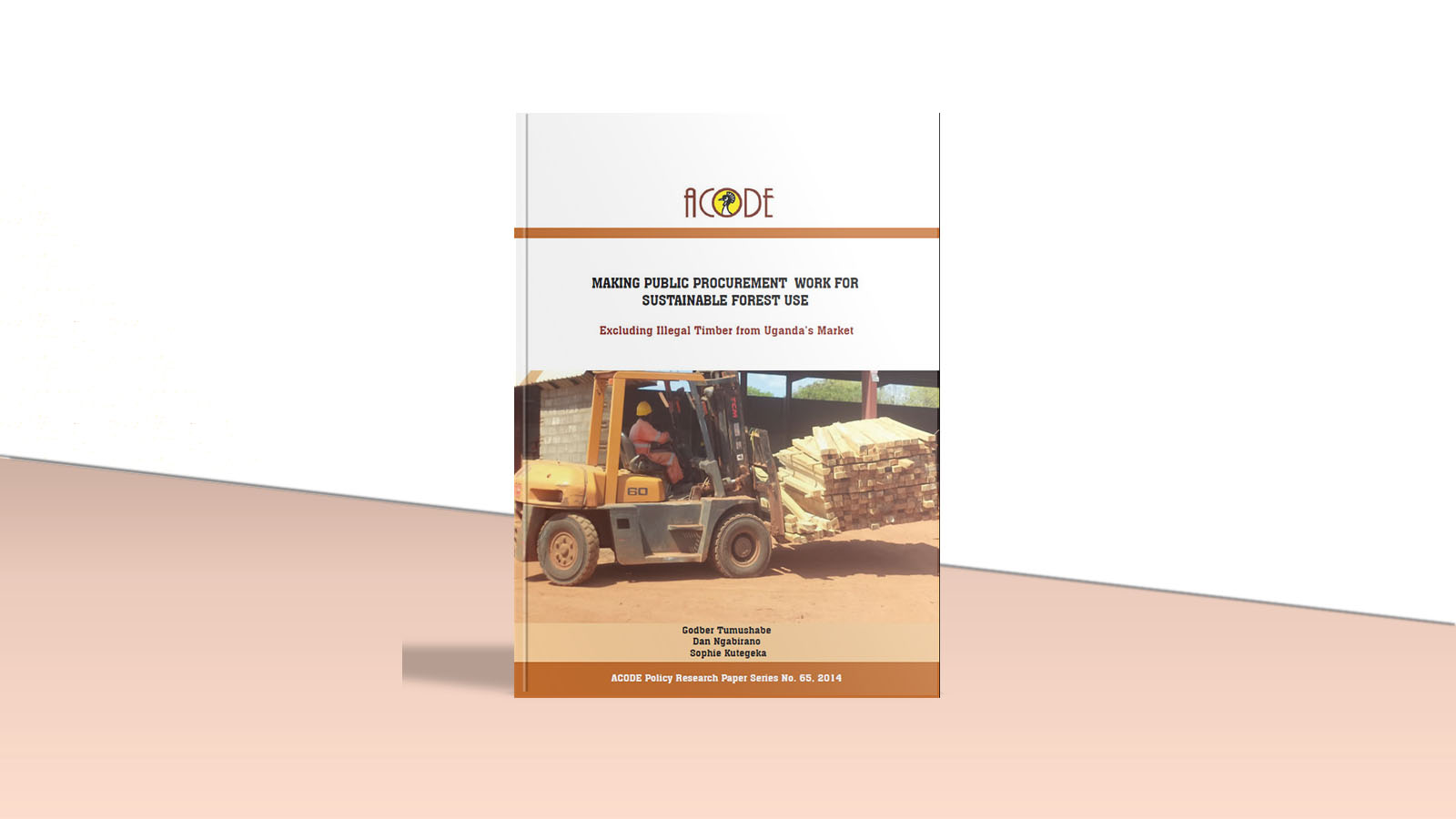
Making Public Procurement Work for Sustainable Forest Use: Excluding Illegal Timber from Uganda’s Market
Author(s): Godber Tumushabe, Dan Ngabirano, and Sophie Kutegeka
Published: 2014
This research paper advances a two stage approach Uganda should adopt if it is to manage its forests for the benefit of its present and future generations. First, public procurement laws and systems must outrightly prohibit illegal timber. Secondly there must be a gradual development of a procurement system that encourages purchase of timber from sustainably managed forests, especially as timber demand and supply increase.
View PDF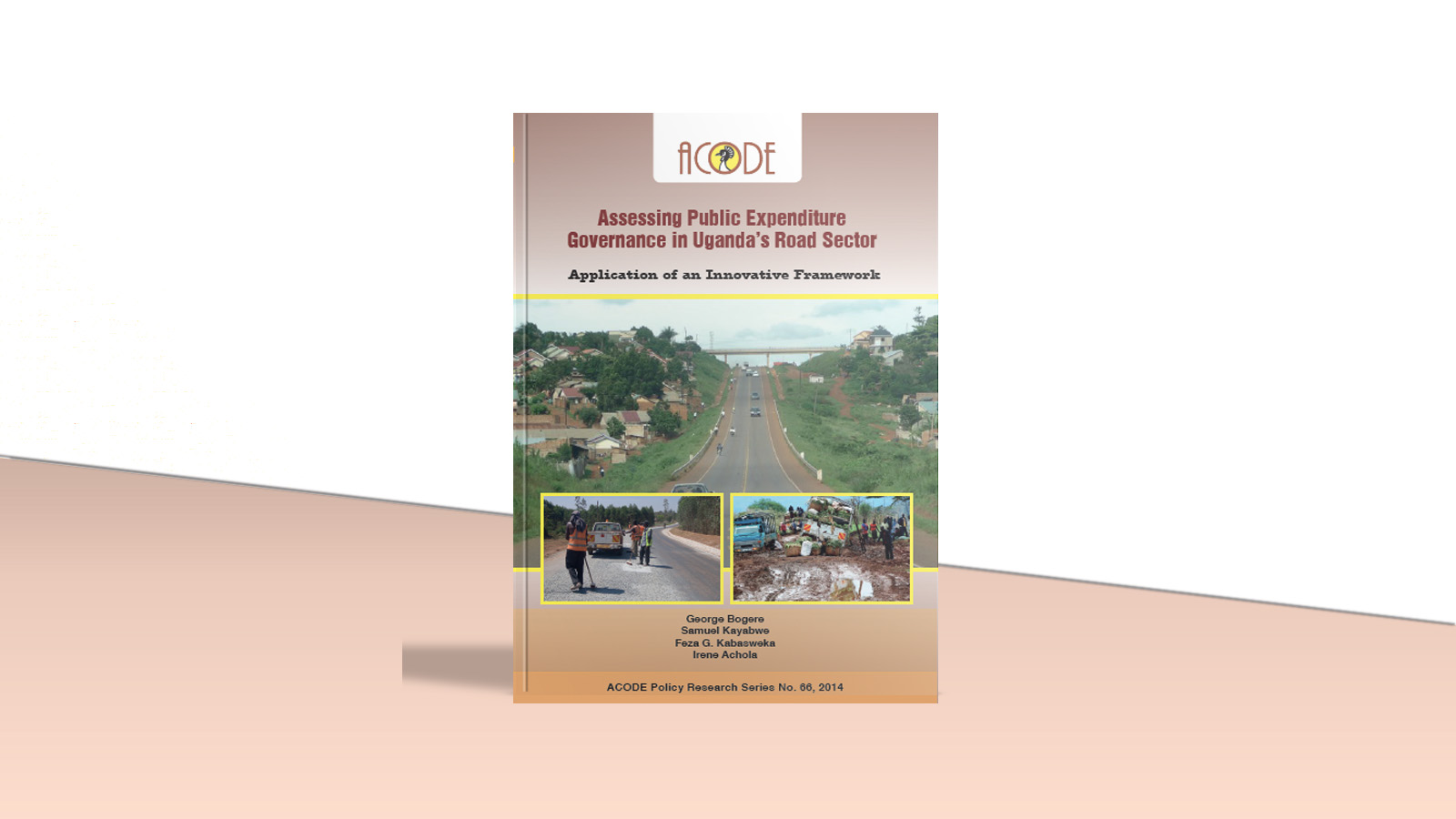
Assessing Public Expenditure Governance in Uganda’s Road Sector: Application of an Innovative Framework and Findings from the Sector
Author(s): George Bogere, Samuel Kayabwe, Feza G. Kabasweka, and Irene Achola
Published: 2014
The study uses an Indicator Approach to measure public expenditure governance. It focuses on ten indicators selected for their connection and relevance in promoting the mutually reinforcing principles of governance including participation, coordination, strategic vision, transparency, accountability, control of corruption, responsiveness, effectiveness and efficiency, and equity. The indicators were selected following six of the eight criteria used in the World Bankʼs Transport Sector Governance Indicators for Sub-Saharan Africa.
View PDF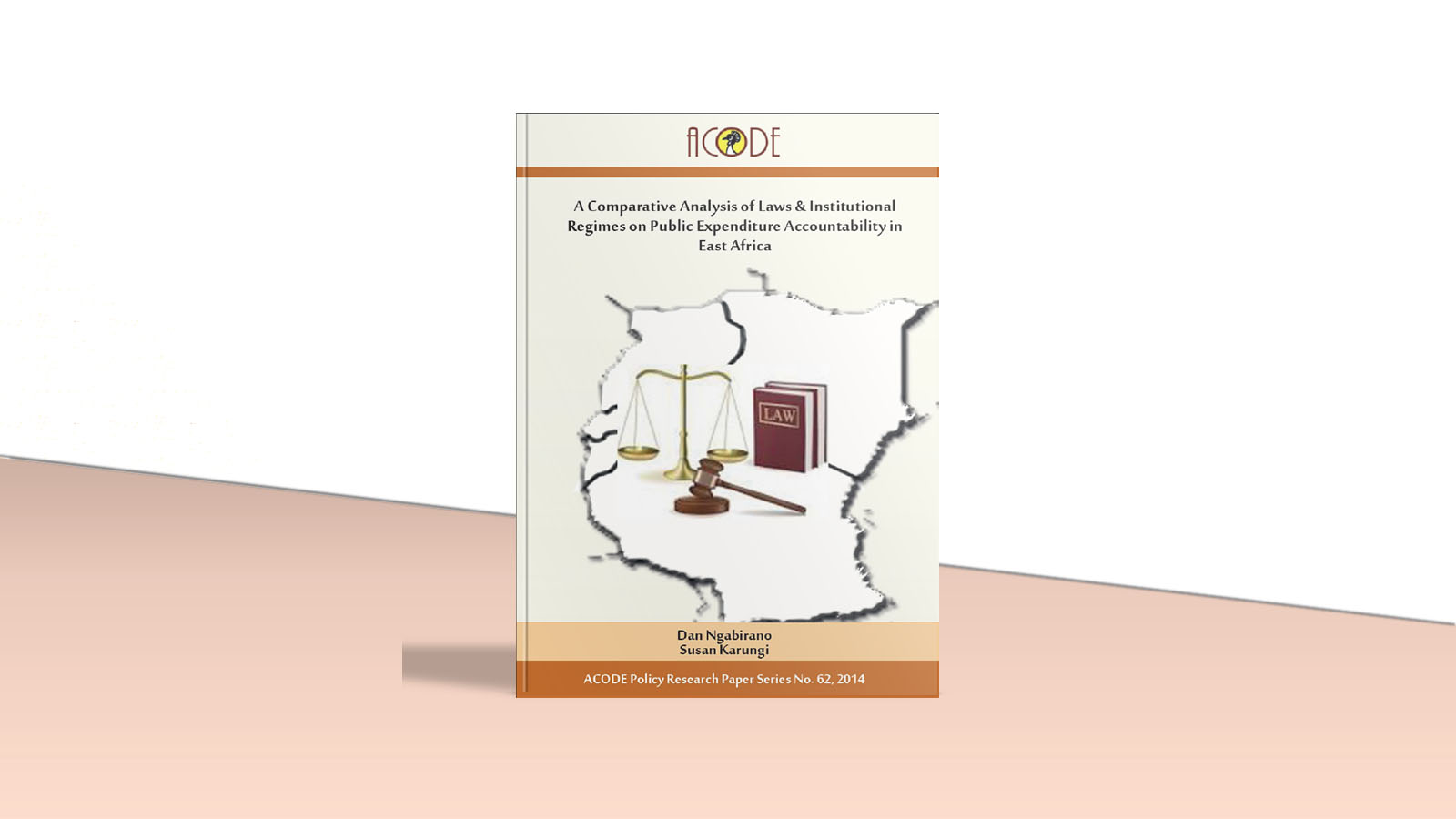
A Comparative Analysis of Laws & Institutional Regimes on Public Expenditure Accountability in East Africa
Author(s): Dan Ngabirano and Susan Karungi
Published: 2014
This study examines the extent to which the existing legal and institutional framework in the four East African countries of Kenya, Rwanda, Uganda and the United Republic of Tanzania incorporates the notion of accountability in public expenditure. Accountability is examined at two levels that is to say pre and post expenditure, although most emphasis is placed on existing post expenditure mechanisms.
View PDF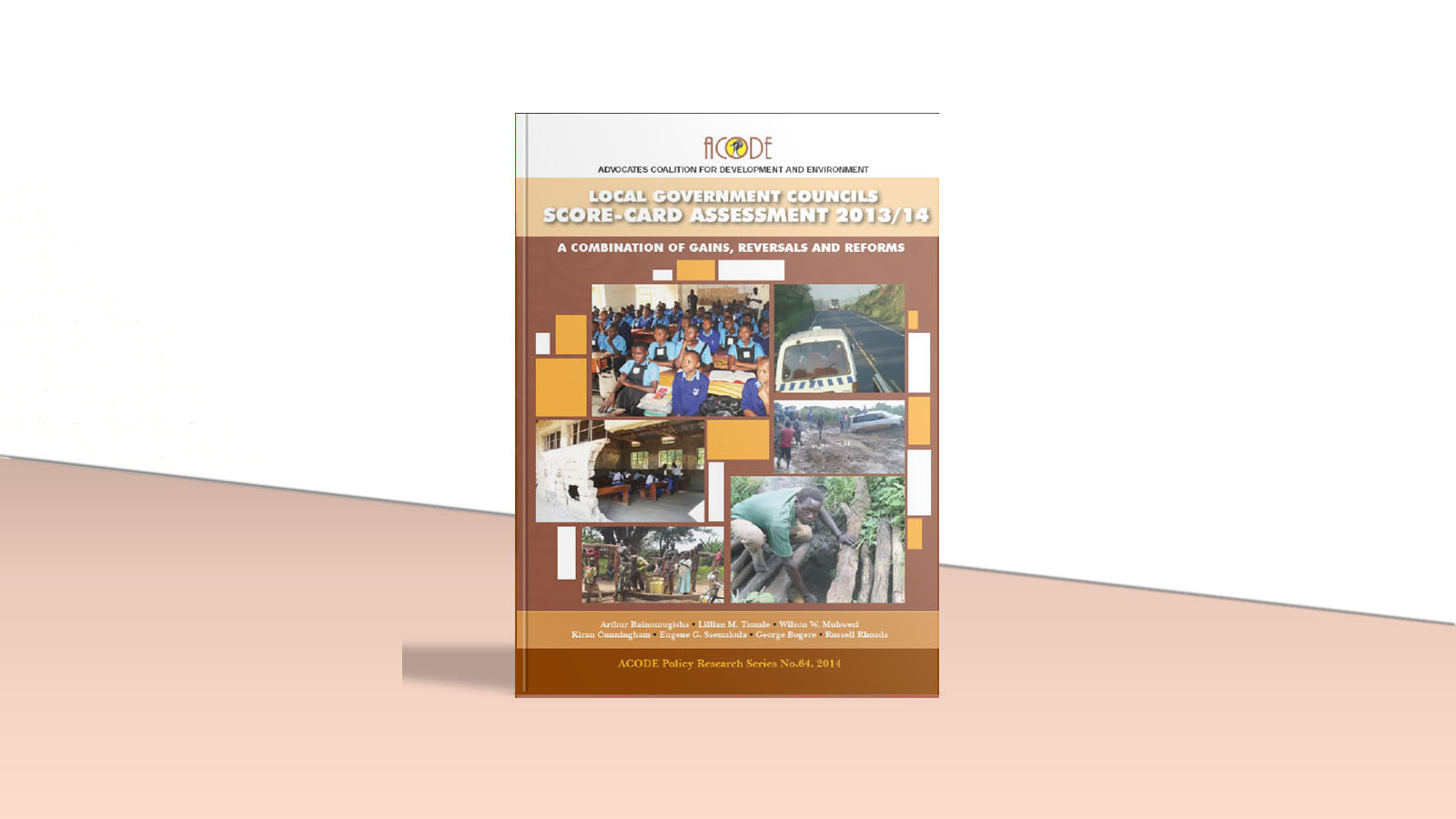
Local Government Councils Scorecard Assessment Report 2013/14: A combination of Gains, reversals, and Reforms
Author(s): Arthur Bainomugisha, Lillian M. Tamale, Wilson W. Muhwezi, Kiran Cunningham, Eugene G. Ssemakula, George Bogere, and Russ Rhoads
Published: 2014
This is the fifth Local Government Councils Score-card Report. The report presents the findings of the annual assessment of the performance of elected district leaders in 30 districts during FY 2013/14. The initiative also supports capacity building for elected political leaders to understand their mandate as stipulated in the Local Government Act (CAP 243) Laws of Uganda and the Constitution of Uganda.
View PDF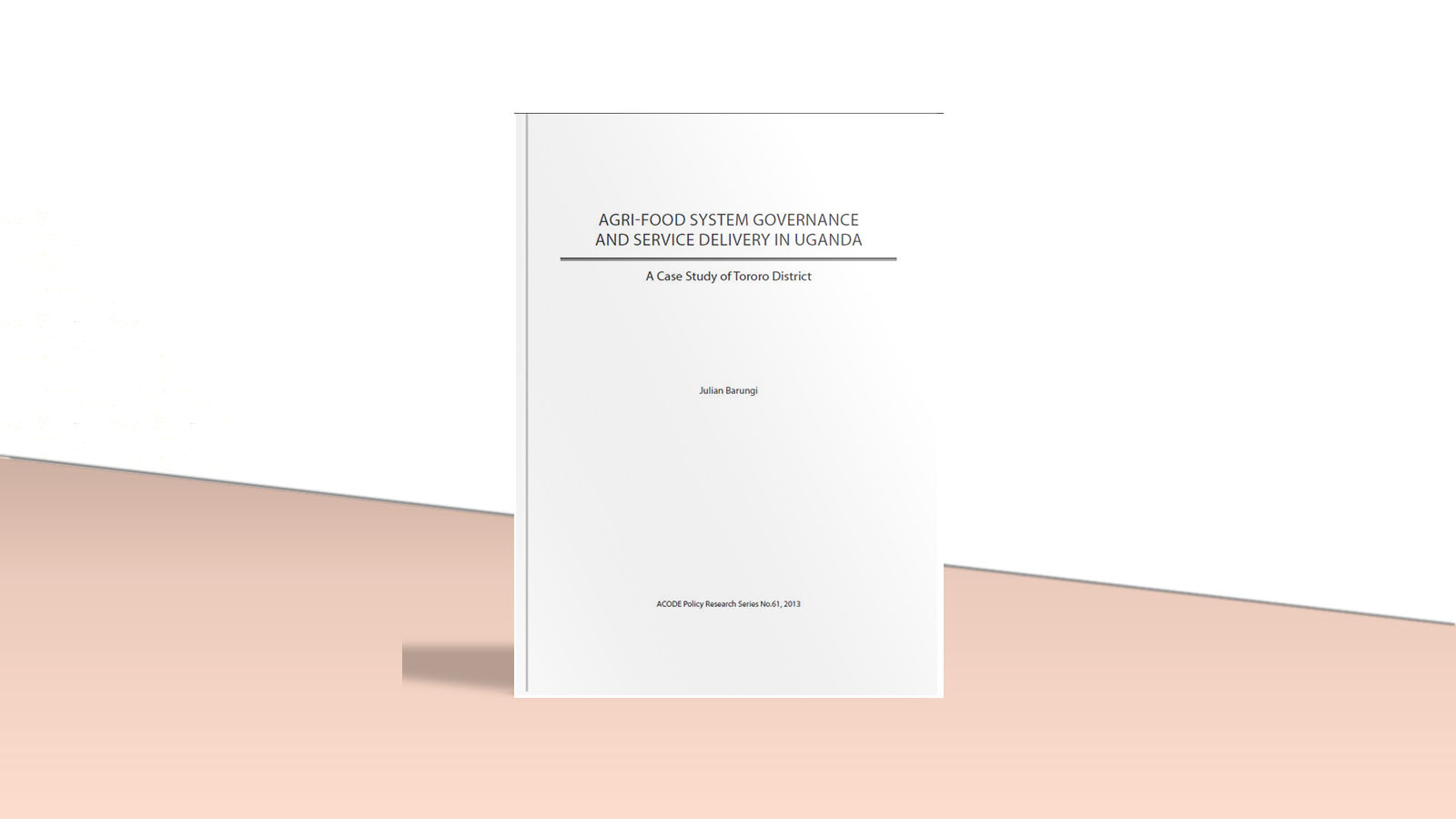
Agri-Food System Governance and Service Delivery in Uganda: A Case Study of Tororo District
Author(s): Julian Barungi
Published: 2013
This is a case study of agri-food system governance and service delivery in Uganda. The paper is part of a broader regional collaborative project aimed at making agri-food systems work for the rural poor in Eastern and Southern Africa. The study was conducted in Kisoko, Mella and Osukuru sub-counties of Tororo district. Using Tororo district as a case study, this paper examines some governance aspects of Uganda’s local agri-food systems.
View PDF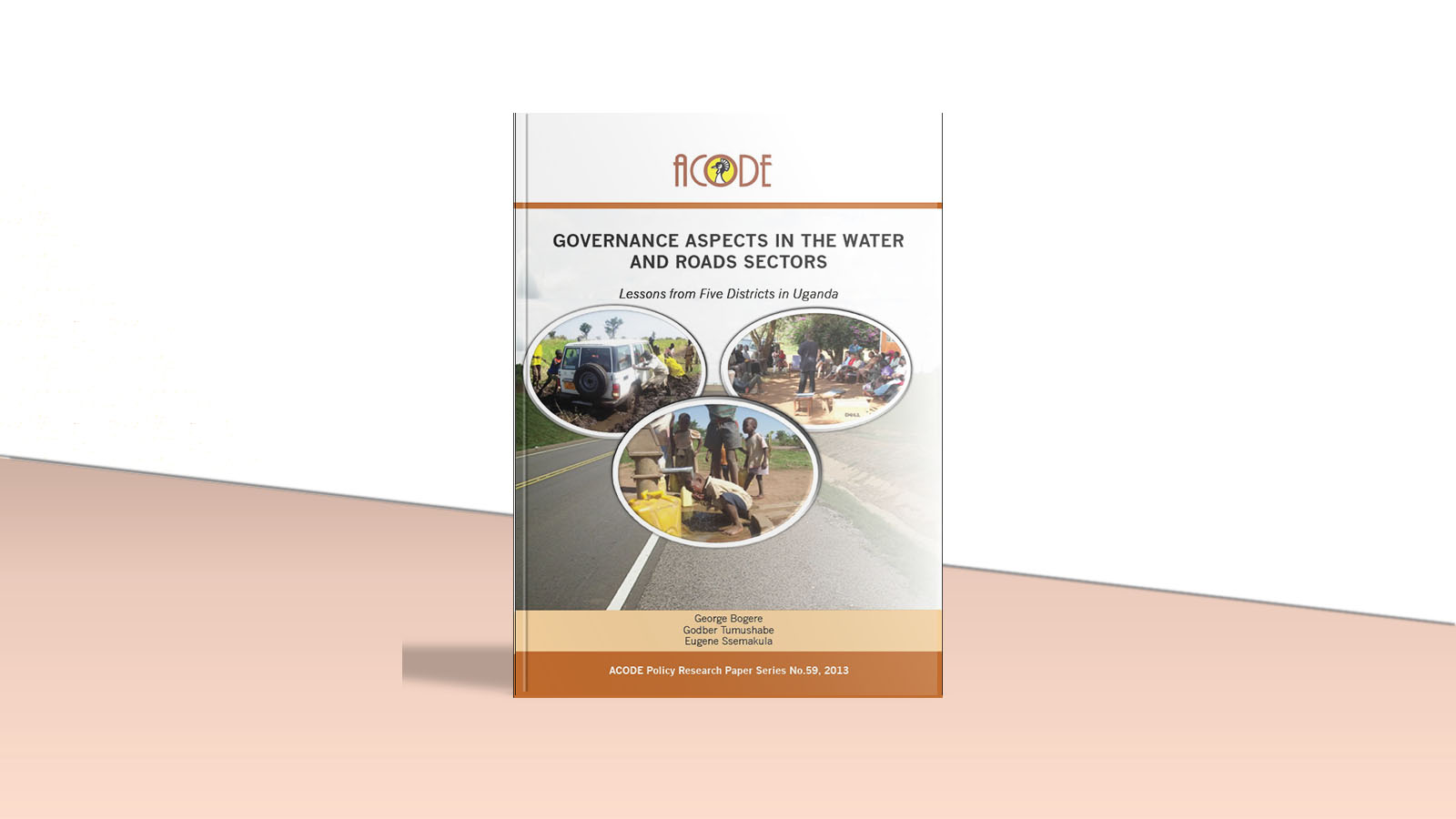
Governance Aspects in the Water and Roads Sectors: Lessons from Five Districts in Uganda
Author(s): George Bogere, Godber Tumushabe, and Eugene Ssemakula
Published: 2013
This paper explores three issues in relation to the provision of social services, namely i) service delivery measures for water and roads as defined by the actors and relations among them; ii) the implications of the different service delivery measures for the quality of services; and iii) the applicability of accountability in the provision of water and roads services.
View PDF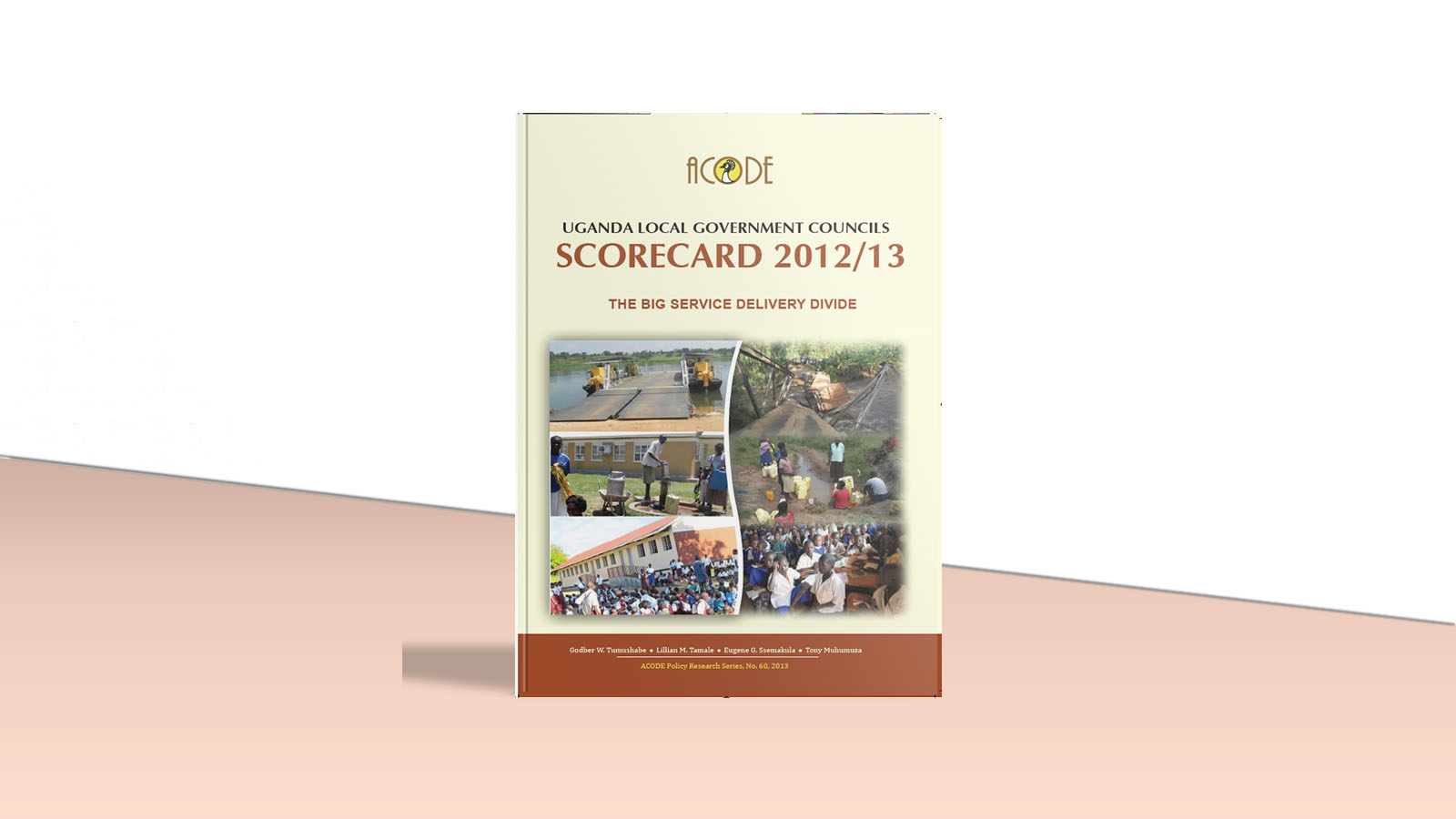
Uganda Local Government Councils Scorecard 2012/13: The Big Service Delivery Divide
Author(s): Godber W. Tumushabe, Lillian Muyomba Tamale, Eugene Gerald Ssemakula, and Tony Muhumuza
Published: 2013
The Uganda Local Government Councils Scorecard 2012/13 presents the findings of the annual assessment of the performance of elected district political leaders. The Scorecard was launched in 2009 and is currently conducted in 26 districts across the country. The goal of the Scorecard is to assess how elected local political leaders perform their responsibilities and other mandates as stipulated under the Constitution, the Local Governments Act and other applicable laws. The assessment covers the following district elected leaders and institutions: district councilors; chairpersons; speakers; and the district council.
View PDF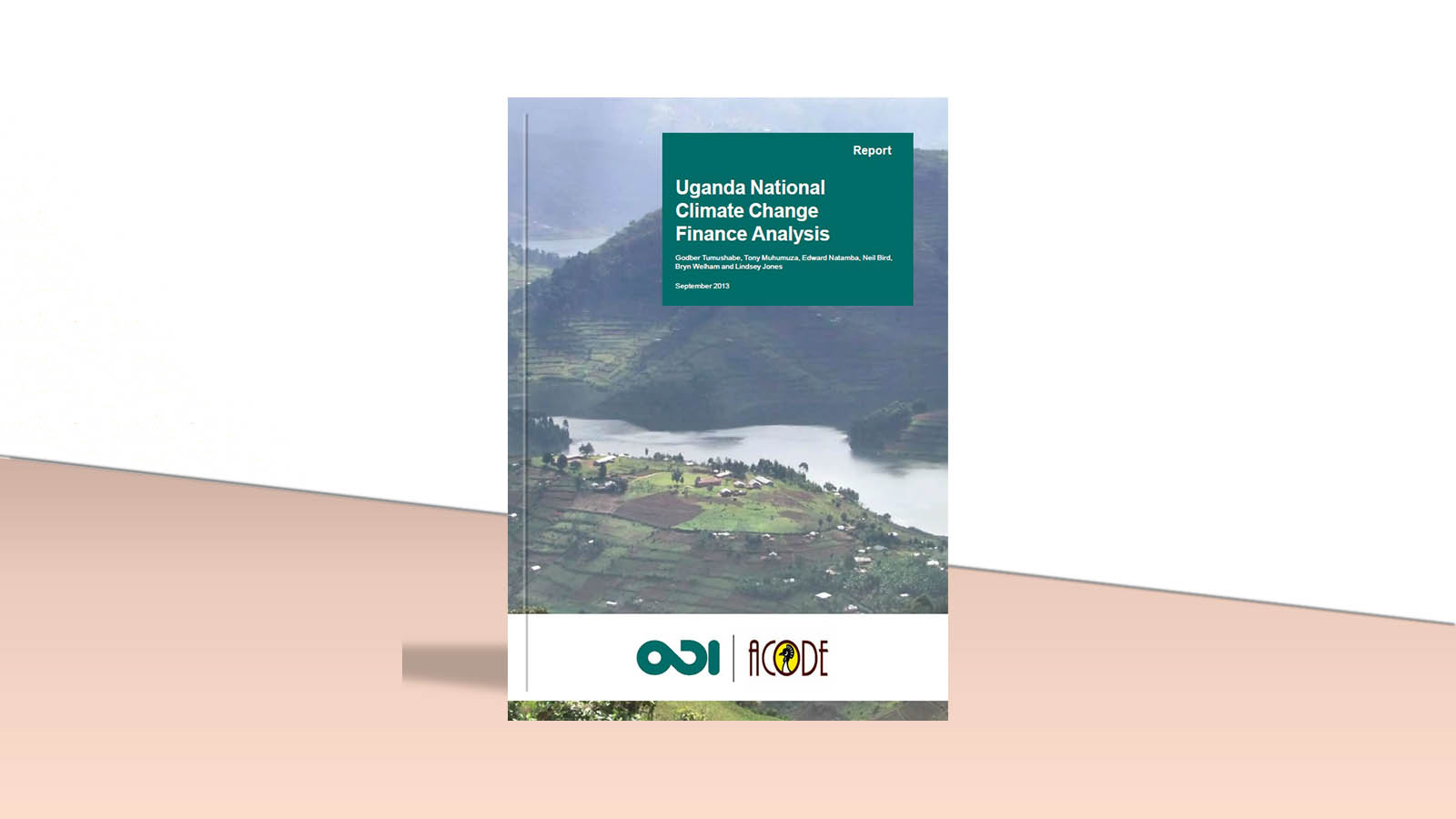
Uganda National Climate Change Finance Analysis
Author(s): Godber Tumushabe, Tony Muhumuza, Edward Natamba, Neil Bird, Bryn Welham and Lindsey Jones
Published: 2013
The study focuses on climate change relevant expenditures that appear in the national budget over the period 2008/9 – 2011/12. A first step in identifying these relevant expenditures is to determine which Ministries are actively engaged on this issue. The study team identified 11 Ministries (and a further nine subsidiary agencies) based on their policy engagement. The expenditure for these ministries is approximately 76% of total public expenditure over the four years covered by the study.
View PDF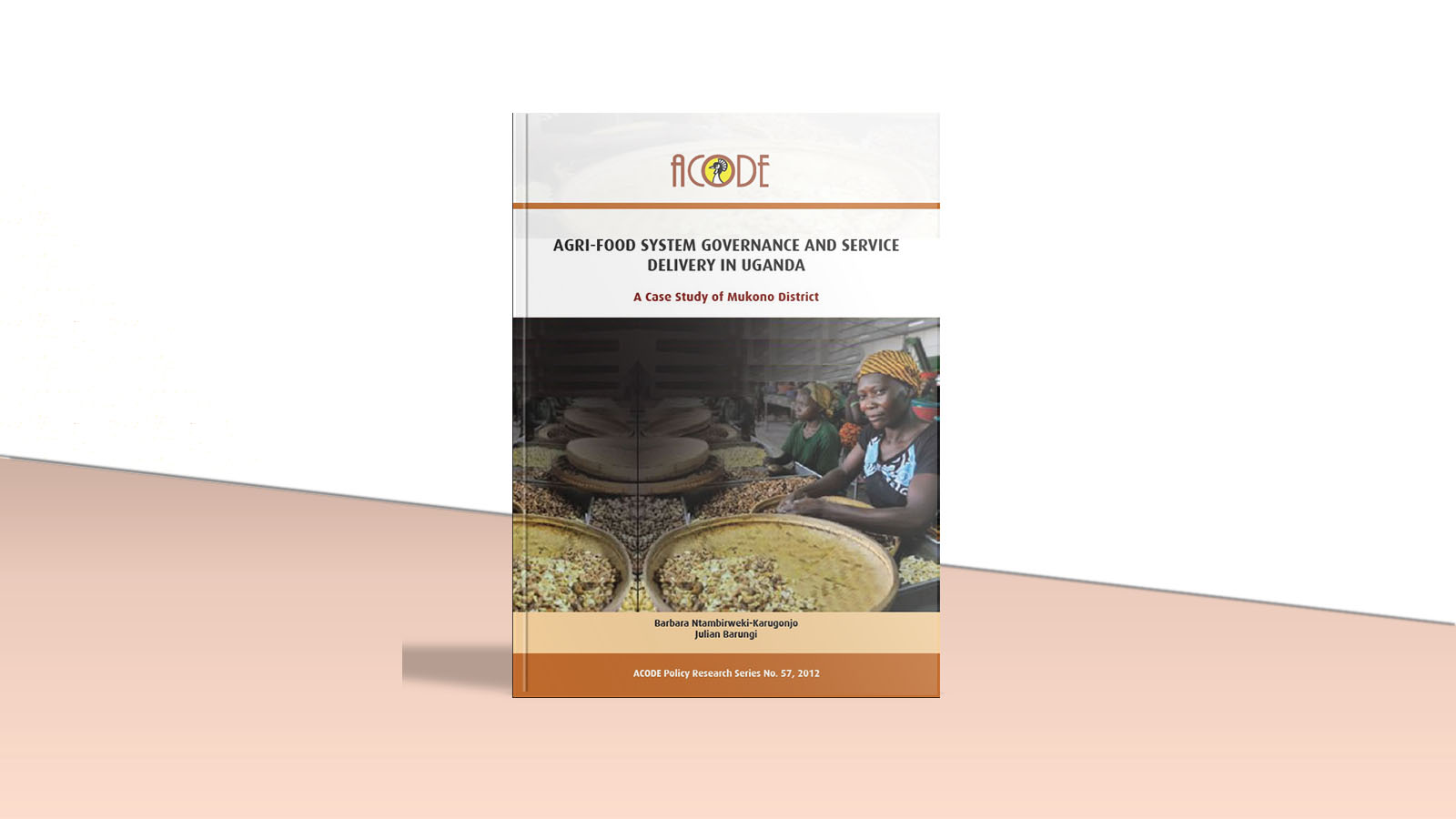
Agri-Food System Governance and Service Delivery in Uganda: A Case Study of Mukono District
Author(s): Barbara Ntambirweki-Karugonjo and Julian Barungi
Published: 2012
This study has three specific objectives. First, it identifies and examines the major existing local agri-food institutional mechanisms. Second, it analyses Mukono district’s agri-food budget, budget governance and financing of agri-food service delivery. Finally, as a way forward, the case study provides some recommendations that can help to address the governance challenges facing Mukono district’s agri-food system.
View PDF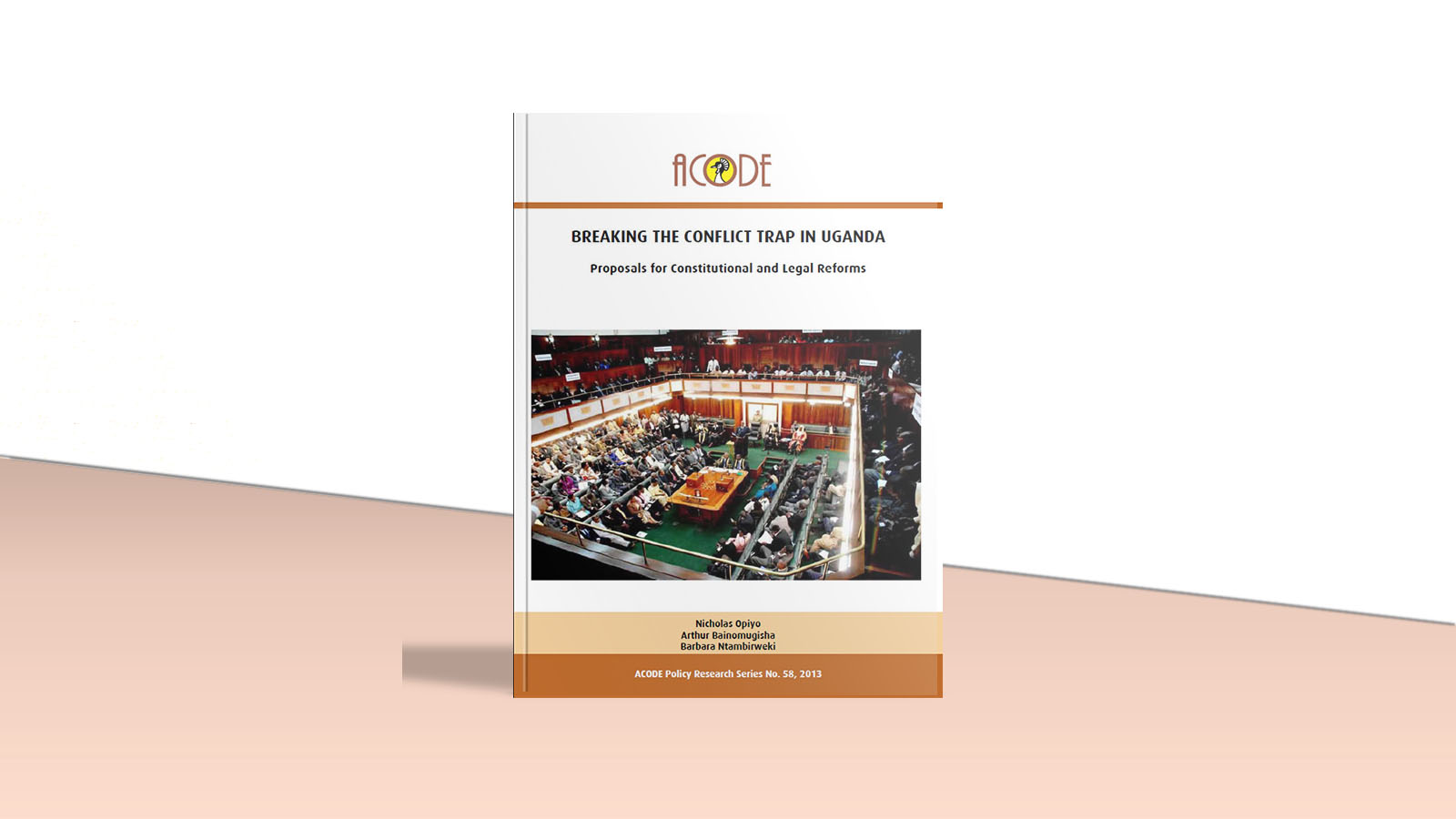
Breaking the Conflict Trap in Uganda: Proposals for Constitutional and Legal Reforms
Author(s): Nicholas Opiyo, Arthur Bainomugisha, and Barbara Ntambirweki
Published: 2012
This paper is aimed at identifying key constitutional issues that would inform the constitutional reform process facilitated by civil society organizations in Uganda. The paper benefited from the input of civil society leaders who spent one and half days in a workshop at Serena Resort Hotel deliberating about Uganda’s legal, constitutional and political challenges that need to be addressed in order to deepen democratic governance.
View PDF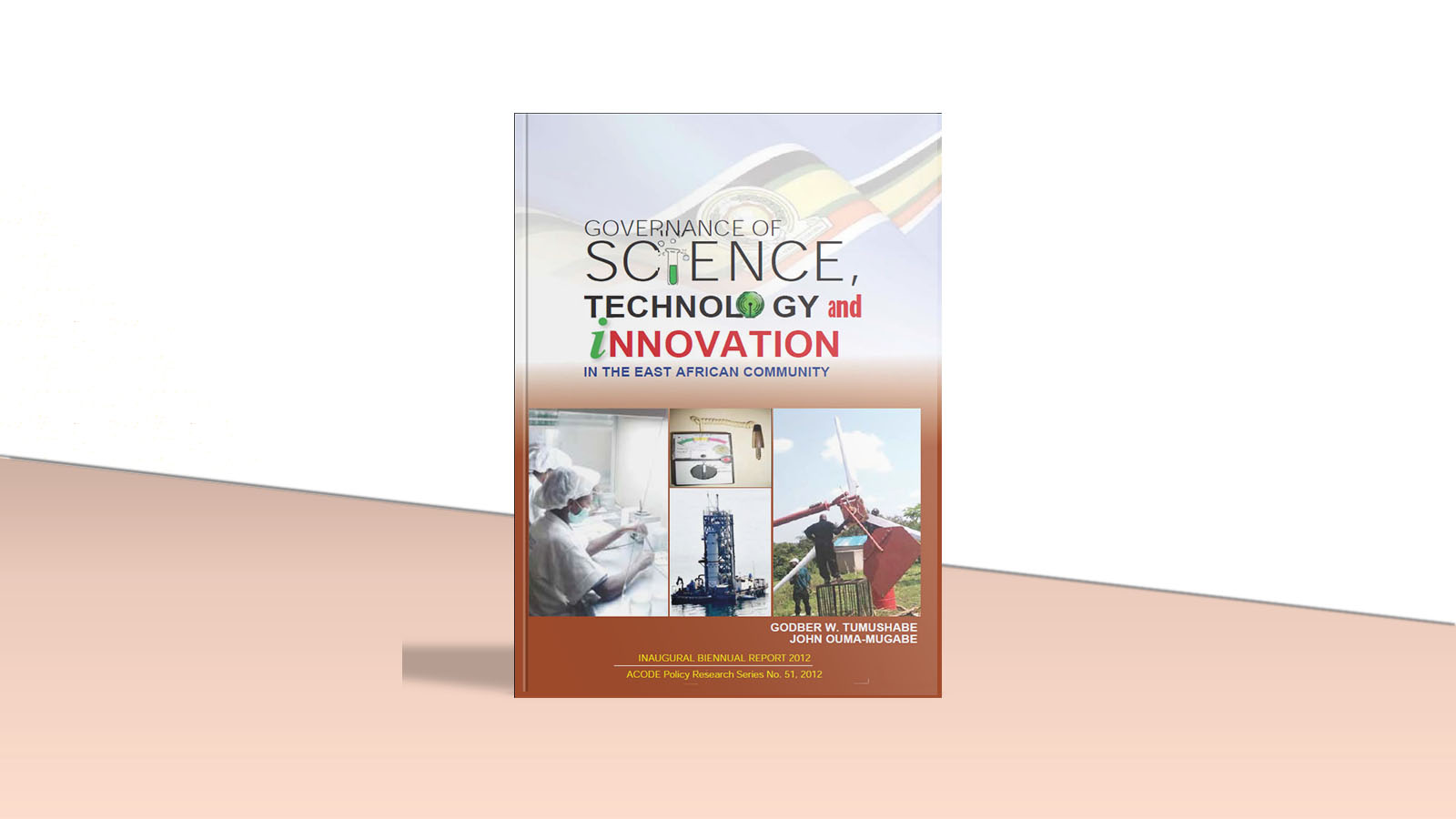
Governance of Science, Technology and Innovation in the East African Community: Inaugurals Biennial Report 2012
Author(s): Godber W. Tumushabe and John Ouma Mugabe
Published: 2012
This report on the Governance of Science, Technology and Innovation in the East African Community, is the fi rst comprehensive piece of work that explicitly focuses on STI in the region and sets an agenda for periodic assessment of the progress with regard to the implementation of EAC STI agenda. The report and its subsequent editions which will be published every after two years are designed to achieve two interrelated purposes.
View PDF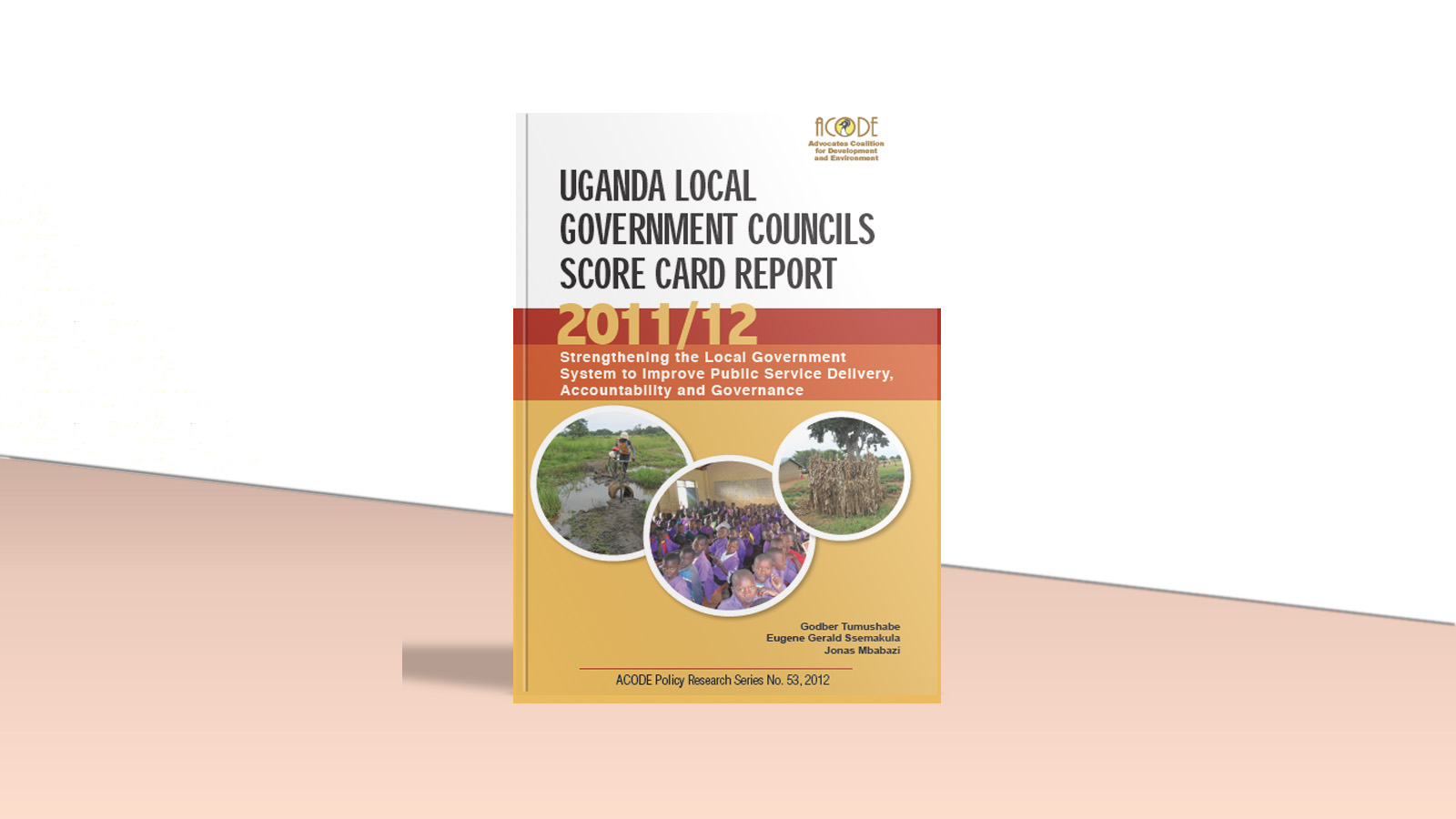
Strengthening the Local Government System to Improve Public Service Delivery Accountability and Governance
Author(s): Godber Tumushabe, Eugene Gerald Ssemakula, and Jonas Mbabazi
Published: 2012
The report presents 2011/12 score cards that builds on the previous reports for the financial year 2008/09 and 2009/10. Those reports highlighted the challenges facing local government councils and councilors across the districts that were covered by the assessment. The number of districts covered by the current assessment was increased from the previous 20 to 26. However, the same challenges remain in spite of the many positive developments that have been put in place by Government.
View PDF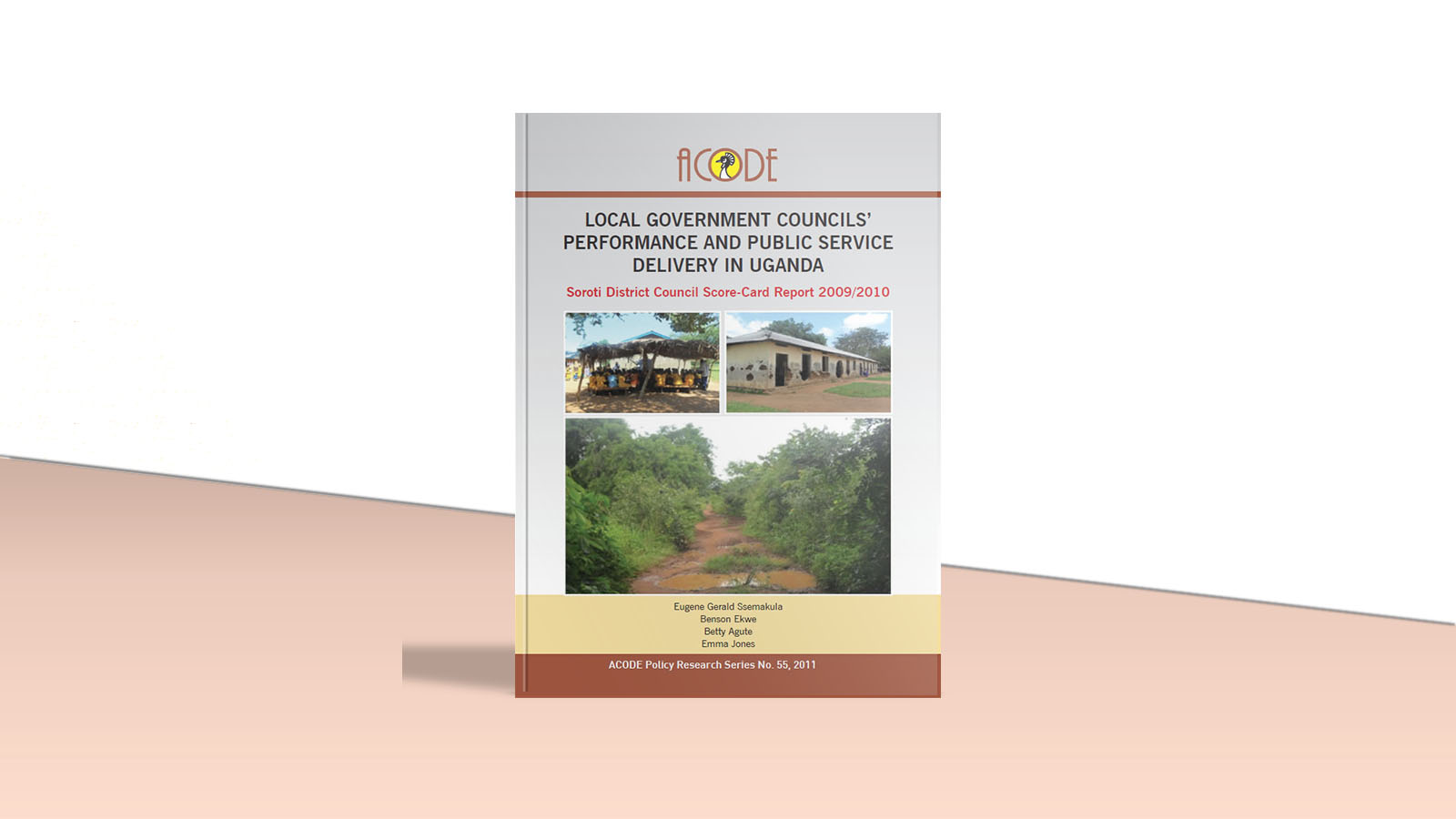
Local Government Councils’ Performance and Public Service Delivery in Uganda: Soroti District Local Government Council Scorecard Report 2009/10
Author(s): Eugene Gerald Ssemakula, Benson Ekwe, Betty Agute, and Emma Jones
Published: 2011
This is an assessment report for Soroti District Local Government for FY2009/10. The assessment focused on local government councils and their respective organs as outlined in the Local Government Act and other legal instruments. Council as a corporate body, the Chairperson, Speaker and Councilors formed the units of analysis for the assessment.
View PDF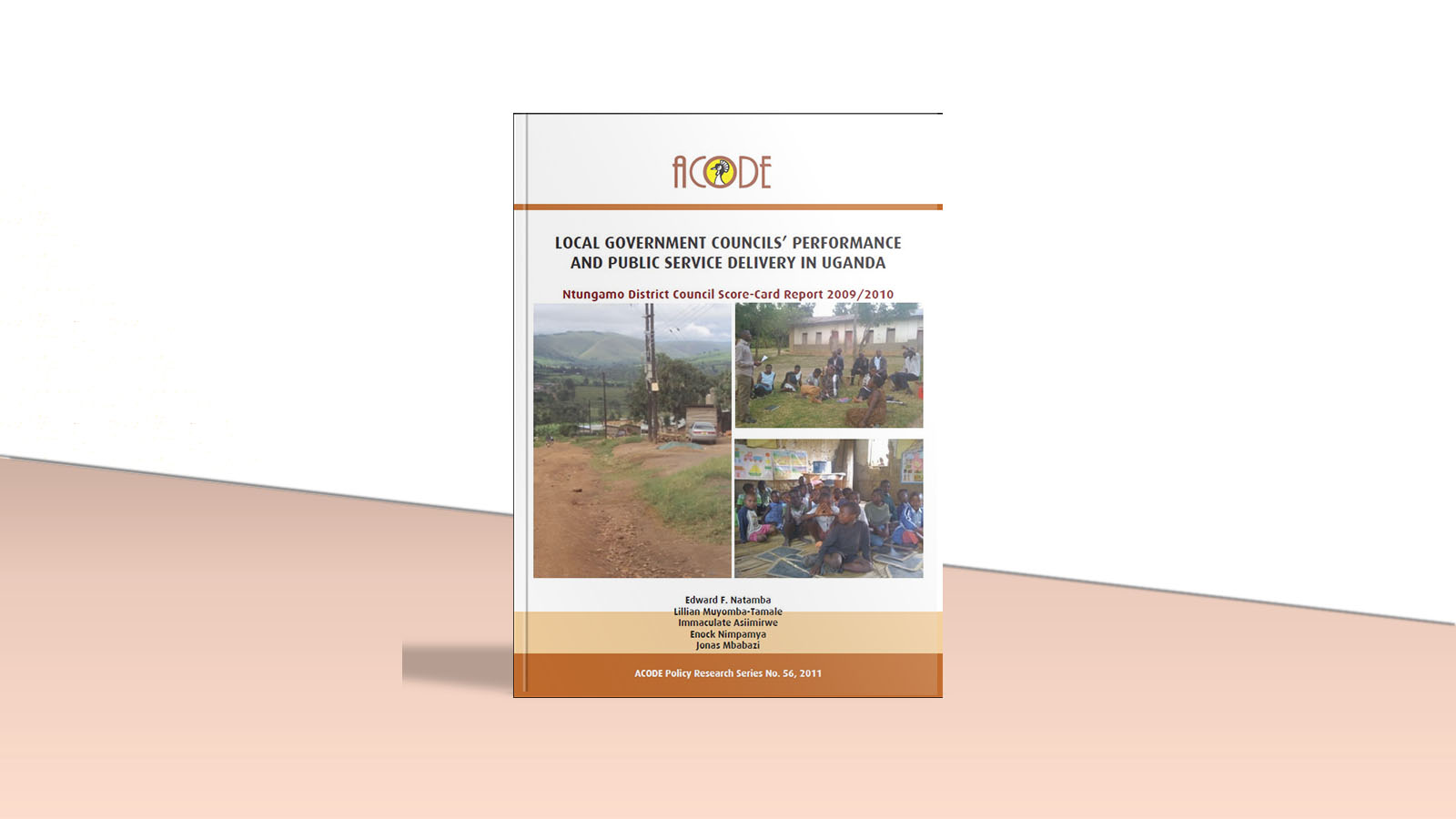
Local Government Councils’ Performance and Public Service Delivery in Uganda: Ntungamo District Council Scorecard Report 2009/10
Author(s): Edward F. Natamba, Lillian Muyomba-Tamale, Immaculate Asiimirwe, Enock Nimpamya, and Jonas Mbabazi
Published: 2011
This is an assessment report for Ntungamo District Local Government for FY2009/10. The assessment focused on local government councils and their respective organs as outlined in the Local Government Act and other legal instruments. Council as a corporate body, the Chairperson, Speaker and Councilors formed the units of analysis for the assessment.
View PDF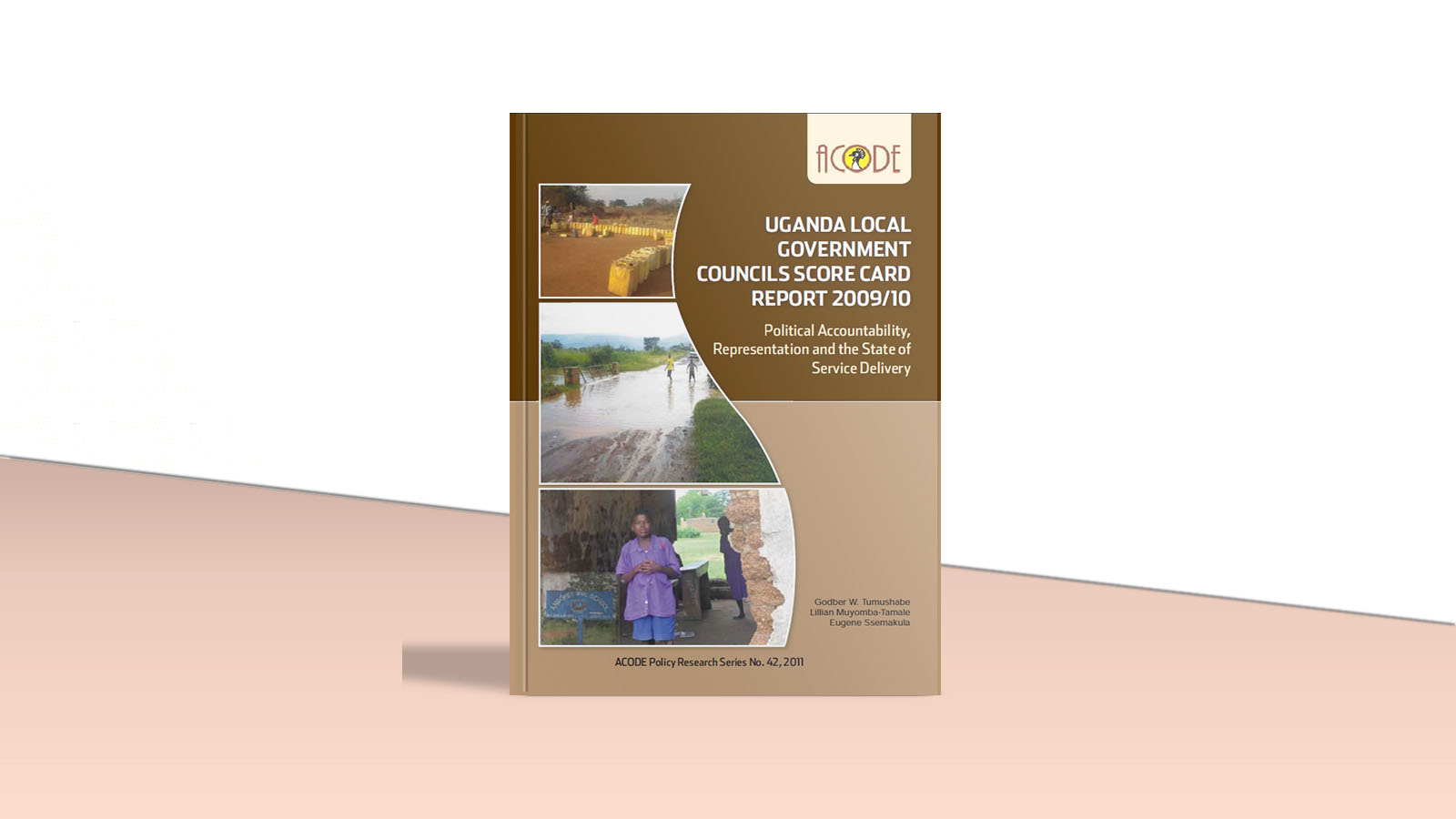
Uganda Local Government Councils Scorecard Report 2009/2010: Political Accountability, Representation and the State of Service Delivery
Author(s): Godber W. Tumushabe, Lillian Muyomba-Tamale, and Eugene Ssemakula
Published: 2011
This report presents finding of the second score-card covering the FY2009/10. The report builds on the first local government councils score-card report first published in 2010 covering 10 districts. The 2009/10 score-card covers a total of 20 districts evenly distributed across Uganda and selected based on standard criteria.
View PDF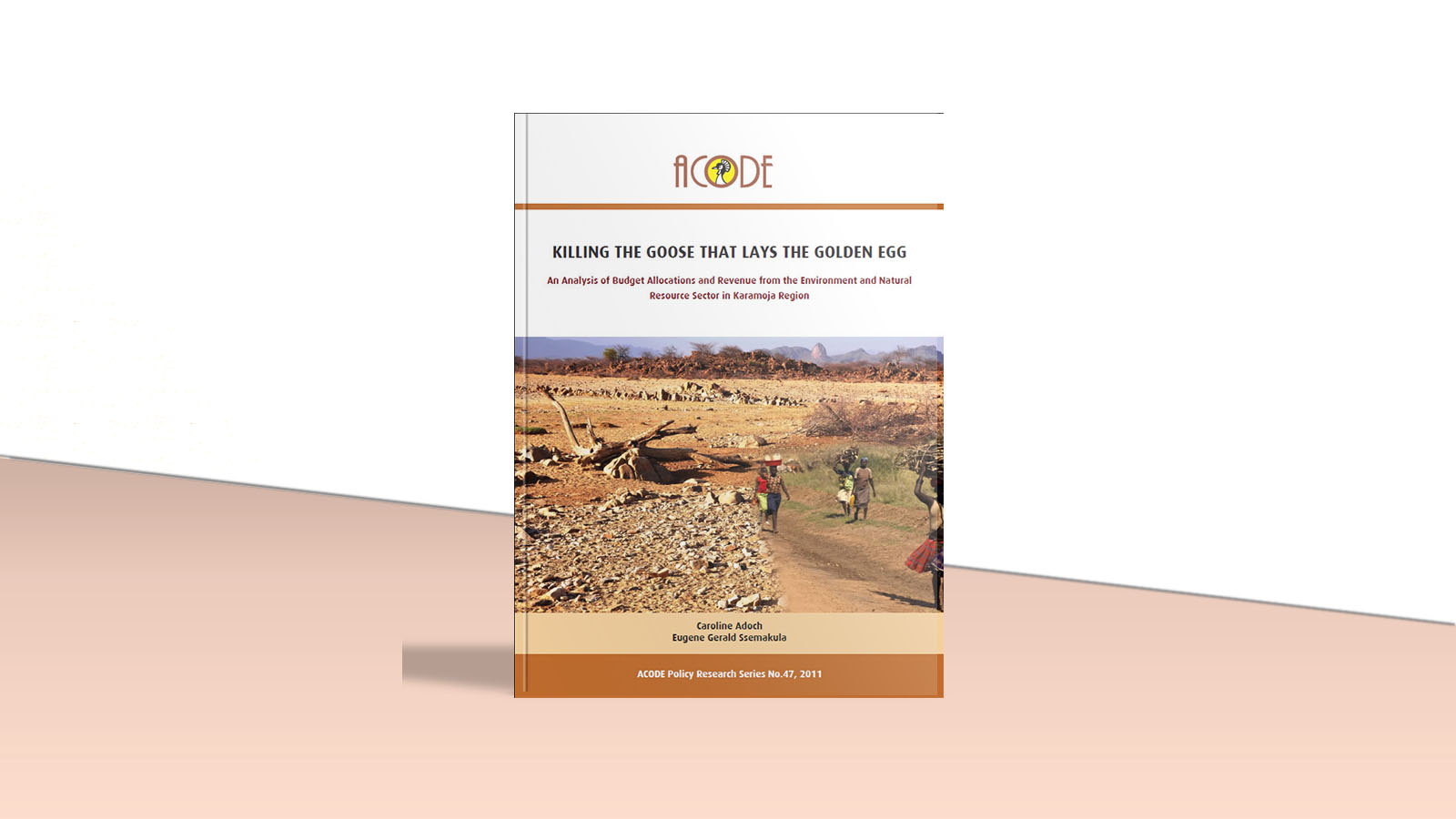
Killing the Goose that Lays the Golden Egg: An Analysis of Budget Allocations and Revenue from the Environment and Natural Resource Sector in Karamoja Region
Author(s): Caroline Adoch and Eugene Gerald Ssemakula
Published: 2011
This study provides an analysis of the budgetary allocations to the Environment and Natural Resource (ENR) sector and the revenue arising from the sector in the Karamoja region. Given the fact that over 60% of the land in the region is under protected area management and that the region also has vast mineral resources, Karamoja cannot develop without the effective harnessing of the ENR potential in the region.
View PDF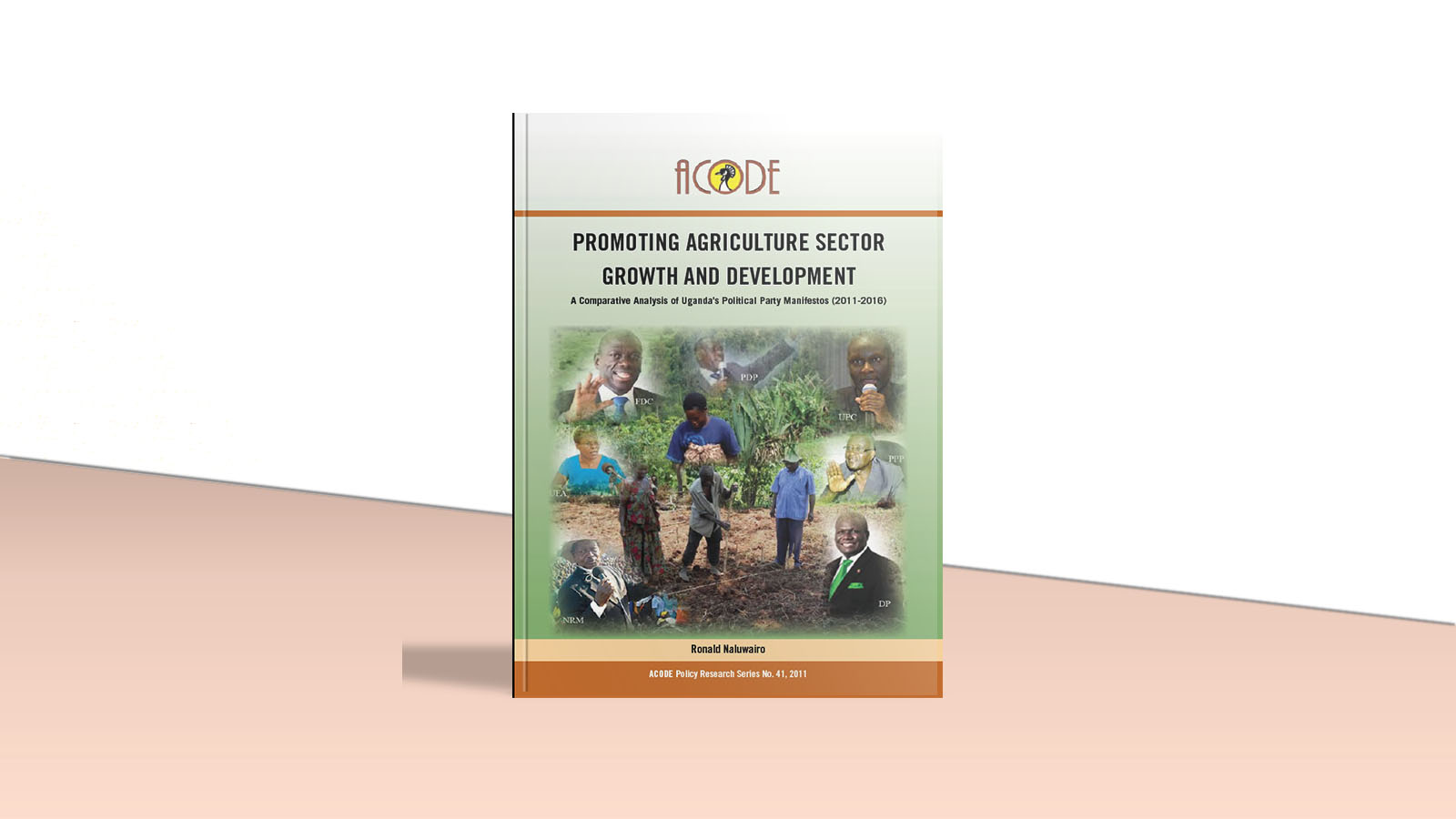
Promoting Agriculture Sector Growth and Development: A Comparative Analysis of Uganda’s Political Party Manifestos (2011 -2016)
Author(s): Ronald Naluwairo
Published: 2011
This policy research paper compares and analyses the promises of Uganda’s different political parties as stated in their campaign manifestos for the 2011-2016 period with respect to improving the general performance of the agriculture sector.
View PDF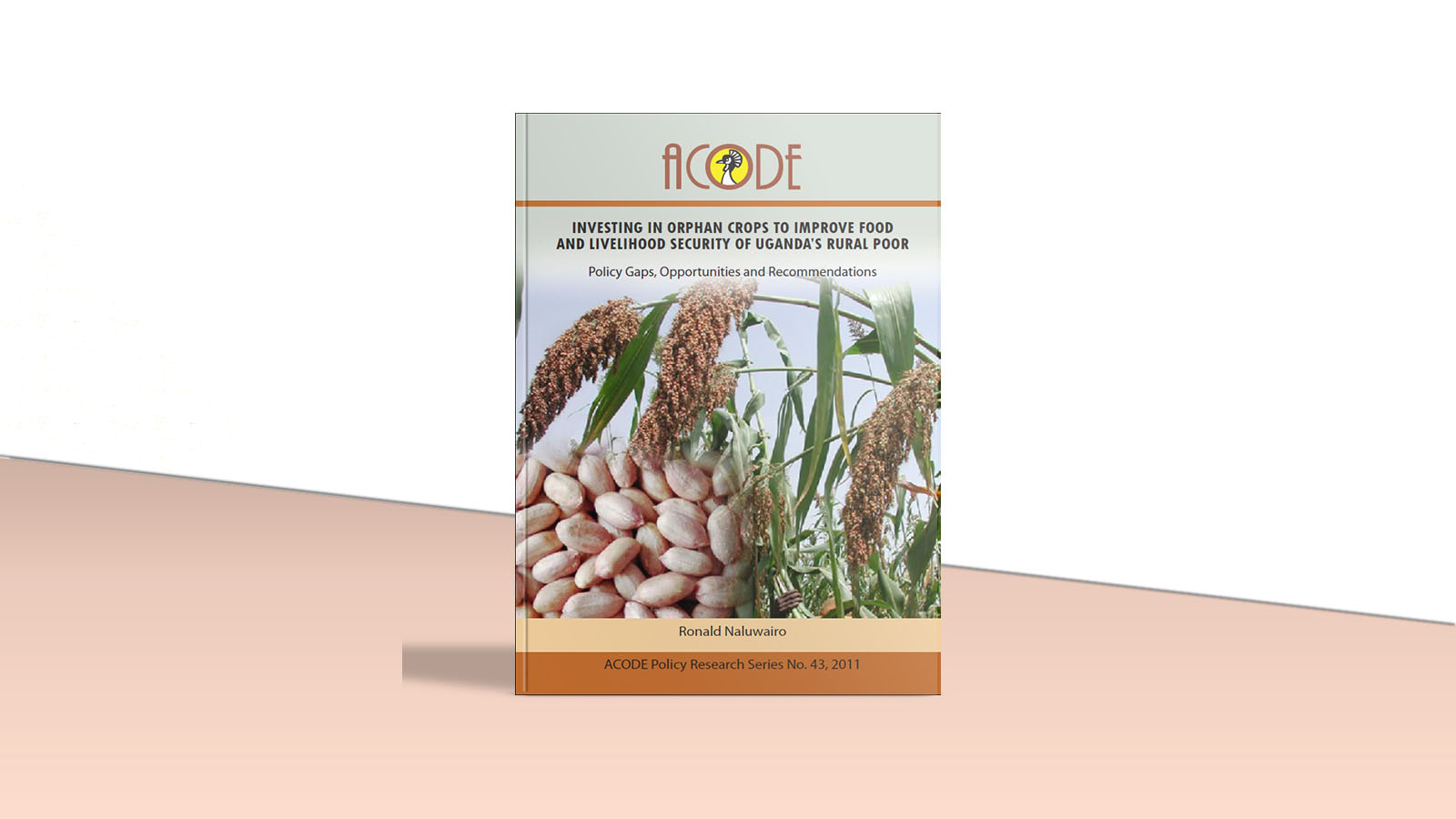
Investing in Orphan Crops to Improve Food and Livelihood Security of Uganda’s Rural Poor: Policy Gaps, Opportunities and Recommendations
Author(s): Ronald Naluwairo
Published: 2011
This policy research paper is an analysis of the extent to which Uganda’s food and agricultural-related policies and policy frameworks support the production and wider use of orphan crops in national development. Its major objective is to provide policy recommendations that can be adopted to support the production, conservation and wider use of orphan crops for enhanced food and livelihood security, particularly of Uganda’s rural poor.
View PDF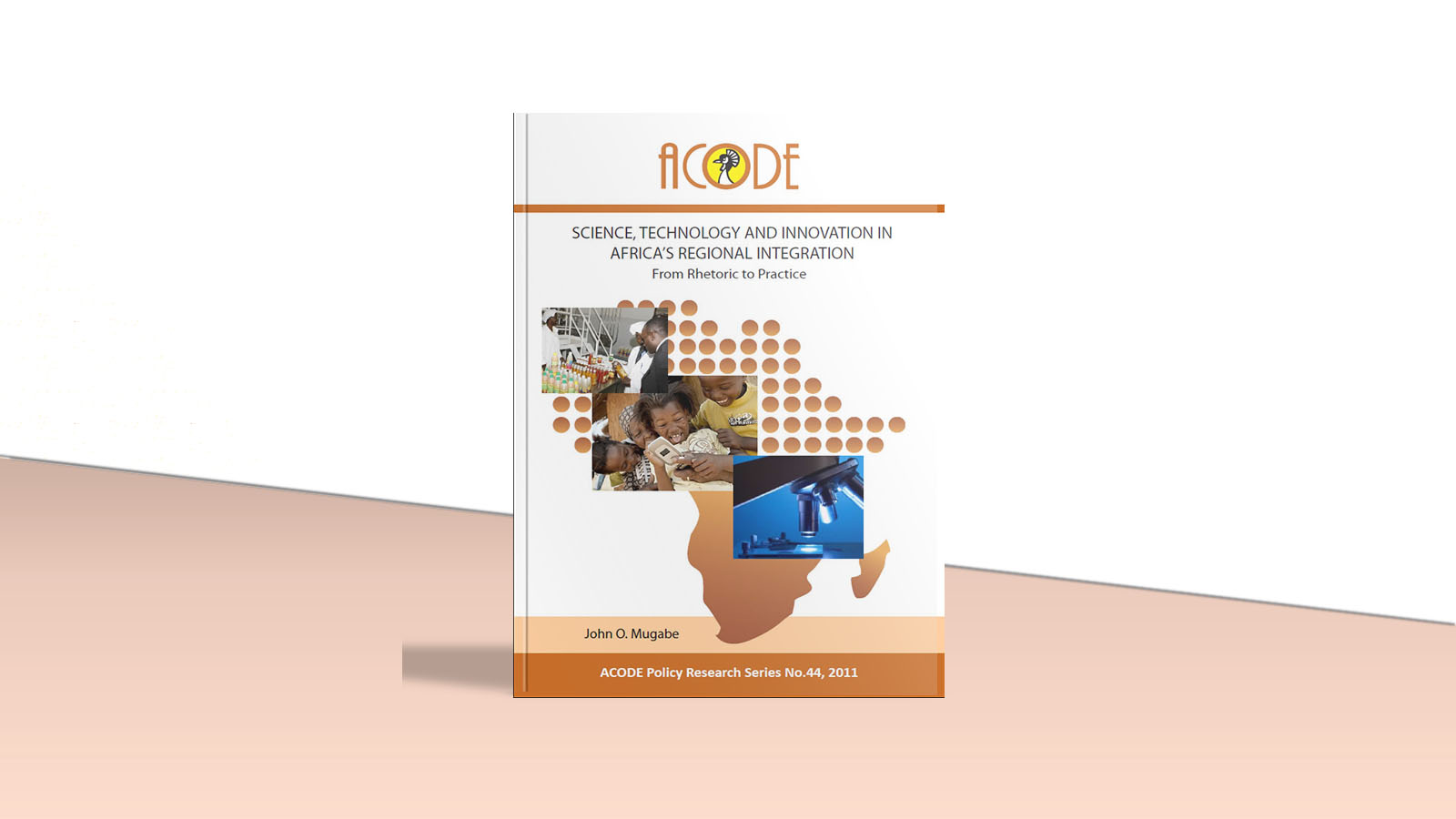
Science, Technology and Innovation in Africa’s Regional Integration: From Rhetoric to Practice
Author(s): John O. Mugabe
Published: 2011
This study provides insights on the state of Science, Technology and Innovation (STI) in Africa and how African countries and Africa’s regional bodies are prioritising STI in their national and regional development agendas respectively. The study also provides some understanding of how STI is contributing to the advancement of Africa’s regional economic integration agenda and the reverse.
View PDF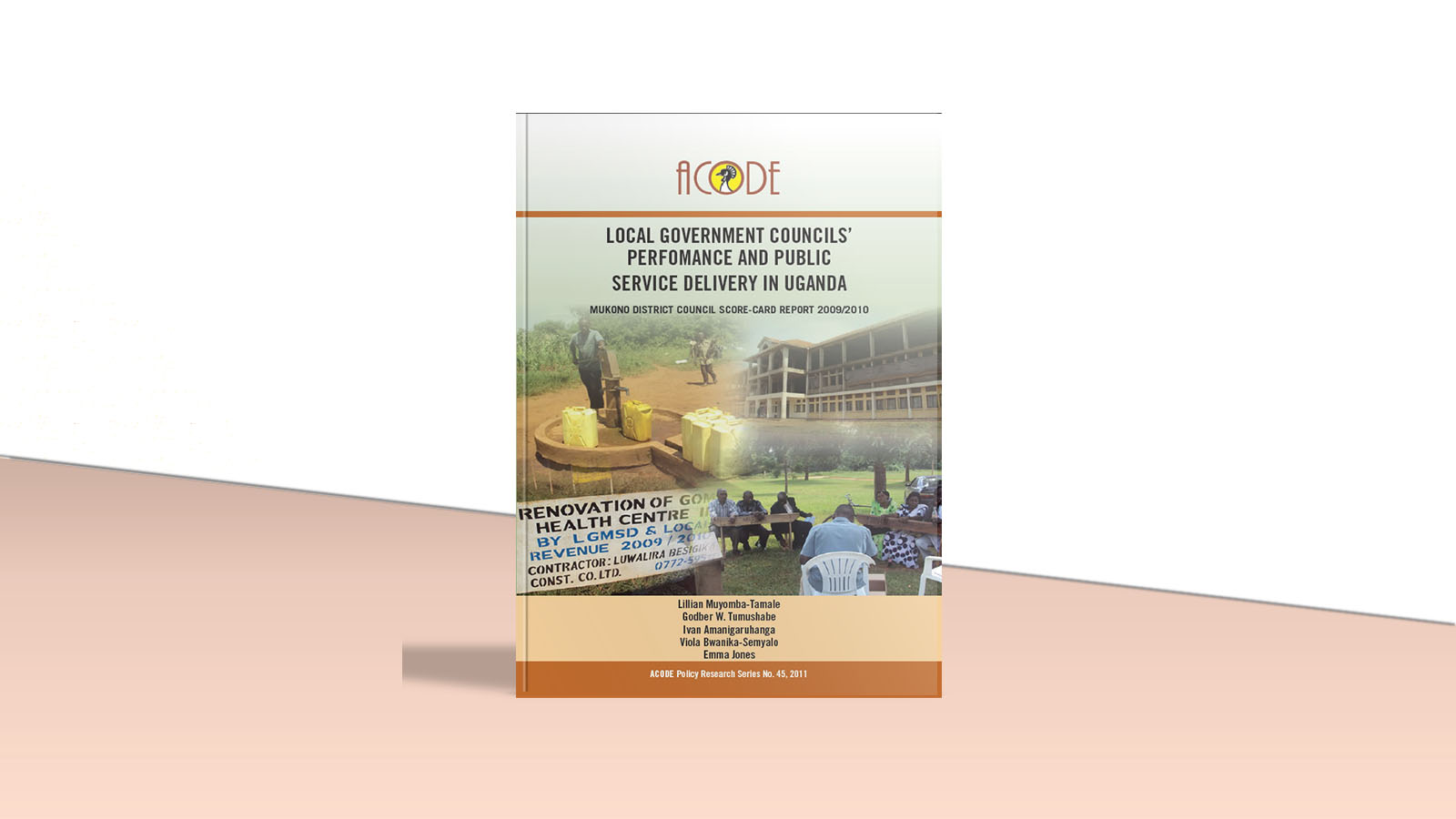
Local Government Councils’ Performance and public Service Delivery in Uganda: Mukono District Council Scorecard Report 2009/10
Author(s): Lillian Muyomba-Tamale, Godber W. Tumushabe, Ivan Amanigaruhanga, Viola Bwanika-Semyalo, and Emma Jones
Published: 2011
This is the first assessment report for Mukono District Local Government. The assessment employs a Local Government Councils’ Score-card (LGCSC), an independent assessment tool with a specific methodology and indicators to assess the performance of local government councils in Uganda. The Score-Card empirically assesses the extent to which local government council organs and councilors are performing their responsibilities as stipulated in the Local Government Act.
View PDF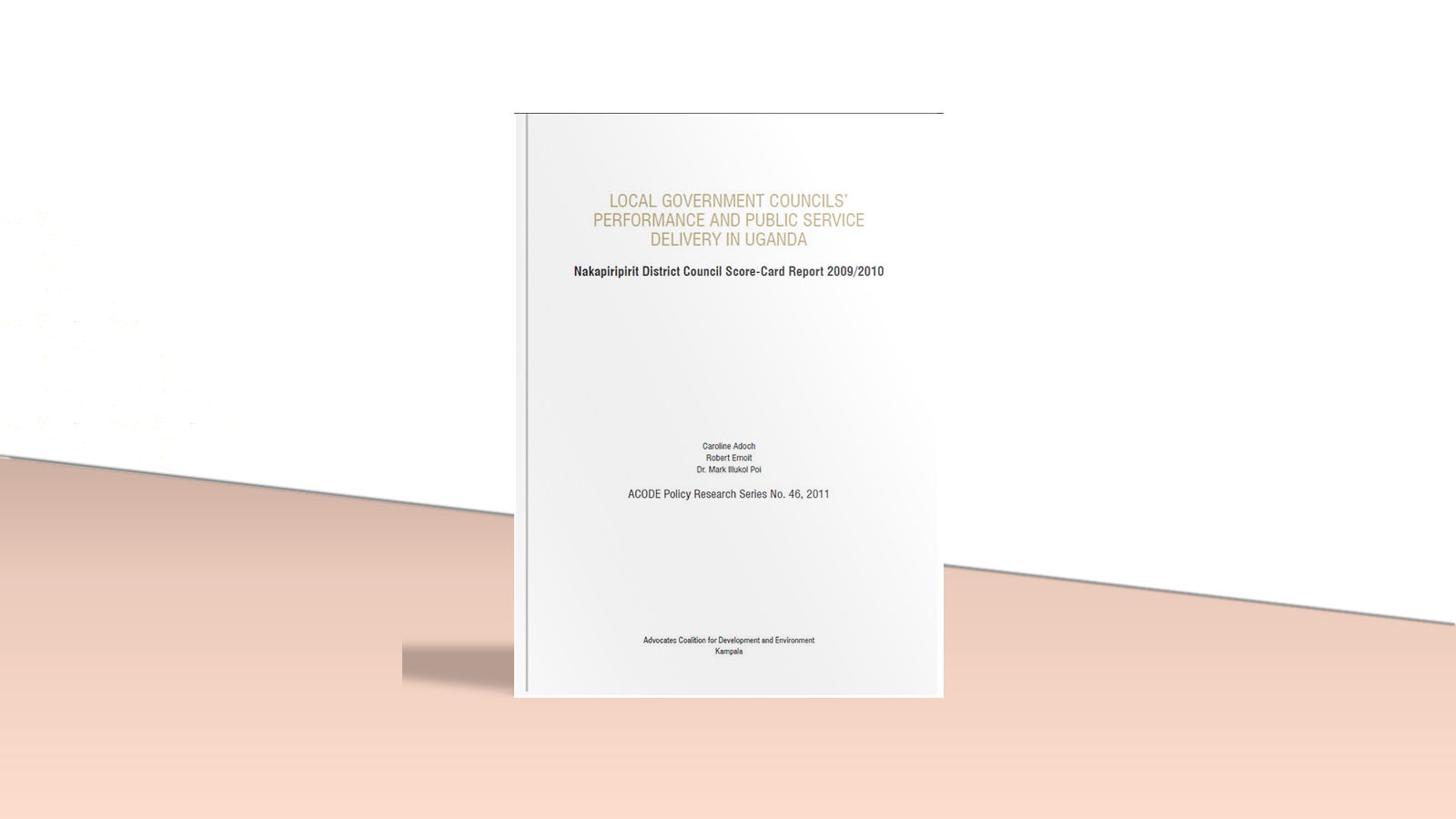
Local Government Councils’ Performance and public Service Delivery in Uganda: Nakapiripirit District Council Scorecard Report 2009/10
Author(s): Caroline Adoch, Robert Emoit, and Dr. Mark Illukol Poi
Published: 2011
This is the first assessment report for Nakapiripirit District Local Government. The assessment employs a Local Government Councils Score-Card (LGCSC), an independent assessment tool with a specific methodology and indicators to assess the performance of local government councils in Uganda. The Score-Card empirically assesses the extent to which local government council organs and councilors are performing their responsibilities as stipulated in the Local Government Act
View PDF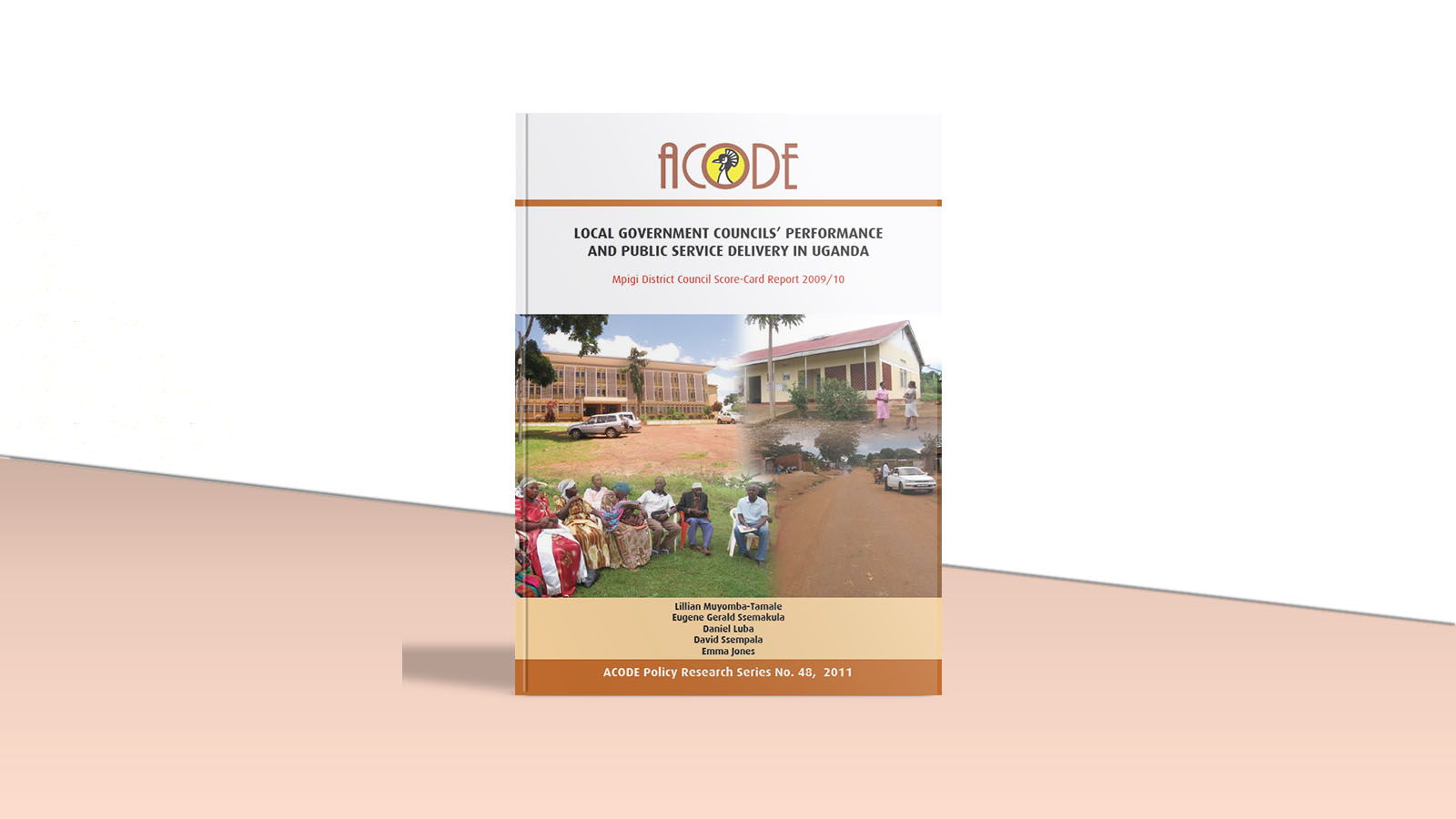
Local Government Councils’ Performance and Public Service Delivery in Uganda: Mpigi District Council Scorecard Report 2009/10
Author(s): Lillian Muyomba-Tamale, Eugene Gerald Ssemakula, Daniel Luba, David Ssempala, and Emma Jones
Published: 2011
This is an assessment report for Mpigi District Local Government for FY2009/10. The assessment employs a Local Government Councils’ Score-card (LGCSC), an independent assessment tool with a specific methodology and indicators to assess the performance of local government councils in Uganda. The Score-Card empirically assesses the extent to which local government council organs and councilors are performing their responsibilities as stipulated in the Local Government Act.
View PDF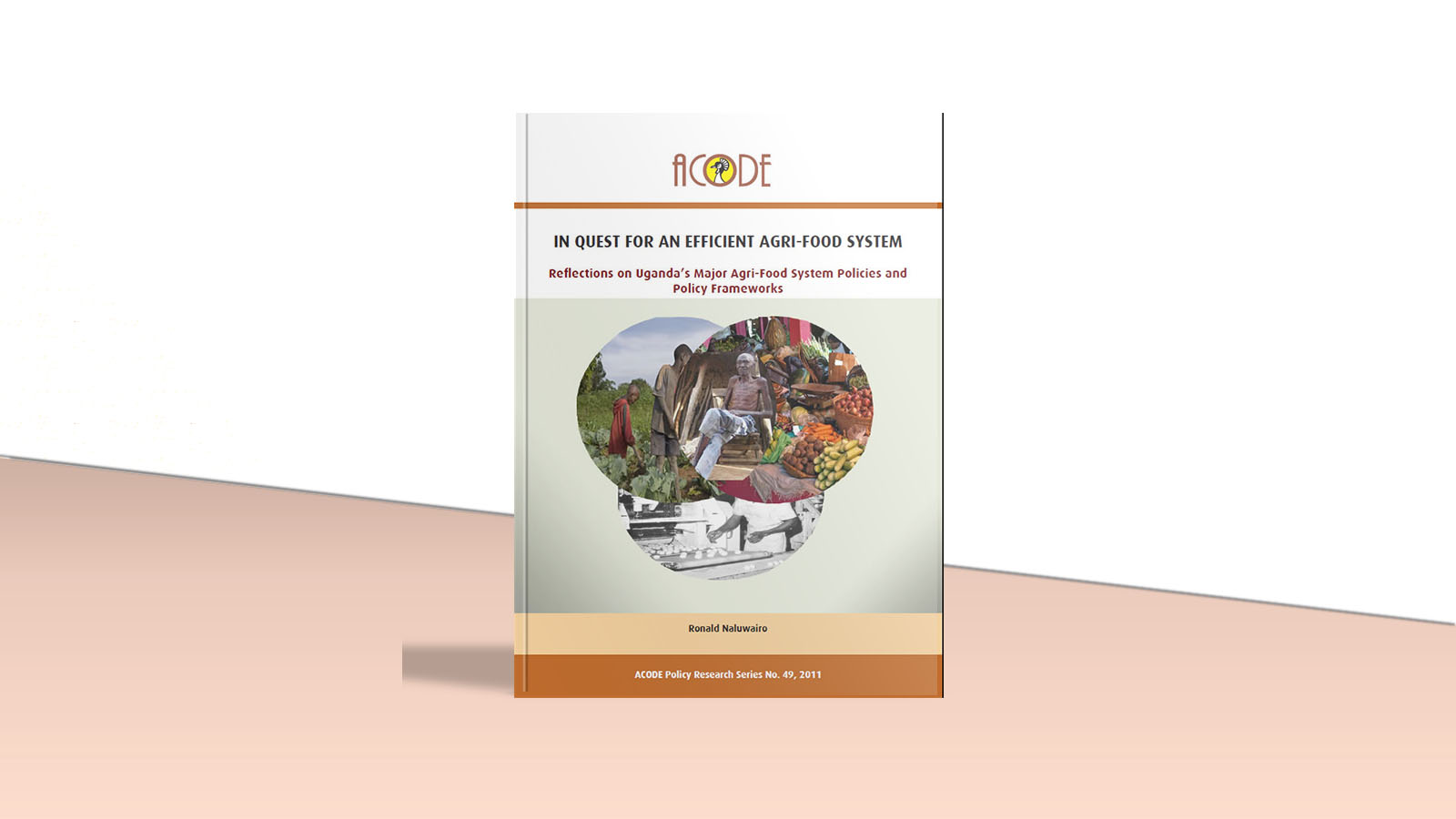
In Quest for an Efficient Agri-Food System: Reflections on Uganda’s Major Agri-Food System Policies and Policy Frameworks
Author(s): Ronald Naluwairo
Published: 2011
The paper is largely based on a desk review of the relevant policy frameworks and literature. It is meant to be a multi-purpose reference document on Uganda’s major agri-food system policies and policy frameworks. It is expected not only to raise awareness about Uganda’s food and agricultural policies, but also to inform and stimulate debate about the reforms required to create a robust agri-food system in the country.
View PDF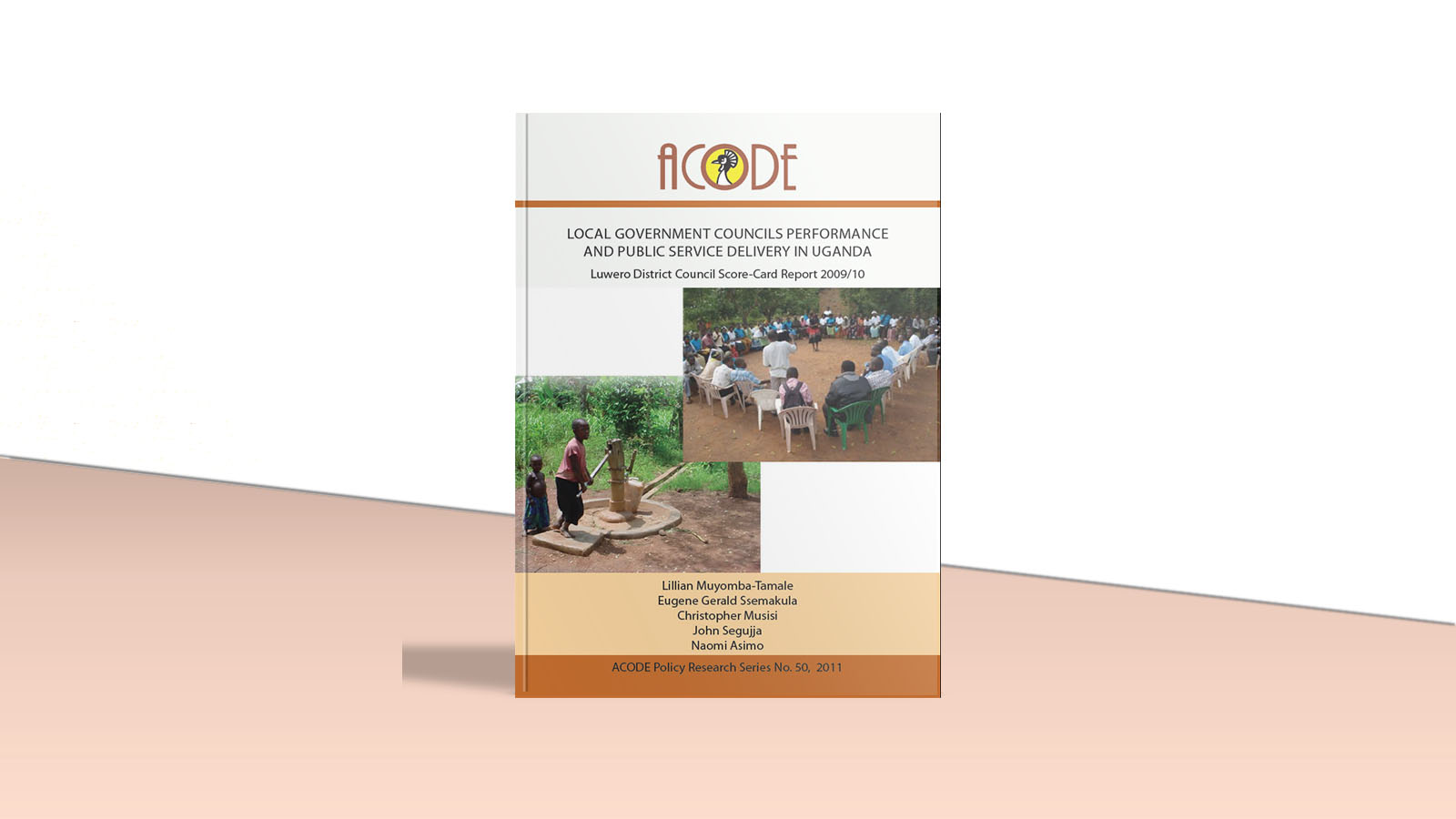
Local Government Councils’ Performance and Public Service Delivery in Uganda: Luwero District Council Scorecard Report 2009/10
Author(s): Lillian Muyomba-Tamale, Eugene Gerald Ssemakula, Christopher Musisi, John Segujja, and Naomi Asimo
Published: 2011
This is an assessment report for Mpigi District Local Government for FY2009/10. The assessment focused on local government councils and their respective organs as outlined in the Local Government Act and other legal instruments. Council as a corporate body, the Chairperson, Speaker and Councilors formed the units of analysis for the assessment.
View PDF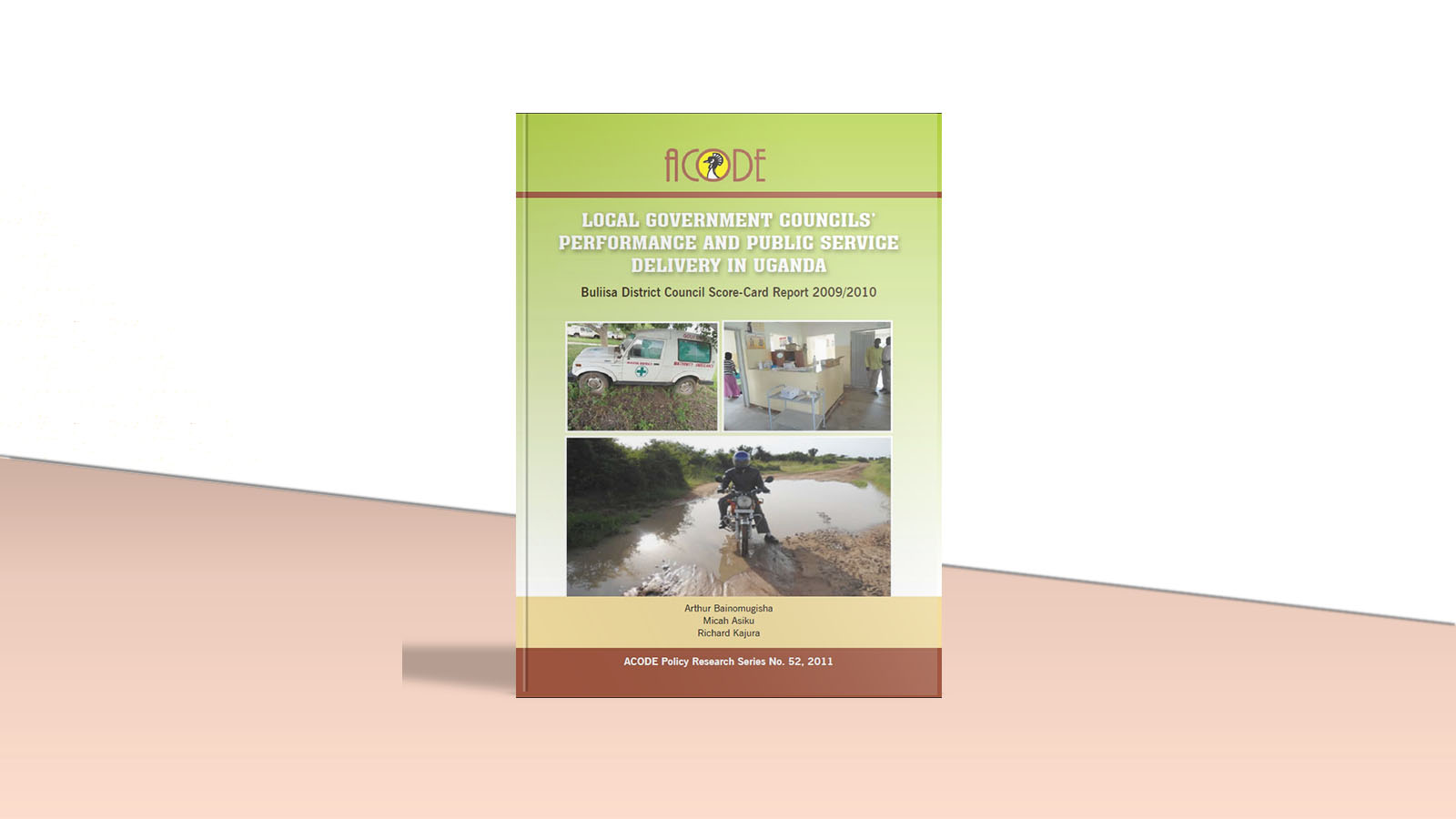
Local Government Councils’ Performance and Public Service Delivery in Uganda: Buliisa District Council Scorecard Report 2009/10
Author(s): Arthur Bainomugisha, Micah Asiku, and Richard Kajura
Published: 2011
This is an assessment report for Buliisa District Local Government for FY2009/10. The assessment focused on local government councils and their respective organs as outlined in the Local Government Act and other legal instruments. Council as a corporate body, the Chairperson, Speaker and Councilors formed the units of analysis for the assessment.
View PDF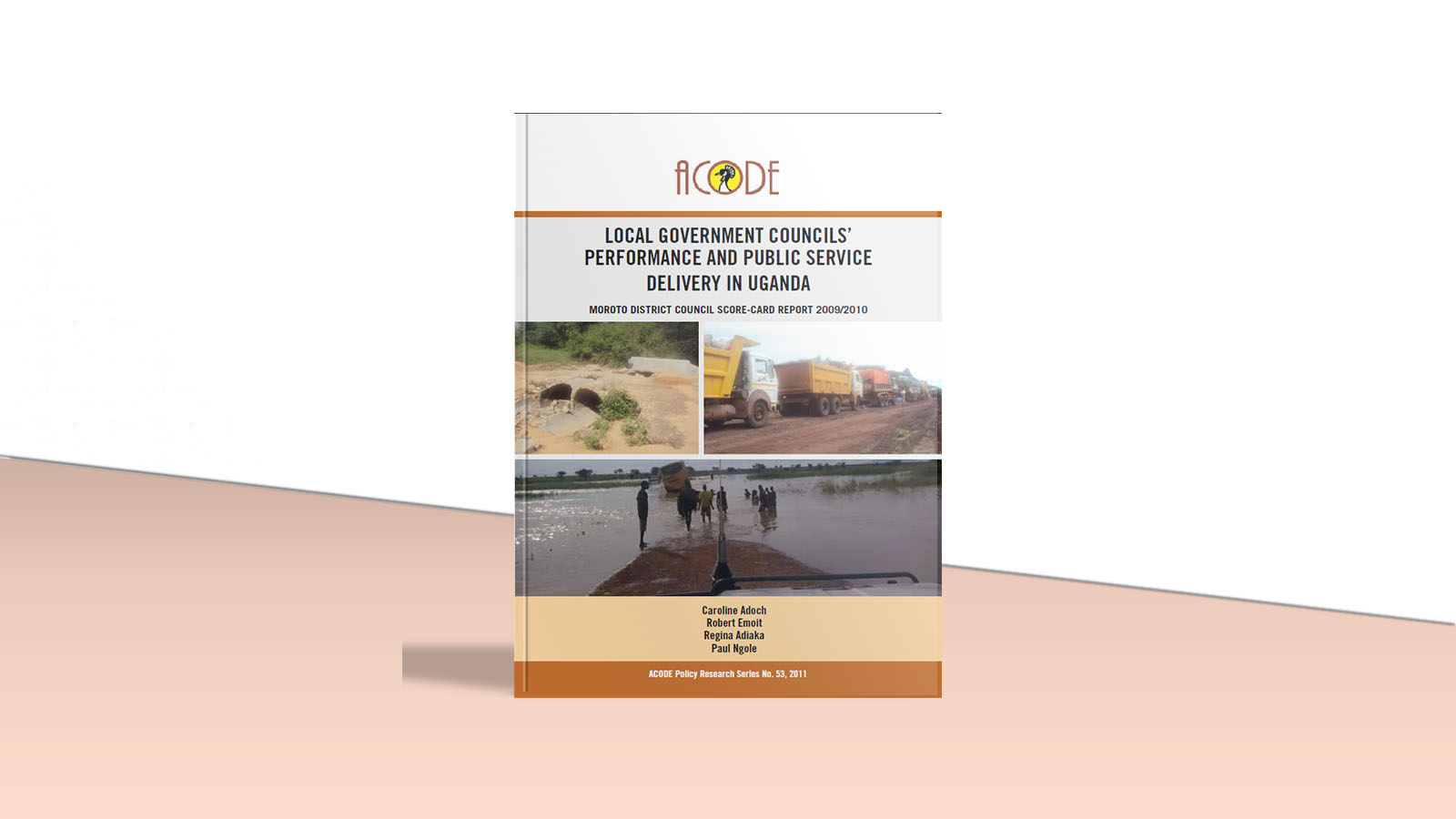
Local Government Councils’ Performance and Public Service Delivery in Uganda: Moroto District Council Scorecard Report 2009/10
Author(s): Caroline Adoch, Robert Emoit, Regina Adiaka, and Paul Ngole
Published: 2011
This is an assessment report for Moroto District Local Government for FY2009/10. The assessment focused on local government councils and their respective organs as outlined in the Local Government Act and other legal instruments. Council as a corporate body, the Chairperson, Speaker and Councilors formed the units of analysis for the assessment.
View PDF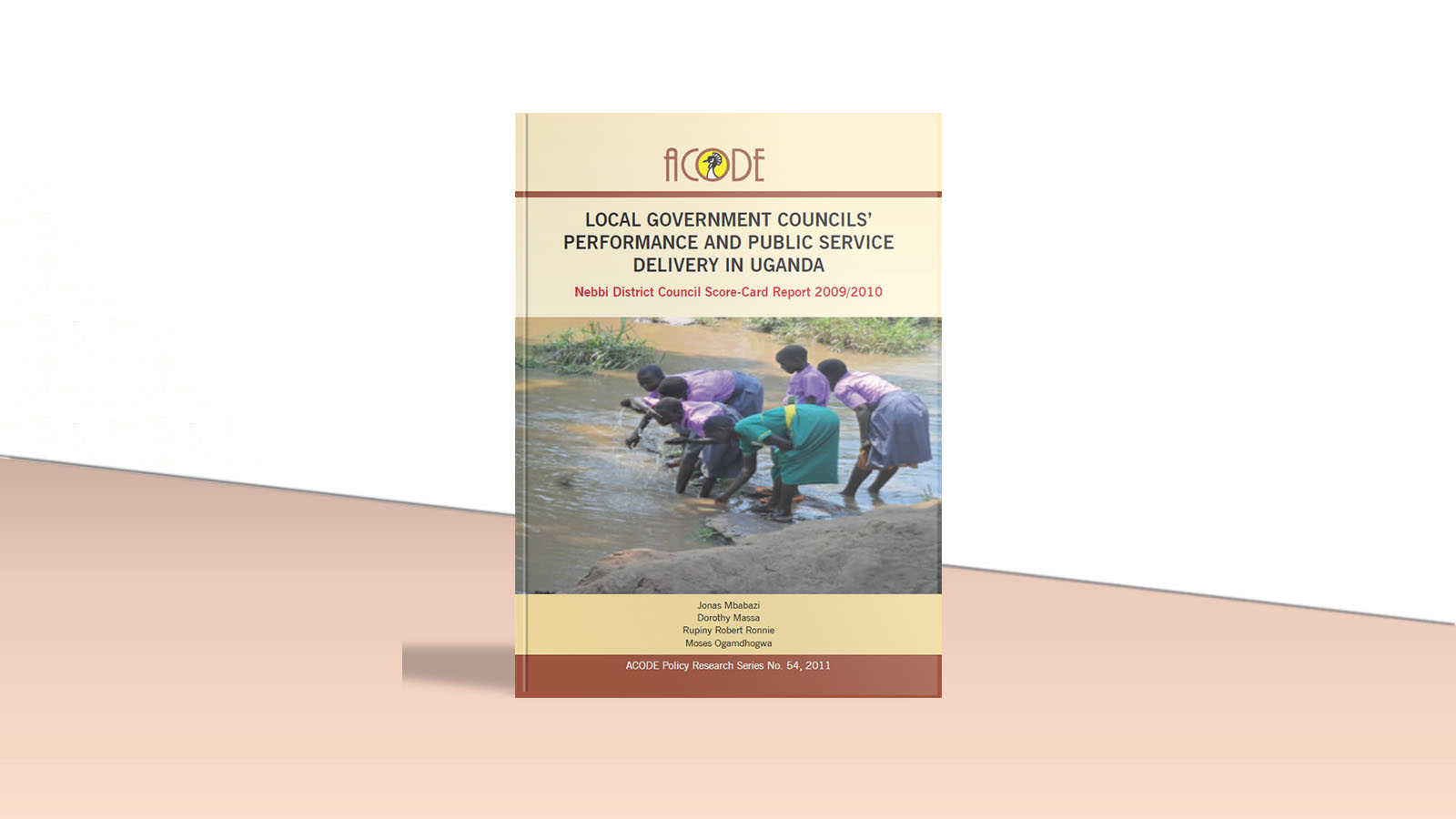
Local Government Councils’ Performance and Public Service Delivery in Uganda: Nebbi District Local Government Council Scorecard Report 2009/10
Author(s): Jonas Mbabazi, Dorothy Massa, Rupiny Robert Ronnie, and Moses Ogamdhogwa
Published: 2011
This is an assessment report for Nebbi District Local Government for FY2009/10. The assessment focused on local government councils and their respective organs as outlined in the Local Government Act and other legal instruments. Council as a corporate body, the Chairperson, Speaker and Councilors formed the units of analysis for the assessment.
View PDF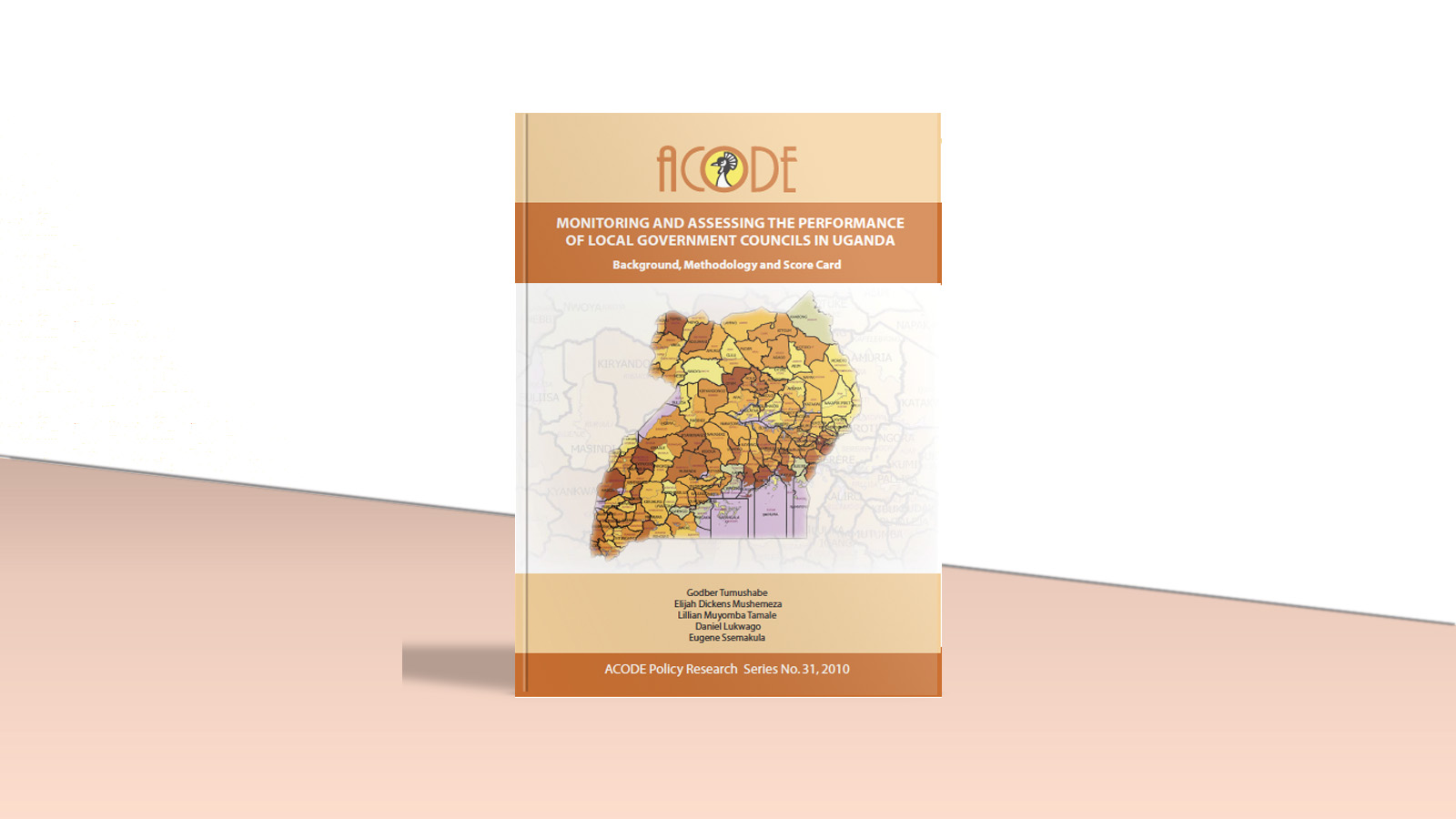
Monitoring and Assessing the Performance of Local Government Councils in Uganda: Background, Methodology and Score Card
Author(s): Godber Tumushabe, Elijah Dickens Mushemeza, Lillian Muyomba-Temale, Daniel Lukwago, and Eugene Ssemakula
Published: 2010
This background paper was prepared as part of the process to develop a framework for monitoring and assessing the performance of local government councils in Uganda under the ACODE Local Government Score Card Initiative. Since the adoption of the decentralization policy at the beginning of the 1990s, attempts to improve the functioning of local governments through systematic monitoring have not yielded the required results. The monitoring mechanisms that have been adopted mainly focus on the fiscal and technical aspects of decentralization.
View PDF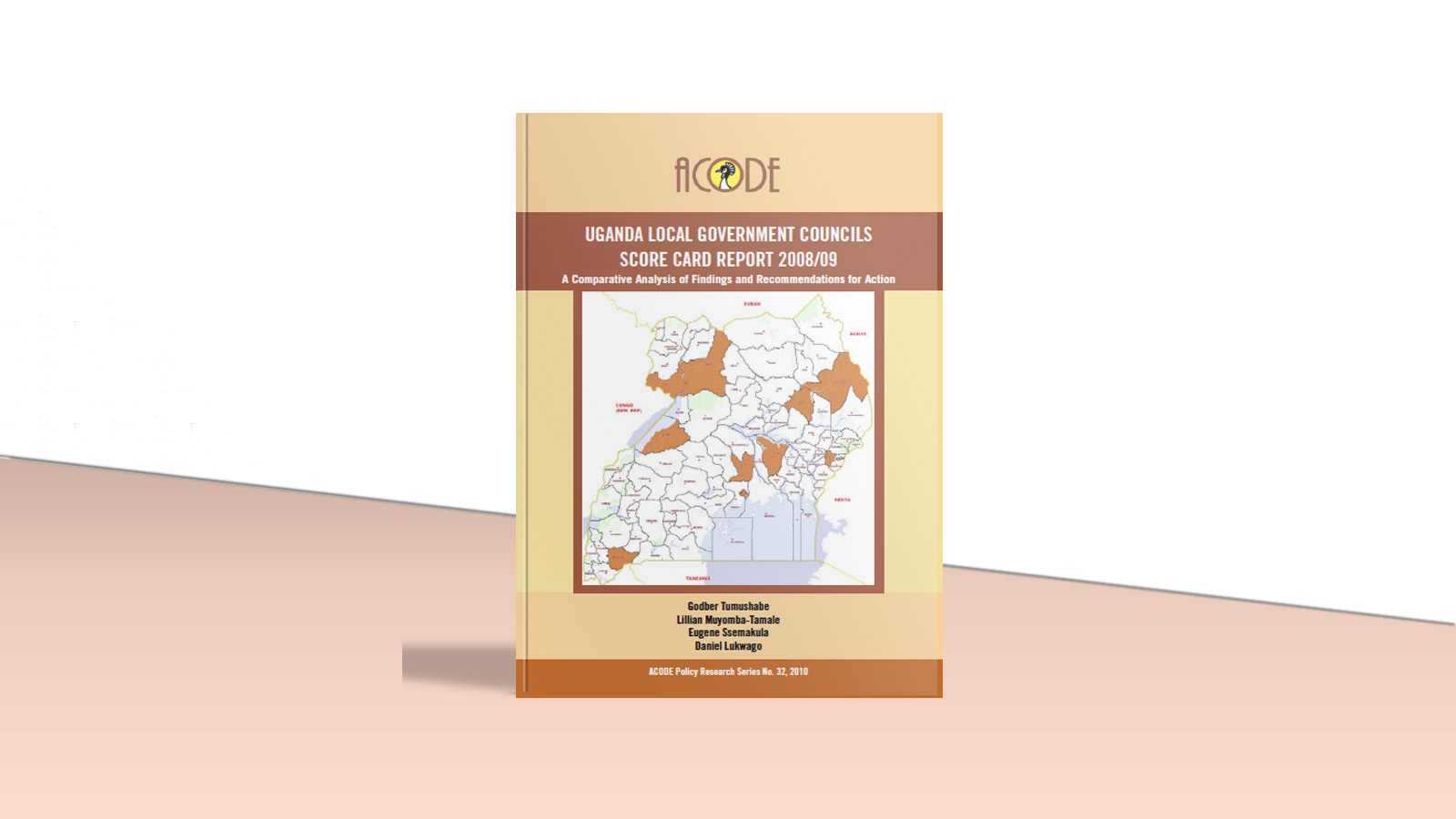
Uganda Local Government Councils Score Card Report 2008/09: A Comparative Analysis of Findings and Recommendations for Action
Author(s): Godber Tumushabe, Lillian Muyomba-Temale, Daniel Lukwago, and Eugene Ssemakula
Published: 2010
This Synthesis Report presents findings and analysis of the first LGCSC assessment conducted in 10 districts. The 10 districts which are spread evenly across the country were selected through criteria that sought to achieve a regional balance in the sample, balance old and new districts, included districts that were considered marginalized by geopolitical circumstances, or inclusion of districts that were perceived as models in terms of performance.
View PDF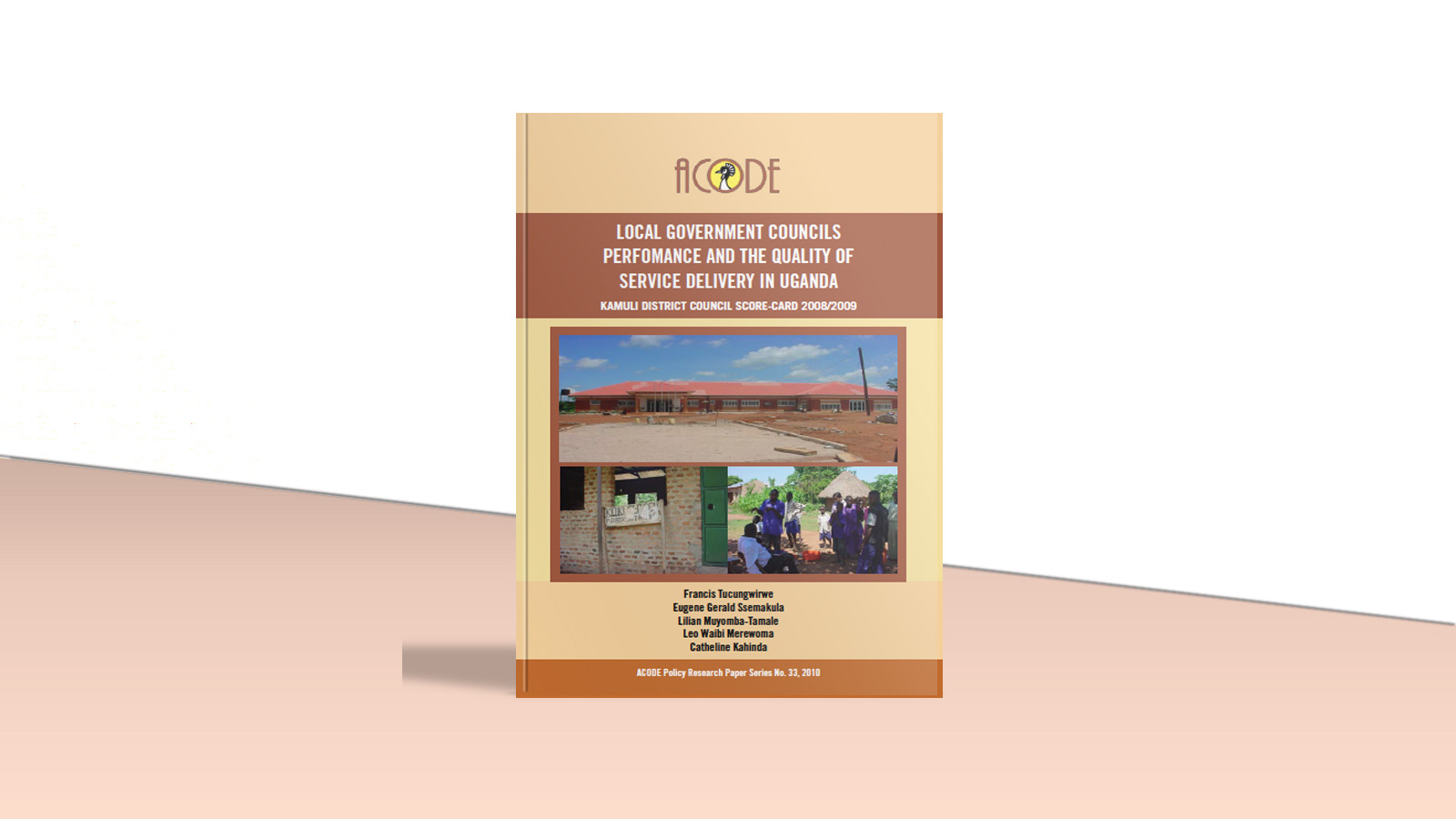
Local Government Councils Performance and the Quality of Service Delivery in Uganda: Kamuli District Council Score Card 2008/09
Author(s): Francis Tucungwirwe, Eugene Gerald Ssemakula, Lilian Muyomba-Tamale, Leo Waibi Merewoma, and Catheline Kahinda
Published: 2010
The assessment focused on local government councils and their respective organs as outlined in the Local Government Act and other legal instruments. Council as a corporate body, the Chairperson, Speaker and Councilors formed the units of analysis for the assessment.
View PDF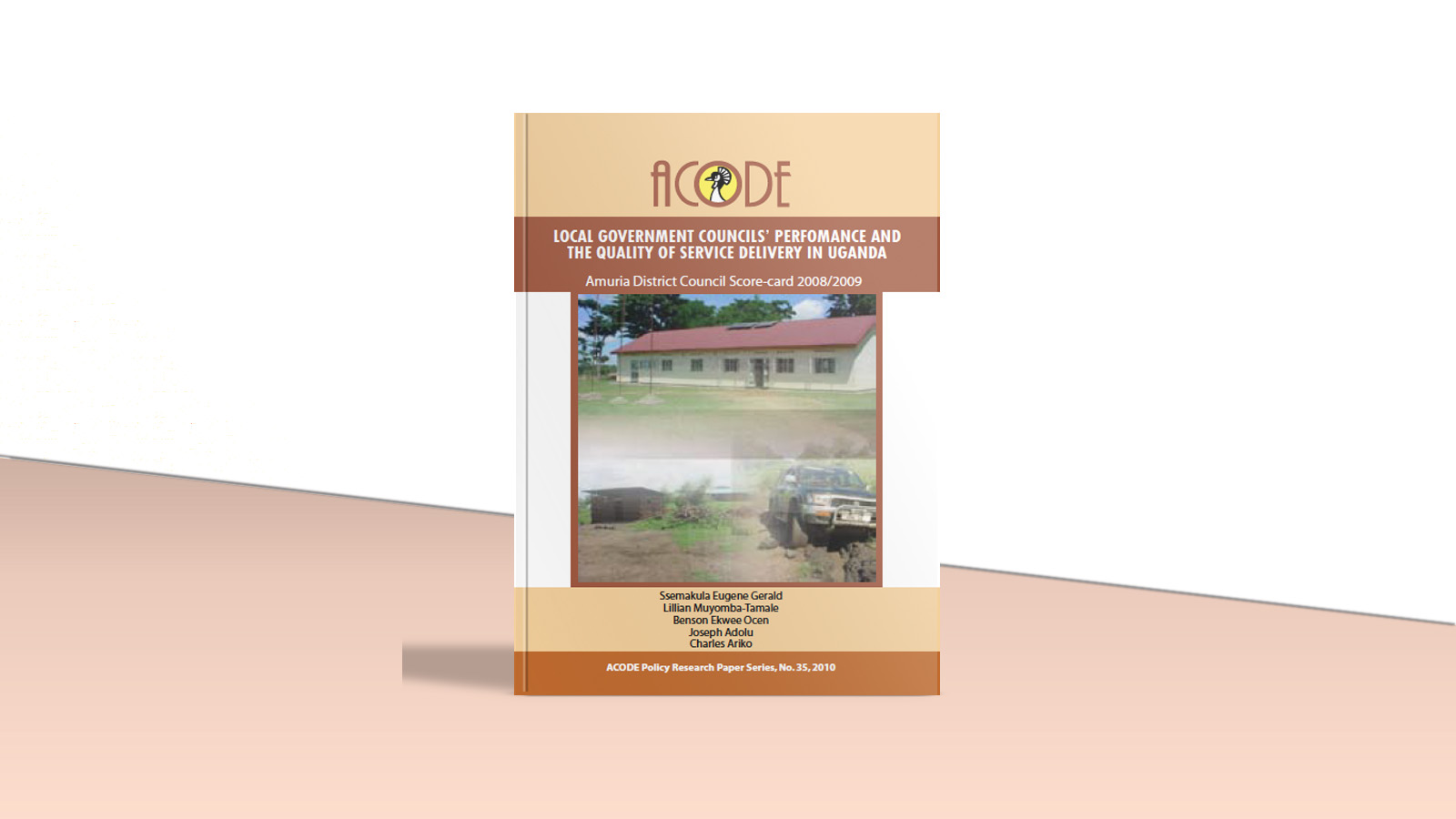
Local Government Councils Performance and the Quality of Service Delivery in Uganda: Amuria District Council Score Card 2008/09
Author(s): Ssemakula Eugene Gerald, Lillian Muyomba-Tamale, Benson Ekwee Ocen, Joseph Adolu, and Charles Ariko
Published: 2010
The assessment focused on local government councils and their respective organs as outlined in the Local Government Act and other legal instruments. Council as a corporate body, the Chairperson, Speaker and Councilors formed the units of analysis for the assessment.
View PDF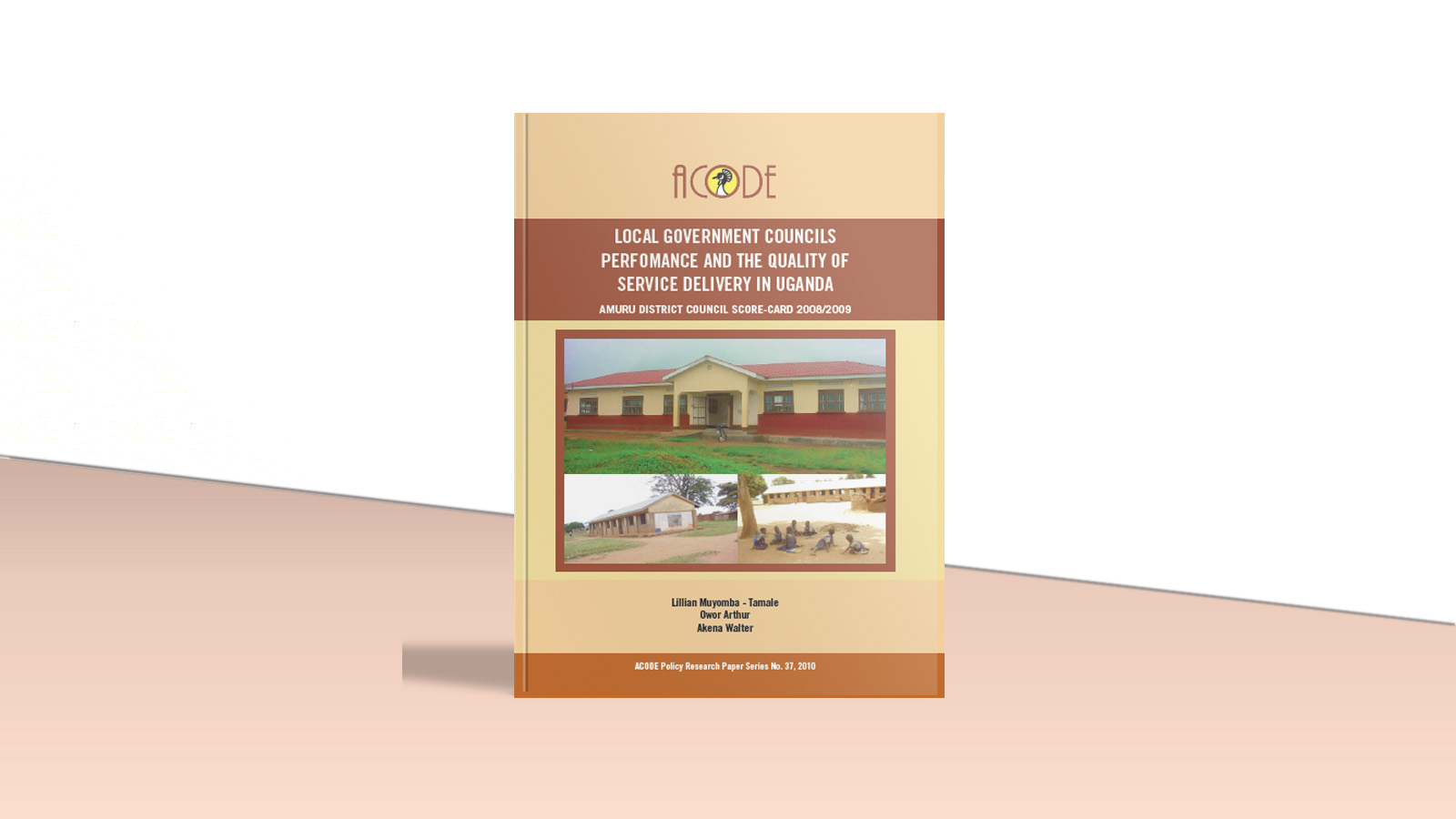
Local Government Councils Performance and the Quality of Service Delivery in Uganda: Amuru District Council Score Card 2008/09
Author(s): Lillian Muyomba - Tamale, Owor Arthur, Kumakech James, and Rupiny Ronnie Robert
Published: 2010
The assessment focused on local government councils and their respective organs as outlined in the Local Government Act and other legal instruments. Council as a corporate body, the Chairperson, Speaker and Councilors formed the units of analysis for the assessment.
View PDF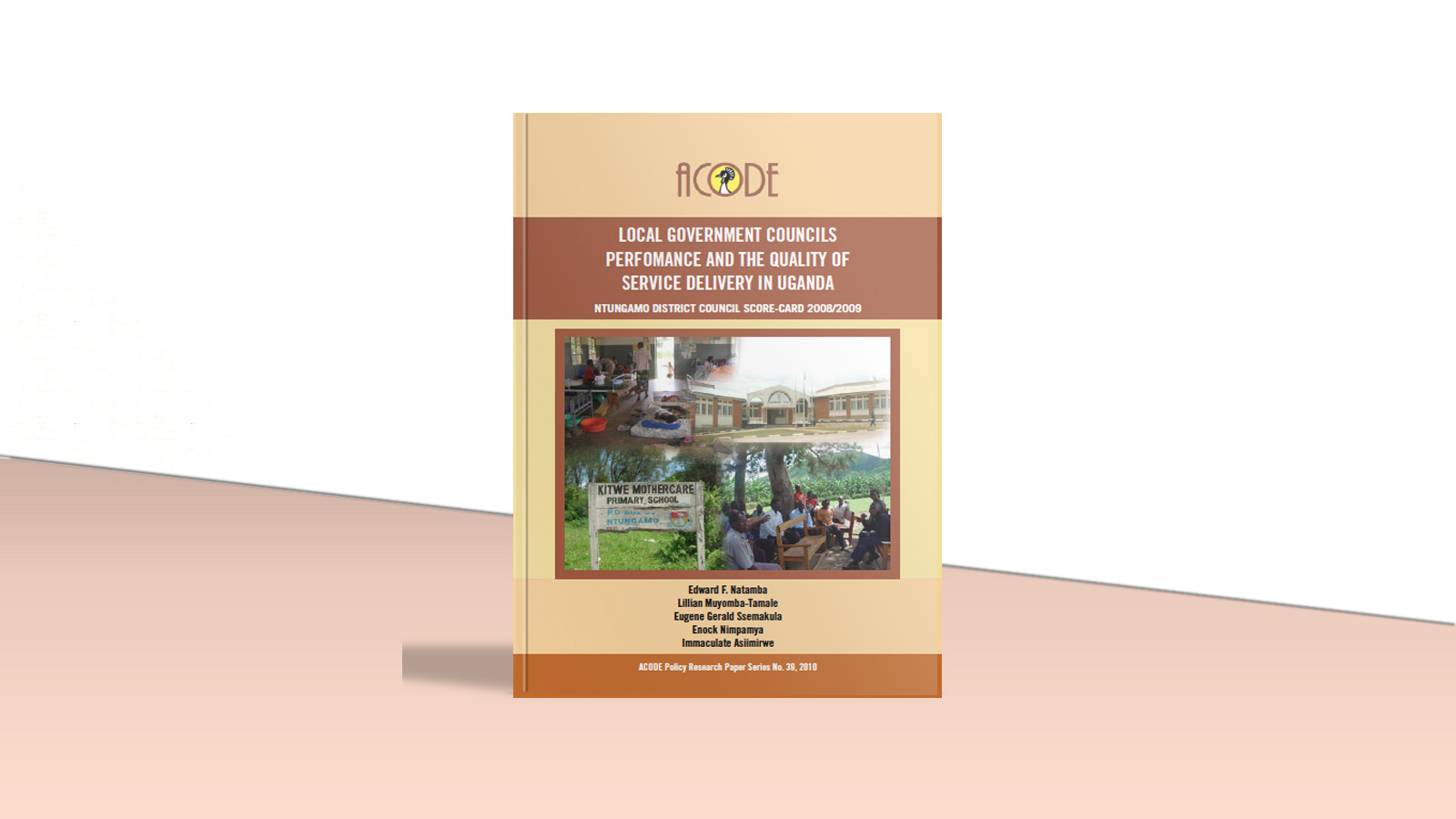
Local Government Councils Performance and the Quality of Service Delivery in Uganda: Ntungamo District Council Score Card 2008/09
Author(s): Edward F. Natamba, Lillian Muyomba-Tamale, Eugene Gerald Ssemakula, Enock Nimpamya, and Immaculate Asiimirwe
Published: 2010
The assessment focused on local government councils and their respective organs as outlined in the Local Government Act and other legal instruments. Council as a corporate body, the Chairperson, Speaker and Councilors formed the units of analysis for the assessment.
View PDFLocal Government Councils Performance and the Quality of Service Delivery in Uganda: Luwero District Council Score Card 2008/09
Author(s): Lillian Muyomba – Tamale, Eugene Gerald Ssemakula, David Ssempala, and John Segujja
Published: 2010
The assessment focused on local government councils and their respective organs as outlined in the Local Government Act and other legal instruments. Council as a corporate body, the Chairperson, Speaker and Councilors formed the units of analysis for the assessment.
View PDF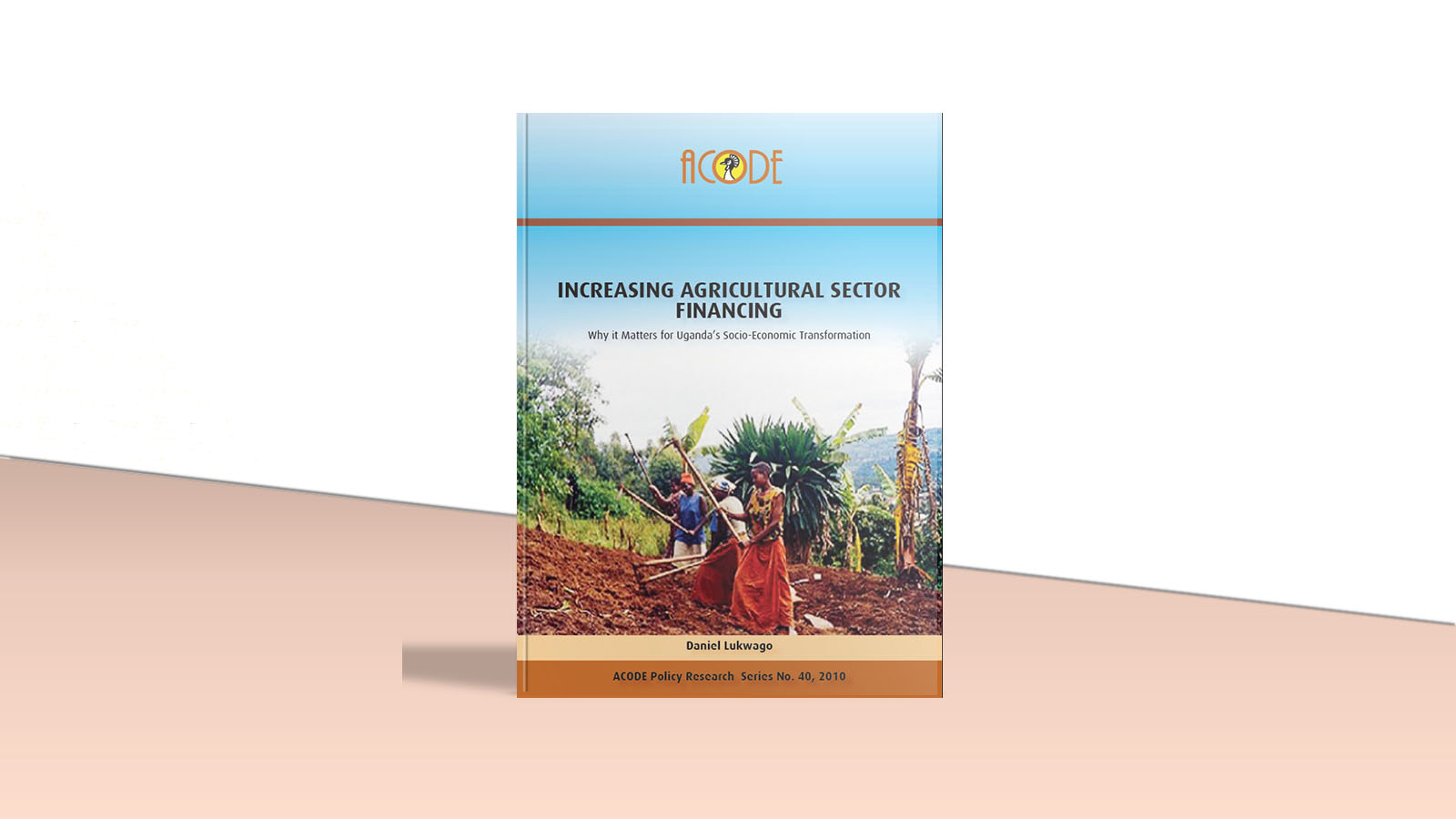
Increasing Agricultural Sector Financing: Why it Matters for Uganda’s Socio-Economic Transformation
Author(s): Daniel Lukwago
Published: 2010
This paper identifies and discusses a number of challenges for the financing of the agricultural sector in Uganda. The paper notes that although the role of agriculture in poverty reduction and overall growth in Uganda is well recognized, investment in the sector remains minimal. For effective poverty reduction, agricultural growth in Uganda needs to be accelerated. This requires investments in critical areas to enhance productivity and transformation of the sector.
View PDF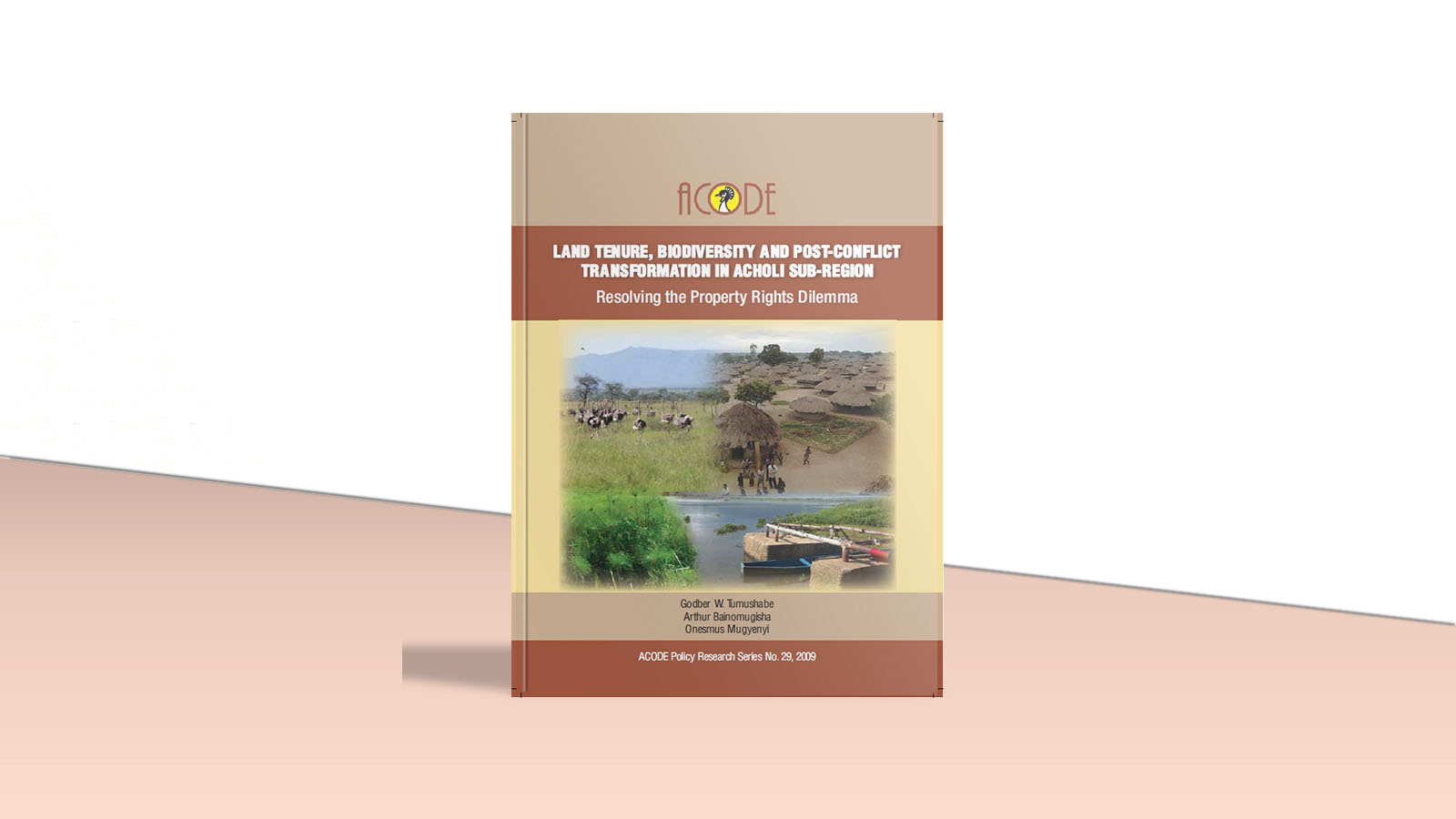
Land Tenure, Biodiversity and Post-Conflict Transformation in Acholi Sub-Region: Resolving the Property Rights Dilema
Author(s): Godber Tumushabe, Arthur Bainomugisha, and Onesmus Mugyenyi
Published: 2009
This paper presents the results of a study on property rights in land and biodiversity resources in the Acholi Sub-region. The objective of the study was to map out the changes that have taken place in the sub-region since the dawn of colonialism and how these changes have impacted on the contemporary property rights structure in land and biodiversity resources in the sub-region. As the prospects for peace in Northern Uganda have continued to become more eminent than ever before, attention is being focused on designing and implementing interventions to achieve sustainable peace and provide economic opportunities for the people of the Sub-region. However, these efforts could all be undermined or hampered by an ambiguous property rights regime.
View PDF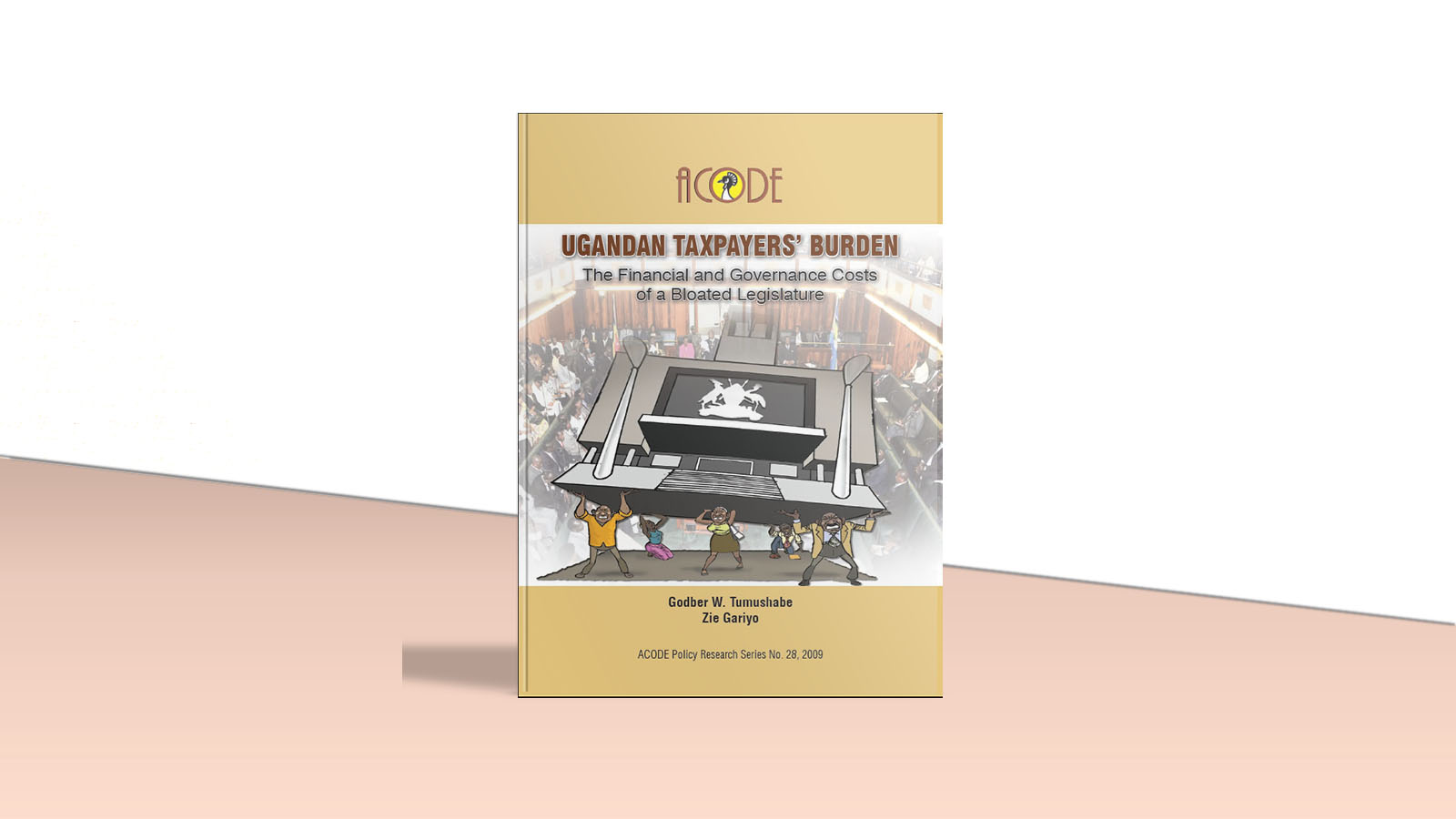
Uganda’s Taxpayer Burden: The Financial and Governance Costs of a Bloated Legislature
Author(s): Godber Tumushabe and Zie Gariyo
Published: 2009
The study analyzes the evolution of the composition of Uganda’s legislature and the factors that have shaped its development, roles and numerical strengths. From the Legislative Council to the post-independence legislatures, the pattern that the Executive manipulates and uses the Legislature to undermine Uganda’s democratic path is clear and consistent. It is argued that while the Constituent Assembly (CA) sought to build strong foundations for effective separation of powers between the Legislature and the Executive, the latter has increasingly gained an upper hand and “captured” the former through negotiation of “political deals” that undermine the spirit and the letter of the 1995 Constitution.
View PDF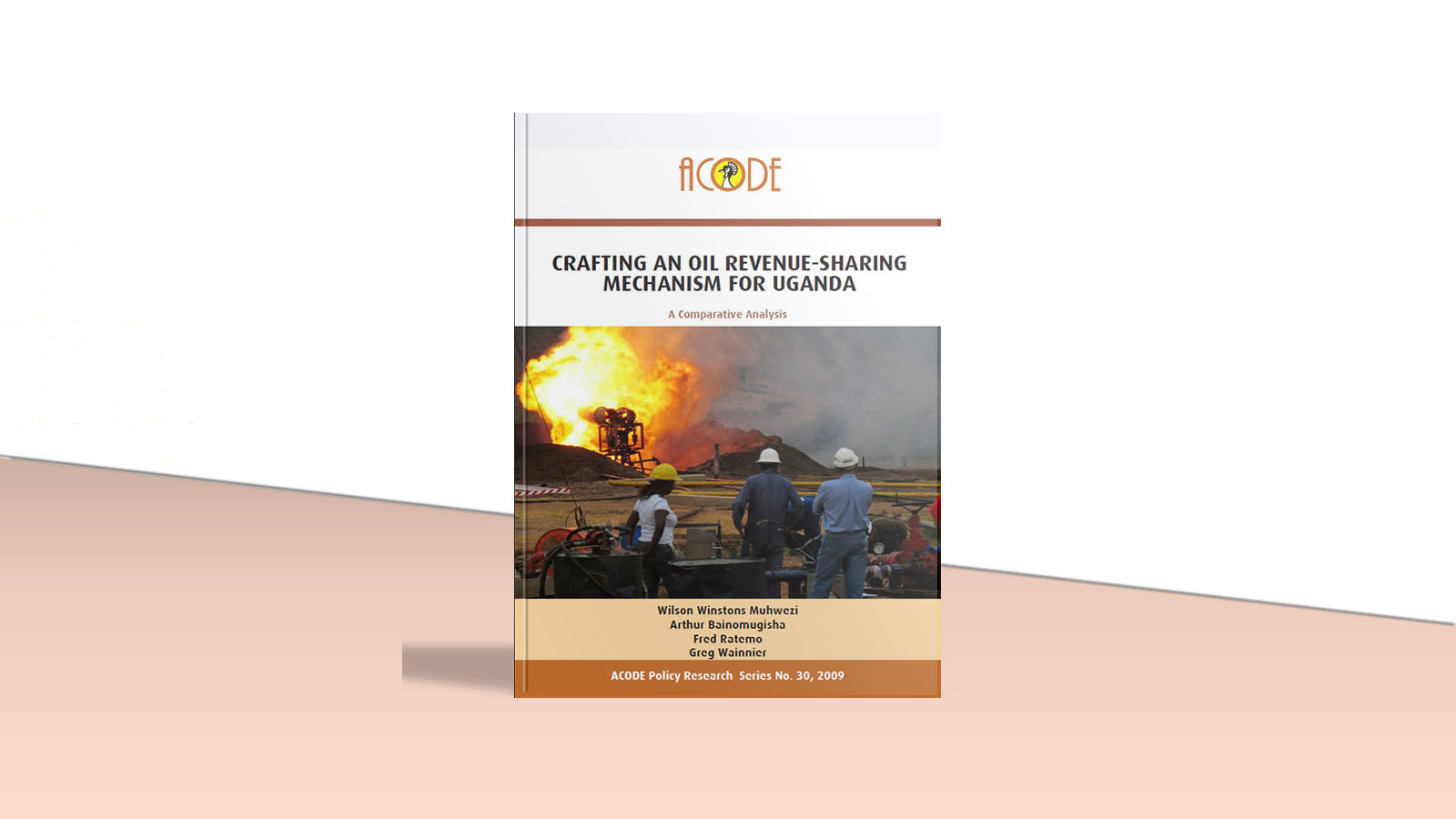
Crafting an Oil Revenue - Sharing Mechanism for Uganda: A Comparative Analysis
Author(s): Winstons Muhwezi, Arthur Bainomugisha, Fred Ratemo, and Greg wainnier
Published: 2009
The paper puts forward a strong case for a transparent and equitable revenue-sharing mechanism including the fact that such a mechanism would become a conflict management tool to avoid conflicts associated with oil resources, escaping the “Dutch Disease,” endemic corruption and democratic stagnation that are always associated with oil rich developing countries. The paper examines lessons and experiences that Uganda could learn from in anticipation for oil revenue to be reaped after commercial production takes off.
View PDF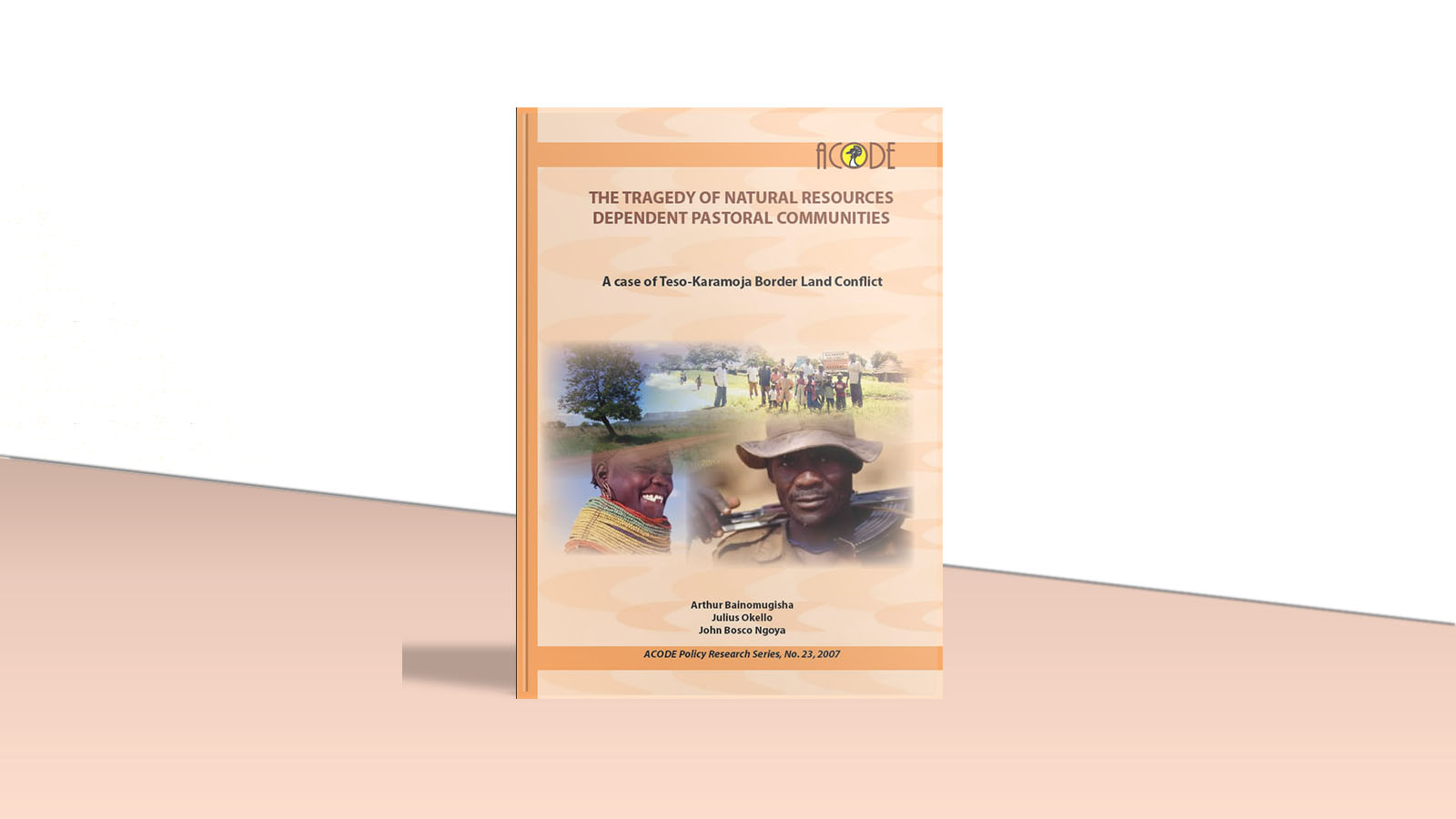
The Tragedy of Natural Resources Dependent Pastoral Communities: A Case of Teso-Karamoja Border Conflict
Author(s): Arthur Bainomugisha, Julius Okello and John Bosco Ngoya
Published: 2007
This research sought to establish the linkages between land scarcity, security and ethnic conflict among the Itesot and the Karimojong in Katakwi- Moroto districts and identify options on how to resolve the conflict. Katakwi district is occupied by the Itesot while Moroto is occupied by the Karimojong. The main objective of the study was to provide a deep analysis of the border land conflict between Katakwi - Moroto districts and establish its implications on peace and security in the region and the country as a whole.
View PDF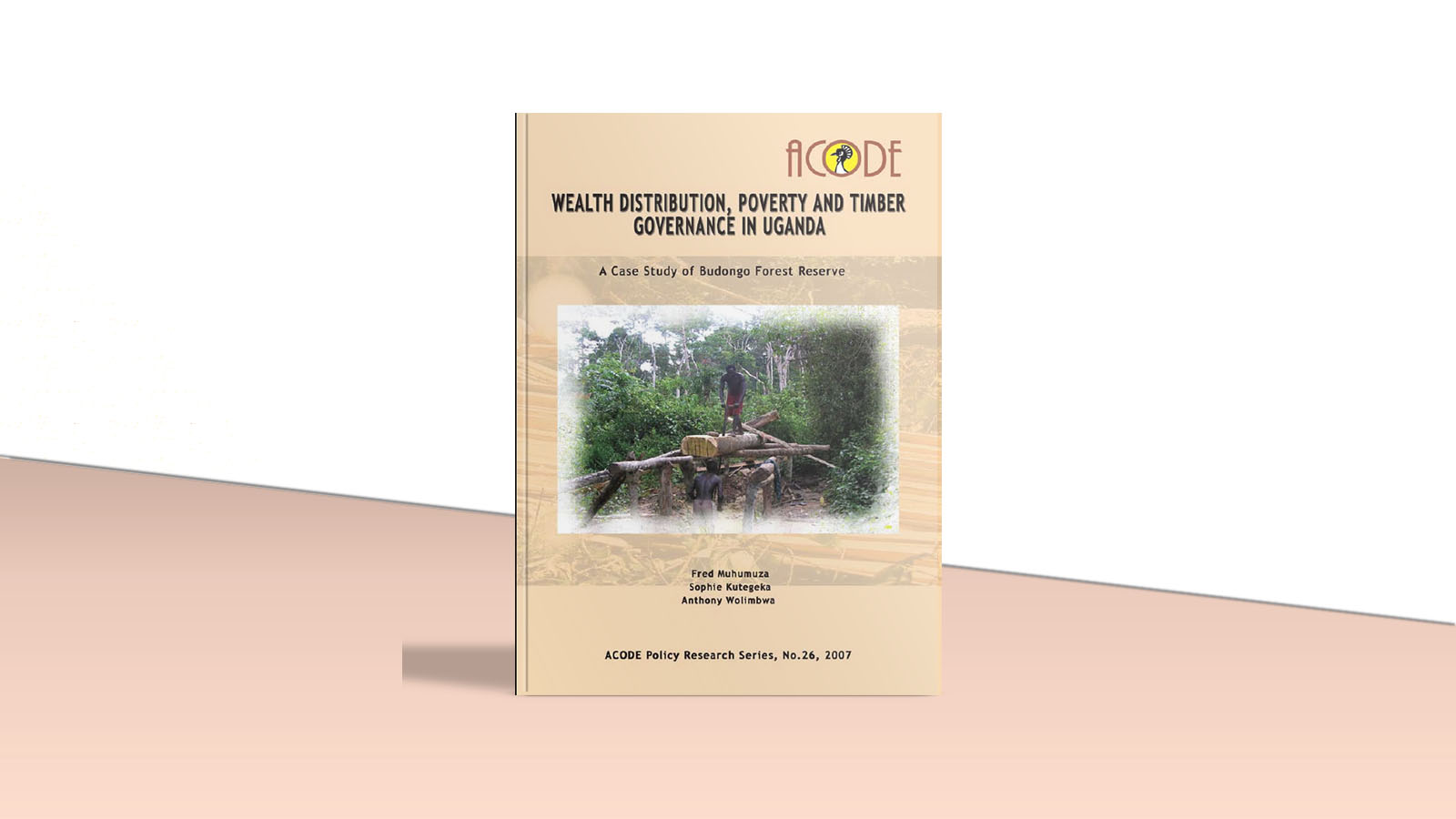
Wealth Distribution, Poverty and Timber Governance in Uganda: A Case Study of Budongo Forest Reserve
Author(s): Fred Muhumuza, Sophie Kutegeka and Anthony Wolimbwa
Published: 2007
This study was motivated by the fact that many communities that directly depend on natural resources have remained in abject poverty despite the increasing economic value of these resources. This is happening in key resources areas such as fisheries, wildlife-based tourism and forestry products. In the forestry sector, the prices of timber for example have increased three fold over the last decade.
View PDF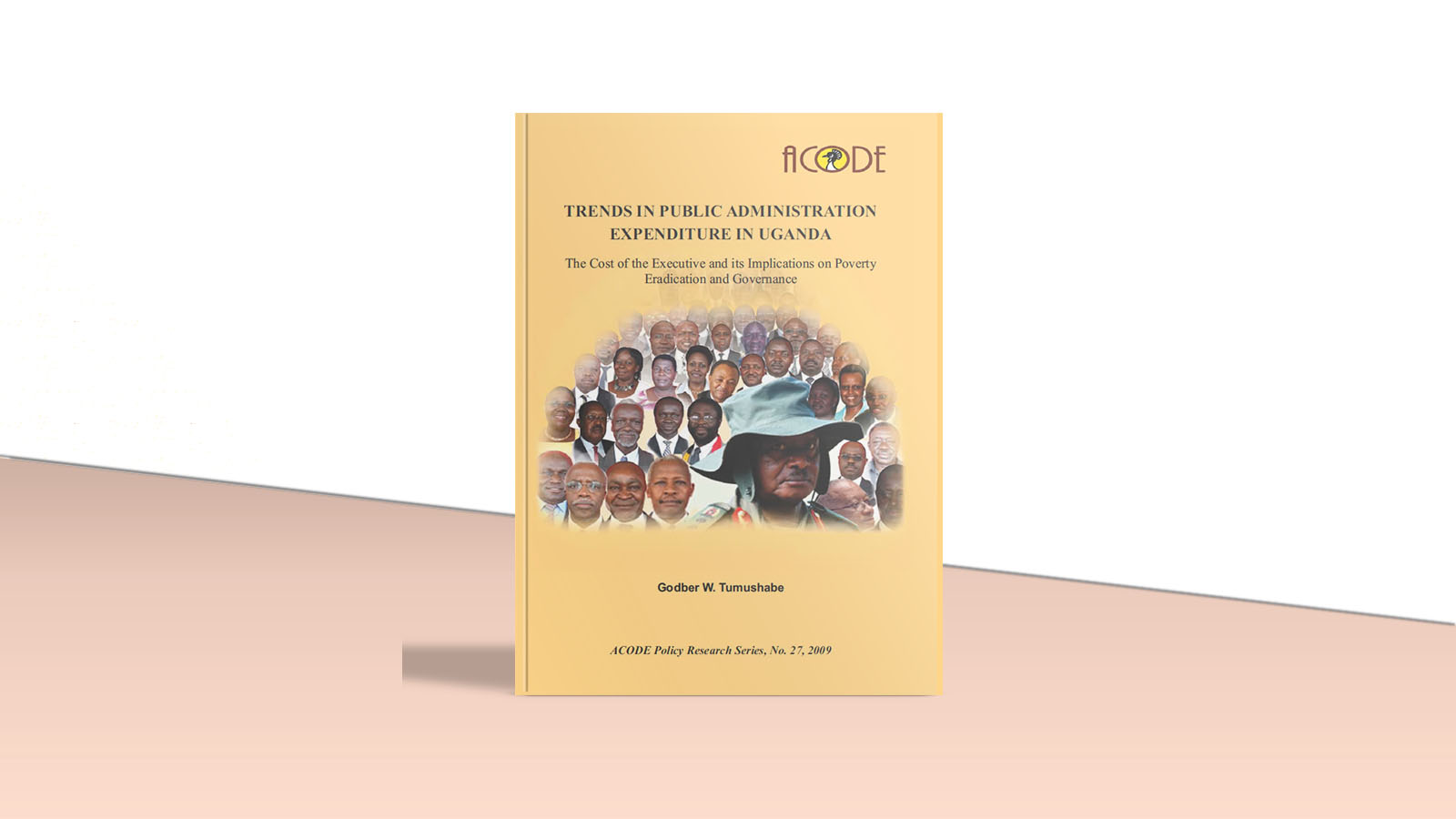
Trends in Public Administration Expenditure in Uganda: The Cost of the Executive and its Implication on Poverty Eradication and Governance
Author(s): Godber Tumushabe
Published: 2007
This study provides detailed analysis of the factors that account for the unprecedented expansion of the executive bureaucracy in Uganda. It is this expanded political bureaucracy that partly accounts for the groincreae in public administration expenditure. To begin with, this political bureaucracy has led to significant diversion of public funds and resources from critical social and economic sectors. Its bloated nature has blurred the lines of accountability and responsibility hence breedingunprecedented corruption and mismanagement.
View PDF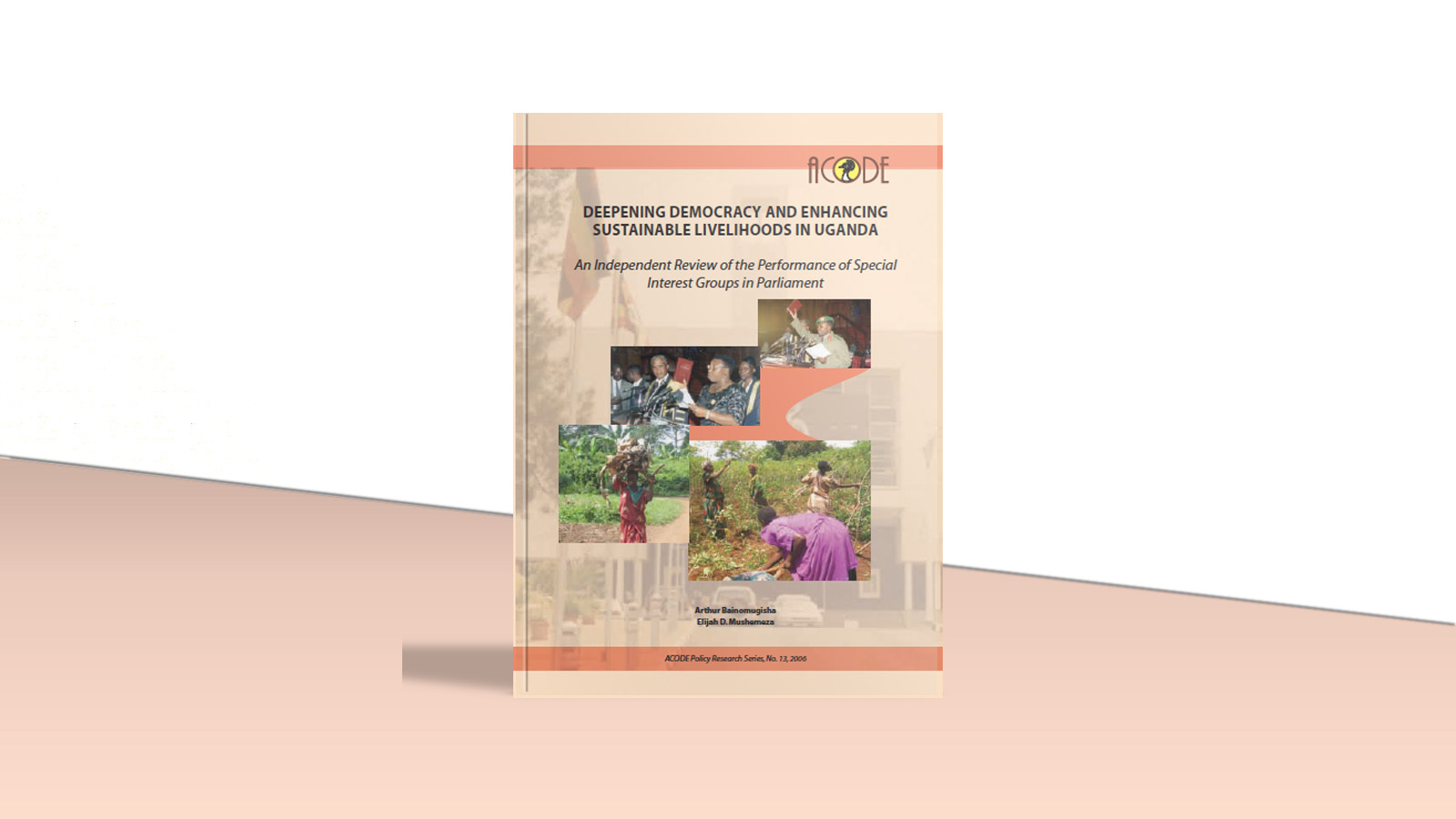
Deepening Democracy and Enhancing Sustainable Livelihoods in Uganda: An Independent Review of the Performance of Special Interest Groups in Parliament
Author(s): Arthur Bainomugisha and Elijah D. Mushemeza
Published: 2006
The study assessed the performance of Special Interest Groups (SIGs) in the 6th and 7th Parliament, we contend that Parliament is the most important arm of the state and government that can promote environmental governance, protect and advance the interests of natural resource dependent communities.
View PDF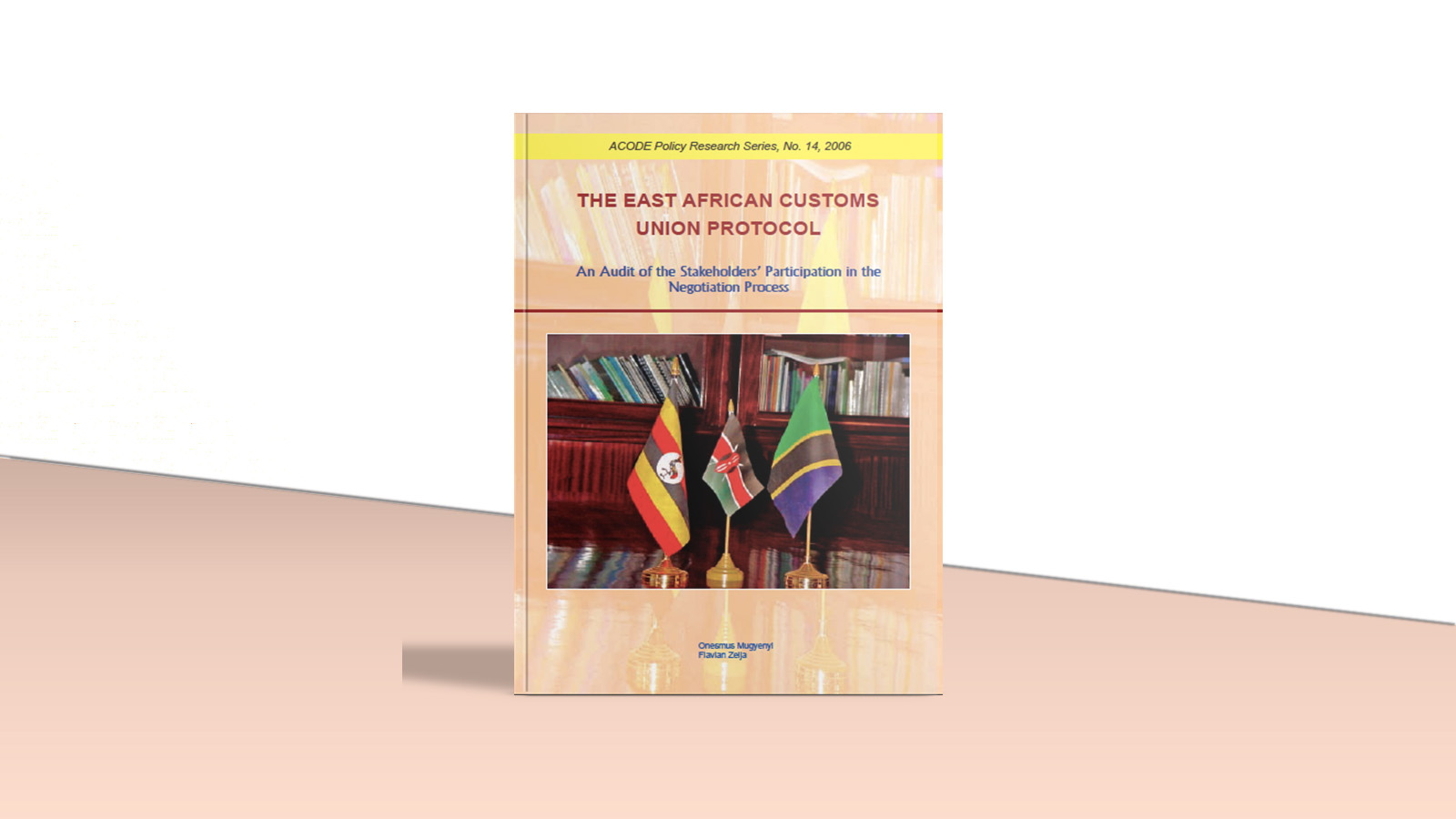
The East African Customs Union Protocol: An Audit of the Stakeholders' Participation in the Negotiation Process
Author(s): Onesmus Mugyenyi and Flavian Zeija
Published: 2006
This paper therefore analyses whether the negotiation process of the Protocol on the Establishment of the East African Customs Union adhered to the principles of the community, ie people centred, private sector driven and multi-level and multi-stakeholder participation.
View PDF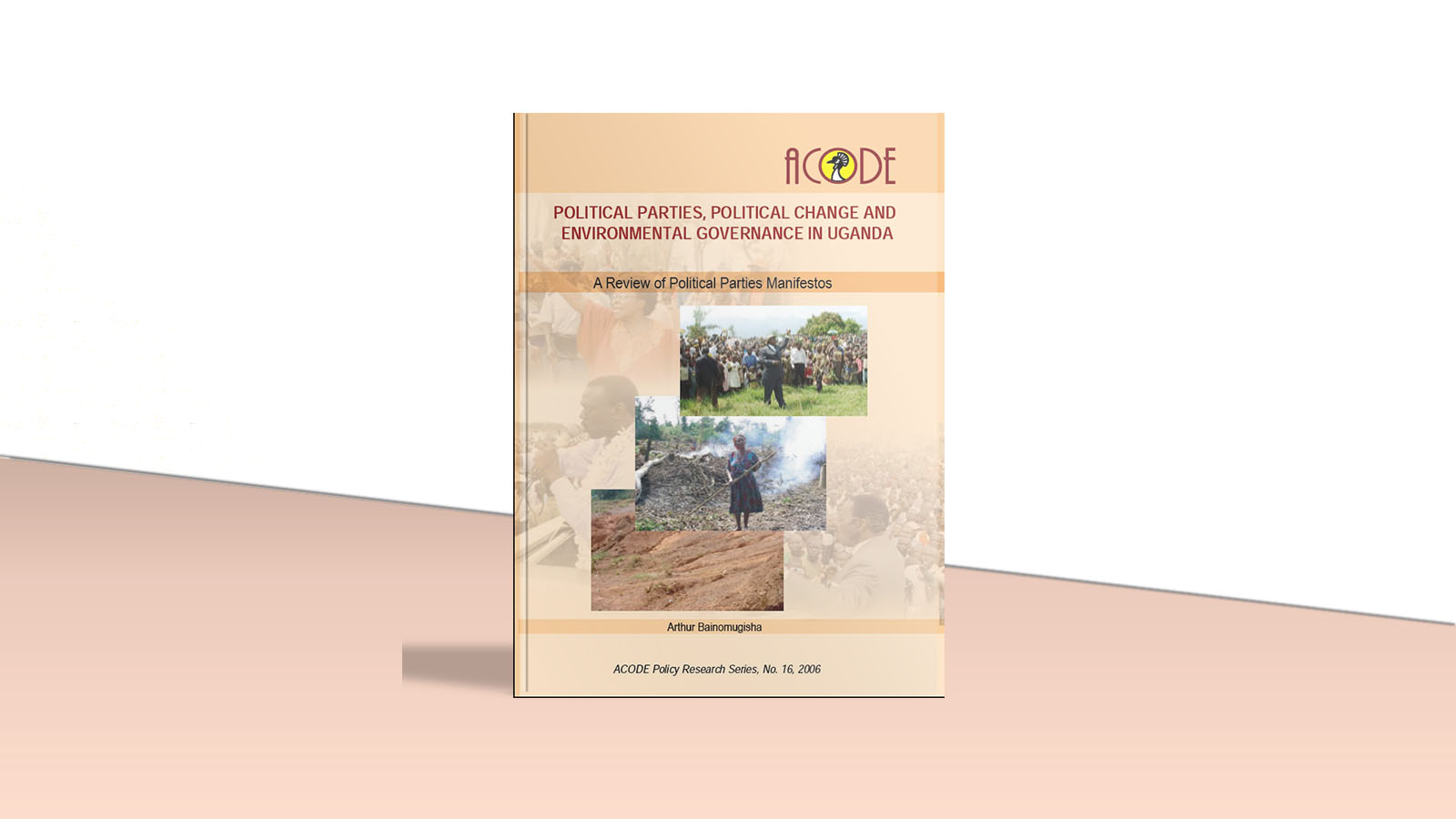
Political Parties, Political Change and Environmental Governance in Uganda: A Review of Political Parties' Manifestos
Author(s): Arthur Bainomugisha
Published: 2006
In a multiparty democracy political parties are expected to one of the key power centers in policy and decision making over the management and utilization of the environment assets. It is envisaged that political parties will have significant influence on the autonomy and authority of the Parliament and individual legislators. As such, the effectiveness of Parliament and individual Members of Parliament to effectively bring a wide range of public policy issues including environmental issues is likely to depend on the policy programs of political parties. In order to ensure that environmental issues are not eclipsed by other civic matters, it is important that they become part and parcel of the campaign agendas of political parties as articulated in their election manifestos.
View PDF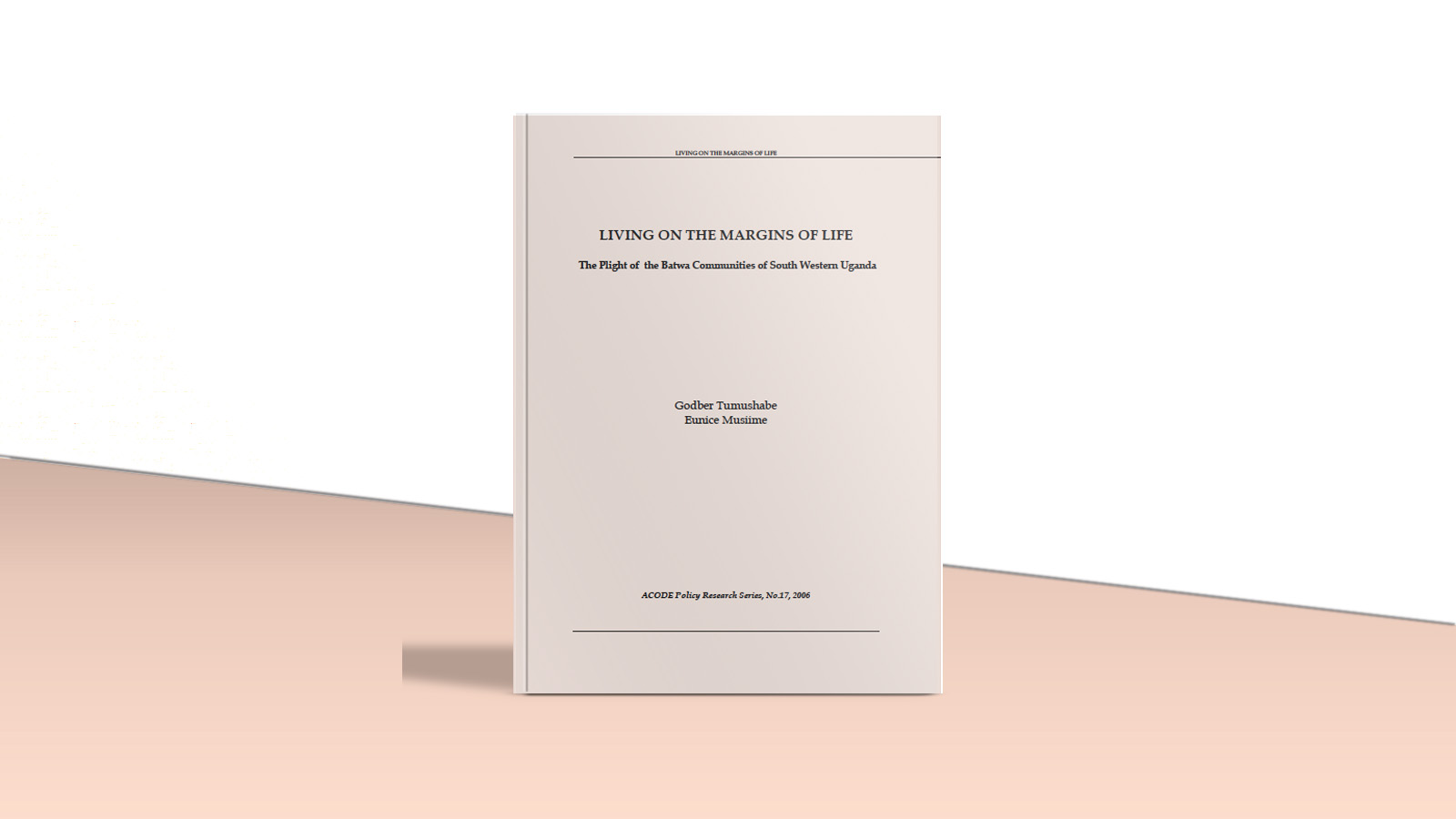
Living on the Margins of Life: The Plight of the Batwa Communities of South Western Uganda
Author(s): Godber Tumushabe and Eunice Musiime
Published: 2006
The meaning and scope of the concept of Community-Based Property Rights (CBPR) has become a dominant feature of conservation and development policy discourse over the last decade. The debate has largely been shaped by the growing trends where governments have continued to appropriate traditional lands for conservation and development activities that have resulted into large scale dislocation and widespread disenfranchisement of sections of our society.
View PDF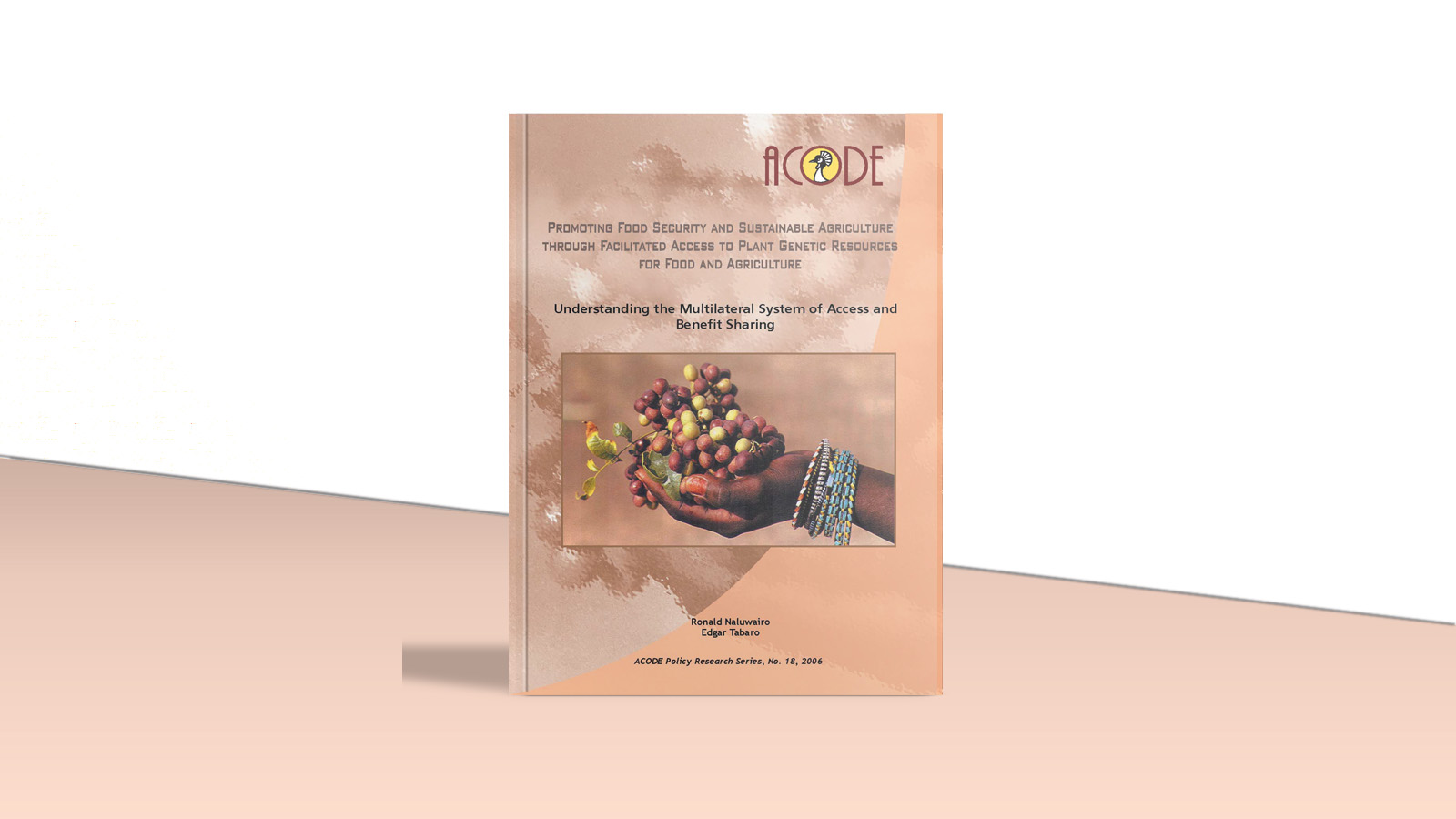
Promoting Food Security and Sustainable Agriculture Through Facilitated Access to Plant Genetic Resources for Food and Agriculture: Understanding the Multilateral System of Access and Benefit Sharing
Author(s): Ronald Naluwairo and Edgar Tabaro
Published: 2006
This paper has been prepared to contribute to the understanding of the operation of the Multilateral System of Access and Benefi t Sharing (herein after referred to as the Multilateral System) and the opportunities it offers in promoting food security and sustainable agriculture. The paper traces the history and evolution of the Treaty and provides a synopsis of its major provisions. As a major focus, the paper examines the Multilateral System and its major implementing instrument - the Standard Material Transfer Agreement (SMTA) in the context of promoting food security and sustainable agriculture. The paper concludes with some observations and recommendations vital for understanding the Multilateral System and enabling countries to take maximum benefi t of the system in promoting food security and sustainable agriculture.
View PDF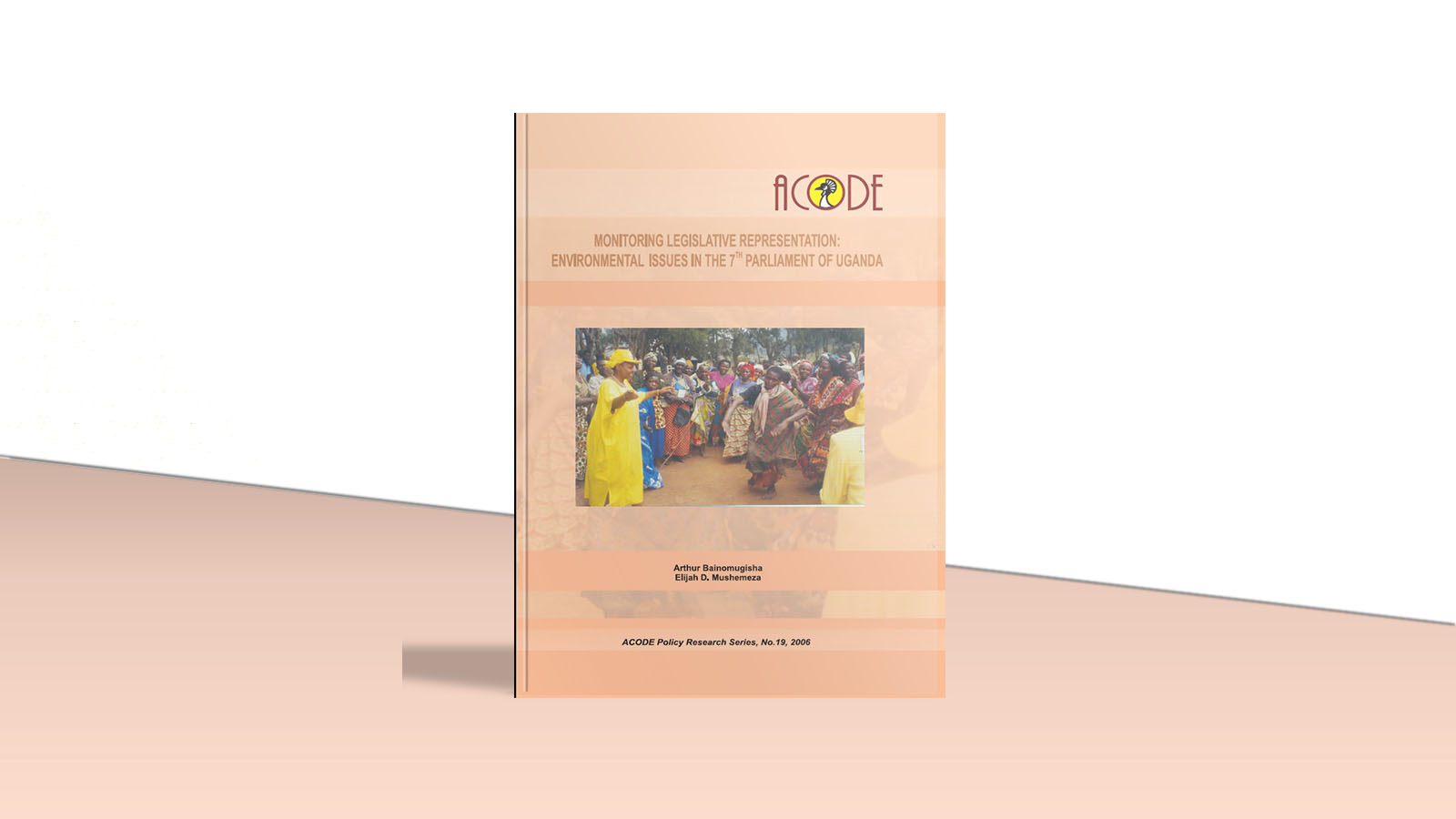
Monitoring Legislative Representation: Environmental Issues in the 7th Parliament of Uganda
Author(s): Arthur Bainomugisha and Elijah D. Mushemeza
Published: 2006
The study developed monitoring indicators for tracking effective representation of constituency and national environmental issues in Parliament namely; contribution during debates on the floor of parliament; regular attendance of Parliamentary sessions; track record of ENR sensitivity; Private Members bill and voting patterns of MPs on controversial bills and motions, relating to the environment.
View PDF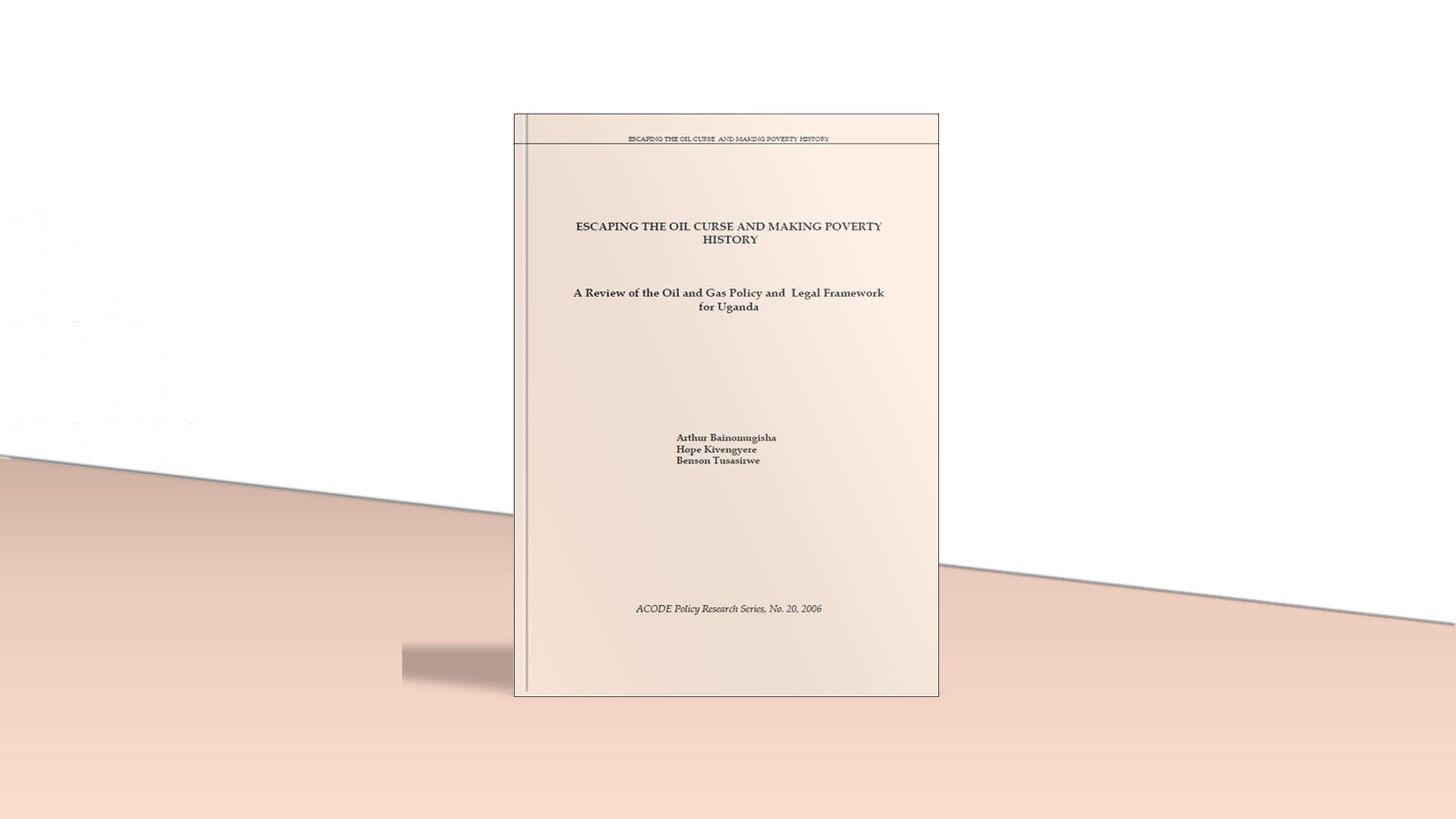
Escaping the Oil Curse and Making Poverty History: A Review of the Oil and Gas Policy and Legal Framework for Uganda
Author(s): Arthur Bainomugisha, Hope Kivengere and Benson Tusasirwe
Published: 2006
The study makes a case that well managed oil resources like other natural resources will lead to socio-economic transformation and sustainable development of Uganda. The work on oil governance has just started and this research paper opens up the need for further inquiry and debate for deeper understanding of the oil governance.The purpose of this paper is to inform the on-going National Oil and Gas Policy-making process by providing to policy makers alternative policy ideas and options. The paper is also intended to promote public participation and oversight over the oil resources management and benefi t sharing.
View PDF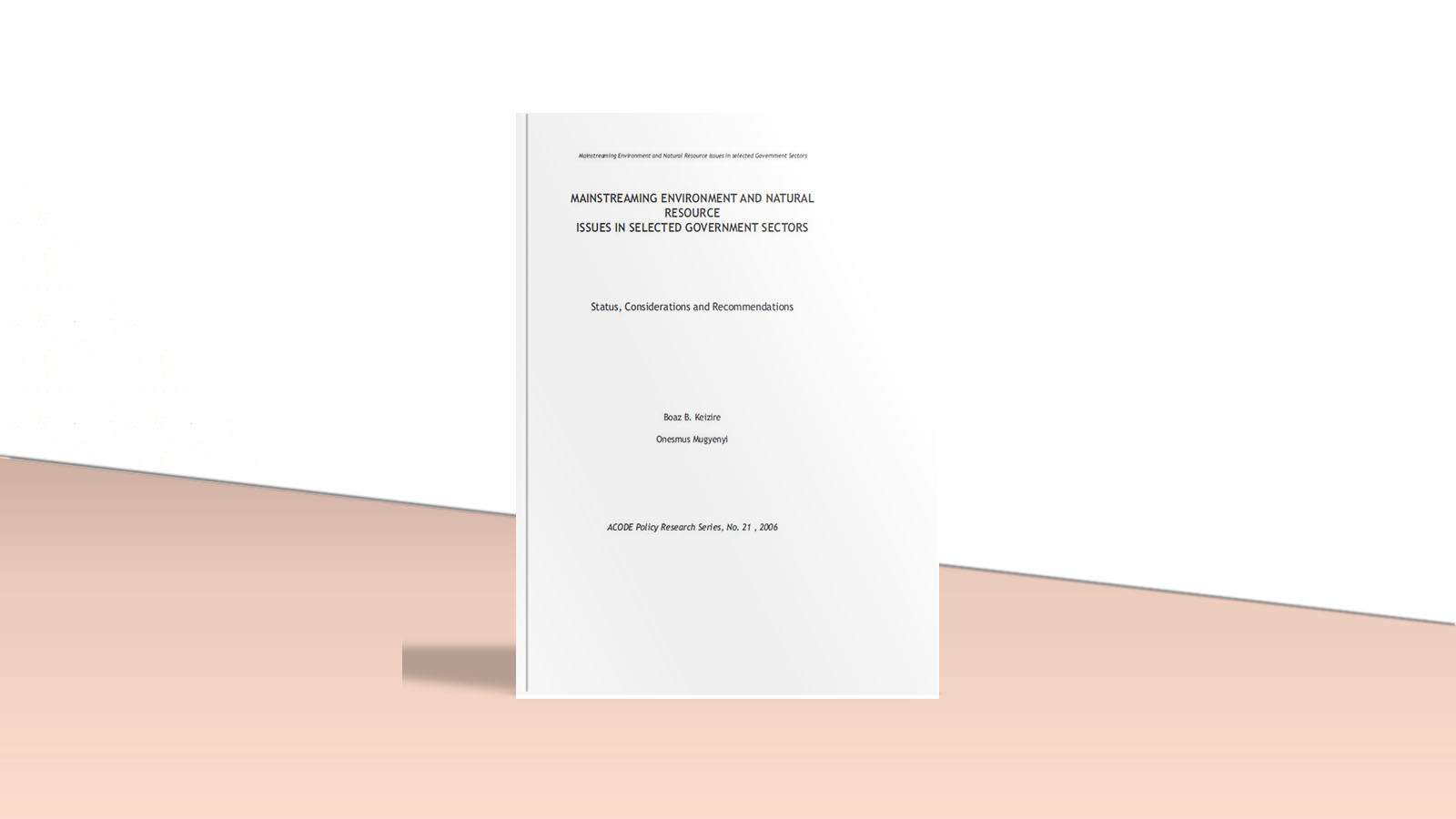
Mainstreaming Environment and Natural Resource Issues in Selected Government Sectors: Status, Considerations and Recommendations
Author(s): Boaz B. Keizire and Onesmus Mugyenyi
Published: 2006
This study aims at establishing the extent to which ENR issues are integrated and/or mainstreamed in selected government sectors. The study is limited to mainstreaming ENR in selected six government sectors out of the total sixteen. These selected sectors include: agriculture; health; water and sanitation; roads and works; justice, law and order sector; and local government. The study is further limited to the analysis of the progress in mainstreaming ENR in sector policies, strategies, plans and budgets. The study does not analyse theextent to which sectors have mainstreamed ENR at implementation level.
View PDF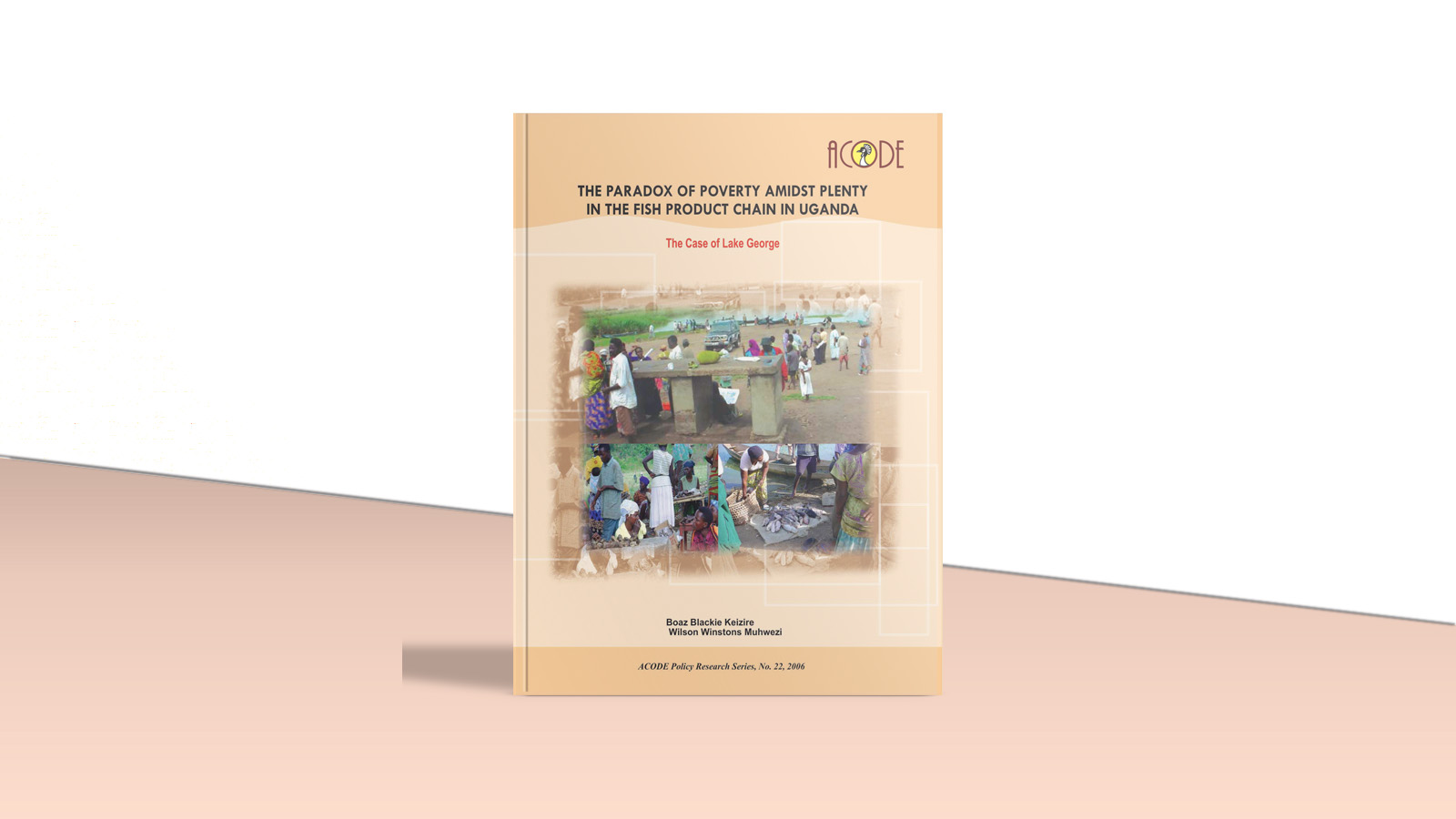
The Paradox of Poverty Amidst Plenty in the Fish Product Chain in Uganda: The Case of Lake George
Author(s): Boaz B. Keizire and Winstons Muhwezi
Published: 2006
The paper argues that notwithstanding the imperfections in use of command and control (traditional approaches) in managing a common property resource, a resource like fi sheries, vulnerable to overexploitation will not survive if left to the forces of the market alone. We advocate for policy interventions that can balance the demands of human capital to be in line and cognizant of the growth factors of natural wealth such that both can be exploited sustainably.
View PDF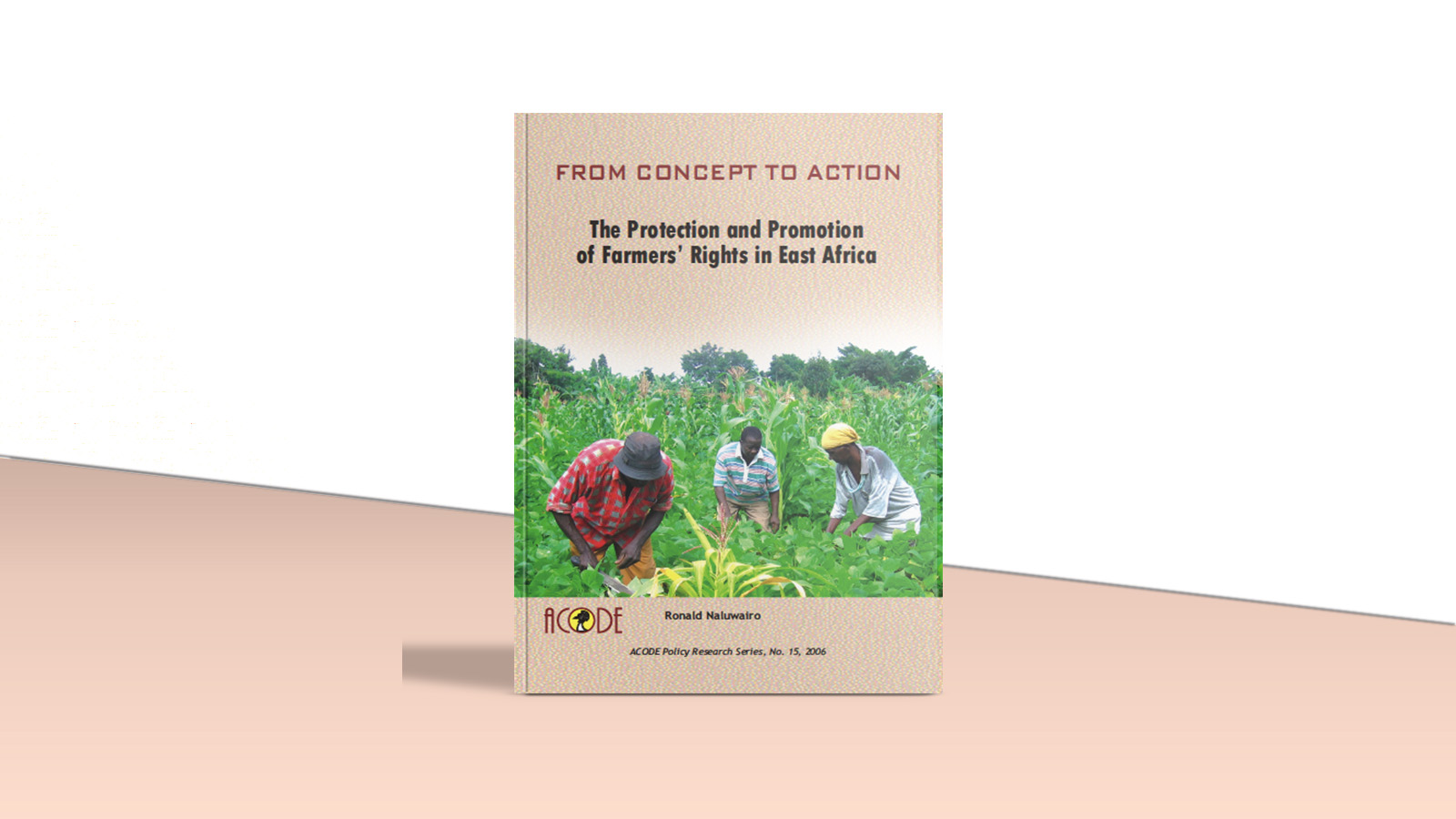
From Concept to Action: The Protection and Promotion of Farmers' Rights in East Africa
Author(s): Ronald Naluwairo
Published: 2006
This policy research paper has been prepared to promote the understanding of the concept of Farmers’ Rights with the view of contributing to their effective realization in East Africa specifically and Africa in general. The paper traces the origin and evolution of farmers’ rights, examines their rationale and explains the different rights protectable under the concept of Farmers’ Rights within the context of the International Treaty on Pant Genetic Resources for Food and Agriculture. The paper also examines the potential role these rights can play in regional and national development and explores the different policy options for their protection and promotion in East Afrca.
View PDF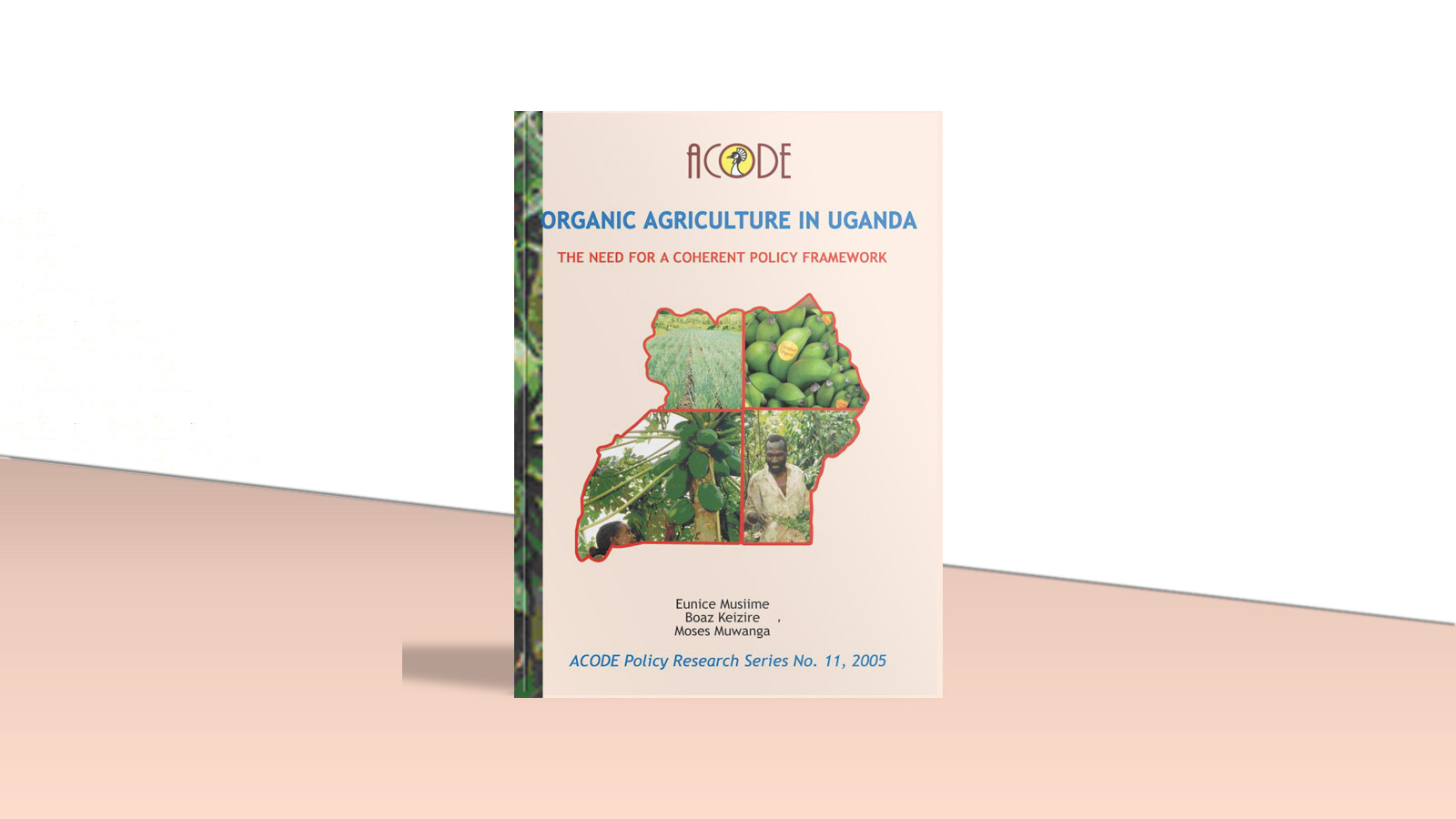
Organic Agriculture in Uganda: The Need for a Coherent Policy Framework
Author(s): Eunice Musiime, Boaz Keizire and Moses Muwanga
Published: 2005
Organic farming as a form of agriculture production is slowly being pushed off the agenda losing the policy debate to the aggressive public campaigns to promote modern biotechnology. In this paper, it is argued that the continuing narrowing of the agriculture policy debate to GMOs is a potential threat to national food security, and a potential threat to food security and livelihoods of many smallholder-farming communities, especially in developing countries.
View PDF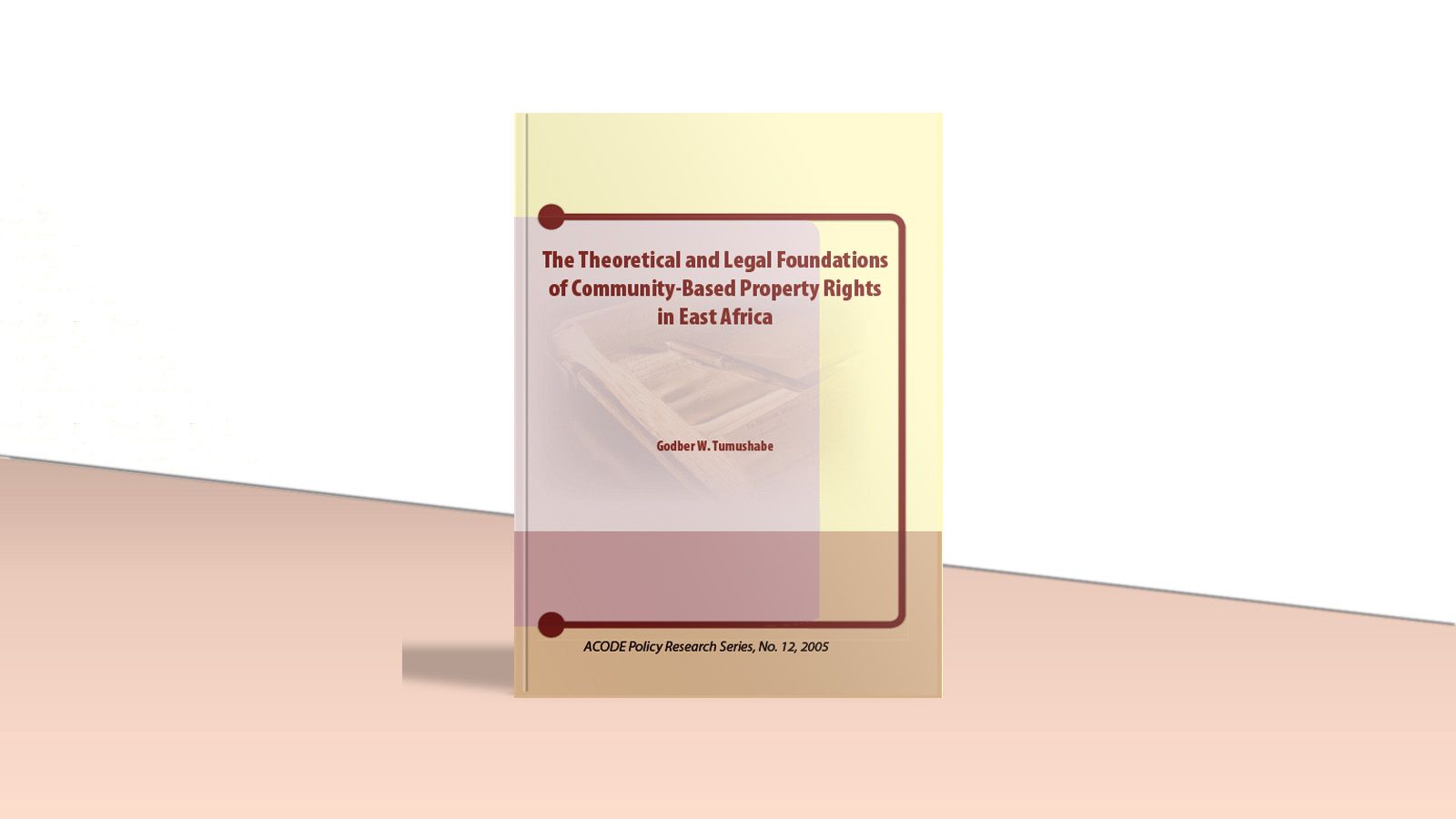
The Theoretical and Legal Foundations of Community-Based Property Rights in East Africa
Author(s): Godber Tumushabe
Published: 2005
This paper provides the conceptual basis for further detailed case studies and policy review on CBPR in Uganda. The broad objective of the studies is to explore how the rights of indigenous and marginalized communities can be recognized and promoted in a new conservation and development paradigm characterized by expropriation of ancestral lands and resources.
View PDF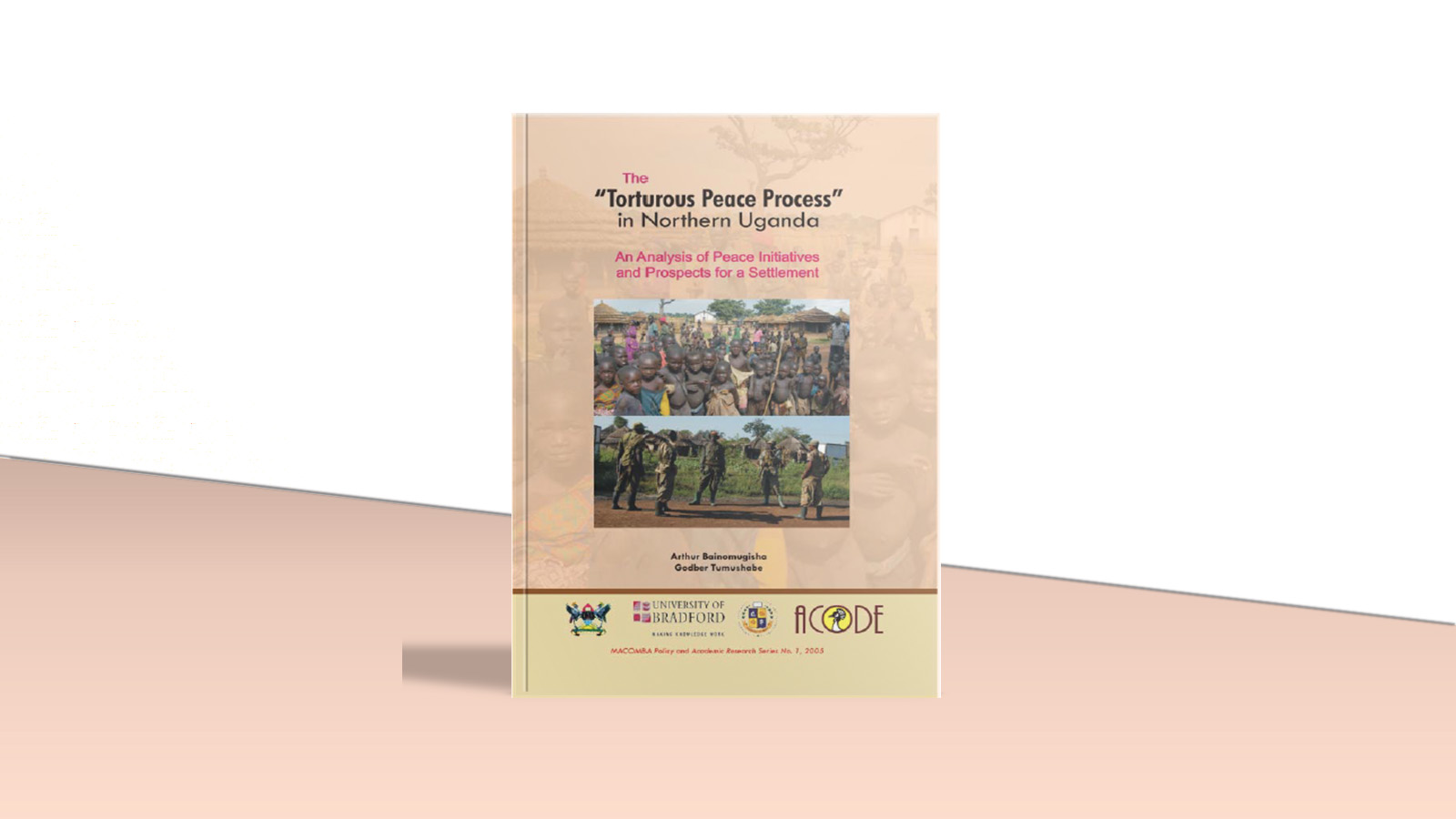
The ‘Torturous Peace Process’ in Northern Uganda: An Analysis of Peace Initiatives and Prospects for a Settlement
Author(s): Arthur Bainomugisha and Godber Tumushabe
Published: 2005
The report is a deliberate systematic documentation and analysis of the peace processes and efforts that have been undertaken at various stages of the war, by various actors. The study makes recommendations that are a result of field work and numerous interviews and library sources. It is easy to read by both general readers and researchers. It is my considered opinion that the public will find this publication highly informative and educative.
View PDF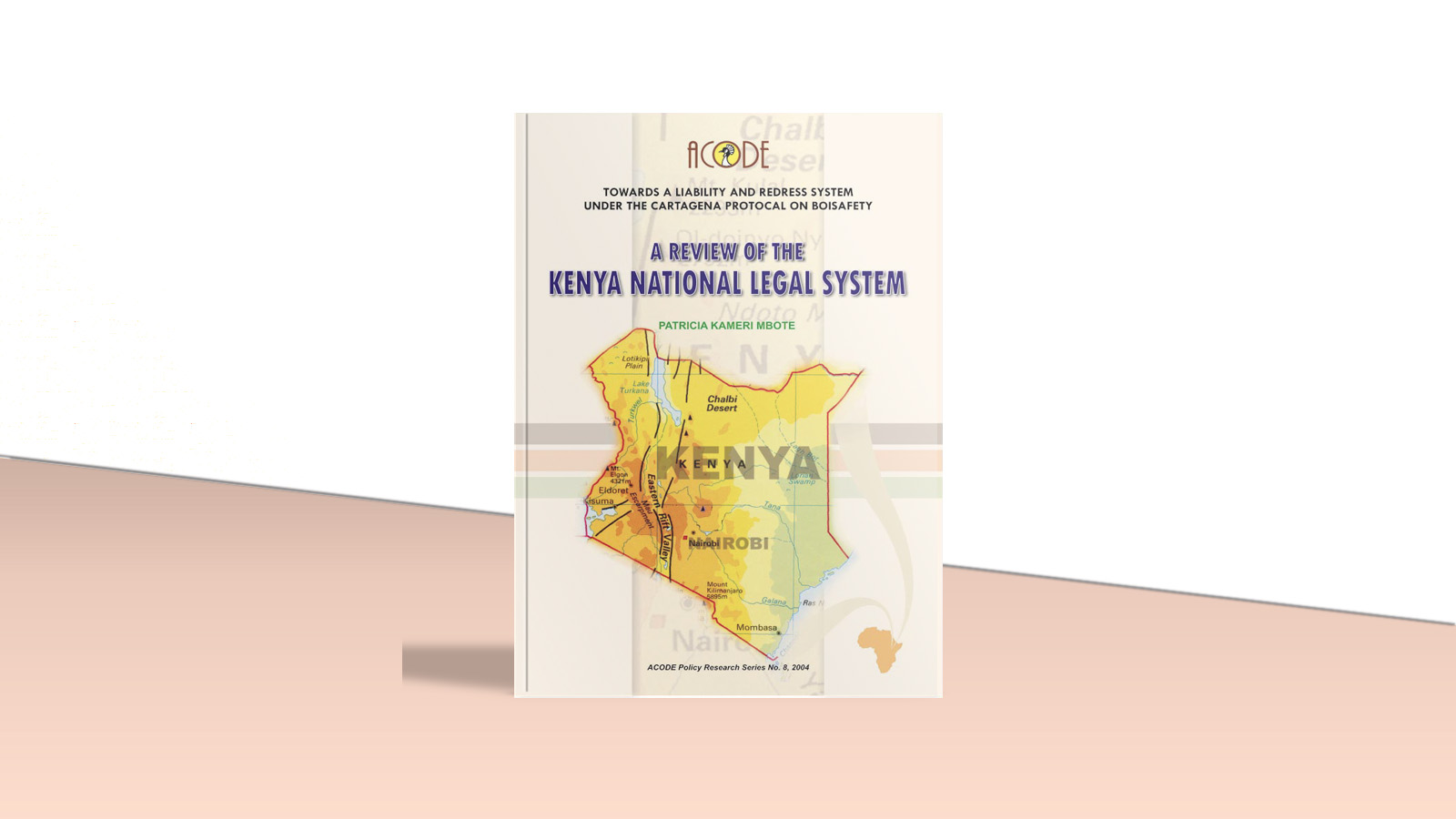
Towards a Liability and Redress System Under the Cartagena Protocol on Biosafety: A Review of the Kenya National Legal System
Author(s): Patricia Kameri-Mbote
Published: 2004
The objective of this paper is to review Kenya's legal system based both on legislation and common law. The main objective of the review is to analyse the adequacy and relevance of such regimes to liability and redress for damage caused by transboundary movement of Living Modified Organisms. It will seek to ascertain principles or provisions that can help form the country's and regional position in future negotiations for the elaboration of article 27.
View PDF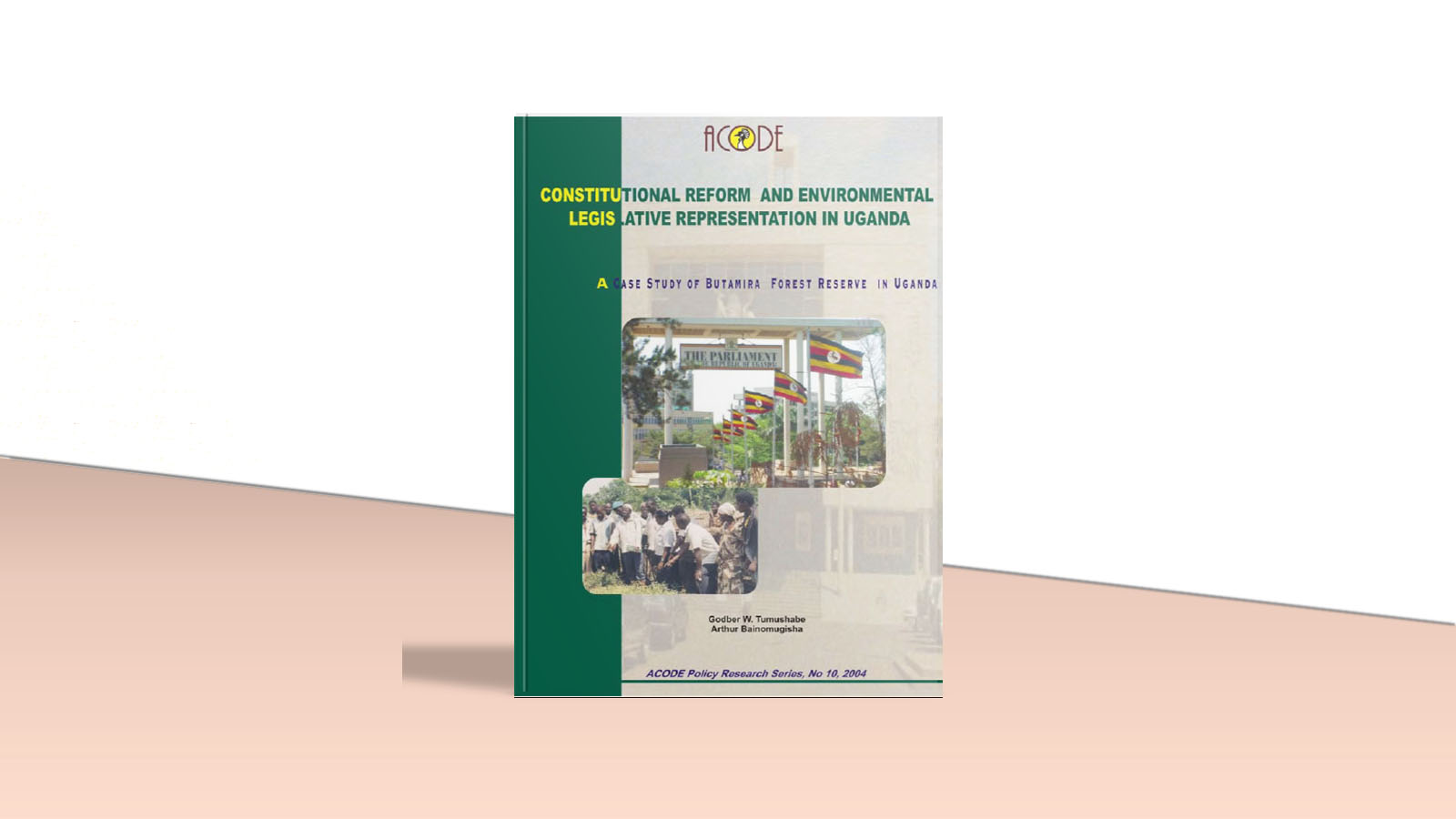
Constitutional Reform and Environmental Legislative Representation in Uganda: A Case Study of Butamira Forest Reserve
Author(s): Godber Tumushabe and Arthur Bainomugisha
Published: 2004
The debate on the relationship between the form of Government and sound ecological stewardship has been growing both in Uganda and elsewhere. Today, questions still remain as to whether a particular form of government may motivate legislators to effectively represent the environmental interests of their constituencies. This is particularly relevant since parliamentarians are often torn between supporting their sponsoring political parties or affiliations and their constituents when the interests of the two are irreconcilable.
View PDF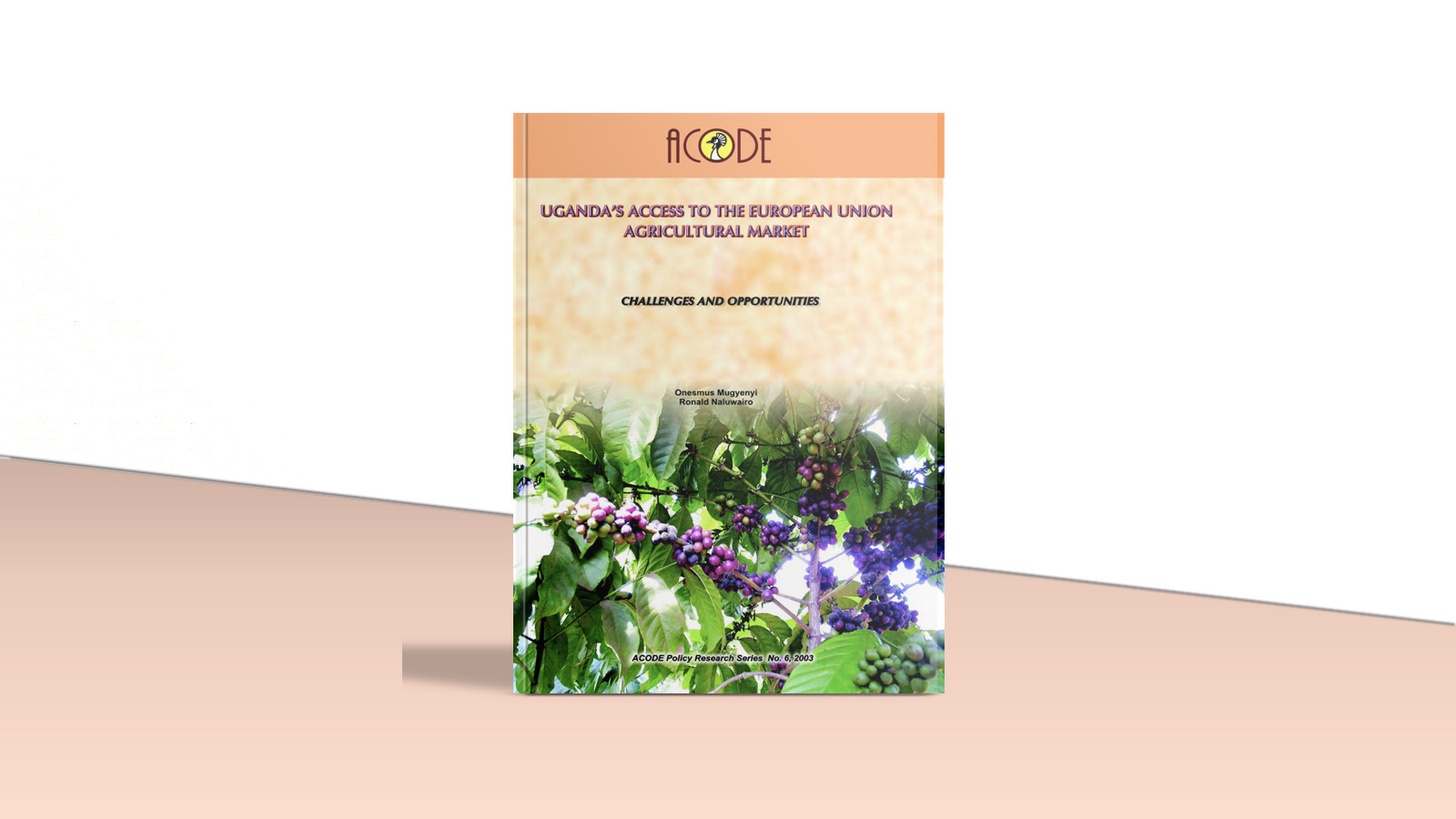
Uganda's Access to the European Union Agriculture Market: Challenges and Opportunities
Author(s): Onesmus Mugyenyi and Ronald Naluwairo
Published: 2003
This paper examines the trade links between Uganda and the EU. It identifies trade opportunities and the dynamics involved, analyses the challenges and constraints that have to be addressed if Uganda like any other ACP country is to benefit from the trade links with the EU.
View PDF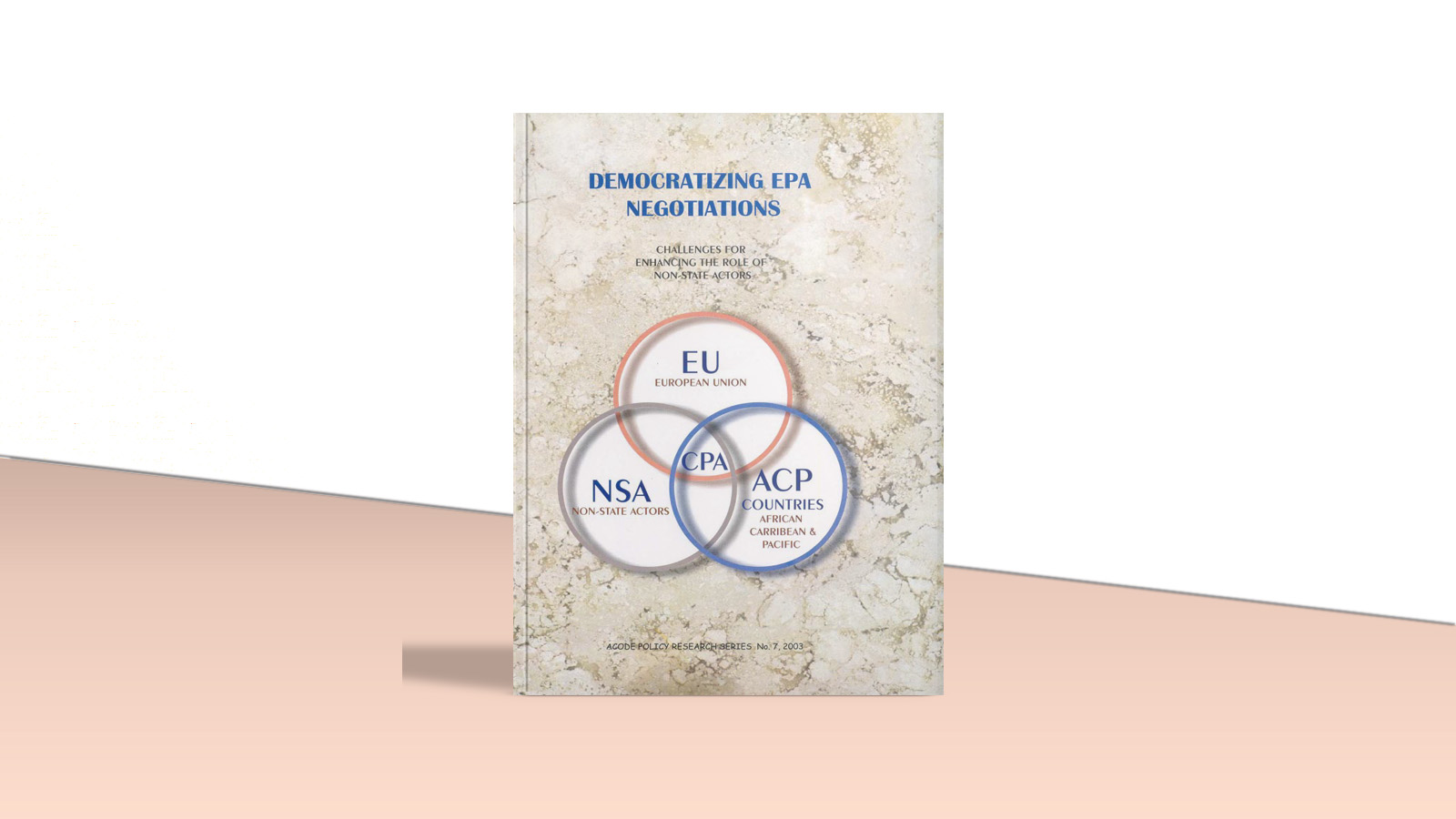
Democratizing EPA Negotiations: Challenges for Enhancing the Role of Non-State Actors
Author(s): Onesmus Mugyenyi and Dick Nuwamanya
Published: 2003
This research paper is an evaluation of non-state actors participation in the Cotonou partnership in Uganda. During this study a number of people were consulted and provided useful information.
View PDF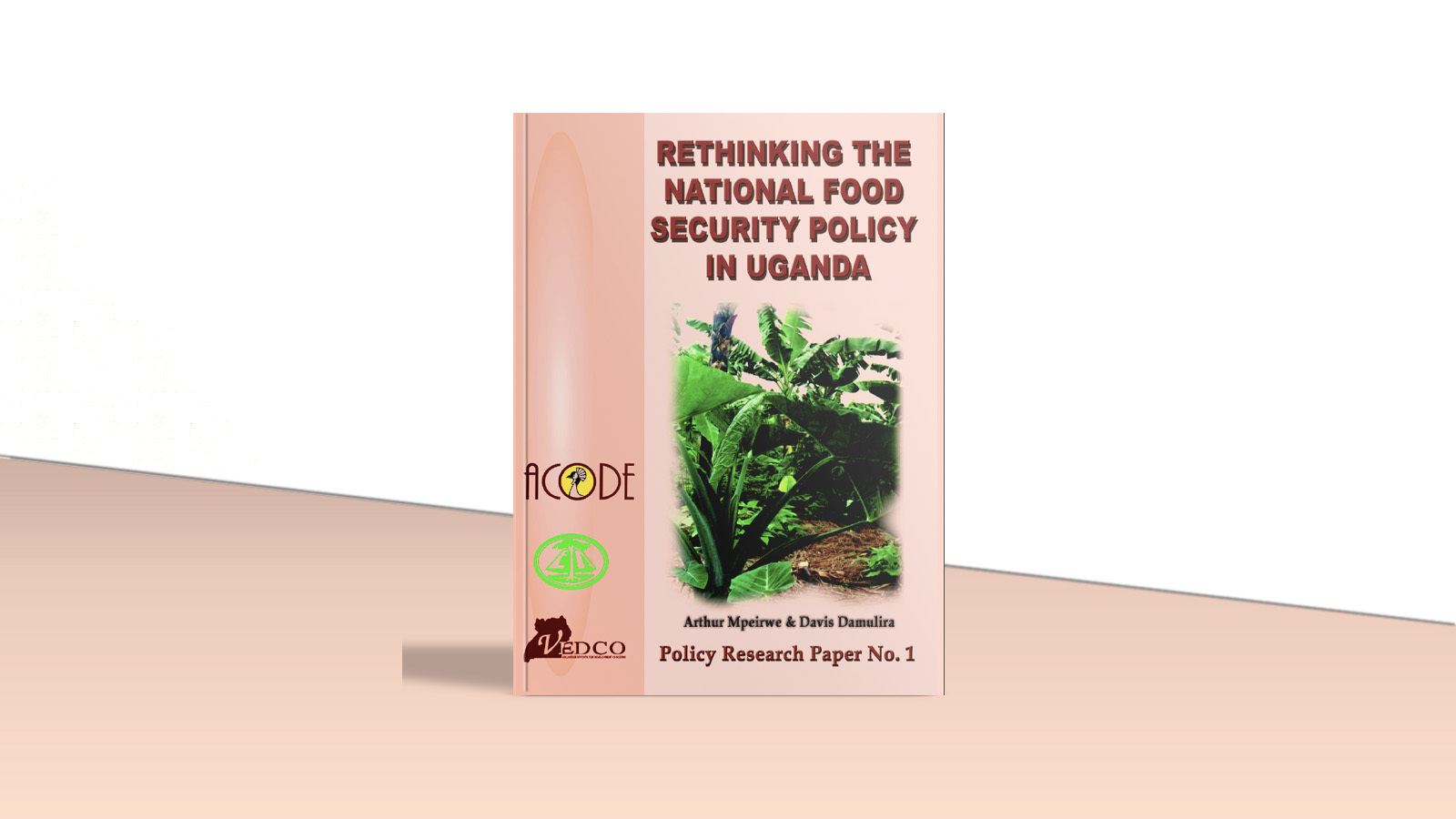
Rethinking the National Food Security Policy in Uganda
Author(s): Arthur Mpaire, Davis Damulira
Published: 2003
This paper analyzes the efforts by Government to develop a national food security and nutrition policy in the context of the Plan for Modernization of Agriculture. This concept paper sets out three key messages with respect to the policy and ongoing efforts under the auspices of the National Food and Nutrition Council. It is argued that the strategic and national security importance of food security is not reflected in the current draft of the policy; the principle of the market mechanism as the basis for national food security is not barked by empirical evidence and is inconsistent with Uganda’s international and regional commitments; and that the current draft Food and Nutrition Policy, 2002 lacks clear policy objectives and strategies to constitute a national food security and nutrition policy as envisaged under the PMA.
View PDF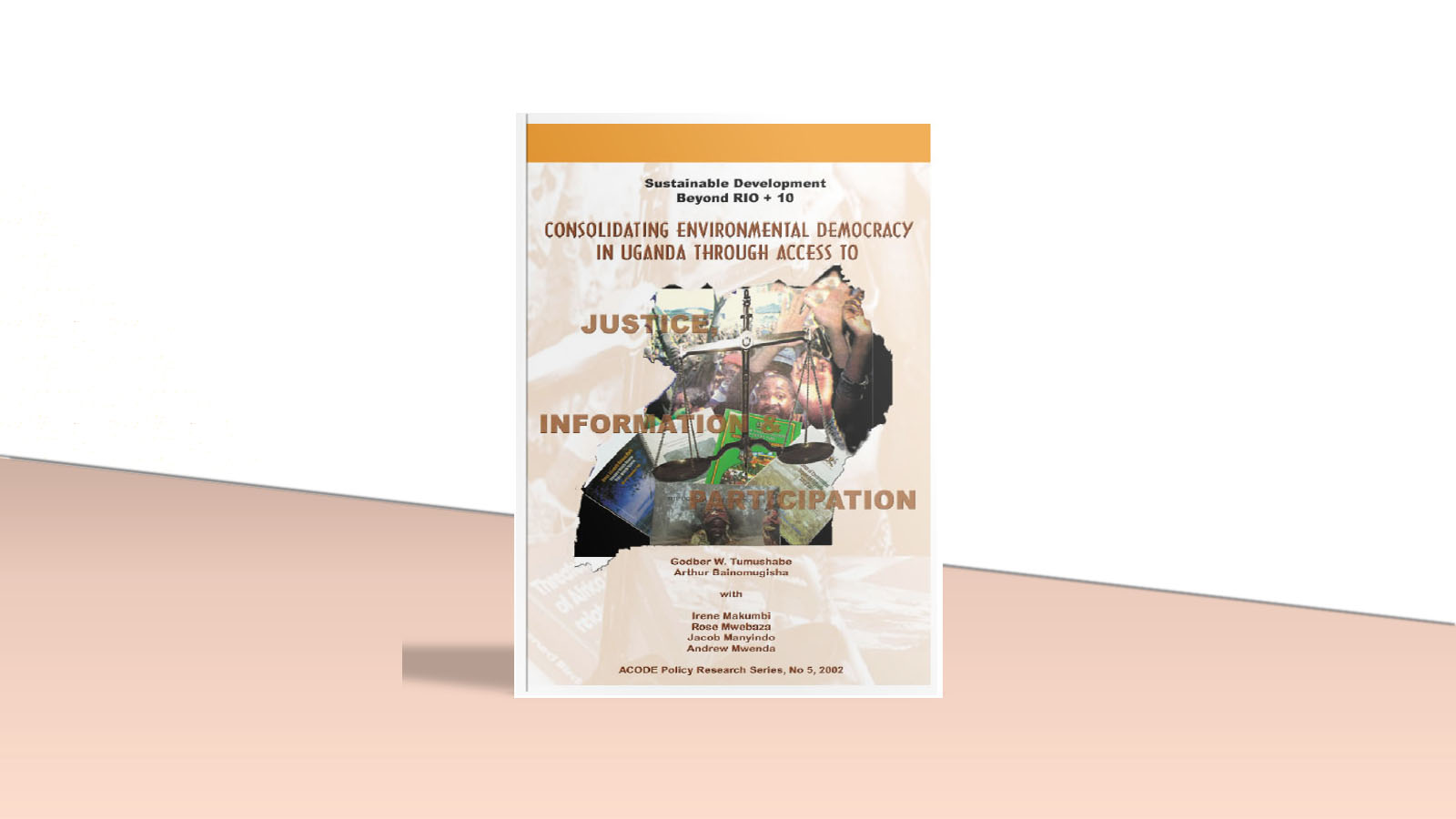
Sustainable Development Beyond Rio+10: Consolidating Environmental Democracy in Uganda through Access to Justice, Information and Participation
Author(s): Godber Tumushabe and Arthur Bainomugisha
Published: 2002
This report is a synthesis of findings from an assessment of Uganda’s progress in the implementation of the commitments contained in Principle 10 of the Rio Declaration. The assessment was carried out under The Access Initiative (TAI). TAI is an independent initiative by civil society organizations applying a set of common indicators to measure progress made by countries in implementing the obligations under Principle 10 of the Rio Declaration
View PDF
The Precautionary Principle, Biotechnology and Environmental Litigation: Complexities of Litigating New and Emerging Enviromental Problems
Author(s): Godber Tumushabe
Published: 2001
This policy brief is a product of ACODE's continuing work analyzing the practical aspects of implementation of principle 10 of the Rio Declaration on Environment and Development. Under principle 10 of the Rio Declaration, States committed themselves to guarantee their citizens access to environmental information, the right to public participation in environmental decision making and access to justice in environmental matters. While substantial progress has been achieved in promoting other access rights access to justice especially for poor resource dependent communities has not attracted equal attention.
View PDF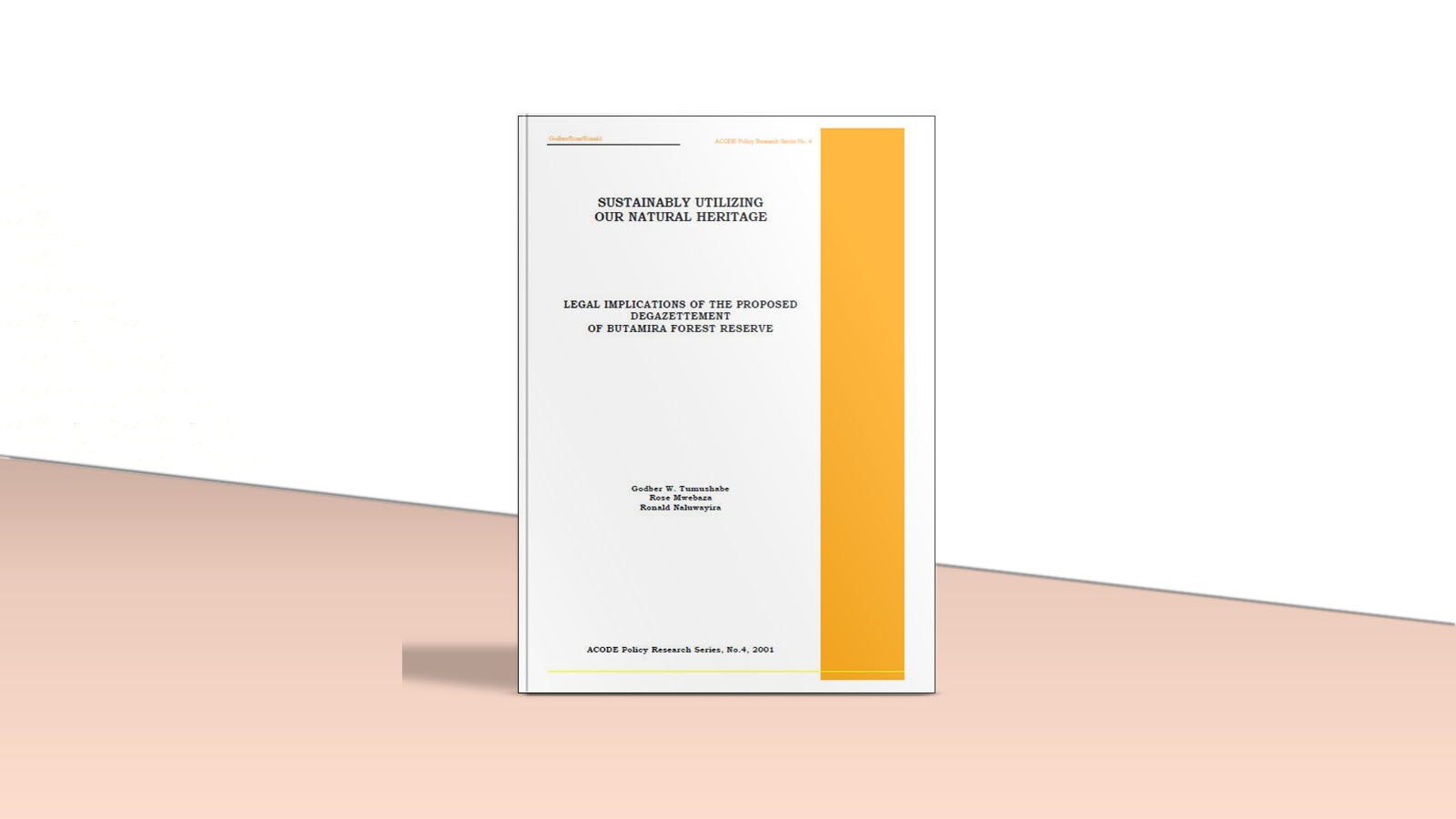
Sustainably Utilizing Our Natural Heritage: Legal Implications of the Proposed Degazettment of Butamira Forest Reserve
Author(s): Godber Tumushabe, Rose Mwebaza, and Ronald Naluwairo
Published: 2001
This policy brief analyses the constitutional and legal aspects of the proposed degazettment of Butamira Forest Reserve. The Government of Uganda is attempting to degazette and lease out the land comprised in the Reserve to Kakira Sugar Works for sugar cane growing. The net effect of the degazettment and re-allocation is that it will extinguish the investment interests of the local community and their ability to raise their incomes jeopardized contrary to what is envisaged under Pillar 3 of the Poverty Eradication Action Plan
View PDF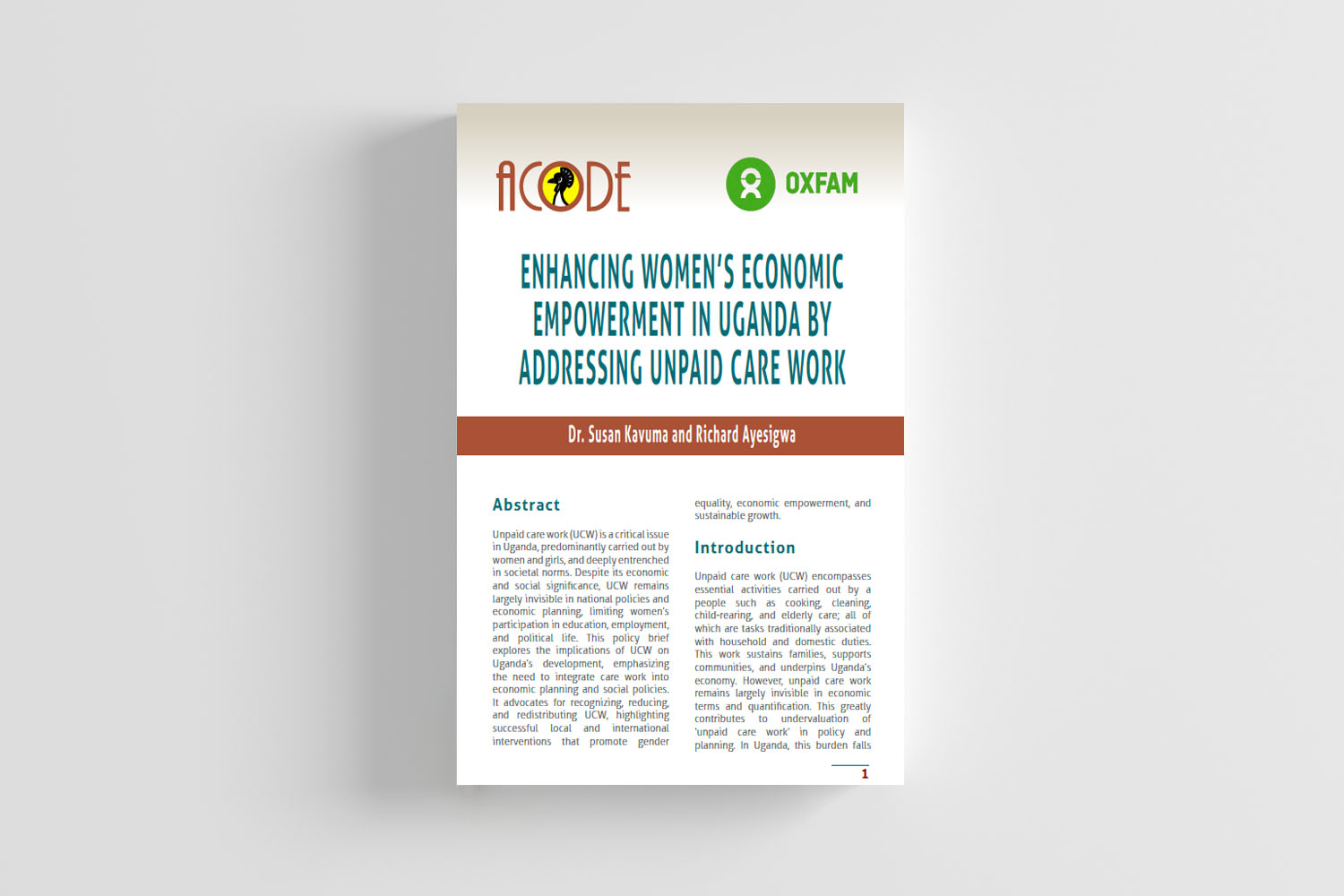
Enhancing Women’s Economic Empowerment in Uganda by Addressing Unpaid Care Work
Author(s): Dr. Susan Kavuma and Richard Ayesigwa
Published: 2025
Unpaid care work (UCW) is a critical issue in Uganda, predominantly carried out by women and girls, and deeply entrenched in societal norms. Despite its economic and social significance, UCW remains largely invisible in national policies and economic planning, limiting women's participation in education, employment, and political life. This policy brief explores the implications of UCW on Uganda's development, emphasizing the need to integrate care work into economic planning and social policies. It advocates for recognizing, reducing, and redistributing UCW, highlighting successful local and international interventions that promote gender equality, economic empowerment, and sustainable growth.
View PDF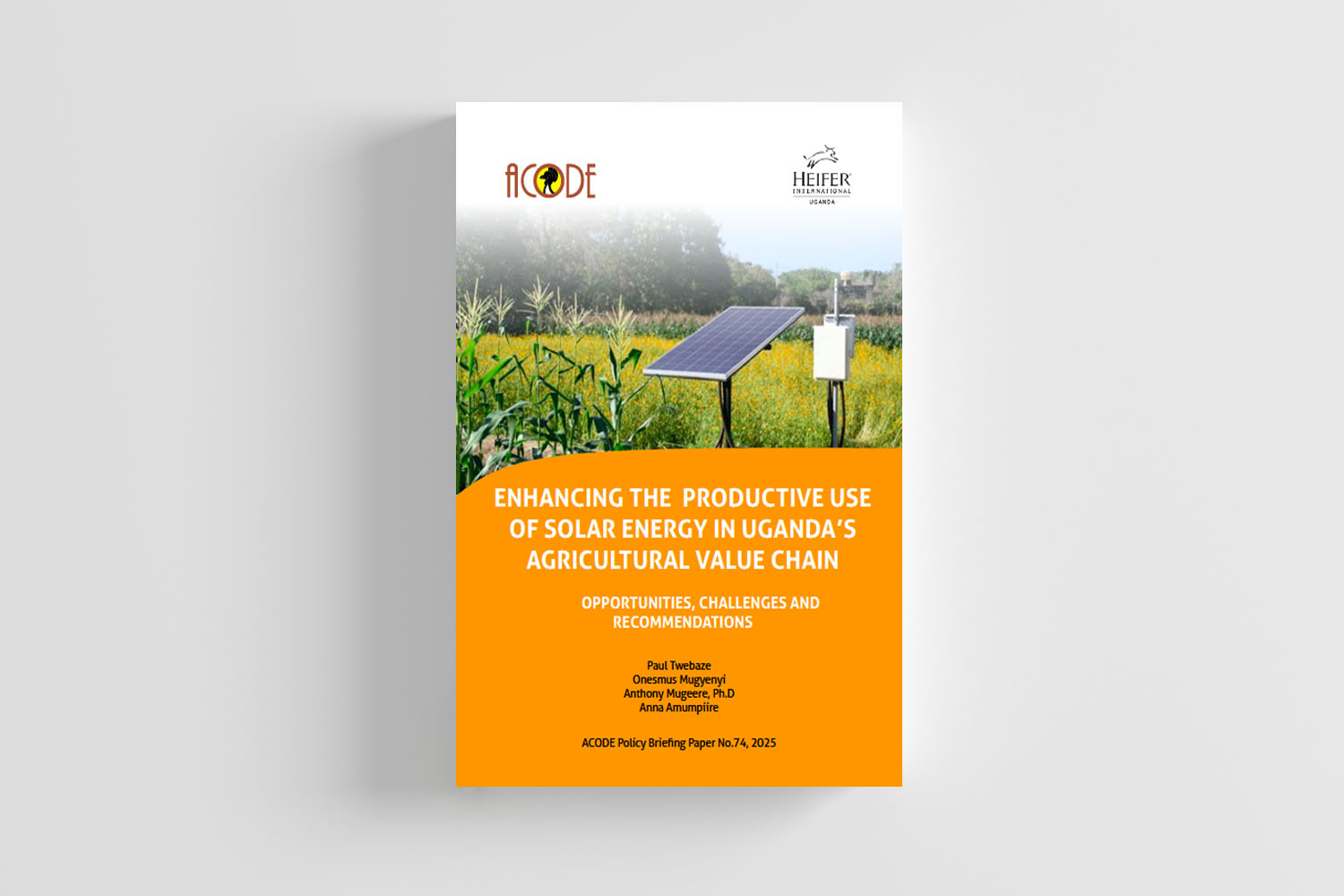
Enhancing the Productive Use of Solar Energy in Uganda’s Agricultural Value Chain: Opportunities, Challenges and Recommendations
Author(s): Paul Twebaze, Onesmus Mugyenyi, Anthony Mugeere, and Anna Amumpiire
Published: 2025
This policy brief presents key policy and practice issues and makes recommendations aimed at enhancing and scaling up of Productive Use of Solar Energy (PUSE) in Uganda’s Agricultural Value chain. It's targeting key policy and decision makers (i.e., Ministries, Departments, Authorities, Civil Society Organizations, and Private Sector) with mandate and responsibility for implementation of policy and legal frameworks that promote enhancement and scaling up of PUSE in Agricultural value chains in Uganda. The productive use of solar energy for agriculture not only has the potential to improve the viability of energy access business models, but it is also a means to achieve broader socio-economic goals. For example, a survey on the uses and impacts of off-grid refrigerators in Kenya, Tanzania, and Uganda concludes that 72% of the interviewed people experience increased income and business growth after using off-grid refrigeration. Furthermore, promoting PUSE can improve the viability of solar mini-grid projects by increasing demand for energy and providing stable demand during the daytime.
View PDF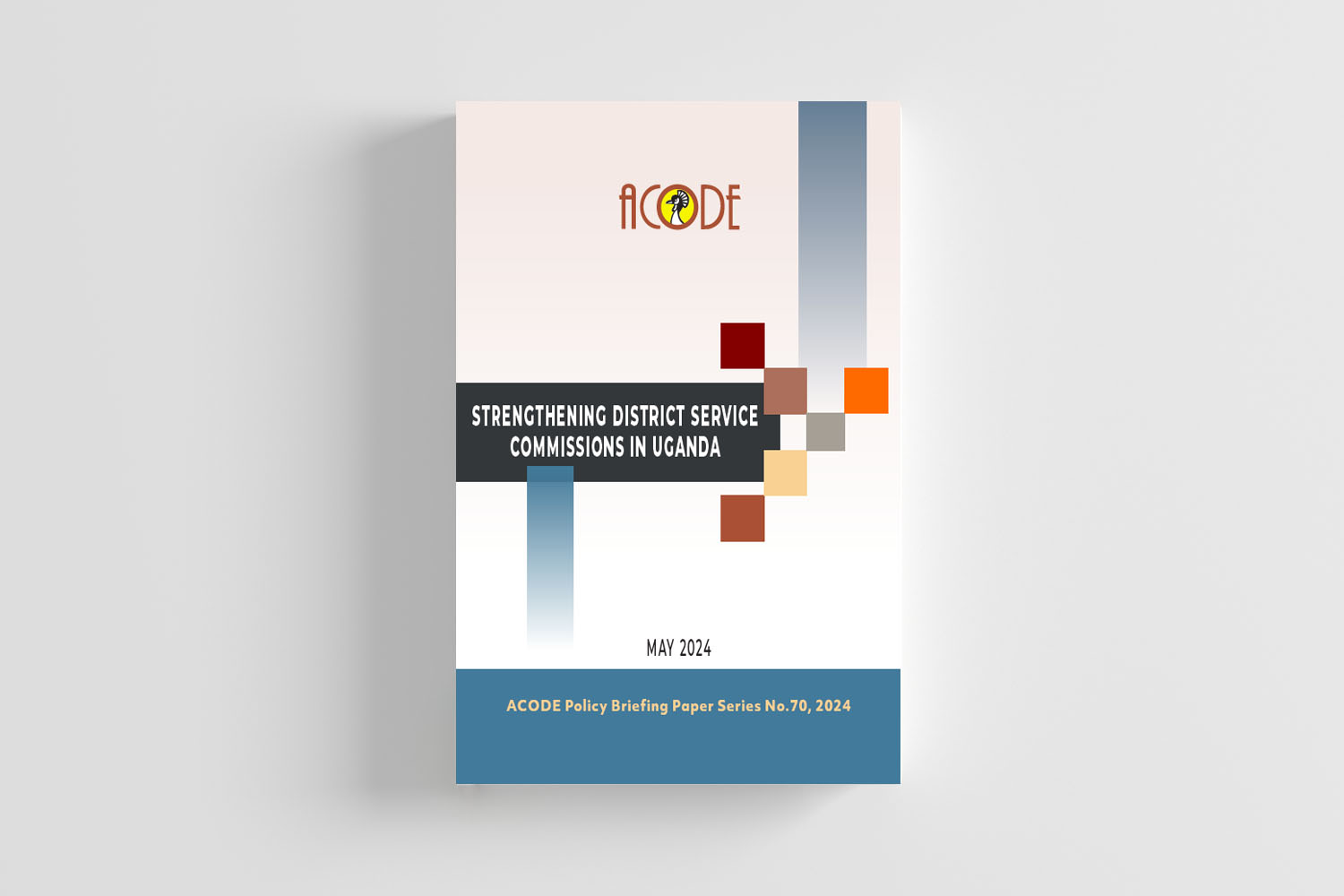
Strengthening District Service Commissions in Uganda
Author(s): ACODE
Published: 2024
This policy brief provides an analysis of the performance of the District Service Commissions (DSCs) in Uganda’s decentralization efforts. It draws extensively from the ACODE (2023) study titled “Beyond Compliance: A Performance Assessment of Statutory Boards and Commissions in Uganda’s Local Governments FY 2021/2022” to assess the functionality and performance of DSCs. Furthermore, it integrates insights from ACODE’s capacity-building training sessions conducted across 35 districts in Uganda. Building upon these insights, the policy brief offers insights into the performance of the District Service Commissions (DSCs) and policy recommendations aimed at optimizing the effectiveness of Cities/District Service Commissions in Uganda.
View PDF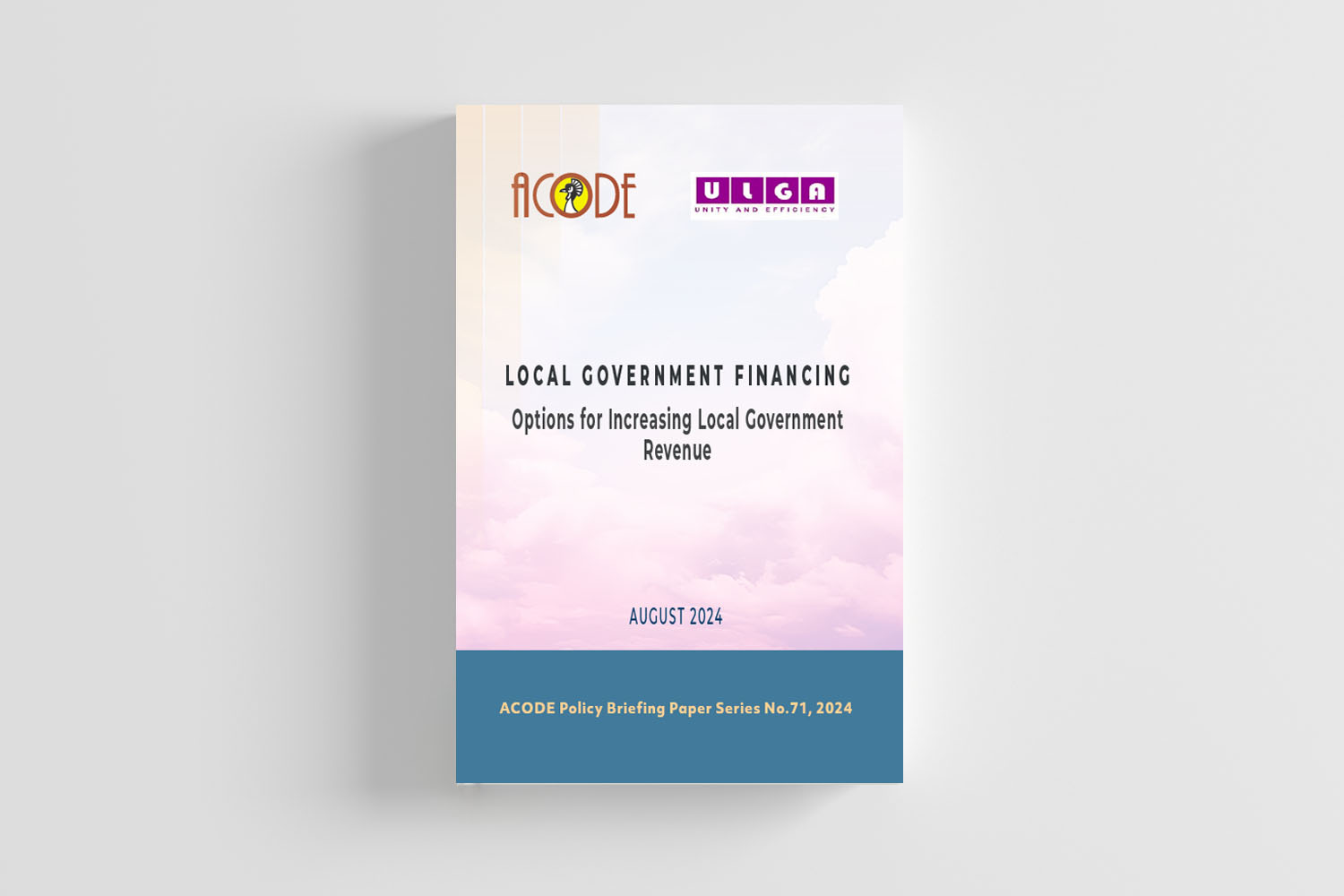
Local Government Financing: Options for Increasing Local Government Revenues
Author(s): ACODE and ULGA
Published: 2024
Local governments need resources to finance the services and activities for which they are responsible. Understanding the dynamics of local government revenue sources, capacity and management is crucial for policy makers. Many local governments depend on support from the central government. Local governments in Uganda still have low revenue collection, leading to severe service delivery gaps. As resources available to local governments continue to dwindle, options for increasing revenue to these entities must be explored. Therefore, this policy brief presents innovations or opportunities for local government financing and options for expanding revenue streams for local government.
View PDF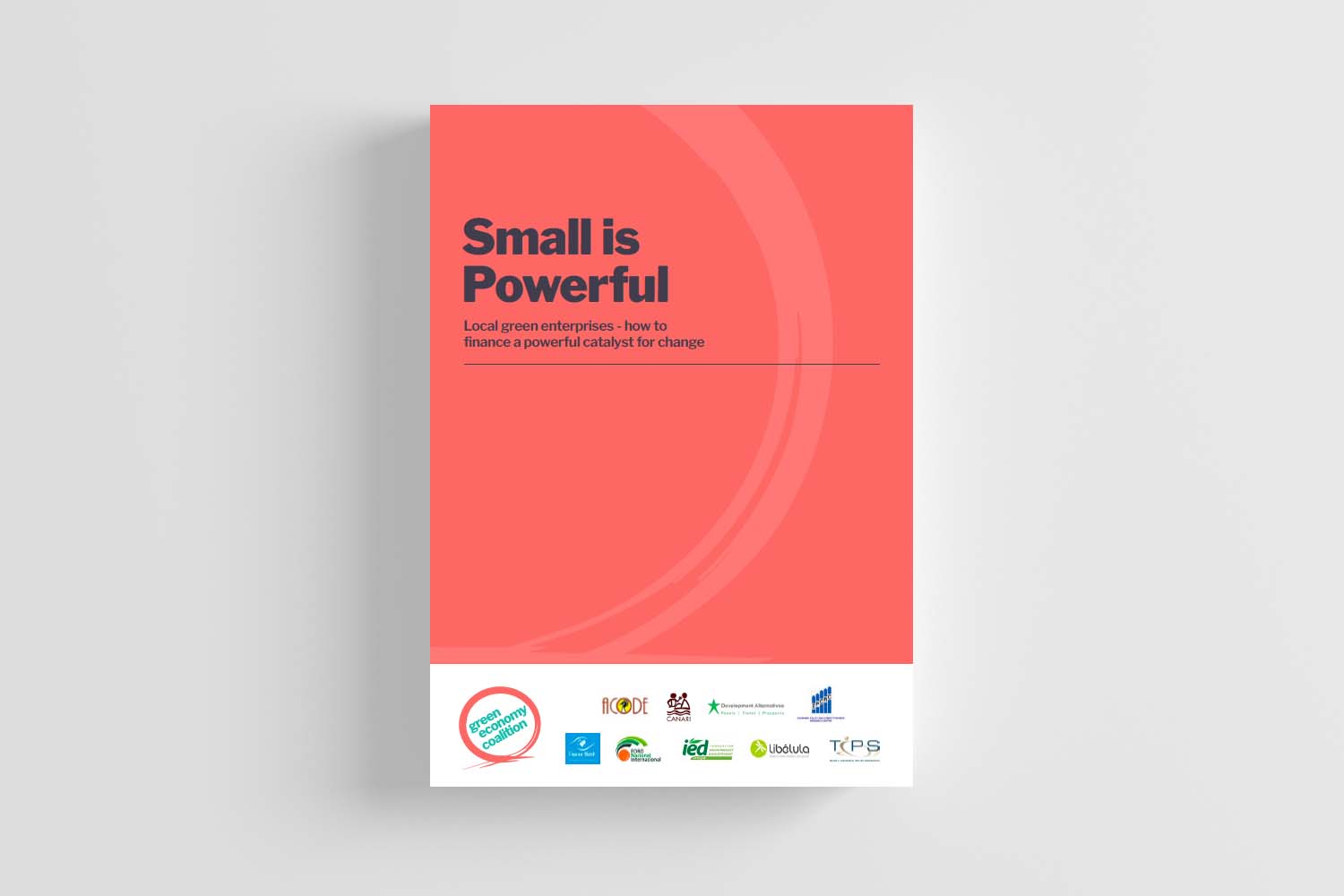
Small is Powerful: Local green enterprises - how to finance a powerful catalyst for change
Author(s): Green Economy Coalition
Published: 2023
Local Green Enterprises are MSMEs that have a positive effect on their local environment, community, society, or economy, often using the triple bottom line approach that assesses economic, environmental, and social impact together. Being locally rooted, these firms are responsive to the needs of their communities and prioritise responsible operations that create jobs, husband local resources and bring prosperity to local people. As such, they tend to increase the economic resilience and security of national economies.
View PDF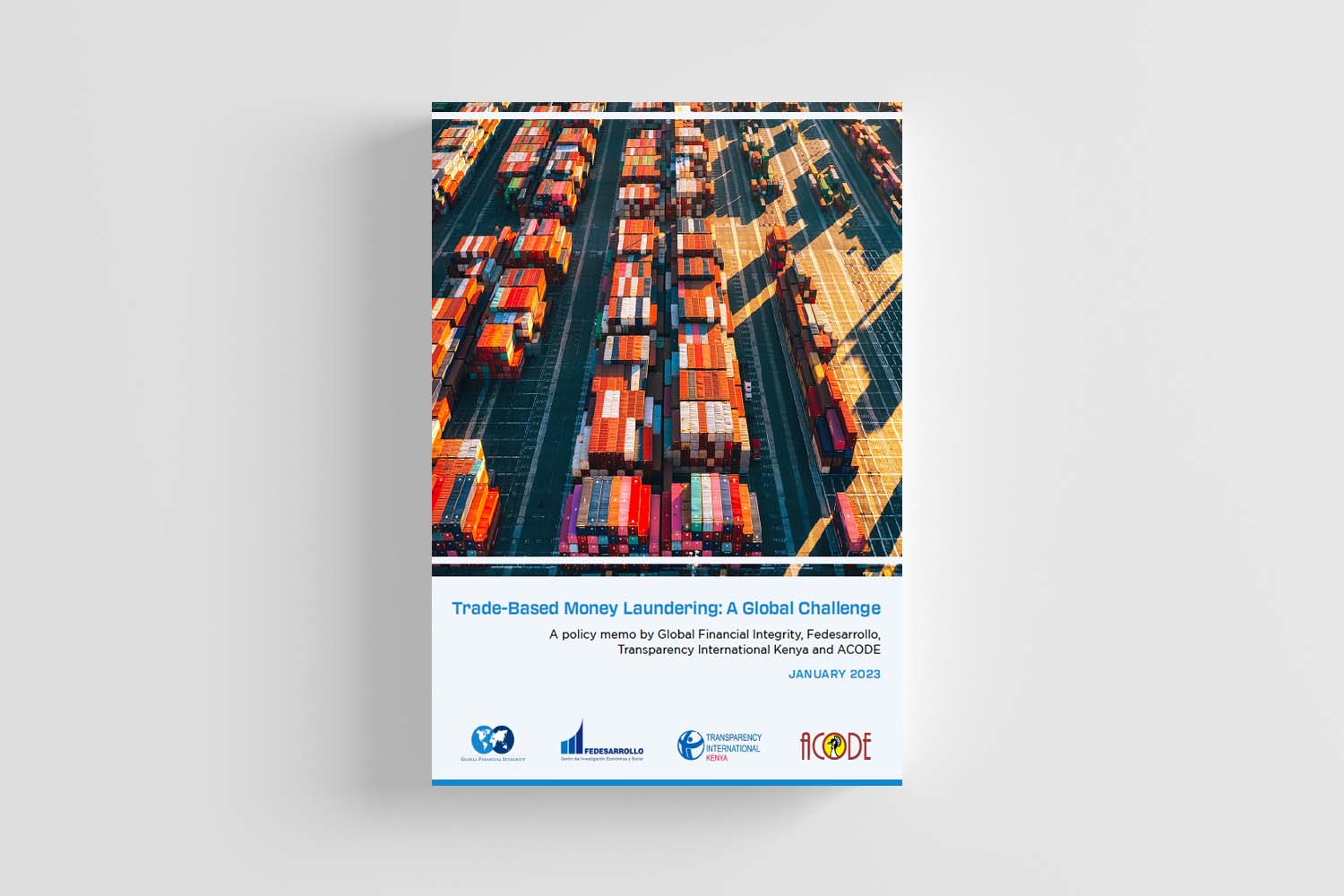
Trade-Based Money Laundering: A Global Challenge
Author(s): GFI, Fedesarrollo, Transparency International Kenya, and ACODE
Published: 2023
The study analyzes the numerous challenges of TBML from a global policy perspective. The publication describes TBML as “disguising the proceeds of crime [by] moving value through the use of (legitimate) trade transactions.” The report provides an in-depth analysis of the most common TBML methodologies, which include over- and under-invoicing of goods; misrepresentation of goods being shipped; multiple invoicing of goods; over- and under-shipment or phantom shipments; the black market peso exchange; and the use of informal value transfer systems. Mis-invoicing was the most common methodology, representing 63 percent of cases. The paper finds that this illicit activity poses complex problems for law enforcement while also undermining global development. The report concludes with an analysis of current policy efforts as well as recommendations for ways to bolster the fight against TBML going forward.
View PDF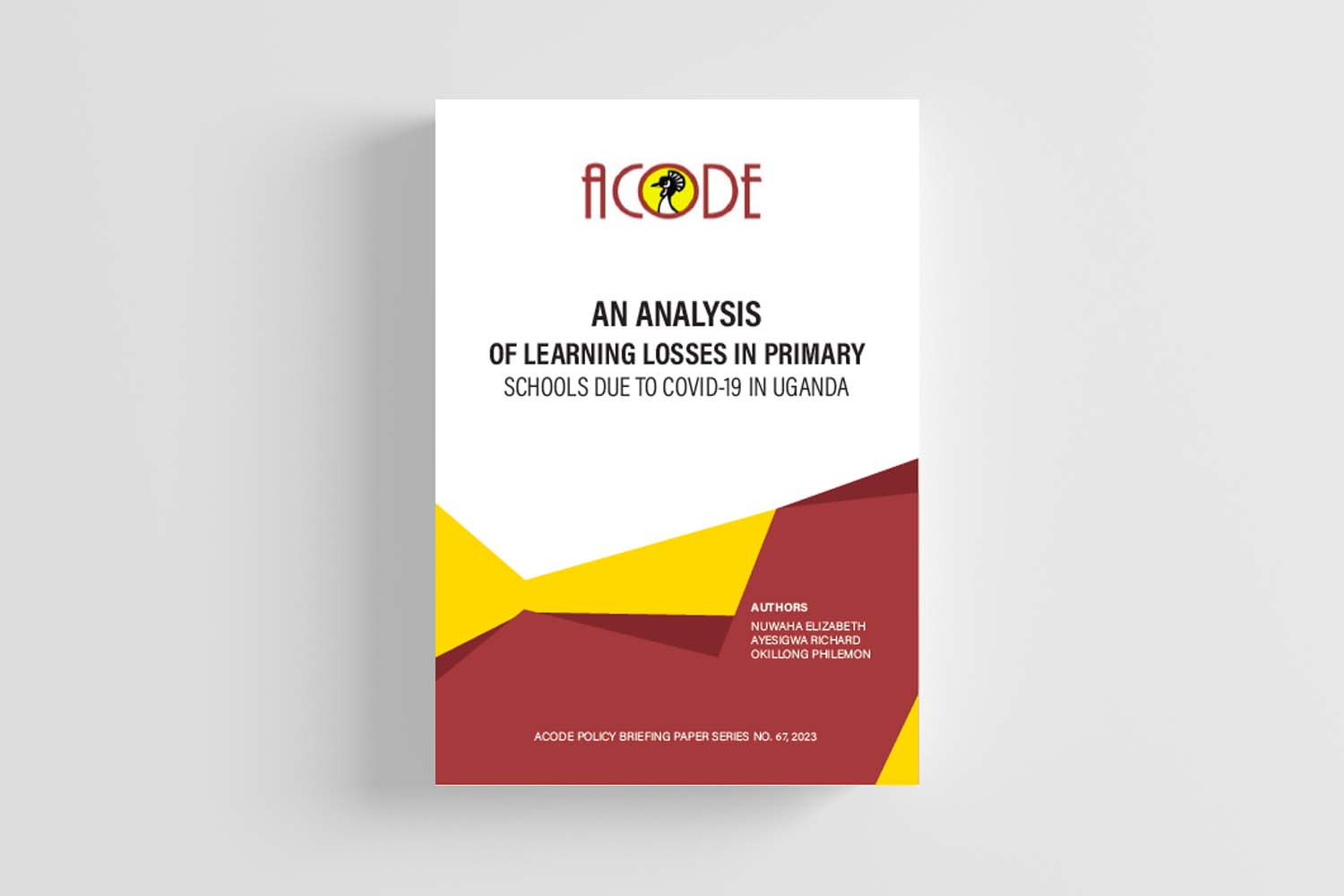
An Analysis of Learning Losses in Primary Schools due to COVID-19 in Uganda
Author(s): Elizabeth Nuwaha, Richard Ayesigwa, and Philemon Okillong
Published: 2023
This policy briefing paper examines the impact of the COVID-19 pandemic on learning losses in primary schools in Uganda and suggests possible policy recommendations to curb the learning losses. This paper focuses on primary education because it had the highest level of learners (10.7 million) followed by secondary (2 million) and pre-primary (2 million) and finally tertiary (311,556) bringing the total of learners in Uganda to about 15.1 million.
View PDF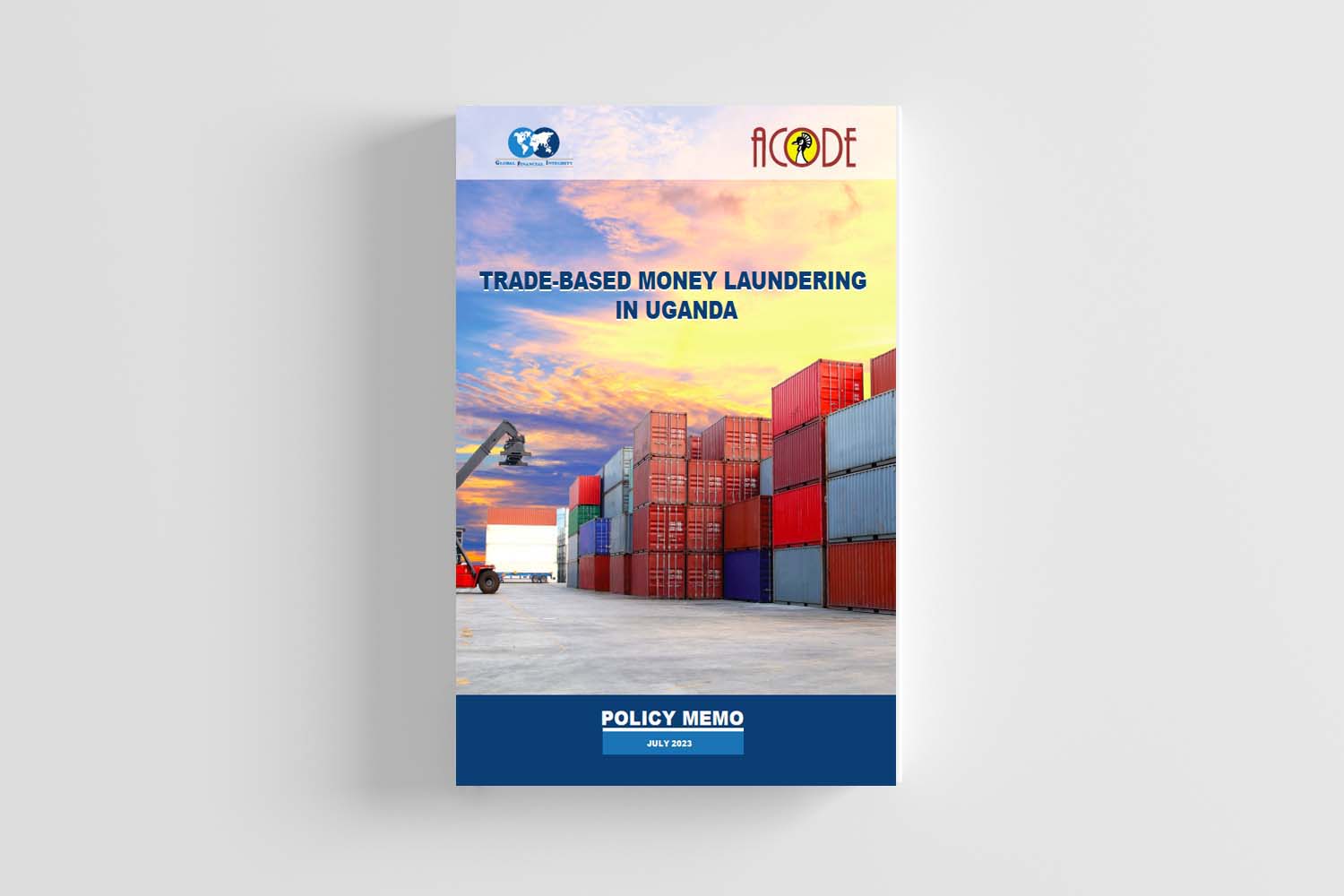
Trade-Based Money Laundering in Uganda
Author(s): Onesmus Mugyenyi, Phoebe Atukunda, Eugene Ssemakula, Robert Ssuuna, and John Okiira
Published: 2023
Trade-Based Money Laundering (TBML) as one of the forms of IFFs has become a commonly used method to launder money. TBML is one of the most sophisticated methods of money laundering, and since it resembles legitimate trade, it is the hardest to detect by financial institutions and customs authorities. TBML largely involves giving false information on imports and exports through over/under-billing, multiple billing, over/under shipping, and quality misrepresentation. Compared to more conventional kinds of money laundering, TBML seems to be less understood by policymakers, yet its impact can have a significant effect on global trade and tax income.7 This policy memo, therefore, seeks to contribute to understanding the landscape of trade-based money laundering in Uganda.
View PDF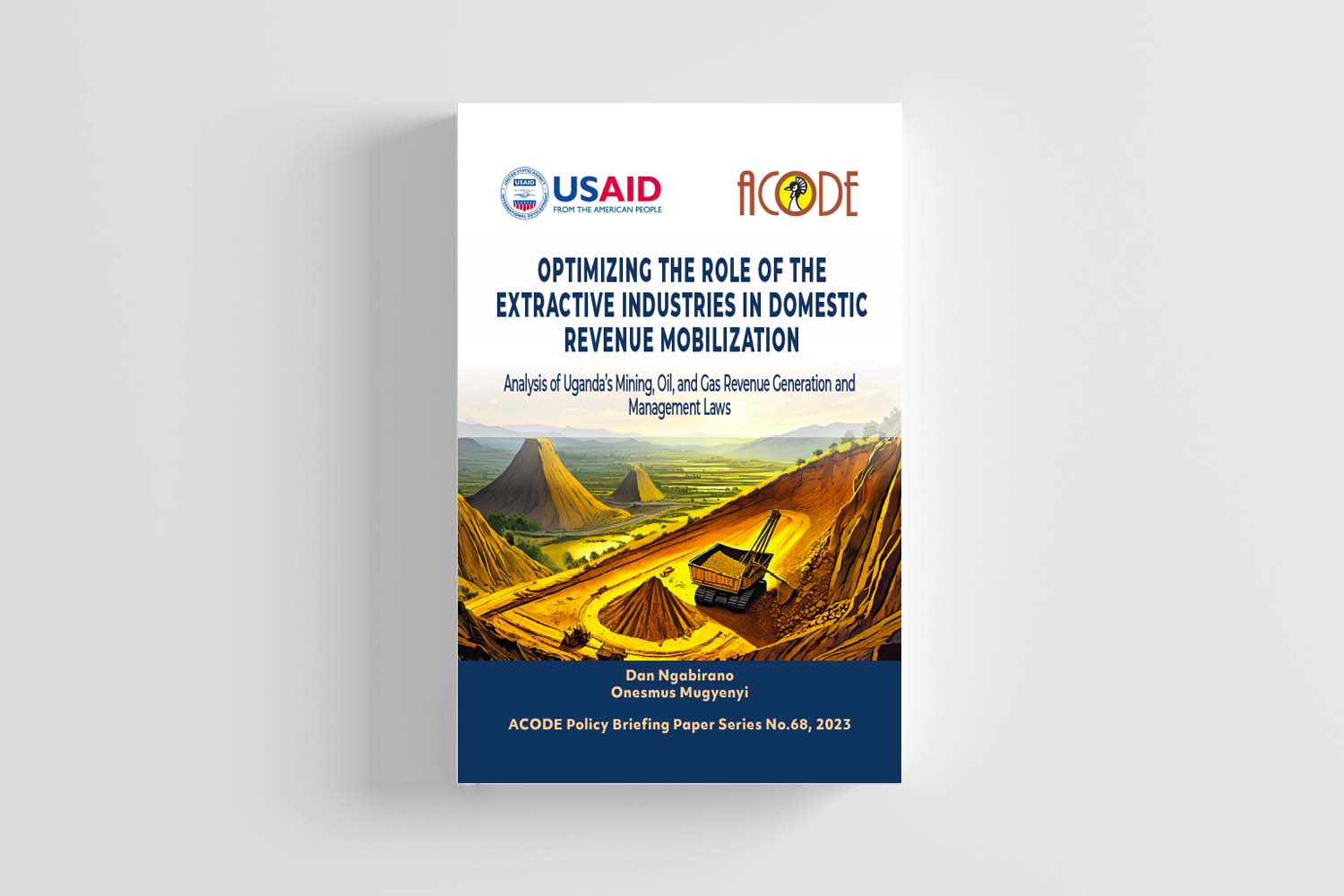
Optimizing the Role of the Extractive Industries in Domestic Revenue Mobilization: Analysis of Uganda’s Mining, Oil, and Gas Revenue Generation and Management Laws
Author(s): Dan Ngabirano and Onesmus Mugyenyi
Published: 2023
In the aftermath of the devastating effects of global COVID-19 pandemic, and in an environment of increasingly dwindling development assistance, developing countries have been urged to embrace Domestic Revenue Mobilization (DRM). As opposed to aid and the different forms of public debt financing, DRM is a more reliable and sustainable form of funding. For this reason, Uganda adopted a five-year Domestic Revenue Mobilisation Strategy (DRMS) in 2019. The key objective of the strategy is to improve revenue collection and lift the country’s tax-to-GDP ratio from the current 13% to between 16%-18%. More critically, the DRMS recognizes the strategic role of oil, gas, and mineral revenues in achieving this strategic objective, and the broader contribution of the extractive industries to national development. Consequently, the DRMS underlines the need for the development of a strong extractive industries taxation fiscal regime.
View PDF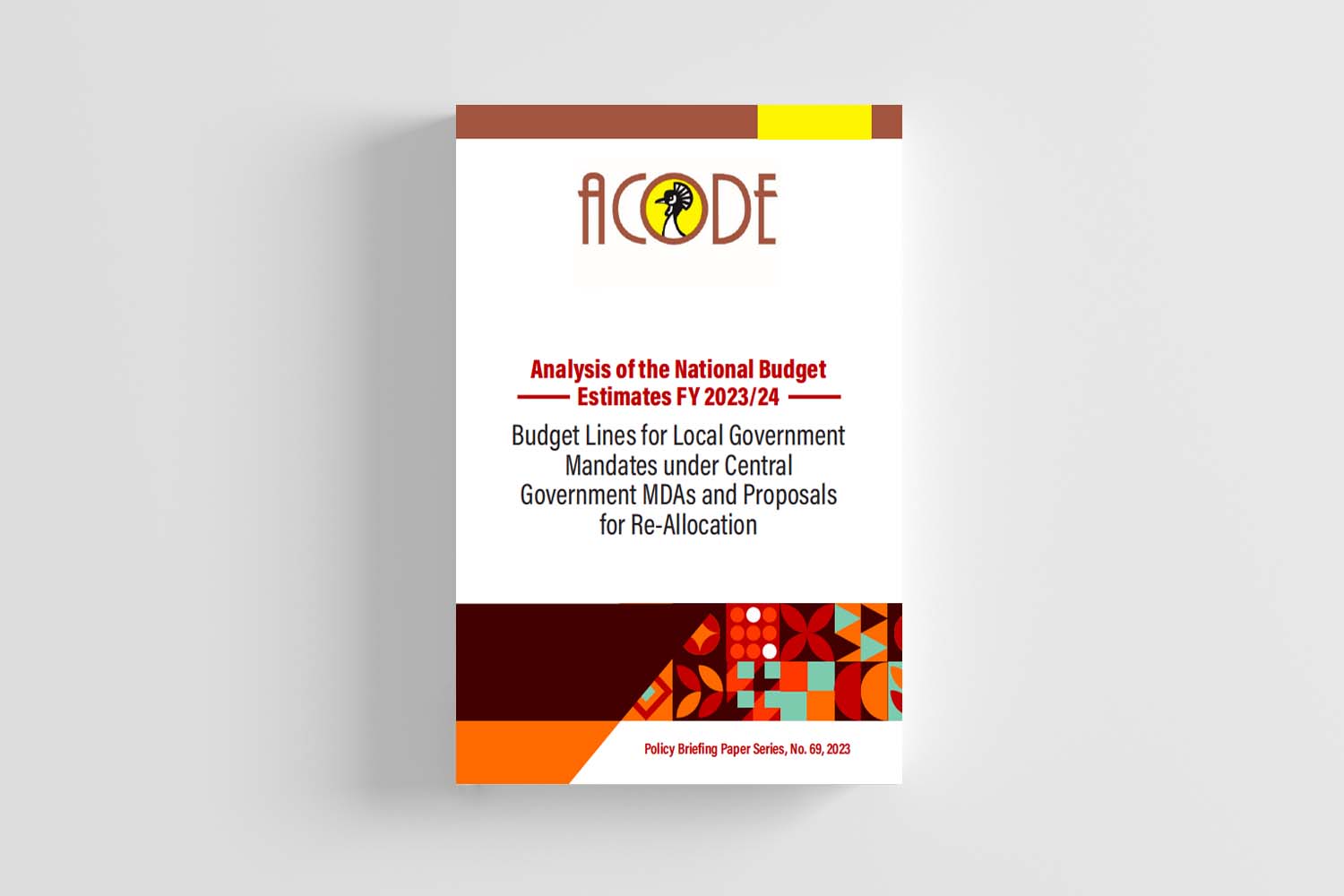
Analysis of the National Budget Estimates FY 2023/24: Budget Lines for Local Government Mandates under Central Government MDAs and Proposals for Re-Allocation
Author(s): ACODE
Published: 2023
This is a summary of the analysis of the National Budget for FY2023/24. This analysis identifies budget lines for local government mandates held by Ministries, Departments, and Agencies. This report recognizes that by enabling Local Governments to provide services to the citizens, the Central Government of Uganda is required to provide them grants in the form of unconditional, conditional, and equalization. However, over the last decade, there has been a decline in the share of transfers from CG to LGs. The percentage of the national budget allocated to LG programmes has been reduced from 22 percent in FY 2010/11 to 13 percent in FY 2015/16 and fell further to 9.8 percent in FY 2023/14. The decline is primarily attributed to recentralization of functions and resources which by law are mandated under LGs.
View PDF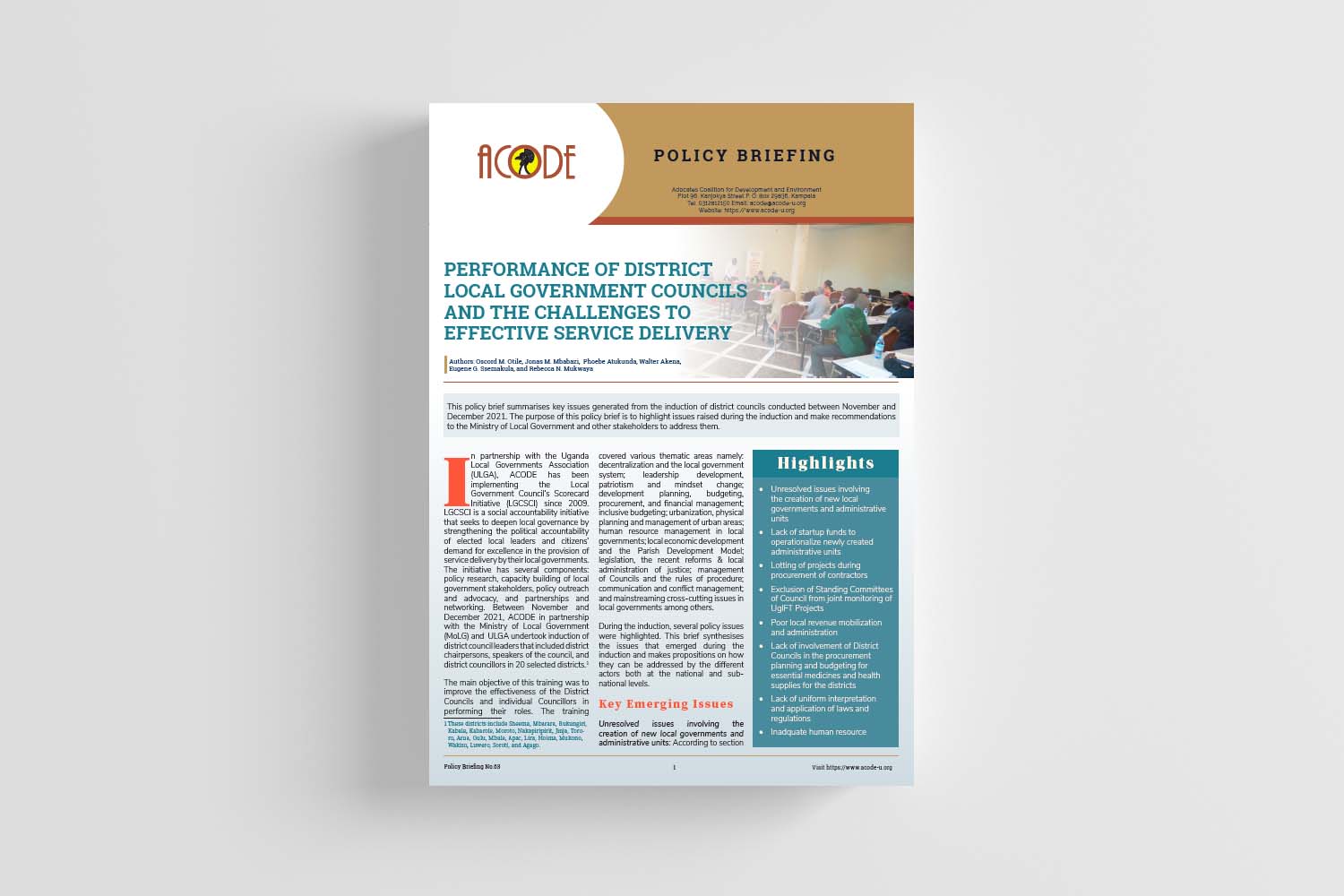
Performance of District Local Government Councils and the Challenges to Effective Service Delivery
Author(s): Oscord M. Otile, Jonas M. Mbabazi, Phoebe Atukunda, Walter Akena, Eugene G. Ssemakula, and Rebecca N. Mukwaya
Published: 2022
This policy brief summarises key issues generated from the induction of district councils conducted between November and December 2021 conducted by ACODE and partners. The brief highlights key issues raised during the induction and makes recommendations to the Ministry of Local Government and other stakeholders to address them.
View PDF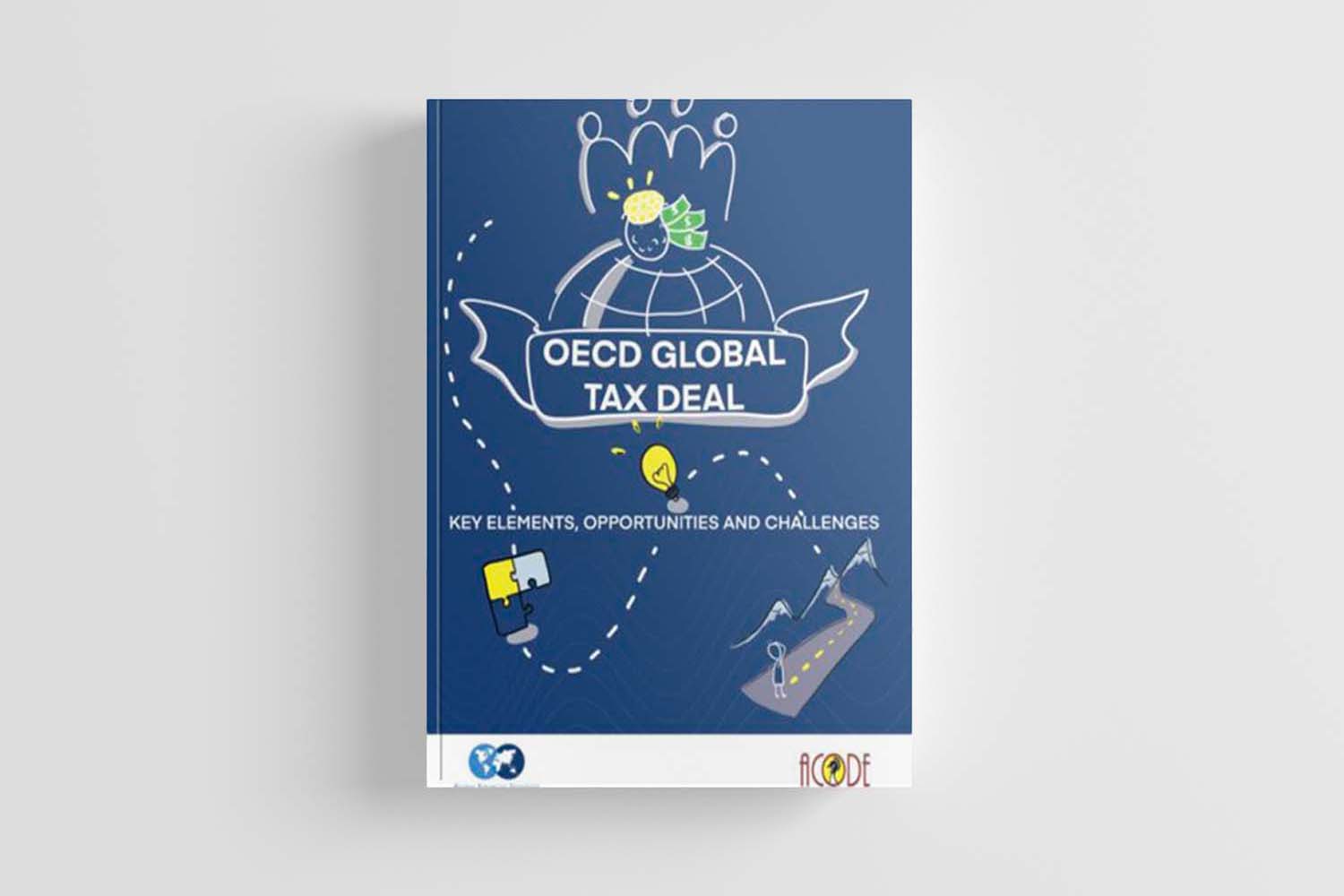
OECD Global Tax Deal: Key Elements, Opportunities, and Challenges
Author(s): GFI and ACODE
Published: 2022
The global tax deal represents a major reform to the rules governing the international tax system, aiming to bring an end to tax havens and profit-shifting by multinational enterprises (MNEs). By introducing a global minimum tax rate and new profit reallocation rules, the deal aims to give countries a fairer chance to collect tax revenues from MNEs operating in or generating revenues from their jurisdictions. The deal was negotiated under the OECD/ G20 Inclusive Framework on Base Erosion and Profit Shifting (BEPS) and finalized in October 2021.
View PDF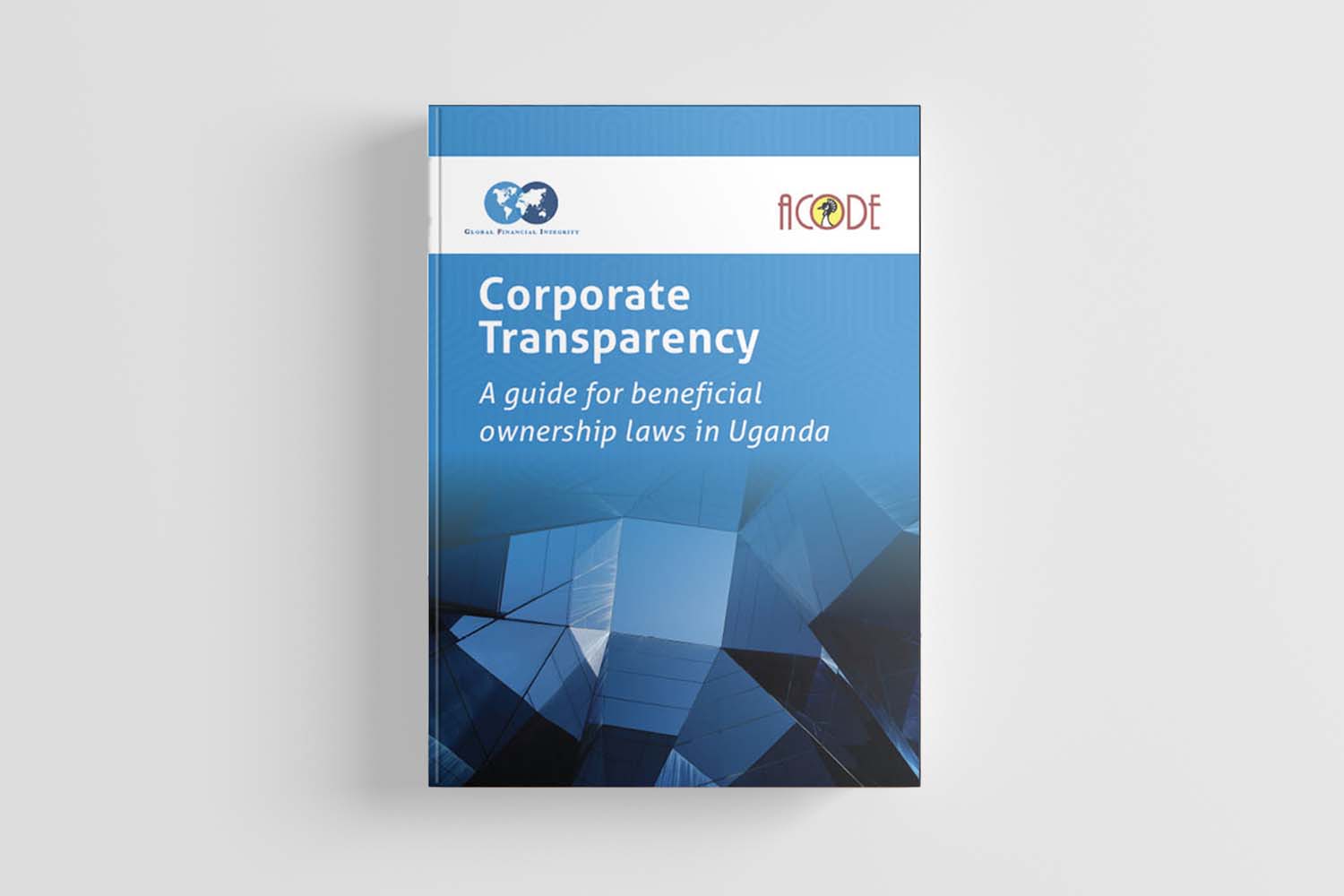
Corporate Transparency: A guide for beneficial ownership laws in Uganda
Author(s): ACODE and GFI
Published: 2022
This paper is a contribution to legal reforms in Uganda that are intended to take care of beneficial ownership transparency. It seeks to tackle some of the questions that ought to be addressed in the course of streamlining beneficial ownership disclosure in Uganda. Globally, beneficial ownership transparency has emerged as a critical tool in identifying and stemming Illicit Financial Flows (IFFs) resulting from corruption, money laundering, terrorism financing and other financial crimes. Beneficial ownership transparency limits individuals from hiding behind shell companies to carry out illegal transaction that deny governments the necessary revenues to finance development programs.
View PDF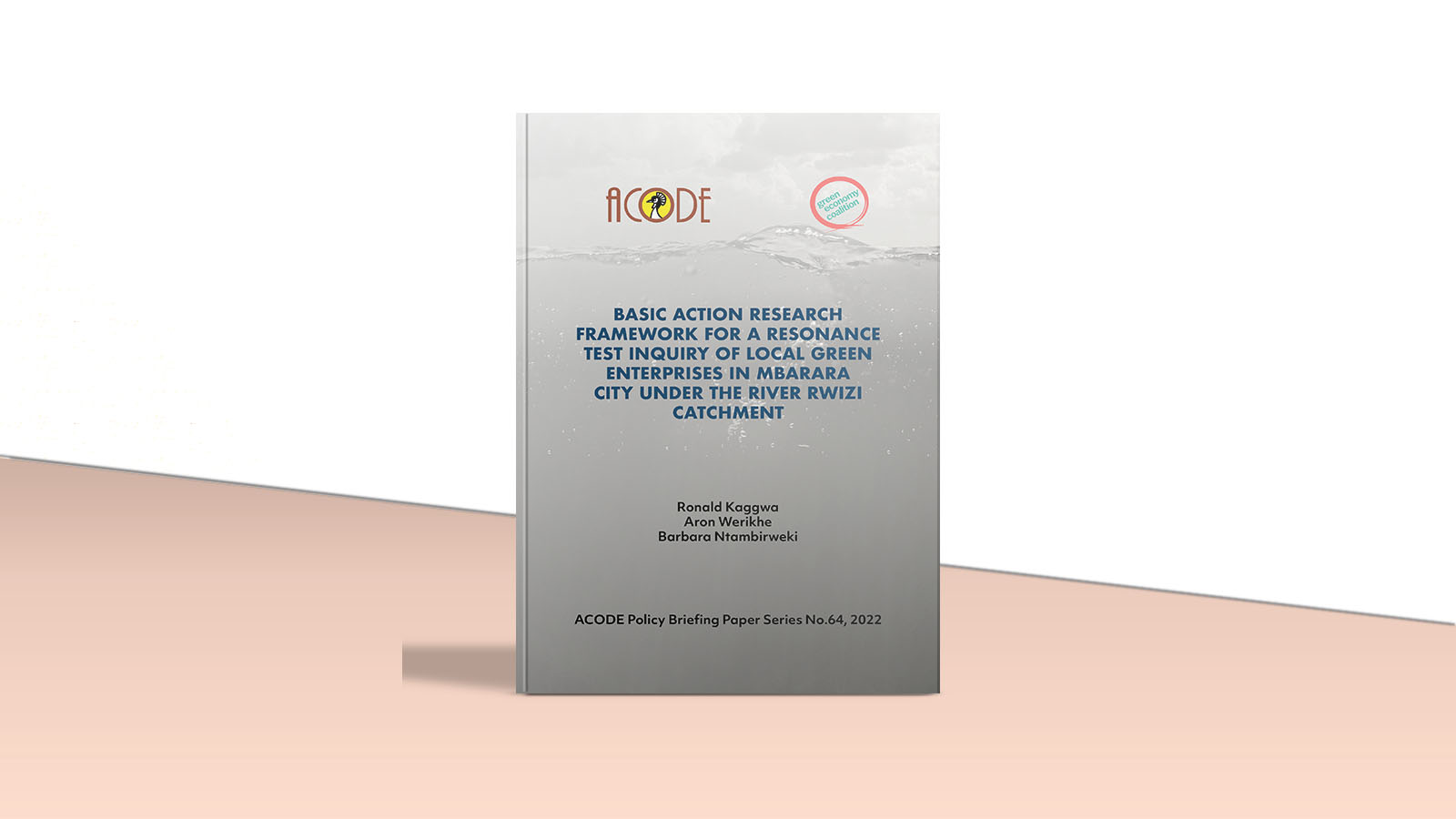
Basic Action Research Framework for a Resonance Test Inquiry of Local Green Enterprises in Mbarara City under the River Rwizi Catchment
Author(s): Ronald Kaggwa, Aron Werikhe, and Barbara Ntambirweki
Published: 2022
This briefing paper is a product of the resonance test evidence inquiry that sought to develop an action research framework through which the challenges and issues faced by green MSMEs (LGEs), their responsive actions, and the results of those actions were explored. It is expected that the action research framework will generate evidence and offer critical insights into the underlying causes that have given rise to these issues and inform policies that will unlock the potential of LGEs.
View PDF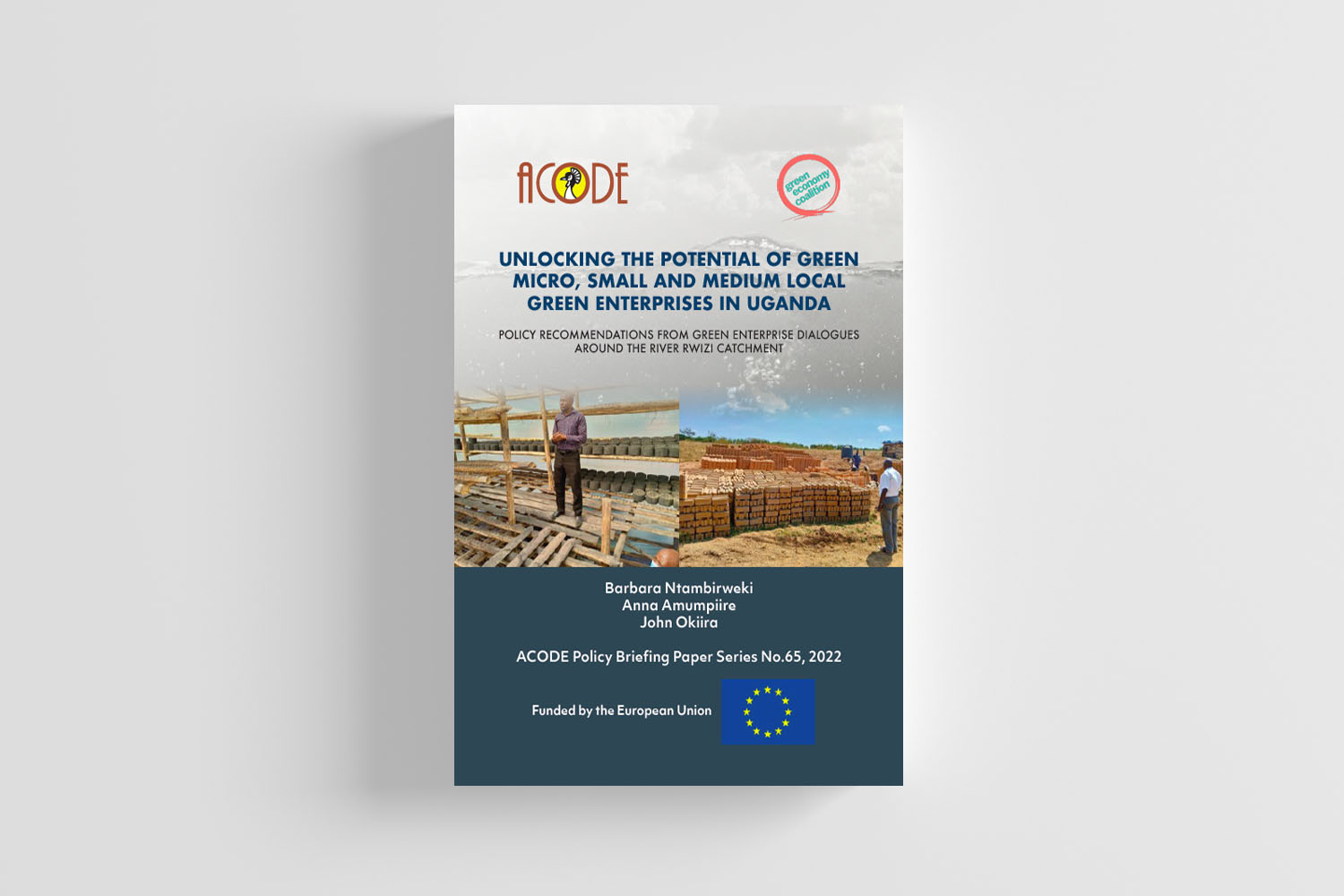
Unlocking the Potential of Green Micro, Small and Medium Local Green Enterprises in Uganda: Policy Recommendations from Green Enterprise Dialogues around the River Rwizi Catchment
Author(s): Barbara Ntambirweki, Anna Amumpiire, and John Okiira
Published: 2022
This briefing paper highlights key challenges facing green MSMEs/LGEs and provides clear policy recommendations to foster the sustainability of these enterprises. These recommendations were drawn from the policy dialogues that were convened by ACODE with key policymakers and stakeholders.
View PDF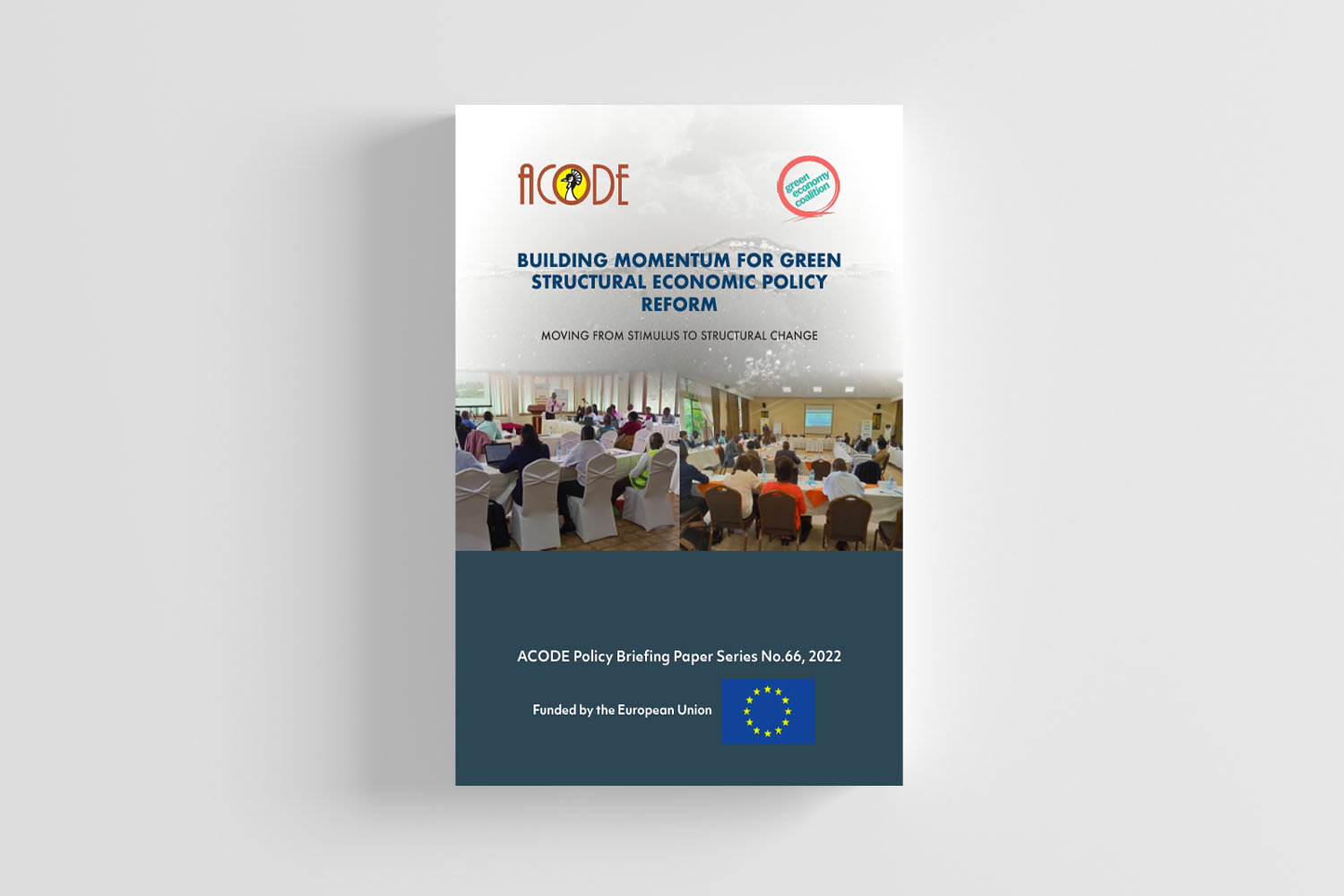
Building Momentum For Green Structural Economic Policy Reform: Moving from Stimulus to Structural Change
Author(s): ACODE
Published: 2022
This Policy Briefing paper underscores emerging issues and polity proposals on greening COVID-19 development recovery in Uganda. It draws on regional and national dialogues held by the Advocates Coalition for Development and Environment (ACODE). Both dialogues had a shared objective: to build national momentum for green structural economic-policy reform. In this pursuit, the dialogues sought to achieve the following specific objectives: (i) to disseminate the findings of the study on ‘Mainstreaming Sustainable Natural Capital Management into Uganda’s COVID-19 Recovery Packages’; (ii) to trigger multi-stakeholder discussions in the ways in which institutional actors (state and non-state alike) can influence economic decision making and shape public discourse to promote green recovery as a strategy for COVID-19 recovery to secure a resilient and sustainable economy for the long term; and (iii) to share with key stakeholders the observations made from the green economy tracker which captures data on Uganda’s policies for a Green COVID-19 Recovery Process.
View PDF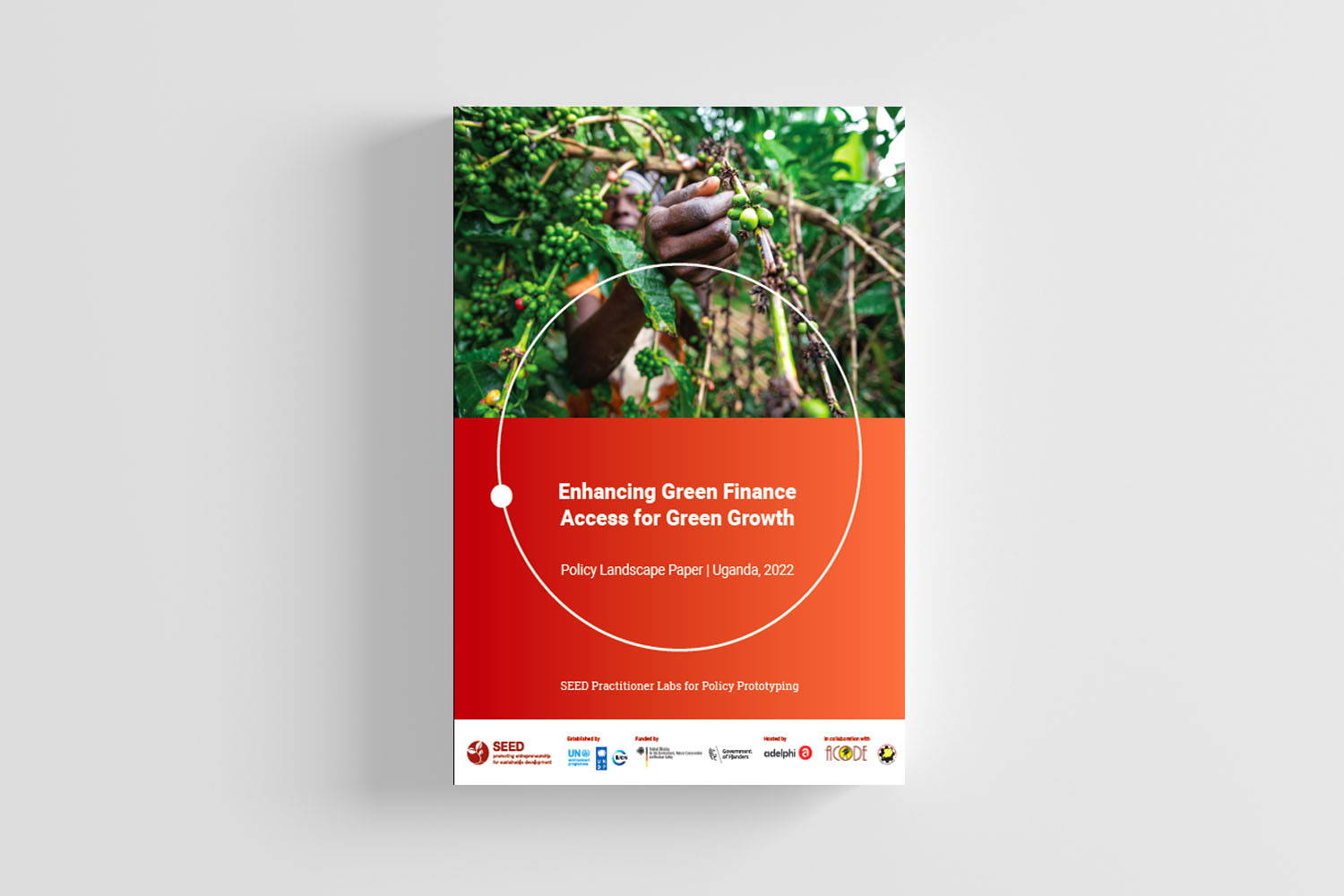
Enhancing Green Finance Access for Green Growth. Policy Landscape Paper Uganda, Berlin, Germany
Author(s): SEED, ACODE, and NPA
Published: 2022
Access to affordable finance plays a formidable catalytic role in the transition to a green economy. Uganda faces several key challenges on securing financing for the private sector in general and particularly in the local green sector. Yet an effective transition to a green economy is dependent on the availability of adequate funding for green initiatives. It is noteworthy that whilst green growth offers immense social, economic and environmental benefits, especially in the medium to the long term, it entails huge capital investment in the long term. Uganda has made significant strides in ensuring Green Finance for the effective transition to a green economy.
View PDF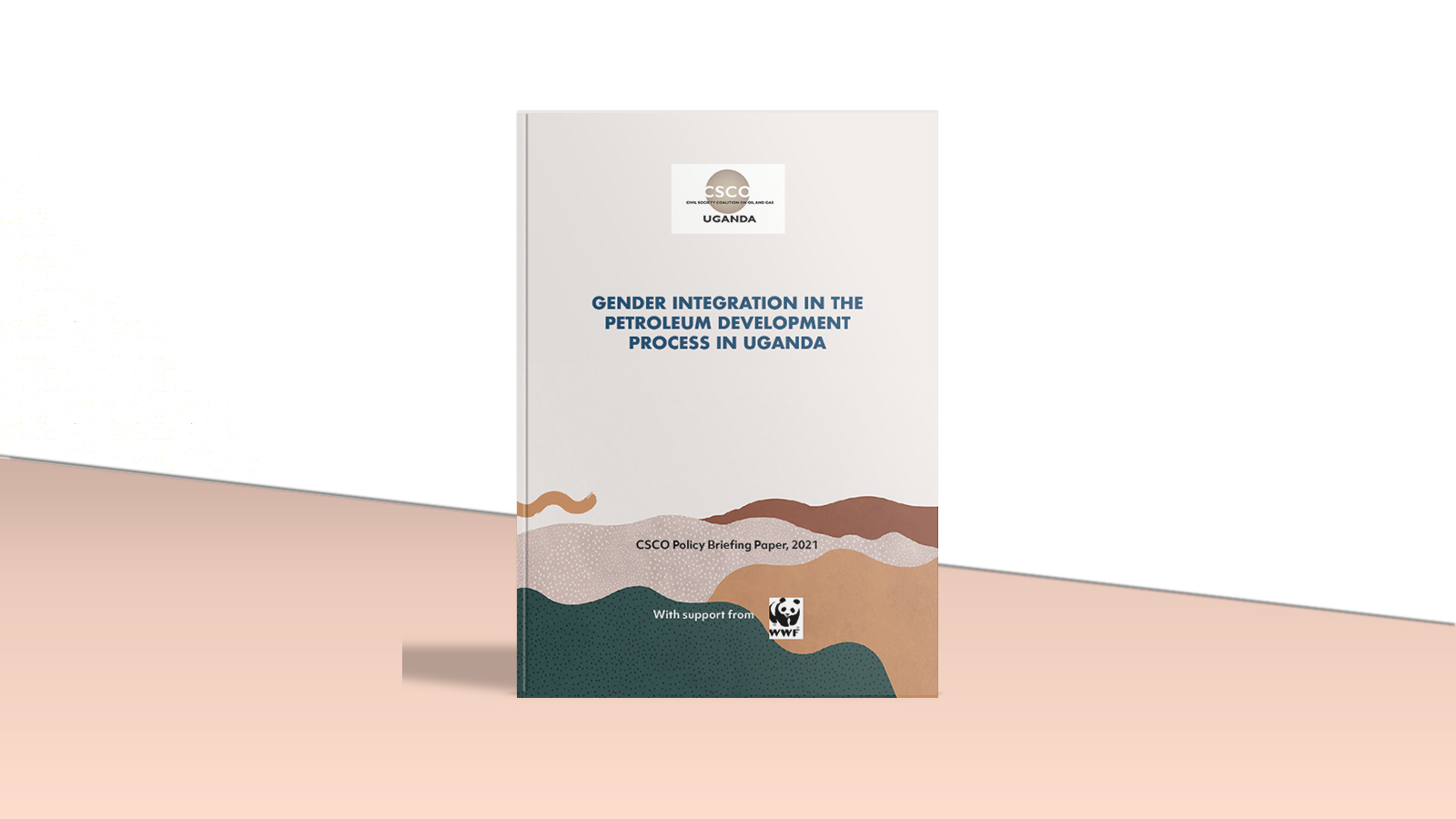
Gender Integration in the Petroleum Development Process in Uganda
Author(s): CSCO
Published: 2021
This brief points out the critical areas and actions that require the attention of various actors in order to enhance gender inclusion. While the country is excited about these developments and expects the first oil in 2025, there are a number of areas that need attention to ensure inclusive sector development. One of such areas is gender inclusion. In many oil and gas producing countries, the sector is male gender dominated which undermines gender equality and sustainable development. In order to move from this status quo and to avoid the oil sector in Uganda following suit, there is a need to identify the required actions and responsible parties that can bring about the desired changes.
View PDF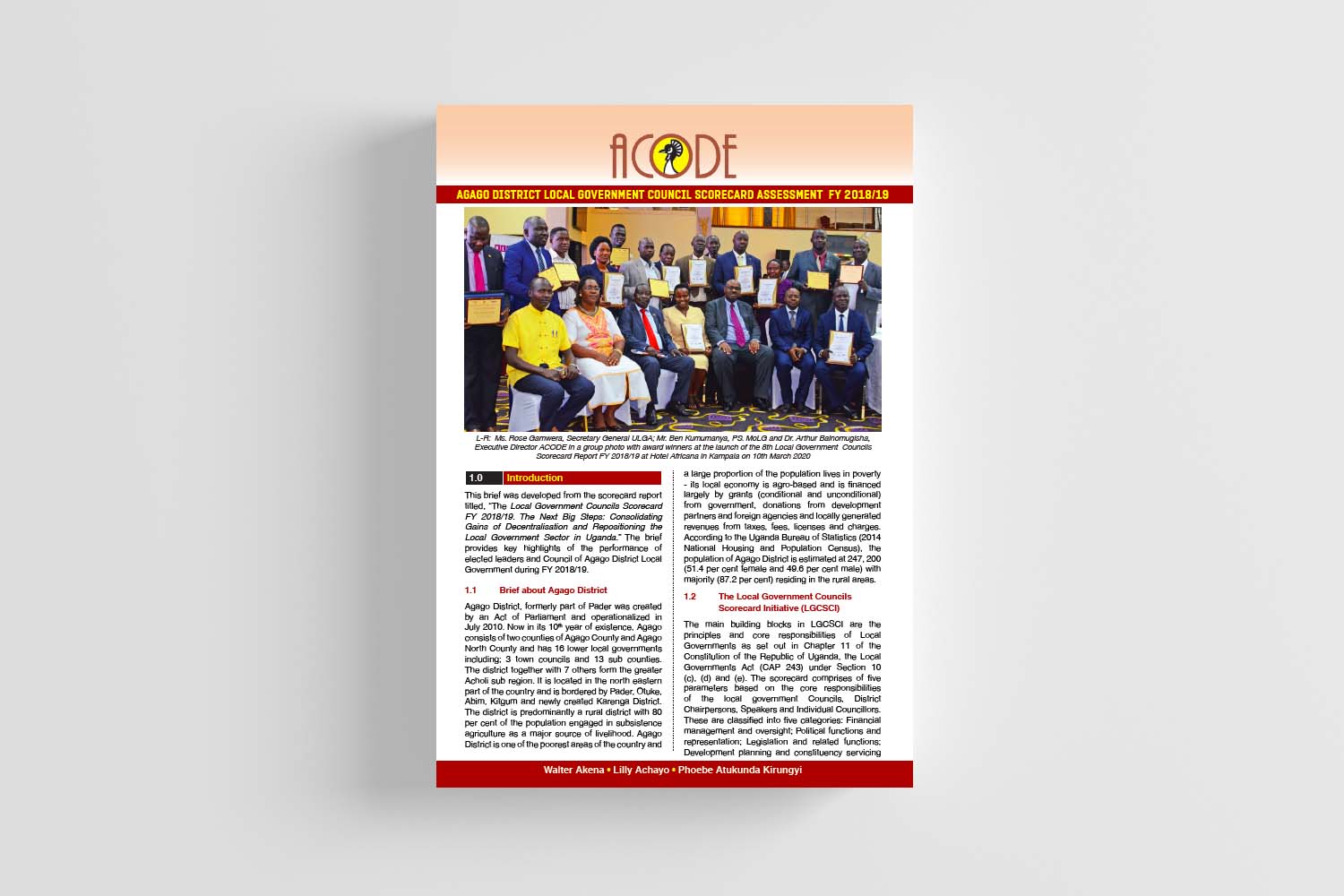
Agago Local Government Council Scorecard Assessment FY 2018/19
Author(s): Walter Akena, Lilly Achayo, and Phoebe Atukunda
Published: 2020
This brief is extracted from the scorecard report titled “The Local Government Councils Scorecard FY 2018/19. The Next Big Steps: Consolidating Gains of Decentralisation and Repositioning the Local Government Sector in Uganda.” The brief provides key highlights of the performance of elected leaders and the Council of Agago District Local Government during FY 2018/19.
View PDF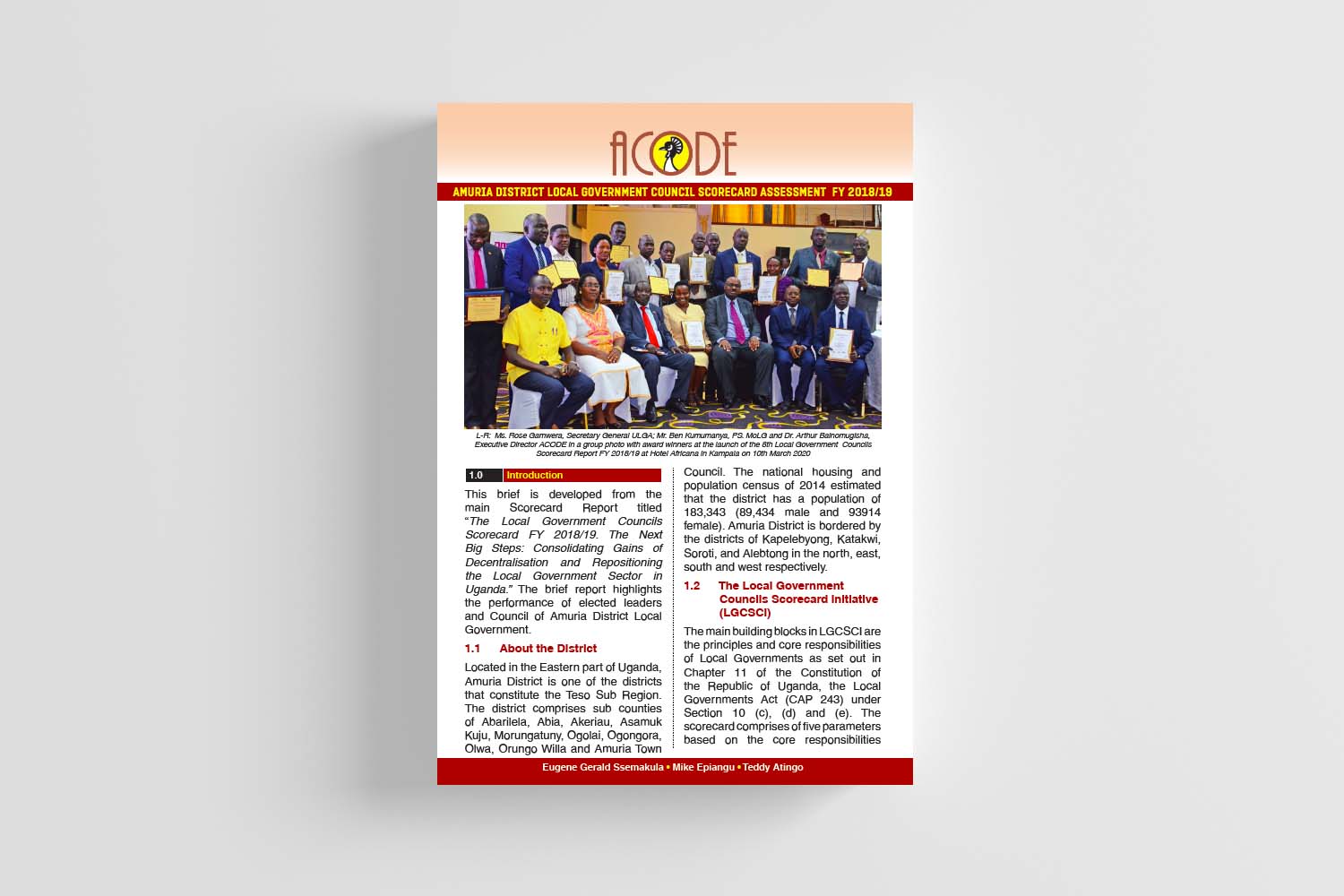
Amuria Local Government Council Scorecard Assessment FY 2018/19
Author(s): Eugene Gerald Ssemakula, Mike Epiangu, and Teddy Atingo
Published: 2020
This brief is extracted from the scorecard report titled “The Local Government Councils Scorecard FY 2018/19. The Next Big Steps: Consolidating Gains of Decentralisation and Repositioning the Local Government Sector in Uganda.” The brief provides key highlights of the performance of elected leaders and the Council of Amuria District Local Government during FY 2018/19.
View PDF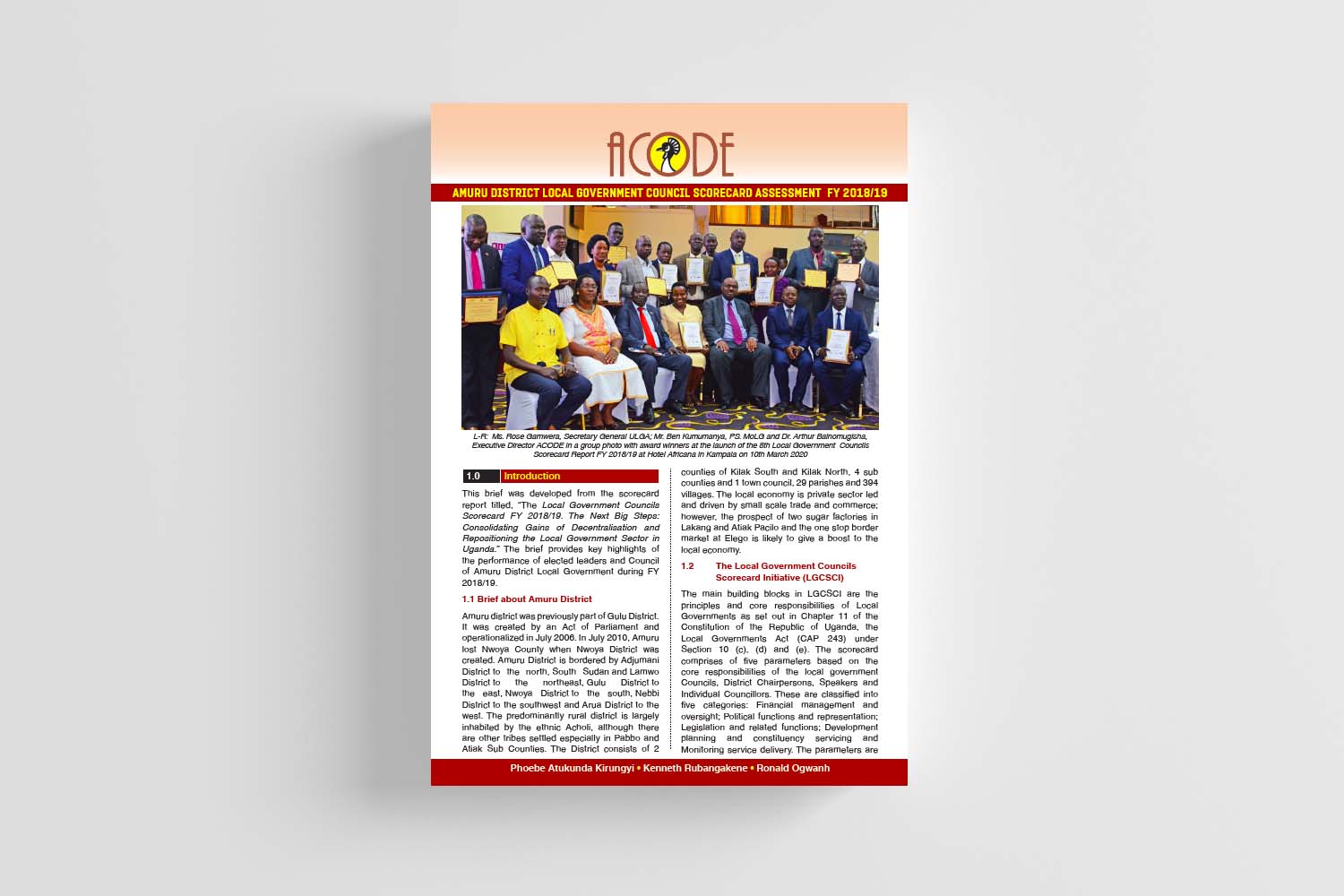
Amuru Local Government Council Scorecard Assessment FY 2018/19
Author(s): Phoebe Atukunda, Kenneth Rubangakene, and Ronald Ogwanh
Published: 2020
This brief is extracted from the scorecard report titled “The Local Government Councils Scorecard FY 2018/19. The Next Big Steps: Consolidating Gains of Decentralisation and Repositioning the Local Government Sector in Uganda.” The brief provides key highlights of the performance of elected leaders and the Council of Amuru District Local Government during FY 2018/19.
View PDF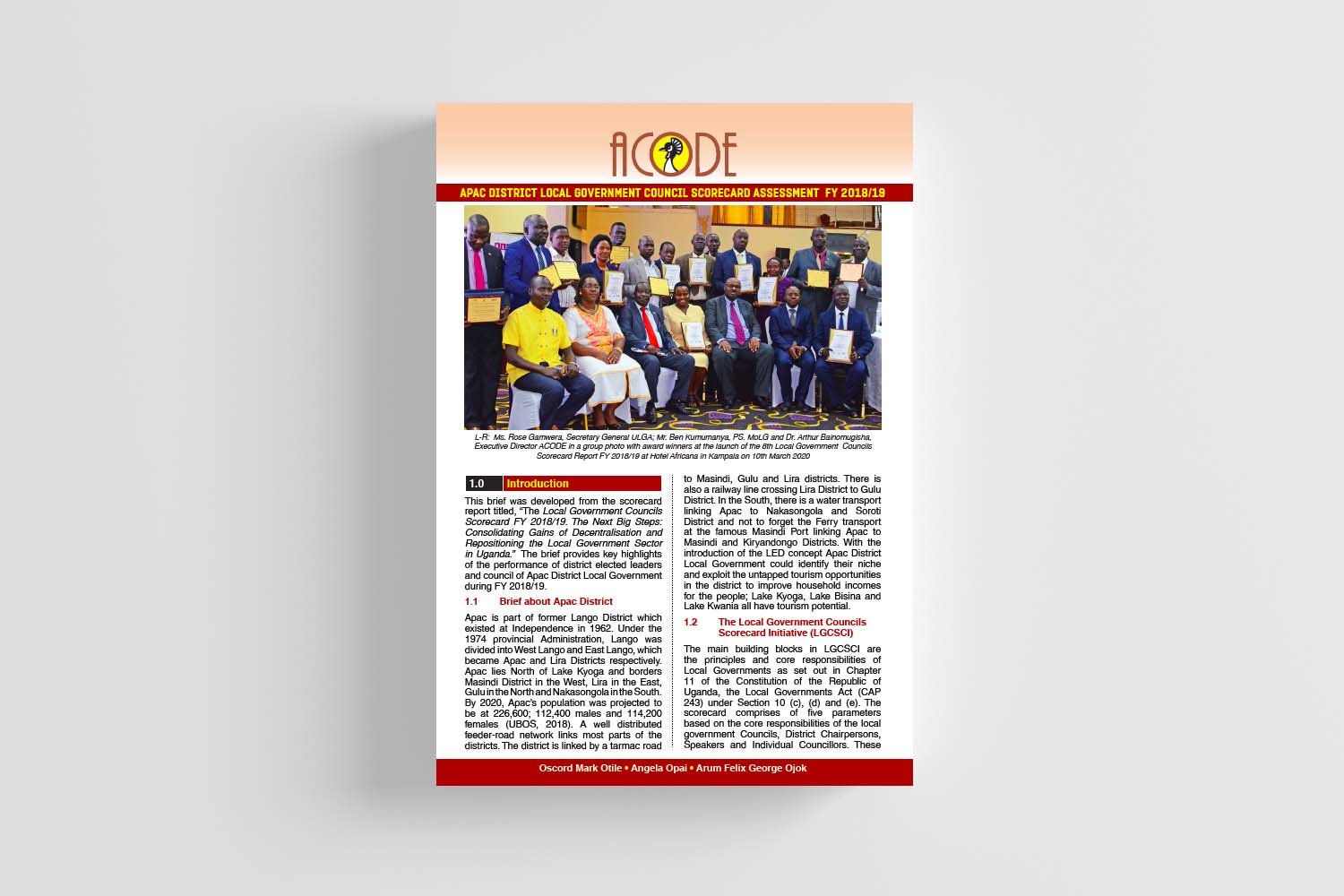
Apac Local Government Council Scorecard Assessment FY 2018/19
Author(s): Oscord Mark Otile, Angela Opai, and Arum Felix George Ojok
Published: 2020
This brief is extracted from the scorecard report titled “The Local Government Councils Scorecard FY 2018/19. The Next Big Steps: Consolidating Gains of Decentralisation and Repositioning the Local Government Sector in Uganda.” The brief provides key highlights of the performance of elected leaders and the Council of Apac District Local Government during FY 2018/19.
View PDF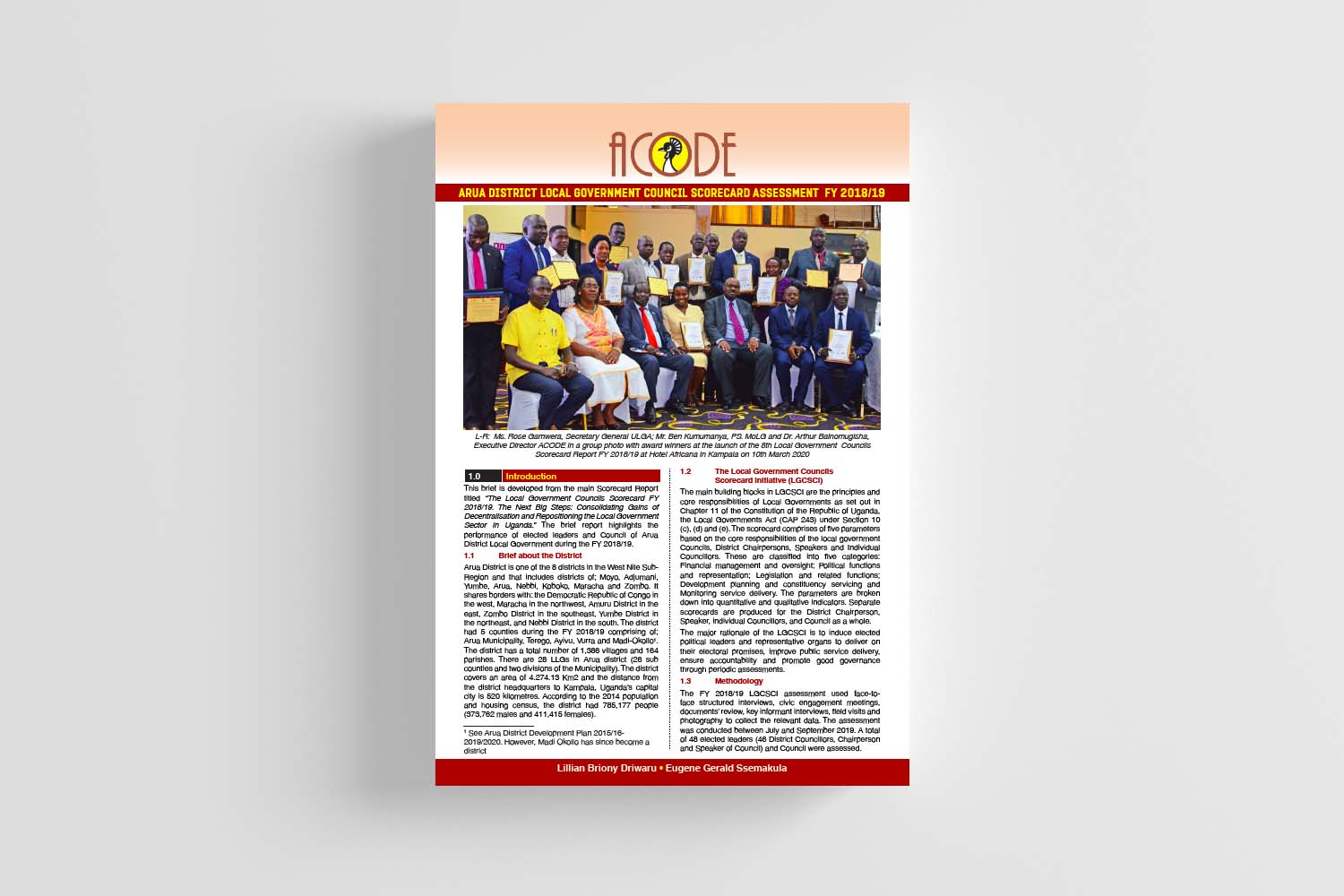
Arua Local Government Council Scorecard Assessment FY 2018/19
Author(s): Lillian Briony Driwaru and Eugene Gerald Ssemakula
Published: 2020
This brief is extracted from the scorecard report titled “The Local Government Councils Scorecard FY 2018/19. The Next Big Steps: Consolidating Gains of Decentralisation and Repositioning the Local Government Sector in Uganda.” The brief provides key highlights of the performance of elected leaders and the Council of Arua District Local Government during FY 2018/19.
View PDF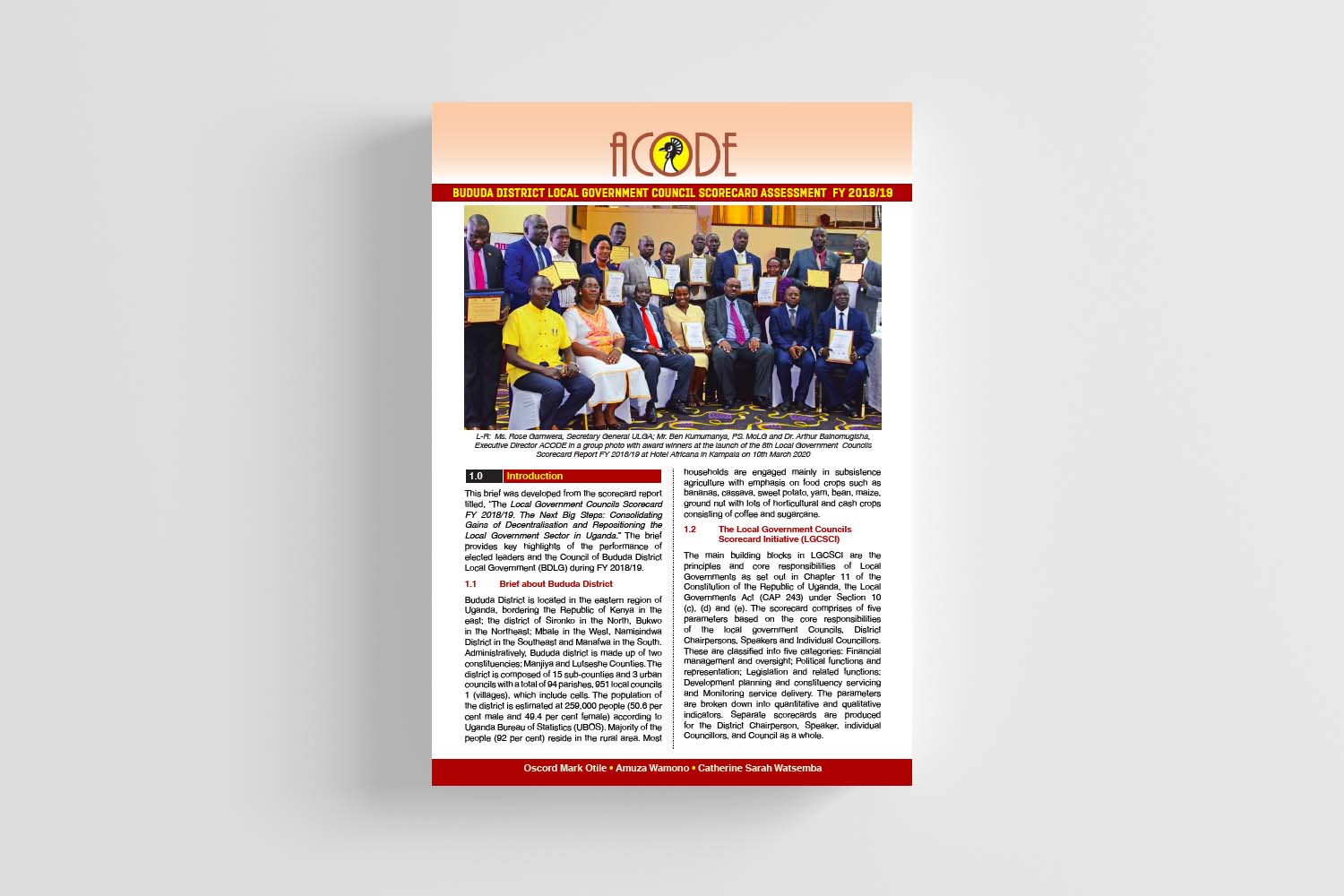
Bududa Local Government Council Scorecard Assessment FY 2018/19
Author(s): Oscord Mark Otile, Amuza Wamono, and Catherine Sarah Watsemba
Published: 2020
This brief is extracted from the scorecard report titled “The Local Government Councils Scorecard FY 2018/19. The Next Big Steps: Consolidating Gains of Decentralisation and Repositioning the Local Government Sector in Uganda.” The brief provides key highlights of the performance of elected leaders and the Council of Bududa District Local Government during FY 2018/19.
View PDF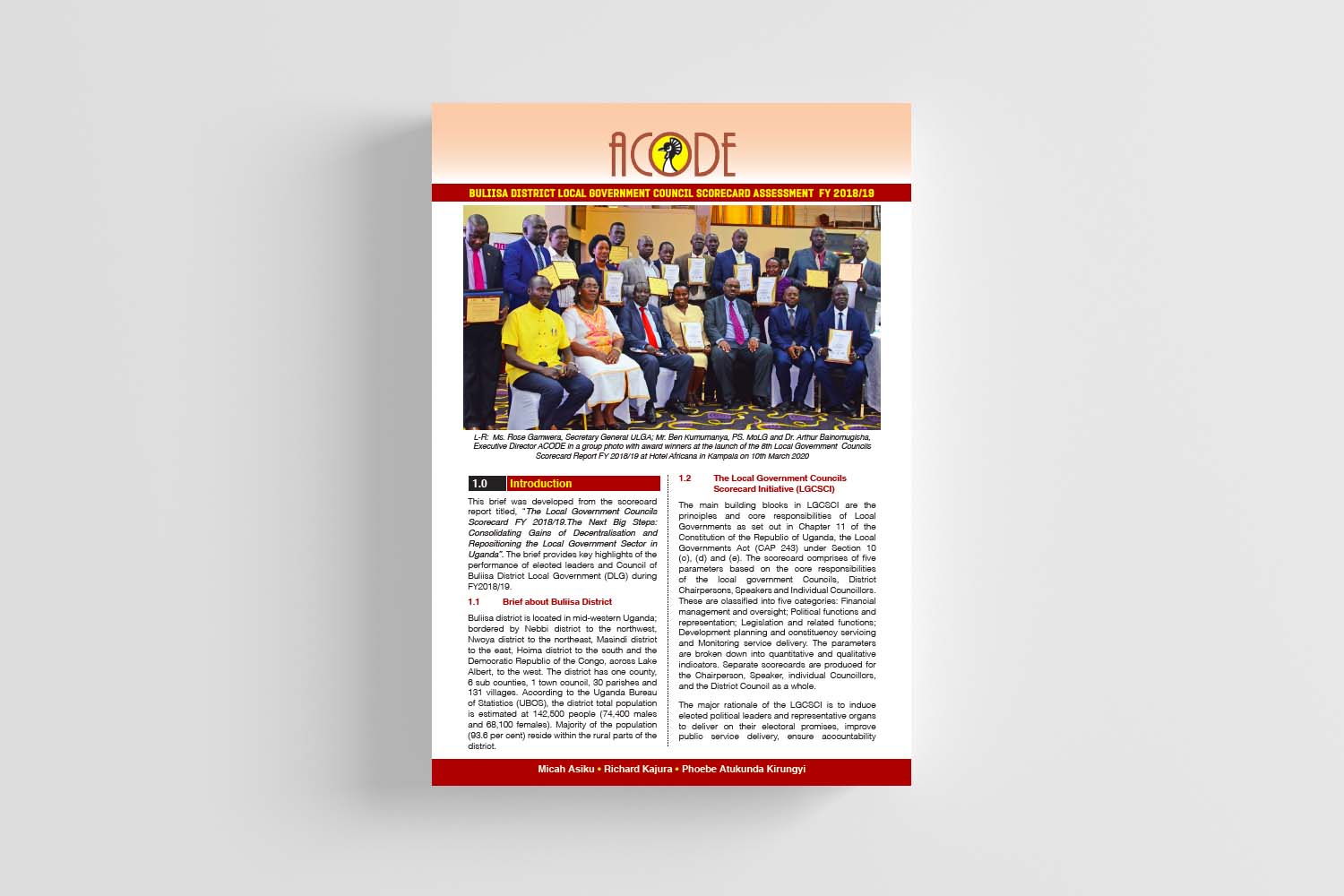
Buliisa Local Government Council Scorecard Assessment FY 2018/19
Author(s): Micah Asiku, Richard Kajura, and Phoebe Atukunda
Published: 2020
This brief is extracted from the scorecard report titled “The Local Government Councils Scorecard FY 2018/19. The Next Big Steps: Consolidating Gains of Decentralisation and Repositioning the Local Government Sector in Uganda.” The brief provides key highlights of the performance of elected leaders and the Council of Buliisa District Local Government during FY 2018/19.
View PDF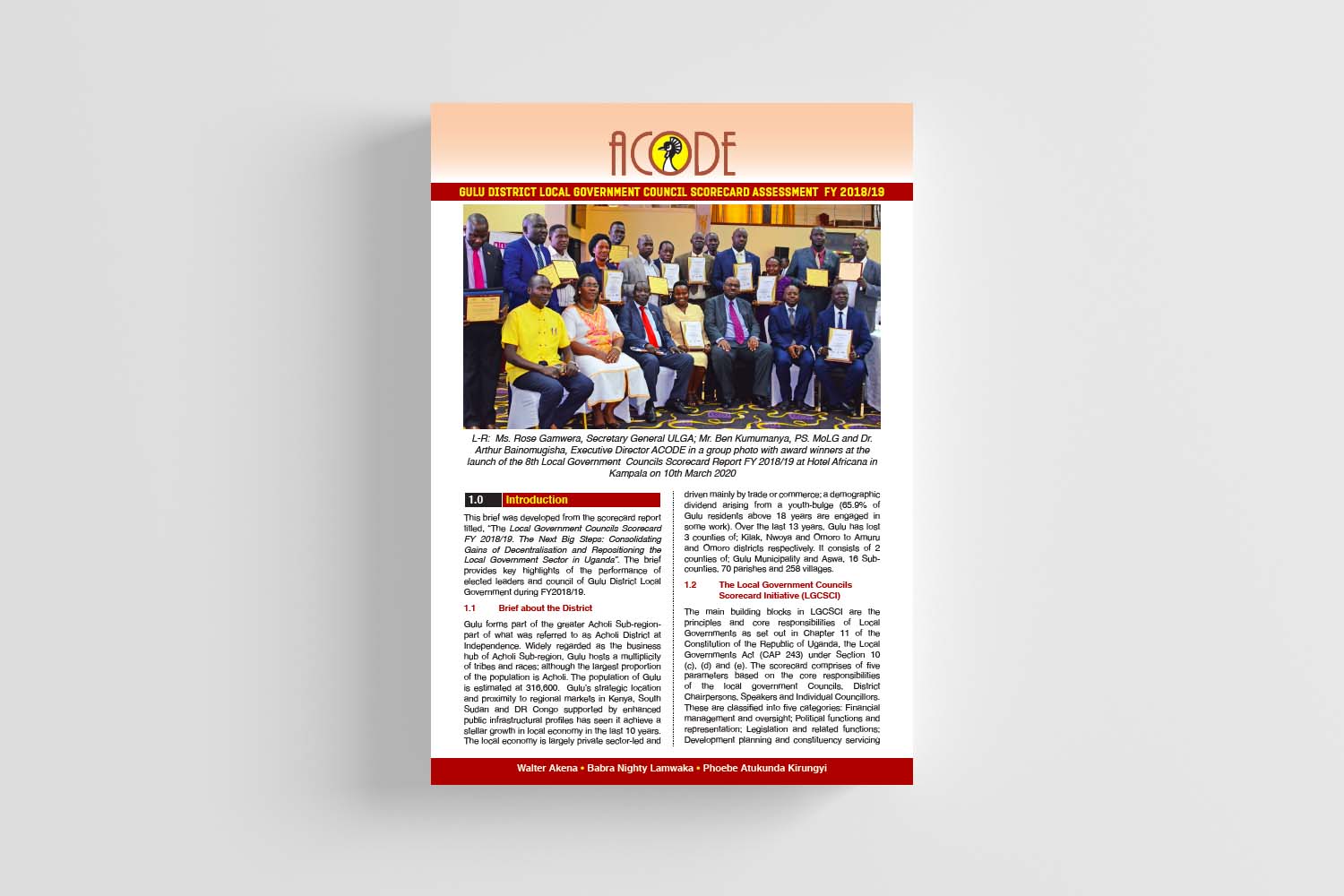
Gulu Local Government Council Scorecard Assessment FY 2018/19
Author(s): Walter Akena, Babra Nighty Lamwaka, and Phoebe Atukunda
Published: 2020
This brief is extracted from the scorecard report titled “The Local Government Councils Scorecard FY 2018/19. The Next Big Steps: Consolidating Gains of Decentralisation and Repositioning the Local Government Sector in Uganda.” The brief provides key highlights of the performance of elected leaders and the Council of Gulu District Local Government during FY 2018/19.
View PDF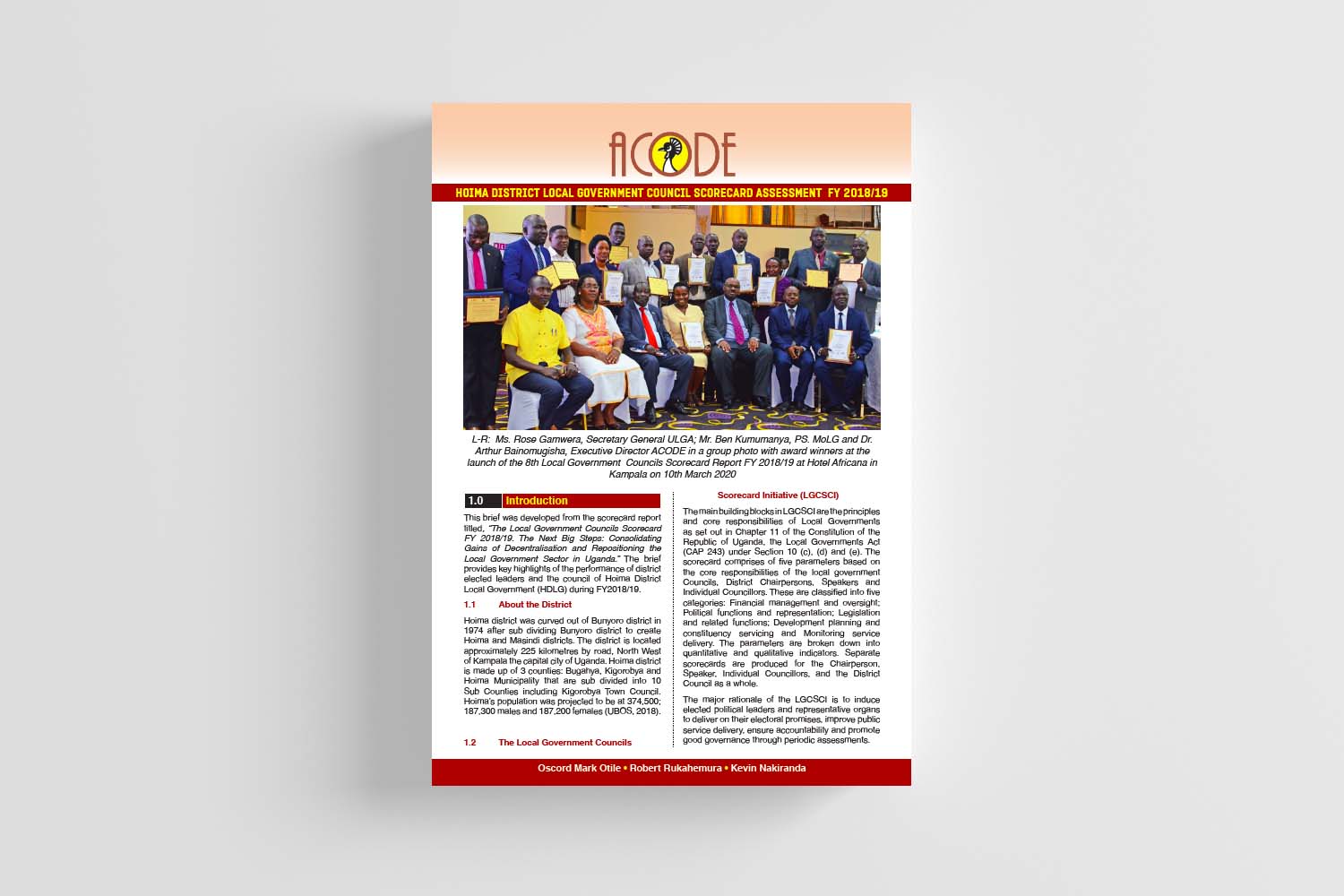
Hoima Local Government Council Scorecard Assessment FY 2018/19
Author(s): Oscord Mark Otile, Robert Rukahemura, and Kevin Nakiranda
Published: 2020
This brief is extracted from the scorecard report titled “The Local Government Councils Scorecard FY 2018/19. The Next Big Steps: Consolidating Gains of Decentralisation and Repositioning the Local Government Sector in Uganda.” The brief provides key highlights of the performance of elected leaders and the Council of Hoima District Local Government during FY 2018/19.
View PDF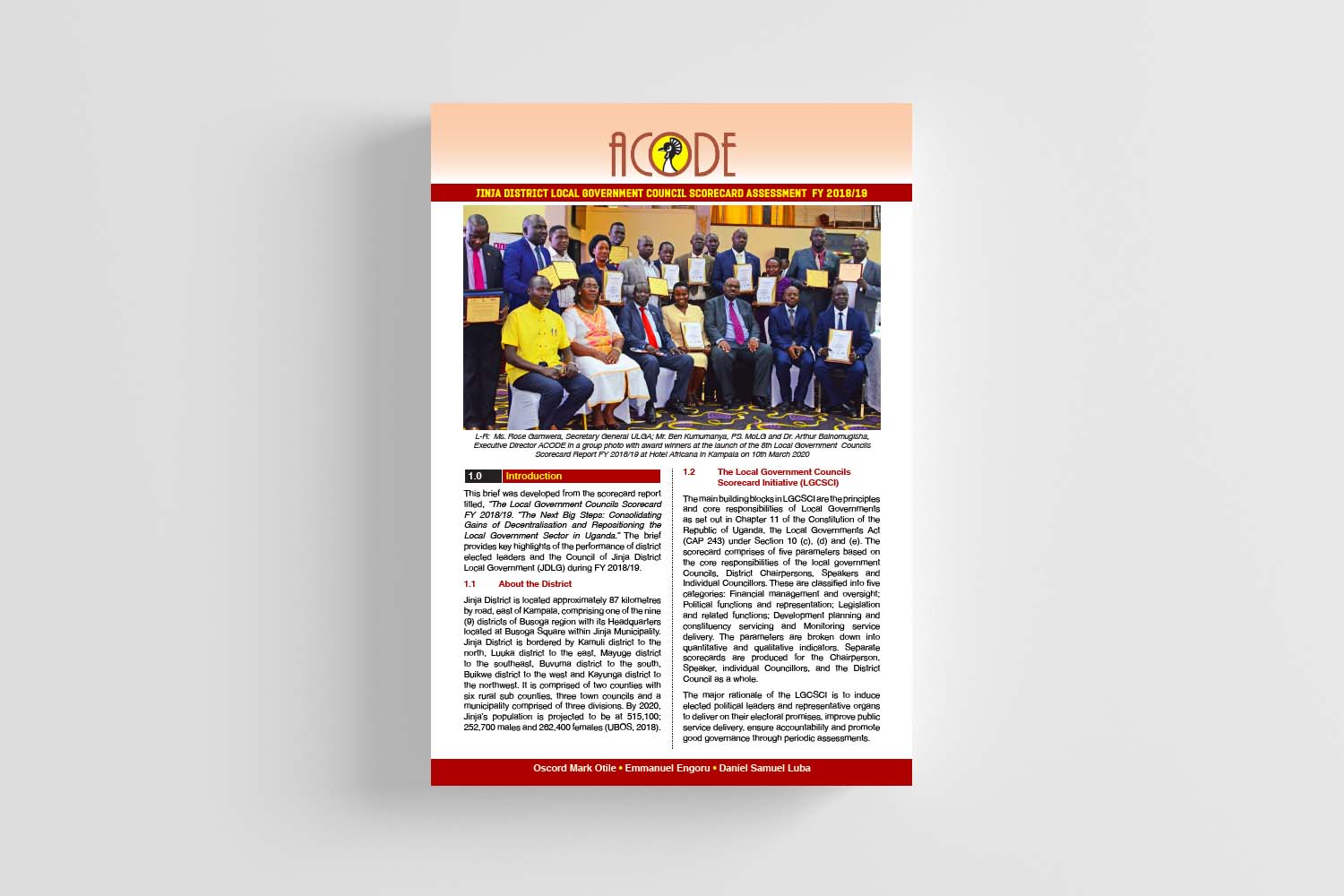
Jinja Local Government Council Scorecard Assessment FY 2018/19
Author(s): Oscord Mark Otile, Emmanuel Engoru, and Daniel Samuel Luba
Published: 2020
This brief is extracted from the scorecard report titled “The Local Government Councils Scorecard FY 2018/19. The Next Big Steps: Consolidating Gains of Decentralisation and Repositioning the Local Government Sector in Uganda.” The brief provides key highlights of the performance of elected leaders and the Council of Jinja District Local Government during FY 2018/19.
View PDF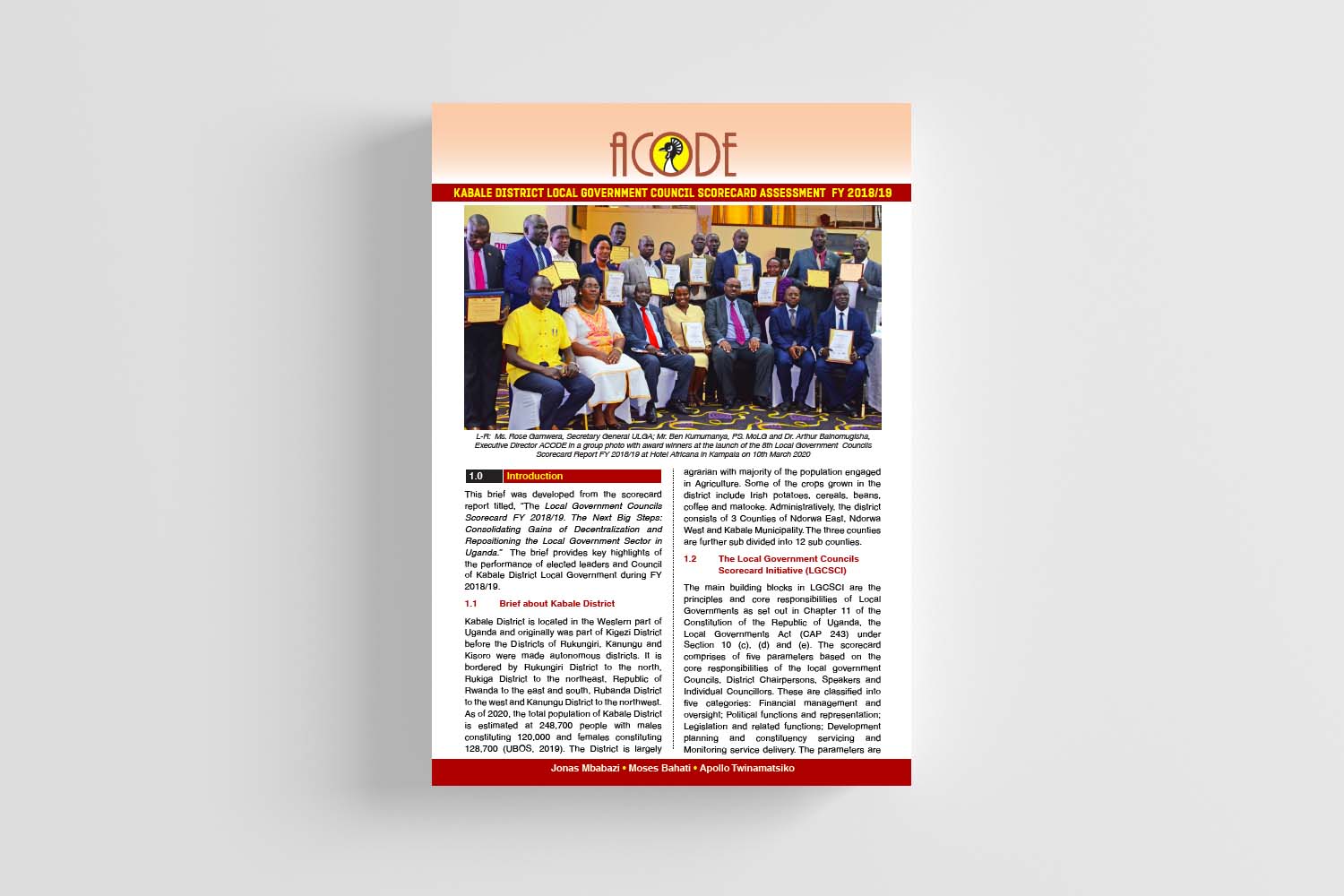
Kabale Local Government Council Scorecard FY 2018/19
Author(s): Jonas Mbabazi, Moses Bahati, and Apollo Twinamatsiko
Published: 2020
This brief is extracted from the scorecard report titled “The Local Government Councils Scorecard FY 2018/19. The Next Big Steps: Consolidating Gains of Decentralisation and Repositioning the Local Government Sector in Uganda.” The brief provides key highlights of the performance of elected leaders and the Council of Kabale District Local Government during FY 2018/19.
View PDF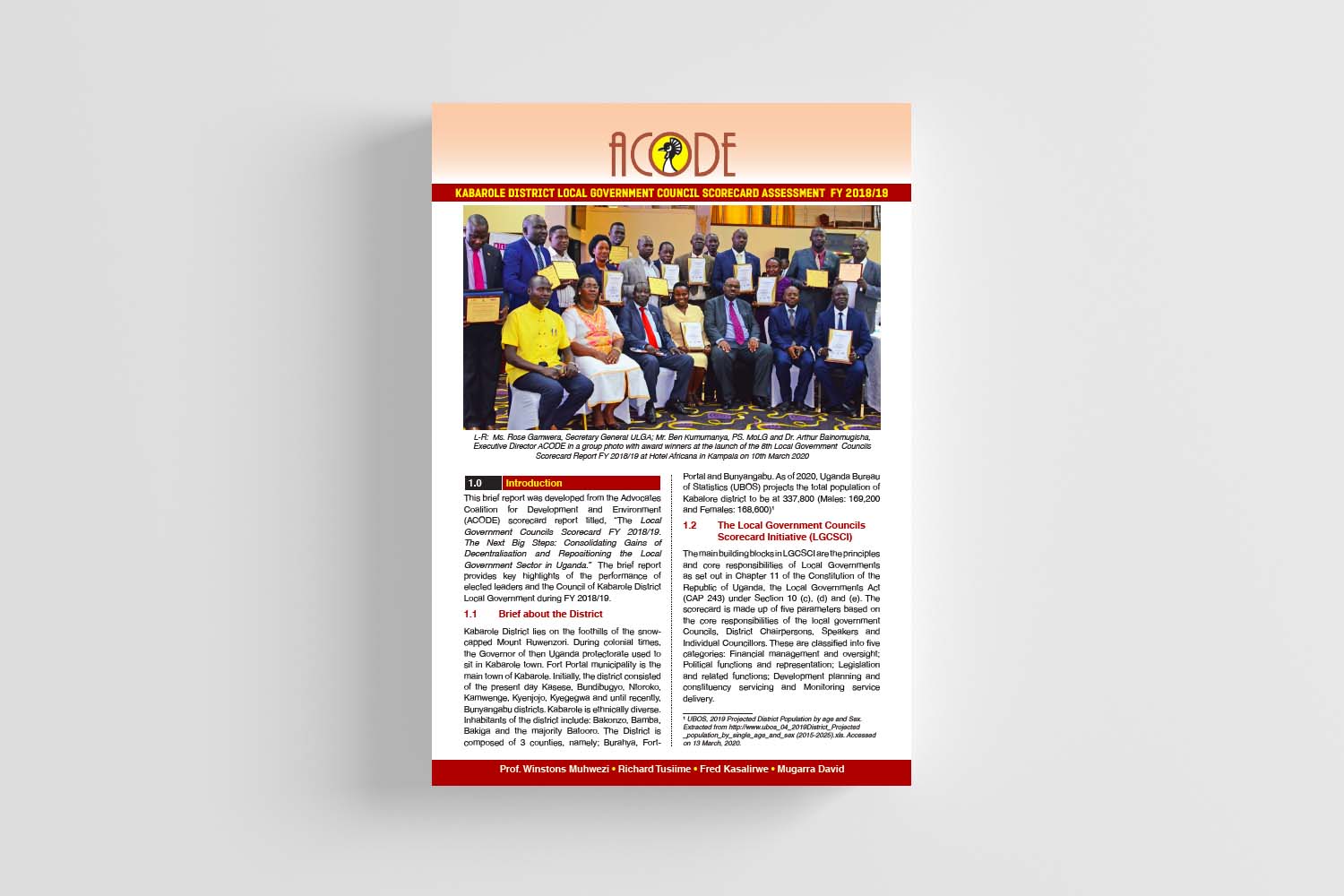
Kabarole Local Government Council Scorecard FY 2018/19
Author(s): Prof. Winstons Muhwezi • Richard Tusiime • Fred Kasalirwe • Mugarra David
Published: 2020
This brief is extracted from the scorecard report titled “The Local Government Councils Scorecard FY 2018/19. The Next Big Steps: Consolidating Gains of Decentralisation and Repositioning the Local Government Sector in Uganda.” The brief provides key highlights of the performance of elected leaders and the Council of Kabarole District Local Government during FY 2018/19.
View PDF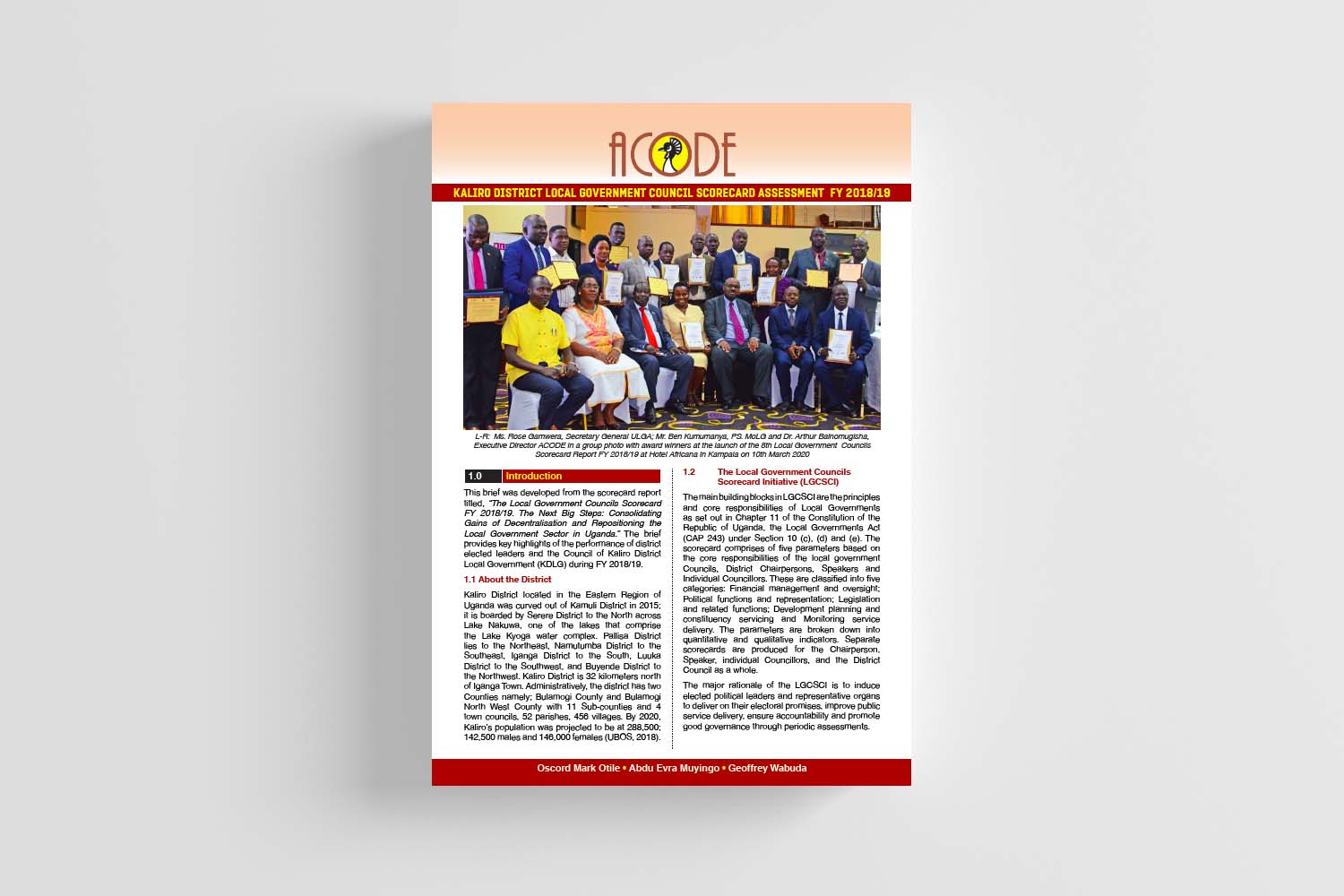
Kaliro Local Government Council Scorecard FY 2018/19
Author(s): Oscord Mark Otile, Abdu Evra Muyingo, and Geoffrey Wabuda
Published: 2020
This brief is extracted from the scorecard report titled “The Local Government Councils Scorecard FY 2018/19. The Next Big Steps: Consolidating Gains of Decentralisation and Repositioning the Local Government Sector in Uganda.” The brief provides key highlights of the performance of elected leaders and the Council of Kaliro District Local Government during FY 2018/19.
View PDF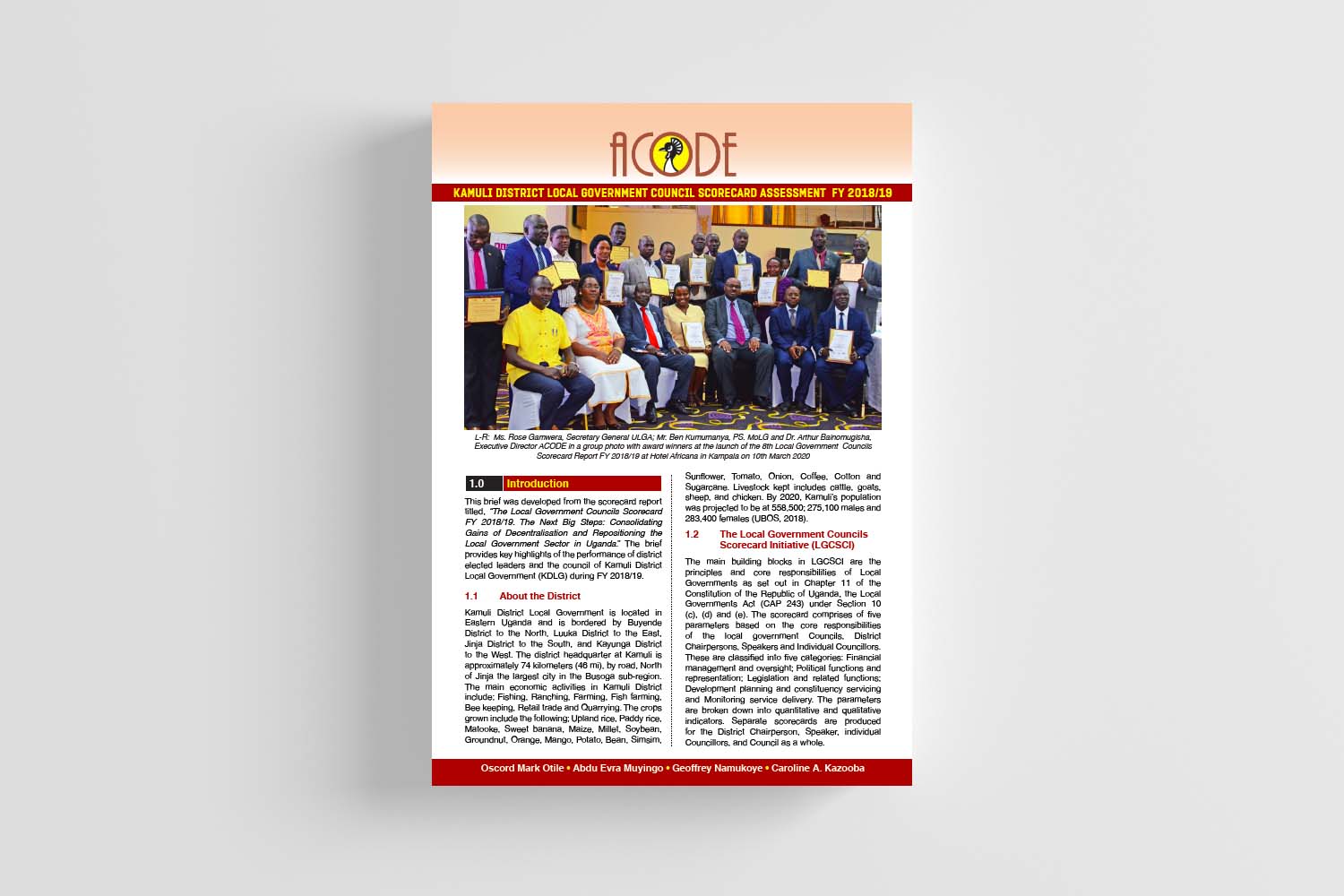
Kamuli Local Government Council Scorecard FY 2018/19
Author(s): Oscord Mark Otile, Abdu Evra Muyingo, Geoffrey Namukoye, and Caroline A. Kazooba
Published: 2020
This brief is extracted from the scorecard report titled “The Local Government Councils Scorecard FY 2018/19. The Next Big Steps: Consolidating Gains of Decentralisation and Repositioning the Local Government Sector in Uganda.” The brief provides key highlights of the performance of elected leaders and the Council of Kamuli District Local Government during FY 2018/19.
View PDF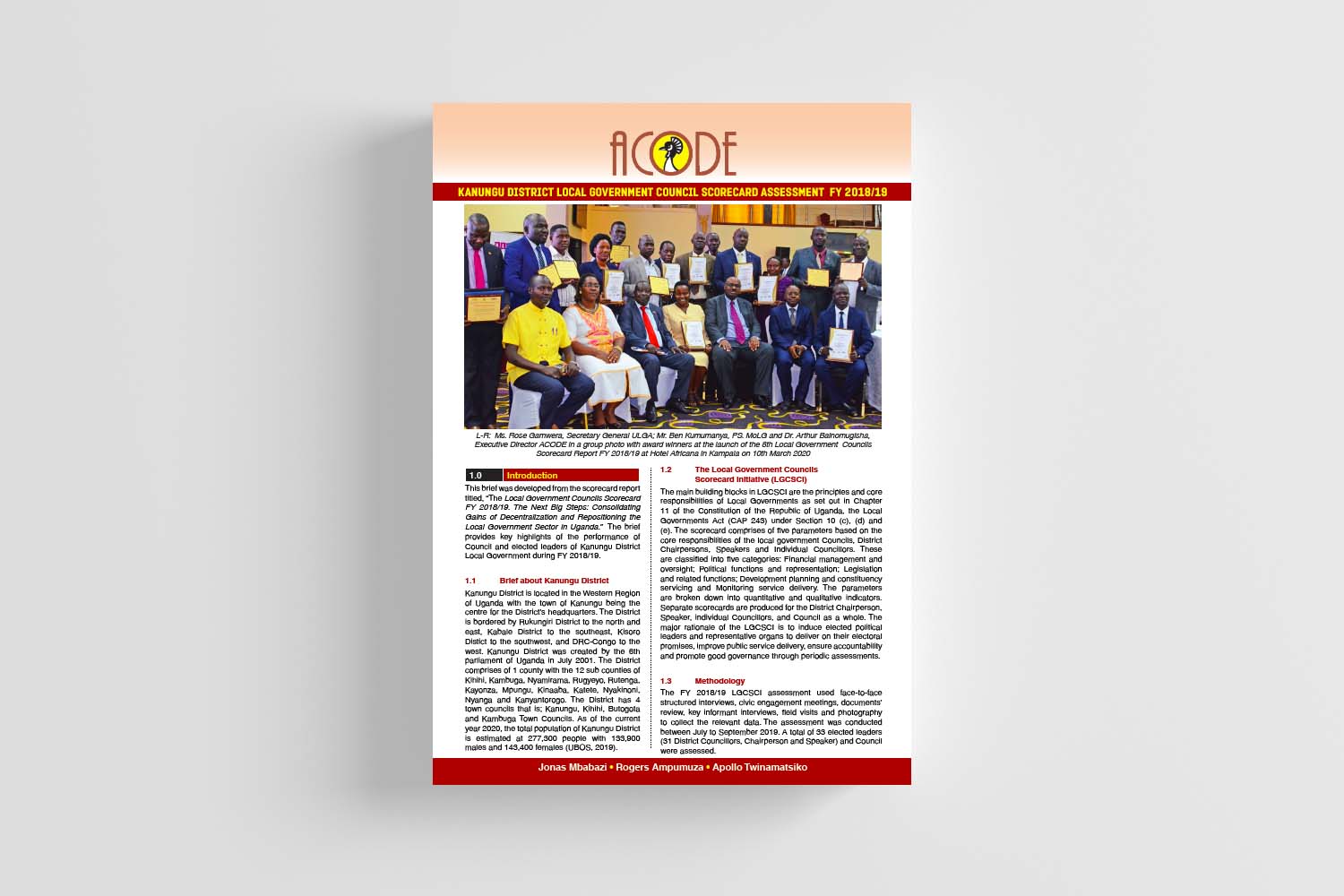
Kanungu Local Government Council Scorecard FY 2018/19
Author(s): Jonas Mbabazi, Rogers Ampumuza, and Apollo Twinamatsiko
Published: 2020
This brief is extracted from the scorecard report titled “The Local Government Councils Scorecard FY 2018/19. The Next Big Steps: Consolidating Gains of Decentralisation and Repositioning the Local Government Sector in Uganda.” The brief provides key highlights of the performance of elected leaders and the Council of Kanungu District Local Government during FY 2018/19.
View PDF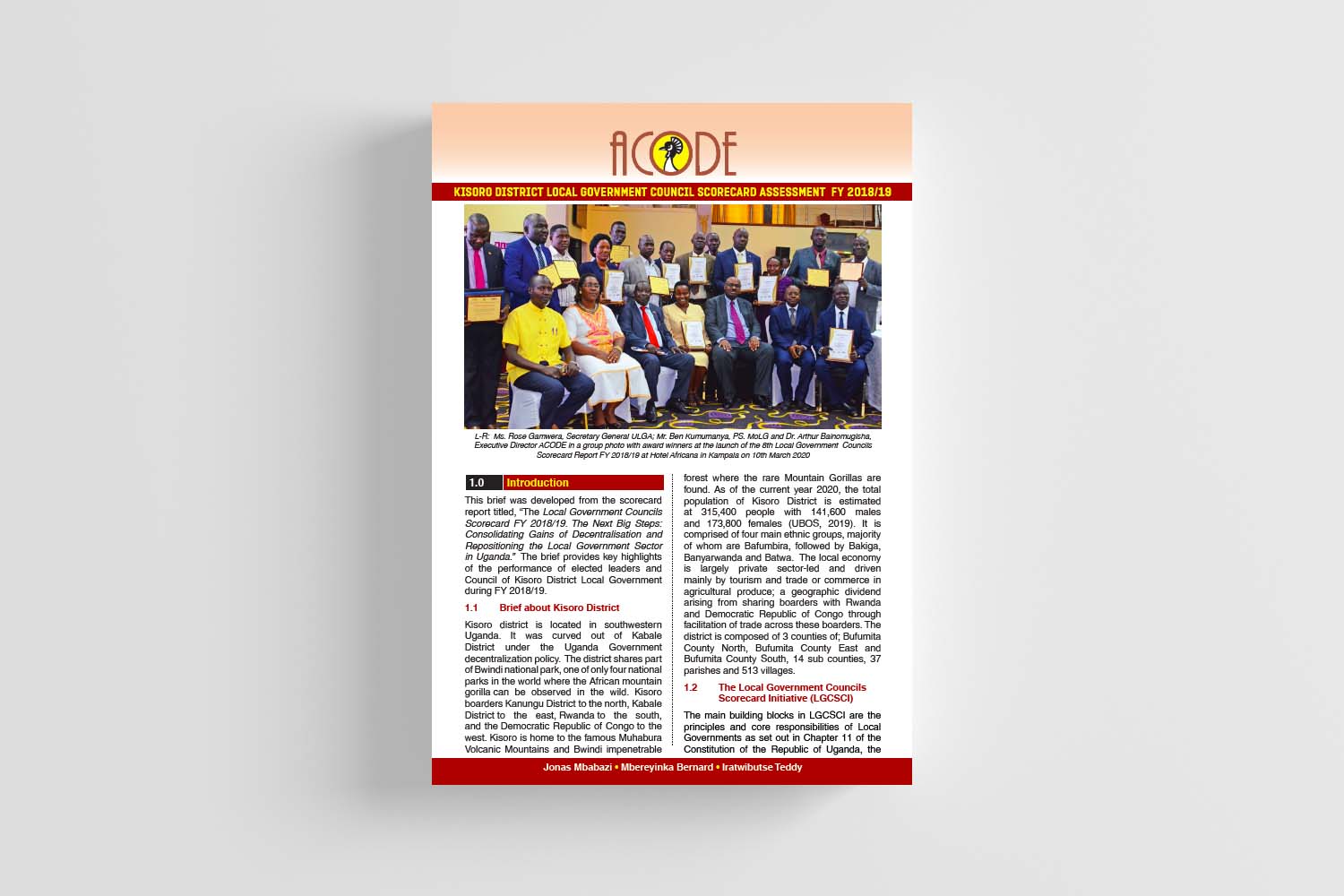
Kisoro Local Government Council Scorecard FY 2018/19
Author(s): Jonas Mbabazi, Mbereyinka Bernard, and Iratwibutse Teddy
Published: 2020
This brief is extracted from the scorecard report titled “The Local Government Councils Scorecard FY 2018/19. The Next Big Steps: Consolidating Gains of Decentralisation and Repositioning the Local Government Sector in Uganda.” The brief provides key highlights of the performance of elected leaders and the Council of Kisoro District Local Government during FY 2018/19.
View PDF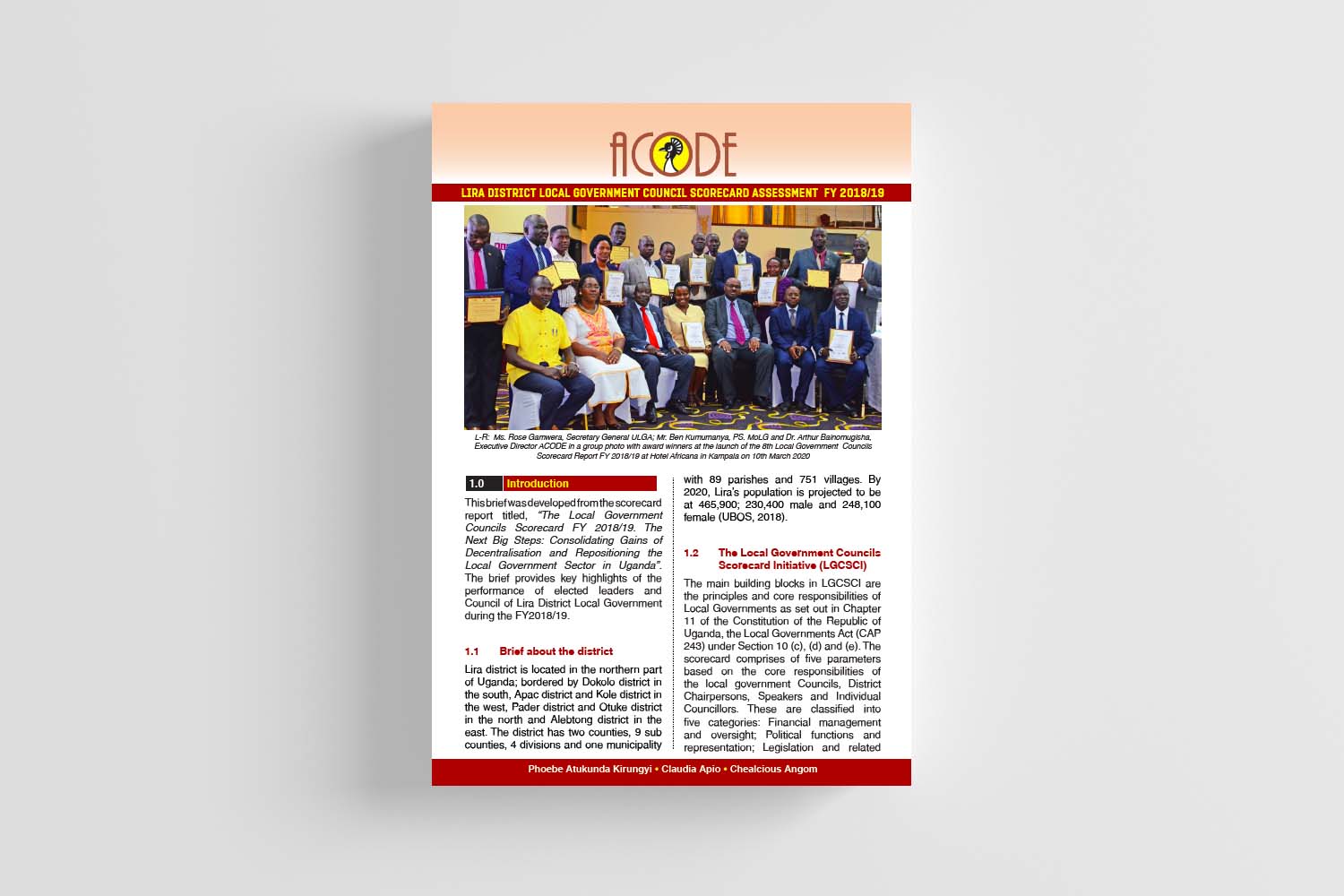
Lira Local Government Council Scorecard FY 2018/19
Author(s): Phoebe Atukunda Kirungyi, Claudia Apio, and Chealcious Angom
Published: 2020
This brief is extracted from the scorecard report titled “The Local Government Councils Scorecard FY 2018/19. The Next Big Steps: Consolidating Gains of Decentralisation and Repositioning the Local Government Sector in Uganda.” The brief provides key highlights of the performance of elected leaders and the Council of Lira District Local Government during FY 2018/19.
View PDF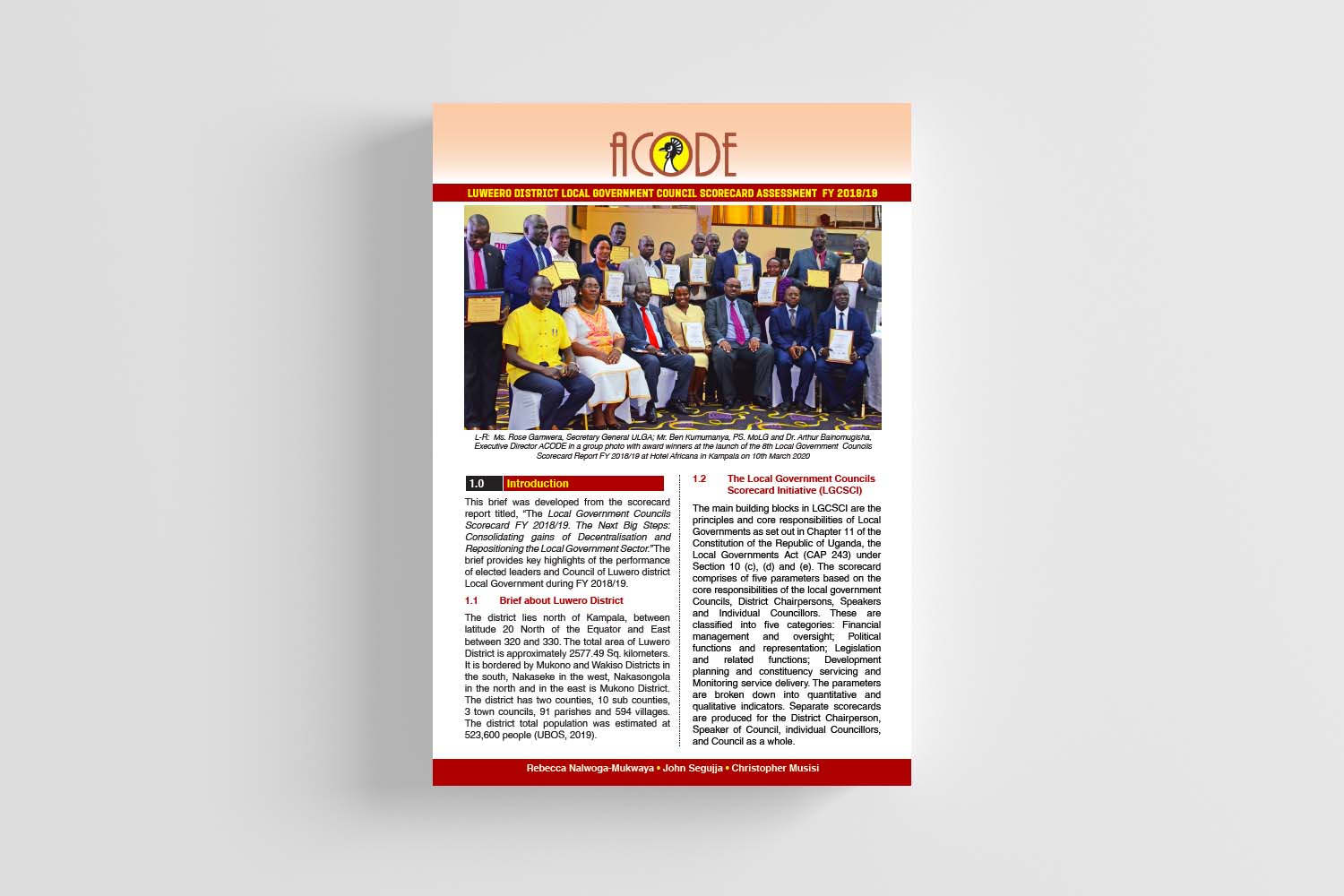
Luweero Local Government Council Scorecard FY 2018/19
Author(s): Rebecca Nalwoga-Mukwaya, John Segujja, and Christopher Musisi
Published: 2020
This brief is extracted from the scorecard report titled “The Local Government Councils Scorecard FY 2018/19. The Next Big Steps: Consolidating Gains of Decentralisation and Repositioning the Local Government Sector in Uganda.” The brief provides key highlights of the performance of elected leaders and the Council of Luweero District Local Government during FY 2018/19.
View PDF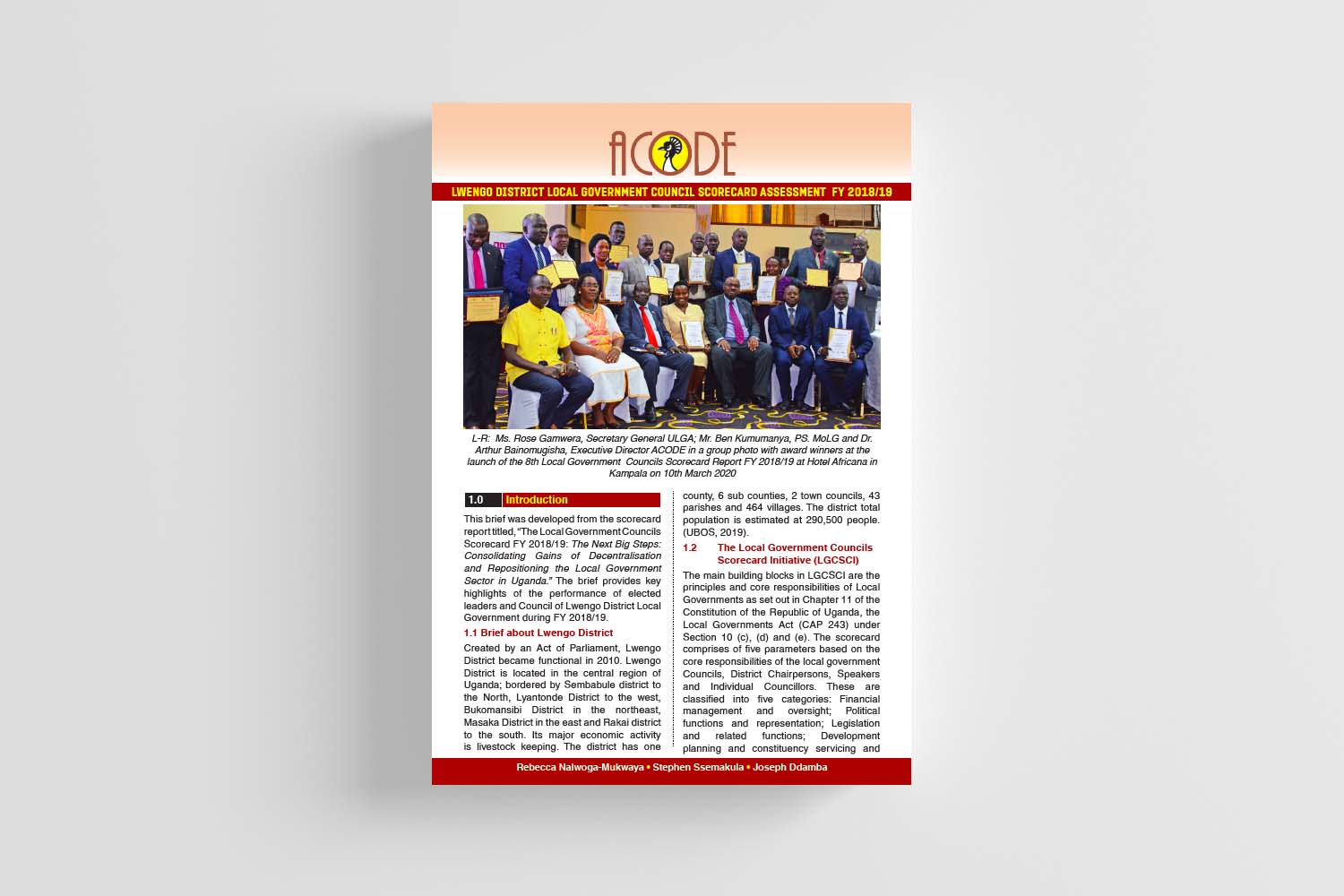
Lwengo Local Government Council Scorecard FY 2018/19
Author(s): Rebecca Nalwoga-Mukwaya, Stephen Ssemakula, and Joseph Ddamba
Published: 2020
This brief is extracted from the scorecard report titled “The Local Government Councils Scorecard FY 2018/19. The Next Big Steps: Consolidating Gains of Decentralisation and Repositioning the Local Government Sector in Uganda.” The brief provides key highlights of the performance of elected leaders and the Council of Lwengo District Local Government during FY 2018/19.
View PDF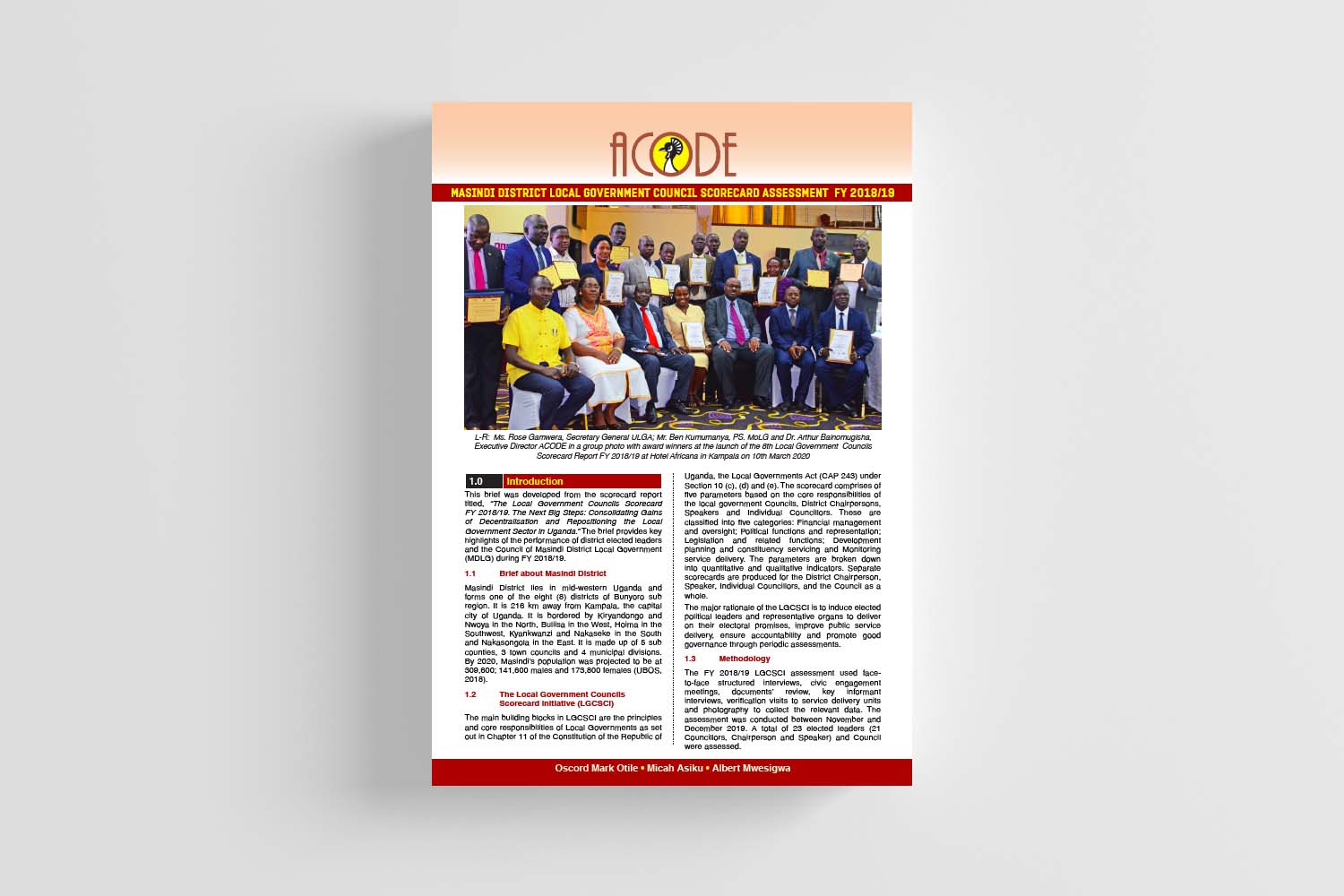
Masindi Local Government Council Scorecard FY 2018/19
Author(s): Oscord Mark Otile, Micah Asiku, and Albert Mwesigwa
Published: 2020
This brief is extracted from the scorecard report titled “The Local Government Councils Scorecard FY 2018/19. The Next Big Steps: Consolidating Gains of Decentralisation and Repositioning the Local Government Sector in Uganda.” The brief provides key highlights of the performance of elected leaders and the Council of Masindi District Local Government during FY 2018/19.
View PDF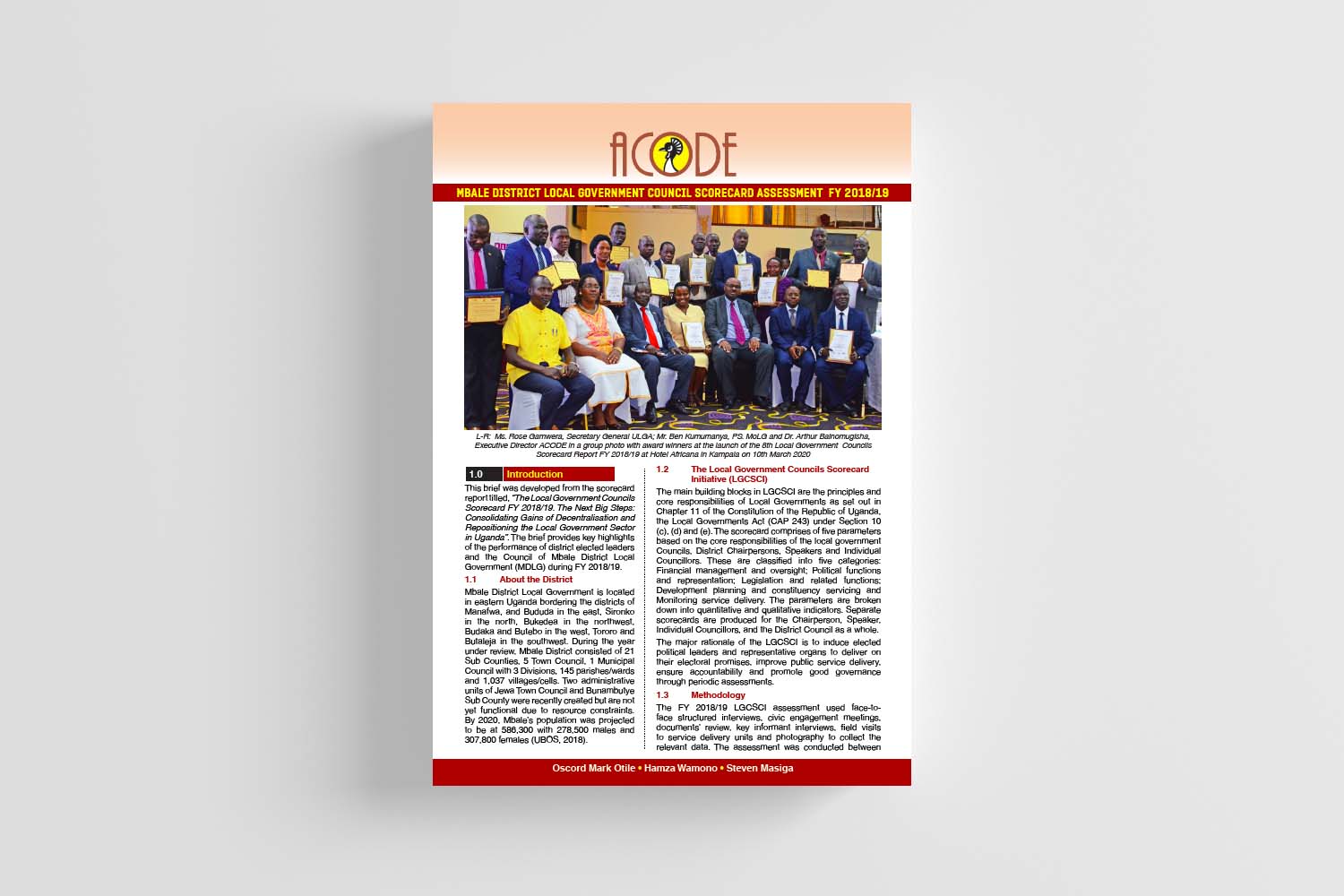
Mbale Local Government Councils Scorecard FY 2018/19
Author(s): Oscord Mark Otile, Hamza Wamono, and Steven Masiga
Published: 2020
This brief is extracted from the scorecard report titled “The Local Government Councils Scorecard FY 2018/19. The Next Big Steps: Consolidating Gains of Decentralisation and Repositioning the Local Government Sector in Uganda.” The brief provides key highlights of the performance of elected leaders and the Council of Mbale District Local Government during FY 2018/19.
View PDF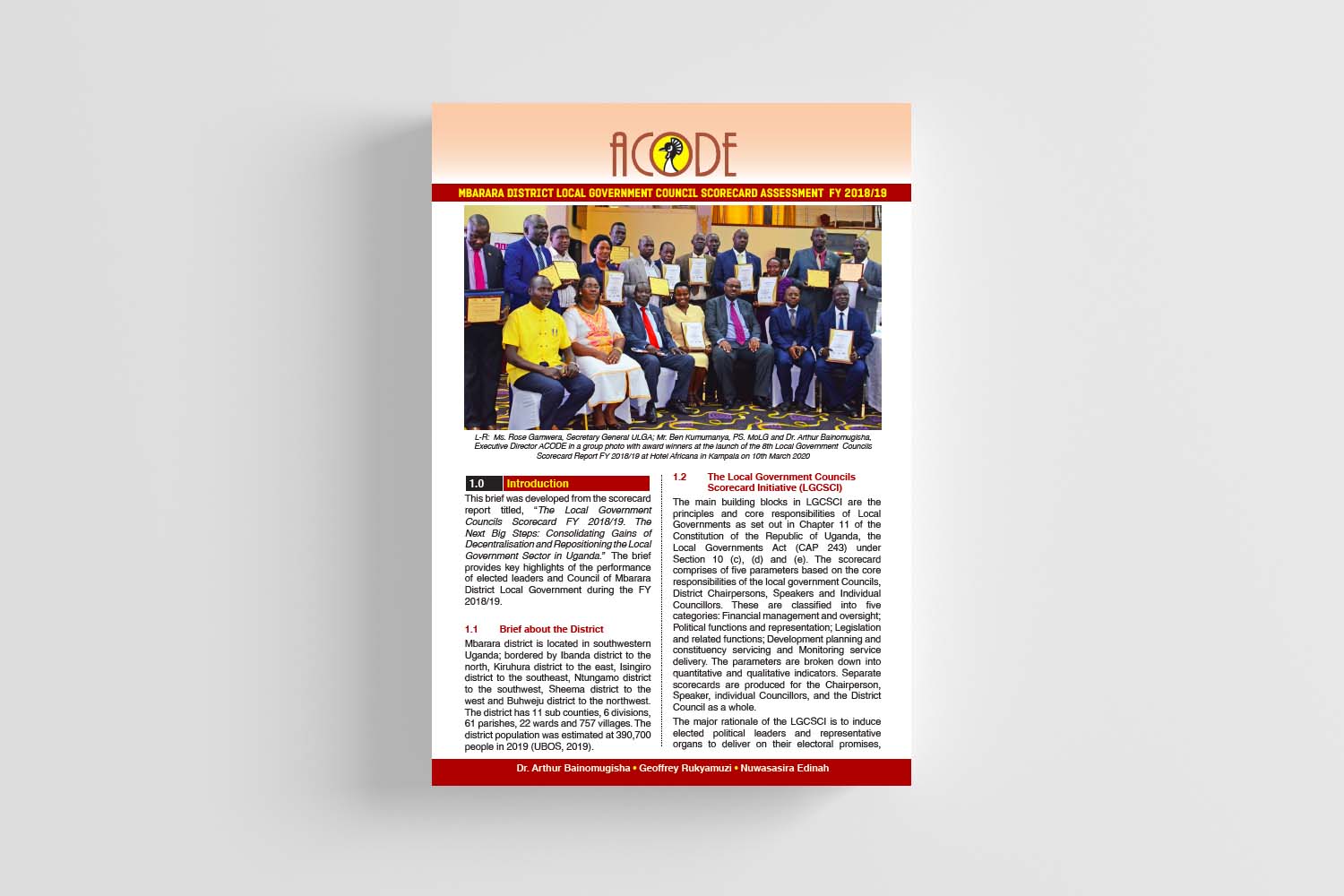
Mbarara Local Government Council Scorecard FY 2018/19
Author(s): Dr. Arthur Bainomugisha, Geoffrey Rukyamuzi, and Nuwasasira Edinah
Published: 2020
This brief was developed from the scorecard report titled, “The Local Government Councils Scorecard FY 2018/19. The Next Big Steps: Consolidating Gains of Decentralisation and Repositioning the Local Government Sector in Uganda.” The brief provides key highlights of the performance of elected leaders and the Council of Mbarara District Local Government during the FY 2018/19.
View PDF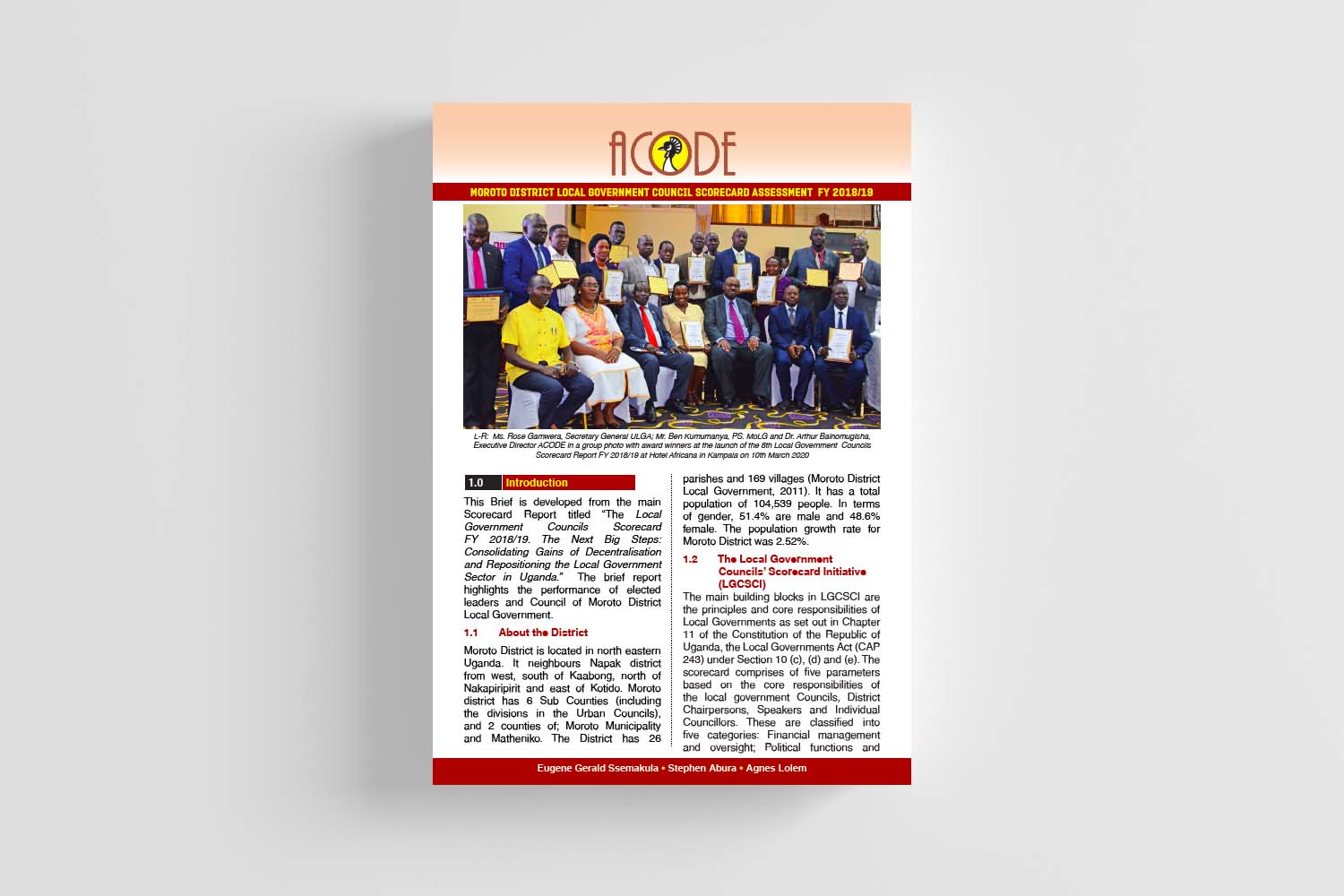
Moroto Local Government Council Scorecard FY 2018/19
Author(s): Eugene Gerald Ssemakula, Stephen Abura, and Agnes Lolem
Published: 2020
This brief was developed from the scorecard report titled, “The Local Government Councils Scorecard FY 2018/19. The Next Big Steps: Consolidating Gains of Decentralisation and Repositioning the Local Government Sector in Uganda.” The brief provides key highlights of the performance of elected leaders and the Council of Moroto District Local Government during the FY 2018/19.
View PDF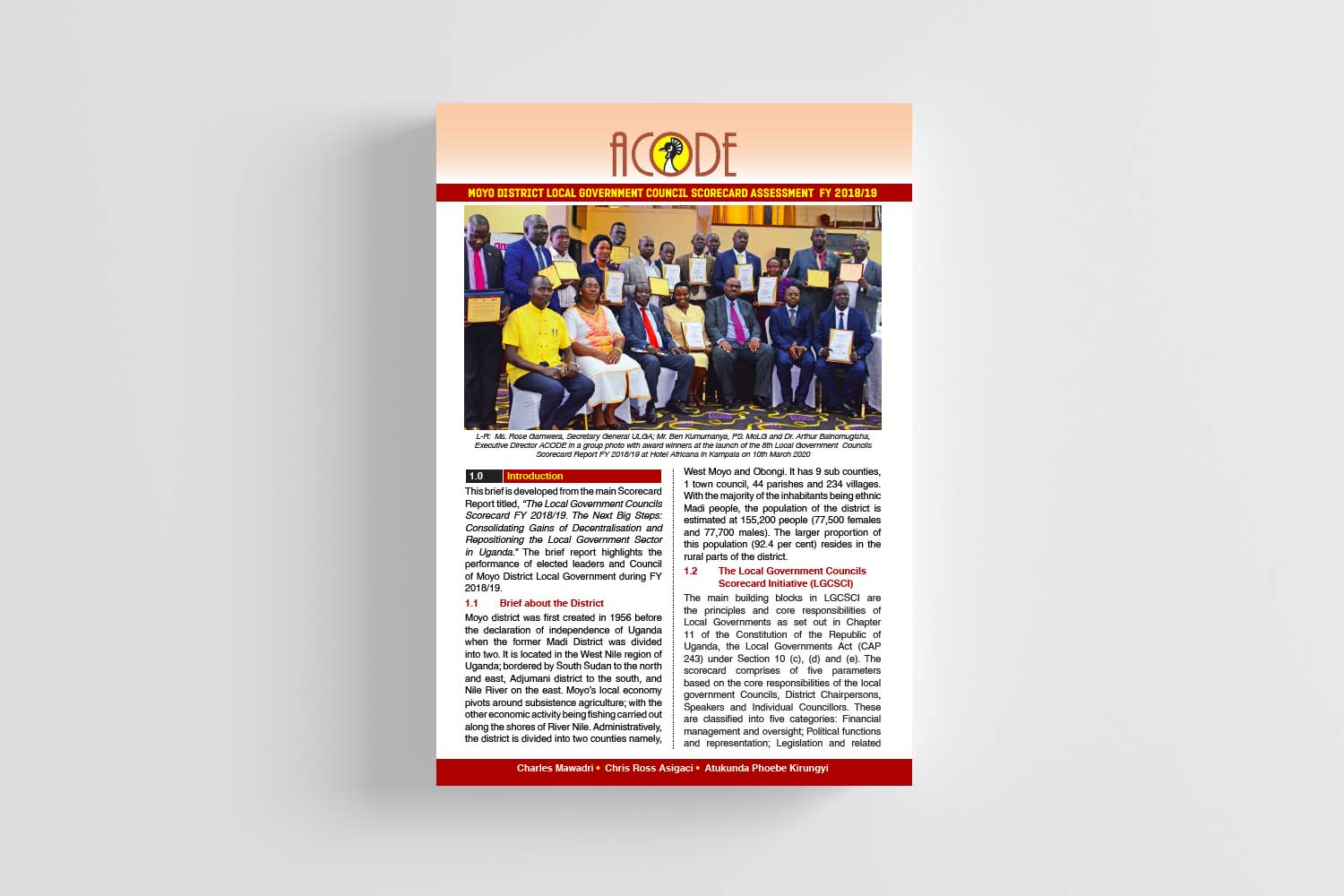
Moyo Local Government Council Scorecard FY 2018/19
Author(s): Charles Mawadri, Chris Ross Asigaci, and Atukunda Phoebe Kirungyi
Published: 2020
This brief was developed from the scorecard report titled, “The Local Government Councils Scorecard FY 2018/19. The Next Big Steps: Consolidating Gains of Decentralisation and Repositioning the Local Government Sector in Uganda.” The brief provides key highlights of the performance of elected leaders and the Council of Moyo District Local Government during the FY 2018/19.
View PDF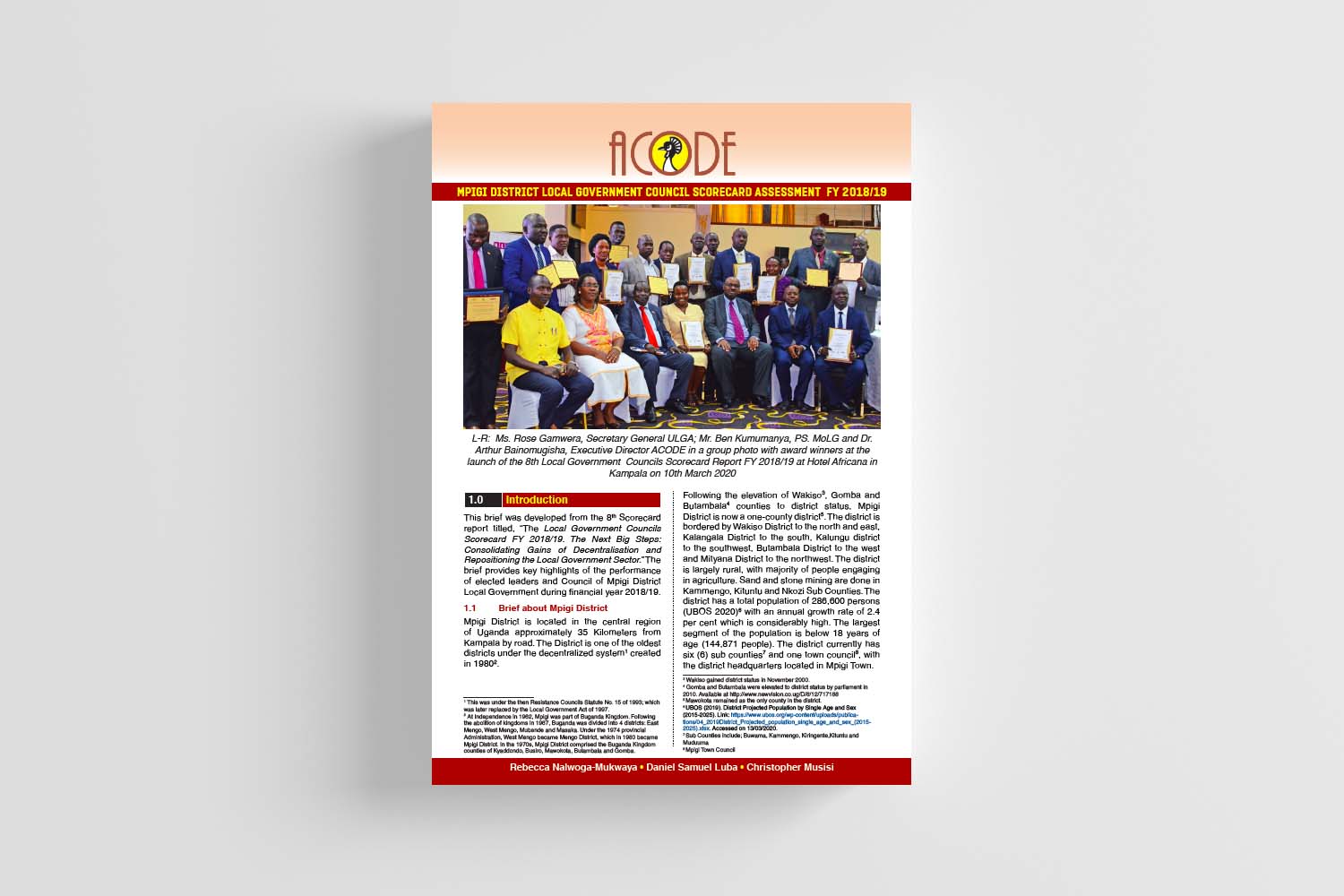
Mpigi Local Government Council Scorecard FY 2018/19
Author(s): Rebecca Nalwoga-Mukwaya, Daniel Samuel Luba, and Christopher Musisi
Published: 2020
This brief was developed from the scorecard report titled, “The Local Government Councils Scorecard FY 2018/19. The Next Big Steps: Consolidating Gains of Decentralisation and Repositioning the Local Government Sector in Uganda.” The brief provides key highlights of the performance of elected leaders and the Council of Mpigi District Local Government during the FY 2018/19.
View PDF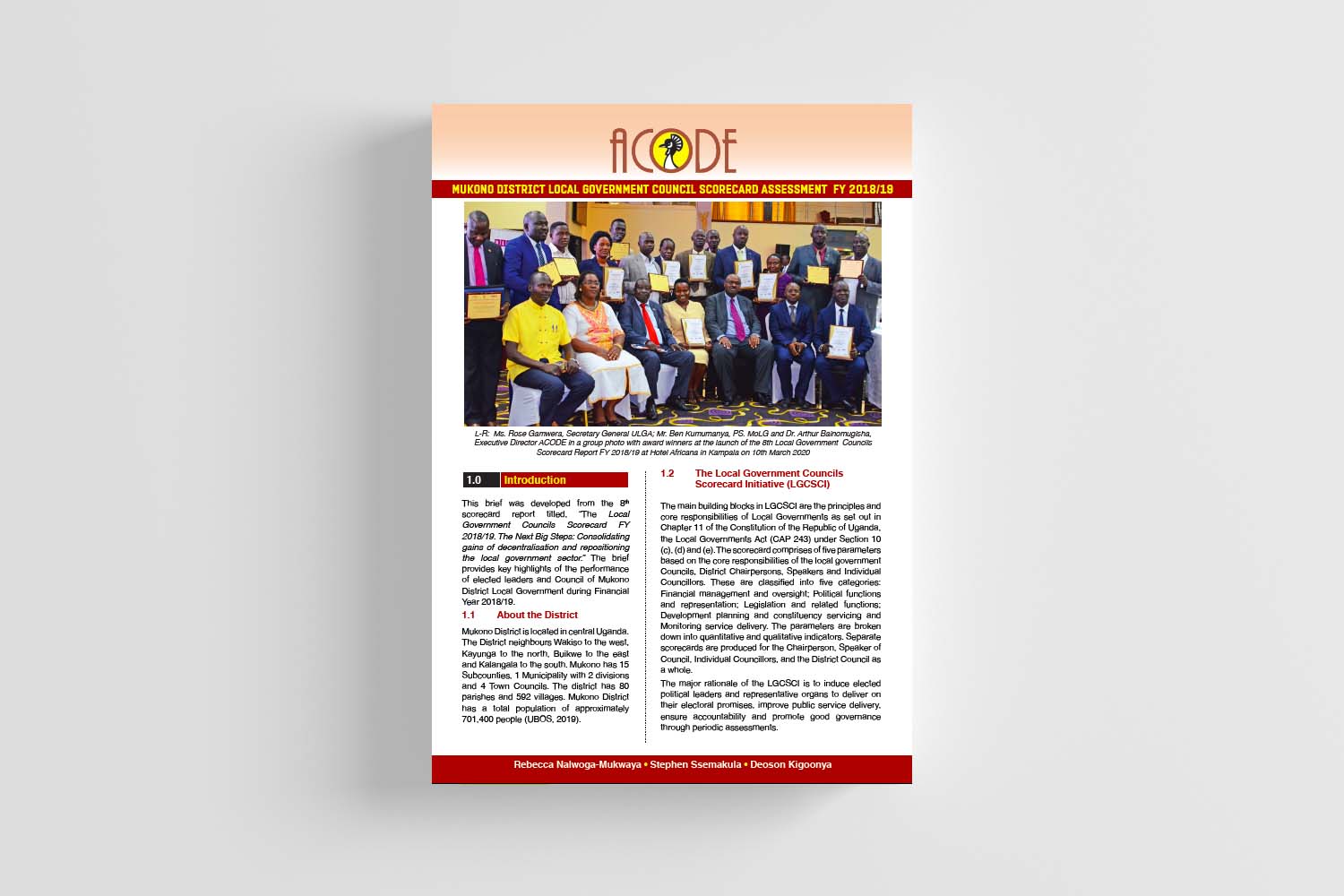
Mukono Local Government Council Scorecard FY 2018/19
Author(s): Rebecca Nalwoga-Mukwaya, Stephen Ssemakula, and Deoson Kigoonya
Published: 2020
This brief was developed from the scorecard report titled, “The Local Government Councils Scorecard FY 2018/19. The Next Big Steps: Consolidating Gains of Decentralisation and Repositioning the Local Government Sector in Uganda.” The brief provides key highlights of the performance of elected leaders and the Council of Mukono District Local Government during the FY 2018/19.
View PDF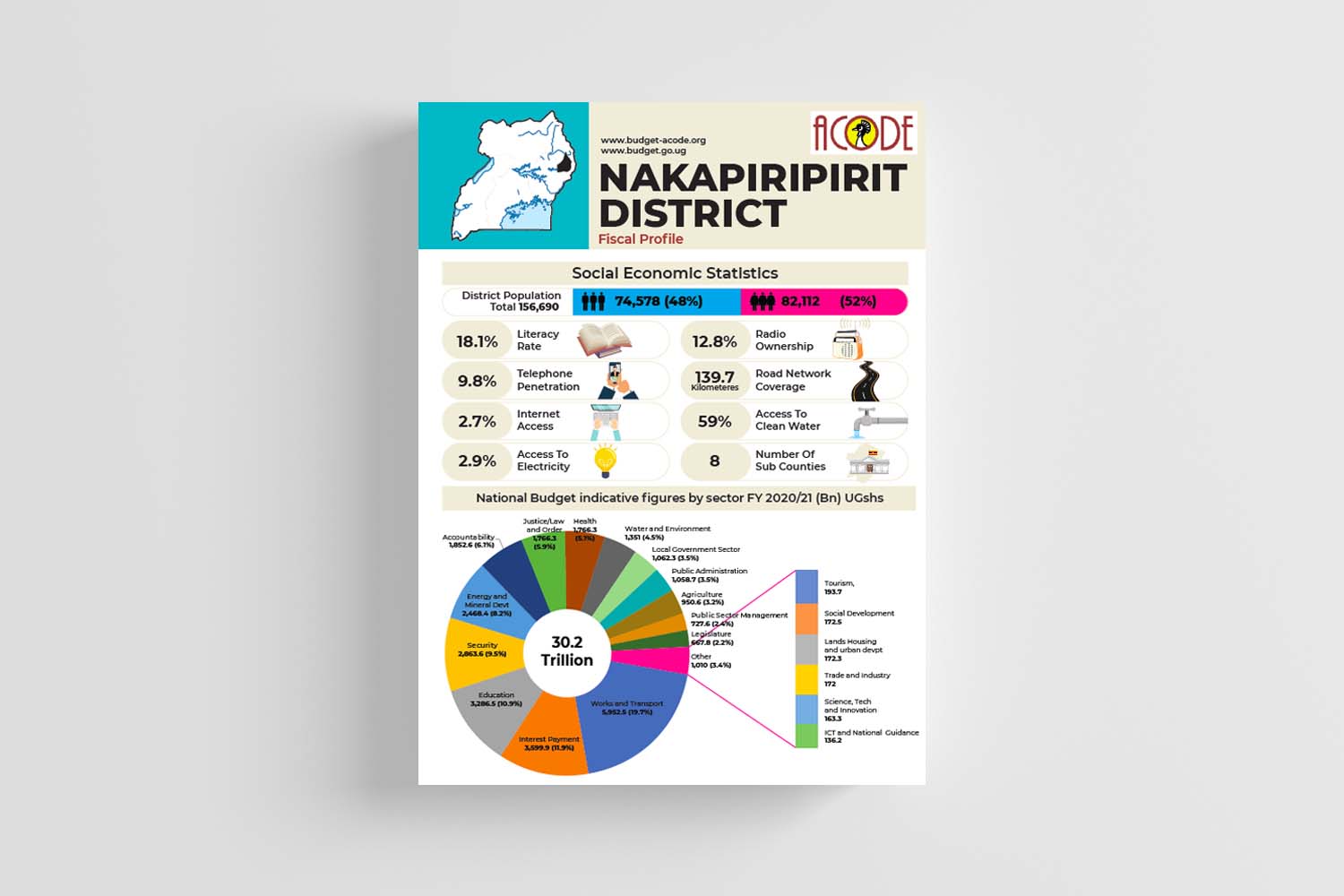
Nakapiripirit Local Government Council Scorecard FY 2018/19
Author(s): Eugene Gerald Ssemakula, Kiru Simon Alasco, and Jenifer Auma
Published: 2020
This brief was developed from the scorecard report titled, “The Local Government Councils Scorecard FY 2018/19. The Next Big Steps: Consolidating Gains of Decentralisation and Repositioning the Local Government Sector in Uganda.” The brief provides key highlights of the performance of elected leaders and the Council of Nakapiripirit District Local Government during the FY 2018/19.
View PDF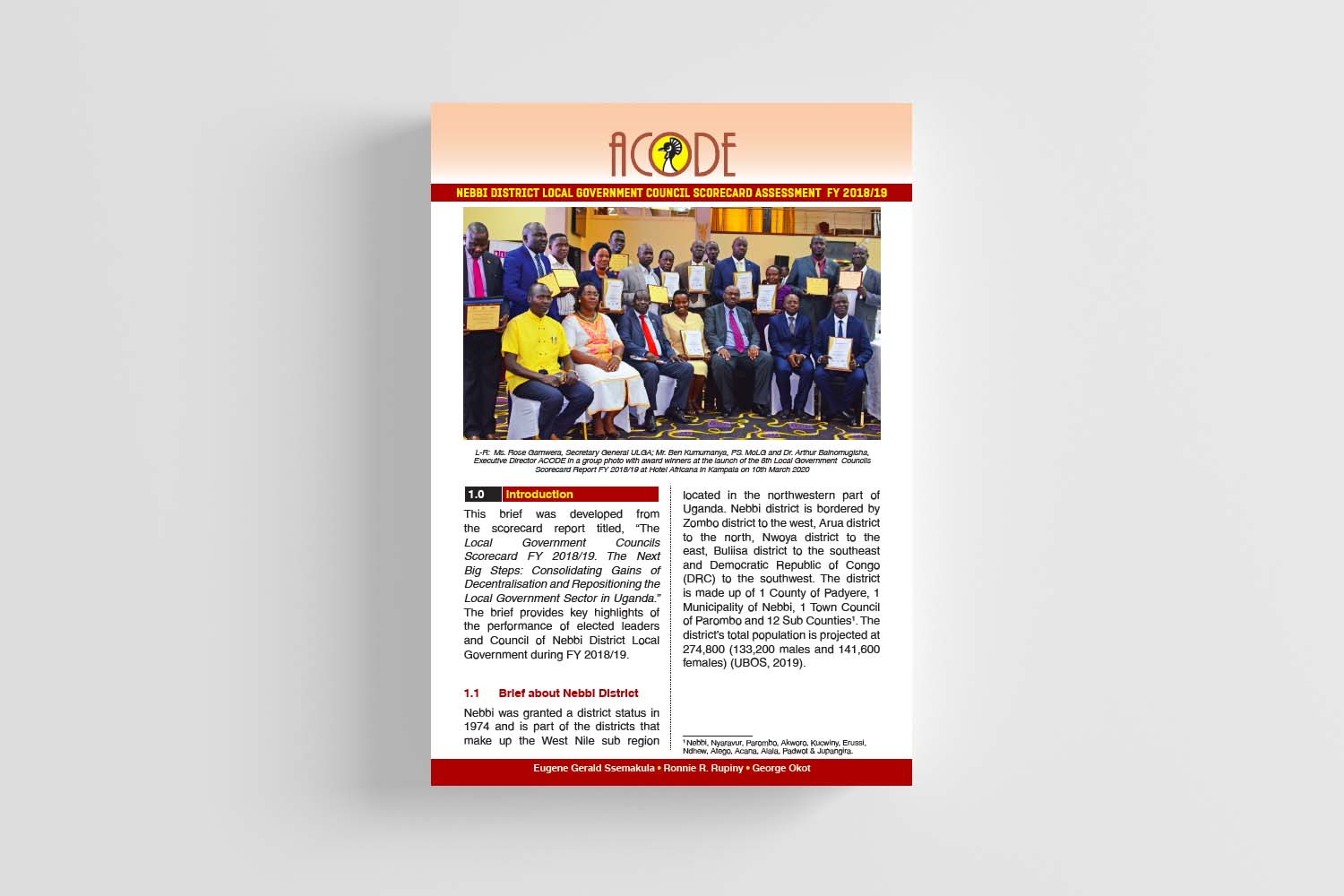
Nebbi Local Government Council Scorecard FY 2018/19
Author(s): Eugene Gerald Ssemakula, Ronnie R. Rupiny, and George Okot
Published: 2020
This brief was developed from the scorecard report titled, “The Local Government Councils Scorecard FY 2018/19. The Next Big Steps: Consolidating Gains of Decentralisation and Repositioning the Local Government Sector in Uganda.” The brief provides key highlights of the performance of elected leaders and the Council of Nebbi District Local Government during the FY 2018/19.
View PDF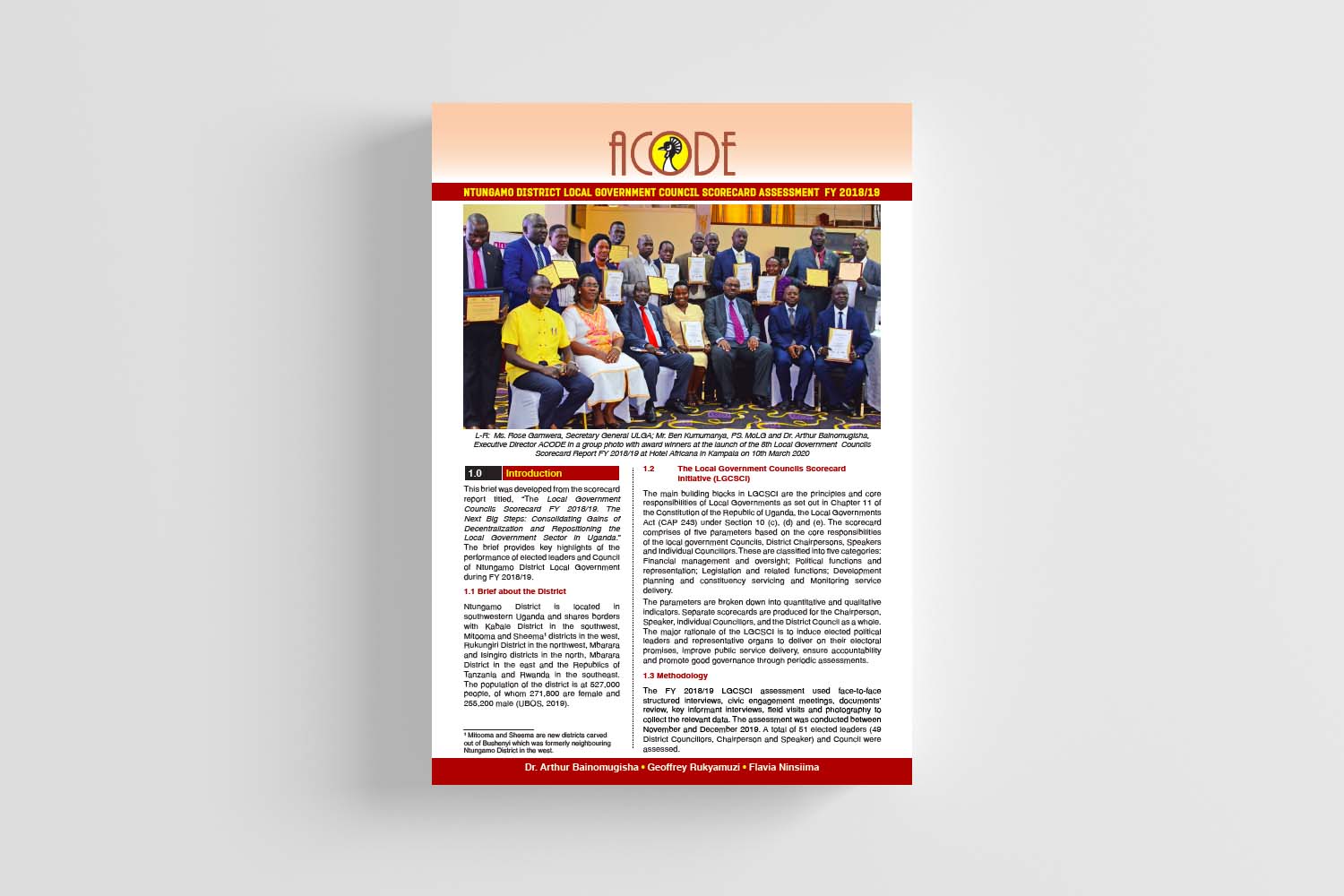
Ntungamo Local Government Council Scorecard FY 2018/19
Author(s): Dr. Arthur Bainomugisha, Geoffrey Rukyamuzi, and Flavia Ninsiima
Published: 2020
This brief was developed from the scorecard report titled, “The Local Government Councils Scorecard FY 2018/19. The Next Big Steps: Consolidating Gains of Decentralisation and Repositioning the Local Government Sector in Uganda.” The brief provides key highlights of the performance of elected leaders and the Council of Ntungamo District Local Government during the FY 2018/19.
View PDF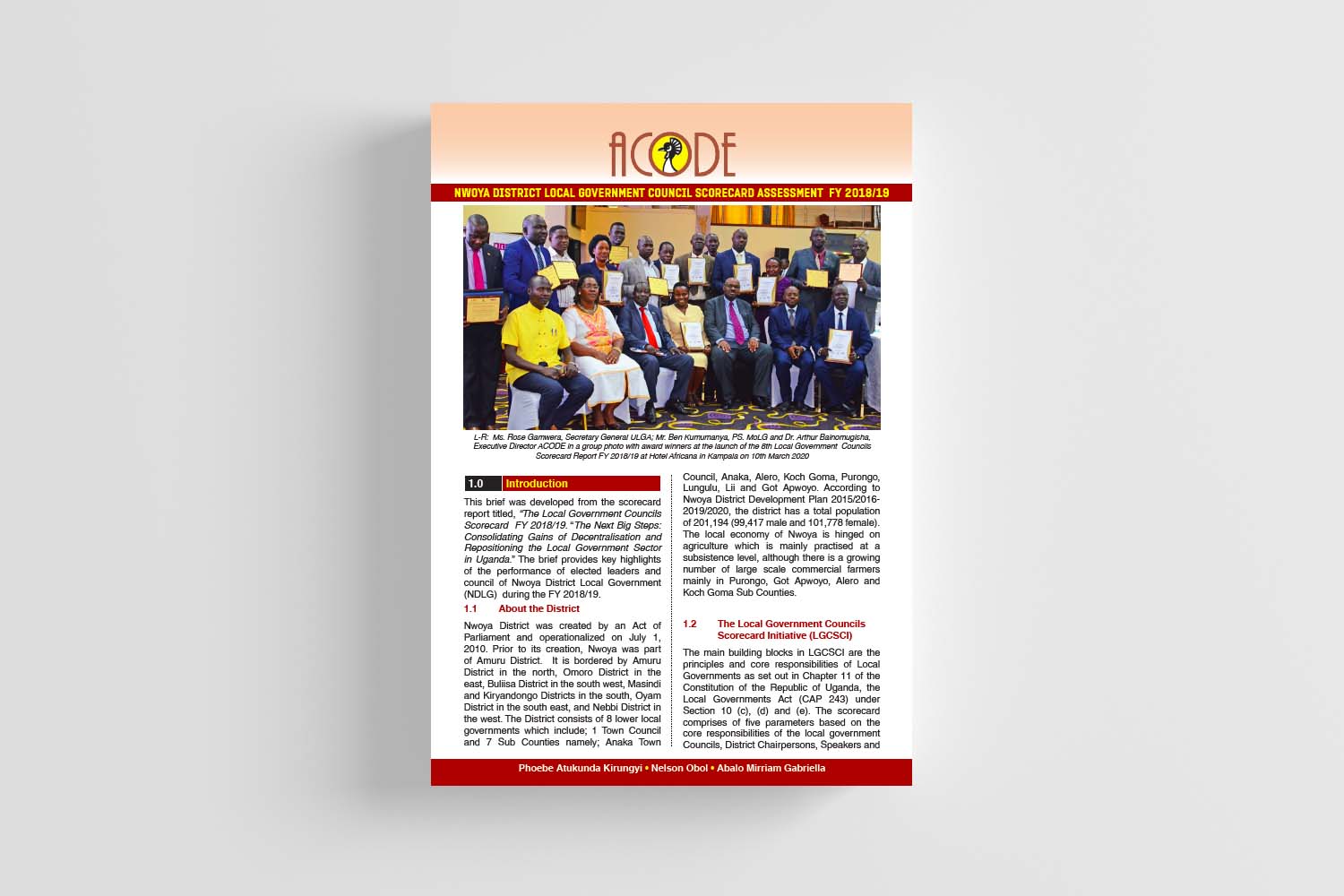
Nwoya Local Government Council Scorecard FY 2018/19
Author(s): Phoebe Atukunda Kirungyi, Nelson Obol, and Abalo Mirriam Gabriella
Published: 2020
This brief was developed from the scorecard report titled, “The Local Government Councils Scorecard FY 2018/19. The Next Big Steps: Consolidating Gains of Decentralisation and Repositioning the Local Government Sector in Uganda.” The brief provides key highlights of the performance of elected leaders and the Council of Nwoya District Local Government during the FY 2018/19.
View PDF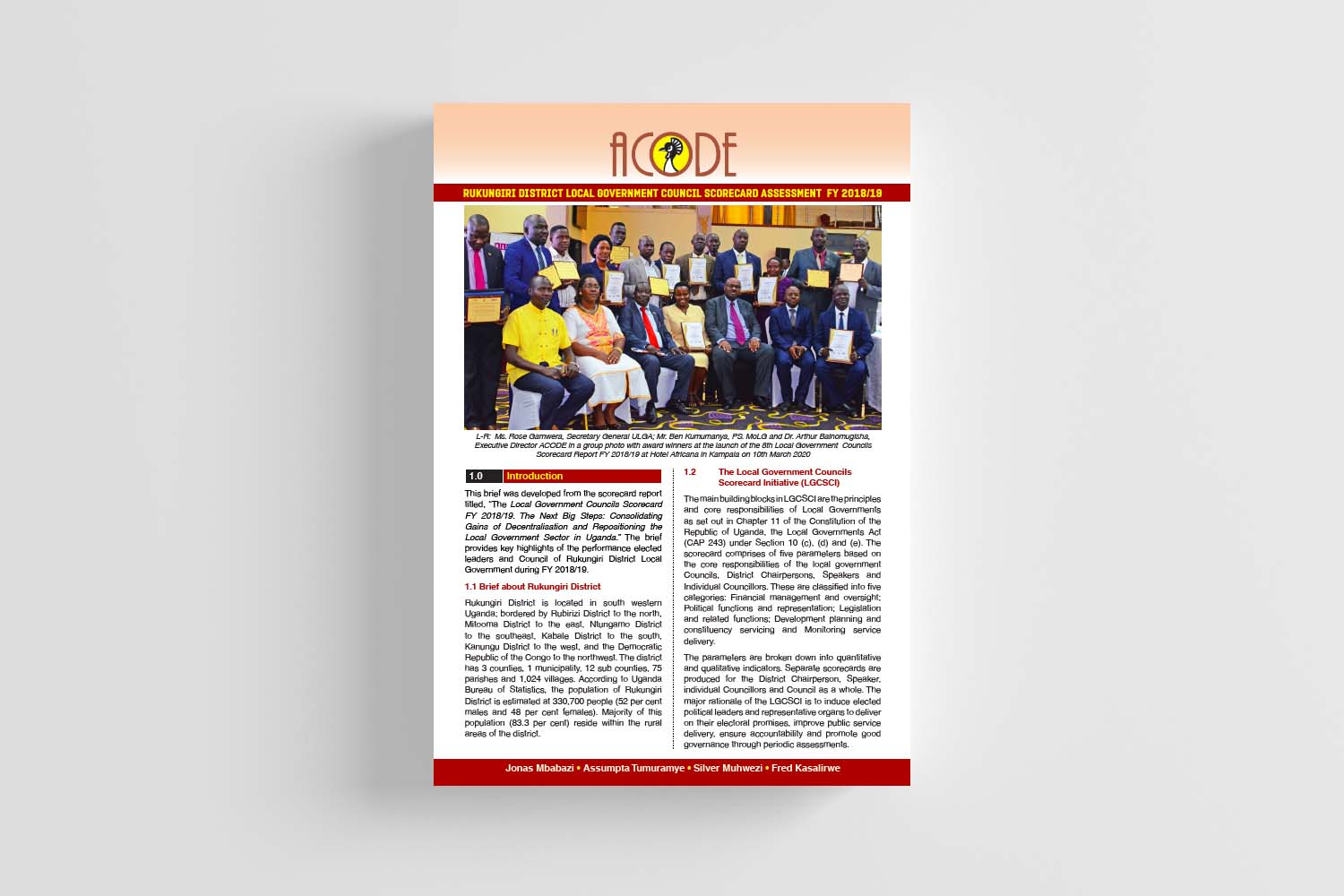
Rukungiri Local Government Council Scorecard FY 2018/19
Author(s): Jonas Mbabazi, Assumpta Tumuramye, Silver Muhwezi, and Fred Kasalirwe
Published: 2020
This brief was developed from the scorecard report titled, “The Local Government Councils Scorecard FY 2018/19. The Next Big Steps: Consolidating Gains of Decentralisation and Repositioning the Local Government Sector in Uganda.” The brief provides key highlights of the performance of elected leaders and the Council of Rukungiri District Local Government during the FY 2018/19.
View PDF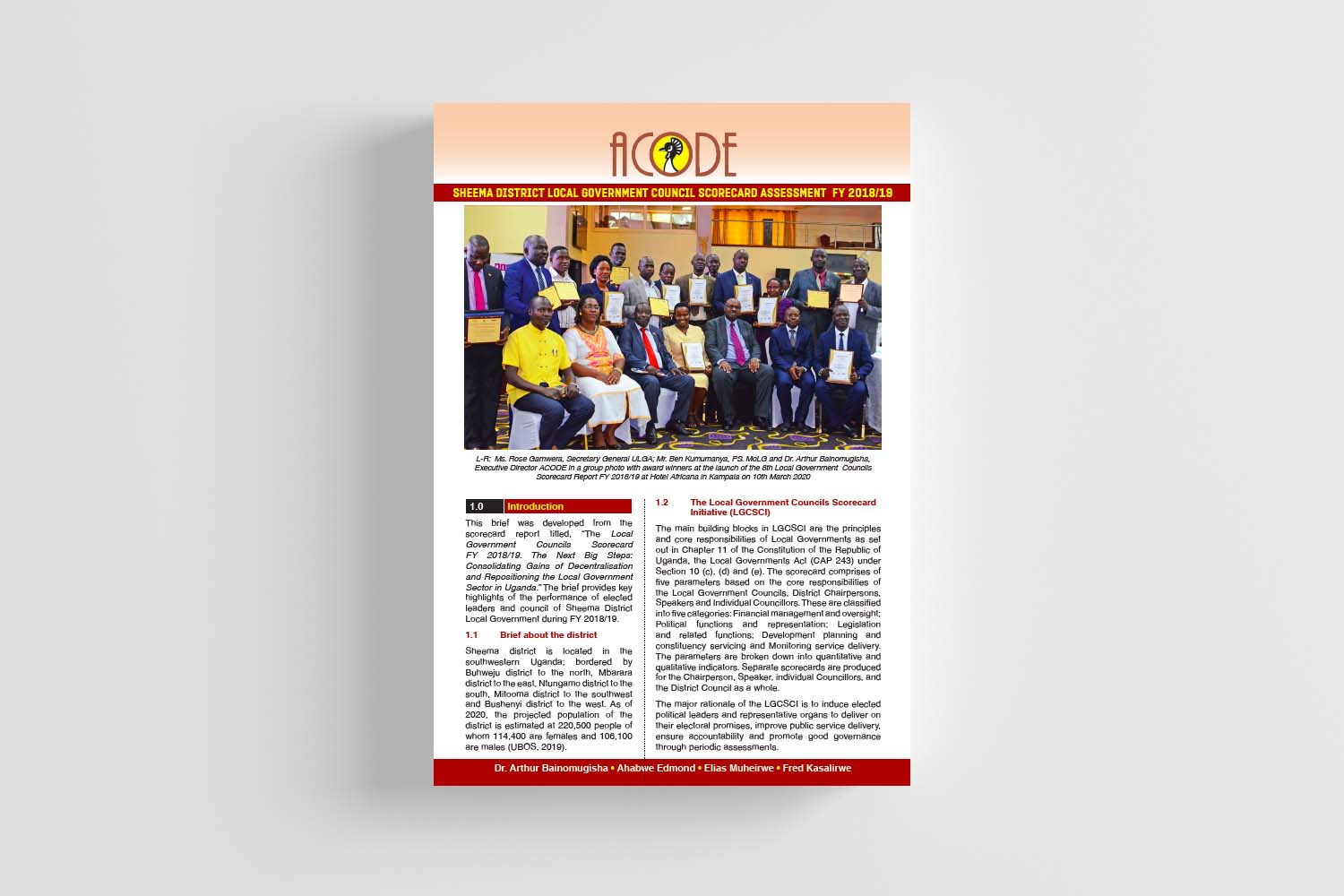
Sheema Local Government Council Scorecard FY 2018/19
Author(s): Dr. Arthur Bainomugisha, Ahabwe Edmond, Elias Muheirwe, Fred Kasalirwe
Published: 2020
This brief was developed from the scorecard report titled, “The Local Government Councils Scorecard FY 2018/19. The Next Big Steps: Consolidating Gains of Decentralisation and Repositioning the Local Government Sector in Uganda.” The brief provides key highlights of the performance of elected leaders and the Council of Sheema District Local Government during the FY 2018/19.
View PDF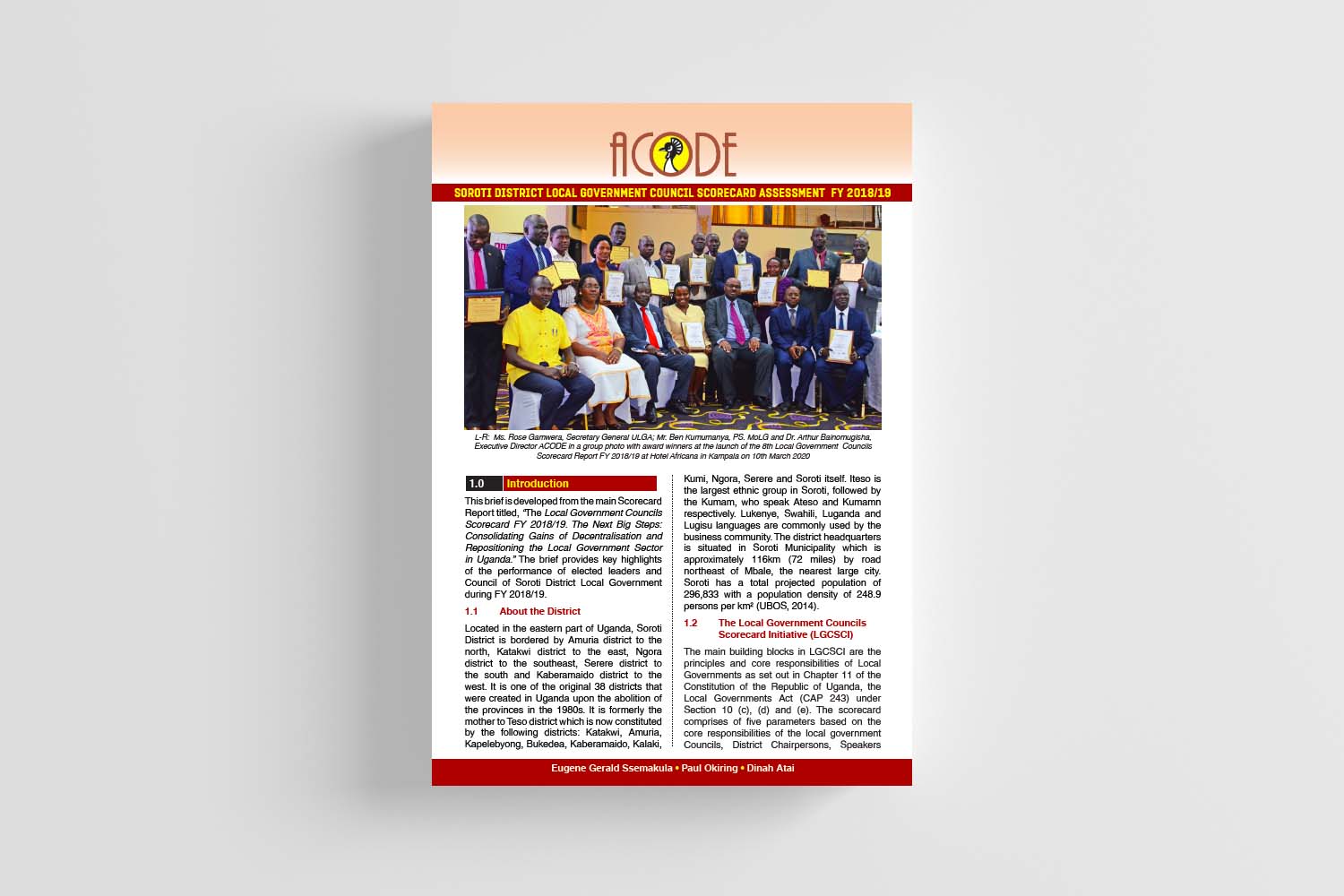
Soroti Local Government Council Scorecard FY 2018/19
Author(s): Eugene Gerald Ssemakula • Paul Okiring • Dinah Atai
Published: 2020
This brief was developed from the scorecard report titled, “The Local Government Councils Scorecard FY 2018/19. The Next Big Steps: Consolidating Gains of Decentralisation and Repositioning the Local Government Sector in Uganda.” The brief provides key highlights of the performance of elected leaders and the Council of Soroti District Local Government during the FY 2018/19.
View PDF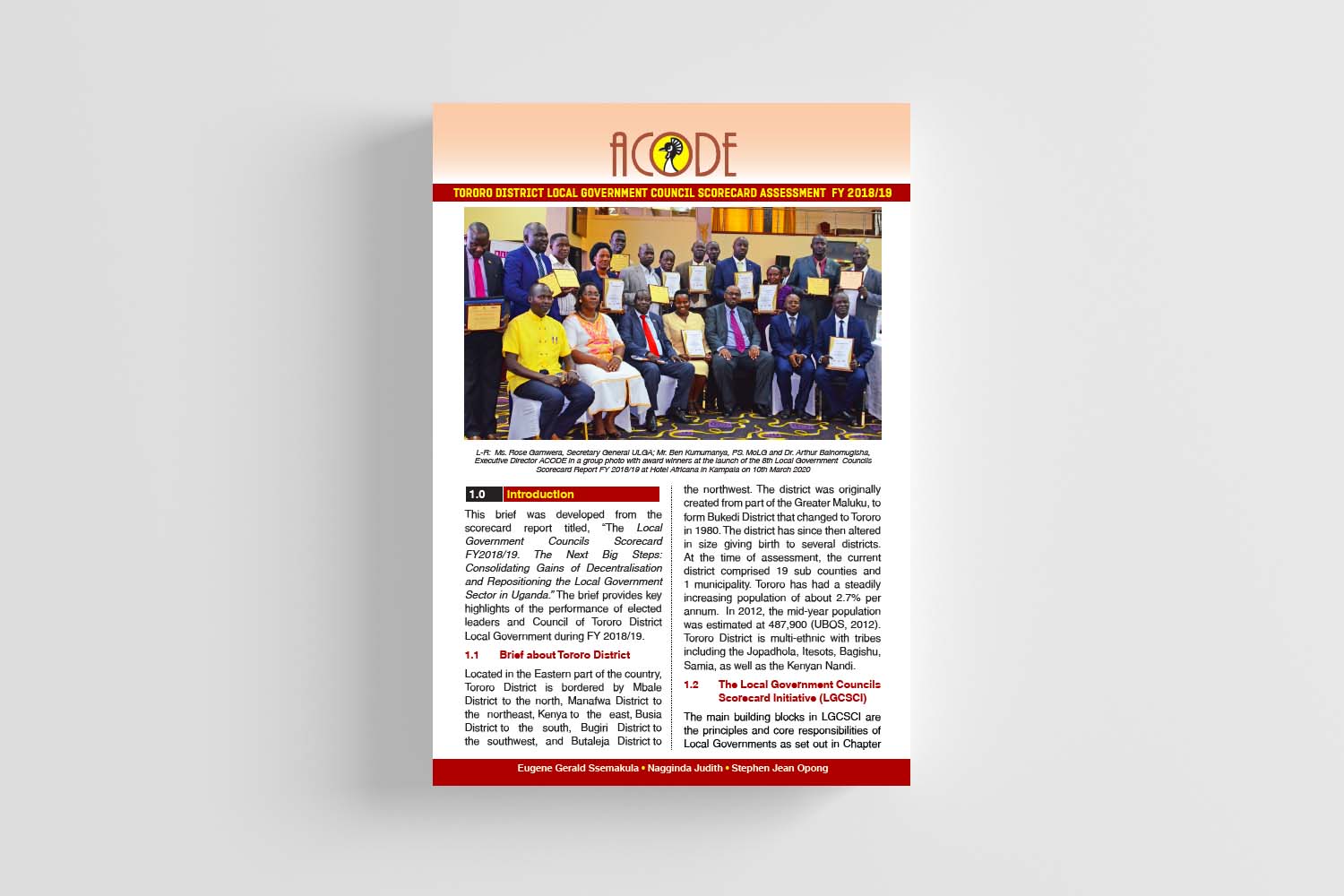
Tororo Local Government Council Scorecard FY 2018/19
Author(s): Eugene Gerald Ssemakula • Nagginda Judith • Stephen Jean Opong
Published: 2020
This brief was developed from the scorecard report titled, “The Local Government Councils Scorecard FY 2018/19. The Next Big Steps: Consolidating Gains of Decentralisation and Repositioning the Local Government Sector in Uganda.” The brief provides key highlights of the performance of elected leaders and the Council of Tororo District Local Government during the FY 2018/19.
View PDF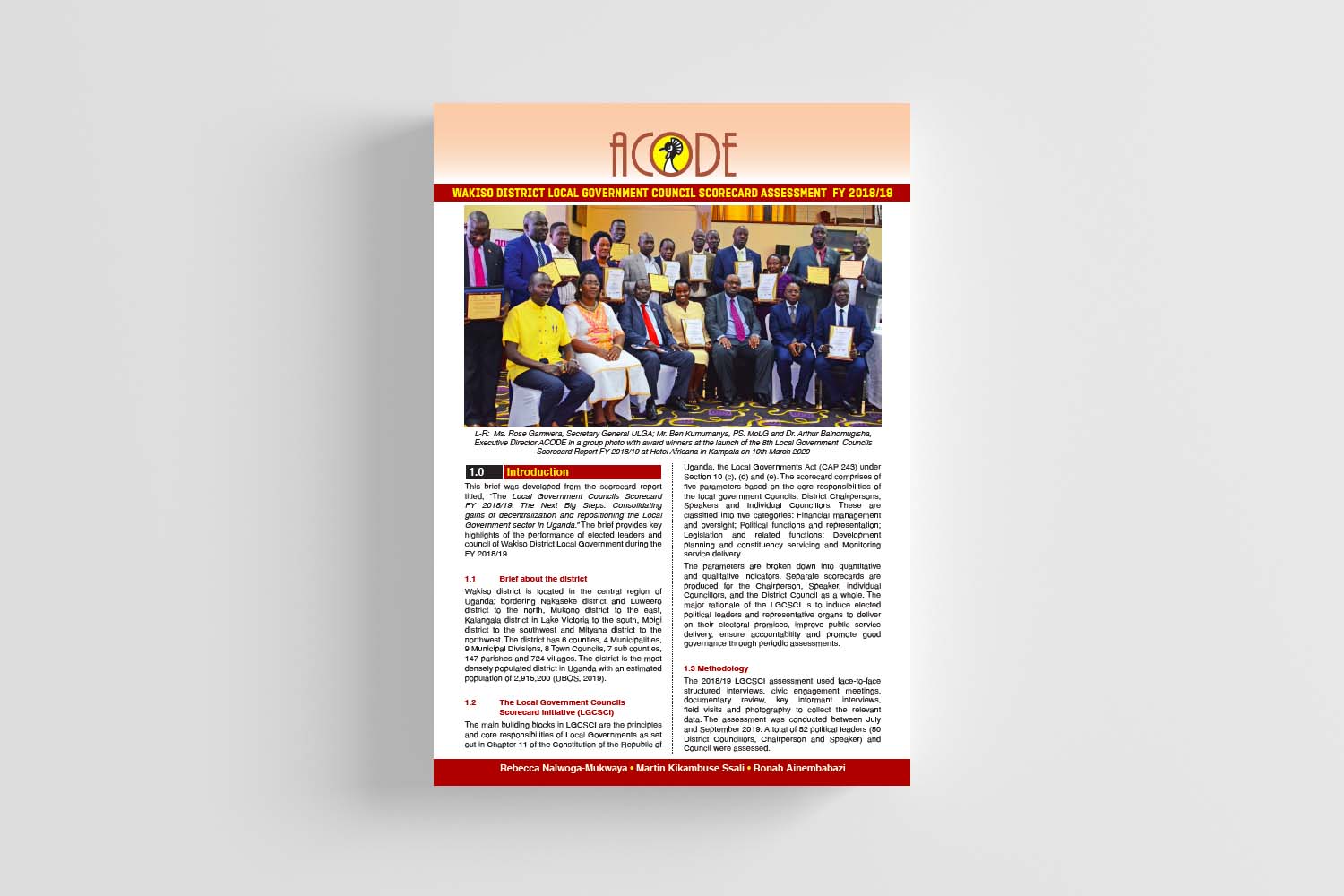
Wakiso Local Government Council Scorecard FY 2018/19
Author(s): Rebecca Nalwoga-Mukwaya, Martin Kikambuse Ssali, and Ronah Ainembabazi
Published: 2020
This brief was developed from the scorecard report titled, “The Local Government Councils Scorecard FY 2018/19. The Next Big Steps: Consolidating Gains of Decentralisation and Repositioning the Local Government Sector in Uganda.” The brief provides key highlights of the performance of elected leaders and the Council of Wakiso District Local Government during the FY 2018/19.
View PDF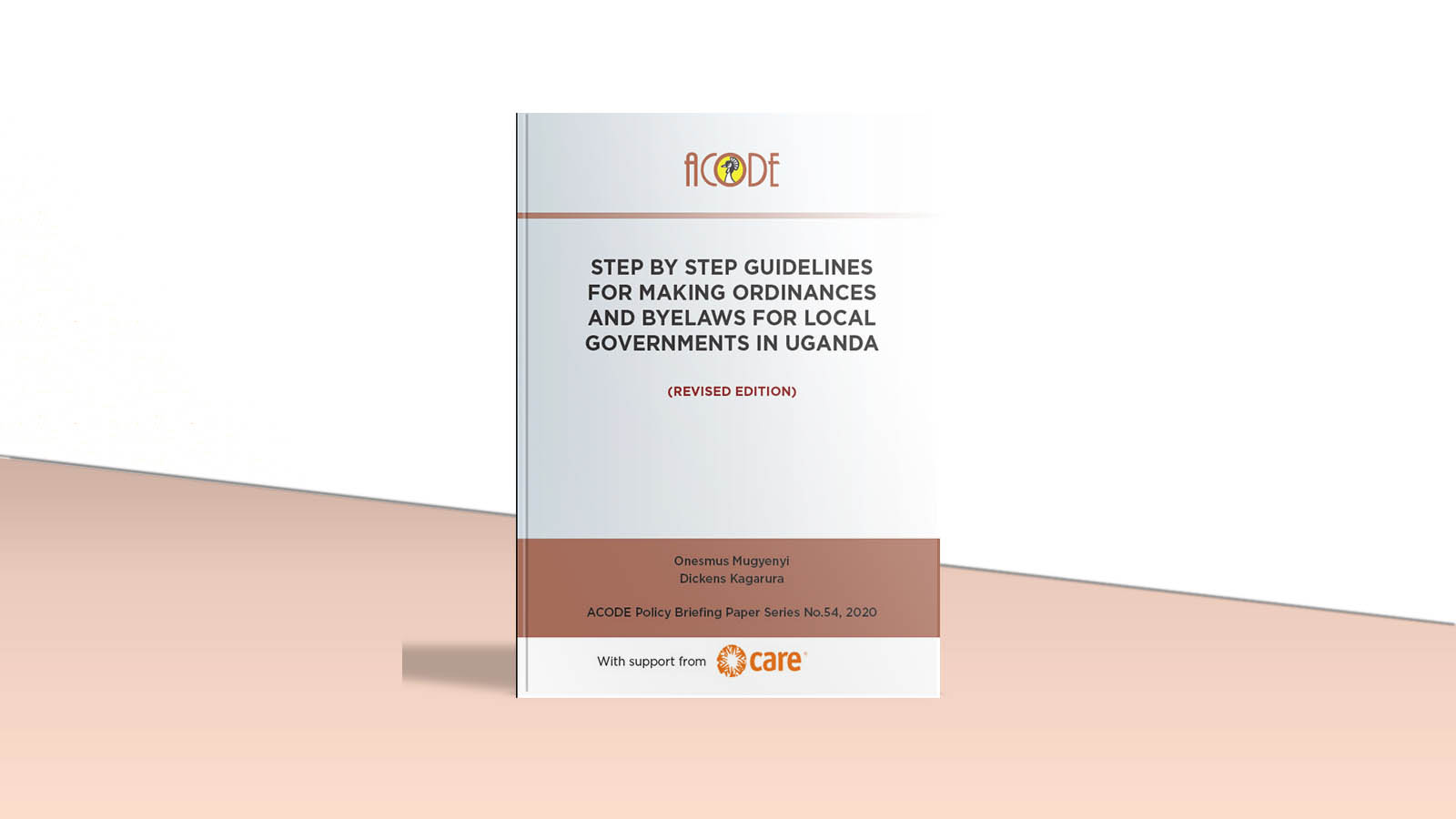
Step by Step Guidelines for Making Ordinances and Byelaws in Uganda (Revised Edition)
Author(s): Onesmus Mugyenyi and Dickens Kagarura
Published: 2020
The paper is intended to illustrate in a simple way the procedures for making ordinances and Byelaws by both the district councils and lower local governments. These guidelines are based on the Local Government Act. In compiling the guidelines, we extensively used the “Handbook on Making Ordinances and Byelaws in Uganda, Revised Edition, 2010” by the Uganda Law Reform Commission and the Third Schedule of the Local Government Act.
View PDF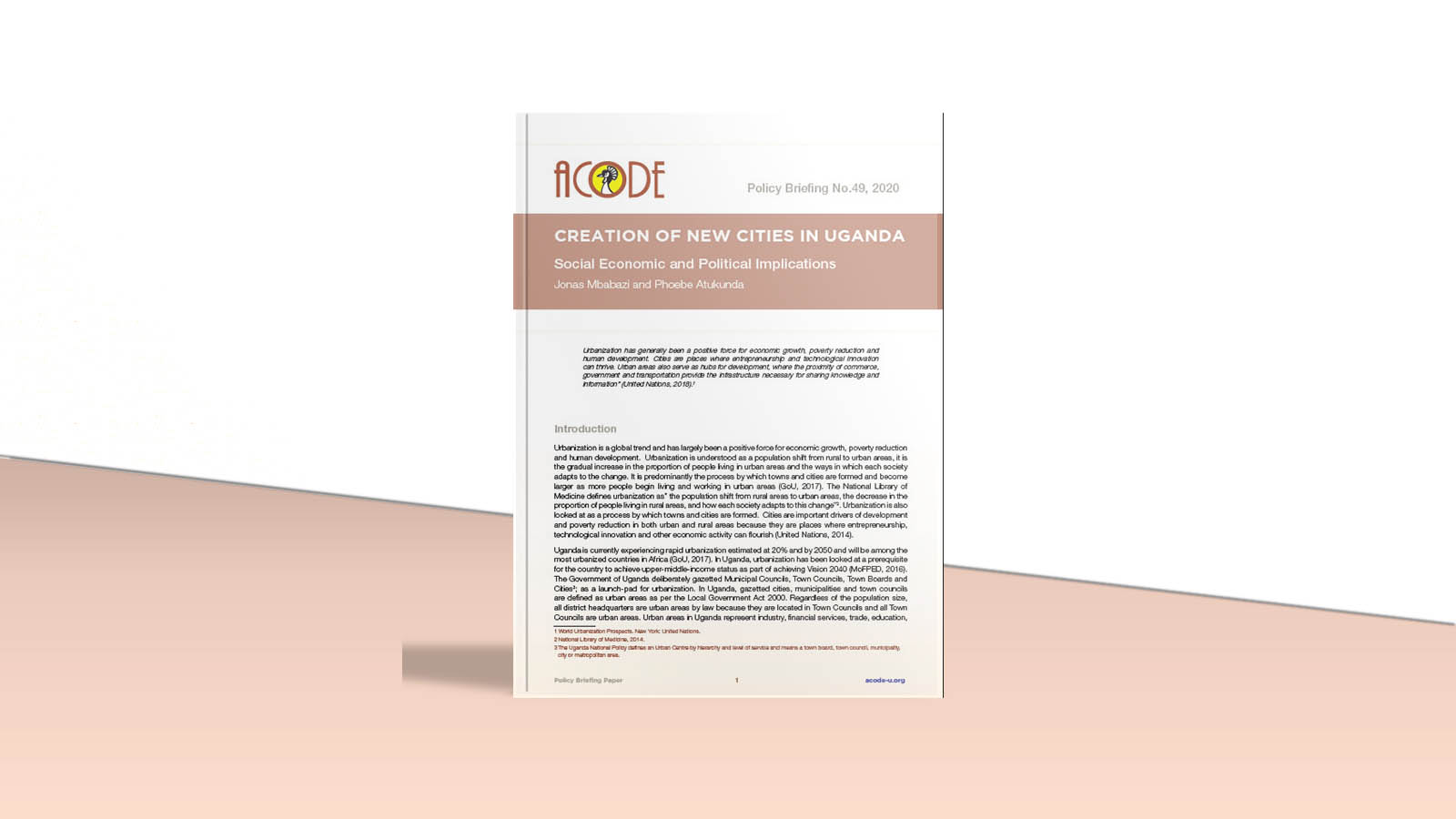
CREATION OF NEW CITIES IN UGANDA: Social Economic and Political Implications
Author(s): Jonas Mbabazi and Phoebe Atukunda
Published: 2020
The paper highlights that cities rapidly emerge in Uganda, the opportunity and the necessity remain to get urbanisation right. This, in turn, should be able to provide the foundation for achieving the productivity miracle. Therefore, urbanisation holds one of the single strongest growth opportunities for Uganda. The creation of cities has social, economic and political implications to the country.
View PDF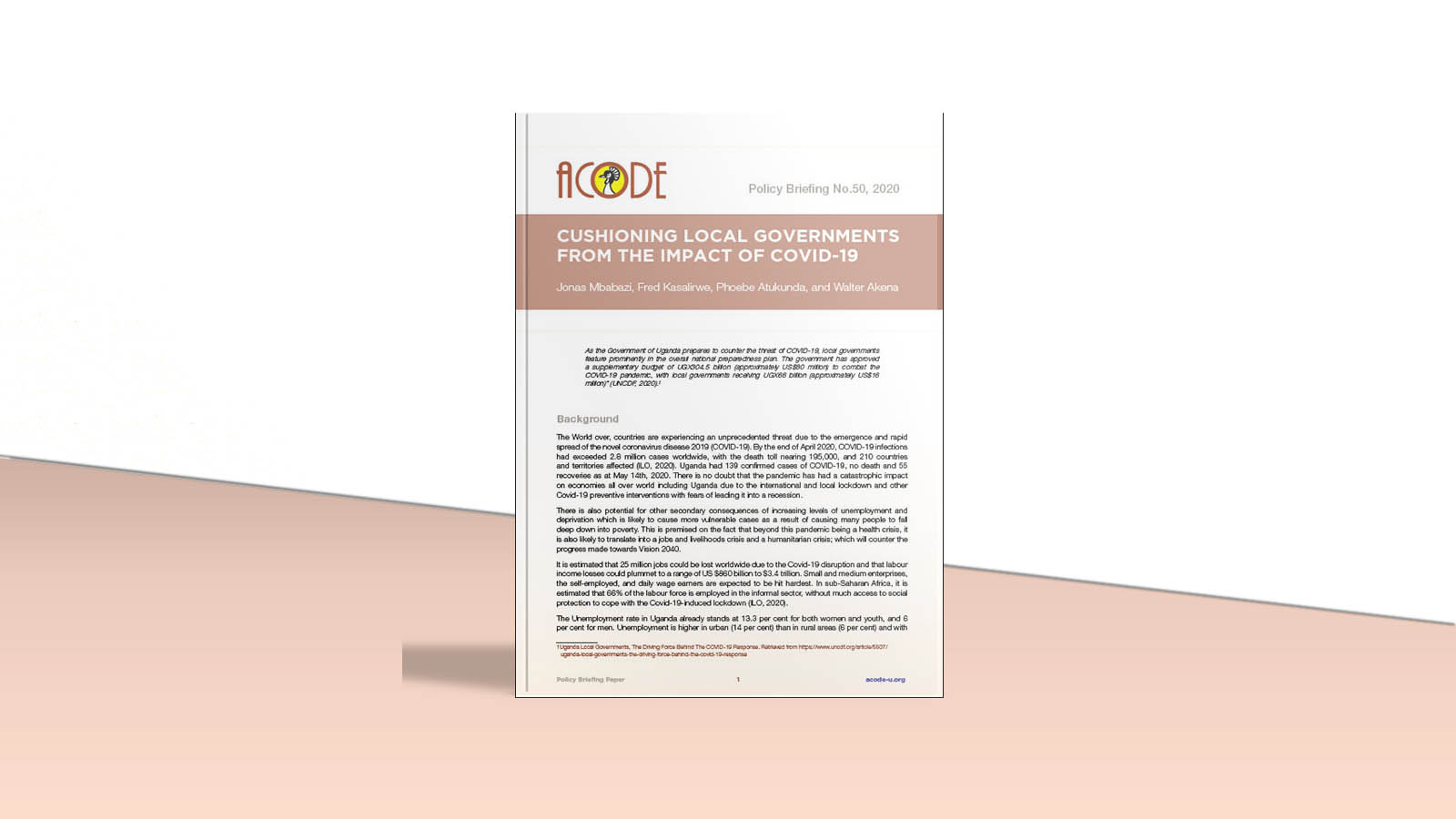
CUSHIONING LOCAL GOVERNMENTS FROM THE IMPACT OF COVID-19
Author(s): Jonas Mbabazi, Fred Kasalirwe, Phoebe Atukunda, and Walter Akena
Published: 2020
The paper show that Local Government leaders are at the forefront of the fight against the pandemic. The urgency of their response to this pandemic not only defines their leadership, it also impacts on the wellbeing of citizens. Therefore, it’s against this background that Local Governments have to prepare for the effects of the COVID -19 crisis to ensure continuity and wellbeing of citizens. The paper highlights key challenges that are already afflicting local governments and their operations in this crisis.
View PDF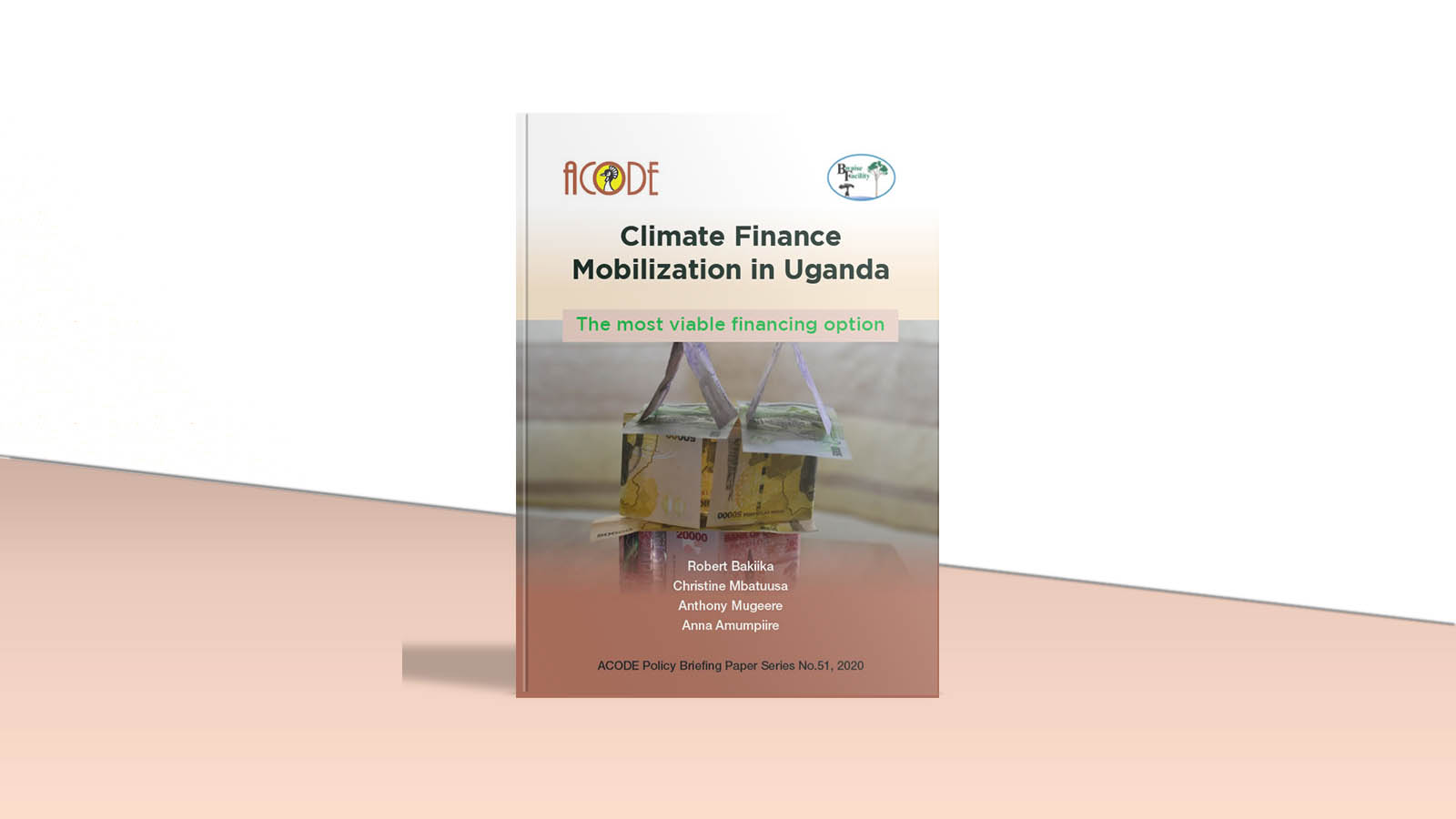
Climate Finance Mobilization in Uganda: The most viable financing option,
Author(s): Robert Bakiika, Christine Mbatuusa, Anthony Mugeere, and Anna Amumpiire
Published: 2020
This policy briefing paper provides a summary of the key findings of the study and highlights the possible climate finance mobilization mechanisms feasible for Uganda. The study highlighted the operating policy, legal and institutional framework on public climate finance and makes reference of country case studies on climate finance mobilization, proposes various options for climate finance mobilization based on stakeholders’ view and proposes the most viable option.
View PDF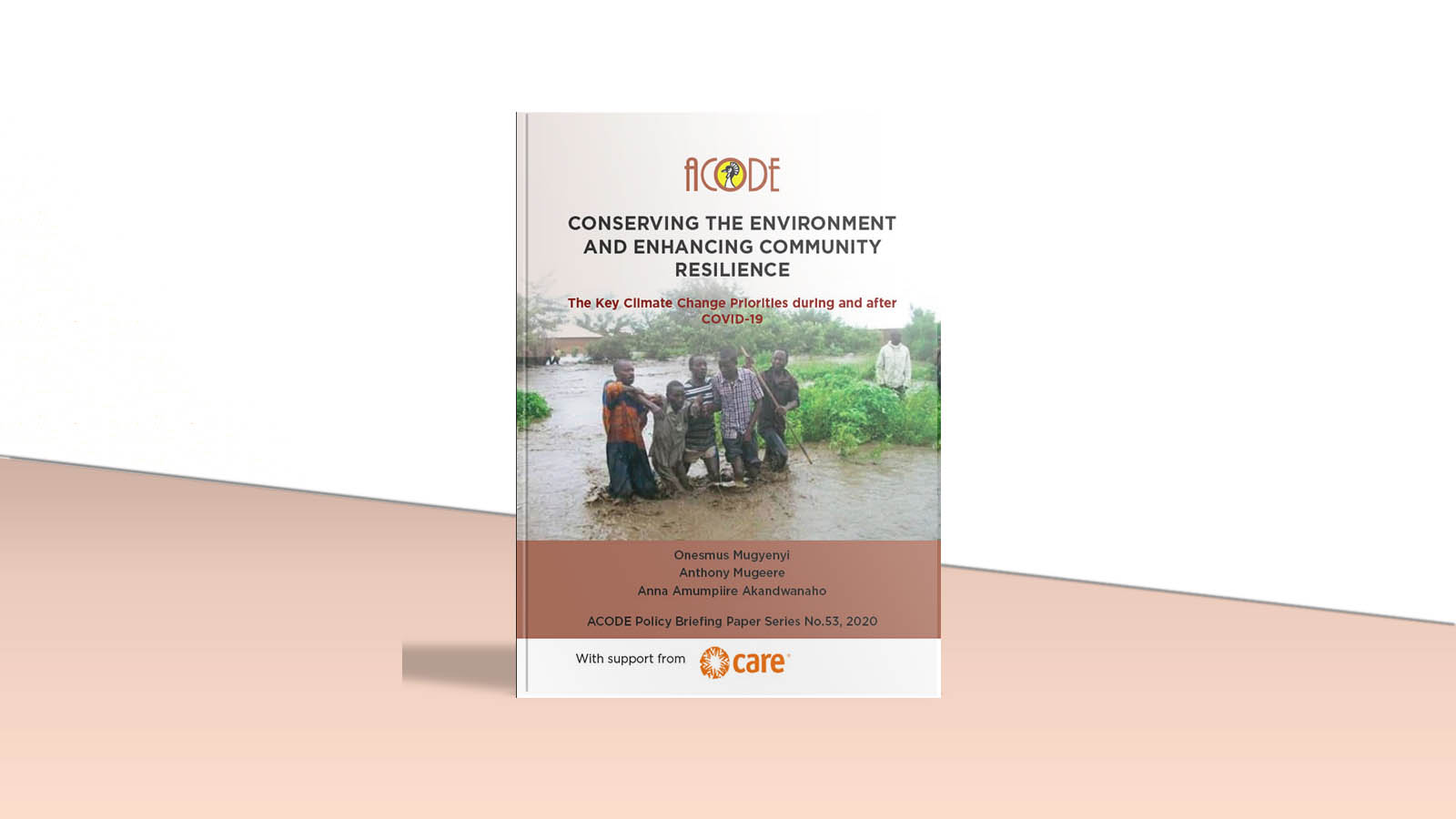
Conserving the Environment and Enhancing Community Resilience: The Key Climate Change Priorities during and after COVID-19
Author(s): Onesmus Mugyenyi, Anthony Mugeere, and Anna Amumpiire Akandwanaho
Published: 2020
This policy brief argues for the conservation of the environment during and after the COVID-19 pandemic while at the same time enhancing community resilience to climate change shocks. The brief proposes recommendations that need to be addressed by the Government of Uganda and all stakeholders in this sector in order to achieve sustainable development.
View PDF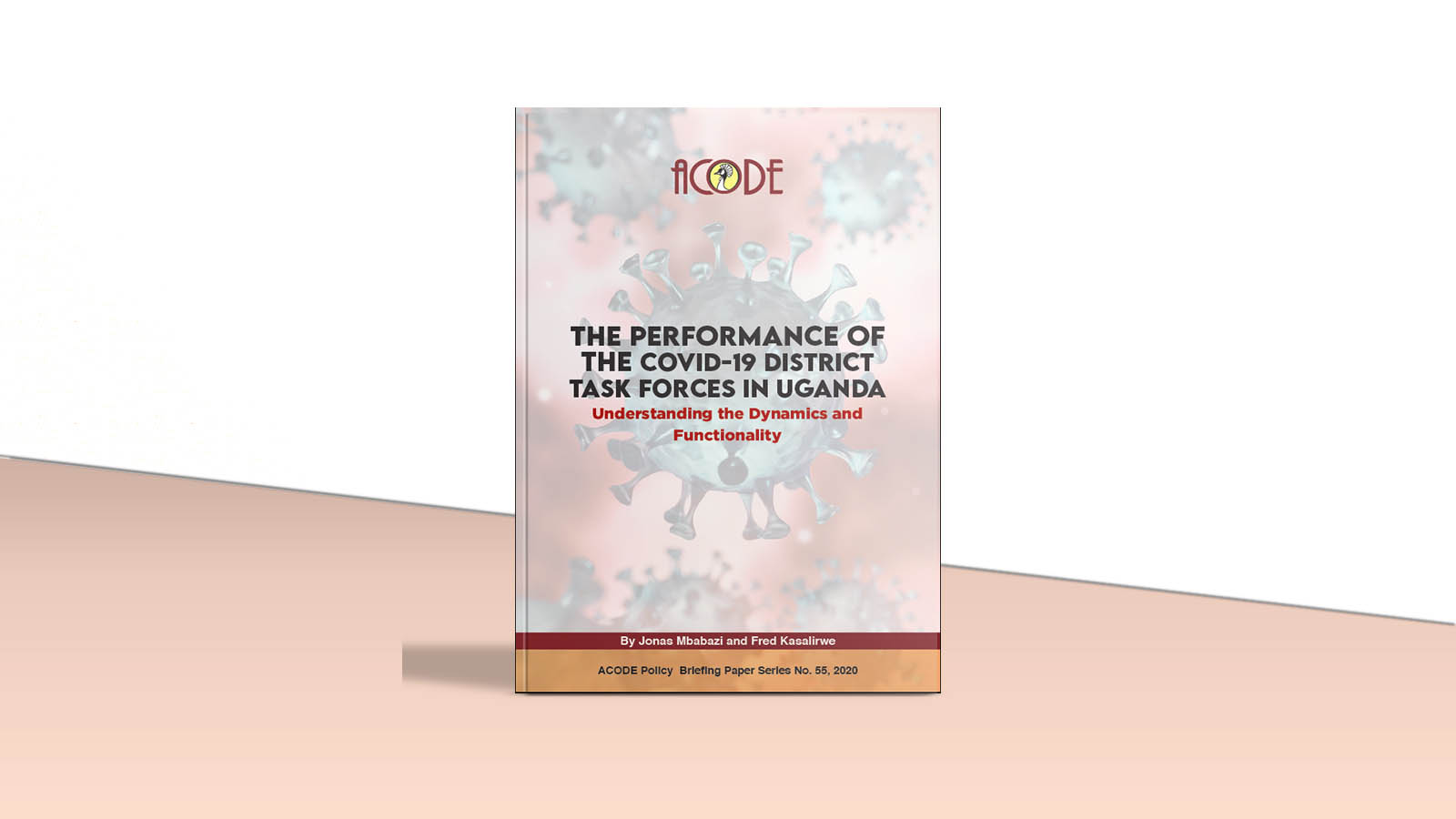
The Performance of the COVID-19 District Task Forces in Uganda: Understanding the Dynamics and Functionality
Author(s): Jonas Mbabazi and Fred Kasalirwe
Published: 2020
This policy brief is a product of the assessment of the performance of the COVID-19 District Task Forces (DTFs) in Uganda. This study on the performance of the COVID-19 District Task Forces was conducted under the Local Government Council’s Scorecard Initiative (LGCSCI), a social accountability project implemented in 35 Districts in Uganda. The main objective of the study was to establish the determinants and level of performance of District COVID-19 Task Forces to enhance their effectiveness.
View PDF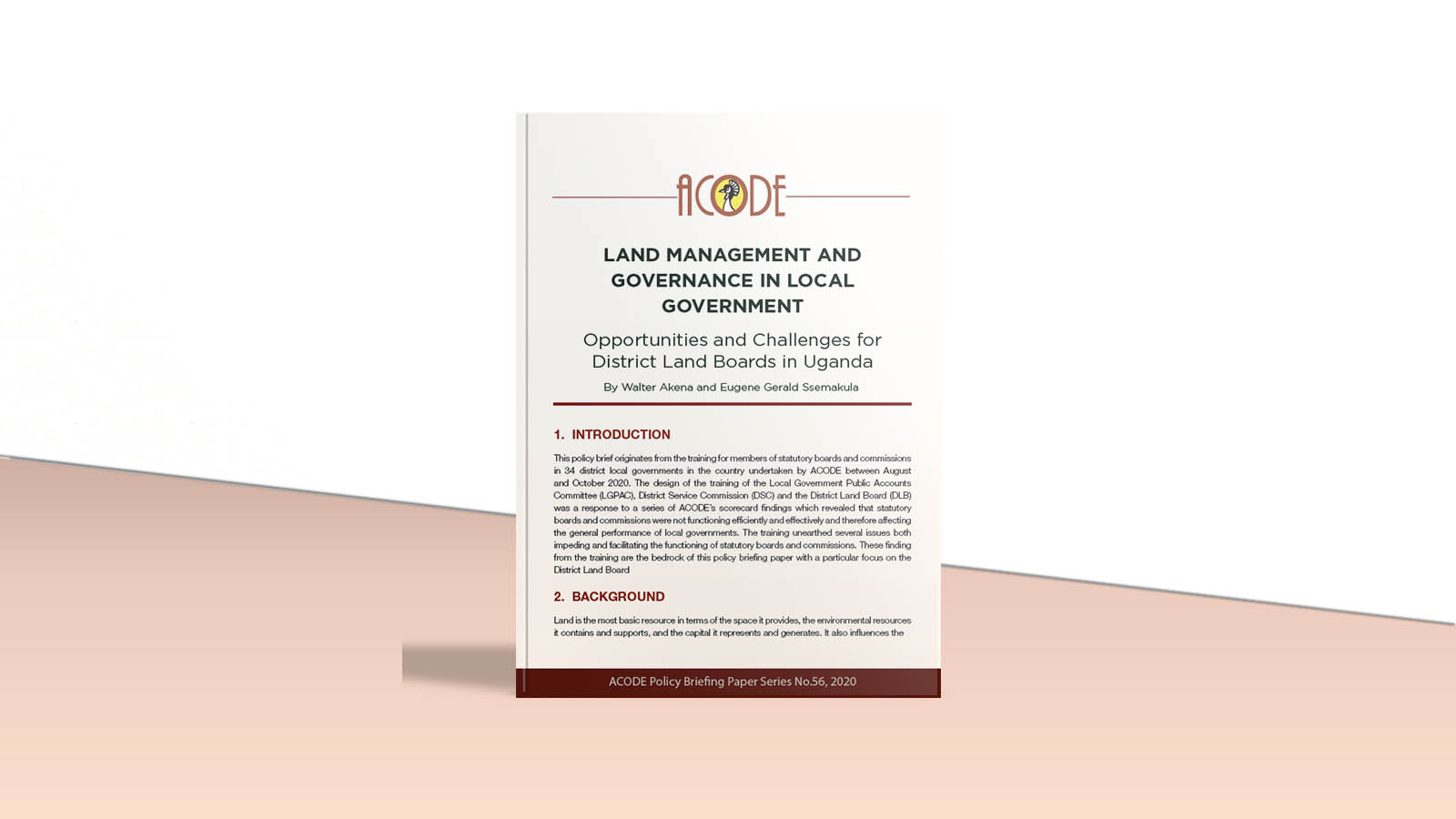
Land Management and Governance in Local Government: Opportunities and Challenges for District Land Boards in Uganda
Author(s): Walter Akena and Eugene Gerald Ssemakula
Published: 2020
This policy brief originates from the training for members of statutory boards and commissions in 34 district local governments in the country undertaken by ACODE between August and October 2020. The design of the training of the Local Government Public Accounts Committee (LGPAC), District Service Commission (DSC) and the District Land Board (DLB) was a response to a series of ACODE’s scorecard findings which revealed that statutory boards and commissions were not functioning efficiently and effectively and therefore affecting the general performance of local governments.
View PDF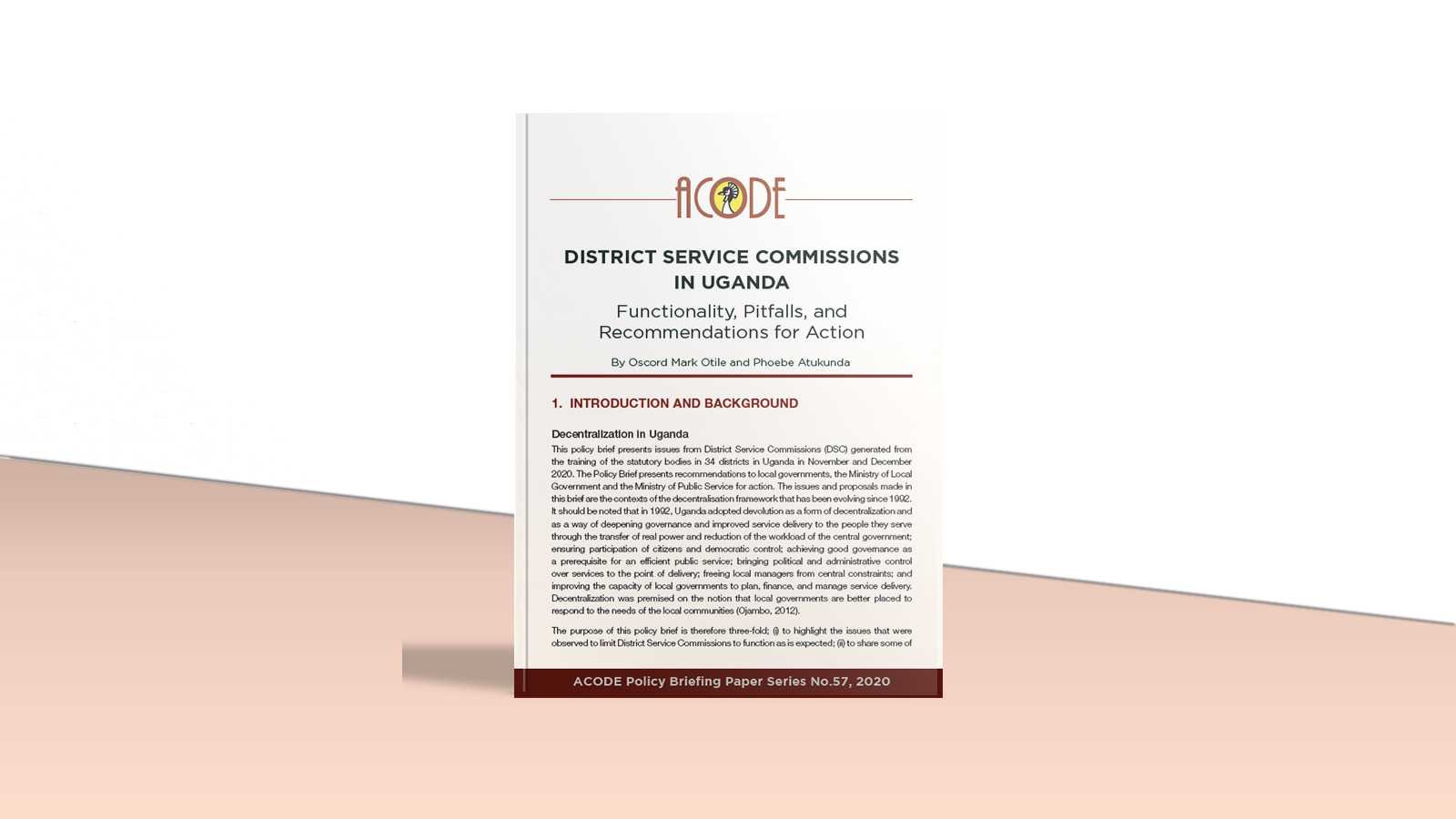
District Service Commissions in Uganda: Functionality, Pitfalls, and Recommendations for Action
Author(s): Oscord Mark Otile and Phoebe Atukunda
Published: 2020
This policy brief presents issues from District Service Commissions (DSC) generated from the training of the statutory bodies in 34 districts in Uganda in November and December 2020. The Policy Brief presents recommendations to local governments, the Ministry of Local Government and the Ministry of Public Service for action.
View PDF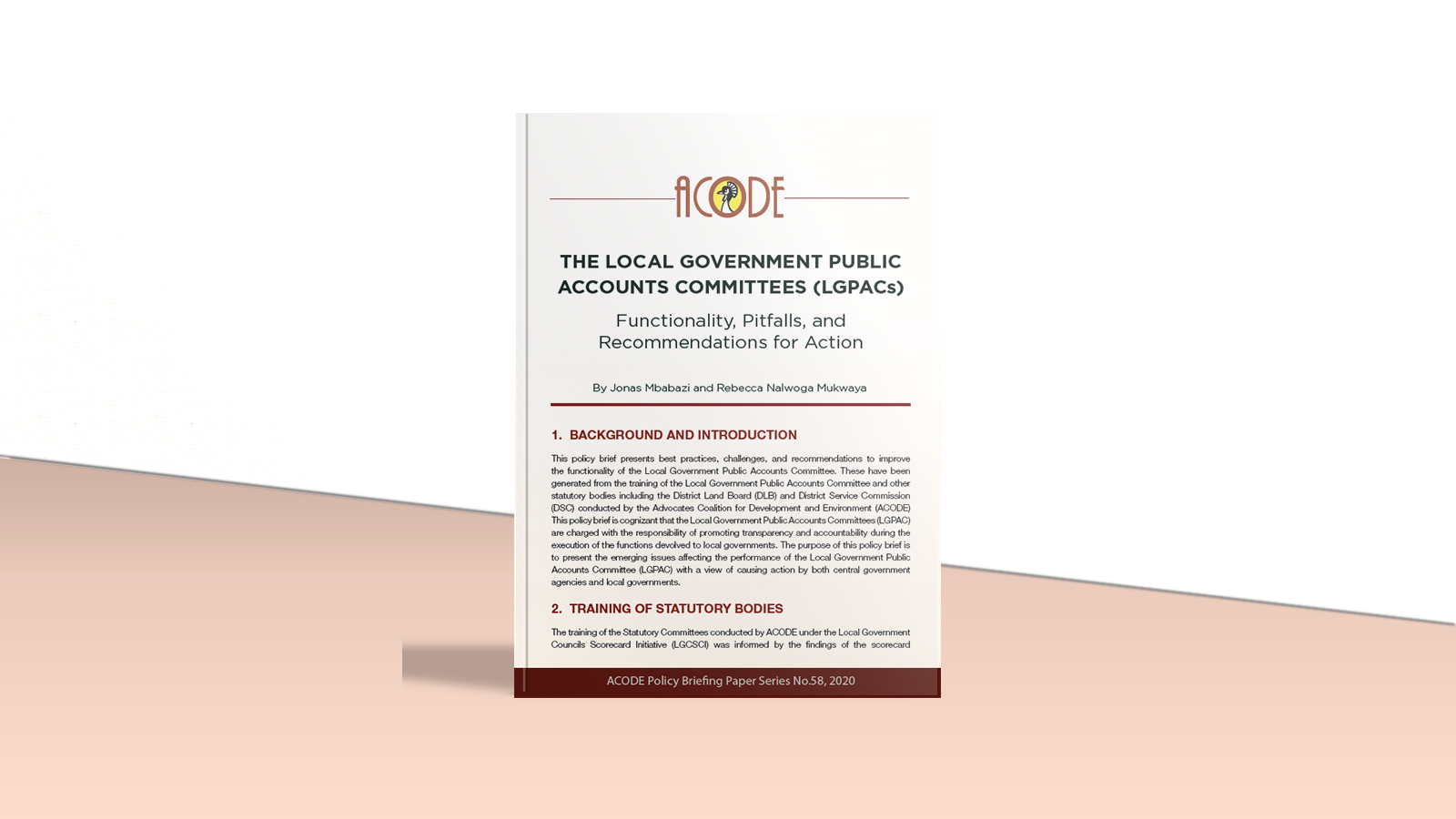
The Local Government Public Accounts Committees: Functionality, Pitfalls, and Recommendations for Action
Author(s): Jonas Mbabazi and Rebecca Nalwoga Mukwaya
Published: 2020
This policy brief presents best practices, challenges, and recommendations to improve the functionality of the Local Government Public Accounts Committee. These have been generated from the training of the Local Government Public Accounts Committee and other statutory bodies including the District Land Board (DLB) and District Service Commission (DSC) conducted by the Advocates Coalition for Development and Environment (ACODE)
View PDF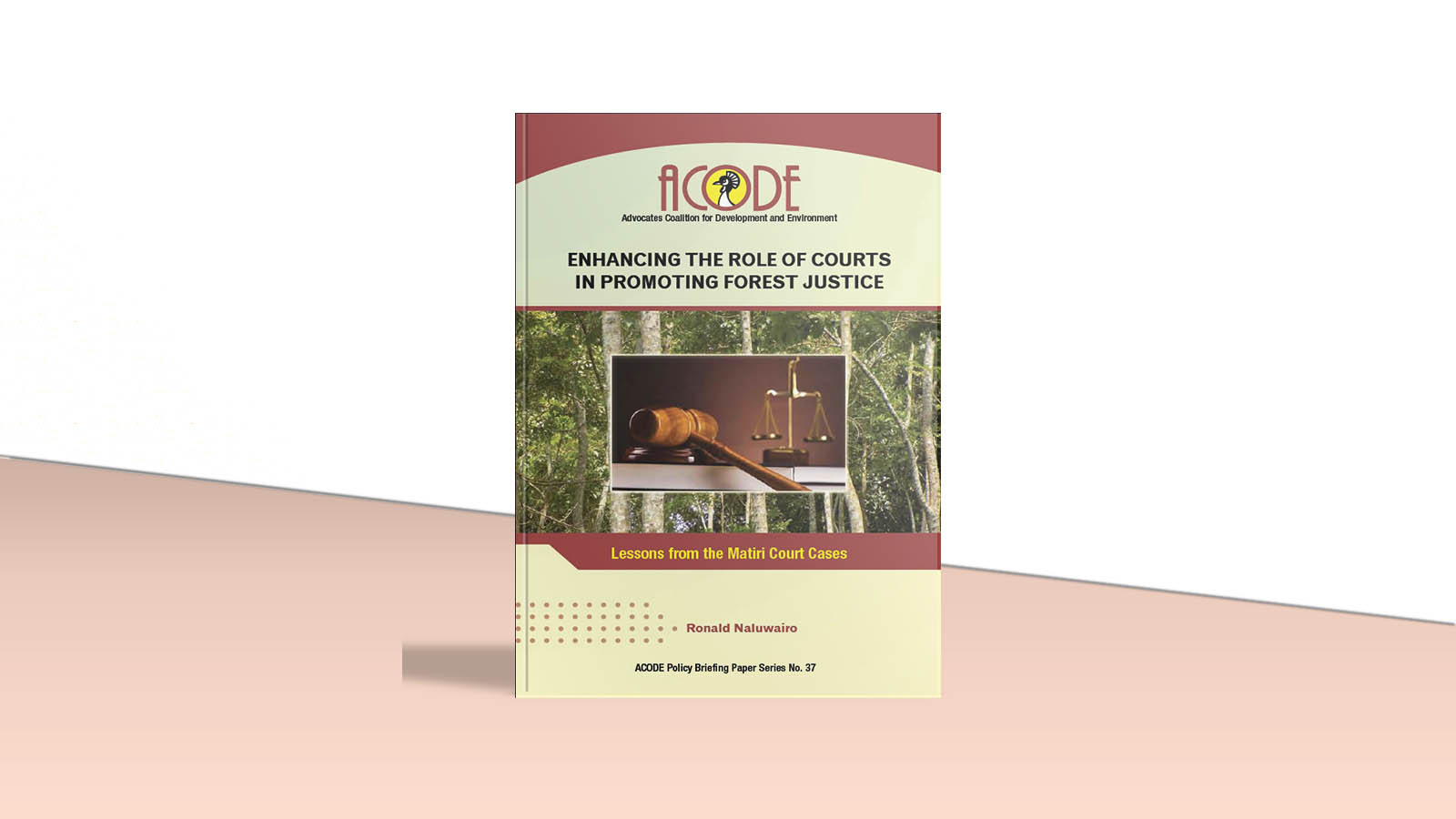
Enhancing the Role of Courts in Promoting Forest Justice: Lessons from the Matiri Court Cases
Author(s): Ronald Naluwairo
Published: 2017
This paper analyses court cases and the lessons they offer for enhancing justice for forests. The Matiri cases were chosen as case studies because they were identified by many respondents interviewed as the major court cases involving forest disputes between NFA and the local communities in Kyenjojo district. Matiri central forest reserve was chosen partly because of the geographical focus of the project that supported this study and partly because it is the major central forest reserve in the project focus area. Moreso, a number forest disputes between local communities and NFA over Matiri central forest reserve have ended up in the courts of law.
View PDF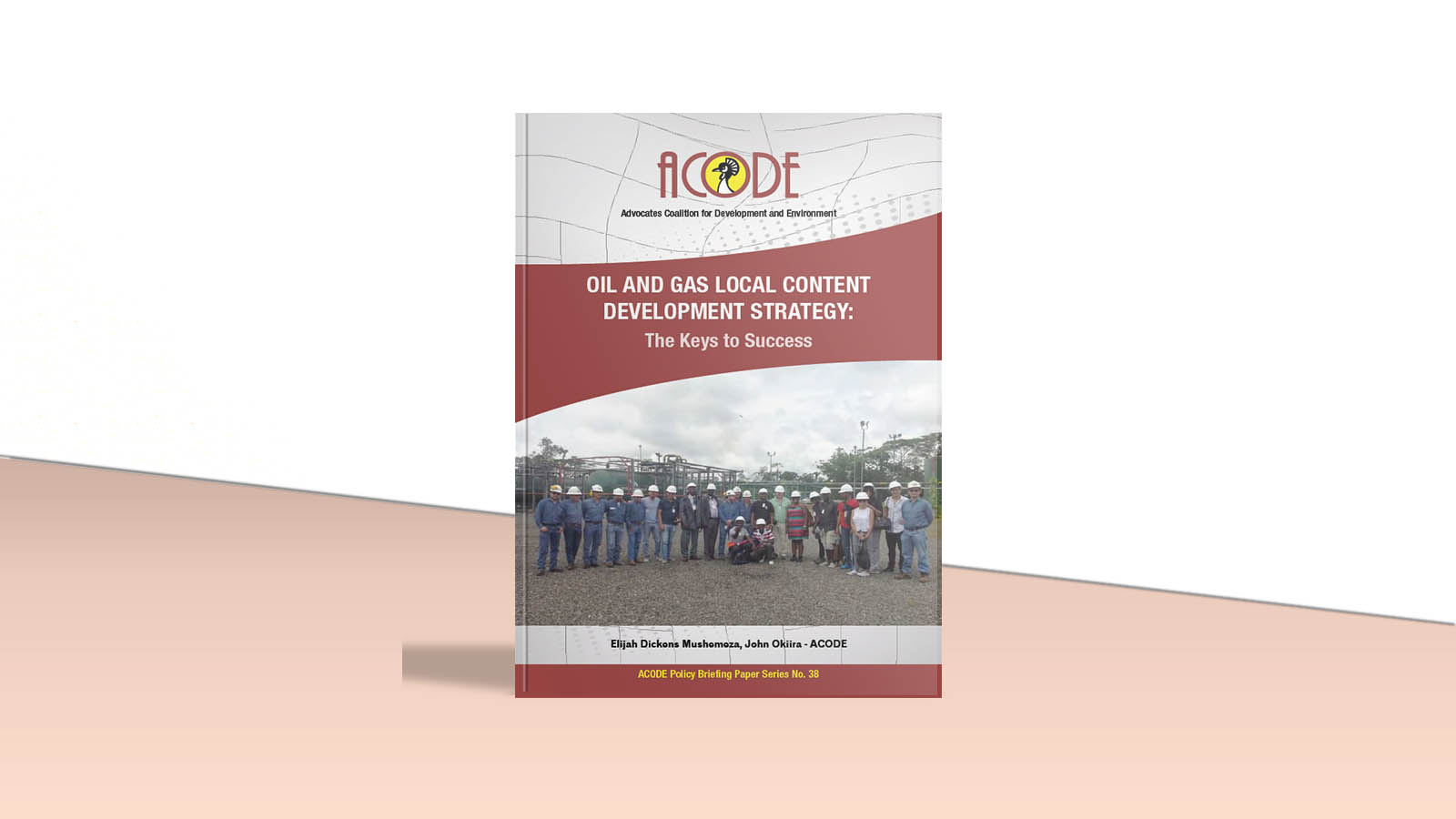
Oil and Gas Local Content Development Strategy: The Keys to Success
Author(s): Elijah Dickens Mushemeza and John Okiira
Published: 2017
This policy brief highlights the factors that determine successful local content outcomes in Africa and Latin America. We used a comparative framework that looks into the experience of seven countries in each region. We selected all the countries in Latin America that are oil and gas producers in the region, namely Argentina, Bolivia, Brazil, Colombia, Ecuador, Mexico and Venezuela. In Africa we selected sub-Saharan countries that are either oil and gas producers or have significant reserves in relation to their economies: Angola, Chad, Equatorial Guinea, Ghana, Nigeria, Tanzania and Uganda.
View PDF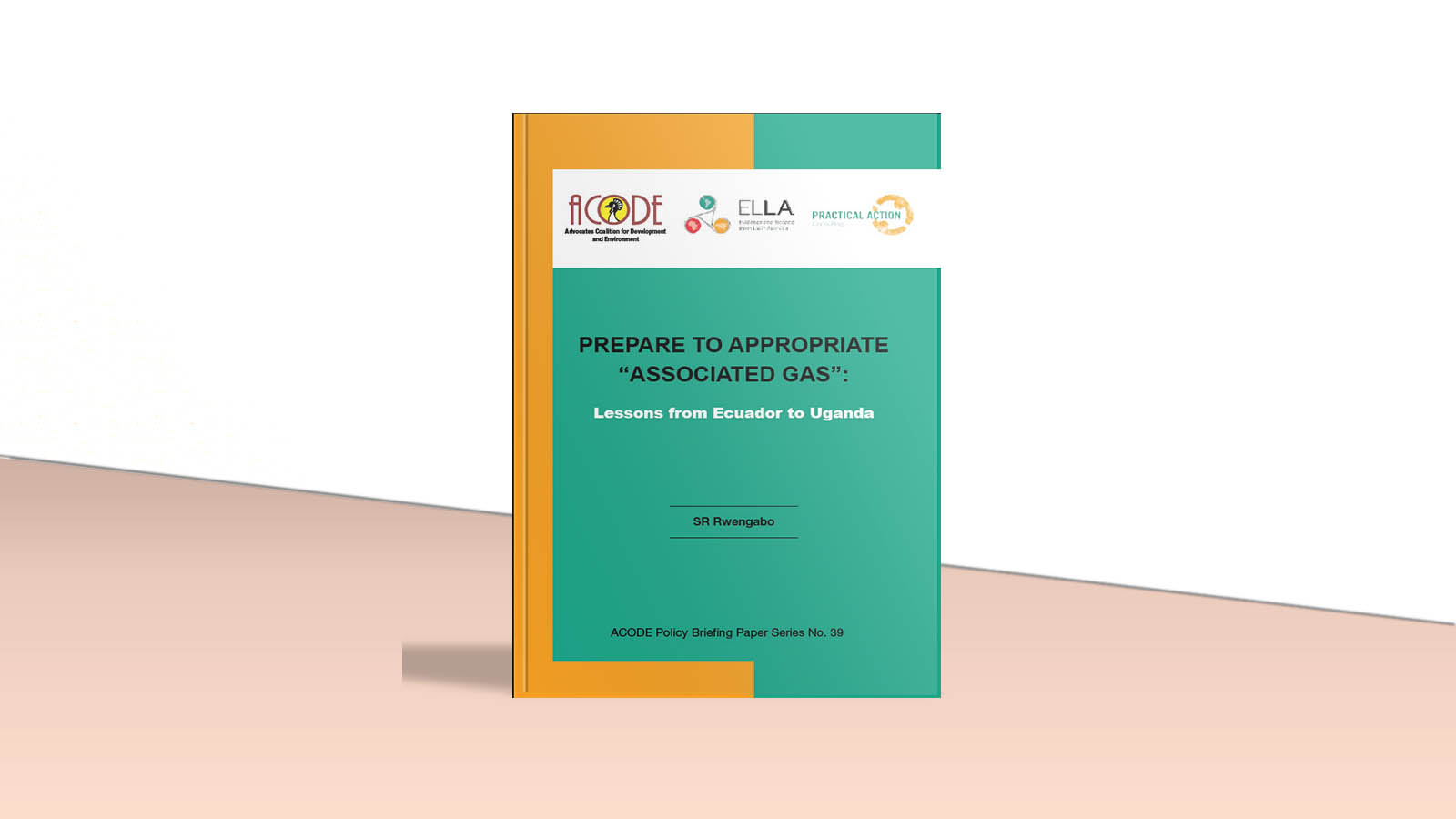
Prepare to Appropriate “Associated Gas”: Lessons from Ecuador to Uganda
Author(s): Sabastiano RWENGABO
Published: 2017
This Policy Brief underlines the problem of gas flaring in the petroleum sector, and draws important lessons from Ecuador for Uganda in the conversion of waste to wealth. The oil industry is associated with greenhouse gas emissions through AG flaring and other carbon monoxide and carbon dioxide emissions, with resulting implications for global warming. The industry now faces a new challenge: the demand for alternative green energy; and the demand for zero AG flaring.4 Therefore, as Uganda ascends to the production phase, and hopes to implement its Green Growth Strategy, certain investments, structures and preparations are necessary to realise the spirit of the law and global initiatives.
View PDF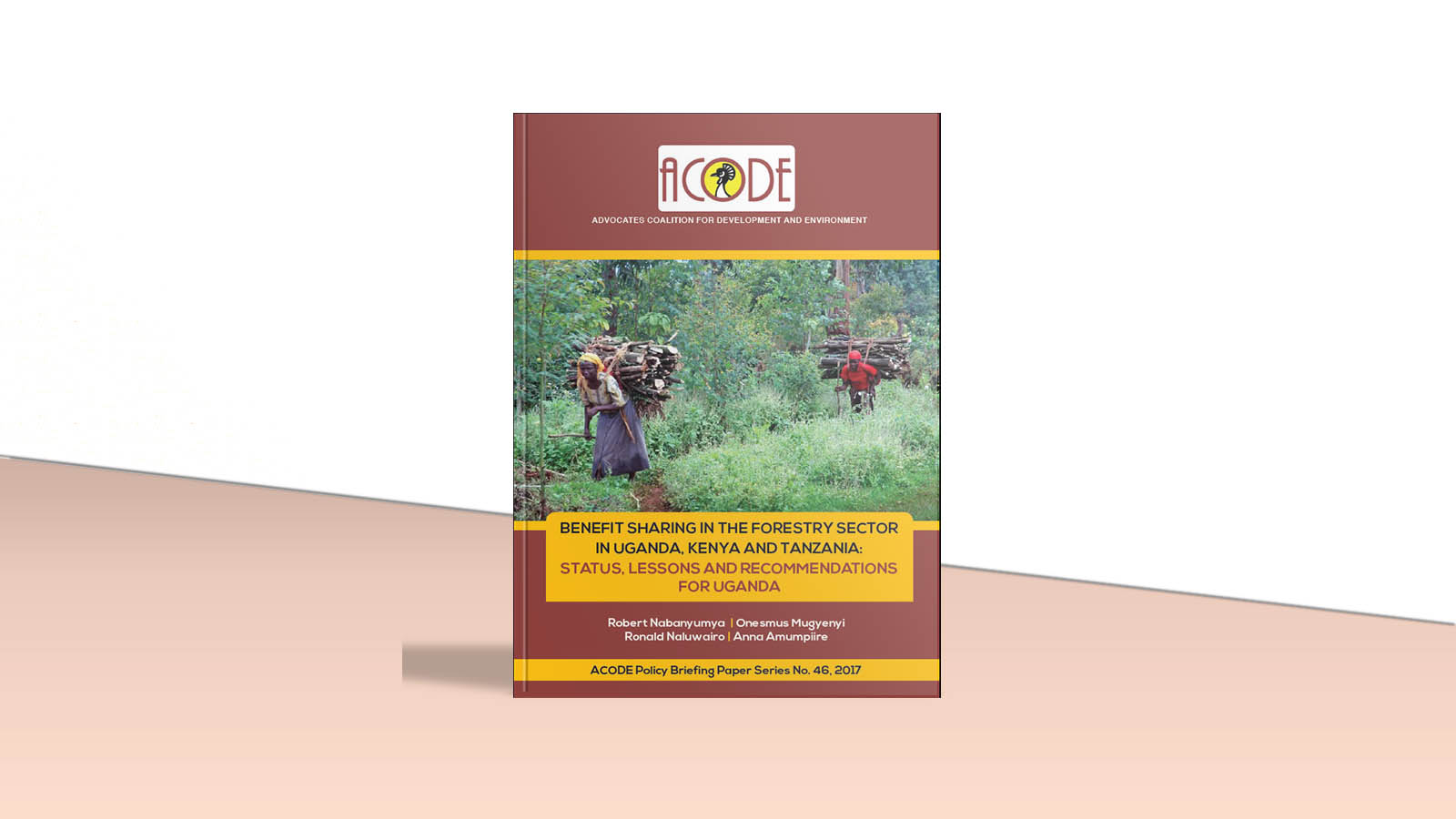
Benefit Sharing In The Forestry Sector In Uganda, Kenya and Tanzania: Status, Lessons and Recommendations For Uganda
Author(s): Robert Nabanyumya, Onesmus Mugyenyi, Ronald Naluwairo, and Anna Amumpiire
Published: 2017
The overall objective of this study was to evaluate the effectiveness of the policy and legislative frameworks for benefit sharing in the forest-sector in the three East African countries with the aim of identifying challenges and weaknesses to be addressed at policy and implementation levels to enhance forest governance for sustainable forest management and improved community livelihoods.
View PDF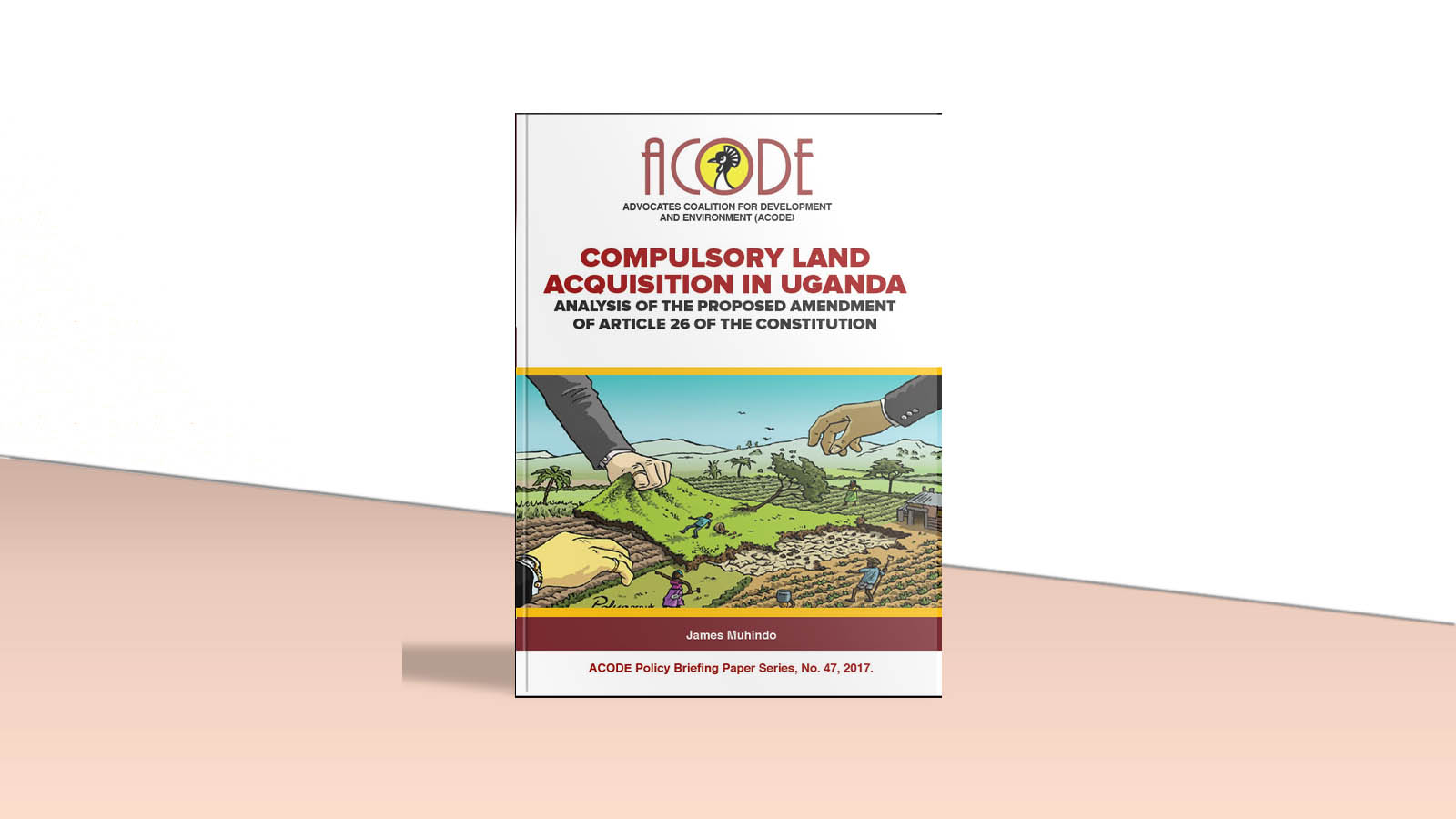
Compulsory Land Acquisition in Uganda: An Analysis Of The Proposed Amendment Of Article 26 Of The Constitution
Author(s): James Muhindo
Published: 2017
This paper proposes alternative solutions for conclusively addressing this land question conundrum, other than the amendment of article 26 of the Constitution. These include; 1) Amendment of other Land Laws such as The Land Acquisition Act, The Land Act, The Access to Roads Act, and parts of the Registration of Titles Act; 2) Provision for the expeditious disposal of court cases related to Land Acquisition by inserting a provision to that effect in the Land Acquisition Act; 3) Waiting for the final report of the commission of inquiry into land matters given that the issue of land appropriation is one of the terms of reference of the commission, and 4) Adopting the Human Rights Based approach to land expropriation as proposed in the Draft Land Acquisition, Resettlement and Rehabilitation Framework.
View PDF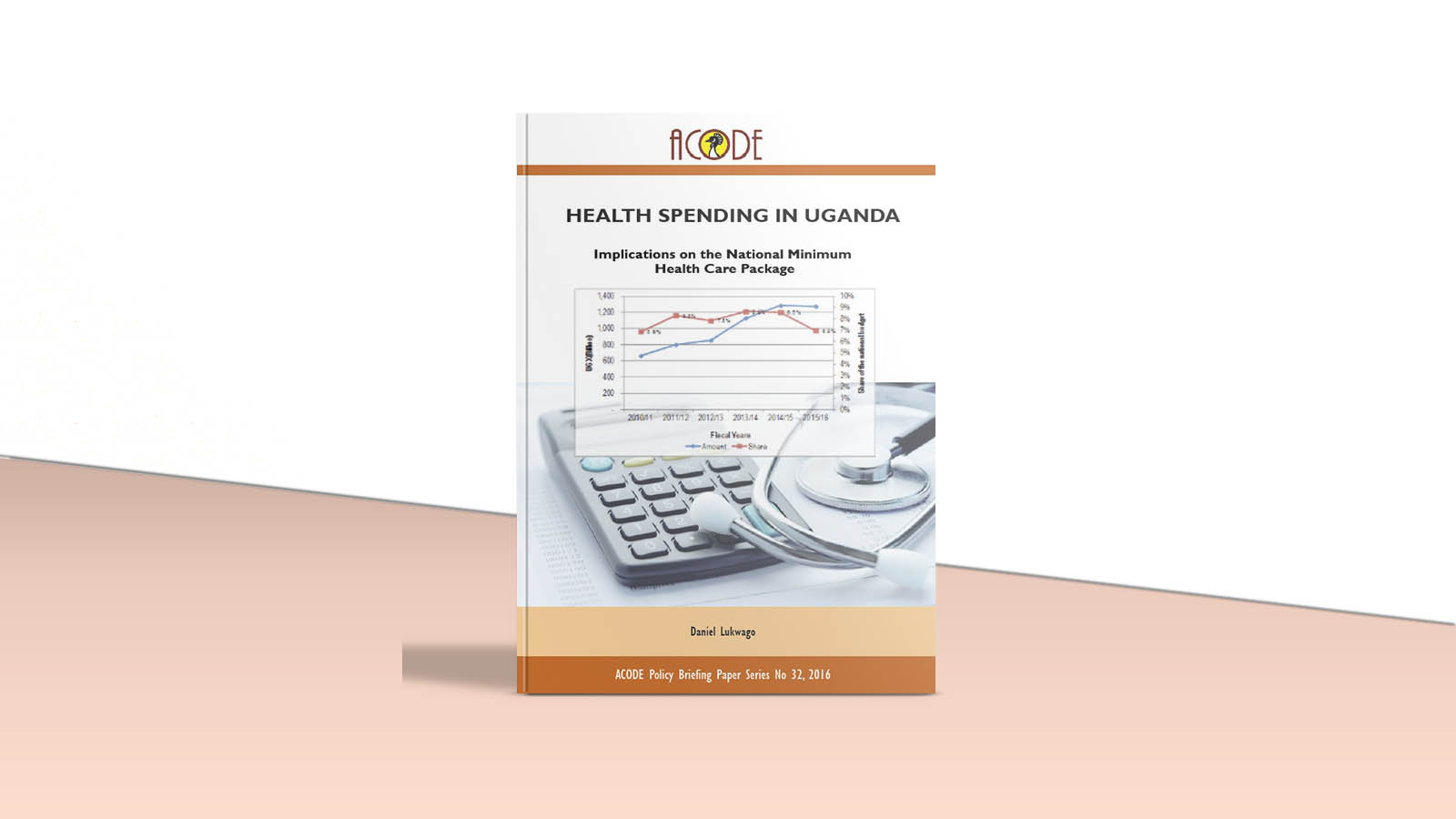
Health Spending in Uganda: Implications on the National Minimum Health Care Package
Author(s): Daniel Lukwago
Published: 2016
This policy brief is part of Public Expenditure Governance (PEG) study of the health sector in Uganda. The overall objective of the research was to examine the links between public spending, governance, and outcomes in the health sector and the specific objectives of the study were to identify the actors and their roles in decision making regarding budget allocations and service delivery, develop indicators for assessing expenditure governance in the health sector, Identify and assesse the effects of budget allocation decisions on health sector performance and finally to identify and assess the efficiency of accountability mechanisms, including community participation, sanctions and rewards.
View PDF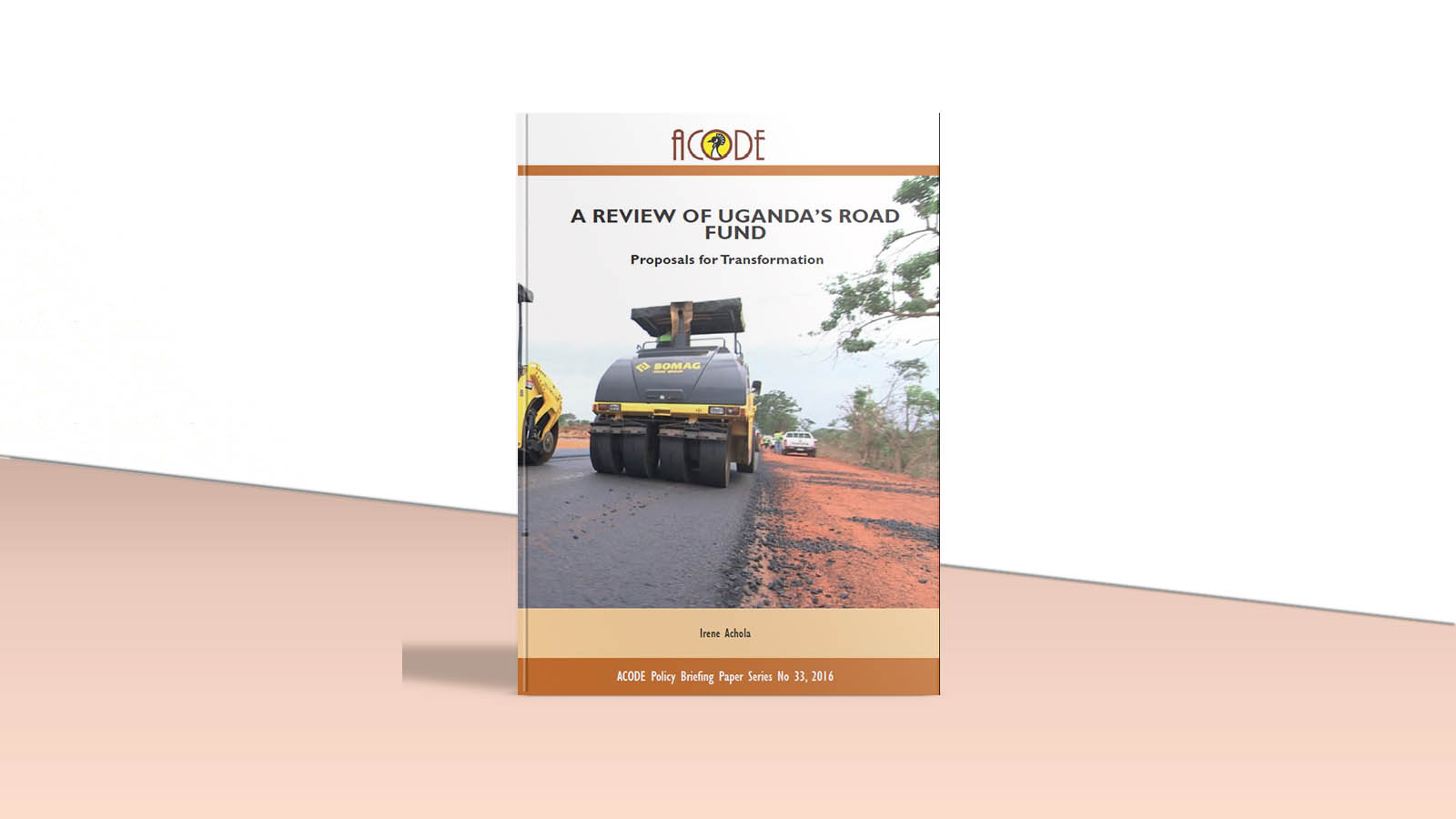
Review of Uganda’s Road Fund: Proposals for Transformation
Author(s): Irene Achola
Published: 2016
This paper examines the performance of URF and focuses on four issues, namely: management of the URF; the sources of funds for URF; utilization of funds under URF; and adequacy of the fund for maintenance of the road network in Uganda.
View PDF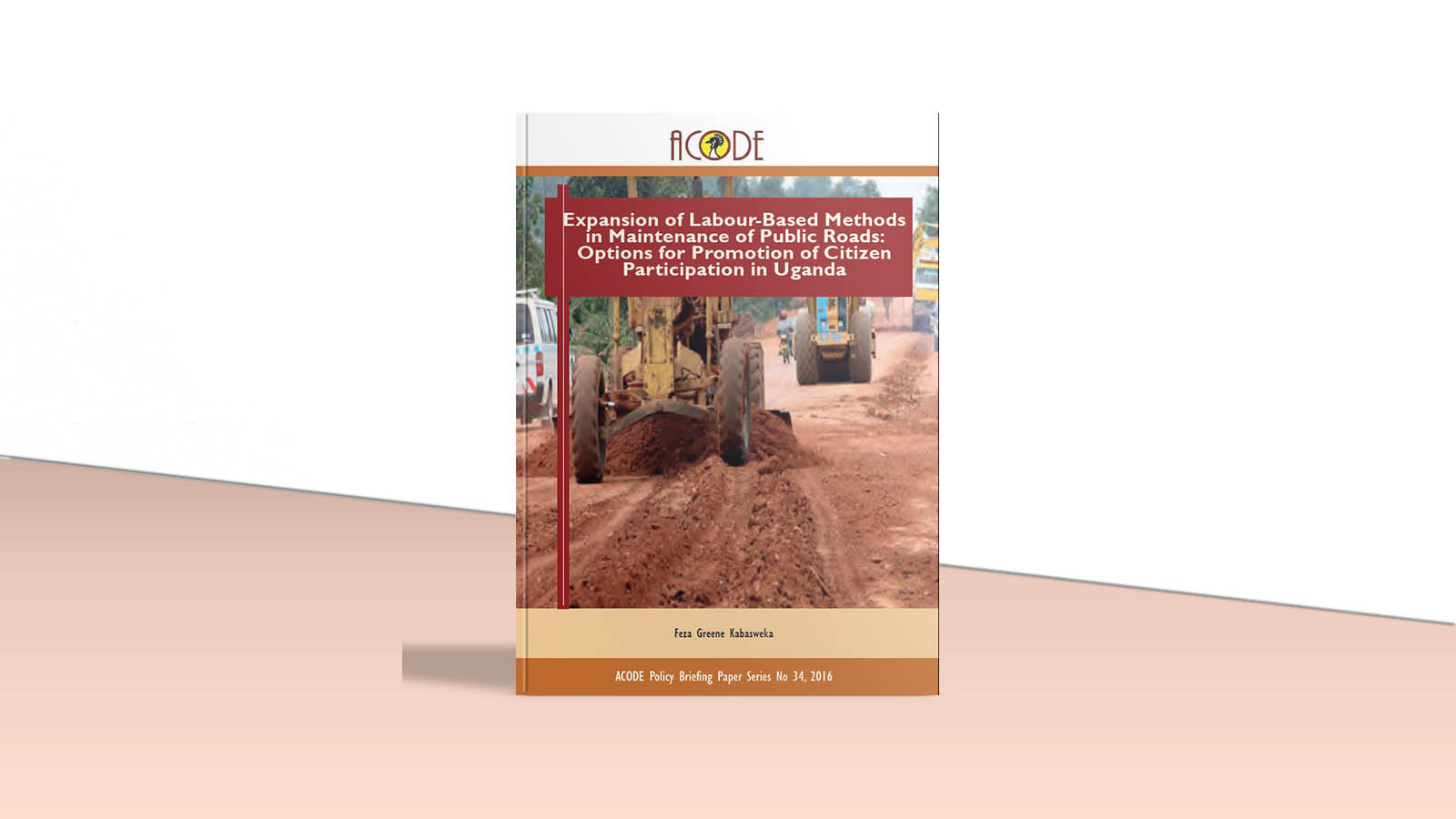
Expansion of Labour-Based Methods in Maintenance of Public Roads: Options for Promotion of Citizen Participation in Uganda
Author(s): Feza Greene Kabasweka
Published: 2016
The Paper makes a plea for more attention to nurture the concept of labour-based methods and improve it by rationalizing the process and evolving structures to facilitate its application in the road sector.
View PDF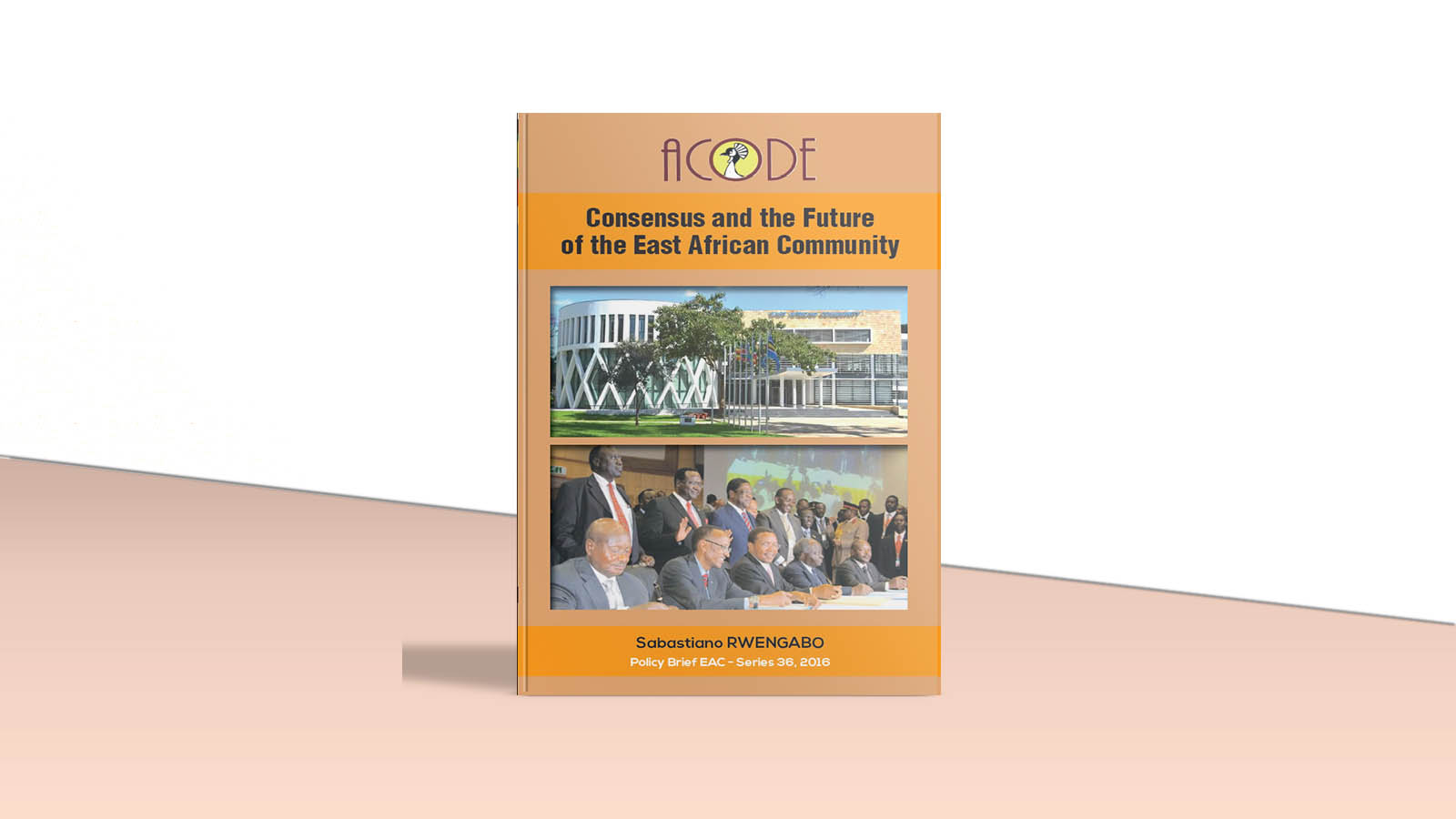
Consensus and the Future of the East African Community
Author(s): Sabastiano RWENGABO
Published: 2016
This Policy Briefing Paper analyses the importance of consensus in the EAC’s decision-making process and makes recommendations for avoiding non-consensual decisions and actions. The main objective is to highlight the potential implications, for the EAC’s future, of undertaking non-consensual decisions and actions.
View PDF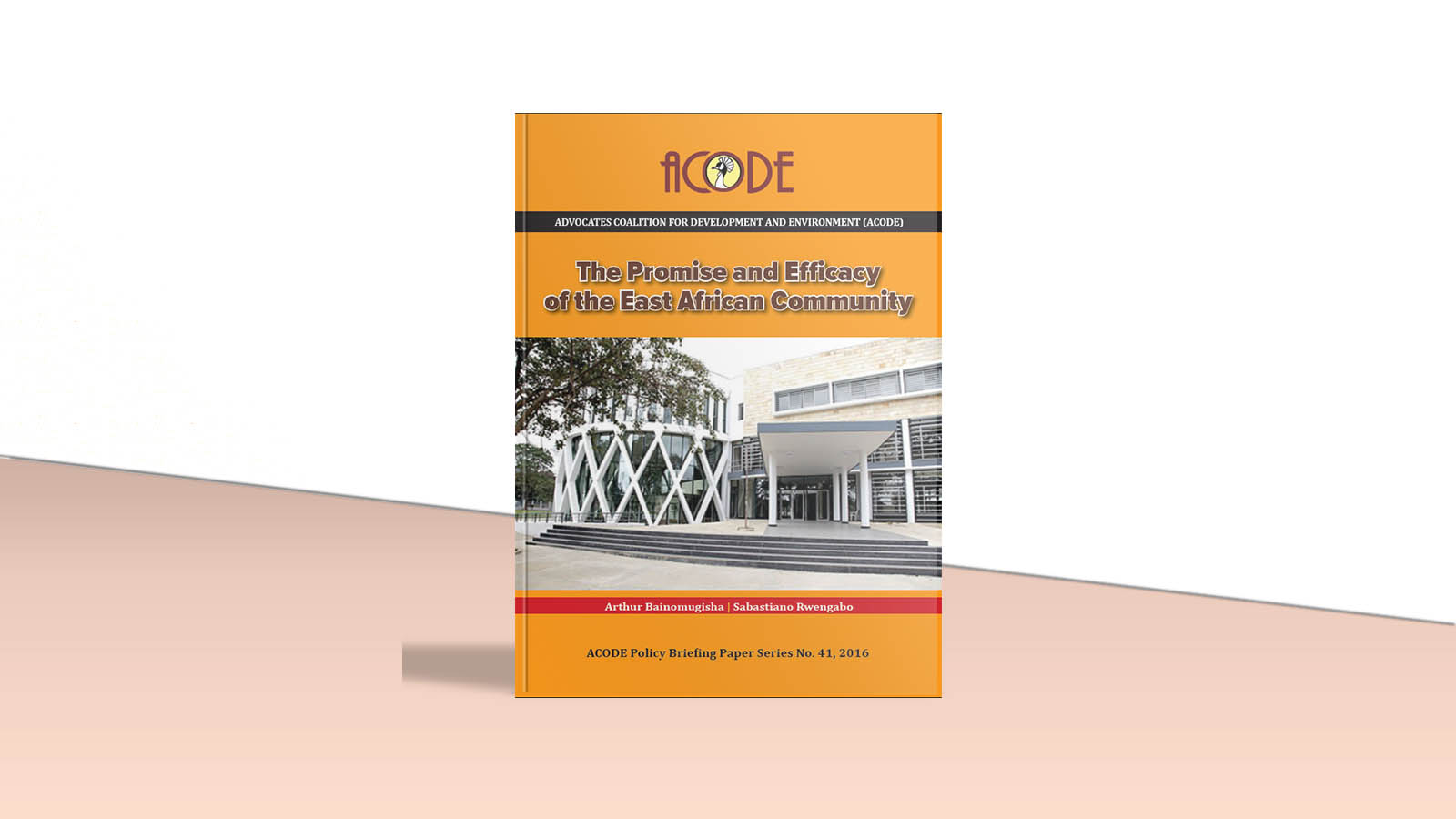
The Promise and Efficacy of the East African Community
Author(s): Arthur Bainomugisha and Sabastiano RWENGABO
Published: 2016
The paper argues that making the benefits of the EAC more widely and deeply appreciated by East African citizens and peoples creates favorable attitudinal change toward the Community. As more people realize that some of the socioeconomic developments witnessed in East Africa since the 2000s resulted from implementation of EAC instruments, specifically the Treaty, Customs Union and Common Market Protocols, and the Protocol on Decision Making, the people will have greater incentives to share the vision of the desired future wellbeing that results from deeper and wider integration. This appreciation enhances the EAC’s legitimacy while also reducing the elite capture. The paper makes recommendations on how people-owned integration can be achieved.
View PDF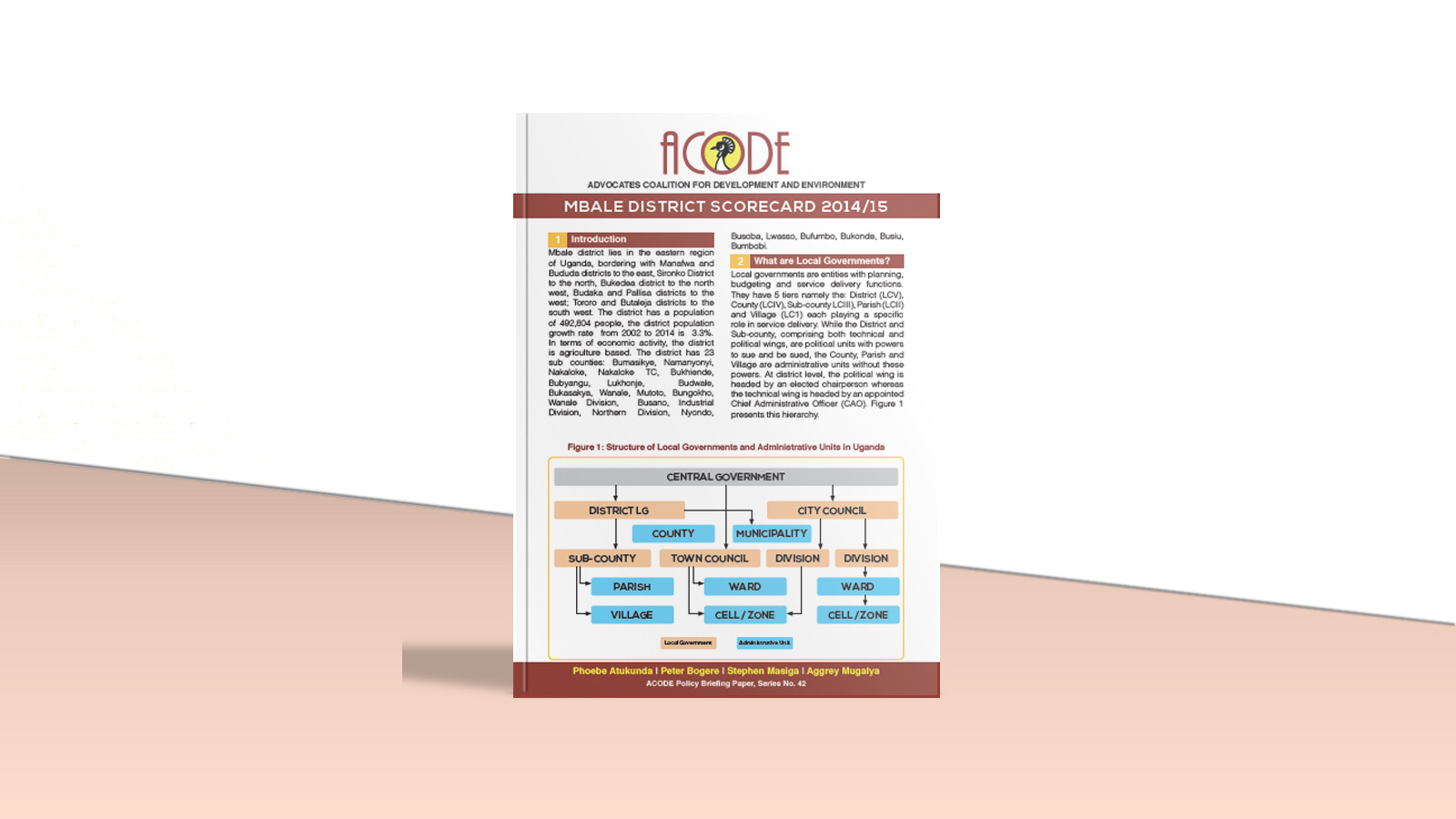
Local Government Councils Performance and the Quality of Service Delivery in Uganda: Mbale District Council Score Card FY2014/15
Author(s): Phoebe Atukunda, Peter Bogere, Stephen Masiga, and Aggrey Mugalya
Published: 2016
The brief presents the scorecard performance for FY2014/15 of Mbale district local government council and their respective organs as outlined in the Local Government Act and other legal instruments.
View PDF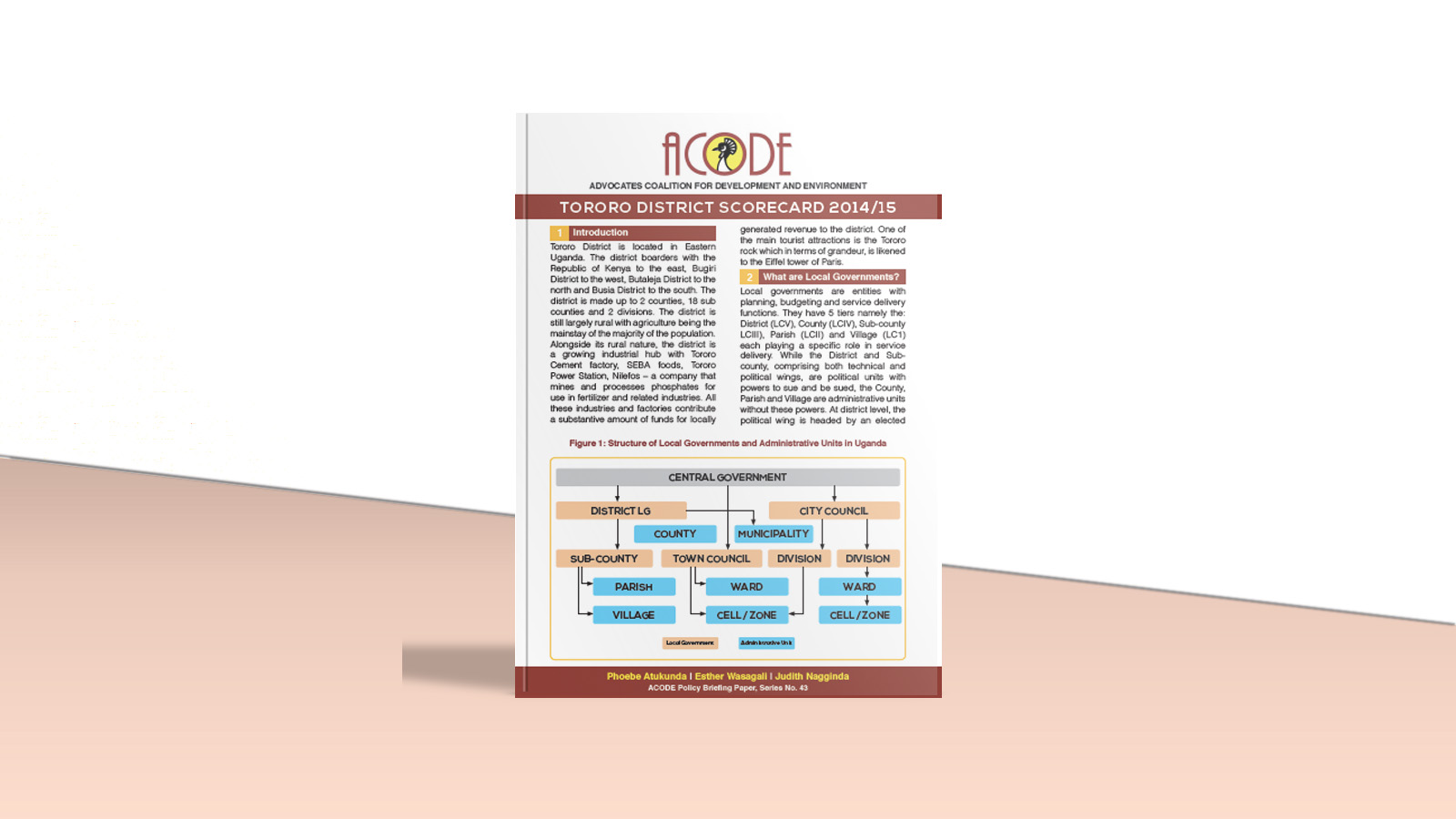
Local Government Councils Performance and the Quality of Service Delivery in Uganda: Tororo District Council Score Card FY2014/15
Author(s): Phoebe Atukunda, Esther Wasagali, and Judith Nagginda
Published: 2016
The brief presents the scorecard performance for FY2014/15 of Tororo district local government council and their respective organs as outlined in the Local Government Act and other legal instruments.
View PDF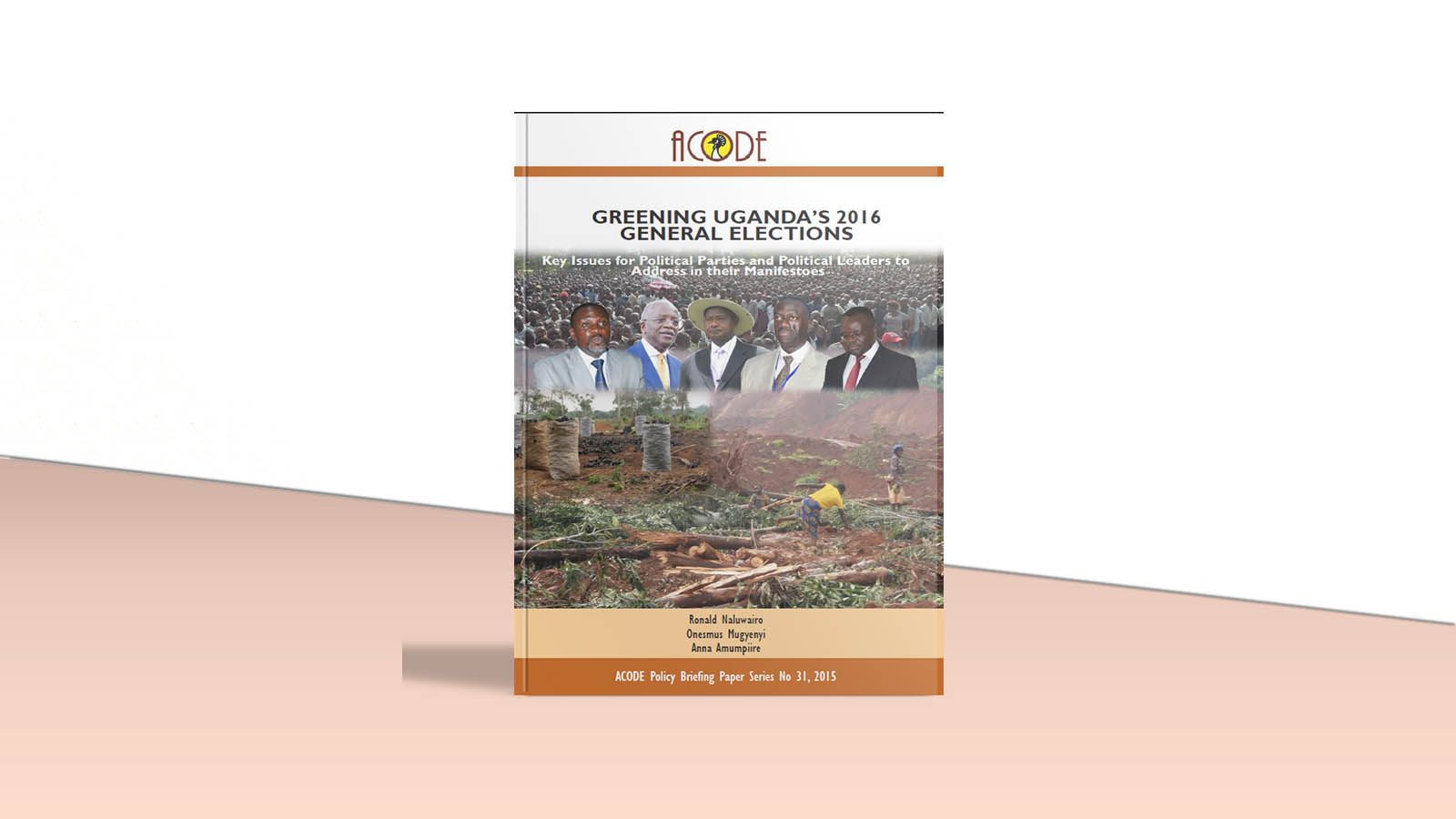
Greening Uganda’s 2016 General Elections: Key Issues for Political Parties and Political Leaders to Address in their Manifestoes
Author(s): Ronald Naluwairo, Onesmus Mugyenyi, and Anna Amumpiire
Published: 2015
This paper highlights some of the most pressing issues in Uganda’s ENR sector that political parties and other actors vying for power in 2016 should consider addressing in their manifestoes. Although it makes some specific recommendations, the paper does not prescribe any particular approach that political parties and other actors should take in addressing the issues. That is a question for the political parties to decide internally. Different approaches can be devised to address the same issue. The important concern is to have the issues effectively addressed. The paper is also expected to guide voters in their interactions during the campaign period with the persons standing for different political offices.
View PDF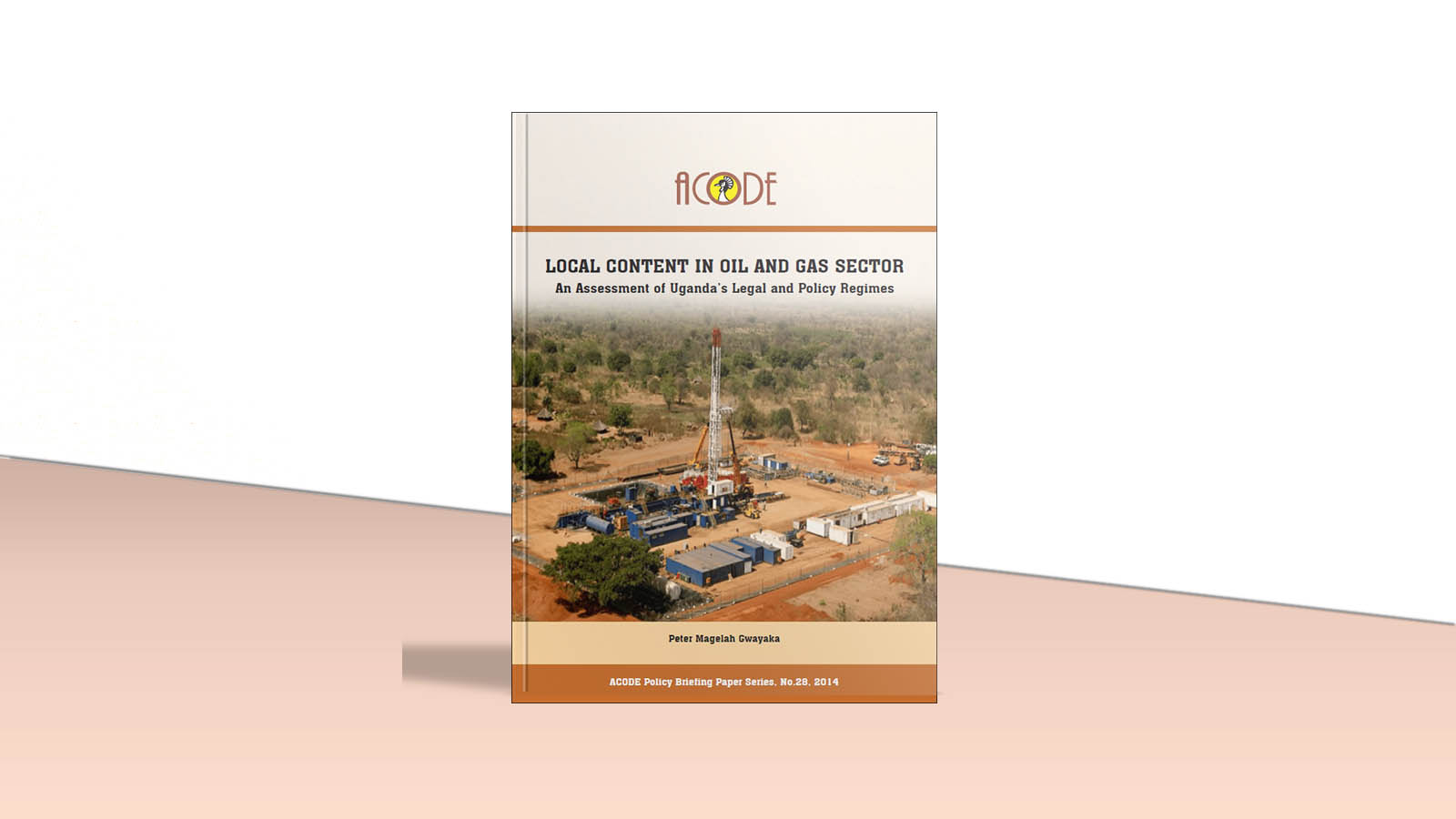
Local Content in Oil and Gas Sector: An Assessment of Uganda’s Legal and Policy Regimes
Author(s): Peter Magelah Gwayaka
Published: 2014
This policy brief assesses the legal and policy approaches so far adopted in ensuring the participation of Ugandans in the oil and gas sector. The brief assesses the standards set in the Oil and Gas Policy, 2008, the Petroleum (Exploration, Development and Production) Act, 2013 and Petroleum (Refining, Conversion, Transmission and Midstream Storage) Act, 2013 which are the major instruments governing the petroleum sector in Uganda. The brief also looks at standards and approaches adopted by other countries in Africa and major commercial institutions. The brief highlights the major gaps in the laws and policies and makes key recommendations to address the gaps.
View PDF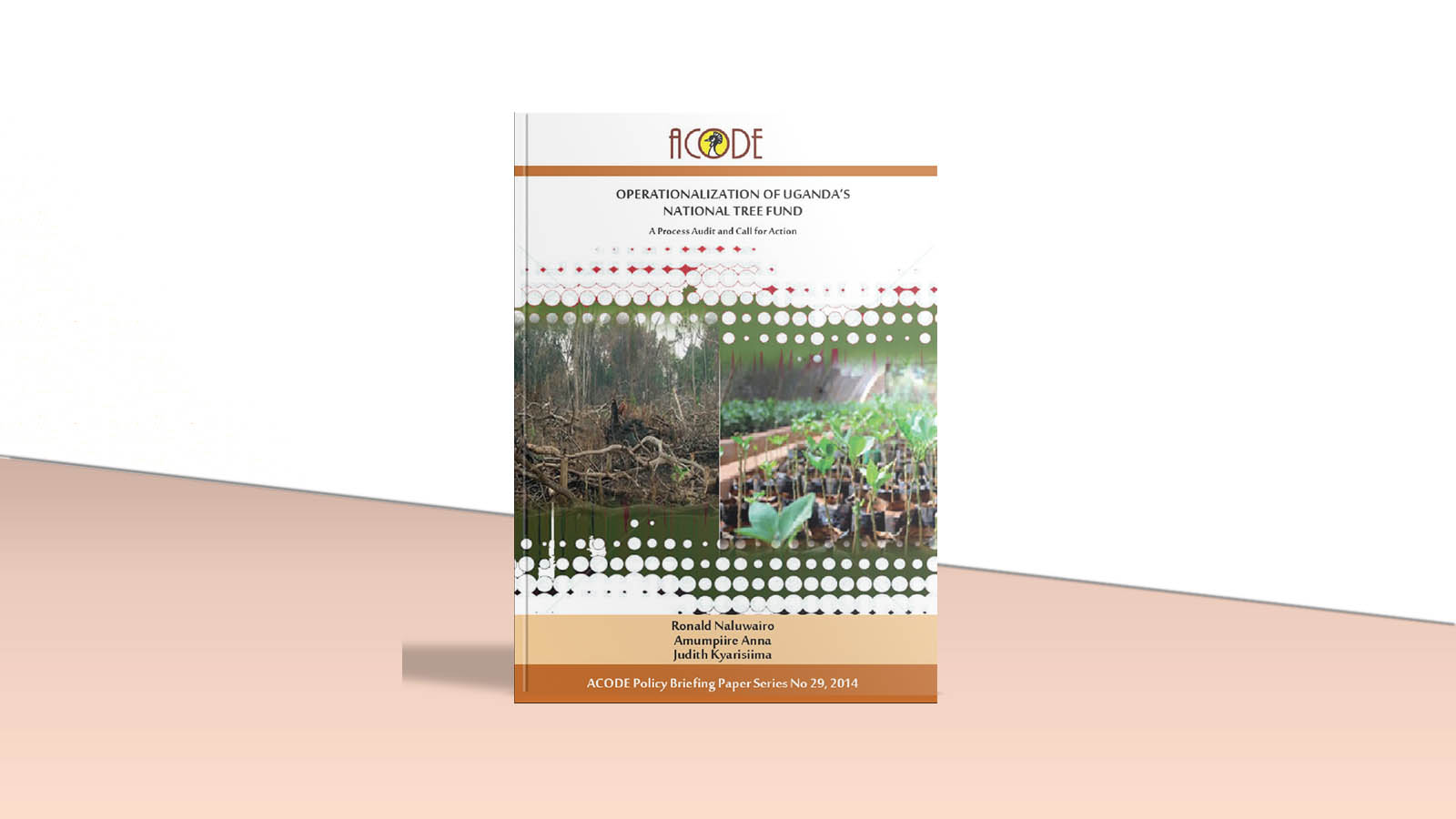
OPERATIONALIZATION OF UGANDA’S NATIONAL TREE FUND: A Process Audit and Call for Action
Author(s): Ronald Naluwairo, Anna Amumpiire, and Judith Kyarisiima
Published: 2014
This paper is intended to reignite debate about the National Tree Fund with the major objective of having it operationalized as soon as possible. The paper is largely based on desk review of relevant documents and laws. To understand how similar funds in other countries work, a review of the laws establishing forest funds in Kenya, Tanzania and Ghana was also made. To inform the paper further, Funds established by law in Uganda like the Road Fund, Land Fund, Wildlife Fund and the National Environment Fund were also studied.
View PDF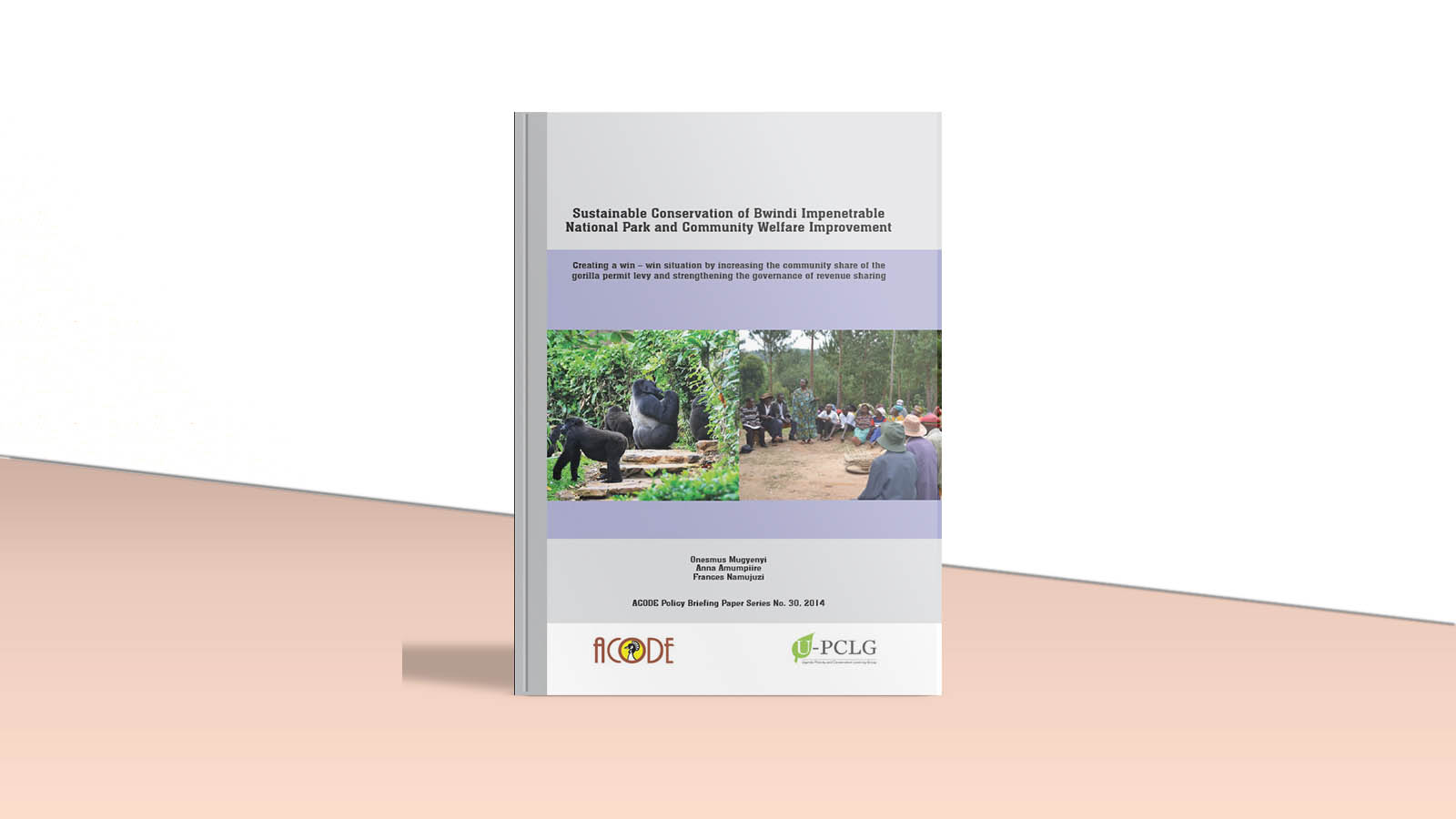
Sustainable Conservation of Bwindi Impenetrable National Park and Community Welfare Improvement: Creating a Win–Win Situation by increasing the community share of the Gorilla Permit Levy and strengthening the governance of revenue sharing
Author(s): Onesmus Mugyenyi, Anna Amumpiire, and Frances Namujuzi
Published: 2014
This policy brief argues that the current conservation outcomes could be enhanced by an incentive system that offers more and better targeted community support to sustain their livelihoods and improving governance of the Revenue Sharing Scheme. The brief proposes to Uganda Wildlife Authority to increase the community share of the gorilla permit fee from USD $5 to USD $10. It also proposes that there should be an improvement of the governance of the RS scheme to ensure that funds from this scheme reach front line communities who are the poorest of the local communities around BINP
View PDF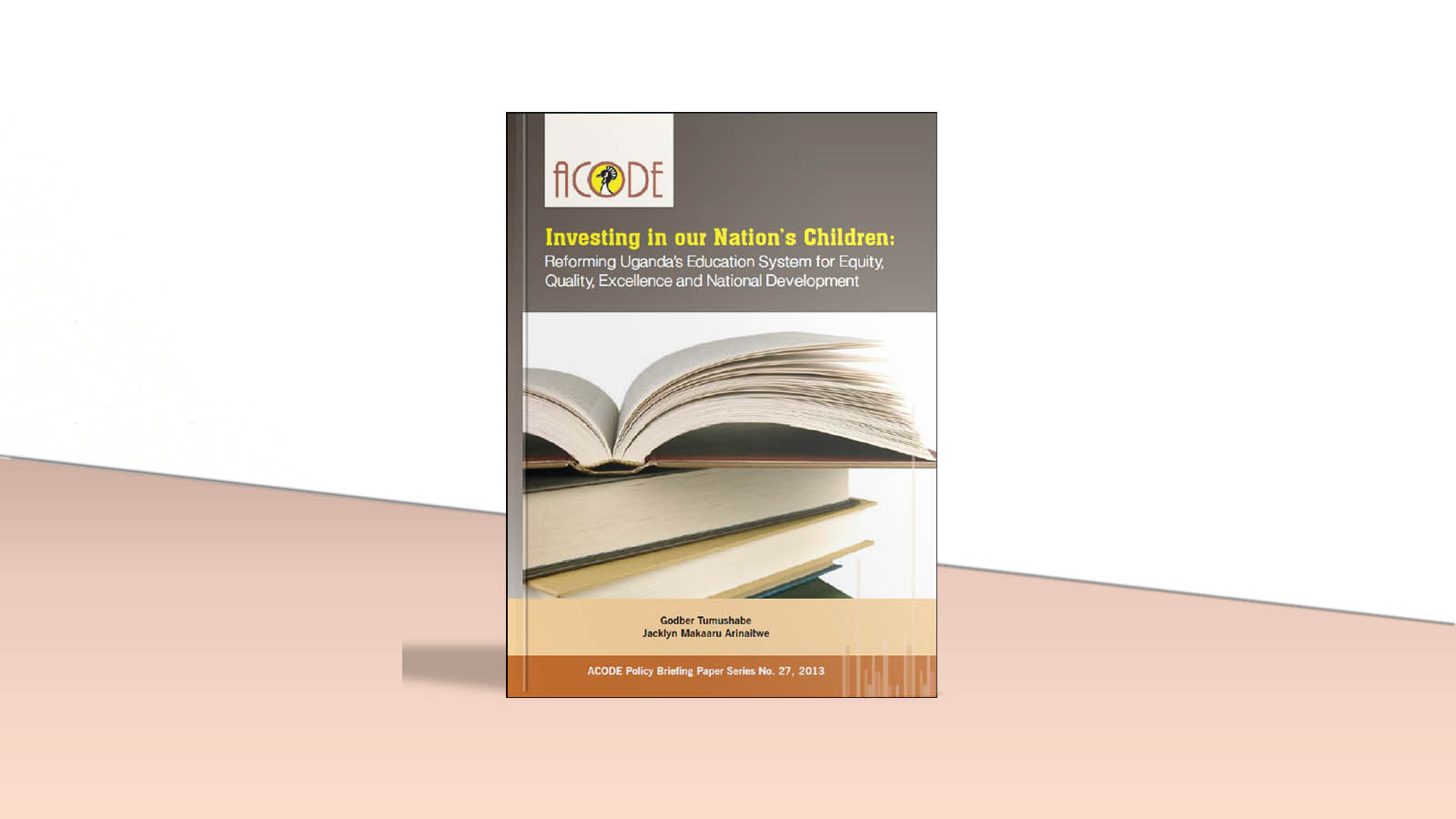
Investing in our Nation’s Children: Reforming Uganda’s Education System for Equity, Quality, Excellence and National Development
Author(s): Godber Tumushabe and Jacklyn Makaaru Arinaitwe
Published: 2013
The main objective of this policy brief is to bring to the attention of Ugandan policy makers, the executive and parliament, the requisite changes needed to transform our country’s education system into a more equitable and high quality education system. The briefing paper is based on a more comprehensive study on the political economy of Uganda’s education policy reforms and background papers presented at the High Level Policy Dialogue on Education Policy Reforms in Uganda.
View PDF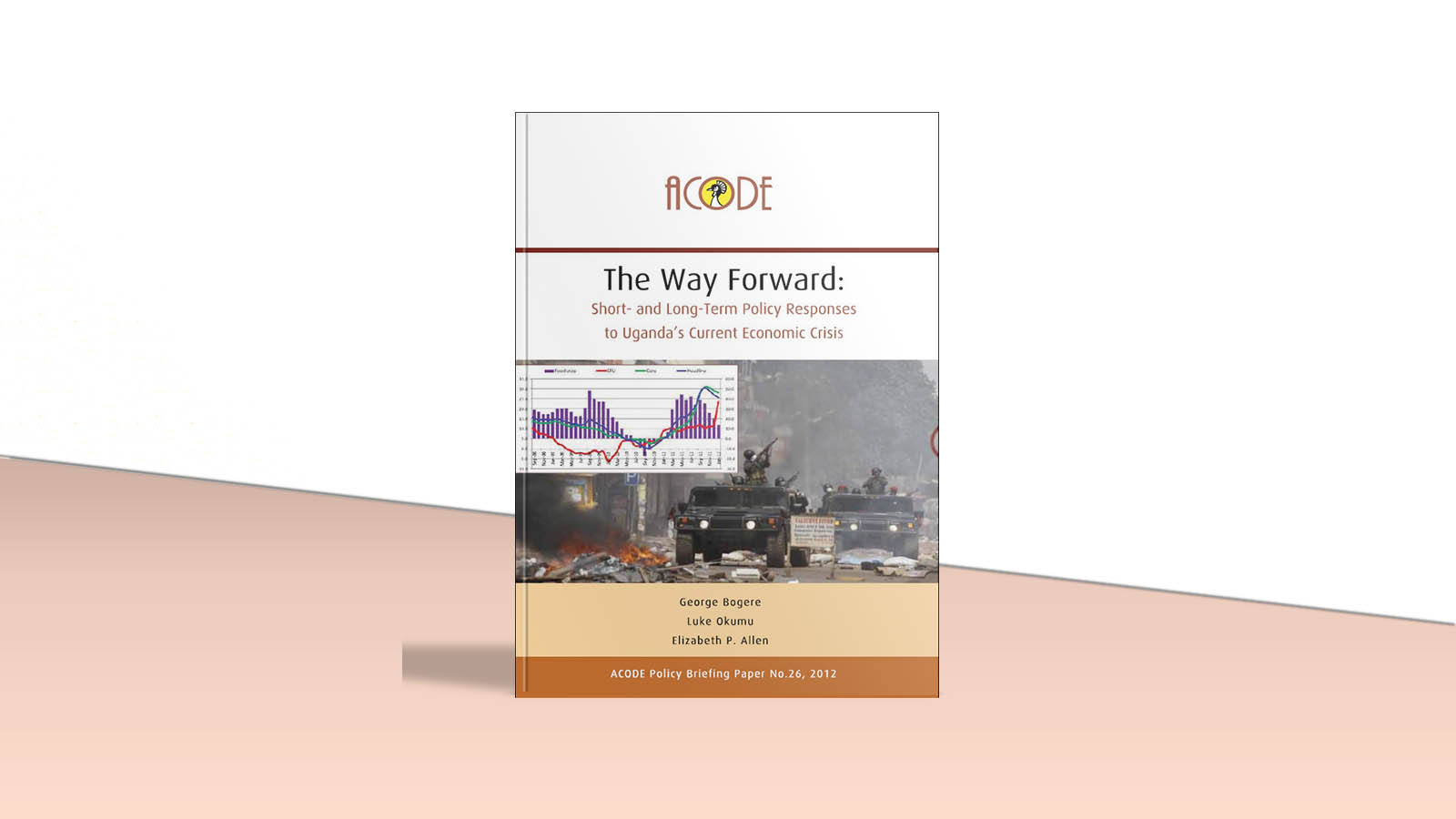
The Way Forward: Short- and Long-Term Policy Responses to Uganda's Current Economic Crisis
Author(s): Bogere George, Luke Okumu, and Elizabeth P. Allen
Published: 2012
This brief argues that, contrary to the mixed response of the government policy apparatus, given the current state of affairs, it is not only tenable but necessary for the government to develop a coherent set of short- and long-term policy interventions to stabilize the economy and support its growth, while lessening the hardships of the most vulnerable and preparing for future economic shocks.
View PDF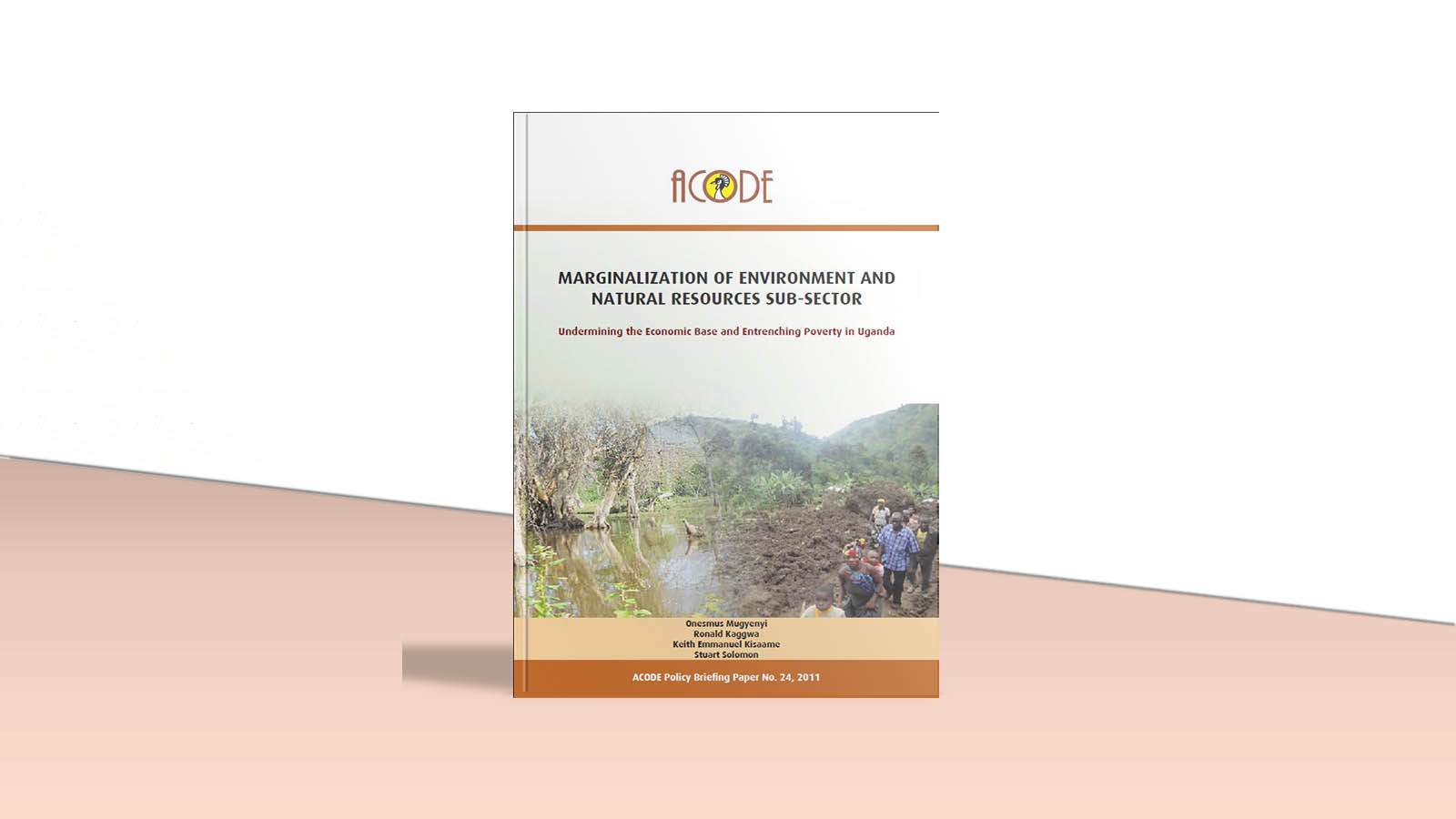
Marginalisation of Environment and Natural Resources Sub-sector: Undermining the Economic Base and Entrenching Poverty in Uganda
Author(s): Onesmus Mugyenyi, Ronald Kaggwa, Keith Emmanuel Kisaame, and Stuart Solomon
Published: 2011
The objective of this policy brief, therefore, is to bring to the attention of policy makers, the Executive and Parliament about the current state of under-funding of the Environment and Natural Resources Sector (ENR) and its implications for the country’s development process.
View PDF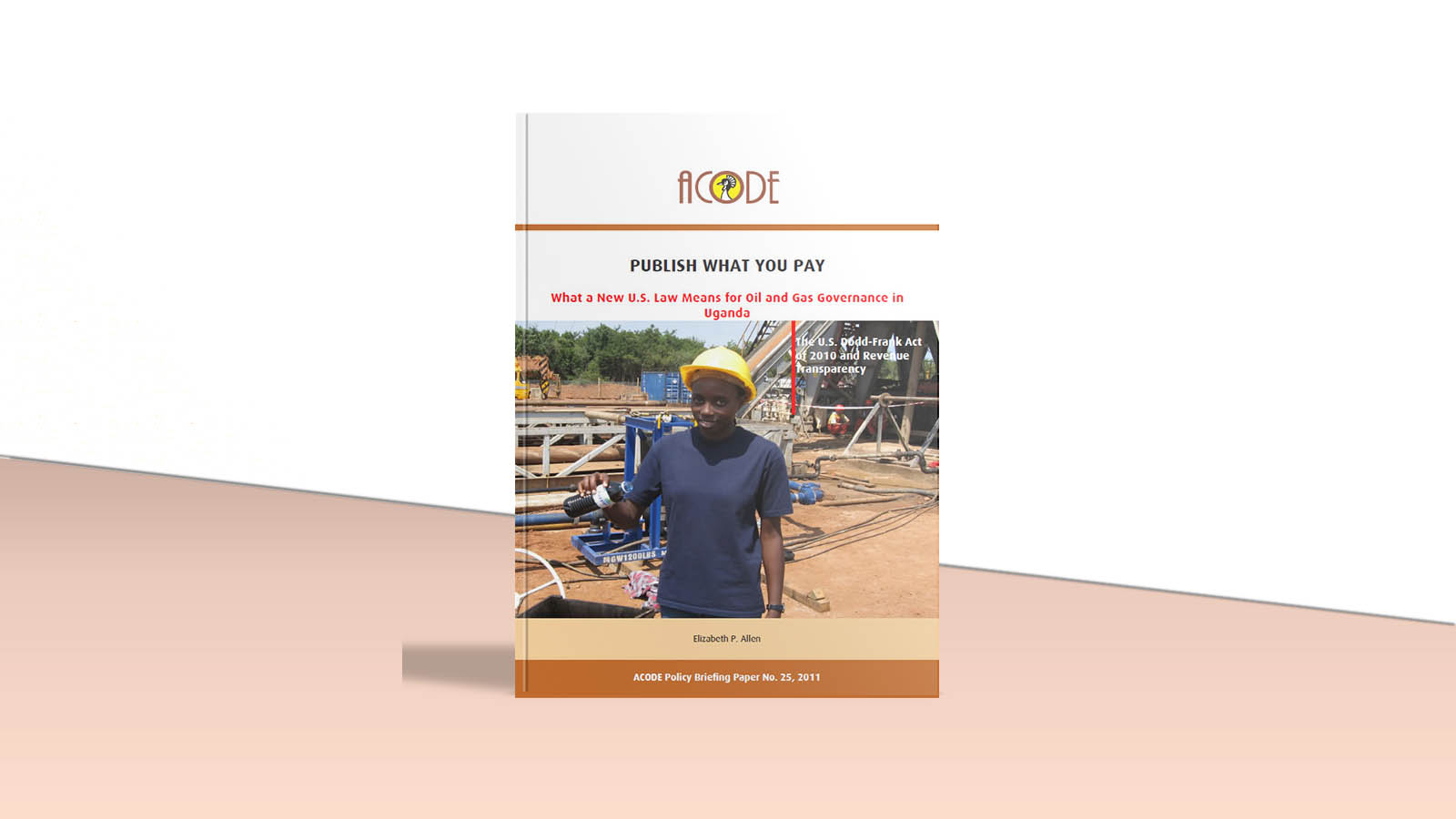
Publish What You Pay: What a New U.S. Law Means for Oil and Gas Governance in Uganda
Author(s): Elizabeth P. Allen
Published: 2011
This policy brief provides a description of the Dodd-Frank Act and its genesis, followed by a discussion of the key debates and questions currently under review by the SEC and their relevance to Uganda’s oil and gas sector. The paper concludes with a series of recommendations for organizations in Uganda that are seeking to enhance transparency within the oil and gas sector.
View PDF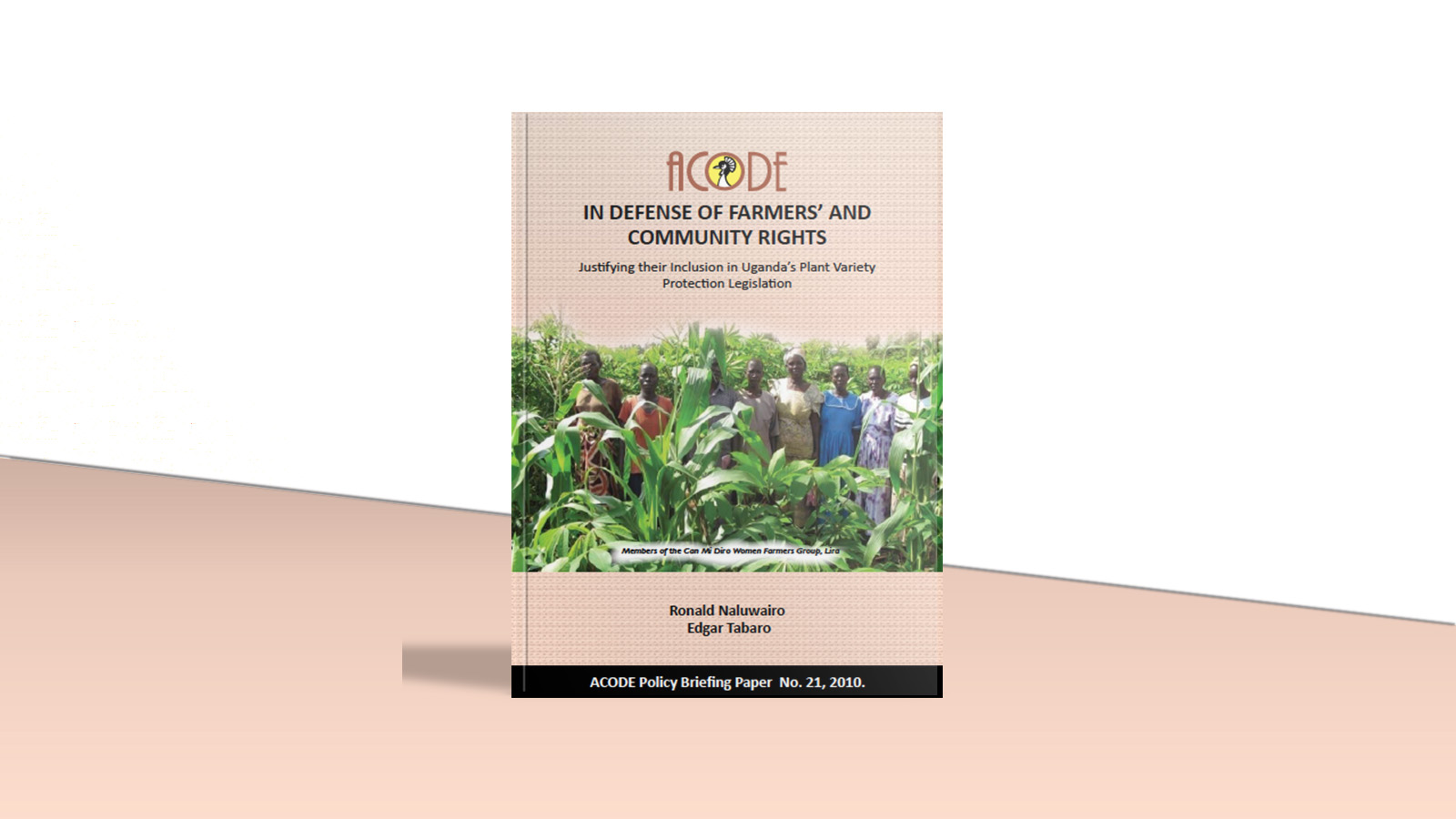
IN DEFENSE OF FARMERS’ AND COMMUNITY RIGHTS: Justifying their Inclusion in Uganda’s Plant Variety Protection Legislation
Author(s): Ronald Naluwairo and Edgar Tabaro
Published: 2010
The paper provides justifications why the plant variety protection legislation should, in addition to protecting plant breeders’ rights, also protect farmers’ and community rights. We also make some recommendations on how farmers’ and community rights can be protected in the proposed plant variety protection legal regime. While it is recognised that the plant variety protection law is not and should not be seen as the only legal instrument for the protection and realization of farmers’ and community rights, in our view, it constitutes the most important legislation for the effective protection and realization of these rights.
View PDF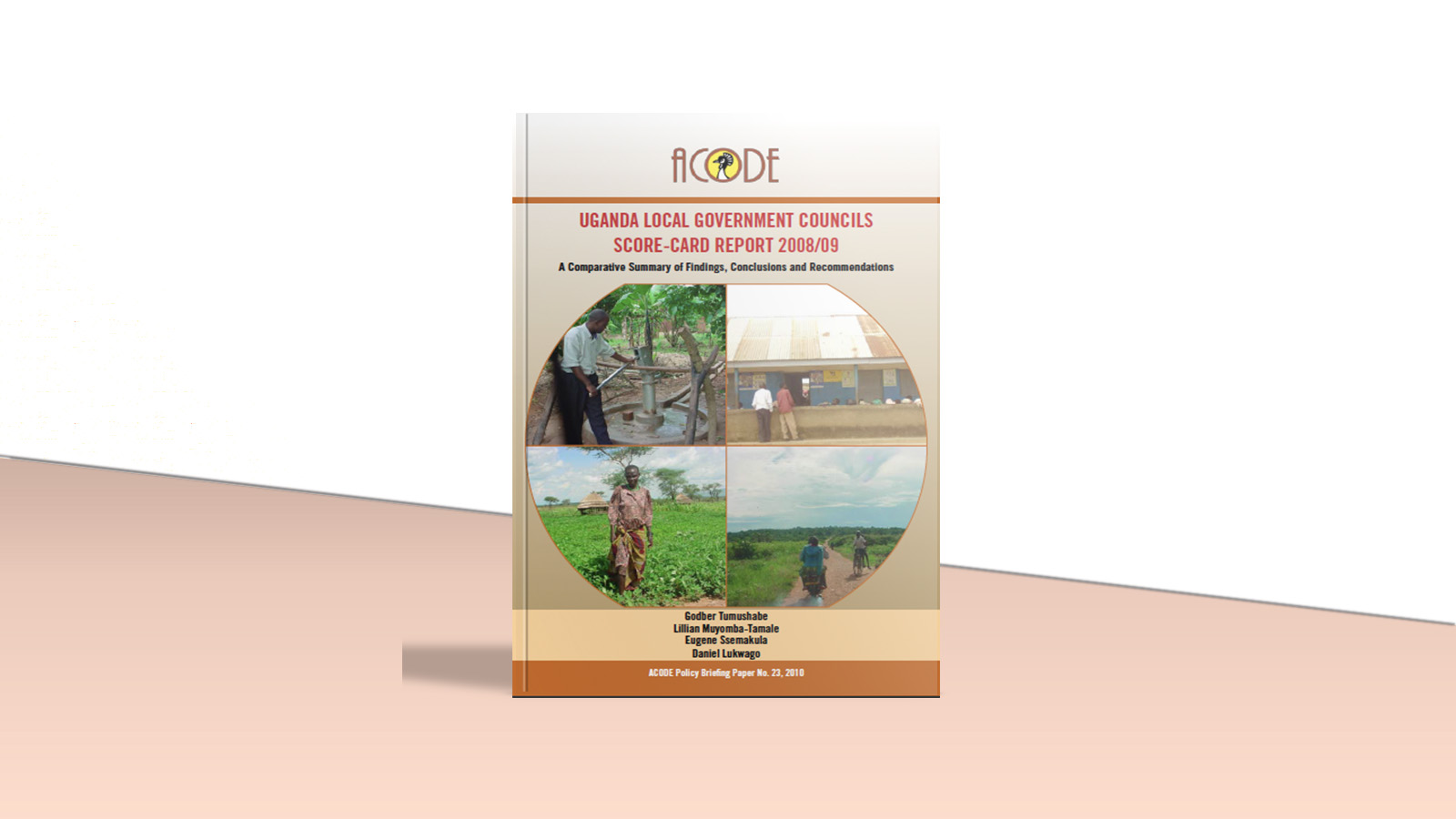
UGANDA LOCAL GOVERNMENT COUNCILS SCORECARD REPORT 2008/09: A Comparative Summary of Findings, Conclusions and Recommendations
Author(s): Godber Tumushabe, Lillian Muyomba-Tamale, Eugene Ssemakula, and Daniel Lukwago
Published: 2010
The report concludes that the performance of local government councils is severely undermined by a wide range of exogenous factors including: (i) a public service delivery system based on strong local governments that no longer exist; (ii) a distorted budget architecture that is biased towards the consumption sectors of the economy and heavily controlled by the central government; (iii) a rural economic policy based on welfarism, tax relief and administrative engineering that has effectively disengaged citizens from government; and (iv) a power relations structure at the district level that blurs the lines of accountability with regard to political responsibility, executive authority and fiscal control.
View PDF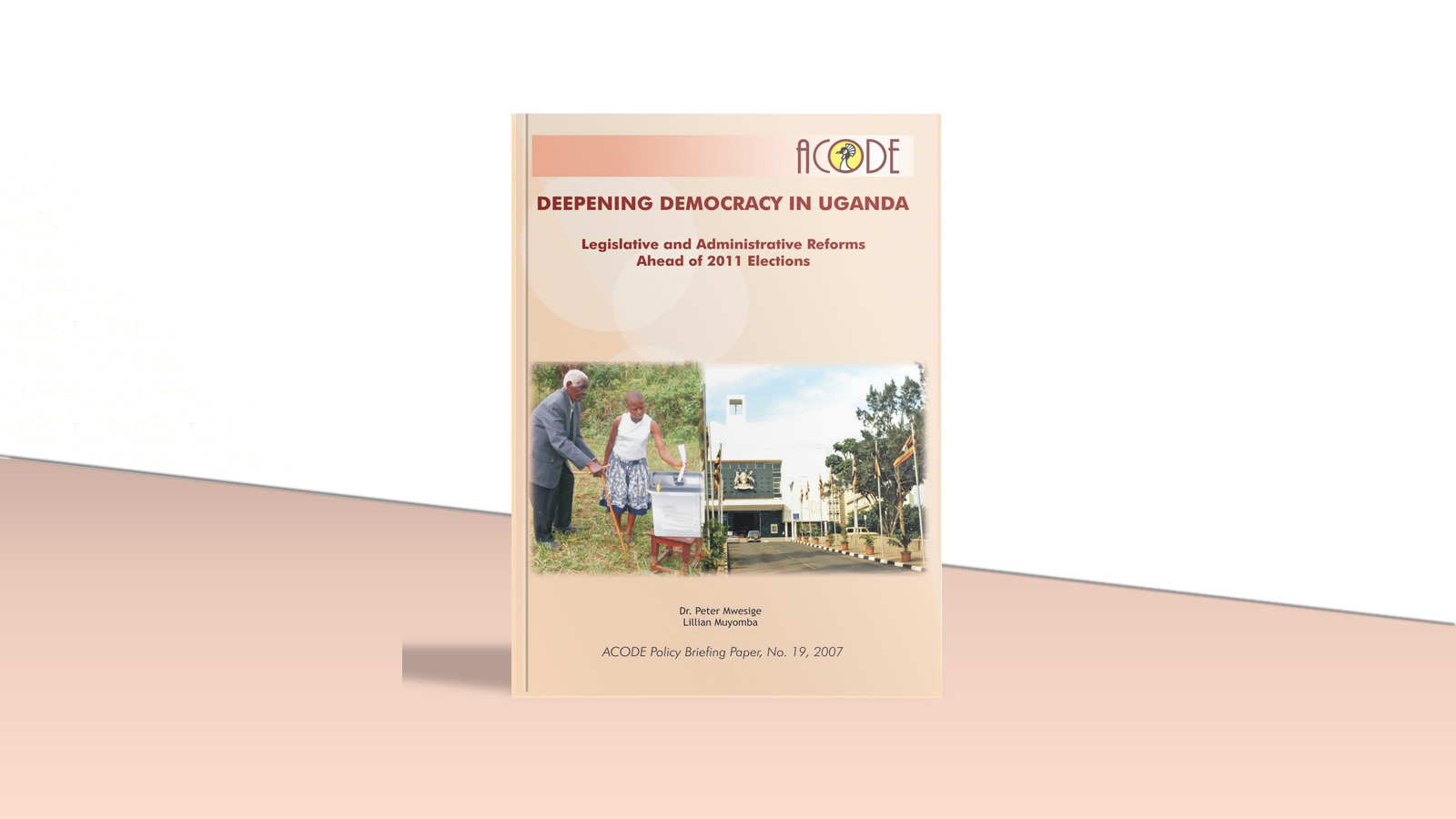
DEEPENING DEMOCRACY IN UGANDA: Legislative and Administrative Reforms Ahead of 2011 Elections
Author(s): Peter Mwesige and Lillian Muyomba
Published: 2007
This policy briefi ng paper presents a summary of fi ndings from a study on the legal and administrative reforms that the Government needs to undertake in order to facilitate the proper functioning of a multiparty political system in Uganda. In July 2005 Ugandans voted through a national referendum to change from the Movement Political System to the Multiparty Political System after 20 years under the National Resistance Movement (NRM) administration (1986-2005). The paper underpins the fact that the fi rst multiparty elections in February 2006 after nearly 25 years were marred by political violence and multiple irregularities.
View PDF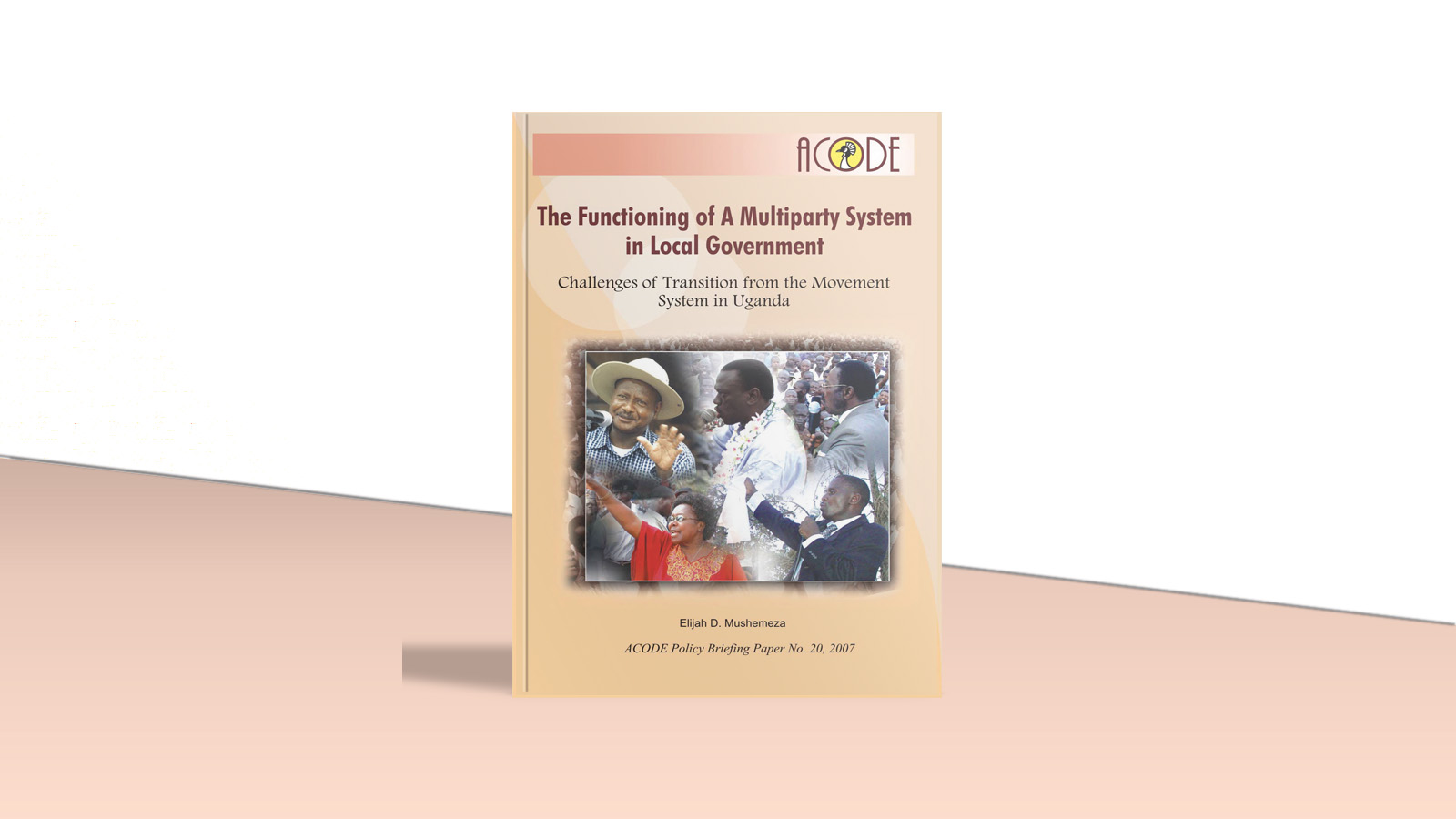
The Functioning of A Multiparty System in Local Government: Challenges of Transition from the Movement System in Uganda
Author(s): Elijah Dickens Mushemeza
Published: 2007
This policy briefing paper provides a summary of key interventions that are necessary for the functioning of multi-party democracy in local governments. The paper is derived from a research conducted by ACODE on the functioning of multi-party system in local governments. The briefing paper has been prepared as part of ACODE’s ongoing initiative to stimulate strategic and focused policy discourse that affect governance and democratization under a new political dispensation – multiparty democracy.
View PDF
Marginalisation of the Environment and Natural Resources Sector: The Roots of Economic Crisis and Poverty
Author(s): Onesmus Mugyenyi and Bashir Twesigye
Published: 2006
A Policy Memorandum submitted by ACODE to the 8th Parliament during the debate on the national budget for the Financial Year 2006/2007.
View PDF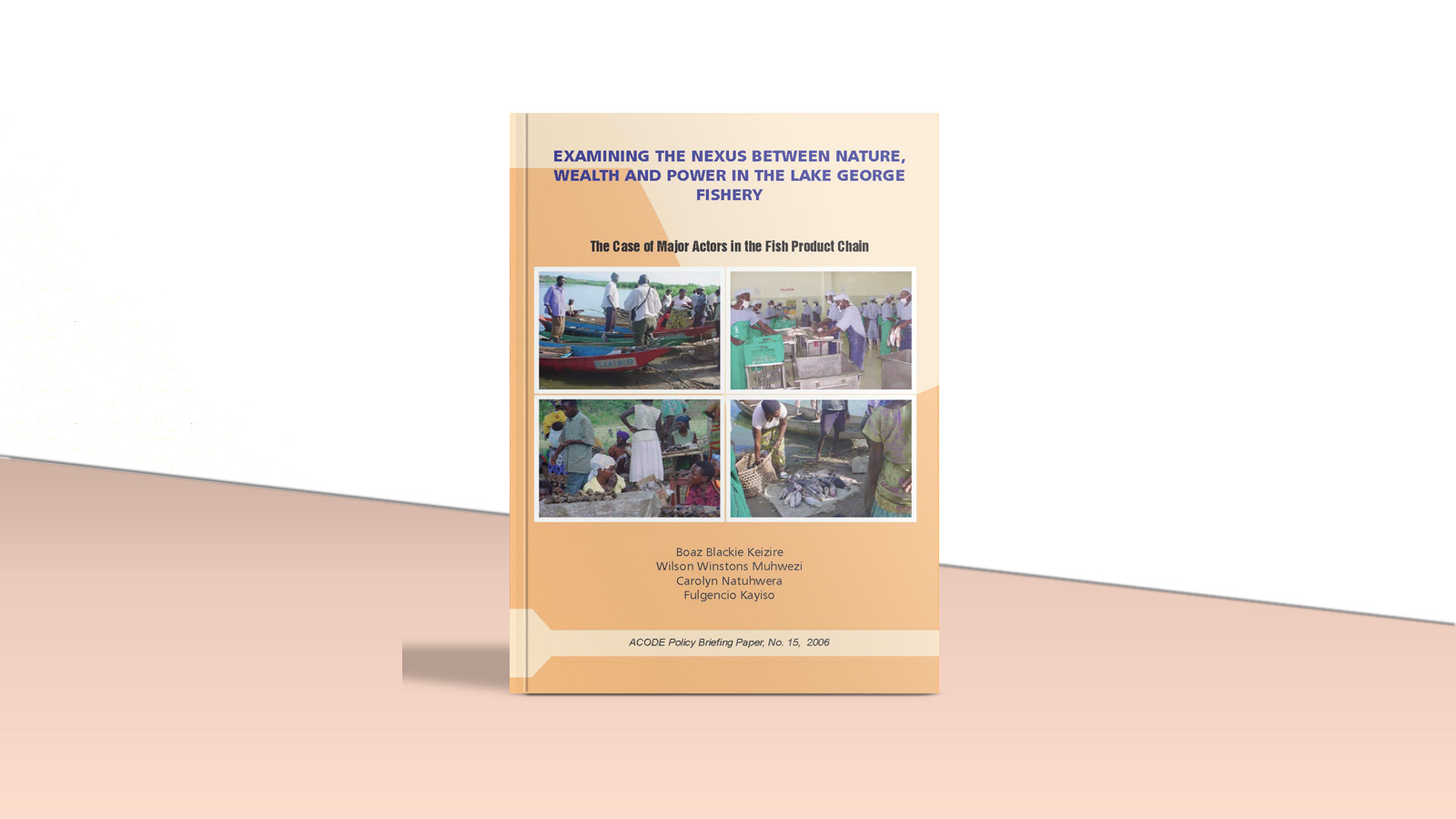
Examining The Nexus Between Nature, Wealth And Power In The Lake George Fishery: The Case of Major Actors in the Fish Product Chain
Author(s): Boaz Blackie Keizire, Wilson Winstons Muhwezi, Carolyn Natuhwera, and Fulgencio Kayiso
Published: 2006
The paper presents preliminary observations on the extent of degradation of fishery resources on Lake George, the structure of actors engaged in exploitation of the fi sheries as well as key factors determining winners and losers in terms of access to, and benefi t from, the resource. In spite of the actual and potential wealth, this paper notes that the socio-economic status of major actors within fi sh-dependent communities around Lake George refl ects a different reality.
View PDF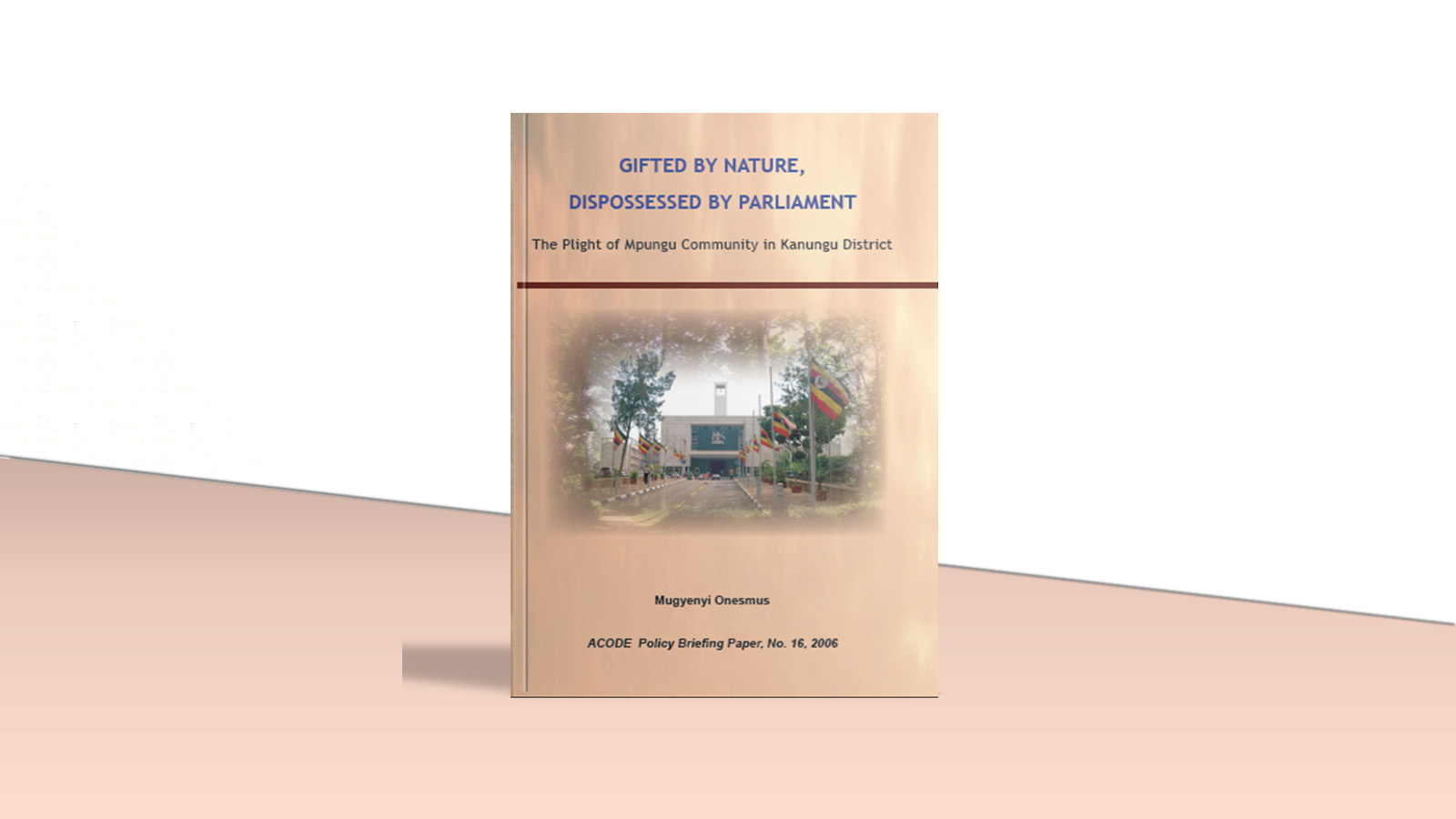
Gifted by Nature, Dispossed by Parliament: The Plight of Mpungu Community in Kanungu District
Author(s): Onesmus Mugyenyi
Published: 2006
The purpose of this briefing paper is three fold: First, the paper provides information to the policy makers and particularly Parliament on the illegality of its resolution that formally alienated and gazetted the six villages of Mpungu Parish in Kanungu to constitute part of Bwindi Impenetrable National Park. Second, this paper highlights the injustice that has been occasioned on the people of Mpungu parish that has remained unresolved for over six years notwithstanding the community’s concerted effort to have the matter amicably resolved. Third, this paper provides options of solving the dispute.
View PDF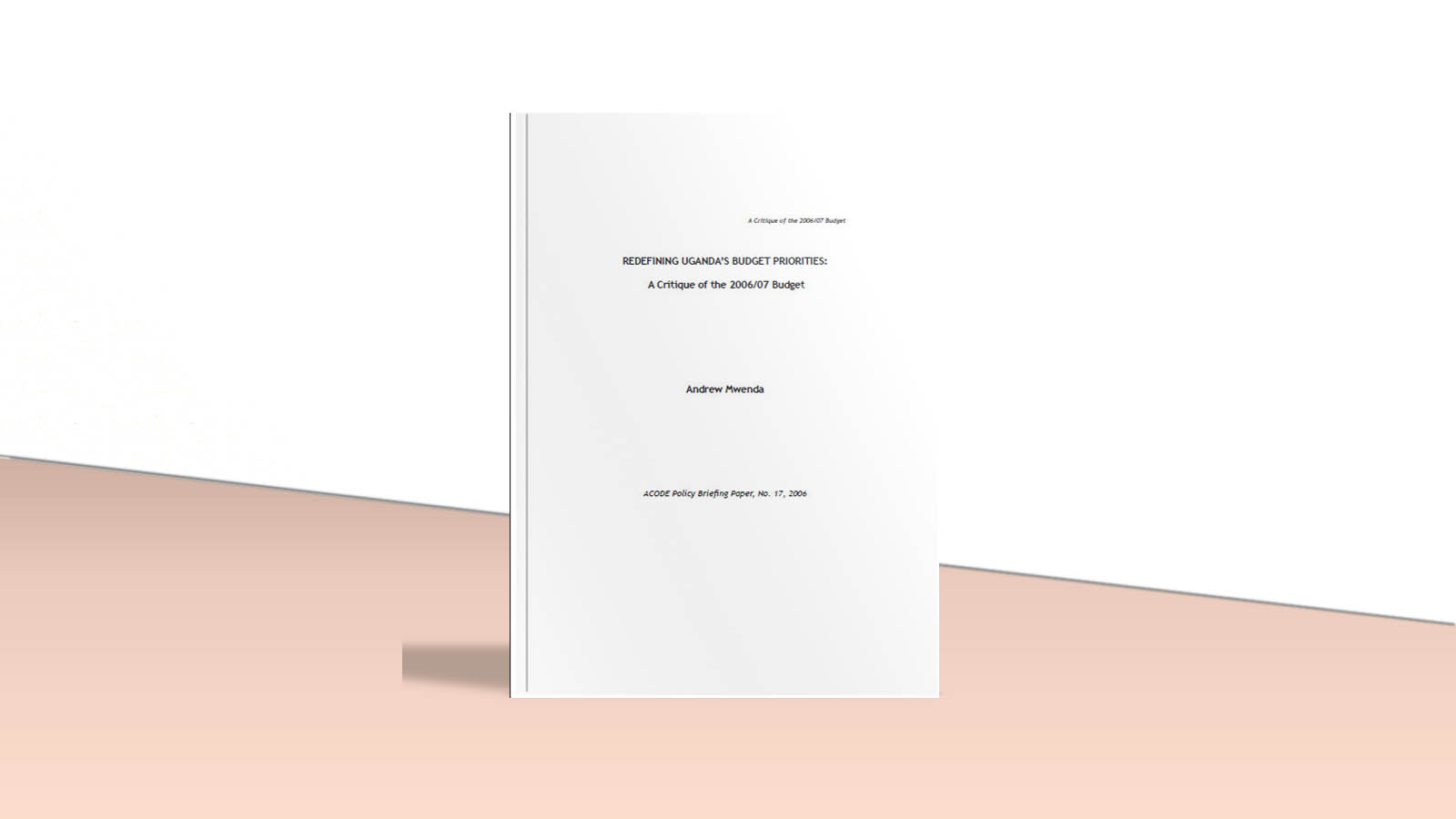
REDEFINING UGANDA’S BUDGET PRIORITIES: A Critique of the 2006/07 Budget
Author(s): Andrew Mwenda
Published: 2006
The paper elucidates and challenges the current policies and strategies pursued by the Government of the National Resistance Movement – the ruling political party. It is argued that the National Resistance Movement Government both prior and after the introduction of the multi-party political system of Government has pursued economic policies that are devoid of strategic long-term development perspectives. Indeed, the 2006/07 budget and annual budget instruments in general largely refl ect the predatory tendencies driven by the survival instincts of political groups at the expense of political leverage accruing from long-term economic transformation of the country and citizens.
View PDF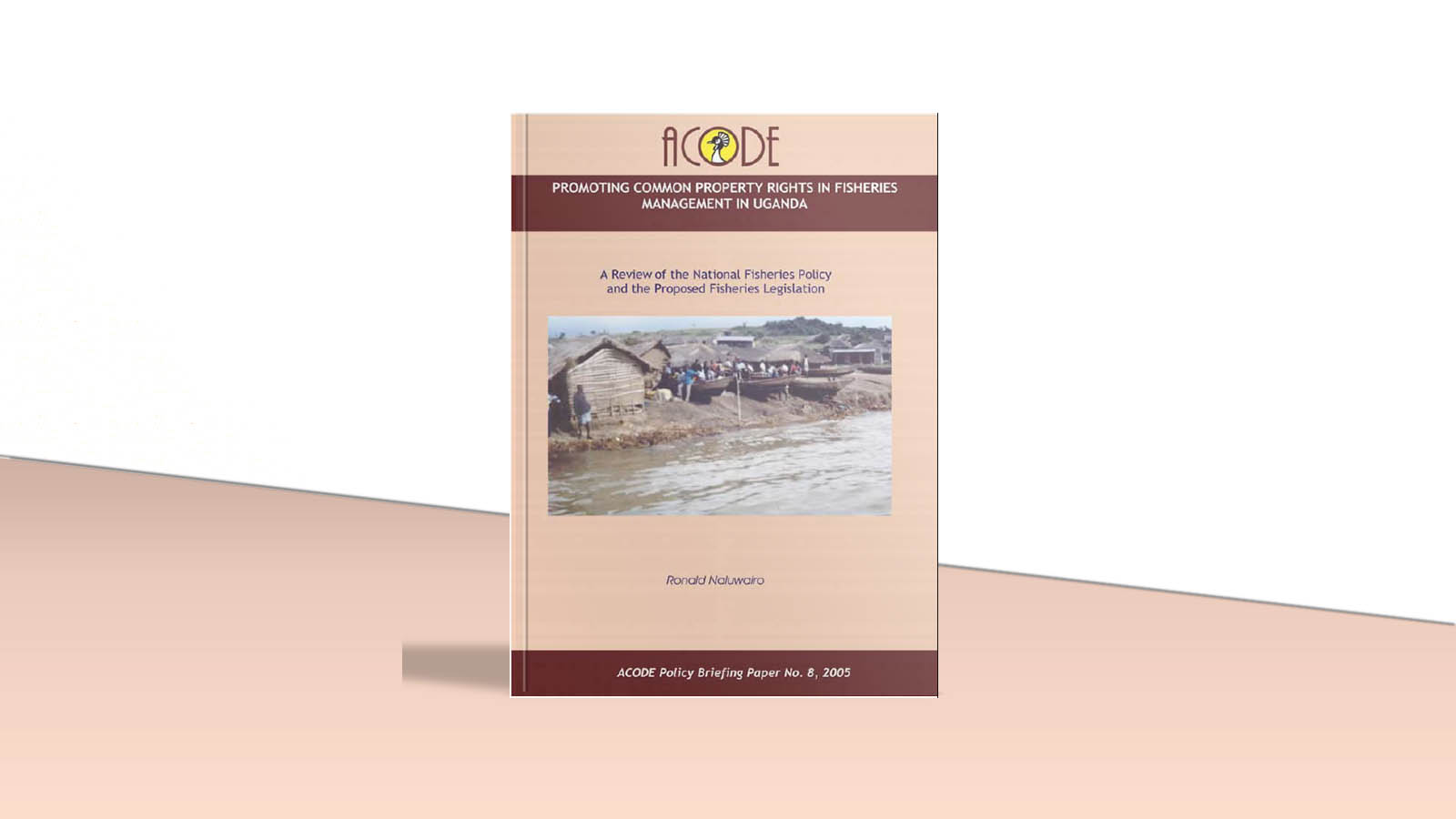
Promoting Common Property Rights in the Fisheries Management to Enhance Rural Livelihoods and Poverty Eradication in Uganda: A Review of the Nationsl Fisheries Policy and the Legal Framework
Author(s): Ronald Naluwairo
Published: 2005
The paper analyzes the extent to which the recently adopted National Fisheries Policy guarantees common property rights of local fishing communities and I make recommendations on how best they can be secured in the policy implementation process. In particular, I argue that guaranteeing security of land tenure is fundamental to enjoying the full benefits accruing from common property rights regimes.
View PDF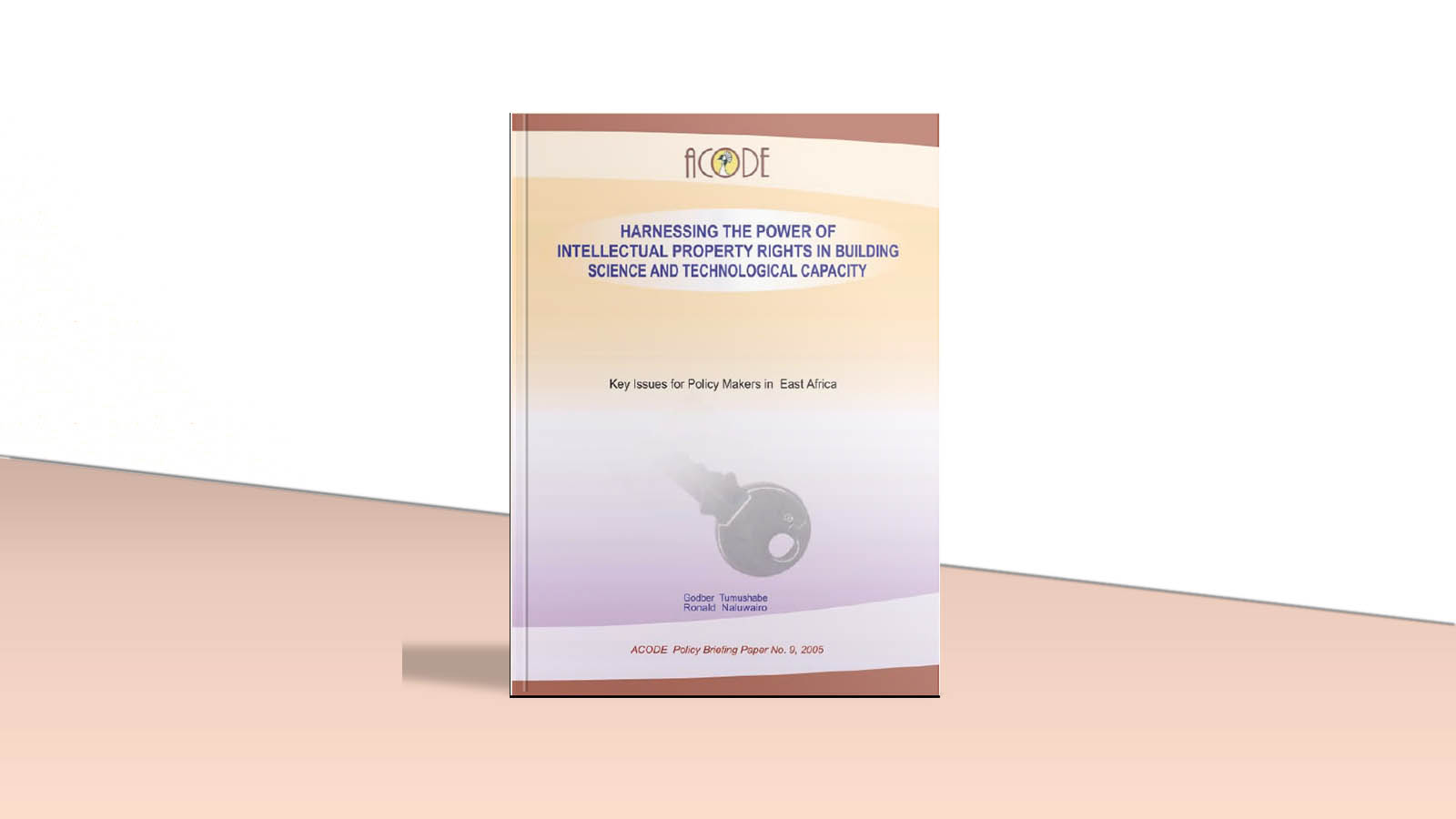
Harnessing The Power Of Intellectual Property Rights In Building Science And Technological Capacity: Key Issues for Policy Makers in East Africa
Author(s): Godber Tumushabe and Ronald Naluwairo
Published: 2005
This policy briefing paper argues that even where IPRs are used to stimulate innovation and attract FDIs, it does not happen by accident but by a consciously planned effort based on clear policy goals, actions and priorities. In particular it is argued that patent protection in modern biotechnology can only meaningfully benefit African countries if IPR policy and legislation is tailored to supporting building national scientific and technological capacity. We analyze the critical issues that are necessary for making IPRs more relevant to African development.
View PDF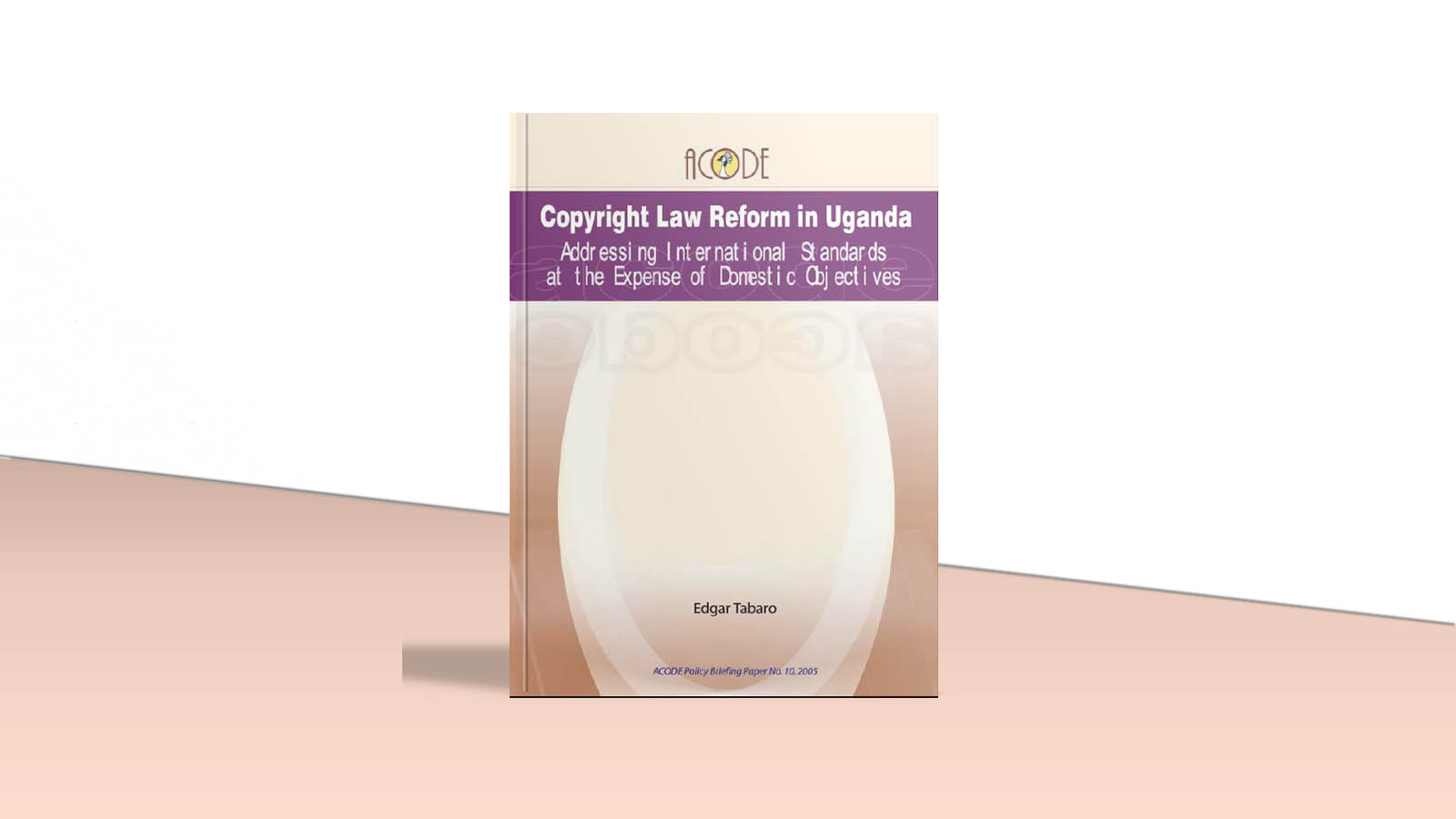
Copyright Law Reform in Uganda Addressing International Standards at the Expense of Domestic Objectives
Author(s): Edgar Tabaro
Published: 2005
Copyright Law Reform ought to address domestic policy objectives as well as international standards to which Uganda is obligated. Uganda's Copyright Bill in its present form appears to address the latter at the expense of the former. Issues to do with increased presence and access of local creations on the international scene need to be addressed in the context of creating rights for protection and accruing benefits. Thus this policy briefing paper provides a timely insight into the reform process by highlighting the salient domestic issues to be considered.
View PDF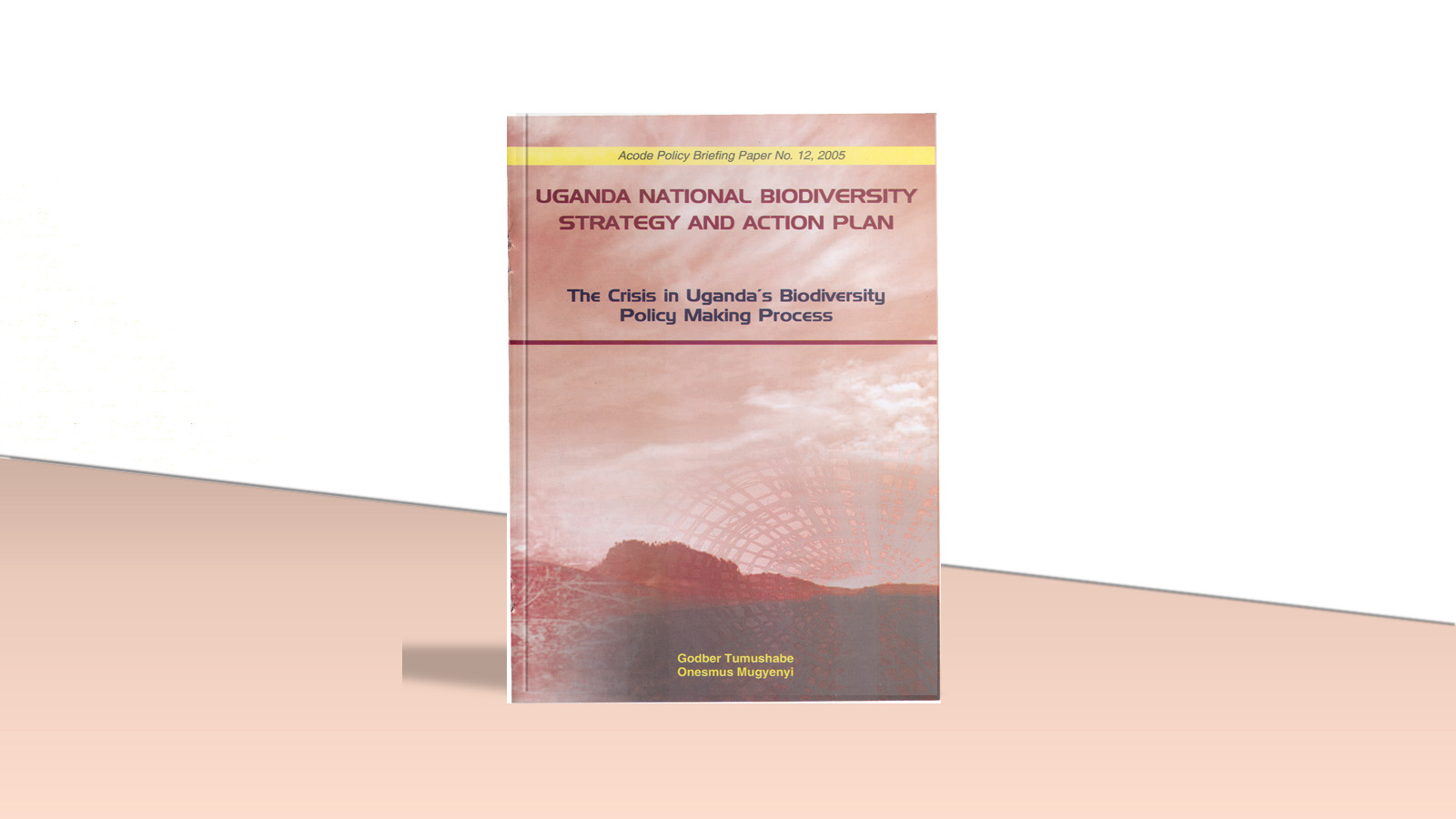
Uganda National Biodiversity Strategy And Action Plan: The Crisis in Uganda’s Biodiversity Policy Making Process
Author(s): Godber Tumushabe and Onesmus Mugyenyi
Published: 2005
The paper recognizes the importance of Uganda's efforts to transform her economy, social services and politics are directly tied to the fate of our biological resources. Uganda's stock of biological diversity including forests, wildlife, wetlands, micro-organisms, etc is the basis for sustainable agricultural productivity, tourism development and social protection, among others.. Ugandan policy makers and politicians need to be reminded consistently of the indivisibility of economic growth and the sustainable management of biological diversity.
View PDF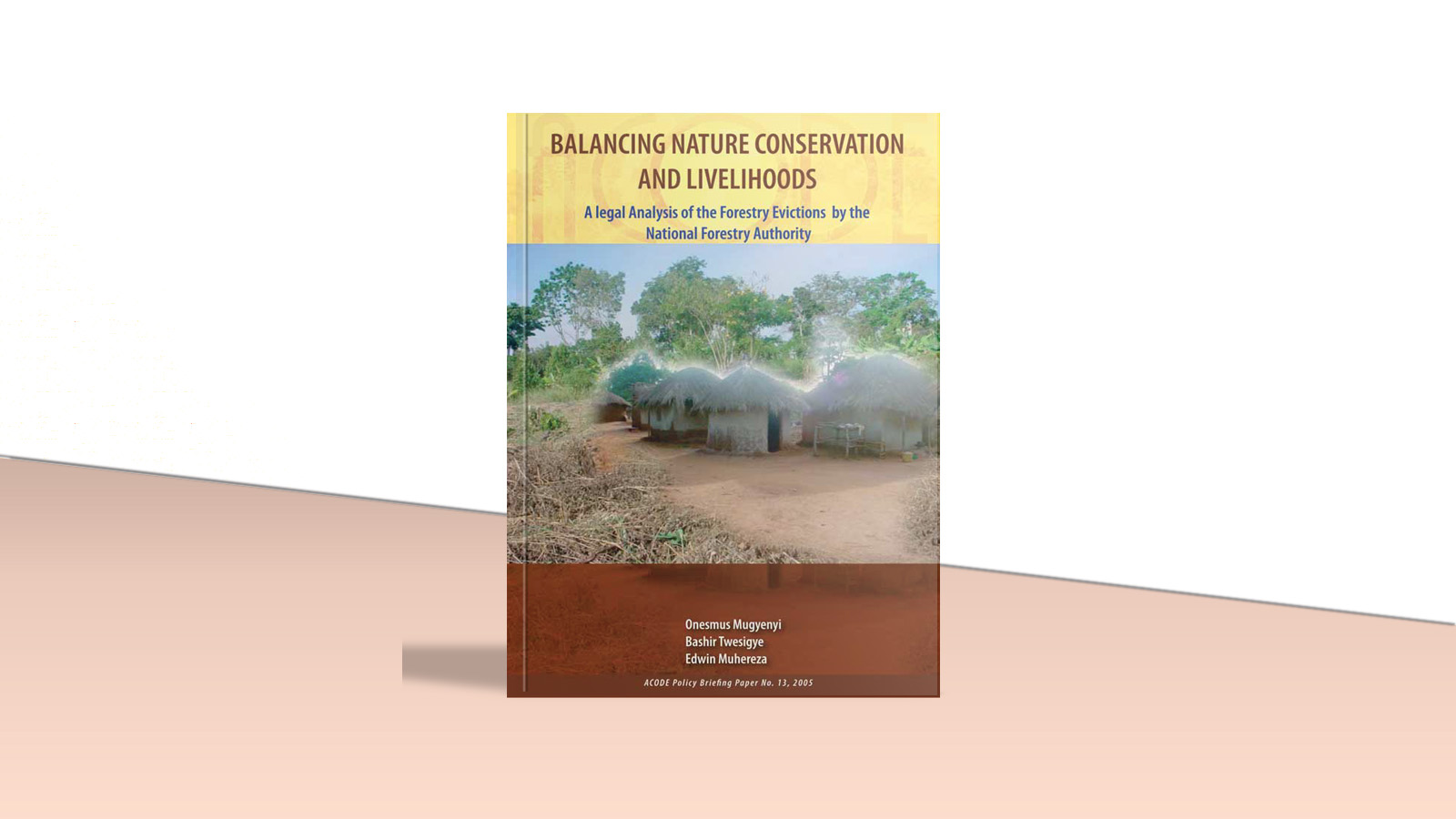
Balancing Nature Conservation and Livelihoods: An Analysis of Forestry Evictions by National Forestry Authority
Author(s): Onesmus Mugyenyi, Bashir Twesigye, and Edwin Muhereza
Published: 2005
This policy brief examines the question of forestry evictions by the National Forestry Authority in the process of execution of its mandate, the mode of evictions and the plight of the vulnerable communities affected in light of the overall government goal of poverty eradication. It also examines the implications of the presidential directives to halt evictions. In this analysis, we have used South Busoga Forest Reserve as a case study.
View PDF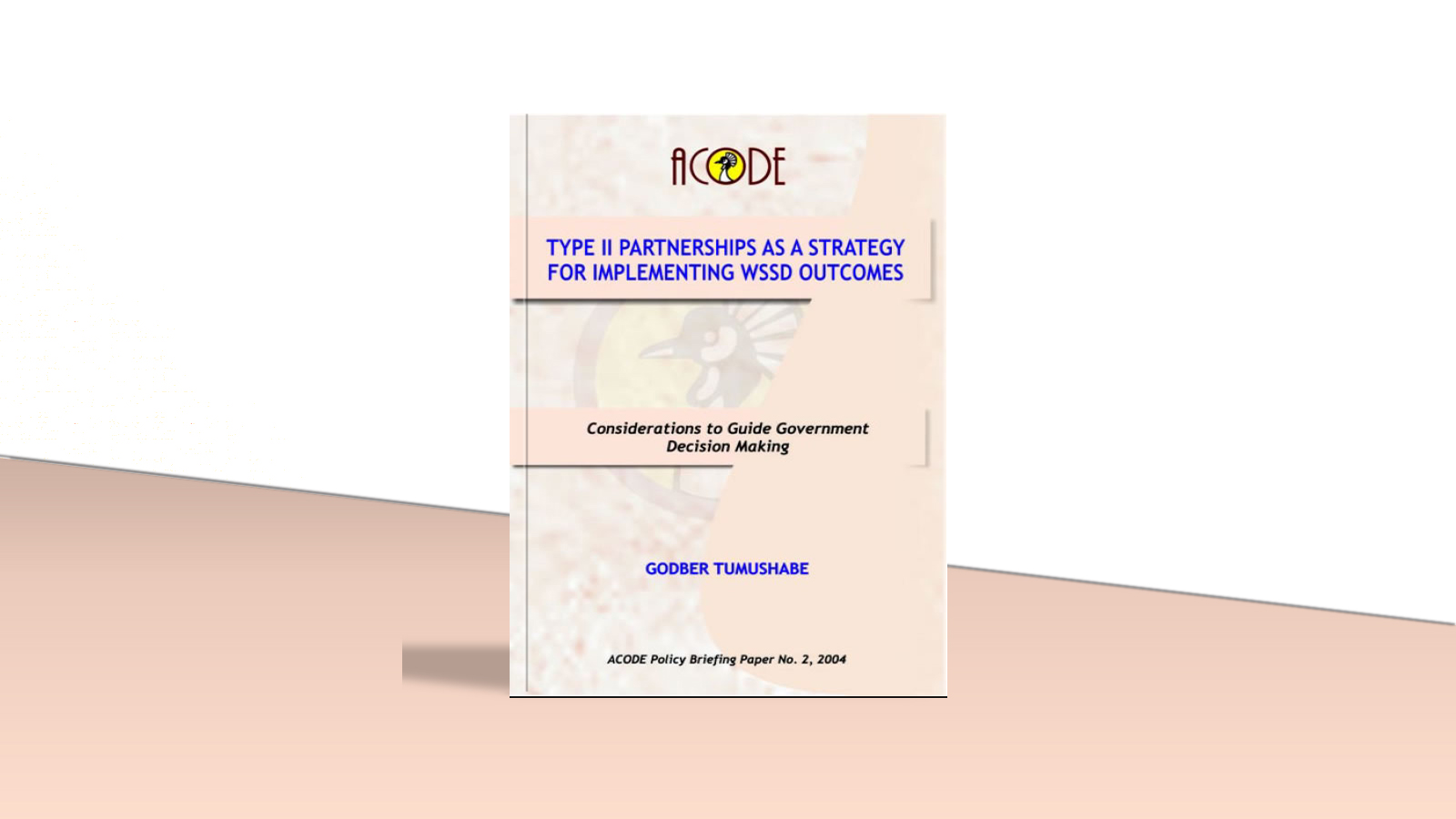
Type II Partnerships as a Strategy for Implimenting WSSD Outcomes: Considerations to Guide Government Decision-Making
Author(s): Godber Tumushabe
Published: 2004
This policy briefing paper has been prepared to address two specific objectives. First, it is to provide general guidance on the key issues to be considered by any Government when confronted with making a decision on whether it should join or not join a partnership. Secondly, the briefing paper is intended to inform decision makers about the Partnership for Principle 10 and the likely benefits and costs of joining PP10.
View PDF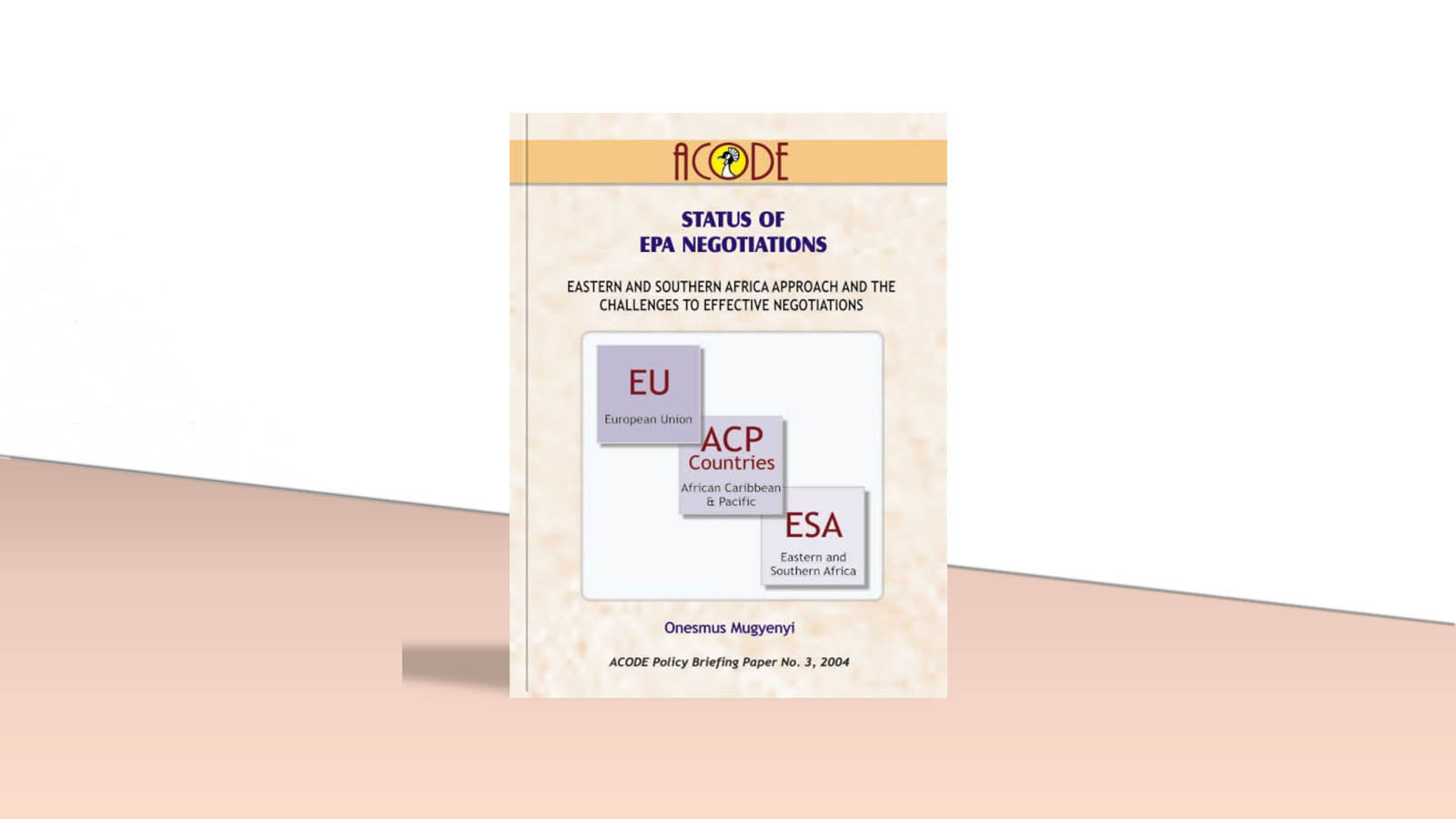
Status of EPA Negotiations: Eastern and Southern Africa Approach and the Challenges to Effective Negotiations
Author(s): Onesmus Mugyenyi
Published: 2004
This briefing paper provides an overview of the ongoing negotiations for the planned Economic Partnership Agreements (EPAs) between the EU and the ACP countries. It also explores the status of negotiations and in particular looks at the Eastern and Southern Africa approach to EPA negotiations and gives an outlook of the emerging negotiating structures, negotiating mandate, objectives, guidelines and principles. The paper examines the unresolved issues under phase one of the negotiations which are of interest to ACP countries.
View PDF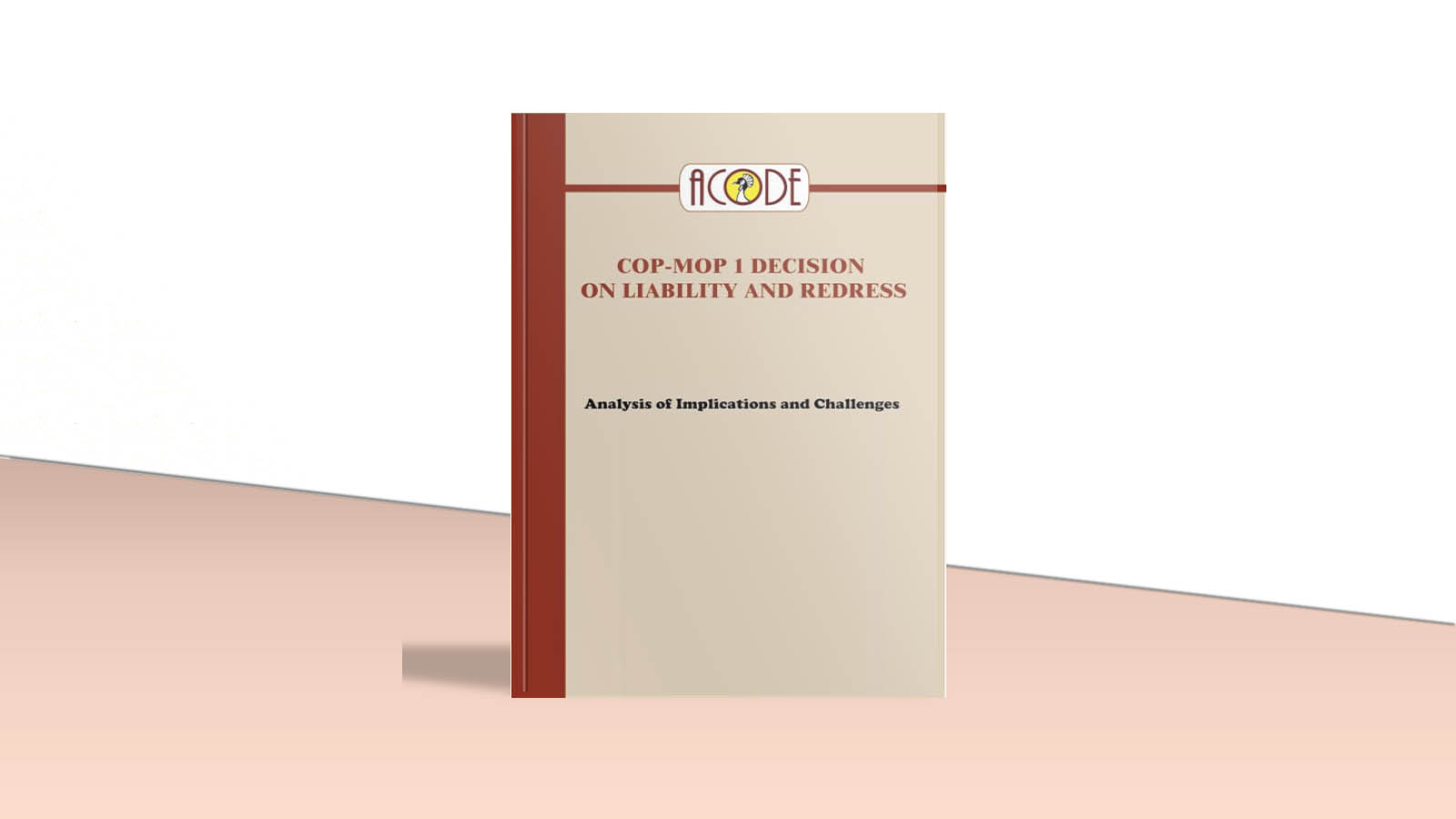
COP MOP 1 Decision on Liability and Redress: Analysis of Implications and Challenges for Eastern and Southern Africa
Author(s): Godber Tumushabe and Ronald Naluwairo
Published: 2004
This paper is an analysis of the Conference of the Parties serving as the first meeting of the Parties to the Cartagena Protocol on Biosafety (COP-MOP 1 Decision: UNEP/CBD/BS/COP-MOP 1/L.8) that took place in February 2004, in Kuala Lumpur, Malaysia on Liability and Redress, its implications and Challenges for countries in Eastern and Southern Africa.
View PDF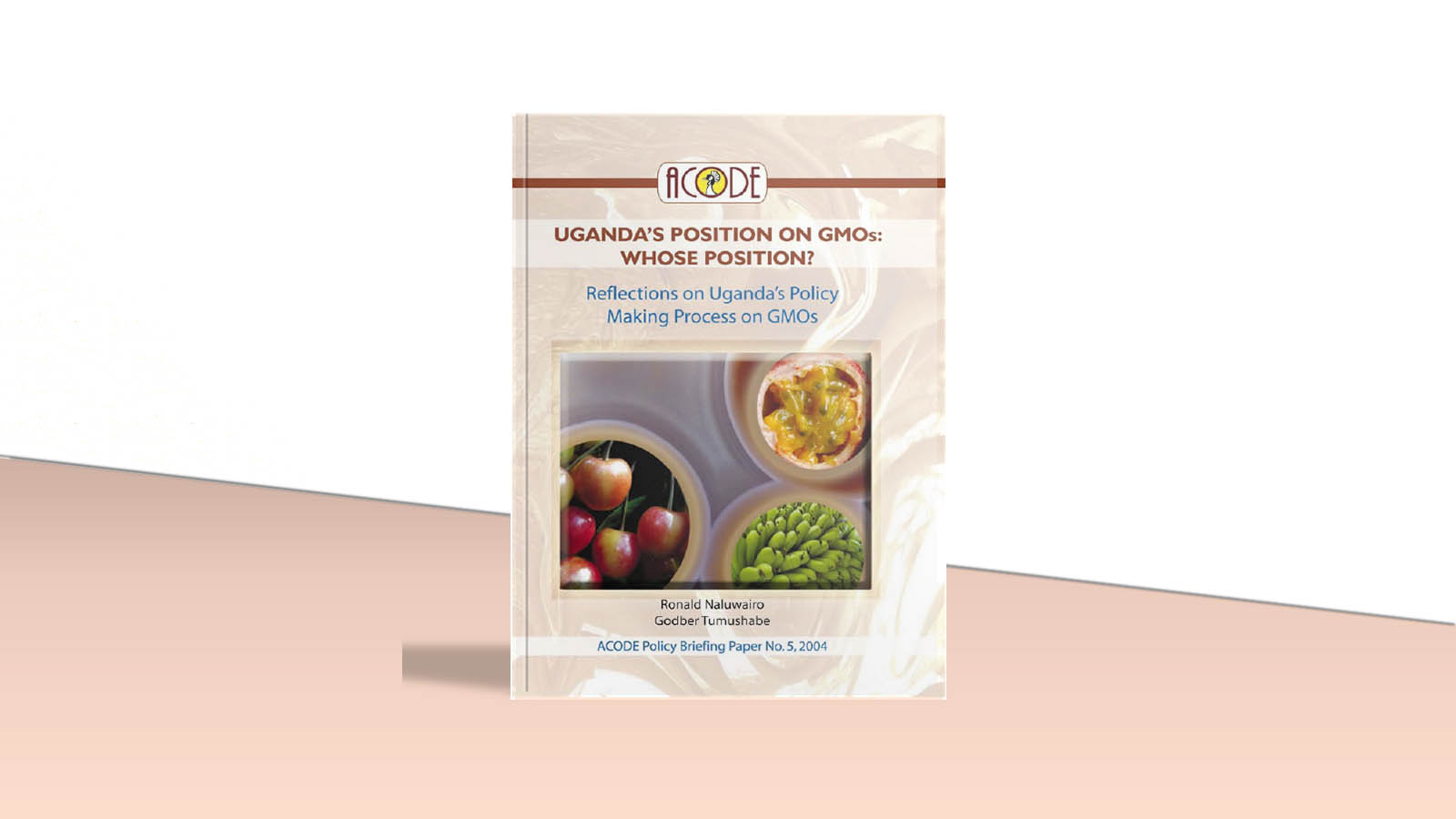
Uganda's Position on GMOs: Whose Position? Reflections on Uganda's Policy Making Process on GMOs
Author(s): Godber Tumushabe and Ronald Naluwairo
Published: 2004
The avers that the Cartagena Protocol on Biosafety in particular which now represents a global consensus on the potential adverse effects of living modified organisms (LMOs) to human health and the environment obliges member states in their adoption and application of biotechnology to apply the precautionary principle when making decisions with regard to the transboudary movement of LMOs. As a party to these international instruments, it is good practice that any position that Uganda takes on GMOs has to be reflective of its obligations under the said instruments.
View PDF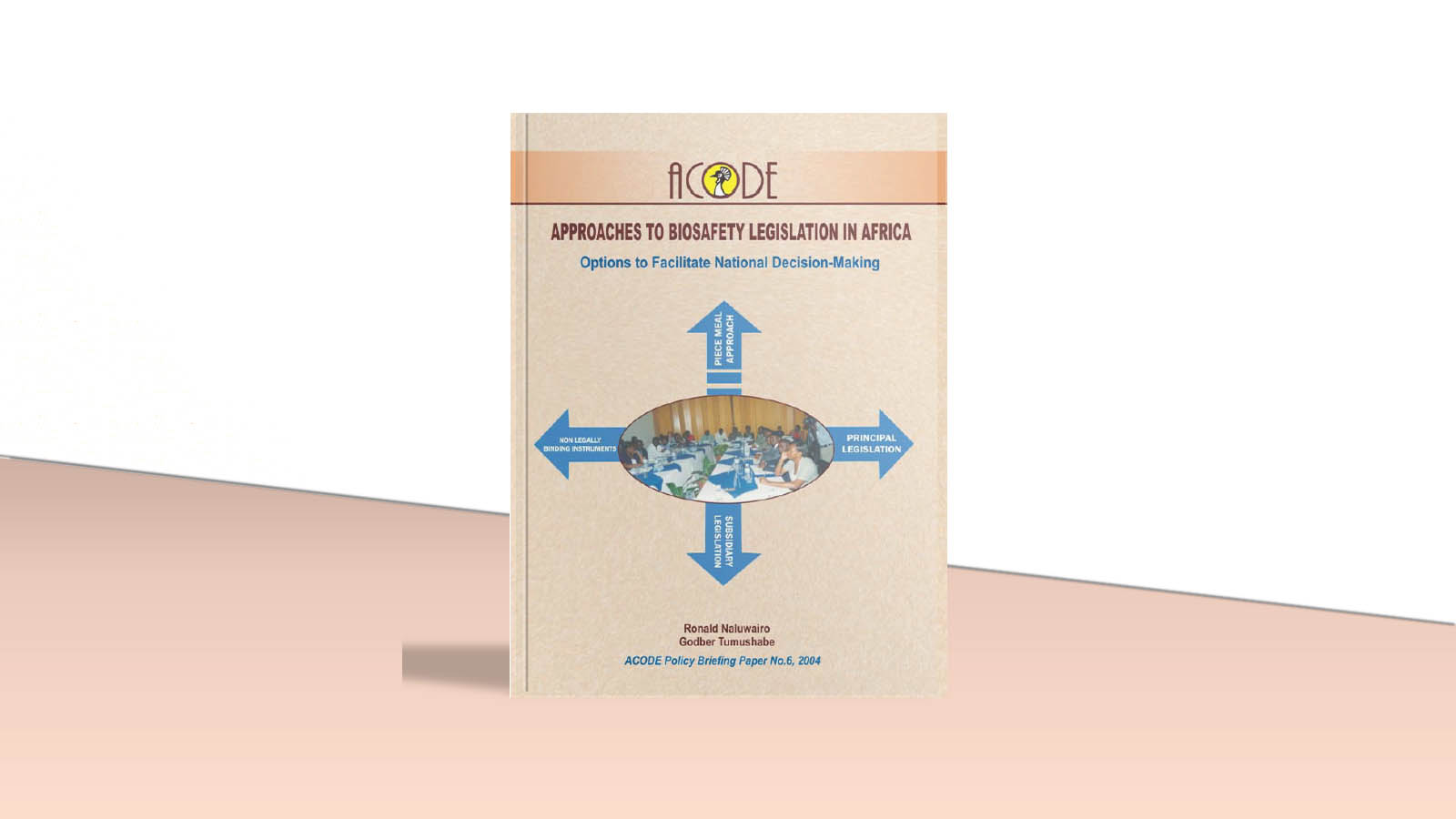
Approaches to Biosafety Legislation in Africa: Options to Facilitate National Decision-Making
Author(s): Godber Tumushabe and Ronald Naluwairo
Published: 2004
This policy brief analyzes the four major approaches to biosafety legislation which include: Principal legislation, Subsidiary legislation, Piecemeal approach and Non legally binding Instruments.While we recognize the fact that there can not be a single best approach for all countries due to the diverse socio-cultural, economic and political settings, we analyze the implications of each approach.
View PDF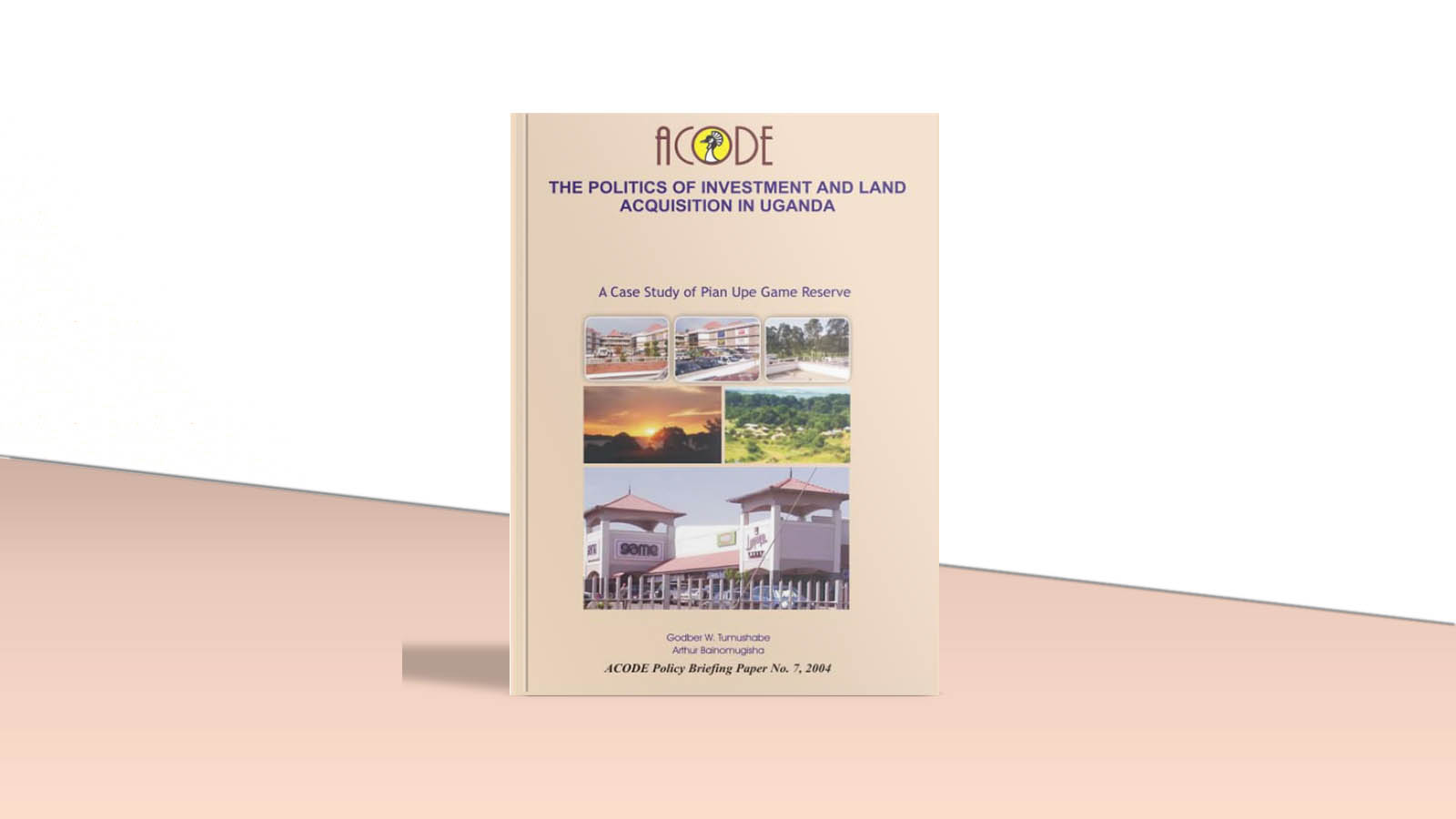
The Politics of Investment and Land Acquisition in Uganda: A Case Study of Pian Upe Game Reserve
Author(s): Godber Tumushabe and Arthur Bainomugisha
Published: 2004
This policy briefing paper has three specific objectives: First, it is intended to provide an independent legal analysis of the legal issues surrounding the proposed degazettement of Pian Upe Game Reserve. Second, by applying the nature, wealth and power analytical framework, we intend to show that politically motivated degazzettement of protected areas for the wealthy and politically powerful people is the single biggest threat to the natural resources heritage of Uganda2. And third, we seek to challenge what is slowly becoming a dominant thinking that protected areas are available to Government to “to dish out” to private and corporate interest in complete disregard ofthe beneficiary interest of the Ugandan people.
View PDF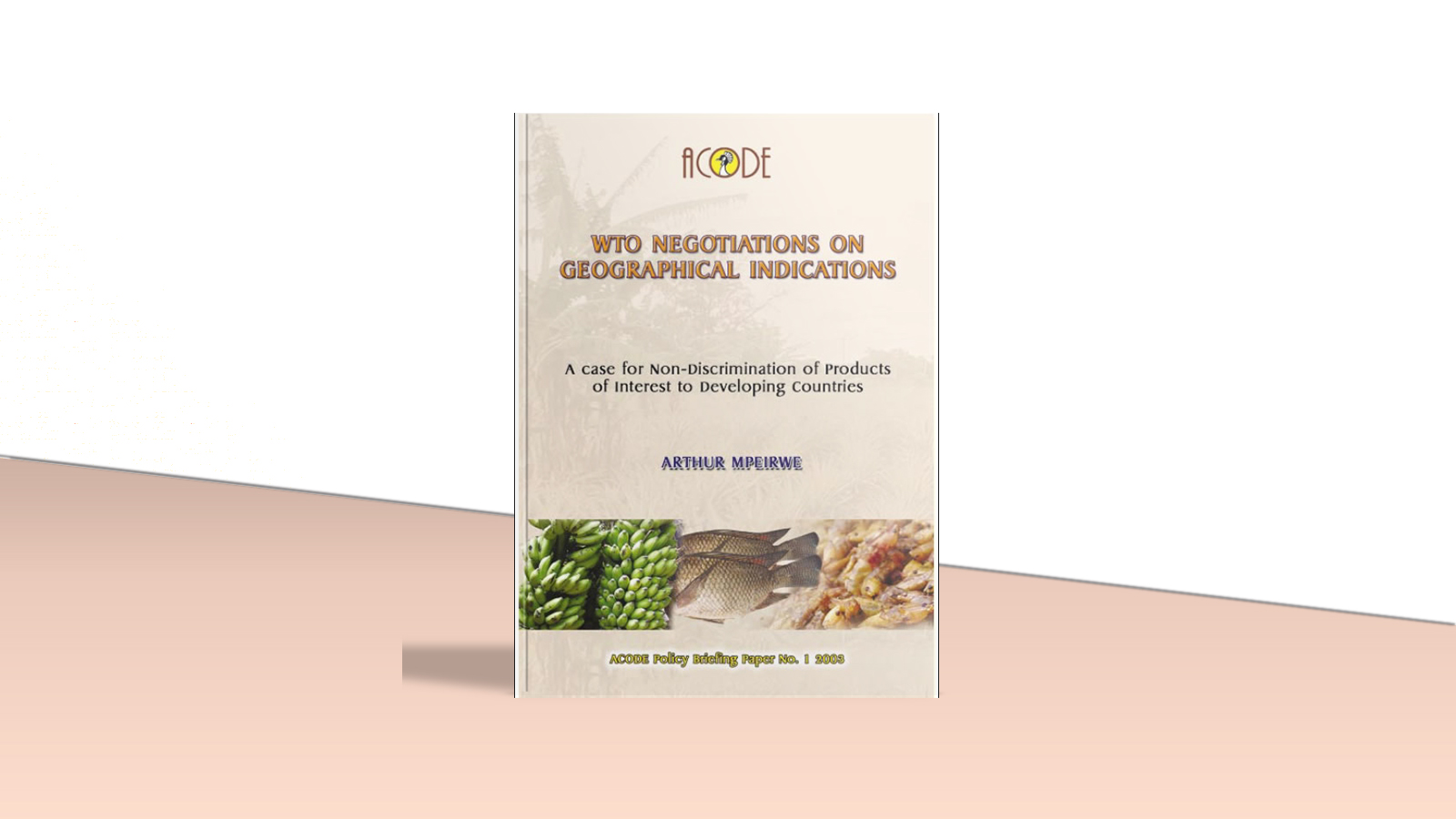
WTO Negotiations on Georgraphical Indications: A Case of Non-Discrimination of Products of Interest to Developing Countries
Author(s): Arthur Mpeirwe
Published: 2003
This brief is an exploration of the protection of GIs for goods in general and preferential treatment for wines and spirits. The brief analyses the positions of various negotiating groups proposed since the first ministerial conference and the arguments for extending similar level of protection to goods of interest to developing countries. The brief further explores Ugandas possible benefit from the system and what needs to be done to take advantage of the system.
View PDF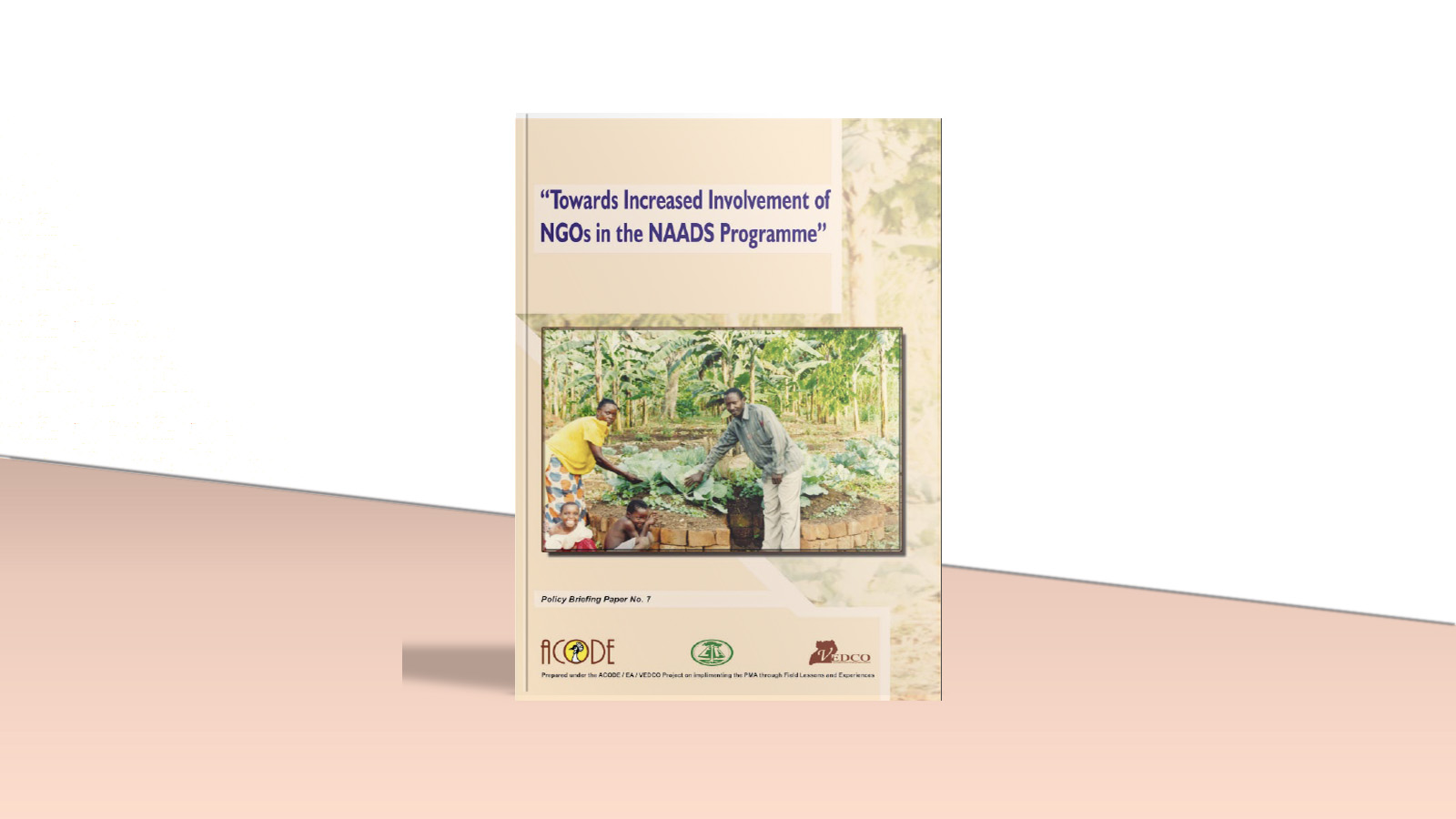
Towards Increased Involvement of NGOs in the NAADS Programme
Author(s): Rebecca M. Kalibwani and Ronah N. Serwadda Ssali
Published: 2003
This policy brief is a result of the issues arising out of a review of the NGO activities related to the NAADS that was carried out under the ACODE/VEDCO/EA PMA project. The main purpose of the study was to review the current activities related to agricultural advisory services with a view of understanding the nature of the services offered, gaps in the services and to solicit for possible ways of collaboration between the NAADS and NGOs in service delivery. The study was carried out in the districts of Luweero, Wakiso and Mukono. The findings of the study form the basis of this policy brief. The brief is intended to provide guidance to the NAADS on specific actions to take in order to streamline the involvement of the NGOs in service provision under the NAADS programme.
View PDF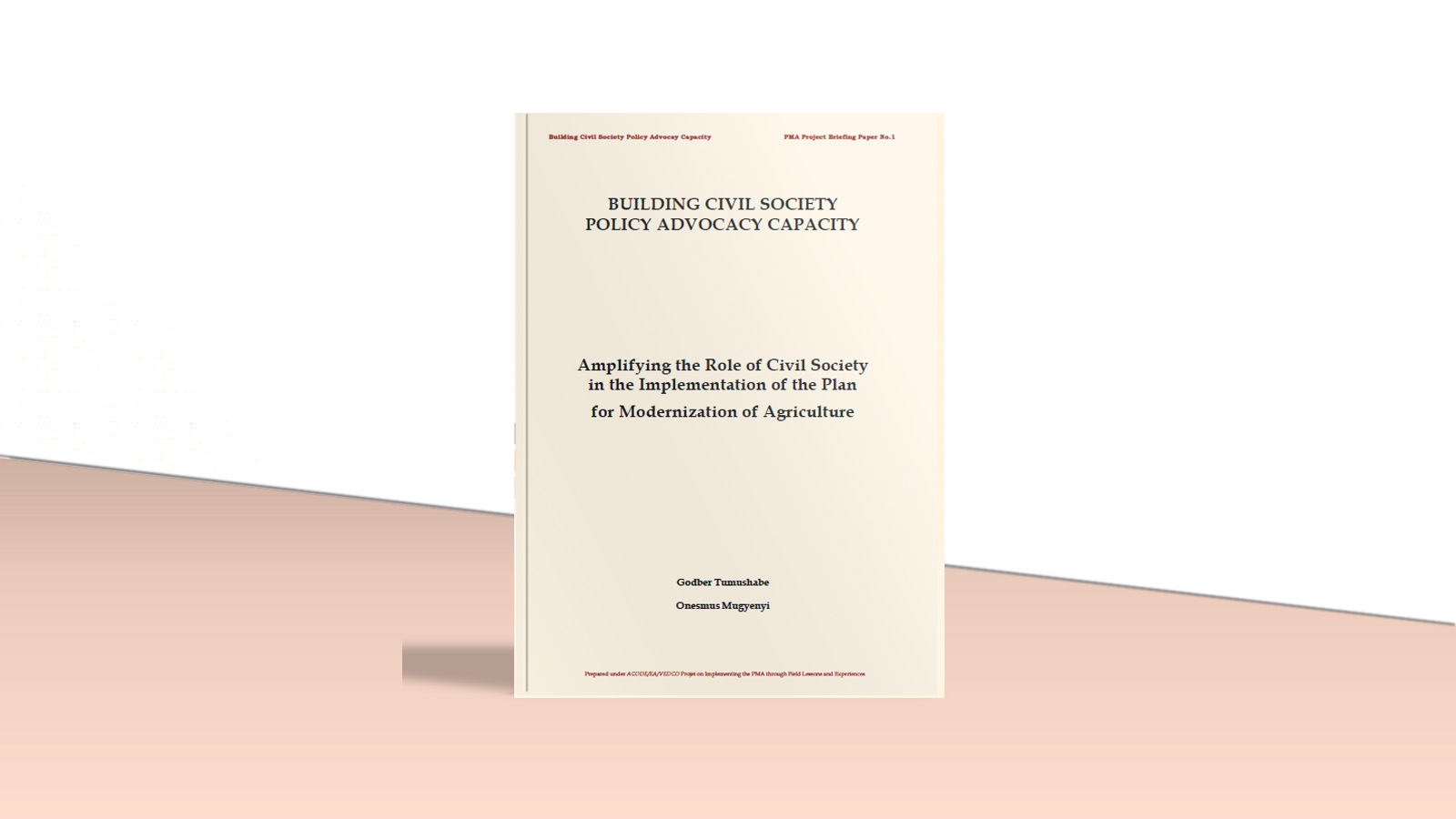
BUILDING CIVIL SOCIETY POLICY ADVOCACY CAPACITY: Amplifying the Role of Civil Society in the Implementation of the Plan for Modernization of Agriculture
Author(s): Godber Tumushabe and Onesmus Mugyenyi
Published: 2003
The paper aims to equip CSOs with skills needed to effectively participate in influencing participatory decision-making in the implementation of the PMA –with the broad aim of empowering the local communities to benefit from the outcomes of a transformed agricultural sector.
View PDF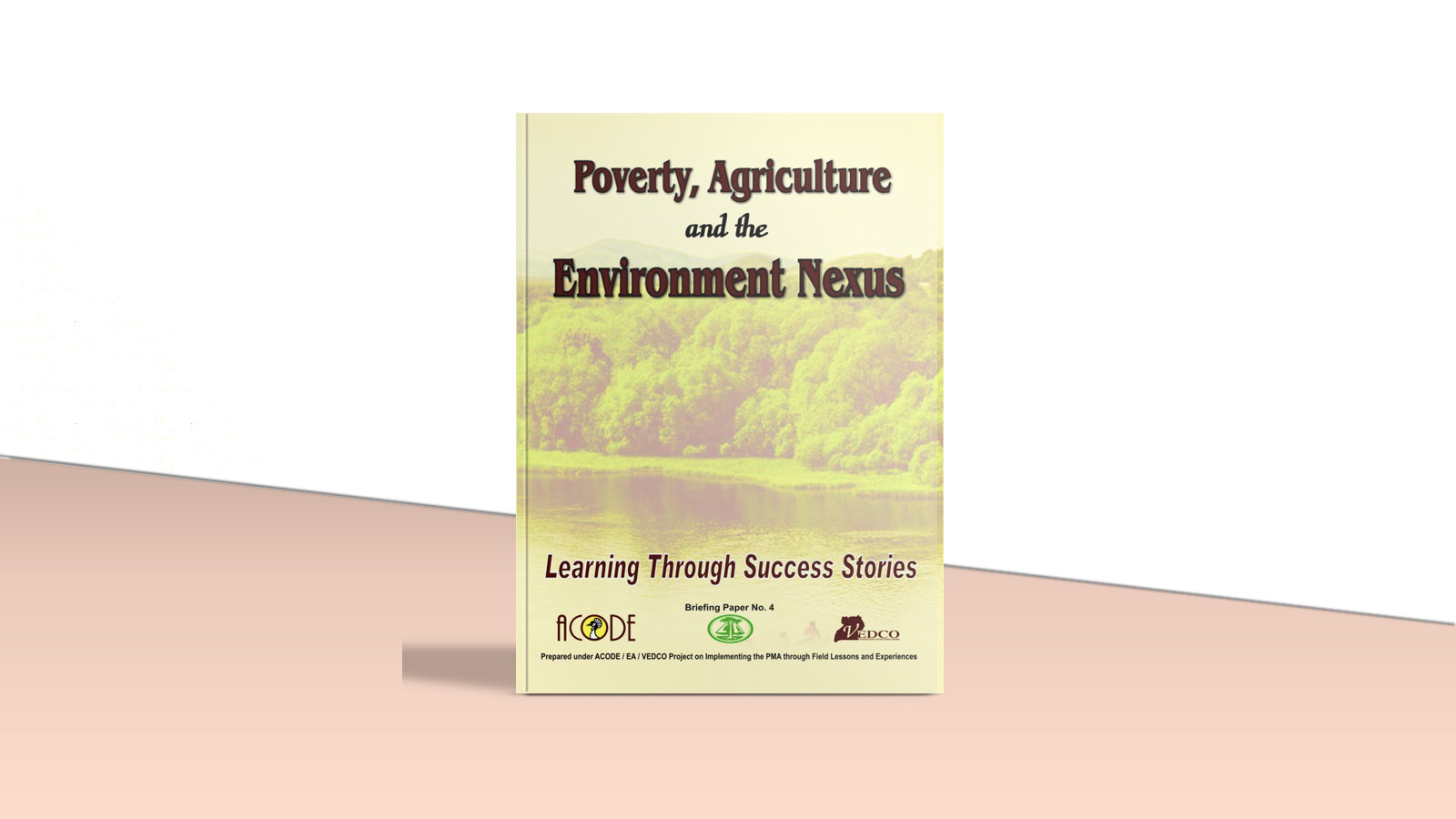
Poverty, Agriculture and the Environment Nexus: Learning Through Success Stories
Author(s): Godber Tumushabe
Published: 2003
This policy paper synthesizes existing literature on the relationship between poverty, agriculture and the environment. The purpose of the paper is twofold: First, it is intended to explore and identify opportunities for more effective integration between poverty eradication objectives, Plan for Modernization of Agriculture and environmental policy objectives. Secondly, it is intended to stimulate debate to further inform the implementation of the revised Poverty Eradication Action Plan. The paper makes a number of observations, proposals and directions for further research.
View PDF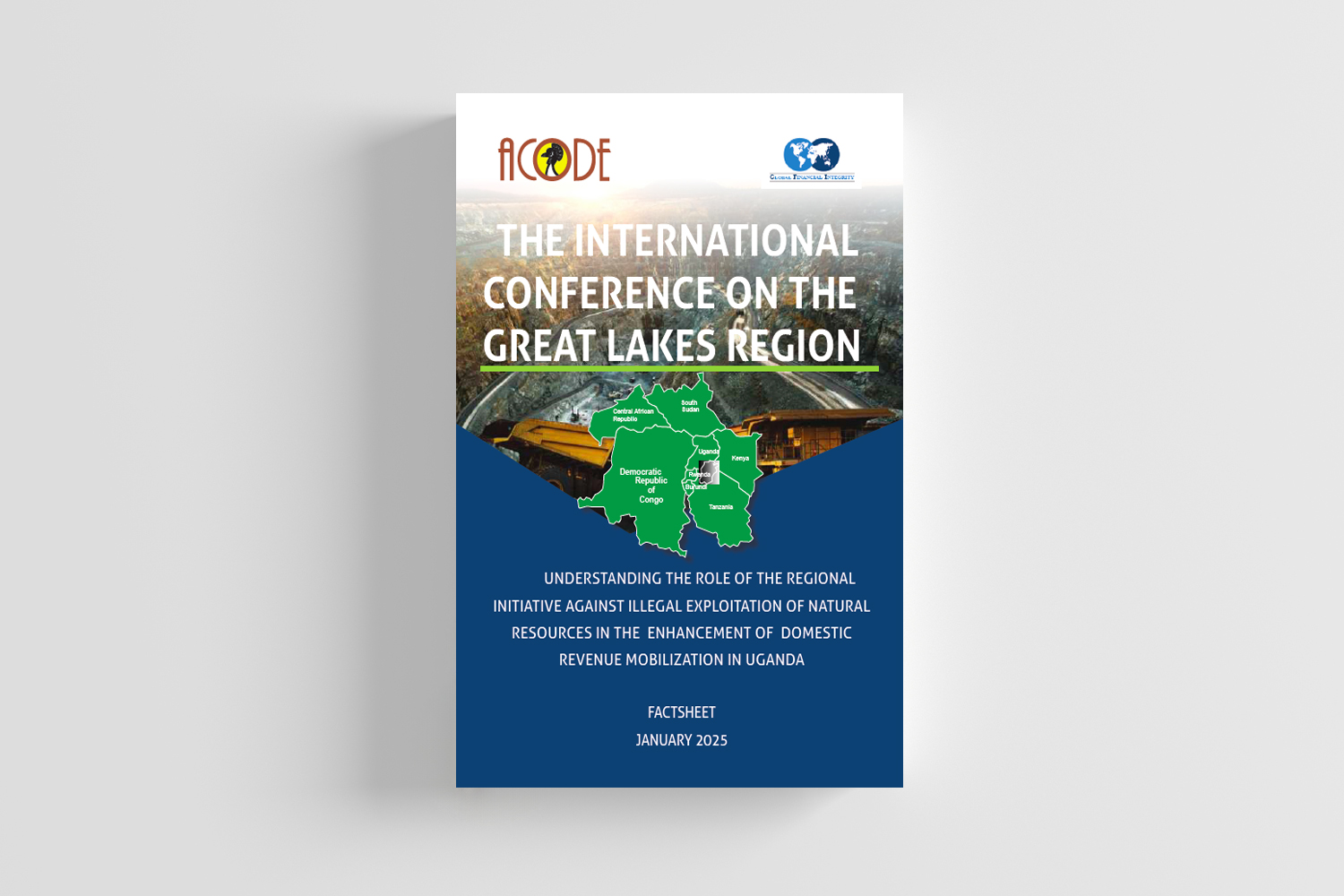
The International Conference on the Great Lakes Region: Understanding the Role of the Regional Initiative Against Illegal Exploitation of Natural Resources in the Enhancement of Domestic Revenue Mobilization in Uganda
Author(s): Onesmus Mugyenyi, Phoebe Atukunda, Paul Twebaze, and Peter Watua
Published: 2025
The Great Lakes Region of Africa is an example of the paradox of poverty amidst plenty. On the one hand, it is home to a substantial number of natural resources which are in great demand on the global market. On the other hand, its population lives in great poverty and the region’s recent history has been marked by disastrous effects of armed conflicts. The abundance of natural resources has not yet transformed the region into a state of inclusivity that guarantees socio-economic well-being for the population. Illegal exploitation of natural resources and unbalanced trade rob countries in the region of their rightful revenue and fuel conflicts and political instability. Domestic revenue mobilization and illicit financial flows, such as illegal mineral exploitation, are known opposing forces in building effective developmental states. Gaps in policies and compliance within regulatory regimes allow illicit financial flows, hindering countries' abilities to mobilize essential domestic revenue.
View PDF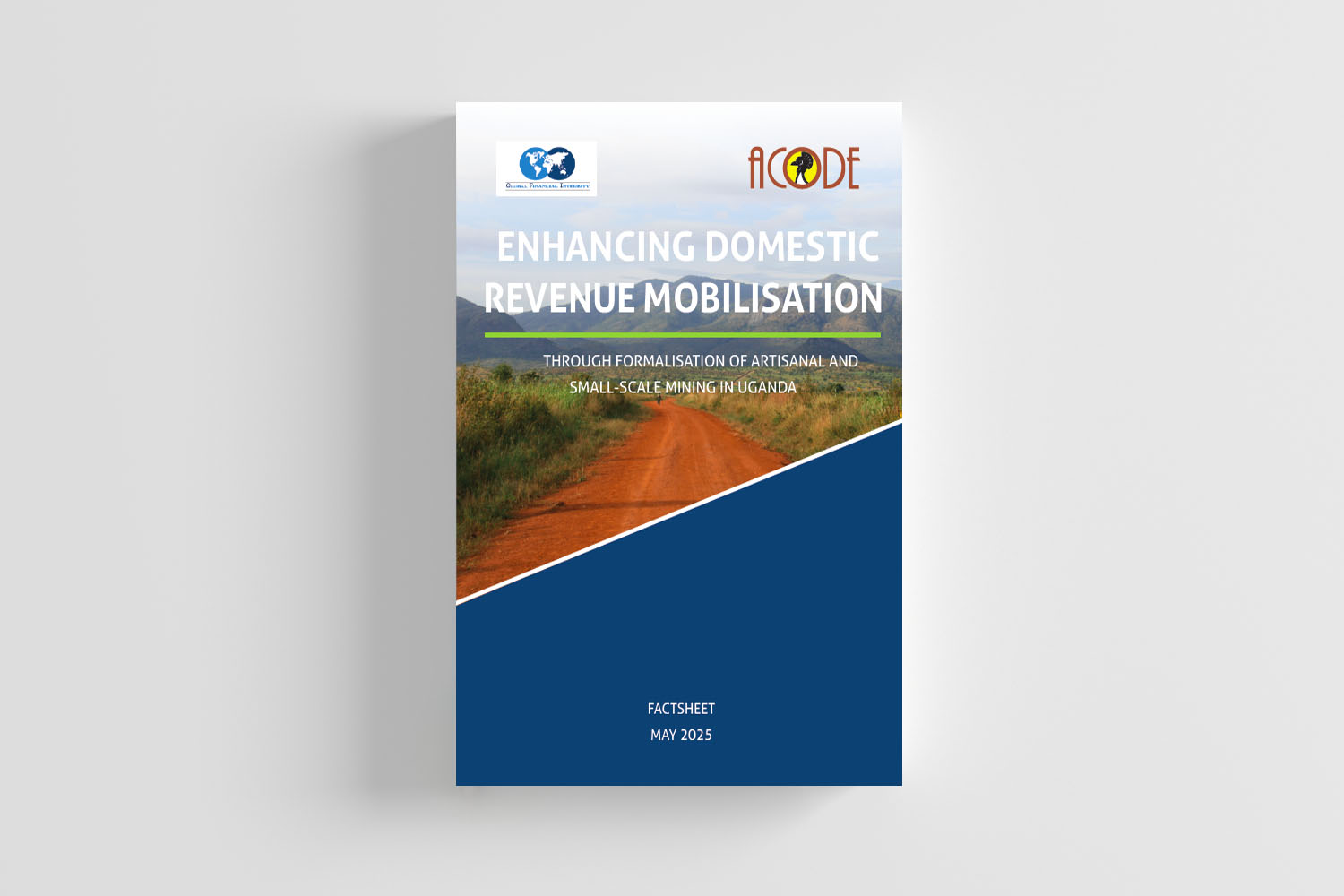
Enhancing Domestic Revenue Mobilisation Through Formalisation of Artisanal and Small-Scale Mining in Uganda
Author(s): Onesmus Mugyenyi, Phoebe Atukunda, Oscord Mark Otile, Paul Twebaze, and Peter Watua
Published: 2025
Uganda’s mining sector is heavily dependent on artisanal and smallscale mining (ASM), which is often conducted outside the legal, fiscal, and institutional regulatory frameworks. This lack of regulation complicates efforts to address the environmental, social, and economic challenges associated with ASM. Unlike large-scale mining operations, ASM relies on minimal capital investment and utilizes manual labour or light machinery. ASM accounts for over 90% of the country’s mineral production, involving valuable resources such as gold, tin, tungsten, tantalum, limestone, marble, and iron ore. The sector’s informality has resulted in its contributions to the economy largely unaccounted for, explaining its less than 1% contribution to GDP. Despite its significant role, ASM remains largely informal, leading to minimal government oversight and limited revenue collection. The Mining and Minerals Policy, 2018, and the Mining and Minerals Act, Cap. 159 aims to formalize, organize, and develop ASM through registration, licensing, and regulation.
View PDF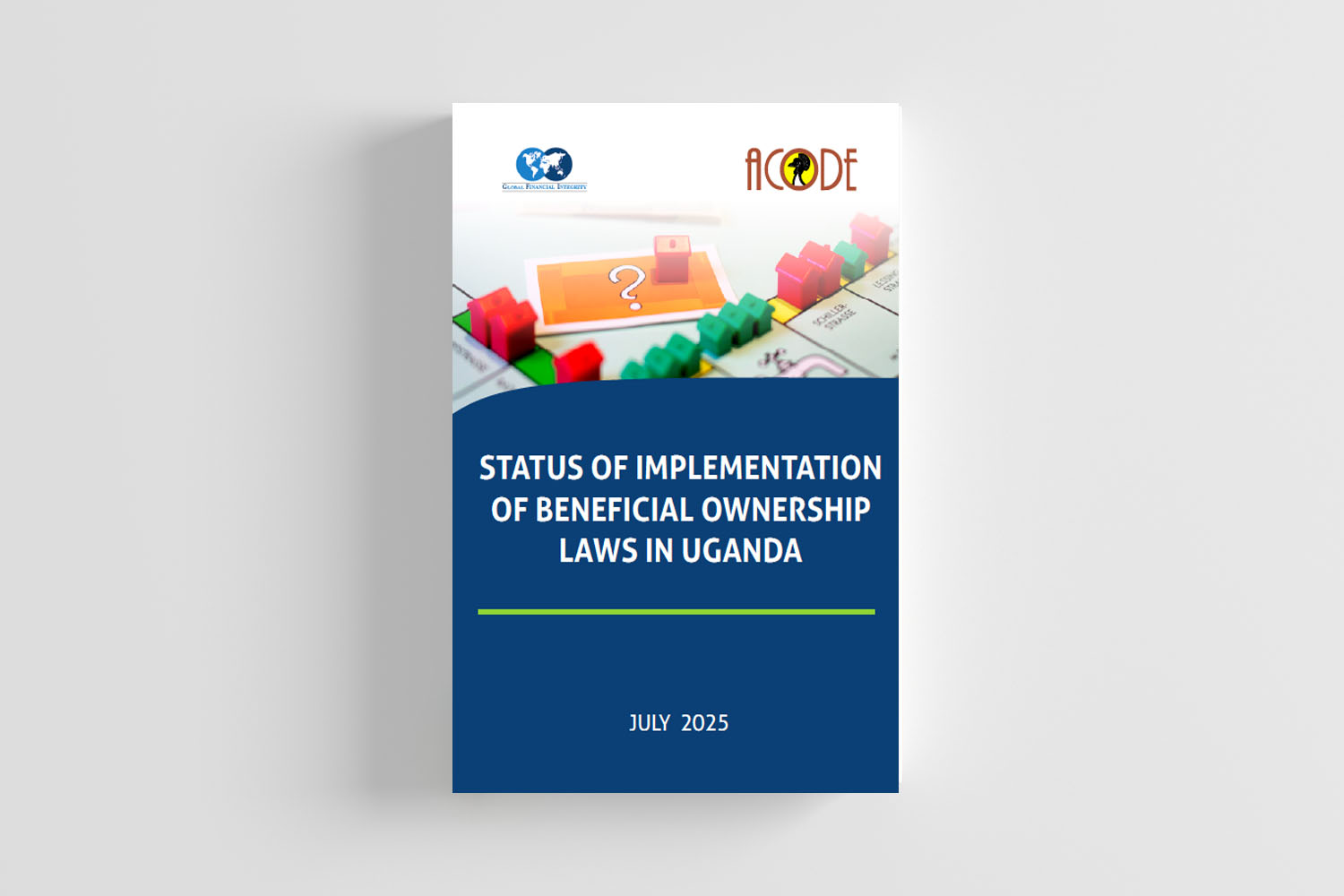
Status of implementation of Beneficial Ownership Laws in Uganda
Author(s): Onesmus Mugyenyi and Phoebe Atukunda
Published: 2025
Beneficial ownership transparency is an important tool in the global fight against financial crimes. In recent years, Uganda has made notable progress in implementing beneficial ownership (BO) laws to align with international requirements. The Ugandan legal framework has been strengthened through several amendments to existing relevant laws. Beneficial ownership transparency is important for Uganda to: promote compliance with international standards and commitments, enhance corporate transparency and accountability, prevent the misuse of legal entities for illicit purposes, and support efforts to combat money laundering, terrorist financing, tax evasion, and corruption. This factsheet summarizes the current landscape and status of BO implementation in Uganda, highlights the key laws, the progress made in establishing disclosure mechanisms, and the remaining hurdles in ensuring effective implementation.
View PDF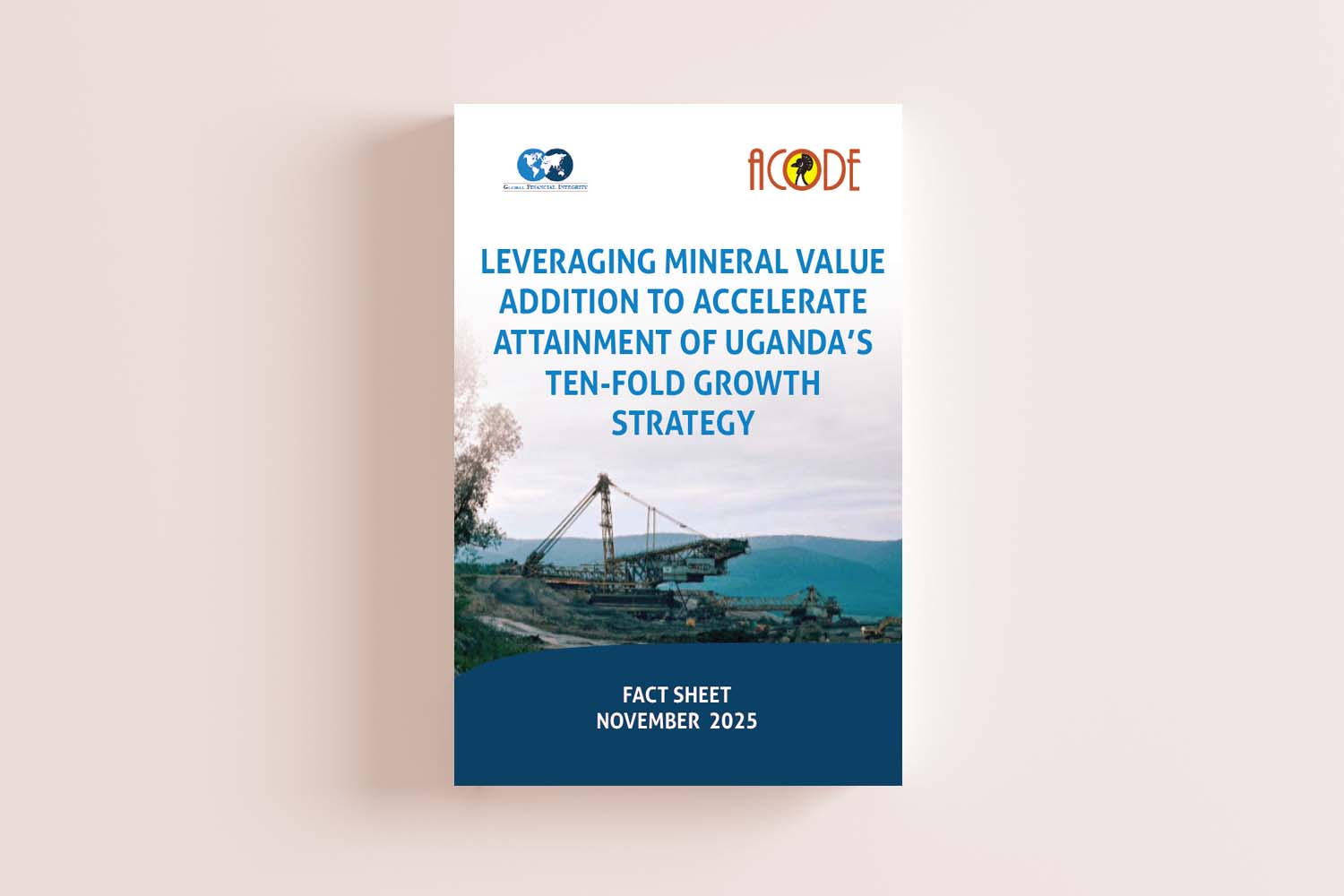
Leveraging Mineral Value Addition To Accelerate Attainment Of Uganda’s Ten-Fold Growth Strategy
Author(s): Onesmus Mugyenyi, Phoebe Atukunda, and Paul Twebaze
Published: 2025
Mineral value addition refers to the process of enhancing raw minerals by transforming them into intermediate or final products with higher market value. This process involves key stages such as beneficiation, processing, refining, and manufacturing. By adding value to minerals, countries can increase revenue, generate employment, and promote technological advancement. The implementation of mineral value addition requires the active involvement of the private sector, public institutions, partnerships between public and private entities, mining stakeholders, and research institutions, all working collaboratively to achieve targeted economic and development goals.
View PDF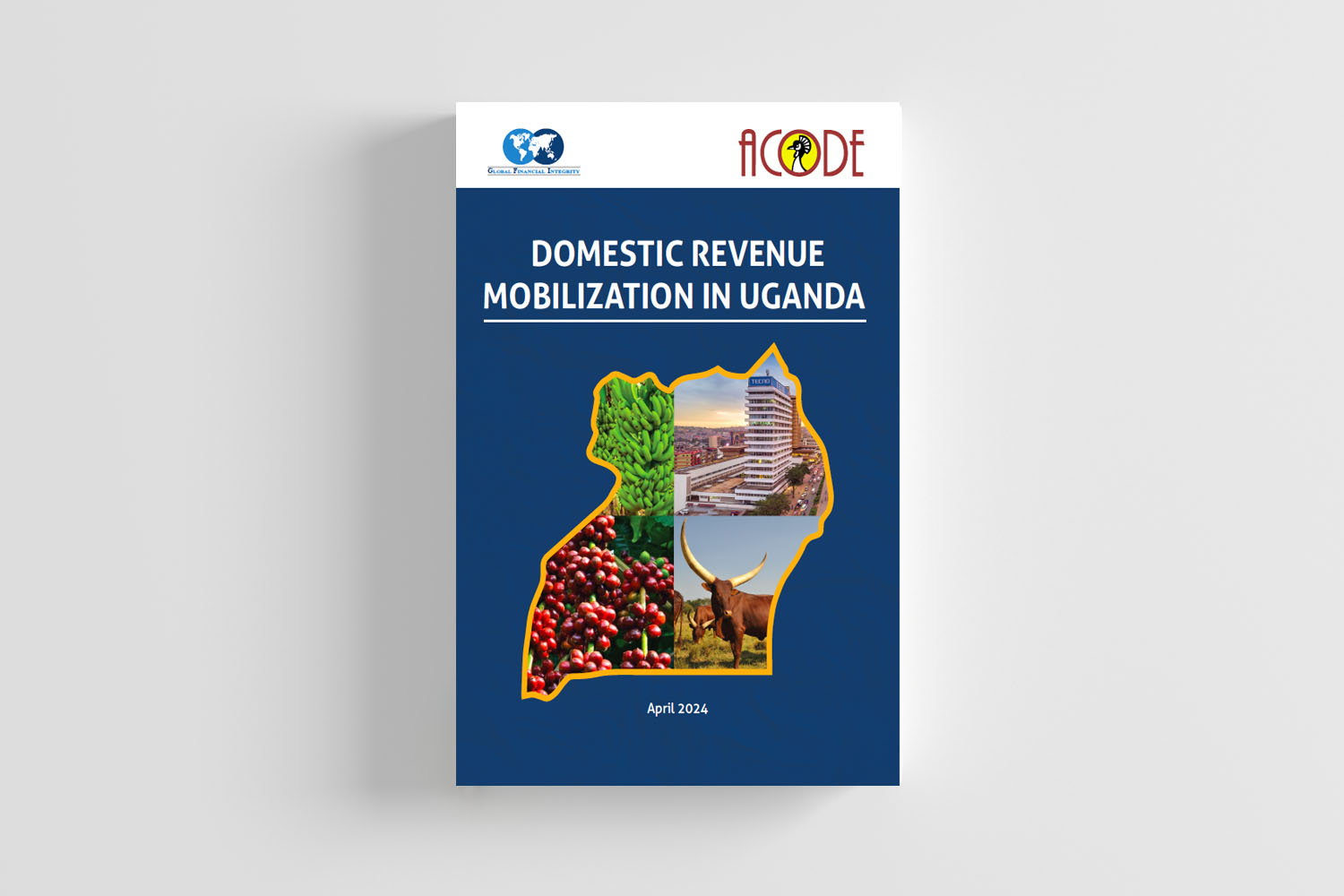
Domestic Revenue Mobilisation in Uganda
Author(s): Onesmus Mugyenyi and Phoebe Atukunda
Published: 2024
The factheet on Domestic revenue mobilization (DRM) describes the method by which a nation locally raises financial resources to meet its demands for public service delivery and development. DRM has emerged as a central focus of the agenda for sustainable development. It comprises both tax and non-tax revenue. Mobilizing domestic revenue is essential for each country’s poverty reduction strategies, long-term economic growth, and financing of vital socio-economic programs.
View PDF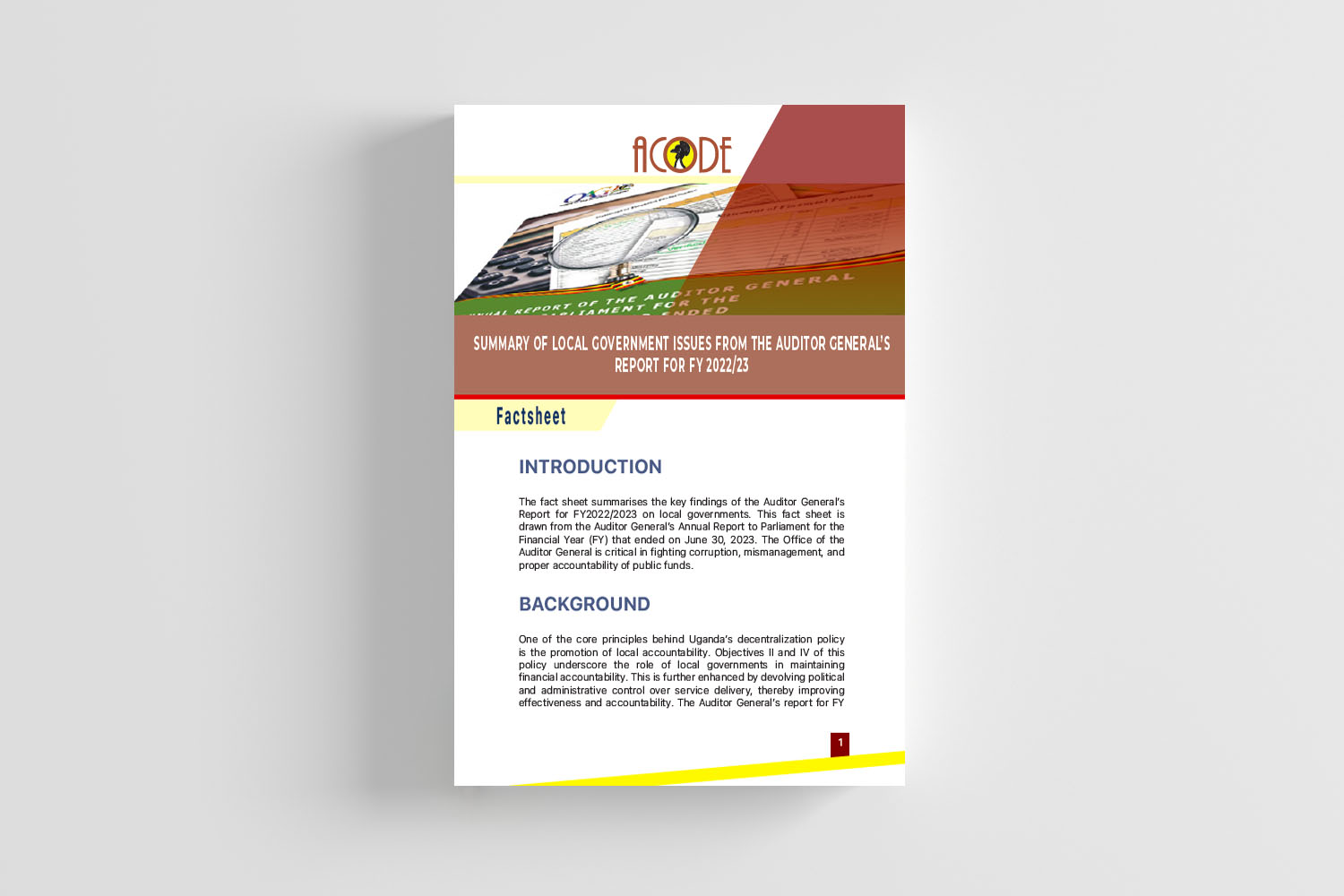
Summary of Local Government Issues from the Auditor General's Report for FY2022/23
Author(s): ACODE
Published: 2024
The factsheet summarises the key findings of the Auditor General’s Report for FY2022/2023 on local governments. This factsheet is drawn from the Auditor General’s Annual Report to Parliament for the Financial Year that ended on June 30, 2023. The Office of the Auditor General is critical in fighting corruption, mismanagement, and proper accountability of public funds.
View PDF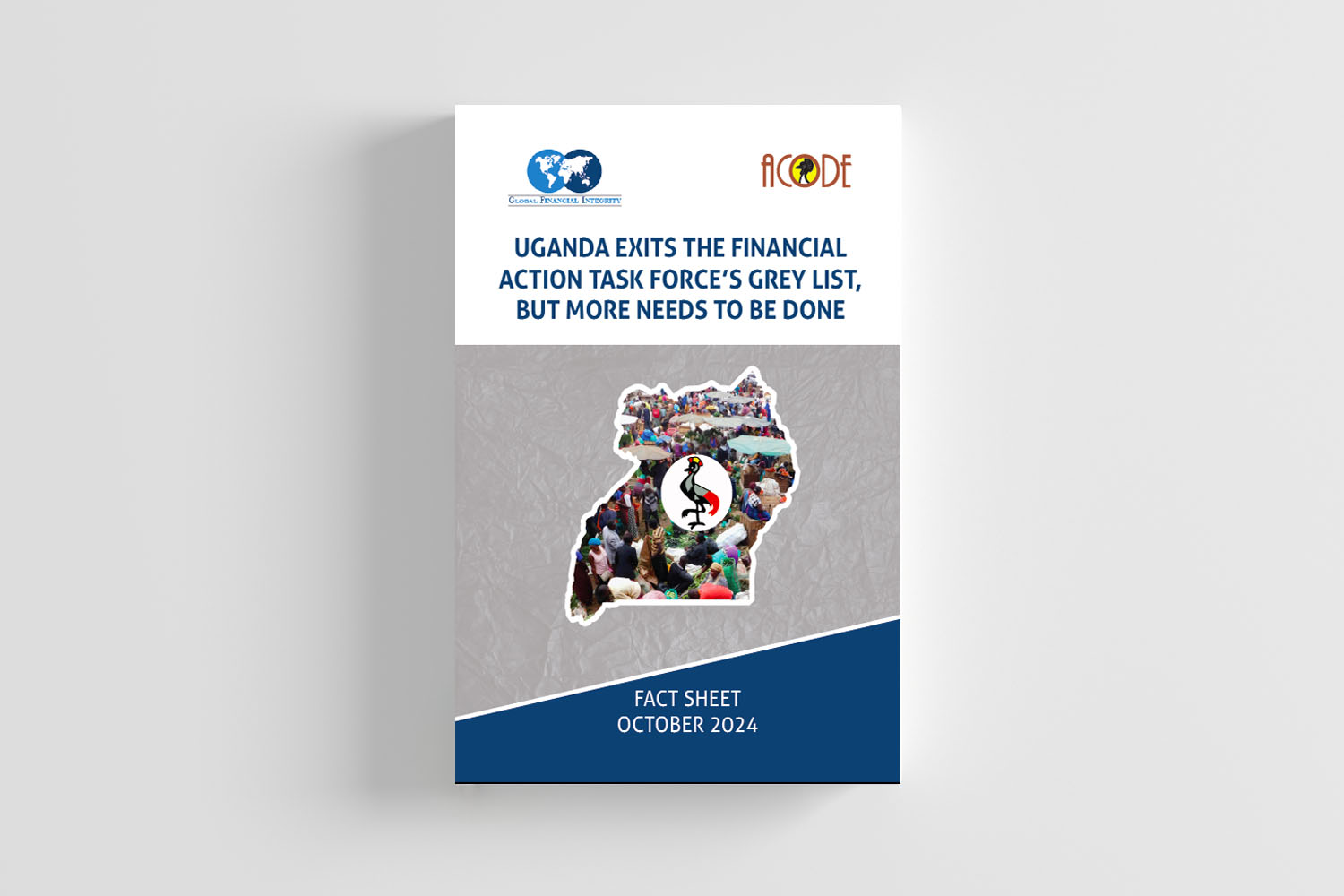
Uganda Exits The Financial Action Task Force’s Grey List, But More Needs To Be Done
Author(s): Onesmus Mugyenyi, Phoebe Atukunda, and Peter Watua
Published: 2024
In February 2024, the Financial Action Task Force (FATF) removed Uganda from its list of countries with deficiencies in anti-money laundering (AML) and counter-terrorist financing (CFT) systems usually referred to as “the grey list.” The FATF grey list identifies countries that need to improve their AML/CFT systems. Being on the grey list has potential economic repercussions. Therefore, the FATF publishes a grey list to help member countries reflect and manage risks associated with these countries and to rekindle their commitment to addressing the identified weaknesses. This fact sheet unpacks the FATF Standards/Recommendations. It also explains the implications of being placed on the FATF grey list. In addition, it identifies challenges and makes recommendations for Uganda to prevent being re-listed ahead of its next round of assessment in 2028.
View PDF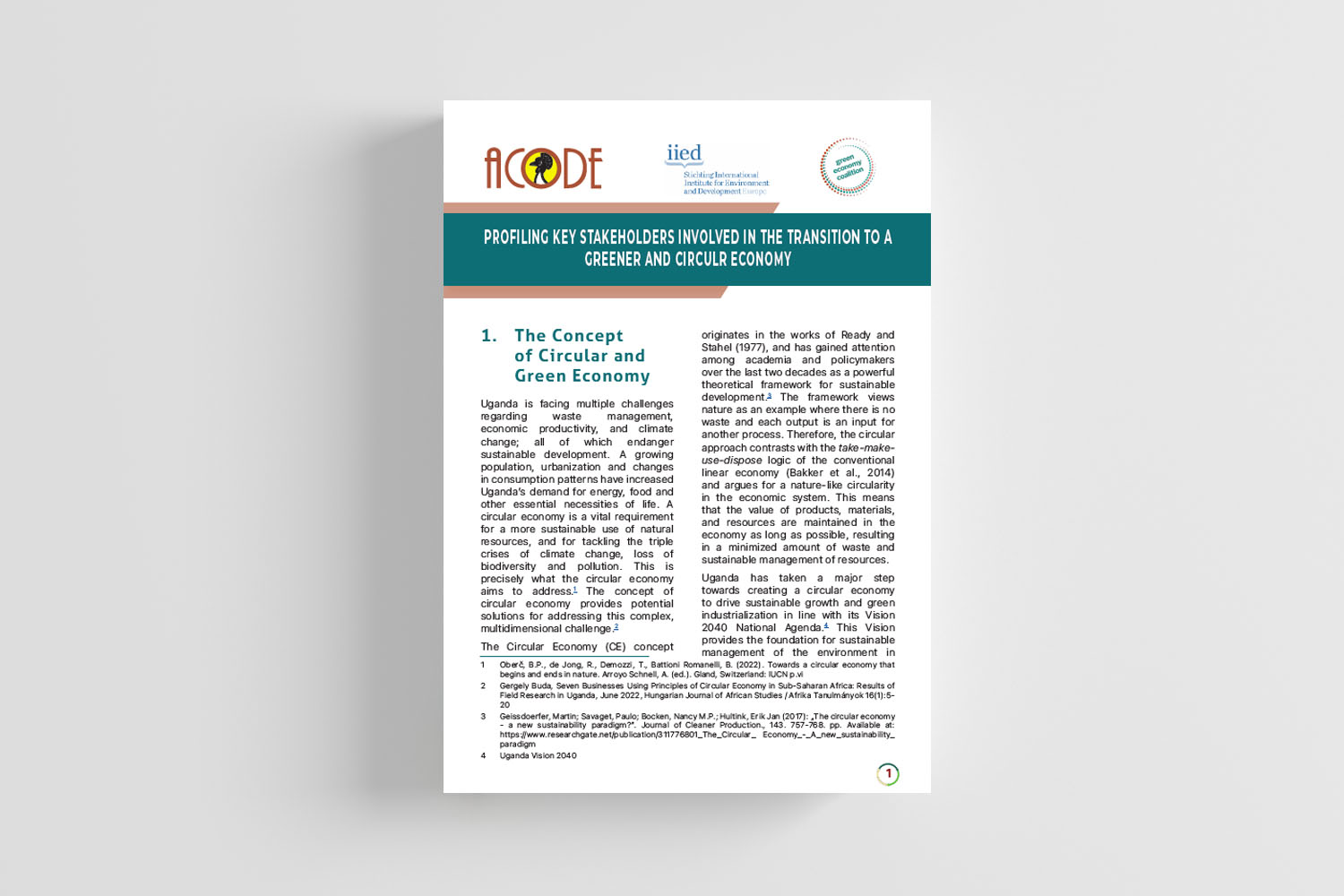
Profiling Key Stakeholders Involved in the Transition to a Greener and Circular Economy
Author(s): ACODE
Published: 2024
Uganda is facing multiple challenges regarding waste management, economic productivity, and climate change; all of which endanger sustainable development. A growing population, urbanization, and changes in consumption patterns have increased Uganda’s demand for energy, food and other necessities of life. A circular economy is a vital requirement for a more sustainable use of natural resources, and for tackling the triple crises of climate change, loss of biodiversity and pollution. This is precisely what the circular economy aims to address. The concept of the circular economy provides potential solutions for addressing this complex, multidimensional challenge.
View PDF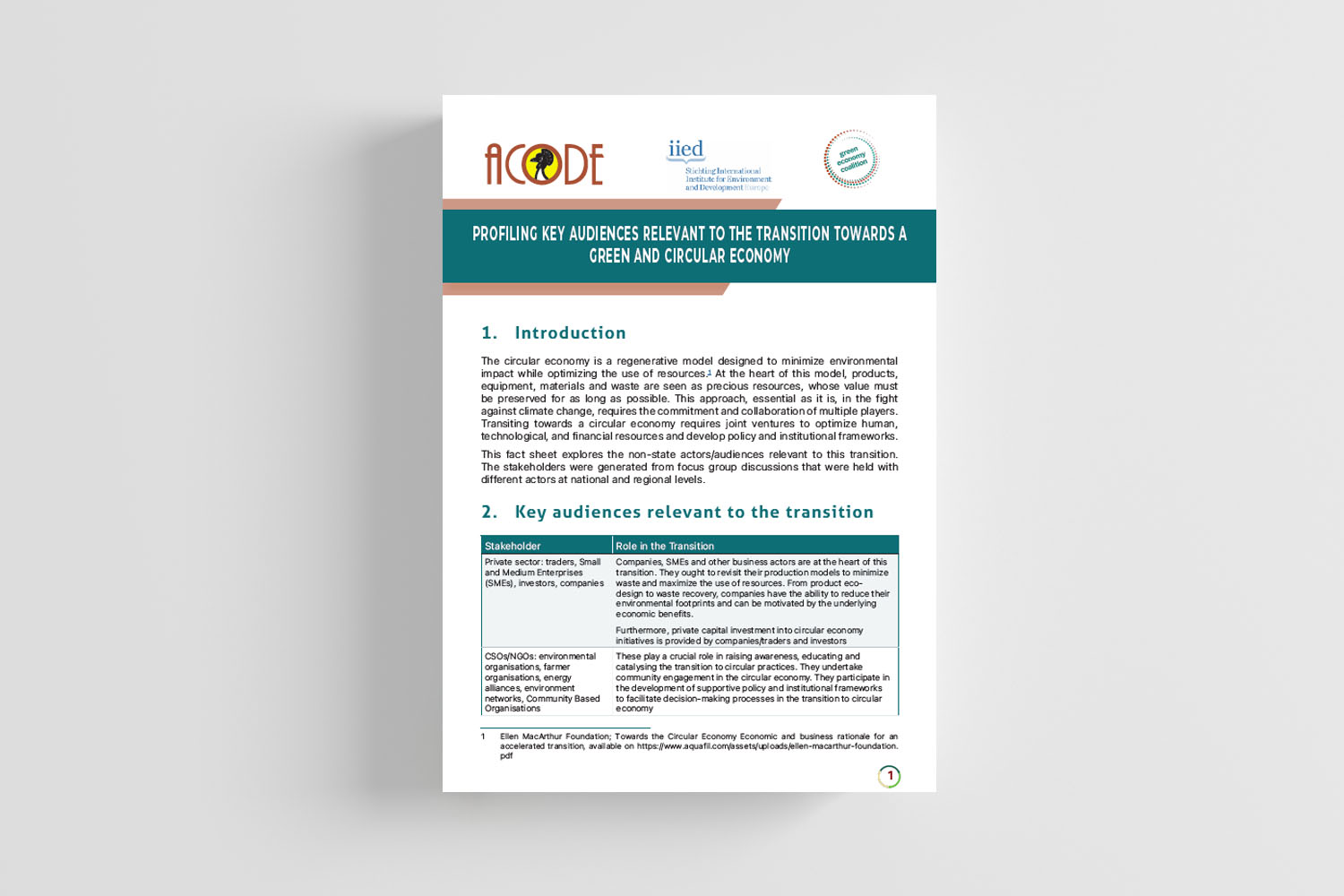
Profiling Key Audiences Relevant to the Transition Towards a Green and Circular Economy
Author(s): ACODE
Published: 2024
The circular economy is a regenerative model designed to minimize environmental impact while optimizing the use of resources. At the heart of this model, products, equipment, materials, and waste are seen as precious resources, whose value must be preserved for as long as possible. This approach, essential as it is, in the fight against climate change, requires the commitment and collaboration of multiple players. Transiting towards a circular economy requires joint ventures to optimize human, technological, and financial resources and develop policy and institutional frameworks. This fact sheet explores the non-state actors/audiences relevant to this transition. The stakeholders were generated from focus group discussions that were held with different actors at national and regional levels.
View PDF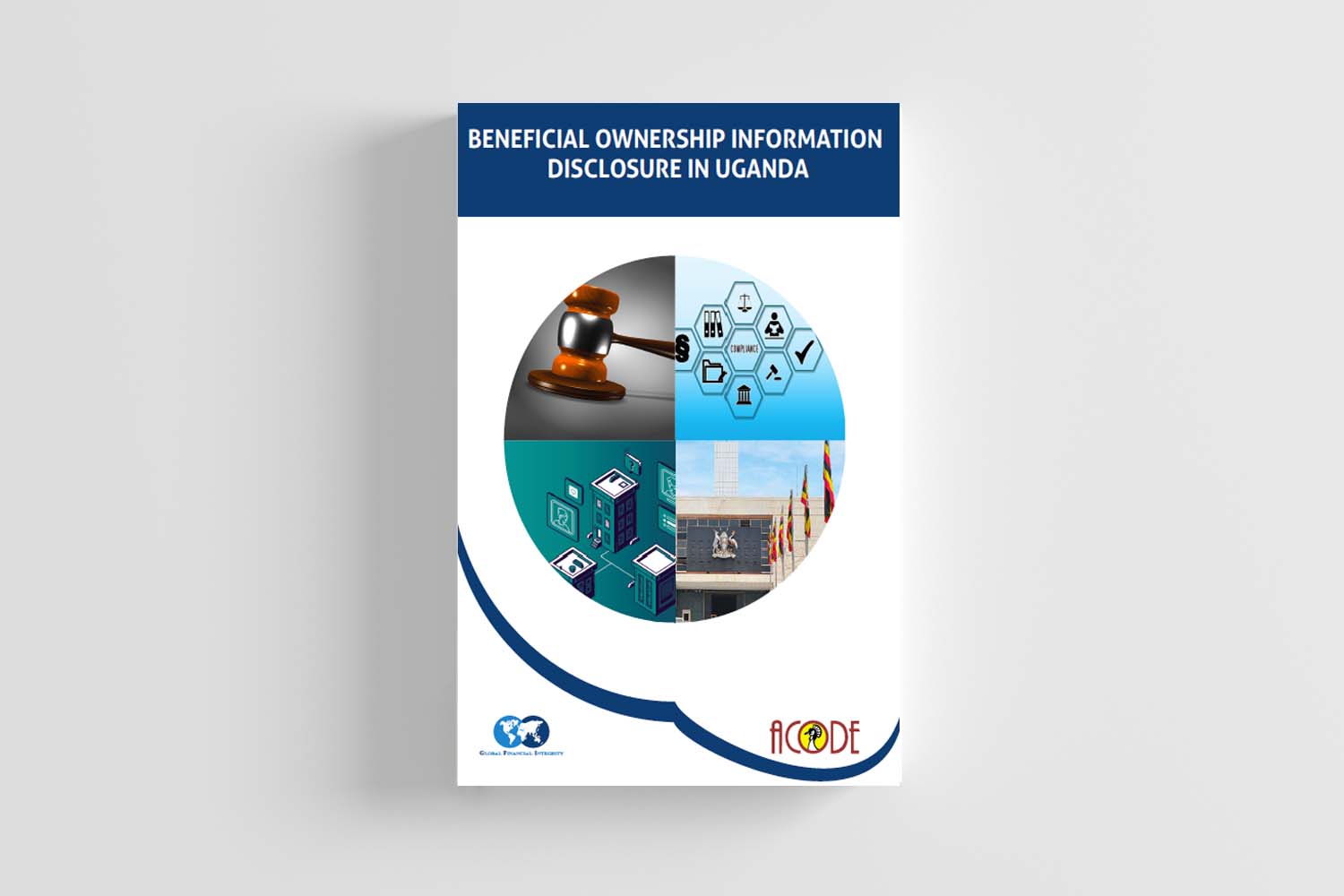
Beneficial Ownership Information Disclosure in Uganda
Author(s): Onesmus Mugyenyi and Phoebe Atukunda
Published: 2023
This fact sheet provides information relating to beneficial ownership disclosures in Uganda and the importance of such disclosures in the fight against illicit financial flows and related crimes in Uganda.
View PDF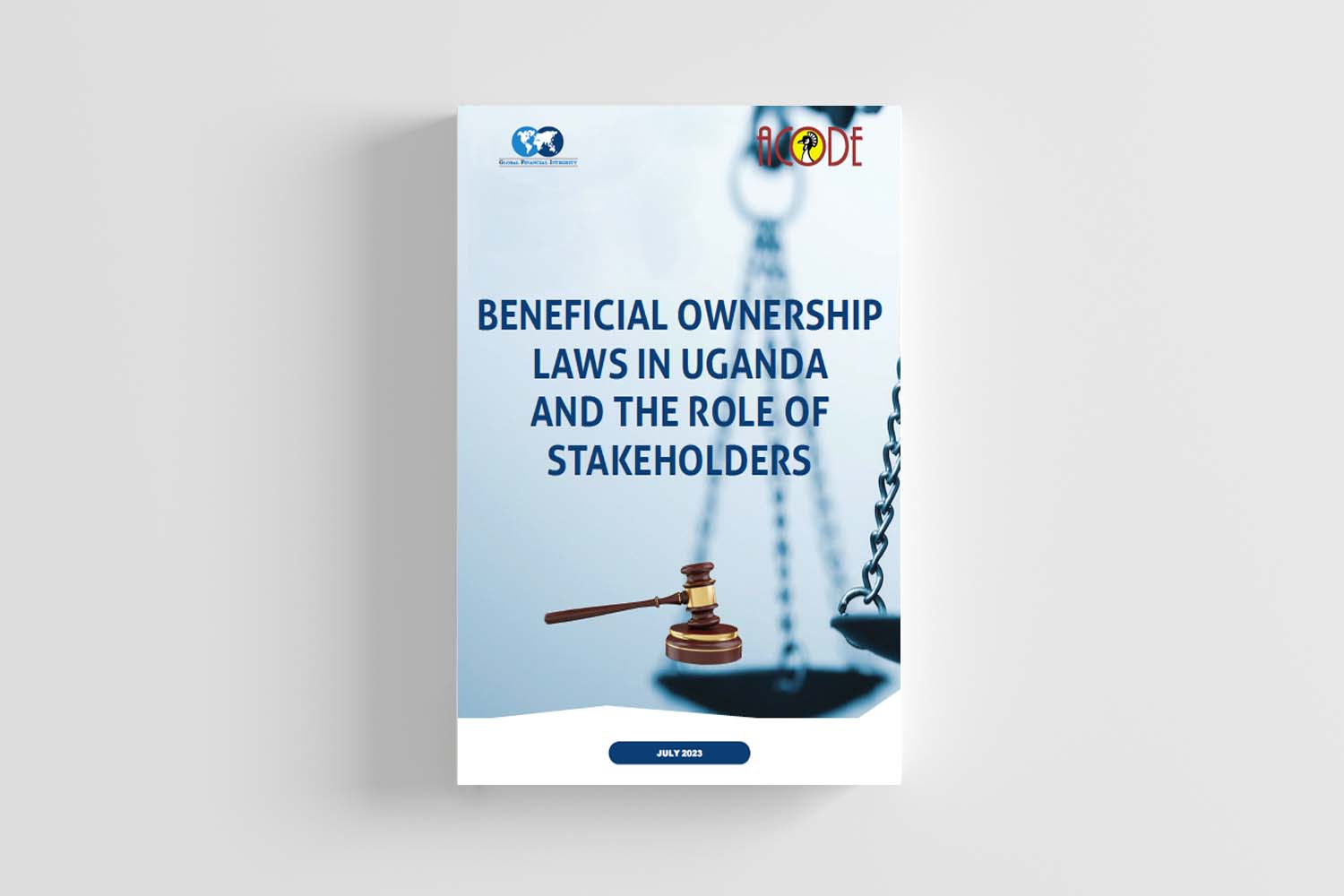
Beneficial Ownership Laws in Uganda and the Role of Stakeholders
Author(s): Onesmus Mugyenyi and Phoebe Atukunda
Published: 2023
This fact sheet provides information on the legal and institutional framework governing beneficial ownership in Uganda and the role of different government agencies in the fight against illicit financial flows and related crimes in Uganda.
View PDF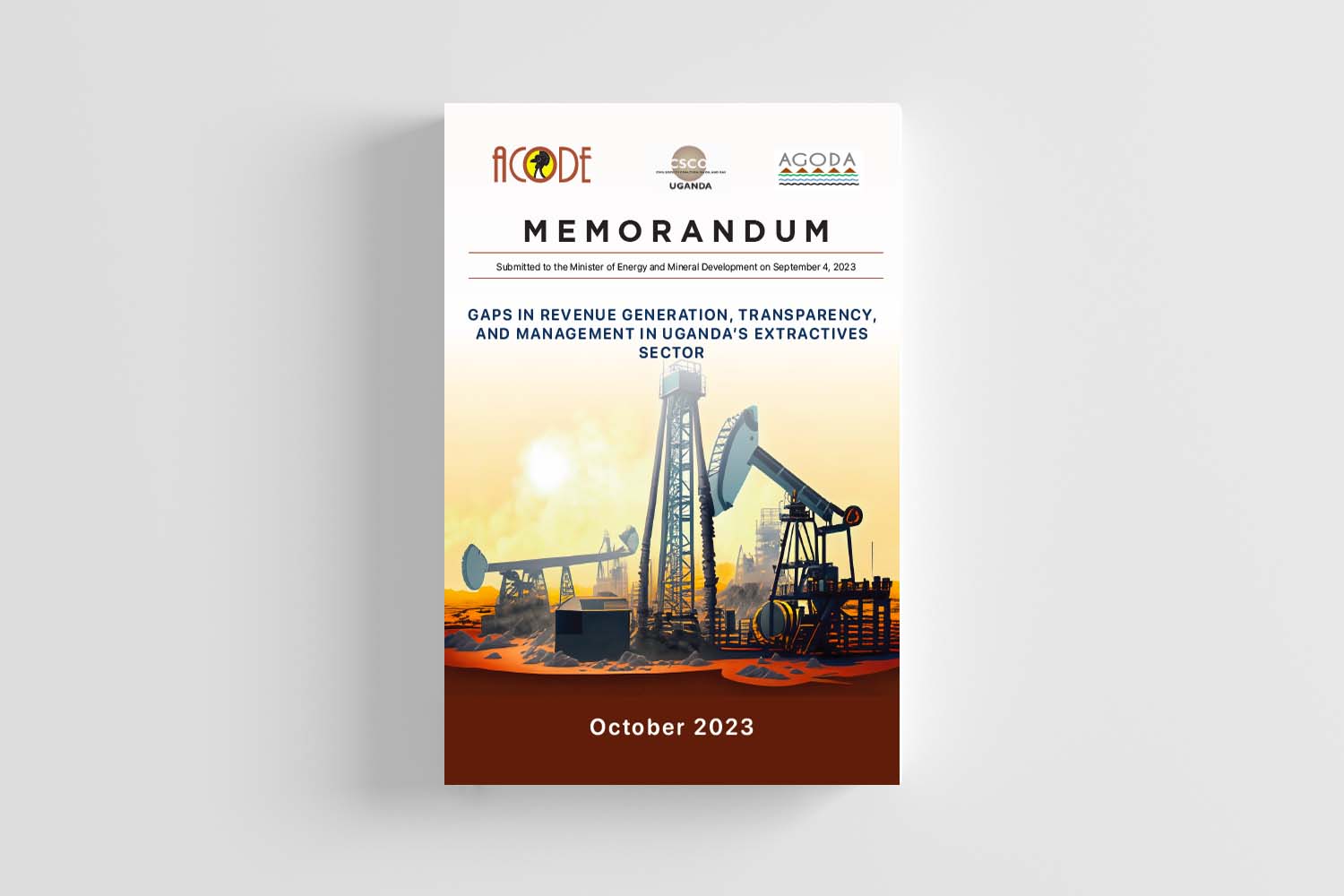
Gaps in Revenue Generation, Transparency, and Management in Uganda’s Extractives Sector
Author(s): ACODE, CSCO, and AGODA
Published: 2023
This memorandum is presented to the Honorable Minister of Energy and Mineral Development (MEMD) by the Advocates Coalition for Development and Environment (ACODE), the Civil Society Coalition on Oil and Gas (CSCO), and the Albertine Graben Oil & Gas Districts Association (AGODA). The memorandum seeks to highlight the gaps in revenue generation, allocation, and management and contribute to the requisite policy and legal reforms within the extractives sector. This is primarily aimed at improving transparency, accountability, management, and equitable sharing of extractive revenue between the national and sub-national governments. ACODE, CSCO, and AGODA identified a number of gaps that undermine transparency, equity, and accountability in extractive revenue mobilization. These gaps and recommendations have been enumerated in this memorandum.
View PDF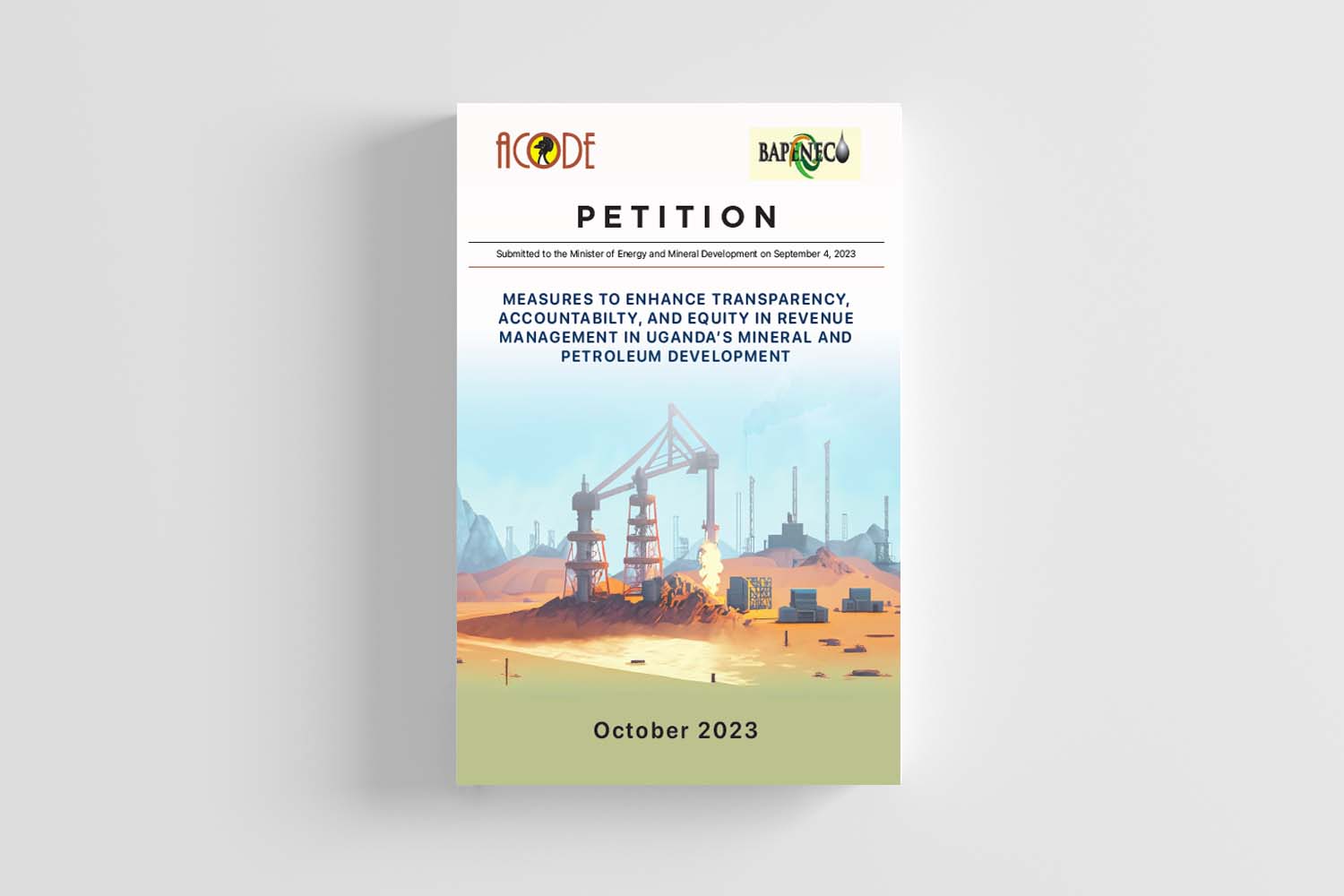
Measures to Enhance Transparency, Accountability, and Equity in Revenue Management in Uganda’s Mineral and Petroleum Development
Author(s): ACODE and BAPENECO
Published: 2023
This petition was presented to the Honorable Minister of Energy and Mineral Development (MEMD) by the Advocates Coalition for Development and Environment (ACODE) and members of Bunyoro Albertine Petroleum Network on Environmental Conservation (BAPENECO). The petitioners salute the Government of Uganda for its commendable work in the extractives sector. In the petroleum sub-sector, the petitioners commend the Government of Uganda for developing a robust policy and legal framework for the exploration and production of petroleum resources. In the mining sub-sector, the petitioners equally commend the Government of Uganda and the Minister’s efforts exerted in the enactment of the maiden Mining and Minerals Act 2022. The petitioners also wish to further commend the government of Uganda for subscribing to and starting on the implementation of the Extractive Industries Transparency Initiative (EITI) which is a very important process for enhancing transparency and accountability in the extractives sector. Notwithstanding the above achievements, the petitioners draw the attention of the Minister to emerging issues within the mining and petroleum sub-sectors that require action. These issues are majorly centered on delays in the operationalization of some provisions of the law to provide clarity. Whereas the Minister reserves the duty of making regulations for the effective implementation of the policy and legal framework in the extractives sector, the petitioners highlight key issues that require urgent solutions.
View PDF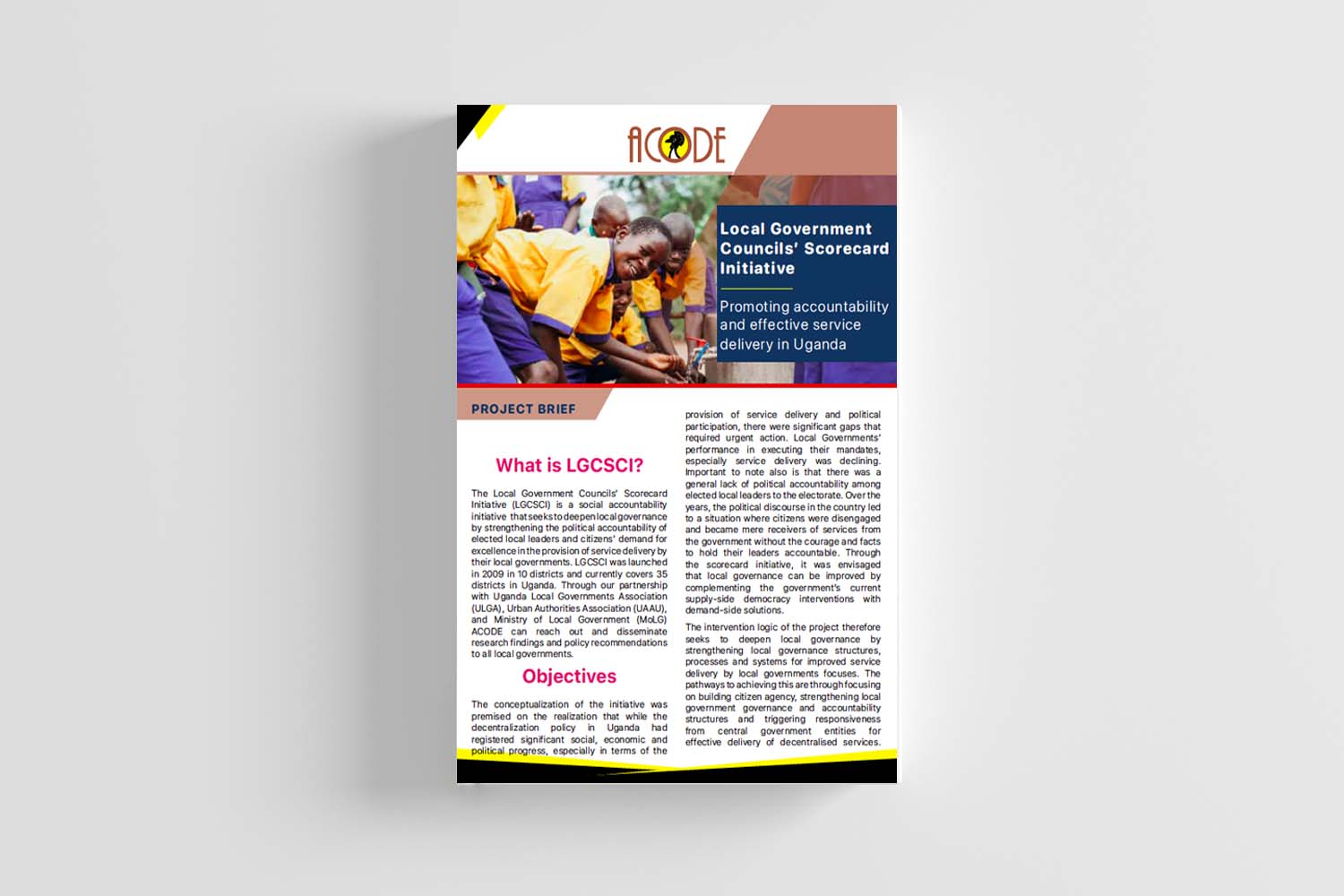
Local Government Councils Scorecard Initiative: Promoting accountability and effective service delivery in Uganda
Author(s): ACODE
Published: 2023
The Local Government Councils’ Scorecard Initiative or LGCSCI is a social accountability initiative that seeks to deepen local governance by strengthening the political accountability of elected local leaders and citizens’ demand for excellence in the provision of service delivery by their local governments. LGCSCI was launched in 2009 in 10 districts and currently covers 35 districts in Uganda. Through our partnership with the Uganda Local Governments Association; Urban Authorities Association; and the Ministry of Local Government, ACODE can reach out and disseminate research findings and policy recommendations to all local governments.
View PDF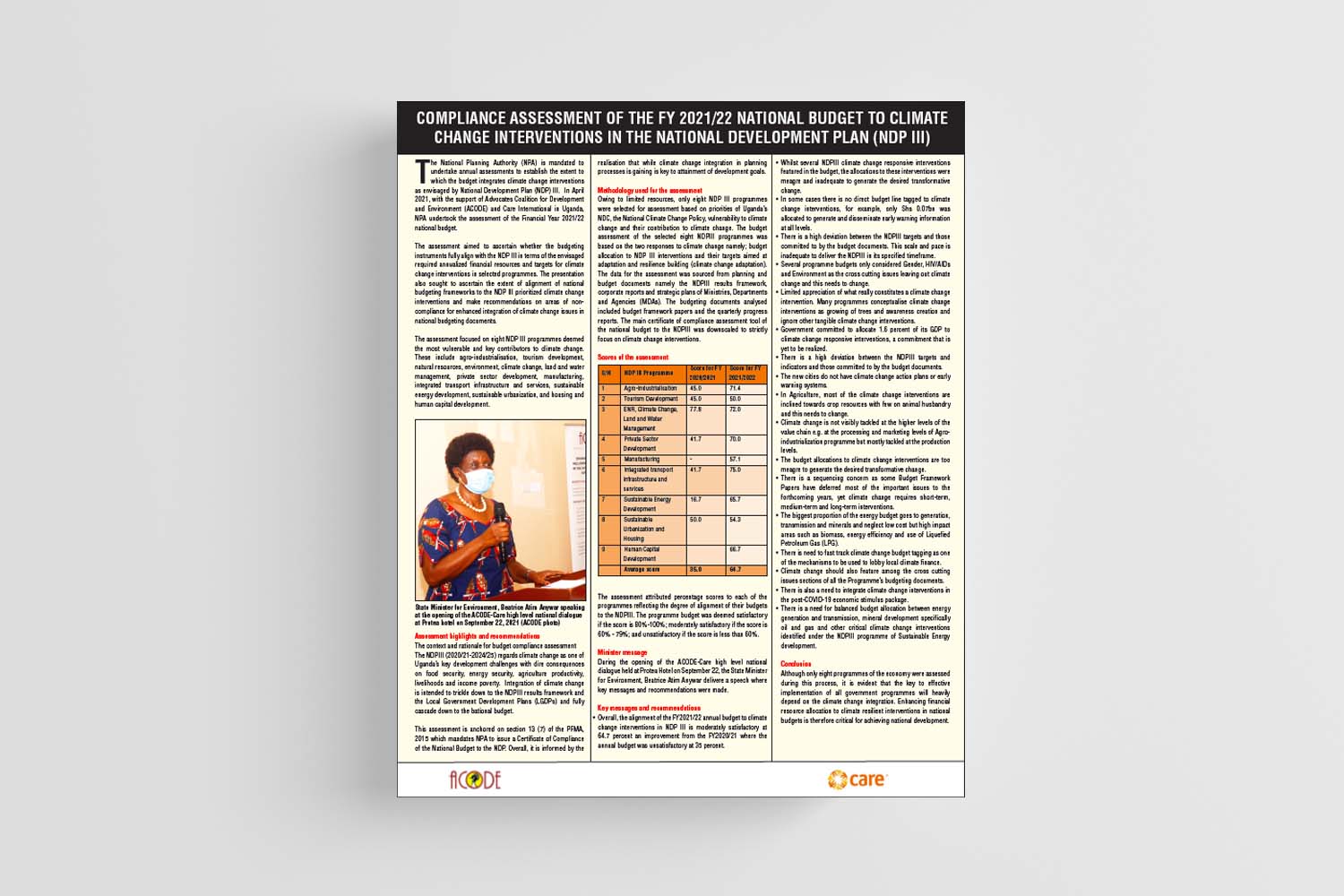
COMPLIANCE ASSESSMENT OF THE FY 2021/22 NATIONAL BUDGET TO CLIMATE CHANGE INTERVENTIONS IN THE NATIONAL DEVELOPMENT PLAN (NDP III)
Author(s): ACODE and CARE International
Published: 2021
The assessment aimed to ascertain whether the budgeting instruments fully align with the NDP III in terms of the envisaged required annualized financial resources and targets for climate change interventions in selected programmes. The presentation also sought to ascertain the extent of alignment of national budgeting frameworks to the NDP III prioritized climate change interventions and make recommendations on areas of non- compliance for enhanced integration of climate change issues in national budgeting documents.
View PDF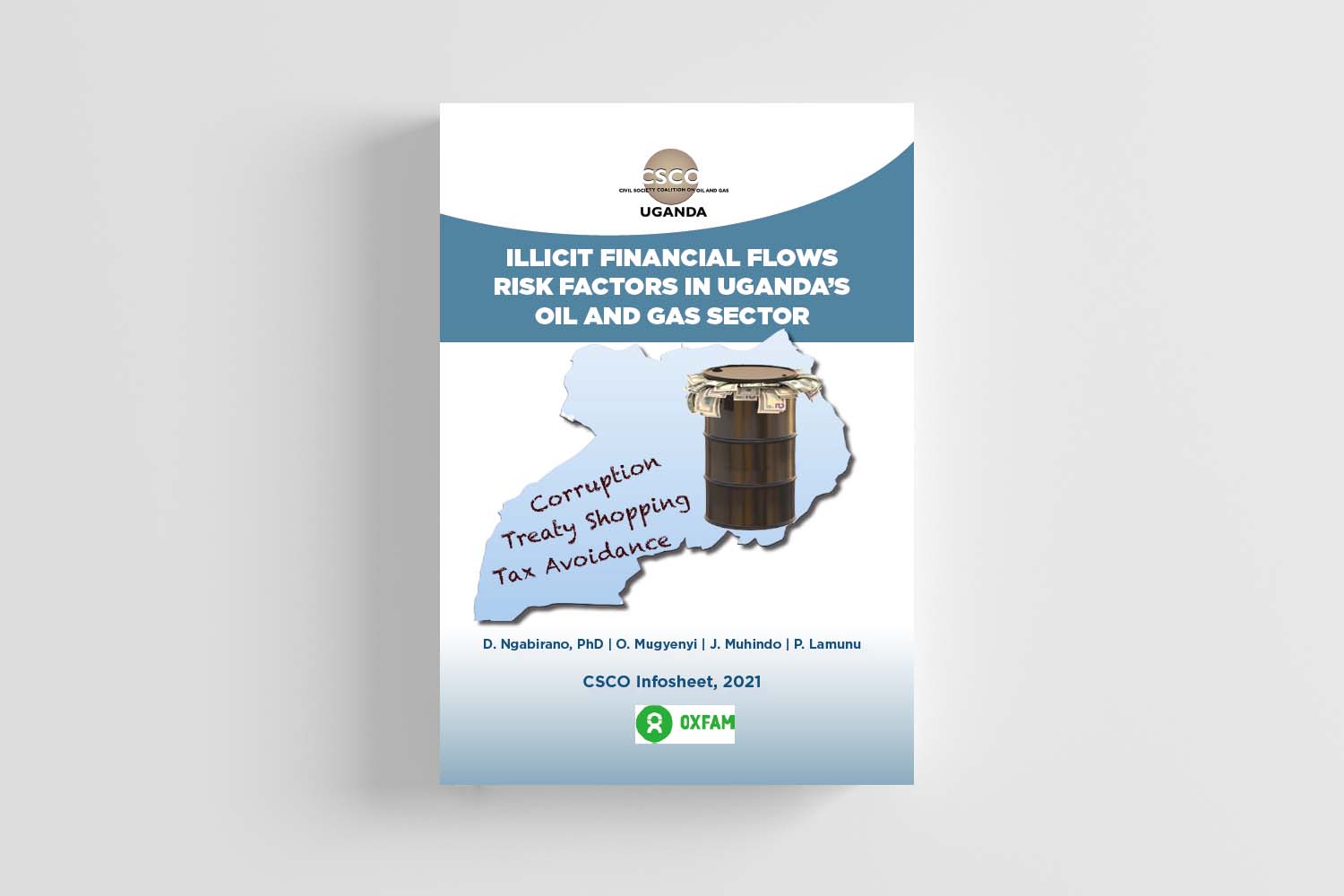
Illicit Financial Flows Risk Factors in Uganda’s Oil and Gas Sector
Author(s): Dan Ngabirano, Onesmus Mugyenyi, James Muhindo, and Petronella Lamunu
Published: 2021
Illicit Financial Flows (IFFs) are becoming a real challenge to resource mobilisation for financing development in Uganda and Africa at large. IFFs refers to movement of money and value from one country to another that is illegitimately earned, transferred, and/or utilised (Global Financial Integrity, 2018). Africa is estimated to be losing USD 50bn in illicit financial flows every year (Economic Commission for Africa, 2015). Uganda alone is estimated to be losing UGX2trillion per year and it is feared that the situation could get worse with the commencement of commercial oil production.
View PDF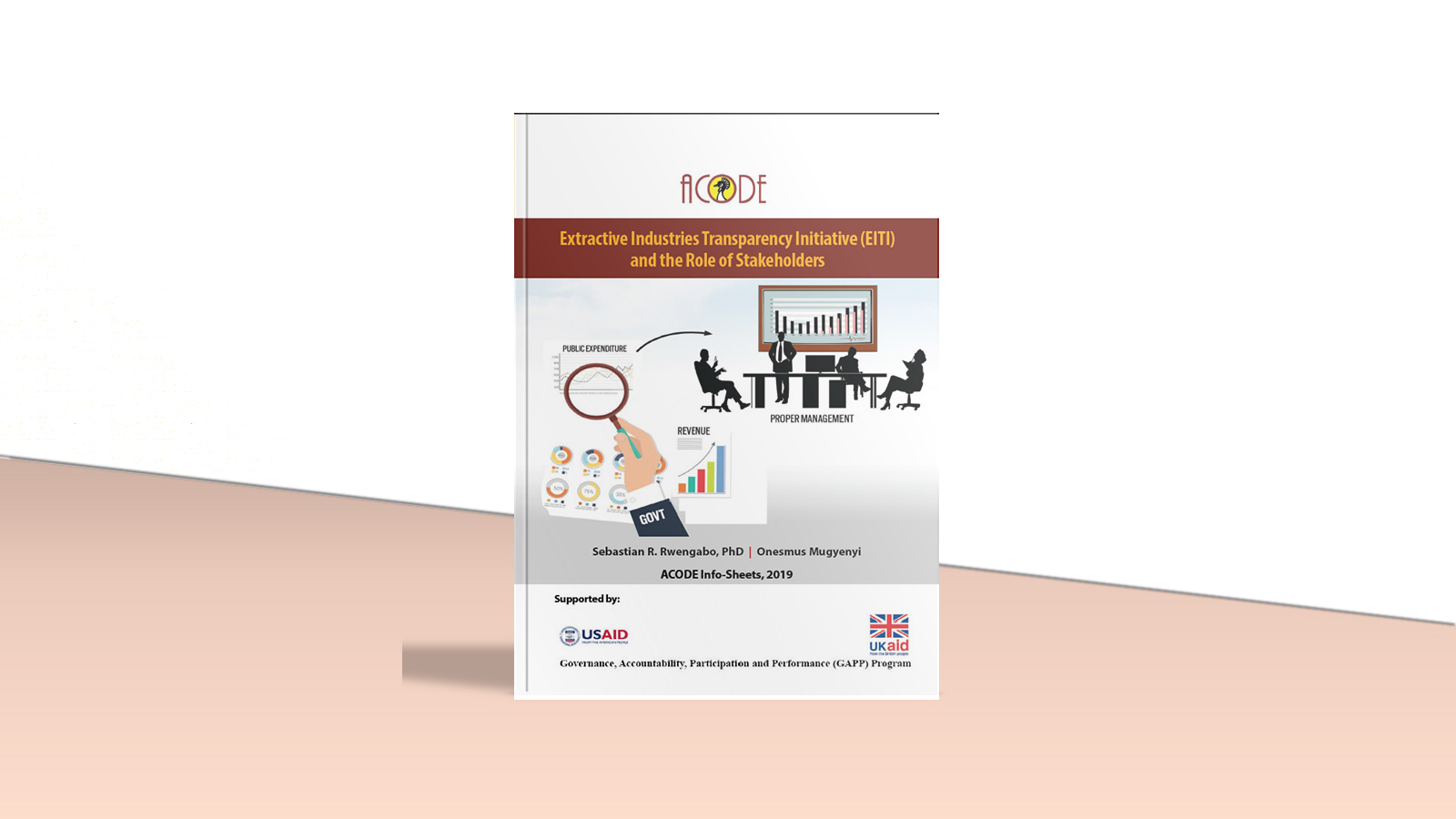
Extractive Industries Transparency Initiative (EITI) and the Role of Stakeholders
Author(s): Sebastian Rwengabo and Onesmus Mugyenyi
Published: 2019
The fact sheet provides a brief description of the Extractive Industries Transparency Initiative (EITI) and the role of different stakeholders.
View PDF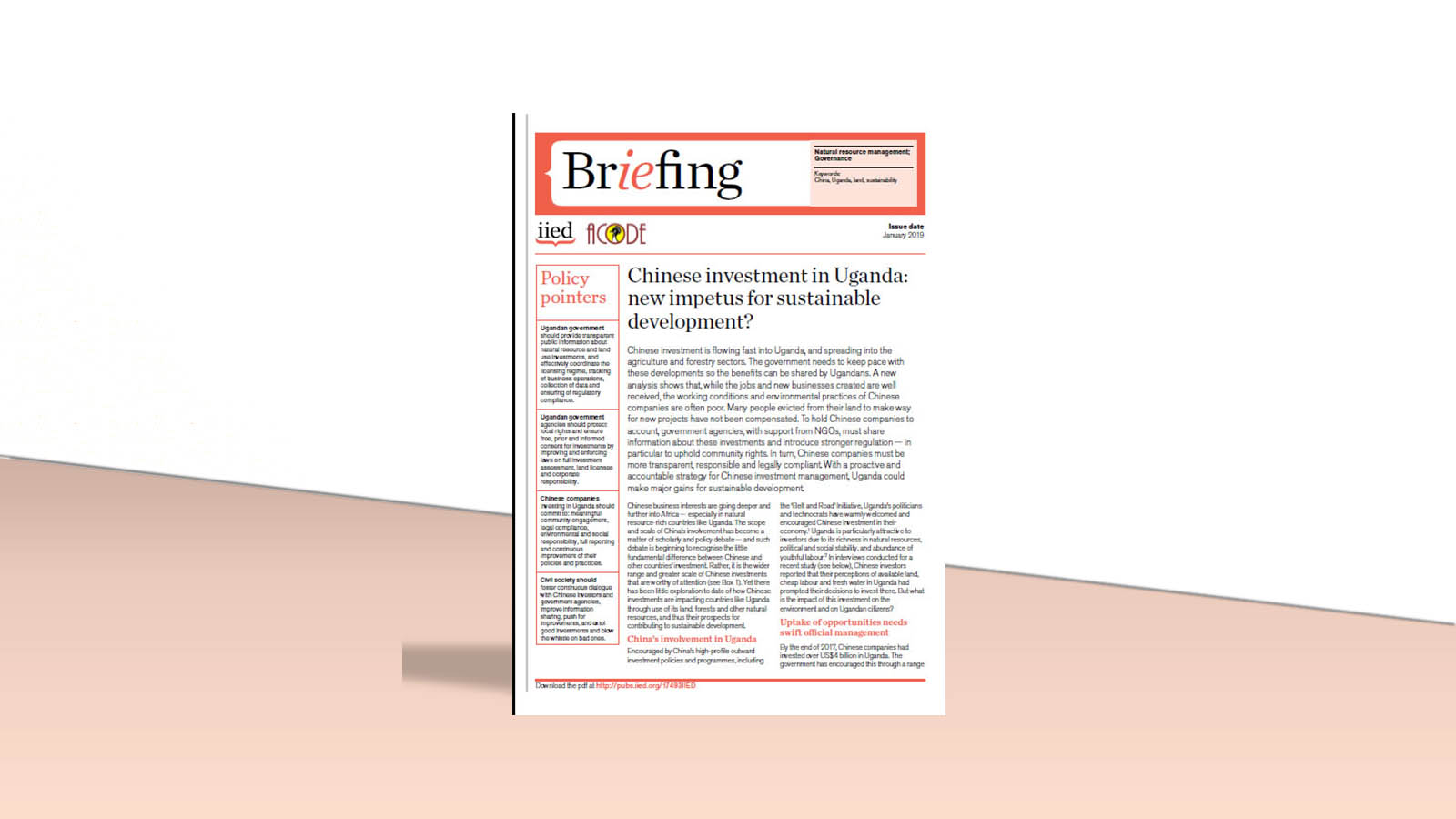
Chinese investment in Uganda: new impetus for sustainable development?
Author(s): ACODE and IIED
Published: 2019
Chinese investment is flowing fast into Uganda, and spreading into the agriculture and forestry sectors. The government needs to keep pace with these developments so the benefits can be shared by Ugandans. A new analysis shows that, while the jobs and new businesses created are well received, the working conditions and environmental practices of Chinese companies are often poor. Many people evicted from their land to make way for new projects have not been compensated. To hold Chinese companies to account, government agencies, with support from NGOs, must share information about these investments and introduce stronger regulation — in particular to uphold community rights. In turn, Chinese companies must be more transparent, responsible and legally compliant. With a proactive and accountable strategy for Chinese investment management, Uganda could make major gains for sustainable development.
View PDF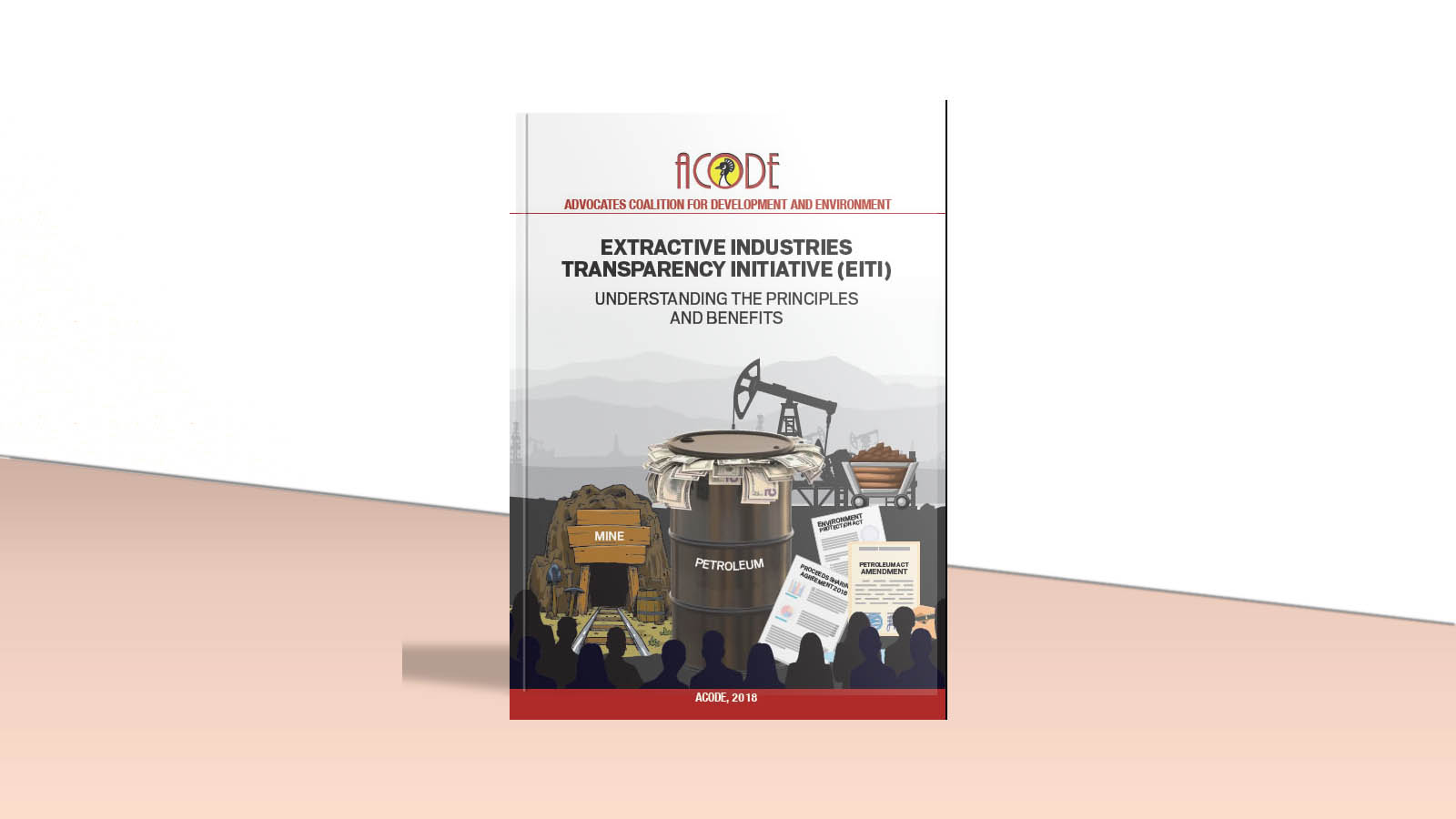
Extractive Industries Transparency Initiative (EITI): Understanding the Principles and Benefits
Author(s): ACODE
Published: 2018
The fact sheet provides a brief description of the Extractive Industries Transparency Initiative (EITI) and its principles.
View PDF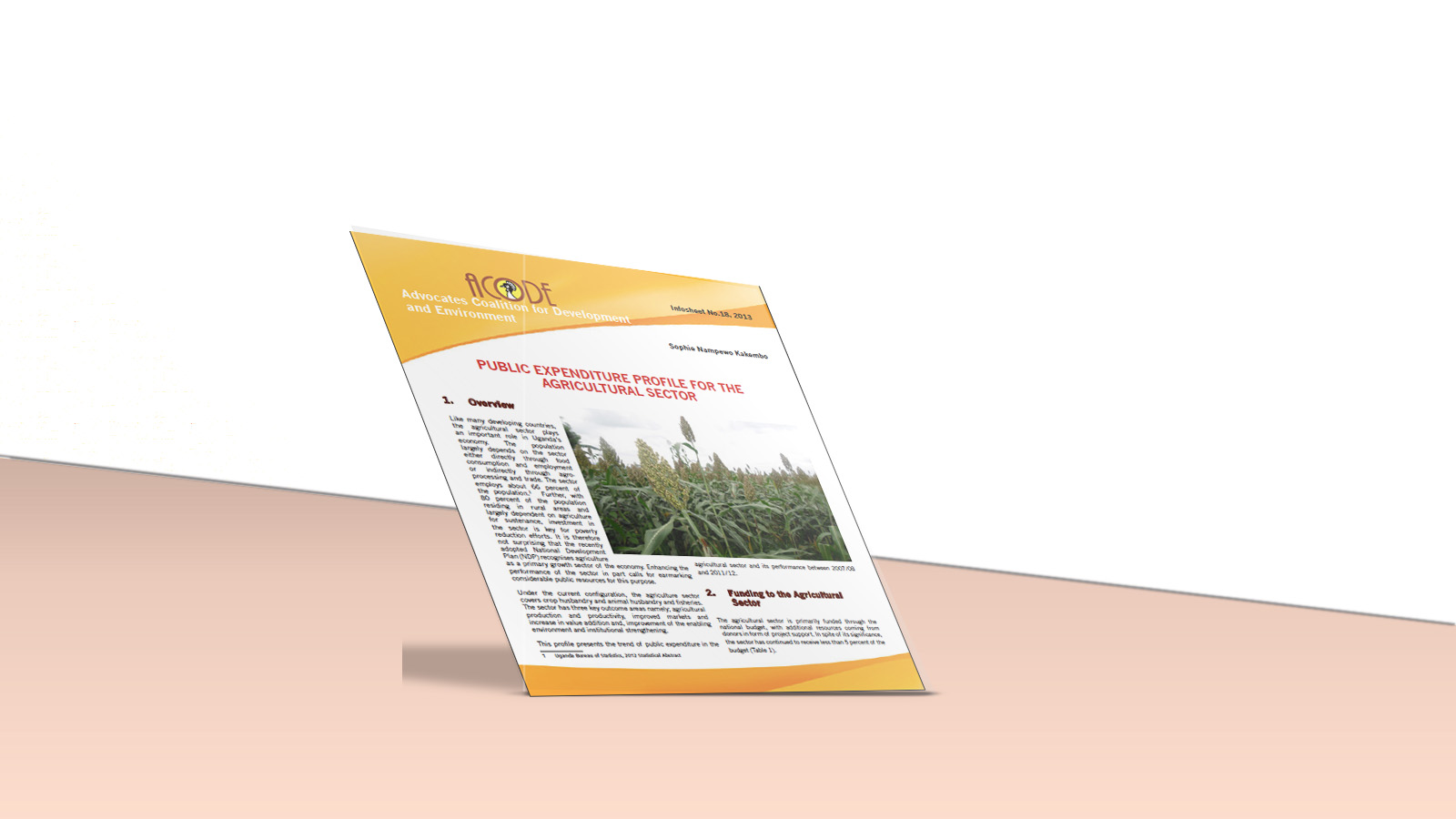
Public Expenditure Profile for the Agricultural Sector
Author(s): Sophie Nampewo Kakambo
Published: 2018
This profile presents the trend of public expenditure in the Uganda Bureau of Statistics, 2012 Statistical Abstract the agricultural sector and its performance between 2007/08 and 2011/12.
View PDF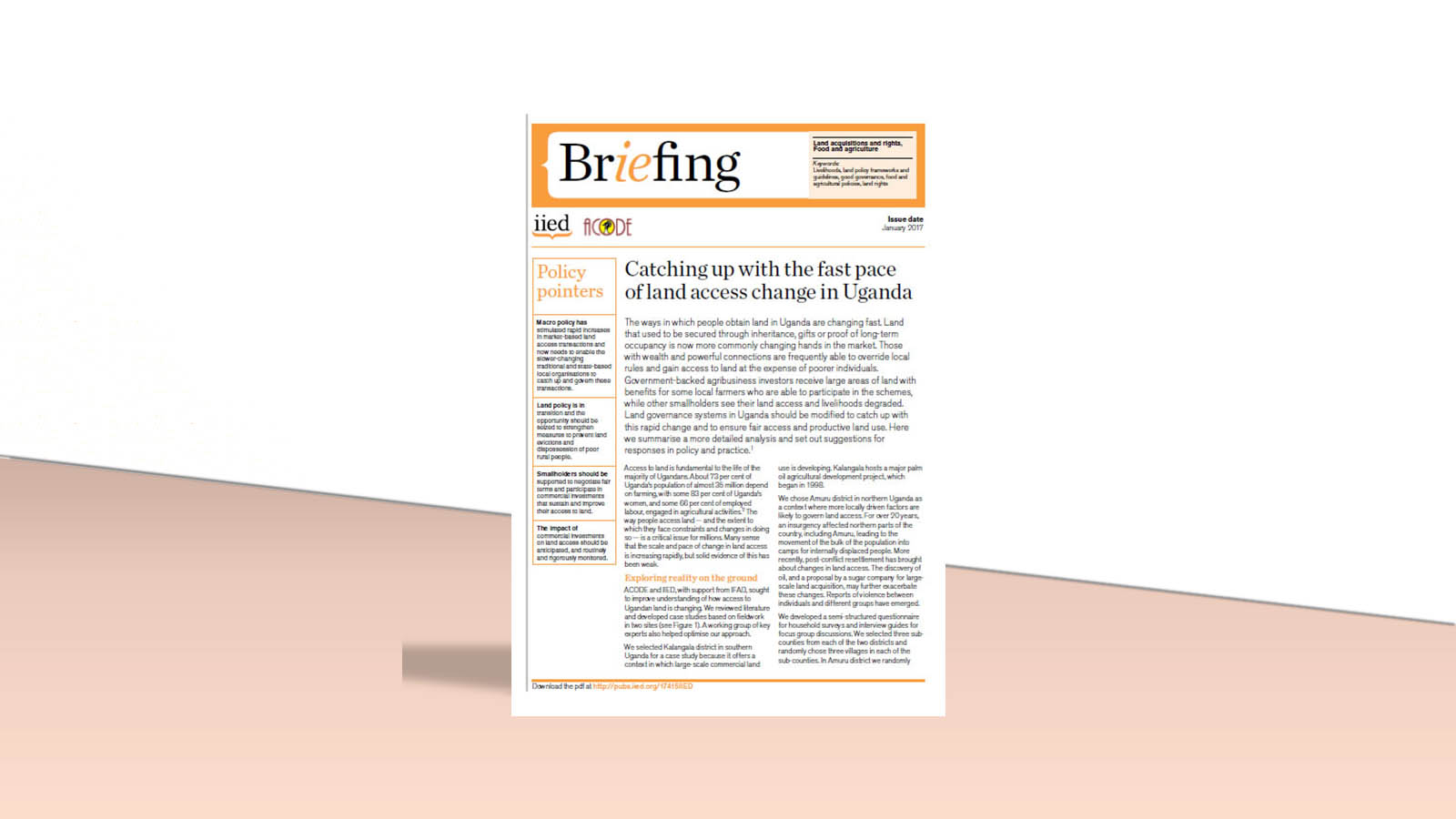
Catching up with the fast pace of land access change in Uganda
Author(s): ACODE and IIED
Published: 2017
The ways in which people obtain land in Uganda are changing fast. Land that used to be secured through inheritance, gifts, or proof of long-term occupancy is now more commonly changing hands in the market. Those with wealth and powerful connections are frequently able to override local rules and gain access to land at the expense of poorer individuals. Government-backed agribusiness investors receive large areas of land with benefits for some local farmers who are able to participate in the schemes, while other smallholders see their land access and livelihoods degraded. Land governance systems in Uganda should be modified to catch up with this rapid change and to ensure fair access and productive land use. Here we summarise a more detailed analysis and set out suggestions for responses in policy and practice
View PDF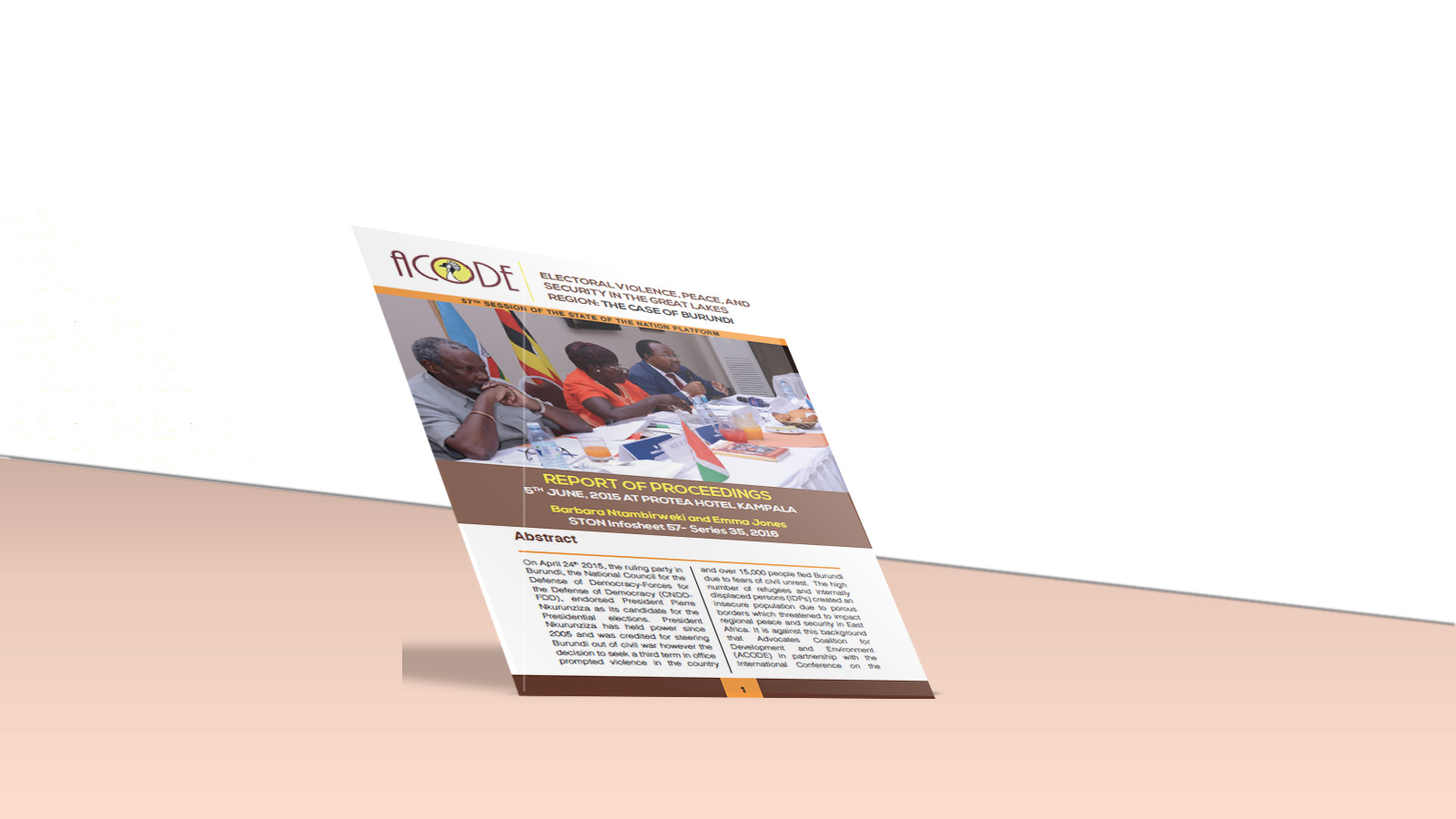
Electoral Violence, Peace, and Security in the Great Lakes Region: The Case of Burundi
Author(s): Barbara Ntambirweki and Emma Jones
Published: 2016
Elections and the pursuit of democratic governance are of major importance for the regional and international community, particularly for countries impacted by protracted violent conflicts. Violent conflicts in the Great Lakes Region have a spillover effect as conflicts crosses borders to destabilize neighboring countries.
View PDF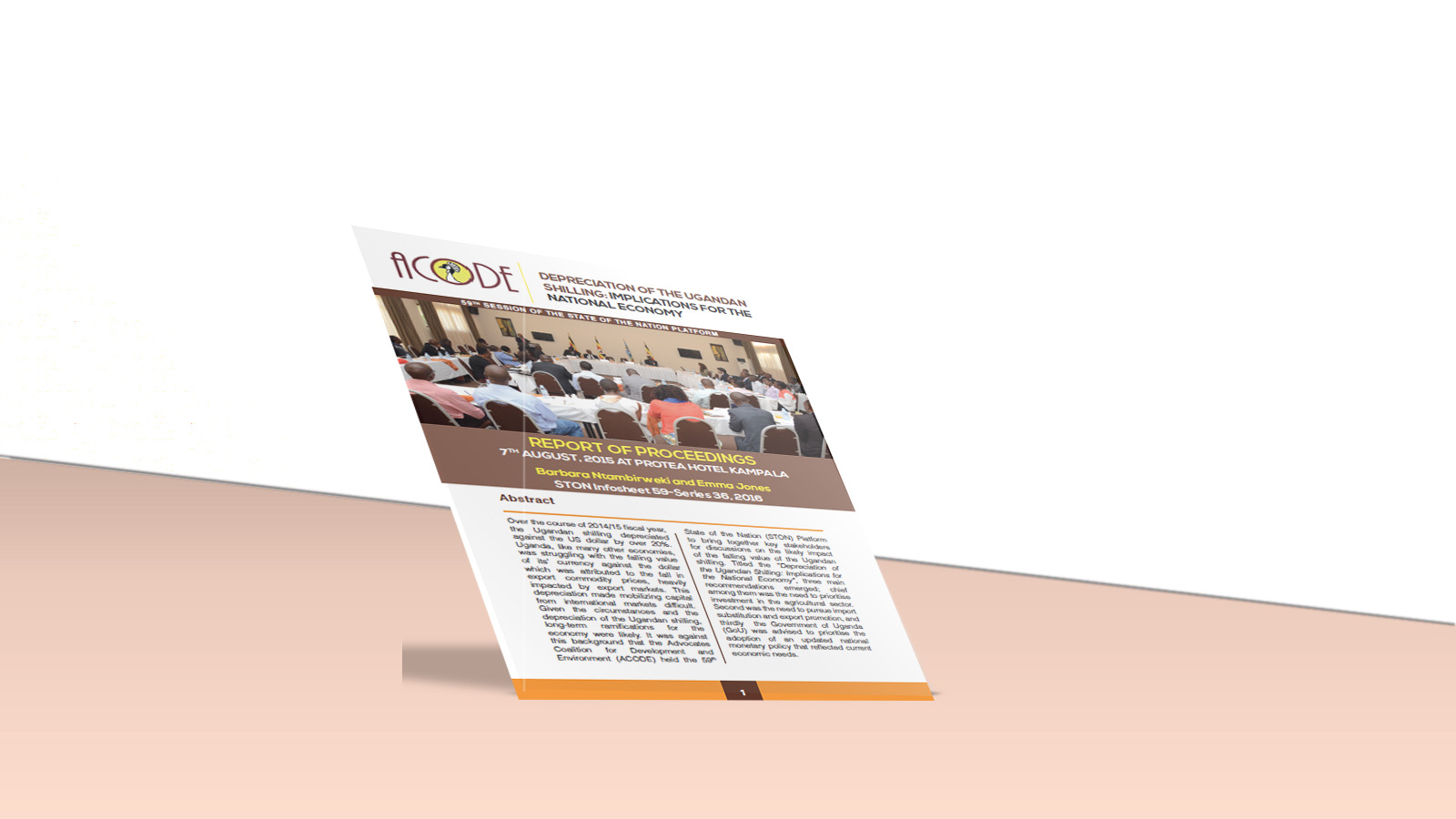
Depreciation of the Ugandan Shilling: Implications for the National Economy
Author(s): Barbara Ntambirweki and Emma Jones
Published: 2016
Over the course of the 2014/15 fiscal year, the Ugandan shilling depreciated against the US dollar by over 20%. Uganda, like many other economies, was struggling with the falling value of its currency against the dollar which was attributed to the fall in export commodity prices, heavily impacted by export markets. This depreciation made mobilizing capital from international markets difficult. Given the circumstances and the depreciation of the Ugandan shilling, long-term ramifications for the economy were likely.
View PDF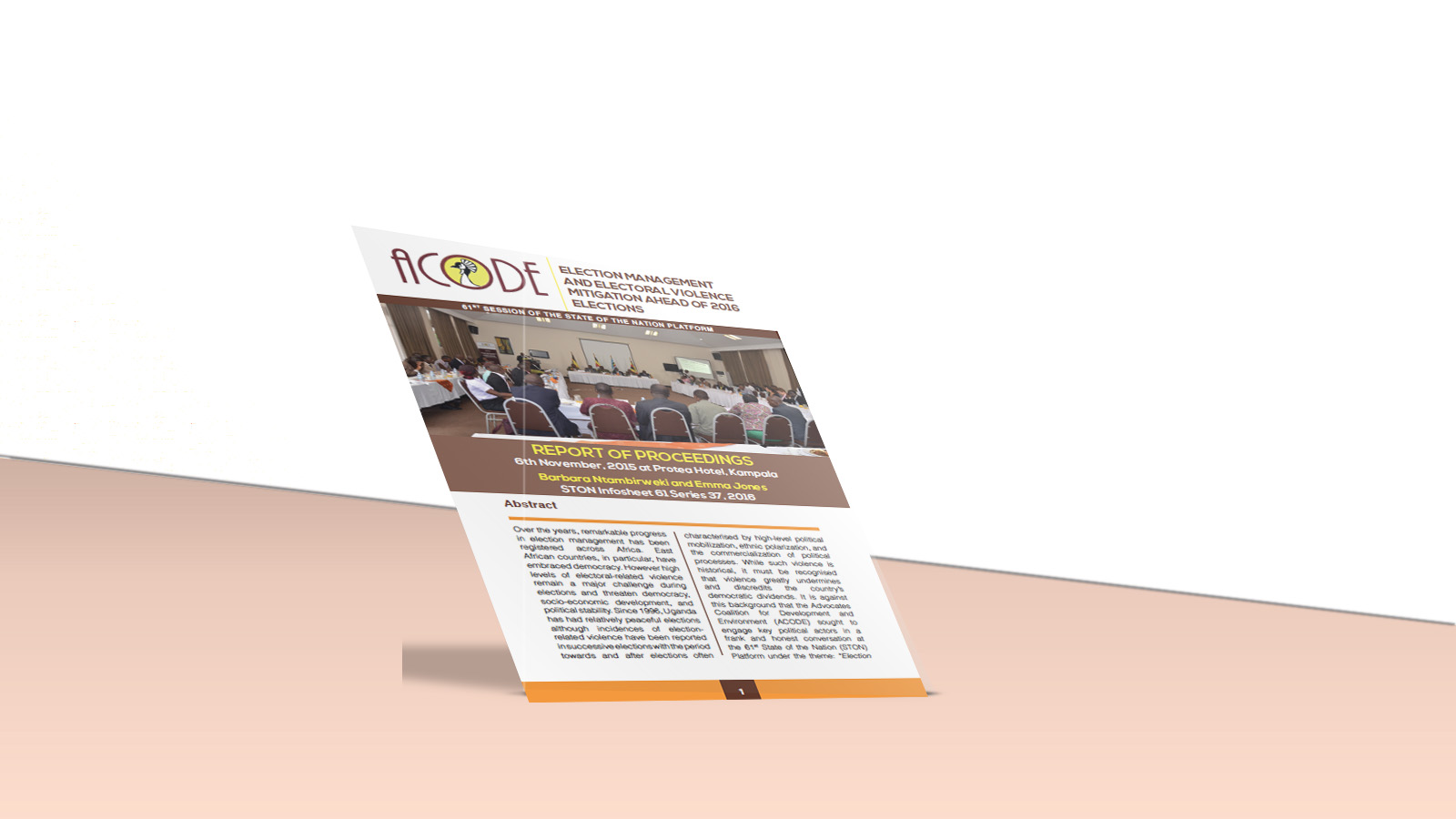
Election Management and Electoral Violence Mitigation Ahead of 2016 Elections
Author(s): Barbara Ntambirweki and Emma Jones
Published: 2016
Over the years, remarkable progress in election management has been registered across Africa. East African countries, in particular, have embraced democracy. However high levels of electoral-related violence remain a major challenge during elections and threaten democracy, socio-economic development, and political stability. Since 1996, Uganda has had relatively peaceful elections although incidences of election-related violence have been reported in successive elections with the period towards and after elections often characterized by high-level political mobilization, ethnic polarization, and the commercialization of political processes.
View PDF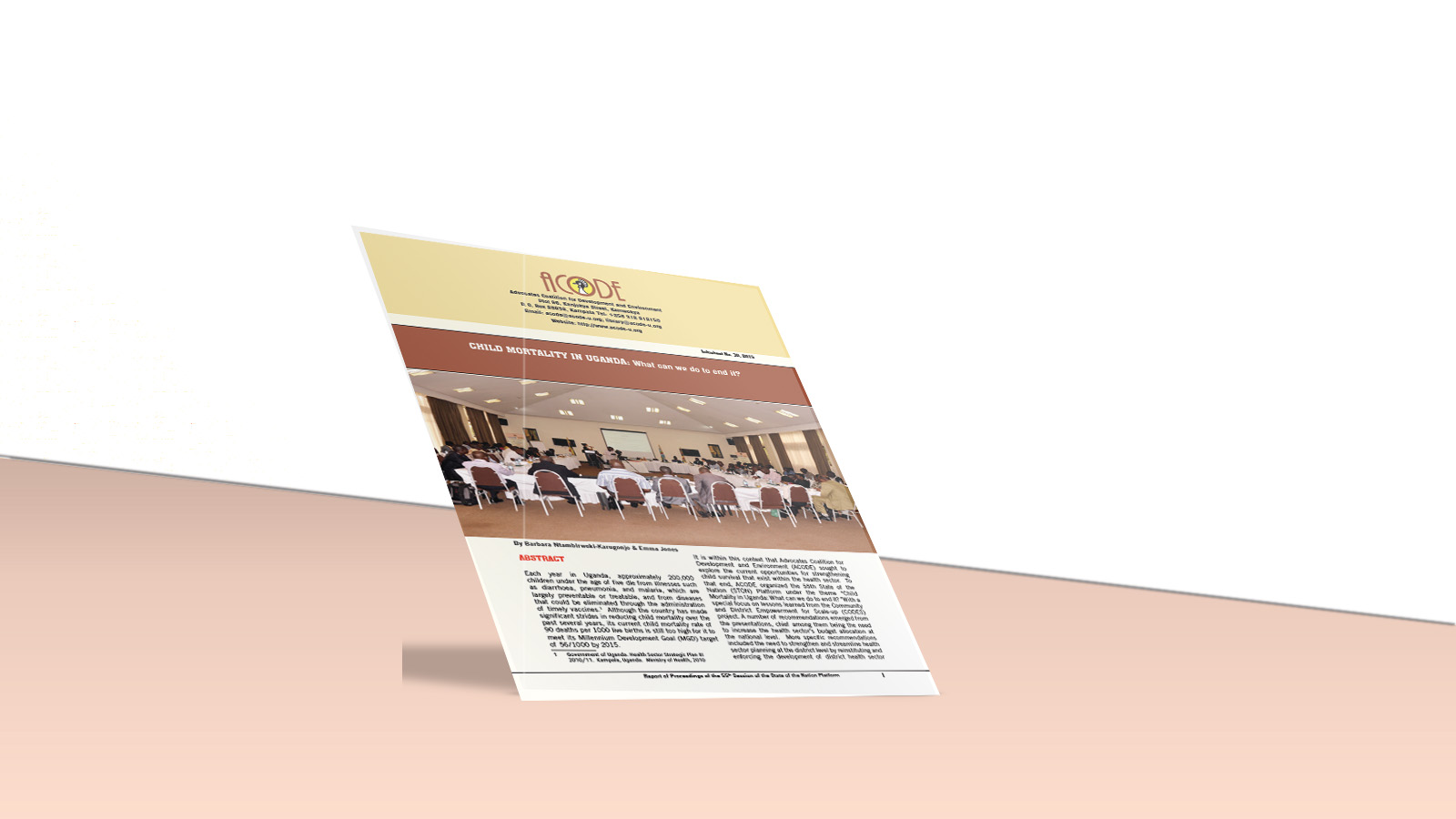
Child Mortality in Uganda: What can we do to end it?
Author(s): Barbara Ntambirweki-Karugonjo and Emma Jones
Published: 2015
Each year in Uganda, approximately 200,000 children under the age of five die from illnesses such as diarrhea, pneumonia, and malaria, which are largely preventable or treatable, and from diseases that could be eliminated through the administration of timely vaccines.1 Although the country has made significant strides in reducing child mortality over the past several years, its current child mortality rate of 90 deaths per 1000 live births is still too high for it to meet its Millennium Development Goal (MGD) target of 56/1000 by 2015.
View PDF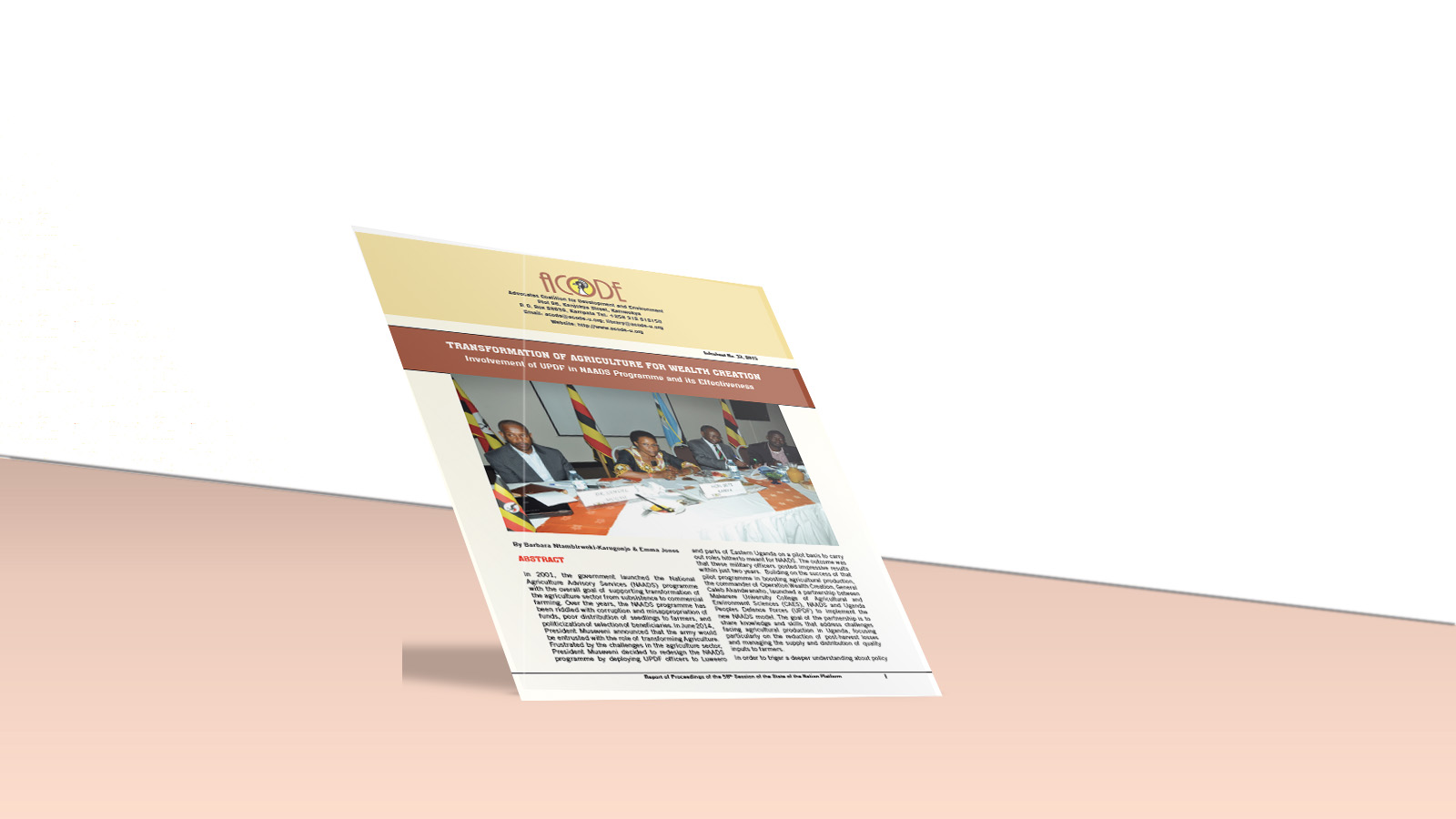
Transformation of Agriculture for Wealth Creation: Involvement of UPDF in NAADS Programme and its Effectiveness
Author(s): Barbara Ntambirweki-Karugonjo and Emma Jones
Published: 2015
In 2001, the government launched the National Agriculture Advisory Services (NAADS) program with the overall goal of supporting the transformation of the agriculture sector from subsistence to commercial farming. Over the years, the NAADS program has been riddled with corruption and misappropriation of funds, poor distribution of seedlings to farmers, and politicization of the selection of beneficiaries. In June 2014, President Museveni announced that the army would be entrusted with the role of transforming Agriculture.
View PDF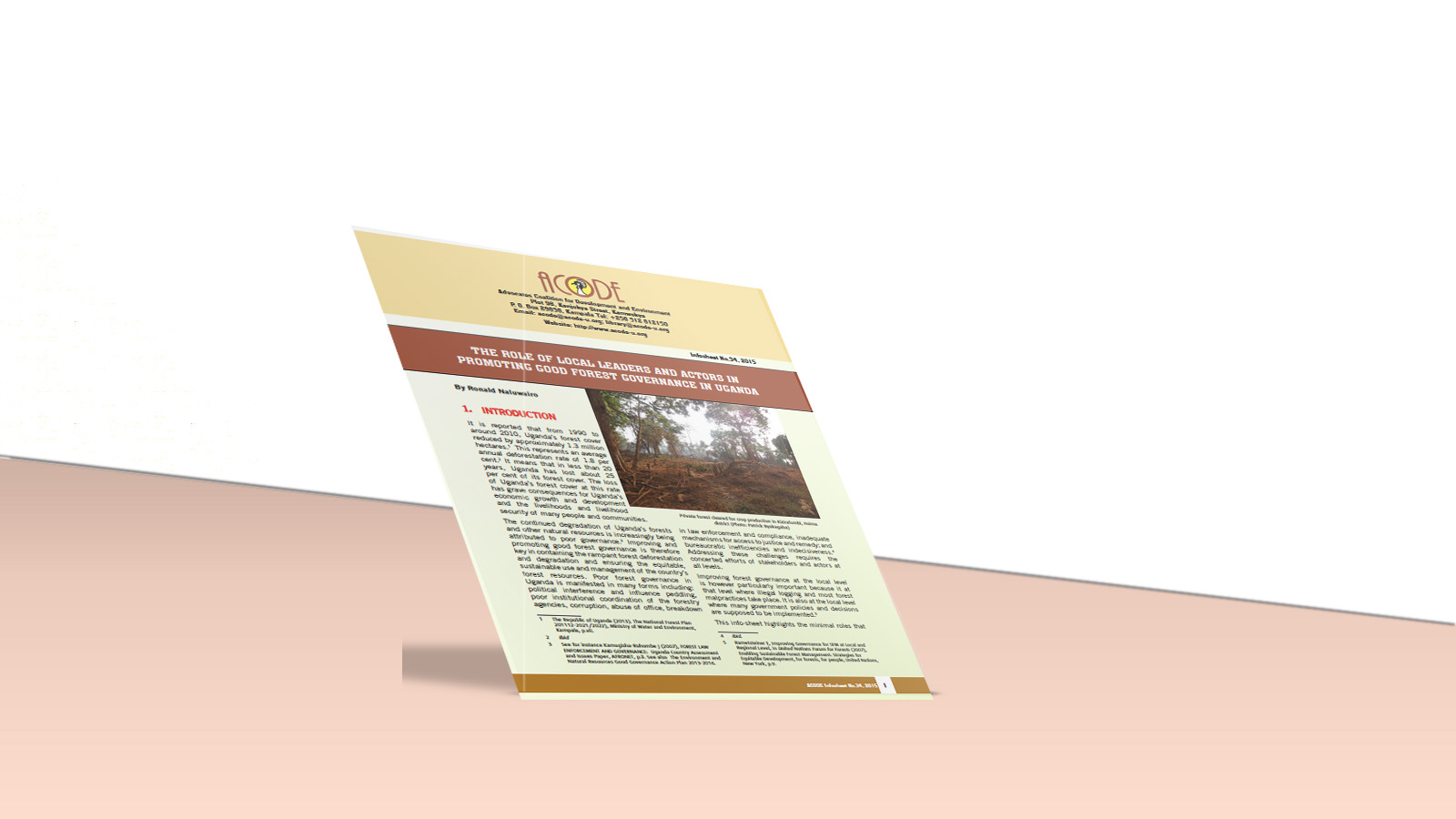
The Role of Local Leaders and Actors in Promoting Good Forest Governance in Uganda
Author(s): Ronald Naluwairo
Published: 2015
The continued degradation of Uganda’s forests and other natural resources is increasingly being attributed to poor governance.3 Improving and promoting good forest governance is therefore key in containing the rampant forest deforestation and degradation and ensuring the equitable, sustainable use and management of the country’s forest resources.
View PDF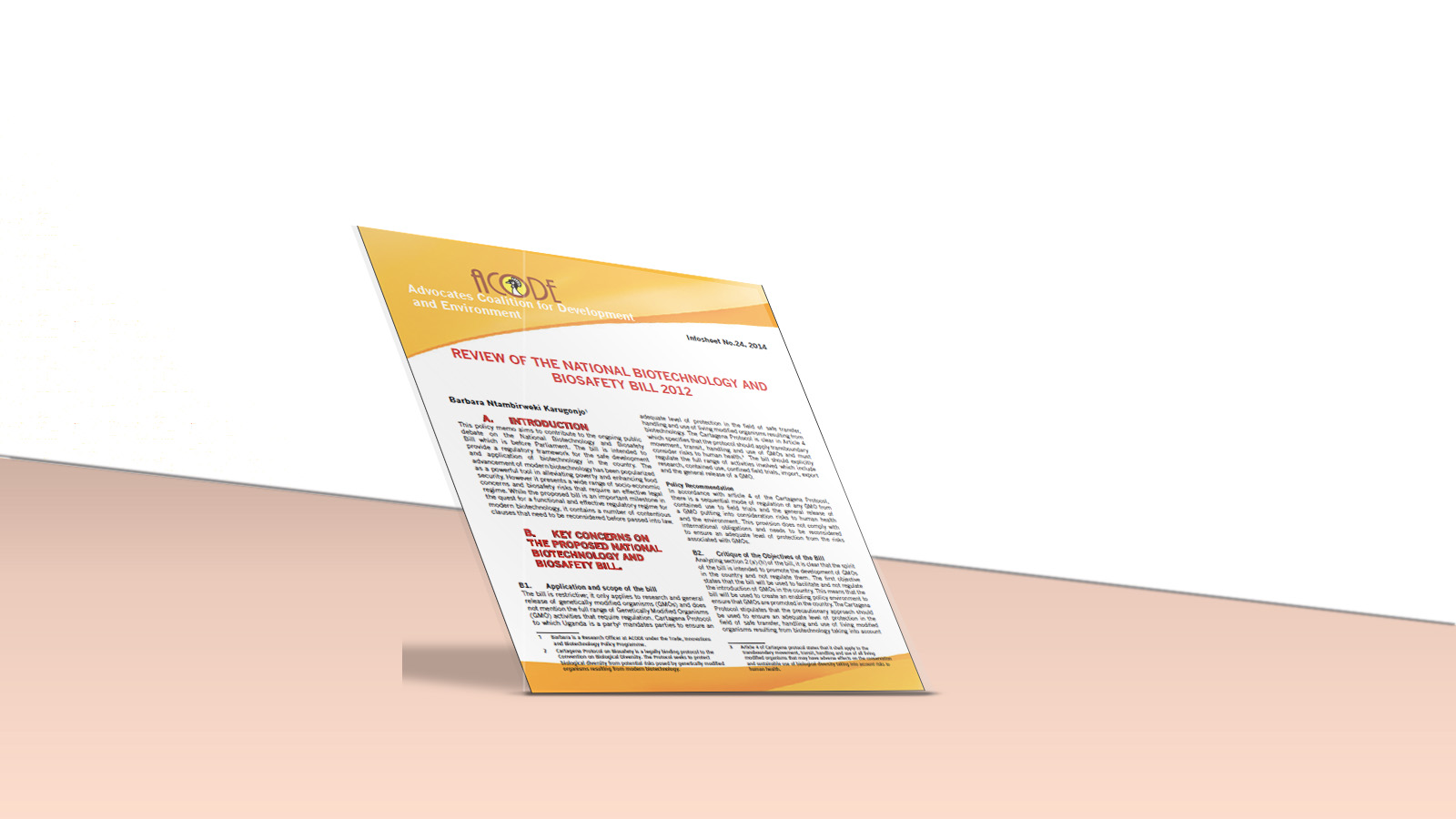
Review of the National Biotechnology and Biosafety Bill, 2012
Author(s): Barbara Ntambirweki Karugonjo
Published: 2014
This policy memo aims to contribute to the ongoing public debate on the National Biotechnology and Biosafety Bill which is before Parliament. The bill is intended to provide a regulatory framework for the safe development and application of biotechnology in the country. The advancement of modern biotechnology has been popularized as a powerful tool in alleviating poverty and enhancing food security.
View PDF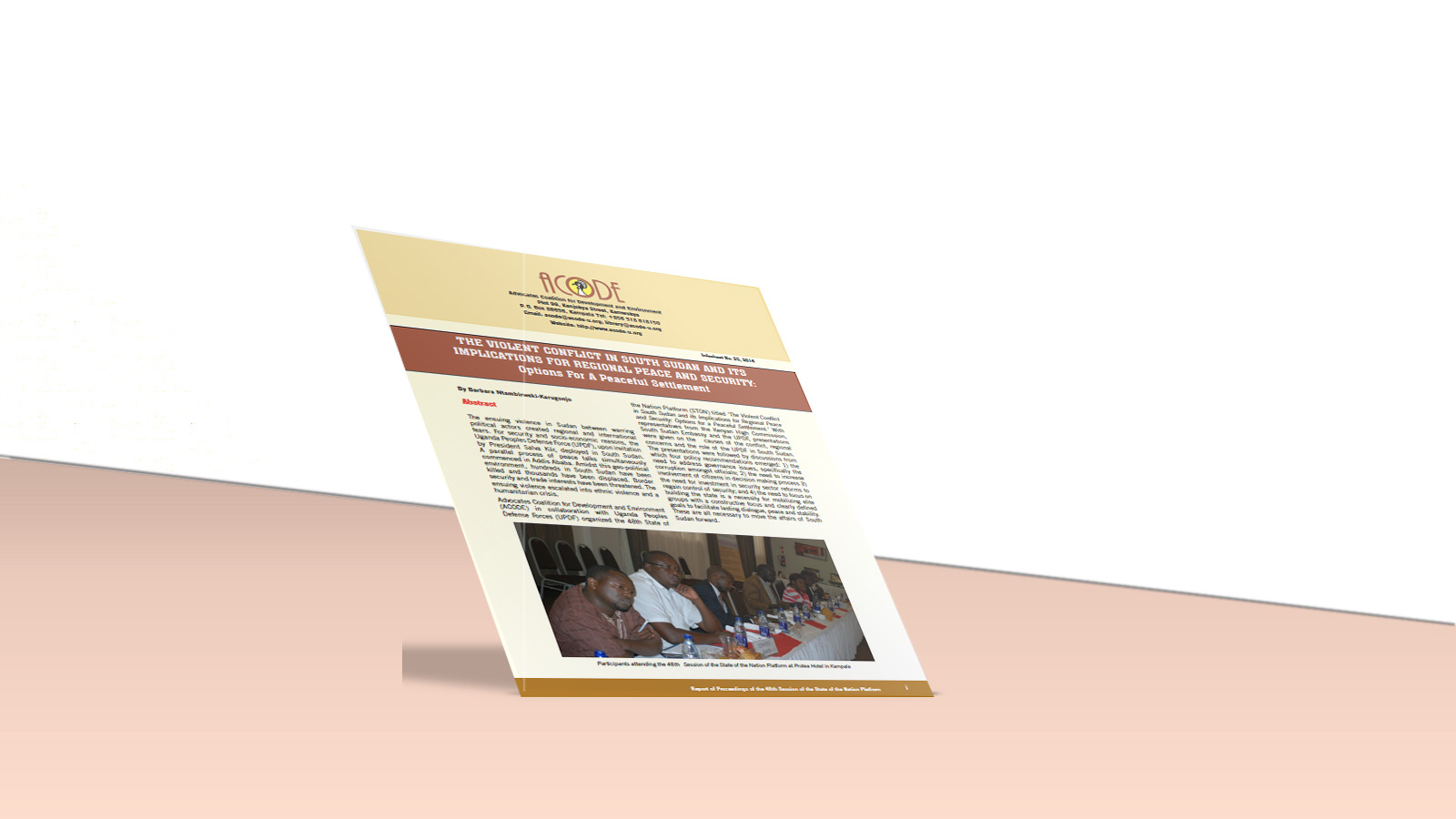
The Violent Conflict in South Sudan and Its Implications for Regional Peace and Security: Options for a Peaceful Settlement
Author(s): Barbara Ntambirweki-Karugonjo
Published: 2014
The ensuing violence in Sudan between warring political actors created regional and international fears. For security and socio-economic reasons, the Uganda Peoples Defense Force (UPDF), upon invitation by President Salva Kiir, deployed in South Sudan. A parallel process of peace talks simultaneously commenced in Addis Ababa. Amidst this geo-political environment, hundreds in South Sudan have been killed and thousands have been displaced.
View PDF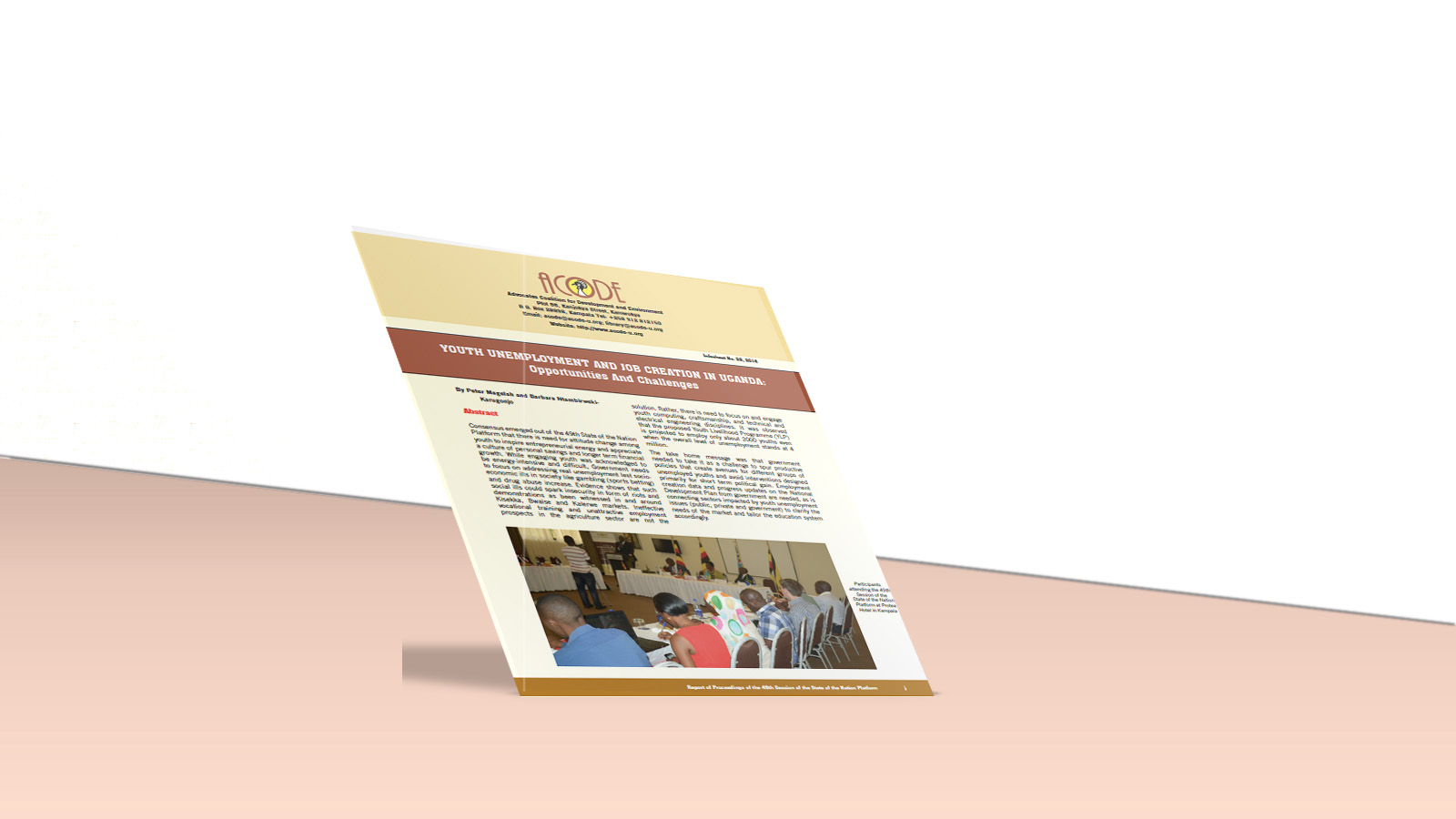
Youth Unemployment and Job Creation In Uganda: Opportunities And Challenges
Author(s): Peter Magelah and Barbara Ntambirweki- Karugonjo
Published: 2014
Youth unemployment stands at between 64% and 70% and about 400,000 youths are released annually into the job market to compete for approximately 9,000 available jobs. About 30% of the youths who are institutionally qualified in Uganda are unable to find jobs, and the situation is even worse for semiskilled and unskilled youths. Youths who remain unemployed or underemployed and do not exploit their full potential are often associated with high incidences of drug abuse and gambling.
View PDF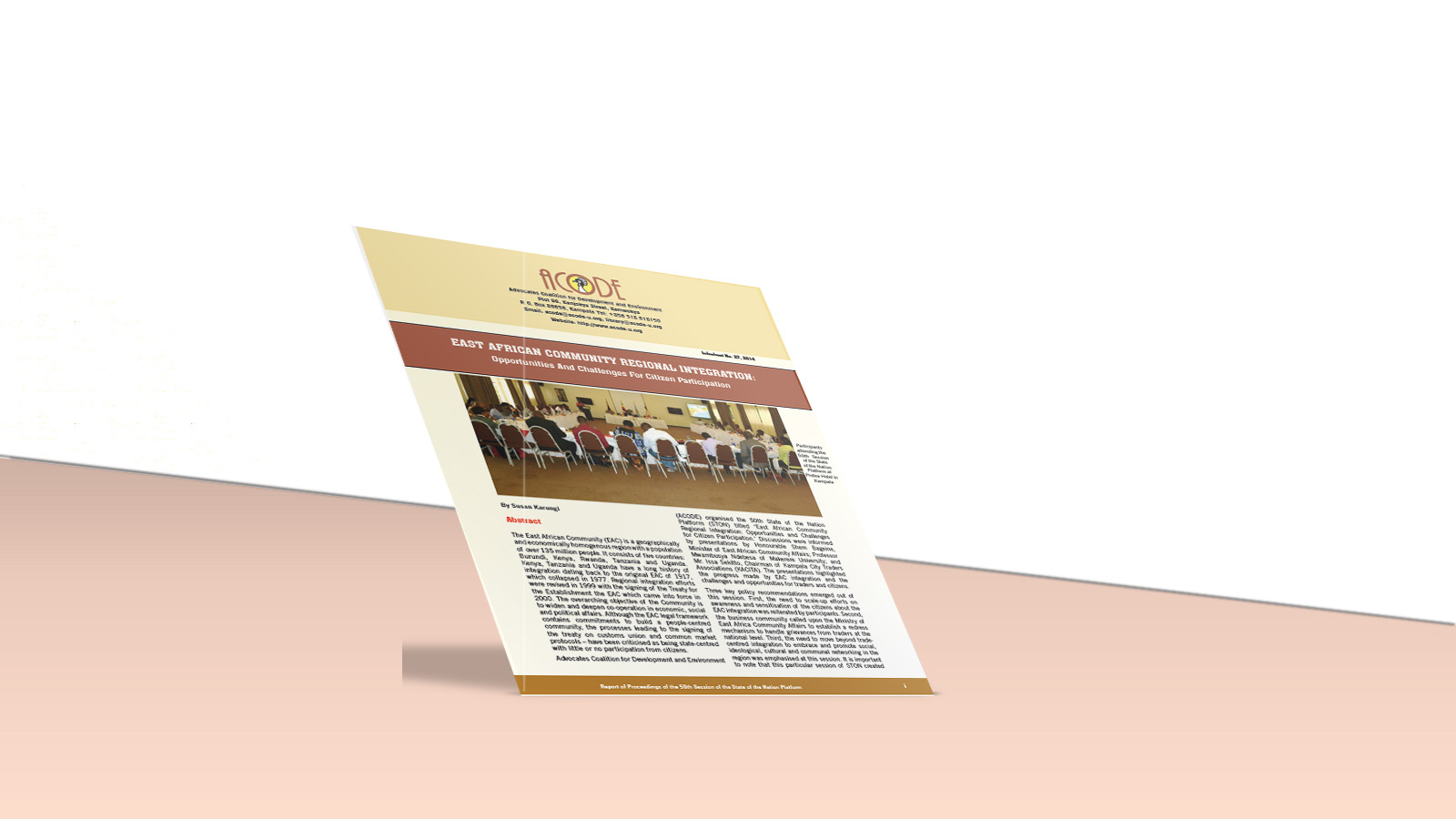
East African Community Regional Integration: Opportunities and Challenges for Citizen Participation
Author(s): Susan Karungi
Published: 2014
The East African Community (EAC) is a geographically and economically homogenous region with a population of over 135 million people. It consists of five countries: Burundi, Kenya, Rwanda, Tanzania, and Uganda. Kenya, Tanzania, and Uganda have a long history of integration dating back to the original EAC of 1917, which collapsed in 1977. Regional integration efforts were revived in 1999 with the signing of the Treaty for the Establishment of the EAC which came into force in 2000. The overarching objective of the Community is to widen and deepen cooperation in economic, social, and political affairs. Although the EAC legal framework contains commitments to build a people-centered community, the processes leading to the signing of the treaty on the customs union and common market protocols – have been criticized as being state-centered with little or no participation from citizens.
View PDF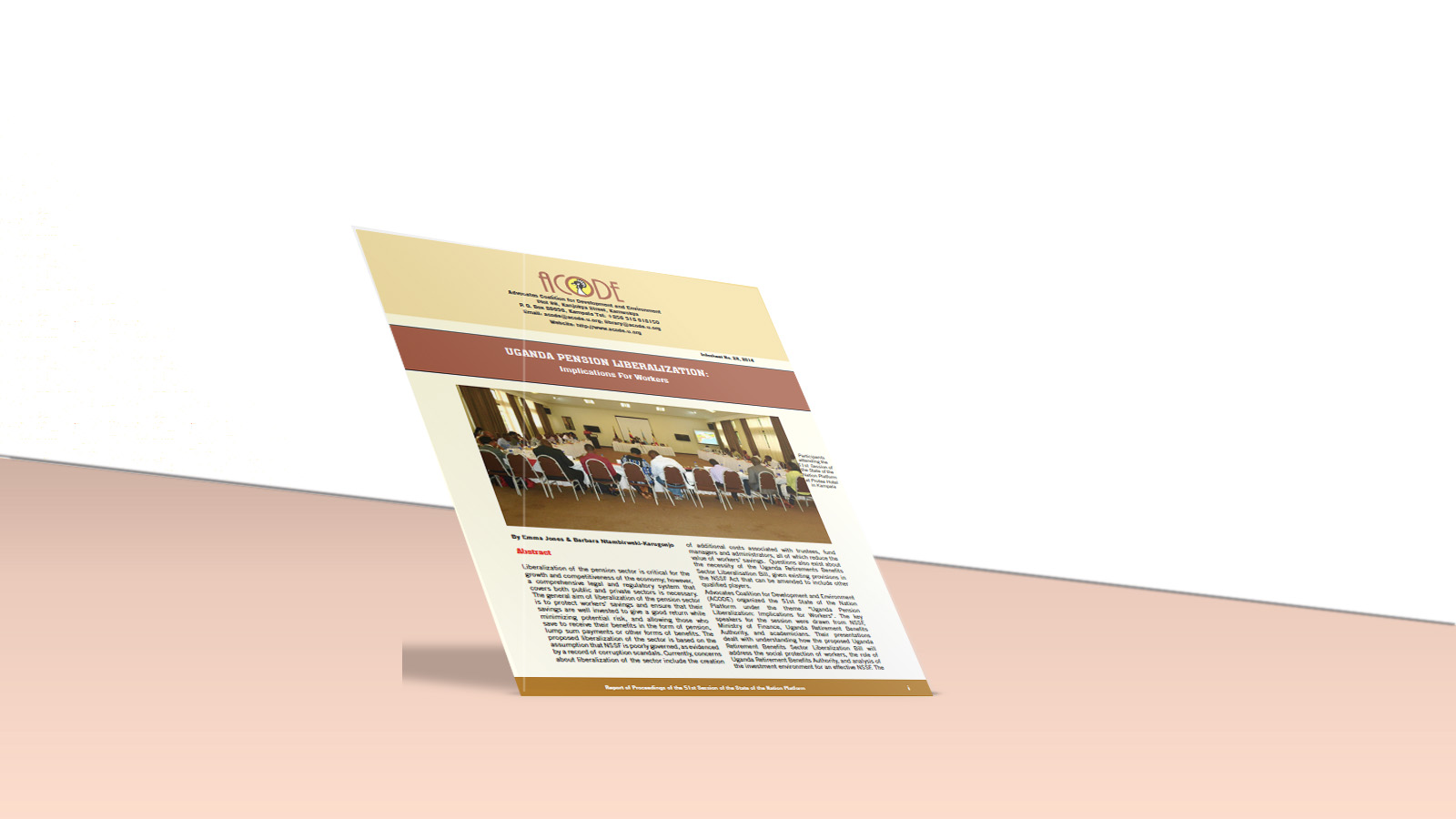
Uganda Pension Liberalization: Implications for Workers
Author(s): Emma Jones and Barbara Ntambirweki-Karugonjo
Published: 2014
Liberalization of the pension sector is critical for the growth and competitiveness of the economy; however, a comprehensive legal and regulatory system that covers both public and private sectors is necessary. The general aim of liberalization of the pension sector is to protect workers’ savings and ensure that their savings are well invested to give a good return while minimizing potential risk and allowing those who save to receive their benefits in the form of pension, lump sum payments or other forms of benefits.
View PDF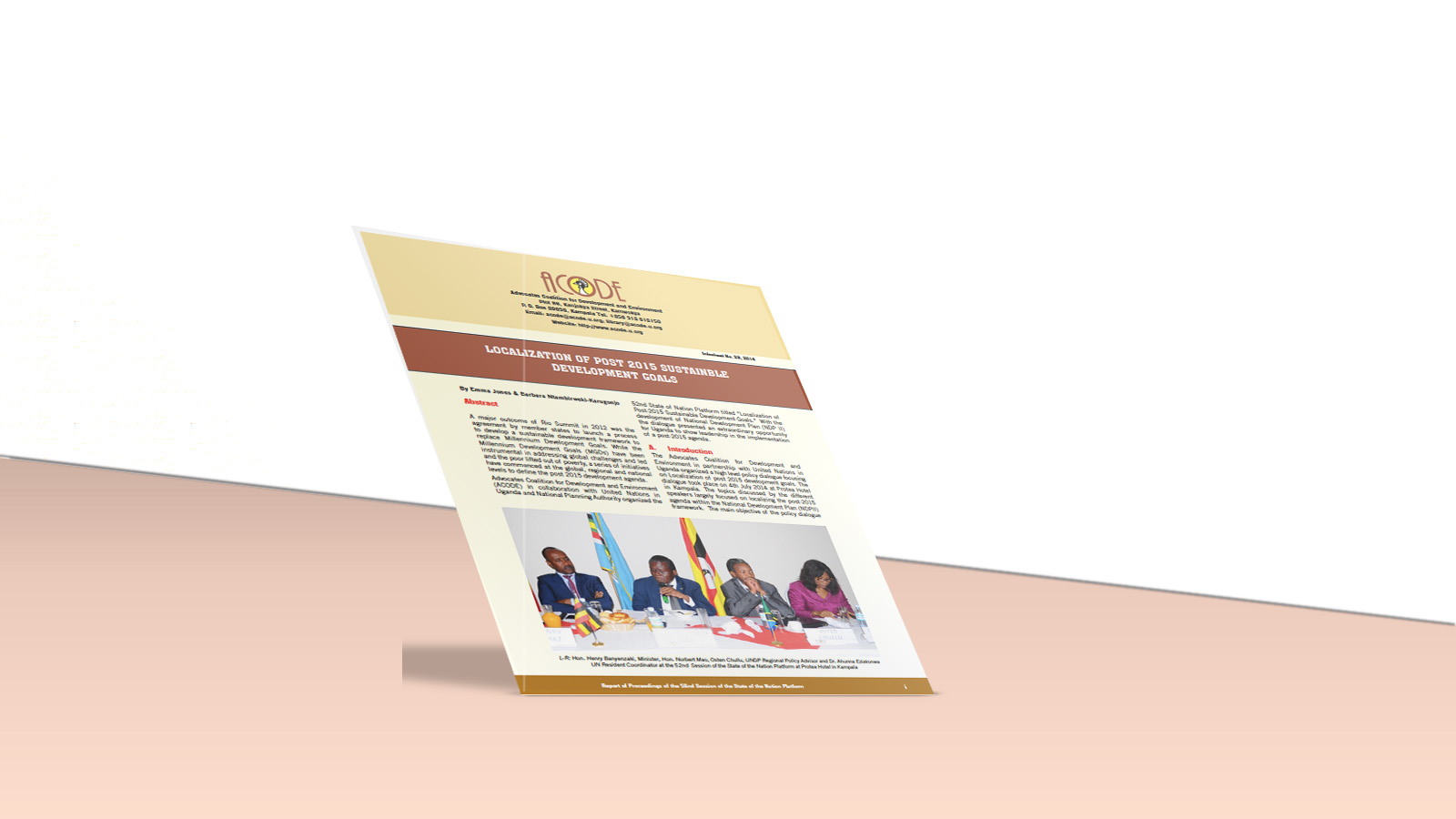
Localization of Post 2015 Sustainable Development Goals
Author(s): Emma Jones and Barbara Ntambirweki-Karugonjo
Published: 2014
At the Rio Summit in 2012, member states of the UN committed to building a new sustainable development framework to replace the Millennium Development Goals. The General Assembly agreed to establish an inclusive and transparent intergovernmental process open to all stakeholders with a view toward developing global sustainable development goals. An open working group on sustainable development goals is building consensus on a common set of goals around 16 focus areas that are likely to form the basis of the post-2015 Sustainable Development Goals (SDGs).
View PDF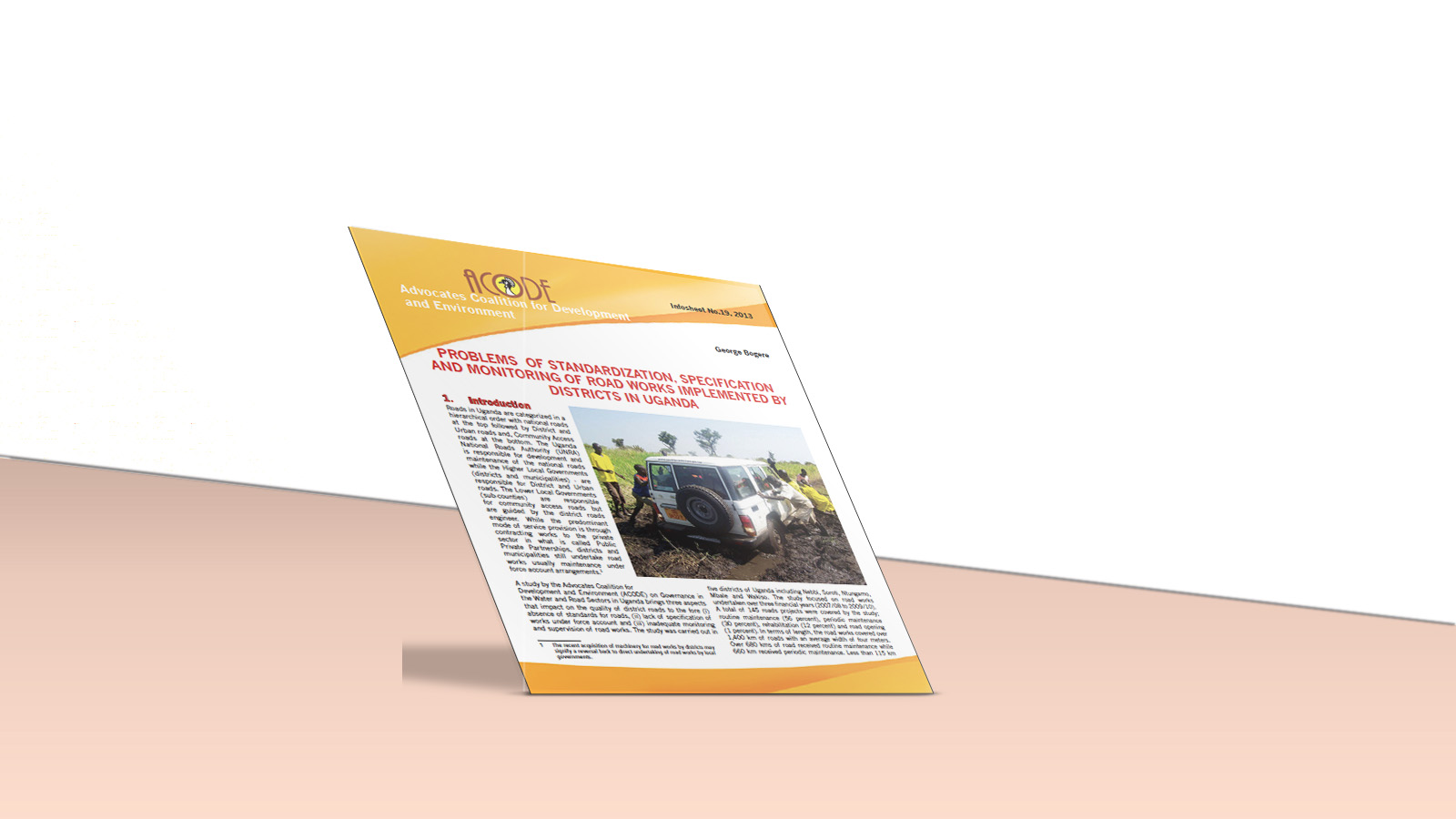
Problems of Standardization, Specification and Monitoring of Road Works Implemented by Districts in Uganda
Author(s): George Bogere
Published: 2013
Roads in Uganda are categorized in hierarchical order with national roads at the top followed by District and Urban roads and, Community Access roads at the bottom. The Uganda National Roads Authority (UNRA) is responsible for the development and maintenance of the national roads while the Higher Local Governments (districts and municipalities) - are responsible for District and Urban roads.
View PDF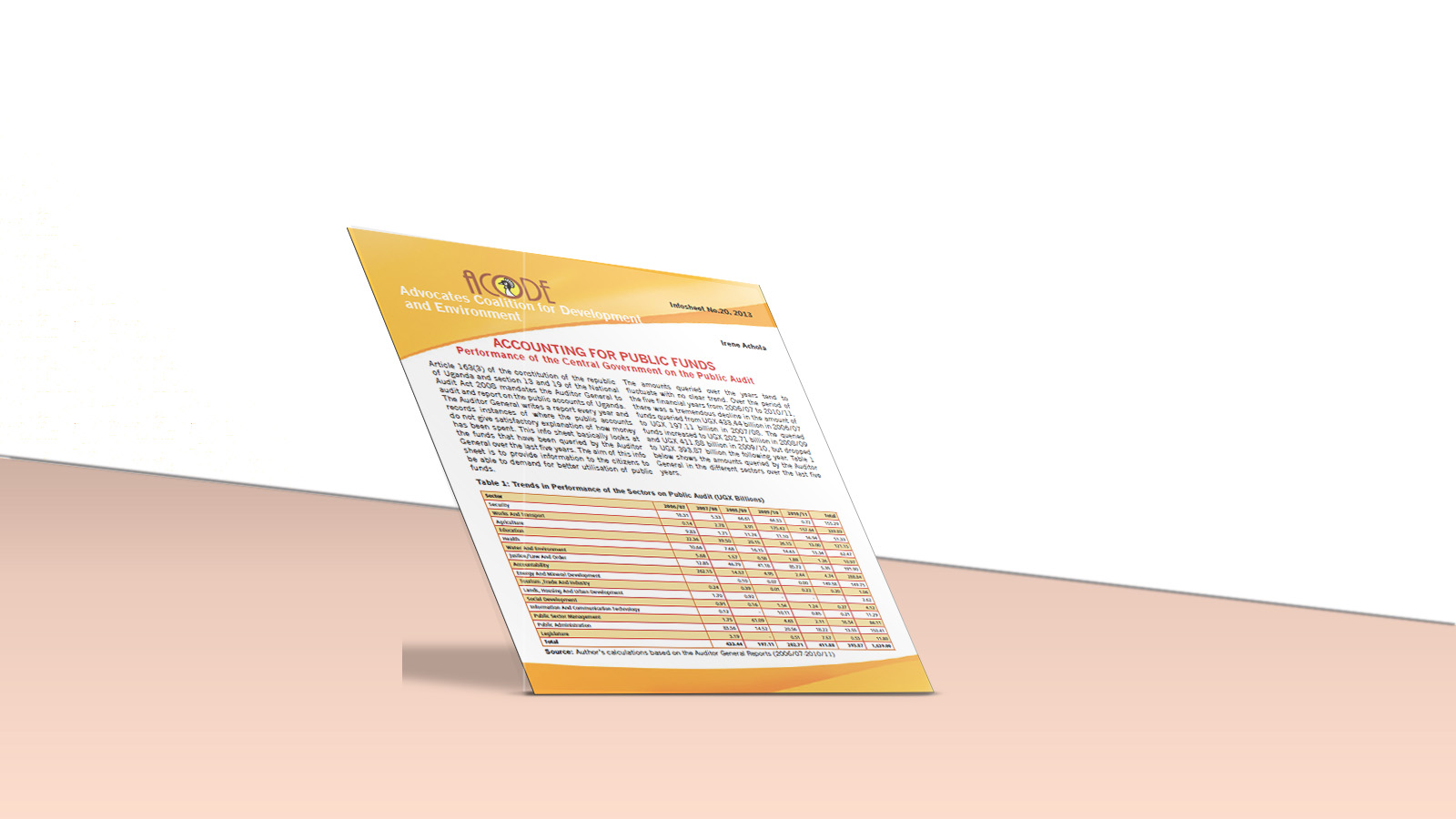
Accounting for Public Funds: Performance of the Central Government on the Public Audit
Author(s): Irene Achola
Published: 2013
This info sheet basically looks at the funds that have been queried by the Auditor General over the last five years. The aim of this info sheet is to provide information to the citizens to be able to demand better utilization of public funds.
View PDF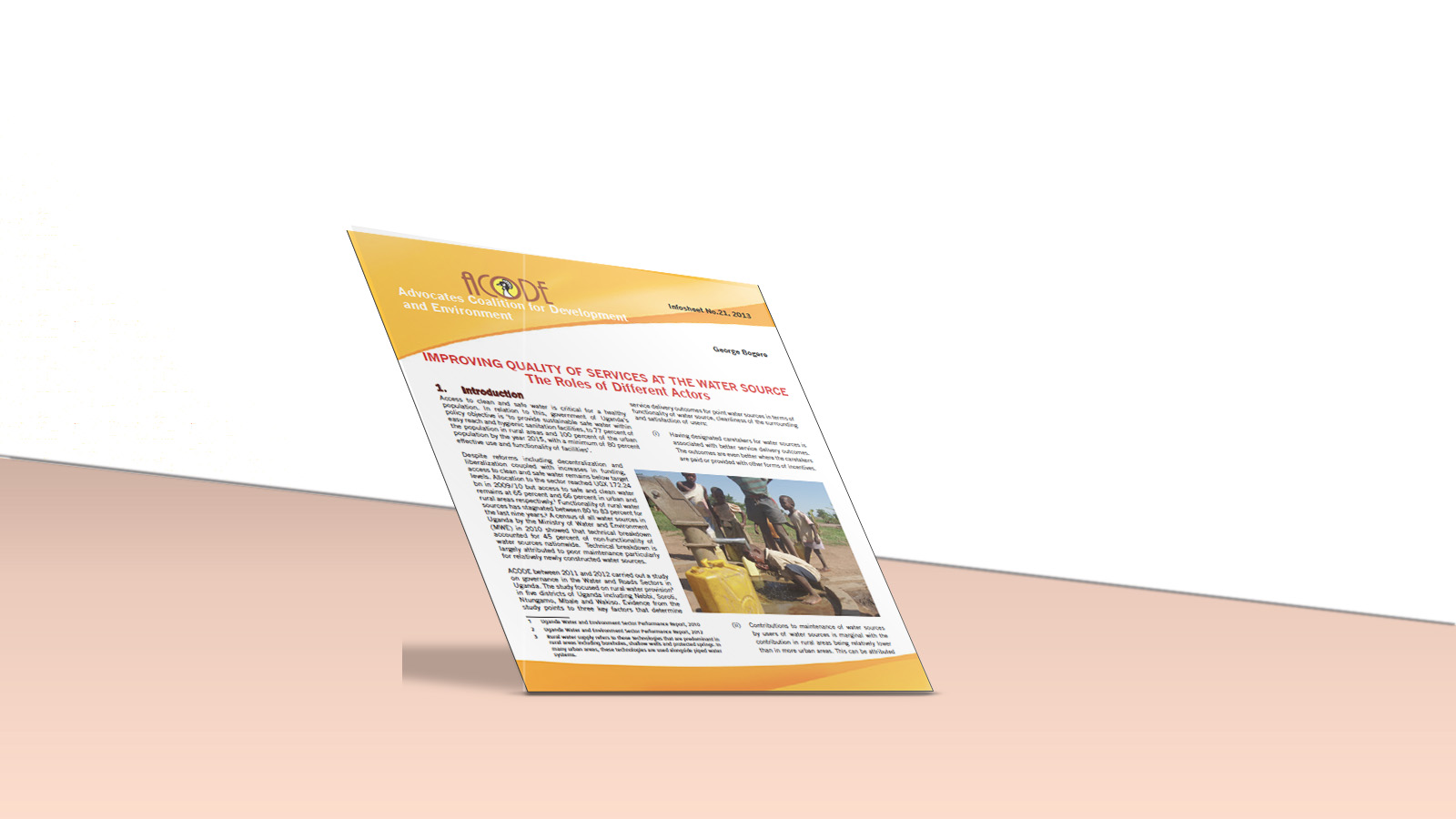
Improving Quality of Services at the Water Source: The Roles of Different Actors
Author(s): George Bogere
Published: 2013
Access to clean and safe water is critical for a healthy population. In relation to this, the government of Uganda’s policy objective is ‘to provide sustainable safe water within easy reach and hygienic sanitation facilities, to 77 percent of the population in rural areas and 100 percent of the urban population by the year 2015, with a minimum of 80 percent effective use and functionality of facilities.
View PDF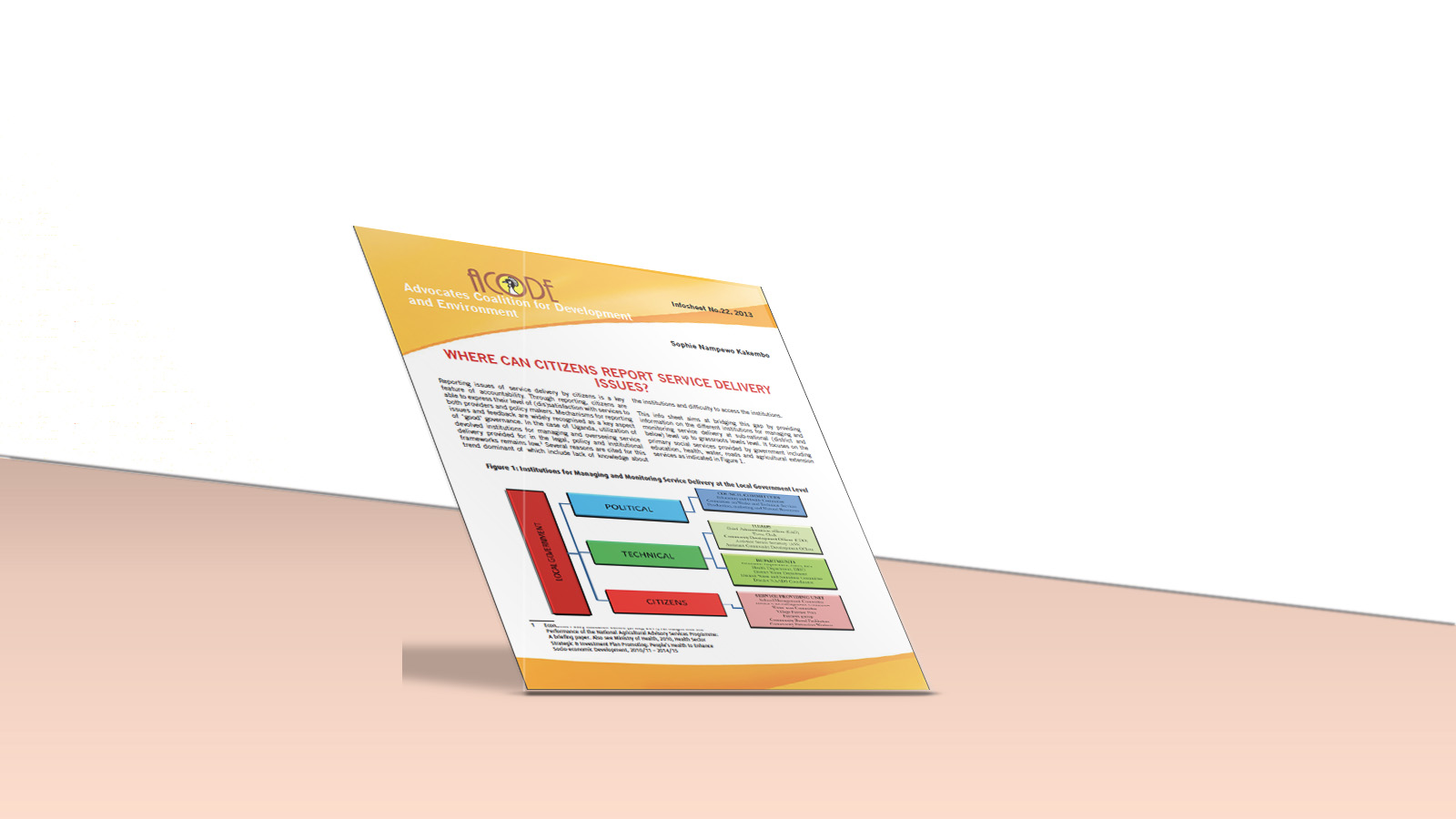
Where Can Citizens Report Service Delivery Issues?
Author(s): Sophie Nampewo Kakembo
Published: 2013
This info sheet aims at bridging this gap by providing information on the different institutions for managing and monitoring service delivery at sub-national (district and below) level up to grassroots levels level. It focuses on the primary social services provided by the government including education, health, water, roads, and agricultural extension services.
View PDF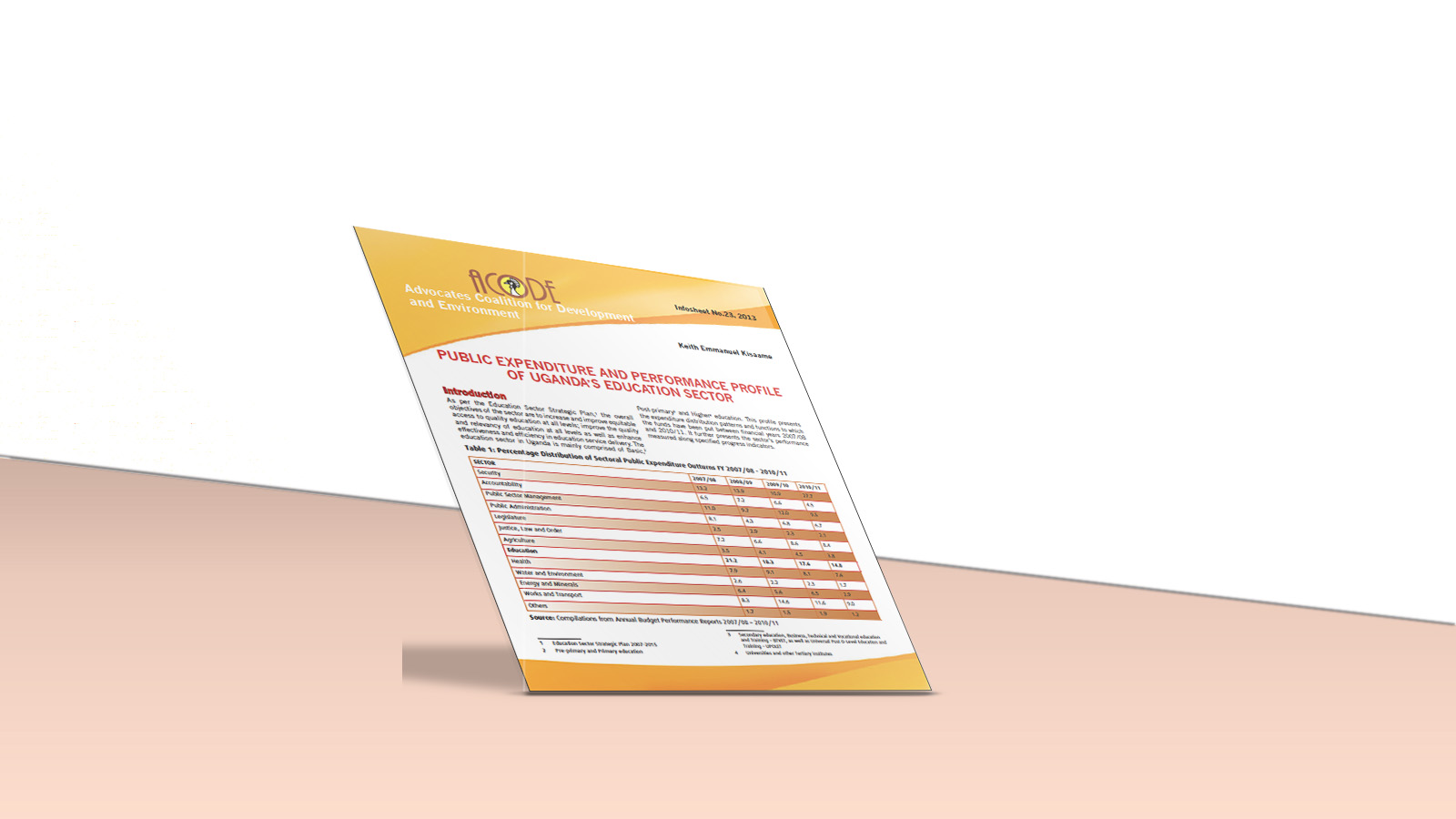
Public Expenditure and Performance Profile of Uganda’s Education Sector
Author(s): Keith Emmanuel Kisaame
Published: 2013
This profile presents the expenditure distribution patterns and functions to which the funds have been put between the financial years 2007/08 and 2010/11. It further presents the sector’s performance measured along specified progress indicators.
View PDF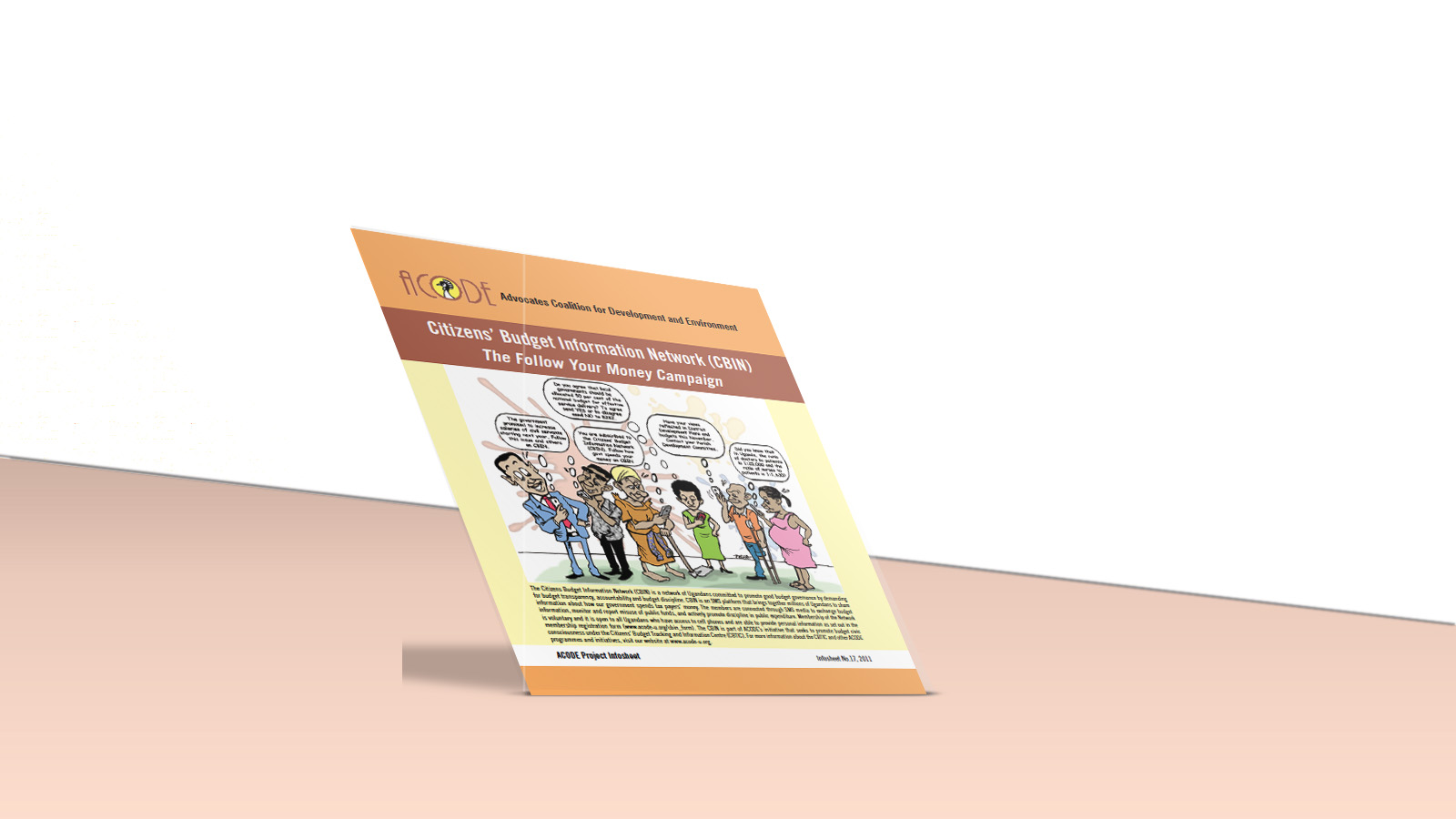
Citizens' Budget Information Network: the Follow Your Money Campaign
Author(s): ACODE
Published: 2011
View PDF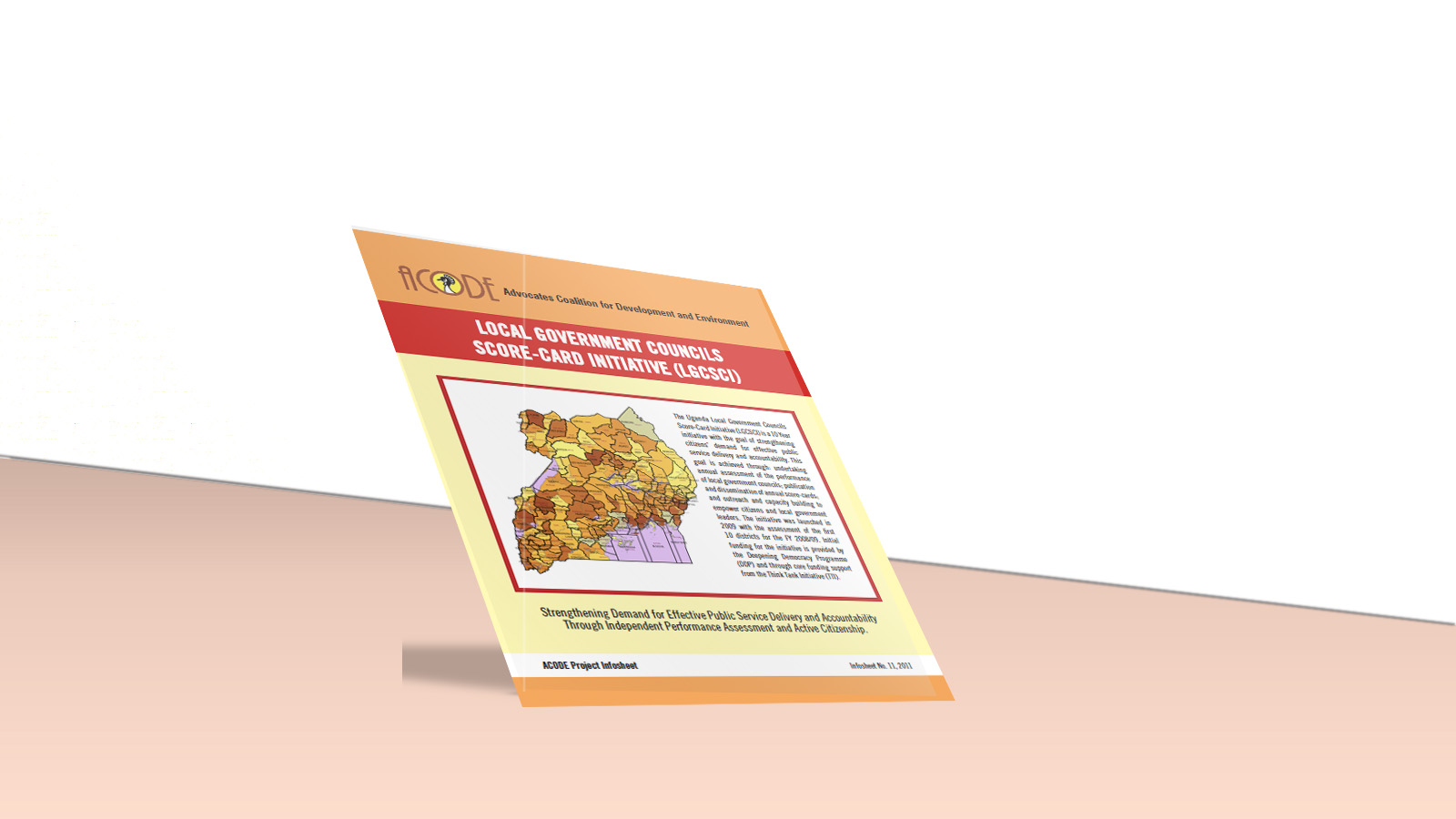
LOCAL GOVERNMENT COUNCILS SCORECARD INITIATIVE (LGCSCI)
Author(s): ACODE
Published: 2011
The LGCSCI is a research-based policy outreach and capacity building initiative whose goal is to strengthen citizens’ demand for effective service delivery and accountability.
View PDF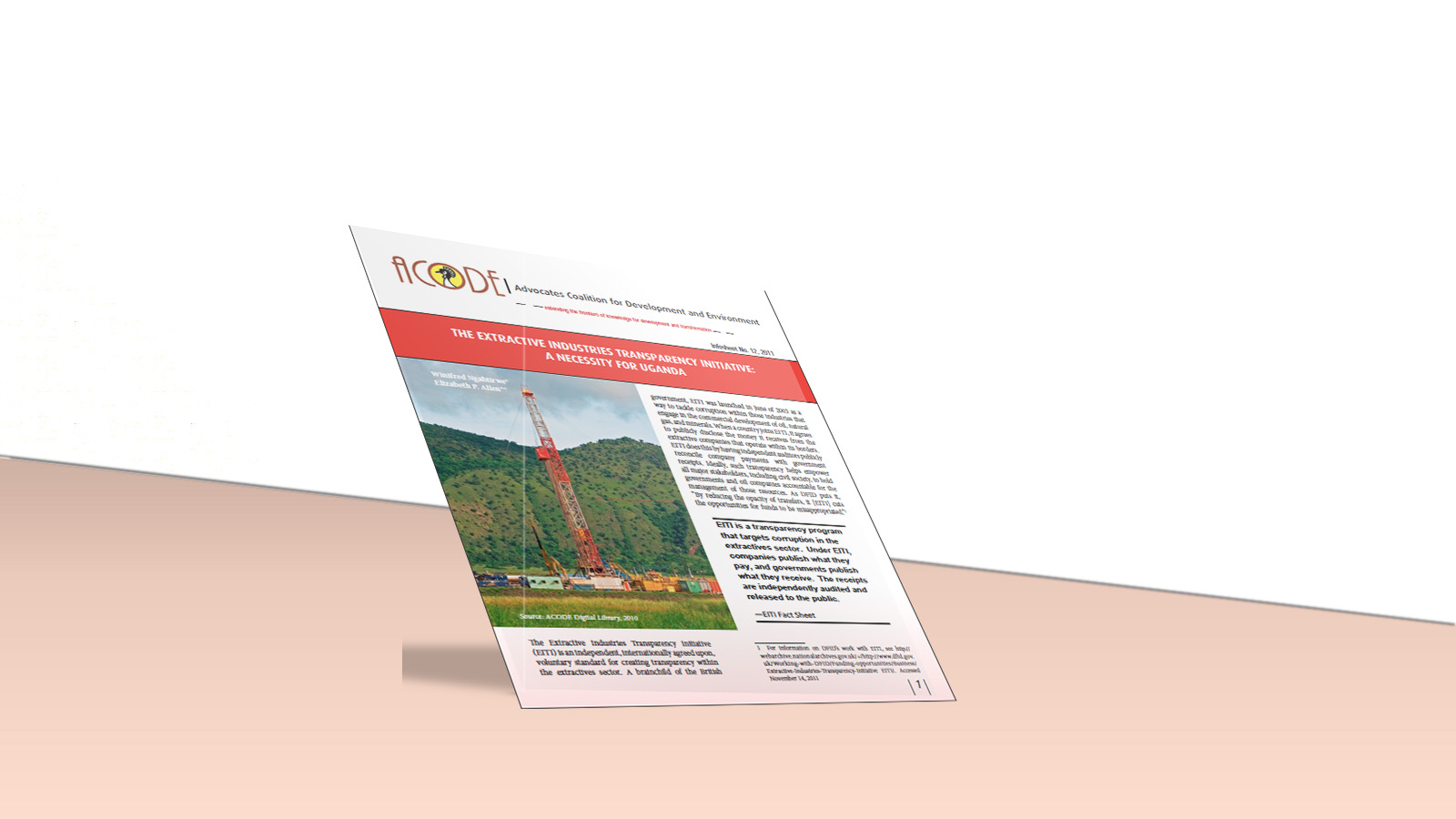
The Extractive Industries Transparency Initiative (EITI): A Necessity for Uganda
Author(s): ACODE
Published: 2011
One of the theories underpinning EITI is that increased transparency will lead to better governance—or at the very least, will make it more difficult for private companies and government officials to engage in behavior that hinders good governance.
View PDF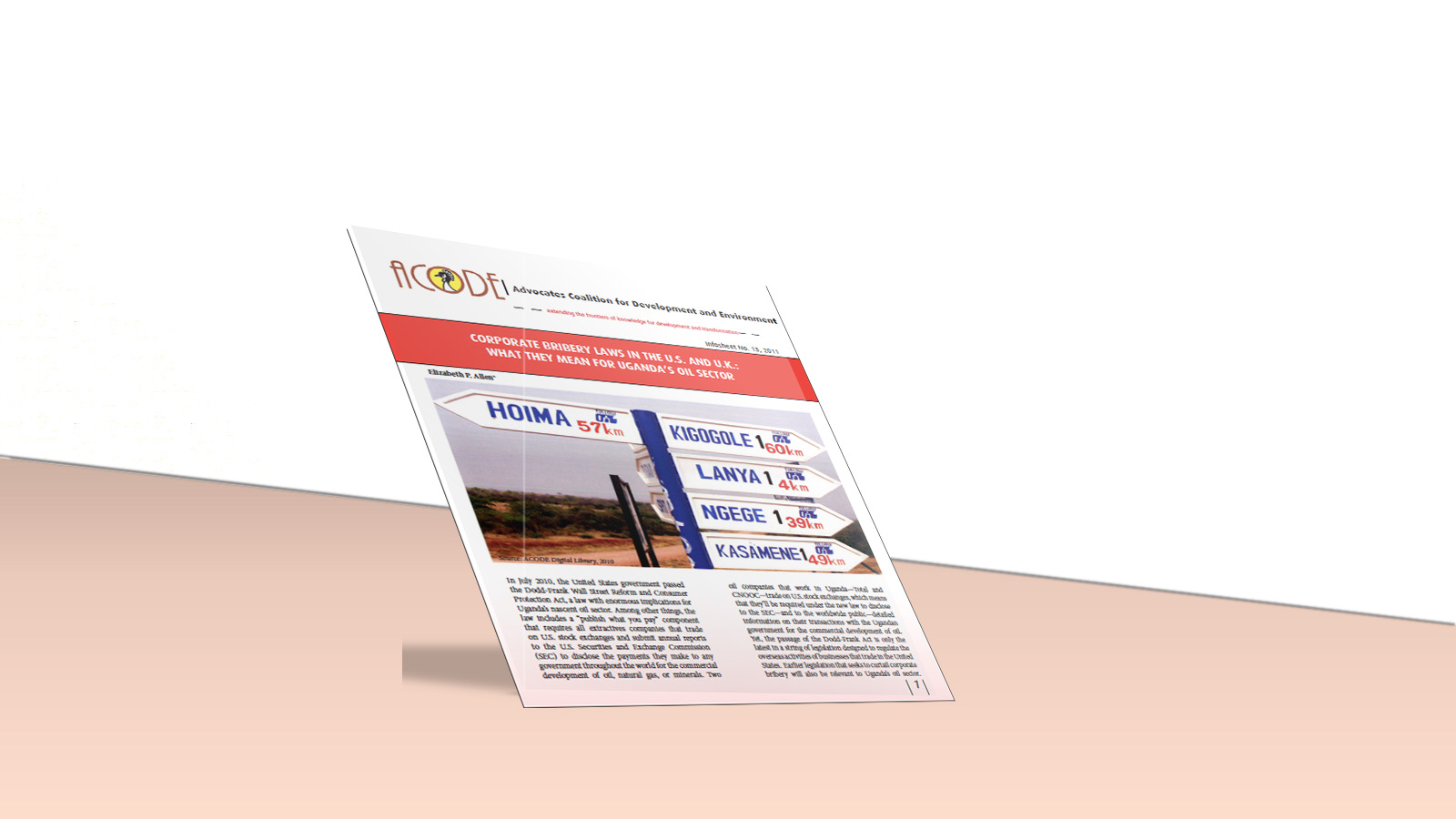
Corporate Bribery Laws In The U.S. And U.K.: What They Mean For Uganda’s Oil Sector
Author(s): Elizabeth P. Allen
Published: 2011
In July 2010, the United States government passed the Dodd-Frank Wall Street Reform and Consumer Protection Act, a law with enormous implications for Uganda’s nascent oil sector. Among other things, the law includes a “publish what you pay” component that requires all extractives companies that trade on U.S. stock exchanges and submit annual reports to the U.S. Securities and Exchange Commission (SEC) to disclose the payments they make to any government throughout the world for the commercial development of oil, natural gas, or minerals.
View PDF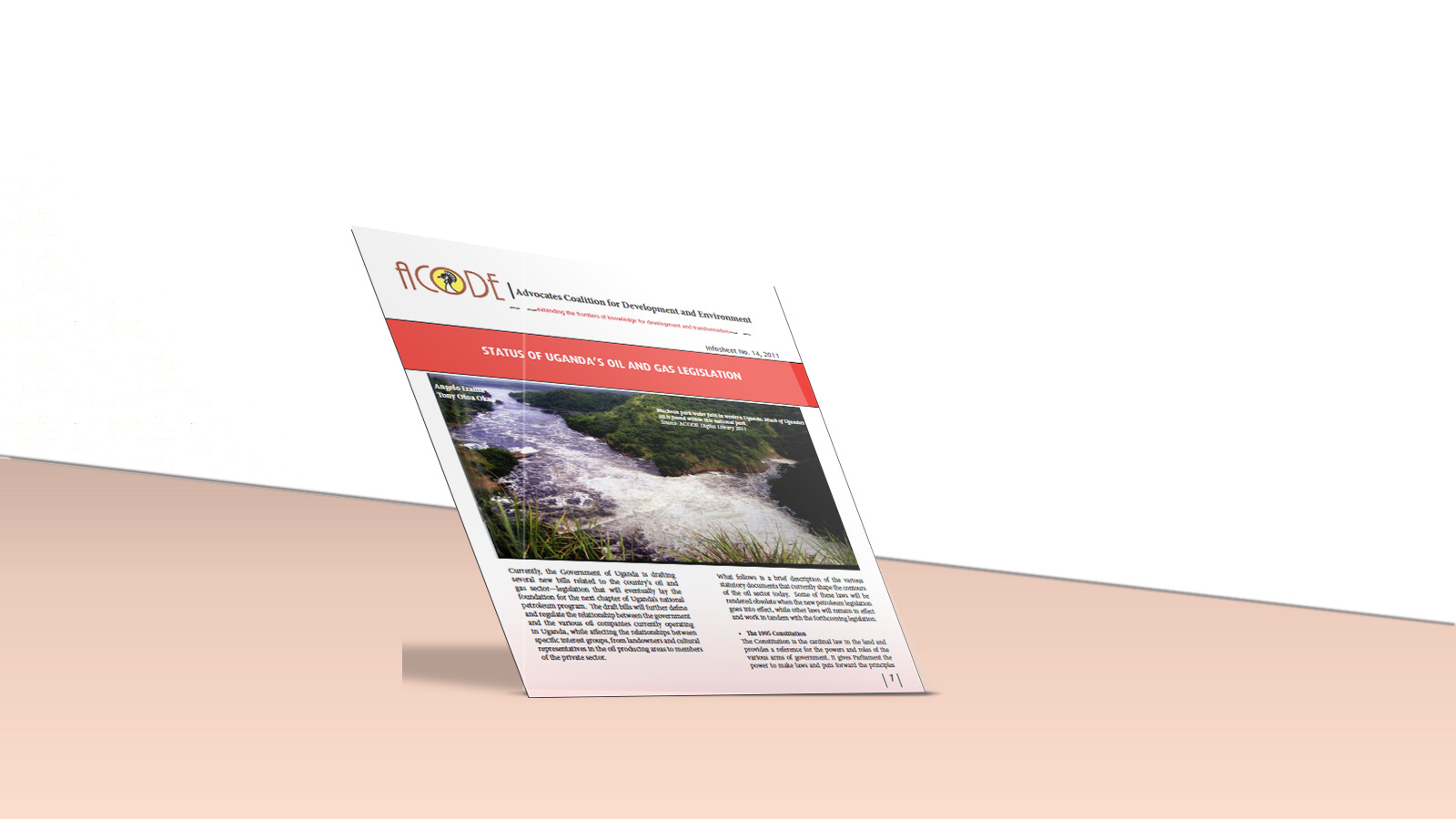
Status Of Uganda’s Oil And Gas Legislation
Author(s): Angelo Izama and Tony Otoa Okao
Published: 2011
The info-sheet highlights draft bills government of Uganda embarked on which will further define and regulate the relationship between the government and the various oil companies currently operating in Uganda, while affecting the relationships between specific interest groups, from landowners and cultural representatives in the oil producing areas to members of the private sector.
View PDF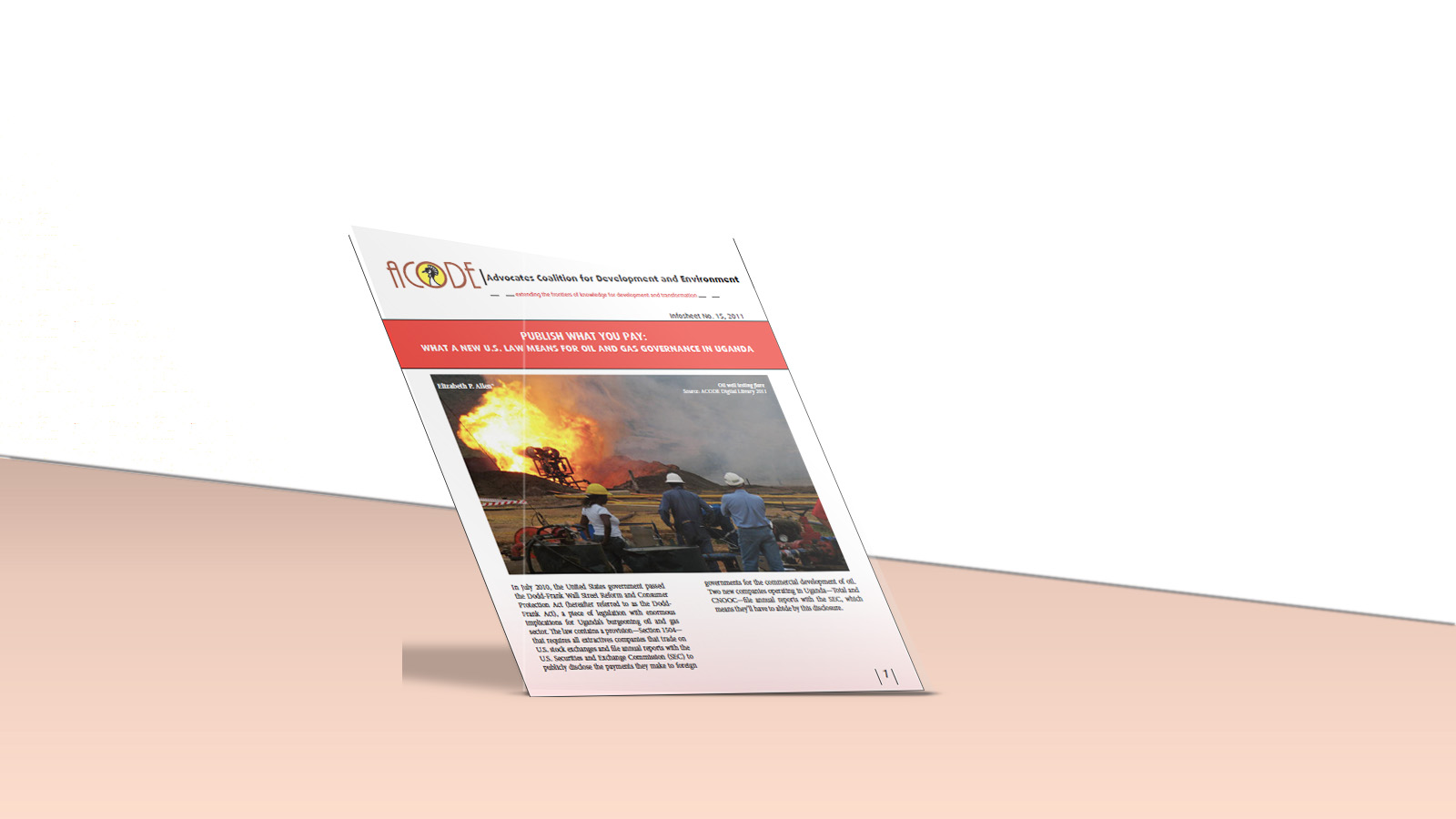
Publish What You Pay: What A New U.S. Law Means for Oil And Gas Governance In Uganda
Author(s): Elizabeth P. Allen
Published: 2011
The law contains a provision—Section 1504—that requires all extractives companies that trade on U.S. stock exchanges and file annual reports with the U.S. Securities and Exchange Commission (SEC) to publicly disclose the payments they make to foreign governments for the commercial development of oil.
View PDF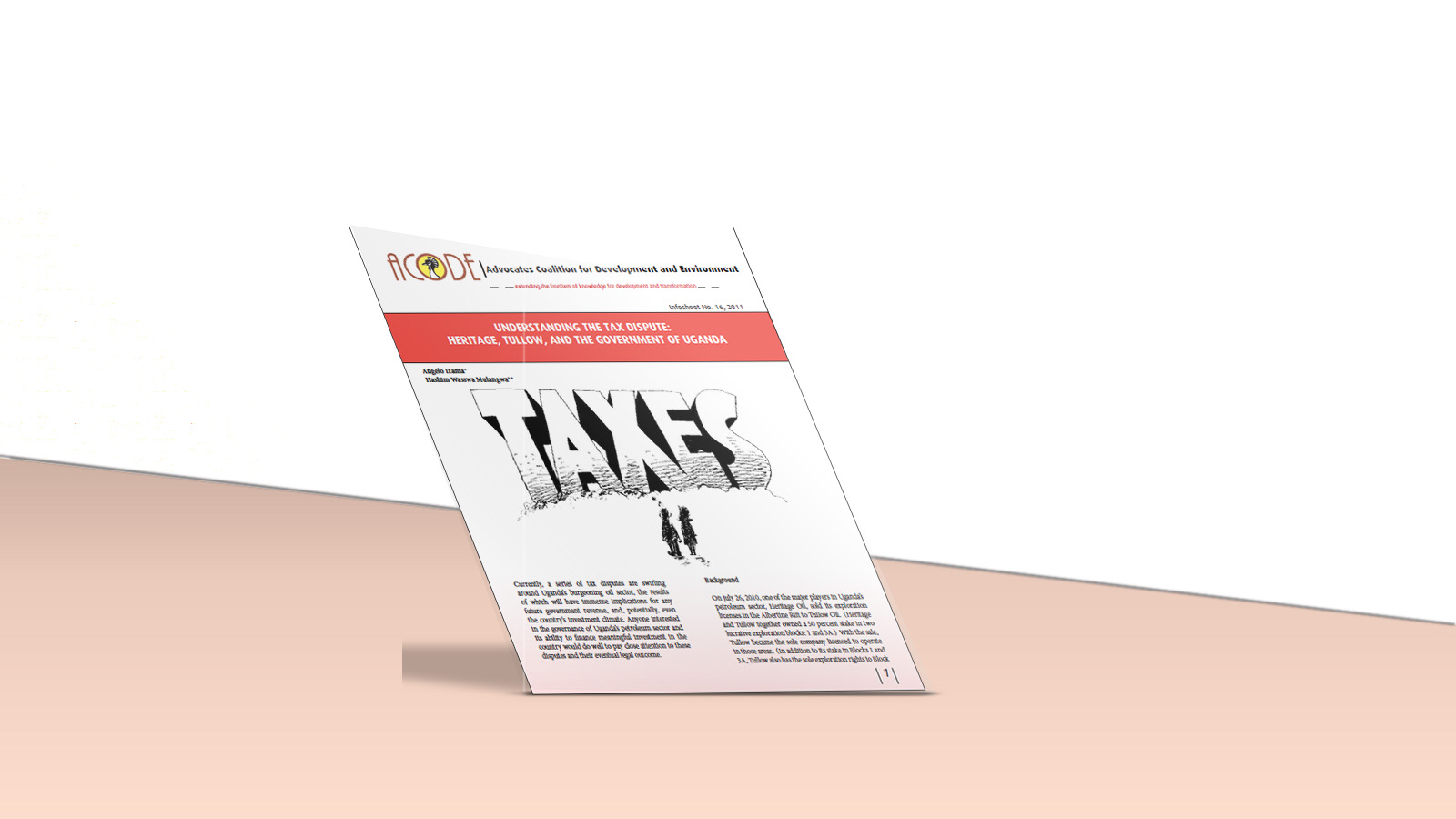
Understanding the Tax Dispute: Heritage, Tullow, and the Government Of Uganda
Author(s): Angelo Izama and Hashim Wasswa Mulangwa
Published: 2011
Currently, a series of tax disputes are swirling around Uganda’s burgeoning oil sector, the results of which will have immense implications for any future government revenue, and, potentially, even the country’s investment climate. Anyone interested in the governance of Uganda’s petroleum sector and its ability to finance meaningful investment in the country would do well to pay close attention to these disputes and their eventual legal outcome.
View PDF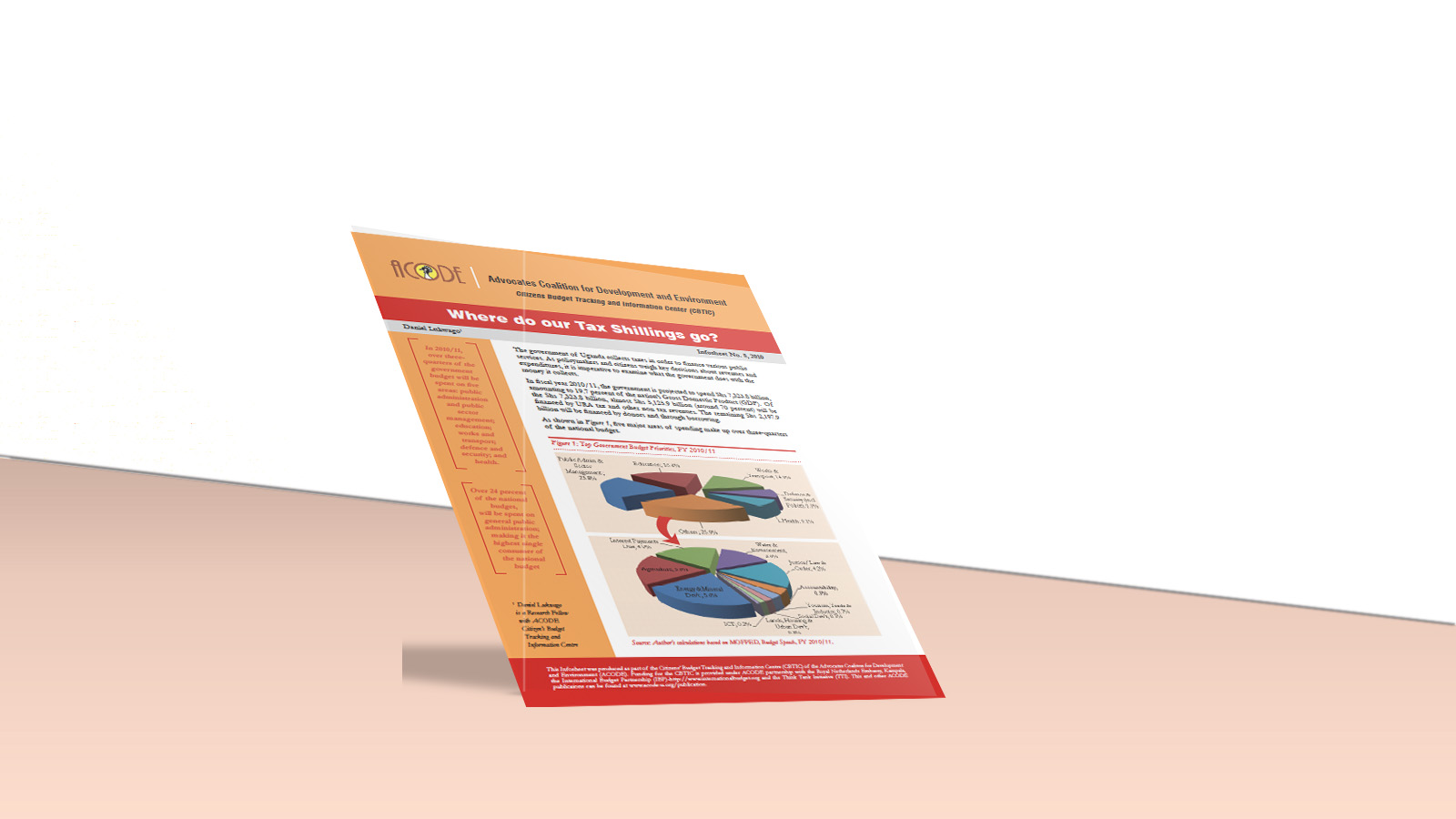
Where do our Tax Shillings go?
Author(s): Daniel Lukwago
Published: 2010
The info-sheet is based on estimates of spending in fiscal year 2010/11 on the most recent data released by the Ministry of Finance, Planning and Economic Development in the Budget Speech, FY 2010/11.
View PDF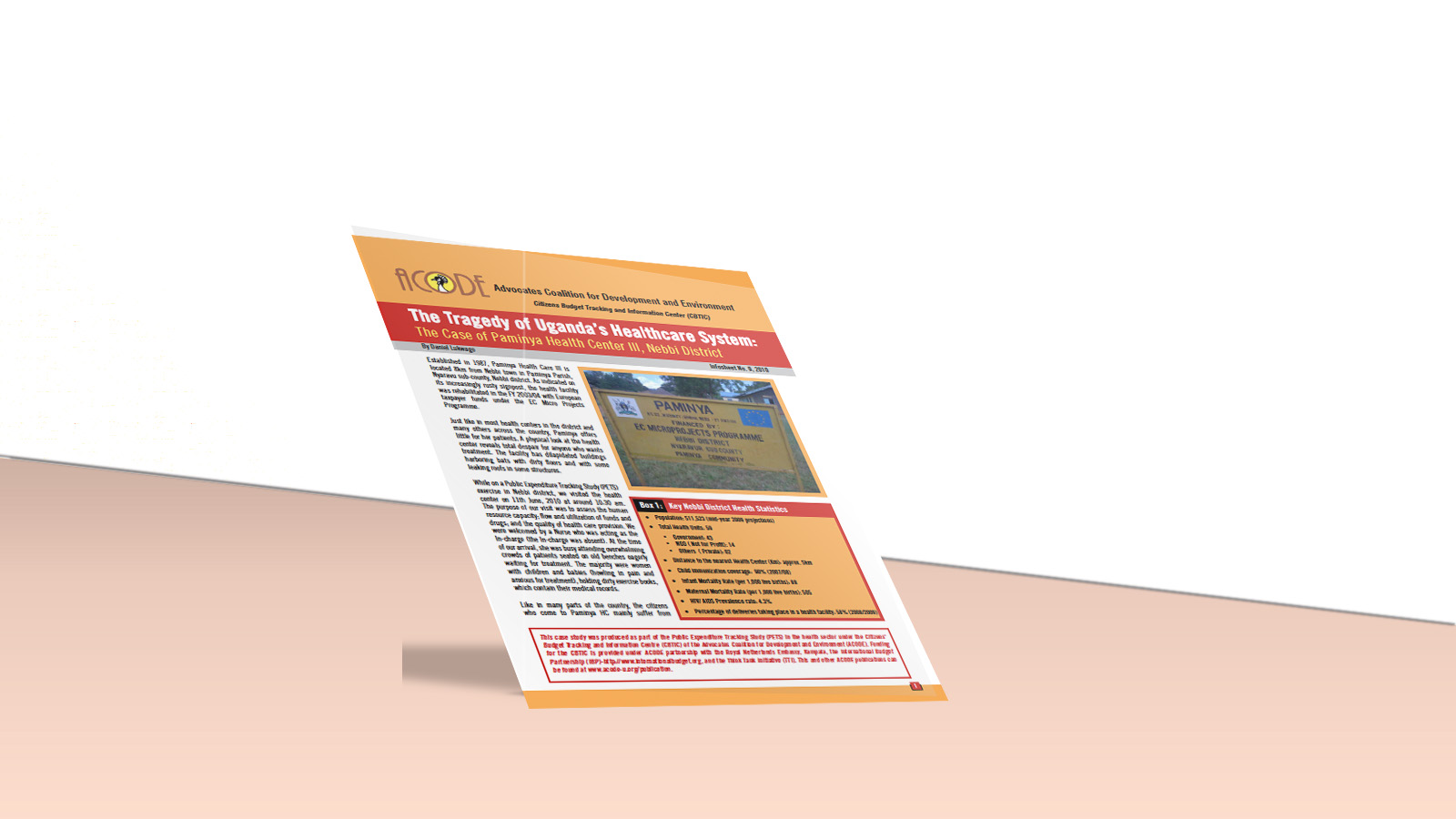
The Tragedy of Uganda’s Healthcare System: The Case of Paminya Health Center III, Nebbi District
Author(s): Daniel Lukwago
Published: 2010
This case study illustrates the numerous problems facing healthcare provision in Uganda. These include among others: poor funding of healthcare services; inadequacies in the national drug distribution, which leads to erratic drug distribution and minimal transparency in the utilization of drugs and medicines; chronic shortage of trained health workers especially at lower health centers, thus overworking the available ones; and lack of appropriate medical equipment.
View PDF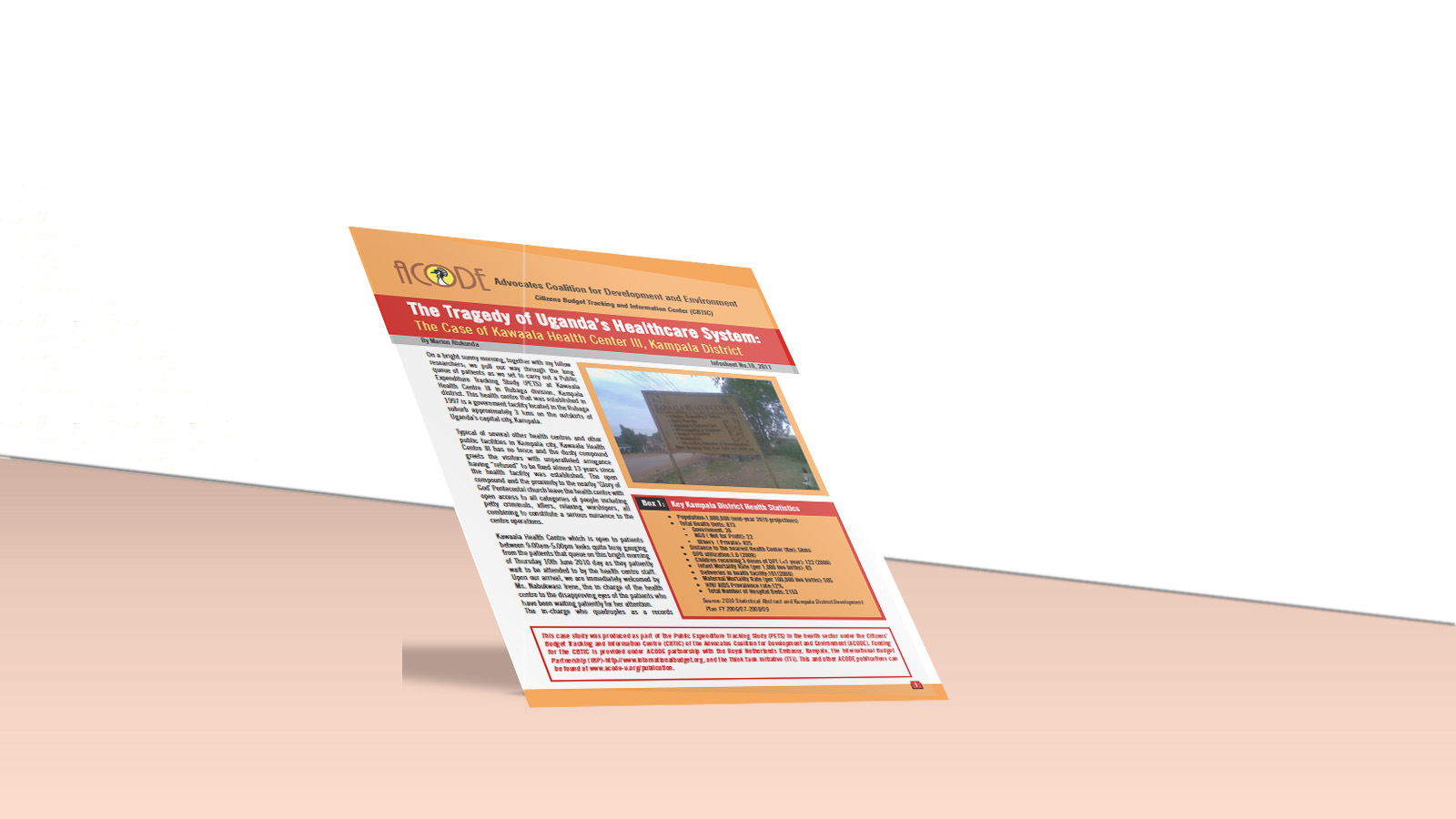
The Tragedy of Uganda’s Healthcare System: The Case of Kawaala Health Center III, Kampala District
Author(s): Marion Atukunda
Published: 2010
The situation at Kawaala is largely reflective of the general state of health services and health centres in the country. Generally Uganda’s health sector takes a small percentage of the national budget as can be illustrated in the table below. In the Abuja declaration, the African Leaders committed to spend 15% of their national budget on health.
View PDF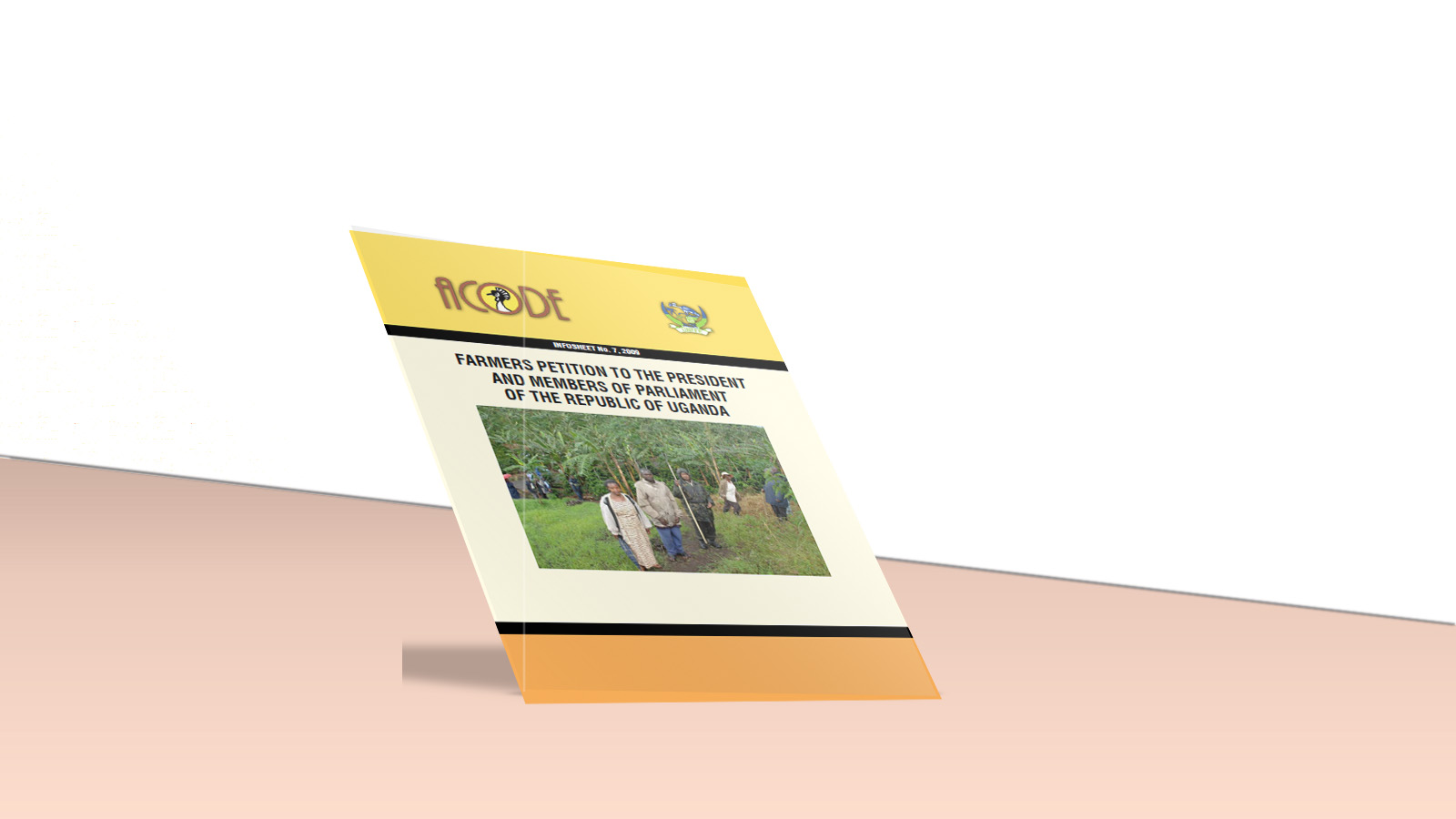
Farmers Petition To The President And Members Of Parliament Of The Republic Of Uganda
Author(s): ACODE
Published: 2009
This petition was presented to President of Uganda on behalf of Ugandan Farmers by the Uganda National Framers’ Federation (UNFFE) and the Advocates Coalition for Development and Environment (ACODE). The petition outlines the key problems facing Ugandan farmers, the key challenges facing the agriculture sector in the country, and our own proposals on what Government needs to do to address these problems and challenges.
View PDF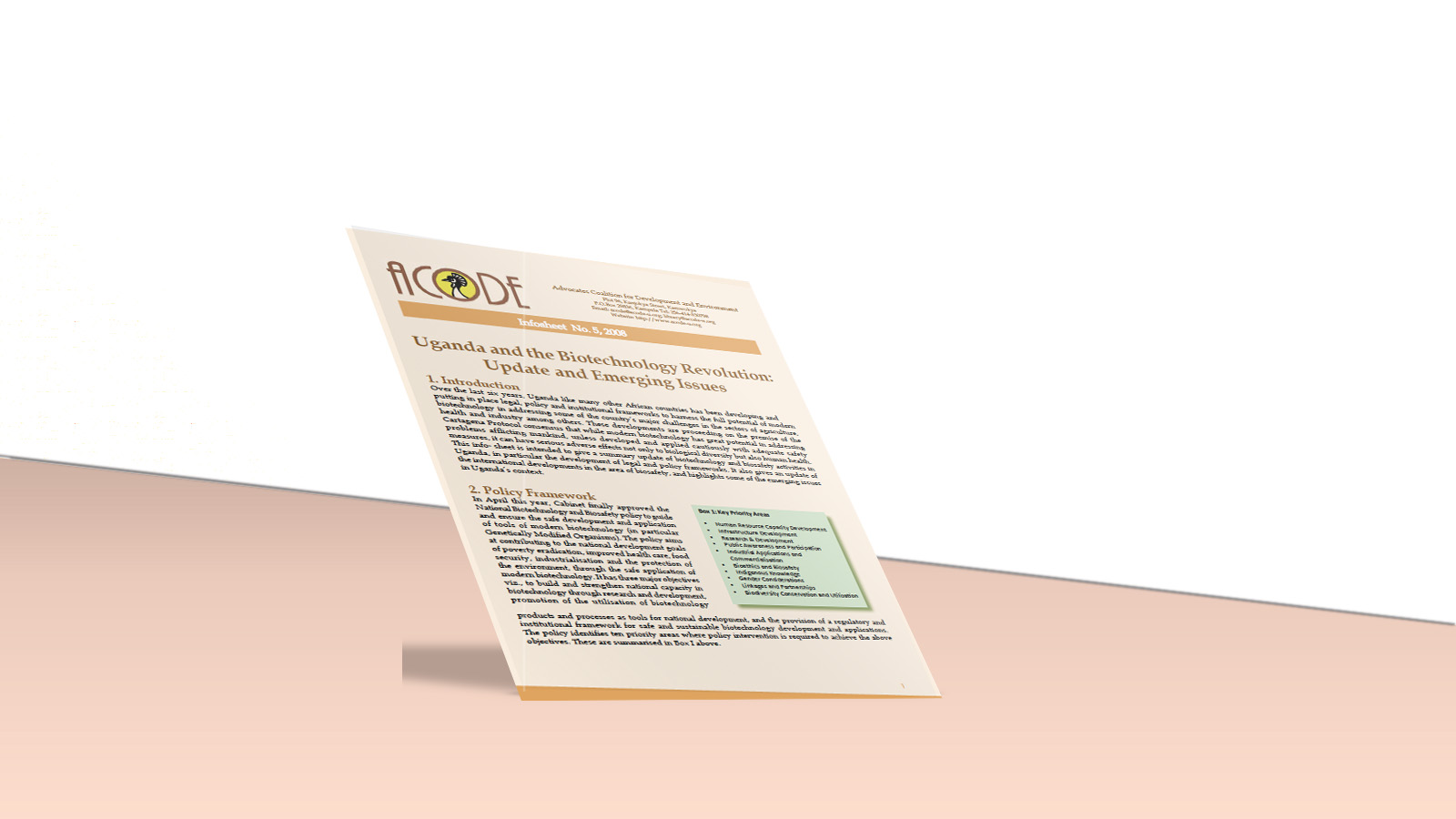
Uganda and the Biotechnology Revolution: Update and Emerging Issues
Author(s): ACODE
Published: 2008
This info- sheet is intended to give a summary update of biotechnology and biosafety activities in Uganda, in particular the development of legal and policy frameworks. It also gives an update of the international developments in the area of biosafety, and highlights some of the emerging issues in Uganda’s context.
View PDF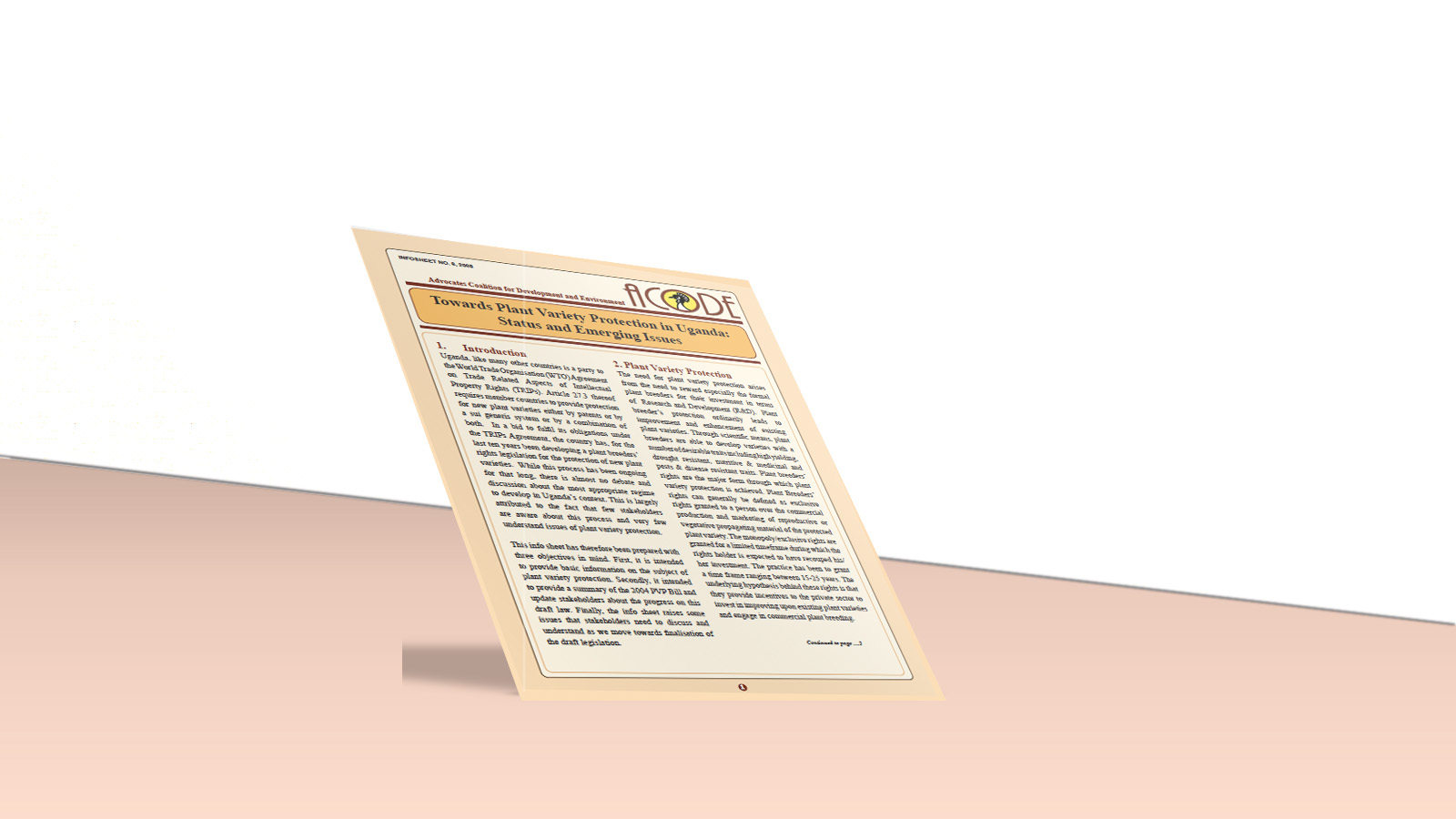
Towards Plant Variety Protection in Uganda: Status and Emerging Issues
Author(s): ACODE
Published: 2008
This info sheet has therefore been prepared with three objectives in mind. First, it is intended to provide basic information on the subject of plant variety protection. Secondly, it intended to provide a summary of the 2004 PVP Bill and update stakeholders about the progress on this draft law. Finally, the info sheet raises some issues that stakeholders need to discuss and understand as we move towards finalisation of the draft legislation.
View PDF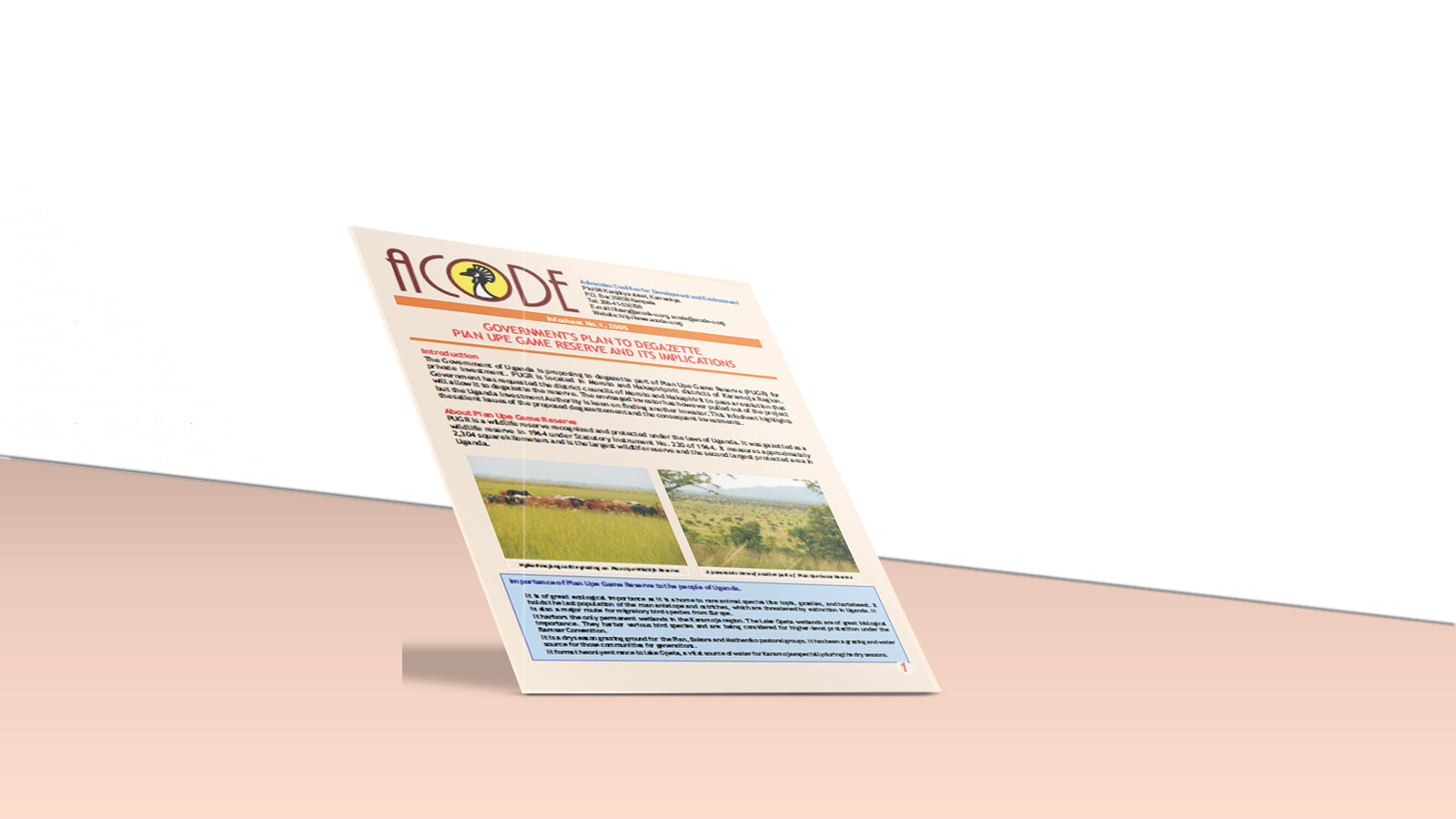
Government's Plan to Degazette Pian Upe Game Reserve and its Implications
Author(s): ACODE
Published: 2005
The info-sheet argues that the Government's plan to degazette Pian Upe game reserve will also distort the biological and ecological functions of the reserve, and will disrupt the migratory bird species in the area. It would set a bad precedent o f Government considering protected areas as lands available for appropriation especially when dealing with foreign investments.
View PDF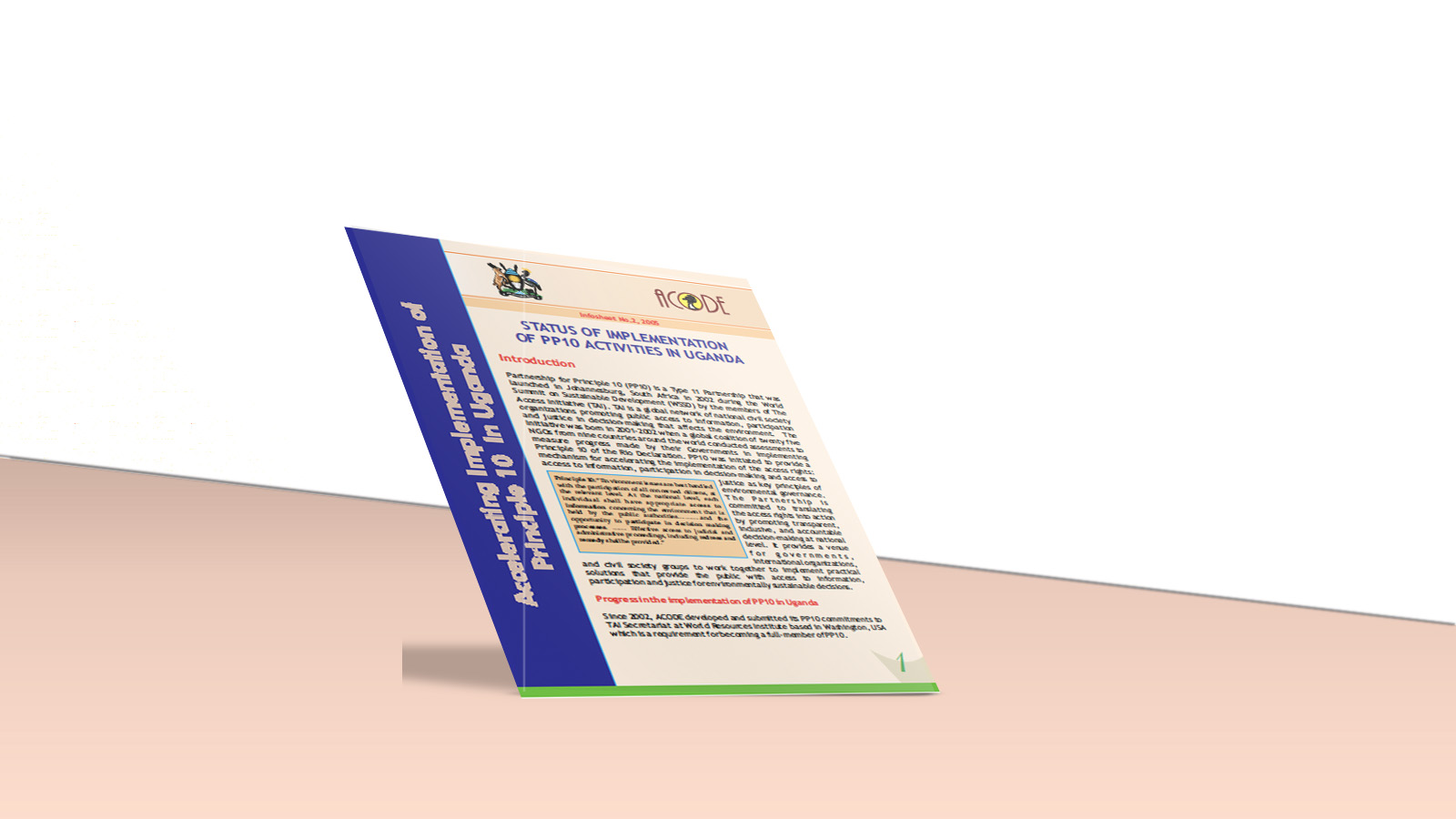
STATUS OF IMPLEMENTATION OF PP10 ACTIVITIES IN UGANDA
Author(s): ACODE
Published: 2005
The info-sheet provides a status update on the implementation of PP10 activities in Uganda. The PP10 provides a venue for governments, international organizations, and civil society groups to work together to implement practical solutions that provide the public with access to information, participation and justice for environmentally sustainable decisions.
View PDF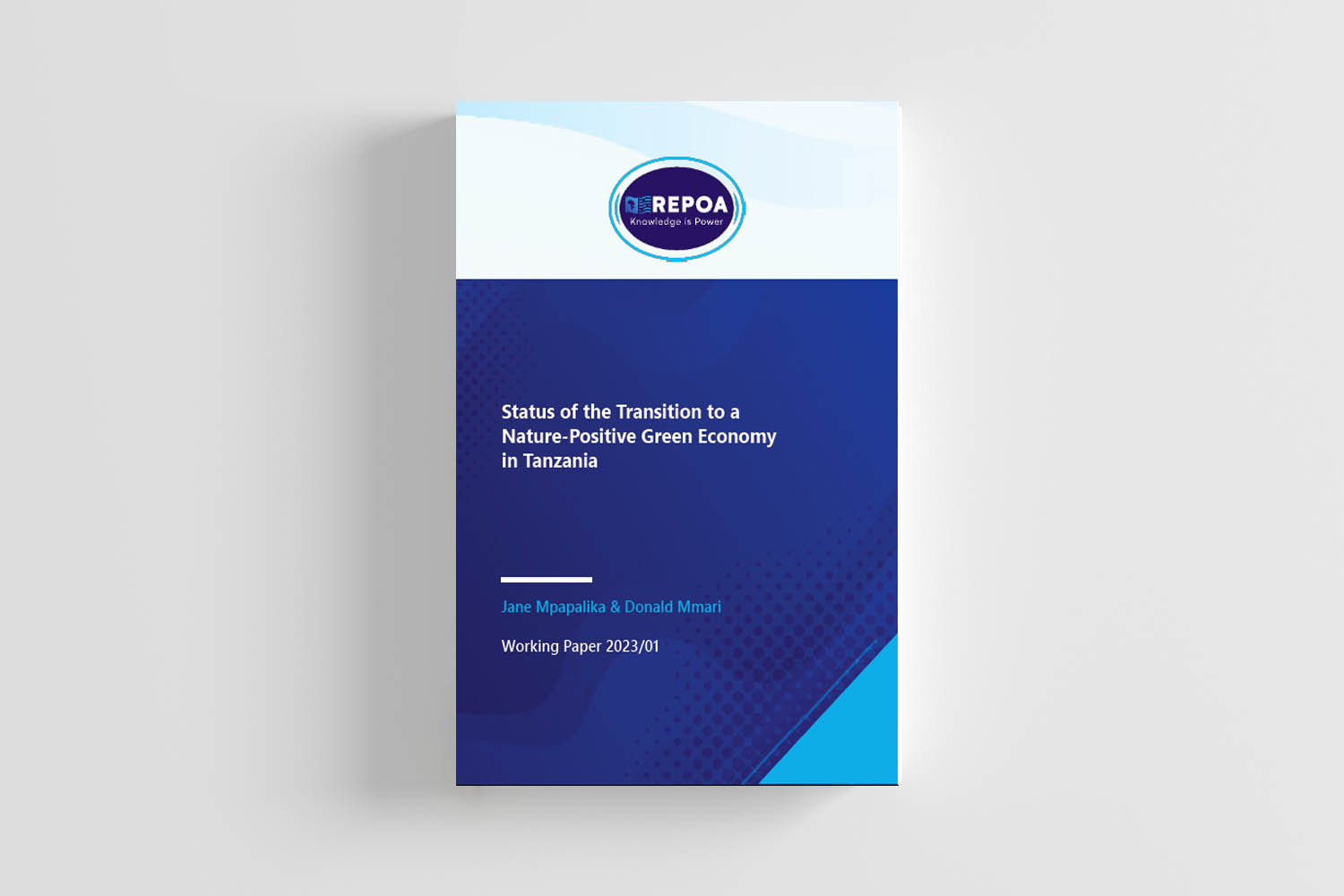
Status of the Transition to a Nature-Positive Green Economy in Tanzania
Author(s): Jane Mpapalika and Donald Mmari
Published: 2023
This paper assesses the status of the transition to a nature-positive green economy concerning energy transition and green economy initiatives in Tanzania. Nature positive green economy refers to natural resources and biodiversity, mainly renewable resources, and ecosystems. Owing to increasing climate change effects, countries have shifted from using fossil fuels oil, natural gas, and coal — to renewable energy sources like hydro, wind, geothermal solar, etc. Renewable energies are eco-friendly because they emit fewer greenhouse gases (GHGs) such as carbon dioxide and methane, that exacerbate climate change.
View PDF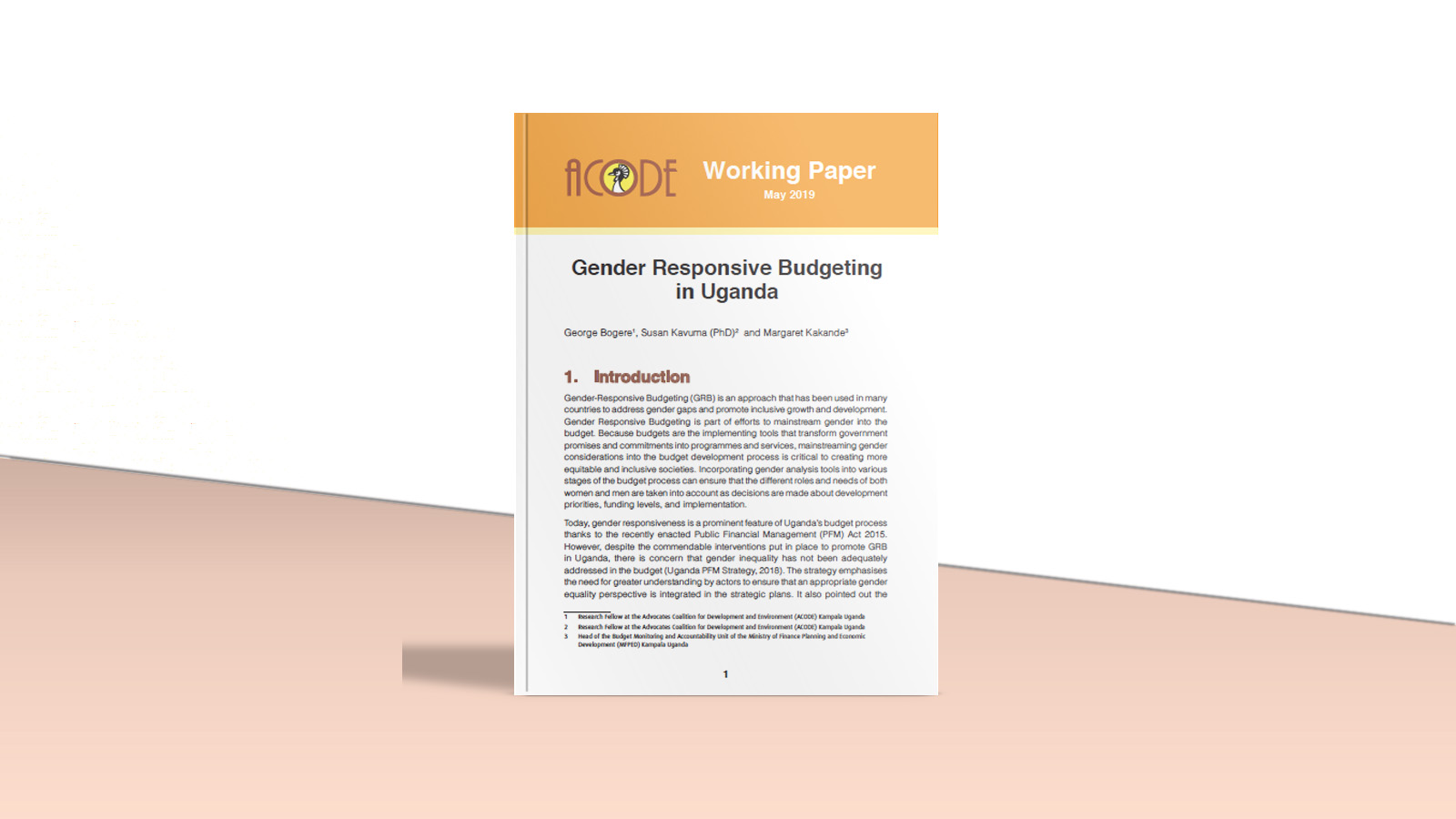
Gender Responsive Budgeting in Uganda
Author(s): George Bogere, Susan Kavuma, and Margaret Kakande
Published: 2019
Gender-Responsive Budgeting (GRB) is an approach that has been used in many countries to address gender gaps and promote inclusive growth and development. Gender Responsive Budgeting is part of efforts to mainstream gender into the budget. Because budgets are the implementing tools that transform government promises and commitments into programmes and services, mainstreaming gender considerations into the budget development process is critical to creating more equitable and inclusive societies. Incorporating gender analysis tools into various stages of the budget process can ensure that the different roles and needs of both women and men are taken into account as decisions are made about development priorities, funding levels, and implementation.
View PDF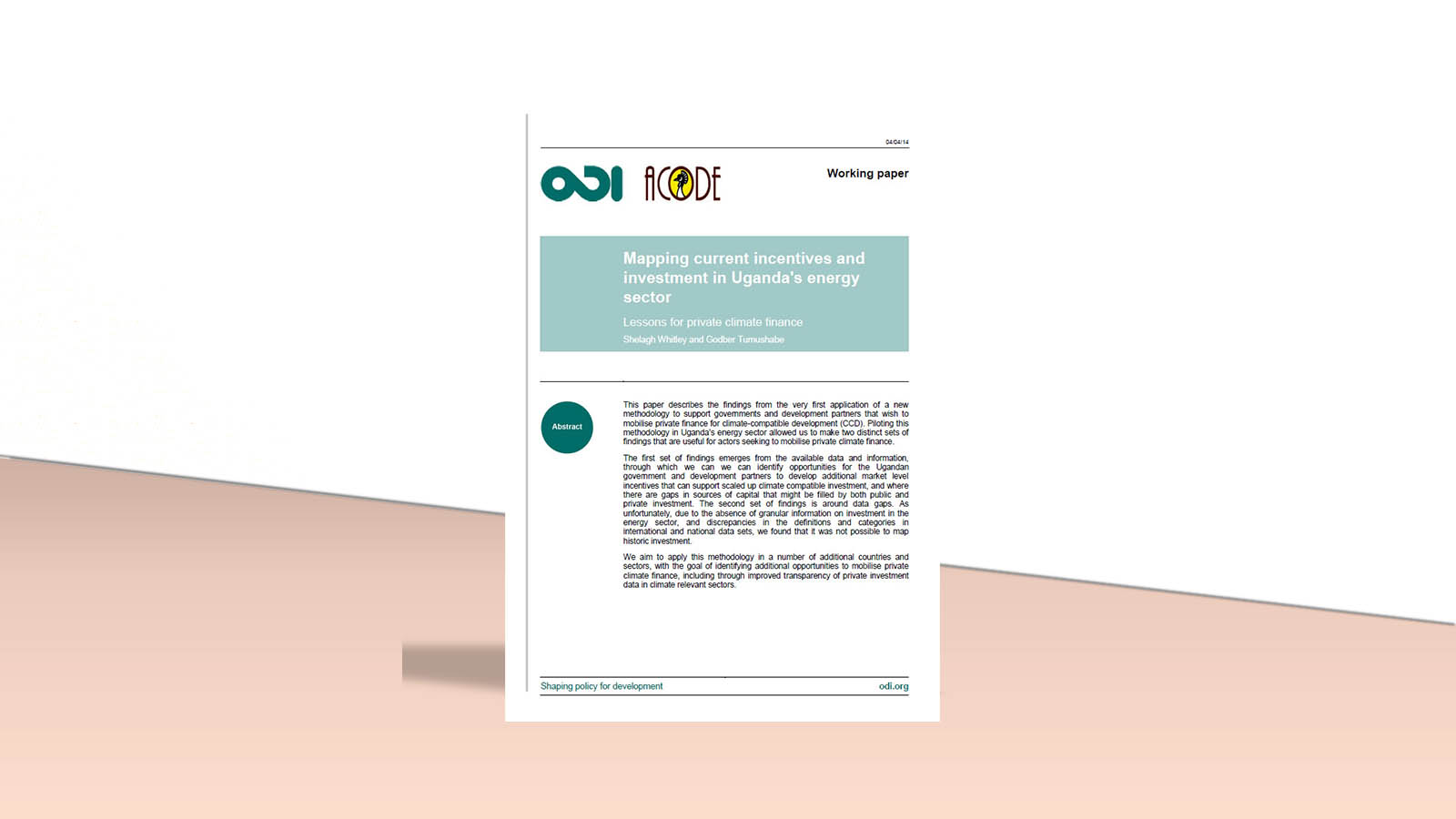
Mapping current incentives and investment in Uganda's energy sector: Lessons for private climate finance
Author(s): Shelagh Whitley and Godber Tumushabe
Published: 2014
This paper describes the findings from the very first application of a new methodology to support governments and development partners that wish to mobilise private finance for climate-compatible development (CCD). Piloting this methodology in Uganda’s energy sector allowed us to make two distinct sets of findings that are useful for actors seeking to mobilise private climate finance.
View PDF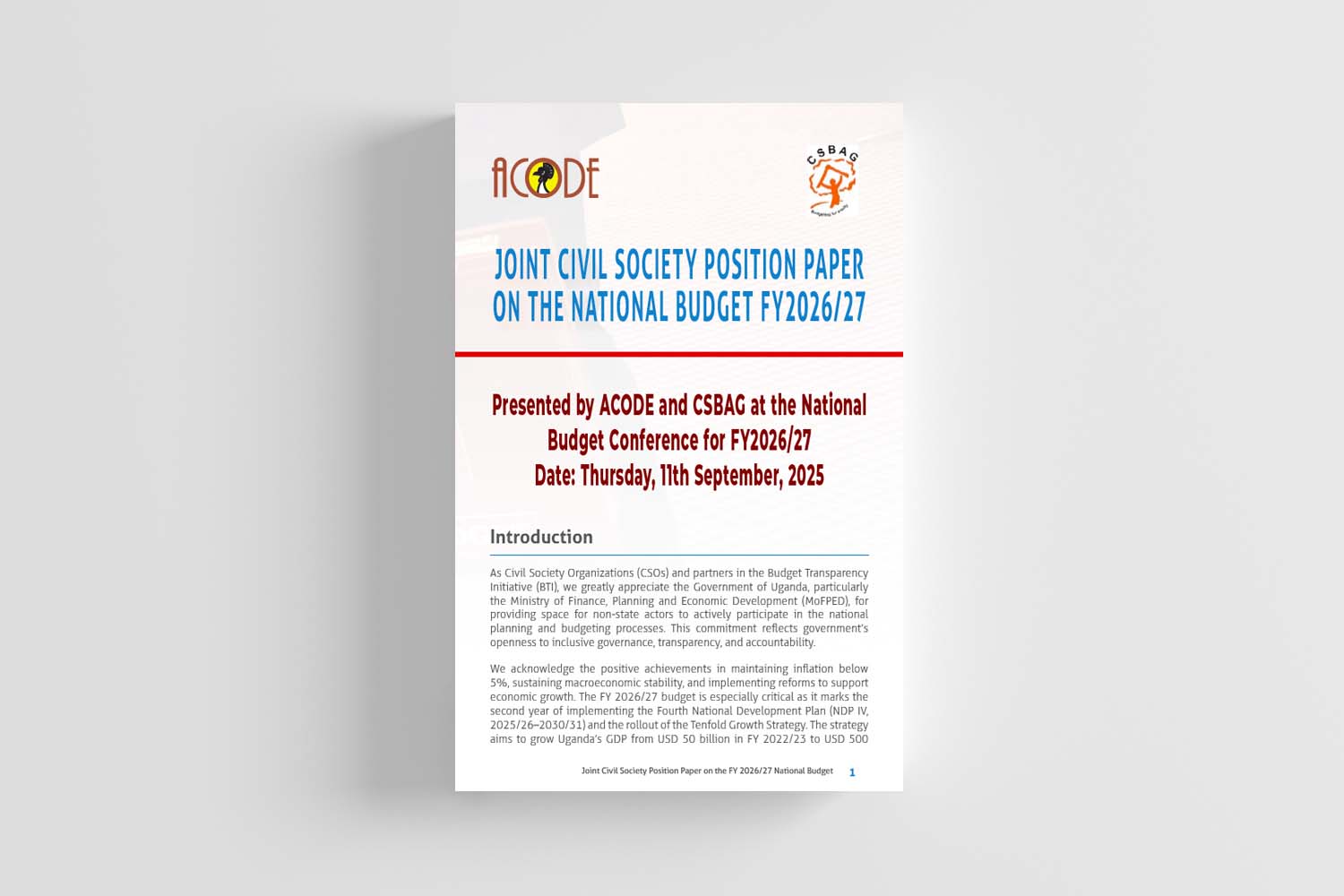
Joint CSO Position Paper on the National Budget Conference for FY2026/27
Author(s): ACODE and CSBAG
Published: 2025
This joint paper by ACODE and CSBAG highlights key challenges and opportunities, backed by evidence and citizen voices, and provides recommendations to ensure that the FY 2026/27 budget delivers inclusive, equitable, and sustainable development.
View PDF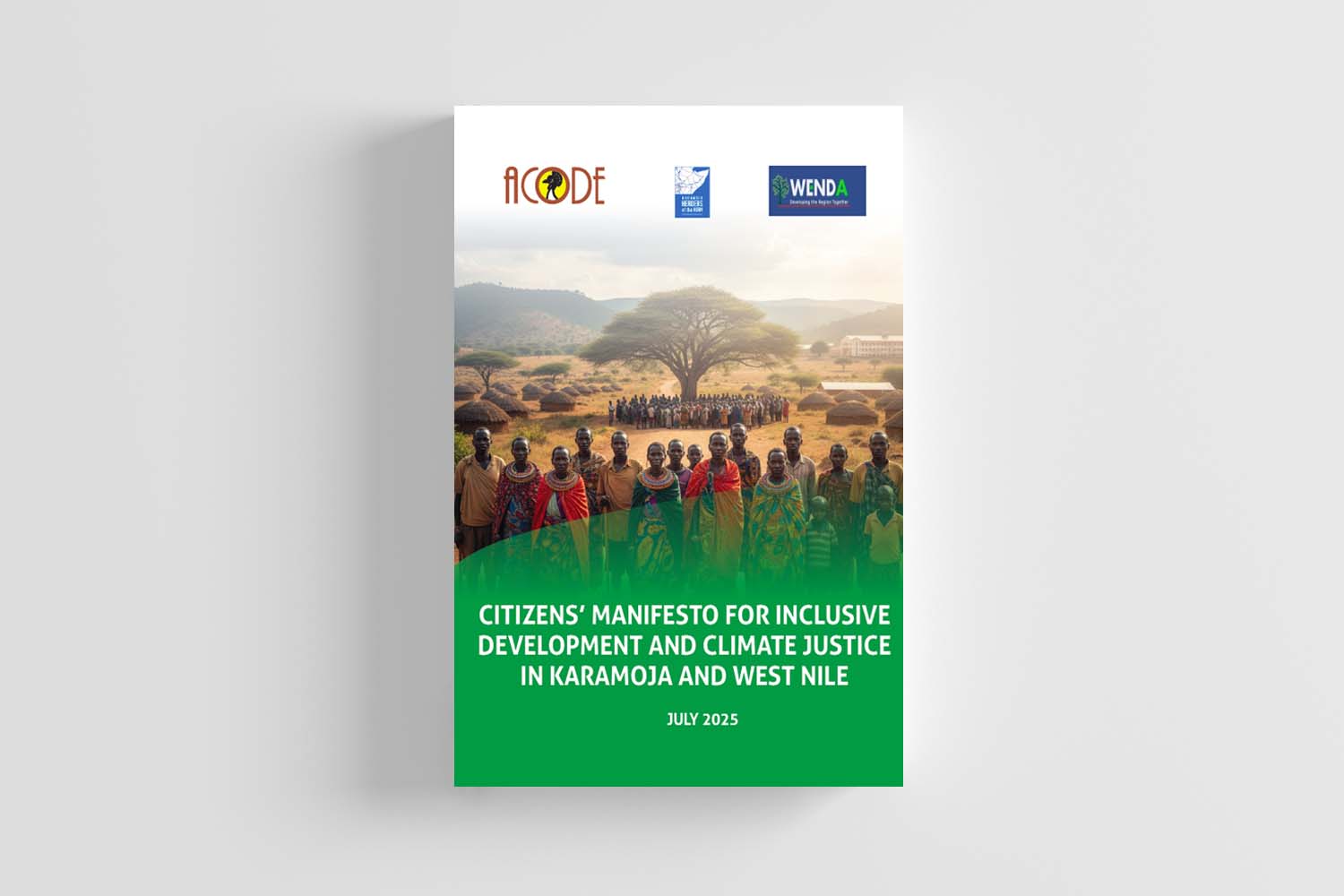
Citizens’ Manifesto for Inclusive Development and Climate Justice in Karamoja and West Nile
Author(s): ACODE, WENDA, and KHH
Published: 2025
This Citizens Manifesto is anchored in the Constitution of the Republic of Uganda (1995). This Manifesto requires that the state adopts an integrated and coordinated planning approach, takes necessary measures to bring about balanced development of the different areas and between rural and urban areas in Uganda; and takes special measures in favour of least developed areas.1 It is aligned with Vision 2040 lays out a long-term framework for “A Transformed Ugandan Society from a Peasant to a Modern and Prosperous Country within 30 years.”
View PDF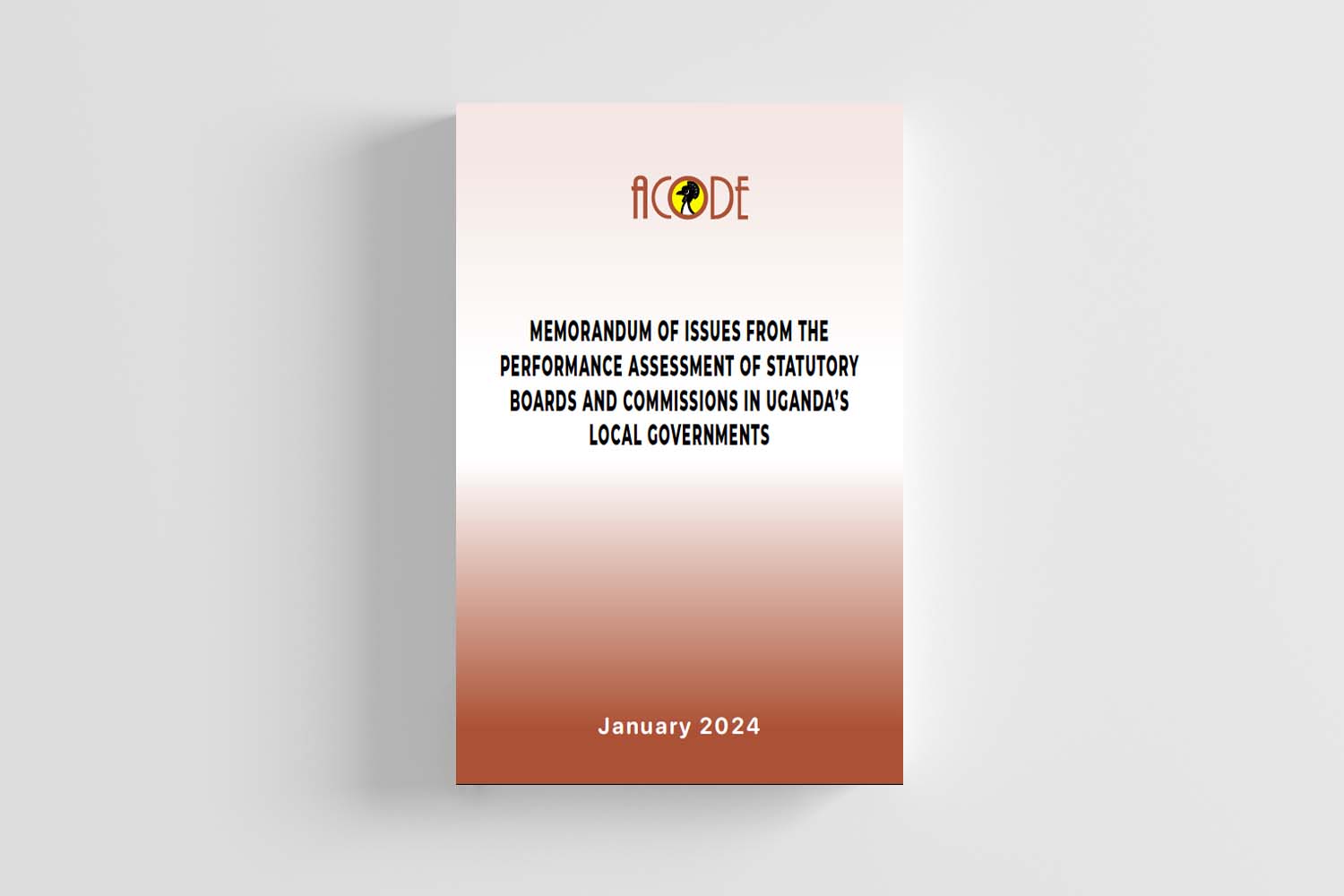
Memorandum of Issues from the Performance Assessment of Statutory Boards and Commissions in Uganda’s Local Governments
Author(s): ACODE
Published: 2024
This memorandum is presented to the Minister of Local Government. It highlights several issues generated from an ACODE recent study titled “Beyond Compliance: A Performance Assessment of Statutory Boards and Commissions in Uganda’s Local Governments FY2021/2022.” The memorandum seeks to contribute to the improved performance of statutory boards and commissions at the local government level. This memorandum is based on the assessment of Statutory Boards and Commissions carried out for the Financial Year 2021/2022. This is very timely given the fact that the Ministry of Local Government (MoLG) is about to undertake a review of the Decentralization Policy in Uganda.
View PDF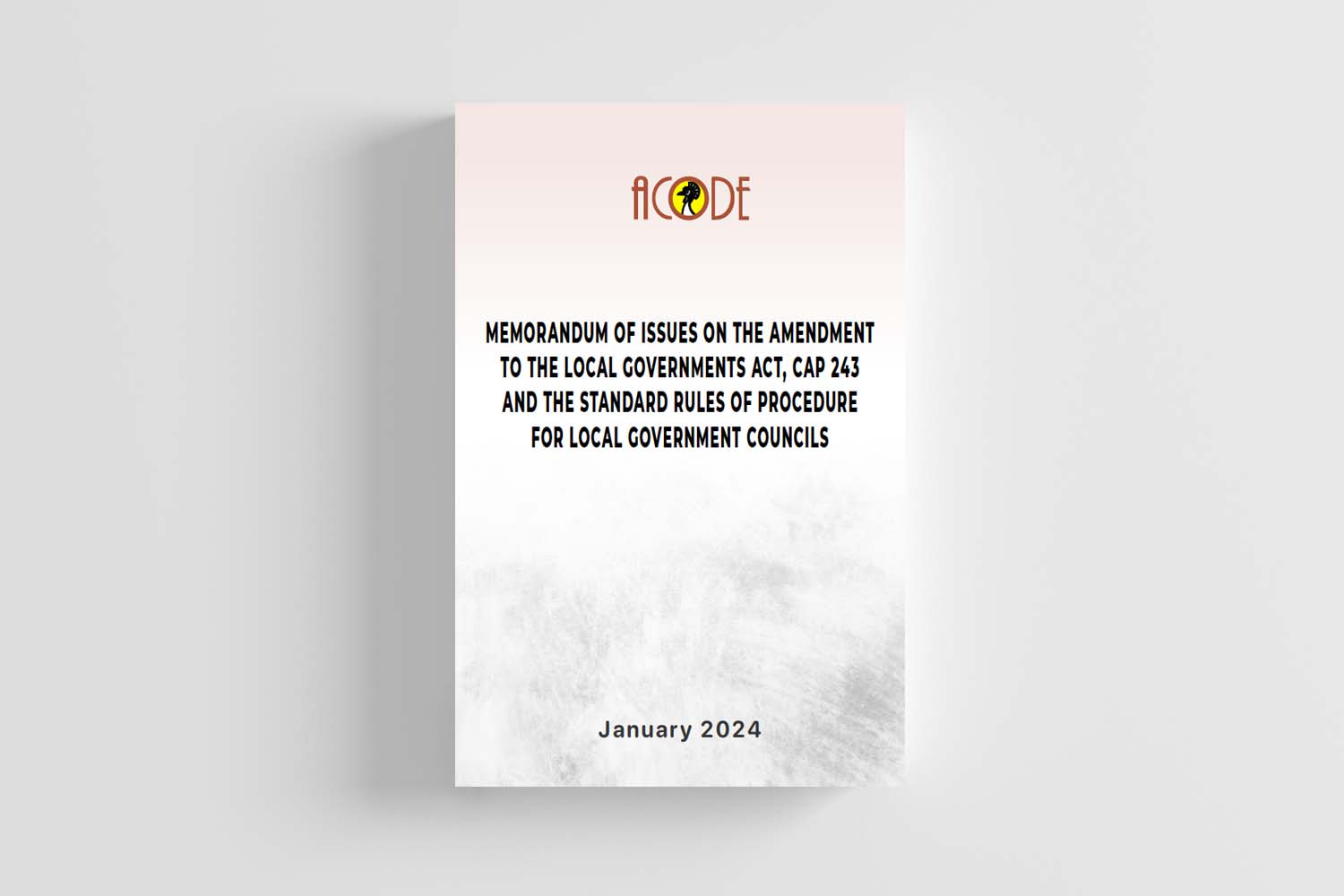
MEMORANDUM OF ISSUES ON THE AMENDMENT TO THE LOCAL GOVERNMENTS ACT, CAP 243 AND THE STANDARD RULES OF PROCEDURE FOR LOCAL GOVERNMENT COUNCILS
Author(s): ACODE
Published: 2024
This memorandum is developed based on the work and experience of the ACODE. The memorandum seeks to contribute to discussions and processes targeting the amendment of the Local Governments Act, Cap. 243 (LGA). The memorandum is informed by research, capacity building, and outreach interventions that ACODE and partners have implemented in Local Governments over the years.
View PDF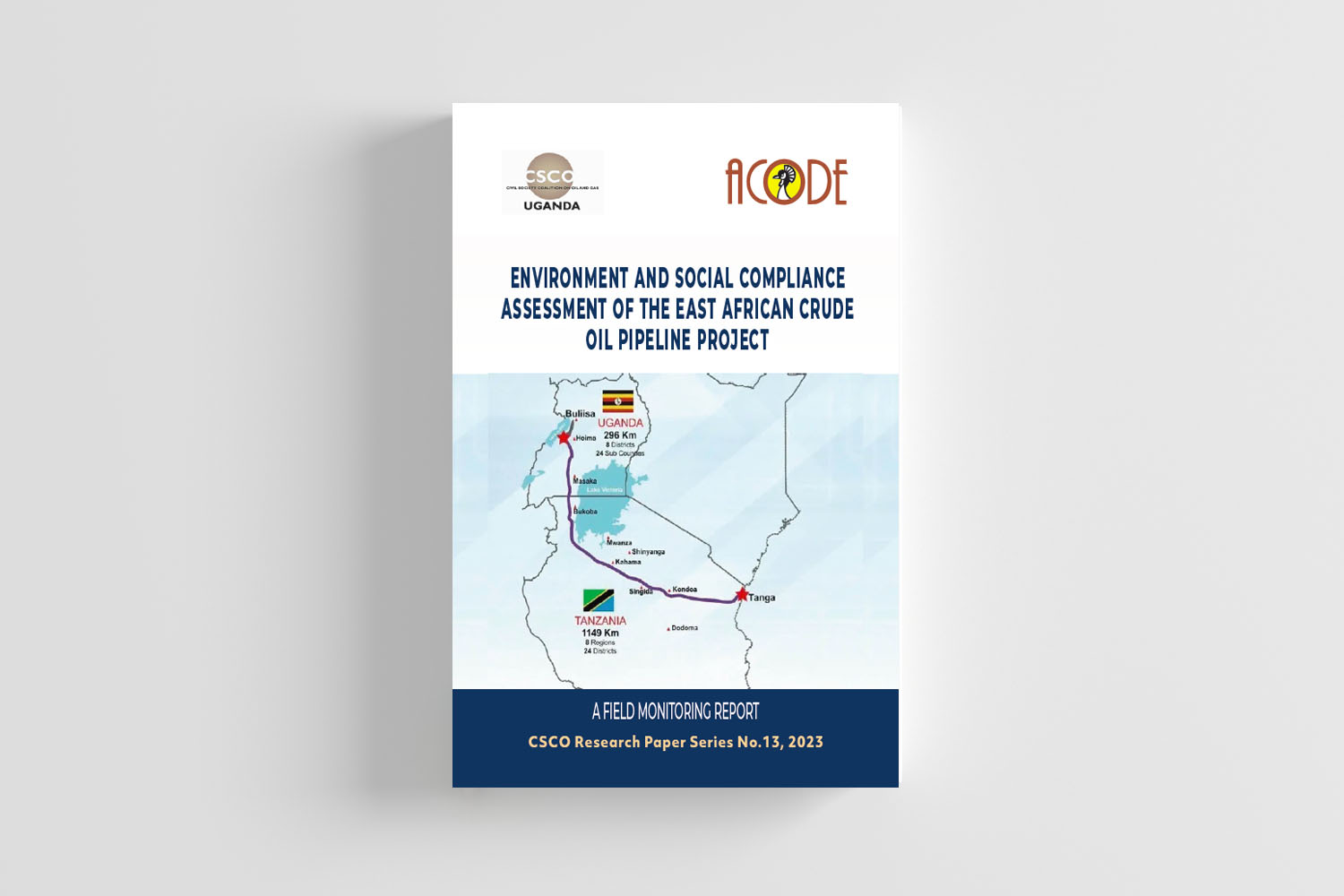
Environment and Social Compliance Assessment of the East African Crude Oil Pipeline Project: A Field Monitoring Report
Author(s): CSCO and ACODE
Published: 2024
This report presents the background, purpose of the field monitoring, methodology, key findings, conclusions, and recommendations to improve compliance. The monitoring exercise assessed the extent to which the EACOP project was complying with the requirements and provisions of relevant national laws in Uganda, international petroleum best industry practices and standards, and project-specific resettlement action plans. The monitoring also assessed the extent to which the EACOP project was adhering to the conditions outlined in the Environment and Social Impact assessment certificate. The field monitoring exercise covered key aspects of waste management, health and safety, biodiversity, restoration, compensation, livelihood enhancement, and community protection. The monitoring exercise was rapid and covered selected sites where activities and installations are planned to be done. The monitoring visit was organized in partnership with EACOP. It took place between the 14th - 17th of July 2023 covering the districts of Hoima, Kikuube, Kakumiro, Kyankwanzi, Gomba, Mubende, Lwengo, Ssembabule, Rakai, and Kyotera. During the exercise, the CSCO monitoring team was able to observe and appreciate the developments on the project sites. The team took note of concerns about the requirements of the laws, policies, and plans, and participated in the CSCO reflection meeting that synthesized the observations into a CSCO report.
View PDF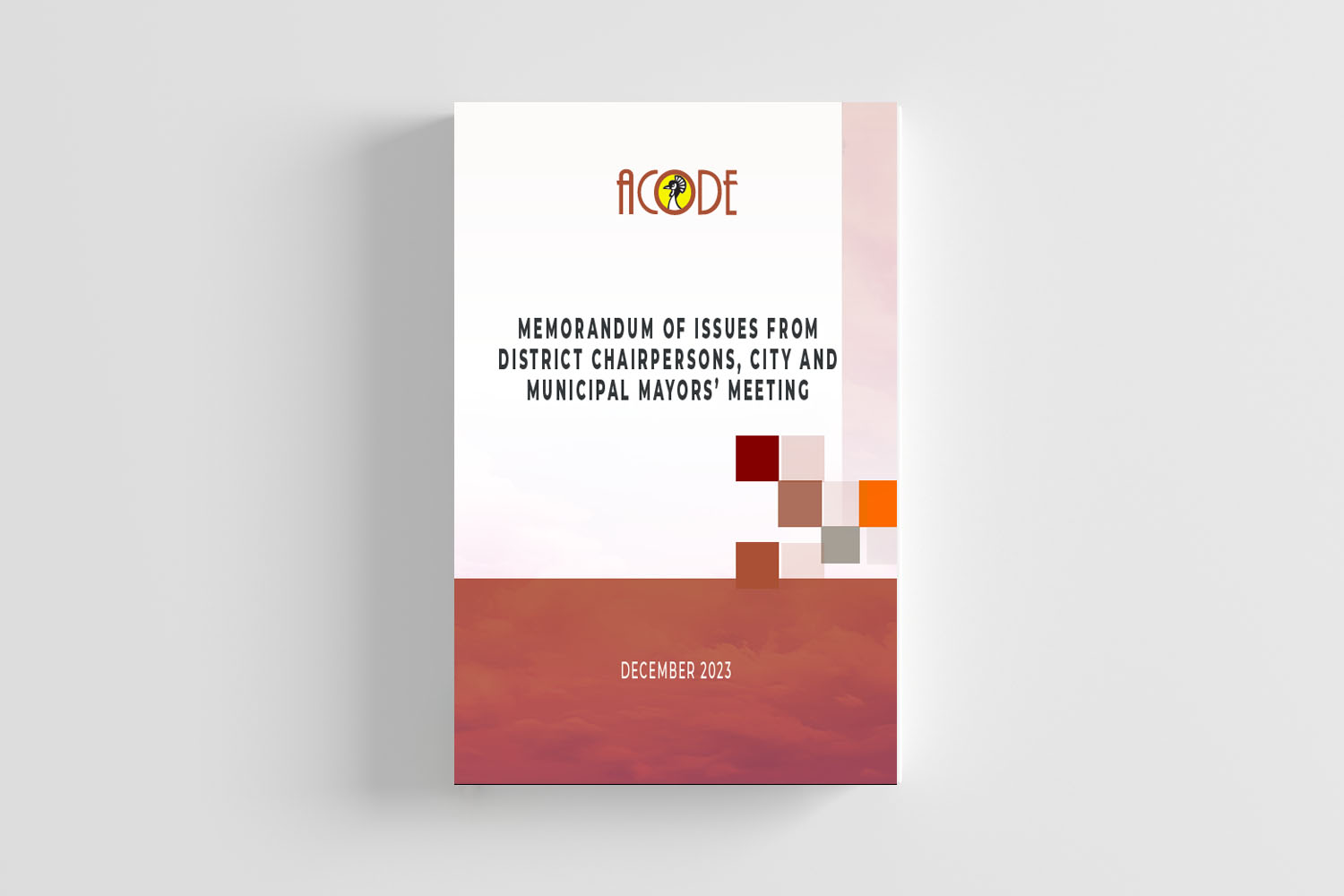
Memorandum of Issues from District Chairpersons, City and Municipal Mayors' Meeting
Author(s): ACODE
Published: 2024
This policy memo presents a memorandum of issues generated from a quarterly meeting of district chairpersons, and city and municipal mayors organized by the Ministry of Local Government with support from ACODE that took place on 15th December 2023 at the Imperial Royal Hotel. The overall objective of the meeting was to share experiences on issues affecting service delivery at the local government level and propose appropriate strategies to address such issues. The specific objectives were; (i) to dialogue and thus bridge the gap between the Ministries Departments and Agencies (MDAs) and the District, City, Municipal political leaders; (ii) to bring together district political leaders from all parts of the country to share experiences and learn from each other; (iii) to propose strategies for improving service delivery under decentralization; and (iv) to interact with government agencies and get updates on key policy program interventions and reforms in government. This policy memo seeks to contribute to the improved performance of local governments and service delivery.
View PDF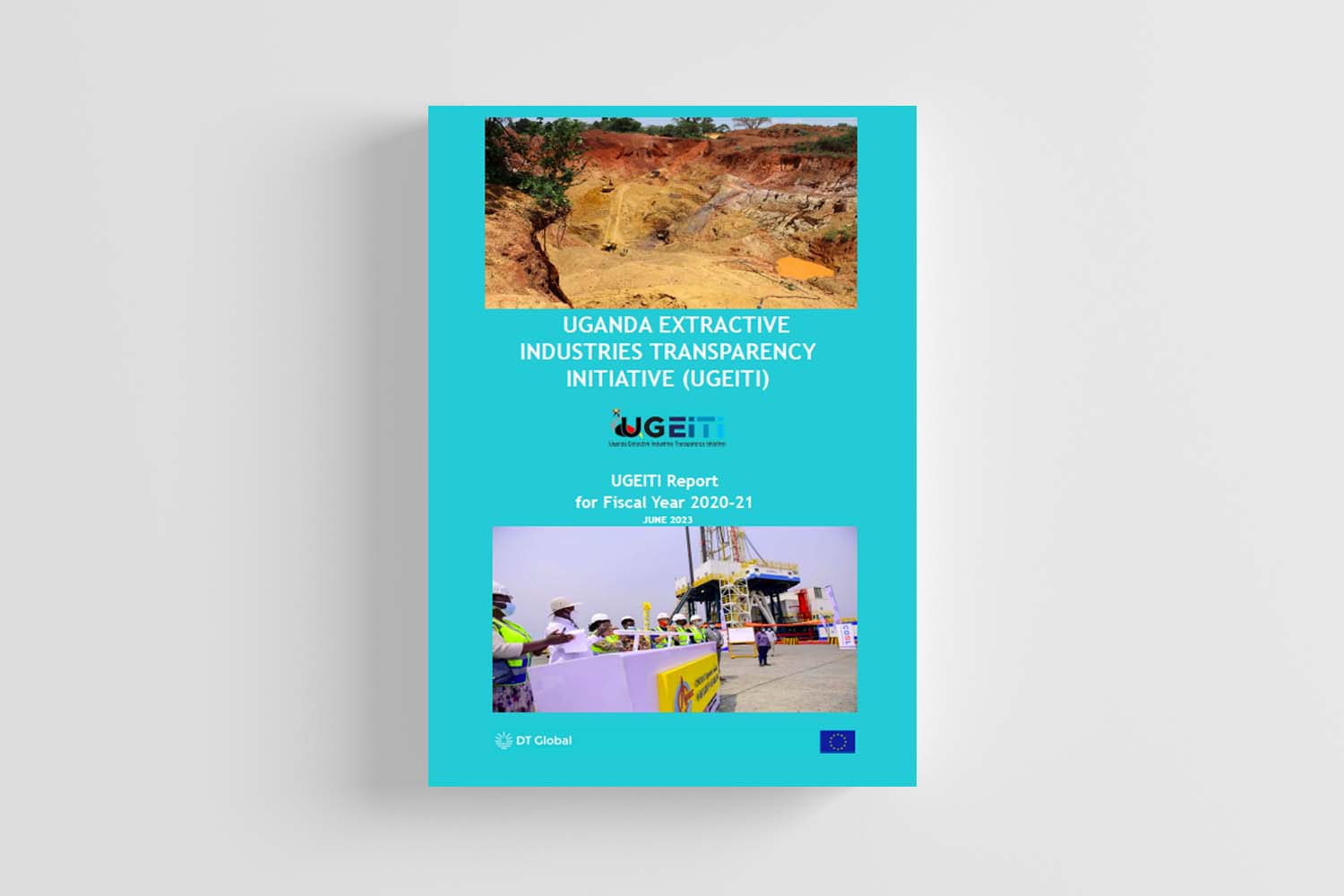
Uganda Extractive Industries Transparency Initiative Report for Fiscal Year 2020-21
Author(s): DT Global
Published: 2023
This report covers payments made by extractive entities and revenues received by Government Agencies and other material payments and benefits to Government Agencies as stated by Requirement 4.1 of the 2019 EITI Standard. It also includes contextual information about the extractive industries in accordance with EITI Requirements 2, 3, 4, 5, and 6. This information includes a summary description of the legal framework and fiscal regime, an overview of the extractive sector, the extractive industries’ contribution to the economy, production data, the State’s shareholding in extractive entities, revenue allocations, license registers, and license allocations.
View PDF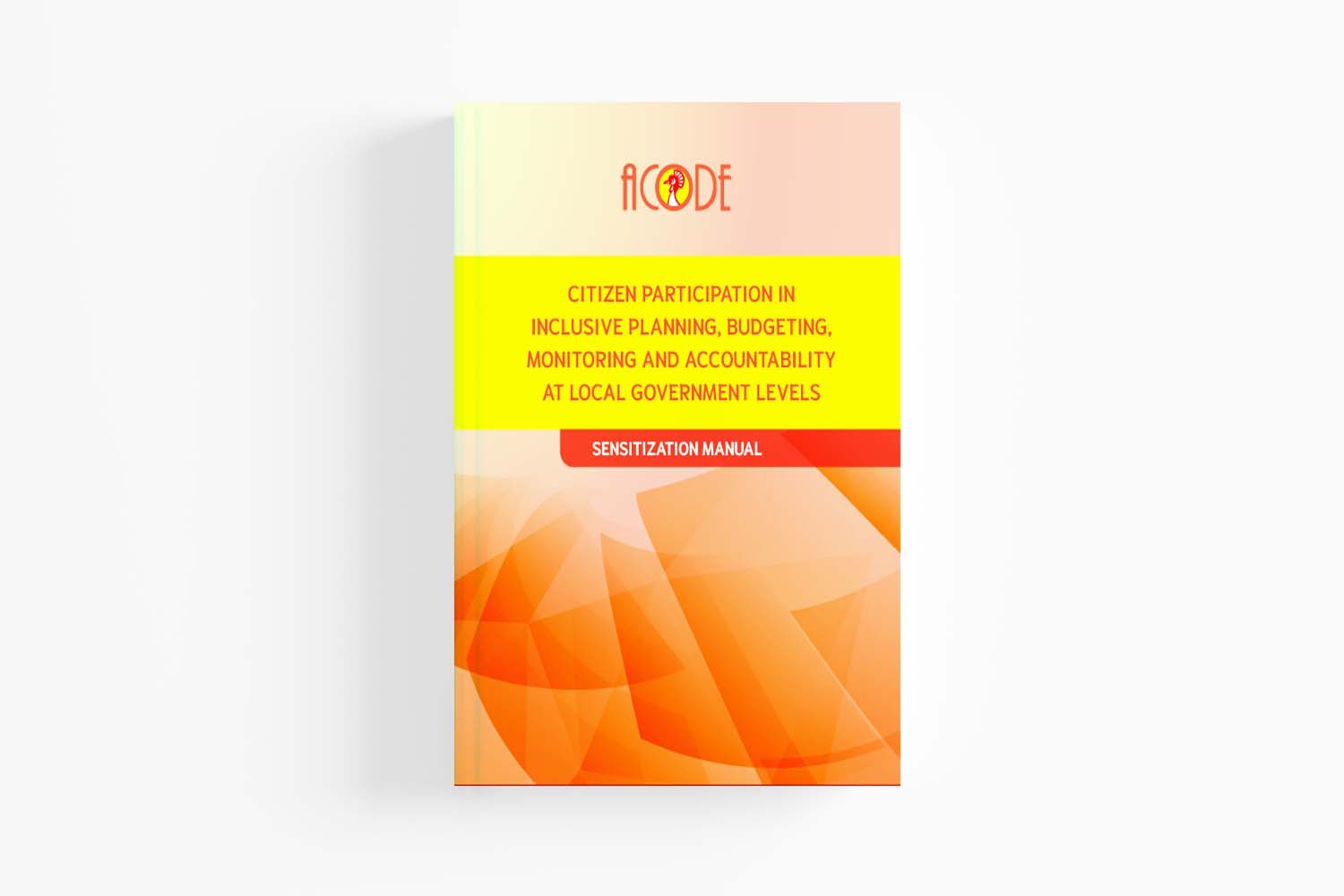
Citizen Participation in Inclusive Planning, Budgeting and Accountabiity: Sensitization Manual
Author(s): ACODE
Published: 2023
This manual is intended to foster citizens inclusion in the planning and budget processes at local government levels. It documents planning and budget processes at local government levels and ways through which citizens especially interest groups such a women, girls, youth, people with disability (PWDs) and the elderly among others may be involved in planning, budgeting, and monitoring budgets and service delivery in their communities. This is premised on the understanding that citizens can participate effectively when they know the issues they are dealing with and understand their roles and those of other stakeholders. Citizens need to be conversant with the budget and key government programmes; know when and who to engage; how to monitor the budget implementation and service delivery; and how to advocate for positive change in their community. All these aspects are ably provided in this manual. This manual can be used by any citizen with basic understanding of English.
View PDF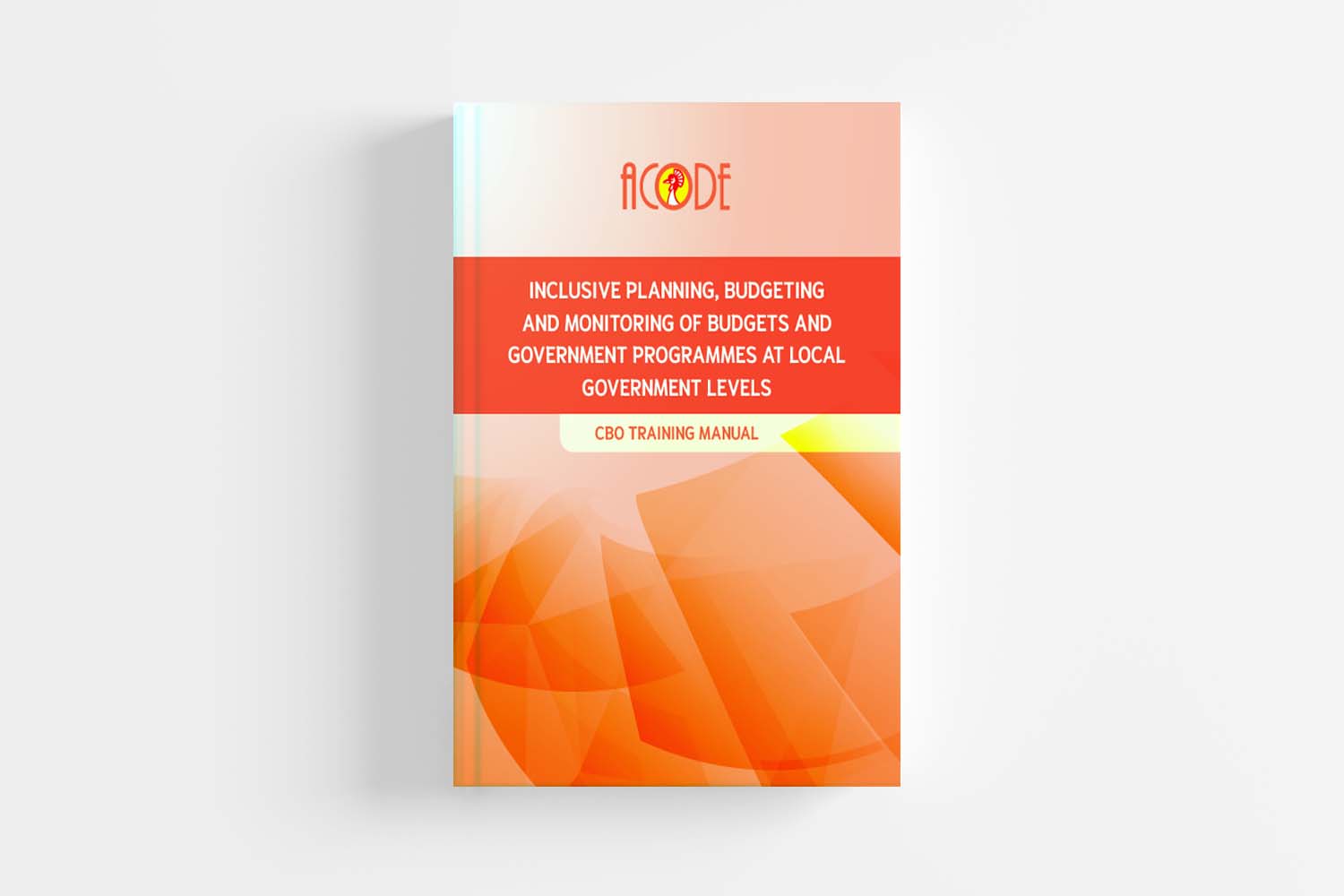
Inclusive Planning, Budgeting, and Monitoring of Budgets and Government Programmes at Local Government Levels: A CBO Training Manual
Author(s): ACODE
Published: 2023
This Manual contains session guides and reference notes for use by Trainers of Trainers (ToTs) to effectively train Community Based Originations (CBOs) on Inclusive Planning, Budgeting and Monitoring of Budgets and Government Programmes at LG Levels. The sessions focus on matters of inclusive participation in planning and budgeting; budget and service delivery monitoring; and advocacy and accountability. The Manual is based on ACODE’s experience in building the skills of citizens, civil society organisations, community-based organisations and thus some of the materials are specific to CBOs. However, the materials may be used for other audiences.
View PDF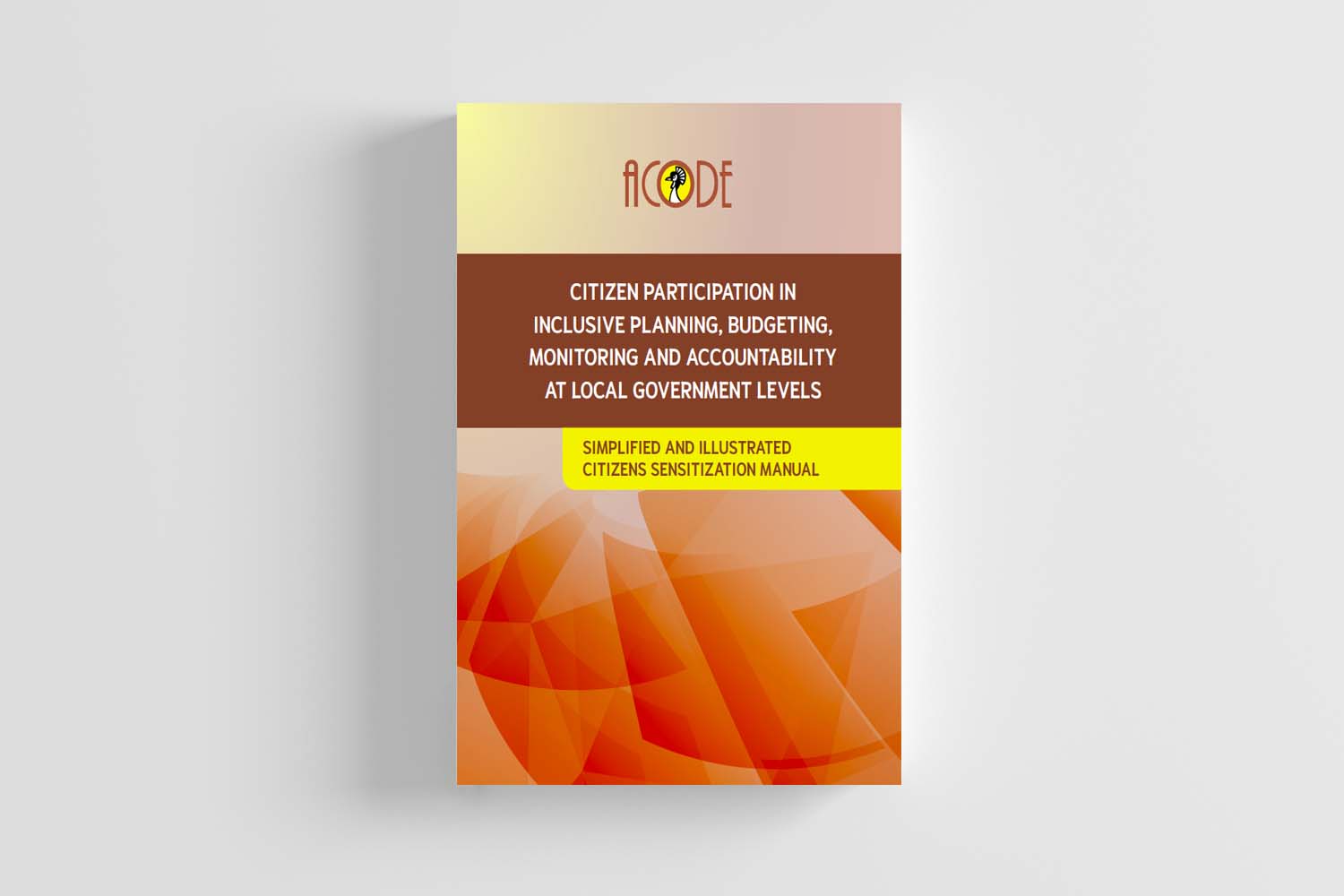
Citizen Participation in Inclusive Planning, Budgeting, Monitoring and Accountability at Local Government Levels: A Simplified and Illustrated Citizens Sensitization Manual
Author(s): ACODE
Published: 2023
This simplified and illustrated citizens sensitization manual was developed to simplify the work of training and empowering ordinary citizens at the local level to become active citizens who participate in their local government’s budget processes and empower them to demand for accountability from their leaders.
View PDF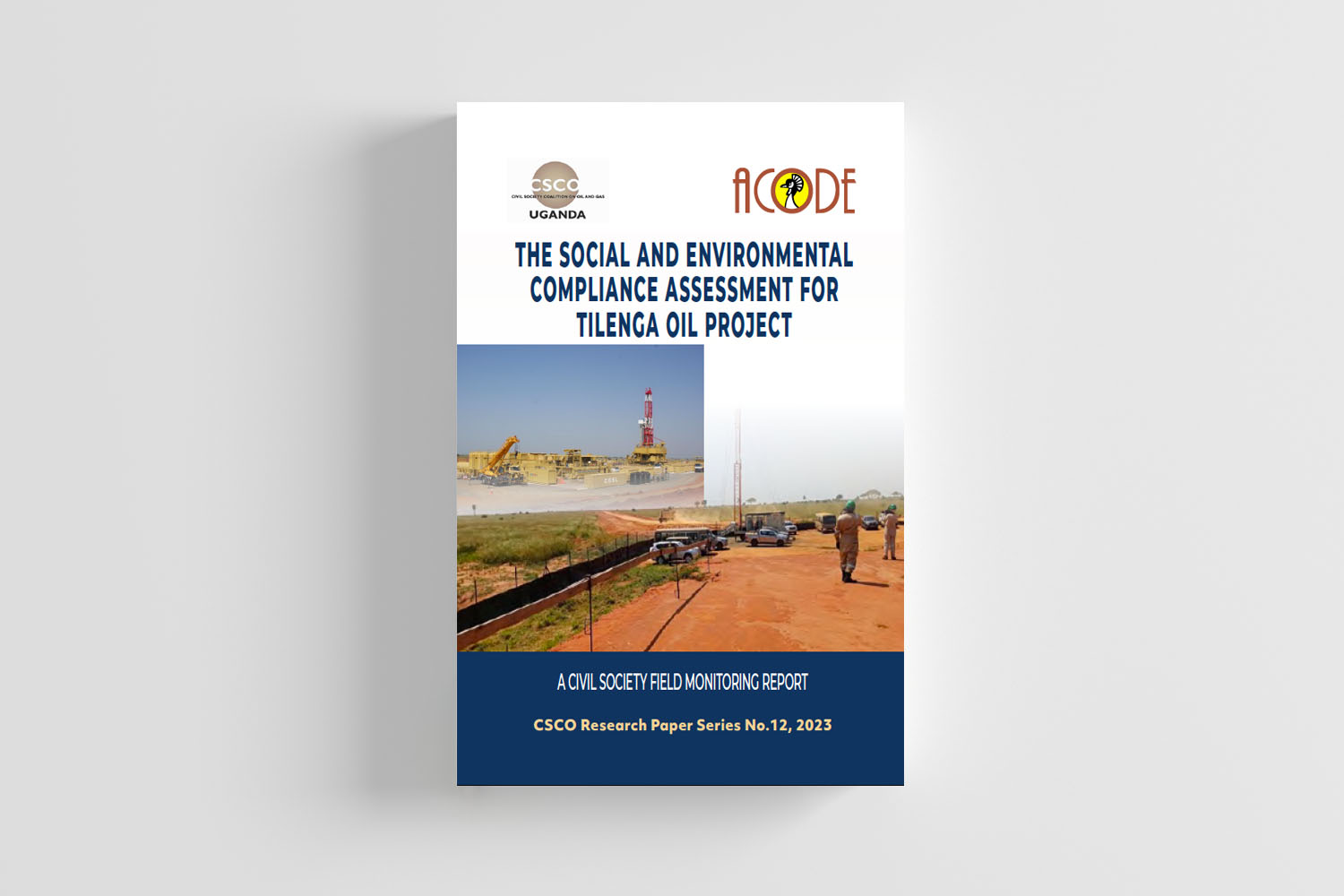
The Social and Environmental Compliance Assessment for Tilenga Oil Project: A Civil Society Field Monitoring Report
Author(s): CSCO
Published: 2023
The development of oil resources in Uganda has transited from exploration to development. This has triggered the development of infrastructure projects that will facilitate production and transportation. Some of such infrastructures include the East Africa Crude Oil Pipeline (EACOP), Central processing facilities, oil roads, the airport, and feeder pipelines among others. The development of these infrastructure projects has social, environmental, and economic implications. Sustainable development of the oil and gas sector calls for strict adherence and compliance to not only international best industry practices but also national laws and policy guidelines. Ensuring compliance calls for a concerted effort between project developers, regulators, project host communities, and third-party monitors. Over the years, CSCO has collaborated with the oil companies, the Petroleum Authority of Uganda (PAU), the Ministry of Energy and Mineral Development (MEMD), the National Environment Management Authority, and other stakeholders to monitor environmental and social compliance in the oil and gas projects. This report, therefore, presents the findings of the CSO monitoring exercise conducted in July 2023, focusing on infrastructure developments in the Tilenga Oil Project Area. The report also provides suggestions for areas that require improvement.
View PDF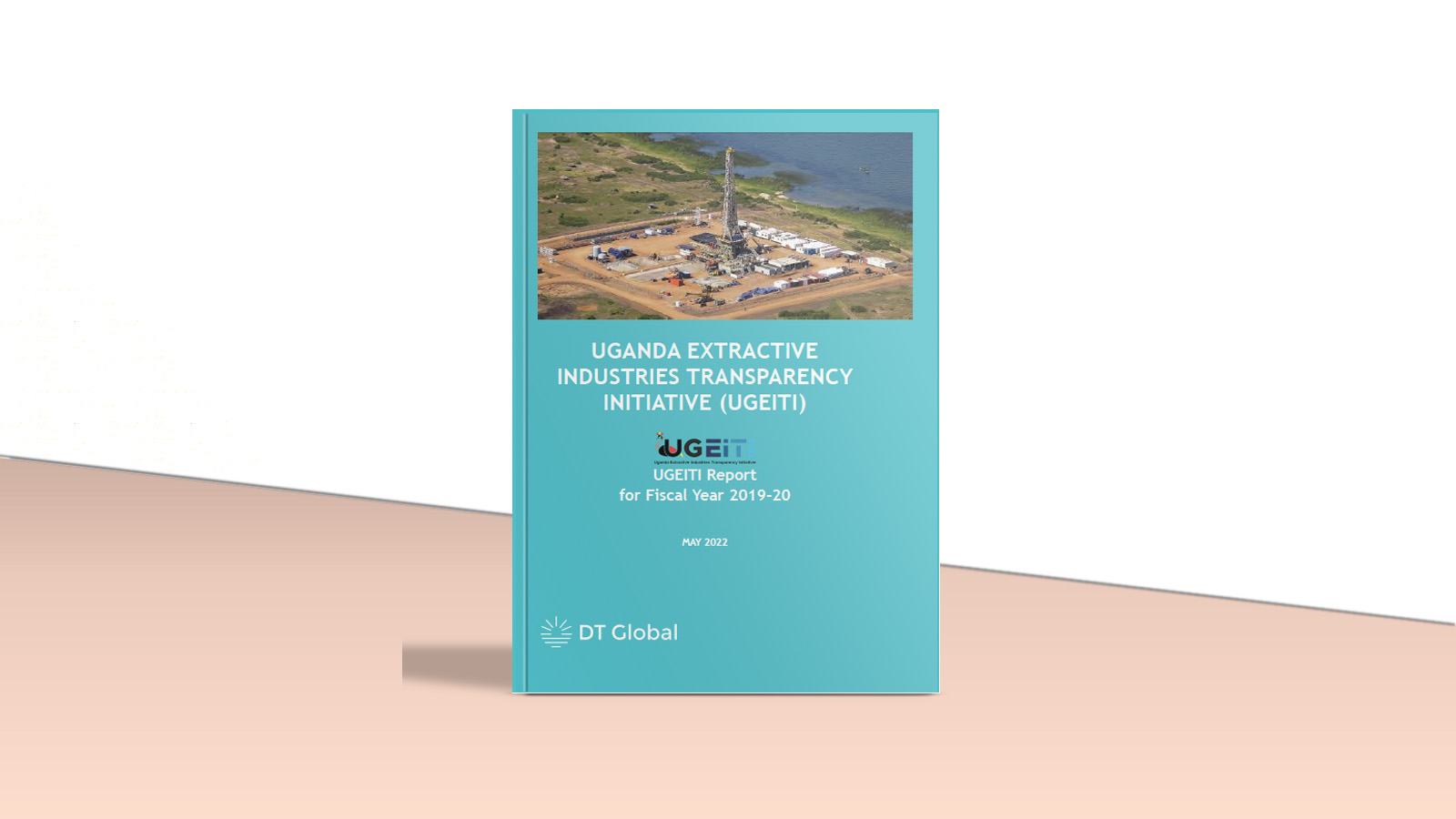
Uganda Extractive Industries Transparency Initiative (UGEITI): Report for Fiscal Year 2019-20
Author(s): DT Global
Published: 2022
This report covers payments made by extractive entities and revenues received by Government Agencies and other material payments and benefits to Government Agencies as stated by Requirement 4.1 of the 2019 EITI Standard. It also includes contextual information about the extractive industries in accordance with EITI Requirements 2, 3, 4, 5, and 6. This information includes a summary description of the legal framework and fiscal regime, an overview of the extractive sector, the extractive industries’ contribution to the economy, production data, the State’s shareholding in extractive entities, and revenue allocations, license registers, and license allocations.
View PDF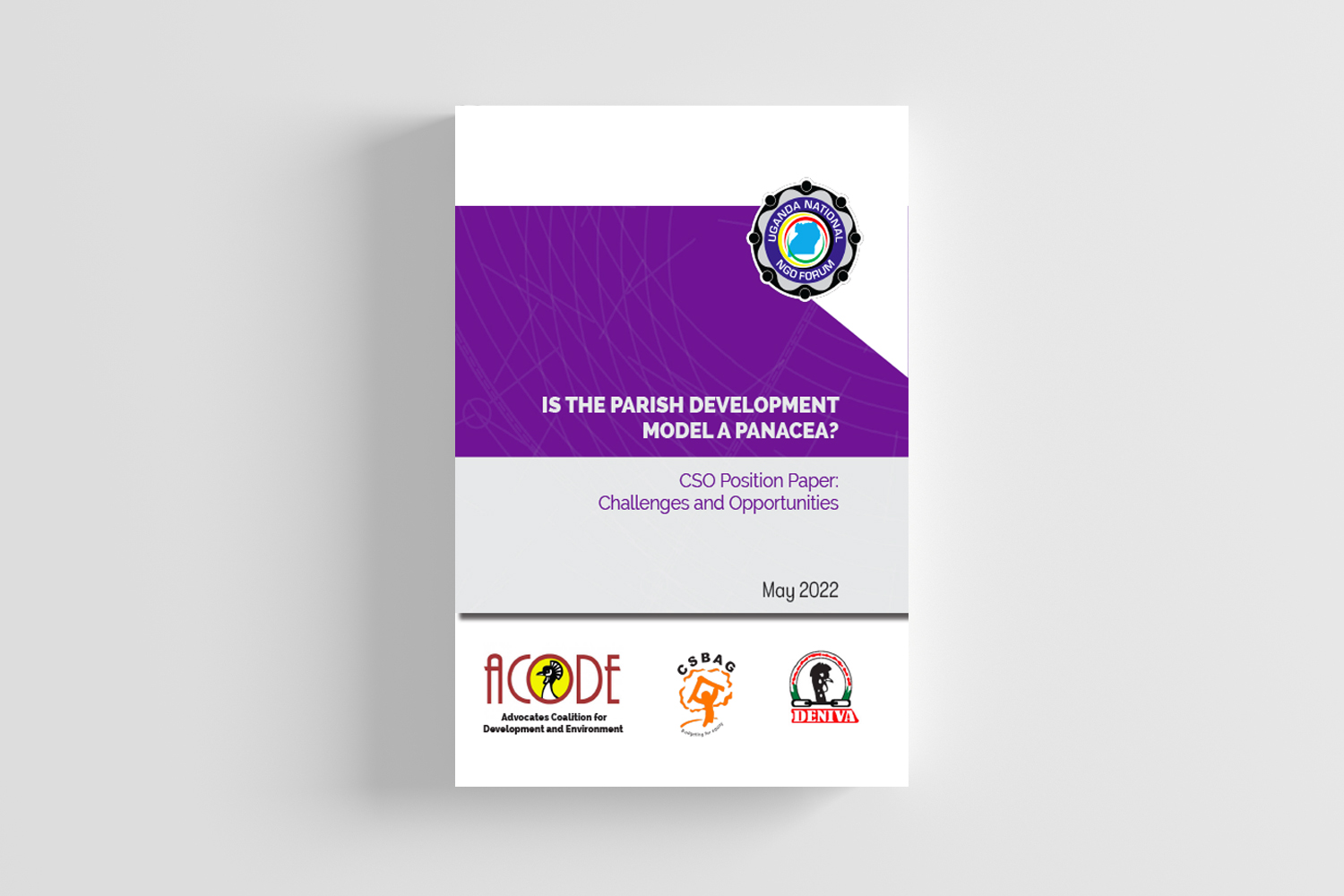
Is the Parish Development Model a Panacea? Challenges and Opportunities
Author(s): UNNGOF, ACODE, DENIVA, and CSBAG
Published: 2022
This paper is a summary of the Civil Society’s position on the implementation of the Parish Development Model that was launched in February 2022 as the government’s multi-sectoral strategy to create socio-economic transformation by transforming 39% of Ugandan households that are stuck in the subsistence economy into the money economy. This paper responds to the realisation that whereas the recently launched Parish Development Model is an ambitious strategy that can potentially reduce poverty levels among the population, there are several emerging concerns that need to be addressed by the Government of Uganda if this strategy is to achieve its intended goals and objectives. The paper discusses the strategy in terms of its positive attributes and possible shortcomings and makes several recommendations for improvement.
View PDF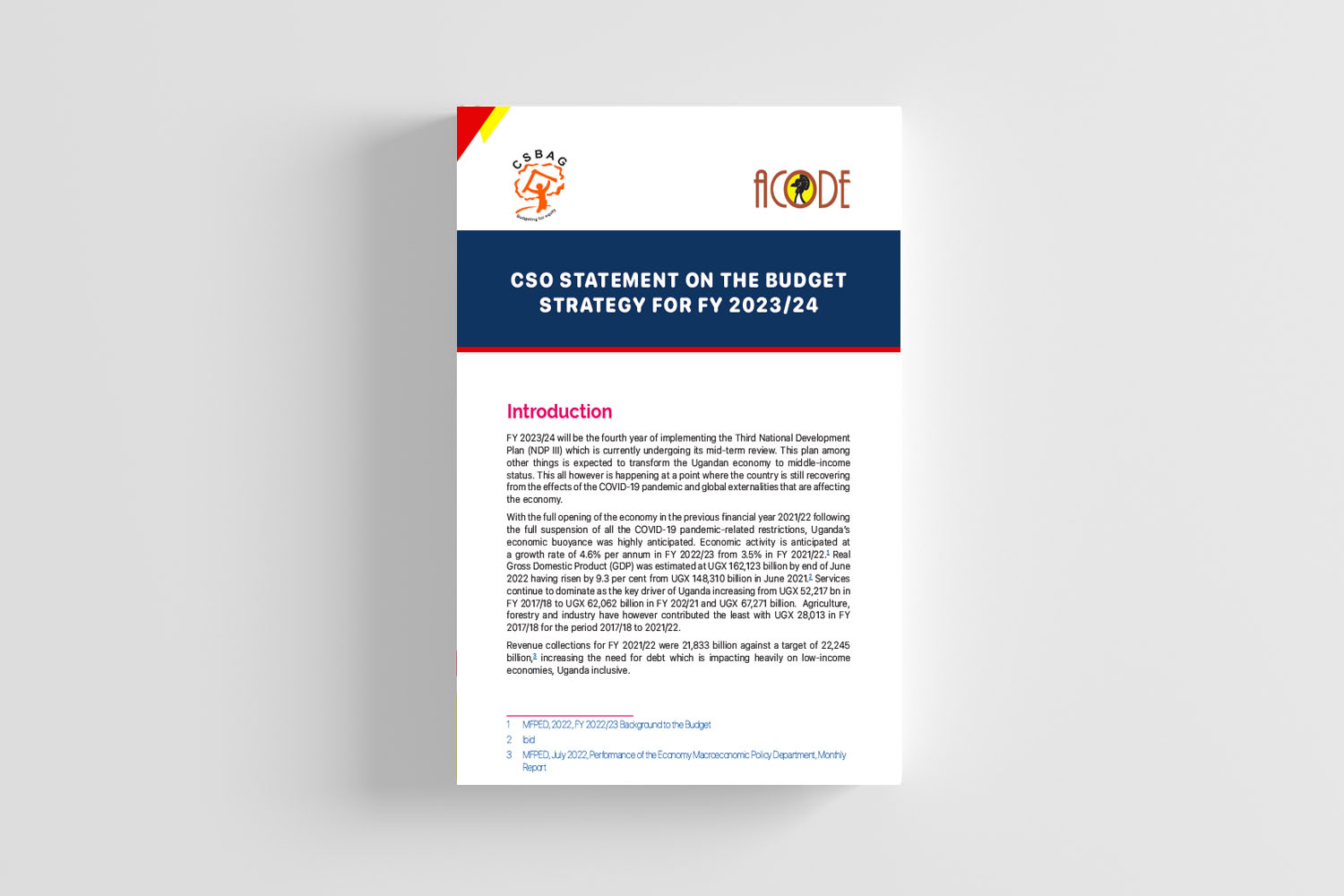
CSO Statement on the Budget Strategy for FY 2023/24
Author(s): ACODE and CSBAG
Published: 2022
Financial Year 2023/24 will be the fourth year of implementing Uganda's Third National Development Plan (NDP III) which is currently undergoing its mid-term review. This plan among other things is expected to transform the Ugandan economy to middle-income status. This all however is happening at a point where the country is still recovering from the effects of the COVID-19 pandemic and global externalities that are affecting the economy.
View PDF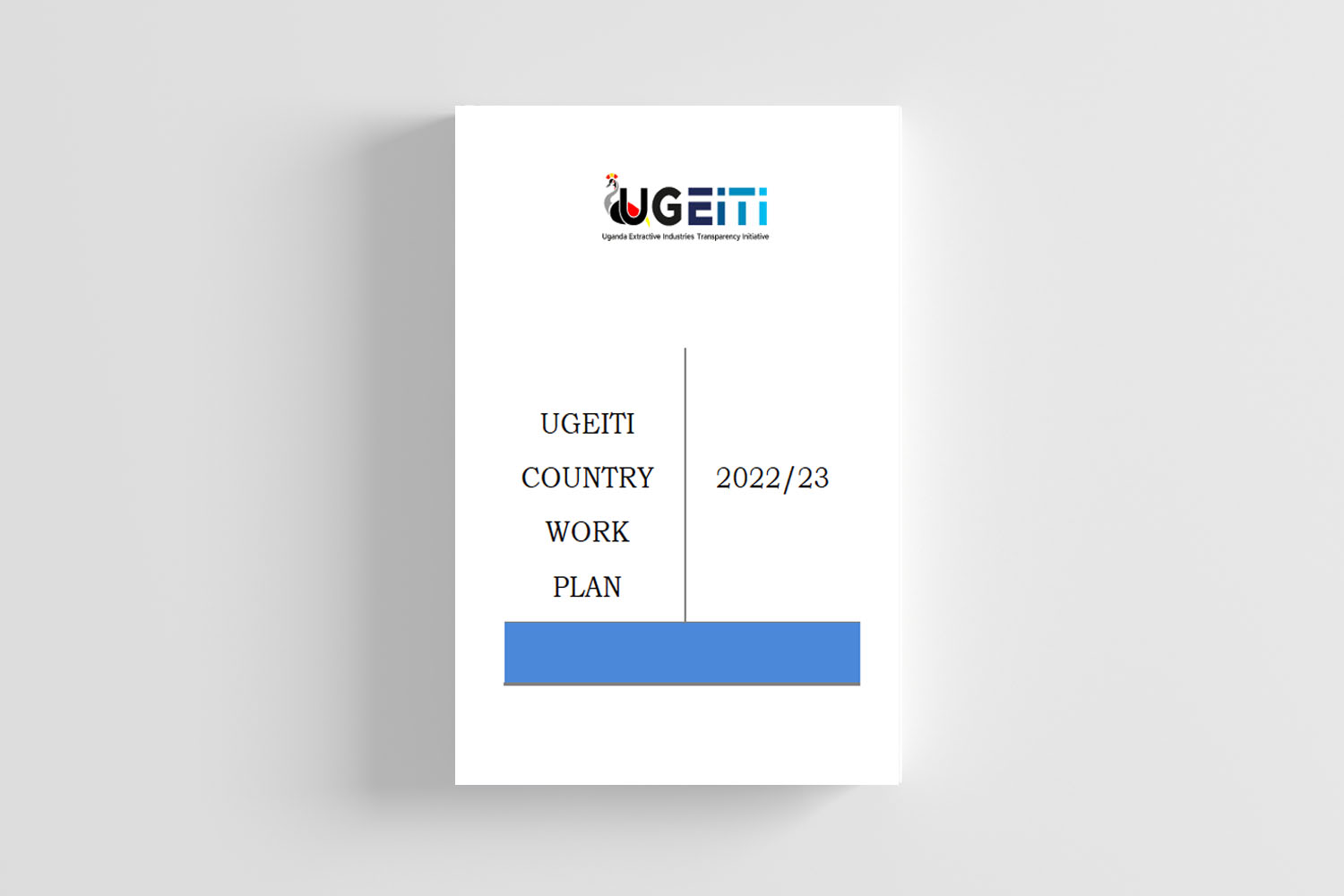
UGEITI Work Plan 2022/2023
Author(s): UGEITI
Published: 2022
The UGEITI Work Plan 2022/2023 has been developed to consolidate the achievements of the previous UGEITI Work plan, 2020/2021 – 2021/2022, whose goal was ‘to improve the governance of extractive industries in Uganda for the benefit of present and future generations’. Its priorities were anchored in the Uganda National Oil and Gas Policy (2008) and the Domestic Revenue Mobilisation Strategy 2019/20 – 2023/24 (DRMS).
View PDF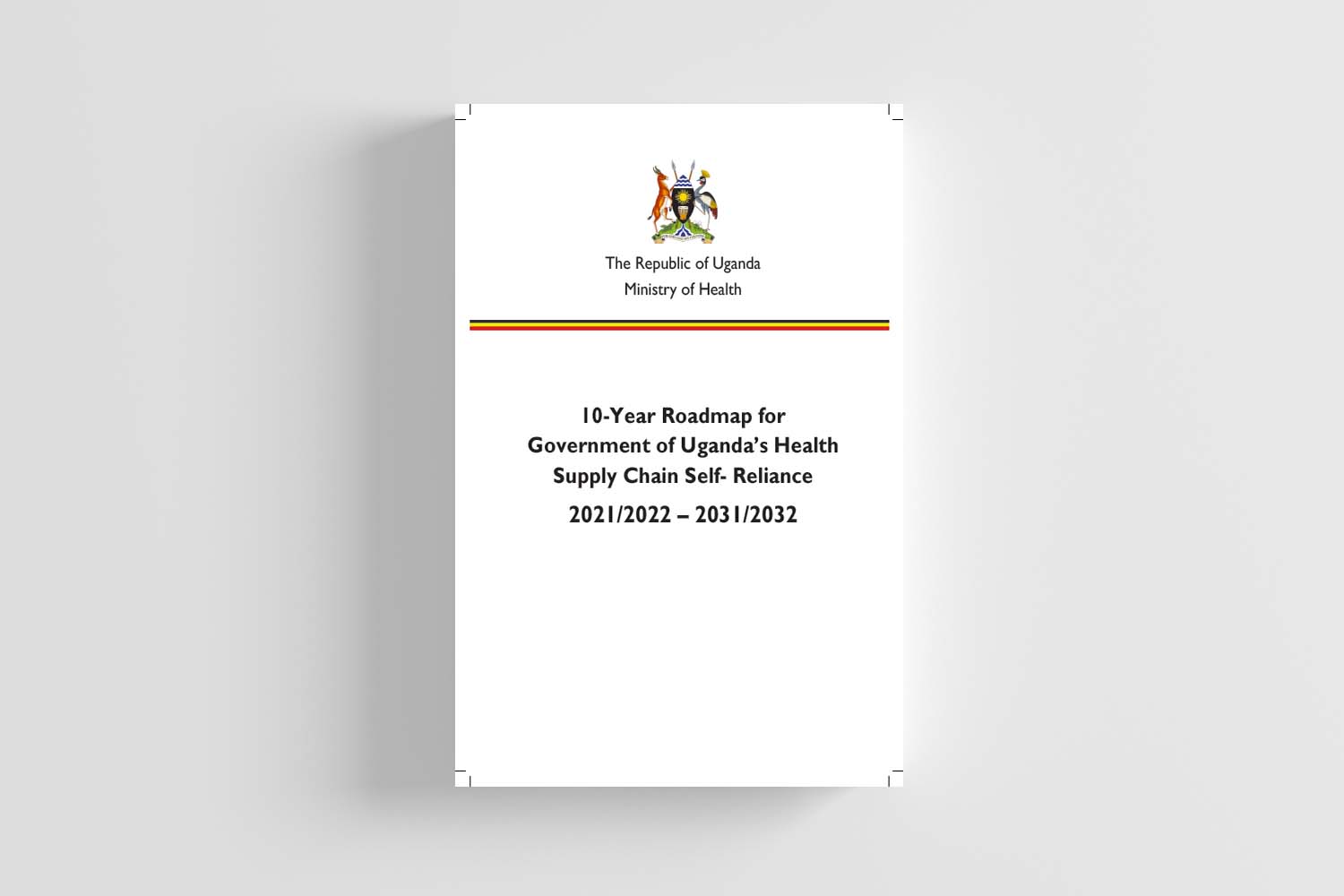
10-Year Roadmap for Government of Uganda’s Health Supply Chain Self- Reliance 2021/2022 – 2031/2032
Author(s): Ministry of Health, Republic of Uganda
Published: 2021
The Roadmap articulates a plan, process, and transition as an exit strategy from donor reliance evidenced by the fact that more than 70% of public sector funding for essential medicines and health supplies in Uganda is from donors. The Roadmap presents the short, medium- and long-term investment needs of Uganda’s national health supply chain system over the next 10 years with the aim of ensuring the sustainability of development outcomes of the health supply chain.
View PDF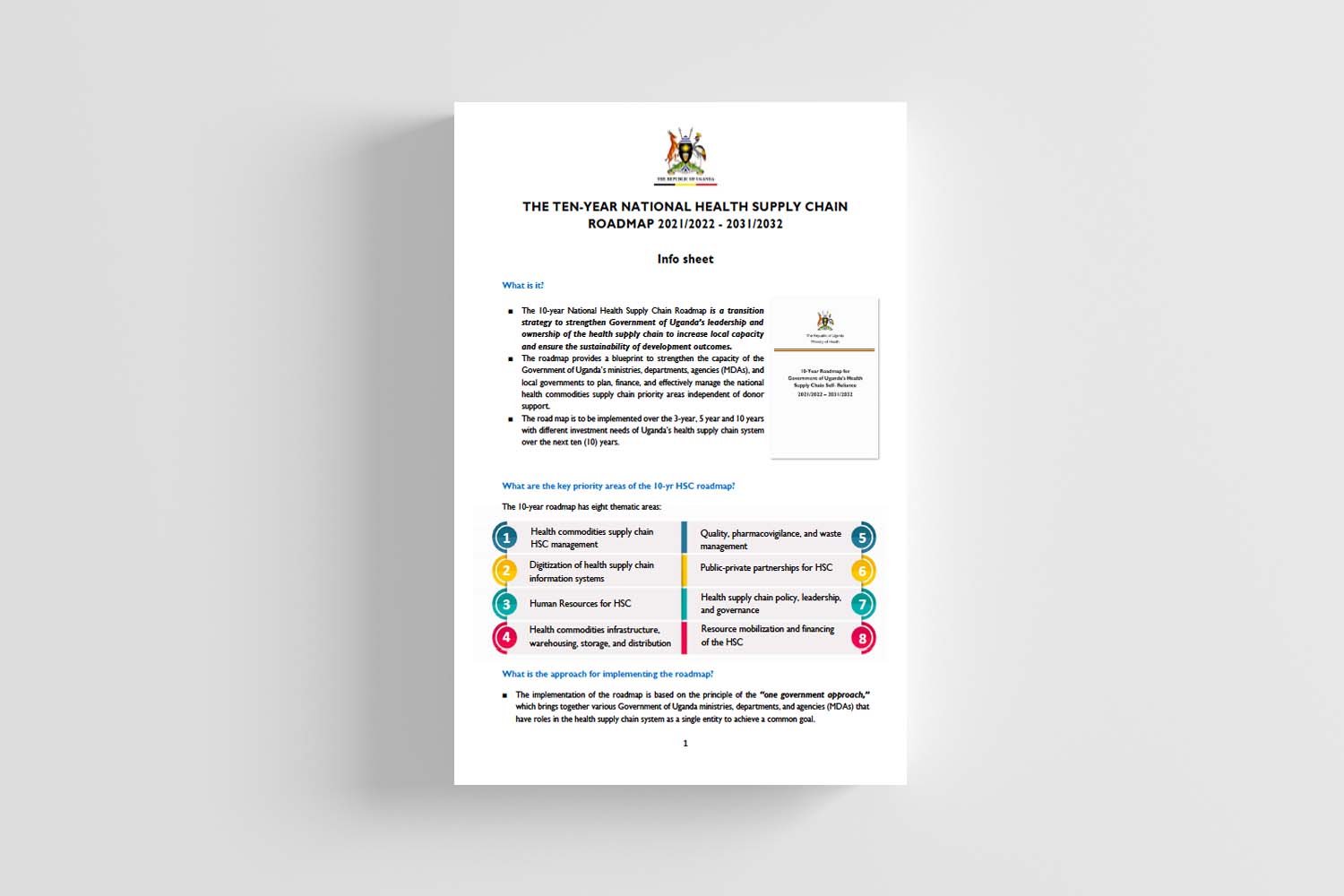
10-Year Roadmap for Government of Uganda’s Health Supply Chain Self- Reliance 2021/2022 – 2031/2032
Author(s): Ministry of Health, Republic of Uganda
Published: 2021
The info sheet highlights key issues in the roadmap that provides a blueprint to strengthen the capacity of the Government of Uganda’s ministries, departments, agencies (MDAs), and local governments to plan, finance, and effectively manage the national health commodities supply chain priority areas independent of donor support.
View PDF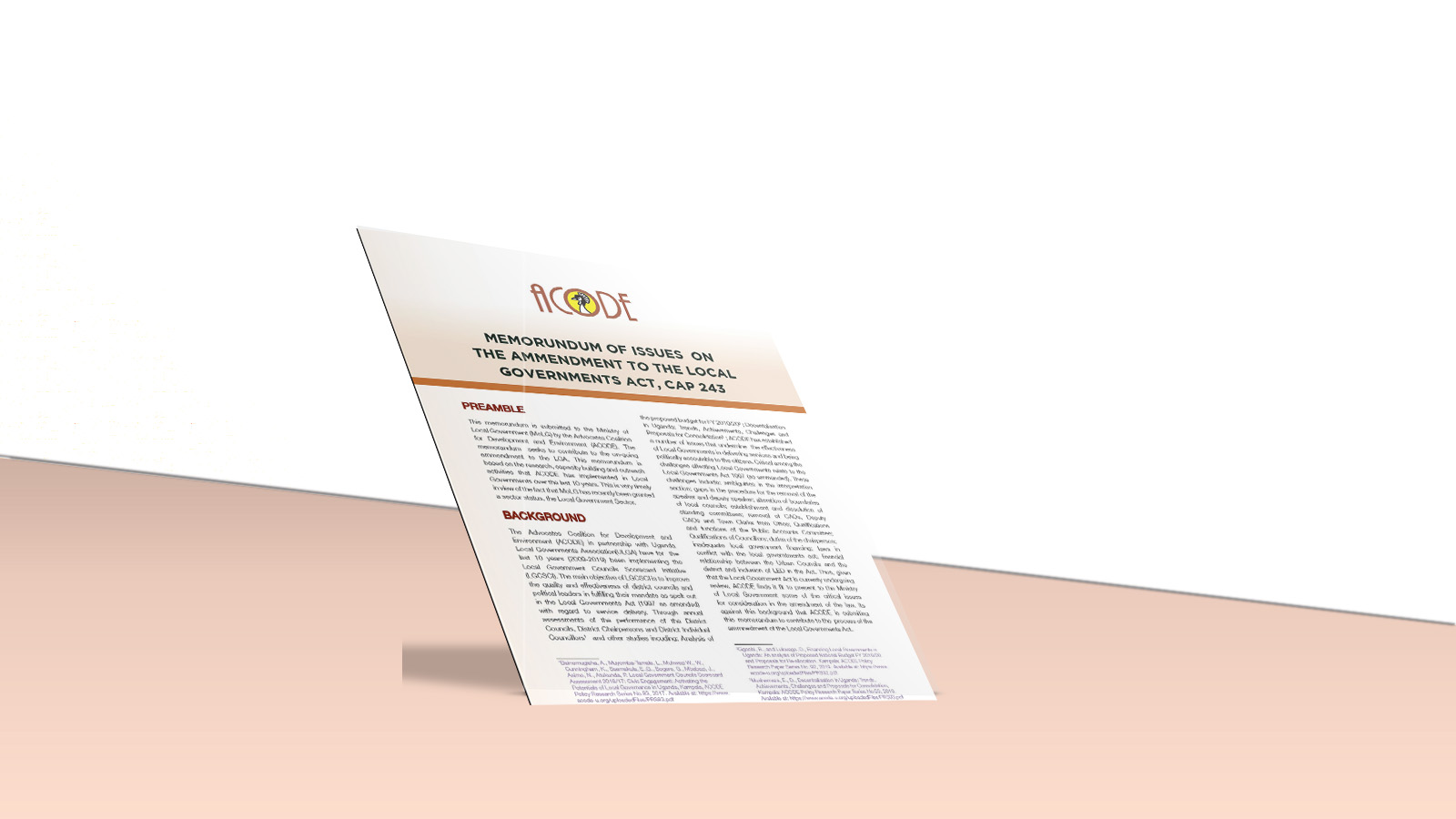
Memorandum of Issues on the Amendment to the Local Governments Act, CAP 243
Author(s): ACODE
Published: 2020
This memorandum is submitted to the Ministry of Local Government (MoLG) by Advocates Coalition for Development and Environment (ACODE). The memorandum seeks to contribute to the policy and legal reform within the Local Government Sector to improve the performance of local governments in Uganda. This memo follows calls from the Permanent Secretary and the Minister of Local Government while officiating at the launch of the Local Government Councils Scorecard Report FY 2018/19 held on March 10, 2020. This memorandum is based on the research, capacity building and outreach activities that ACODE has implemented in Local Governments over the last 10 years.
View PDF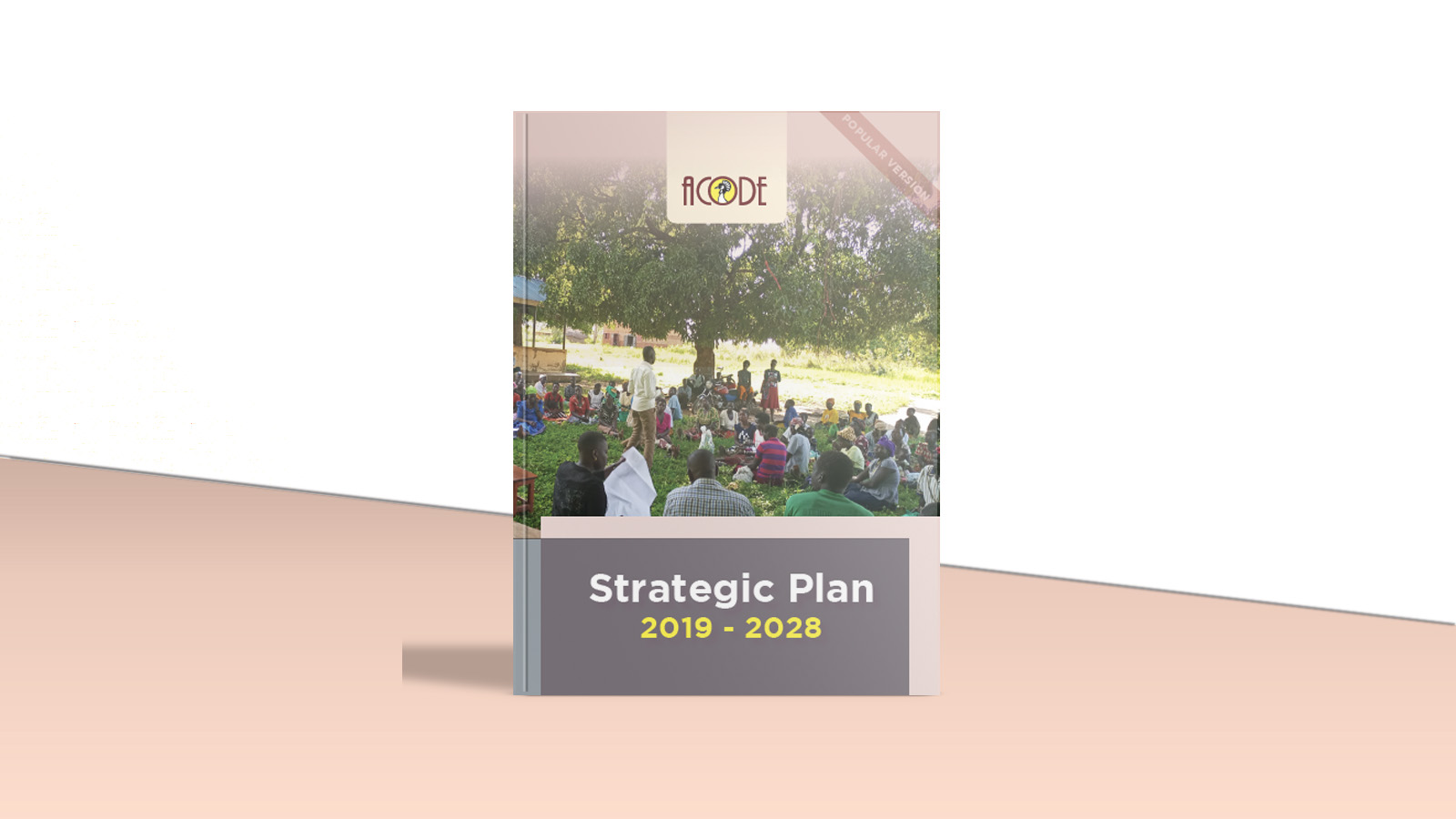
STRATEGIC PLAN 2019-2028
Author(s): ACODE
Published: 2019
This strategic plan builds on ACODE’s work of the last eighteen years (2000 – 2018) and focuses on strengthening the design and implementation of public policy to build a dynamic and vibrant Africa that responds to the needs and aspirations of its citizens. The focus of this strategy is the Eastern and Southern Africa region, with Uganda as the springboard in cascading good practices and sharing lessons learned across the region.
View PDF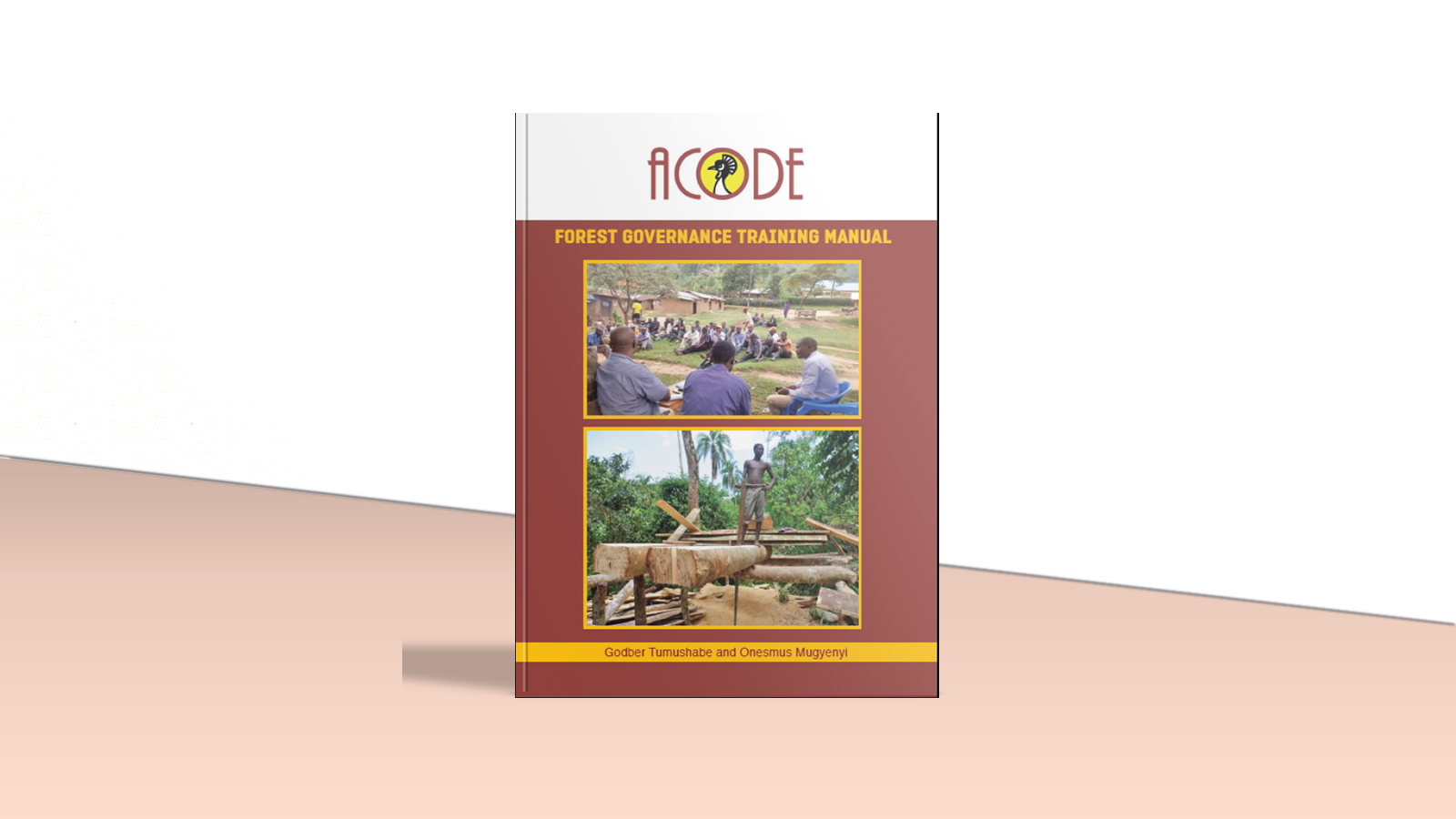
Forest Governance Training Manual
Author(s): Godber Tumushabe and Onesmus Mugyenyi
Published: 2017
The training manual presents forest governance as an important prerequisite for promoting sustainable forest management and reducing deforestation and forest degradation in Uganda. This work is motivated by the deteriorating state of forest governance in Uganda and the realized need to improve the management of the forest resource. In the last thirty years, forest resource managers, practitioners, scholars, and other forest stakeholders have observed that governance is often the weak link in addressing the sustainable use of forests, trees, and related services. As a result, the forest sector is characterized by poor public relations yet the country has relatively good policies, laws, and institutional framework arrangements that could engender improvements in the management and administration of the resource.
View PDF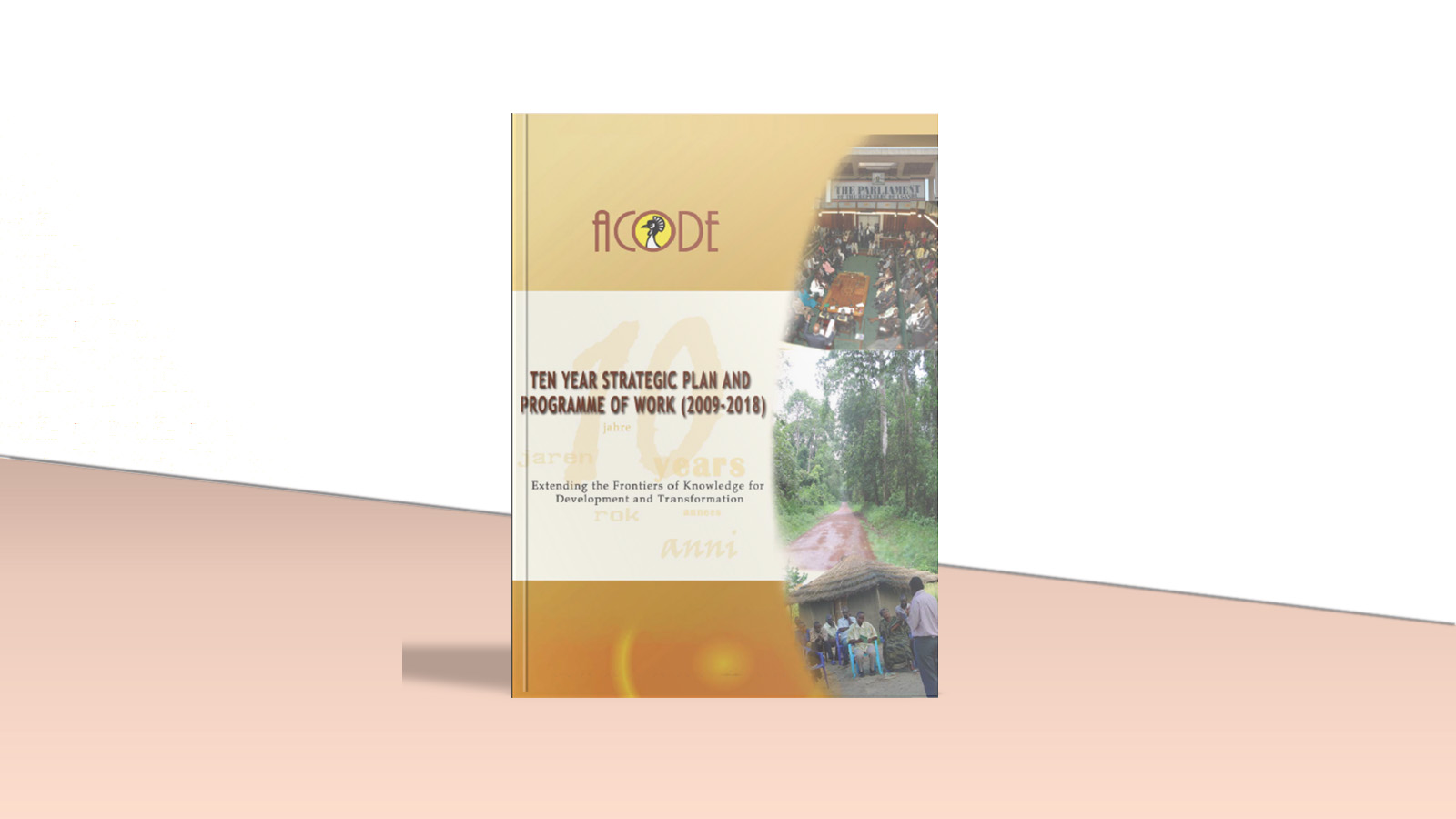
TEN YEAR STRATEGIC PLAN AND PROGRAMME OF WORK (2009-2018)
Author(s): ACODE
Published: 2009
The strategic actions set out in this Programme of Work have been defined by our desire to (i) develop a robust, cutting-edge, and policy-relevant research agenda; (ii) increase the usability and influence of ACODE’s policy work at all levels of policy-making and (iii) strengthen institutional performance to achieve efficiency and cost-effectiveness. This Programme of Work helps us to distinguish between routine institutional operations and strategic growth benchmarks.
View PDF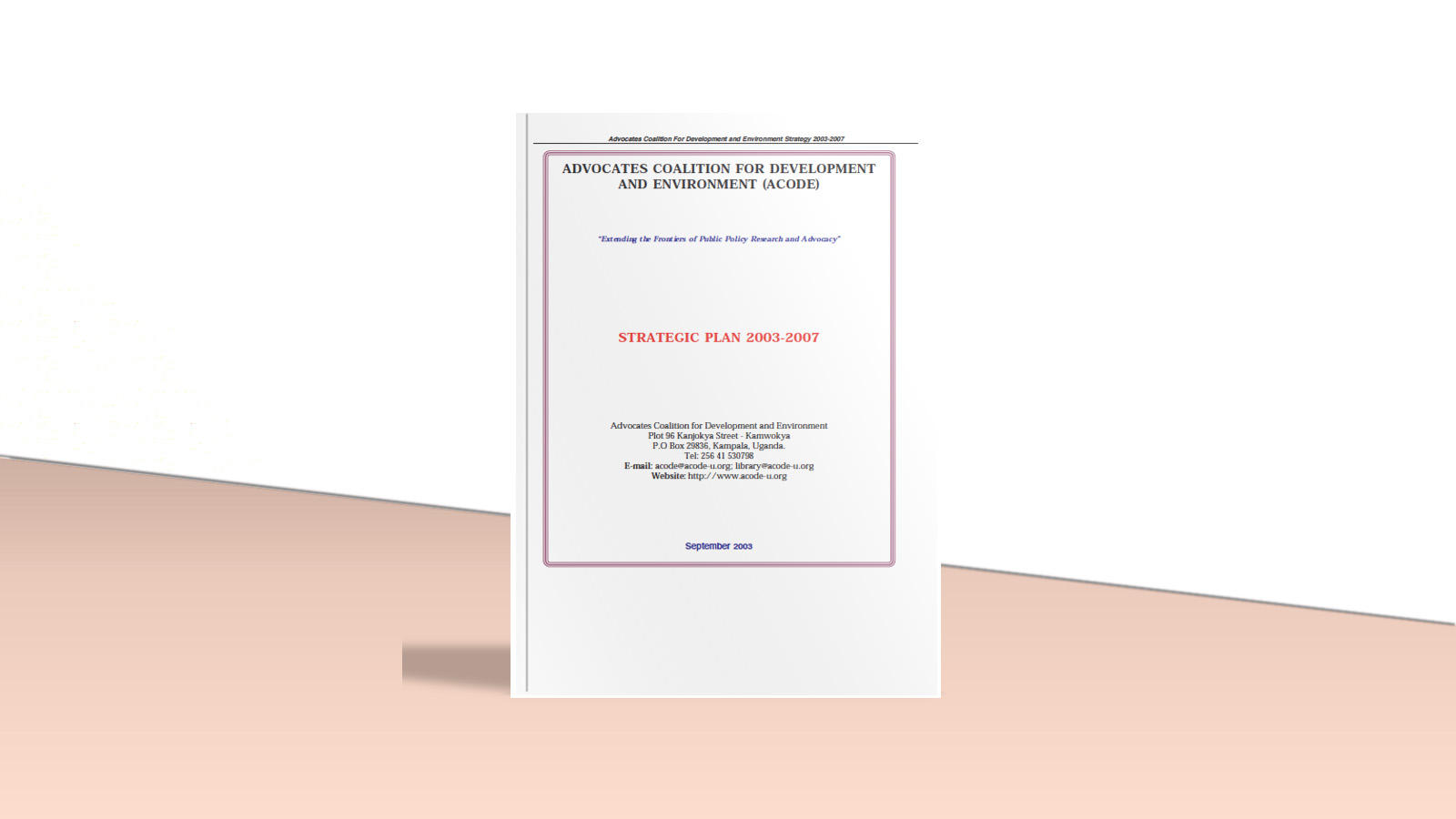
STRATEGIC PLAN 2003-2007
Author(s): ACODE
Published: 2003
This 5 Years Strategic Plan is a statement of the objectives and strategies that the Advocates Coalition for Development and Environment will pursue in order to achieve tangible impacts in its policy research and advocacy work. The planning process provided an opportunity to rethink ACODE in terms of its vision, mission, and governance structures; research and advocacy agenda as well as programmatic and institutional structures1 for achieving set objectives.
View PDF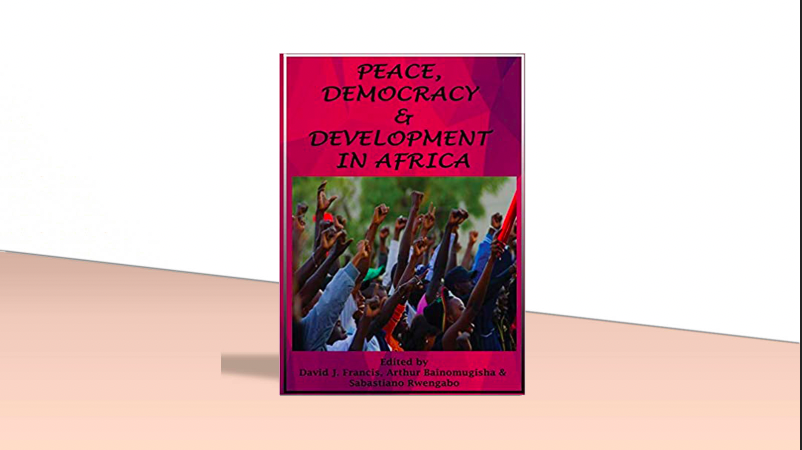
Peace, Democracy and Development in Africa
Author(s): David J Francis (Editor), Arthur Bainomugisha (Editor), Sabastiano Rwengabo (Editor)
Published: 2020
Peace, Democracy & Development in Africa interrogates selected themes using specific cases. While Africa is taunted as a rising hopeful continent, the book shows that the trajectory it is taking continues to go through pangs and setbacks. Using case studies drawn from themes around the limitations of liberal peace, the undermining of social contract in countries like Sierra Leone, conflict traps in states like Uganda, the challenges of democracy and sustainable livelihoods, the problems of monitoring legislative representation and environmental issues in the continent, the dilemma of natural resource-dependent pastoral communities in East Africa, the East African Customs union protocol; and the protection and promotion of farmers' rights and community-based property rights in general in East Africa, the book recommends policy options that could alleviate the numerous wrongs in Africa's development journey.
View PDF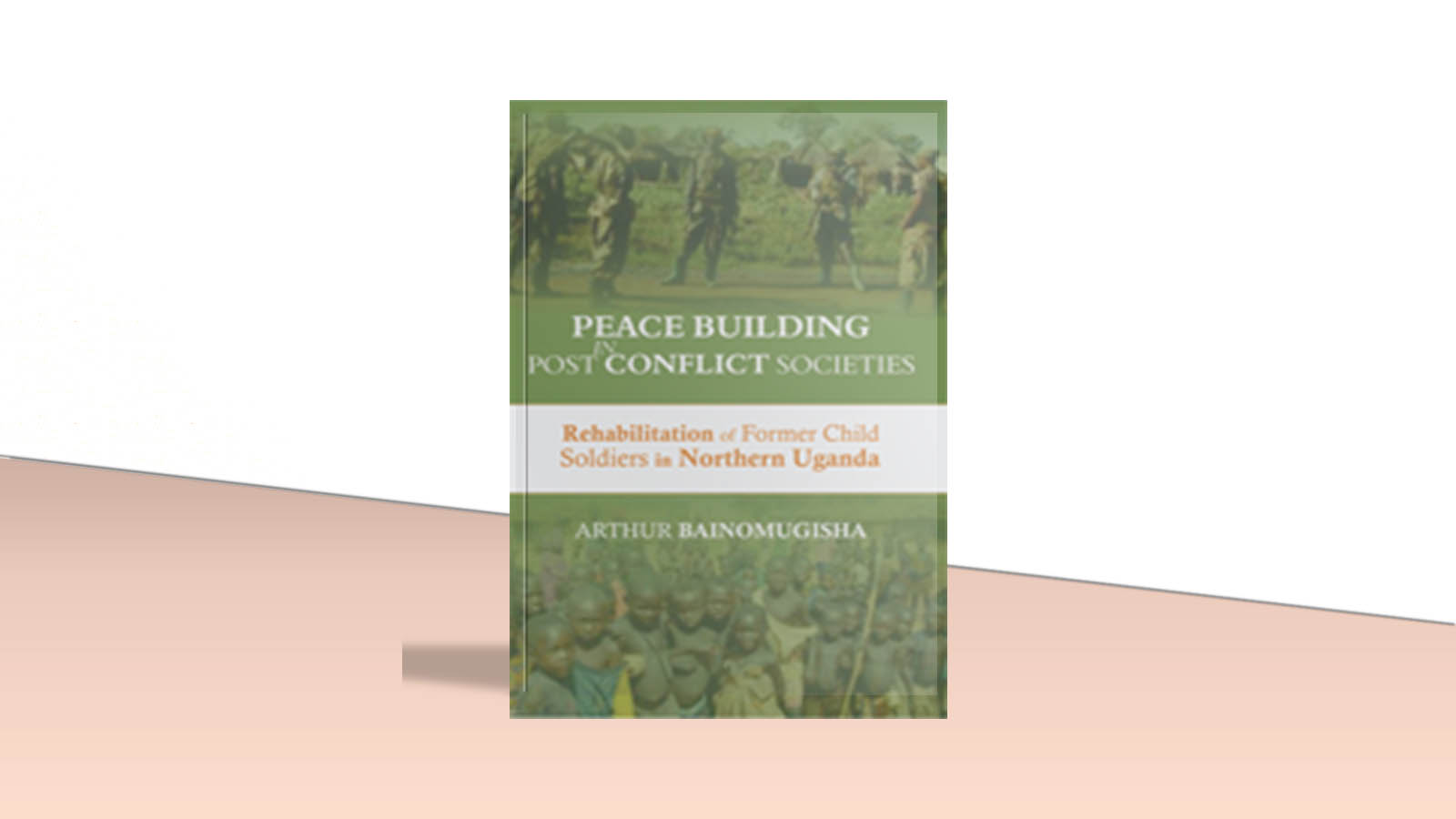
PEACE-BUILDING IN POST-CONFLICT SOCIETIES: Rehabilitation of Former Child Soldiers in Northern Uganda
Author(s): Arthur Bainomugisha
Published: 2019
This book on Peace-building in Post-Conflict Societies examines the child-soldier phenomenon in Northern Uganda from African and global intellectual perspectives. The book discusses strategies used in recruiting and using child soldiers by armed groups and government forces and also interrogates the extant national, regional, and international legal mechanisms for protecting them. The book also critically examines the strategies of disarmament, demobilization, reintegration, and rehabilitation (DDRR) of child soldiers as part of peace-building efforts in post-conflict Uganda. It compares the African traditional approaches with the Western model of re-integration and rehabilitation and recommends reliance on the traditional African systems -but without discarding the relevant aspects of the Western model.
View PDF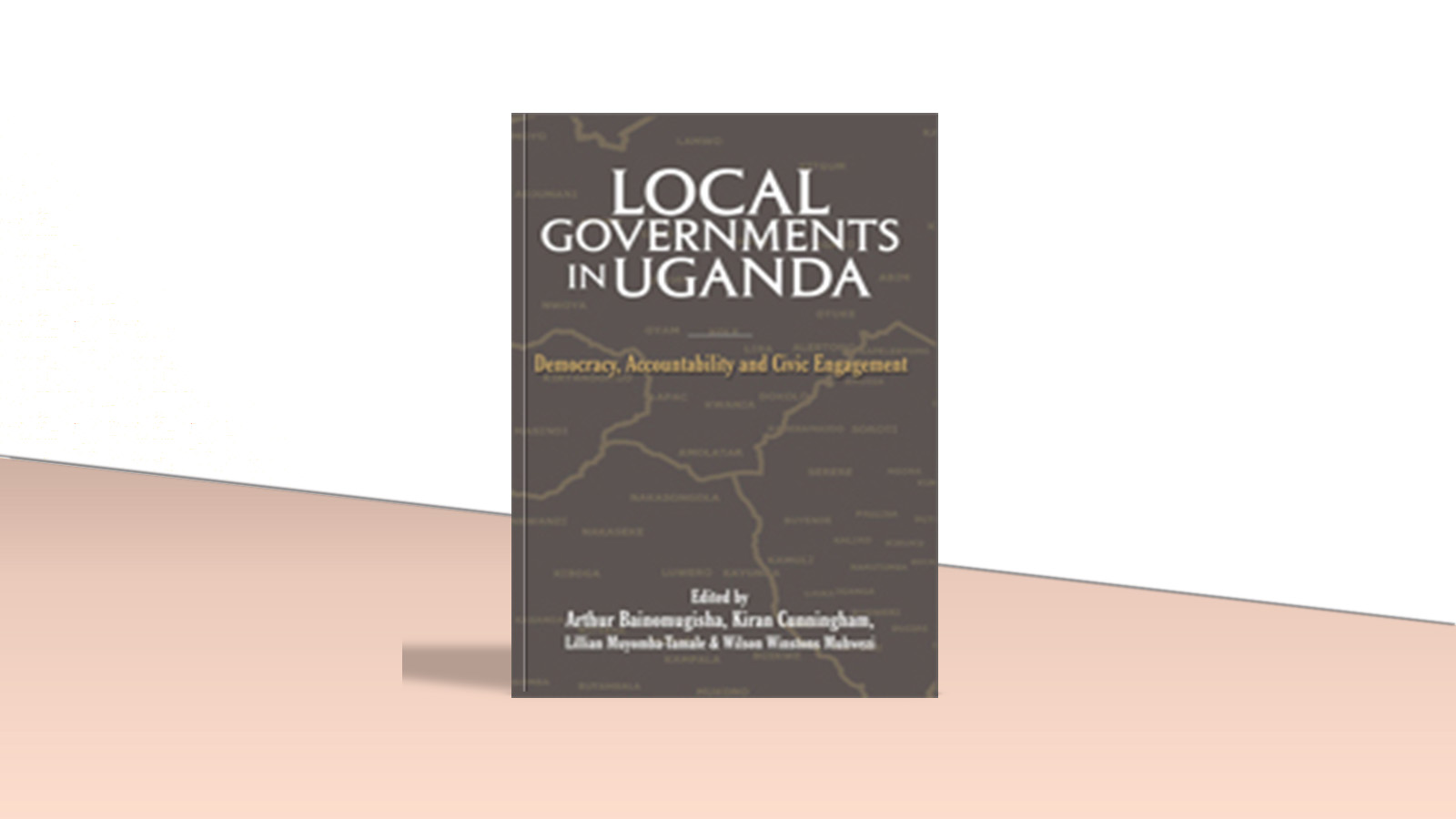
LOCAL GOVERNMENTS IN UGANDA: Democracy, Accountability and Civic Engagement
Author(s): Arthur Bainomugisha, Kiran Cunningham, Lillian Muyomba-Tamale, and Wilson Winstons Muhwezi
Published: 2019
While the notion of Local Government remains contentious in literature, the consensus appears to be that it brings government nearer to the people. The book discusses the operations of the Local Government system in Uganda in the context of social accountability as a tool for deepening democracy. Using ACODE's social accountability strategies like local government council scorecards, civic engagement meetings, and technology, the book examines the roles that citizens and civil society play in solving capacity problems. The book contends that functional decentralization empowers Local Governments, improves service delivery, and fosters citizens' eagerness to demand accountability.
View PDF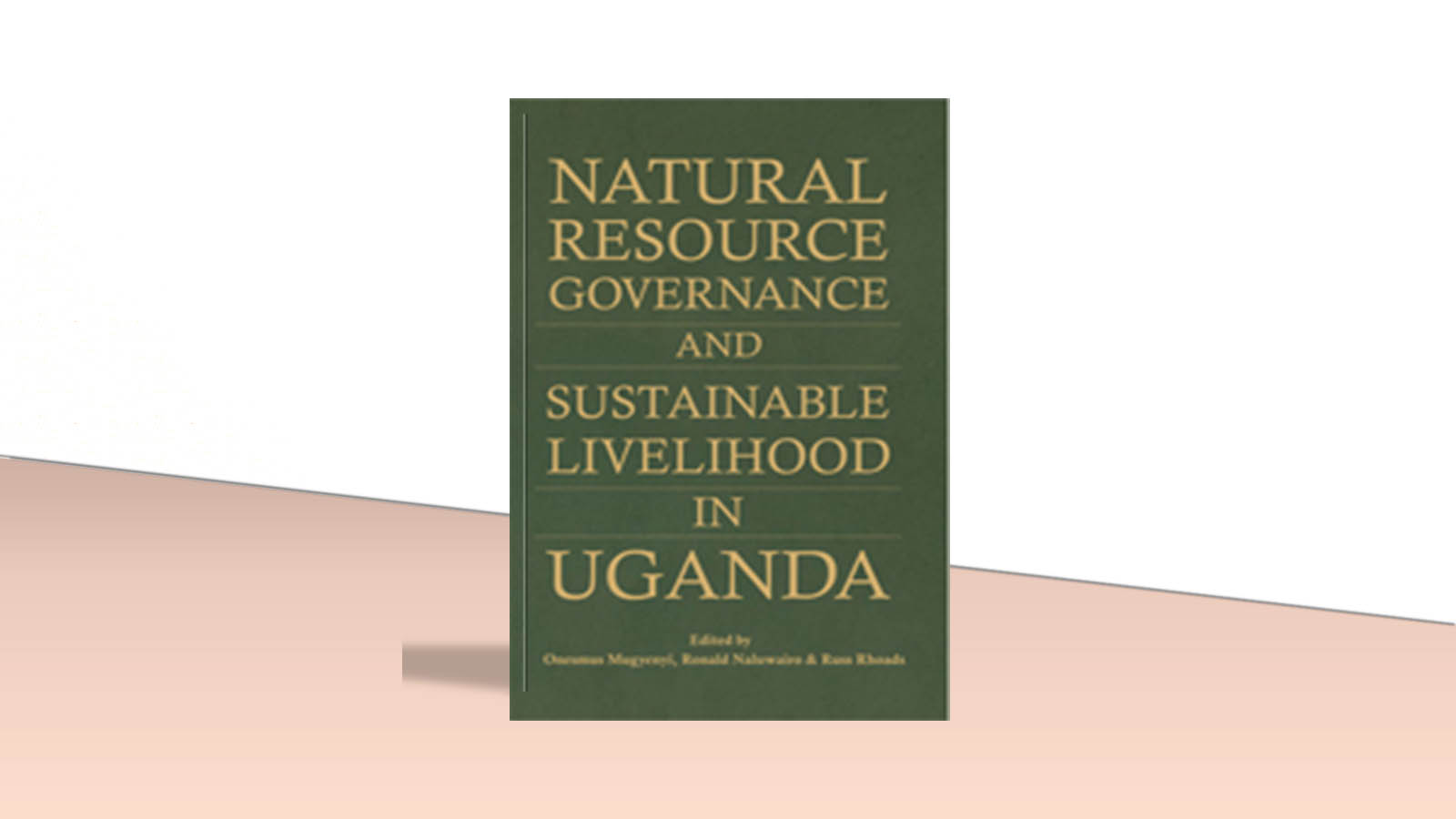
NATURAL RESOURCE GOVERNANCE AND SUSTAINABLE LIVELIHOOD IN UGANDA
Author(s): Onesmus Mugyenyi, Ronald Naluwairo, and Russel Rhoads
Published: 2019
Uganda, like many countries in Africa, faces the "paradox of poverty amidst plenty". While the country is blessed with many natural resources including fertile land, abundant water, a good climate, fisheries, forests, minerals, oil, and gas; these assets have not been used optimally to transform the lives of citizens. Why is this so? What can be done to guarantee sustainable use of these resources and ensure that they are used to improve and transform the lives of the majority of Ugandans? What lessons can Uganda learn from other countries? What lessons does Uganda offer to other countries? Focusing on Uganda's forestry, land, fisheries, and the oil and gas sub-sectors, the book interrogates these questions and highlights the governance issues that need to be addressed. Based on gaps identified and lessons from other countries, it proffers measures that need to be undertaken to enhance the governance of the country�s natural resources in a manner that utilizes them to improve the lives of the majority of its citizens.
View PDF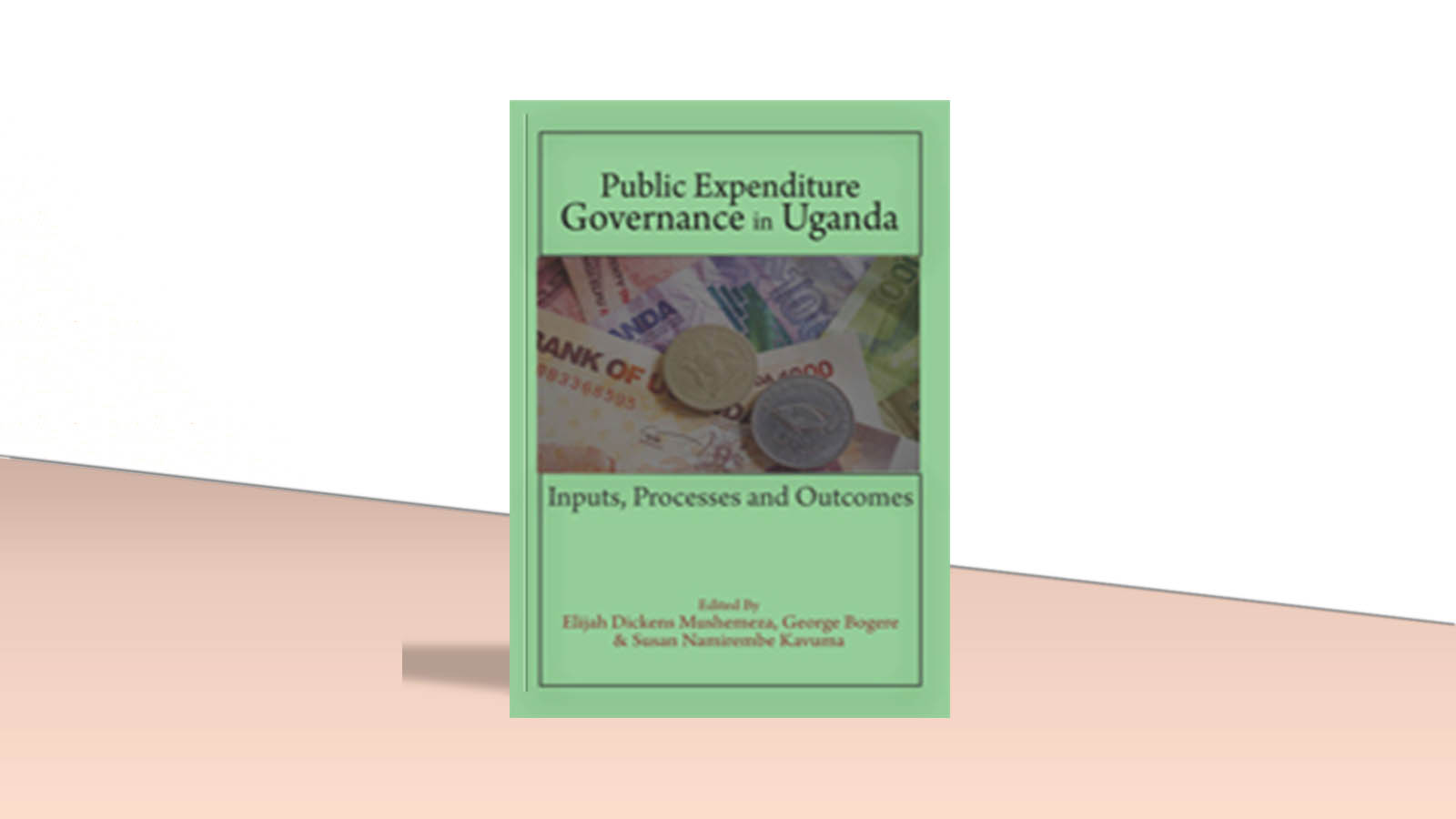
Public Expenditure Governance in Uganda: Inputs, Processes and Outputs
Author(s): Elijah D. Mushemeza, George Bogere, Jacklyn A. Makaaru, Russell Rhoads, Kiran Cunningham, Winnie Nabiddo, Irene Achola, Moses Mukundane, Susan Namirembe Kavuma, John Okiira, Emmanuel Keith Kisaame, and Richard Ssebagala
Published: 2019
Good governance of public resources has a far-reaching impact on development outcomes. Over time it has become clear that capitalism has excluded a larger part of society, leading to worsening development indicators. Cognisant of the limited participation of rural communities in development, Uganda introduced a decentralization policy in 1992 in a bid to involve more communities in the development process. The policy transferred powers, responsibilities, and resources to local governments. By devolving powers to district leaders, it was envisioned that the decentralization policy would improve service delivery and political accountability. This book analyses the nexus between public expenditure, governance, and development outcomes in Uganda. It presents several case studies in four sectors; agriculture, health, education, and roads to demonstrate the interaction of various actors in the management of public expenditure within a political economy conceptual framework. Based on these, the book contends that a mere allocation of public resources without the appropriate functioning of institutions may limit the achievement of the desired development outcomes.
View PDF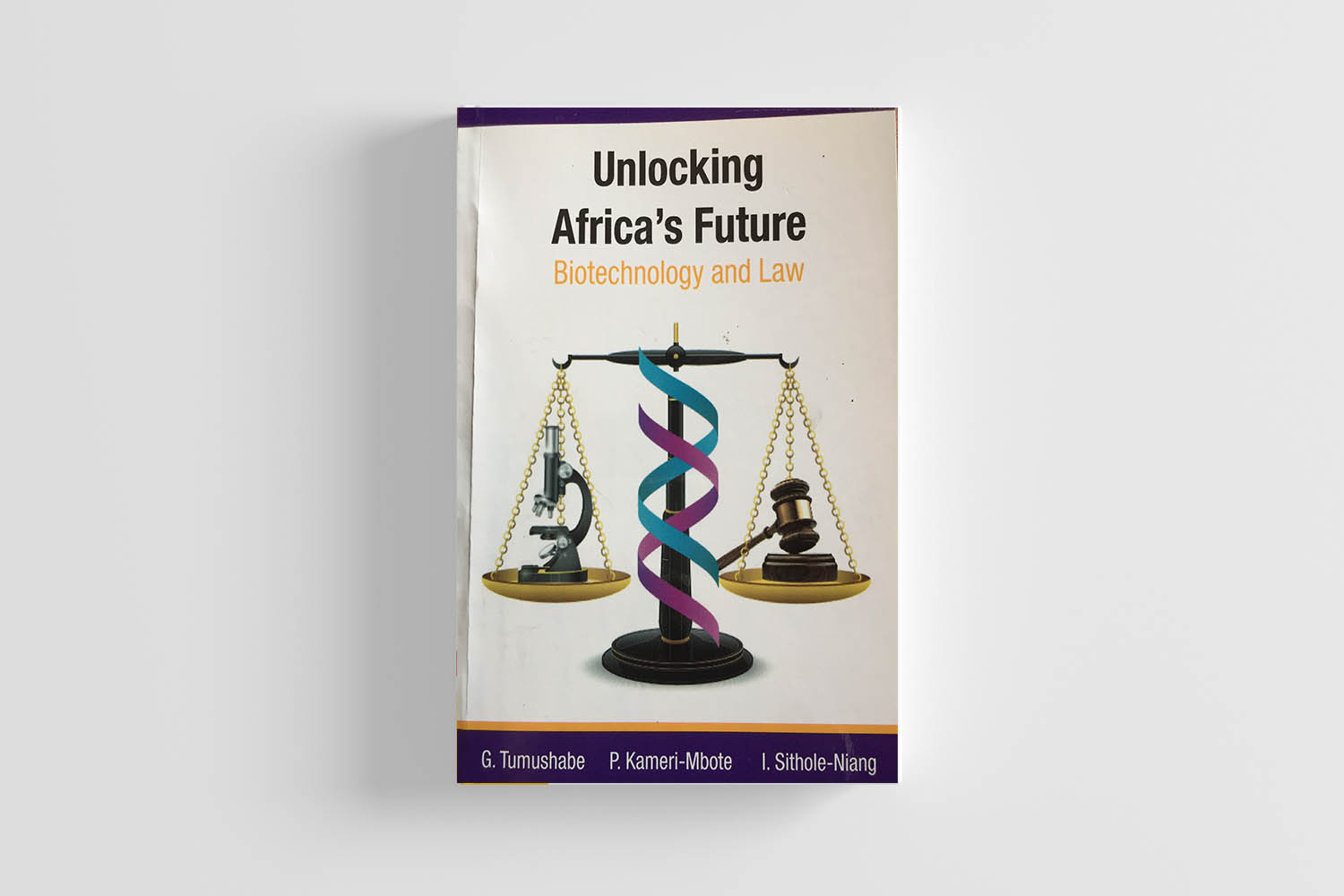
Unlocking Africa's Future: Biotechnology & the Law
Author(s): Godber Tumushabe, Patricia Kameri-Mbote, and Idah Sithole-Niang
Published: 2019
Unlocking Africa's Future: Biotechnology and Law examines the interface between law and modern biotechnology. By situating the biotechnology discourse in the context of African countries and economies, the authors make a case for homegrown biotechnology and biosafety legal reforms to facilitate innovation, and a focus on investments driven by local needs and national priorities. Based on an extensive analysis of the factors and forces shaping biotechnology policy in Africa, the book highlights the gaps in the contemporary legal and scientific discourse on biotechnology. Unlocking Africa's Future proposes ways in which legislation can help achieve convergence between biotechnology research and development while addressing the fundamental questions regarding the safe application of modern biotechnology. The book is an important resource for policymakers, biotechnology science practitioners, scholars, and students of science, policy, and politics of development.
View PDF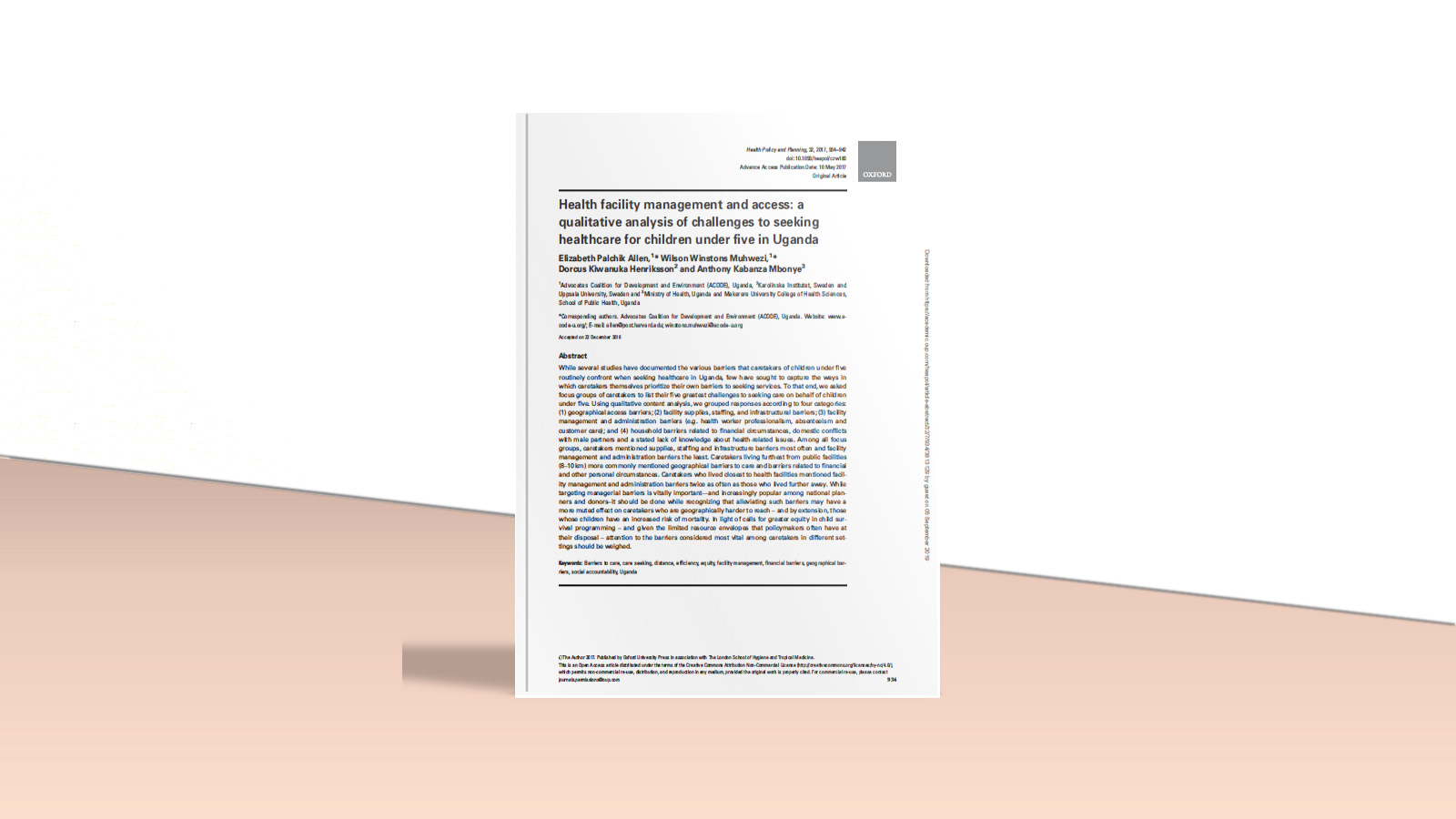
Health facility management and access: a qualitative analysis of challenges to seeking healthcare for children under five in Uganda
Author(s): Elizabeth Palchik Allen, Wilson Winstons Muhwezi, Dorcus Kiwanuka Henriksson, and Anthony Kabanza Mbonye
Published: 2017
While several studies have documented the various barriers that caretakers of children under five routinely confront when seeking healthcare in Uganda, few have sought to capture the ways in which caretakers themselves prioritize their own barriers to seeking services. To that end, we asked focus groups of caretakers to list their five greatest challenges to seeking care on behalf of children under five. Using qualitative content analysis, we grouped responses according to four categories: (1) geographical access barriers; (2) facility supplies, staffing, and infrastructural barriers; (3) facility management and administration barriers (e.g. health worker professionalism, absenteeism and customer care); and (4) household barriers related to financial circumstances, domestic conflicts with male partners and a stated lack of knowledge about health-related issues. Among all focus groups, caretakers mentioned supplies, staffing, and infrastructure barriers most often and facility management and administration barriers the least. Caretakers living furthest from public facilities (8–10 km) more commonly mentioned geographical barriers to care and barriers related to financial and other personal circumstances. Caretakers who lived closest to health facilities mentioned facility management and administration barriers twice as often as those who lived further away. While targeting managerial barriers is vitally important—and increasingly popular among national planners and donors–it should be done while recognizing that alleviating such barriers may have a more muted effect on caretakers who are geographically harder to reach – and by extension, those whose children have an increased risk of mortality. In light of calls for greater equity in child survival programming – and given the limited resource envelopes that policymakers often have at their disposal – attention to the barriers considered most vital among caretakers in different settings should be weighed.
View PDF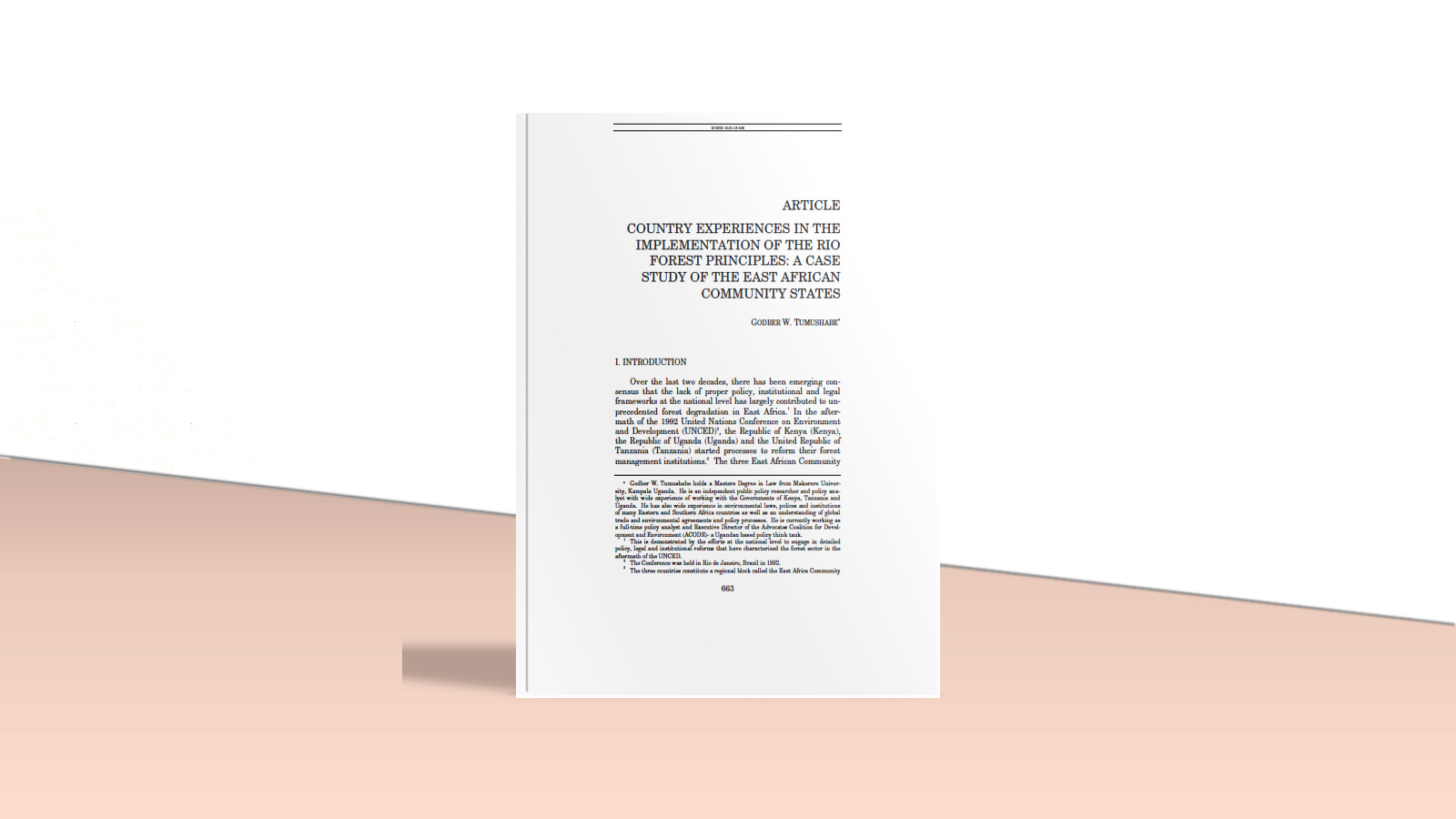
Country Experiences In The Implementation Of The Rio Forest Principles: A Case Study Of The East African Community States
Author(s): Godber W. Tumushabe
Published: 2002
Over the last two decades, there has been an emerging consensus that the lack of proper policy, institutional and legal frameworks at the national level has largely contributed to unprecedented forest degradation in East Africa.1 In the aftermath of the 1992 United Nations Conference on Environment and Development (UNCED)2, the Republic of Kenya (Kenya), the Republic of Uganda (Uganda) and the United Republic of Tanzania (Tanzania) started processes to reform their forest management institutions.
View PDF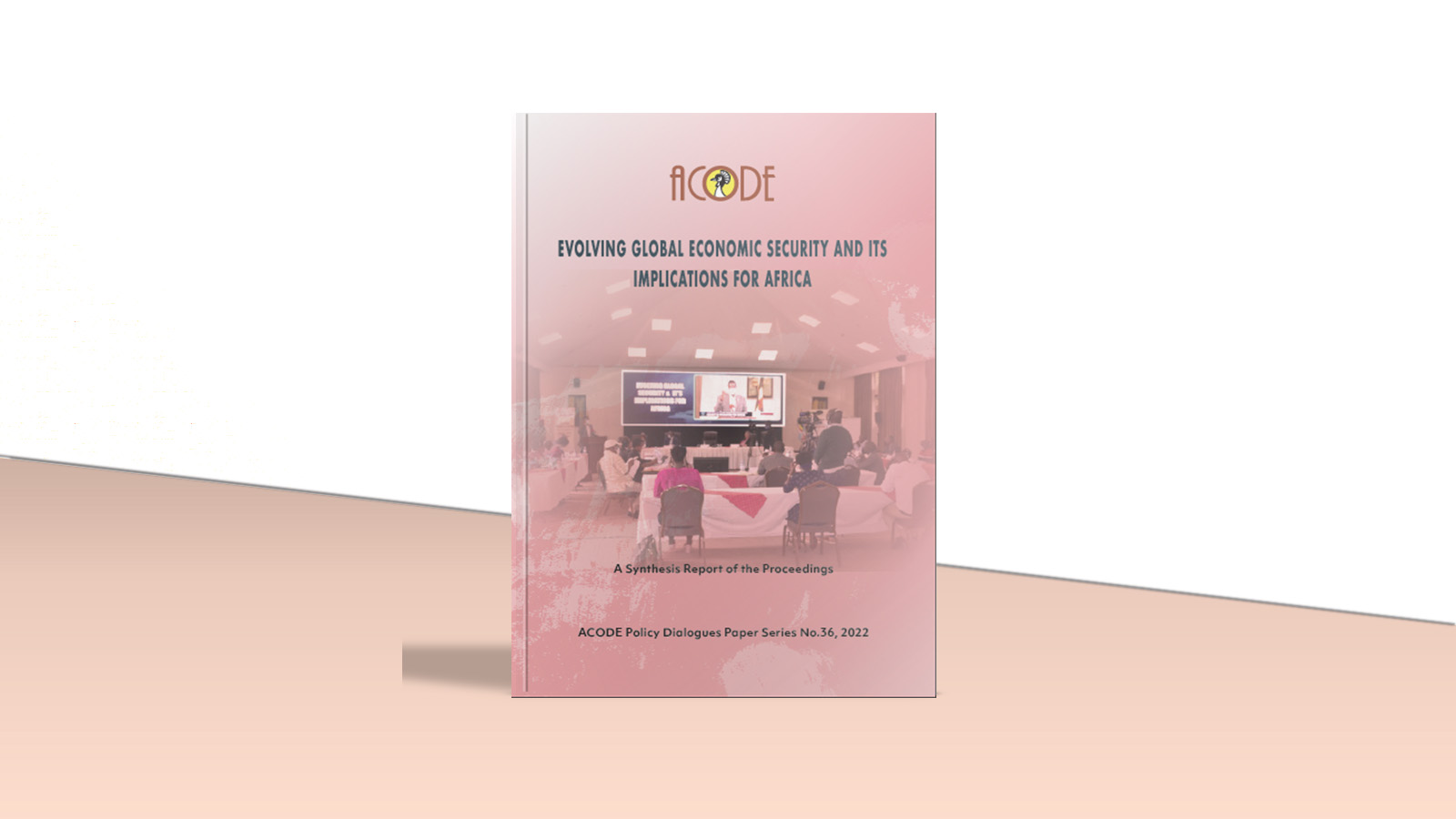
Evolving Global Economic Security and its Implications for Africa: A Synthesis Report of the Proceedings
Author(s): ACODE
Published: 2022
This is a synthesis report of proceedings from a public dialogue on evolving global economic security and its implications for Africa. The dialogue was organized at the peak of the rising prices for commodities in Uganda mainly arising from the effect of COVID-19 and the effect of the Russia-Ukraine conflict coupled with multiple and varying security threats to African interests.
View PDF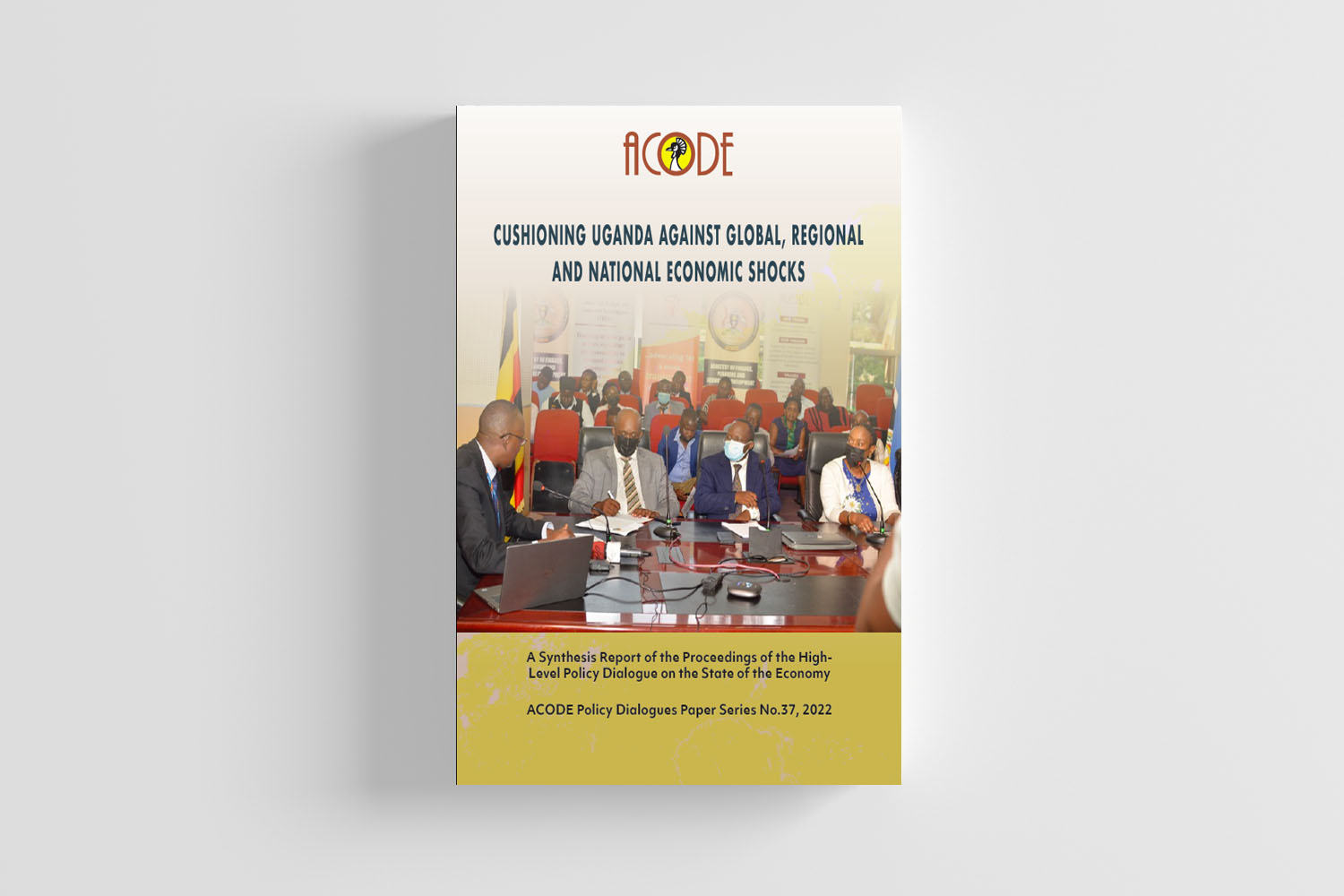
Cushioning Uganda against Global, Regional and National Economic Shocks: A Synthesis Report of the Proceedings of the High-Level Policy Dialogue on the State of the Economy
Author(s): ACODE
Published: 2022
This report presents a synthesis of the proceedings of the high-level policy dialogue, key policy discussions, and recommendations to Cushion Uganda against global, regional, and national economic shocks. The dialogue included a keynote presentation by MoFPED and a panel of eminent professionals and plenary discussions. The presenters and panelists were drawn from various spheres including the Academia, Civil society, private sector (FSMSE, KACITA, UMA), development partners, Members of Parliament, the general public, and Government Ministries, Departments, and Agencies (MDA’s).
View PDF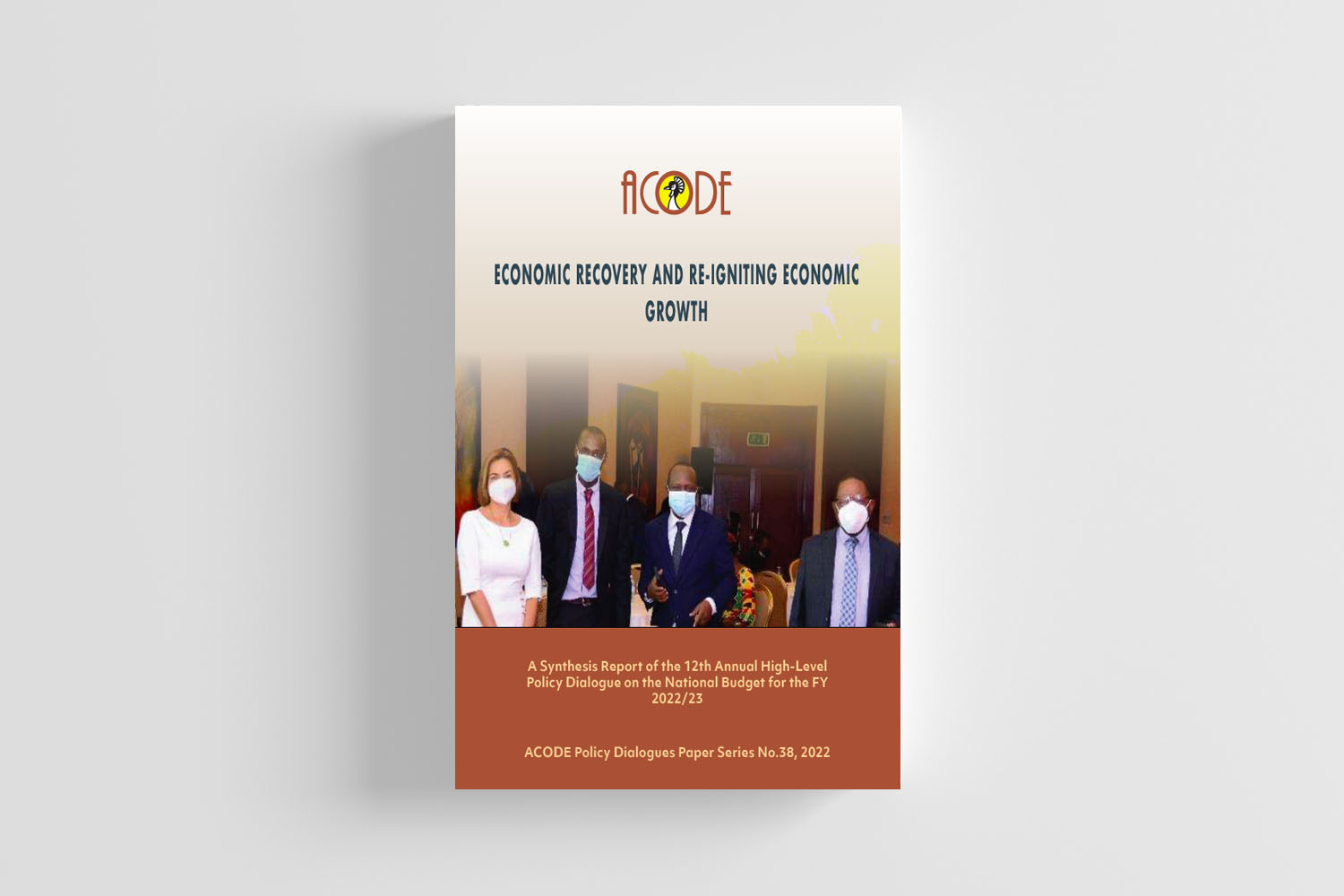
Economic Recovery and Re-igniting Economic Growth: A Synthesis Report of the 12th Annual High-Level Policy Dialogue on the National Budget for the FY 2022/23
Author(s): ACODE
Published: 2022
This report presents a synthesis of the proceedings of the 12th annual high-level policy dialogue on the national budget. The annual budget for FY 2022/23 is the third in the implementation of the third National Development Plan. It was situated in uncertain times mostly due to the multiplicity of COVID-19 variants that prolonged the pandemic and remain to be an issue of concern. To deal with the first and second waves of the COVID-19 pandemic, the Government of Uganda instituted several containment measures including total and later partial lockdowns of the economy. Subsequently, schools and several businesses were either closed and/or opened with constraints, all geared toward managing the spread of COVID-19. The pandemic notwithstanding, there are still commitments by the Government to the people of Uganda around industrialization, enhancing the wellbeing, and improving maintenance, availability, and affordability of productive infrastructure while pursuing public sector effectiveness and efficiency.
View PDF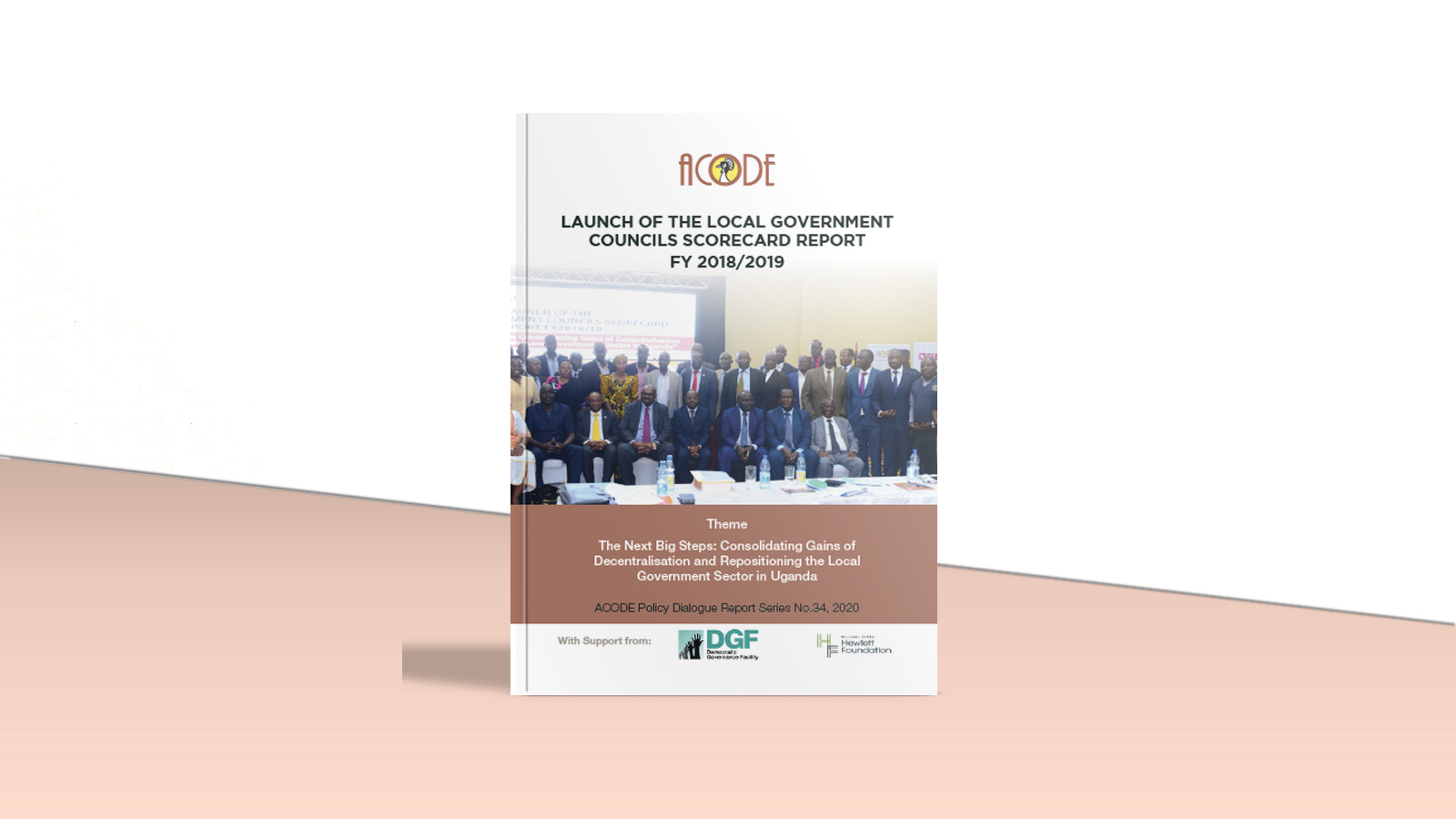
Launch of the 8th Local Government Councils Scorecard Report FY 2018/19
Author(s): ACODE
Published: 2020
This report presents the proceedings of the Local Government Councils Scorecard Assessment FY 2018/19 themed “The Next Big Steps: Consolidating Gains of Decentralisation and Repositioning the Local Government Sector in Uganda."
View PDF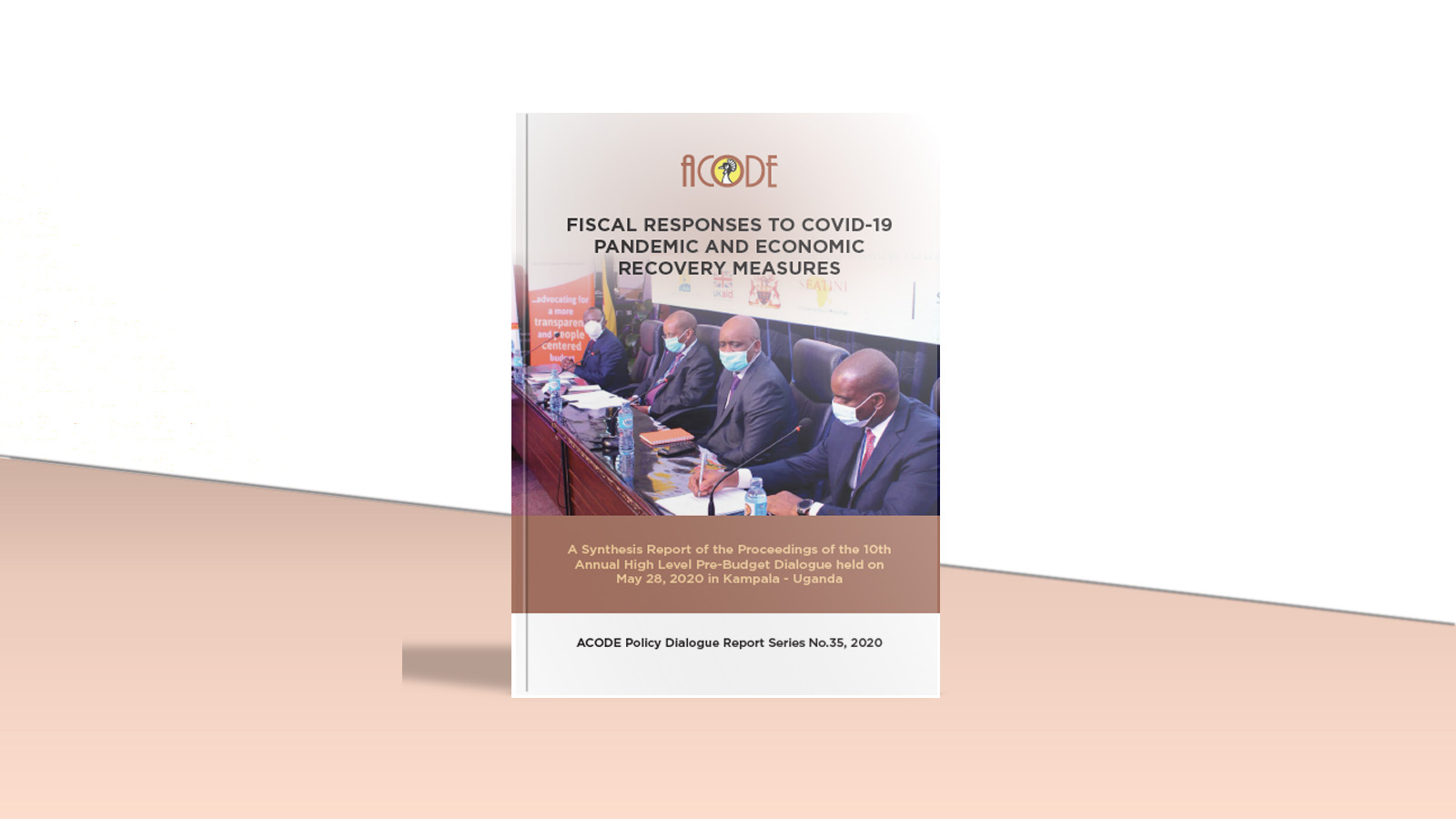
Fiscal Responses to COVID-19 Pandemic and Economic Recovery Measures
Author(s): ACODE
Published: 2020
The report presents proceedings of the 10th Annual High Level Pre-Budget Dialogue held on May 28, 2020 in Kampala - Uganda
View PDF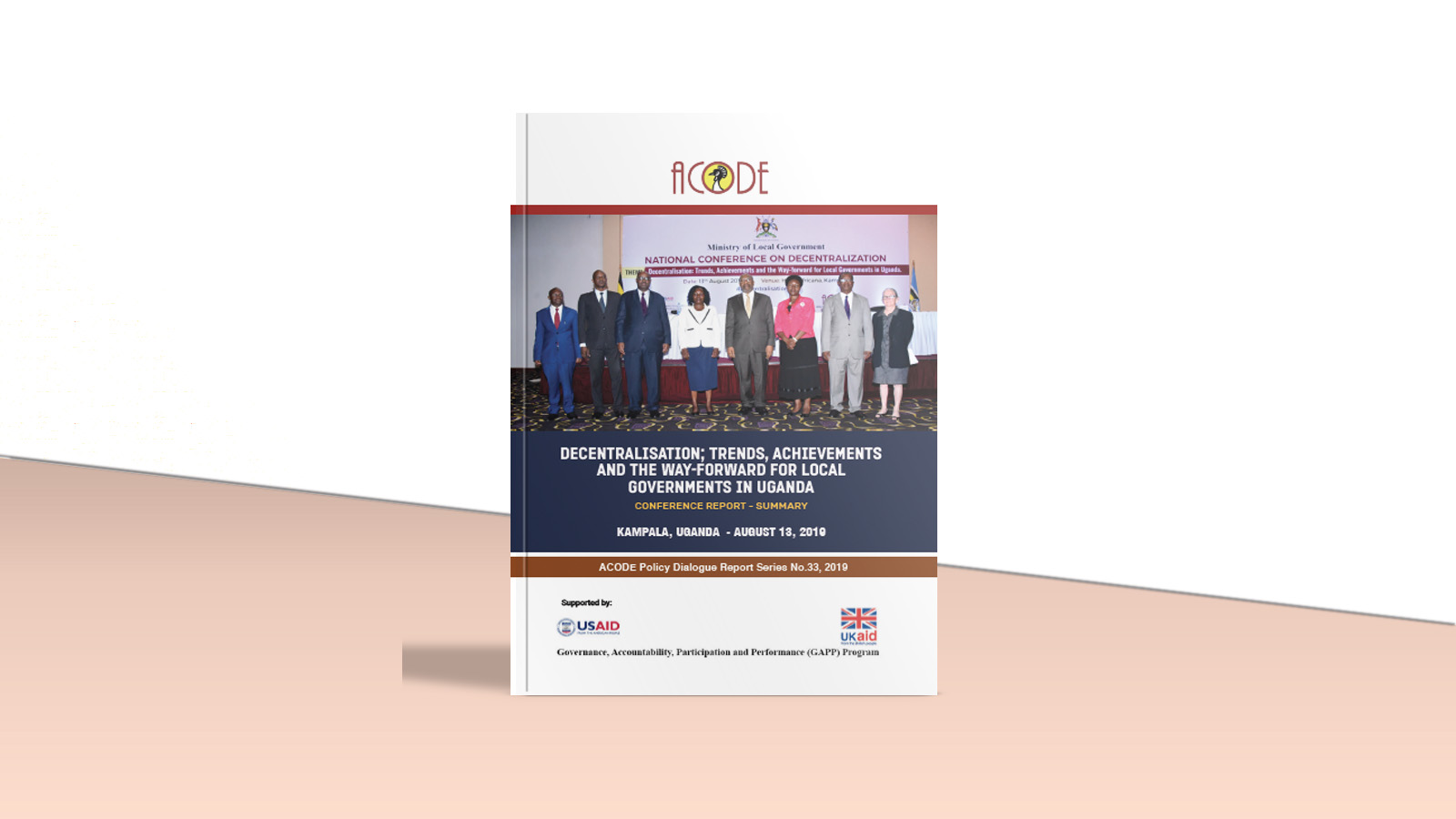
Decentralisation Trends, Achievements and the Way-forward for Local Governments in Uganda: Conference Report - Summary
Author(s): ACODE
Published: 2019
The report presents proceedings of the National Conference on Decentralisation held at Hotel Africana in Kampala, Uganda, on August 13, 2019 themed "Decentralisation: Trends, Gains, Challenges and the Future of Local Governments in Uganda." The Conference assessed the impact of decentralisation policies and trends on financing for local governments, and highlighted measures [that can be] put in place by relevant stakeholders to support and strengthen decentralisation as per Article 176 of Uganda’s 1995 Constitution.
View PDF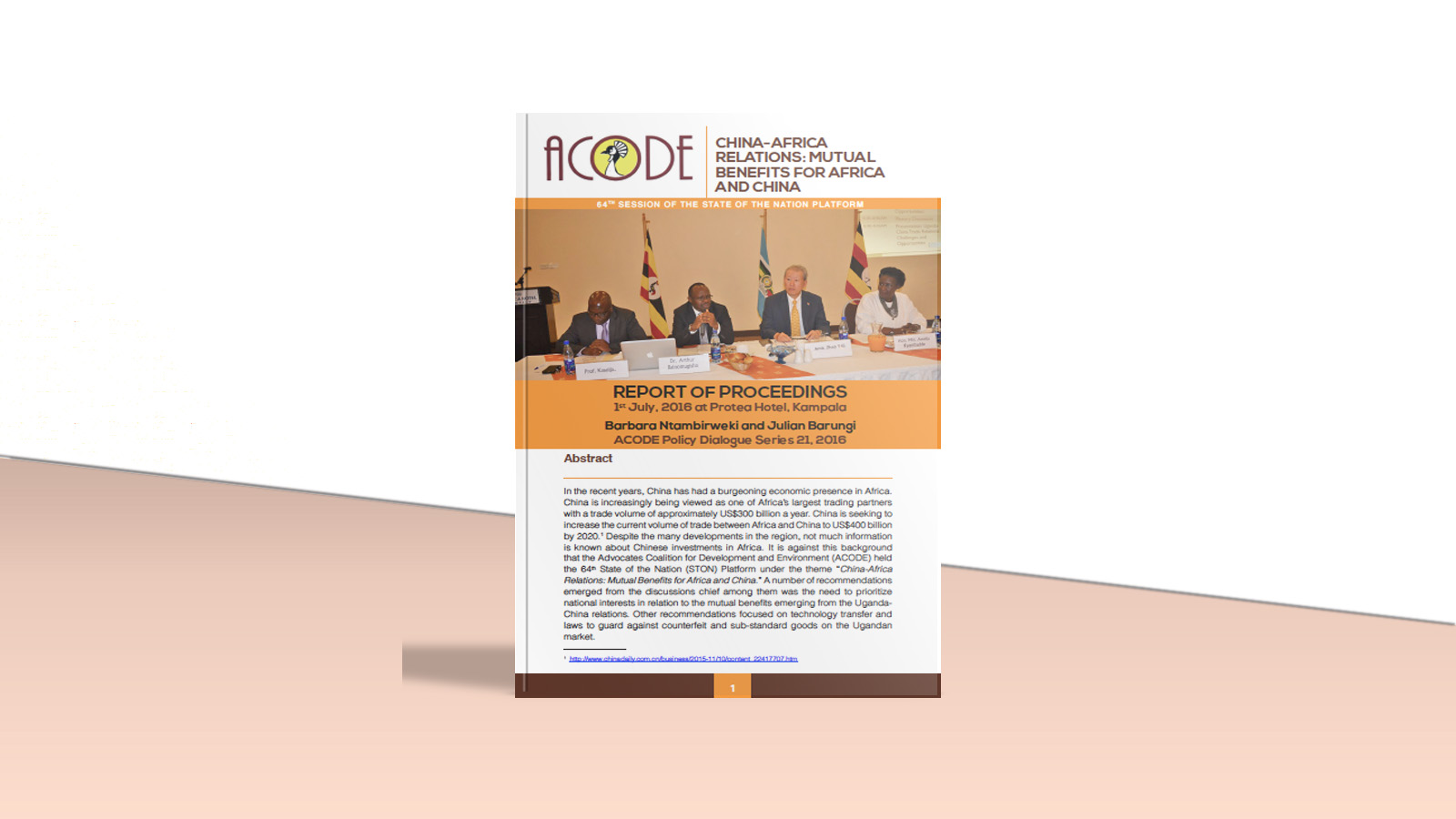
China-Africa Relations: Mutual Benefits for Africa and China
Author(s): Barbara Ntambirweki and Julian Barungi
Published: 2016
The paper synthesizes proceedings of the 64th State of the Nation Platform. The dialogue focused on understanding China-Africa Relations and mutual benefits for Africa and China.
View PDF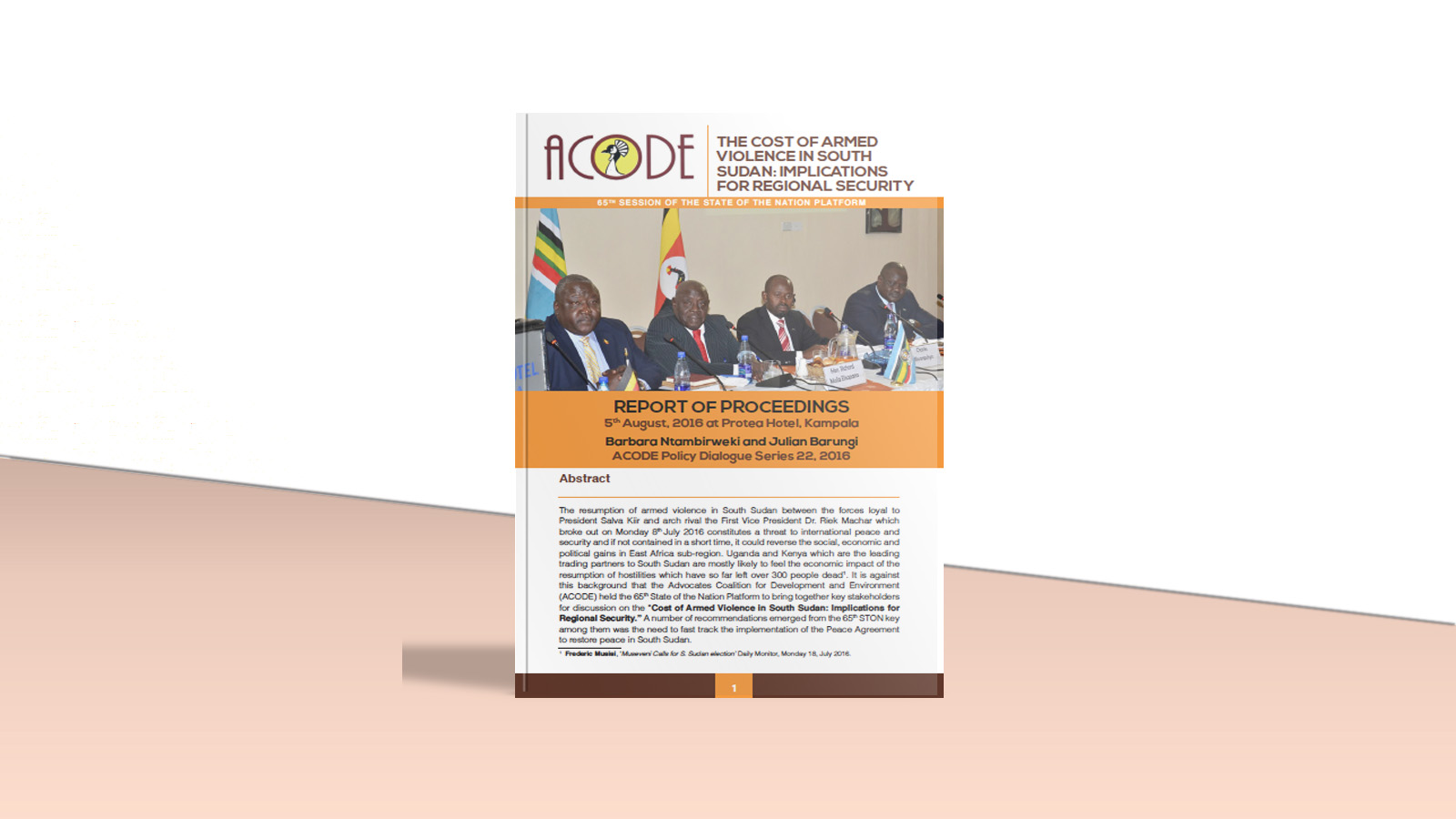
The Cost of Armed Violence in South Sudan: Implications for Regional Security
Author(s): Barbara Ntambirweki and Julian Barungi
Published: 2016
The paper synthesizes proceedings of the 65th State of the Nation Platform. The focused on the cost of armed violence in South Sudan and its implications for regional peace and security.
View PDF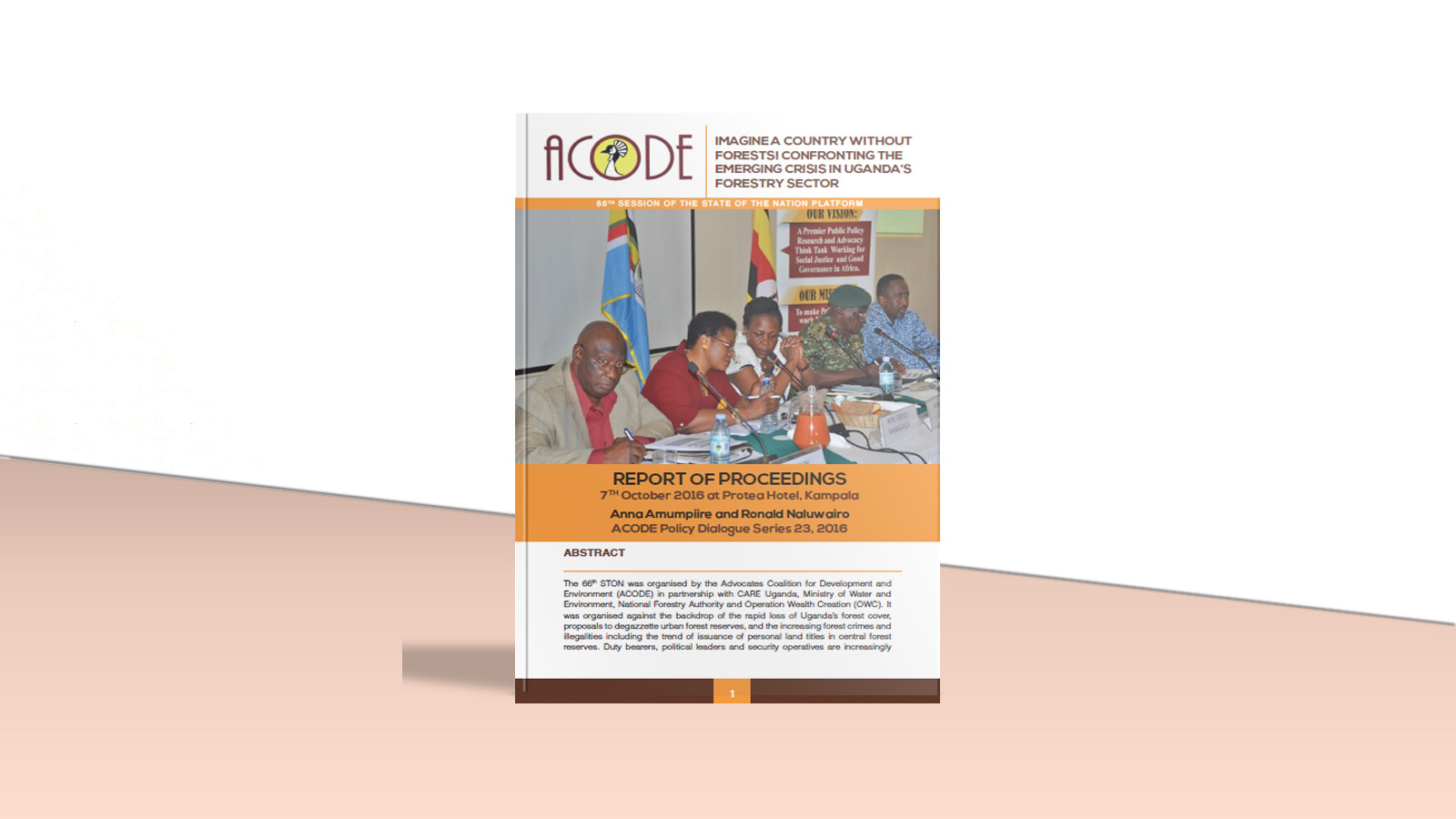
Imagine A Country Without Forests! Confronting The Emerging Crisis In Uganda’s Forestry Sector
Author(s): Anna Amumpiire and Ronald Naluwairo
Published: 2016
This dialogue report synthesises proceedings from the 66th State of the Nation platform that focused on the emerging crisis in Uganda’s forestry sub –sector. The platform brought together individual leaders, professionals in the forestry sector, the private sector, civil society, media and other interest groups to an honest, focused and bipartisan discourse on the emerging crisis in Uganda’s forestry sub - Sector with the view to ignite and spiral this policy issues debate.
View PDF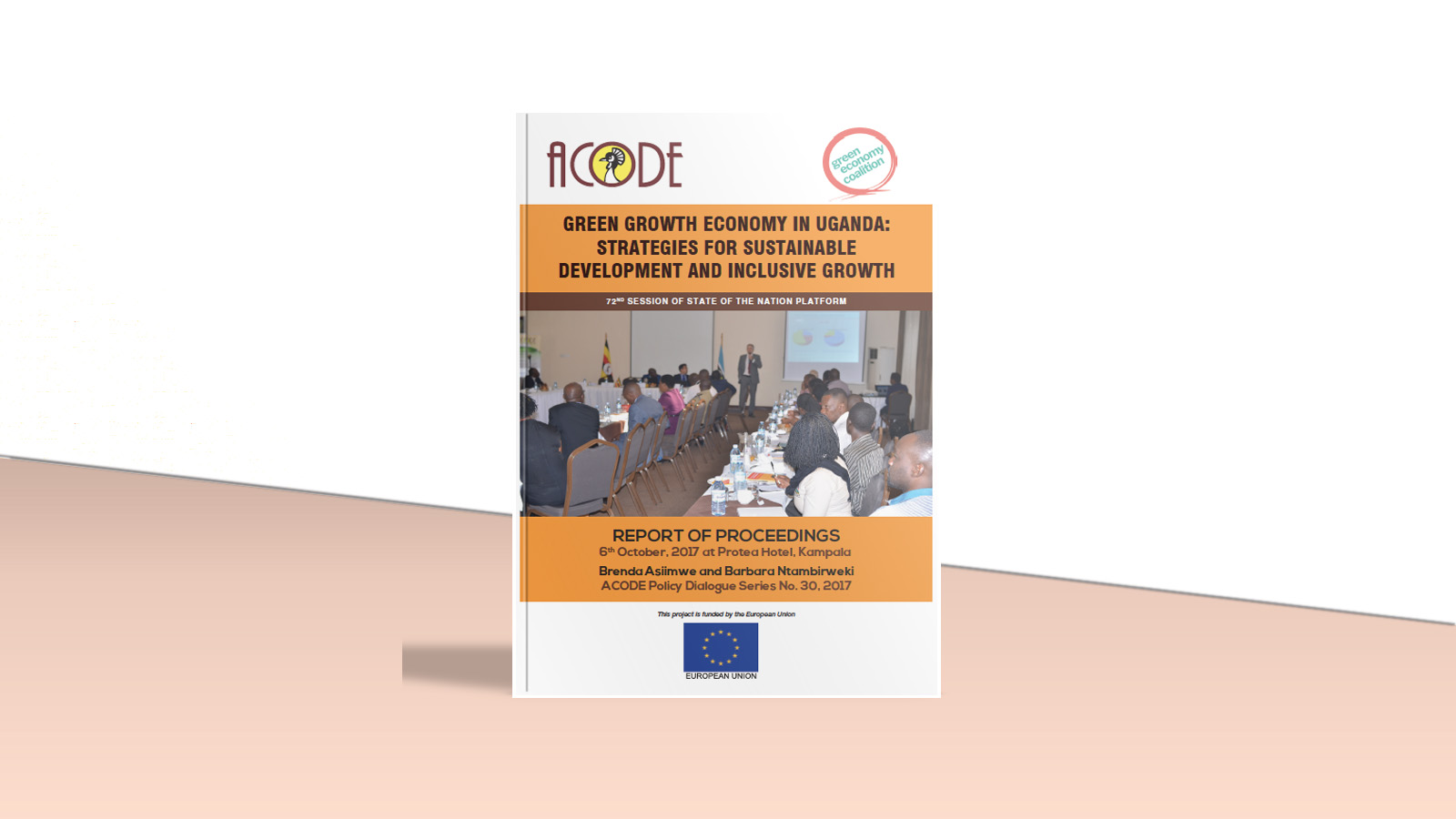
Green Growth Economy in Uganda: Strategies for Sustainable Development and Inclusive Growth
Author(s): Brenda Asiimwe and Barbara Ntambirweki
Published: 2016
This dialogue report synthesises proceedings from the 72nd State of the Nation platform dialogue focused on raising awareness about Green Growth as Uganda transitions toward greening its economy. The dialogue also looked at strategies for sustainable development and inclusive growth
View PDF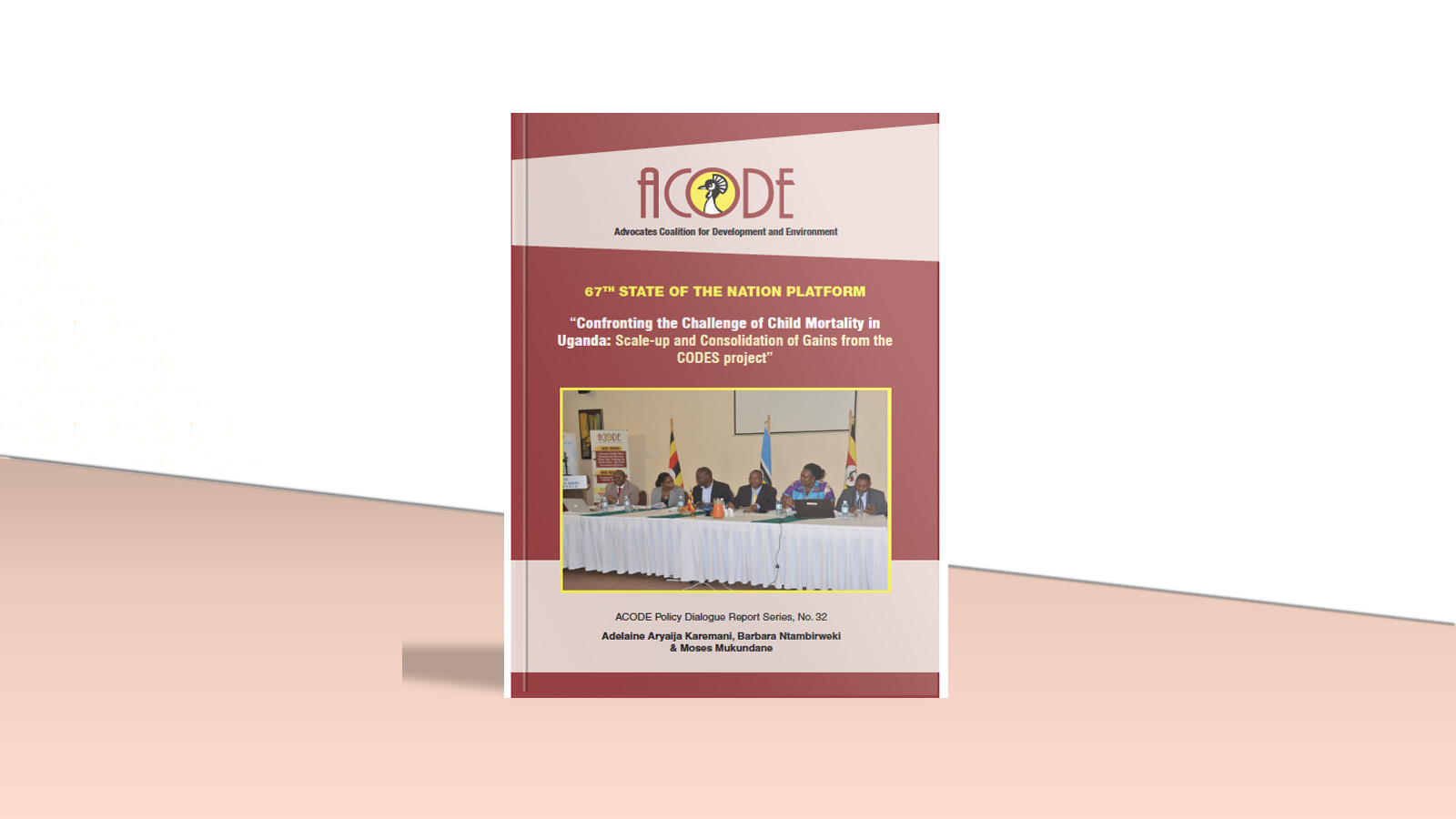
Confronting the Challenge of Child Mortality in Uganda: Scale-up and Consolidation of Gains from the CODES project
Author(s): Adelaine Aryaija Karemani, Barbara Ntambirweki and Moses Mukundane
Published: 2016
The report presents achievements and lessons learnt from five years of CODES implementation.The dialogue brought together a cross-section of key stakeholders in child survival in Uganda including; Women MPs, District Health Officers, Chief Administrative officers of the 13 CODES implementation districts, National Medical Stores, Health Monitoring Unit, UNICEF,ACODE, CFI, MoH and Makerere University.
View PDF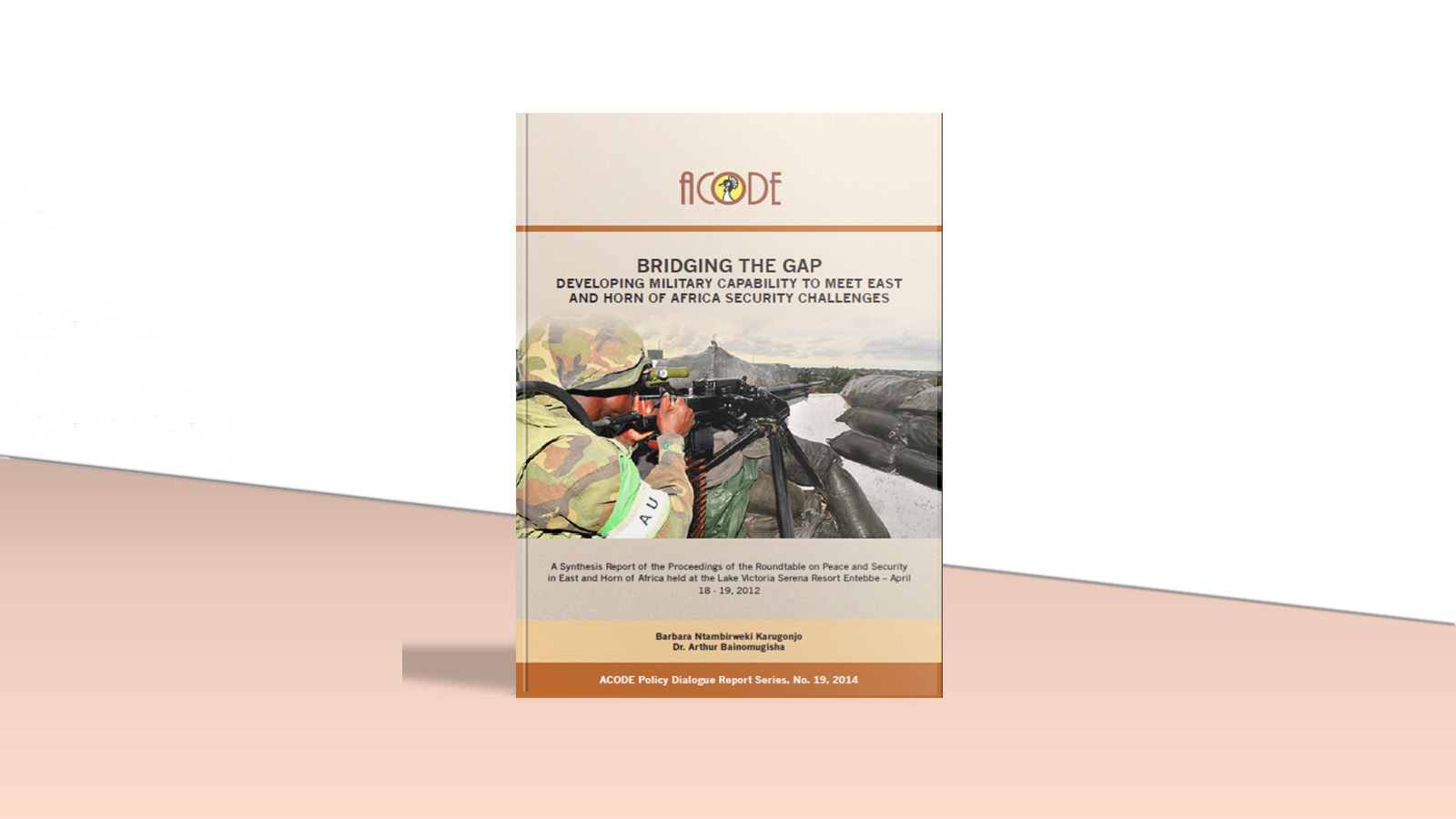
Bridging the Gap: Developing Military Capability to Meet East and the Horn of Africa Security Challenges
Author(s): Barbara Ntambirweki Karugonjo and Arthur Bainomugisha
Published: 2014
The report presents a synthesis of the proceedings of the Roundtable on Peace and Security in East and Horn of Africa held at the Lake Victoria Serena Resort Entebbe – April 18 - 19, 2012
View PDF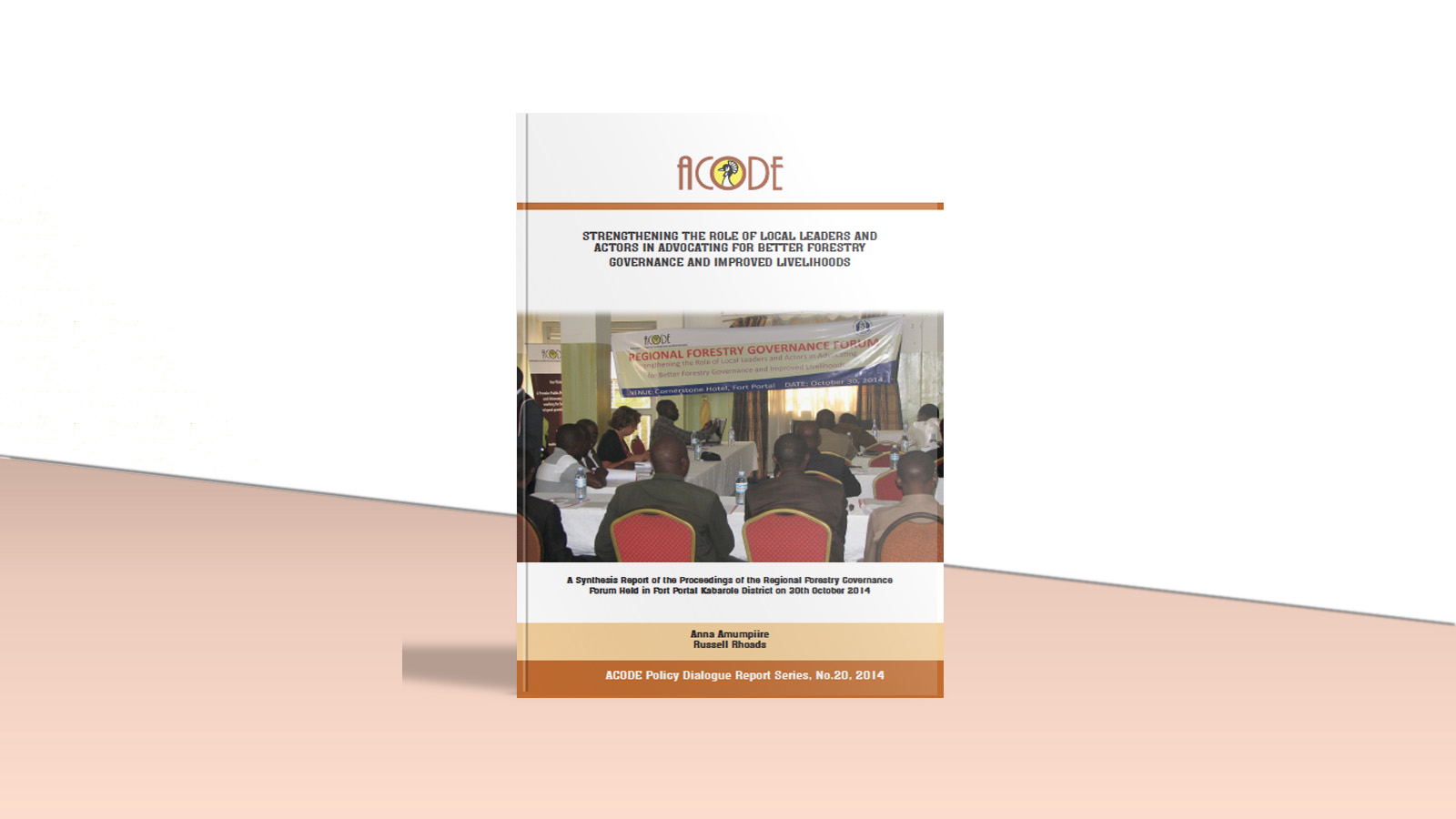
Strengthening the Role of Local Leaders and Actors in Advocating for Better Forestry Governance and Improved Livelihoods
Author(s): Anna Amumpiire and Russell Rhoads
Published: 2014
The report presents a synthesis of the proceedings of the Regional Forestry Governance Forum Held in Fort Portal, 2014. The Forum which targeted local leaders and actors convened 79 stakeholders such as councillors, LC chairpersons, technocrats, church leaders, journalists, the police, and representatives of the DPP and AG’s offices including selected civil society organisations and citizen groups.
View PDF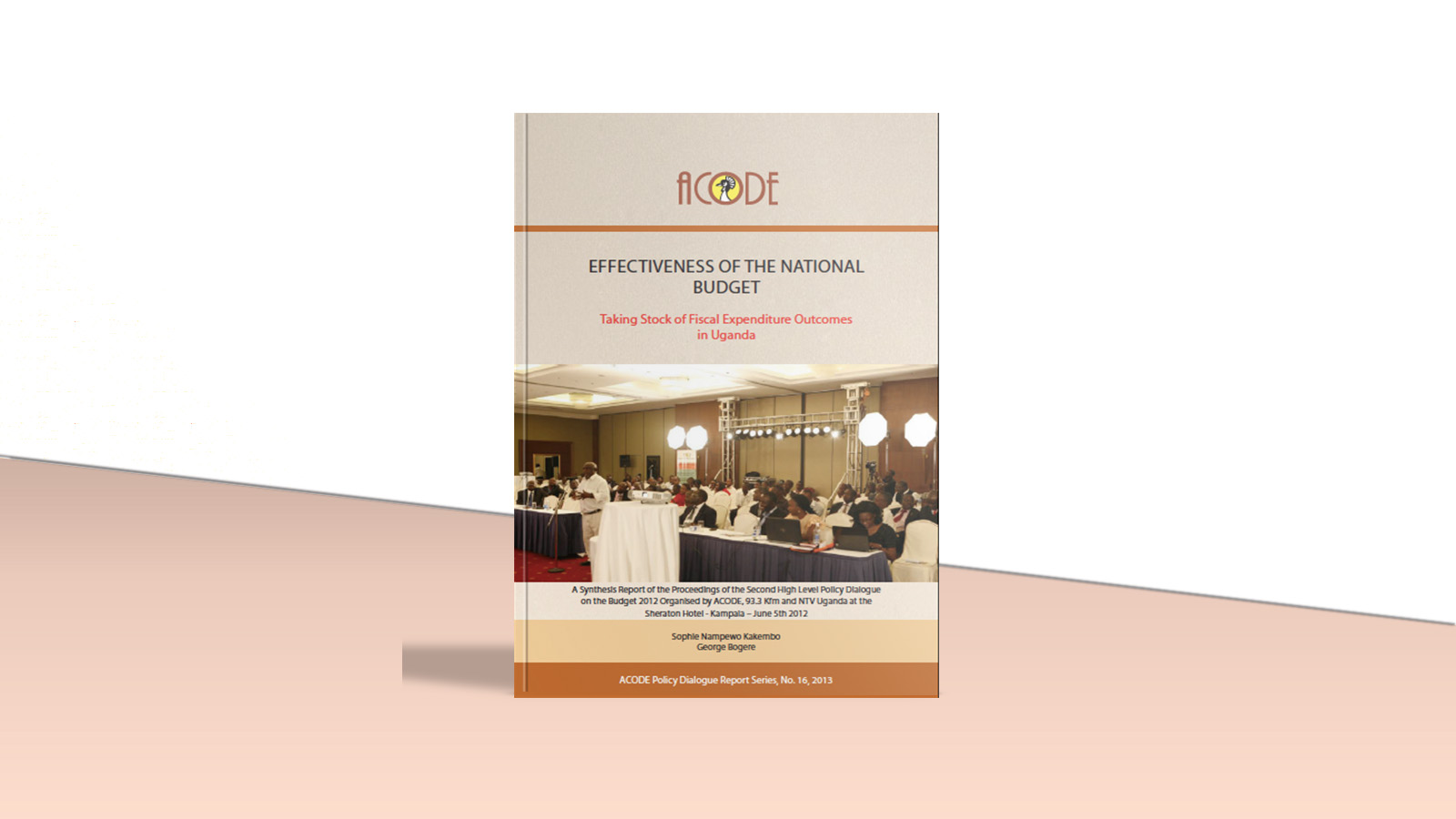
Effectiveness of the National Budget: Taking Stock of Fiscal Expenditure Outcomes in Uganda
Author(s): Sophie Nampewo Kakembo and George Bogere
Published: 2013
The report presents a synthesis of the proceedings of the Second High Level Policy Dialogue on the Budget 2012 organised by ACODE, 93.3 Kfm and NTV Uganda at the Sheraton Hotel - Kampala – June 5th 2012.
View PDF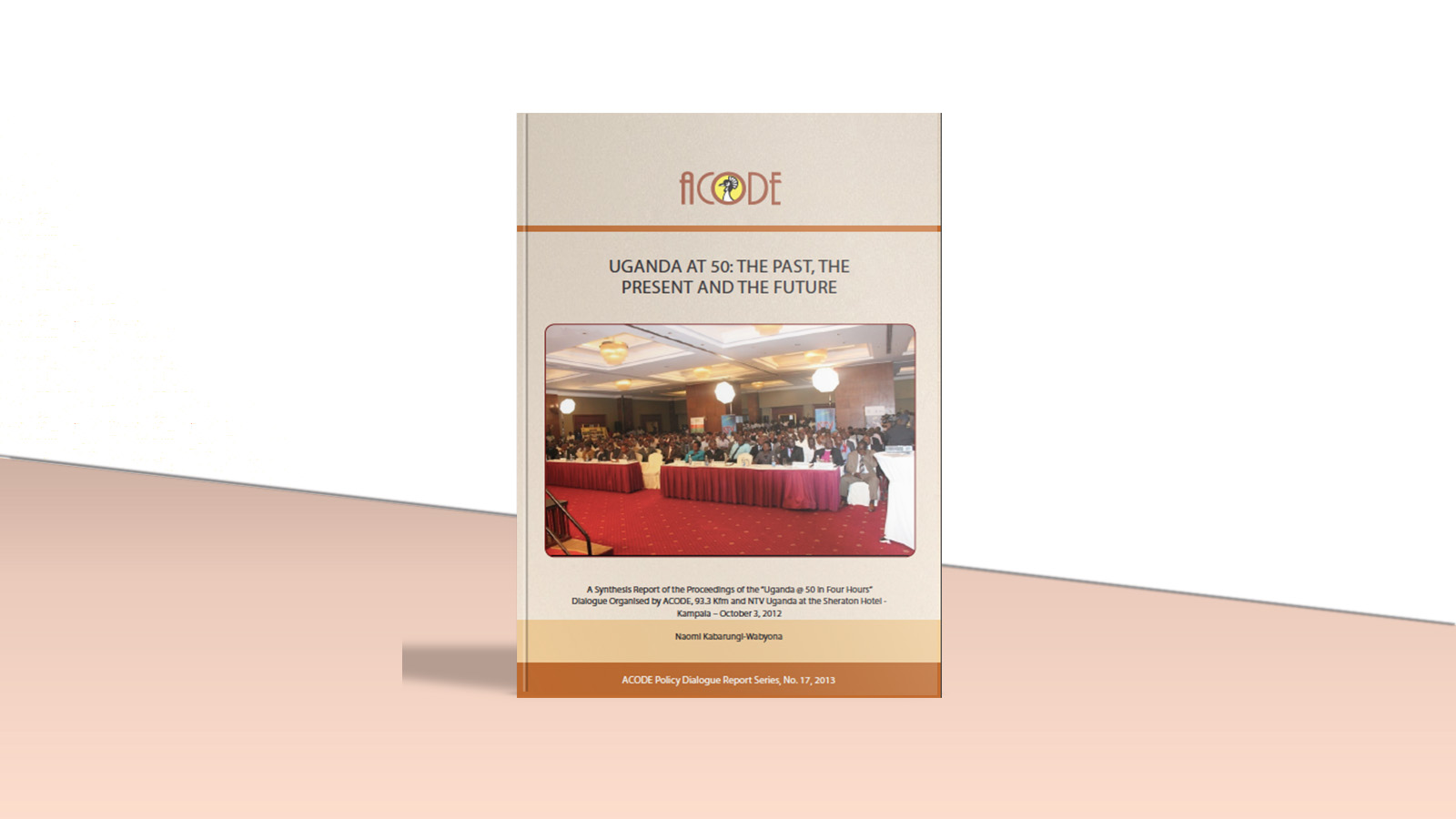
Uganda at 50: The Past, the Present and the Future
Author(s): Naomi Kabarungi-Wabyona
Published: 2013
The report presents a synthesis of the proceedings of the “Uganda @ 50 in Four Hours” Dialogue. The discussions that took place under the theme: “The Ugandan Promise” based on the foundation of the Constitution of Uganda, that all Ugandans have sovereign and indelible rights to pursue a life of prosperity, social justice and peaceful coexistence in a democratic state.
View PDF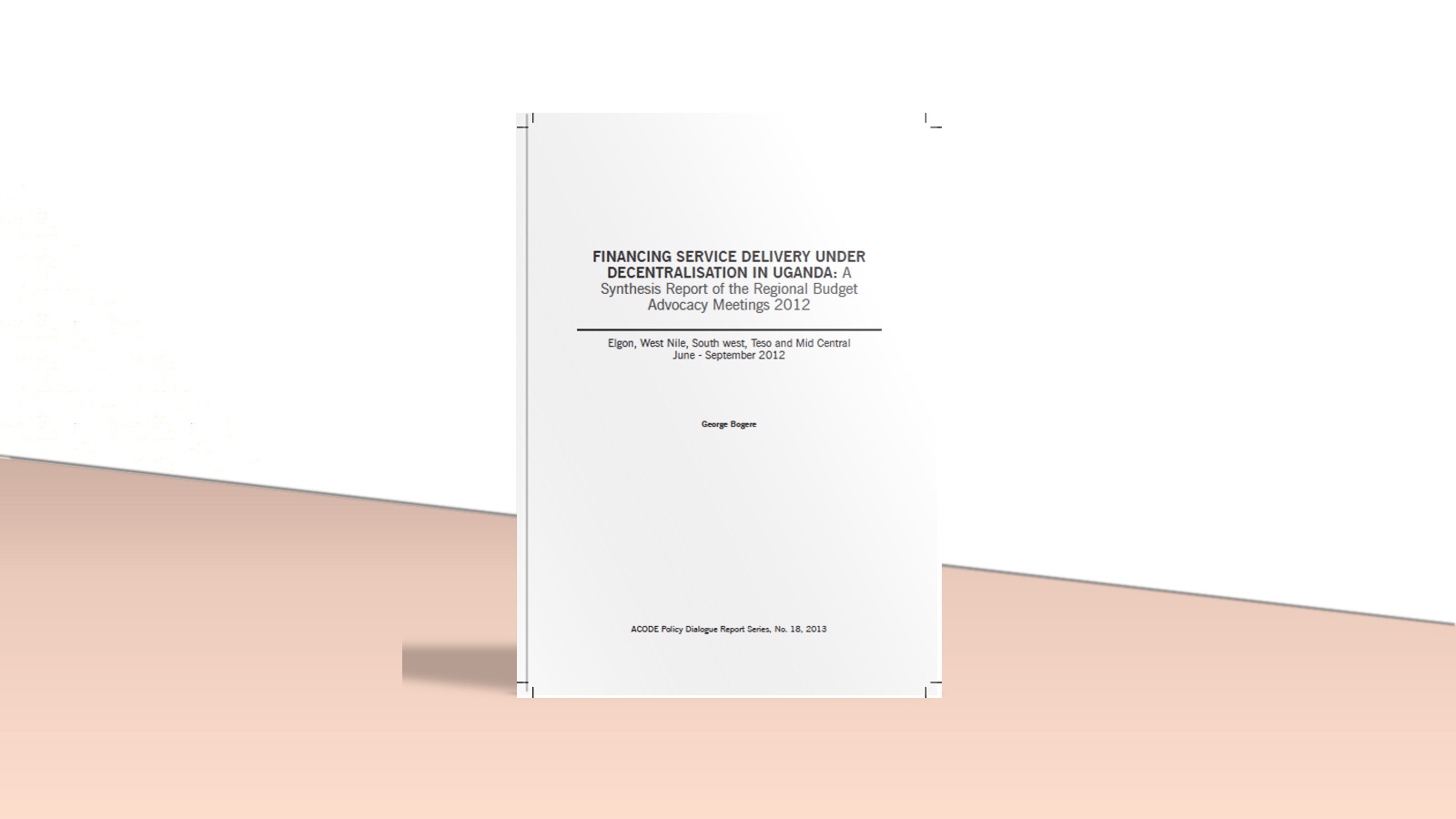
Financing Service Delivery Under Decentralisation in Uganda: A Synthesis Report of the Regional Budget Advocacy Meetings 2012
Author(s): George Bogere
Published: 2013
The report presents a synthesis of the proceedings of the regional budget advocacy platforms in five regions of Uganda including; West Nile, Elgon, Teso, Southwestern, and Mid-western regions. The platforms covered over 40 districts of Uganda. The focus of the discussions was how to finance service delivery under decentralization particularly inter-government resource allocation and internal revenue generation by sub-national or Local Governments including districts and sub-counties.
View PDF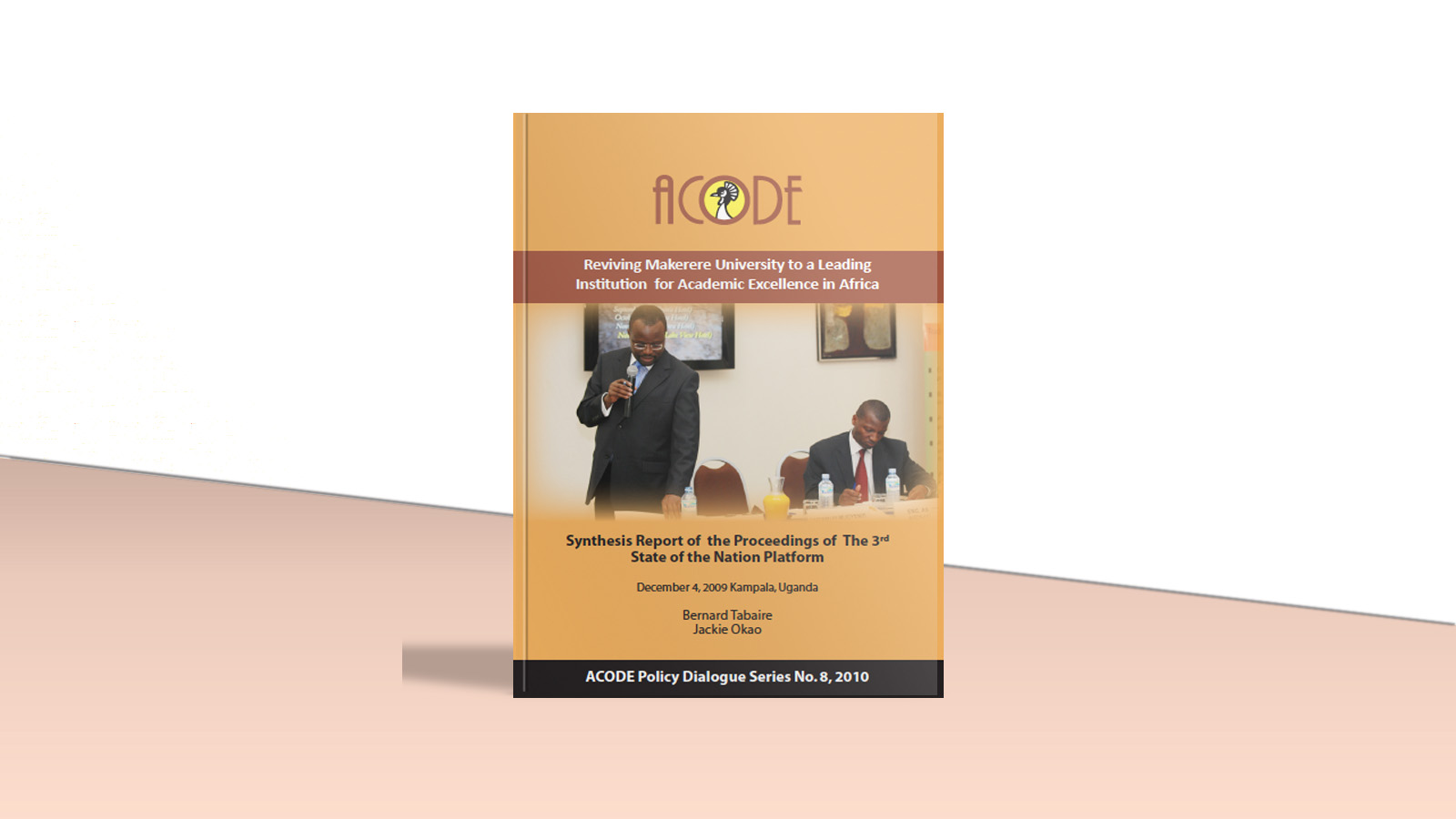
Reviving Makerere University to a Leading Institution for Academic Excellence in Africa
Author(s): Bernard Tabaire and Jackie Okao
Published: 2010
The paper synthesizes proceedings from 3rd state of the nation platform that took place on December 4, 2009 in Kampala, Uganda.
View PDF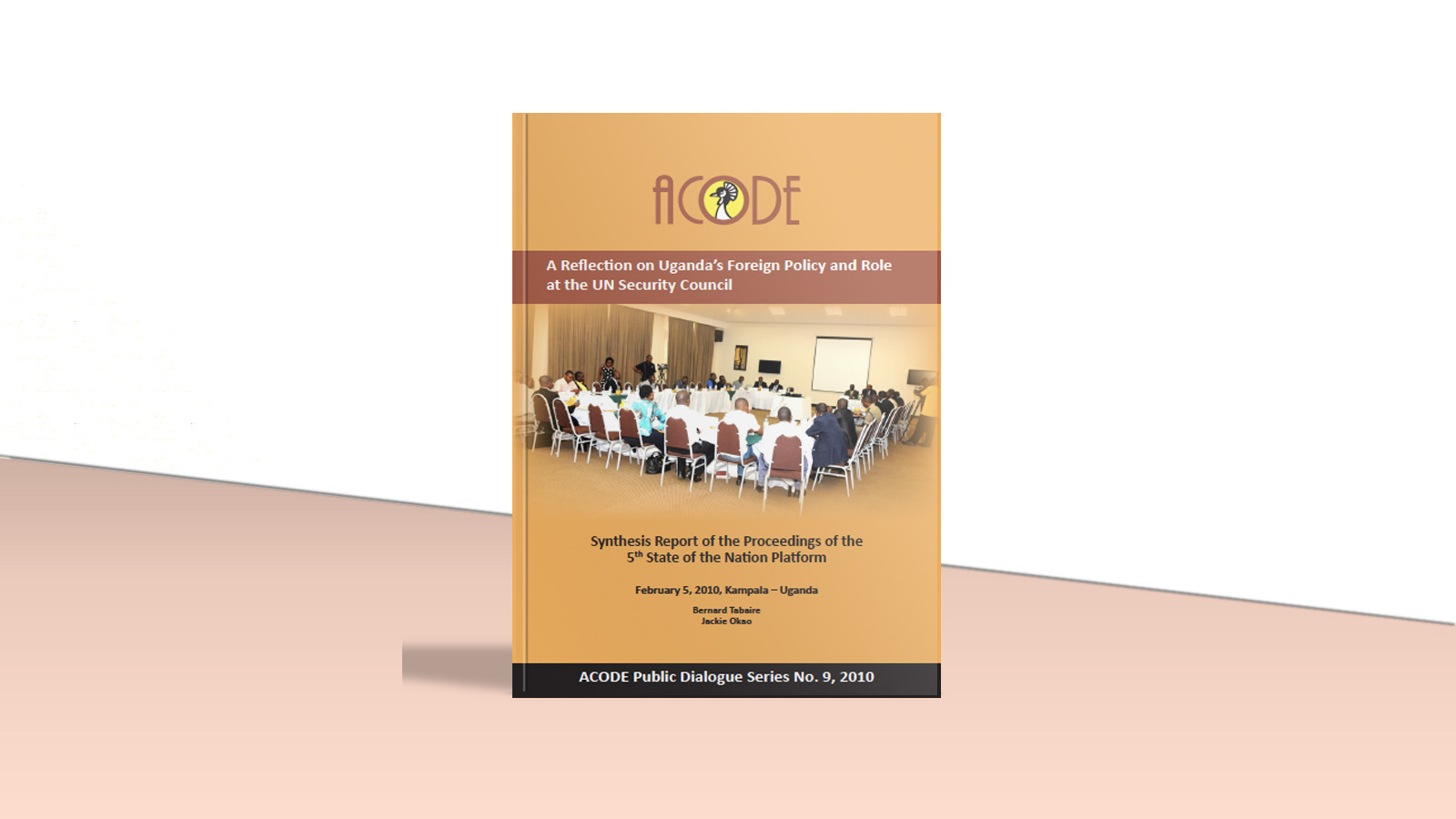
A Reflection on Uganda’s Foreign Policy and Role at the UN Security Council
Author(s): Bernard Tabaire and Jackie Okao
Published: 2010
The paper presents a synthesis Rof the Proceedings of the 5th State of the Nation Platform that took place on February 5, 2010 in Kampala – Uganda
View PDF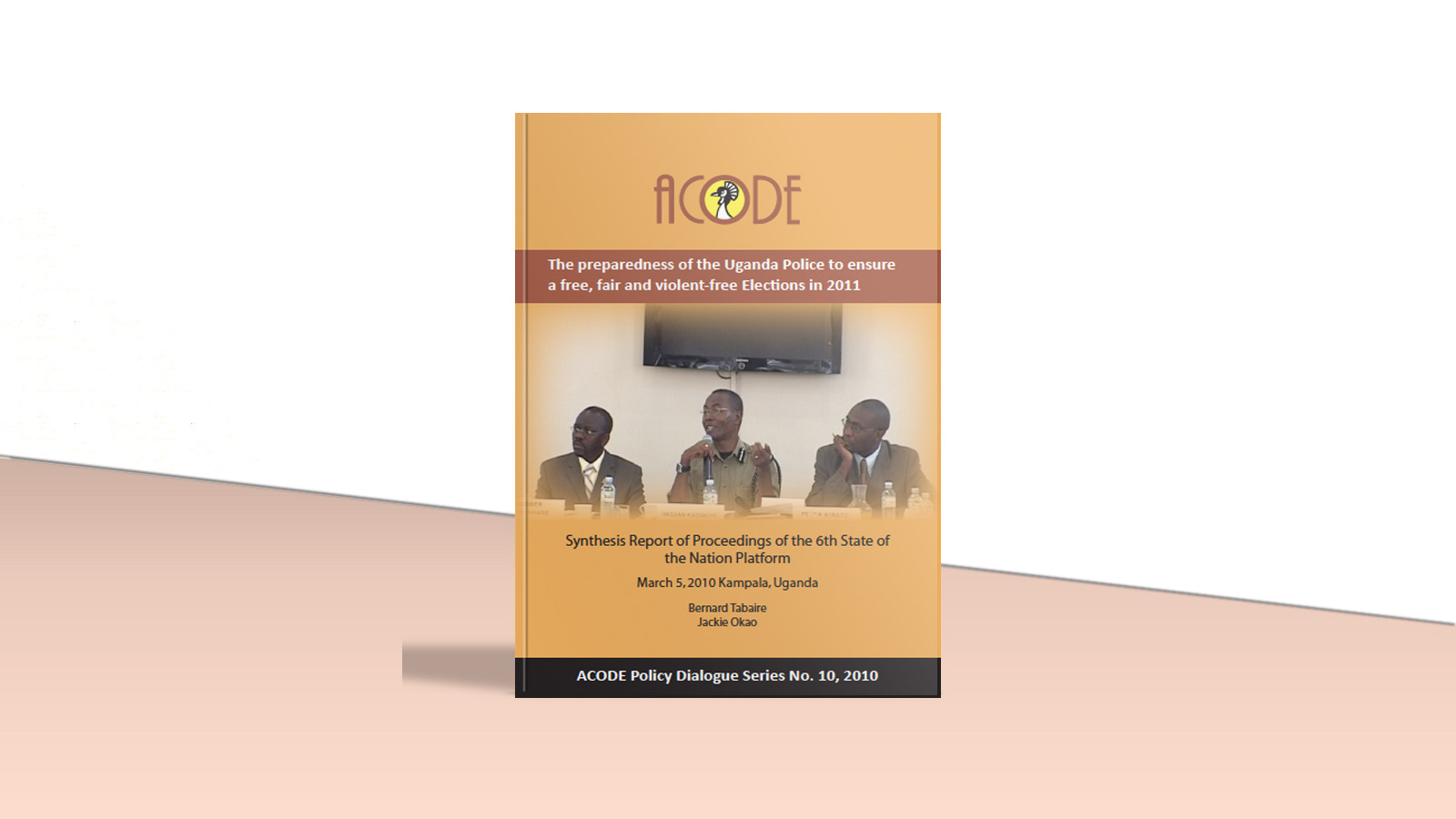
The preparedness of the Uganda Police to ensure a free, fair, and violent-free Elections in 2011
Author(s): Bernard Tabaire and Jackie Okao
Published: 2010
The paper synthesizes proceedings of the 6th State of the Nation Platform that took place on March 5, 2010 in Kampala, Uganda.
View PDF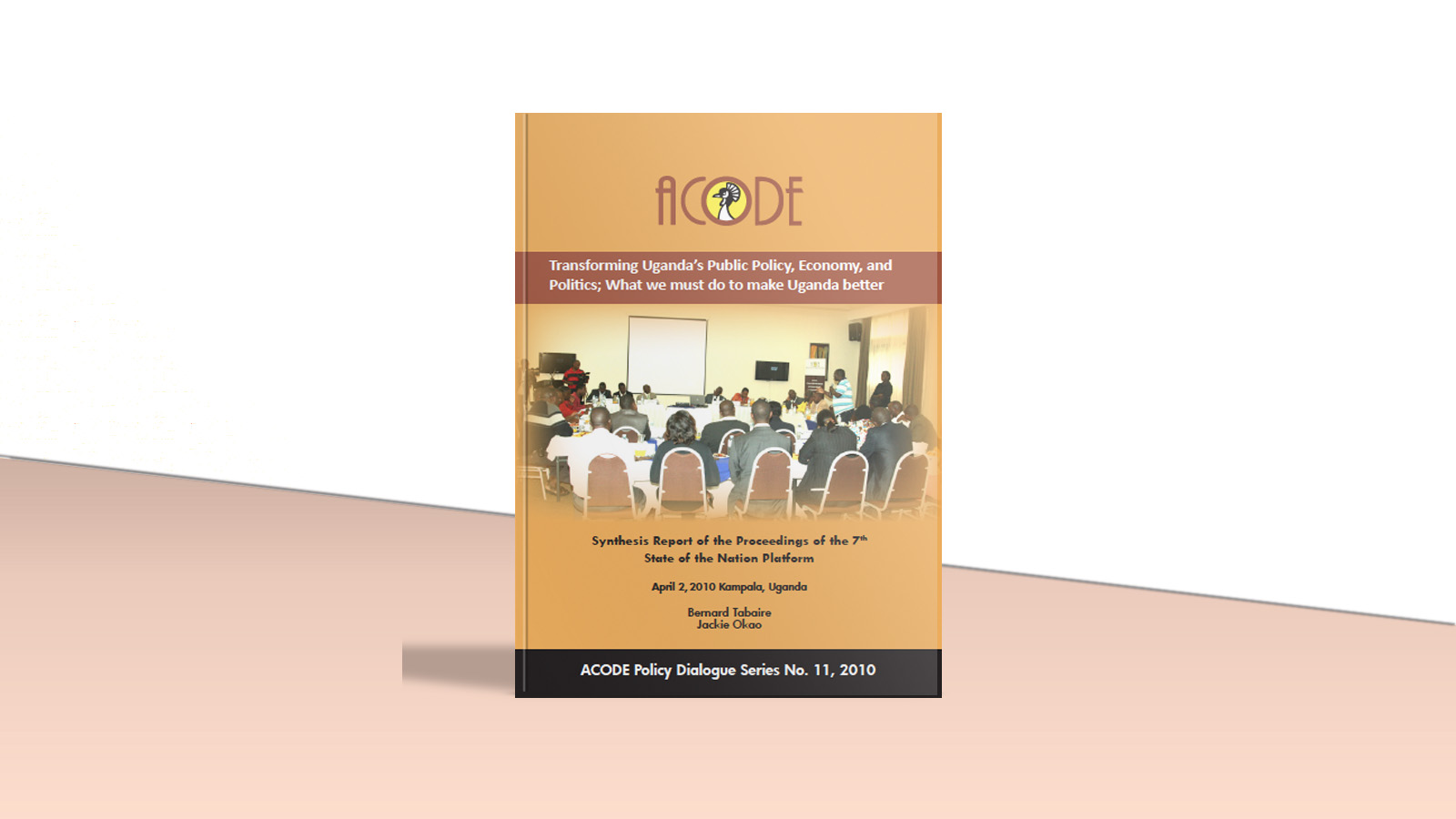
Transforming Uganda’s Public Policy, Economy, and Politics; What we must do to make Uganda better
Author(s): Bernard Tabaire and Jackie Okao
Published: 2010
The paper synthesizes proceedings of the 7th State of the Nation Platform that took place on April 2, 2010 in Kampala, Uganda.
View PDF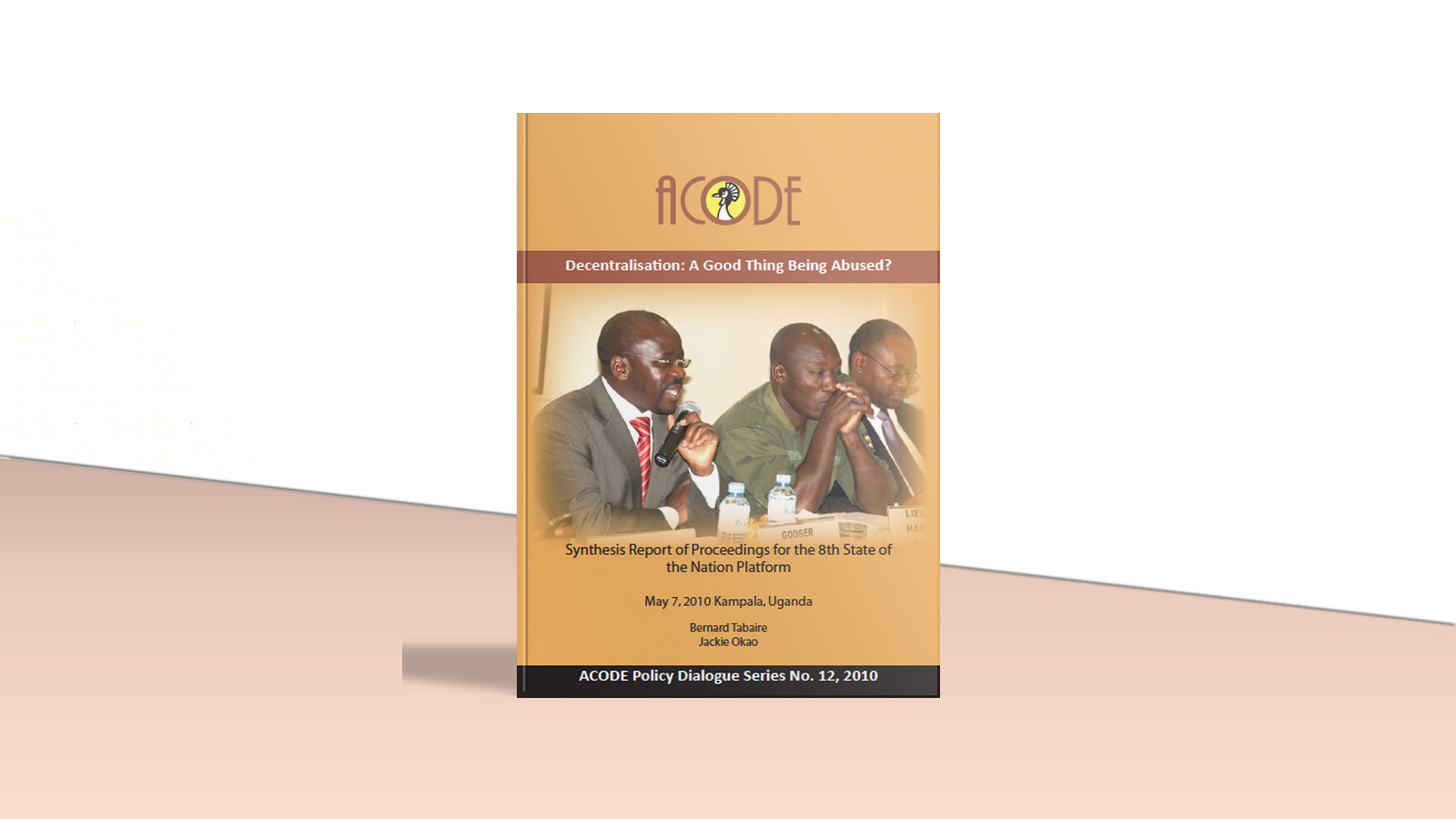
Decentralisation: A Good Thing Being Abused?
Author(s): Bernard Tabaire and Jackie Okao
Published: 2010
The paper synthesizes proceedings of the 8th State of the Nation Platform that took place on May 7, 2010 in Kampala, Uganda.
View PDF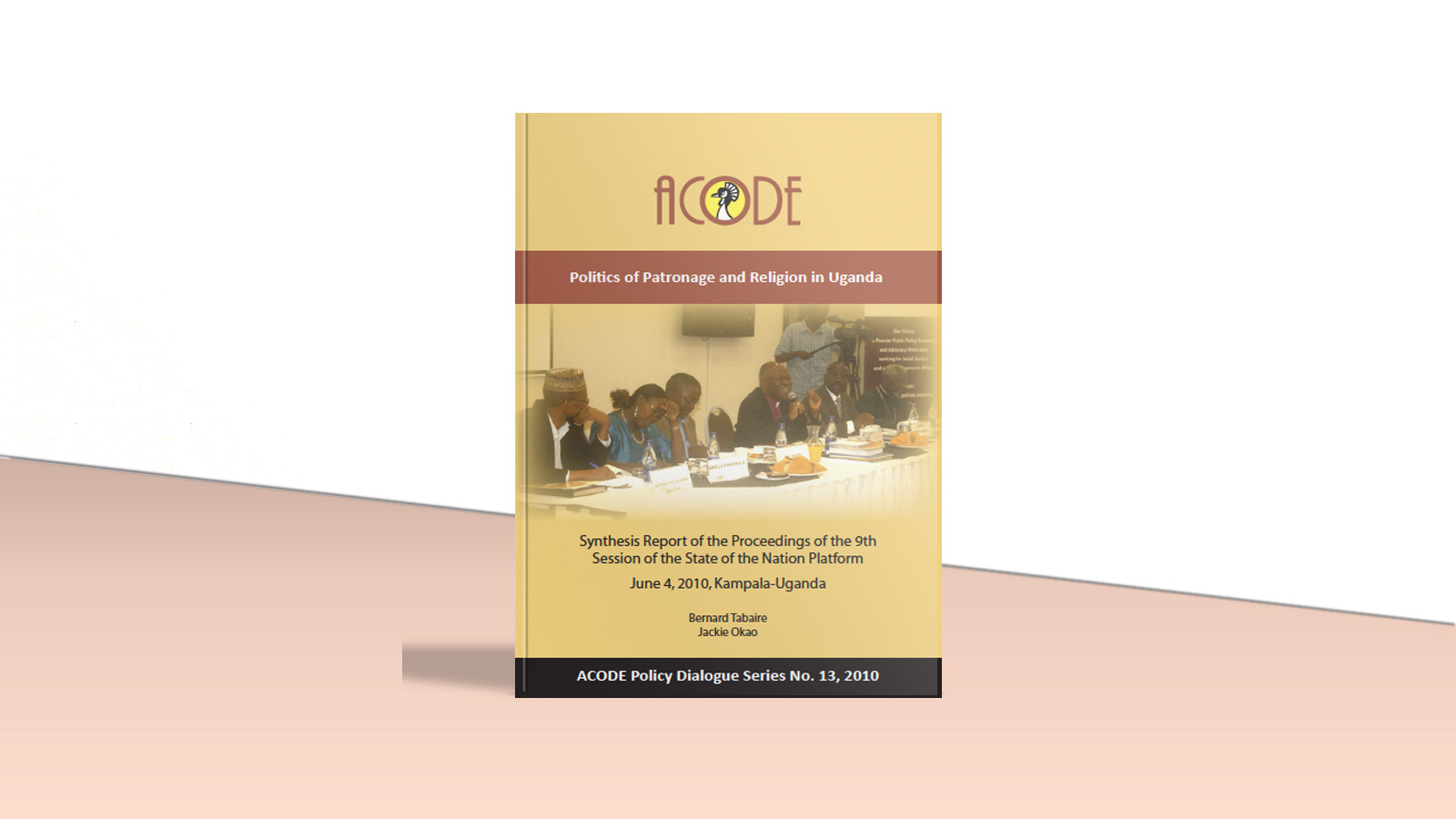
Politics of Patronage and Religion in Uganda
Author(s): Bernard Tabaire and Jackie Okao
Published: 2010
The paper synthesizes proceedings of the 9th State of the Nation Platform that took place on June 4, 2010 in Kampala, Uganda.
View PDF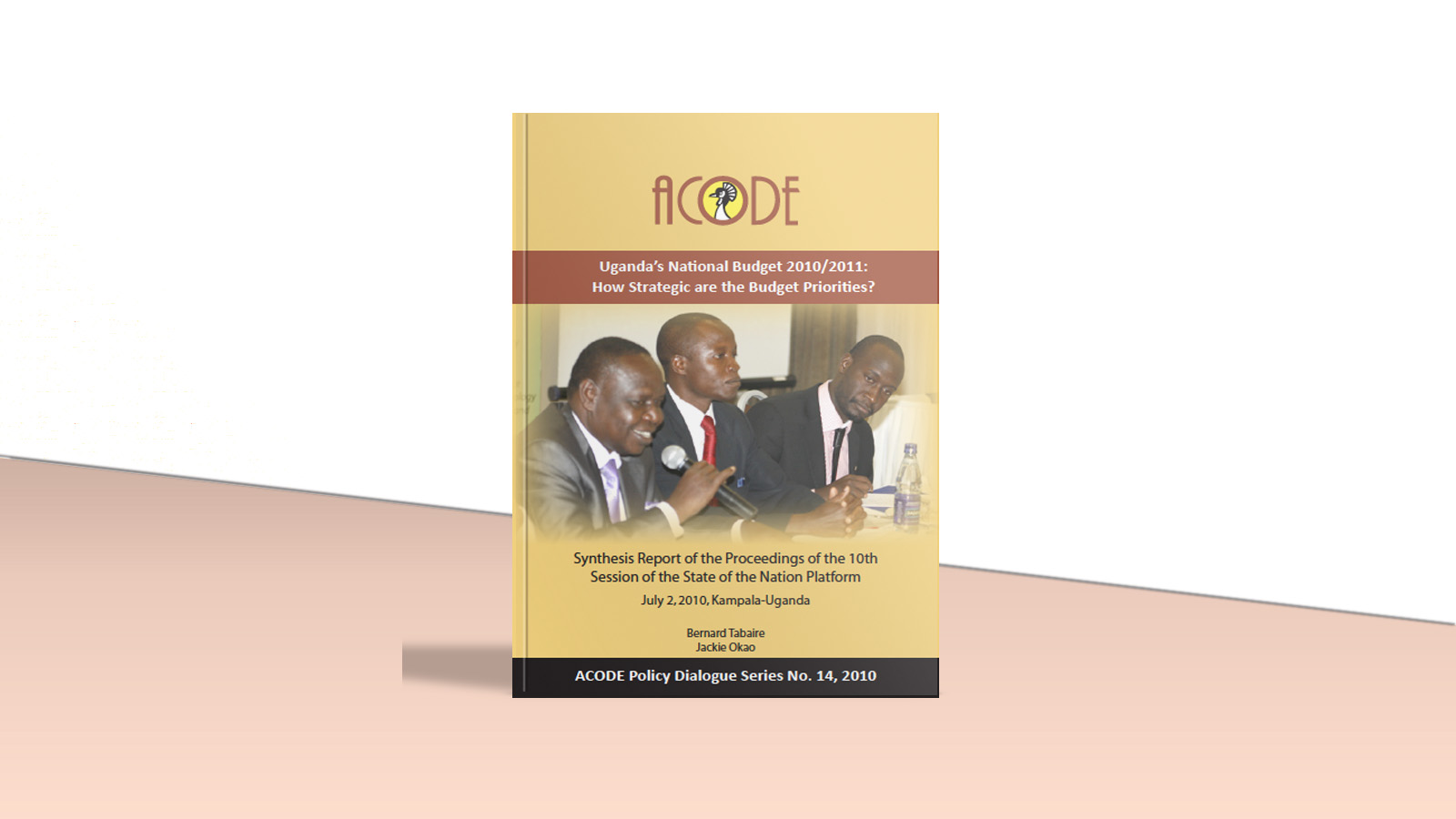
Uganda’s National Budget 2010/2011: How Strategic are the Budget Priorities?
Author(s): Bernard Tabaire and Jackie Okao
Published: 2010
The paper synthesizes proceedings of the 10th State of the Nation Platform that took place on July 2, 2010 in Kampala, Uganda.
View PDF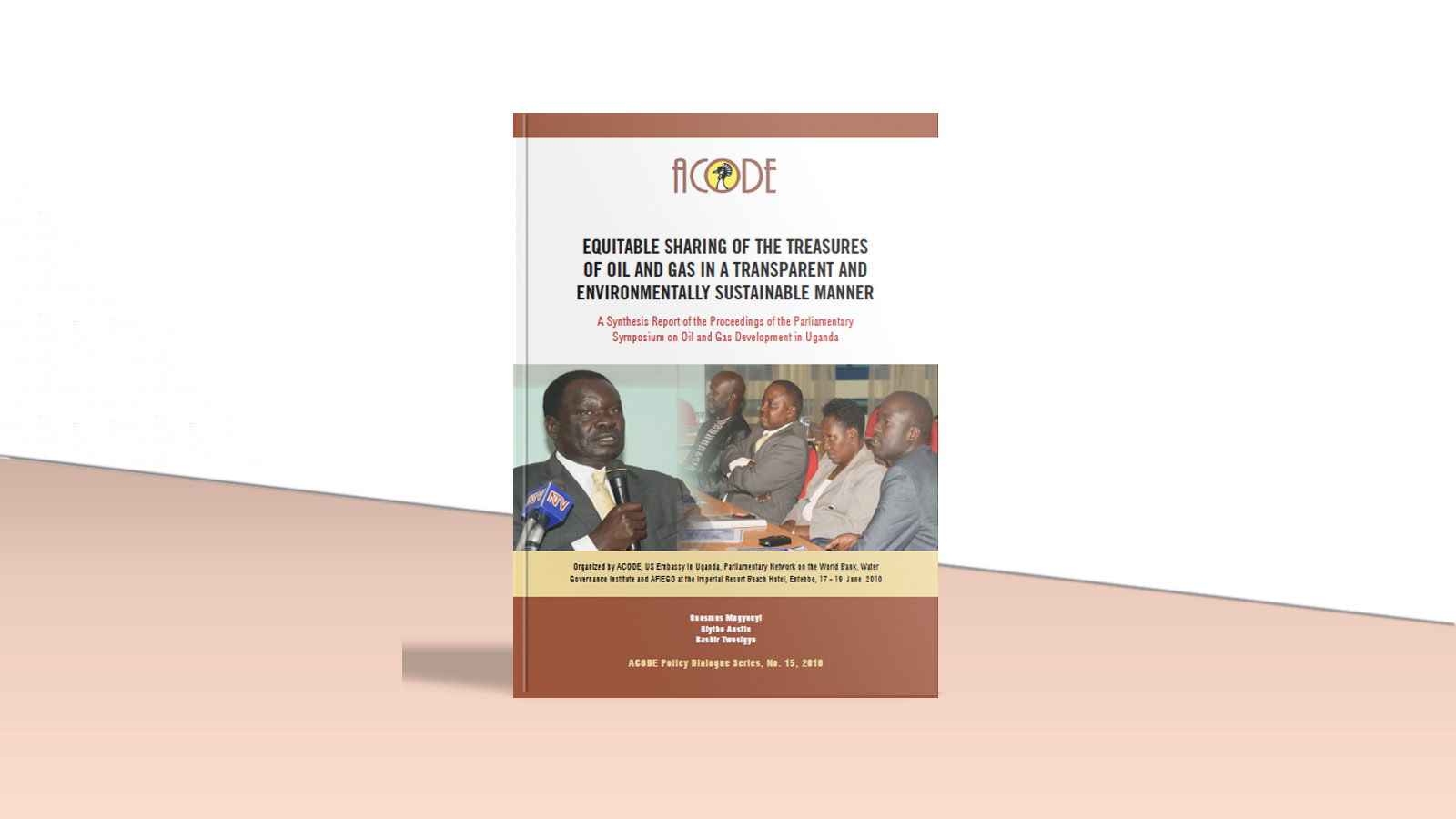
Equitable Sharing of the Treasures of Oil and Gas in a Transparent and Environmentally Sustainable Manner: A Synthesis Report of the Proceedings of the Parliamentary Symposium on Oil and Gas Development in Uganda
Author(s): Onesmus Mugyenyi, Blythe Austin, and Bashir Twesigye
Published: 2010
The paper presents the proceedings from the Parliamentary Symposium on Oil and Gas Development in Uganda that intended to enhance the capacity of Members of Parliament and others about best practices and challenges of oil industry management.
View PDF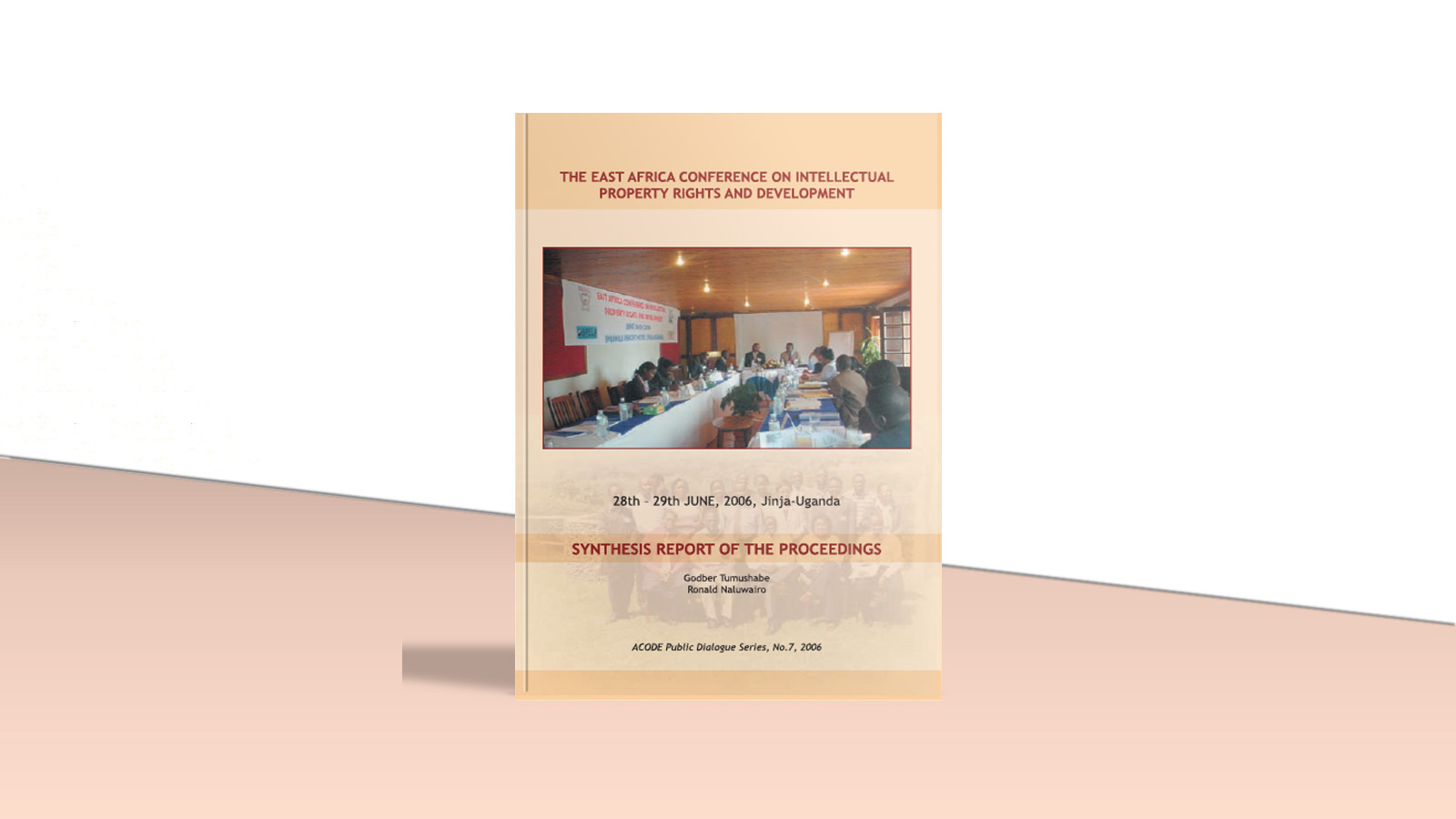
The East Africa Conference on Intellectual Property Rights and Development:
Author(s): Godber Tumushabe and Ronald Naluwairo
Published: 2006
This is a synthesis report of the proceedings of East Africa Conference on Intellectual Property Rights and Development which took place in Jinja-Uganda from the 28th-29th June 2006.
View PDF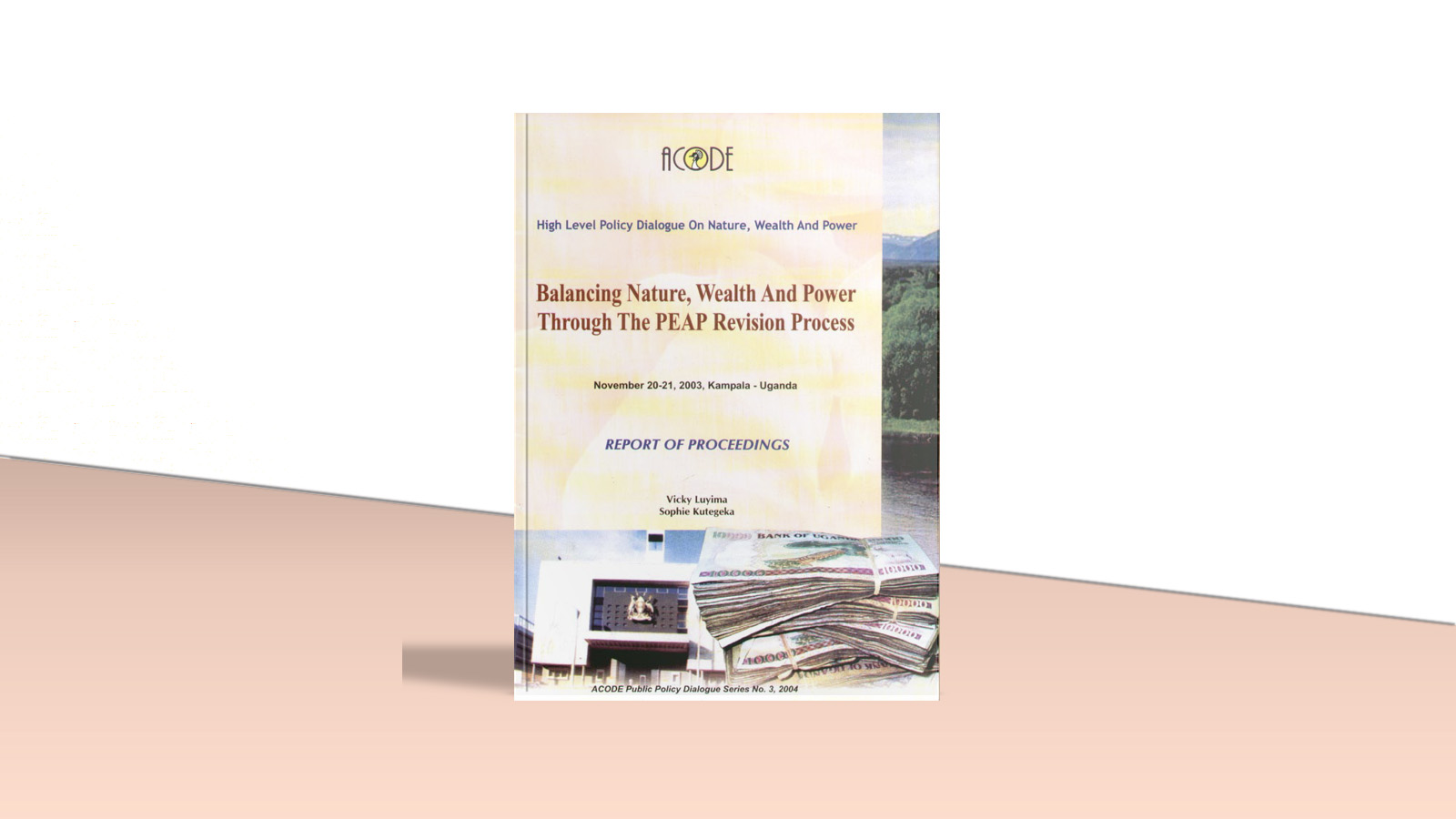
Balancing Nature, Wealth and Power Through the PEAP Revision Process
Author(s): Sophie Kutegeka and Vicky Luyima
Published: 2004
The paper synthesizes proceedings from a high level policy dialogue on Nature, Wealth and Power that took place from November 20 – 21, 2003 at Speke Resort Munyonyo, Kampala, Uganda.
View PDF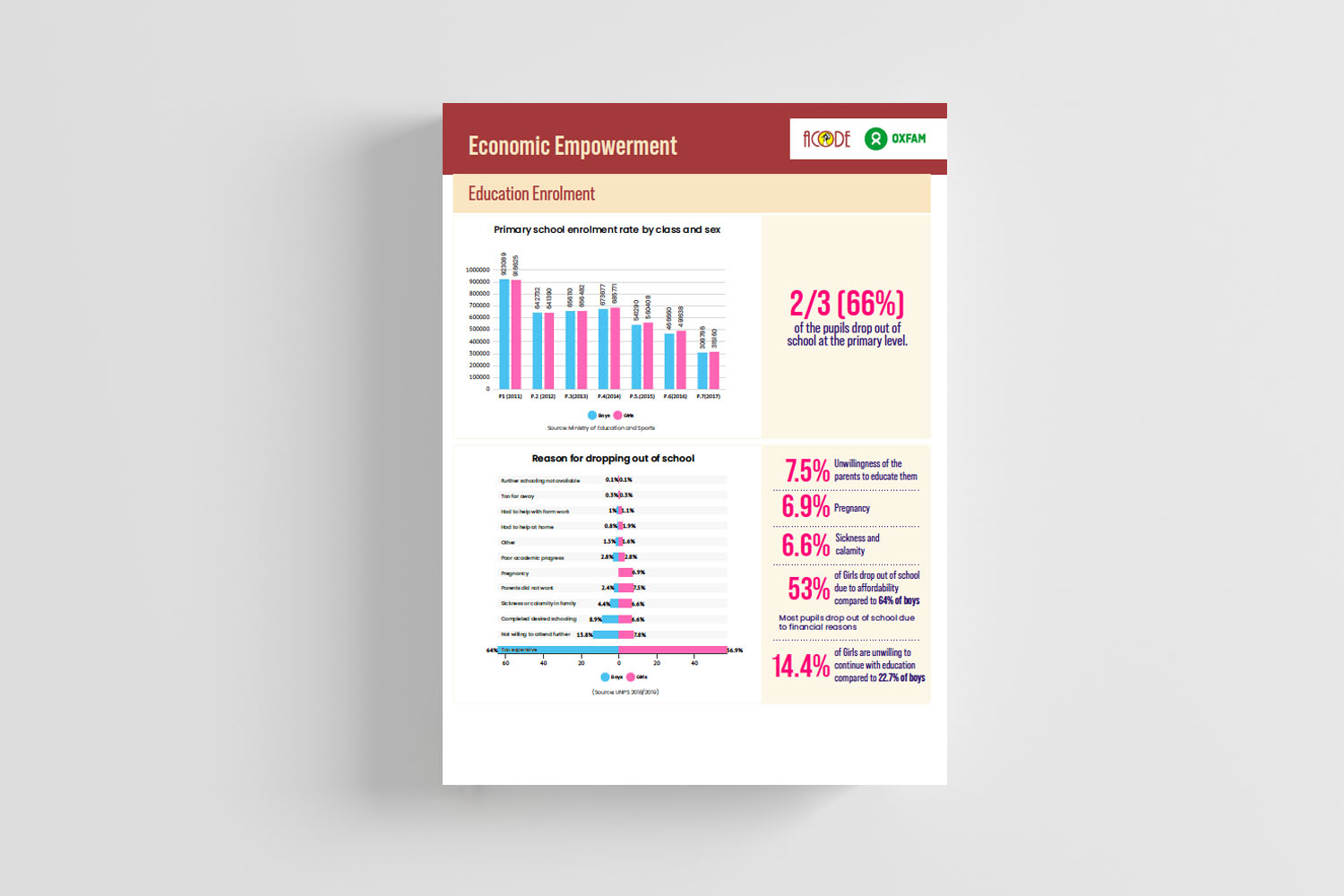
Education Enrolment
Author(s): ACODE and Oxfam
Published: 2024
This infographic is part of our materials produced on strengthening capacity for effective women economic empowerment (WEE) and care work interventions in Uganda - an 18-month collaborative project implemented by a consortium comprising Oxfam in Uganda and ACODE. Anchored on a wider spectrum of the Growth and Equal Opportunities for Women (GrOW) East Africa Initiative to spur gender transformation through advancing gender equality in the world of work with a focus on gender segregation, unpaid care, and women’s collective agency. The project is designed to support national policy processes and actions, including research uptake by policymakers, to enhance WEE and tackle unpaid care work in Uganda.
View PDF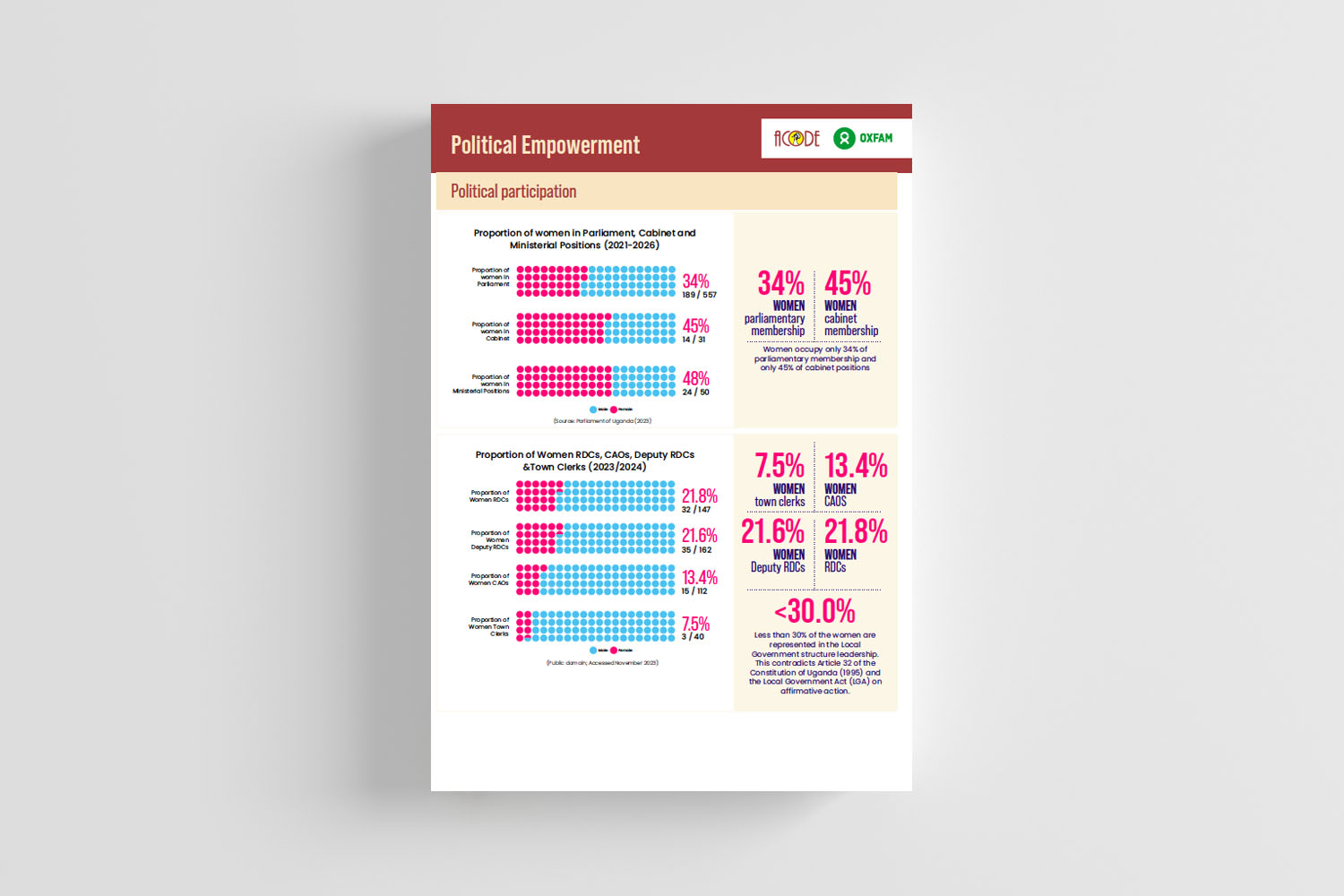
Political Participation
Author(s): ACODE and Oxfam
Published: 2024
This infographic is part of our materials produced on strengthening capacity for effective women economic empowerment (WEE) and care work interventions in Uganda - an 18-month collaborative project implemented by a consortium comprising Oxfam in Uganda and ACODE. Anchored on a wider spectrum of the Growth and Equal Opportunities for Women (GrOW) East Africa Initiative to spur gender transformation through advancing gender equality in the world of work with a focus on gender segregation, unpaid care, and women’s collective agency. The project is designed to support national policy processes and actions, including research uptake by policymakers, to enhance WEE and tackle unpaid care work in Uganda.
View PDF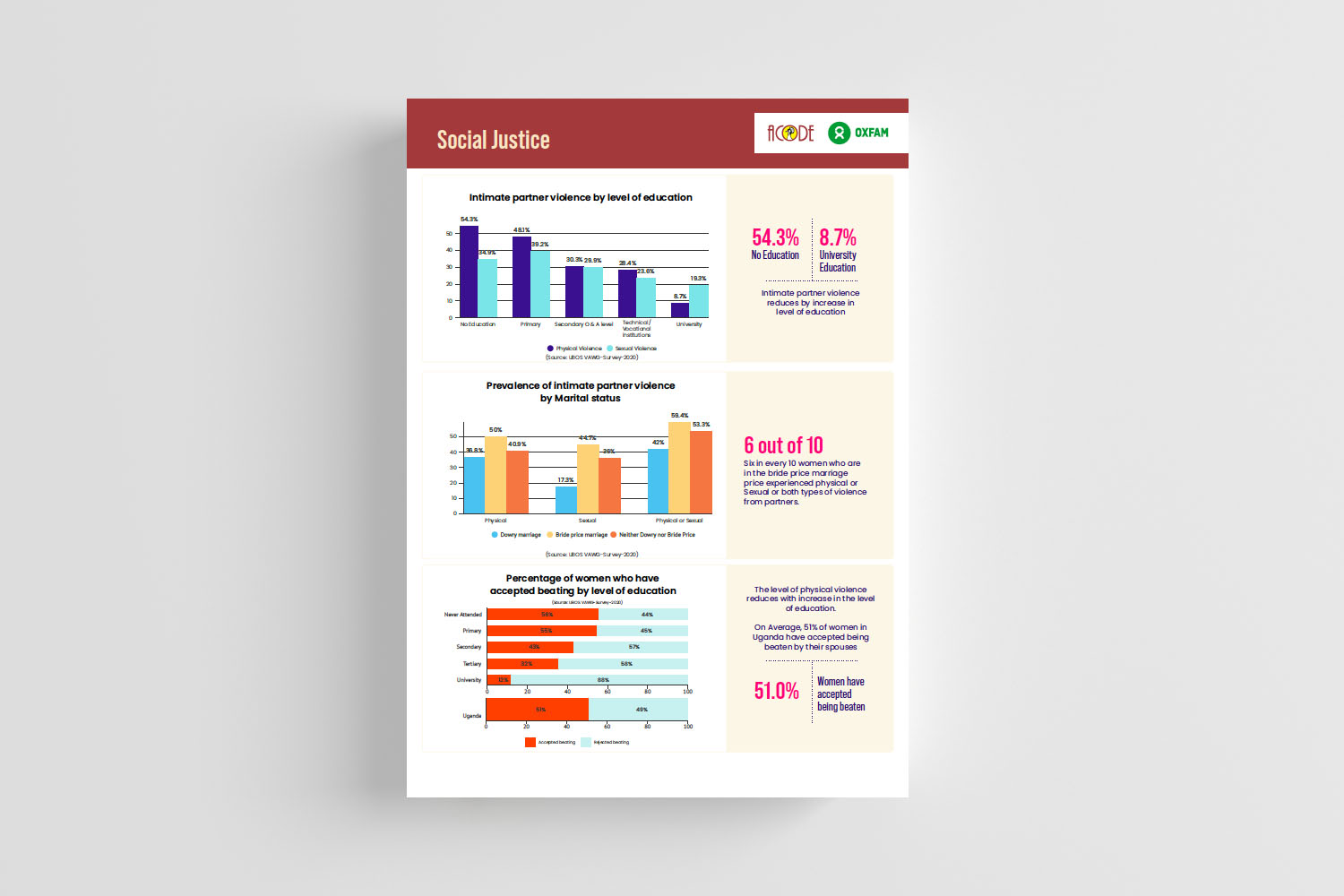
Social Justice
Author(s): ACODE and Oxfam
Published: 2024
This infographic is part of our materials produced on strengthening capacity for effective women economic empowerment (WEE) and care work interventions in Uganda - an 18-month collaborative project implemented by a consortium comprising Oxfam in Uganda and ACODE. Anchored on a wider spectrum of the Growth and Equal Opportunities for Women (GrOW) East Africa Initiative to spur gender transformation through advancing gender equality in the world of work with a focus on gender segregation, unpaid care, and women’s collective agency. The project is designed to support national policy processes and actions, including research uptake by policymakers, to enhance WEE and tackle unpaid care work in Uganda.
View PDF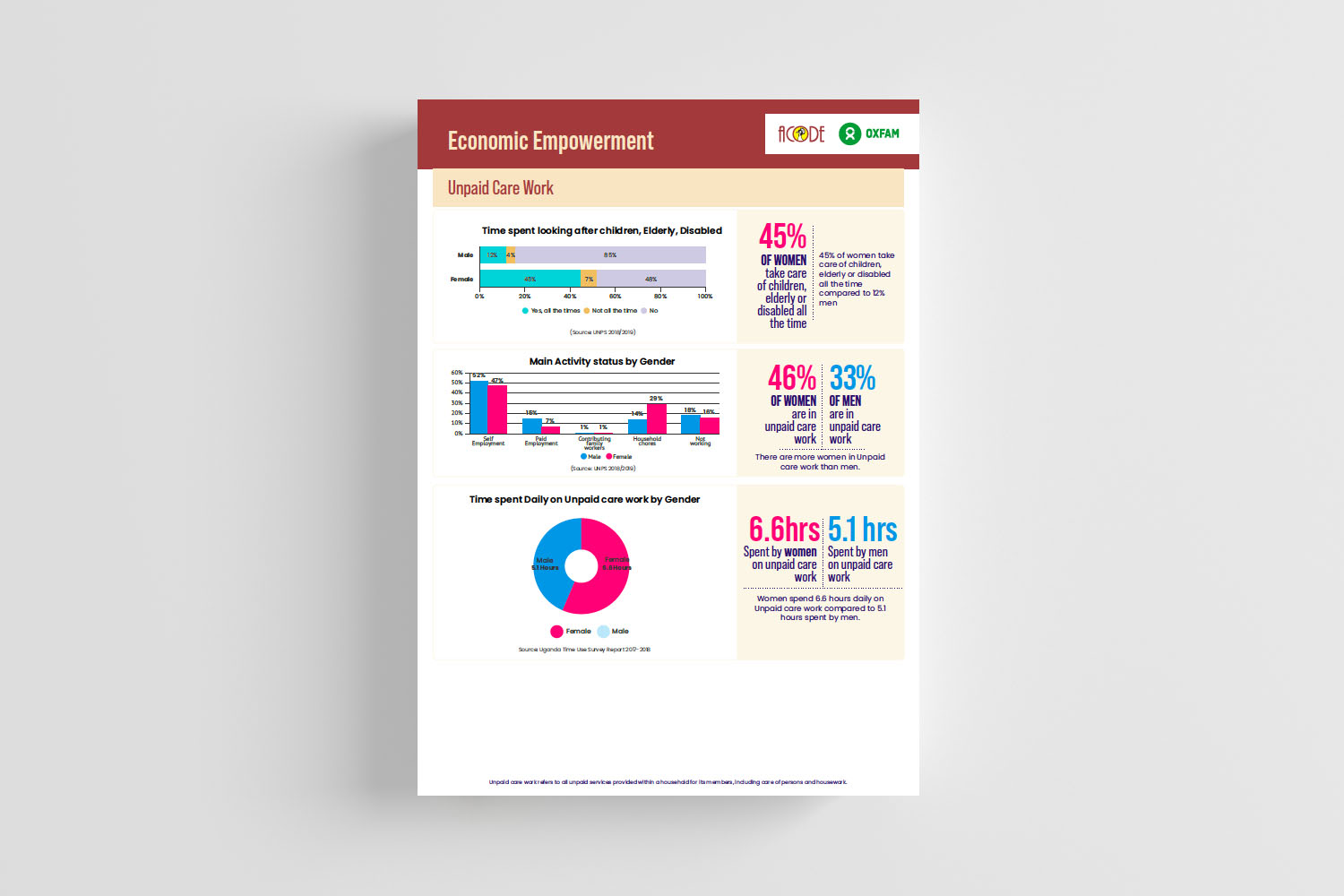
Unpaid Care Work
Author(s): ACODE and Oxfam
Published: 2024
This infographic is part of our materials produced on strengthening capacity for effective women economic empowerment (WEE) and care work interventions in Uganda - an 18-month collaborative project implemented by a consortium comprising Oxfam in Uganda and ACODE. Anchored on a wider spectrum of the Growth and Equal Opportunities for Women (GrOW) East Africa Initiative to spur gender transformation through advancing gender equality in the world of work with a focus on gender segregation, unpaid care, and women’s collective agency. The project is designed to support national policy processes and actions, including research uptake by policymakers, to enhance WEE and tackle unpaid care work in Uganda.
View PDF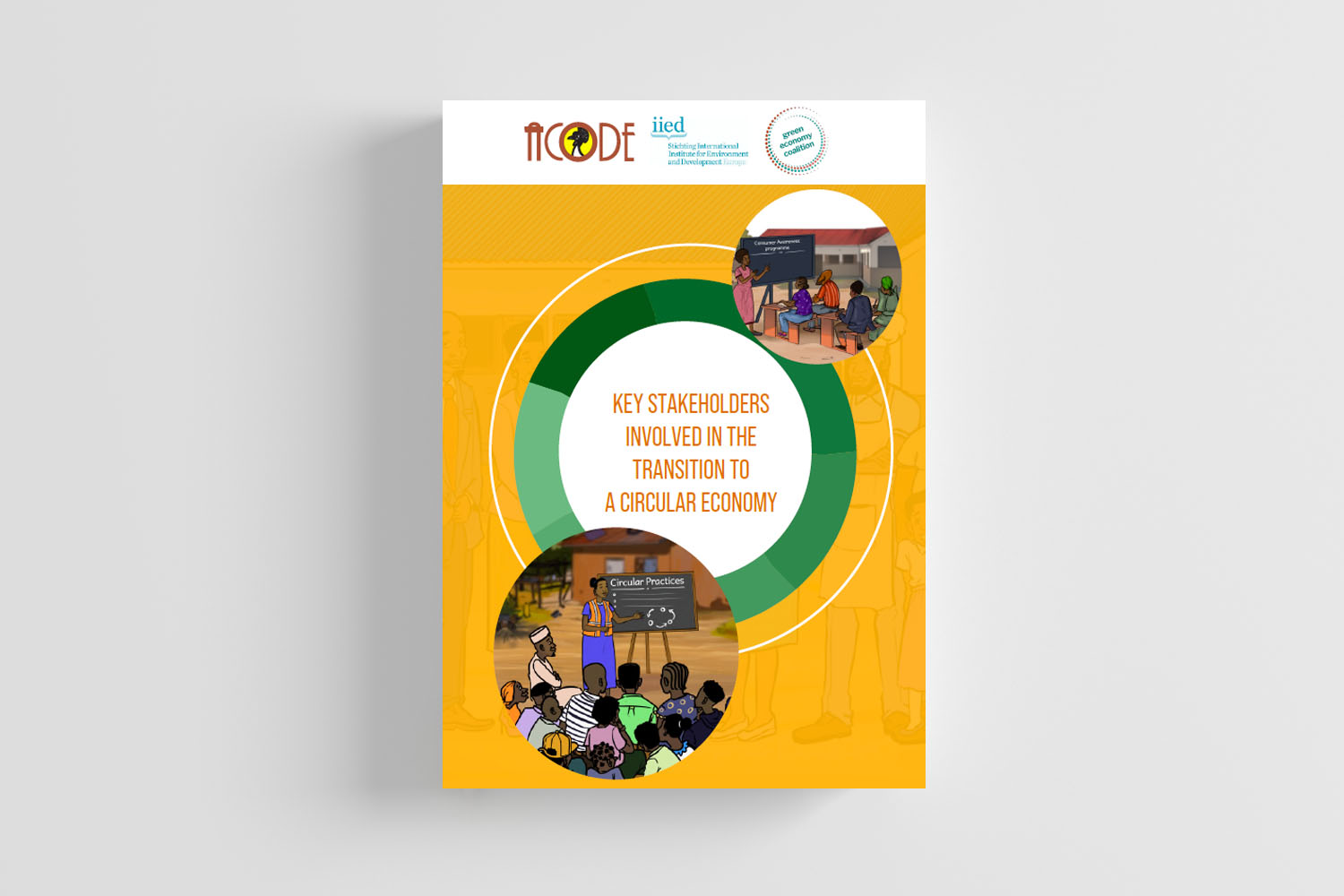
Key Stakeholders Involved in the Transition to a Circular Economy
Author(s): ACODE
Published: 2024
The concept of circular economy provides potential solutions for addressing this complex, multidimensional challenge. This infographic provides information on the transition of Uganda’s economy to a green and circular economy. It profiles the key stakeholders in the circular economy and provides an understanding of its status, challenges, and opportunities in the country.
View PDF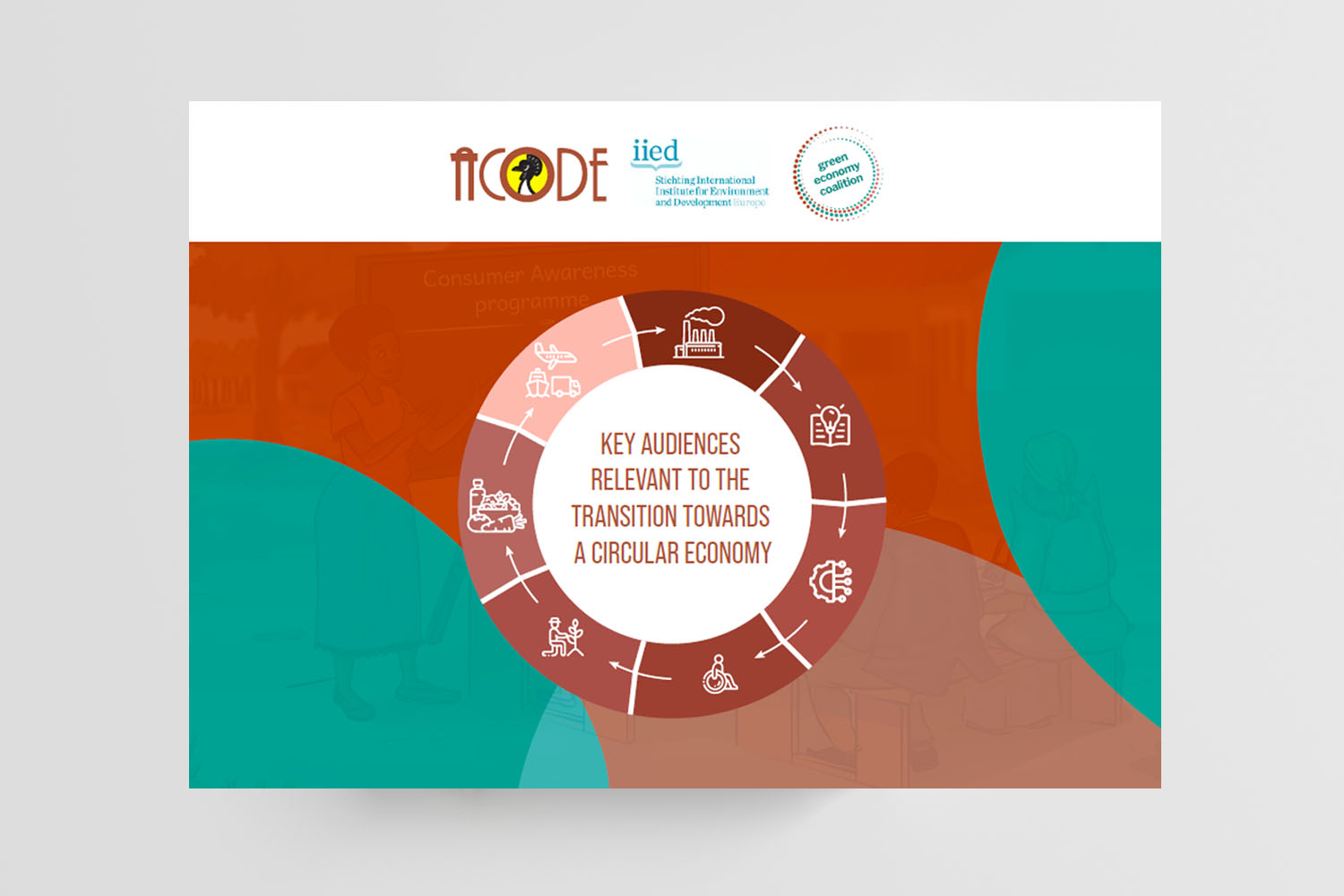
Key Audiences Relevant to the Transition Towards a Circular Economy
Author(s): ACODE
Published: 2024
The circular economy is a regenerative model that minimizes environmental impact by maximizing resource use. It treats products, materials, and waste as valuable resources to preserve. Transitioning to this model requires collaboration among stakeholders, joint ventures, and supportive policies.
View PDF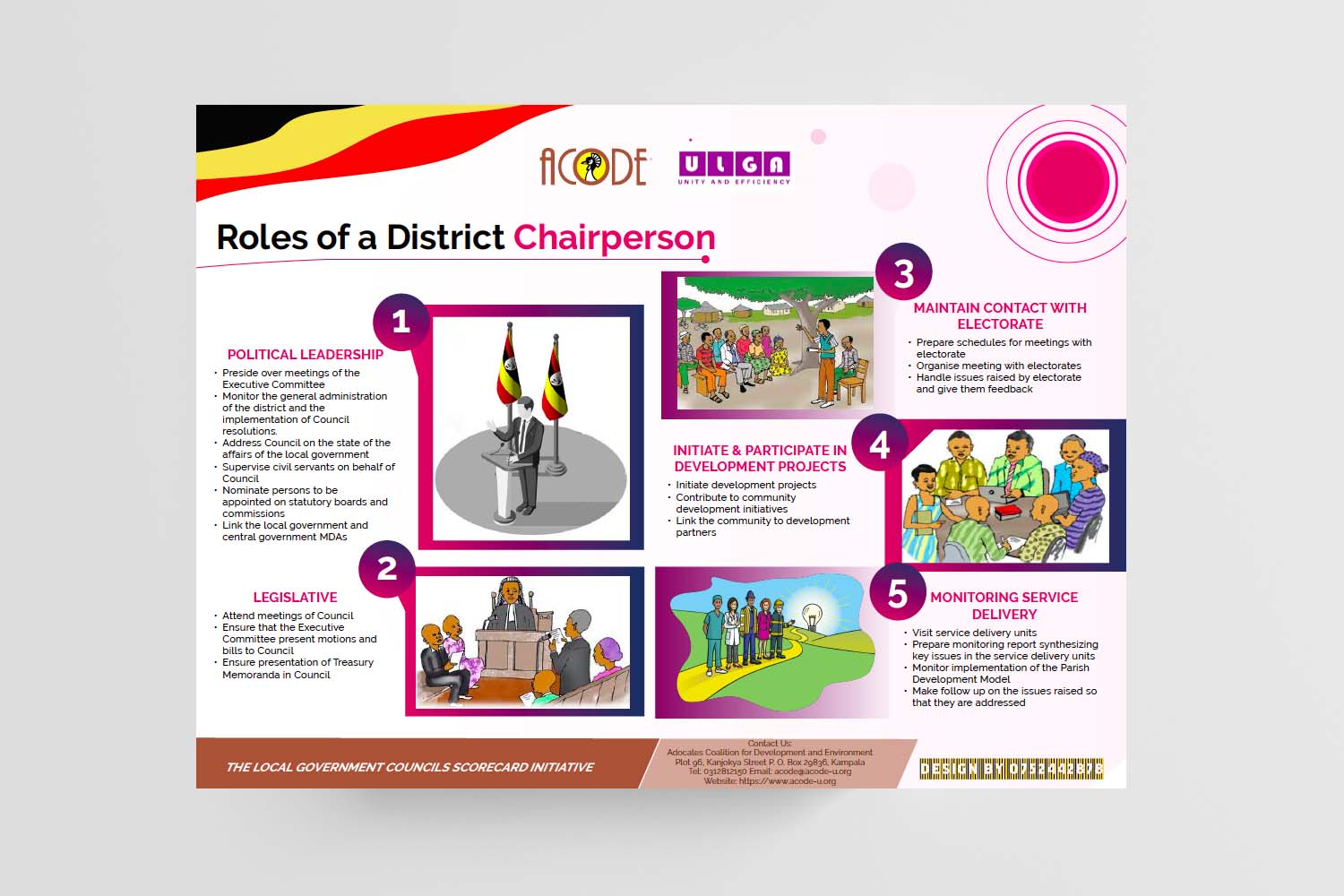
Roles of LCV Chairperson in a District Local Government
Author(s): ACODE
Published: 2022
This visual representation illustrates the roles of a Chairperson in the district local government councils in Uganda as defined in the Local Government Act.
View PDF
Roles of a Council Speaker in a District Local Government
Author(s): ACODE
Published: 2022
This visual representation illustrates the roles of a Speaker in the district local government councils in Uganda as defined in the Local Government Act.
View PDF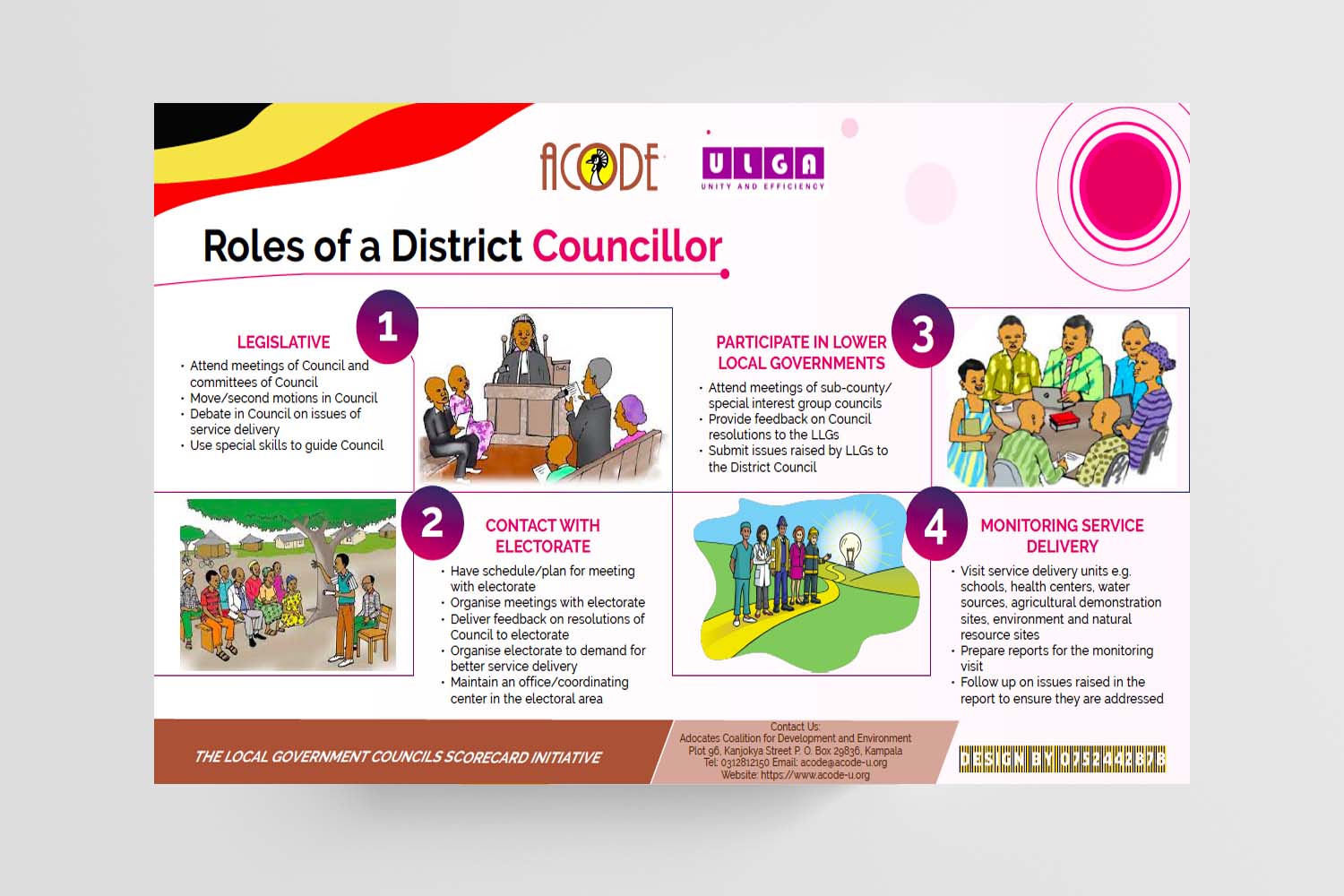
Roles of a Councillor in a District Local Government
Author(s): ACODE
Published: 2022
This visual representation illustrates the roles of a Councillor in the district local government councils in Uganda as defined in the Local Government Act.
View PDF
Roles of a Citizen
Author(s): ACODE
Published: 2022
This visual representation illustrates the roles of a Citizen in Uganda.
View PDF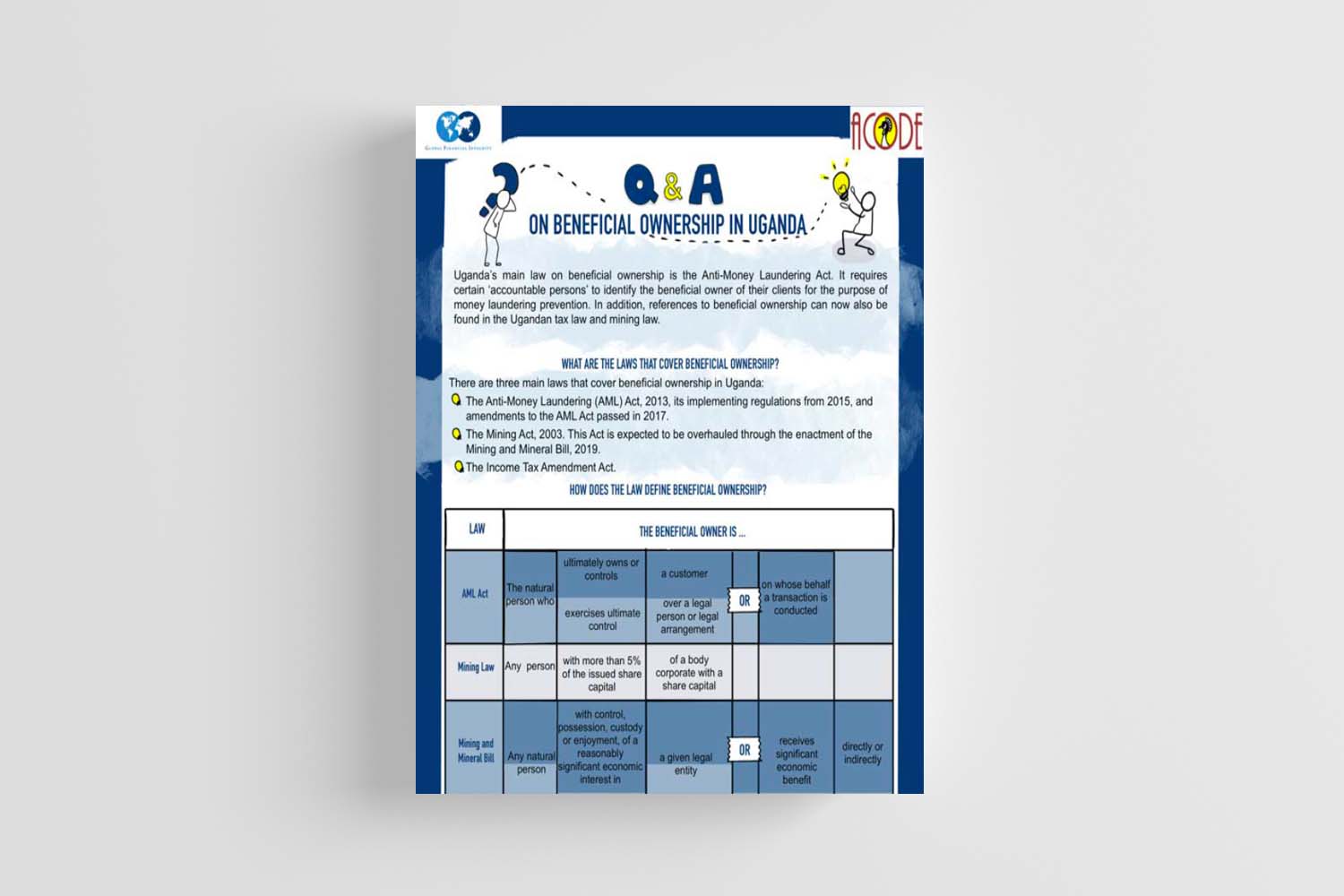
FAQ on Beneficial Ownership in Uganda
Author(s): ACODE and GFI
Published: 2020
This FAQ attempts to provide information on beneficial ownership laws in Uganda.
View PDF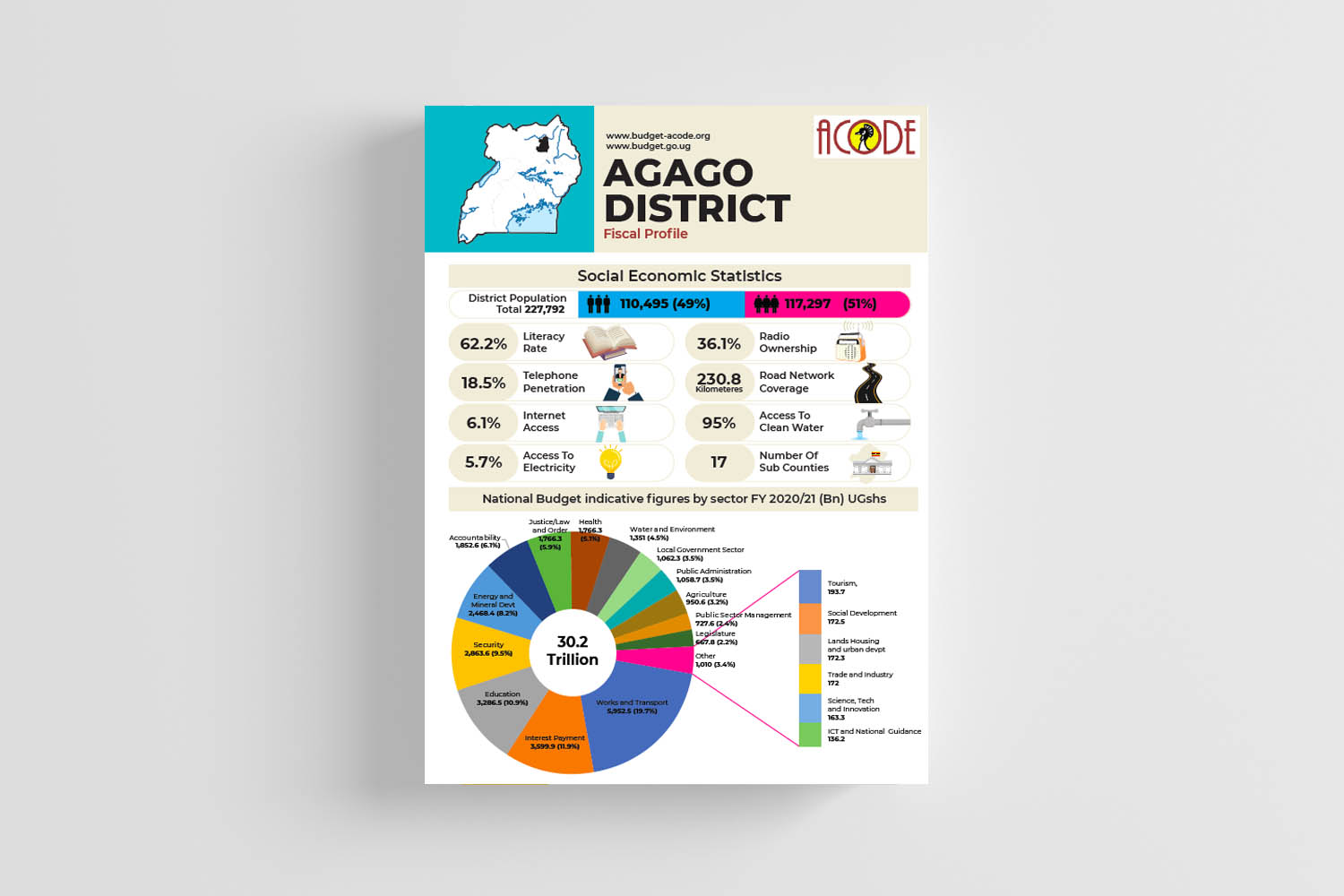
Agago District Local Government Fiscal Profile for Financial Year 2020/2021
Author(s): ACODE
Published: 2020
The visual representation of the fiscal profile shows planning figures for Agago District Local Government as indicated in its budget framework paper for Financial Year 2020/2021.
View PDF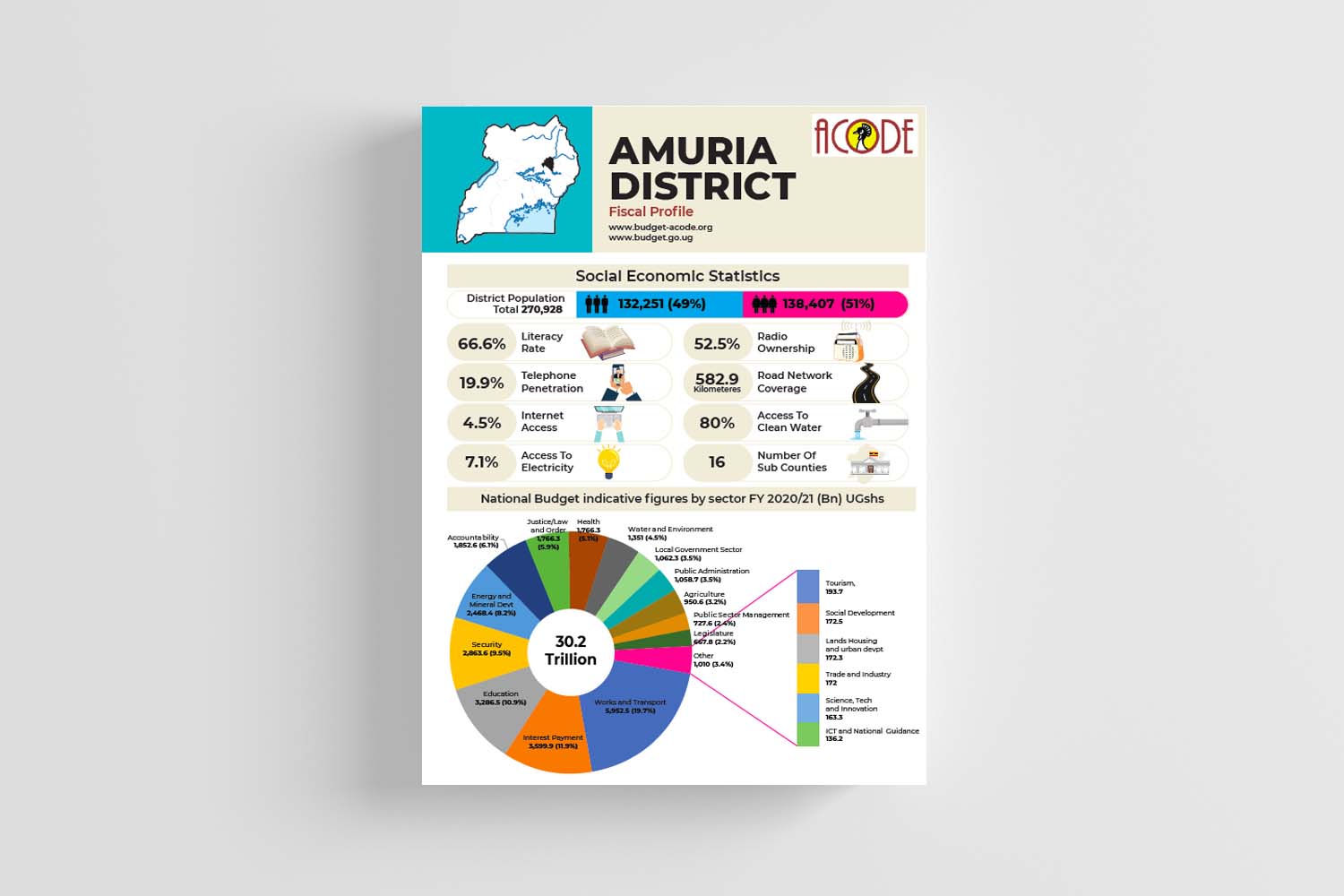
Amuria District Local Government Fiscal Profile for Financial Year 2020/2021
Author(s): ACODE
Published: 2020
The visual representation of the fiscal profile shows planning figures for Amuria District Local Government as indicated in its budget framework paper for Financial Year 2020/2021.
View PDF
Apac District Local Government Fiscal Profile for Financial Year 2020/2021
Author(s): ACODE
Published: 2020
The visual representation of the fiscal profile shows planning figures for Apac District Local Government as indicated in its budget framework paper for Financial Year 2020/2021.
View PDF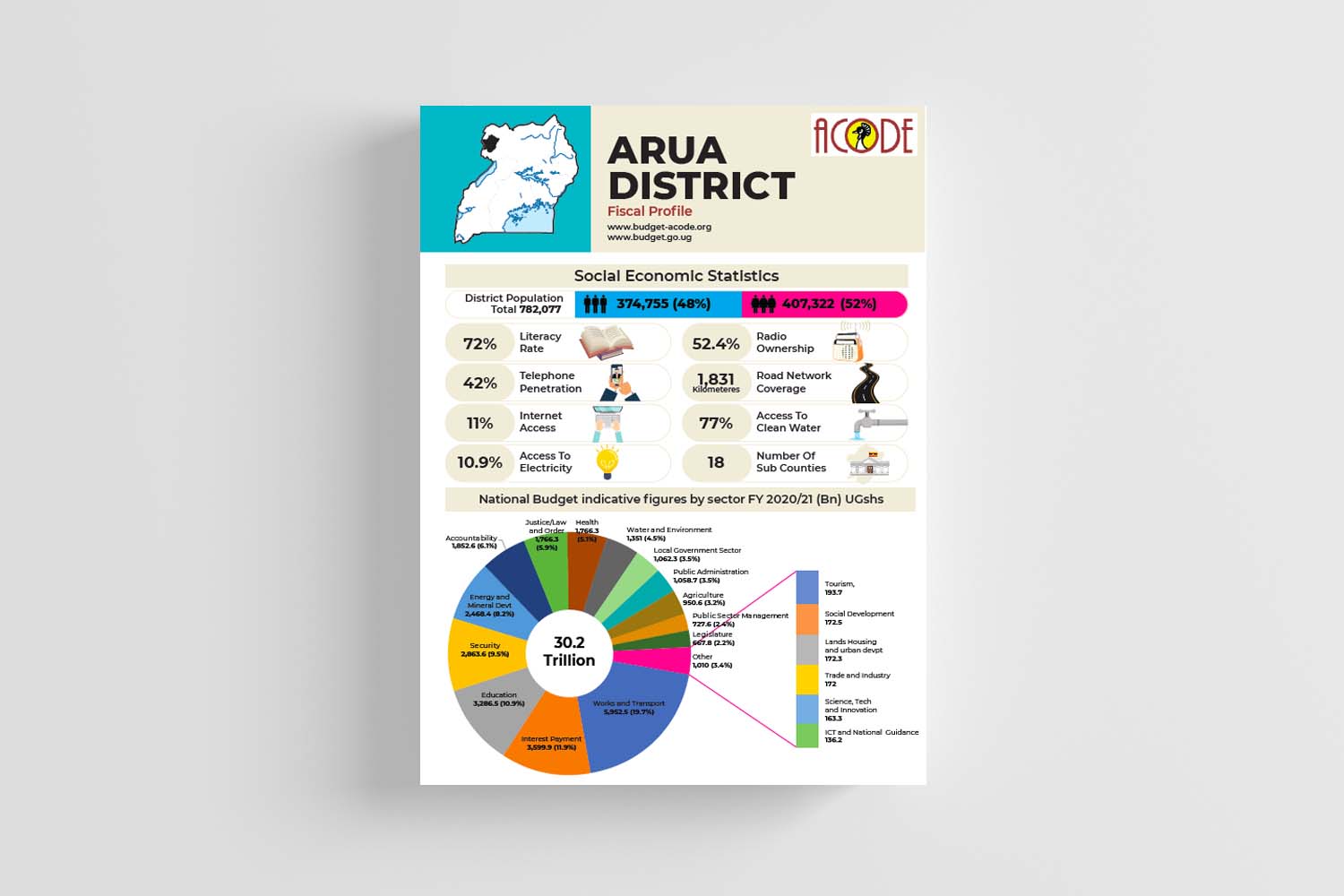
Arua District Local Government Fiscal Profile for Financial Year 2020/2021
Author(s): ACODE
Published: 2020
The visual representation of the fiscal profile shows planning figures for Arua District Local Government as indicated in its budget framework paper for Financial Year 2020/2021.
View PDF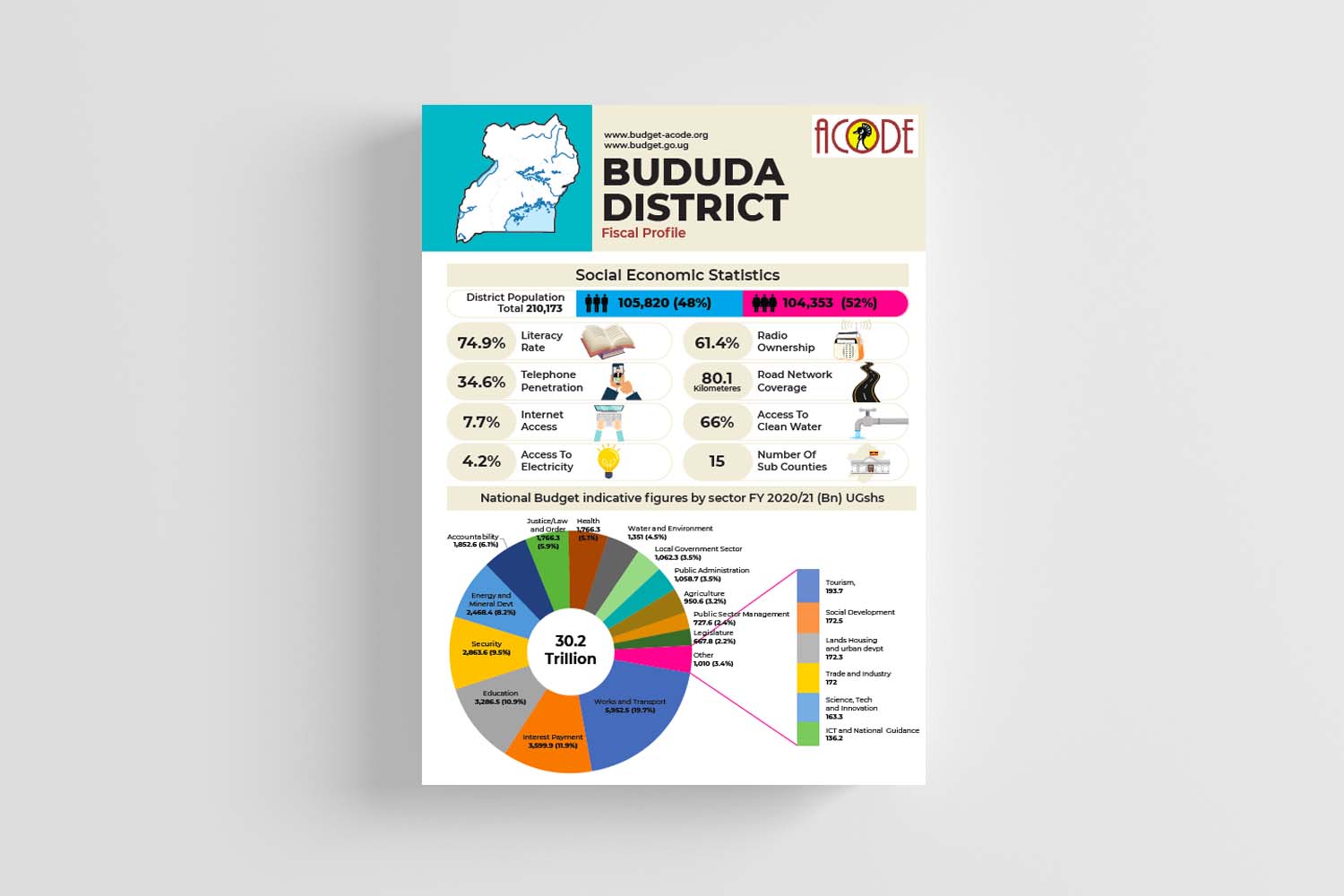
Bududa District Local Government Fiscal Profile for Financial Year 2020/2021
Author(s): ACODE
Published: 2020
The visual representation of the fiscal profile shows planning figures for Bududa District Local Government as indicated in its budget framework paper for Financial Year 2020/2021.
View PDF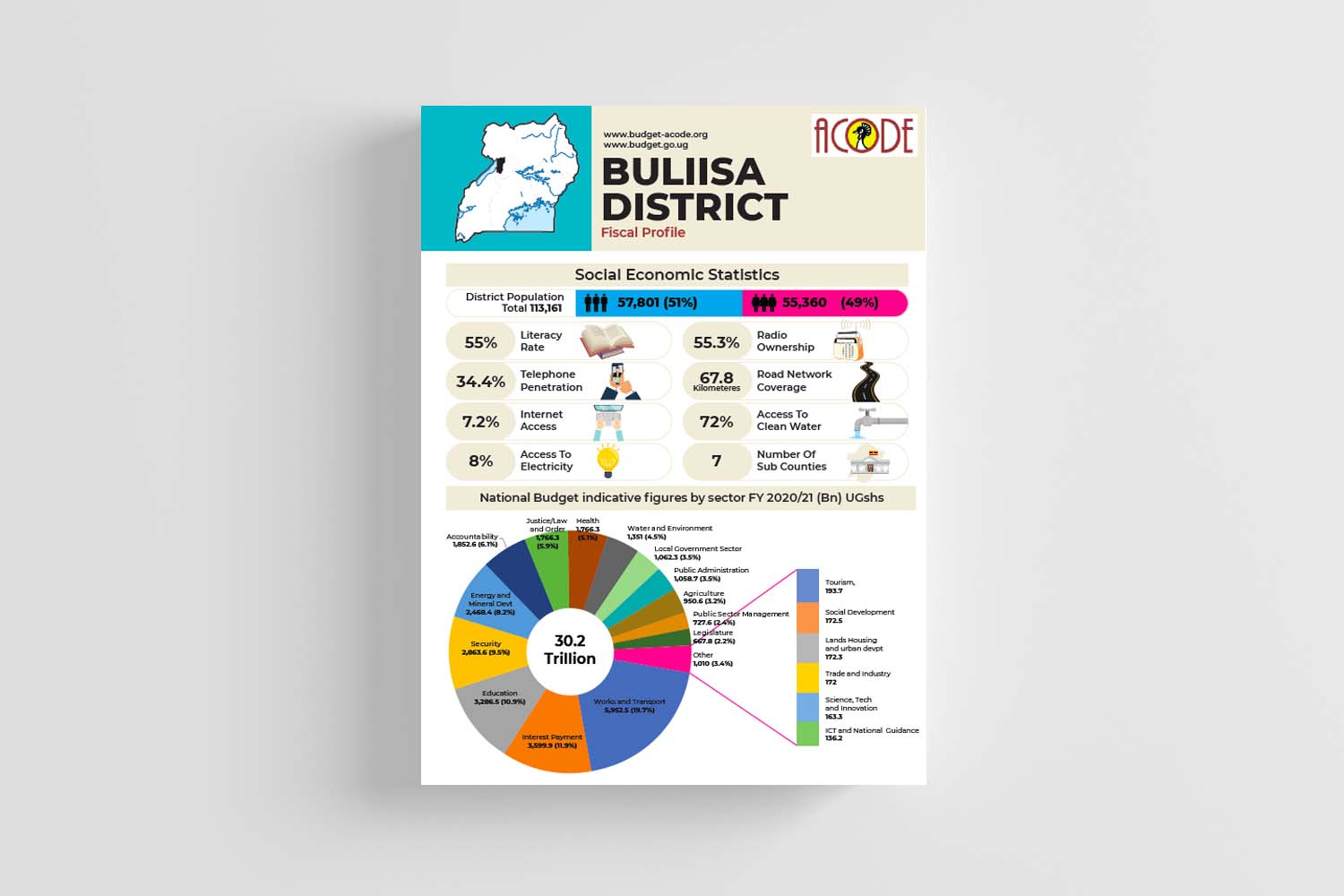
Buliisa District Local Government Fiscal Profile for Financial Year 2020/2021
Author(s): ACODE
Published: 2020
The visual representation of the fiscal profile shows planning figures for Buliisa District Local Government as indicated in its budget framework paper for Financial Year 2020/2021.
View PDF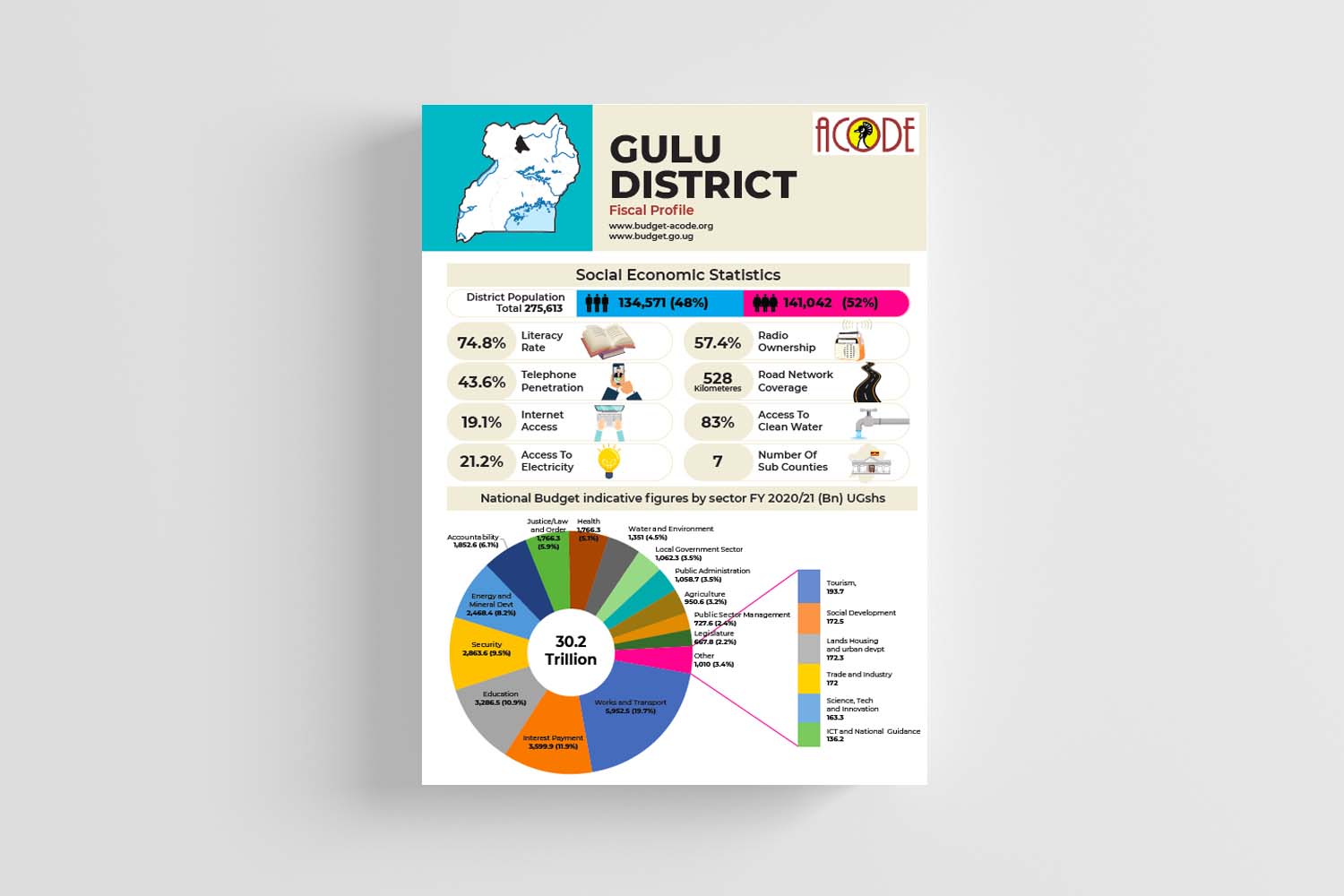
Gulu District Local Government Fiscal Profile for Financial Year 2020/2021
Author(s): ACODE
Published: 2020
The visual representation of the fiscal profile shows planning figures for Gulu District Local Government as indicated in its budget framework paper for Financial Year 2020/2021.
View PDF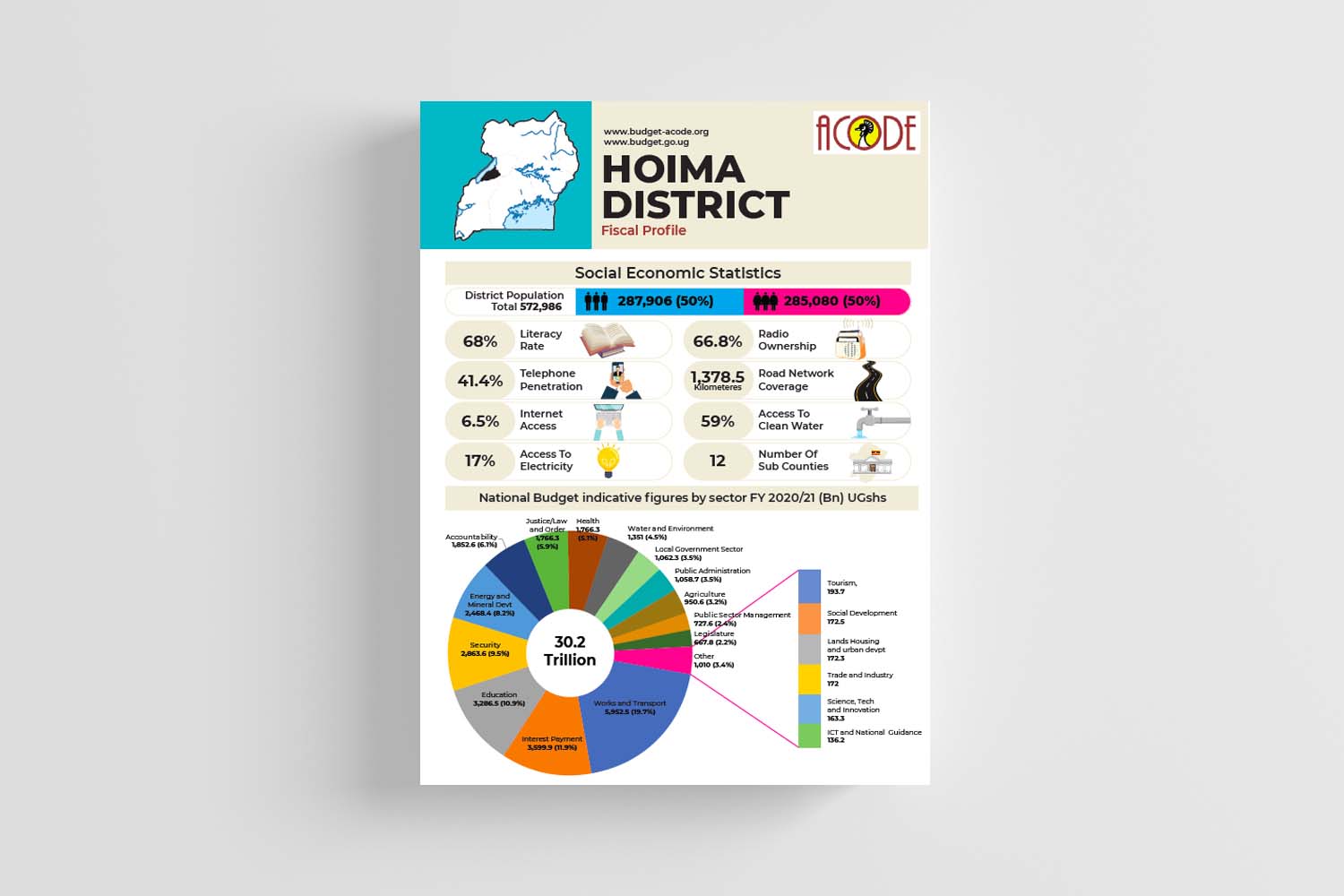
Hoima District Local Government Fiscal Profile for Financial Year 2020/2021
Author(s): ACODE
Published: 2020
The visual representation of the fiscal profile shows planning figures for Hoima District Local Government as indicated in its budget framework paper for Financial Year 2020/2021.
View PDF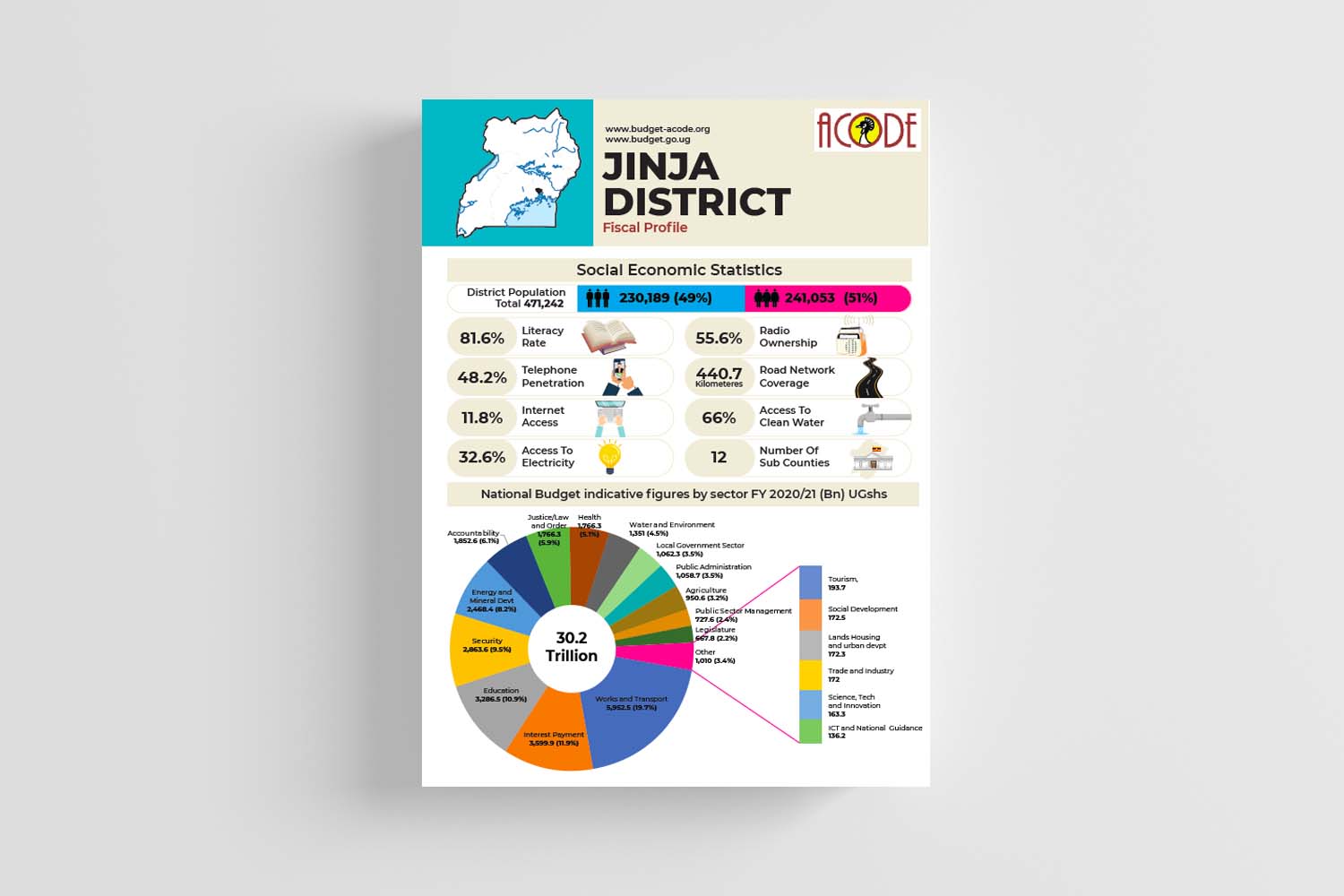
Jinja District Local Government Fiscal Profile for Financial Year 2020/2021
Author(s): ACODE
Published: 2020
The visual representation of the fiscal profile shows planning figures for Jinja District Local Government as indicated in its budget framework paper for Financial Year 2020/2021.
View PDF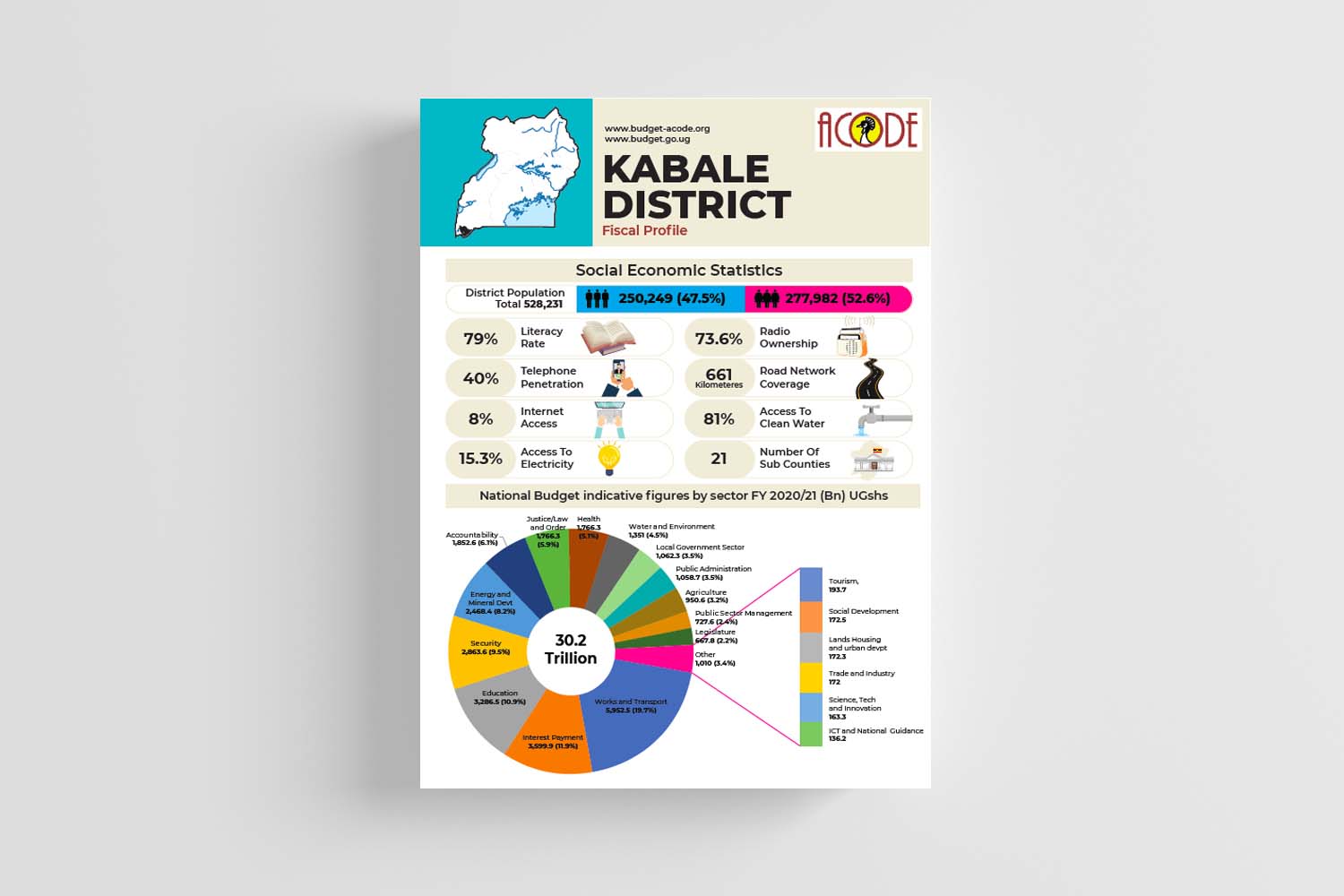
Kabale District Local Government Fiscal Profile for Financial Year 2020/2021
Author(s): ACODE
Published: 2020
The visual representation of the fiscal profile shows planning figures for Kabale District Local Government as indicated in its budget framework paper for Financial Year 2020/2021.
View PDF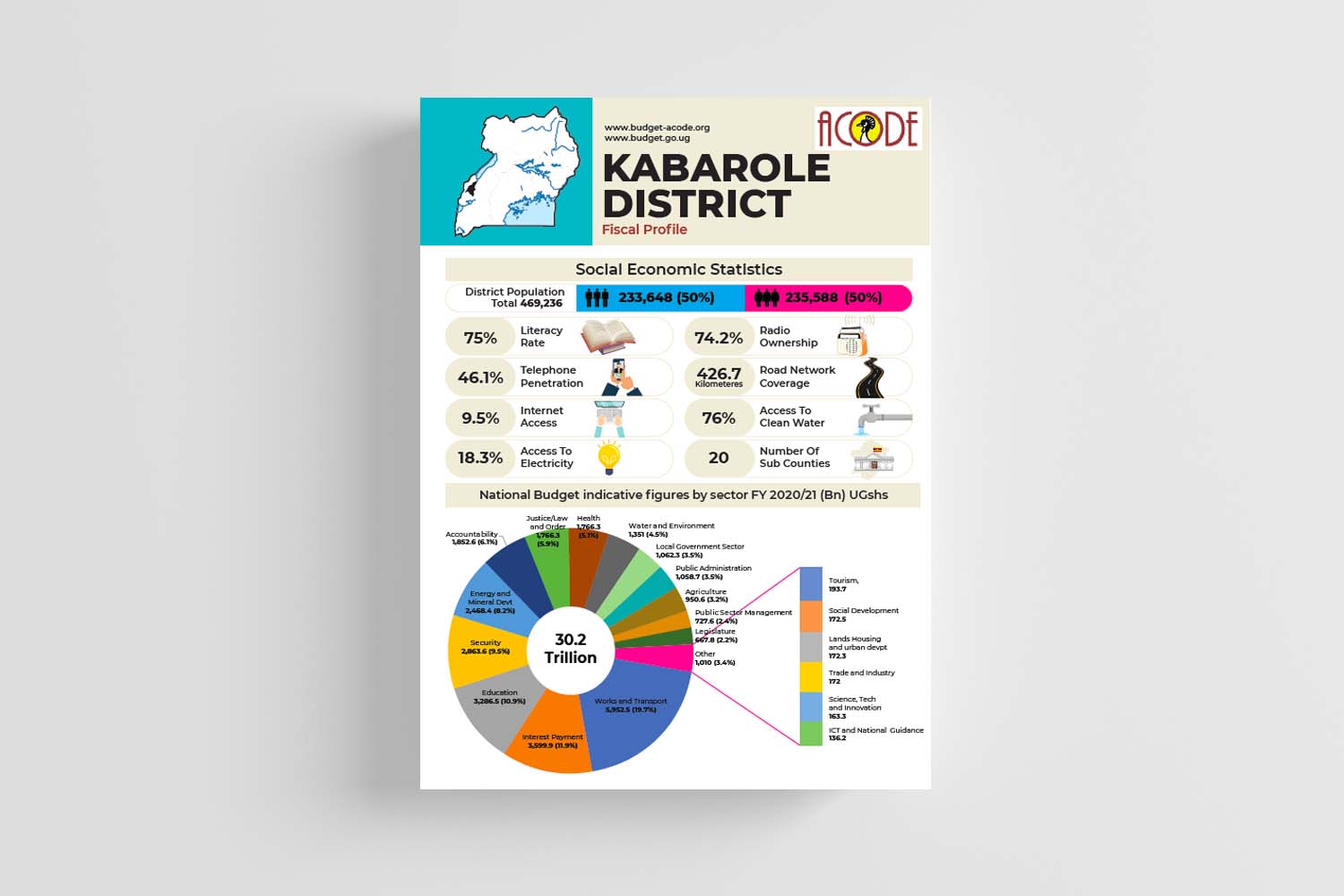
Kabarole District Local Government Fiscal Profile Financial Year 2020/2021
Author(s): ACODE
Published: 2020
The visual representation of the fiscal profile shows planning figures for Kabarole District Local Government as indicated in its budget framework paper for Financial Year 2020/2021.
View PDF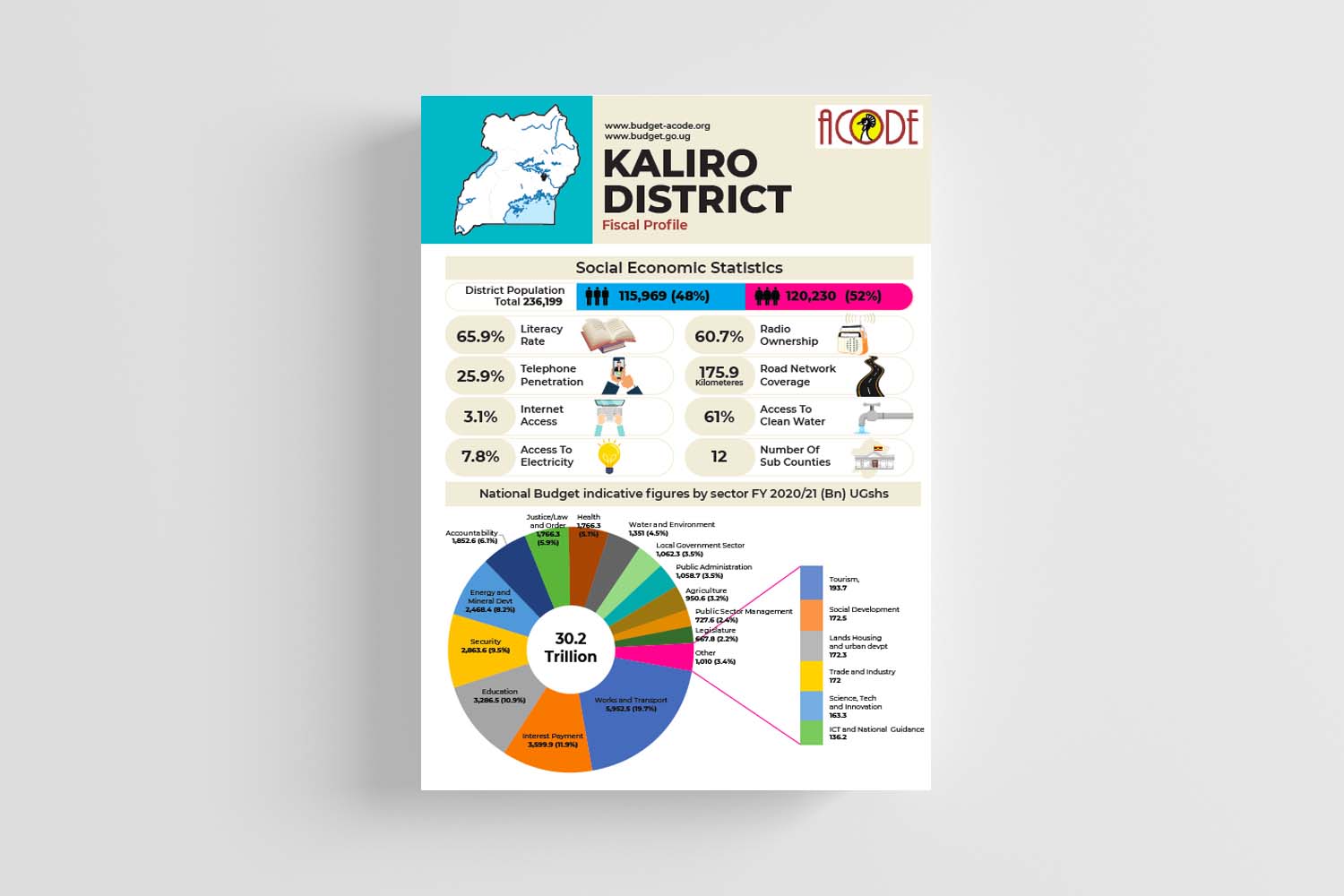
Kaliro District Local Government Fiscal Profile Financial Year 2020/2021
Author(s): ACODE
Published: 2020
The visual representation of the fiscal profile shows planning figures for Kaliro District Local Government as indicated in its budget framework paper for Financial Year 2020/2021.
View PDF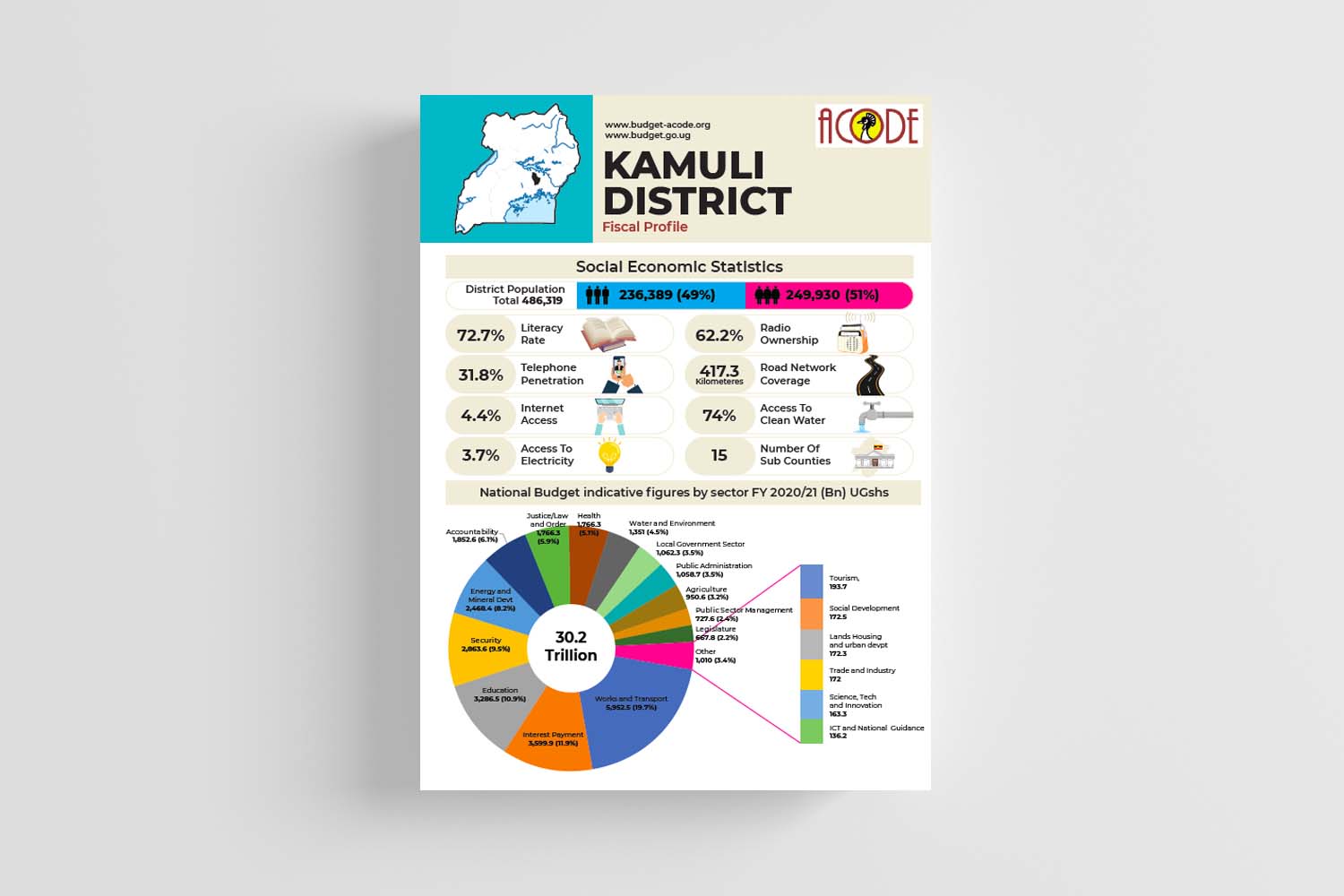
Kamuli District Local Government Fiscal Profile Financial Year 2020/2021
Author(s): ACODE
Published: 2020
The visual representation of the fiscal profile shows planning figures for Kamuli District Local Government as indicated in its budget framework paper for Financial Year 2020/2021.
View PDF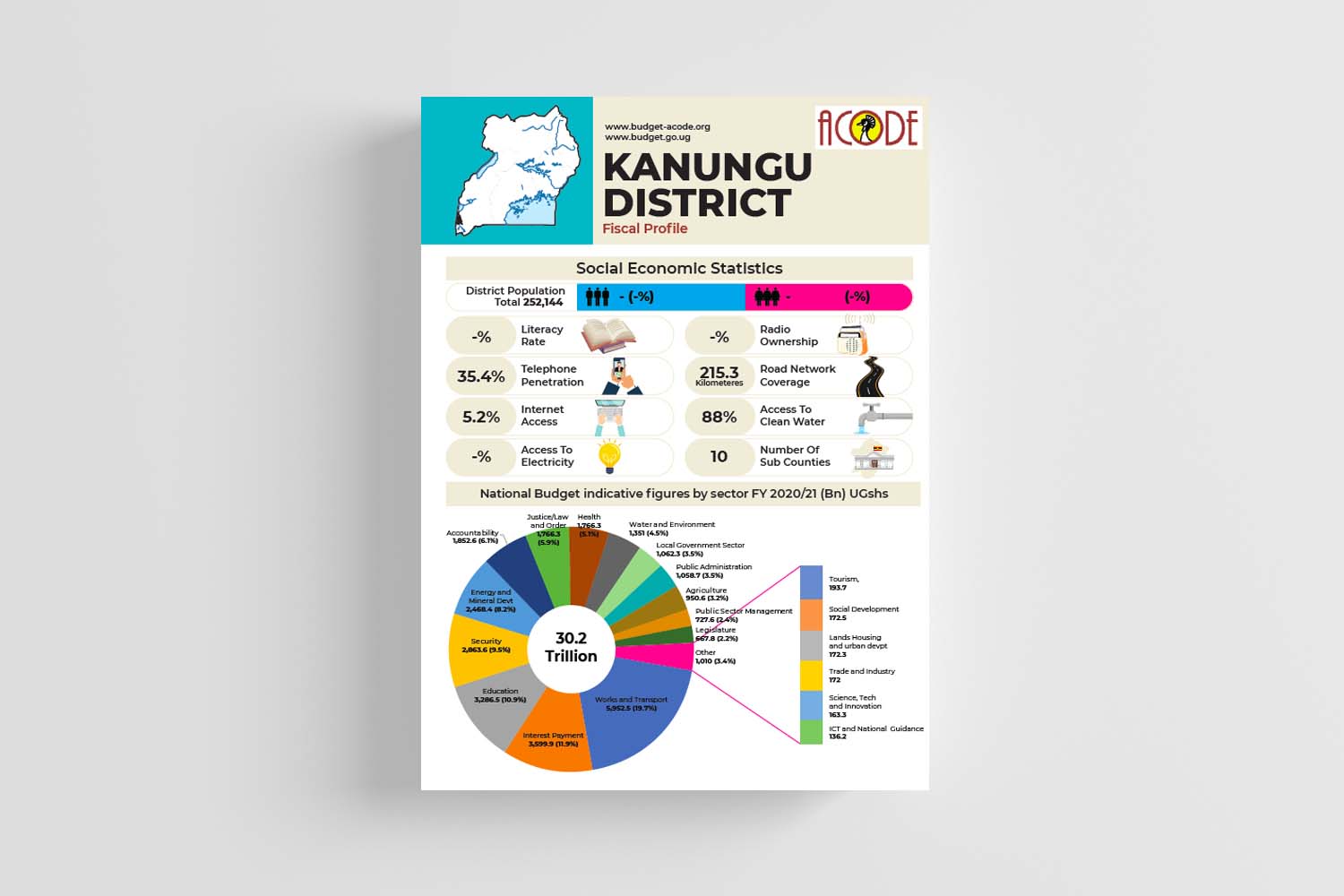
Kanungu District Local Government Fiscal Profile Financial Year 2020/2021
Author(s): ACODE
Published: 2020
The visual representation of the fiscal profile shows planning figures for Kanungu District Local Government as indicated in its budget framework paper for Financial Year 2020/2021.
View PDF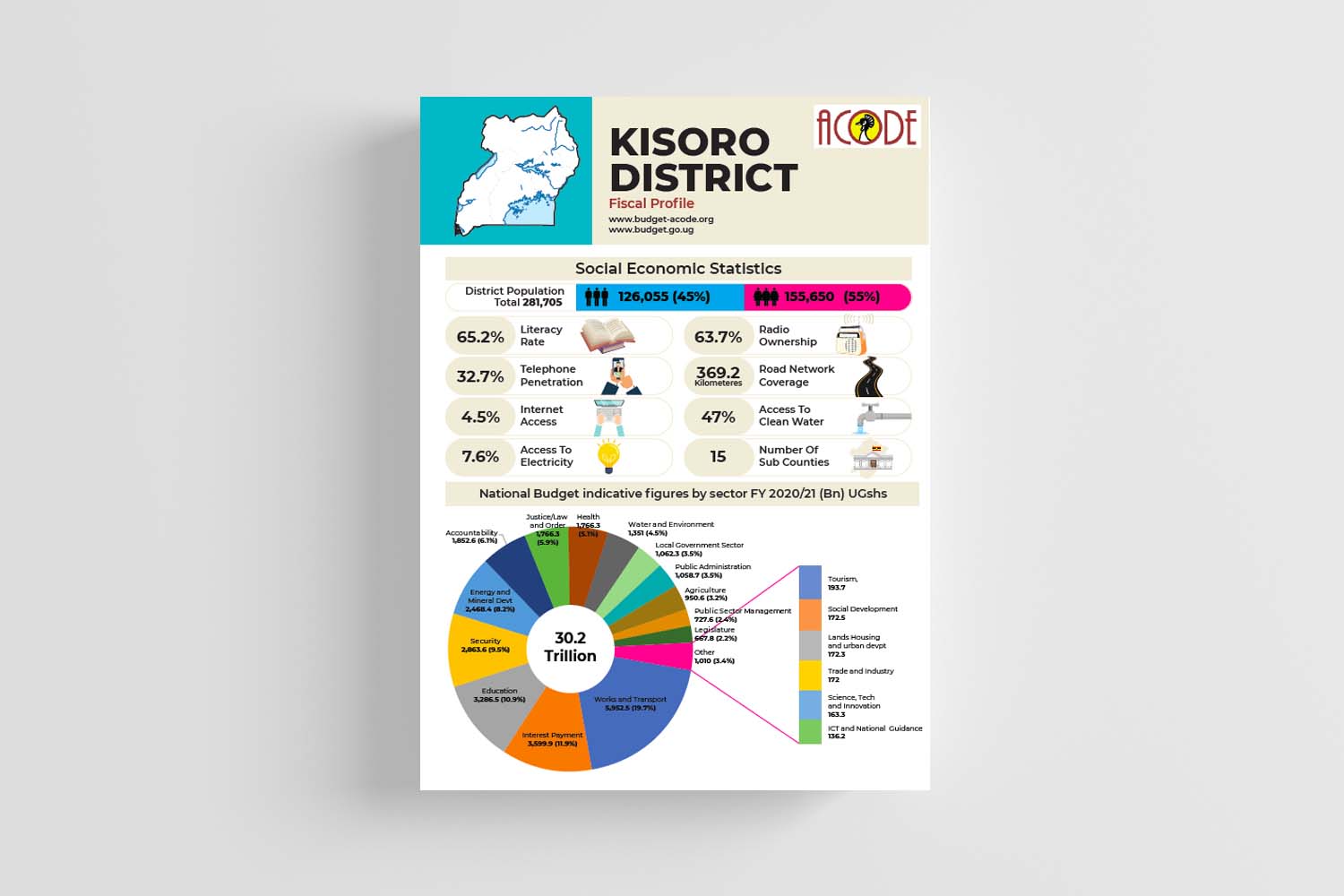
Kisoro District Local Government Fiscal Profile Financial Year 2020/2021
Author(s): ACODE
Published: 2020
The visual representation of the fiscal profile shows planning figures for Kisoro District Local Government as indicated in its budget framework paper for Financial Year 2020/2021.
View PDF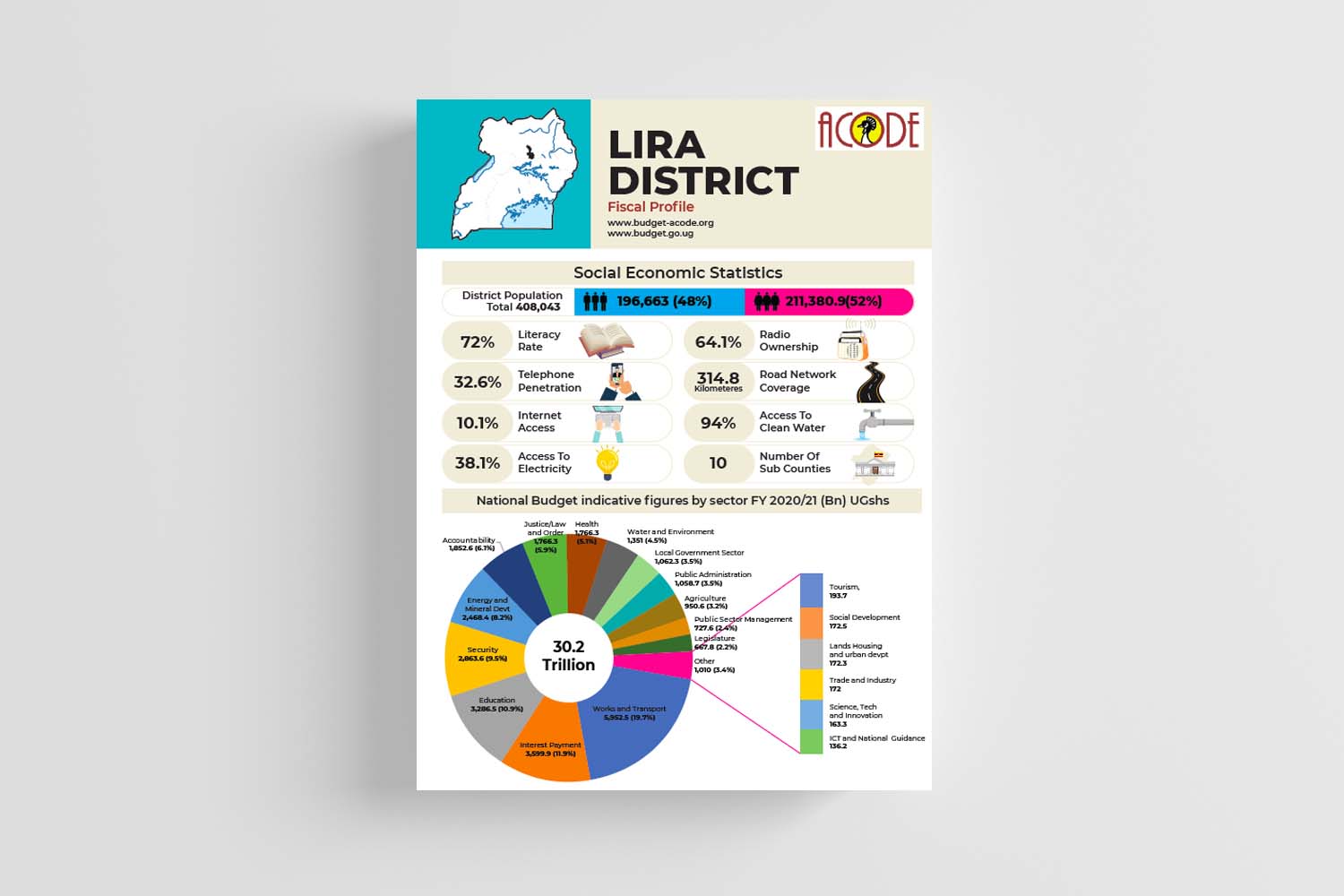
Lira District Local Government Fiscal Profile Financial Year 2020/2021
Author(s): ACODE
Published: 2020
The visual representation of the fiscal profile shows planning figures for Lira District Local Government as indicated in its budget framework paper for Financial Year 2020/2021.
View PDF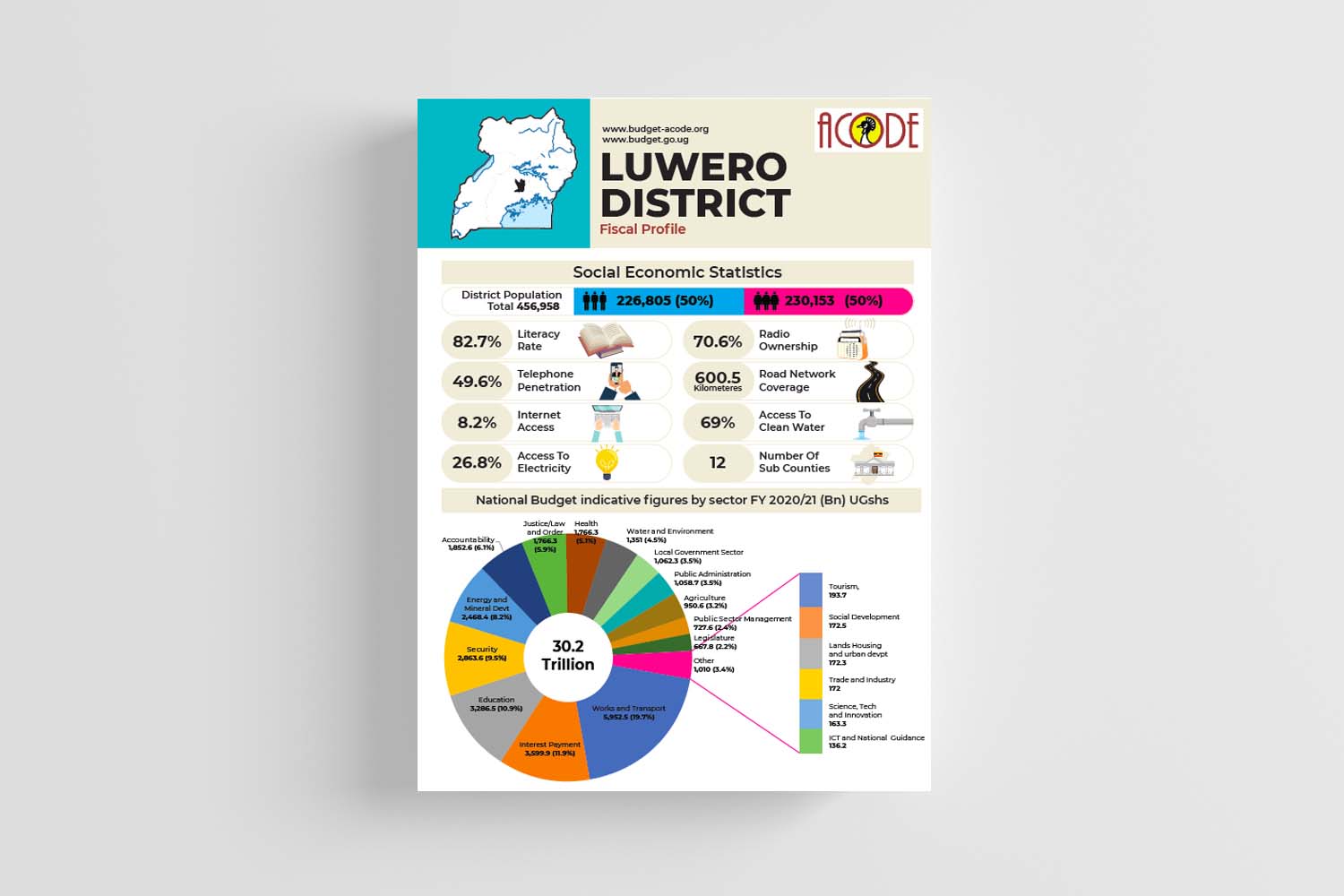
Luwero District Local Government Fiscal Profile Financial Year 2020/2021
Author(s): ACODE
Published: 2020
The visual representation of the fiscal profile shows planning figures for Luwero District Local Government as indicated in its budget framework paper for Financial Year 2020/2021.
View PDF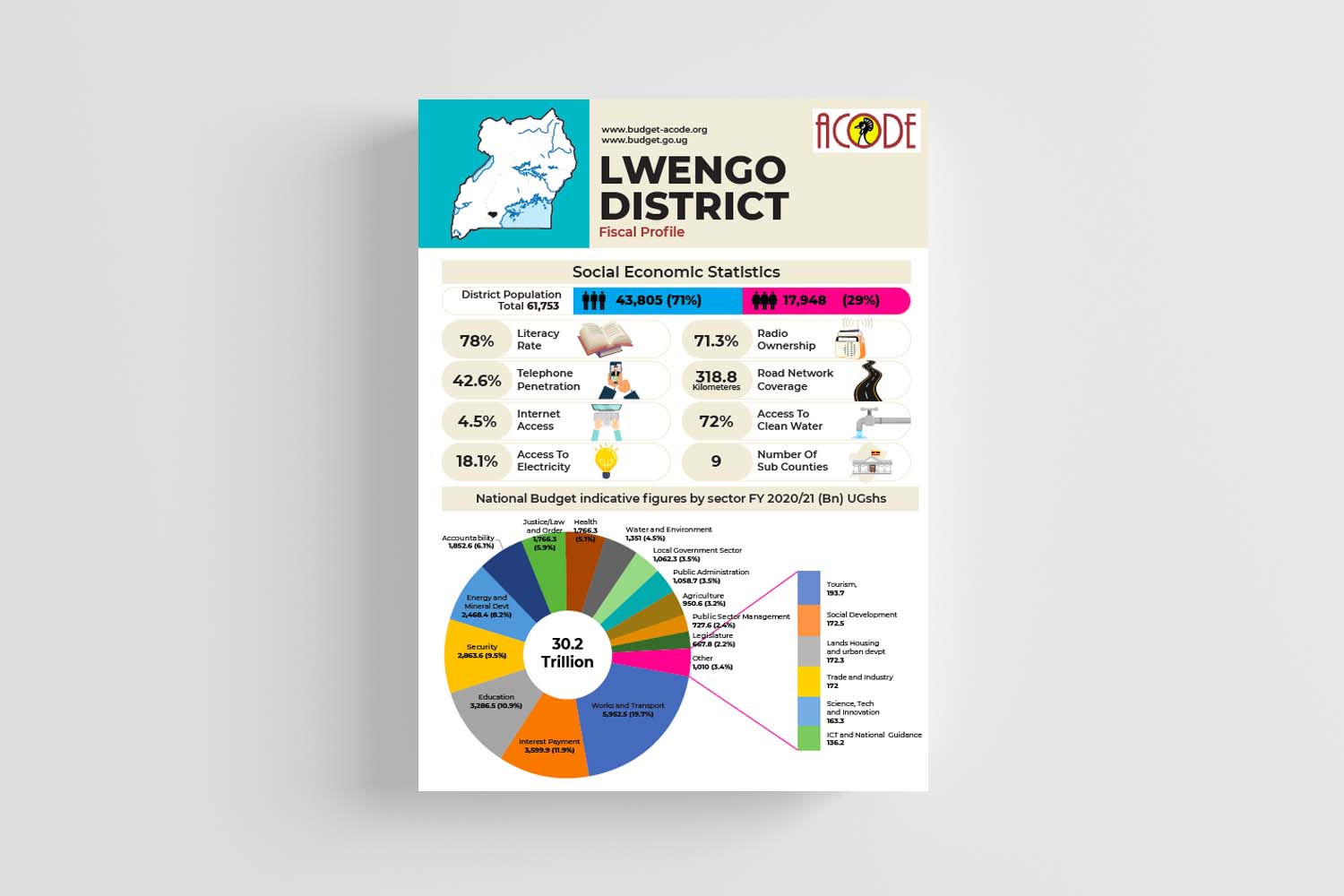
Lwengo District Local Government Fiscal Profile Financial Year 2020/2021
Author(s): ACODE
Published: 2020
The visual representation of the fiscal profile shows planning figures for Lwengo District Local Government as indicated in its budget framework paper for Financial Year 2020/2021.
View PDF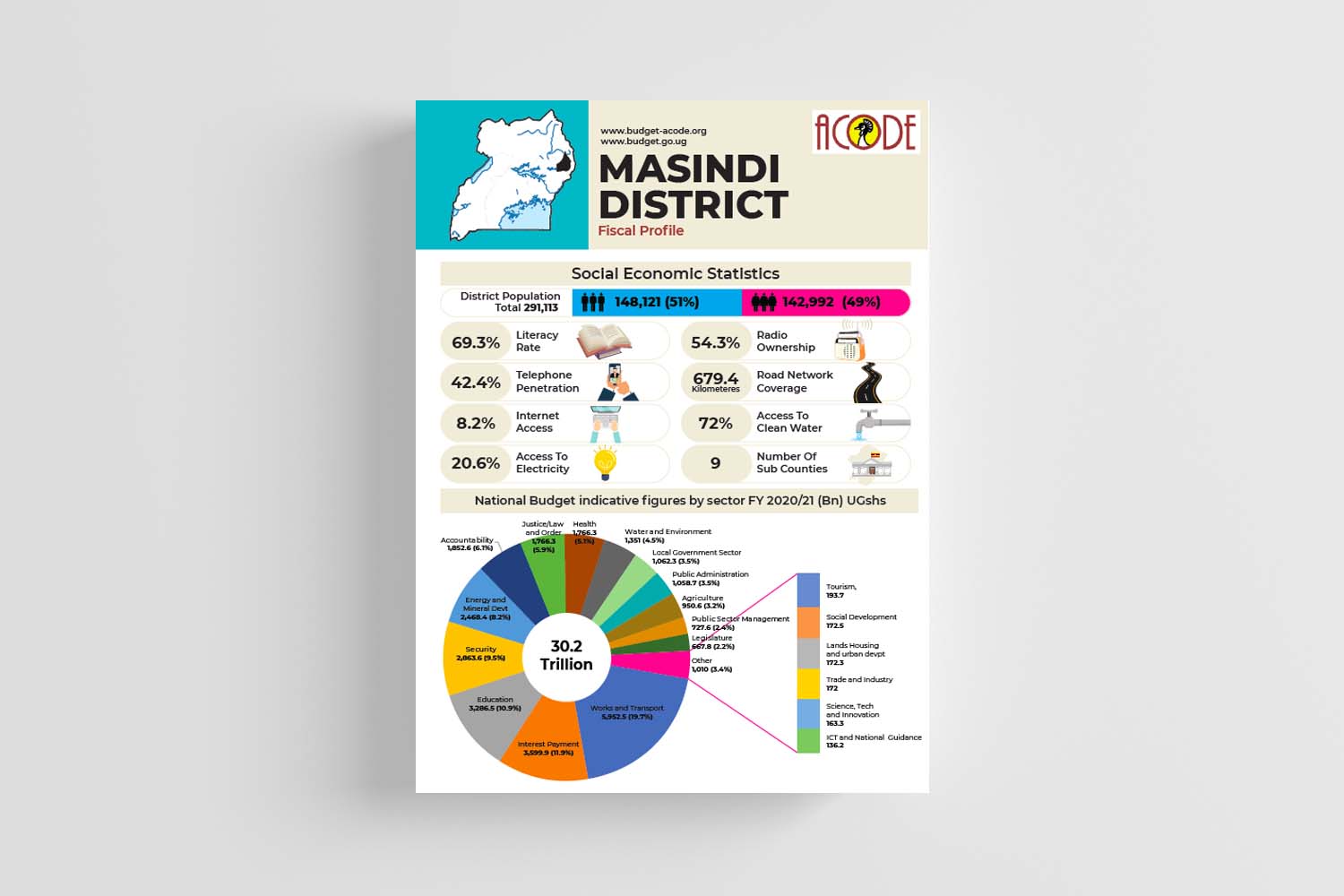
Masindi District Local Government Fiscal Profile Financial Year 2020/2021
Author(s): ACODE
Published: 2020
The visual representation of the fiscal profile shows planning figures for Masindi District Local Government as indicated in its budget framework paper for Financial Year 2020/2021.
View PDF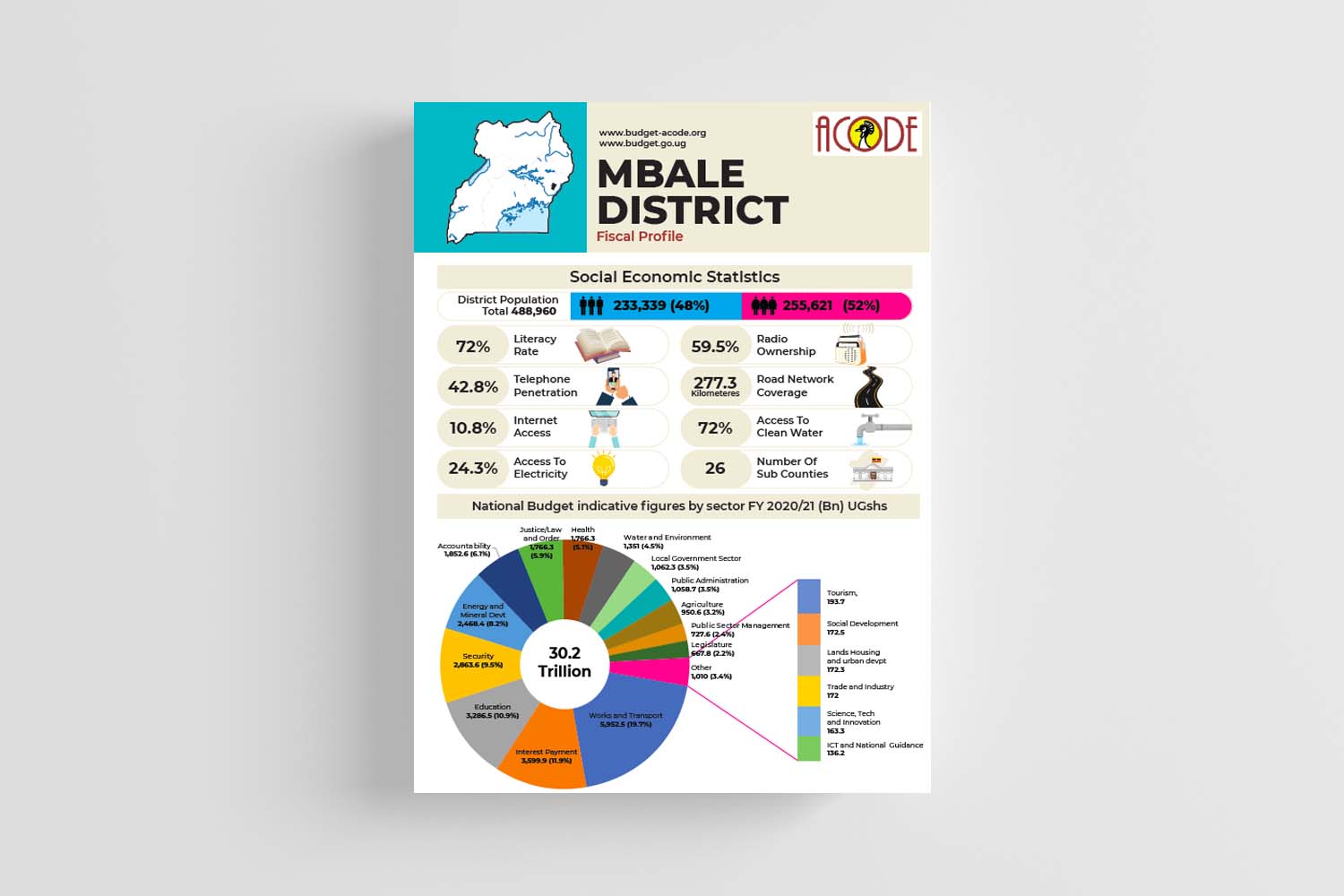
Mbale District Local Government Fiscal Profile Financial Year 2020/2021
Author(s): ACODE
Published: 2020
The visual representation of the fiscal profile shows planning figures for Mbale District Local Government as indicated in its budget framework paper for Financial Year 2020/2021.
View PDF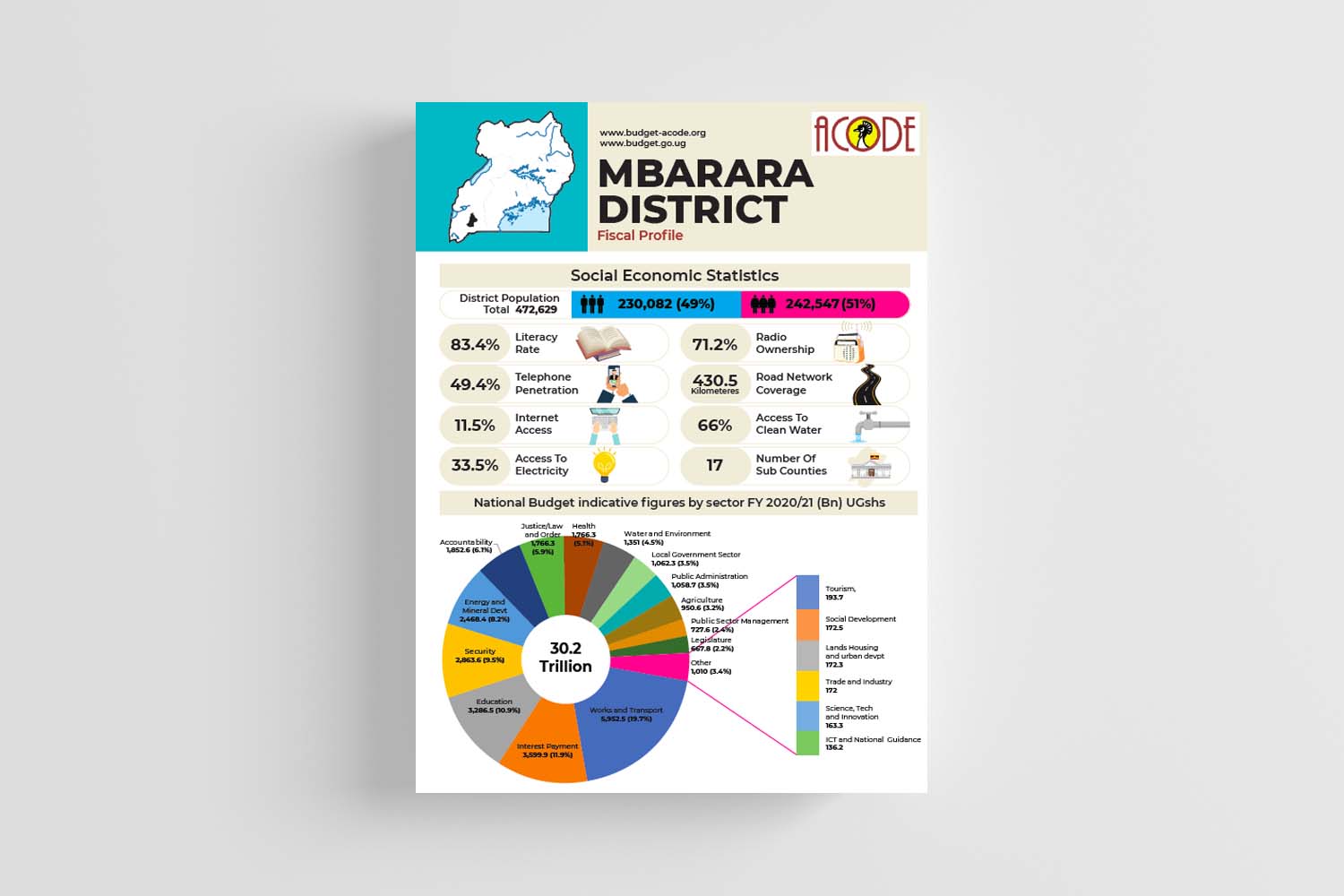
Mbarara District Local Government Fiscal Profile Financial Year 2020/2021
Author(s): ACODE
Published: 2020
The visual representation of the fiscal profile shows planning figures for Mbarara District Local Government as indicated in its budget framework paper for Financial Year 2020/2021.
View PDF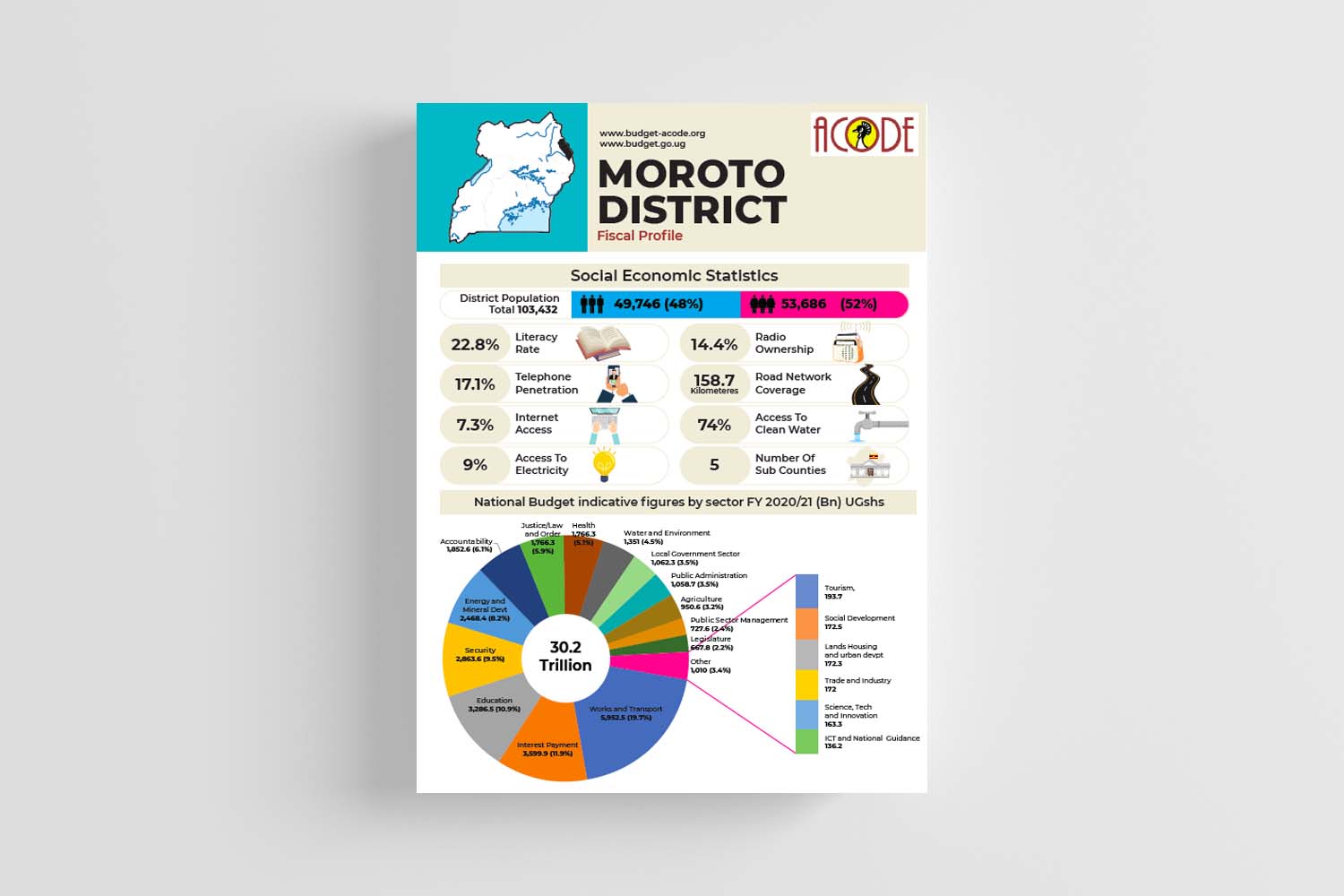
Moroto District Local Government Fiscal Profile Financial Year 2020/2021
Author(s): ACODE
Published: 2020
The visual representation of the fiscal profile shows planning figures for Moroto District Local Government as indicated in its budget framework paper for Financial Year 2020/2021.
View PDF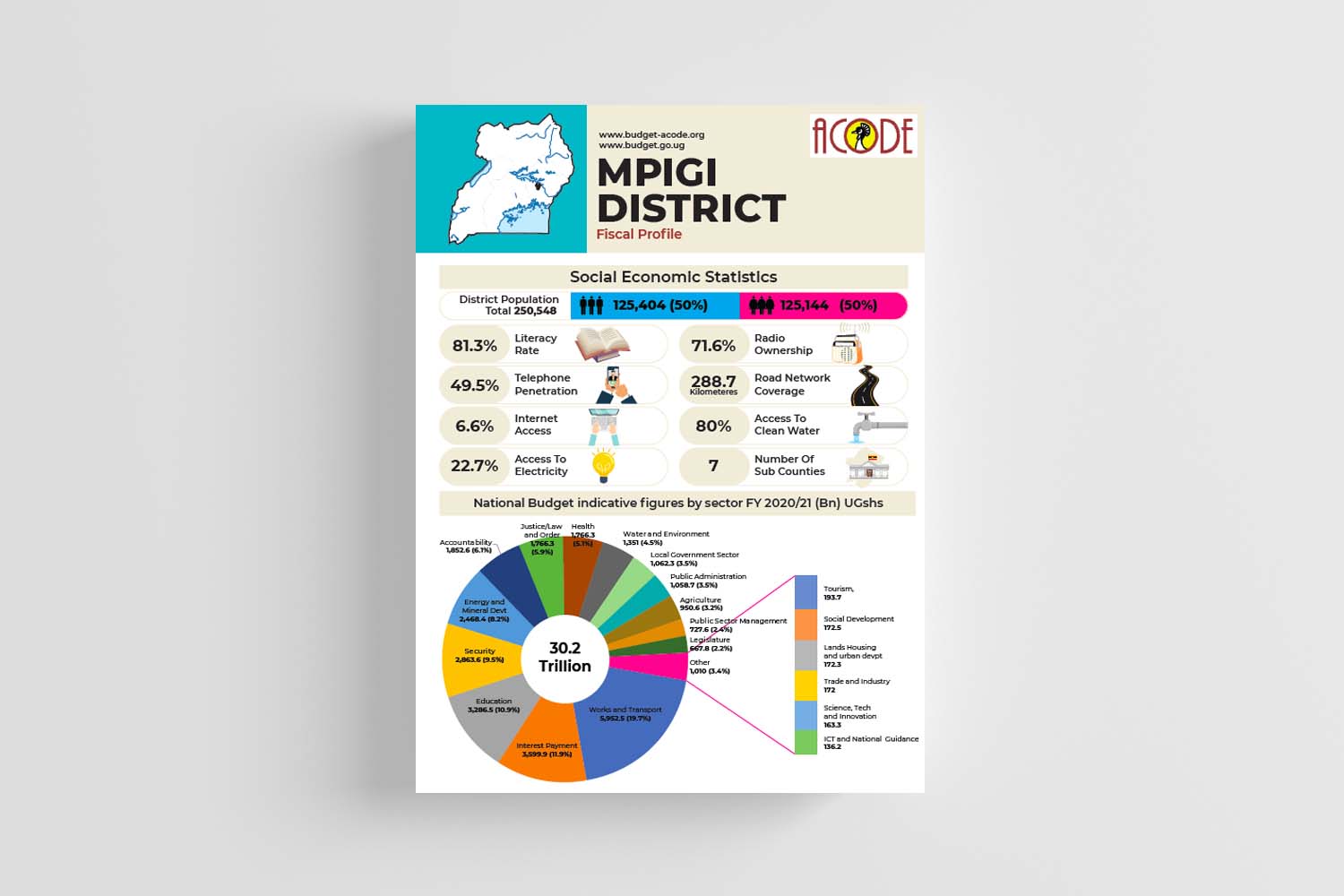
Mpigi District Local Government Fiscal Profile Financial Year 2020/2021
Author(s): ACODE
Published: 2020
The visual representation of the fiscal profile shows planning figures for Mpigi District Local Government as indicated in its budget framework paper for Financial Year 2020/2021.
View PDF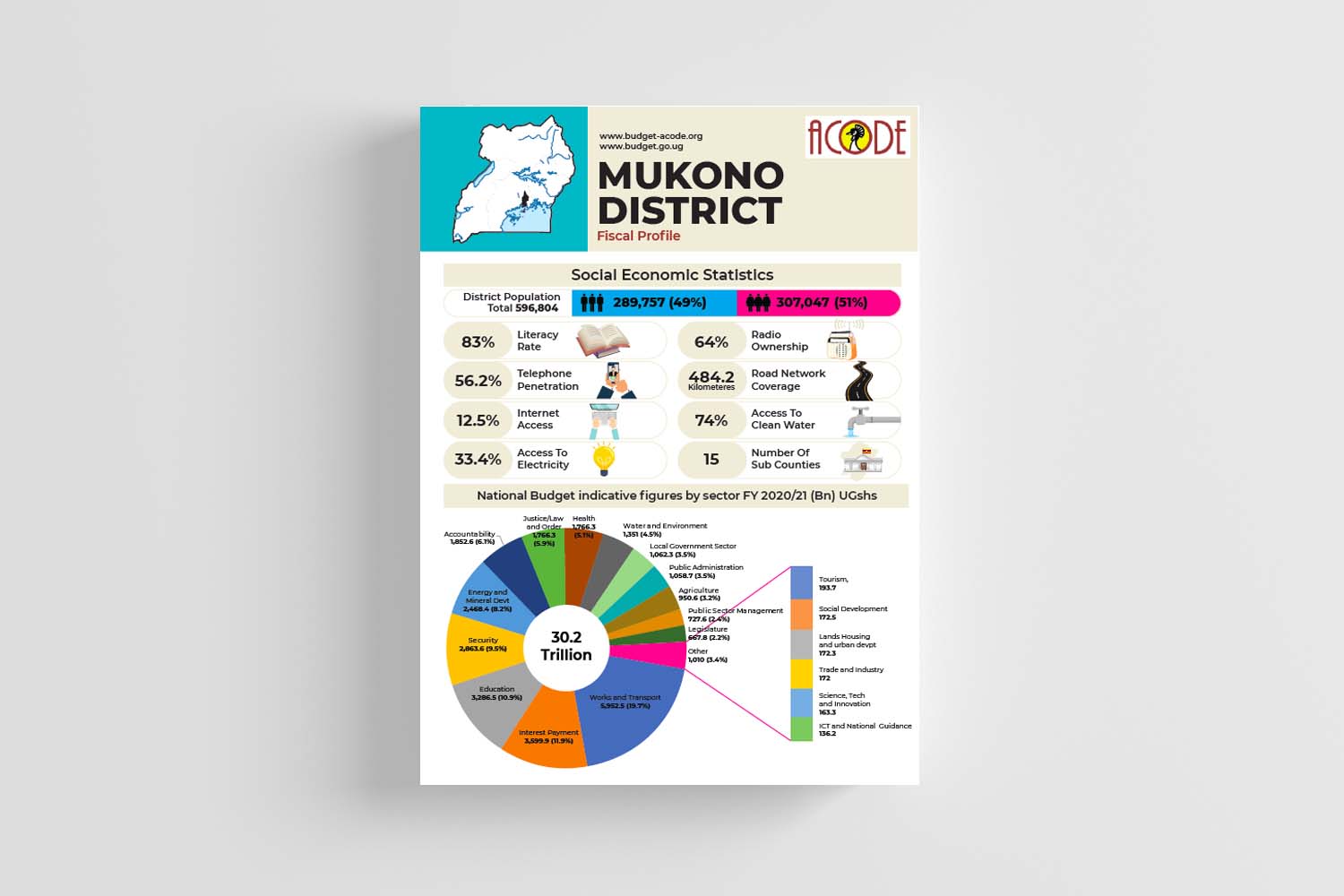
Mukono District Local Government Fiscal Profile Financial Year 2020/2021
Author(s): ACODE
Published: 2020
The visual representation of the fiscal profile shows planning figures for Mukono District Local Government as indicated in its budget framework paper for Financial Year 2020/2021.
View PDF
Nakapiripirit District Local Government Fiscal Profile Financial Year 2020/2021
Author(s): ACODE
Published: 2020
The visual representation of the fiscal profile shows planning figures for Nakapiripirit District Local Government as indicated in its budget framework paper for Financial Year 2020/2021.
View PDF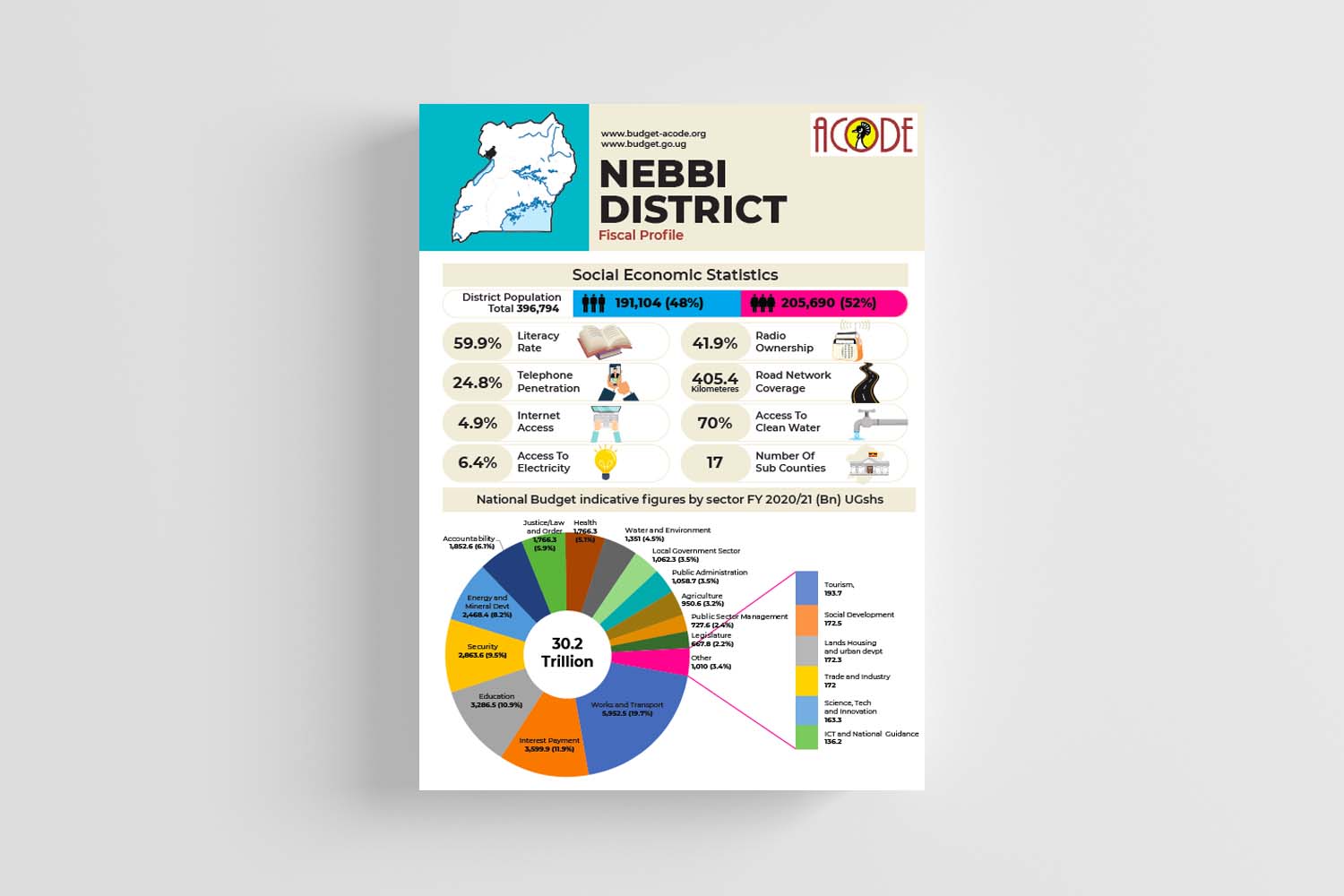
Nebbi District Local Government Fiscal Profile Financial Year 2020/2021
Author(s): ACODE
Published: 2020
The visual representation of the fiscal profile shows planning figures for Nebbi District Local Government as indicated in its budget framework paper for Financial Year 2020/2021.
View PDF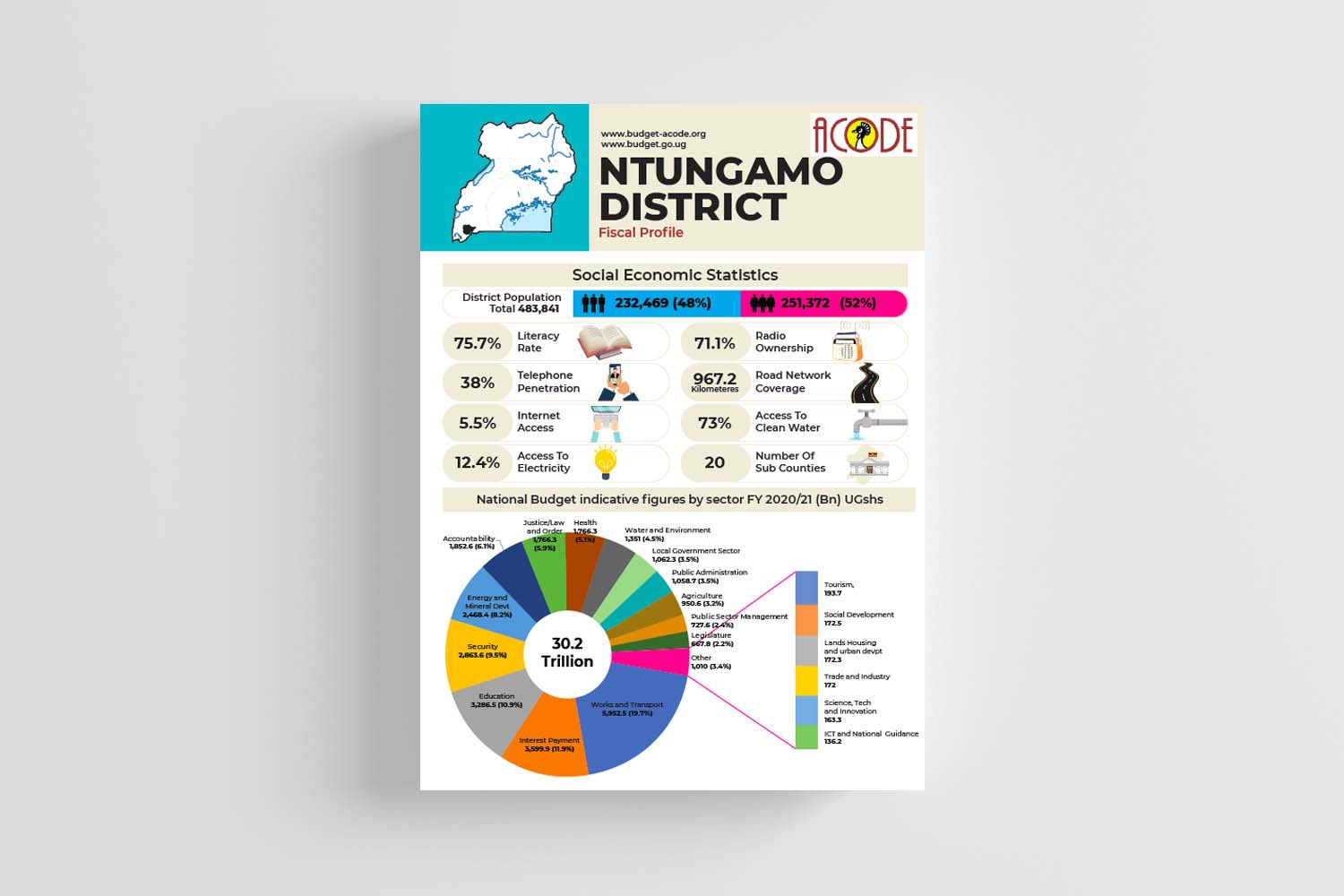
Ntungamo District Local Government Fiscal Profile Financial Year 2020/2021
Author(s): ACODE
Published: 2020
The visual representation of the fiscal profile shows planning figures for Ntungamo District Local Government as indicated in its budget framework paper for Financial Year 2020/2021.
View PDF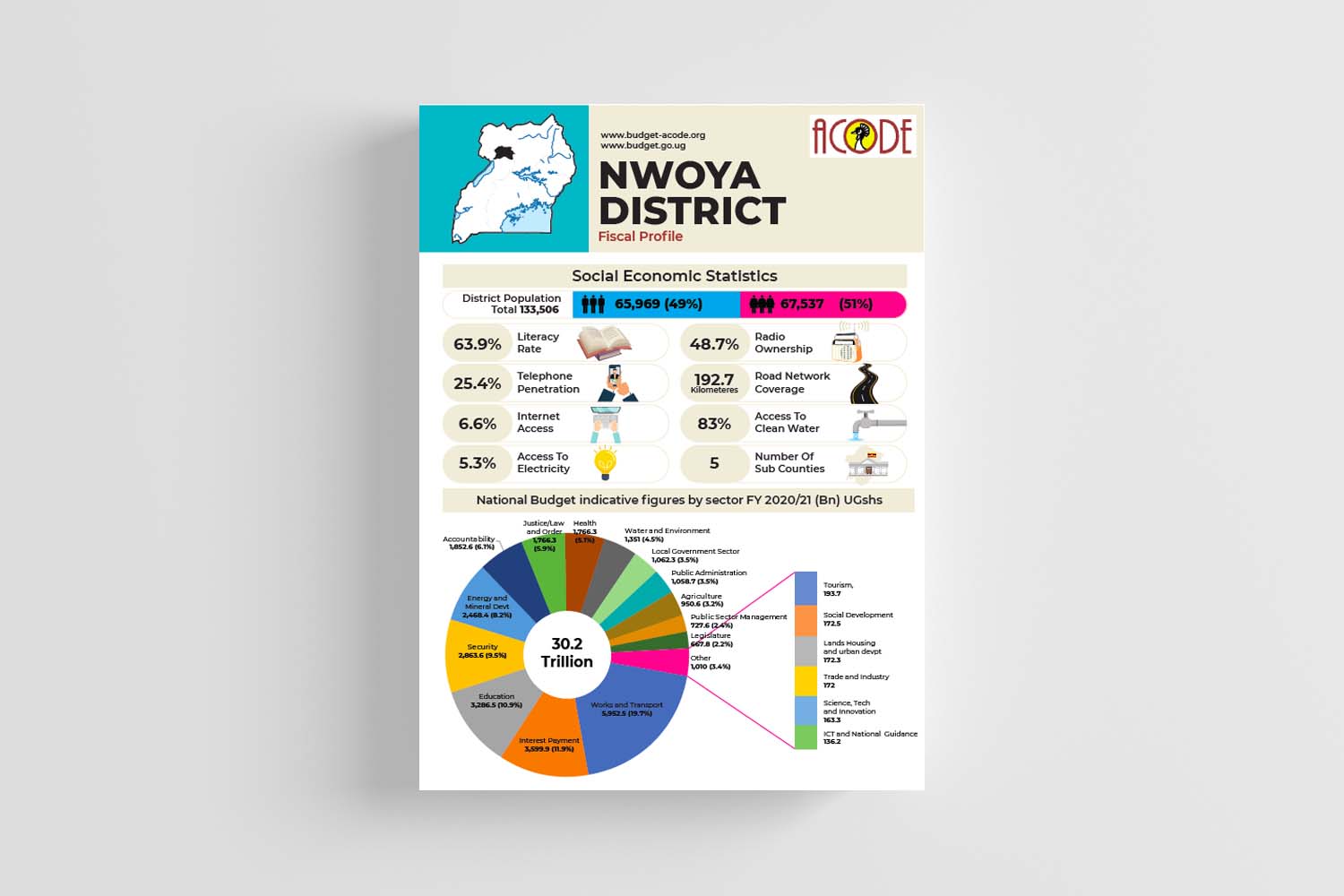
Nwoya District Local Government Fiscal Profile Financial Year 2020/2021
Author(s): ACODE
Published: 2020
The visual representation of the fiscal profile shows planning figures for Nwoya District Local Government as indicated in its budget framework paper for Financial Year 2020/2021.
View PDF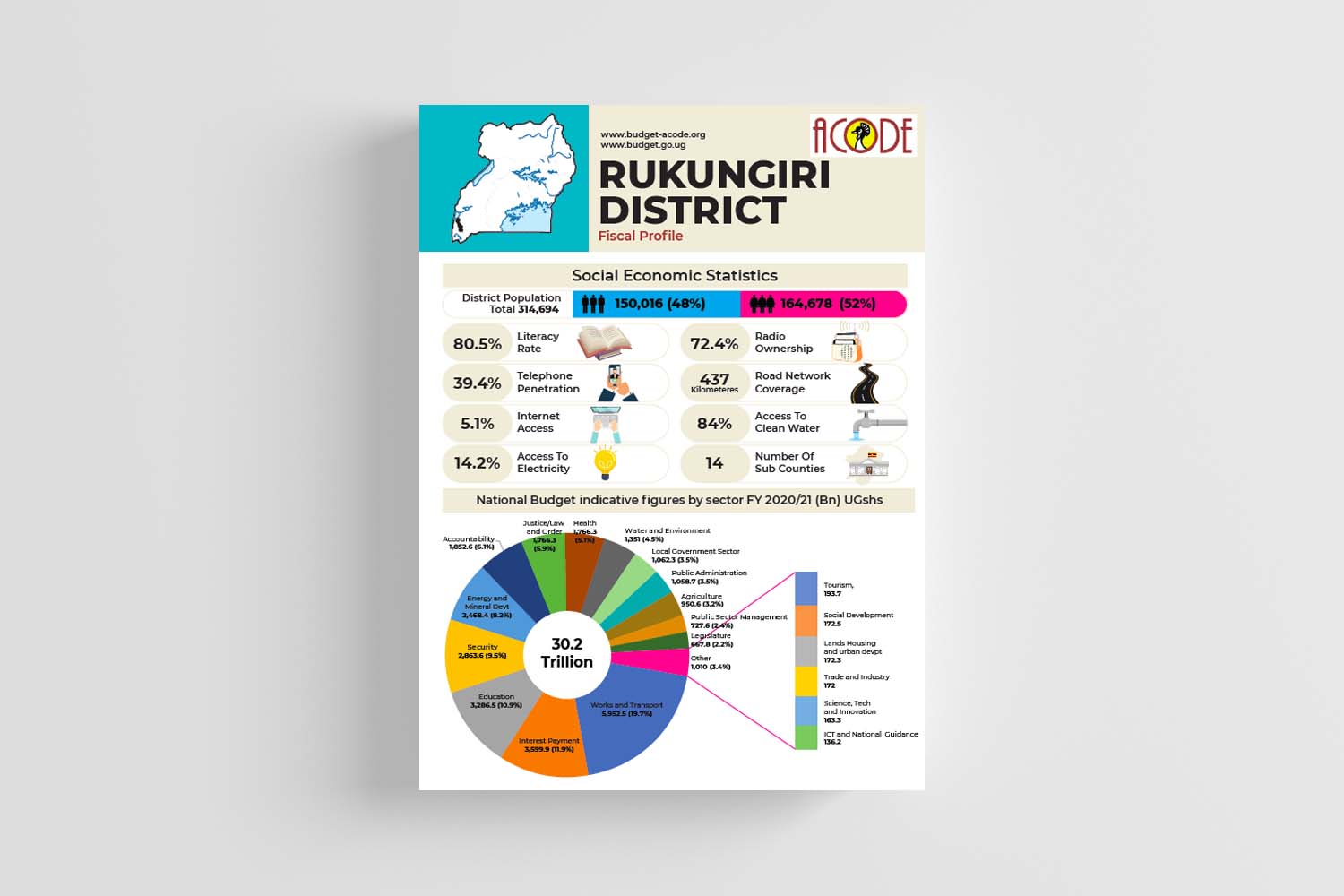
Rukungiri District Local Government Fiscal Profile Financial Year 2020/2021
Author(s): ACODE
Published: 2020
The visual representation of the fiscal profile shows planning figures for Rukungiri District Local Government as indicated in its budget framework paper for Financial Year 2020/2021.
View PDF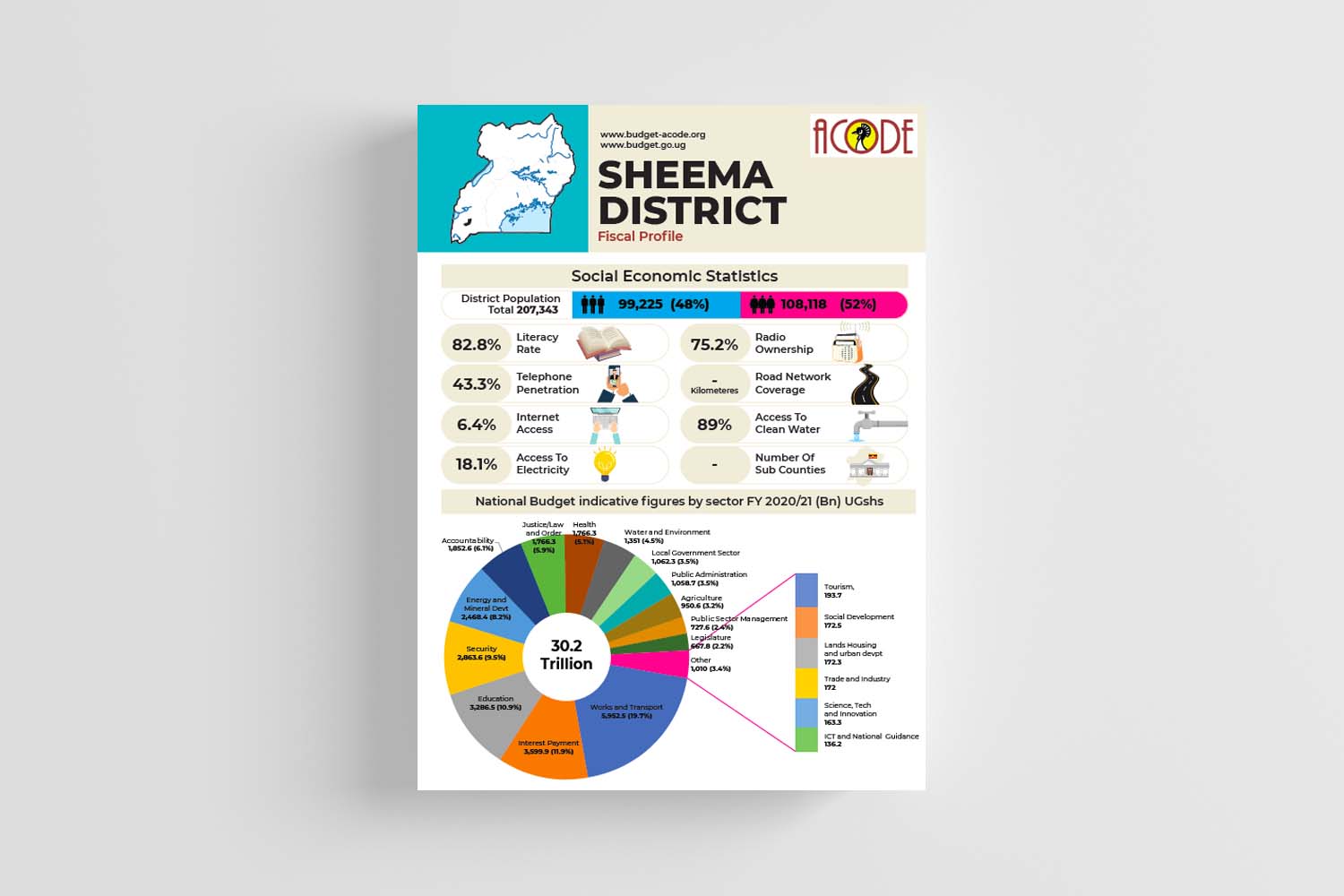
Sheema District Local Government Fiscal Profile Financial Year 2020/2021
Author(s): ACODE
Published: 2020
The visual representation of the fiscal profile shows planning figures for Sheema District Local Government as indicated in its budget framework paper for Financial Year 2020/2021.
View PDF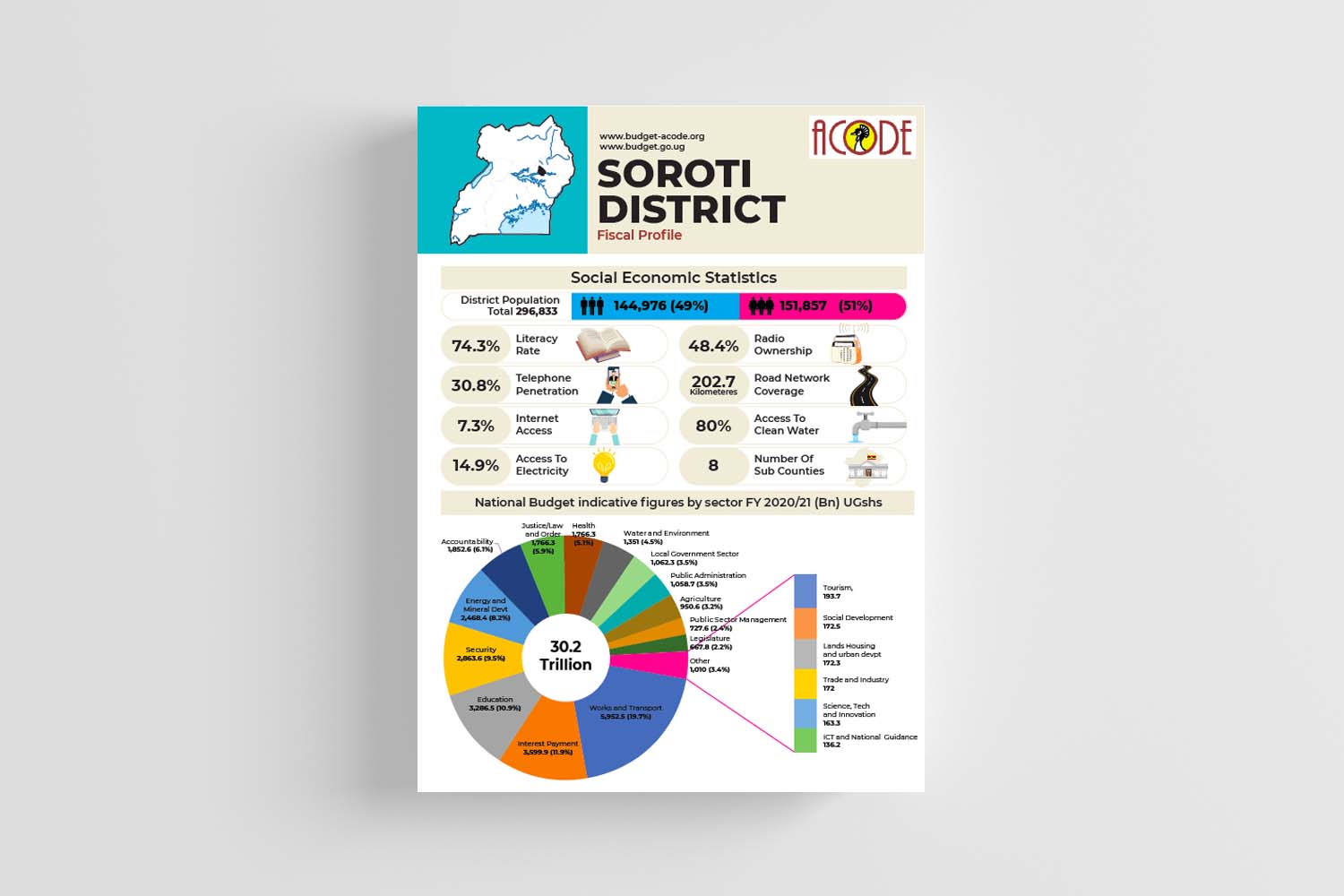
Soroti District Local Government Fiscal Profile Financial Year 2020/2021
Author(s): ACODE
Published: 2020
The visual representation of the fiscal profile shows planning figures for Soroti District Local Government as indicated in its budget framework paper for Financial Year 2020/2021.
View PDF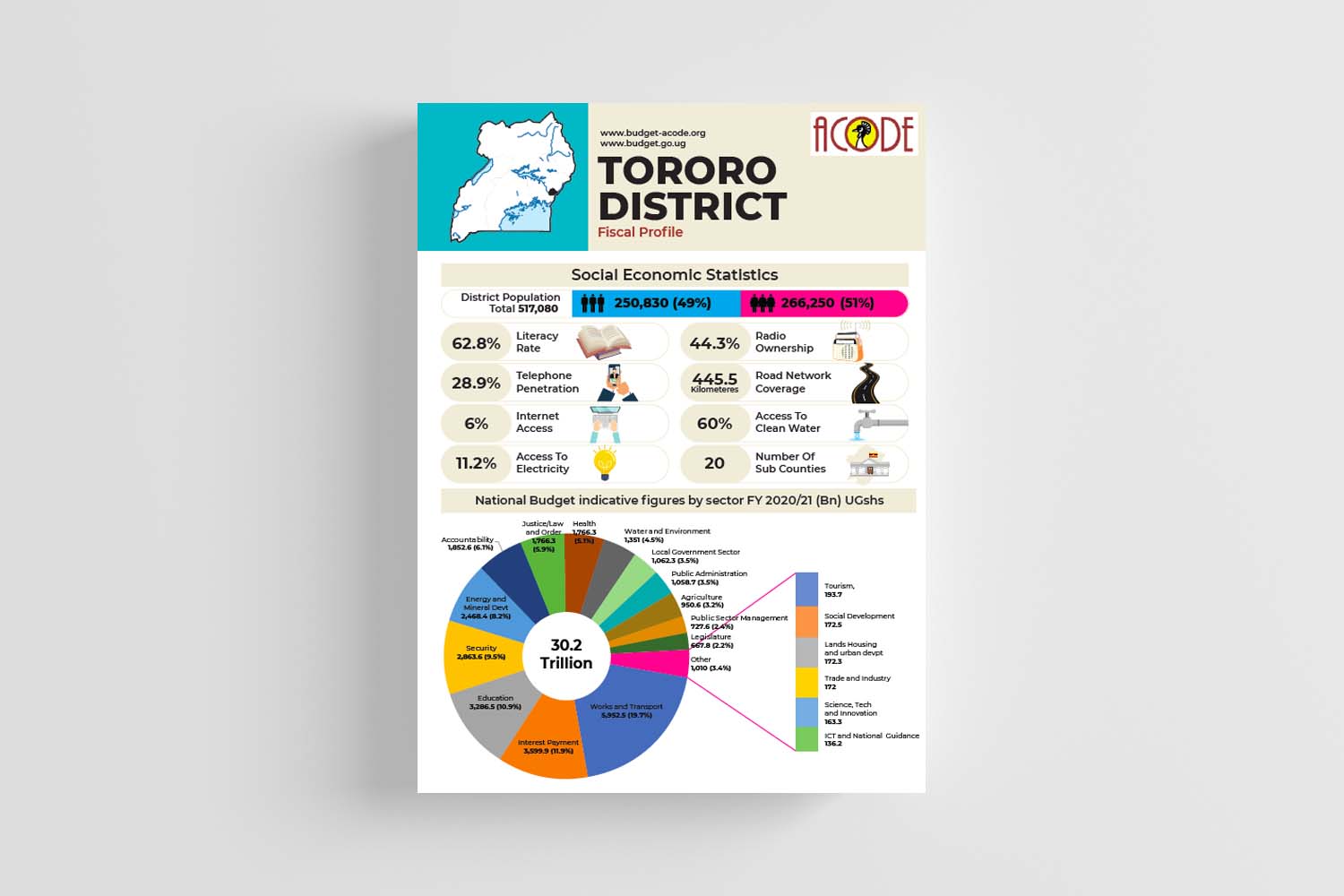
Tororo District Local Government Fiscal Profile Financial Year 2020/2021
Author(s): ACODE
Published: 2020
The visual representation of the fiscal profile shows planning figures for Tororo District Local Government as indicated in its budget framework paper for Financial Year 2020/2021.
View PDF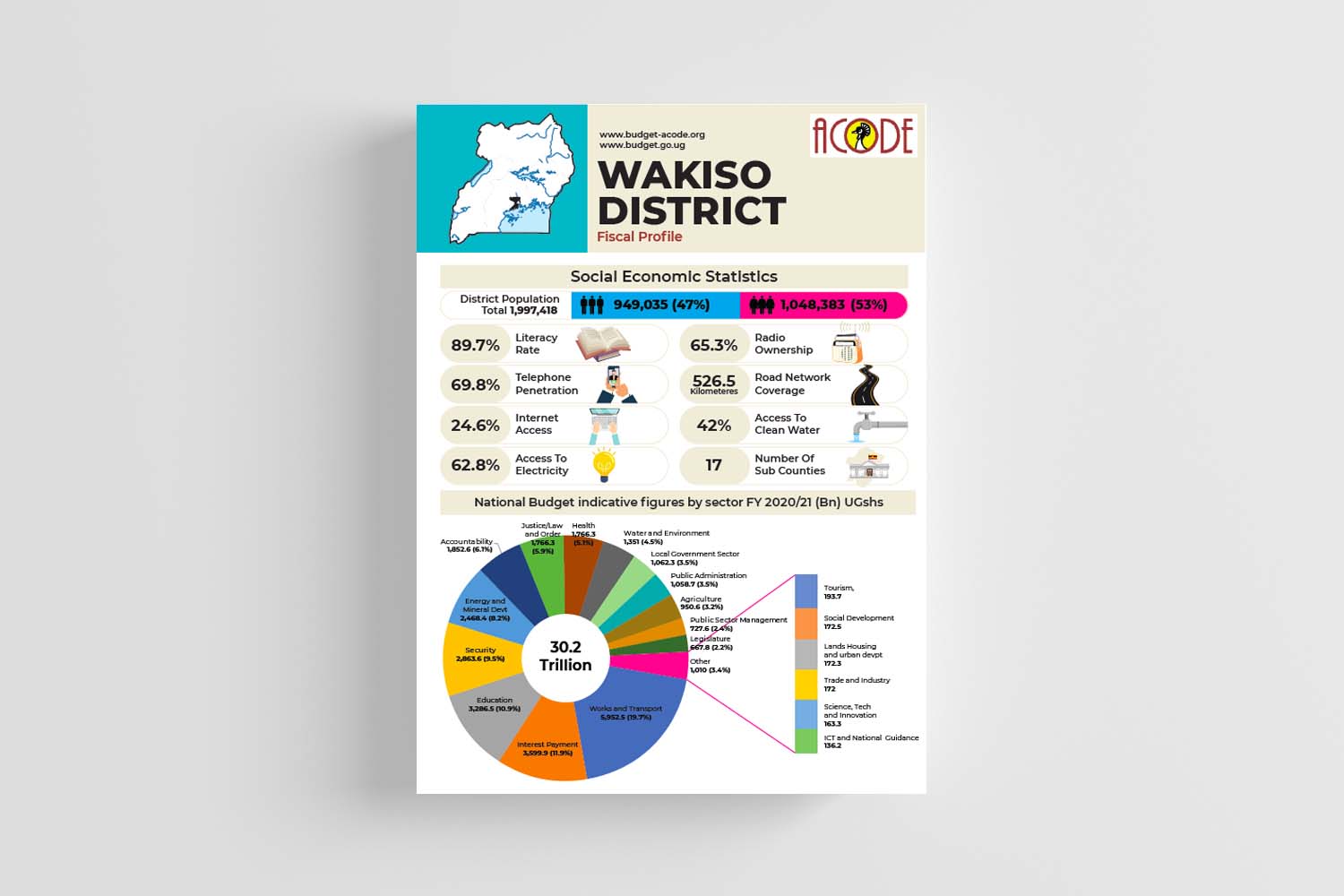
Wakiso District Local Government Fiscal Profile Financial Year 2020/2021
Author(s): ACODE
Published: 2020
The visual representation of the fiscal profile shows planning figures for Wakiso District Local Government as indicated in its budget framework paper for Financial Year 2020/2021.
View PDF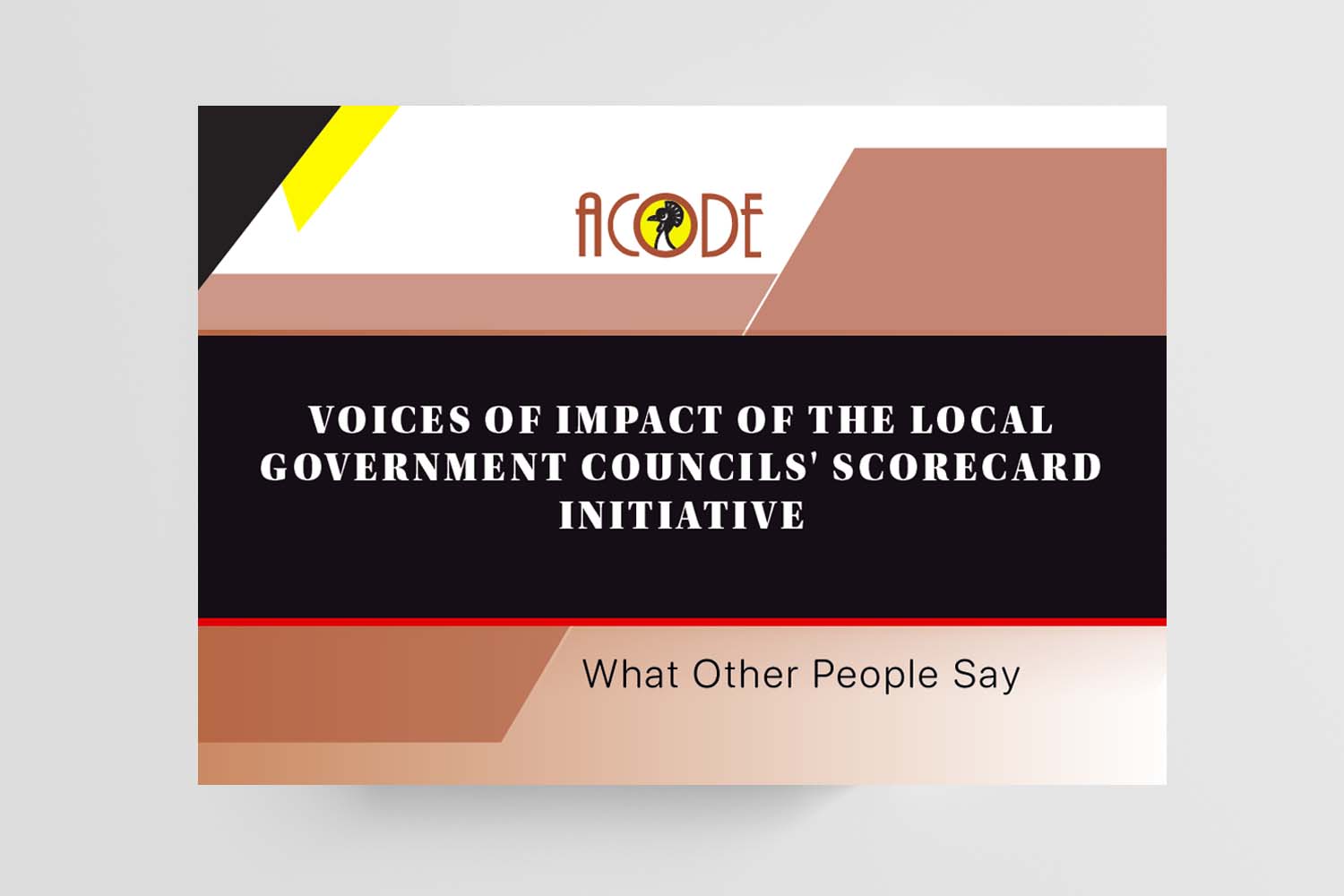
Voices of Impact of the Local Government Councils' Scorecard Initiative
Author(s): ACODE
Published: 2023
This booklet is a compilation of the successes of the Local Government Councils Scorecard Initiative (LGCSCI). LGCSCI is a social accountability initiative that seeks to deepen local governance by strengthening the political accountability of elected local leaders and citizens' demand for excellence in the provision of service delivery by their local governments. LGCSCI was launched in 2009 in 10 districts, Currently, LGCSCI covers 35 districts in Uganda. Through a partnership with Uganda Local Governments Association (ULGA), ACODE is able to reach out and disseminate research findings and policy recommendations to all local governments.
View PDF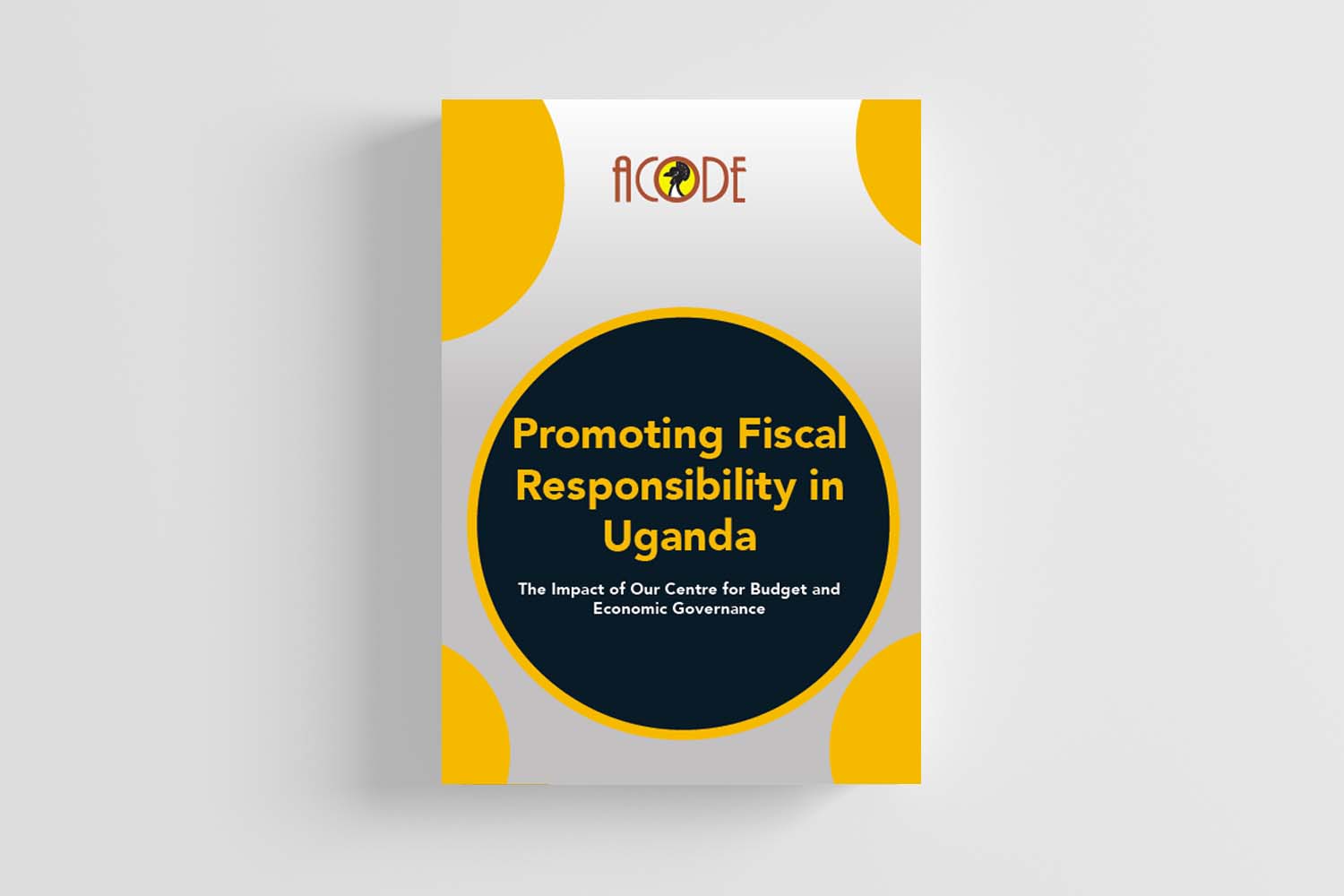
Promoting Fiscal Responsibility in Uganda: The Impact of Our Centre for Budget and Economic Governance
Author(s): ACODE
Published: 2023
Since 2010, ACODE has been implementing projects under the Center for Budget and Economic Governance. The CBEG builds on our earlier work under Public Administration Expenditure Initiative1 and Citizen’s Budget Tracking and Information Centre. This booklet contains success stories from the field that provides valuable insights and illustrates our contribution to achieving fiscal responsibility in Uganda.
View PDF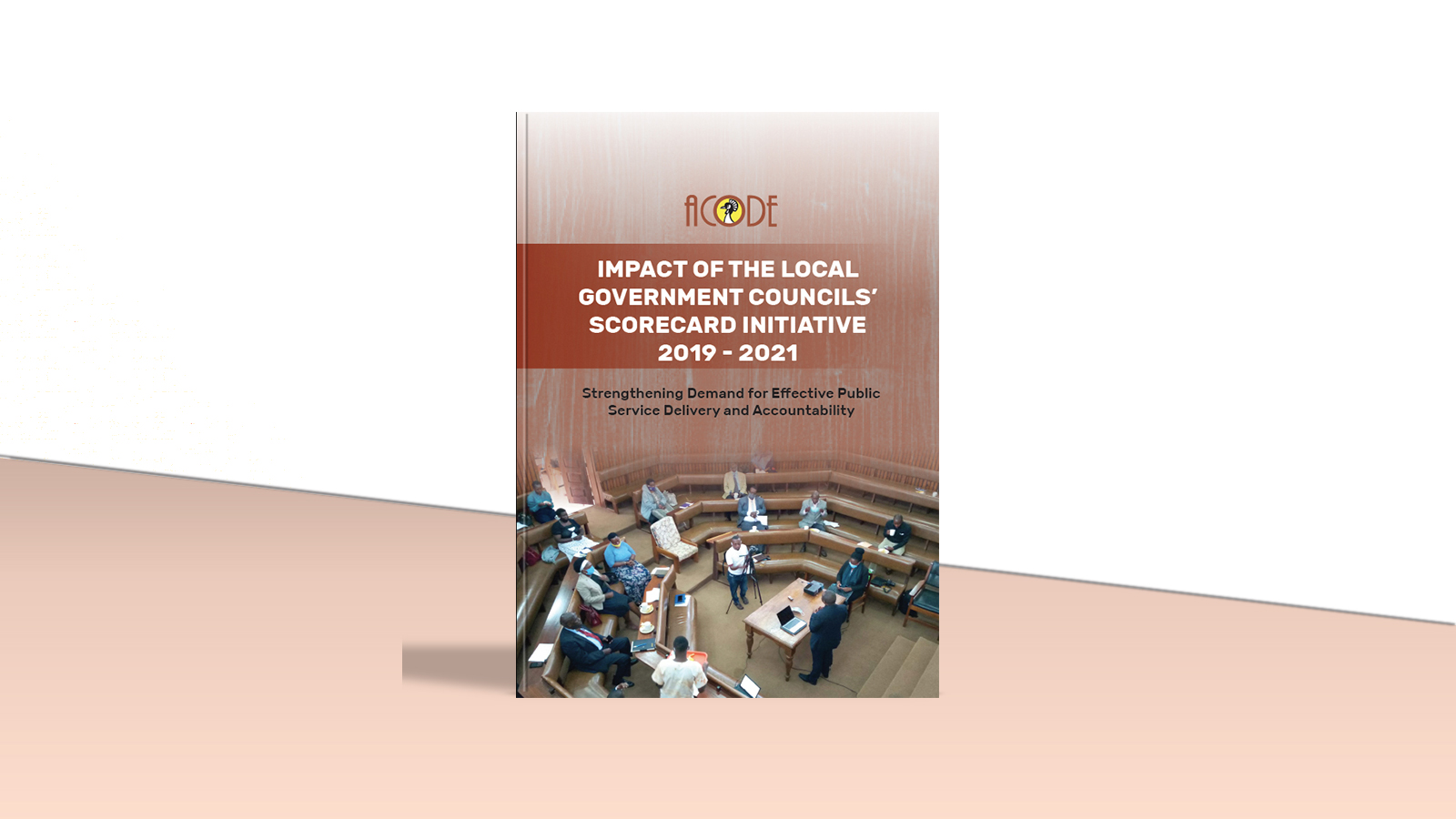
Impact of the Local Government Councils Scorecard Initiative 2019-2021: Strengthening Demand for Effective Public Service Delivery and Accountability
Author(s): ACODE
Published: 2021
This Booklet presents the impact registered by ACODE through the implementation of the Local Government Councils Scorecard Initiative (LGCSCI). This impact is noticeable at the International, National, and Local Levels. This impact has been achieved as a result of ACODE's uniqueness and ability to engage Government Ministries, Departments and Agencies (MDAs) and Local Governments. The impact is also partly attributable to ACODE's ability to build meaningful partnerships with government institutions, national local government associations, international NGOs, and international development agencies.
View PDF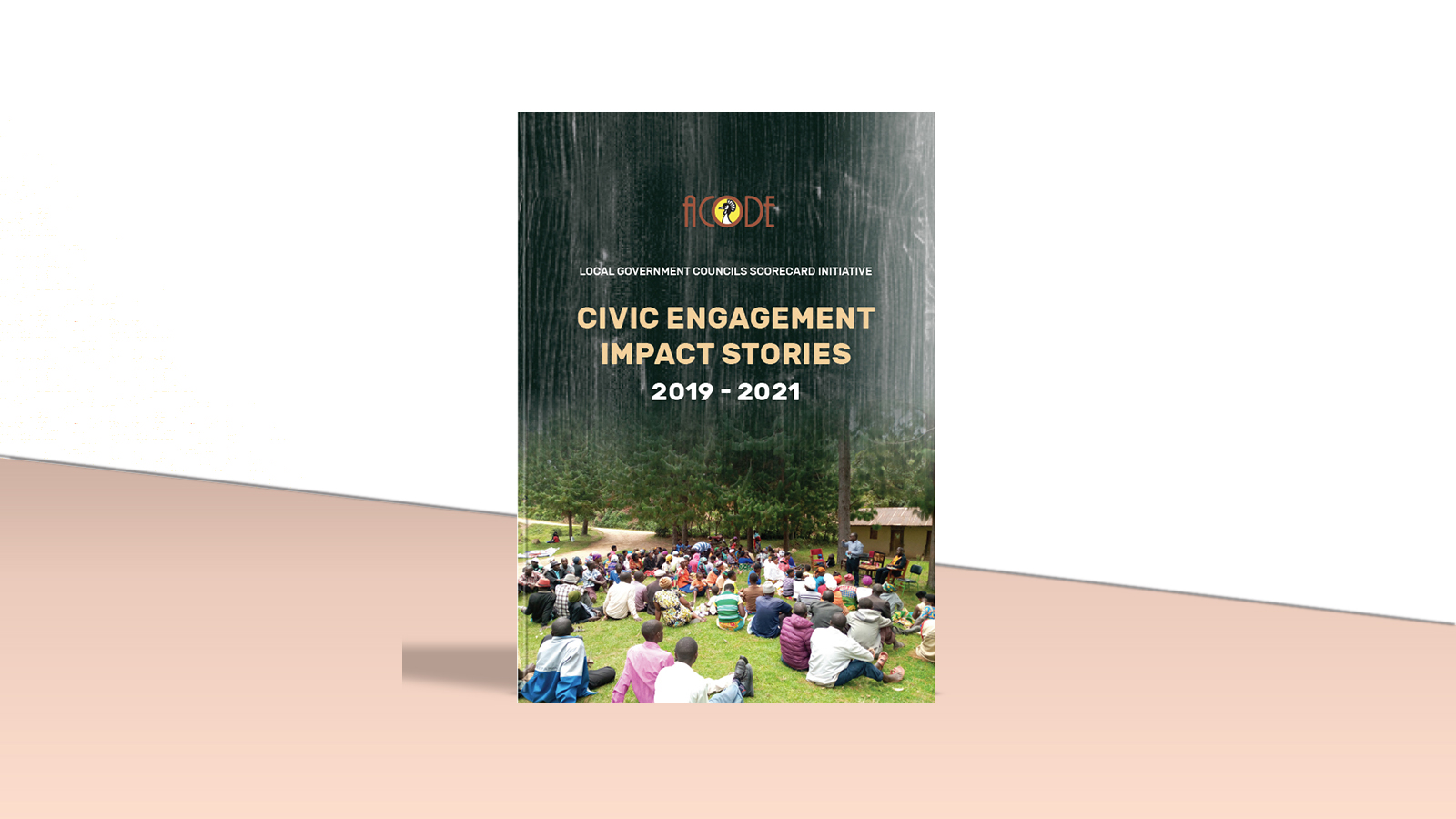
Civic Engagement Impact Stories 2019-2021
Author(s): ACODE
Published: 2021
This is a report documenting impact stories registered from various districts of Uganda where ACODE has been promoting civic competence under the Local Government Councils Scorecard Initiative (LGCSCI). Civic Engagement is a component of the LGCSCI - a social accountability initiative that seeks to deepen local governance by strengthening political accountability of elected local leaders and citizens' demand for better delivery of public services.
View PDF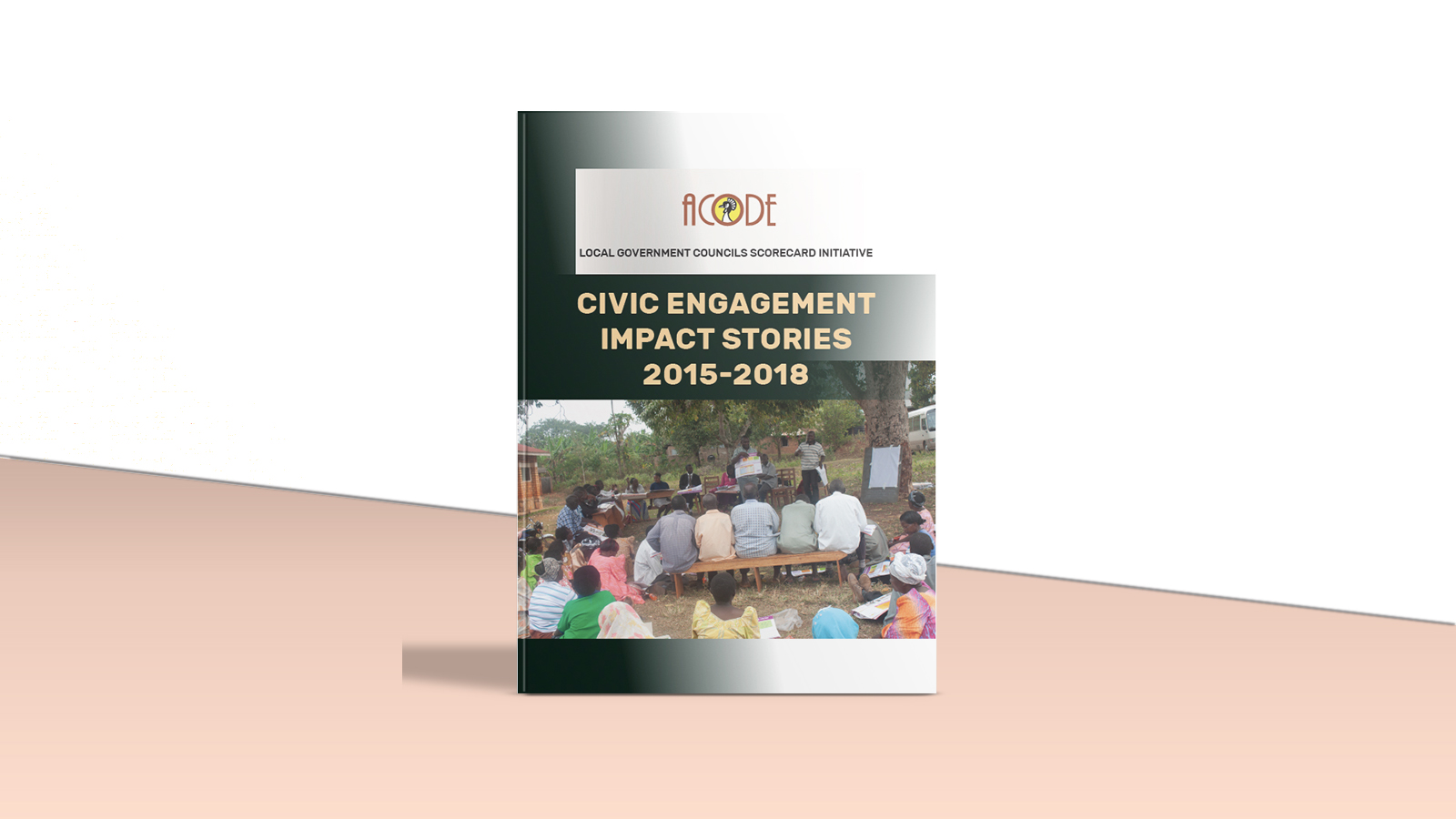
Civic Engagement Impact Stories 2015-2018
Author(s): ACODE
Published: 2021
This is a report documenting impact stories registered from various districts of Uganda where ACODE has been promoting civic competence under the Local Government Councils Scorecard Initiative (LGCSCI). Civic Engagement is a component of the LGCSCI - a social accountability initiative that seeks to deepen local governance by strengthening political accountability of elected local leaders and citizens' demand for better delivery of public services.
View PDF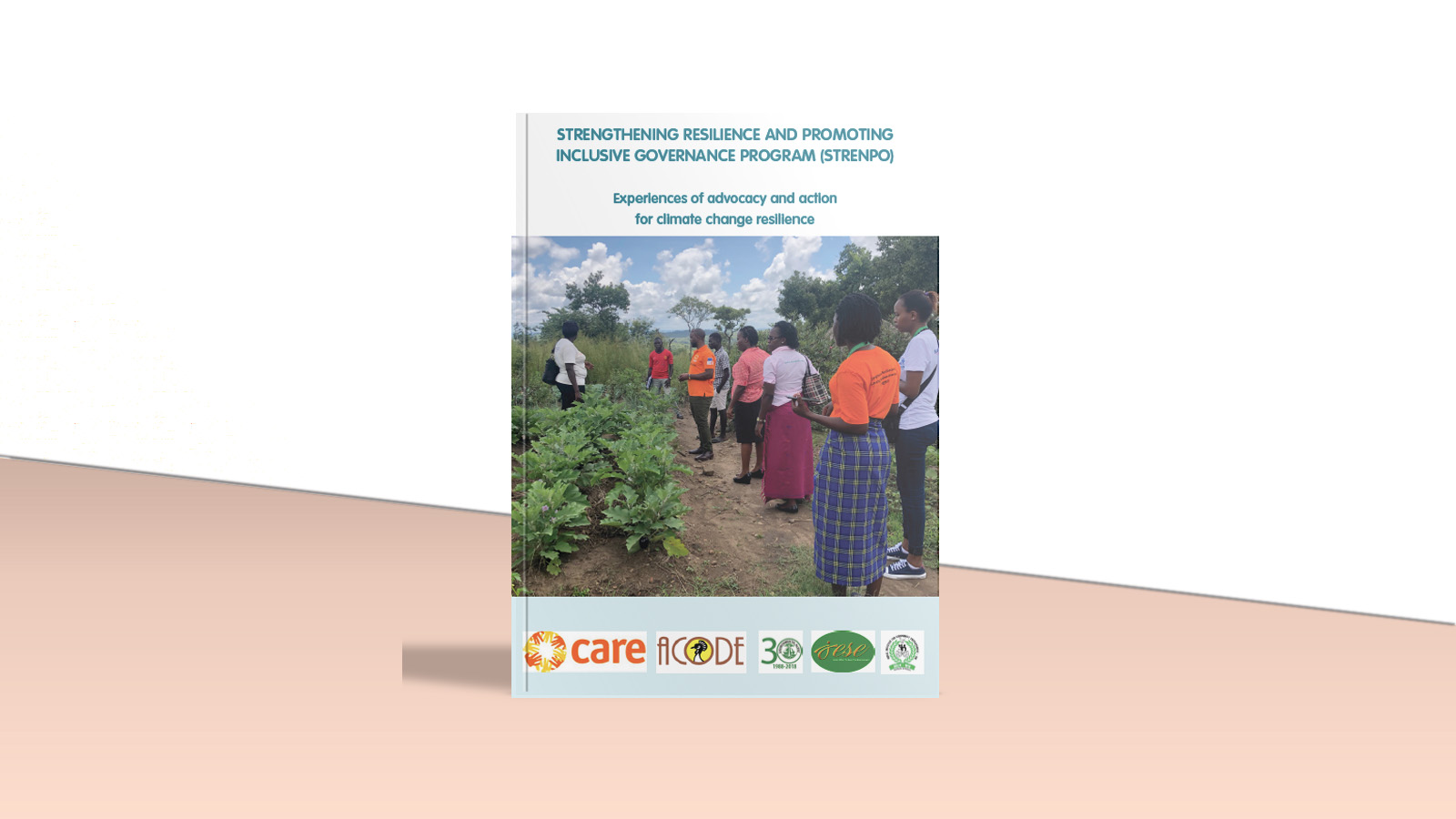
Strengthening Resilience and Promoting Inclusive Governance Program (STRENPO): Experiences of advocacy and action for climate change resilience
Author(s): CARE, ACODE, Environmental Alert, JESE, and RICE-WN
Published: 2019
The report documents experiences and lessons learned while implementing the Strengthening Resilience and Promoting Inclusive Governance for Women and Youth in Vulnerable Communities Project (STRENPO) in Uganda.
View PDF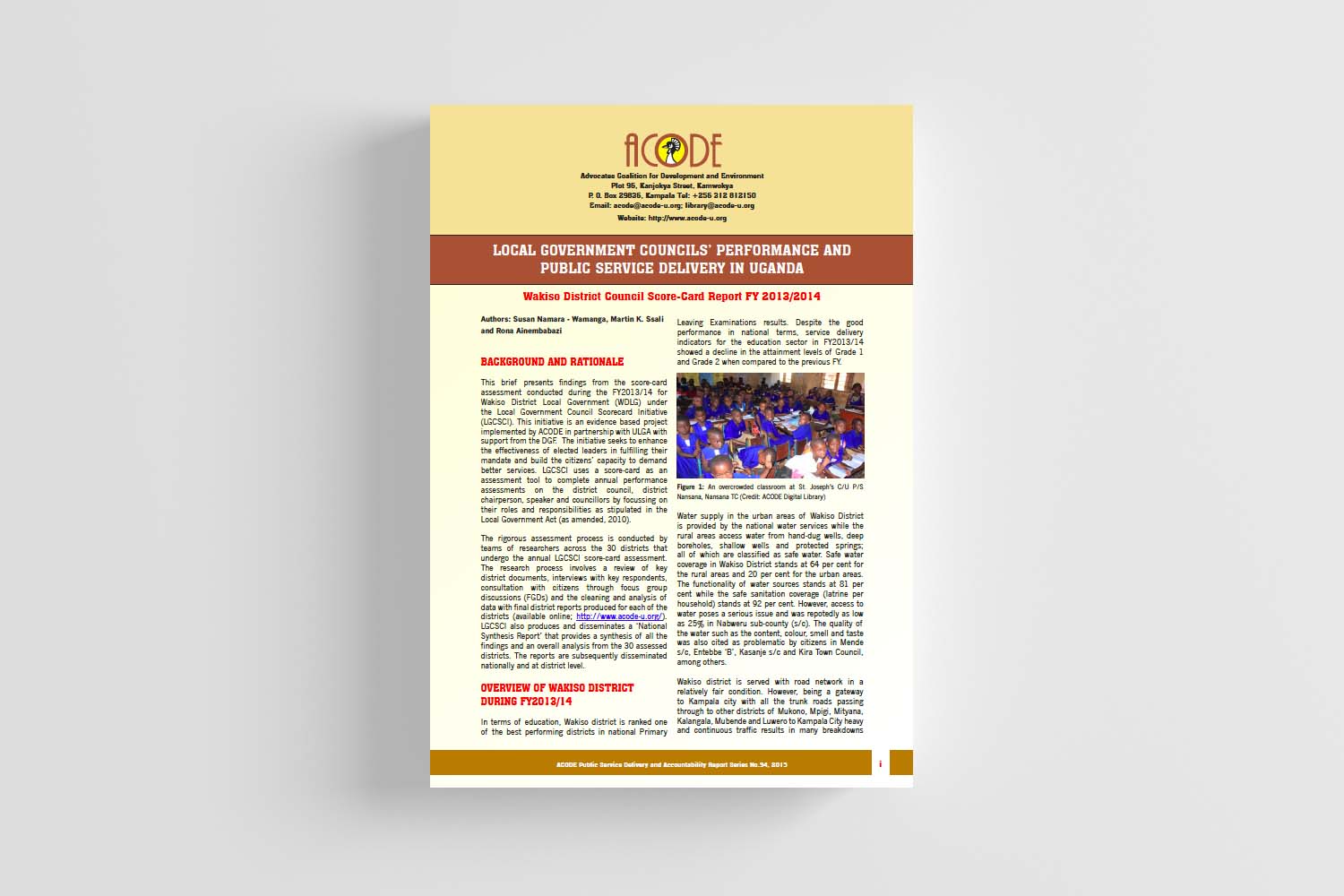
Local Government Councils’ Performance and Public Service Delivery in Uganda: Wakiso District Council Scorecard Report 2013/14
Author(s): Susan Namara - Wamanga, Martin K. Ssali, and Rona Ainembabazi
Published: 2015
This report presents a scorecard assessment of Wakiso District that analysed service delivery vis-à-vis the performance of the political leadership. The report makes a number of recommendations with regard to citizen engagement, funding, and follow-up on part of the councilors which we believe if undertaken will go a long way in improving both the political performance of councilors and the quality of service delivery.
View PDF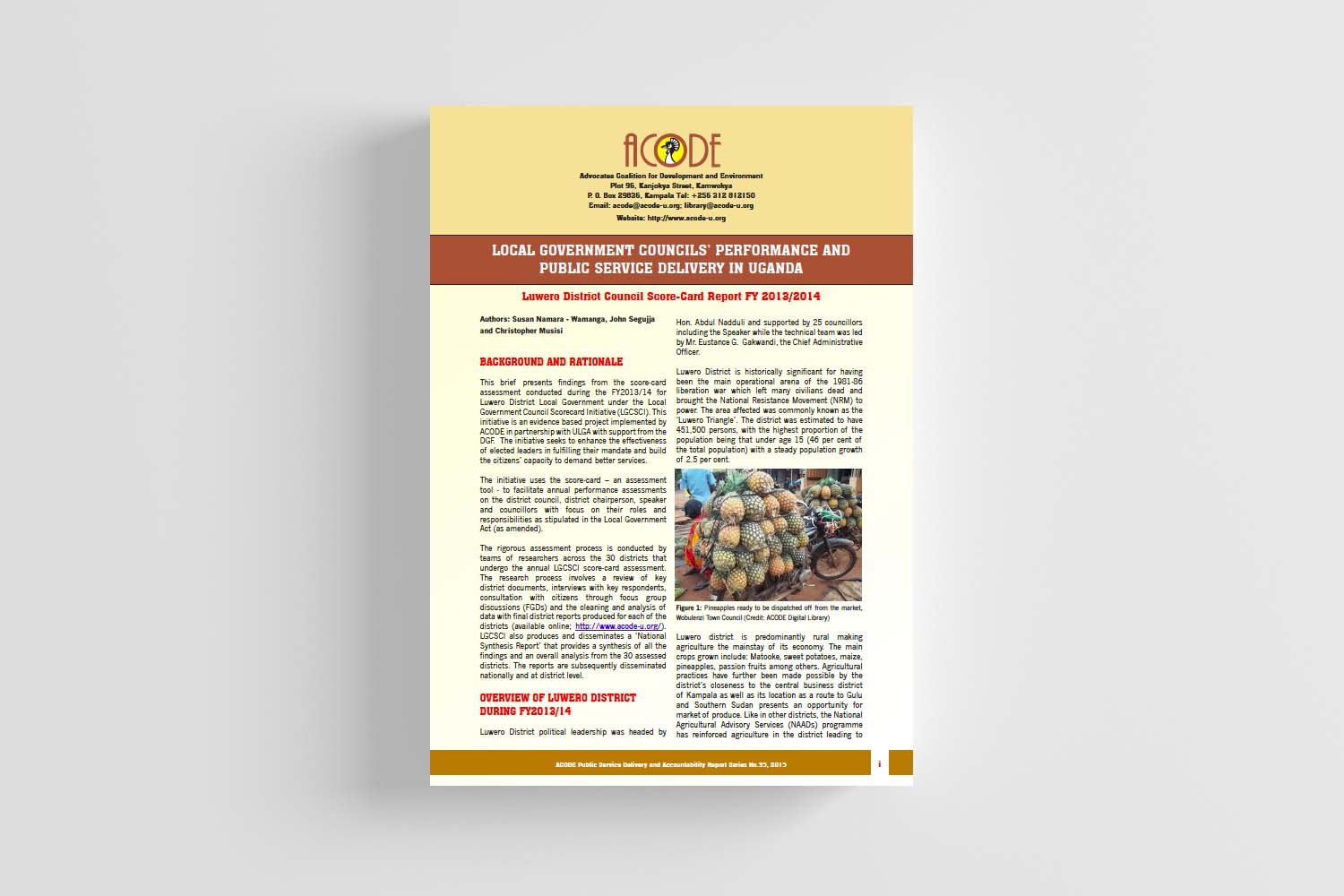
Local Government Councils’ Performance and Public Service Delivery in Uganda: Luwero District Council Scorecard Report 2013/14
Author(s): Susan Namara - Wamanga, John Segujja, and Christopher Musisi
Published: 2015
This report presents a scorecard assessment of Luwero District that analysed service delivery vis-à-vis the performance of the political leadership. The report makes a number of recommendations with regard to citizen engagement, funding, and follow-up on part of the councilors which we believe if undertaken will go a long way in improving both the political performance of councilors and the quality of service delivery.
View PDF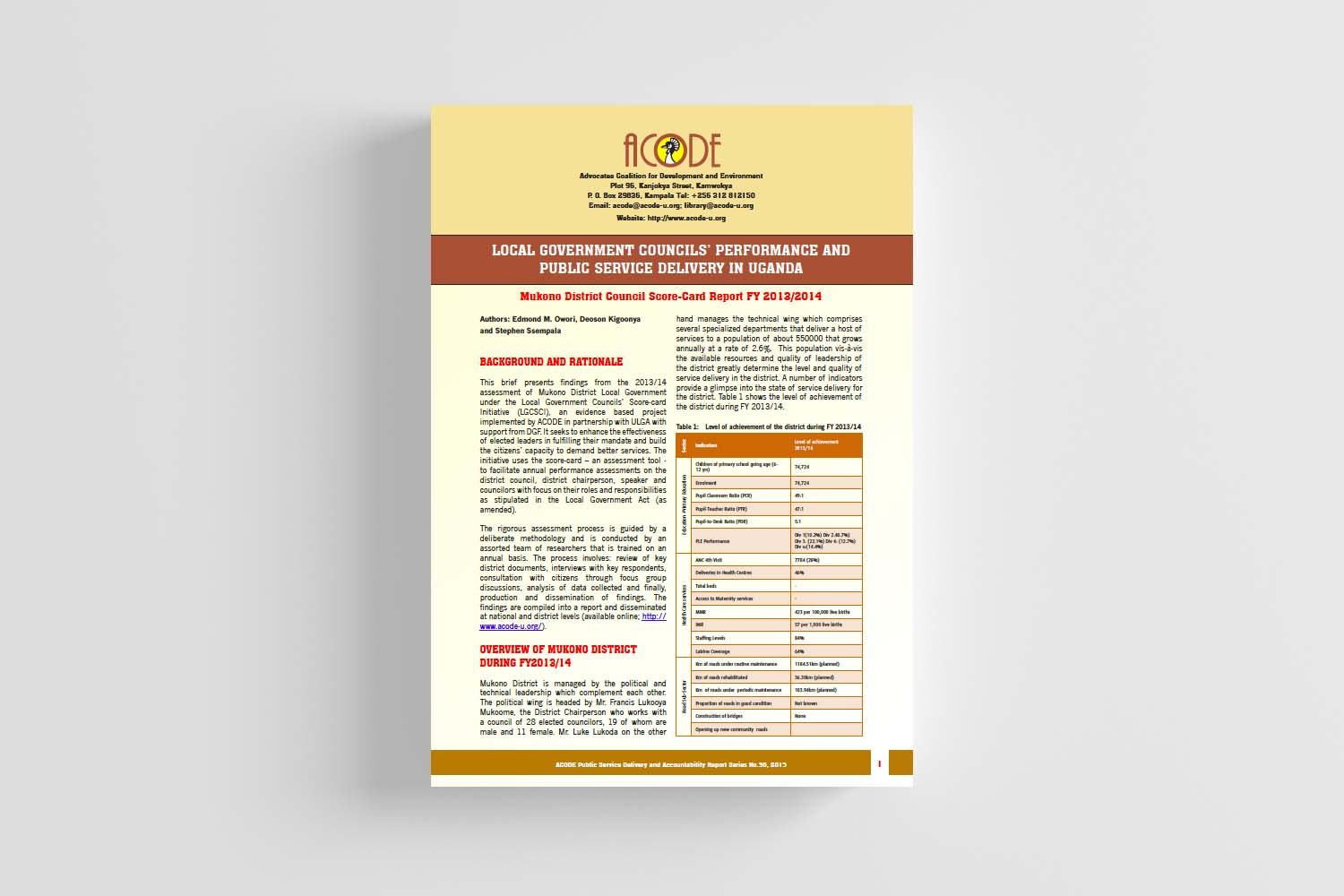
Local Government Councils’ Performance and Public Service Delivery in Uganda: Mukono District Council Scorecard Report 2013/14
Author(s): Edmond M. Owori, Deoson Kigoonya, and Stephen Ssempala
Published: 2015
This report presents a scorecard assessment of Mukono District that analysed service delivery vis-à-vis the performance of the political leadership. The report makes a number of recommendations with regard to citizen engagement, funding, and follow-up on part of the councilors which we believe if undertaken will go a long way in improving both the political performance of councilors and the quality of service delivery.
View PDF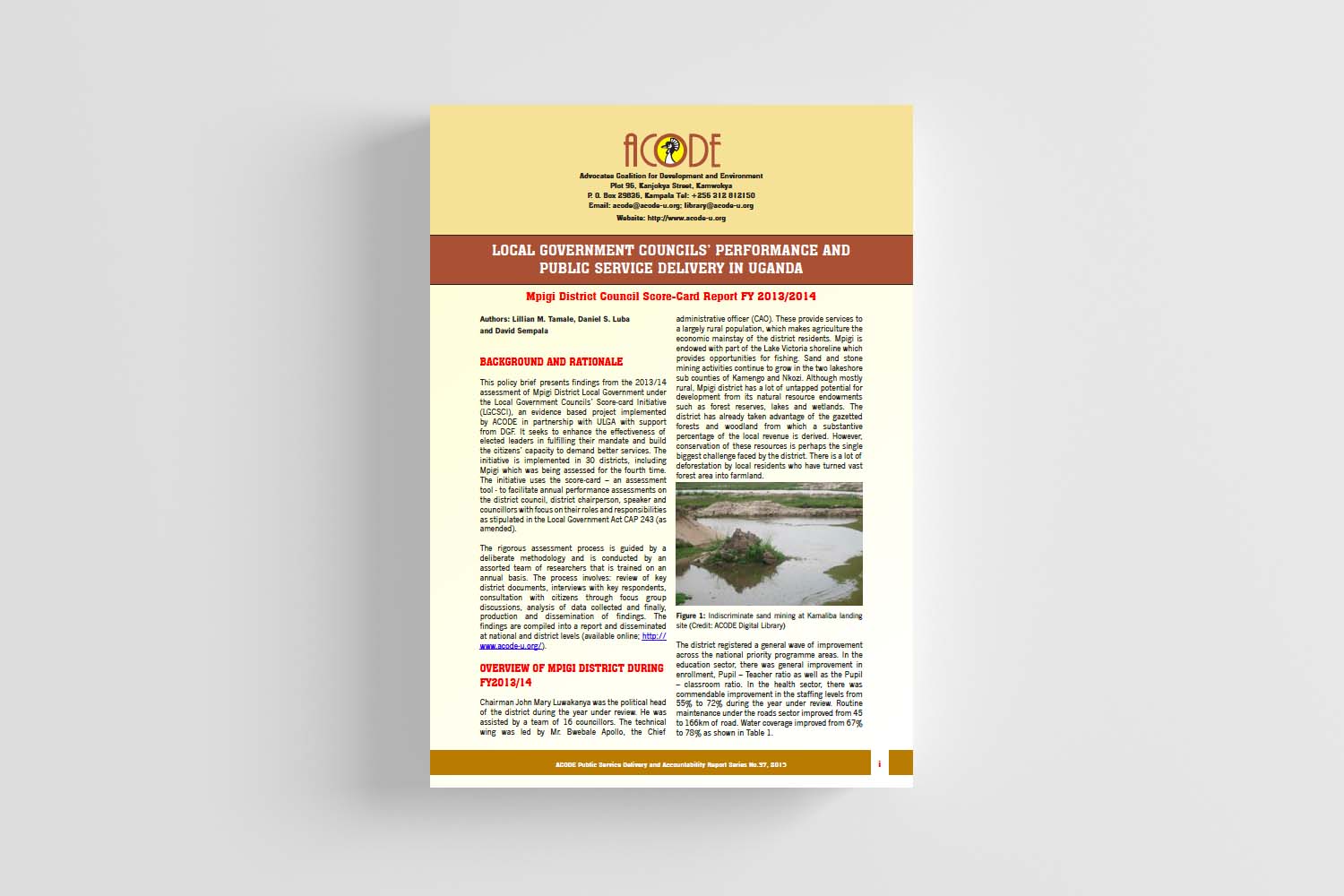
Local Government Councils’ Performance and Public Service Delivery in Uganda: Mpigi District Council Scorecard Report 2013/14
Author(s): Lillian M. Tamale, Daniel S. Luba and David Sempala
Published: 2015
This report presents a scorecard assessment of Mpigi District that analysed service delivery vis-à-vis the performance of the political leadership. The report makes a number of recommendations with regard to citizen engagement, funding, and follow-up on part of the councilors which we believe if undertaken will go a long way in improving both the political performance of councilors and the quality of service delivery.
View PDF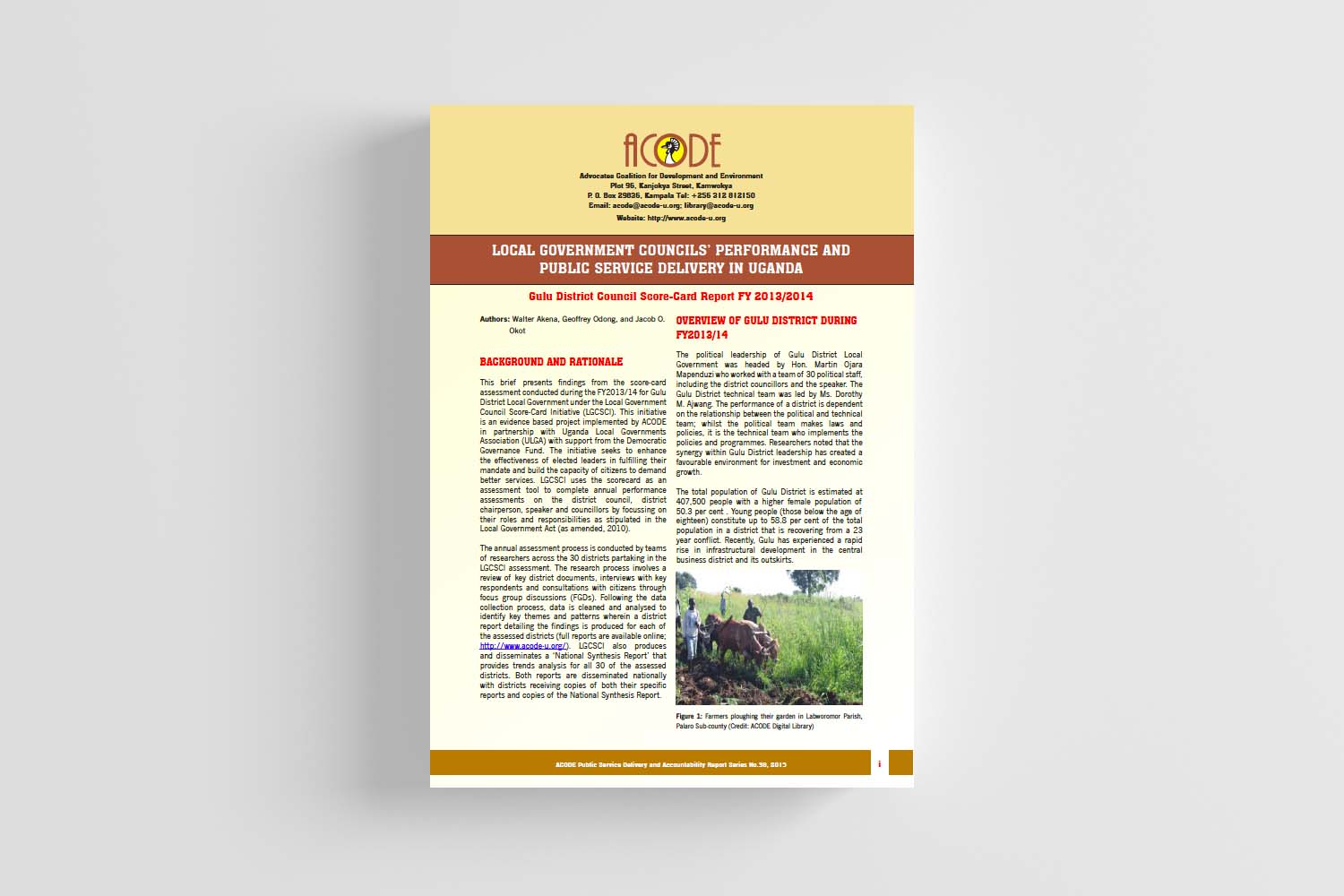
Local Government Councils’ Performance and Public Service Delivery in Uganda: Gulu District Council Scorecard Report 2013/14
Author(s): Walter Akena, Geoffrey Odong, and Jacob O. Okot
Published: 2015
This report presents a scorecard assessment of Gulu District that analysed service delivery vis-à-vis the performance of the political leadership. The report makes a number of recommendations with regard to citizen engagement, funding, and follow-up on part of the councilors which we believe if undertaken will go a long way in improving both the political performance of councilors and the quality of service delivery.
View PDF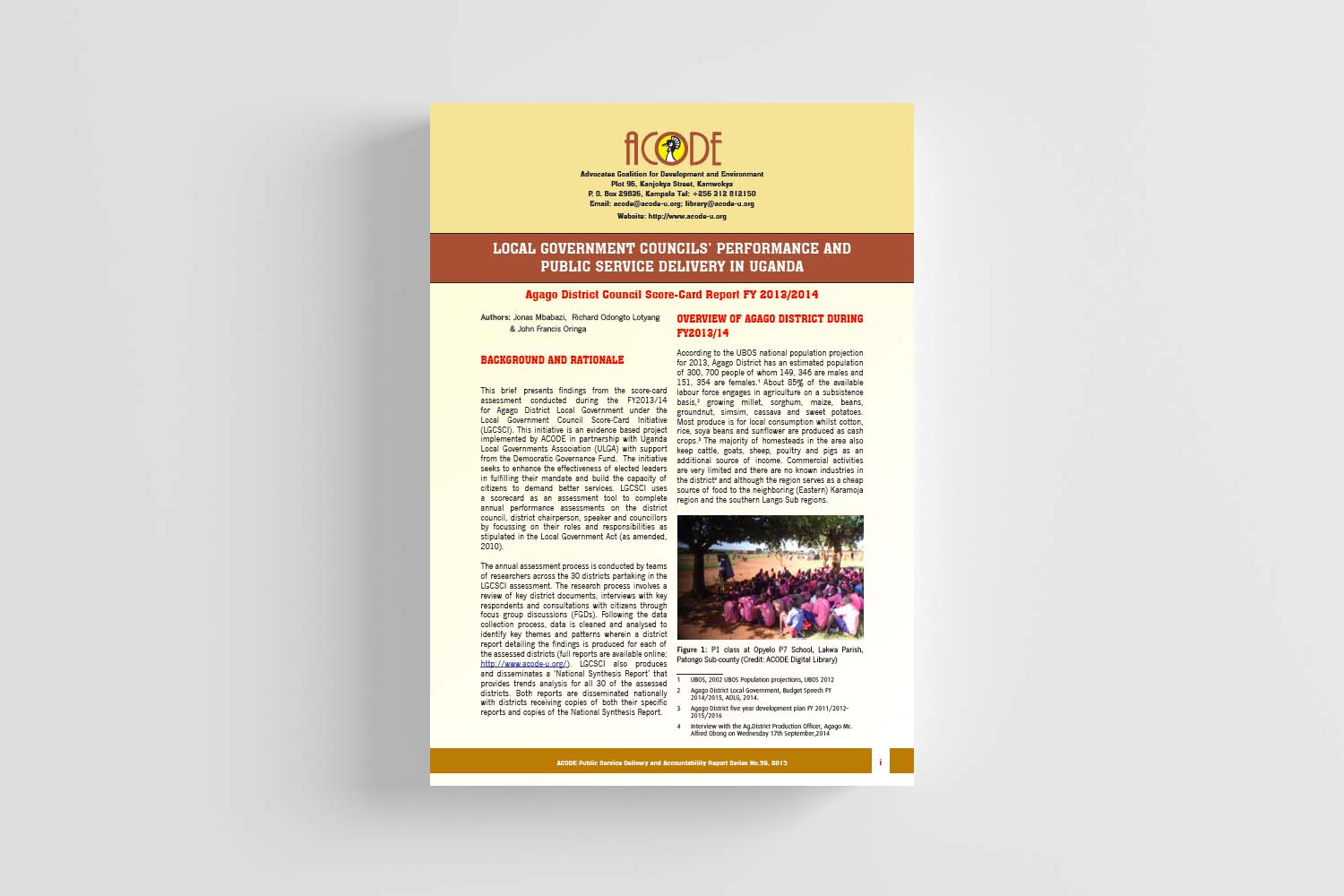
Local Government Councils’ Performance and Public Service Delivery in Uganda: Agago District Council Scorecard Report 2013/14
Author(s): Jonas Mbabazi, Richard Odongto Lotyang, and John Francis Oringa
Published: 2015
This report presents a scorecard assessment of Agago District that analysed service delivery vis-à-vis the performance of the political leadership. The report makes a number of recommendations with regard to citizen engagement, funding, and follow-up on part of the councilors which we believe if undertaken will go a long way in improving both the political performance of councilors and the quality of service delivery.
View PDF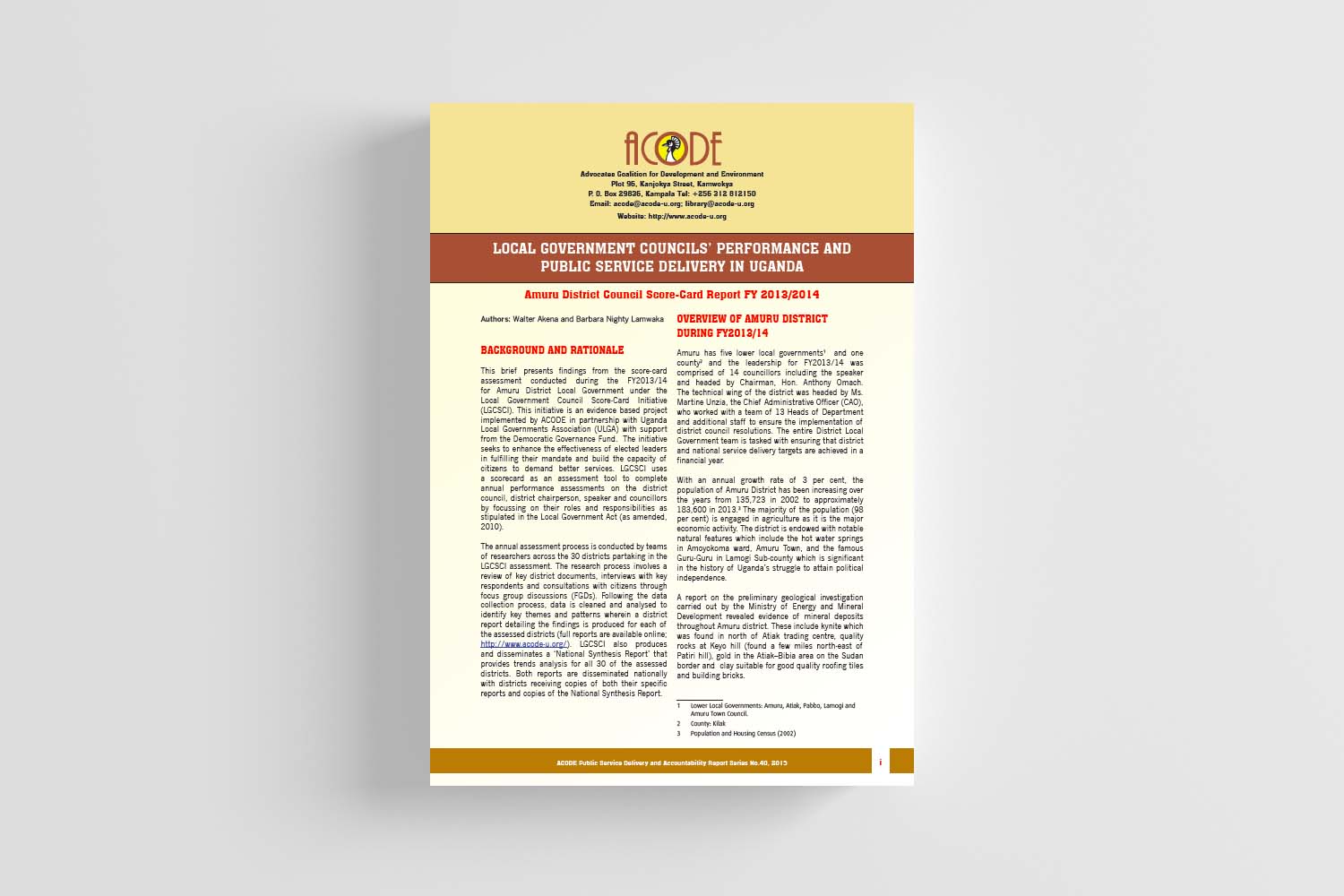
Local Government Councils’ Performance and Public Service Delivery in Uganda: Amuru District Council Scorecard Report 2013/14
Author(s): Walter Akena and Barbara Nighty Lamwaka
Published: 2015
This report presents a scorecard assessment of amuru District that analysed service delivery vis-à-vis the performance of the political leadership. The report makes a number of recommendations with regard to citizen engagement, funding, and follow-up on part of the councilors which we believe if undertaken will go a long way in improving both the political performance of councilors and the quality of service delivery.
View PDF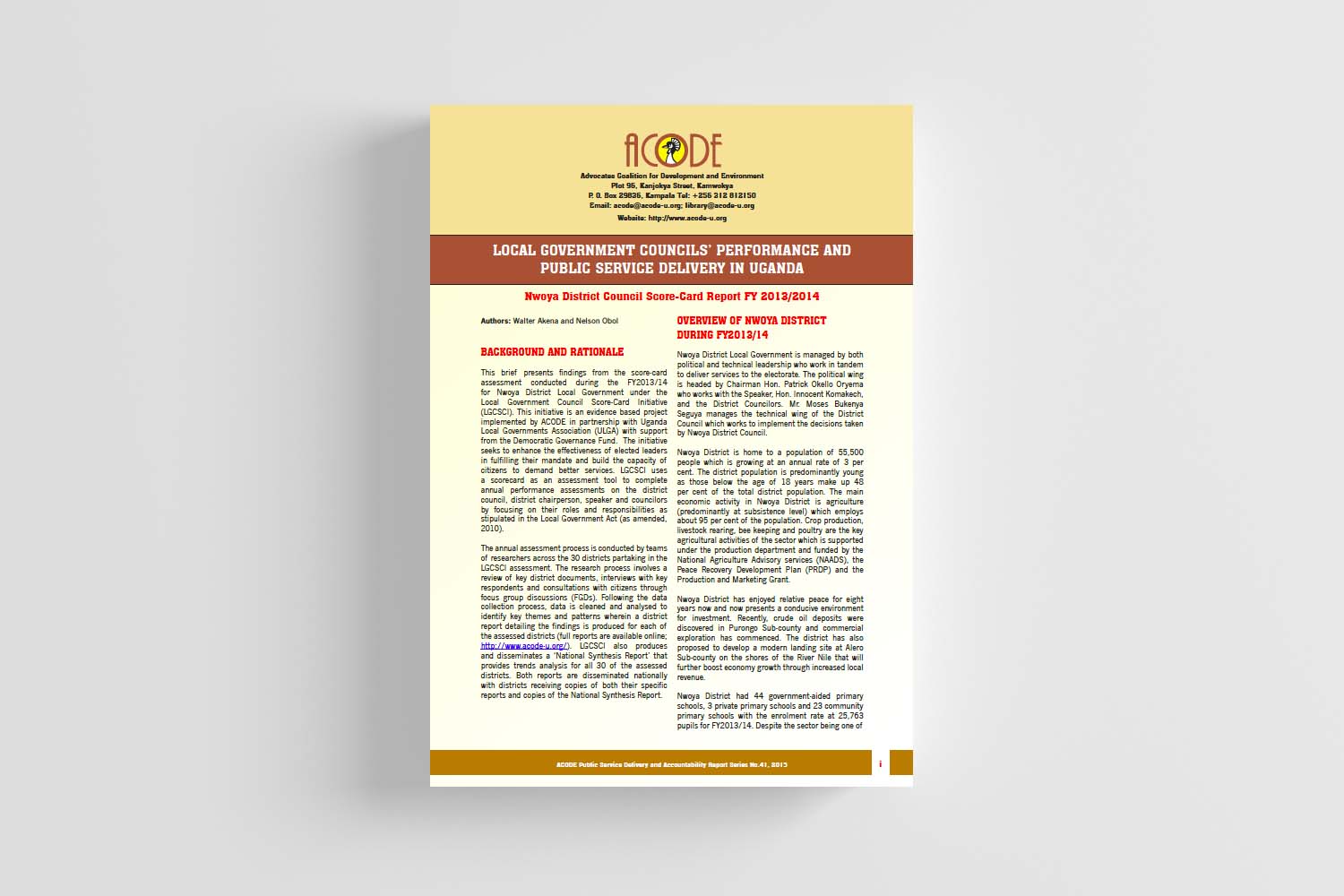
Local Government Councils’ Performance and Public Service Delivery in Uganda: Nwoya District Council Scorecard Report 2013/14
Author(s): Walter Akena and Nelson Obol
Published: 2015
This report presents a scorecard assessment of Nwoya District that analysed service delivery vis-à-vis the performance of the political leadership. The report makes a number of recommendations with regard to citizen engagement, funding, and follow-up on part of the councilors which we believe if undertaken will go a long way in improving both the political performance of councilors and the quality of service delivery.
View PDF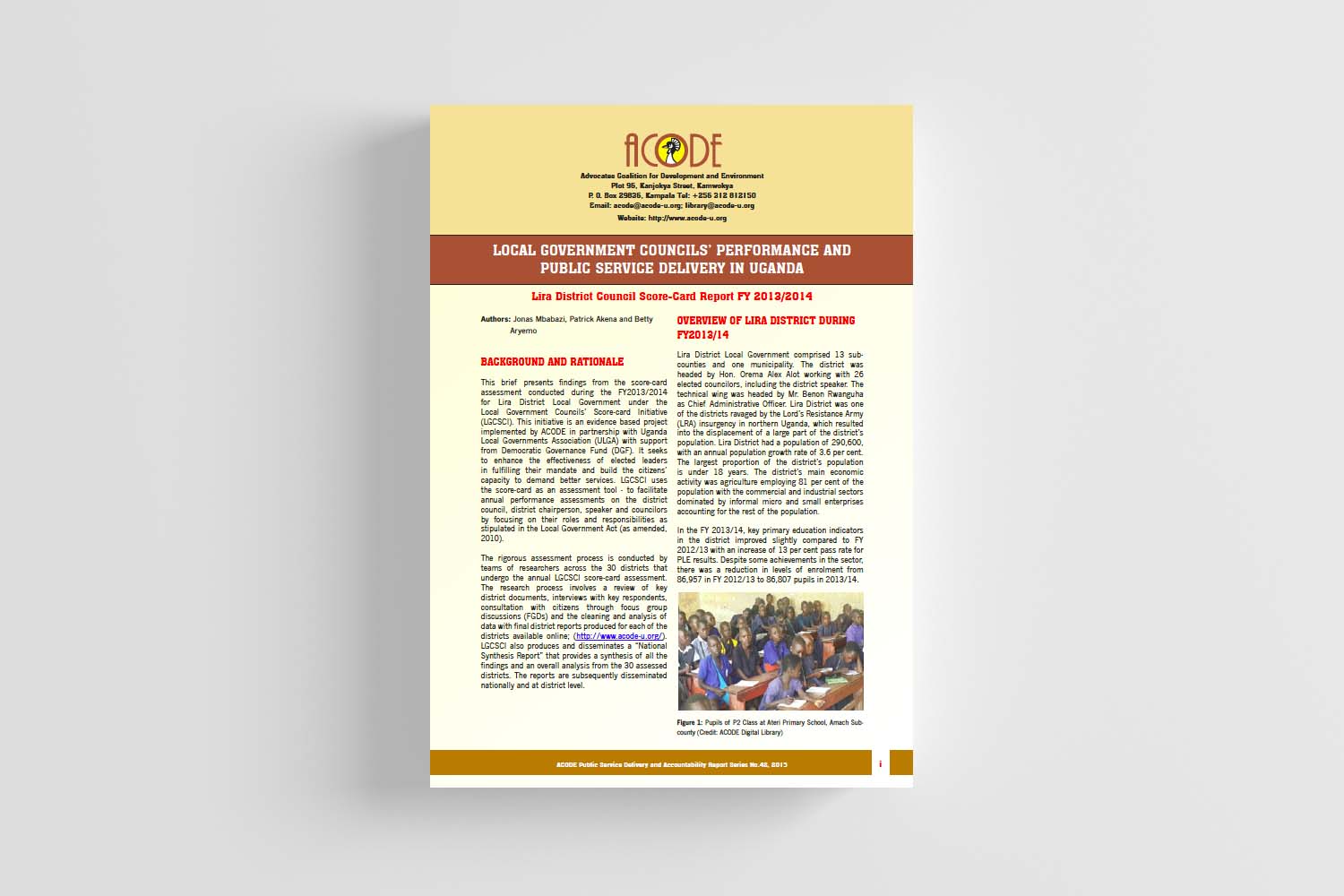
Local Government Councils’ Performance and Public Service Delivery in Uganda: Lira District Council Scorecard Report 2013/14
Author(s): Jonas Mbabazi, Patrick Akena, and Betty Aryemo
Published: 2015
This report presents a scorecard assessment of Lira District that analysed service delivery vis-à-vis the performance of the political leadership. The report makes a number of recommendations with regard to citizen engagement, funding, and follow-up on part of the councilors which we believe if undertaken will go a long way in improving both the political performance of councilors and the quality of service delivery.
View PDF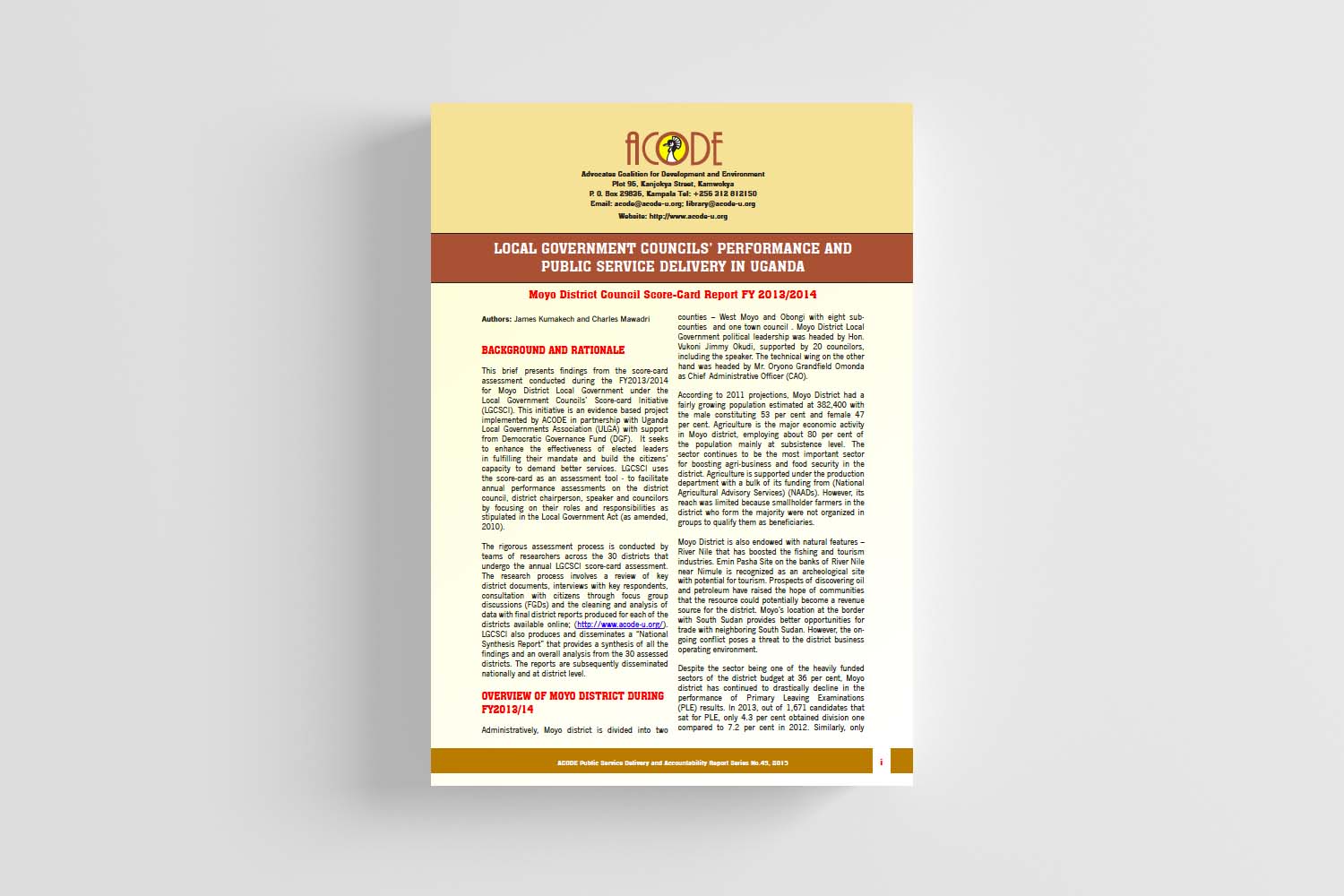
Local Government Councils’ Performance and Public Service Delivery in Uganda: Moyo District Council Scorecard Report 2013/14
Author(s): James Kumakech and Charles Mawadri
Published: 2015
This report presents a scorecard assessment of Moyo District that analysed service delivery vis-à-vis the performance of the political leadership. The report makes a number of recommendations with regard to citizen engagement, funding, and follow-up on part of the councilors which we believe if undertaken will go a long way in improving both the political performance of councilors and the quality of service delivery.
View PDF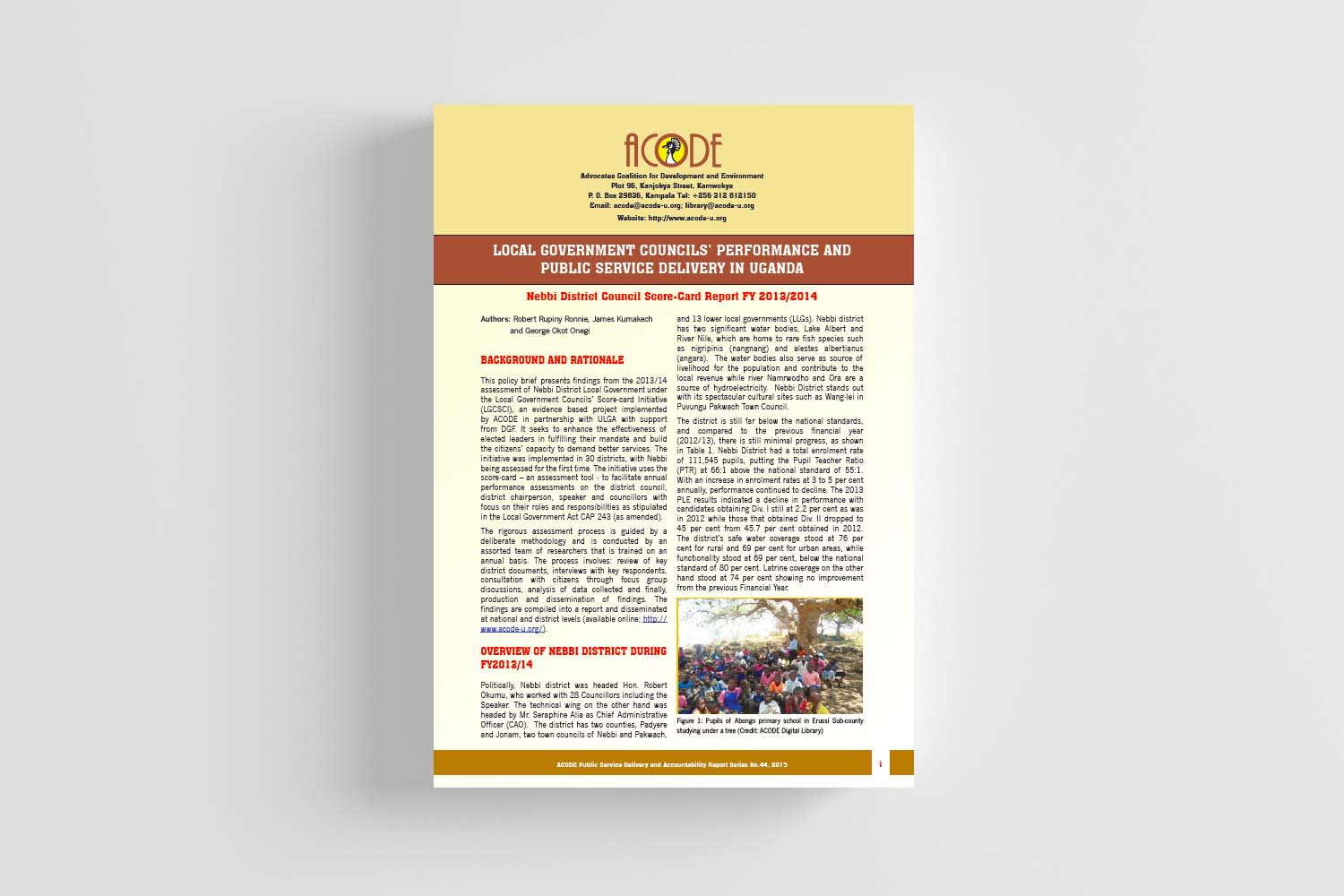
Local Government Councils’ Performance and Public Service Delivery in Uganda: Nebbi District Council Scorecard Report 2013/14
Author(s): Robert Rupiny Ronnie, James Kumakech, and George Okot Onegi
Published: 2015
This report presents a scorecard assessment of Nebbi District that analysed service delivery vis-à-vis the performance of the political leadership. The report makes a number of recommendations with regard to citizen engagement, funding, and follow-up on part of the councilors which we believe if undertaken will go a long way in improving both the political performance of councilors and the quality of service delivery.
View PDF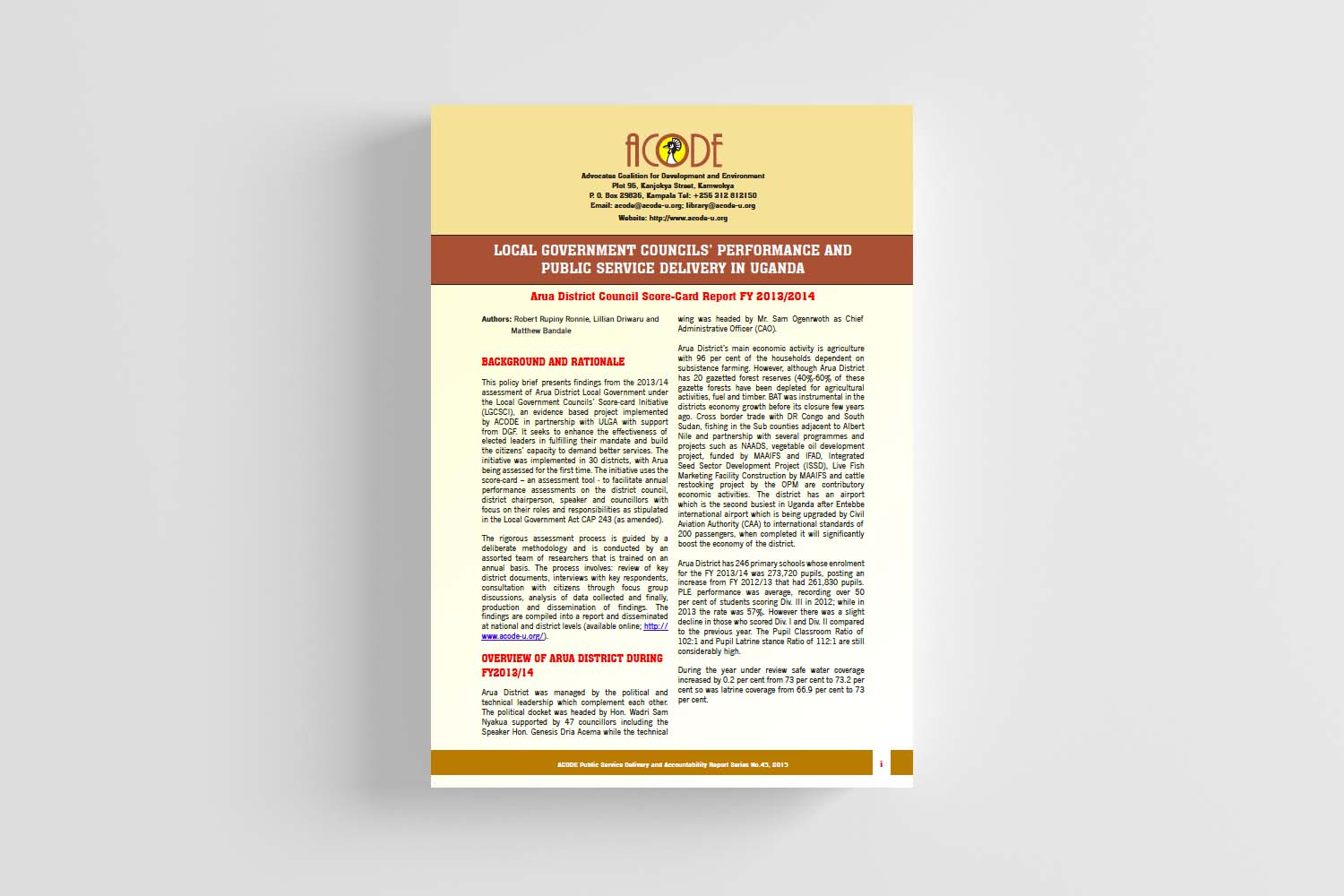
Local Government Councils’ Performance and Public Service Delivery in Uganda:Arua District Council Scorecard Report 2013/14
Author(s): Robert Rupiny Ronnie, Lillian Driwaru, and Matthew Bandale
Published: 2015
This report presents a scorecard assessment of Arua District that analysed service delivery vis-à-vis the performance of the political leadership. The report makes a number of recommendations with regard to citizen engagement, funding, and follow-up on part of the councilors which we believe if undertaken will go a long way in improving both the political performance of councilors and the quality of service delivery.
View PDF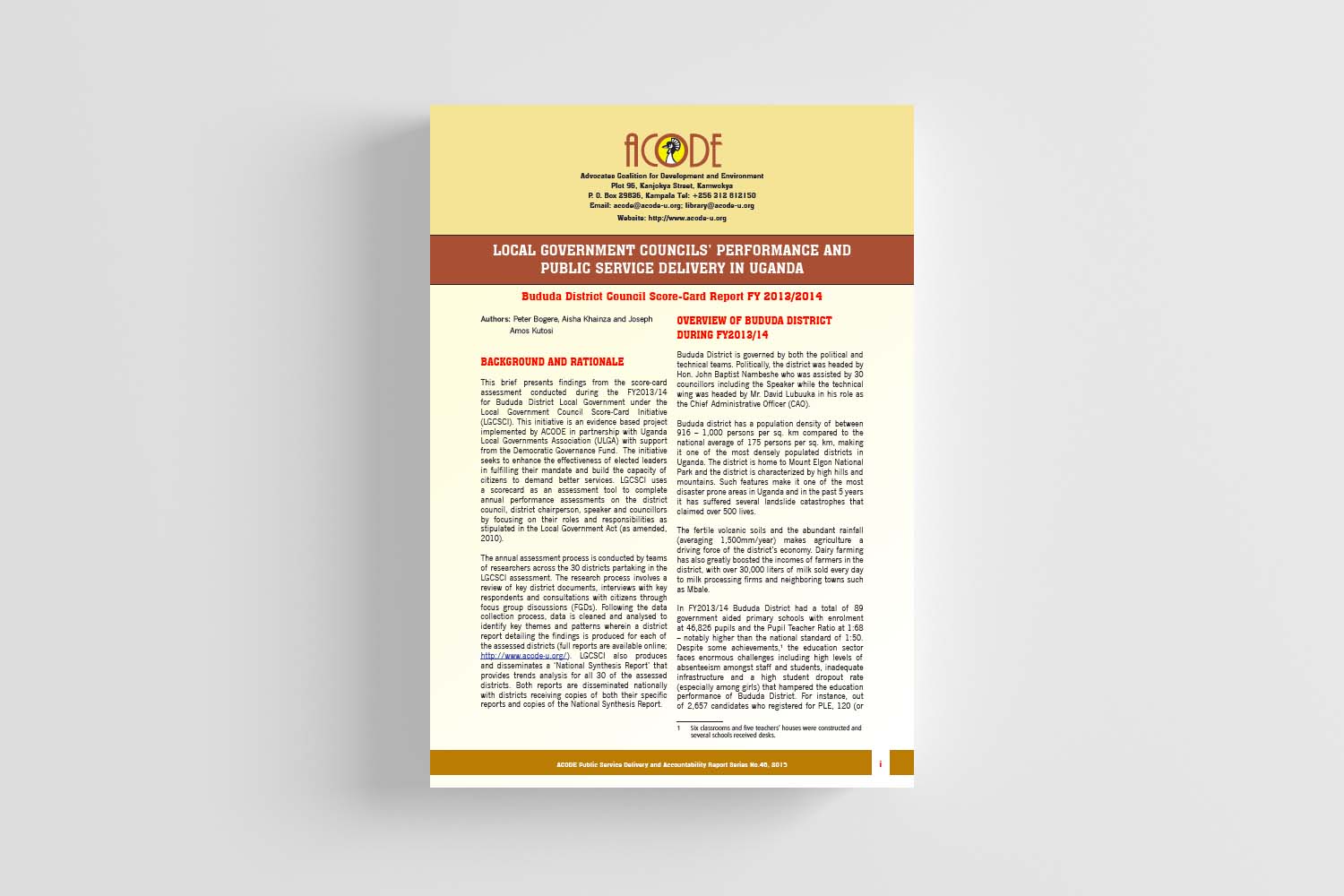
Local Government Councils’ Performance and Public Service Delivery in Uganda: Bududa District Council Scorecard Report 2013/14
Author(s): Peter Bogere, Aisha Khainza, and Joseph Amos Kutosi
Published: 2015
This report presents a scorecard assessment of Bududa District that analysed service delivery vis-à-vis the performance of the political leadership. The report makes a number of recommendations with regard to citizen engagement, funding, and follow-up on part of the councilors which we believe if undertaken will go a long way in improving both the political performance of councilors and the quality of service delivery.
View PDF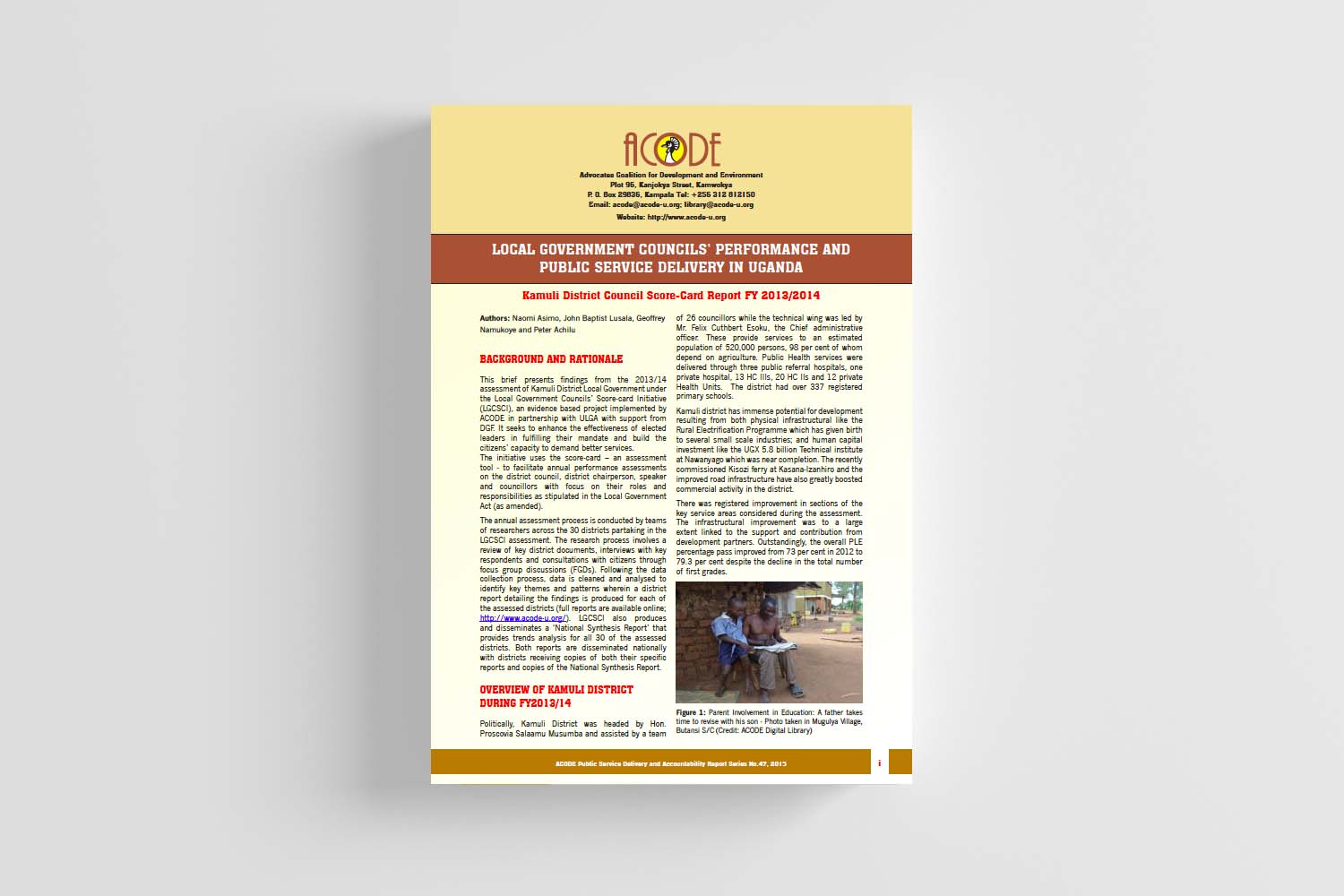
Local Government Councils’ Performance and Public Service Delivery in Uganda: Kamuli District Council Scorecard Report 2013/14
Author(s): Naomi Asimo, John Baptist Lusala, Geoffrey Namukoye, and Peter Achilu
Published: 2015
This report presents a scorecard assessment of Kamuli District that analysed service delivery vis-à-vis the performance of the political leadership. The report makes a number of recommendations with regard to citizen engagement, funding, and follow-up on part of the councilors which we believe if undertaken will go a long way in improving both the political performance of councilors and the quality of service delivery.
View PDF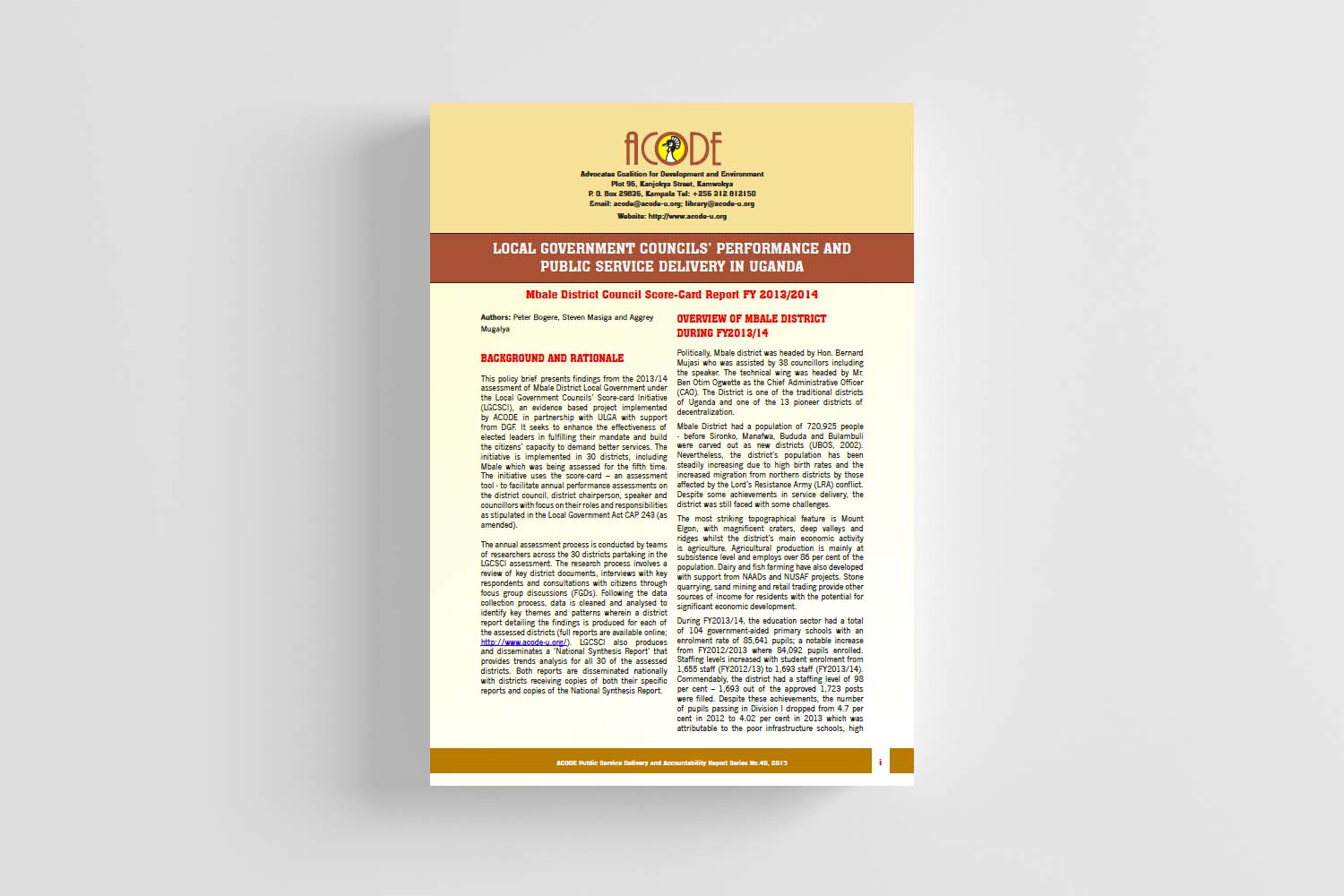
Local Government Councils’ Performance and Public Service Delivery in Uganda: Mbale District Council Scorecard Report 2013/14
Author(s): Peter Bogere, Steven Masiga, and Aggrey Mugalya
Published: 2015
This report presents a scorecard assessment of Mbale District that analysed service delivery vis-à-vis the performance of the political leadership. The report makes a number of recommendations with regard to citizen engagement, funding, and follow-up on part of the councilors which we believe if undertaken will go a long way in improving both the political performance of councilors and the quality of service delivery.
View PDF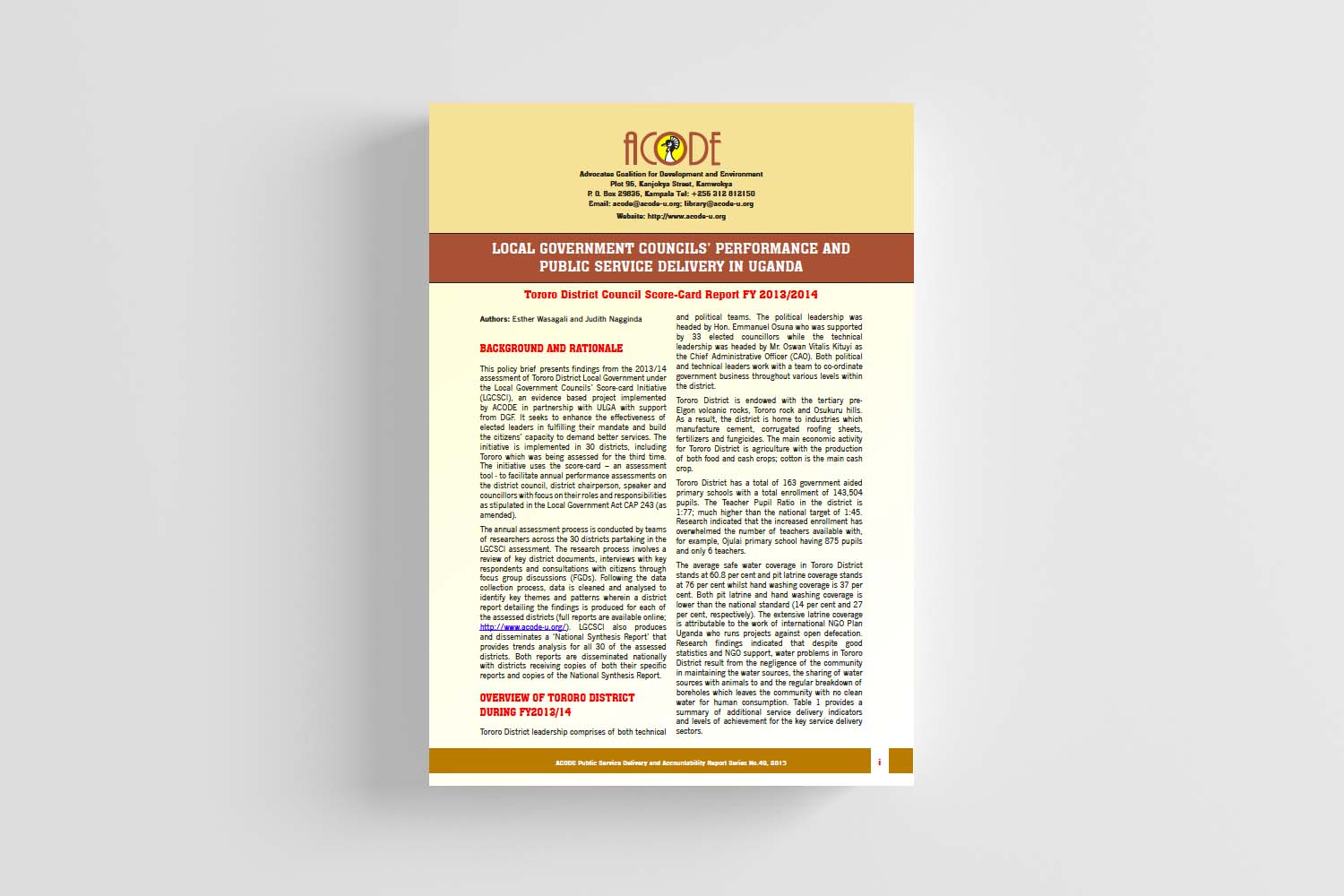
Local Government Councils’ Performance and Public Service Delivery in Uganda: Torero District Council Scorecard Report 2013/14
Author(s): Esther Wasagali and Judith Nagginda
Published: 2015
This report presents a scorecard assessment of Tororo District that analysed service delivery vis-à-vis the performance of the political leadership. The report makes a number of recommendations with regard to citizen engagement, funding, and follow-up on part of the councilors which we believe if undertaken will go a long way in improving both the political performance of councilors and the quality of service delivery.
View PDF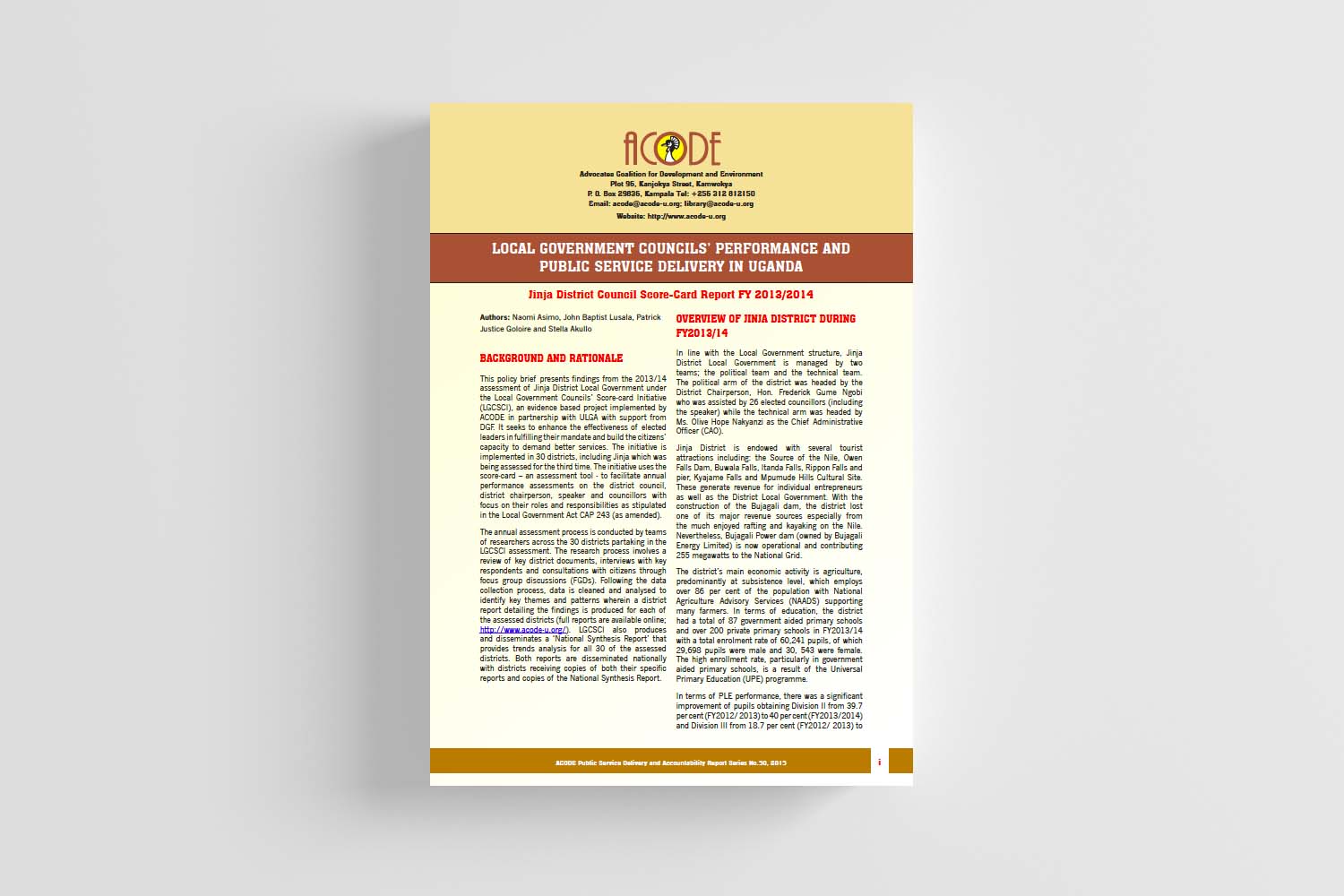
Local Government Councils’ Performance and Public Service Delivery in Uganda: Jinja District Council Scorecard Report 2013/14
Author(s): Naomi Asimo, John Baptist Lusala, Patrick Justice Goloire, and Stella Akullo
Published: 2015
This report presents a scorecard assessment of Jinja District that analysed service delivery vis-à-vis the performance of the political leadership. The report makes a number of recommendations with regard to citizen engagement, funding, and follow-up on part of the councilors which we believe if undertaken will go a long way in improving both the political performance of councilors and the quality of service delivery.
View PDF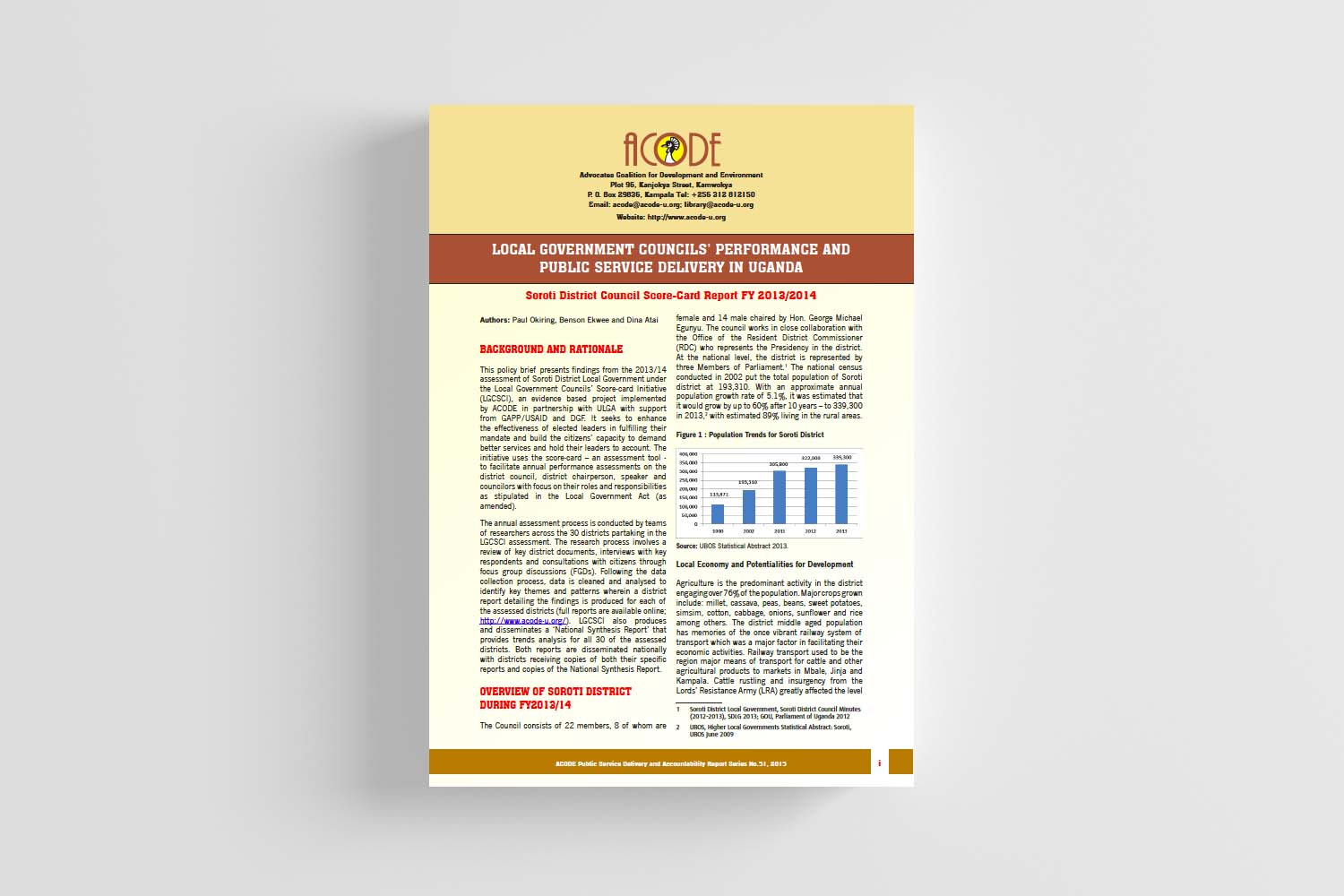
Local Government Councils’ Performance and Public Service Delivery in Uganda: Soroti District Council Scorecard Report 2013/14
Author(s): Paul Okiring, Benson Ekwee, and Dina Atai
Published: 2015
This report presents a scorecard assessment of Soroti District that analysed service delivery vis-à-vis the performance of the political leadership. The report makes a number of recommendations with regard to citizen engagement, funding, and follow-up on part of the councilors which we believe if undertaken will go a long way in improving both the political performance of councilors and the quality of service delivery.
View PDF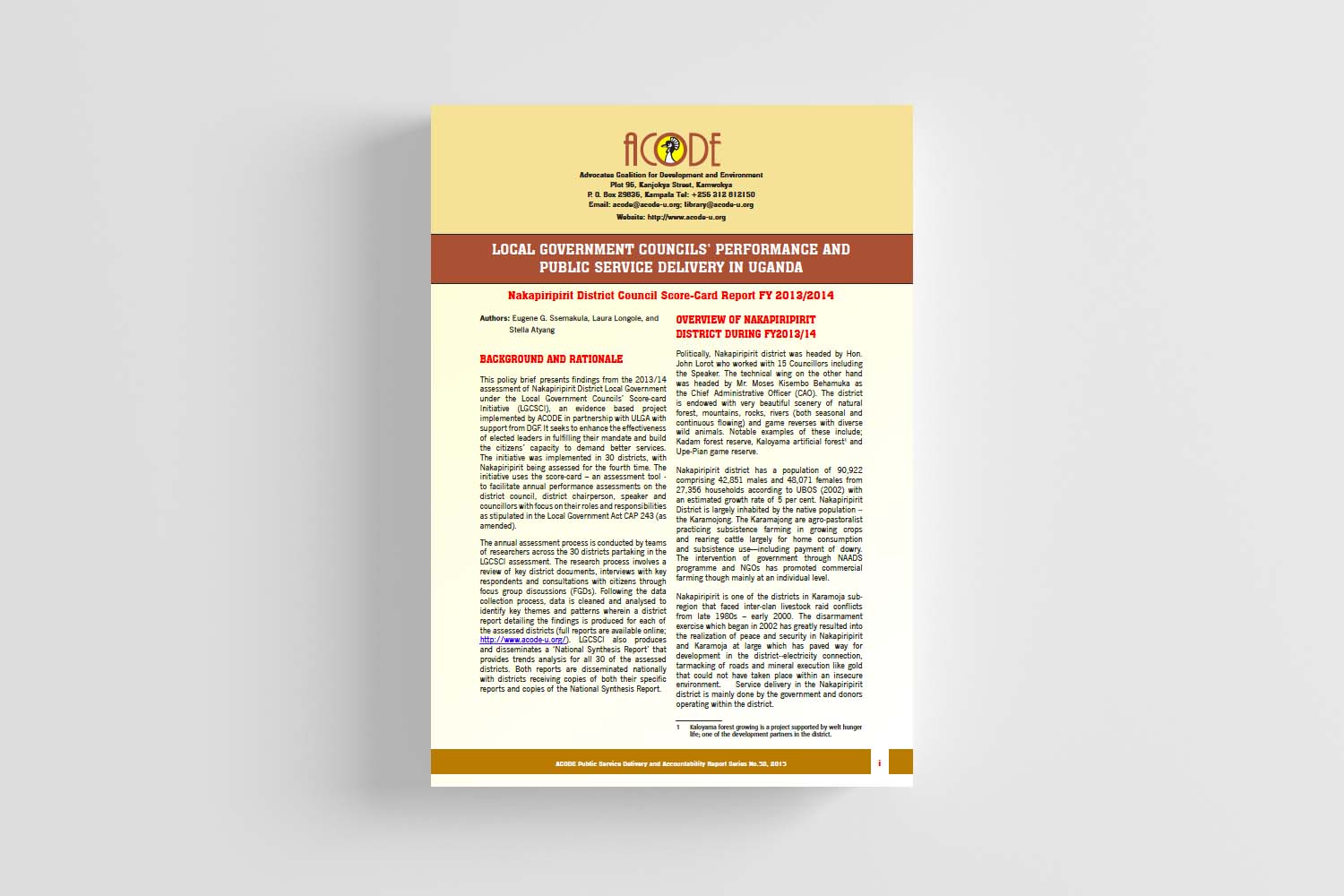
Local Government Councils’ Performance and Public Service Delivery in Uganda: Nakapiripirit District Council Scorecard Report 2013/14
Author(s): Eugene G. Ssemakula, Laura Longole, and Stella Atyang
Published: 2015
This report presents a scorecard assessment of Nakapiripirit District that analysed service delivery vis-à-vis the performance of the political leadership. The report makes a number of recommendations with regard to citizen engagement, funding, and follow-up on part of the councilors which we believe if undertaken will go a long way in improving both the political performance of councilors and the quality of service delivery.
View PDF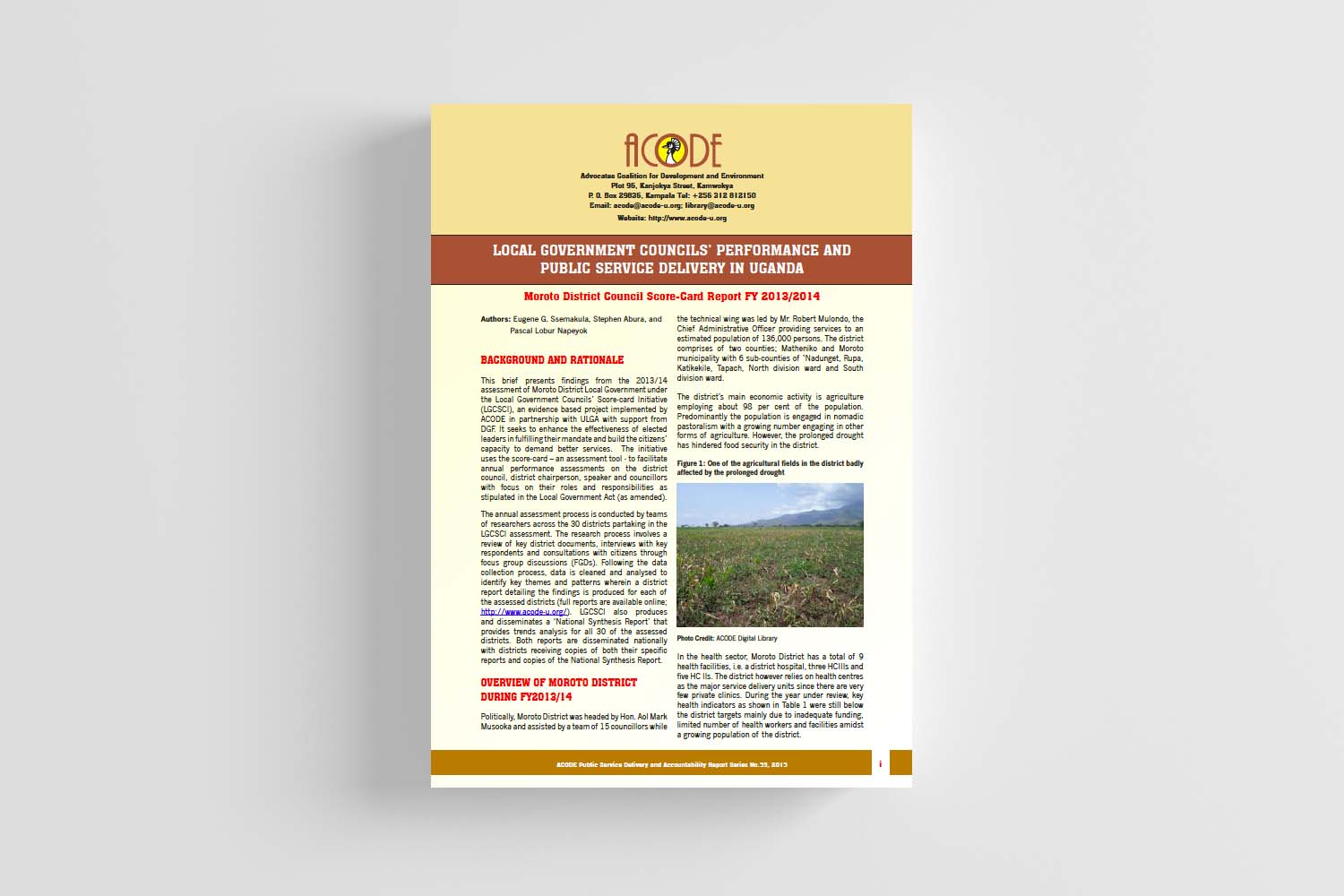
Local Government Councils’ Performance and Public Service Delivery in Uganda: Moroto District Council Scorecard Report 2013/14
Author(s): Eugene G. Ssemakula, Stephen Abura, and Pascal Lobur Napeyok
Published: 2015
This report presents a scorecard assessment of Moroto District that analysed service delivery vis-à-vis the performance of the political leadership. The report makes a number of recommendations with regard to citizen engagement, funding, and follow-up on part of the councilors which we believe if undertaken will go a long way in improving both the political performance of councilors and the quality of service delivery.
View PDF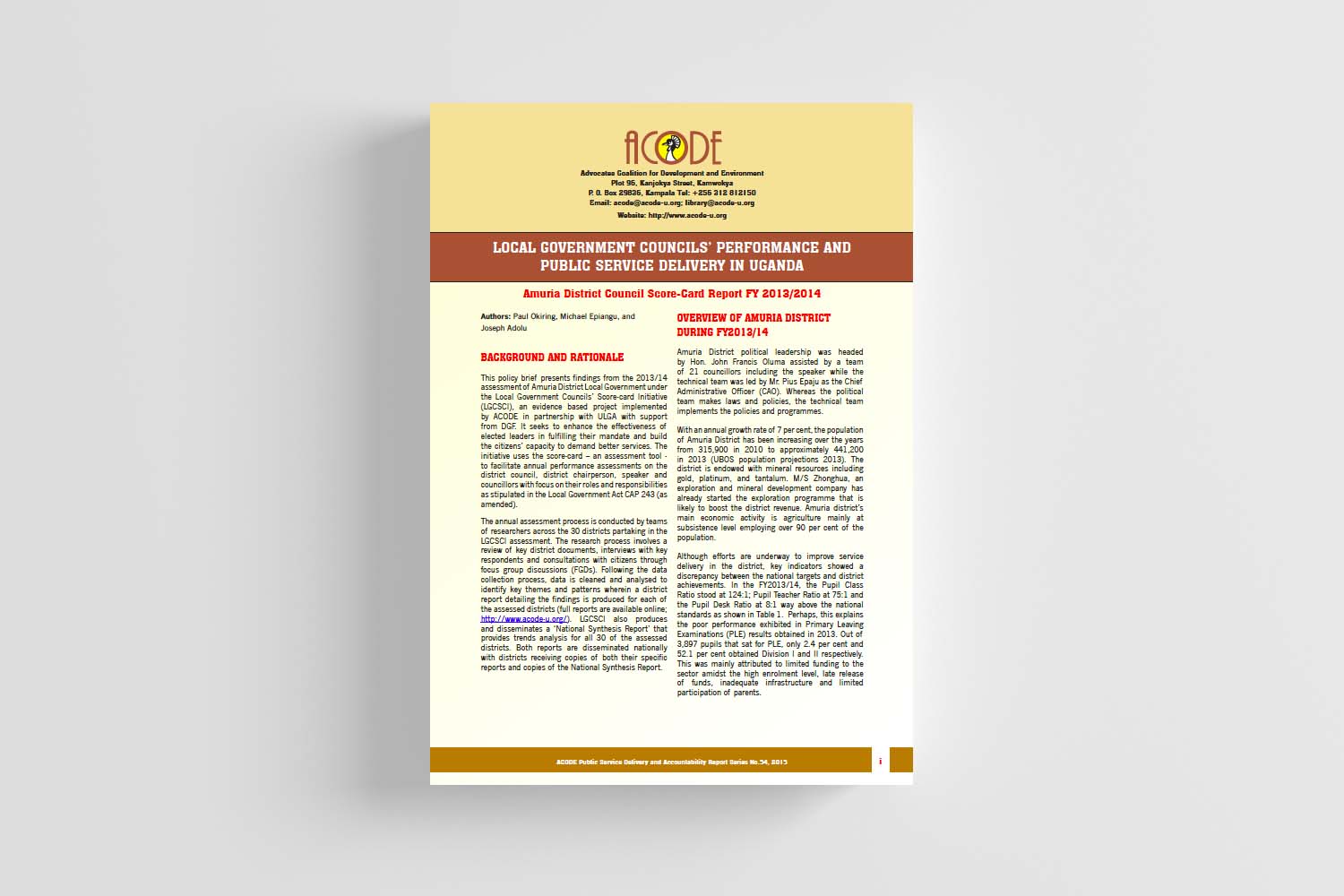
Local Government Councils’ Performance and Public Service Delivery in Uganda:Amuria District Council Scorecard Report 2013/14
Author(s): Paul Okiring, Michael Epiangu, and Joseph Adolu
Published: 2015
This report presents a scorecard assessment of Amuria District that analysed service delivery vis-à-vis the performance of the political leadership. The report makes a number of recommendations with regard to citizen engagement, funding, and follow-up on part of the councilors which we believe if undertaken will go a long way in improving both the political performance of councilors and the quality of service delivery.
View PDF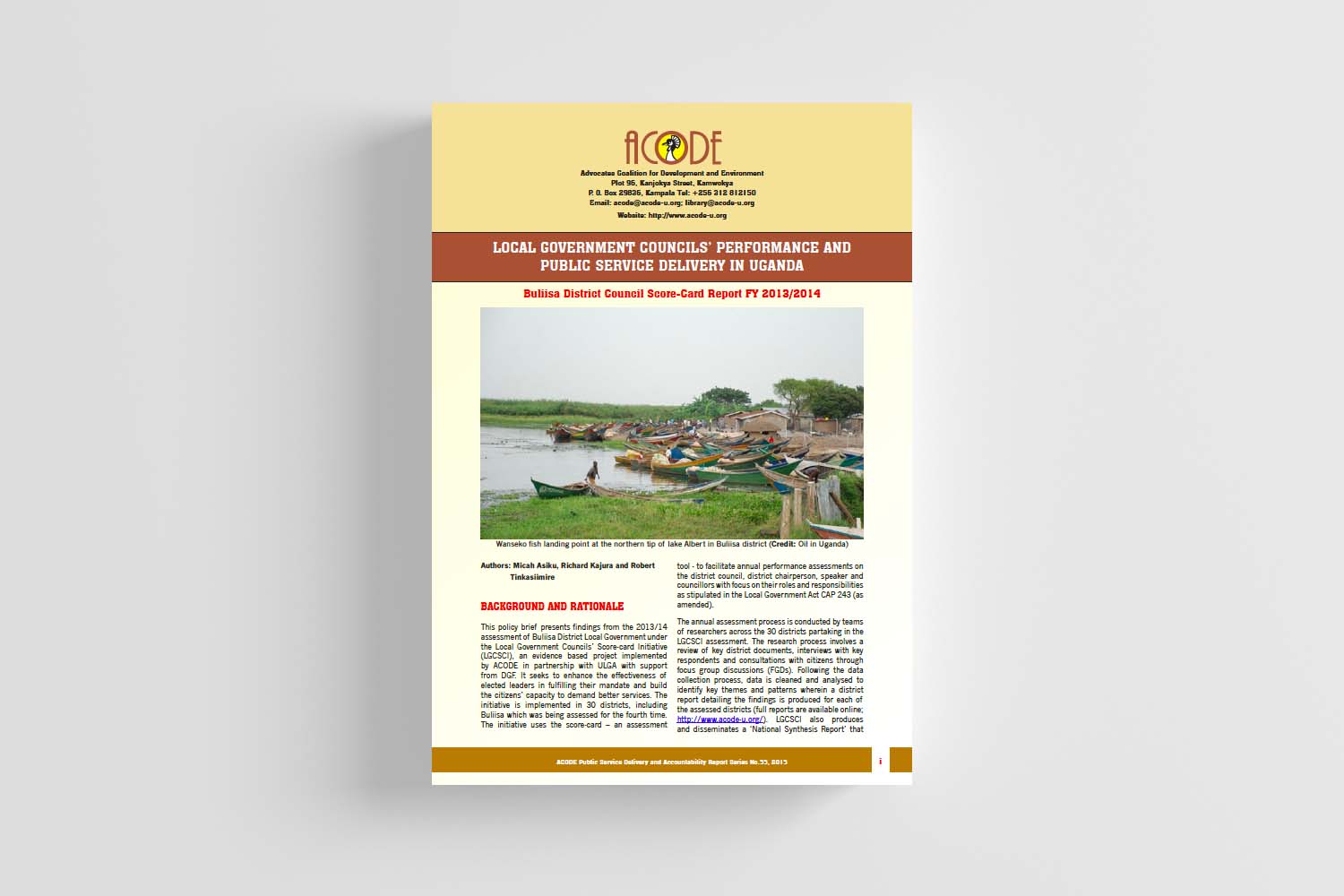
Local Government Councils’ Performance and Public Service Delivery in Uganda: Buliisa District Council Scorecard Report 2013/14
Author(s): Micah Asiku, Richard Kajura, and Robert Tinkasiimire
Published: 2015
This report presents a scorecard assessment of Buliisa District that analysed service delivery vis-à-vis the performance of the political leadership. The report makes a number of recommendations with regard to citizen engagement, funding, and follow-up on part of the councilors which we believe if undertaken will go a long way in improving both the political performance of councilors and the quality of service delivery.
View PDF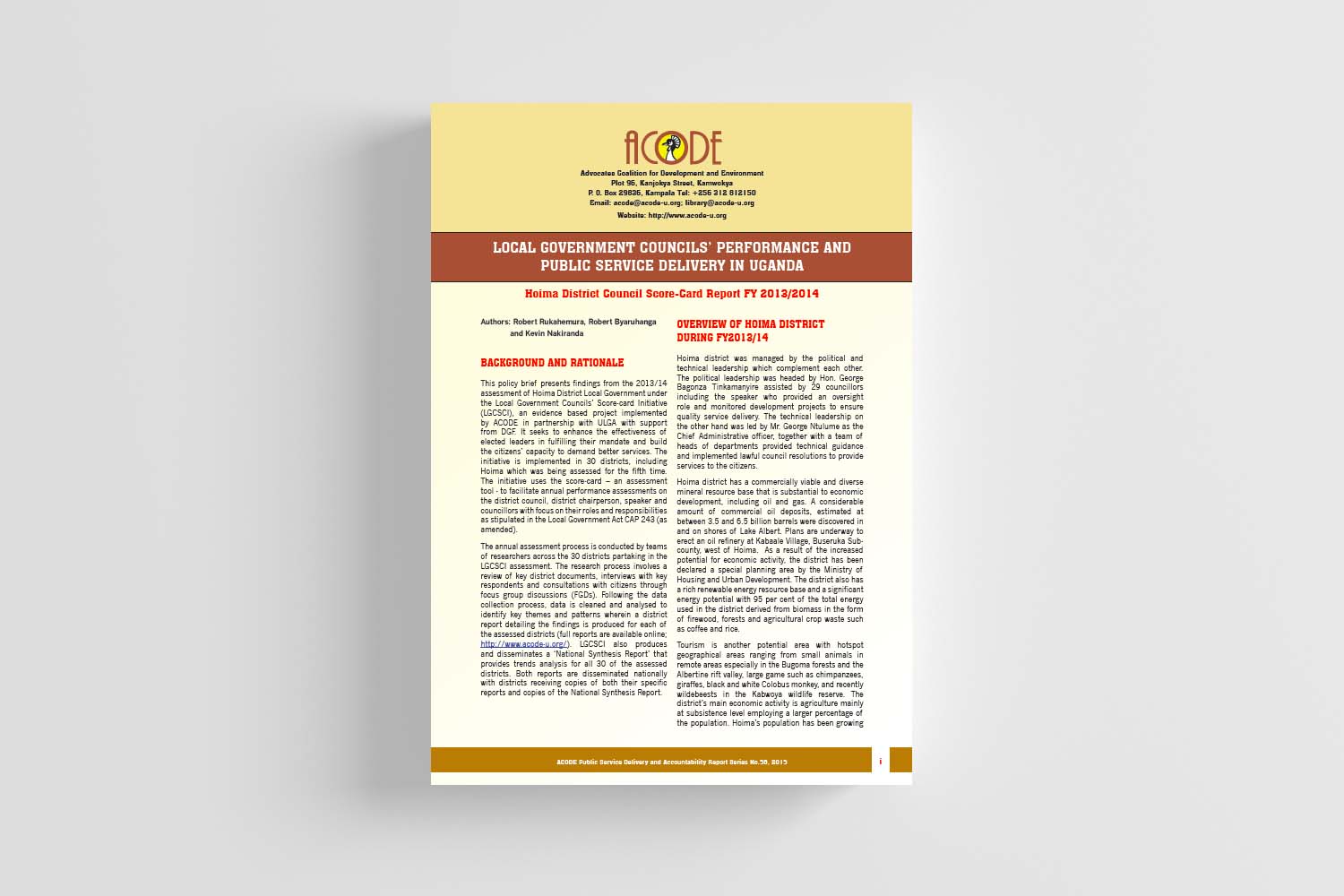
Local Government Councils’ Performance and Public Service Delivery in Uganda: Hoima District Council Scorecard Report 2013/14
Author(s): Robert Rukahemura, Robert Byaruhanga and Kevin Nakiranda
Published: 2015
This report presents a scorecard assessment of Hoima District that analysed service delivery vis-à-vis the performance of the political leadership. The report makes a number of recommendations with regard to citizen engagement, funding, and follow-up on part of the councilors which we believe if undertaken will go a long way in improving both the political performance of councilors and the quality of service delivery.
View PDF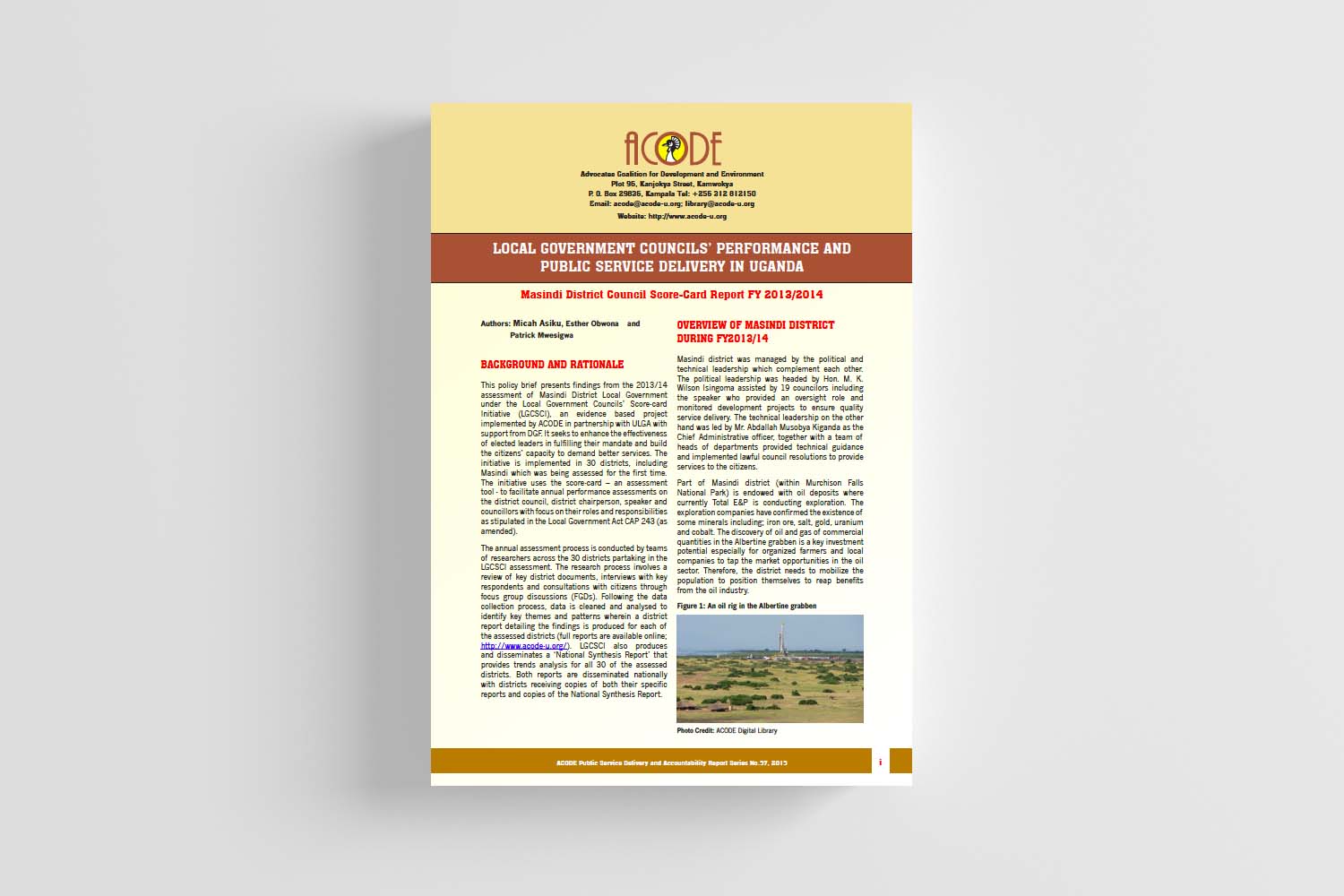
Local Government Councils’ Performance and Public Service Delivery in Uganda: Masindi District Council Scorecard Report 2013/14
Author(s): Micah Asiku, Esther Obwona, and Patrick Mwesigwa
Published: 2015
This report presents a scorecard assessment of Masindi District that analysed service delivery vis-à-vis the performance of the political leadership. The report makes a number of recommendations with regard to citizen engagement, funding, and follow-up on part of the councilors which we believe if undertaken will go a long way in improving both the political performance of councilors and the quality of service delivery.
View PDF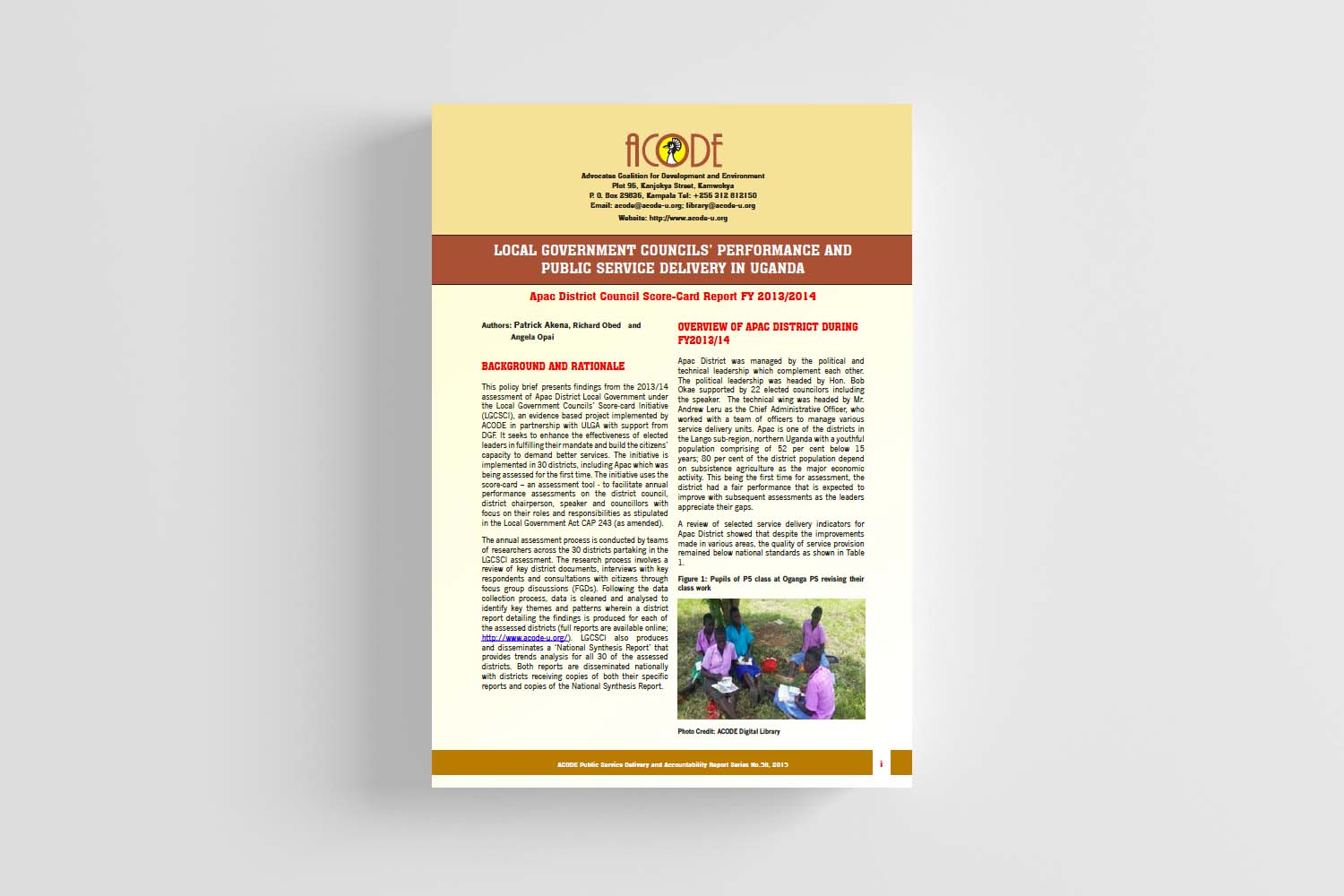
Local Government Councils’ Performance and Public Service Delivery in Uganda: Apac District Council Scorecard Report 2013/14
Author(s): Patrick Akena, Richard Obed, and Angela Opai
Published: 2015
This report presents a scorecard assessment of Apac District that analysed service delivery vis-à-vis the performance of the political leadership. The report makes a number of recommendations with regard to citizen engagement, funding, and follow-up on part of the councilors which we believe if undertaken will go a long way in improving both the political performance of councilors and the quality of service delivery.
View PDF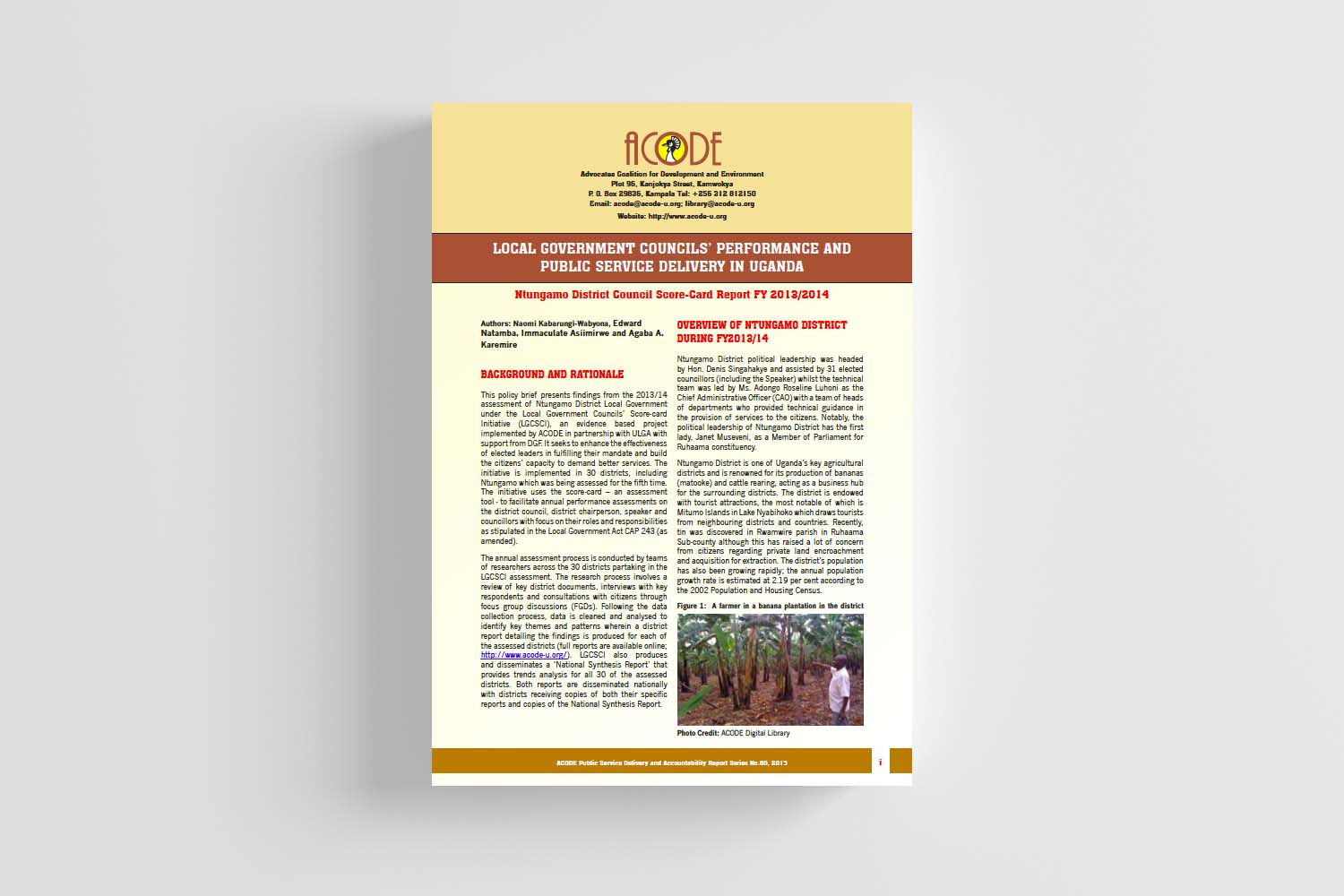
Local Government Councils’ Performance and Public Service Delivery in Uganda: Ntungamo District Council Scorecard Report 2013/14
Author(s): Naomi Kabarungi-Wabyona, Edward Natamba, Immaculate Asiimirwe and Agaba A. Karemire
Published: 2015
This report presents a scorecard assessment of Ntungamo District that analysed service delivery vis-à-vis the performance of the political leadership. The report makes a number of recommendations with regard to citizen engagement, funding, and follow-up on part of the councilors which we believe if undertaken will go a long way in improving both the political performance of councilors and the quality of service delivery.
View PDF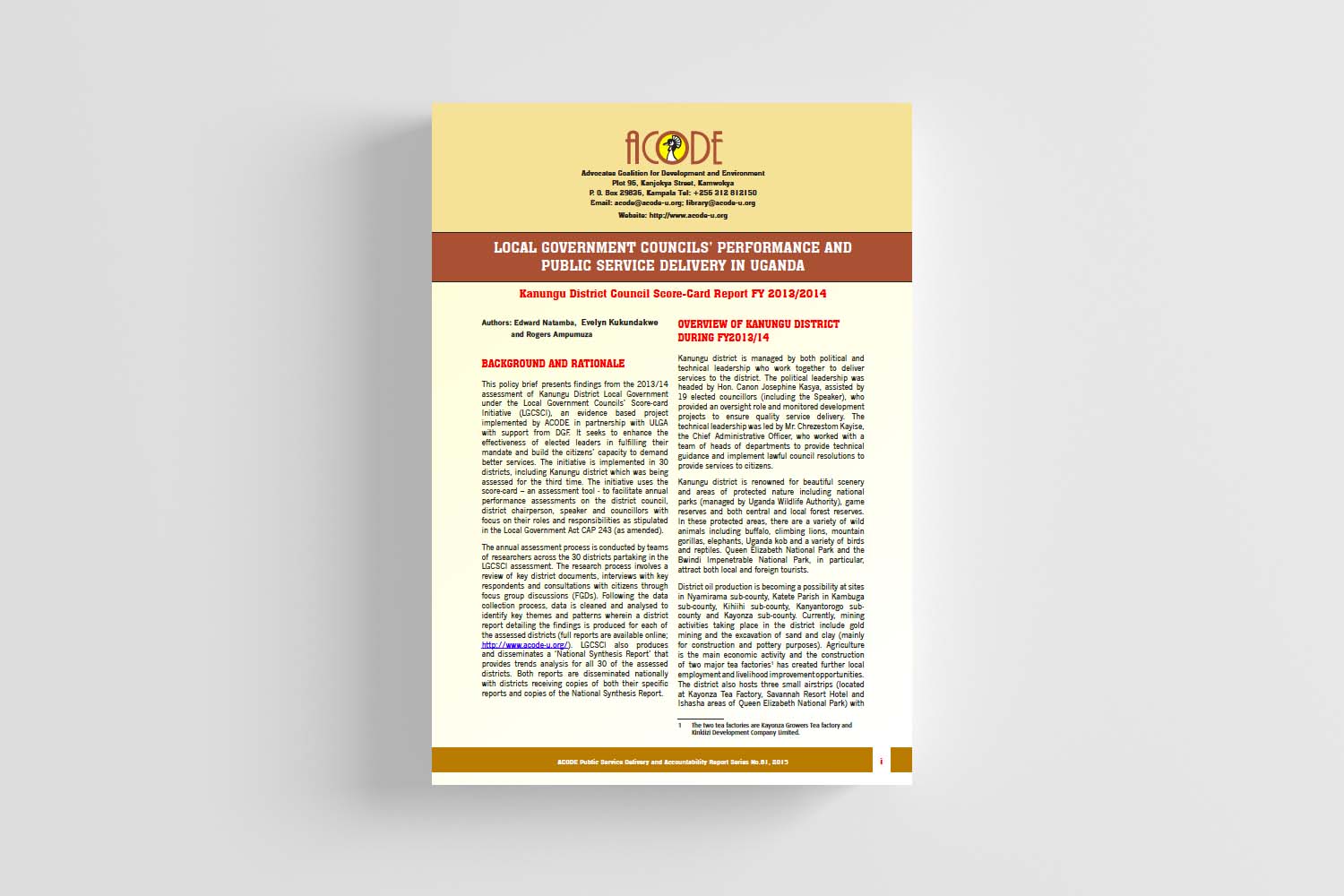
Local Government Councils’ Performance and Public Service Delivery in Uganda: Kanungu District Council Scorecard Report 2013/14
Author(s): Edward Natamba, Evelyn Kukundakwe, and Rogers Ampumuza
Published: 2015
This report presents a scorecard assessment of Kanungu District that analysed service delivery vis-à-vis the performance of the political leadership. The report makes a number of recommendations with regard to citizen engagement, funding, and follow-up on part of the councilors which we believe if undertaken will go a long way in improving both the political performance of councilors and the quality of service delivery.
View PDF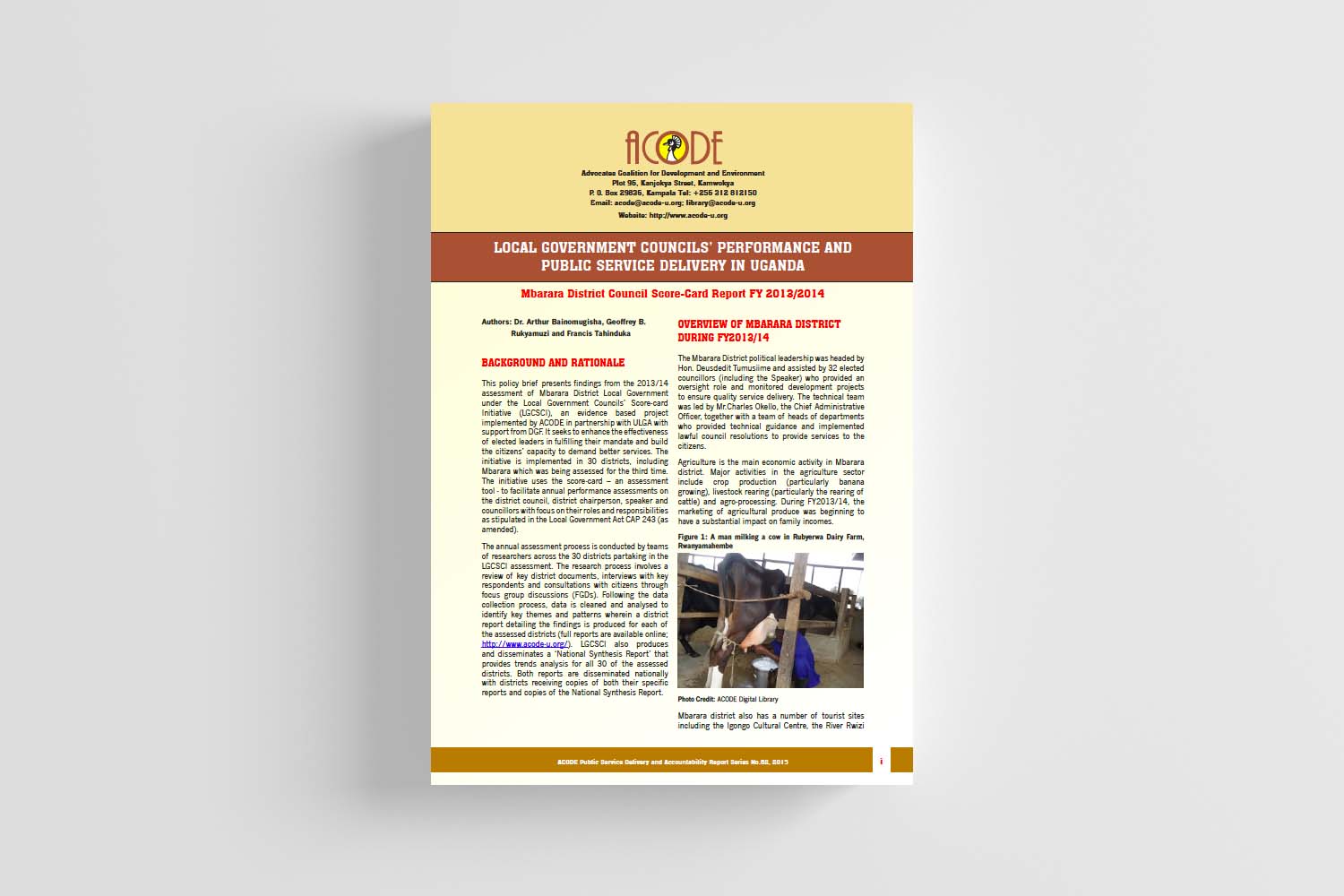
Local Government Councils’ Performance and Public Service Delivery in Uganda: Mbarara District Council Scorecard Report 2013/14
Author(s): Arthur Bainomugisha, Geoffrey B. Rukyamuzi, and Francis Tahinduka
Published: 2015
This report presents a scorecard assessment of Mbarara District that analysed service delivery vis-à-vis the performance of the political leadership. The report makes a number of recommendations with regard to citizen engagement, funding, and follow-up on part of the councilors which we believe if undertaken will go a long way in improving both the political performance of councilors and the quality of service delivery.
View PDF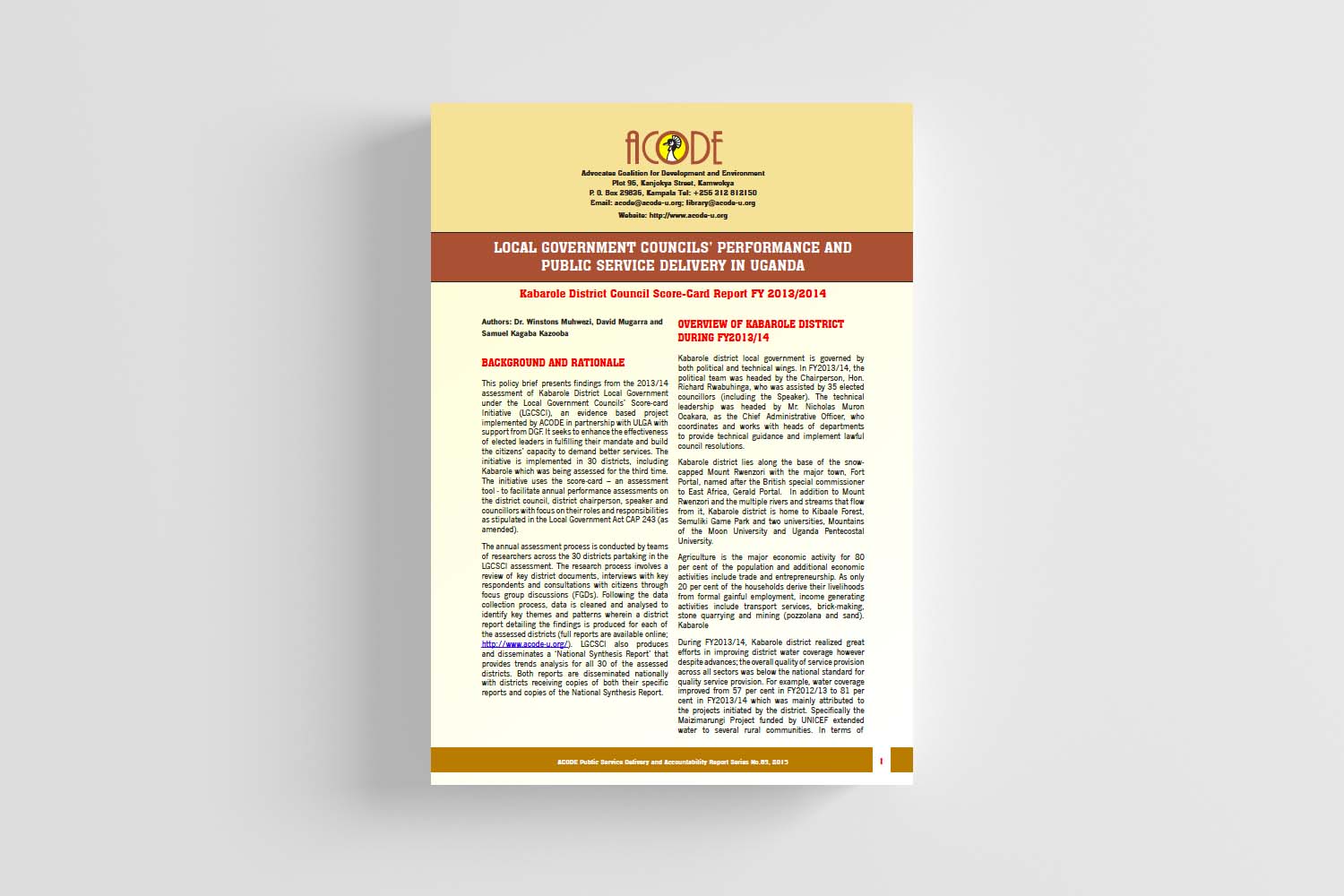
Local Government Councils’ Performance and Public Service Delivery in Uganda: Kabarole District Council Scorecard Report 2013/14
Author(s): Winstons W. Muhwezi, David Mugarra, and Samuel Kagaba Kazooba
Published: 2015
This report presents a scorecard assessment of Kabarole District that analysed service delivery vis-à-vis the performance of the political leadership. The report makes a number of recommendations with regard to citizen engagement, funding, and follow-up on part of the councilors which we believe if undertaken will go a long way in improving both the political performance of councilors and the quality of service delivery.
View PDF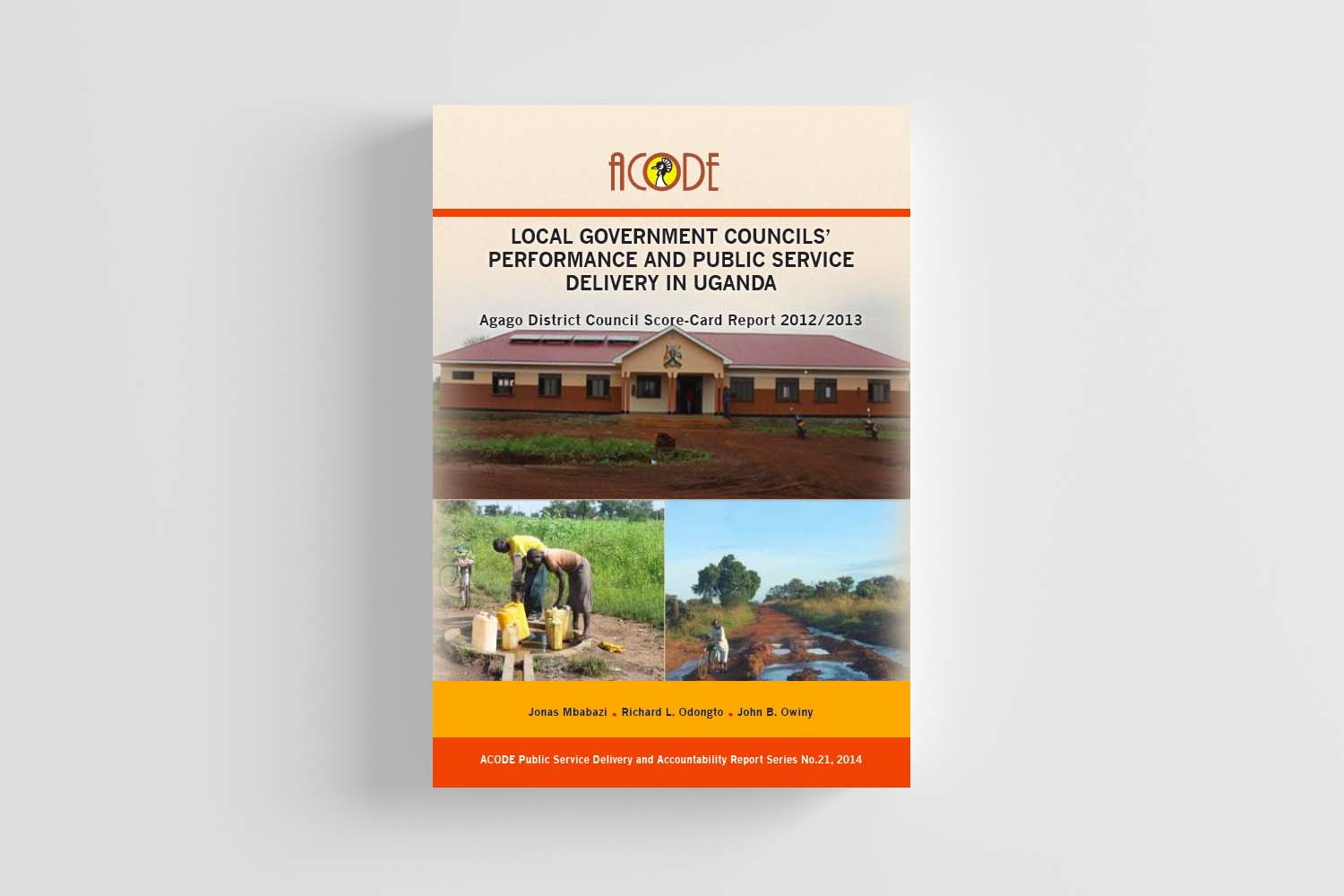
Local Government Councils’ Performance and Public Service Delivery in Uganda: Agago District Council Scorecard Report 2012/13
Author(s): Jonas Mbabazi, Richard L. Odongto, and John B. Owiny
Published: 2014
This report presents a scorecard assessment of Agago District that analysed service delivery vis-à-vis the performance of the political leadership. The report makes a number of recommendations with regard to citizen engagement, funding, and follow-up on part of the councilors which we believe if undertaken will go a long way in improving both the political performance of councilors and the quality of service delivery.
View PDF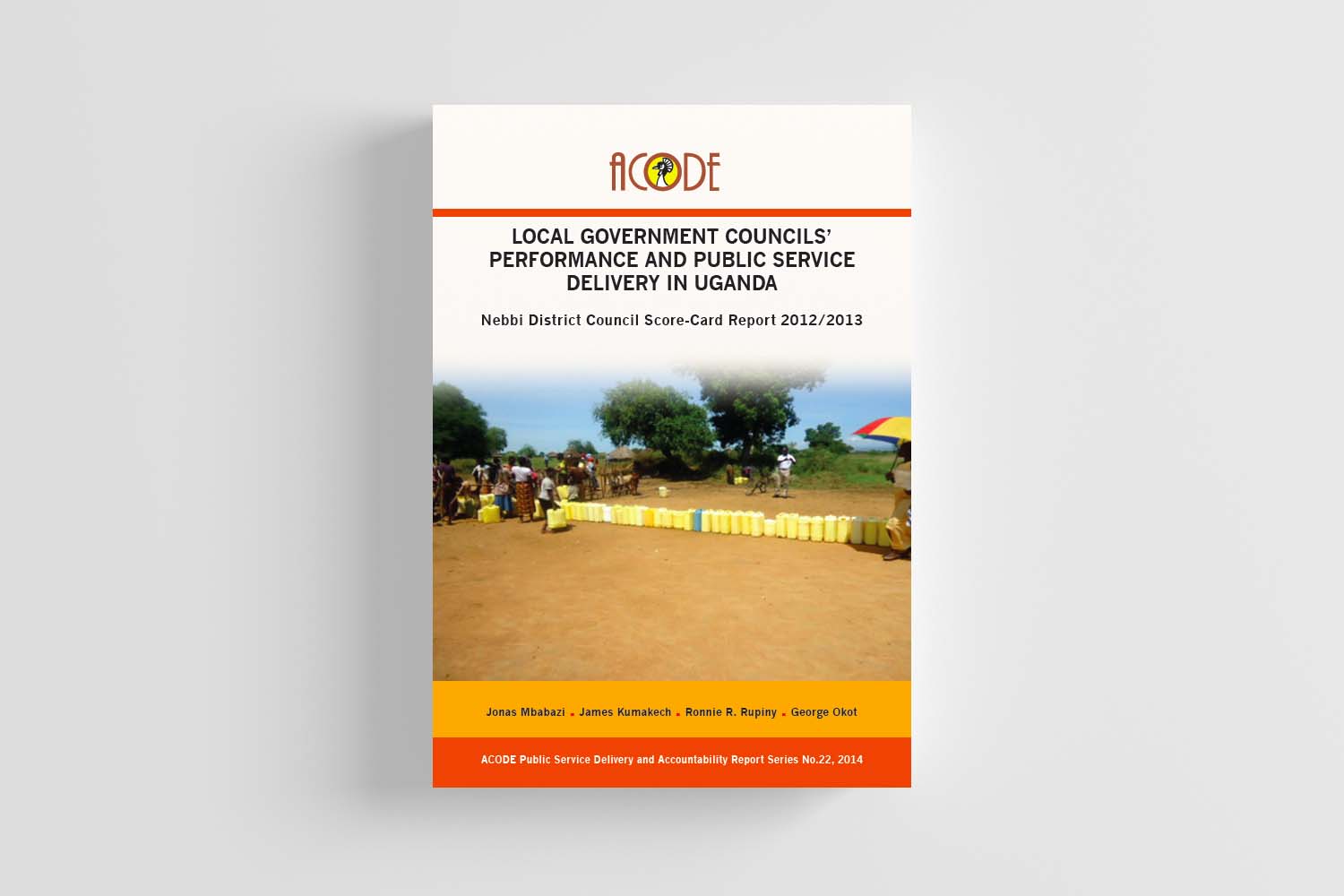
Local Government Councils’ Performance and Public Service Delivery in Uganda: Nebbi District Council Scorecard Report 2012/13
Author(s): Jonas Mbabazi, James Kumakech, Ronnie R. Rupiny, and George Okot
Published: 2014
This report presents a scorecard assessment of Nebbi District that analysed service delivery vis-à-vis the performance of the political leadership. The report makes a number of recommendations with regard to citizen engagement, funding, and follow-up on part of the councilors which we believe if undertaken will go a long way in improving both the political performance of councilors and the quality of service delivery.
View PDF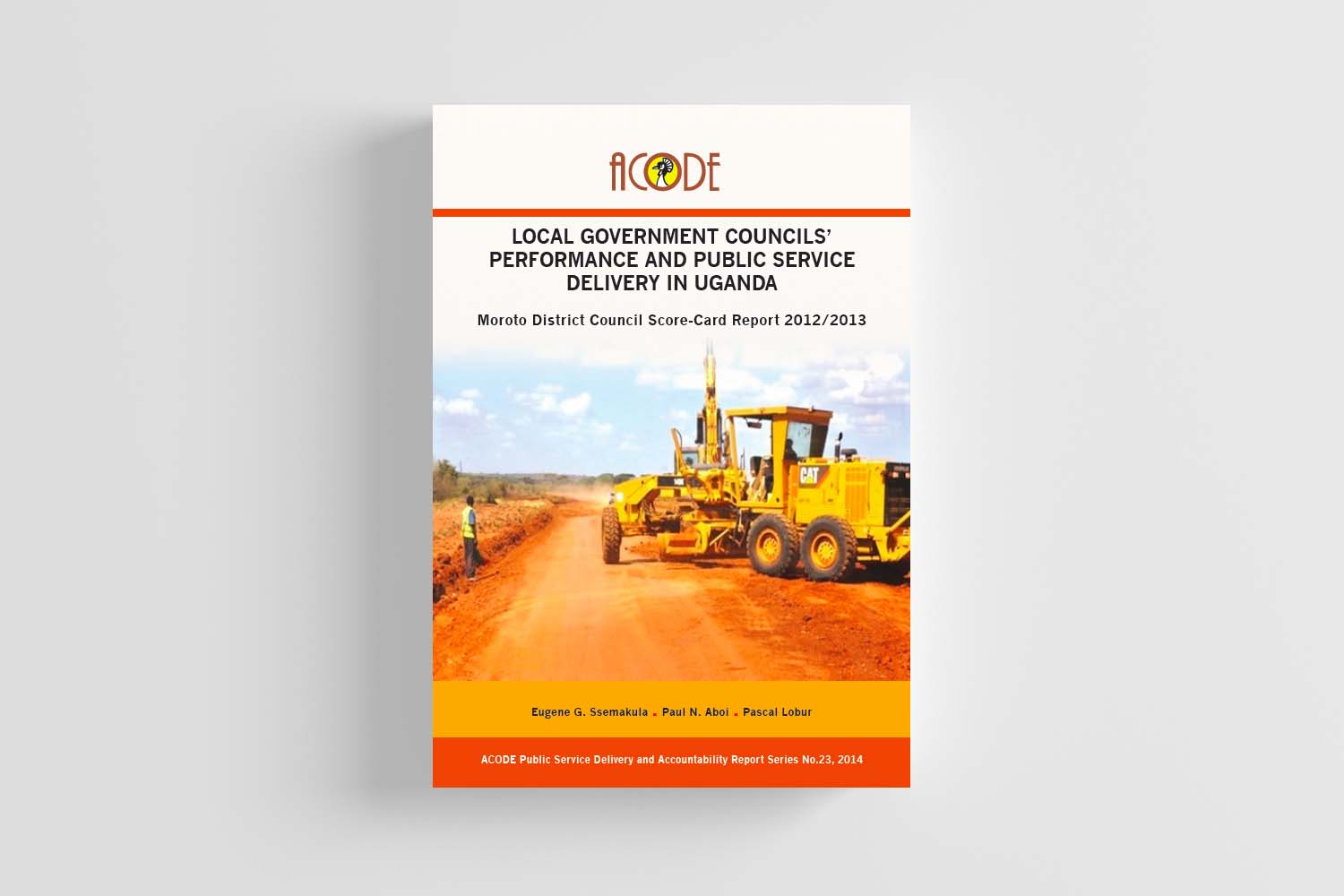
Local Government Councils’ Performance and Public Service Delivery in Uganda: Moroto District Council Scorecard Report 2012/13
Author(s): Eugene G. Ssemakula, Paul N. Aboi, and Pascal Lobur
Published: 2014
This report presents a scorecard assessment of Moroto District that analysed service delivery vis-à-vis the performance of the political leadership. The report makes a number of recommendations with regard to citizen engagement, funding, and follow-up on part of the councilors which we believe if undertaken will go a long way in improving both the political performance of councilors and the quality of service delivery.
View PDF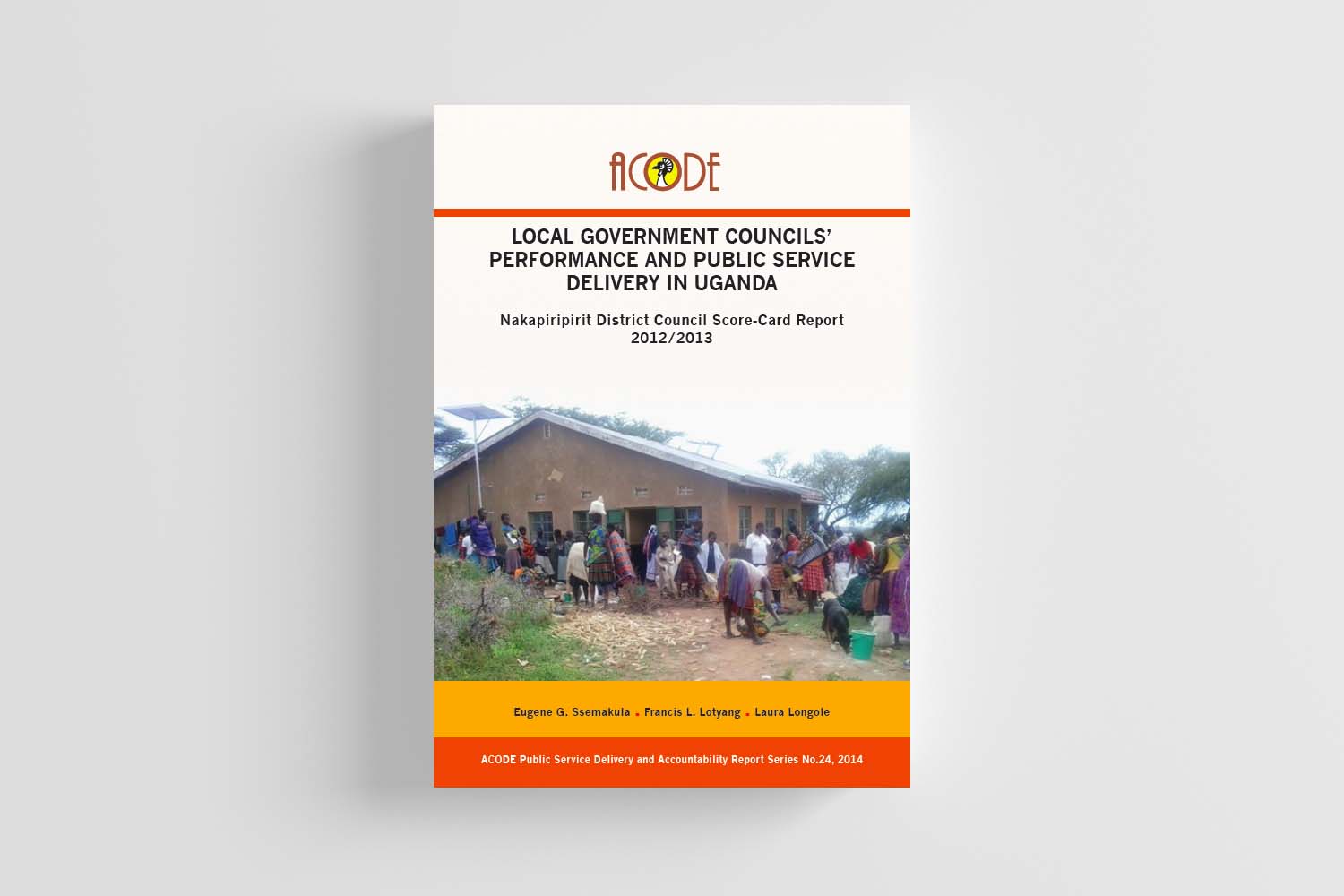
Local Government Councils’ Performance and Public Service Delivery in Uganda: Nakapiripirit District Council Scorecard Report 2012/13
Author(s): Eugene G. Ssemakula, Francis L. Lotyang, and Laura Longole
Published: 2014
This report presents a scorecard assessment of Nakapiripirit District that analysed service delivery vis-à-vis the performance of the political leadership. The report makes a number of recommendations with regard to citizen engagement, funding, and follow-up on part of the councilors which we believe if undertaken will go a long way in improving both the political performance of councilors and the quality of service delivery.
View PDF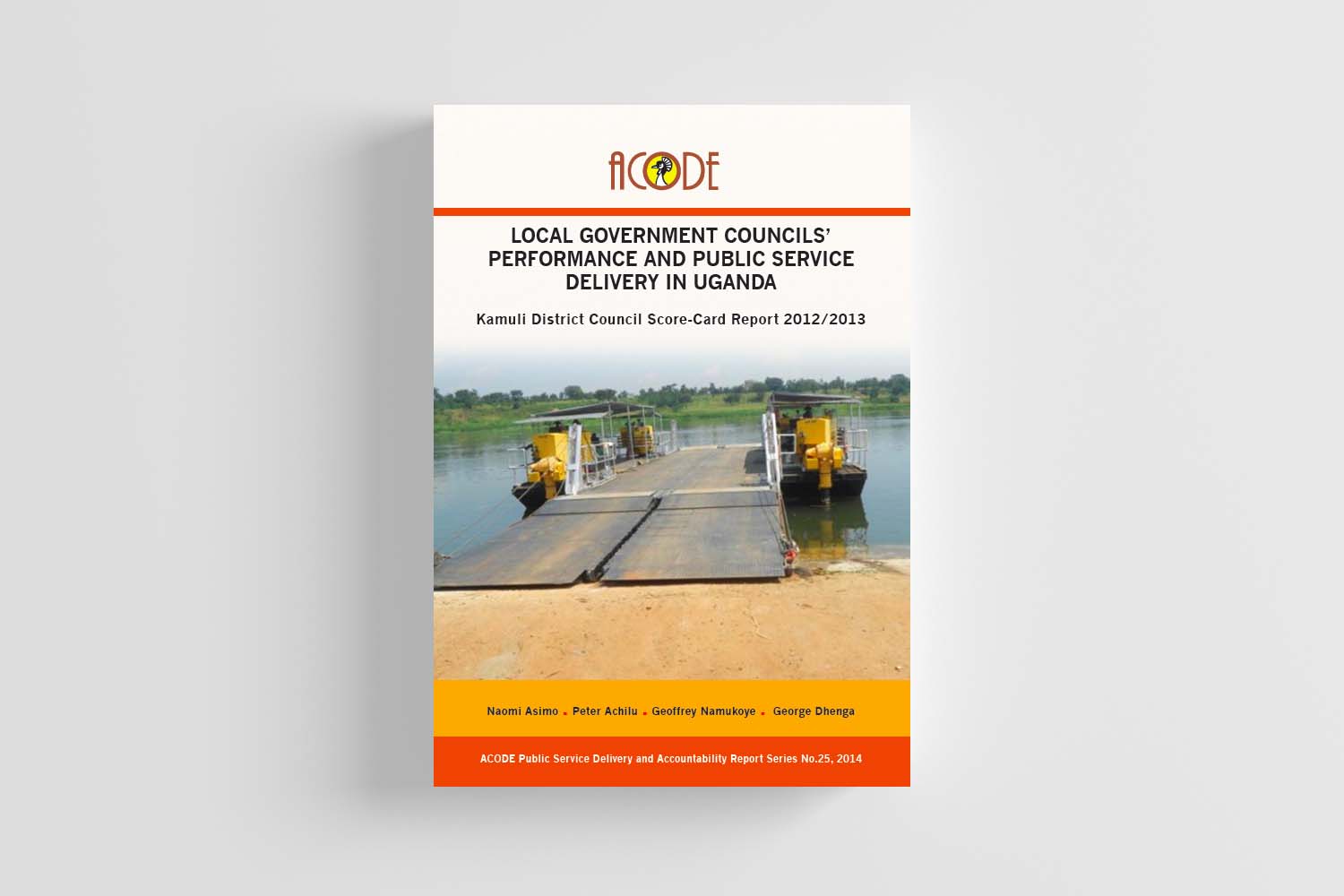
Local Government Councils’ Performance and Public Service Delivery in Uganda: Kamuli District Council Scorecard Report 2012/13
Author(s): Naomi Asimo, Peter Achilu, Geoffrey Namukoye, and George Dhenga
Published: 2014
This report presents a scorecard assessment of Kamuli District that analysed service delivery vis-à-vis the performance of the political leadership. The report makes a number of recommendations with regard to citizen engagement, funding, and follow-up on part of the councilors which we believe if undertaken will go a long way in improving both the political performance of councilors and the quality of service delivery.
View PDF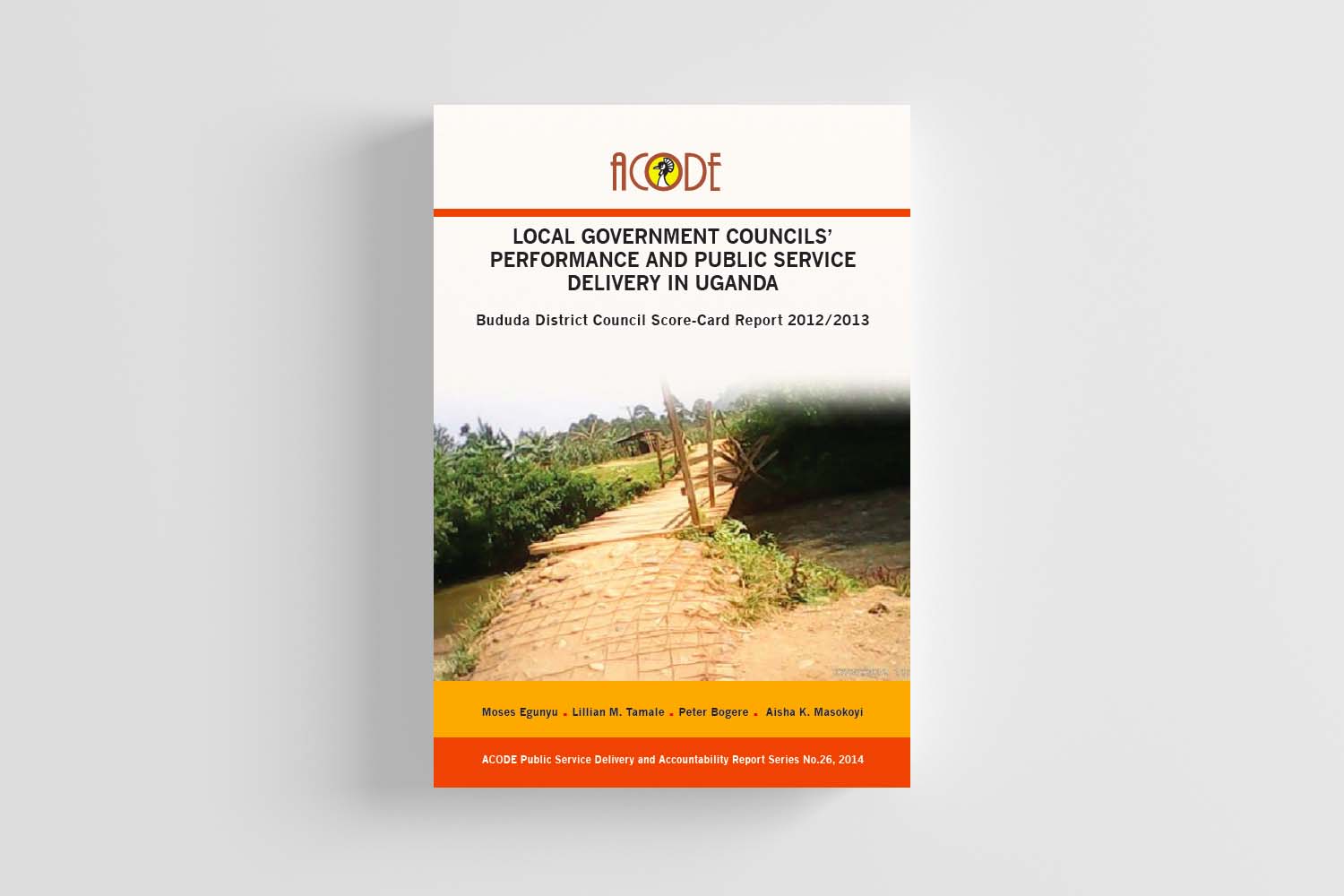
Local Government Councils’ Performance and Public Service Delivery in Uganda: Bududa District Council Scorecard Report 2012/13
Author(s): Moses Egunyu, Lillian M. Tamale, Peter Bogere, and Aisha K. Masokoyi
Published: 2014
This report presents a scorecard assessment of Bududa District that analysed service delivery vis-à-vis the performance of the political leadership. The report makes a number of recommendations with regard to citizen engagement, funding, and follow-up on part of the councilors which we believe if undertaken will go a long way in improving both the political performance of councilors and the quality of service delivery.
View PDF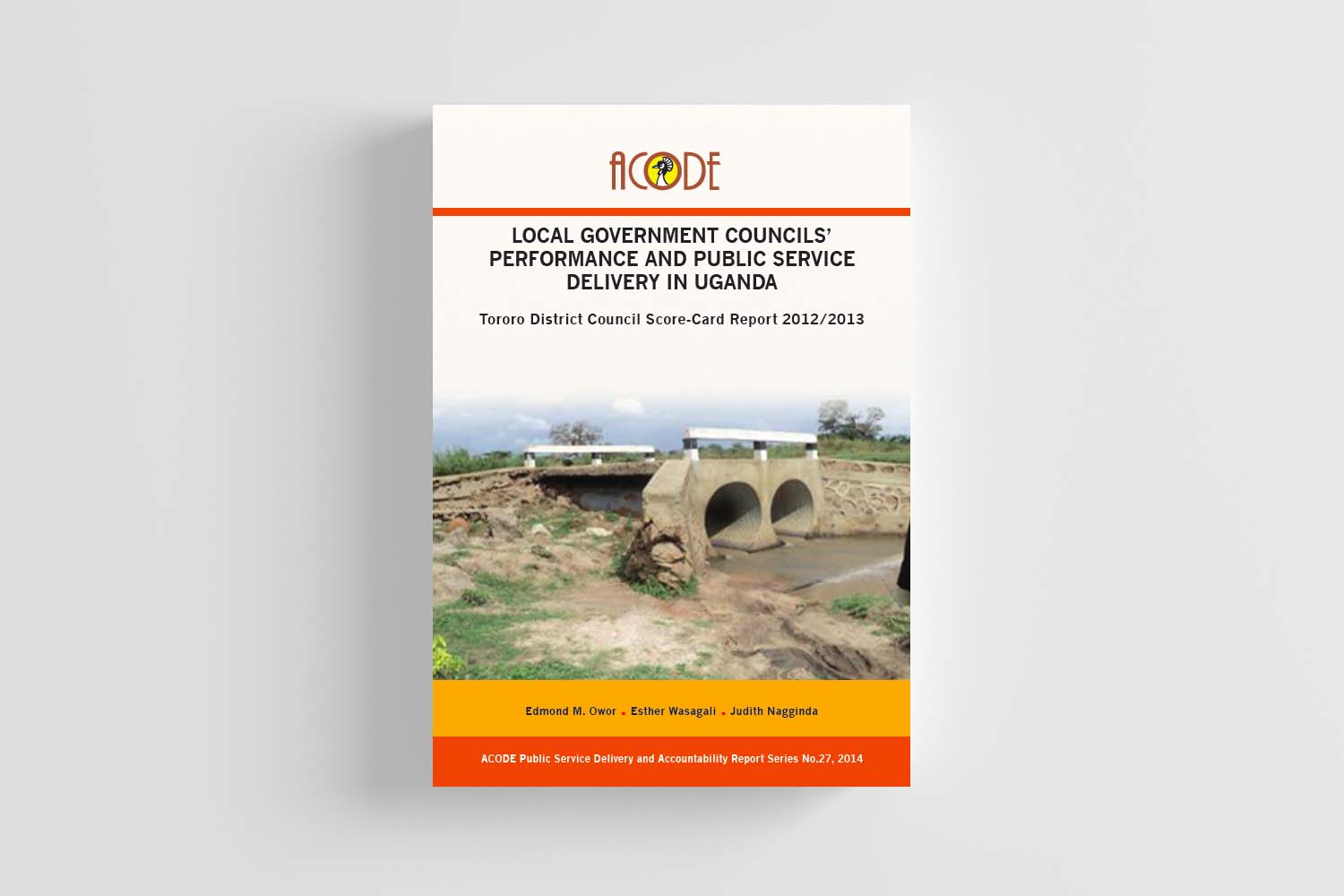
Local Government Councils’ Performance and Public Service Delivery in Uganda: Tororo District Council Scorecard Report 2012/13
Author(s): Edmond M. Owor, Esther Wasagali, and Judith Nagginda
Published: 2014
This report presents a scorecard assessment of Tororo District that analysed service delivery vis-à-vis the performance of the political leadership. The report makes a number of recommendations with regard to citizen engagement, funding, and follow-up on part of the councilors which we believe if undertaken will go a long way in improving both the political performance of councilors and the quality of service delivery.
View PDF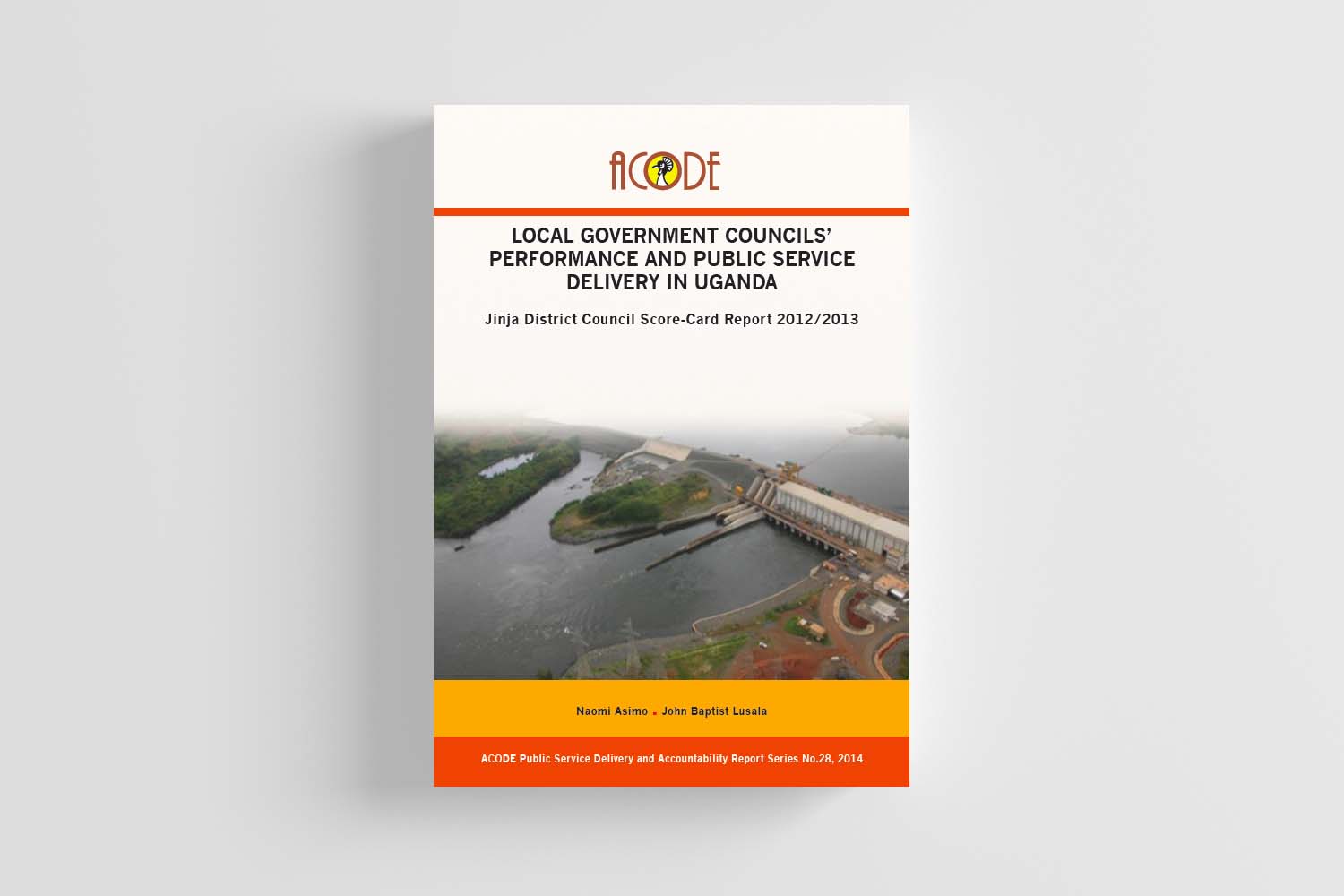
Local Government Councils’ Performance and Public Service Delivery in Uganda: Jinja District Council Scorecard Report 2012/13
Author(s): Naomi Asimo and John Baptist Lusala
Published: 2014
This report presents a scorecard assessment of Jinja District that analysed service delivery vis-à-vis the performance of the political leadership. The report makes a number of recommendations with regard to citizen engagement, funding, and follow-up on part of the councilors which we believe if undertaken will go a long way in improving both the political performance of councilors and the quality of service delivery.
View PDF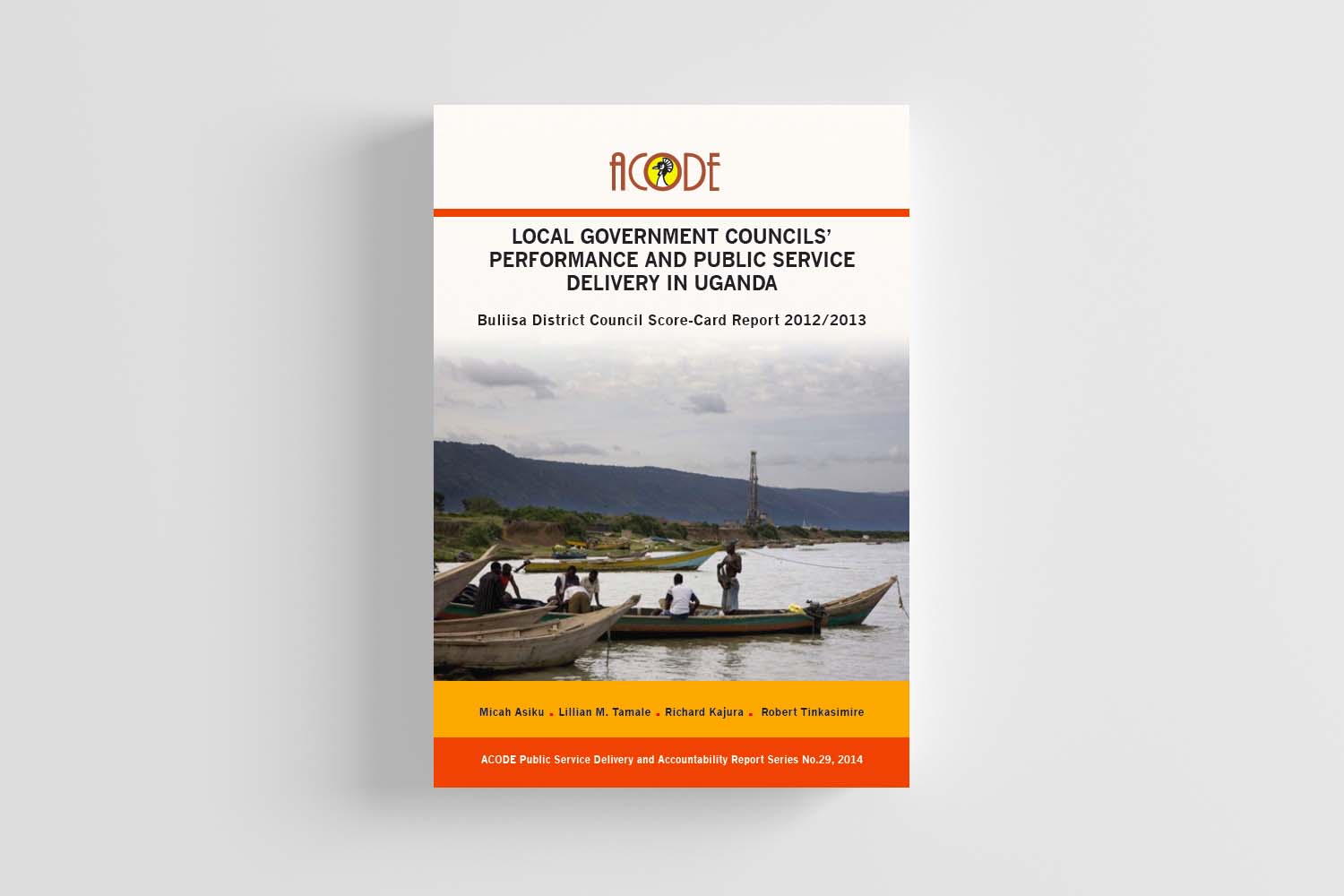
Local Government Councils’ Performance and Public Service Delivery in Uganda: Buliisa District Council Scorecard Report 2012/13
Author(s): Micah Asiku, Lillian M. Tamale, Richard Kajura, and Robert Tinkasimire
Published: 2014
This report presents a scorecard assessment of Buliisa District that analysed service delivery vis-à-vis the performance of the political leadership. The report makes a number of recommendations with regard to citizen engagement, funding, and follow-up on part of the councilors which we believe if undertaken will go a long way in improving both the political performance of councilors and the quality of service delivery.
View PDF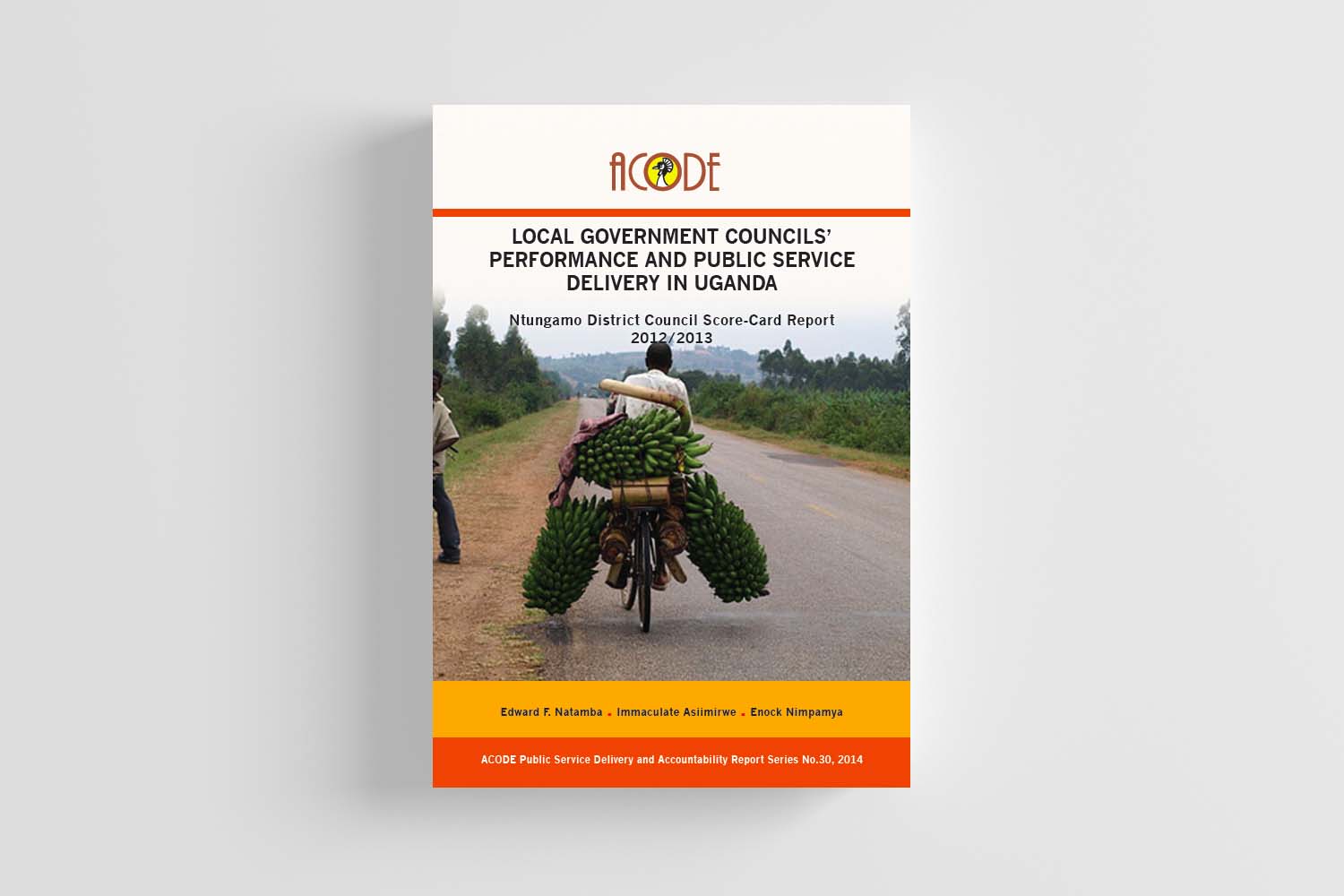
Local Government Councils’ Performance and Public Service Delivery in Uganda: Ntungamo District Council Scorecard Report 2012/13
Author(s): Edward F. Natamba, Immaculate Asiimirwe, and Enock Nimpamya
Published: 2014
This report presents a scorecard assessment of Ntungamo District that analysed service delivery vis-à-vis the performance of the political leadership. The report makes a number of recommendations with regard to citizen engagement, funding, and follow-up on part of the councilors which we believe if undertaken will go a long way in improving both the political performance of councilors and the quality of service delivery.
View PDF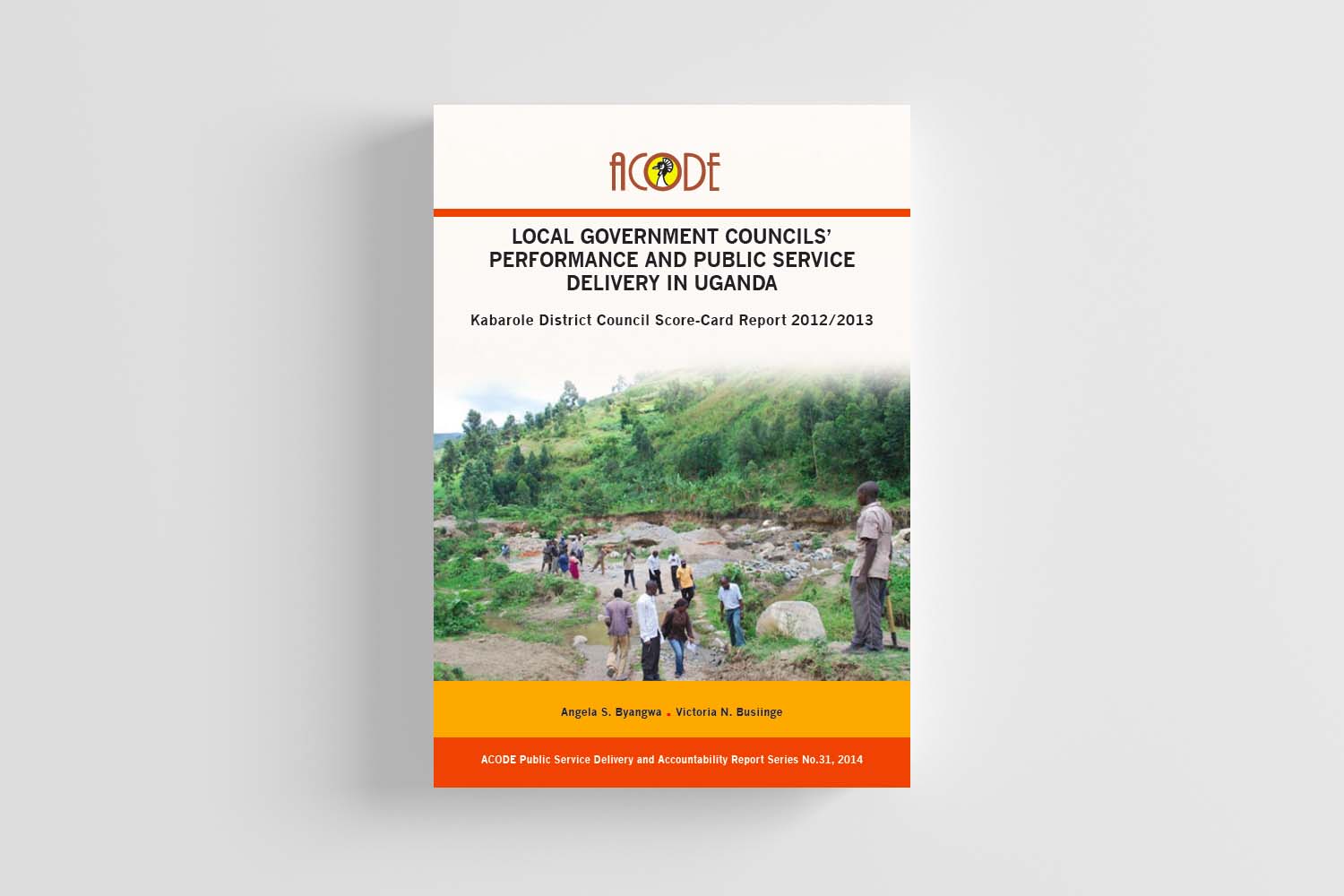
Local Government Councils’ Performance and Public Service Delivery in Uganda: Kabarole District Council Scorecard Report 2012/13
Author(s): Angela S. Byangwa and Victoria N. Busiinge
Published: 2014
This report presents a scorecard assessment of Kabarole District that analysed service delivery vis-à-vis the performance of the political leadership. The report makes a number of recommendations with regard to citizen engagement, funding, and follow-up on part of the councilors which we believe if undertaken will go a long way in improving both the political performance of councilors and the quality of service delivery.
View PDF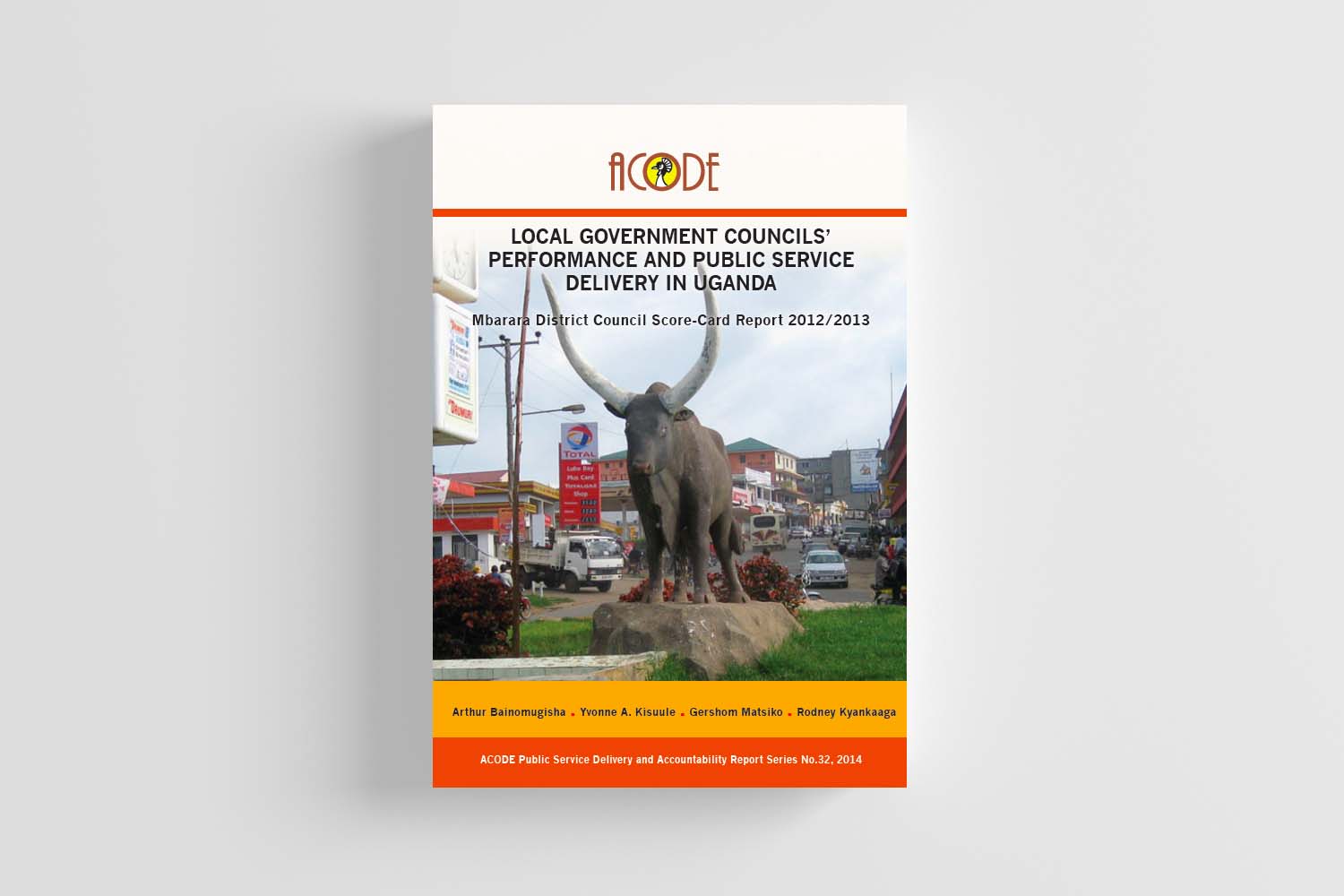
Local Government Councils’ Performance and Public Service Delivery in Uganda: Mbarara District Council Scorecard Report 2012/13
Author(s): Arthur Bainomugisha, Yvonne A. Kisuule, Gershom Matsiko, and Rodney Kyankaaga
Published: 2014
This report presents a scorecard assessment of Mbarara District that analysed service delivery vis-à-vis the performance of the political leadership. The report makes a number of recommendations with regard to citizen engagement, funding, and follow-up on part of the councilors which we believe if undertaken will go a long way in improving both the political performance of councilors and the quality of service delivery.
View PDF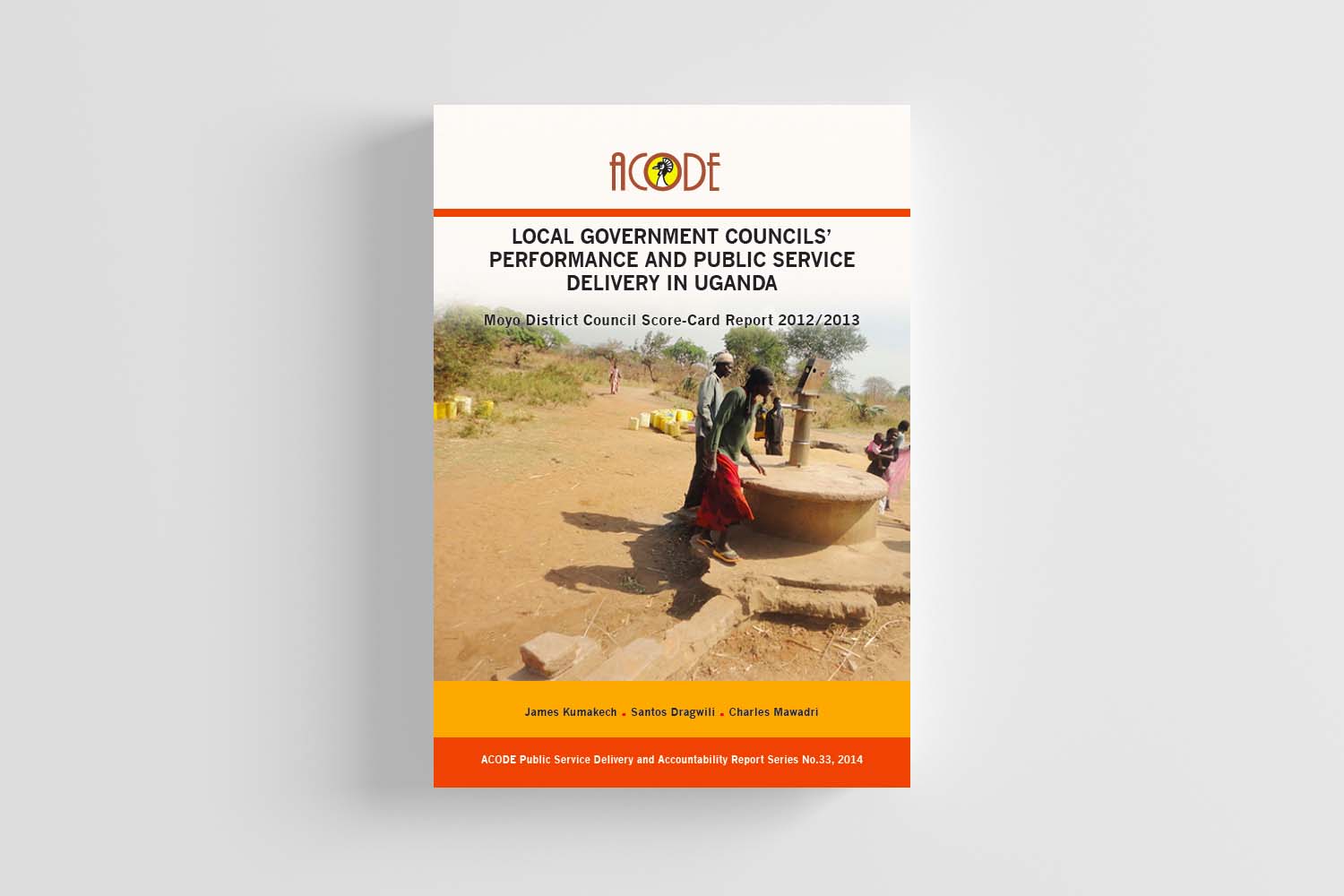
Local Government Councils’ Performance and Public Service Delivery in Uganda: Moyo District Council Scorecard Report 2012/13
Author(s): James Kumakech, Santos Dragwili, and Charles Mawadri
Published: 2014
This report presents a scorecard assessment of Moyo District that analysed service delivery vis-à-vis the performance of the political leadership. The report makes a number of recommendations with regard to citizen engagement, funding, and follow-up on part of the councilors which we believe if undertaken will go a long way in improving both the political performance of councilors and the quality of service delivery.
View PDF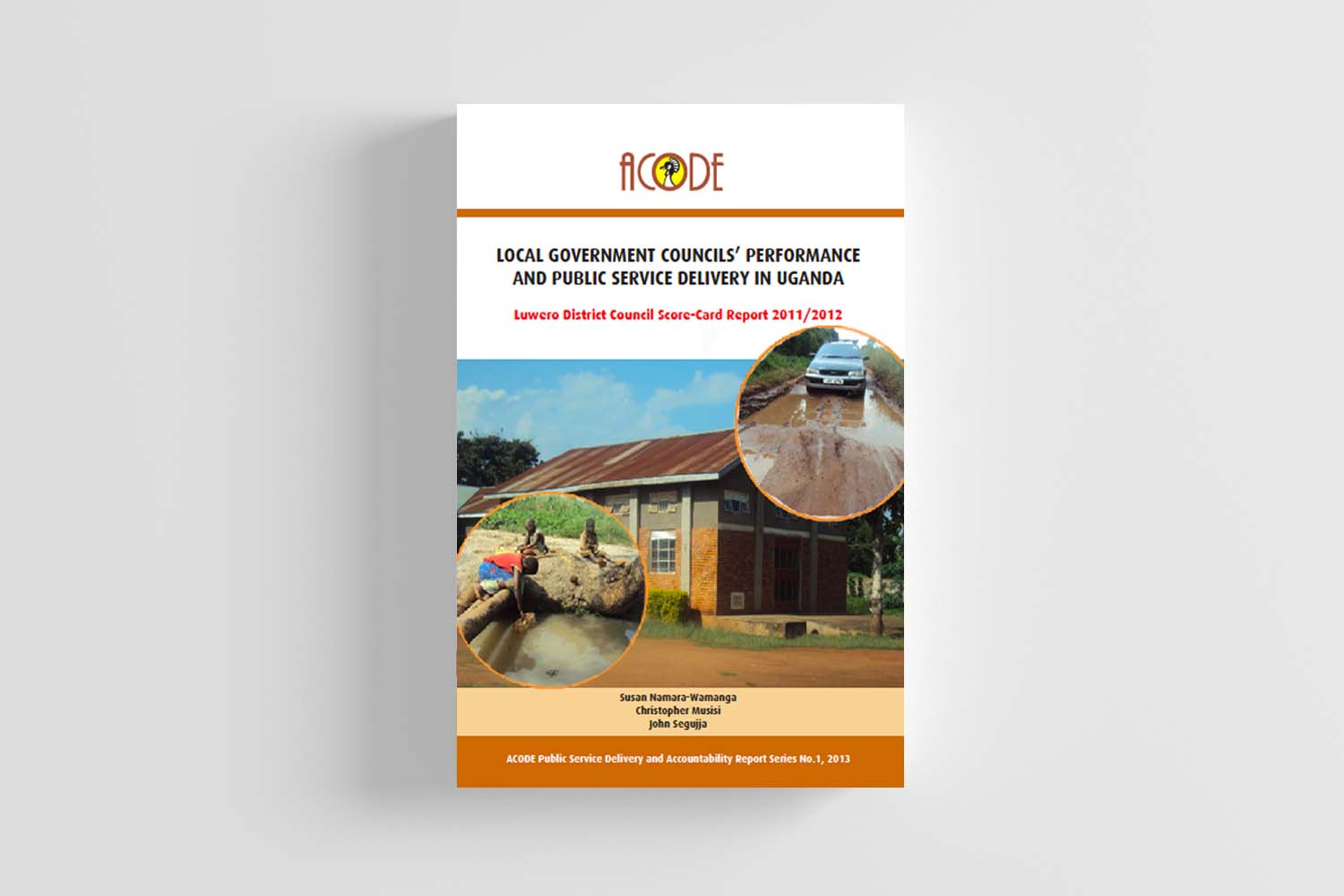
Local Government Councils’ Performance and Public Service Delivery in Uganda: Luwero District Council Scorecard Report 2011/12
Author(s): Susan Namara-Wamanga, Christopher Musisi, and John Segujja
Published: 2013
This report presents a scorecard assessment of Luwero District that analysed service delivery vis-à-vis the performance of the political leadership. The report makes a number of recommendations with regard to citizen engagement, funding, and follow-up on part of the councilors which we believe if undertaken will go a long way in improving both the political performance of councilors and the quality of service delivery.
View PDF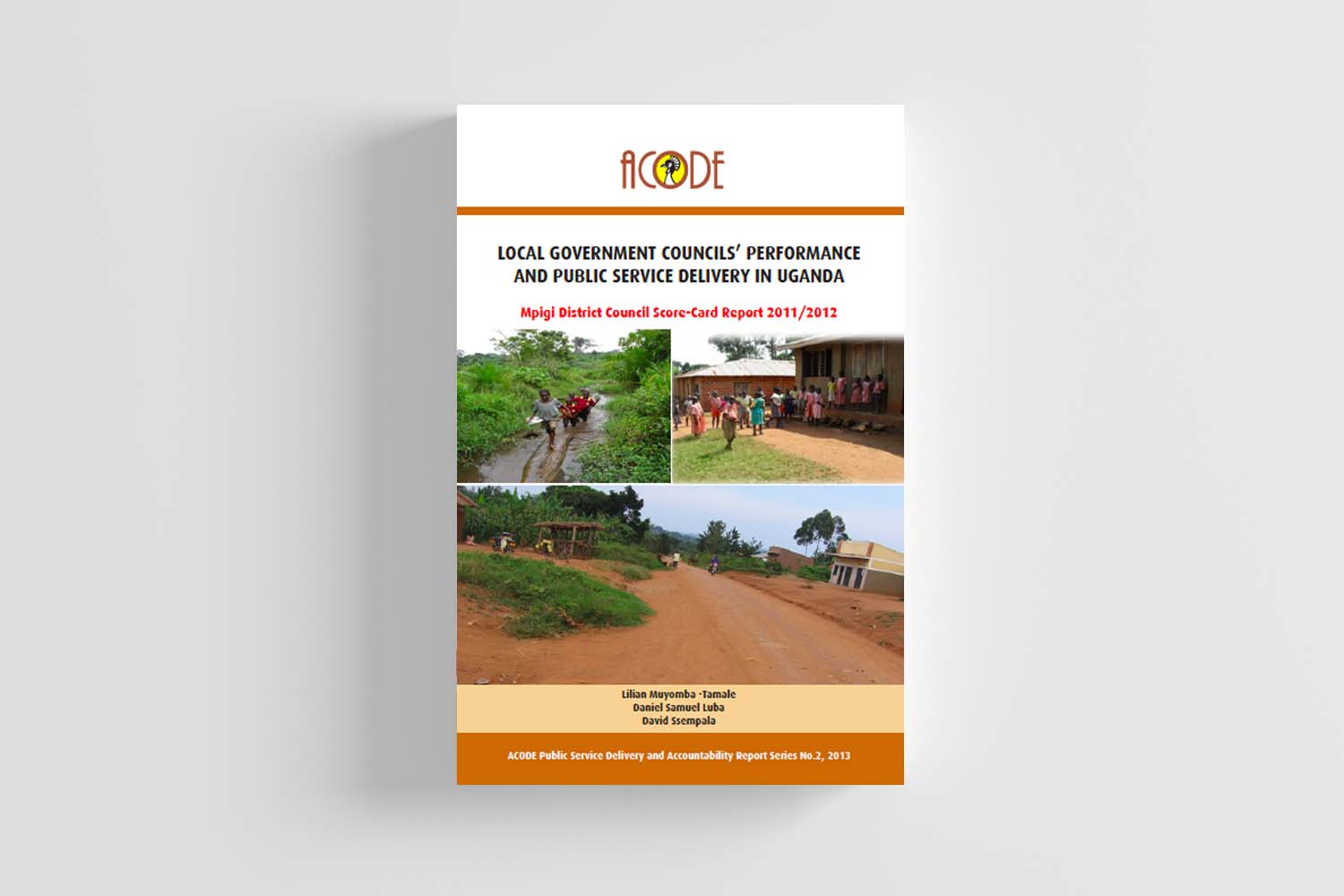
Local Government Councils’ Performance and Public Service Delivery in Uganda: Mpigi District Council Scorecard Report 2011/12
Author(s): Lilian Muyomba Tamale, Daniel Samuel Luba, and David Ssempala
Published: 2013
This report presents a scorecard assessment of Mpigi District that analysed service delivery vis-à-vis the performance of the political leadership. The report makes a number of recommendations with regard to citizen engagement, funding, and follow-up on part of the councilors which we believe if undertaken will go a long way in improving both the political performance of councilors and the quality of service delivery.
View PDF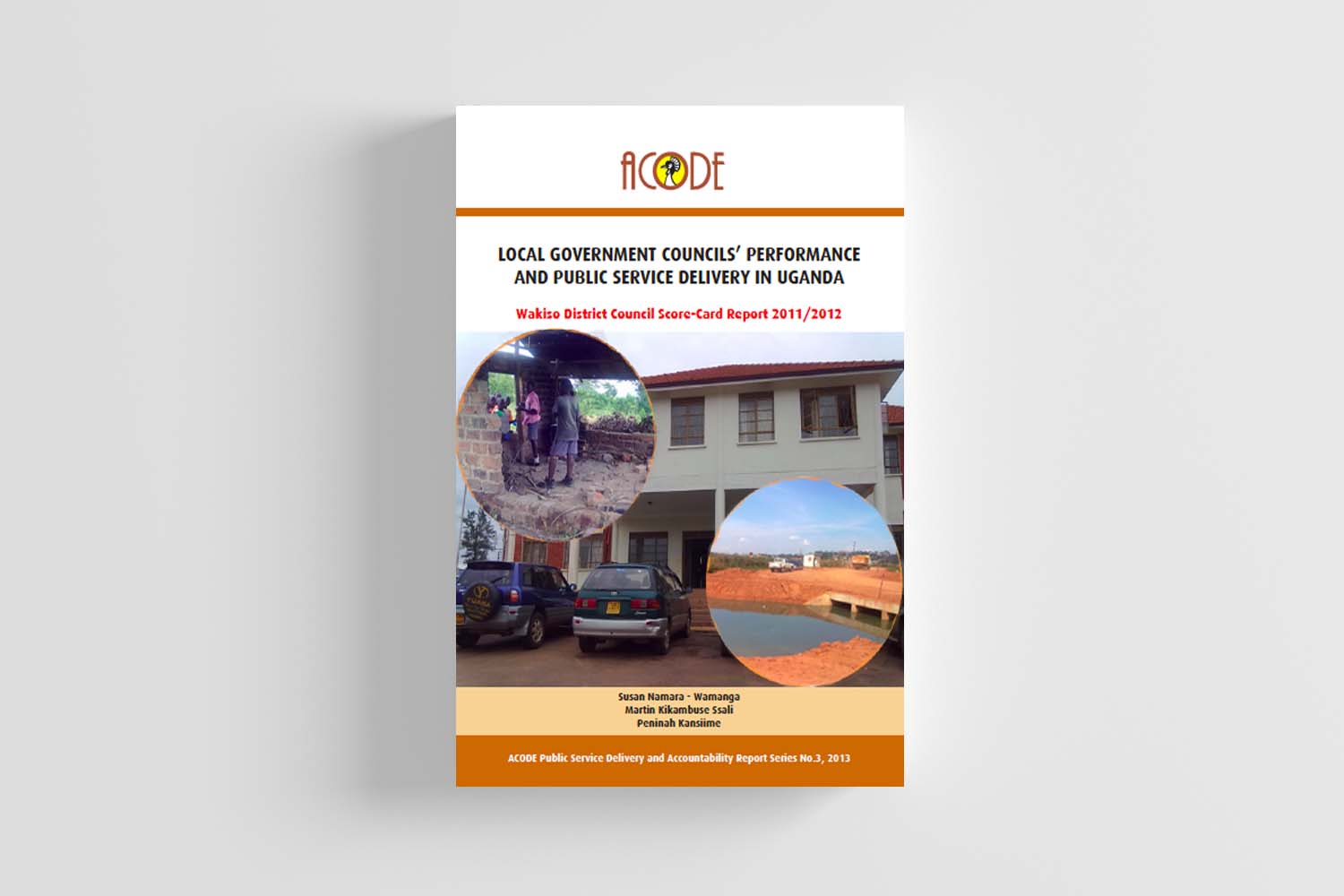
Local Government Councils’ Performance and Public Service Delivery in Uganda: Wakiso District Council Scorecard Report 2011/12
Author(s): Susan Namara - Wamanga, Martin Kikambuse Ssali, and Peninah Kansiime
Published: 2013
This report presents a scorecard assessment of Wakiso District that analysed service delivery vis-à-vis the performance of the political leadership. The report makes a number of recommendations with regard to citizen engagement, funding, and follow-up on part of the councilors which we believe if undertaken will go a long way in improving both the political performance of councilors and the quality of service delivery.
View PDF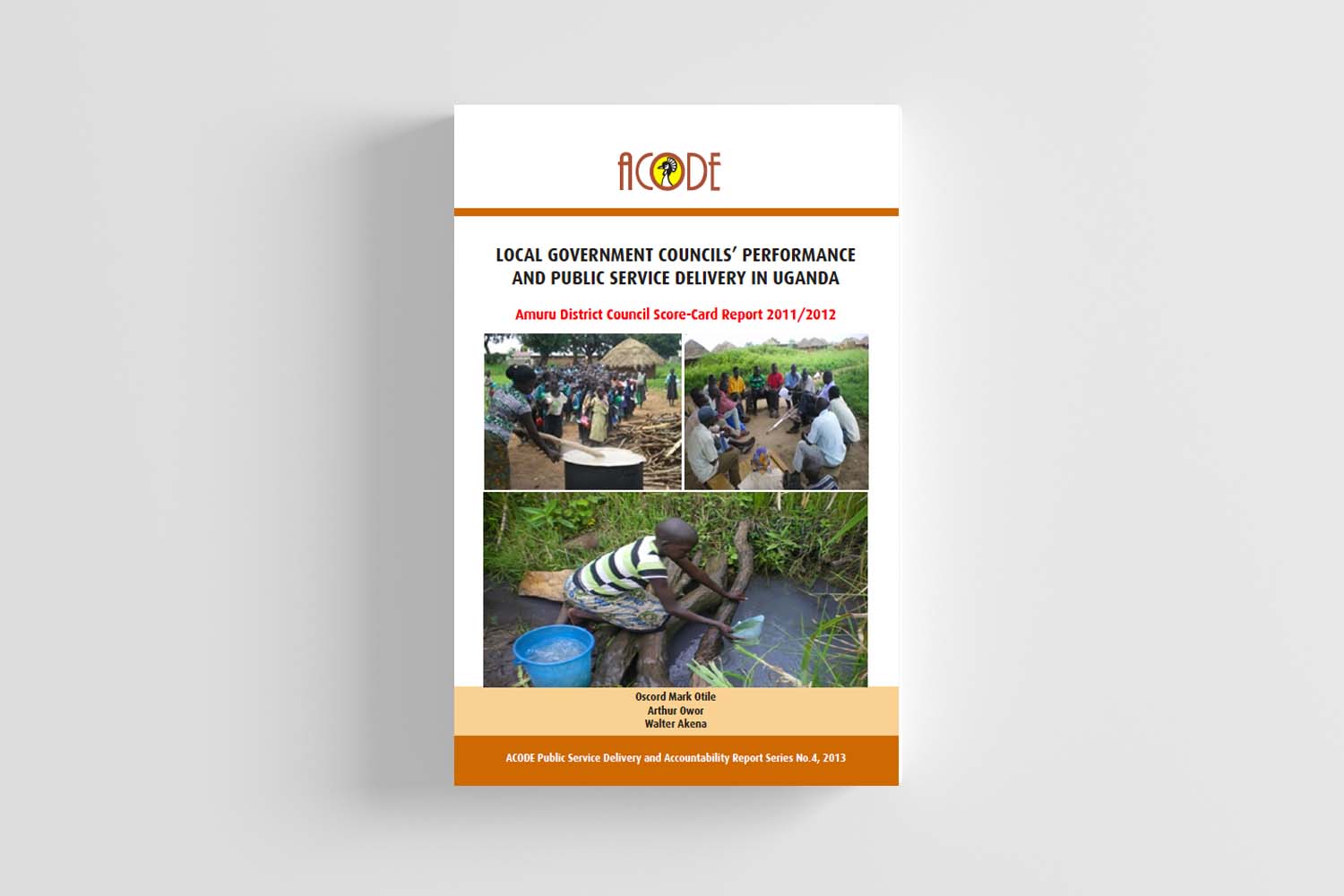
Local Government Councils’ Performance and Public Service Delivery in Uganda: Amuru District Council Scorecard Report 2011/12
Author(s): Oscord Mark Otile, Arthur Owor, and Walter Akena
Published: 2013
This report presents a scorecard assessment of Amuru District that analysed service delivery vis-à-vis the performance of the political leadership. The report makes a number of recommendations with regard to citizen engagement, funding, and follow-up on part of the councilors which we believe if undertaken will go a long way in improving both the political performance of councilors and the quality of service delivery.
View PDF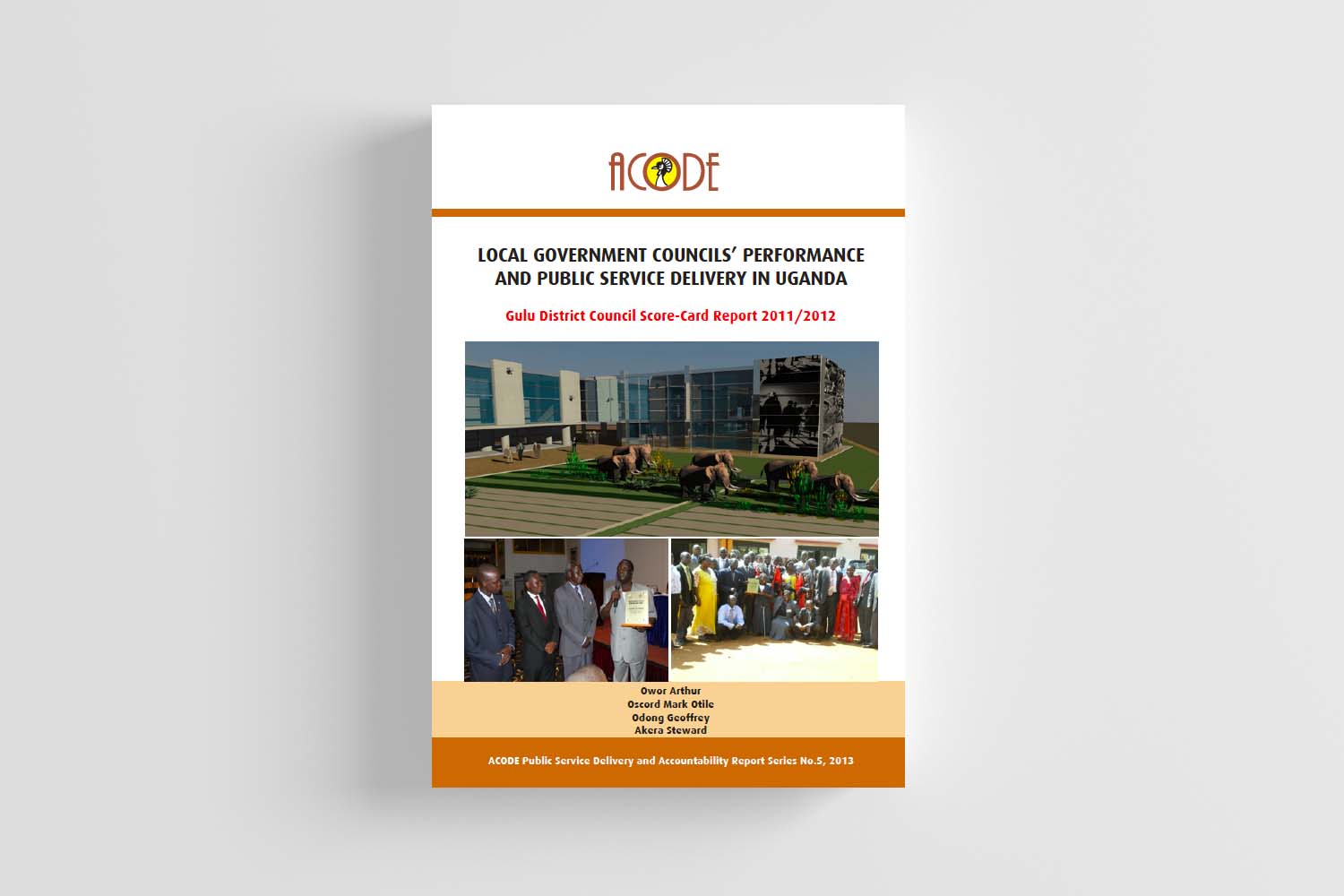
Local Government Councils’ Performance and Public Service Delivery in Uganda: Gulu District Council Scorecard Report 2011/12
Author(s): Owor Arthur, Oscord Mark Otile, Odong Geoffrey, and Akera Steward
Published: 2013
This report presents a scorecard assessment of Gulu District that analysed service delivery vis-à-vis the performance of the political leadership. The report makes a number of recommendations with regard to citizen engagement, funding, and follow-up on part of the councilors which we believe if undertaken will go a long way in improving both the political performance of councilors and the quality of service delivery.
View PDF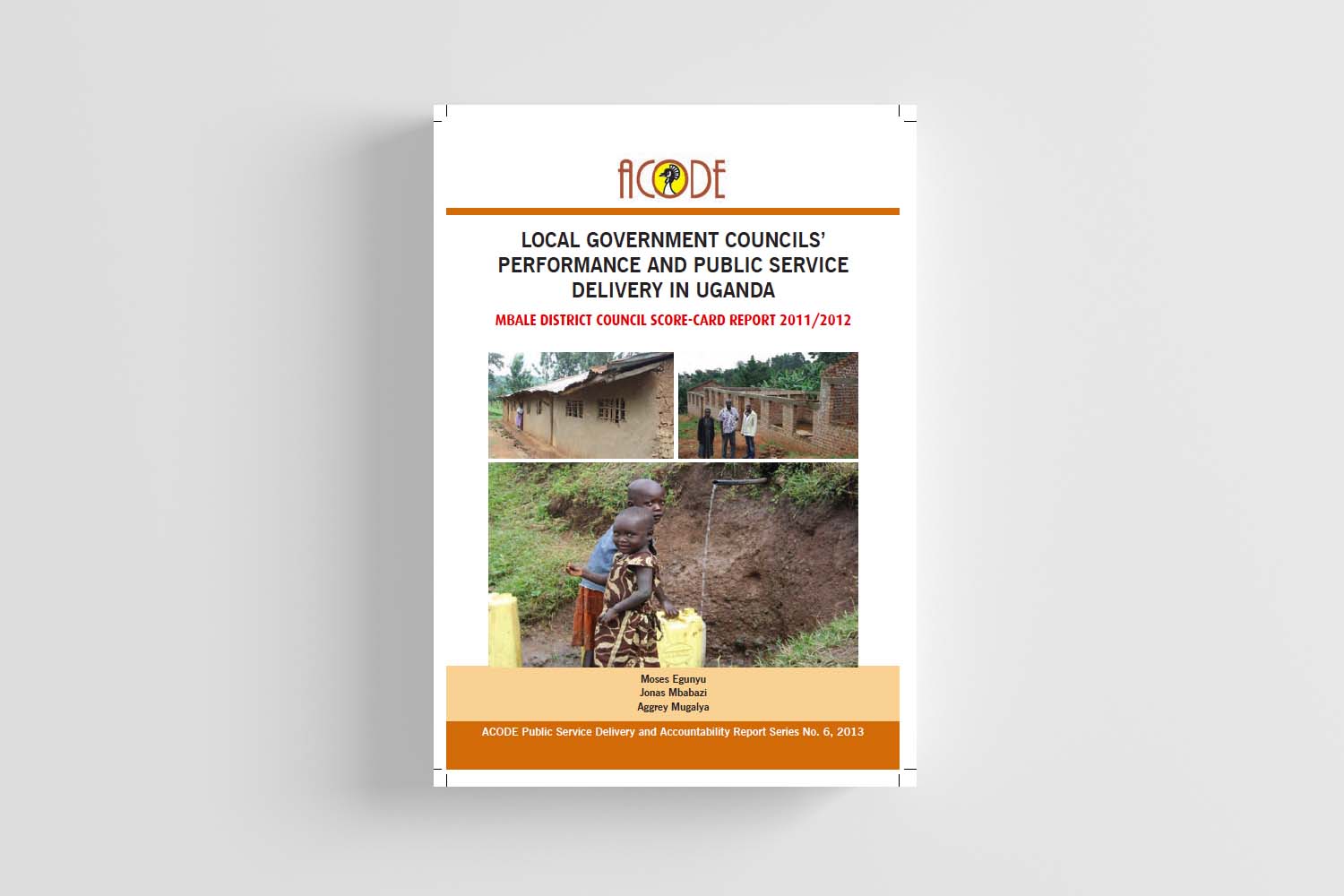
Local Government Councils’ Performance and Public Service Delivery in Uganda: Mbale District Council Scorecard Report 2011/12
Author(s): Moses Egunyu, Jonas Mbabazi, and Aggrey Mugalya
Published: 2013
This report presents a scorecard assessment of Mbale District that analysed service delivery vis-à-vis the performance of the political leadership. The report makes a number of recommendations with regard to citizen engagement, funding, and follow-up on part of the councilors which we believe if undertaken will go a long way in improving both the political performance of councilors and the quality of service delivery.
View PDF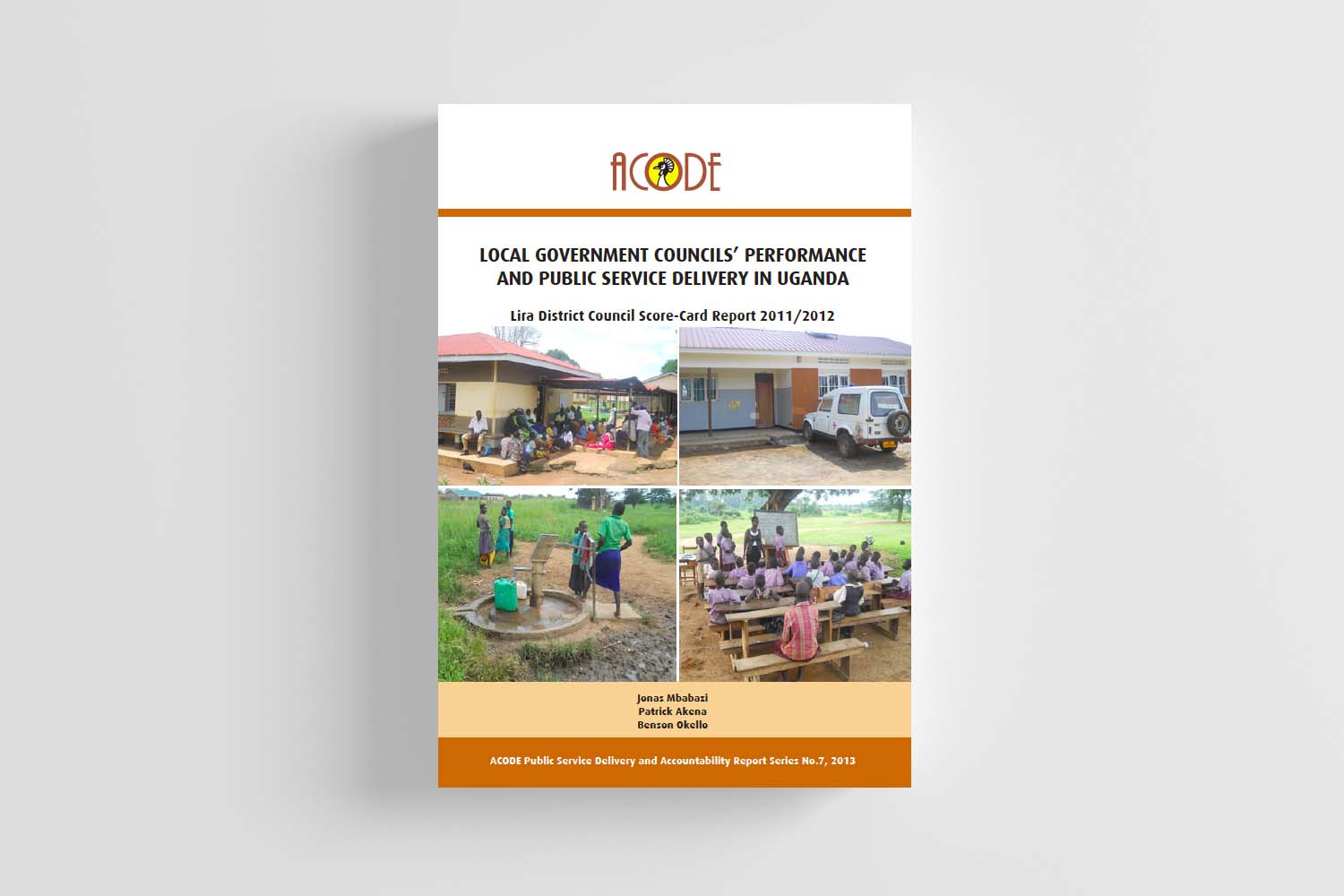
Local Government Councils’ Performance and Public Service Delivery in Uganda: Lira District Council Scorecard Report 2011/12
Author(s): Jonas Mbabazi, Patrick Akena, and Benson Okello
Published: 2013
This report presents a scorecard assessment of Lira District that analysed service delivery vis-à-vis the performance of the political leadership. The report makes a number of recommendations with regard to citizen engagement, funding, and follow-up on part of the councilors which we believe if undertaken will go a long way in improving both the political performance of councilors and the quality of service delivery.
View PDF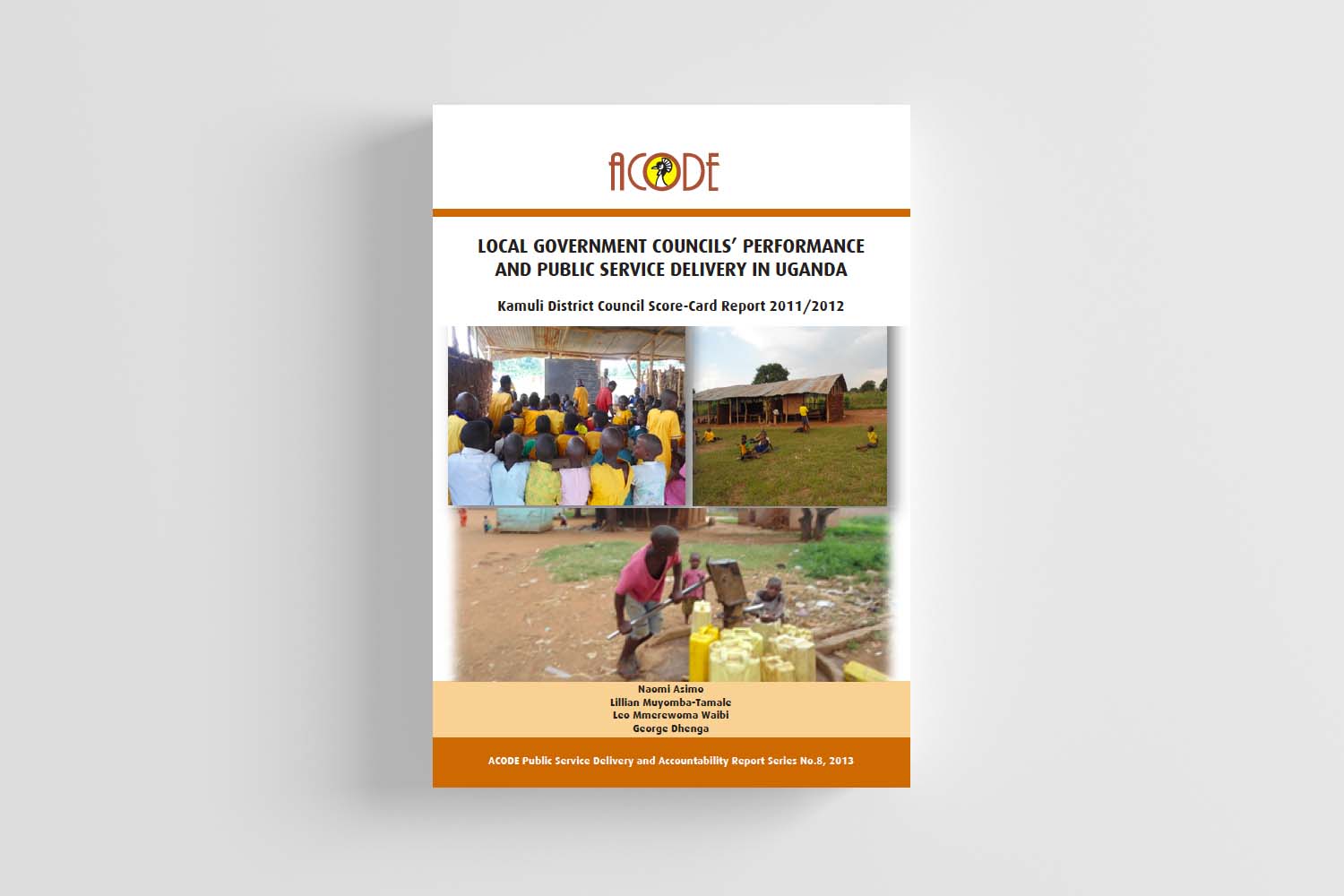
Local Government Councils’ Performance and Public Service Delivery in Uganda: Kamuli District Council Scorecard Report 2011/12
Author(s): Naomi Asimo, Lillian Muyomba-Tamale, Leo Mmerewoma Waibi, and George Dhenga
Published: 2013
This report presents a scorecard assessment of Kamuli District that analysed service delivery vis-à-vis the performance of the political leadership. The report makes a number of recommendations with regard to citizen engagement, funding, and follow-up on part of the councilors which we believe if undertaken will go a long way in improving both the political performance of councilors and the quality of service delivery.
View PDF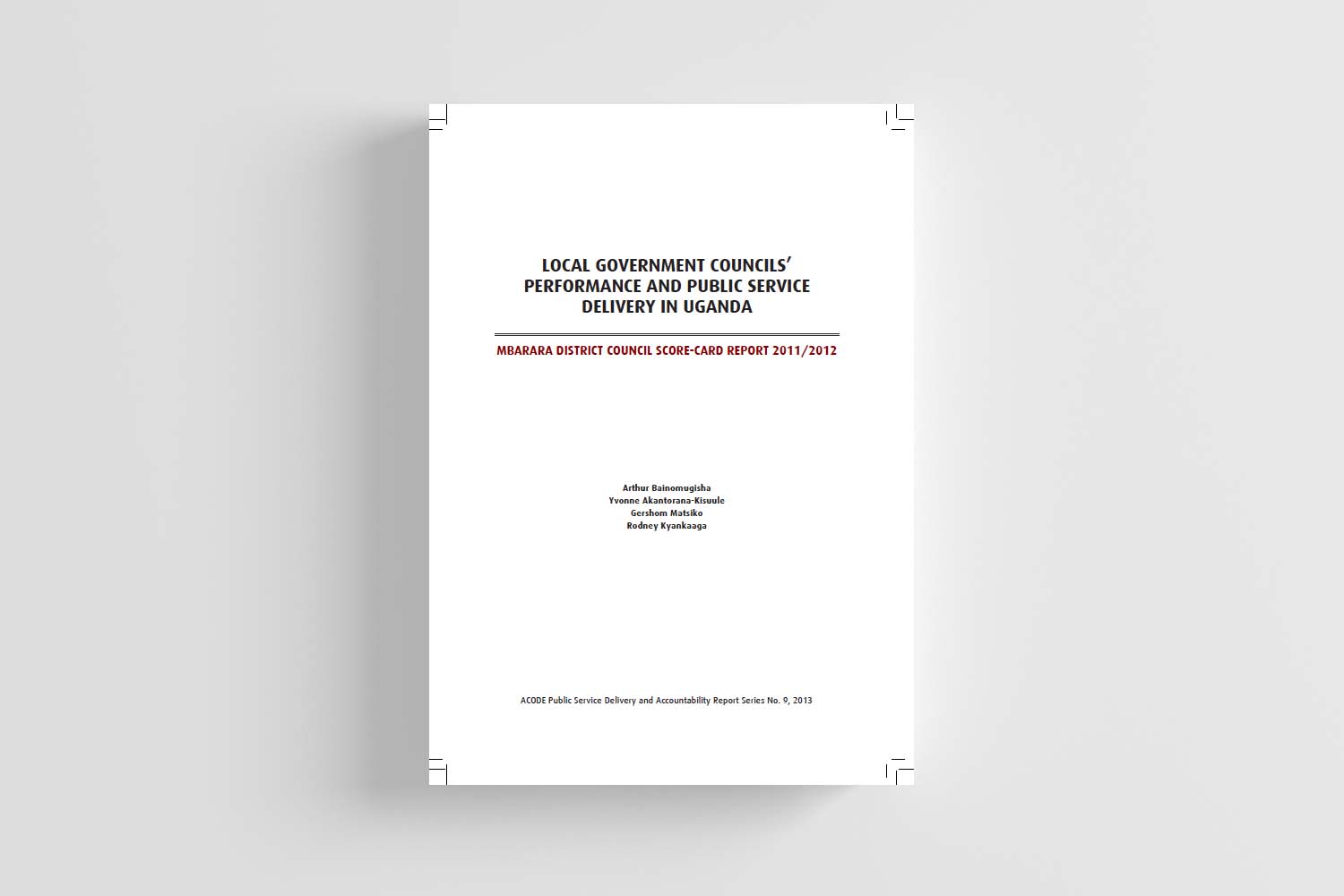
Local Government Councils’ Performance and Public Service Delivery in Uganda: Mbarara District Council Scorecard Report 2011/12
Author(s): Arthur Bainomugisha, Yvonne Akantorana-Kisuule, Gershom Matsiko, and Rodney Kyankaaga
Published: 2013
This report presents a scorecard assessment of Mbarara District that analysed service delivery vis-à-vis the performance of the political leadership. The report makes a number of recommendations with regard to citizen engagement, funding, and follow-up on part of the councilors which we believe if undertaken will go a long way in improving both the political performance of councilors and the quality of service delivery.
View PDF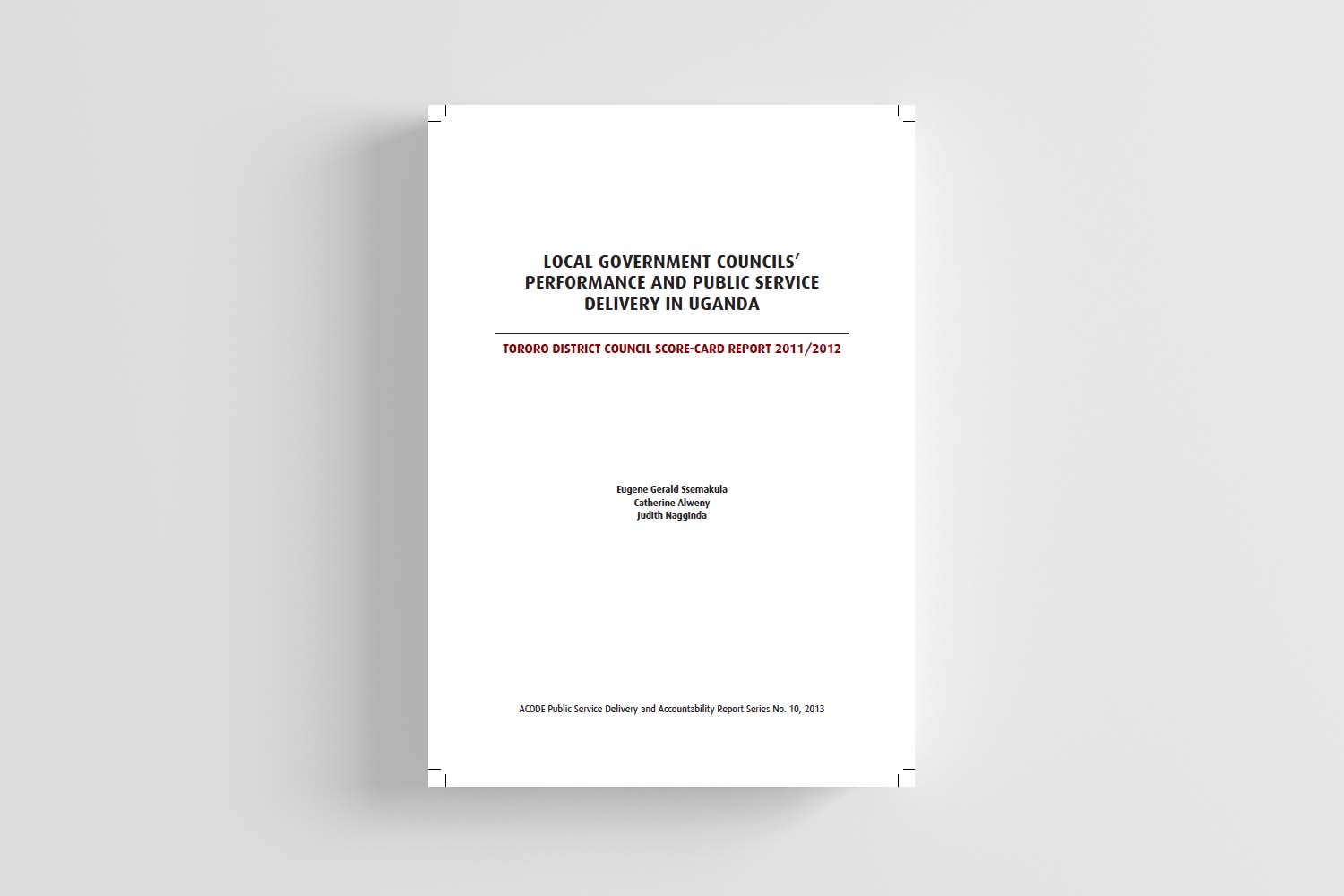
Local Government Councils’ Performance and Public Service Delivery in Uganda: Tororo District Council Scorecard Report 2011/12
Author(s): Eugene Gerald Ssemakula, Catherine Alweny, and Judith Nagginda
Published: 2013
This report presents a scorecard assessment of Tororo District that analysed service delivery vis-à-vis the performance of the political leadership. The report makes a number of recommendations with regard to citizen engagement, funding, and follow-up on part of the councilors which we believe if undertaken will go a long way in improving both the political performance of councilors and the quality of service delivery.
View PDF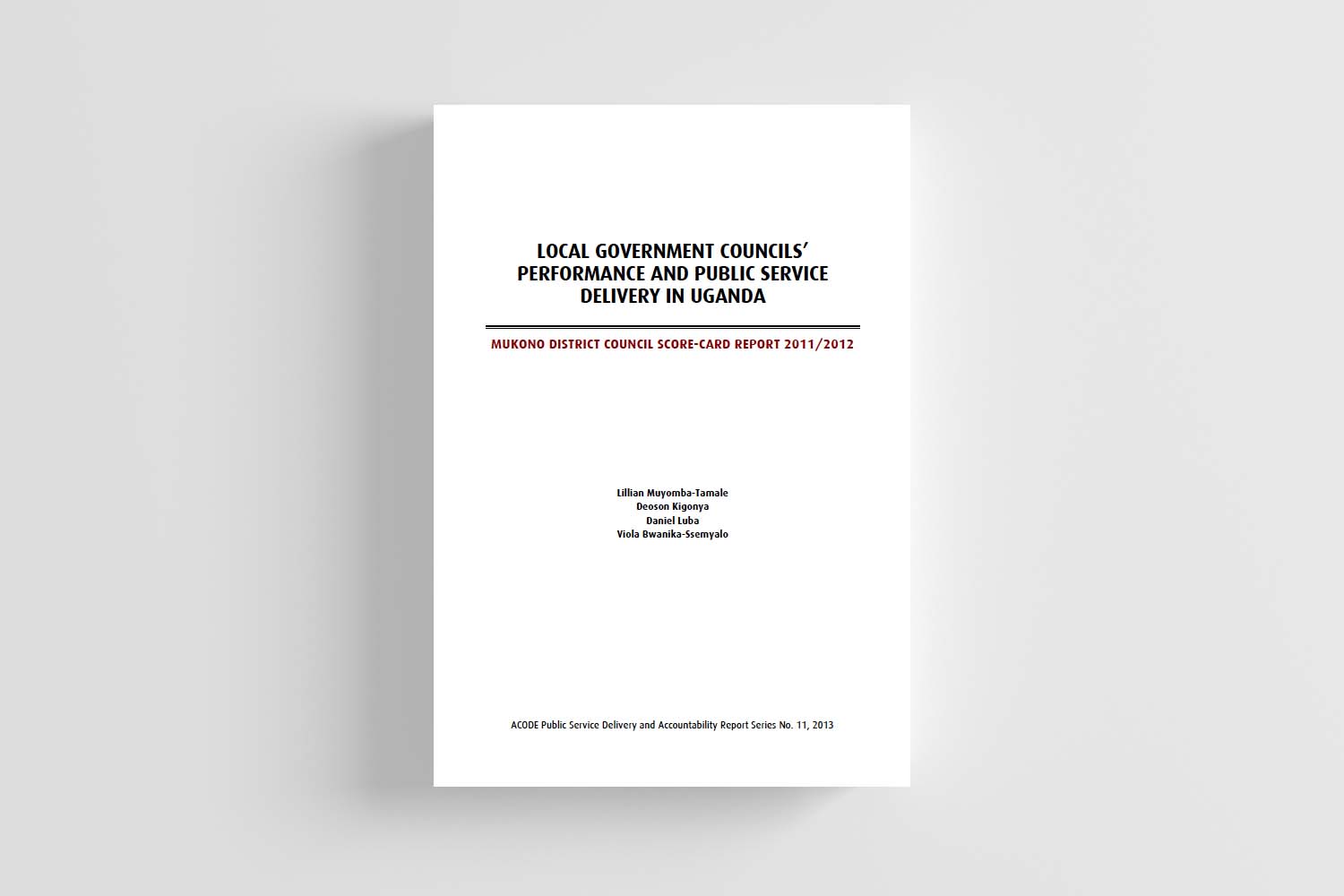
Local Government Councils’ Performance and Public Service Delivery in Uganda: Mukono District Council Scorecard Report 2011/12
Author(s): Lillian Muyomba - Tamale, Deoson Kigonya, Daniel Luba, and Viola Bwanika-Ssemyalo
Published: 2013
This report presents a scorecard assessment of Mukono District that analysed service delivery vis-à-vis the performance of the political leadership. The report makes a number of recommendations with regard to citizen engagement, funding, and follow-up on part of the councilors which we believe if undertaken will go a long way in improving both the political performance of councilors and the quality of service delivery.
View PDF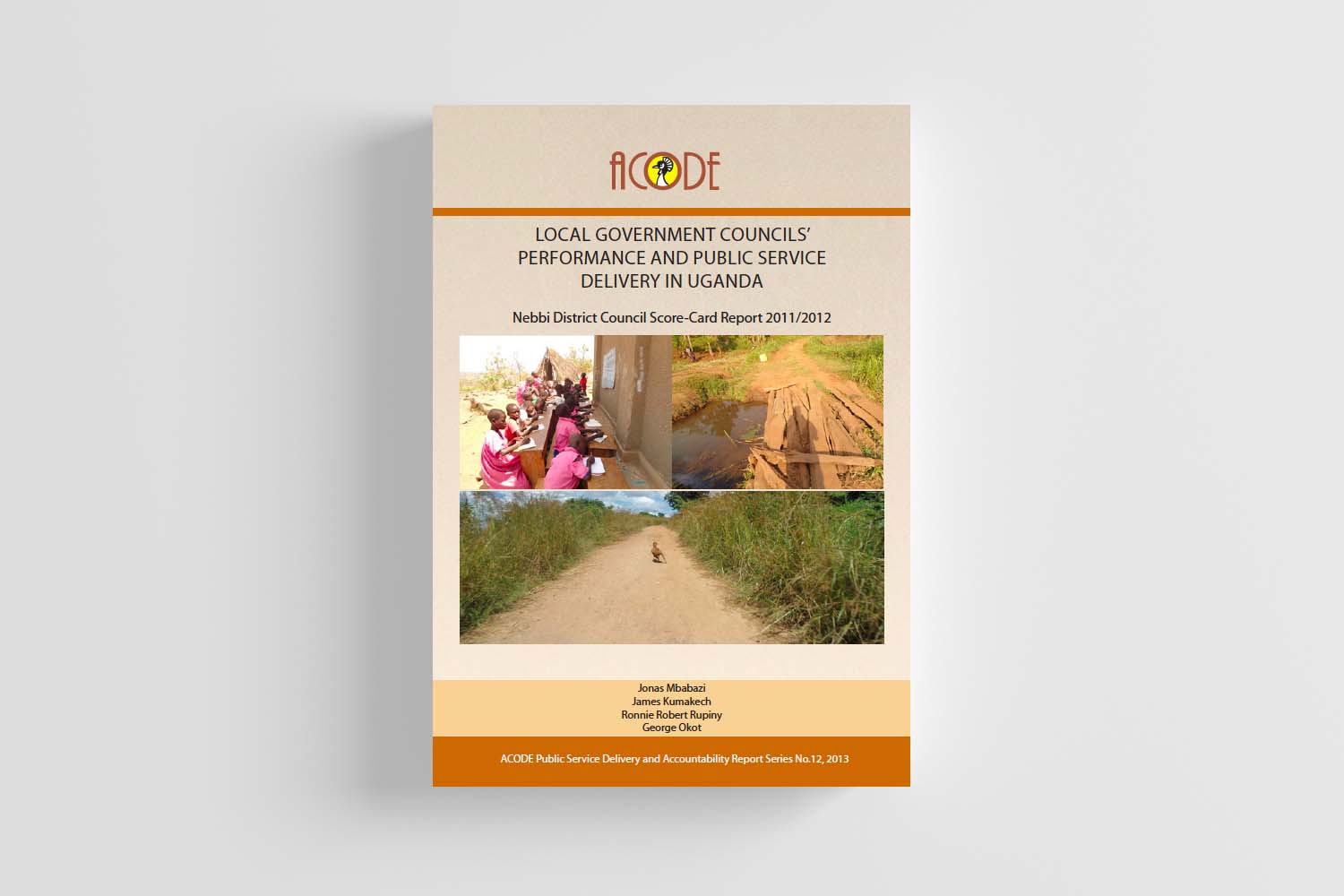
Local Government Councils’ Performance and Public Service Delivery in Uganda: Nebbi District Council Scorecard Report 2011/12
Author(s): Jonas Mbabazi, James Kumakech, Ronnie Robert Rupiny, and George Okot
Published: 2013
This report presents a scorecard assessment of Nebbi District that analysed service delivery vis-à-vis the performance of the political leadership. The report makes a number of recommendations with regard to citizen engagement, funding, and follow-up on part of the councilors which we believe if undertaken will go a long way in improving both the political performance of councilors and the quality of service delivery.
View PDF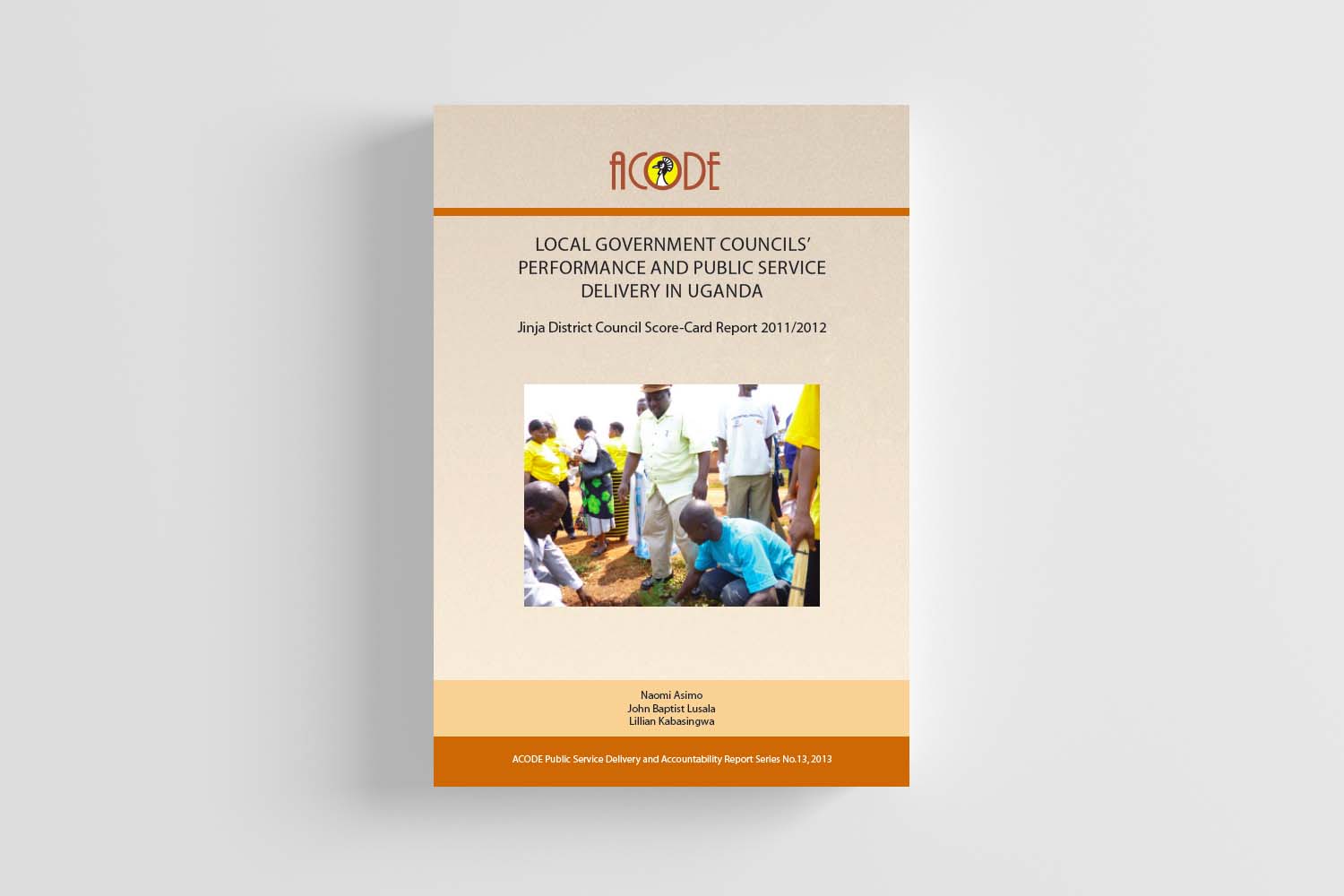
Local Government Councils’ Performance and Public Service Delivery in Uganda: Jinja District Council Scorecard Report 2011/12
Author(s): Naomi Asimo, John Baptist Lusala, and Lillian Kabasingwa
Published: 2013
This report presents a scorecard assessment of Jinja District that analysed service delivery vis-à-vis the performance of the political leadership. The report makes a number of recommendations with regard to citizen engagement, funding, and follow-up on part of the councilors which we believe if undertaken will go a long way in improving both the political performance of councilors and the quality of service delivery.
View PDF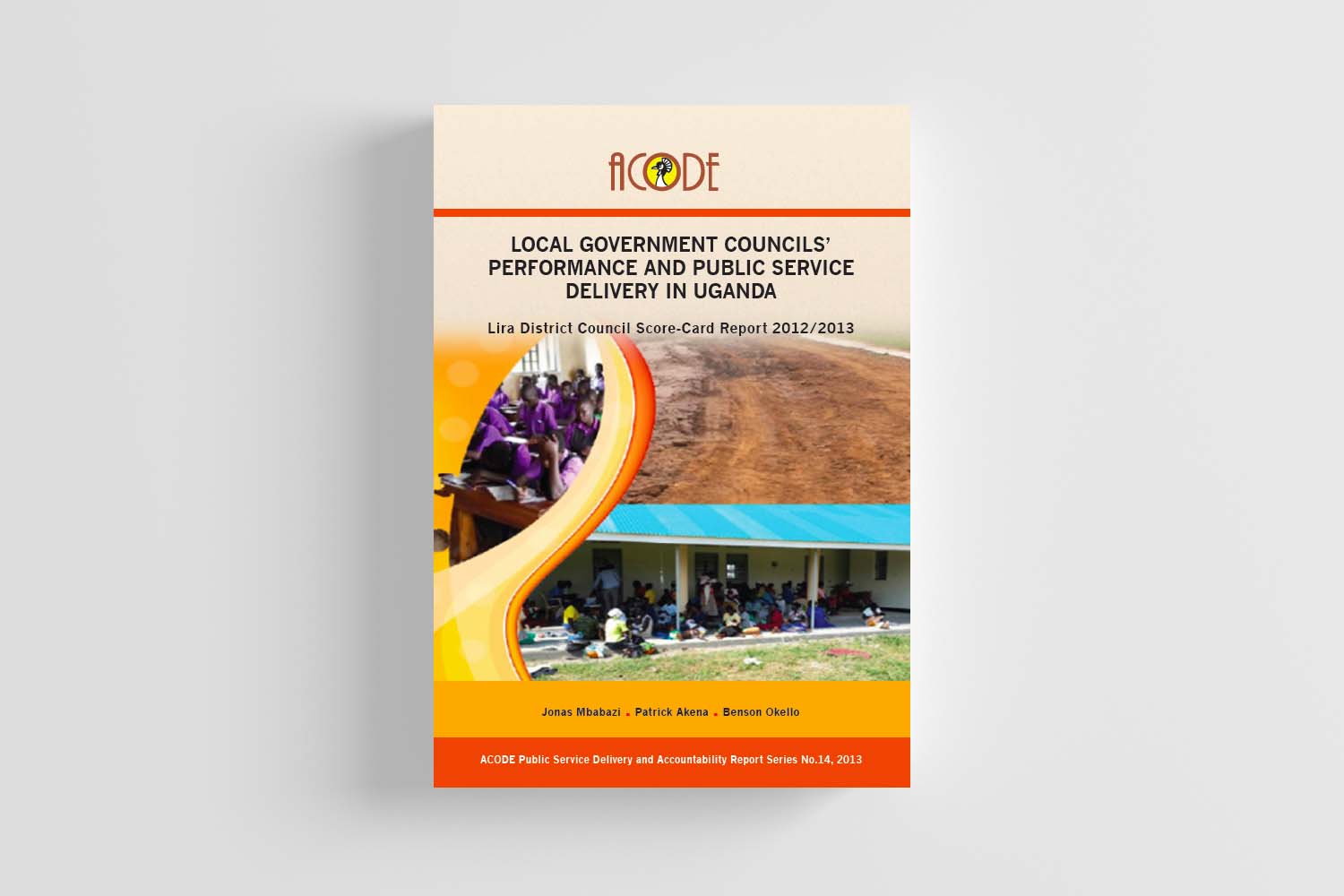
Local Government Councils’ Performance and Public Service Delivery in Uganda: Lira District Council Scorecard Report 2012/13
Author(s): Jonas Mbabazi, Patrick Akena, and Benson Okello
Published: 2013
This report presents a scorecard assessment of Lira District that analysed service delivery vis-à-vis the performance of the political leadership. The report makes a number of recommendations with regard to citizen engagement, funding, and follow-up on part of the councilors which we believe if undertaken will go a long way in improving both the political performance of councilors and the quality of service delivery.
View PDF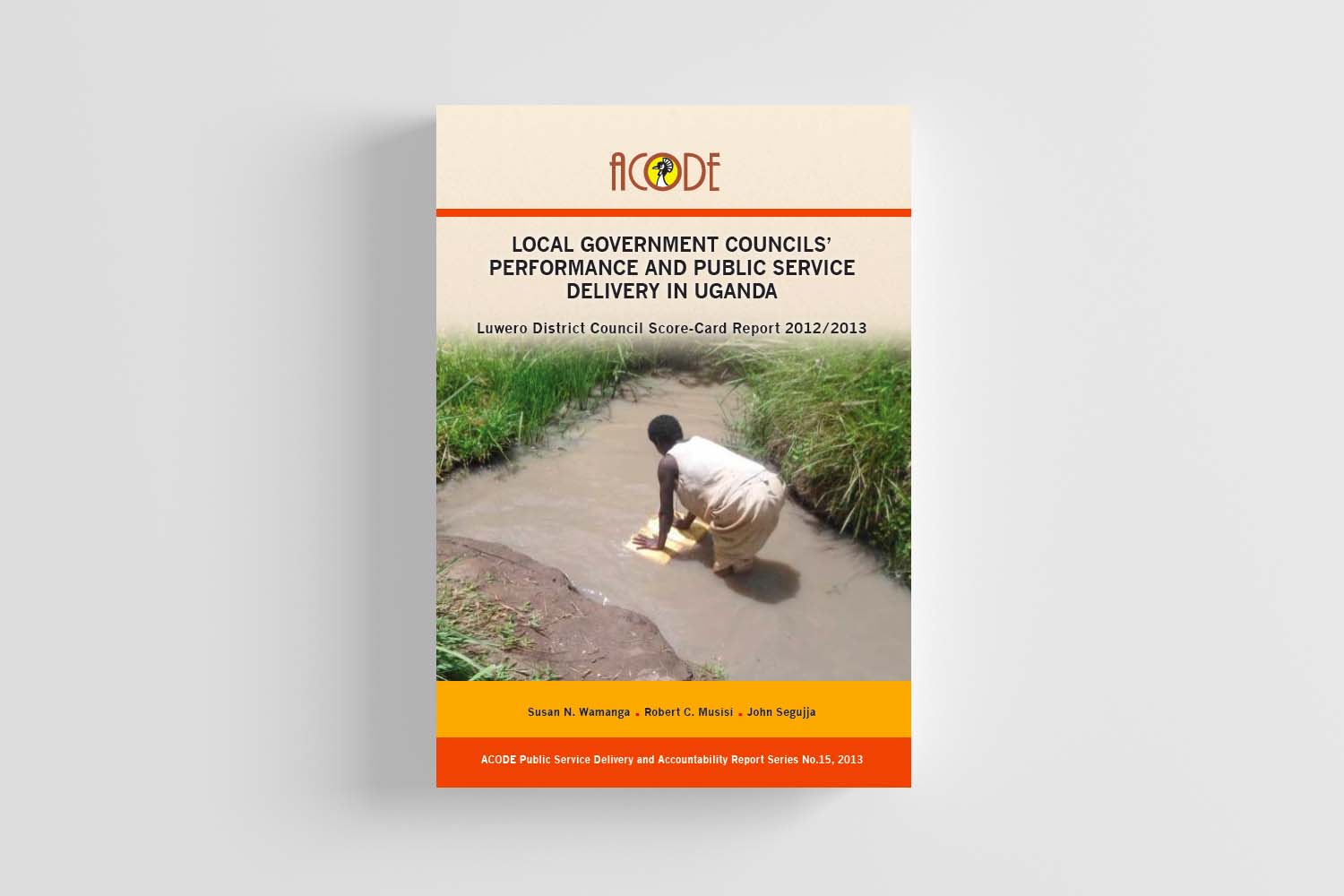
Local Government Councils’ Performance and Public Service Delivery in Uganda: Luwero District Council Scorecard Report 2012/13
Author(s): Susan N. Wamanga, Robert C. Musisi, and John Segujja
Published: 2013
This report presents a scorecard assessment of Luwero District that analysed service delivery vis-à-vis the performance of the political leadership. The report makes a number of recommendations with regard to citizen engagement, funding, and follow-up on part of the councilors which we believe if undertaken will go a long way in improving both the political performance of councilors and the quality of service delivery.
View PDF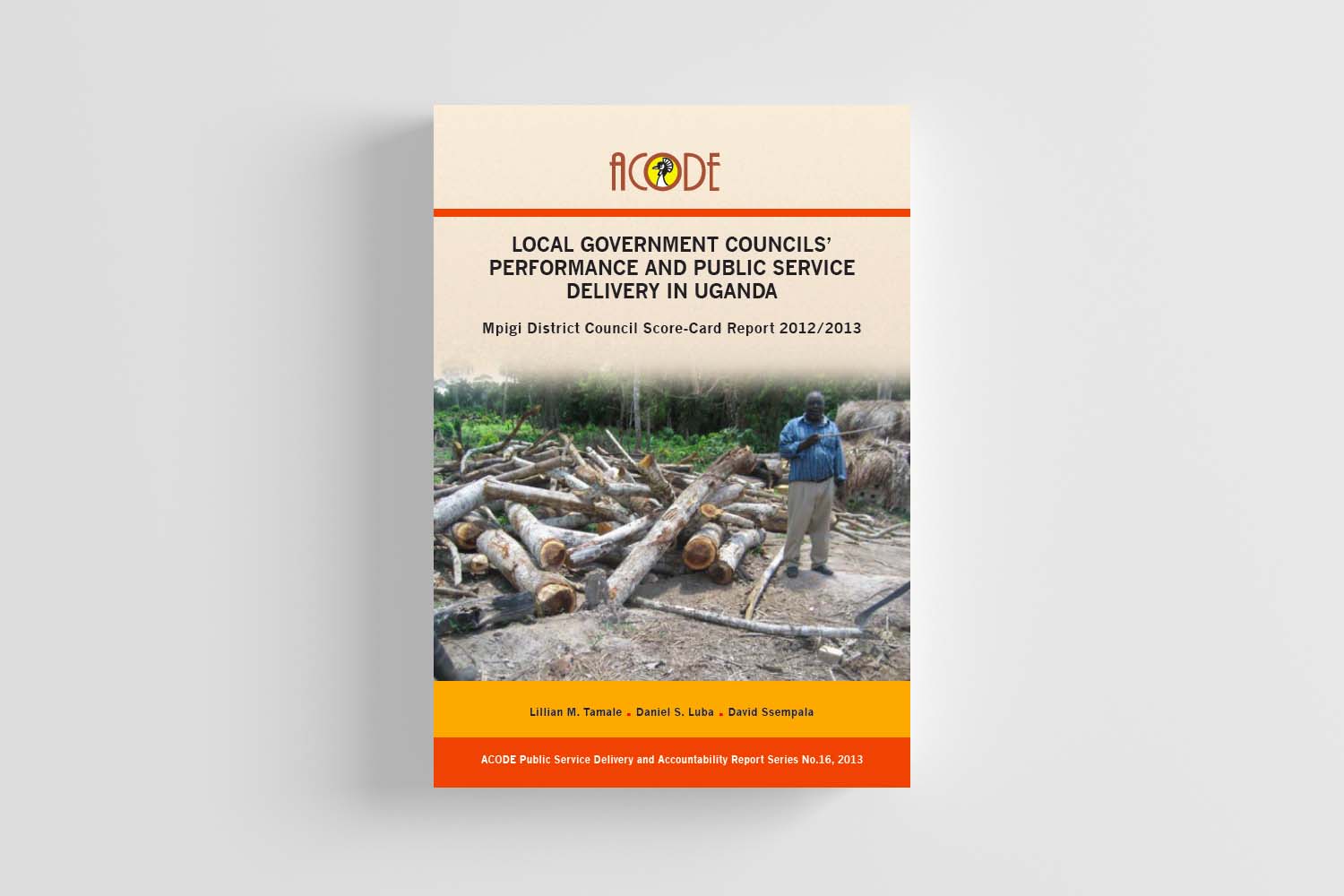
Local Government Councils’ Performance and Public Service Delivery in Uganda: Mpigi District Council Scorecard Report 2012/13
Author(s): Lillian M. Tamale, Daniel S. Luba, and David Ssempala
Published: 2013
This report presents a scorecard assessment of Mpigi District that analysed service delivery vis-à-vis the performance of the political leadership. The report makes a number of recommendations with regard to citizen engagement, funding, and follow-up on part of the councilors which we believe if undertaken will go a long way in improving both the political performance of councilors and the quality of service delivery.
View PDF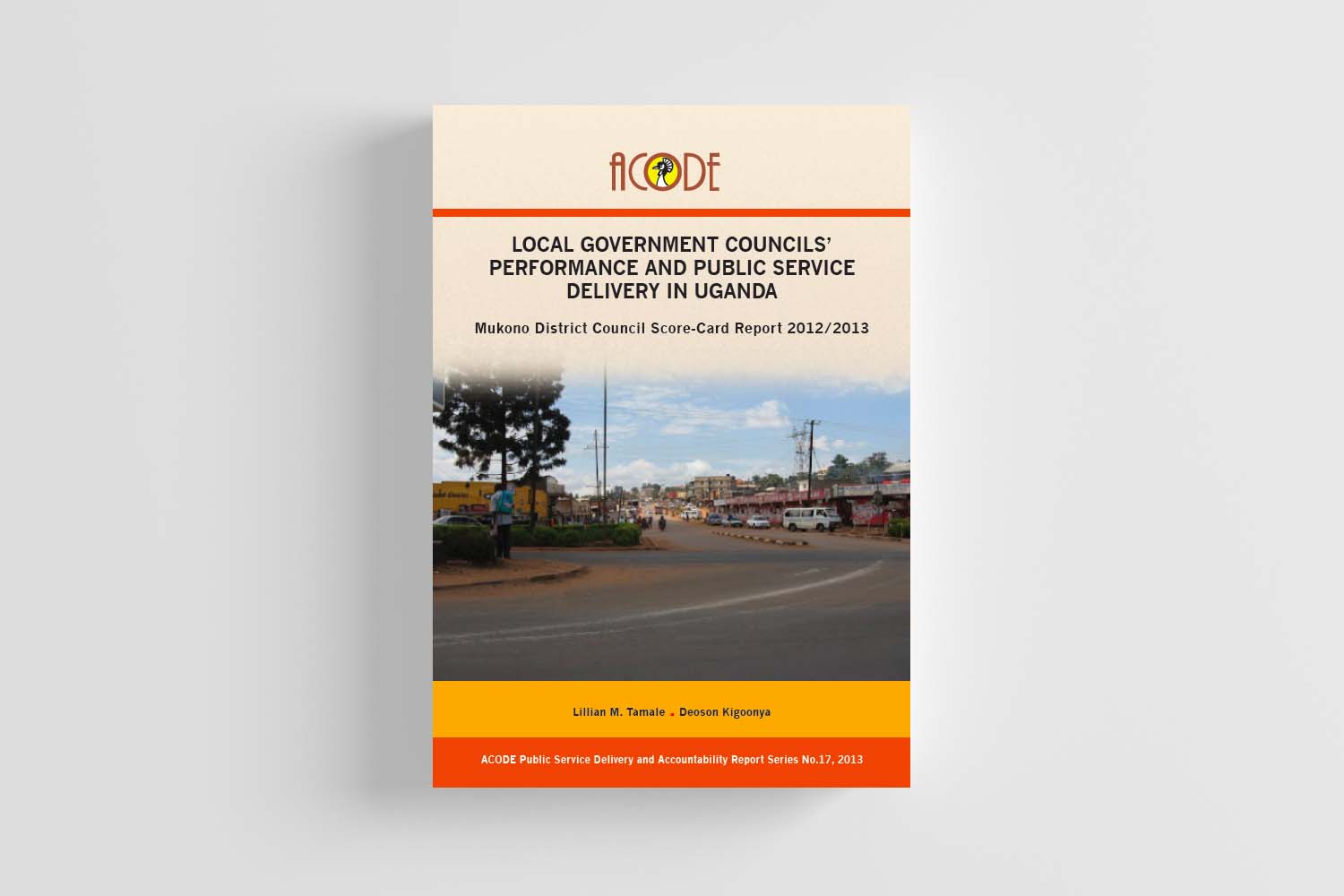
Local Government Councils’ Performance and Public Service Delivery in Uganda: Mukono District Council Scorecard Report 2012/13
Author(s): Lillian M. Tamale and Deoson Kigoonya
Published: 2013
This report presents a scorecard assessment of Mukono District that analysed service delivery vis-à-vis the performance of the political leadership. The report makes a number of recommendations with regard to citizen engagement, funding, and follow-up on part of the councilors which we believe if undertaken will go a long way in improving both the political performance of councilors and the quality of service delivery.
View PDF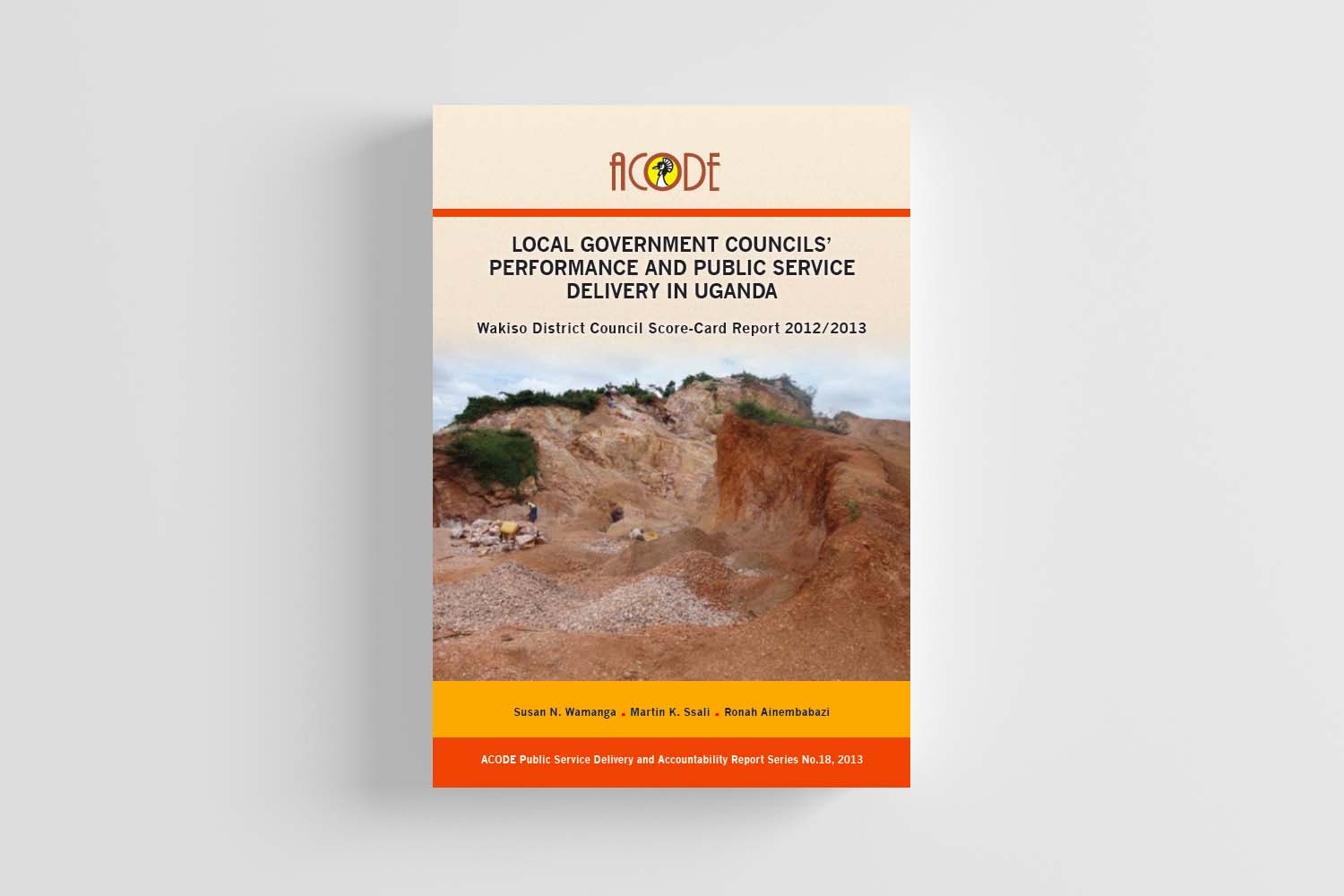
Local Government Councils’ Performance and Public Service Delivery in Uganda: Wakiso District Council Scorecard Report 2012/13
Author(s): Susan N. Wamanga, Martin K. Ssali, and Ronah Ainembabazi
Published: 2013
This report presents a scorecard assessment of Wakiso District that analysed service delivery vis-à-vis the performance of the political leadership. The report makes a number of recommendations with regard to citizen engagement, funding, and follow-up on part of the councilors which we believe if undertaken will go a long way in improving both the political performance of councilors and the quality of service delivery.
View PDF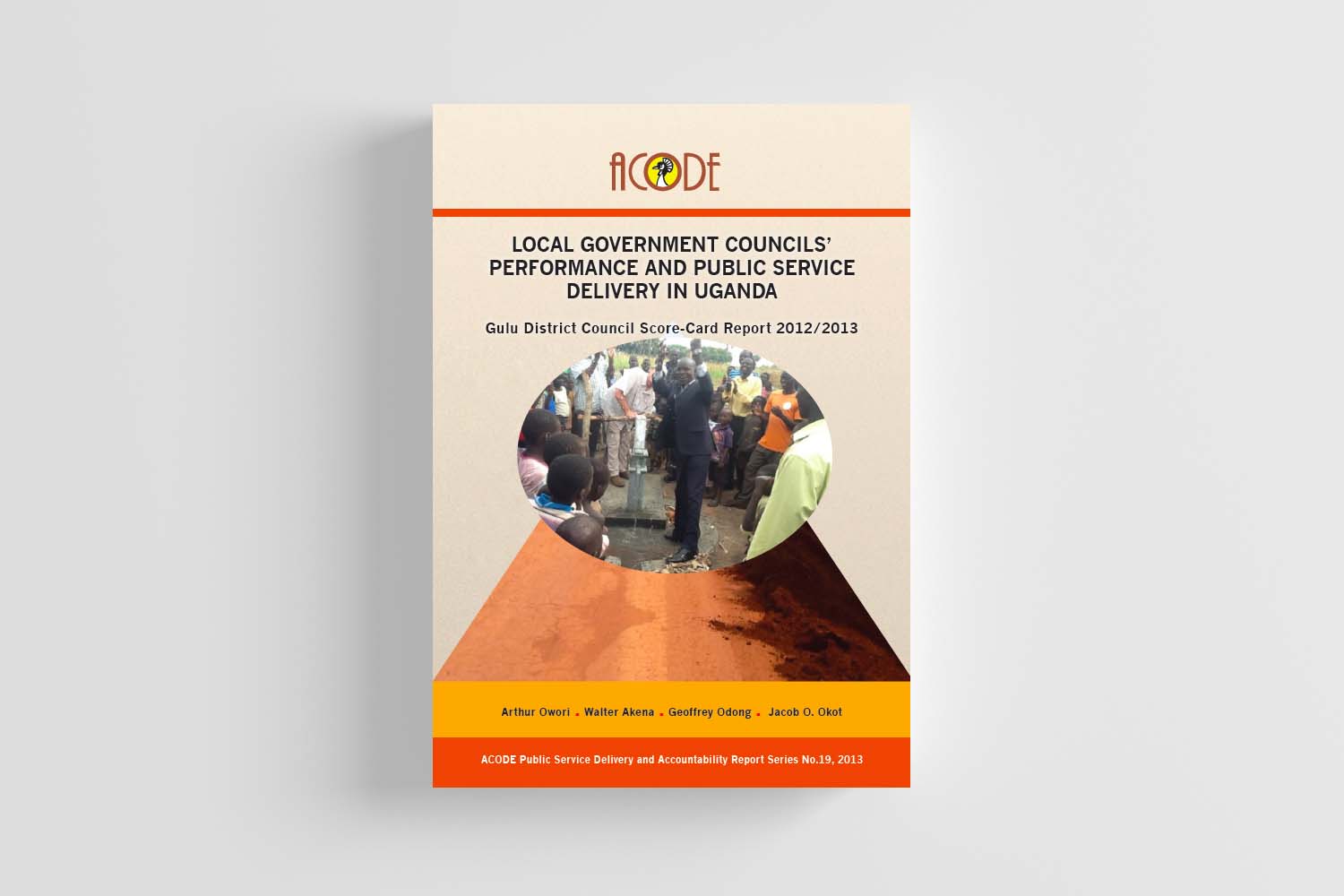
Local Government Councils’ Performance and Public Service Delivery in Uganda: Gulu District Council Scorecard Report 2012/13
Author(s): Arthur Owori, Walter Akena, Geoffrey Odong, and Jacob O. Okot
Published: 2013
This report presents a scorecard assessment of Gulu District that analysed service delivery vis-à-vis the performance of the political leadership. The report makes a number of recommendations with regard to citizen engagement, funding, and follow-up on part of the councilors which we believe if undertaken will go a long way in improving both the political performance of councilors and the quality of service delivery.
View PDF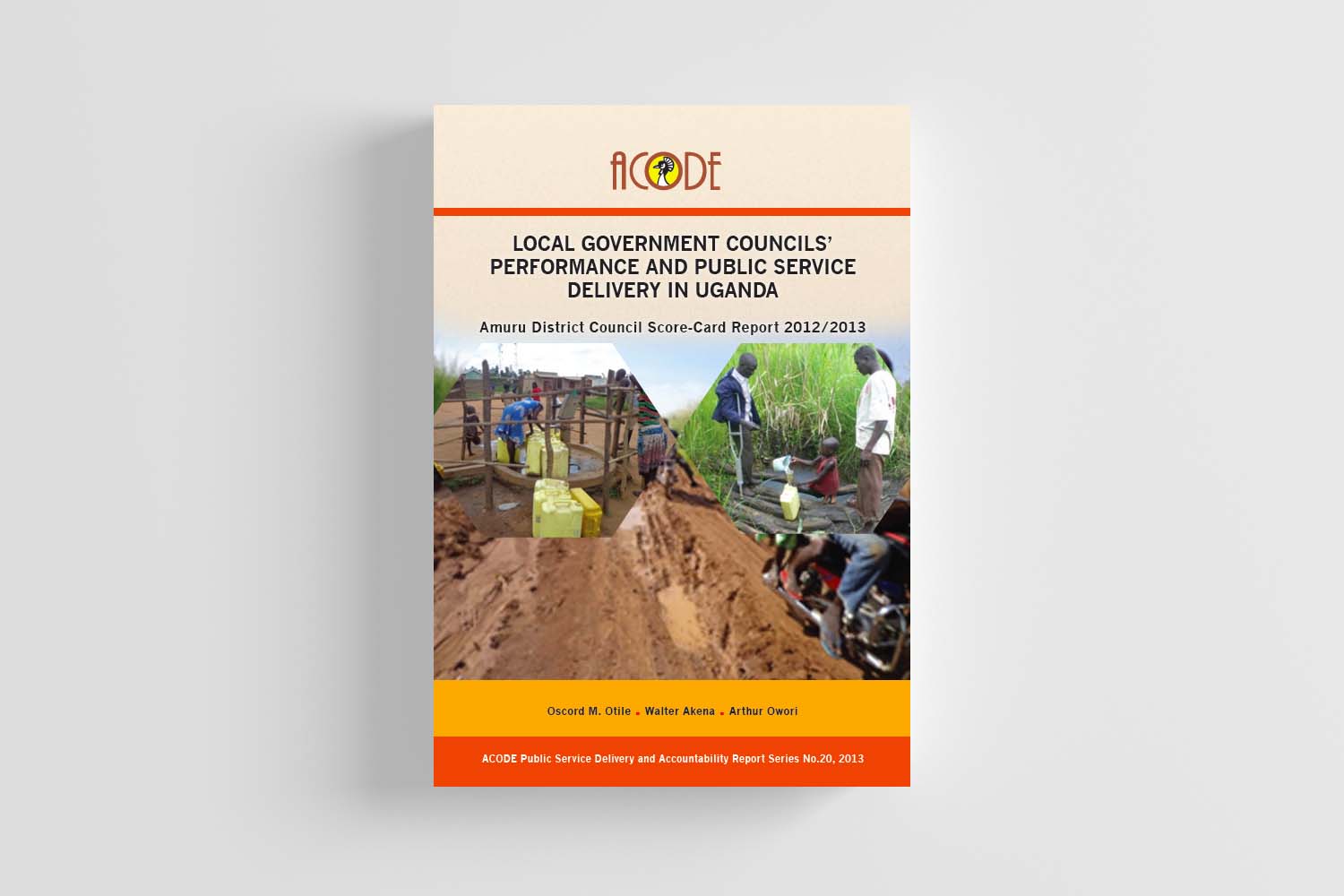
Local Government Councils’ Performance and Public Service Delivery in Uganda: Amuru District Council Scorecard Report 2012/13
Author(s): Oscord M. Otile, Walter Akena, and Arthur Owori
Published: 2013
This report presents a scorecard assessment of Amuru District that analysed service delivery vis-à-vis the performance of the political leadership. The report makes a number of recommendations with regard to citizen engagement, funding, and follow-up on part of the councilors which we believe if undertaken will go a long way in improving both the political performance of councilors and the quality of service delivery.
View PDF